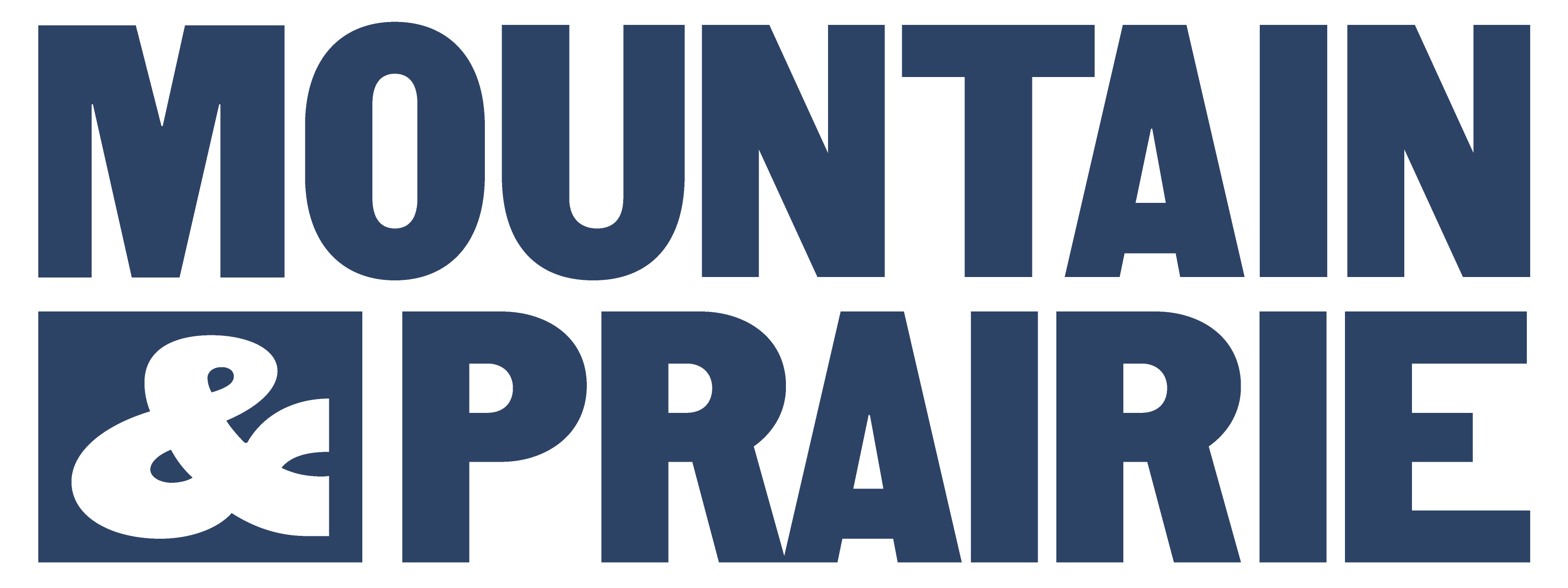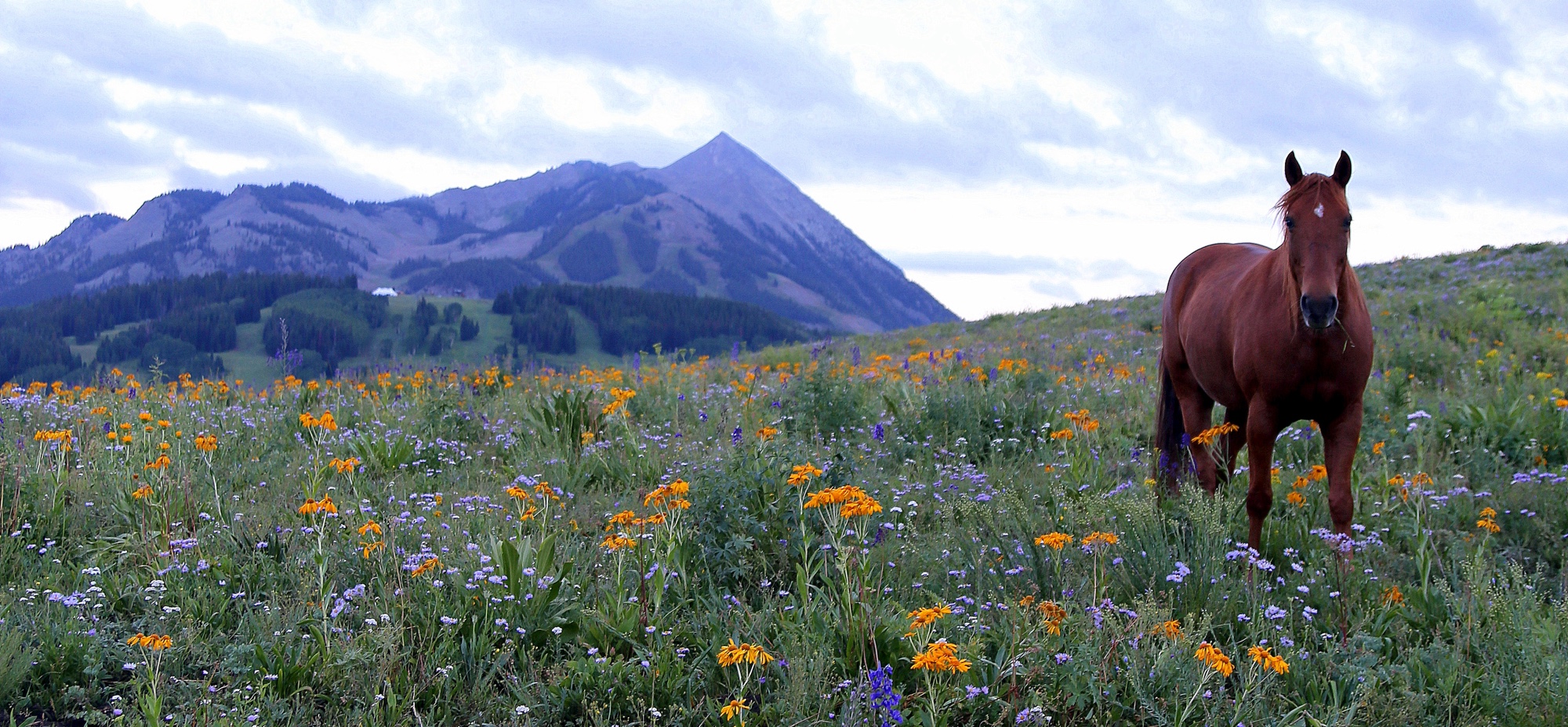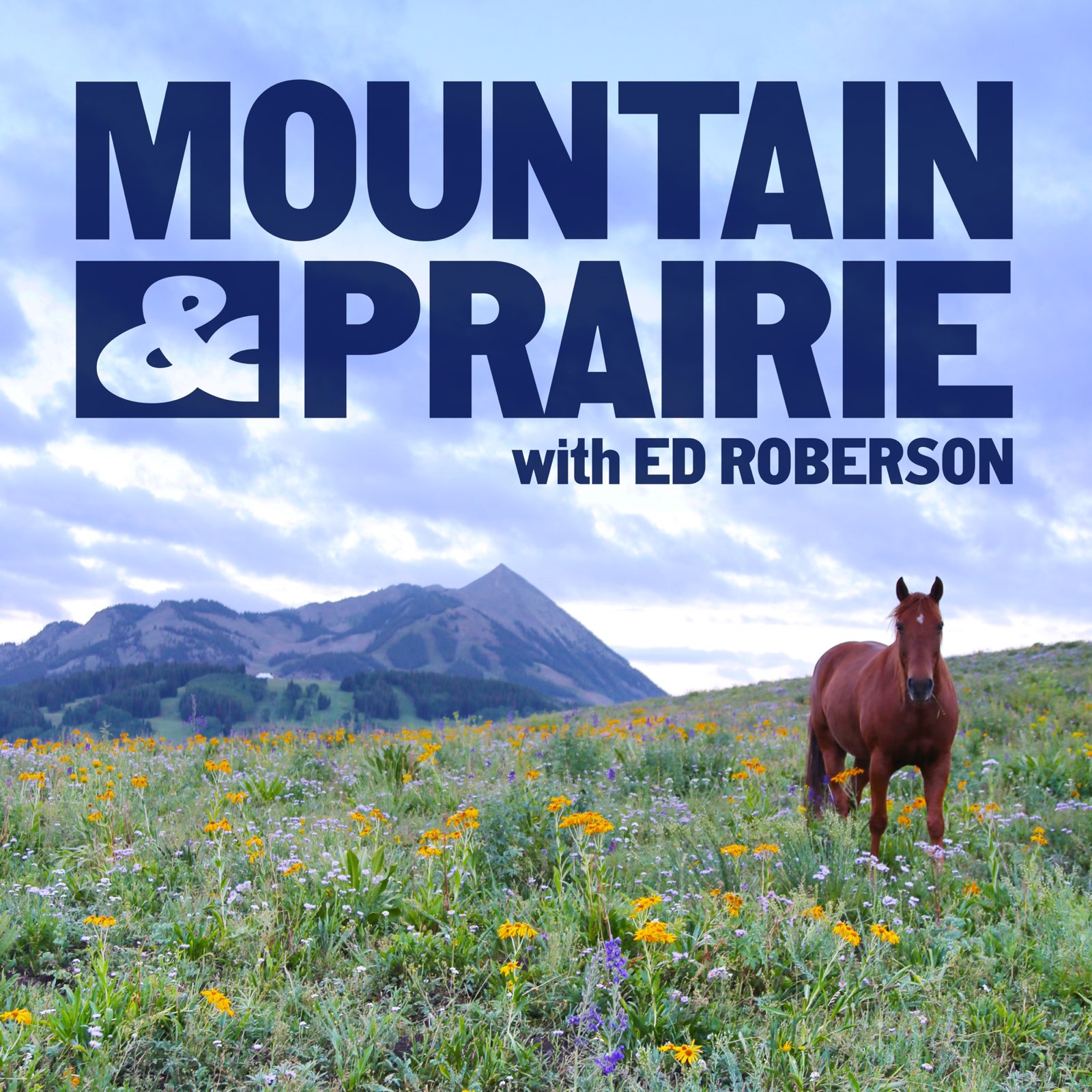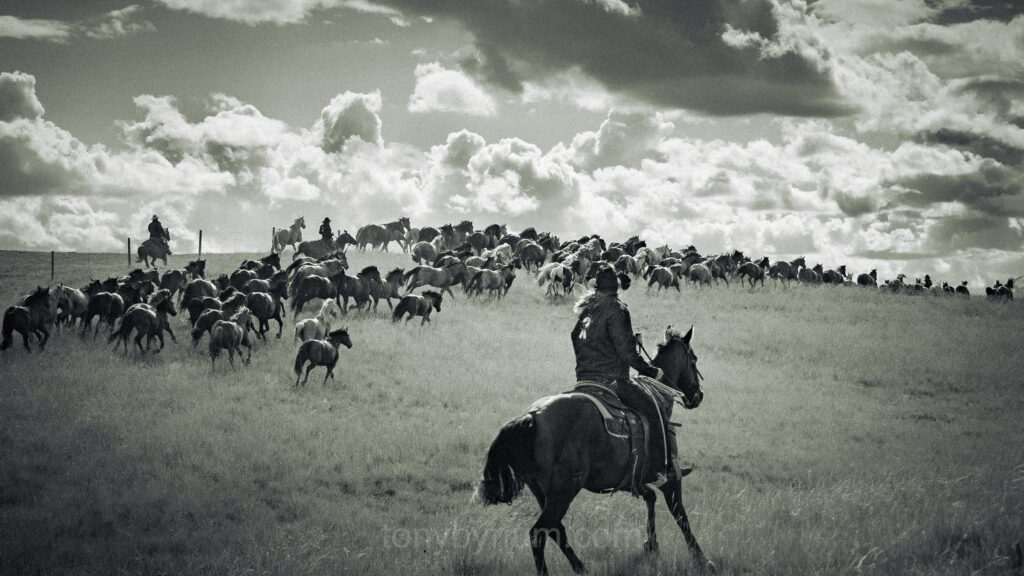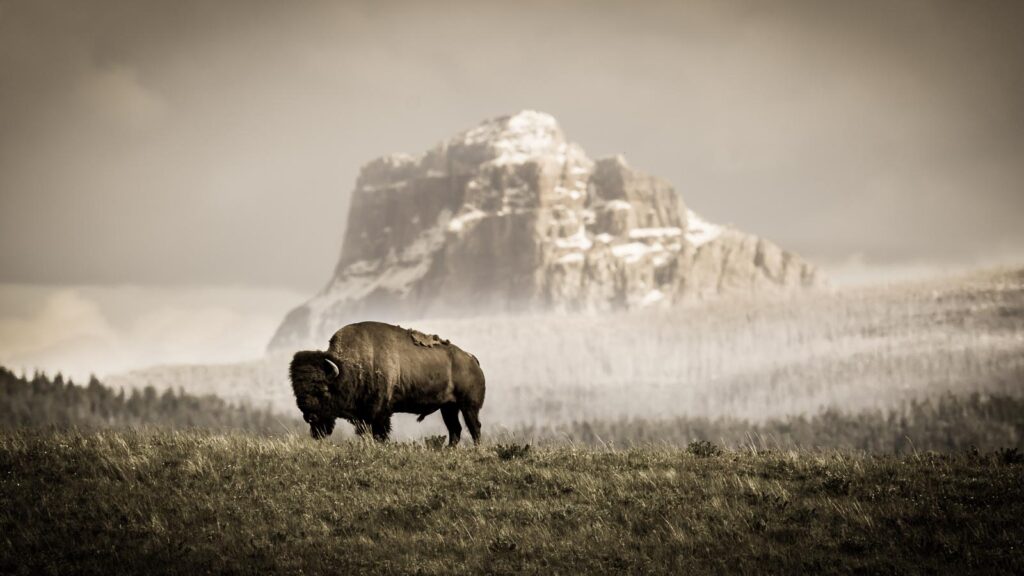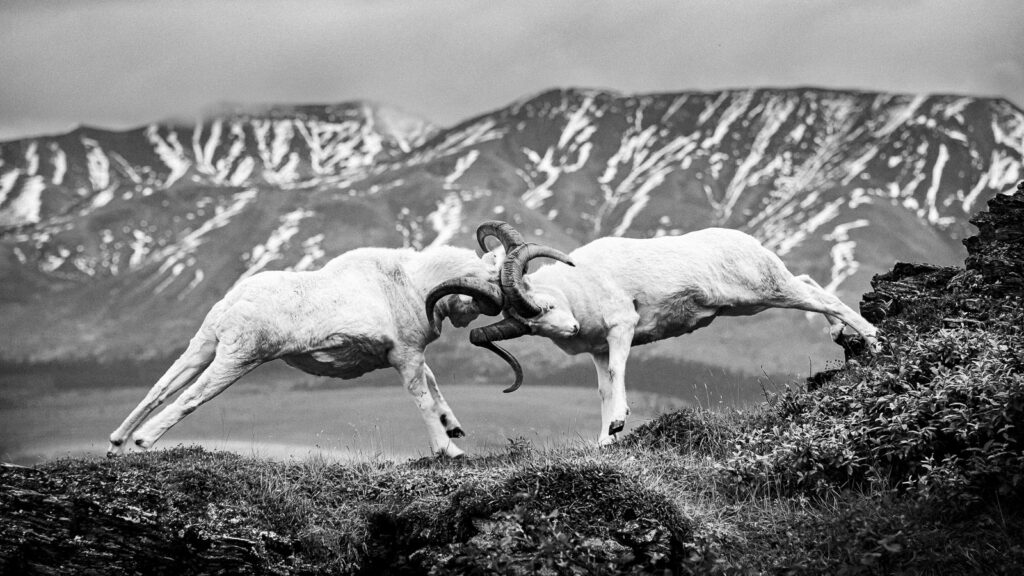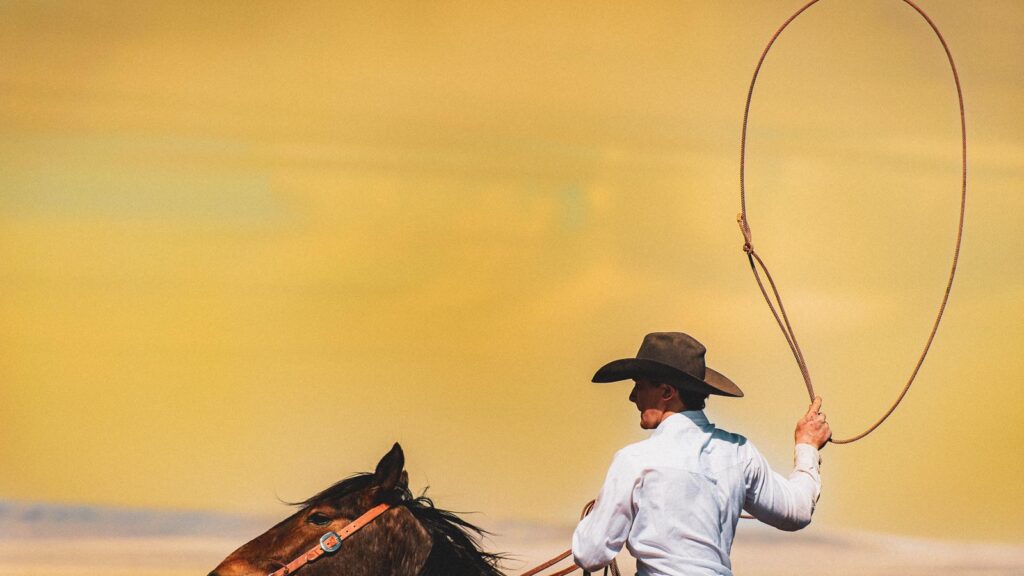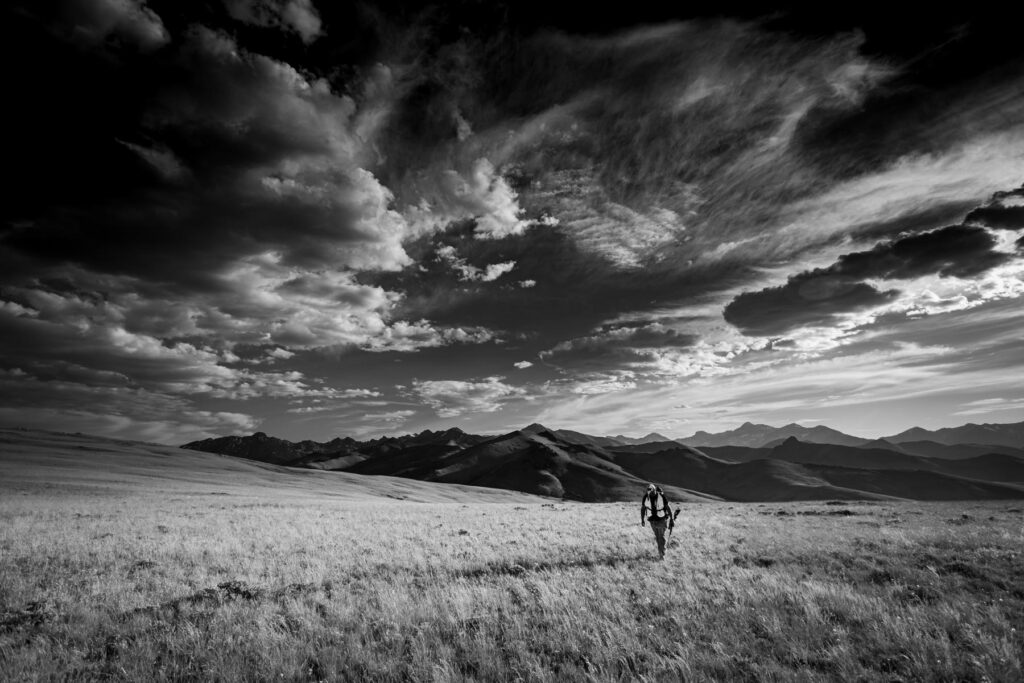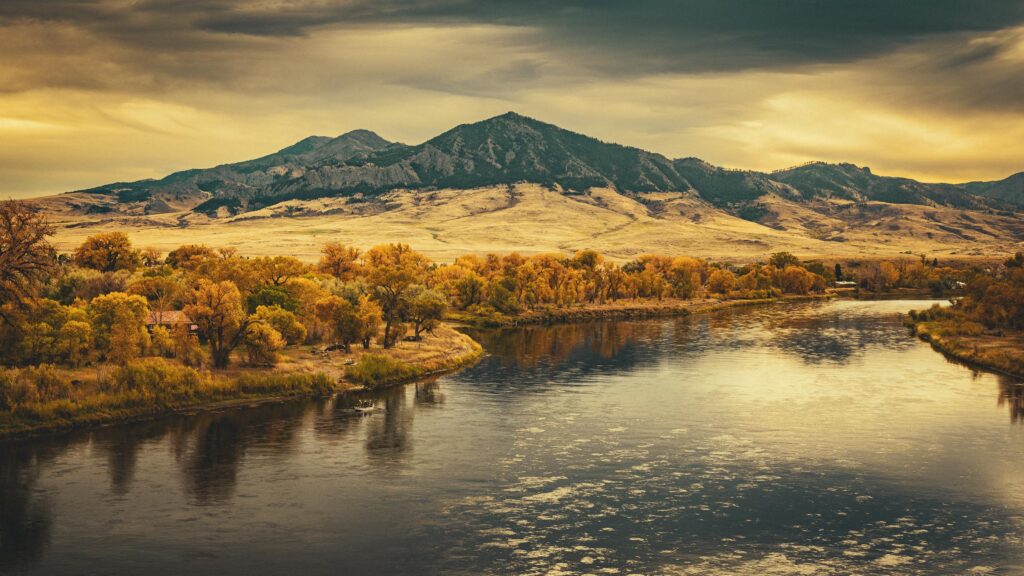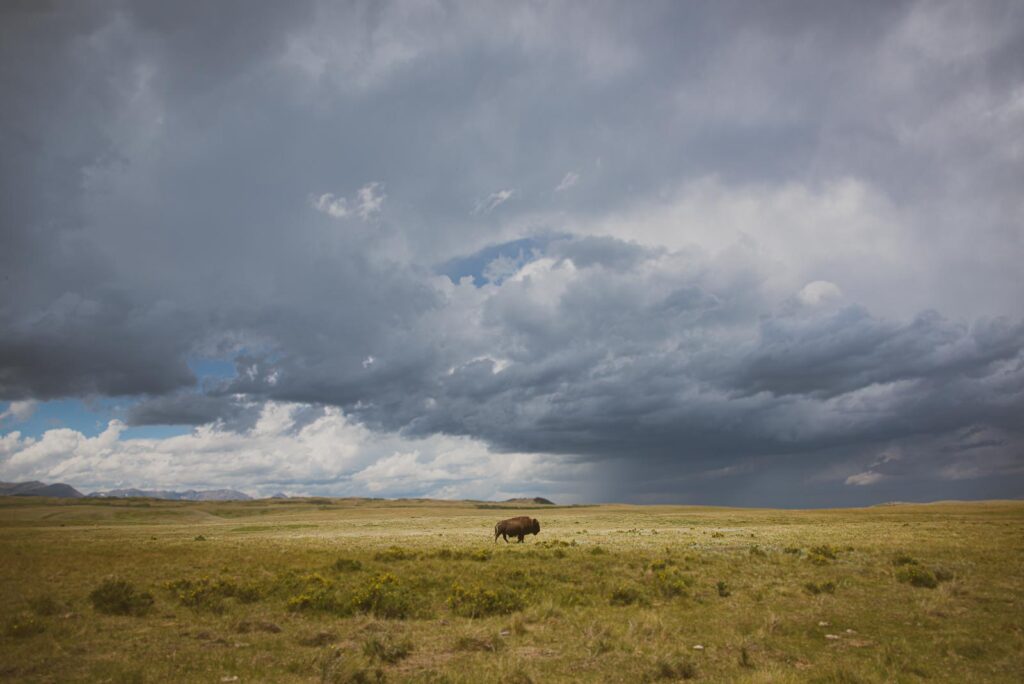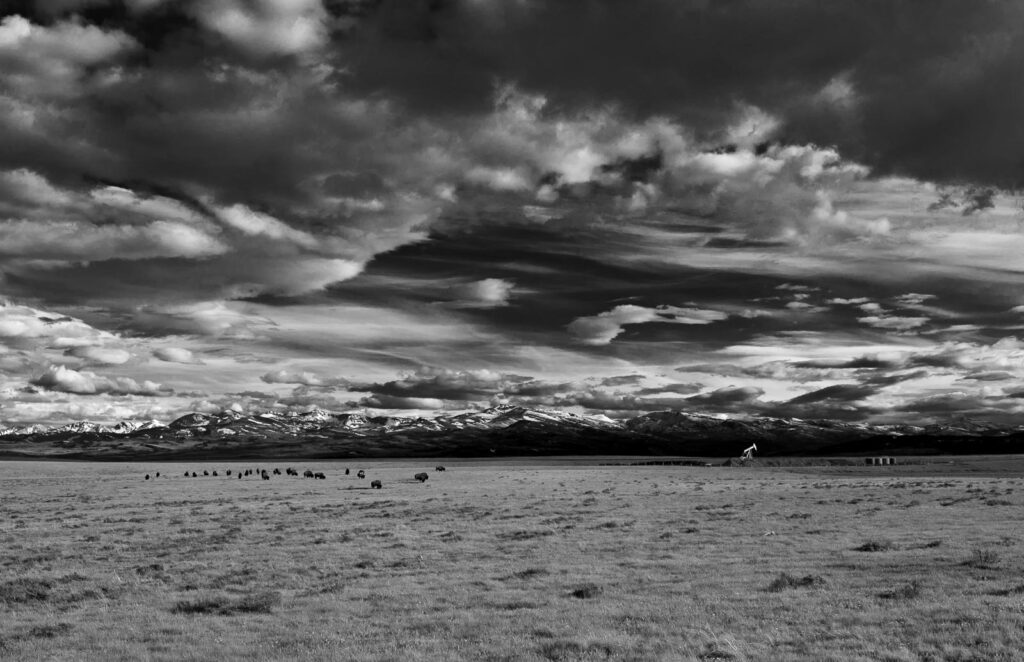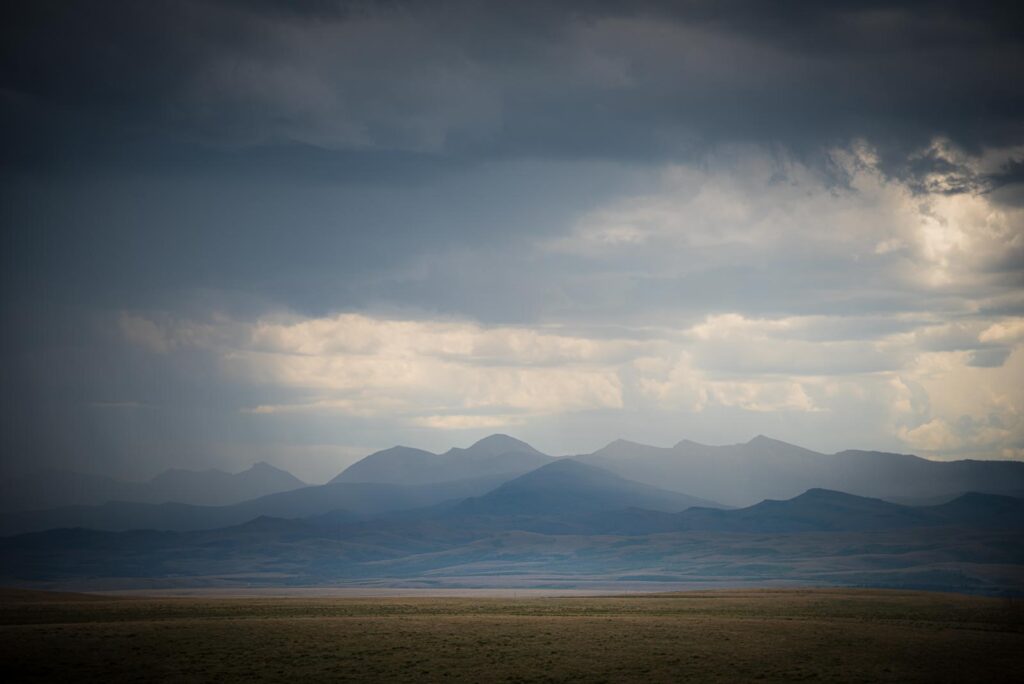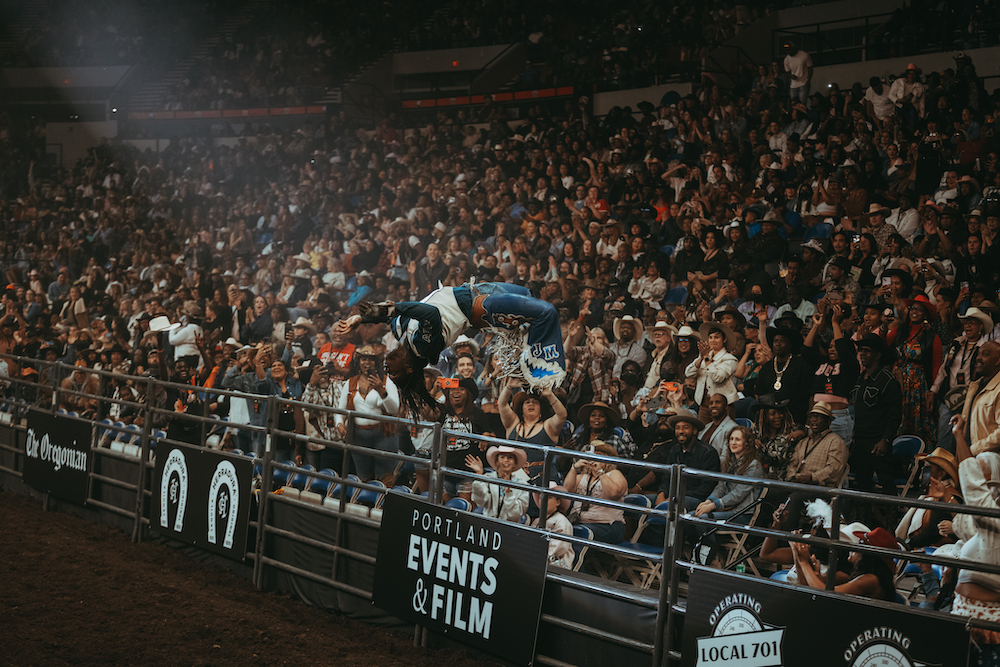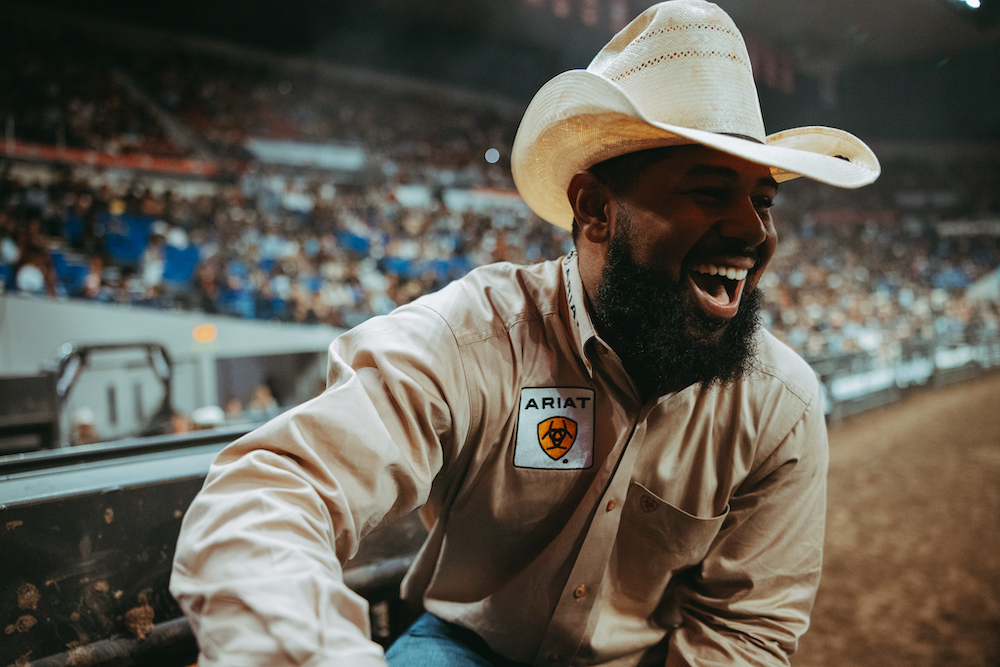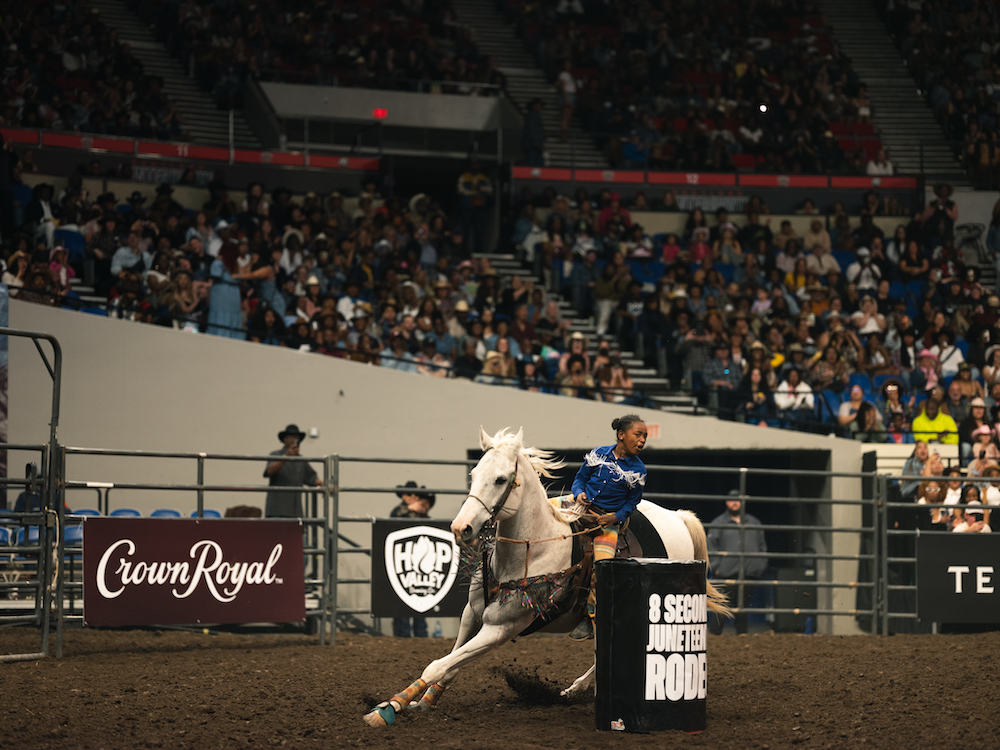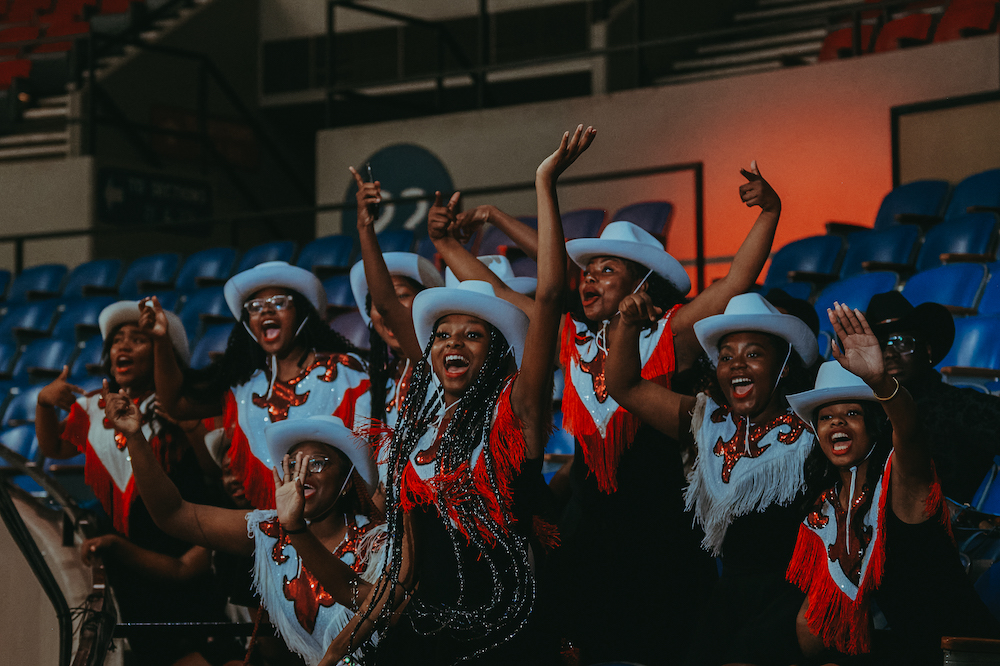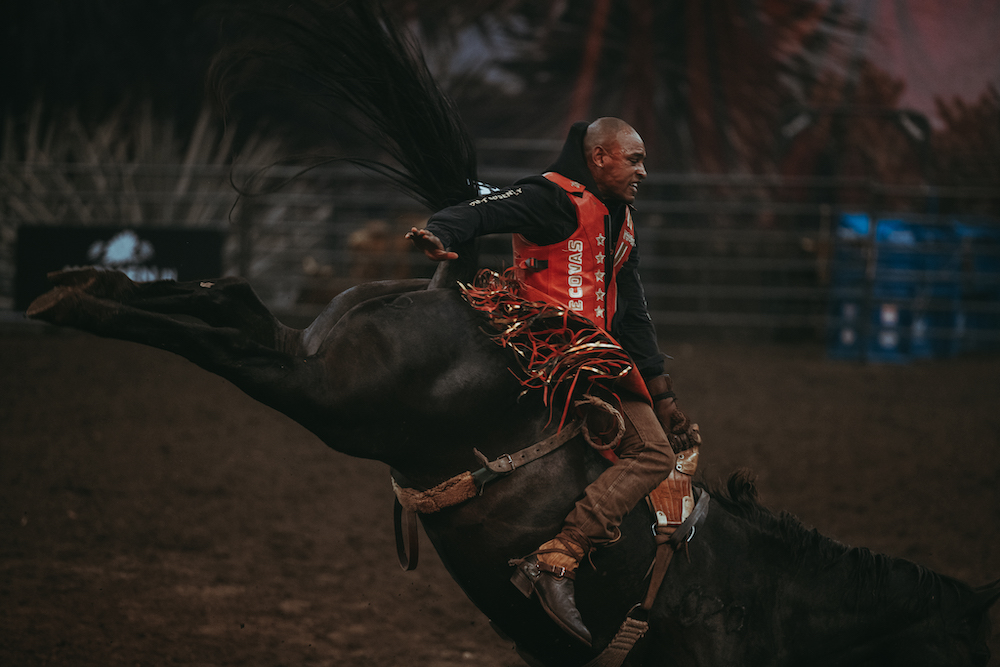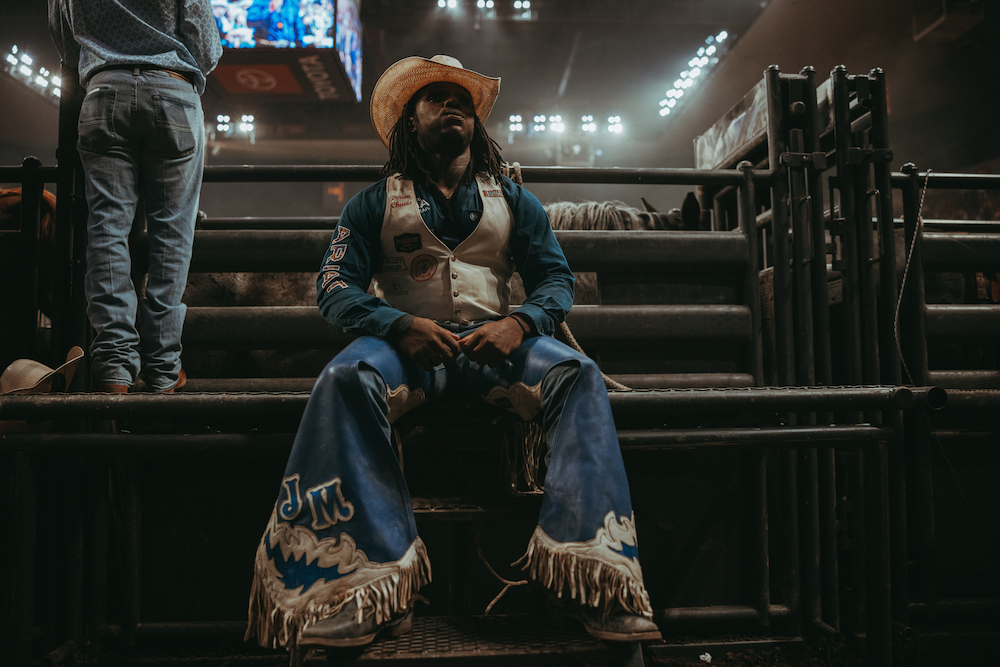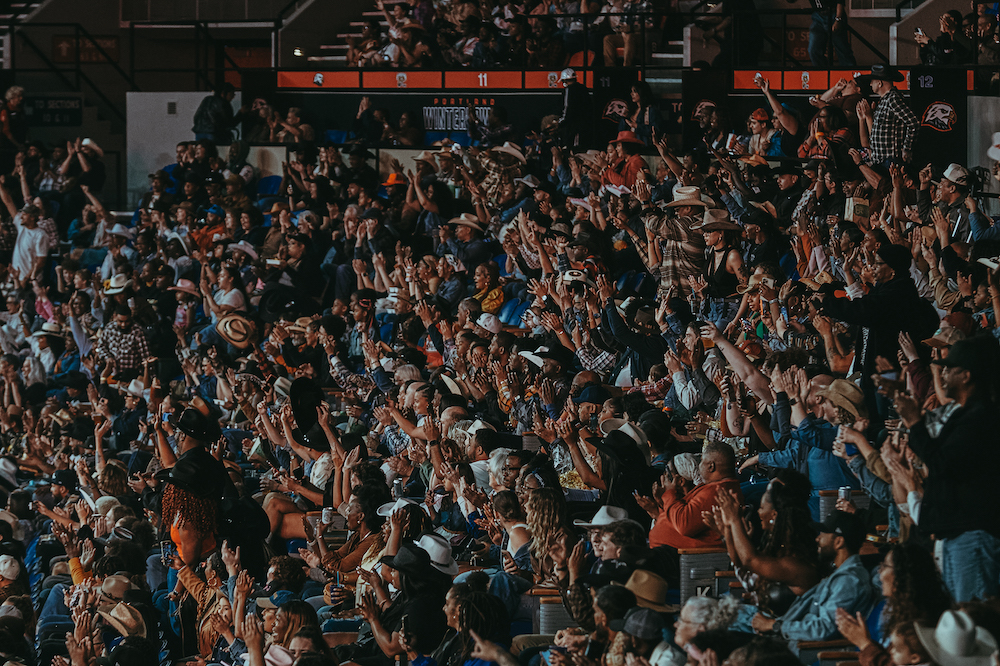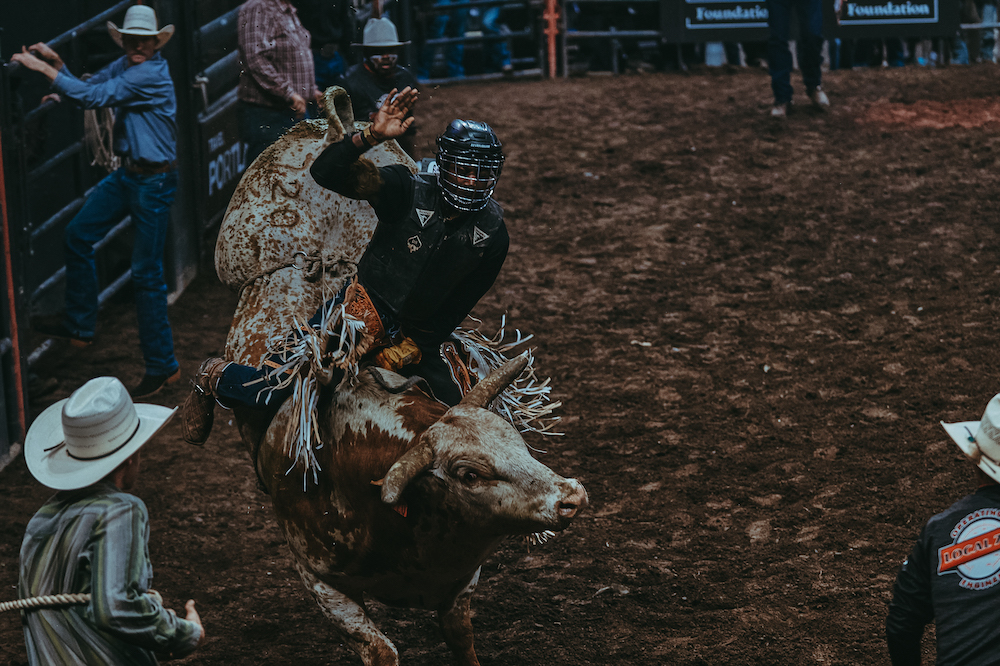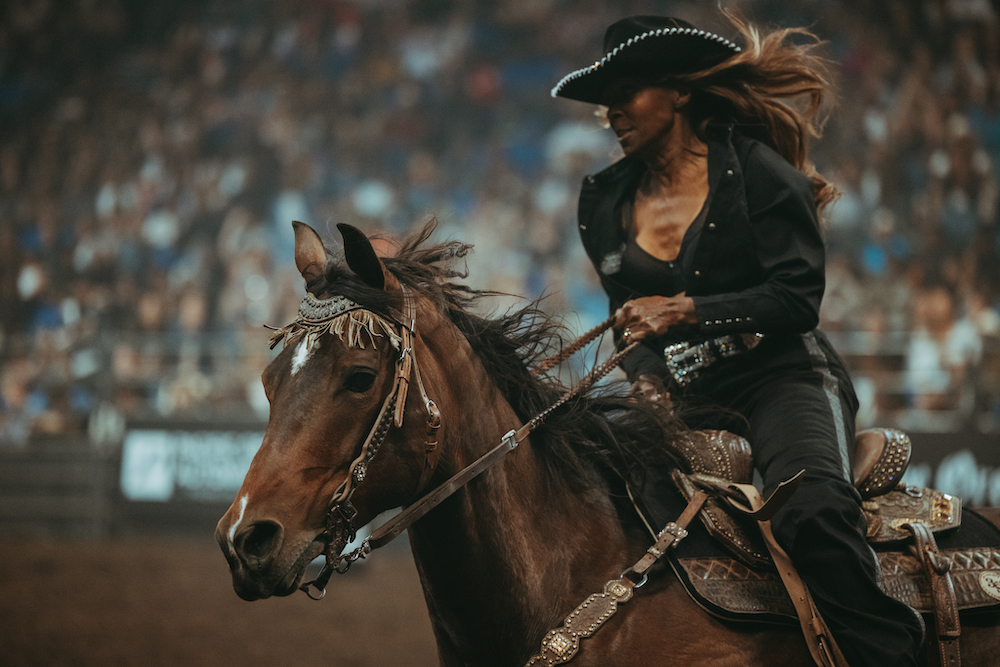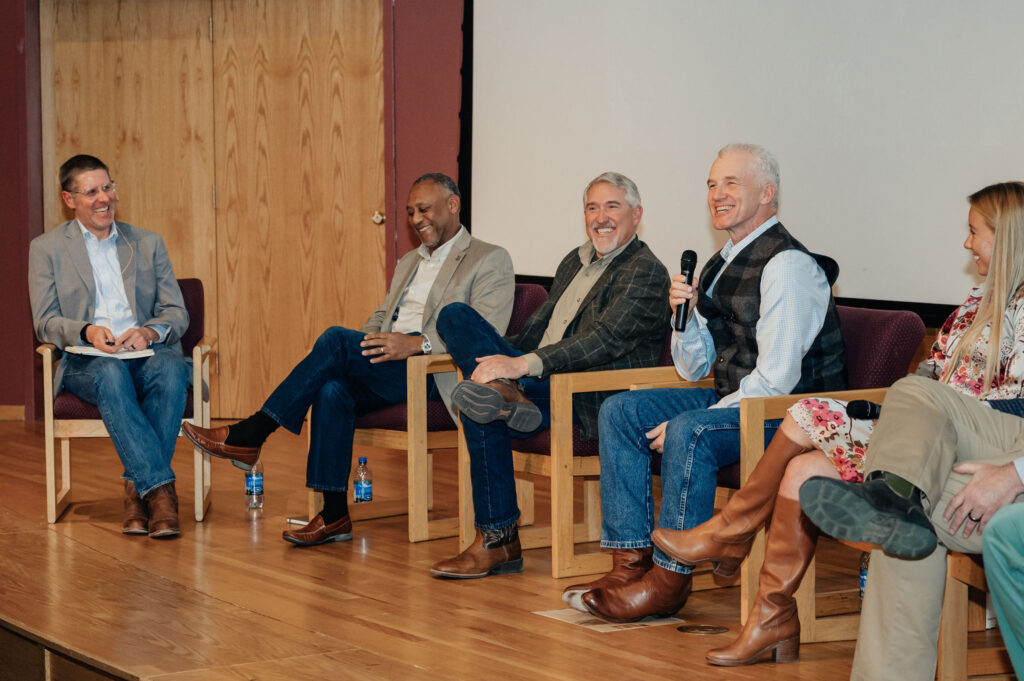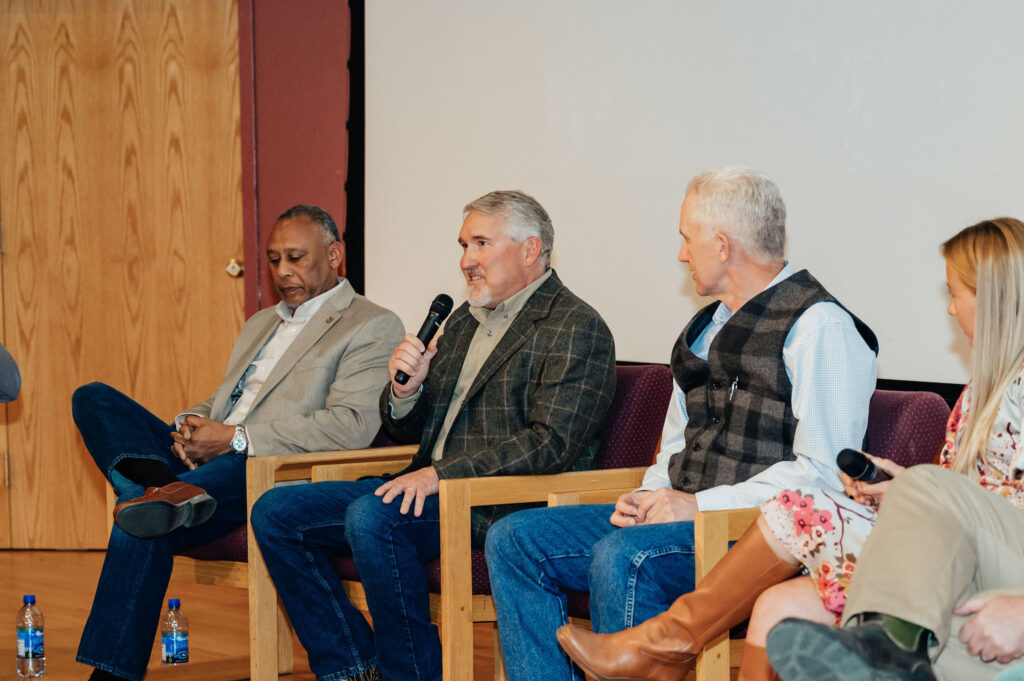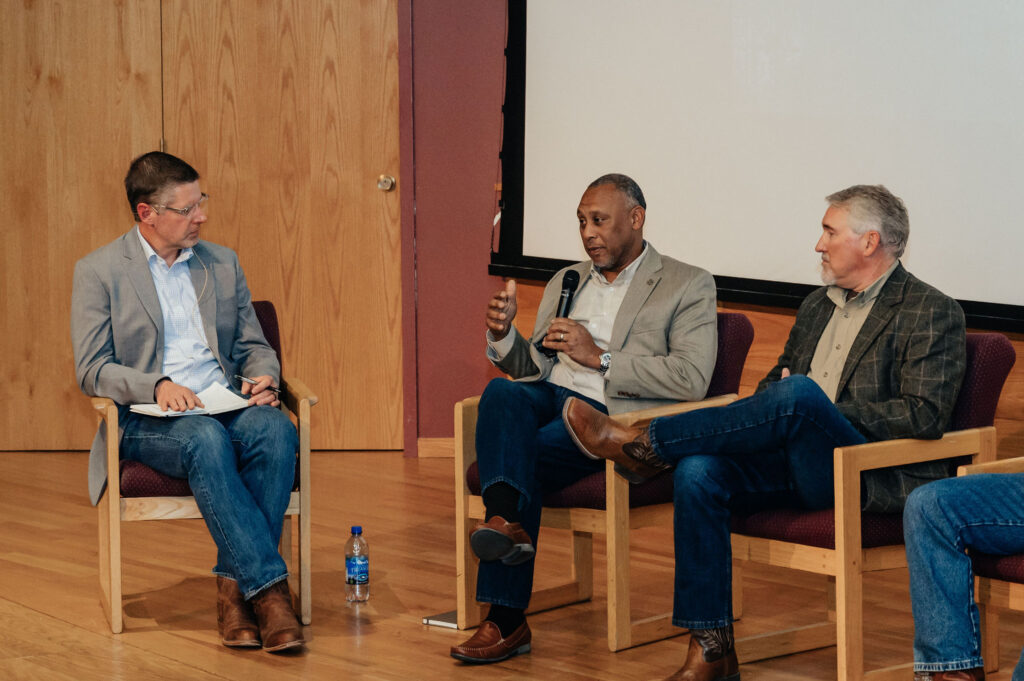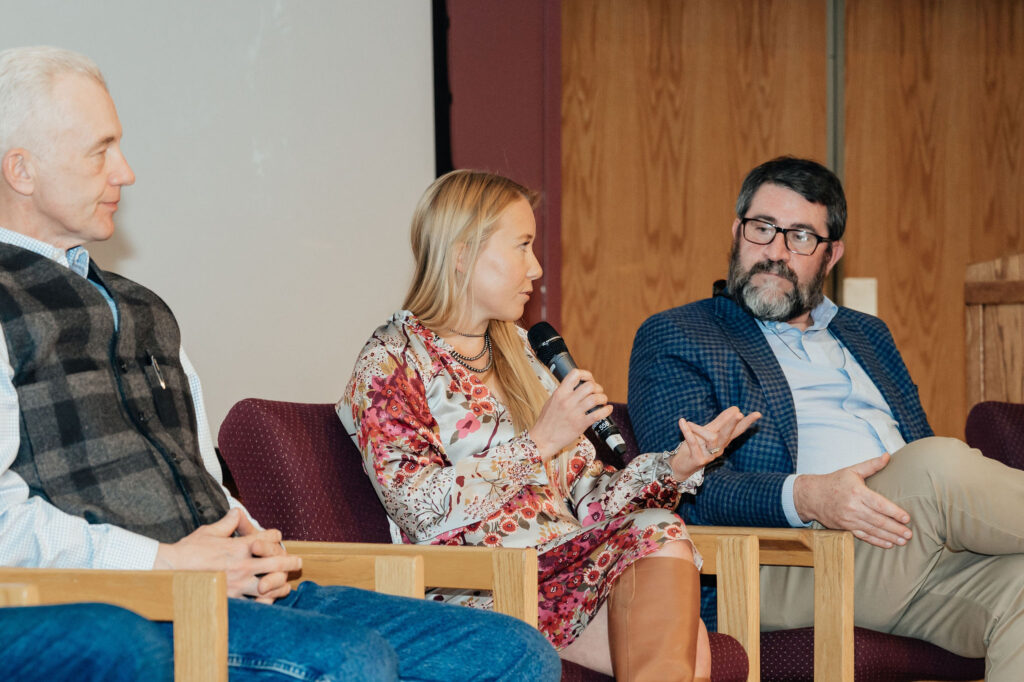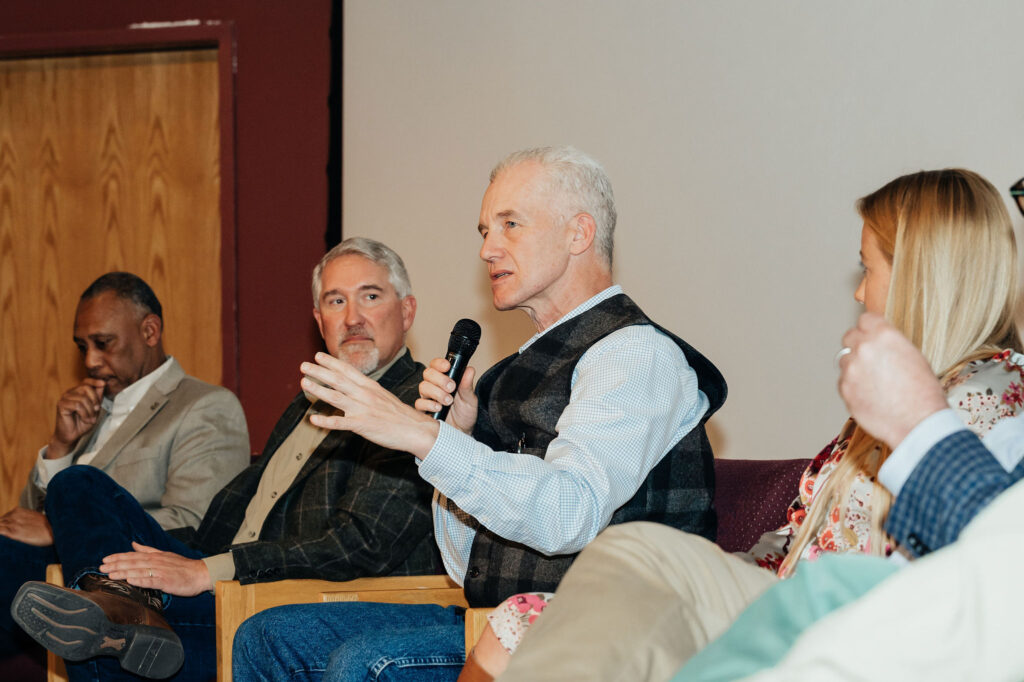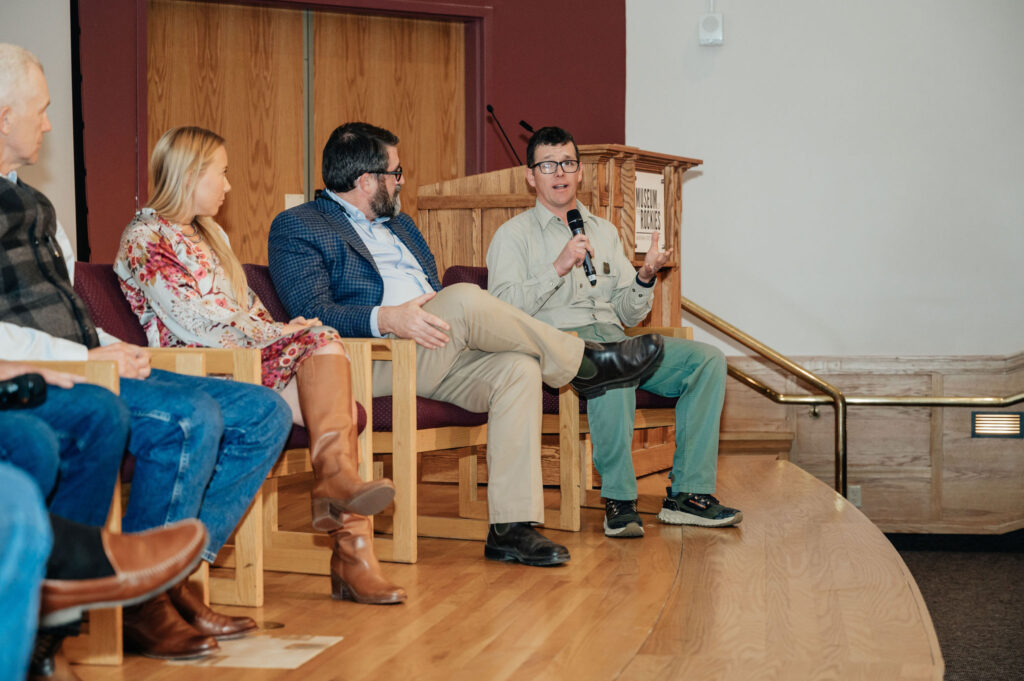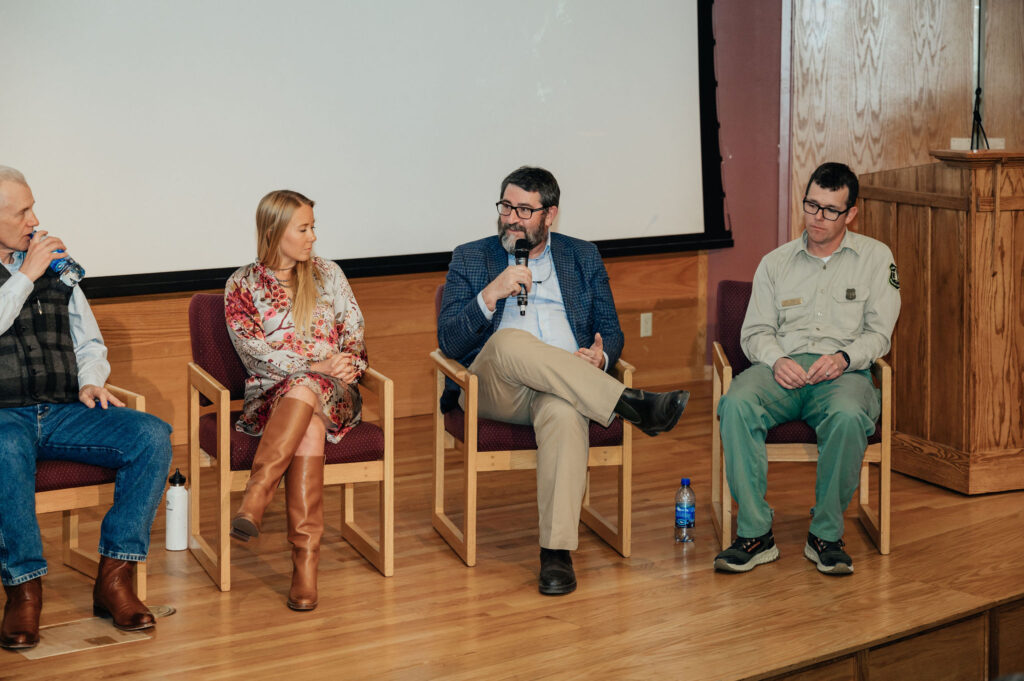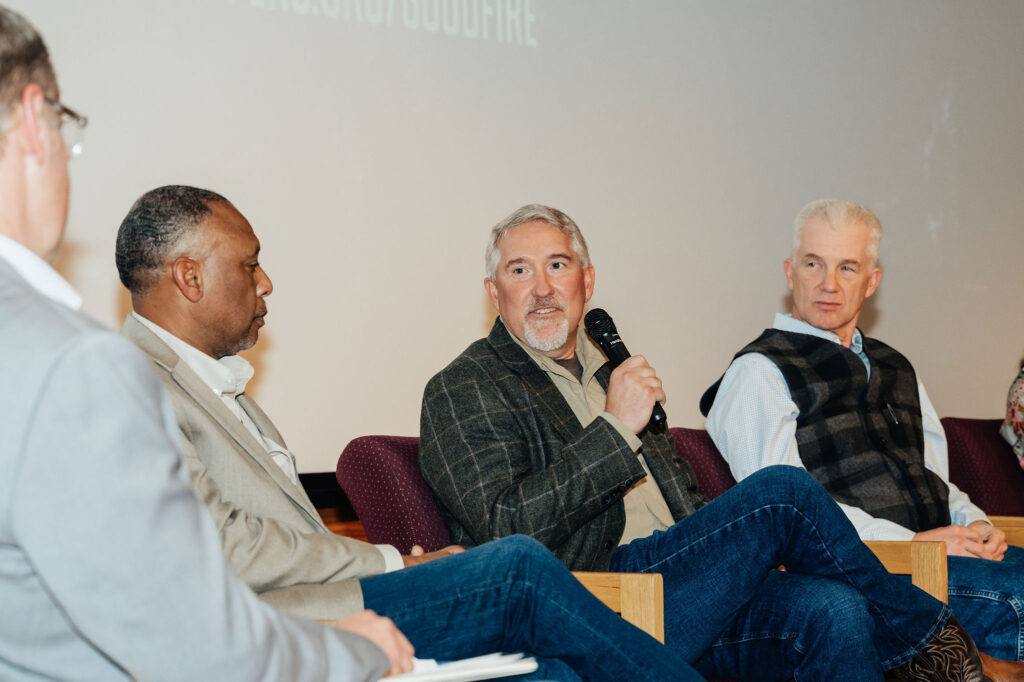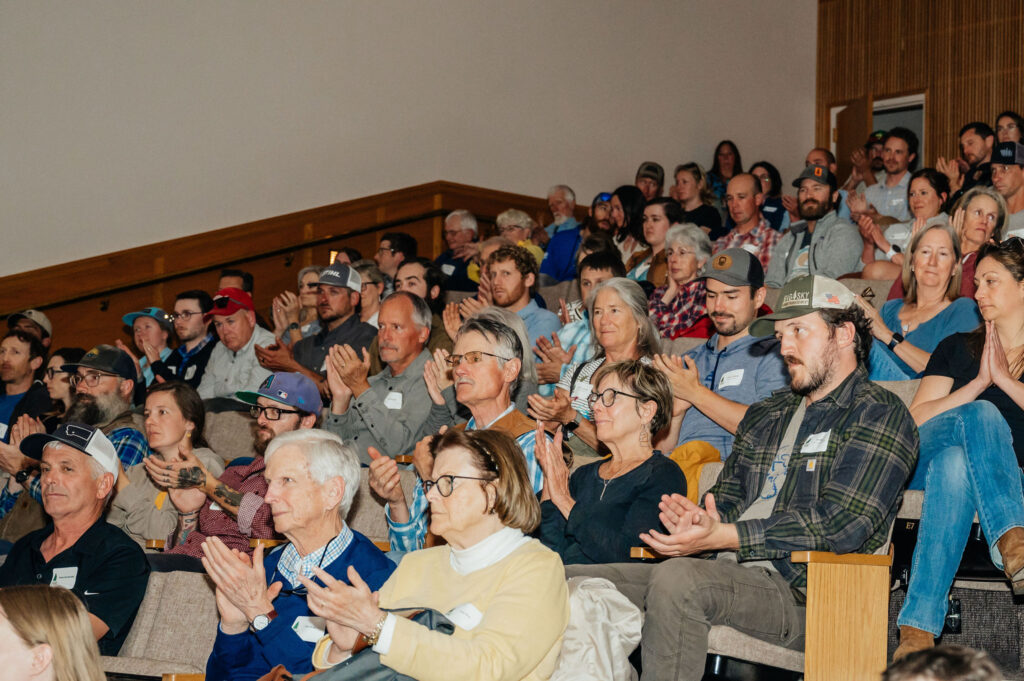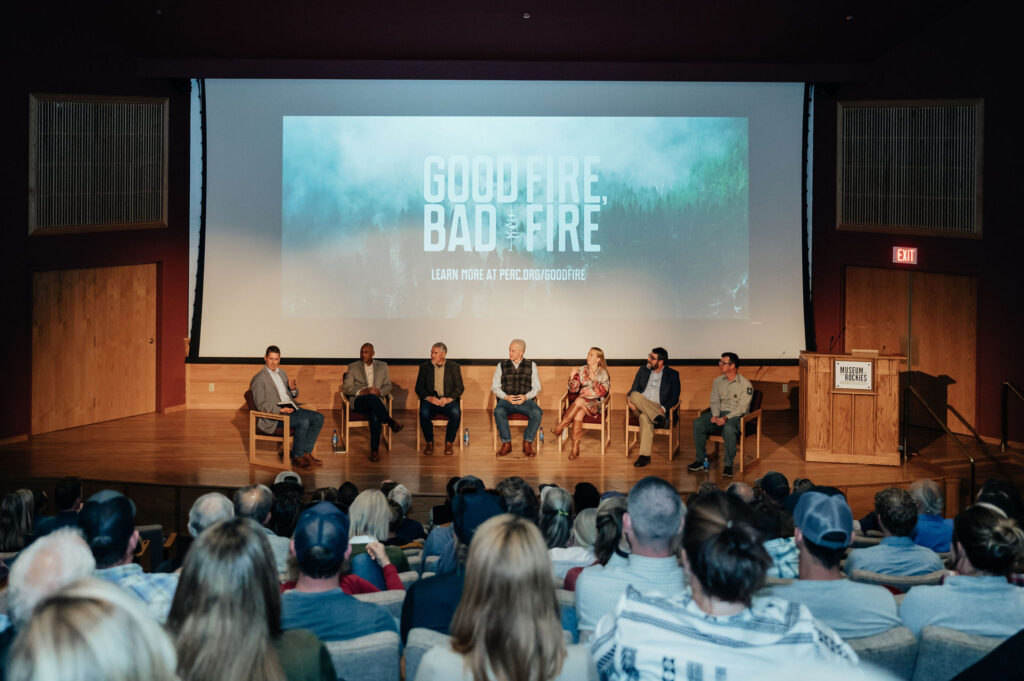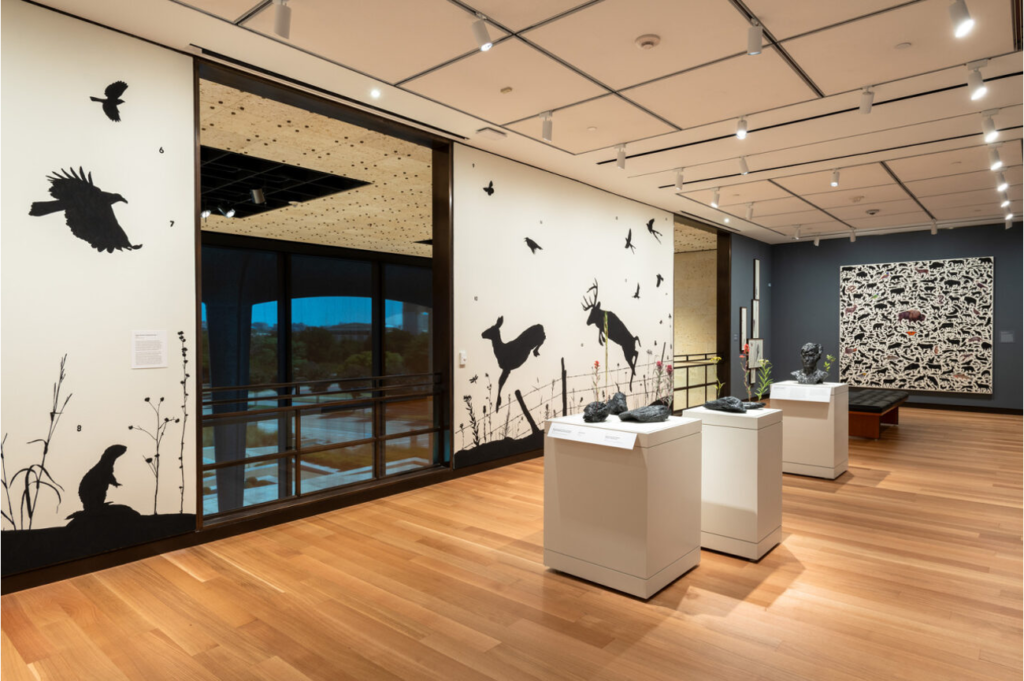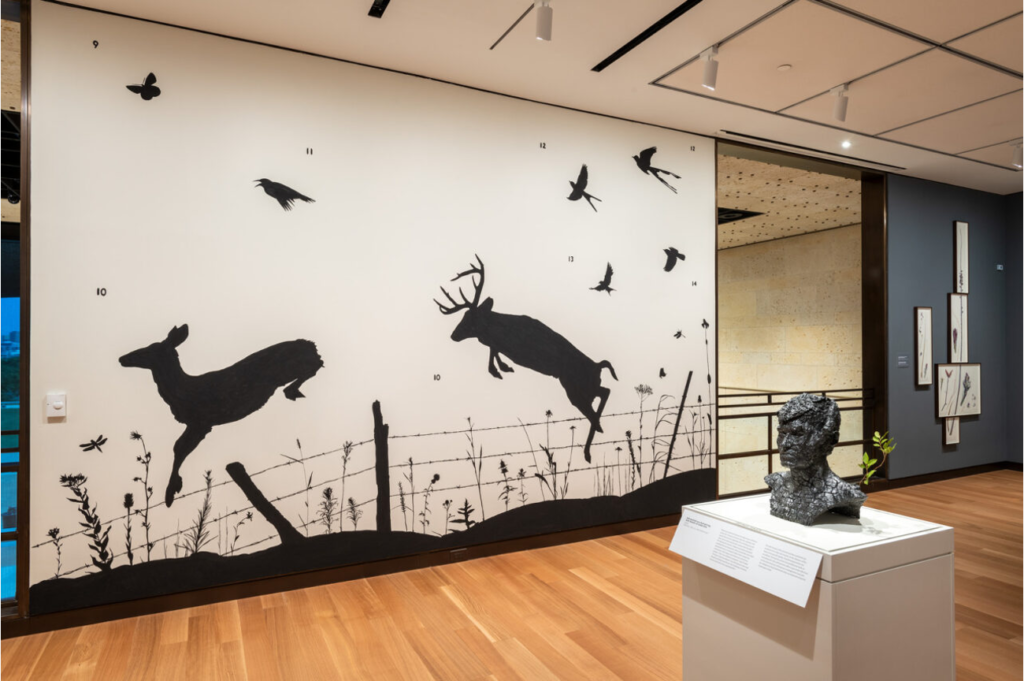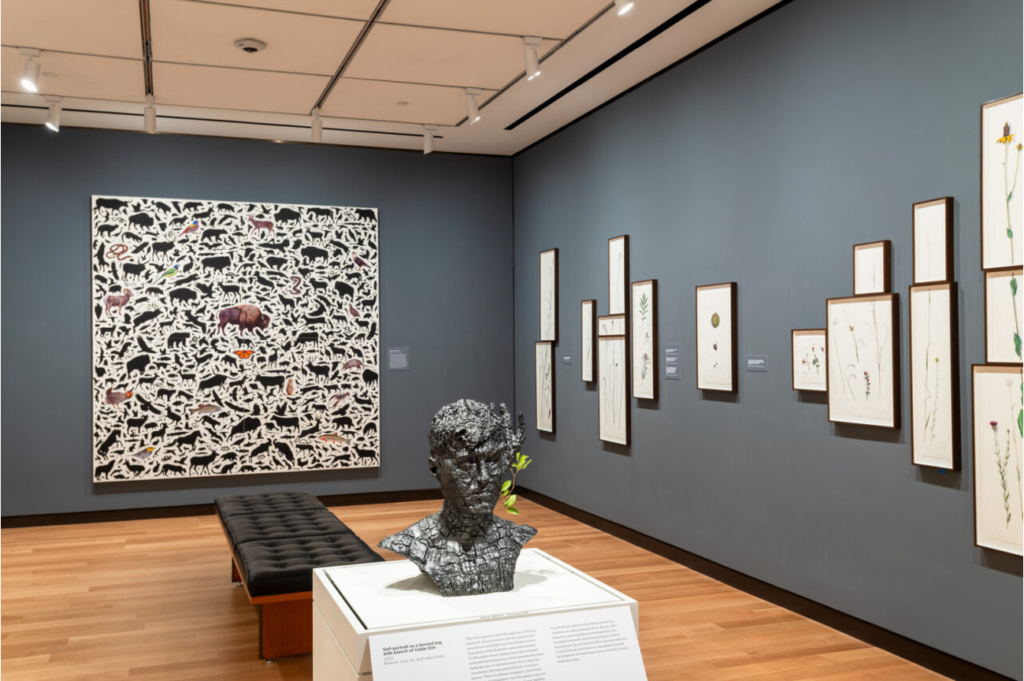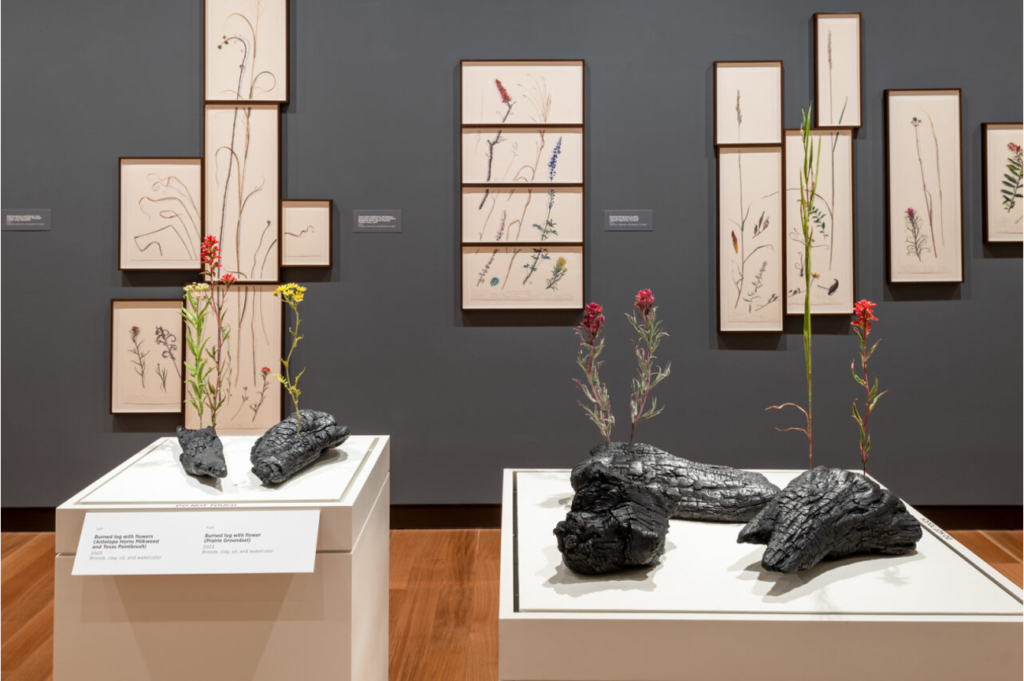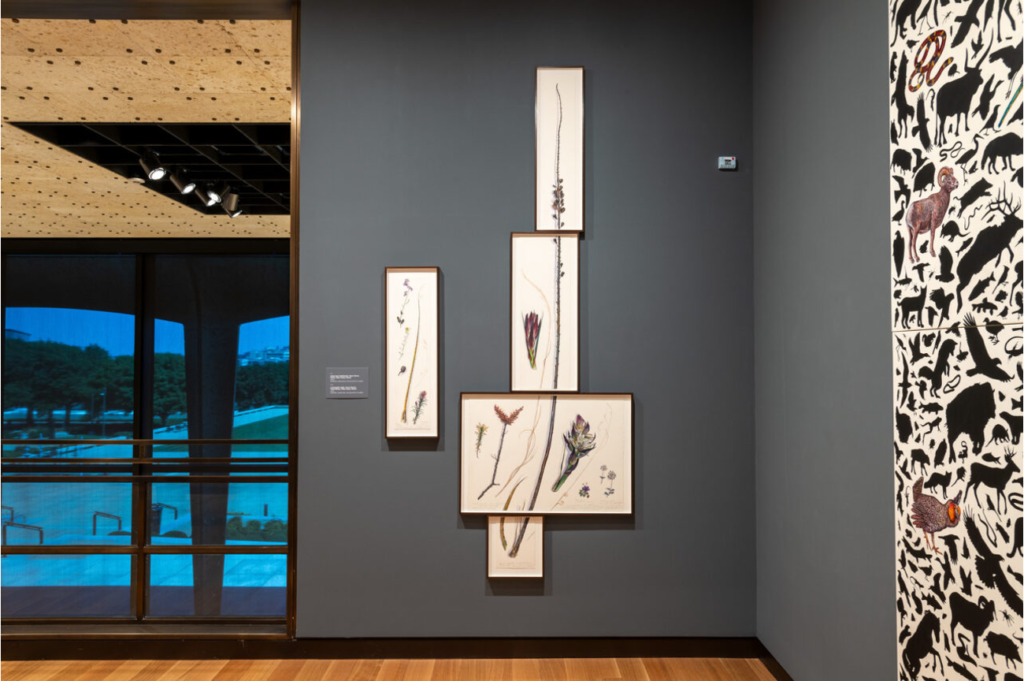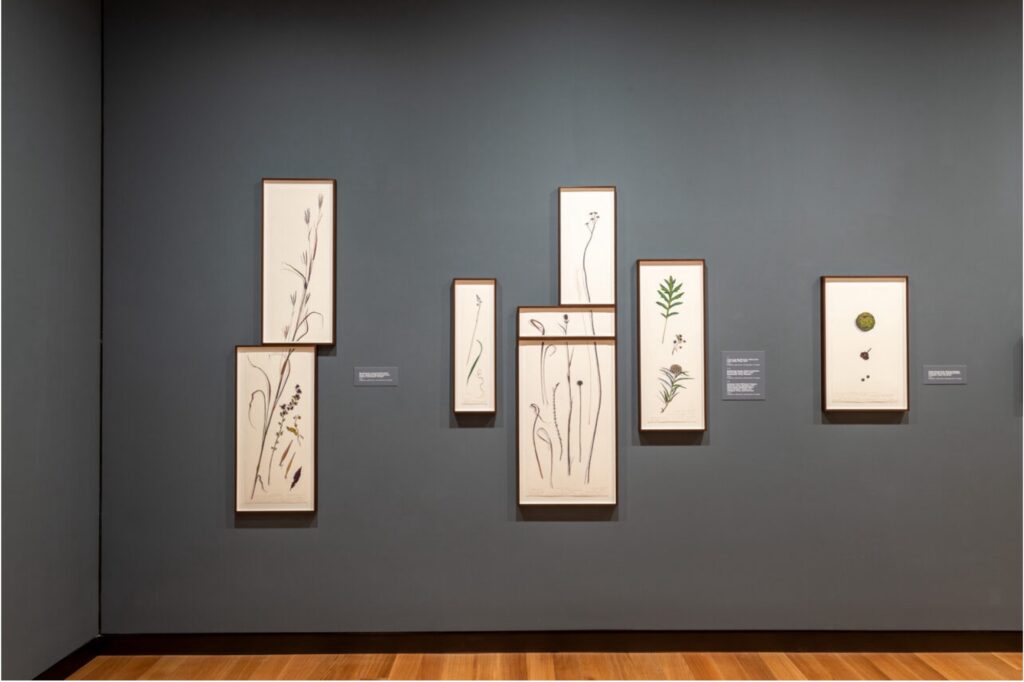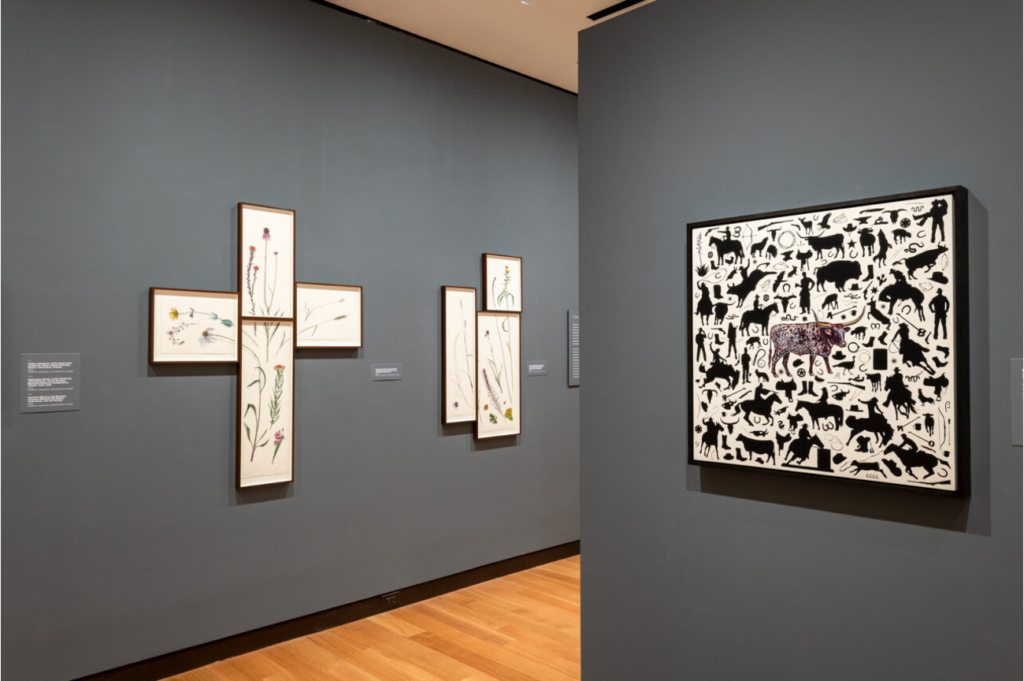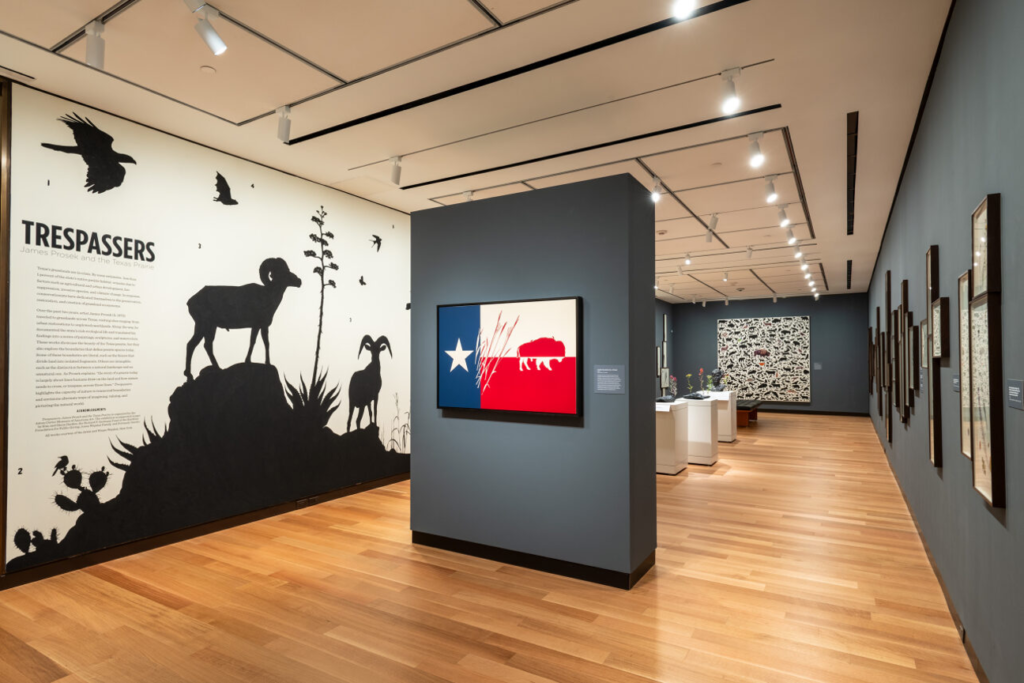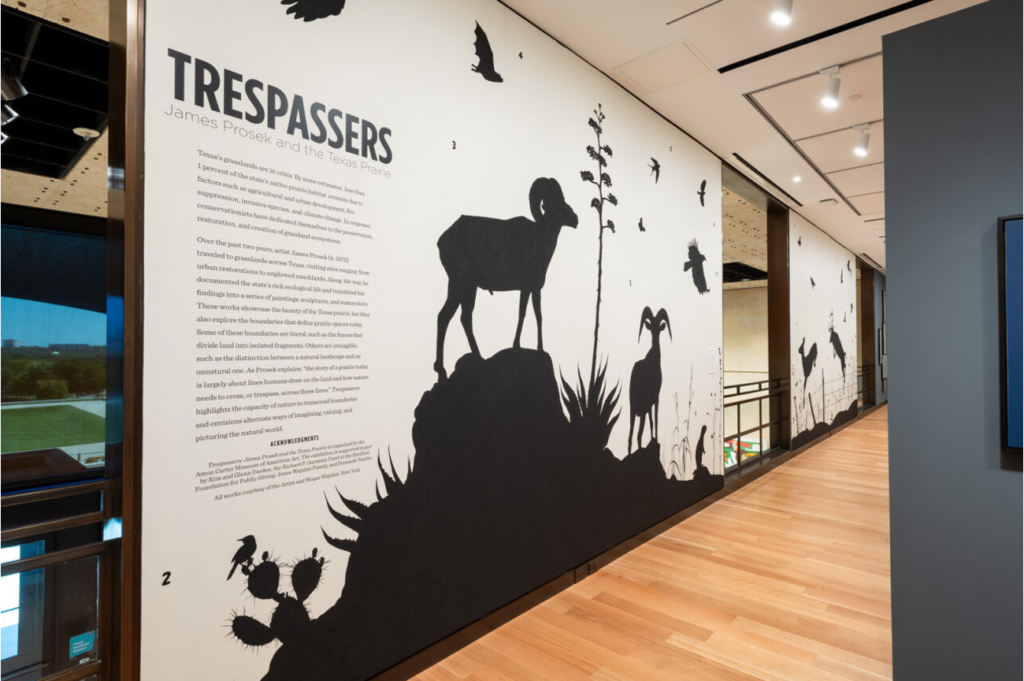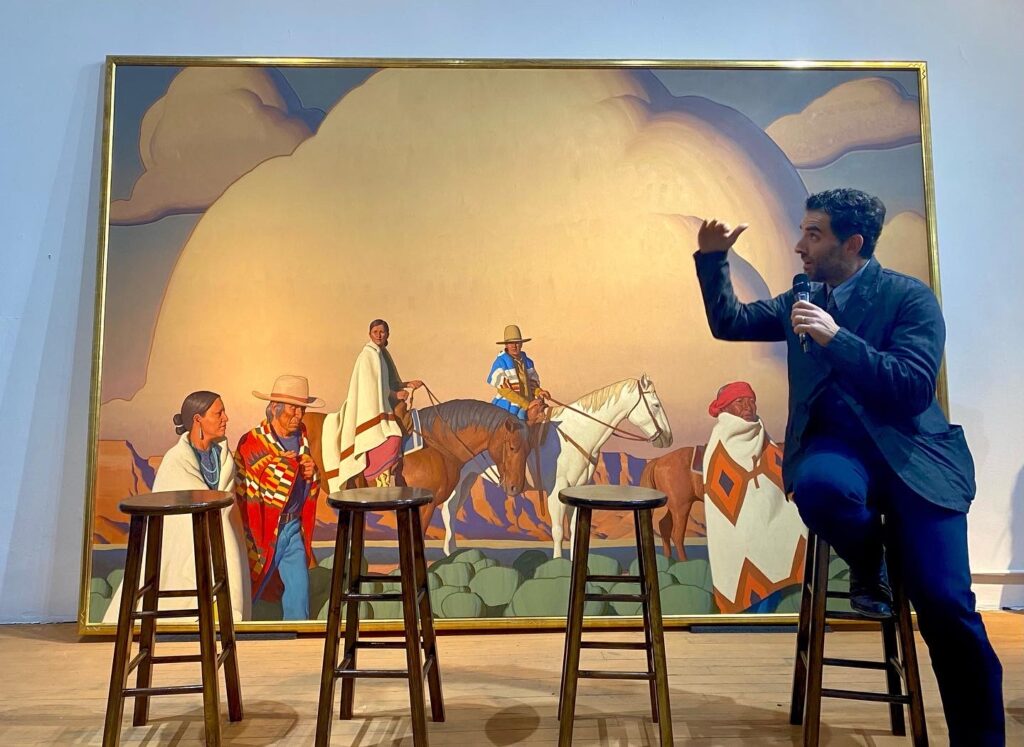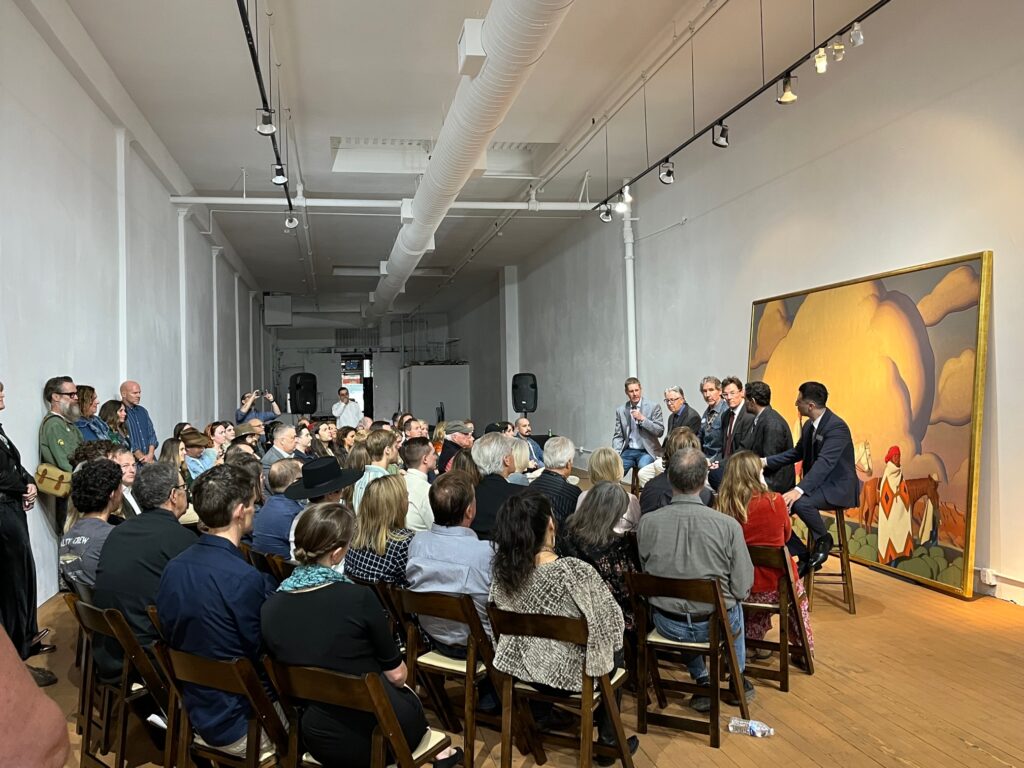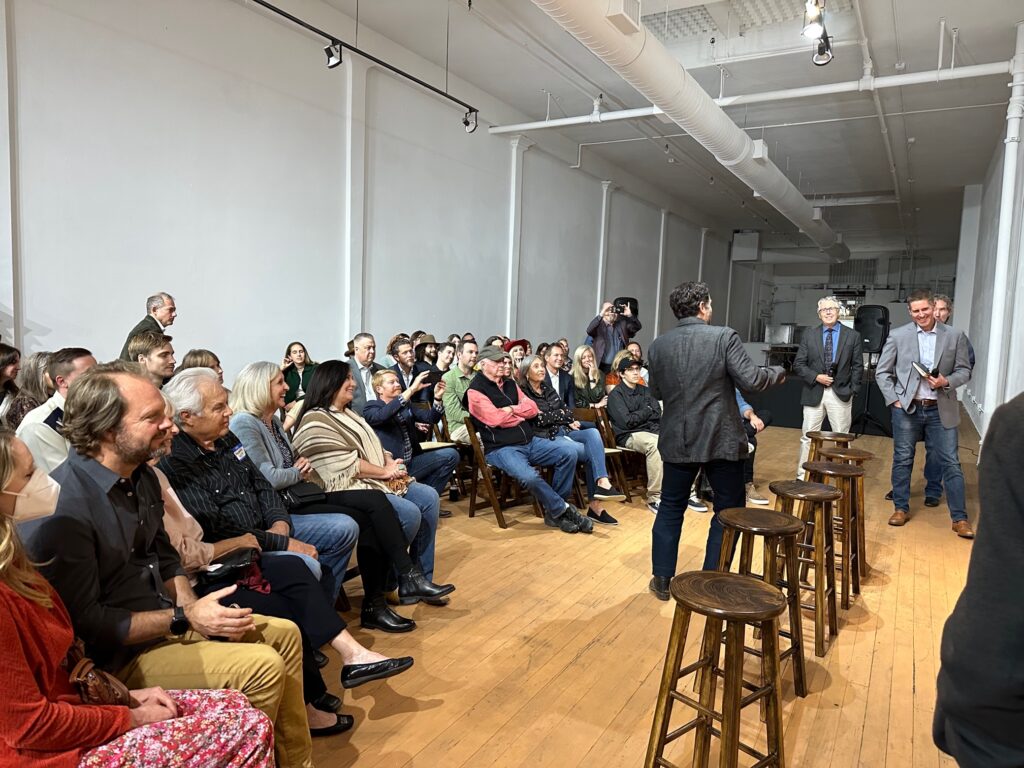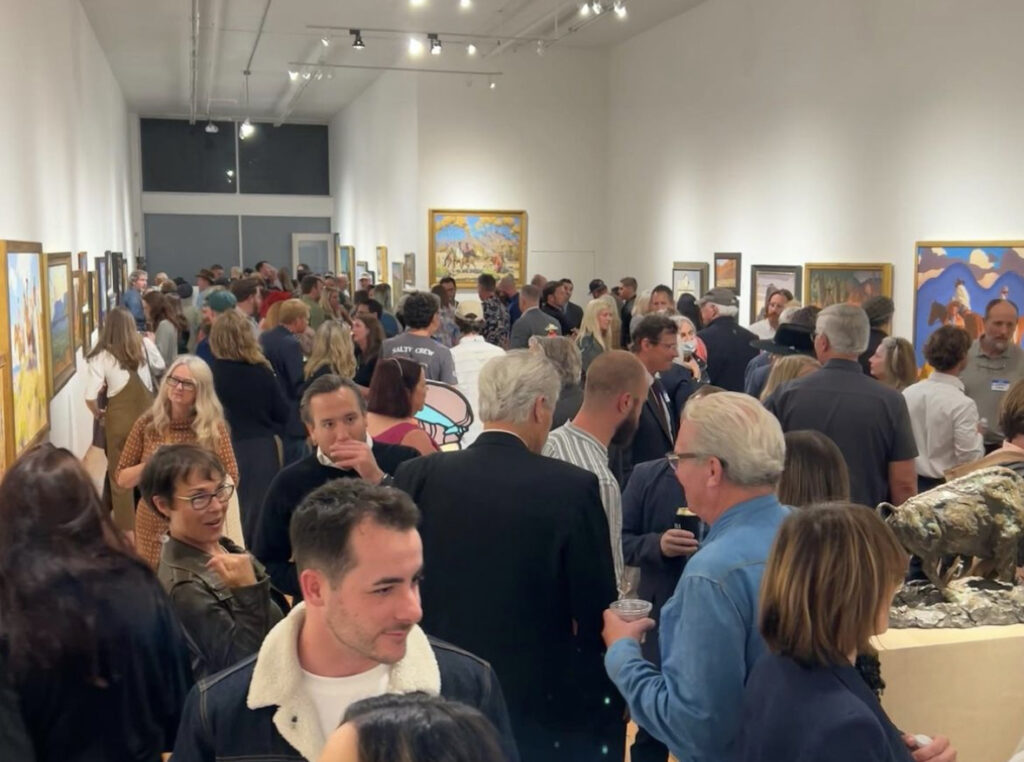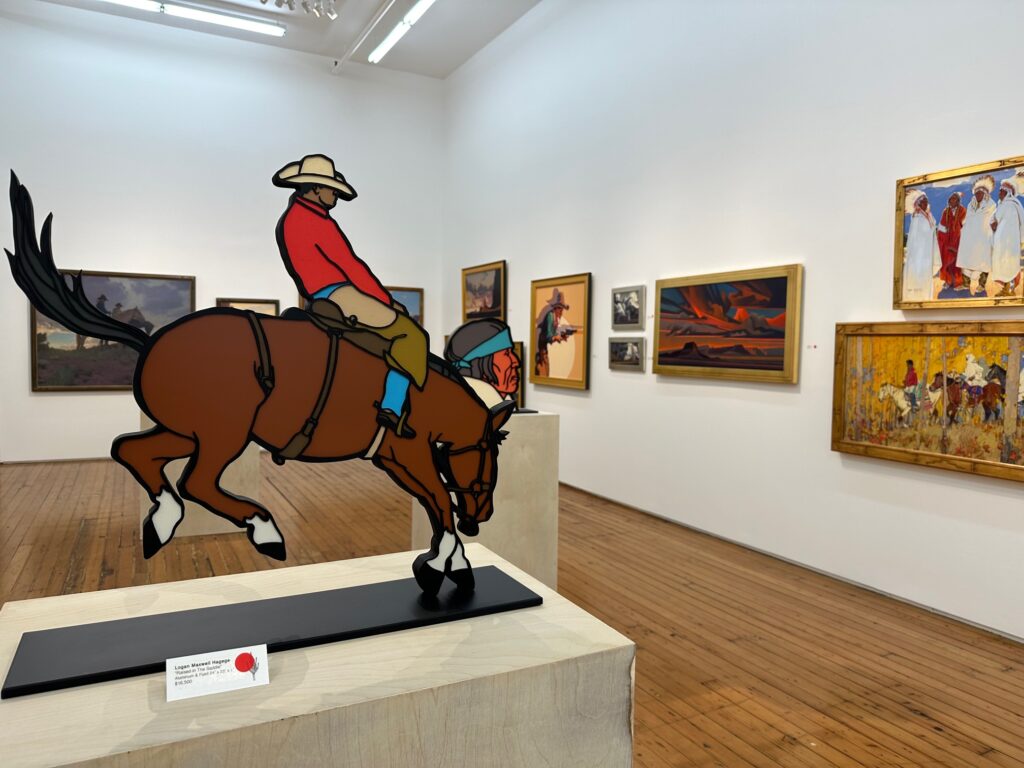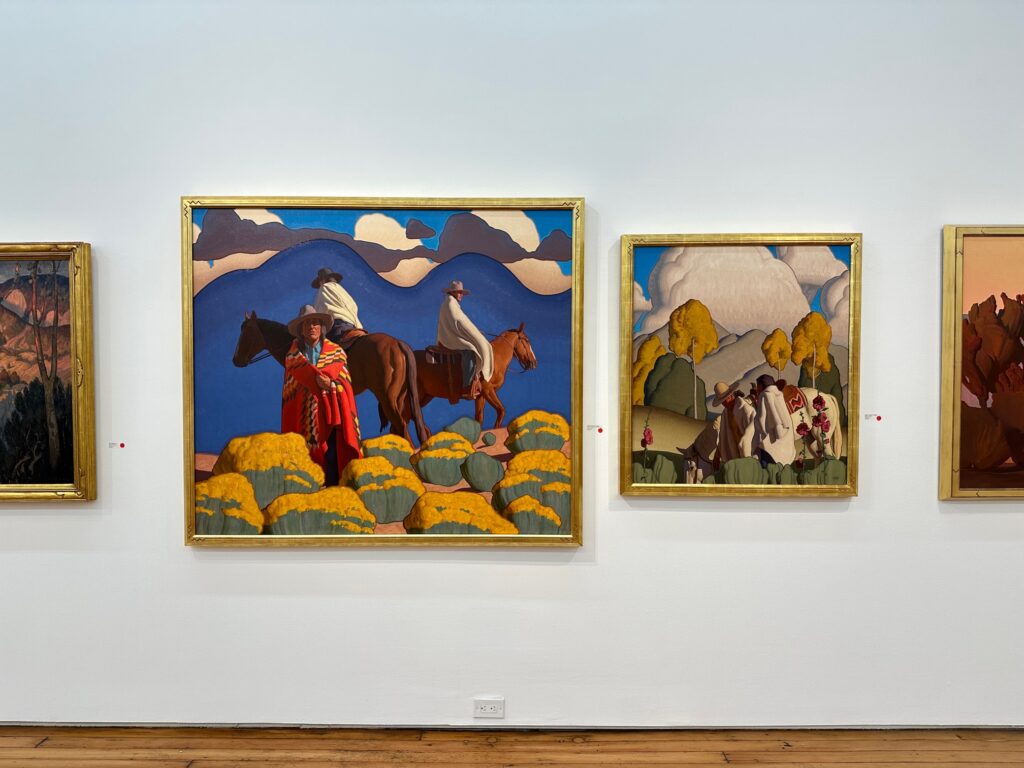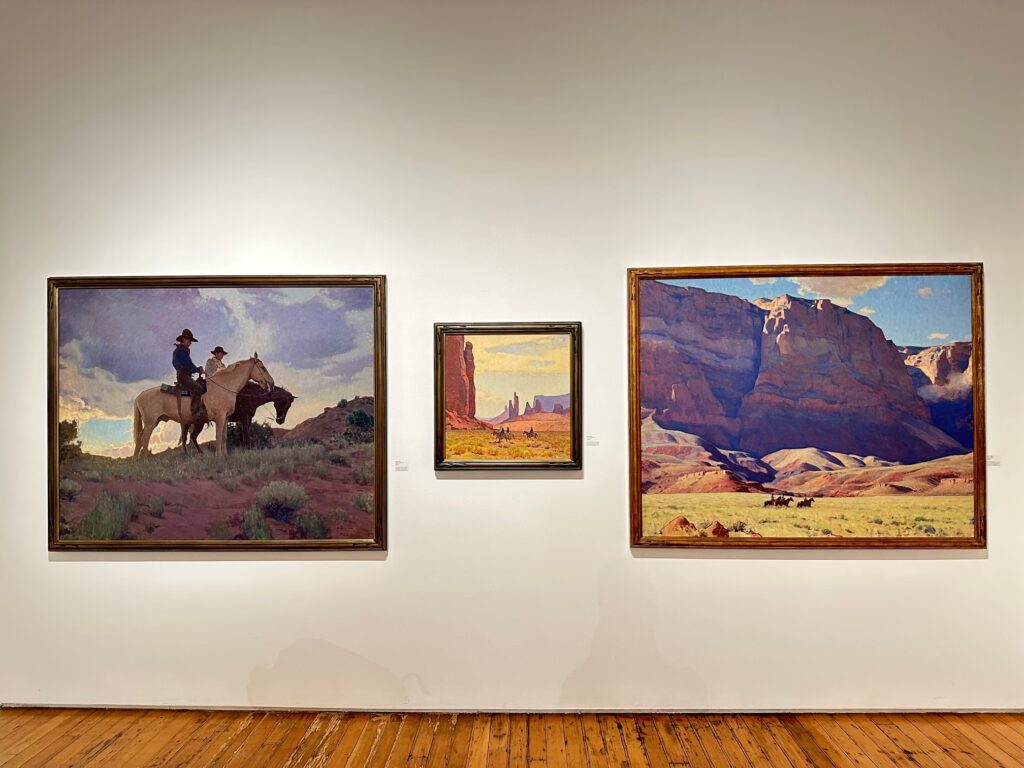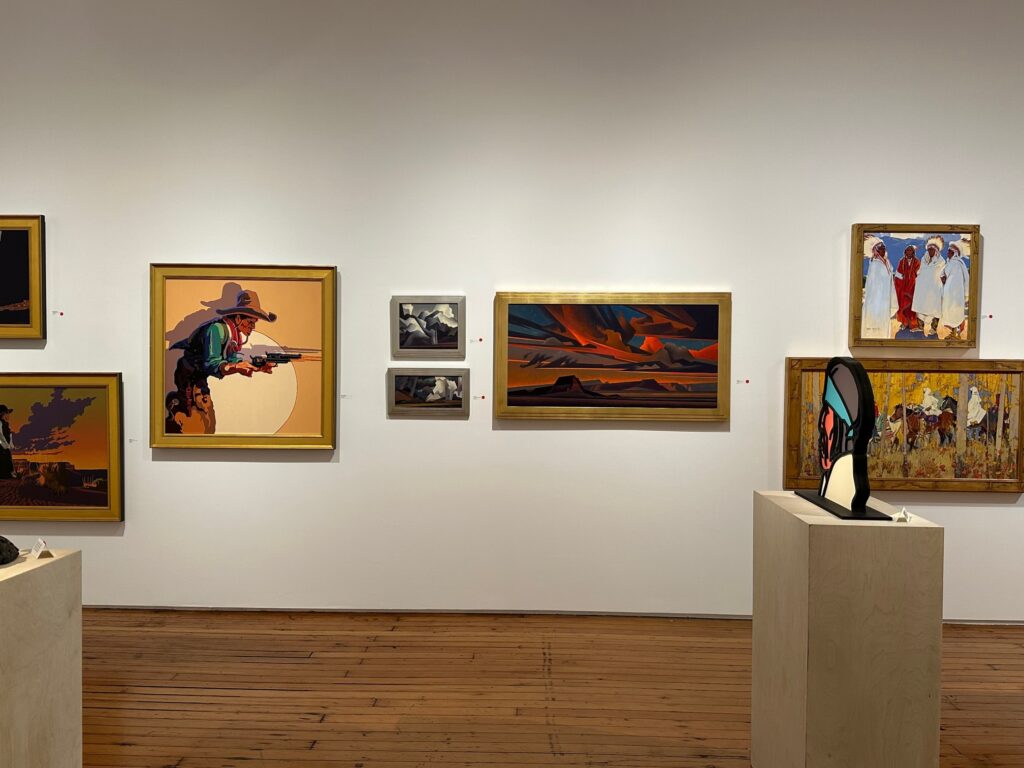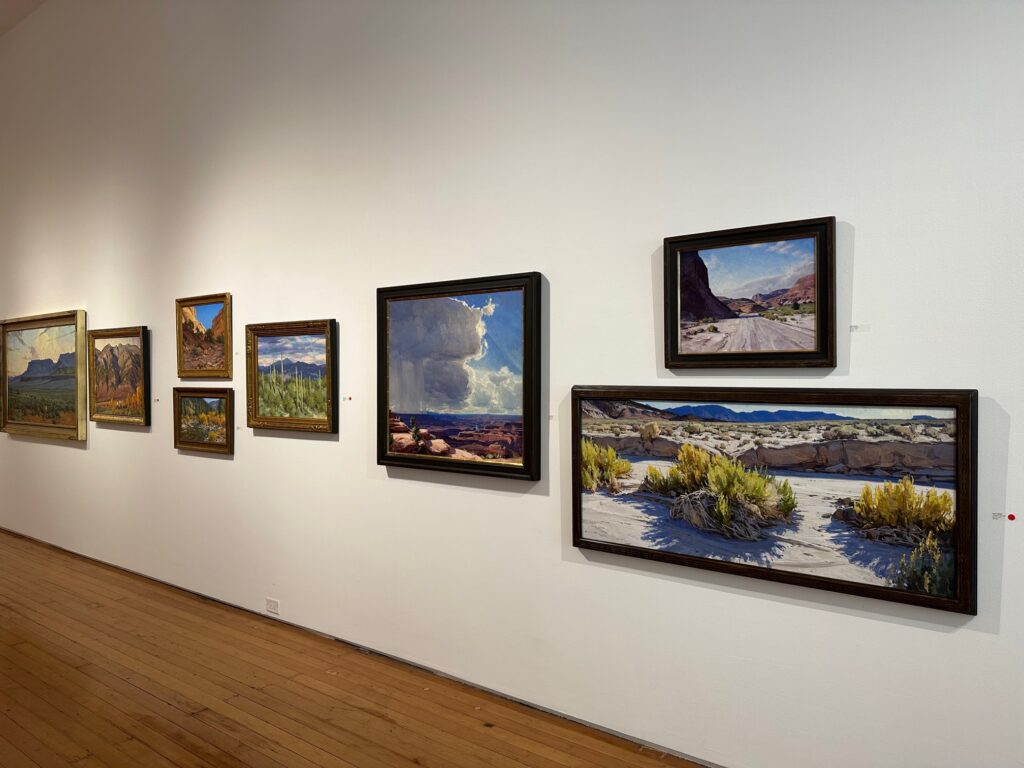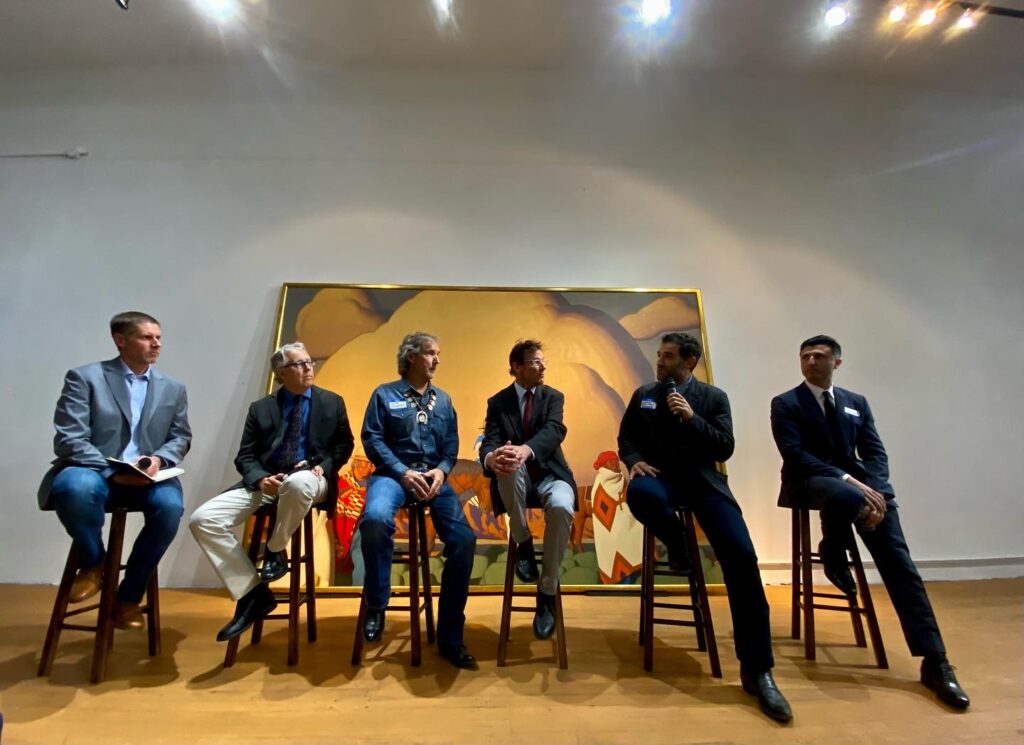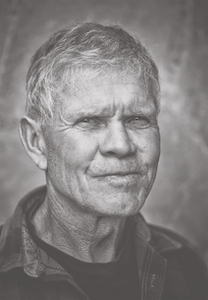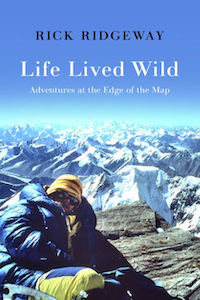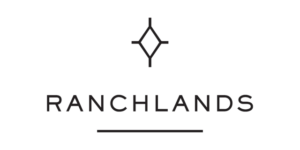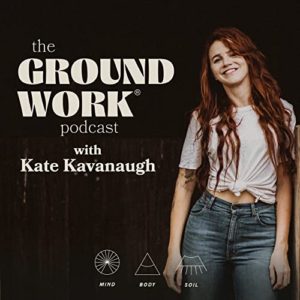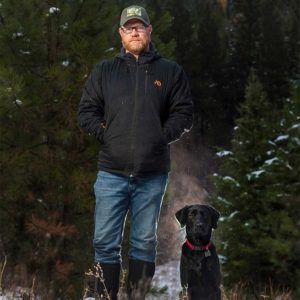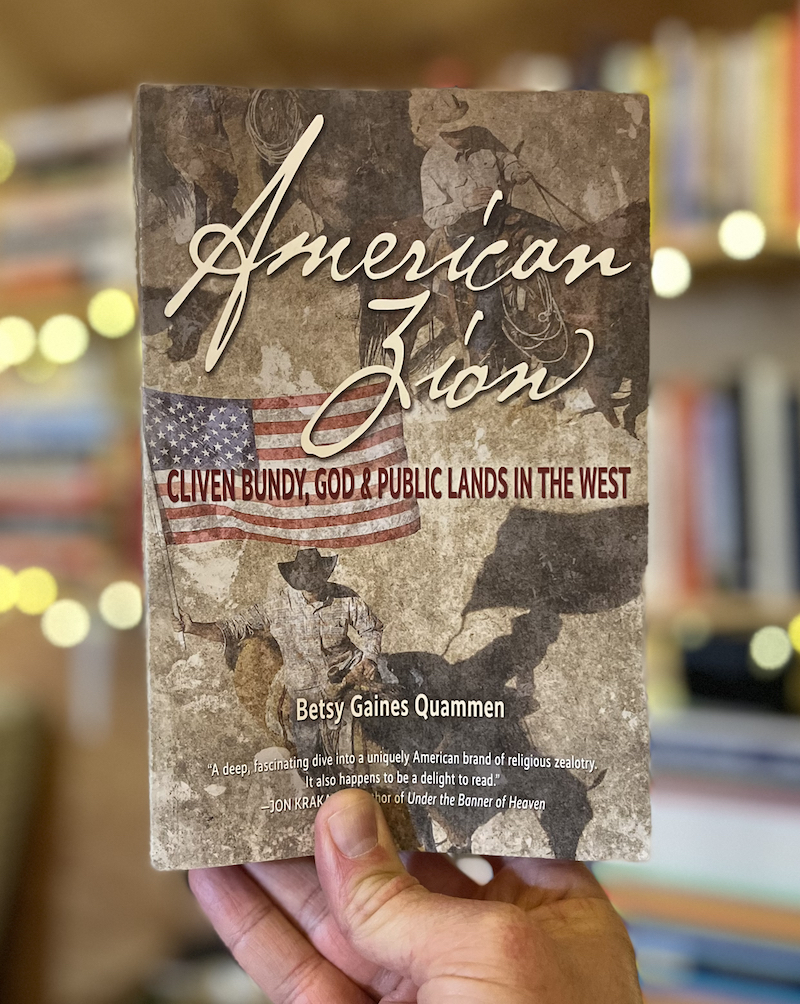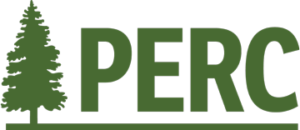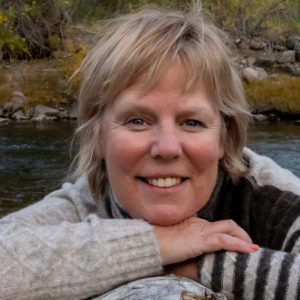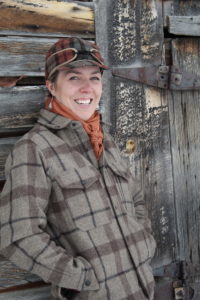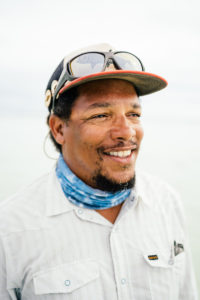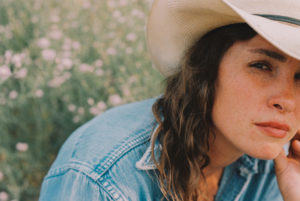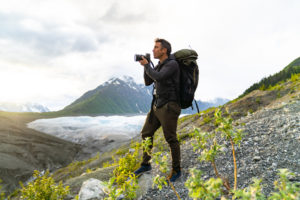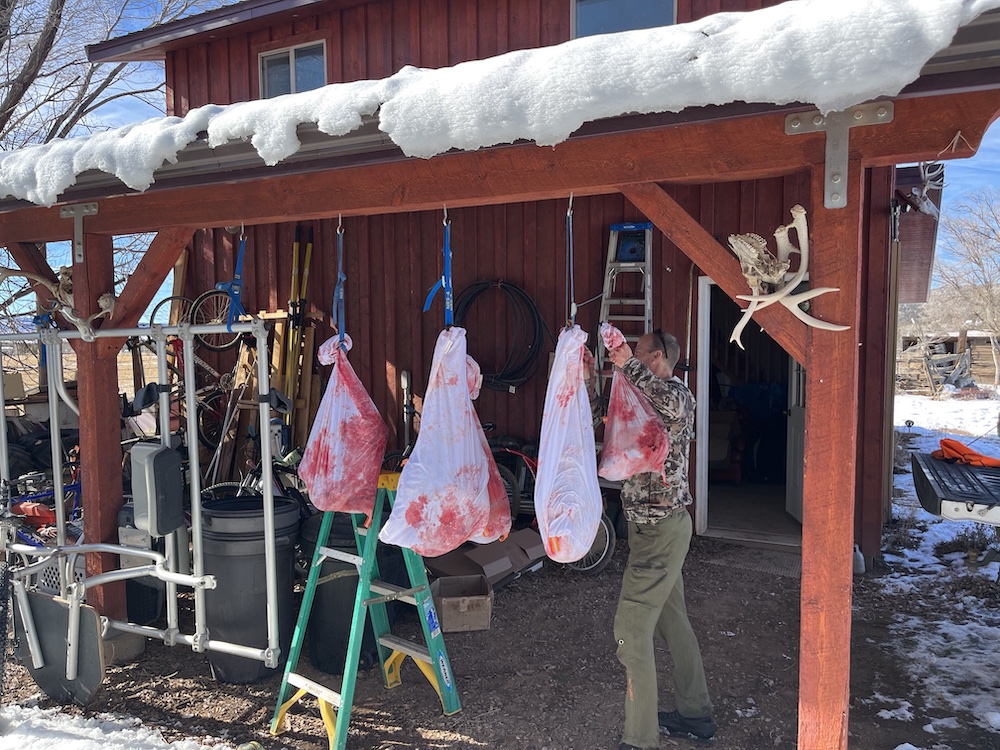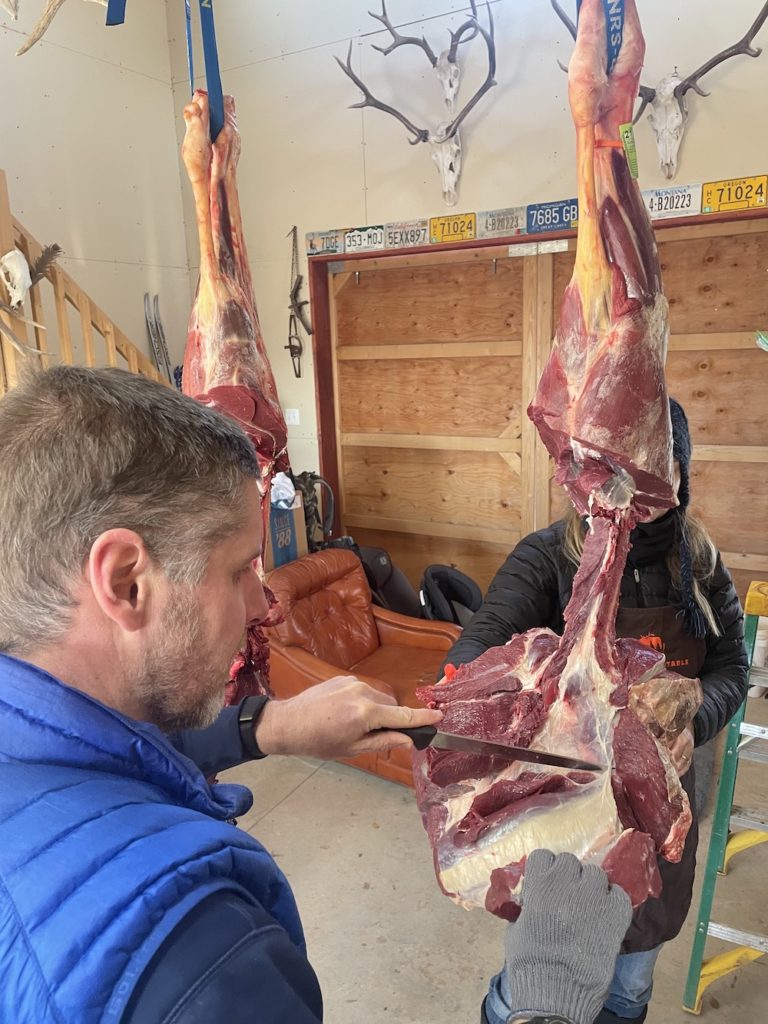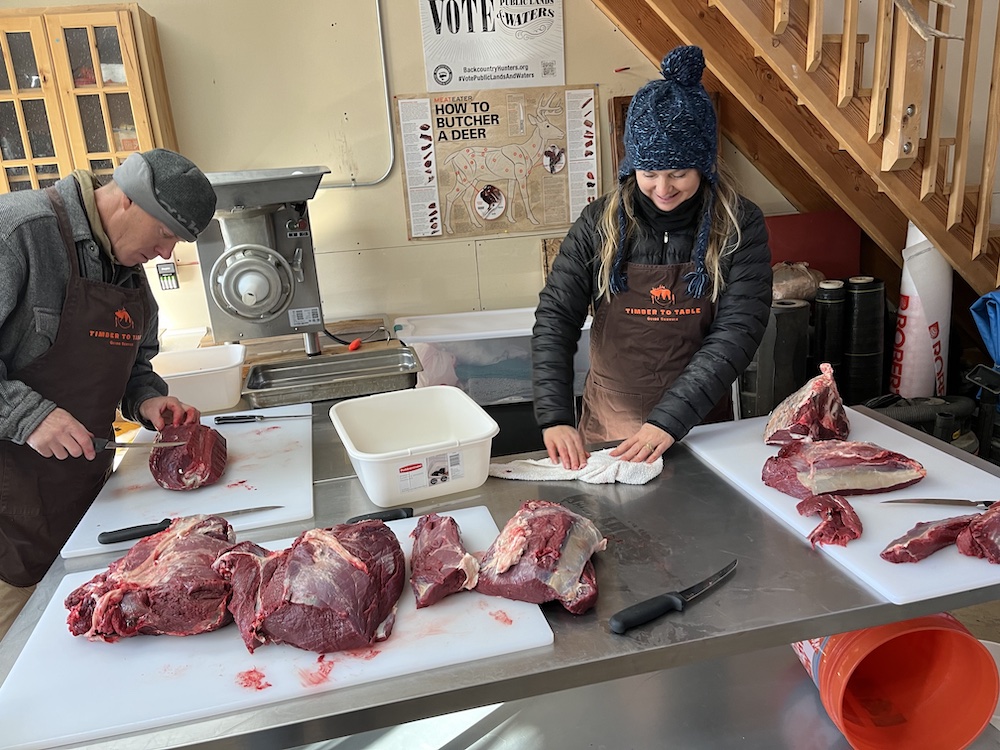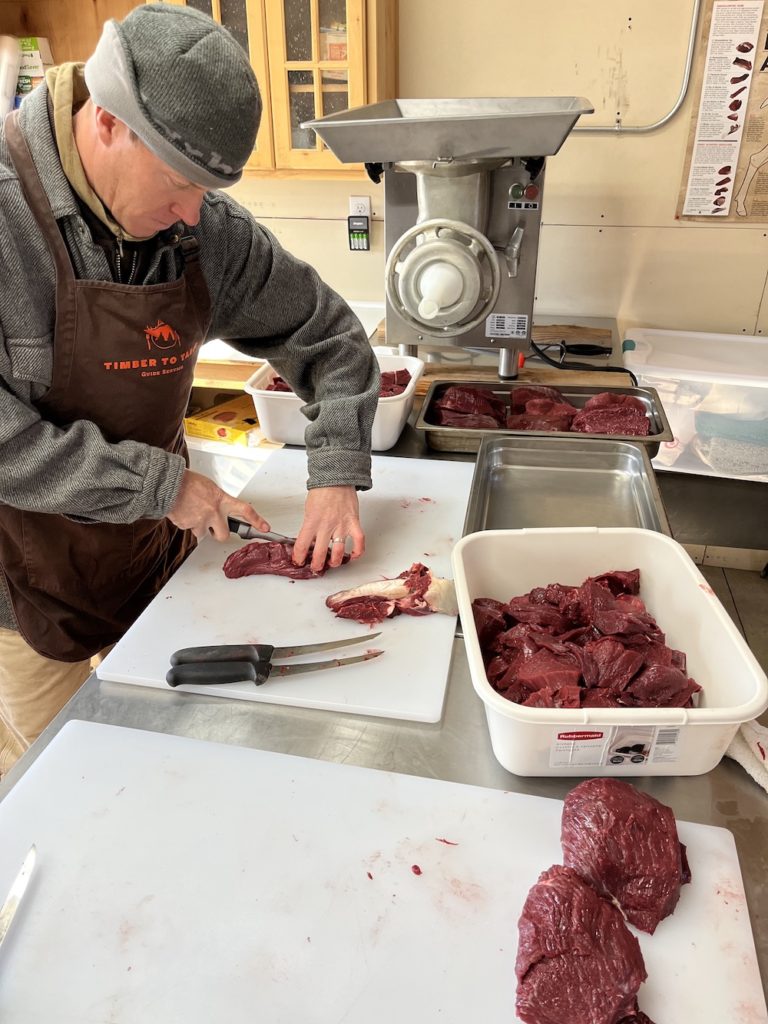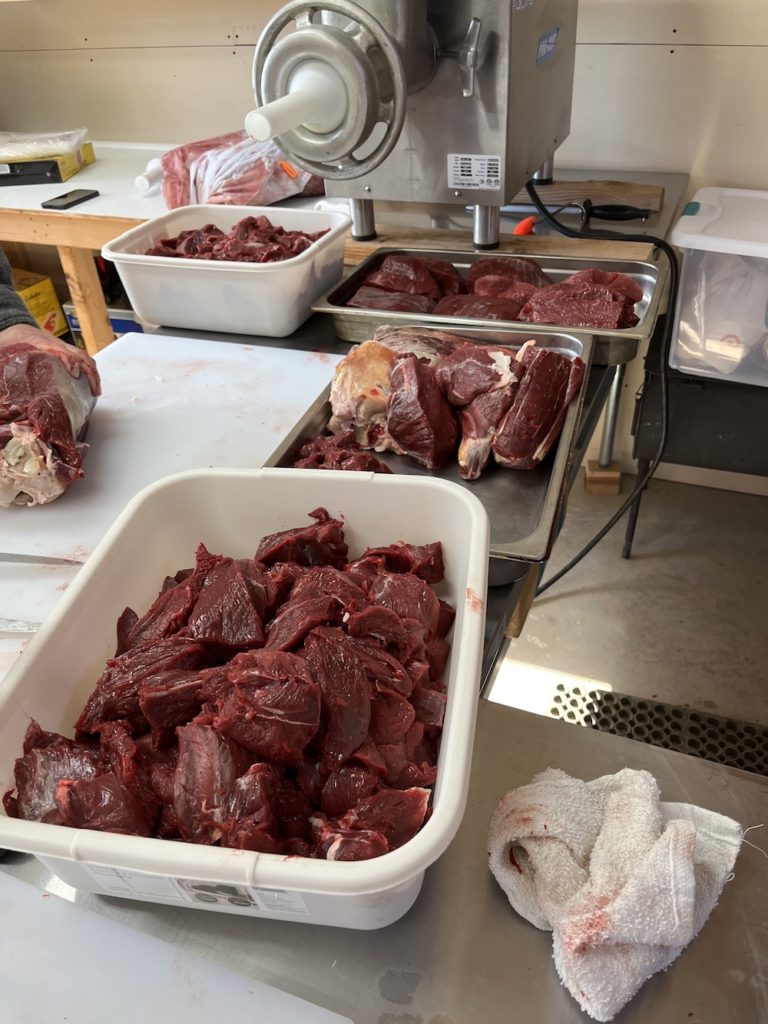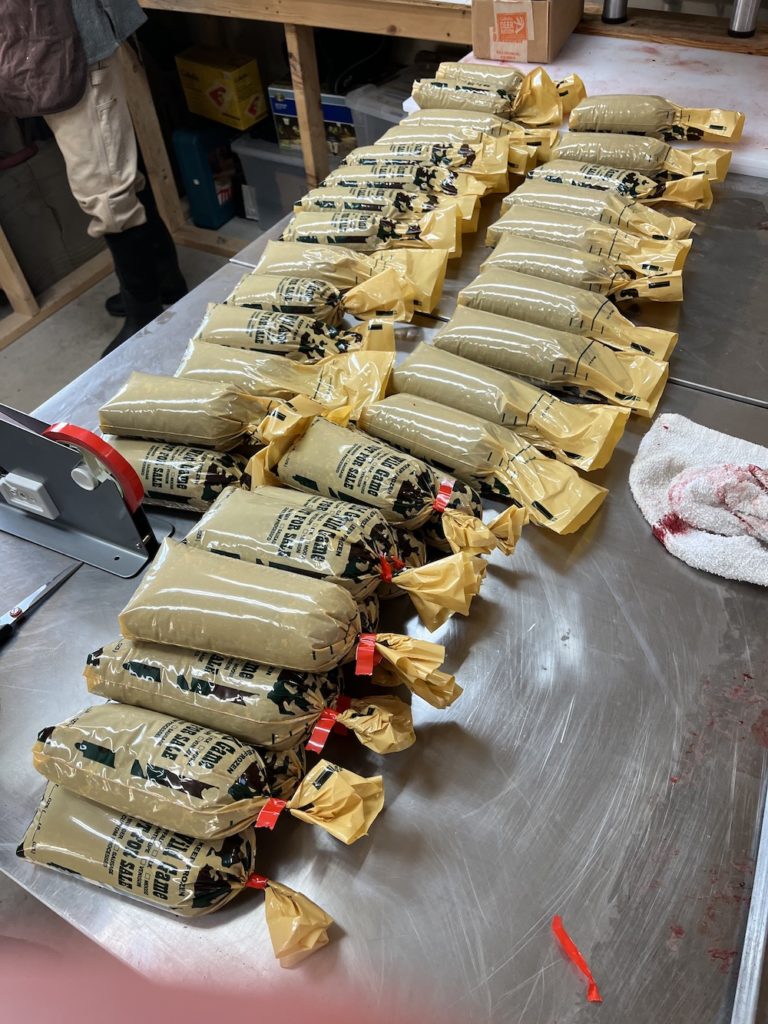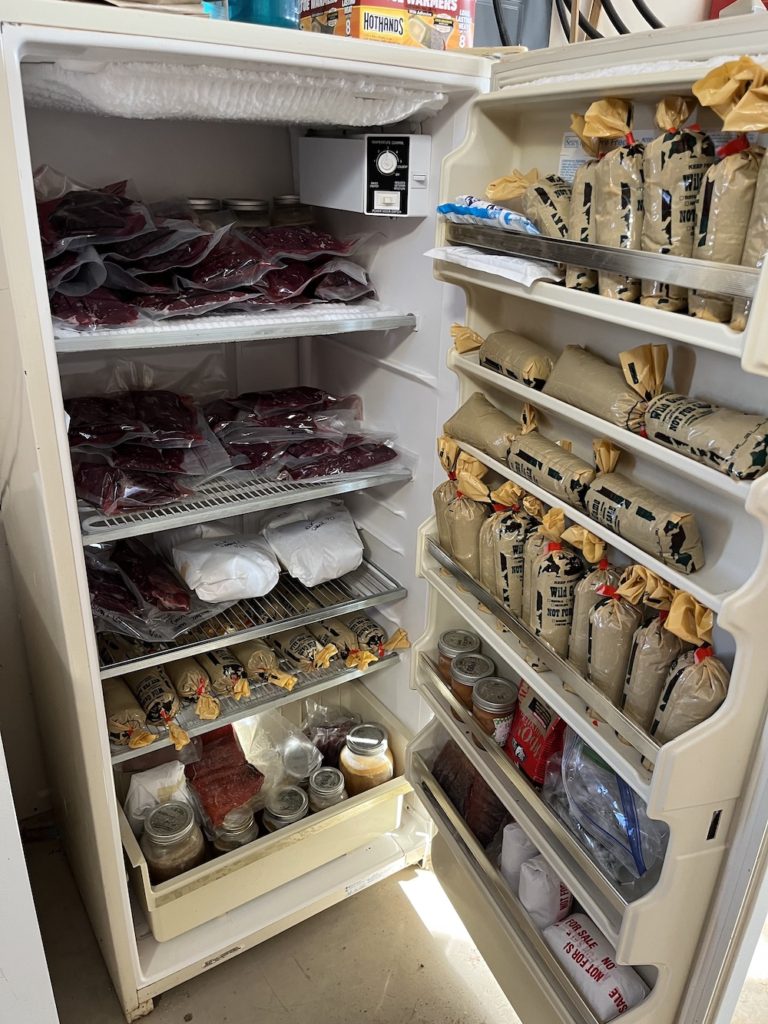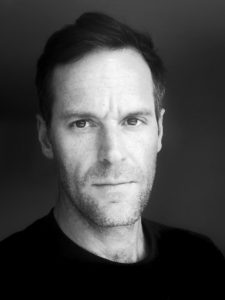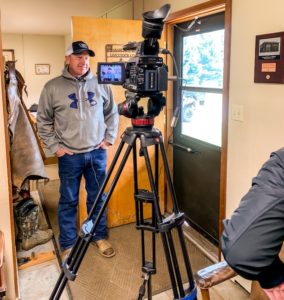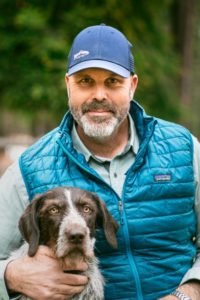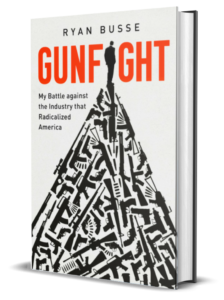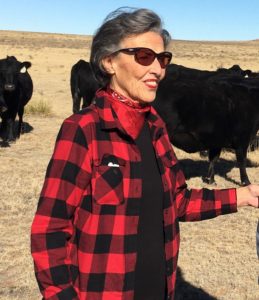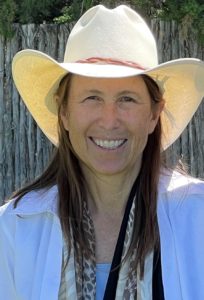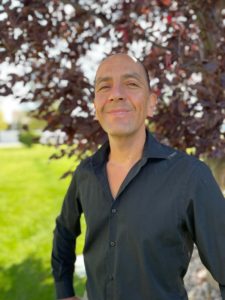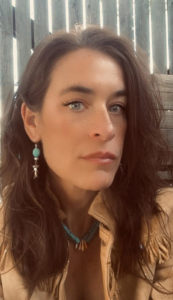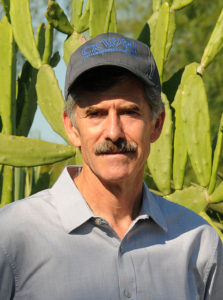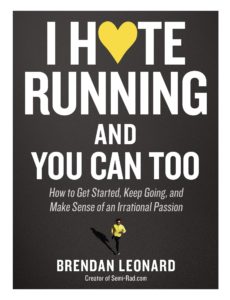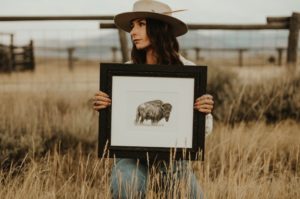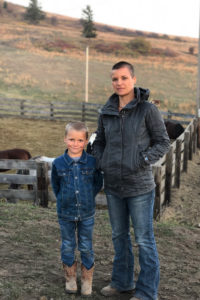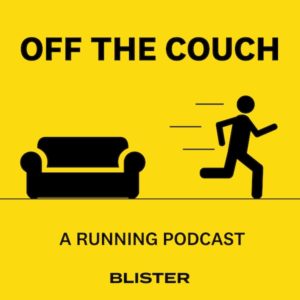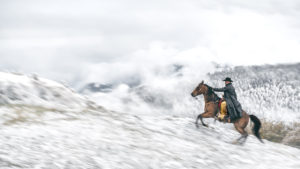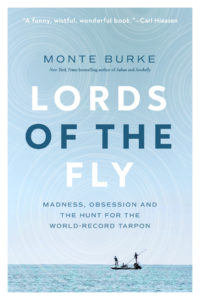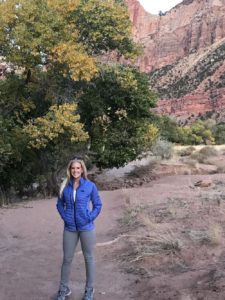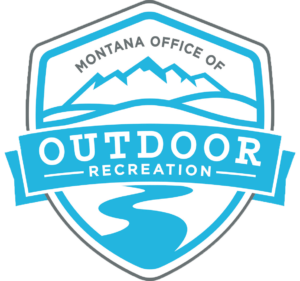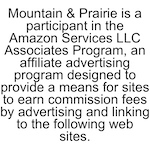Mountain & Prairie is a podcast about the people shaping the future of the American West—its land, communities, and culture.
Hosted by conservationist Ed Roberson, it features in-depth conversations with leaders, innovators, and changemakers—conservationists tackling environmental challenges, authors and historians preserving the West’s stories, artists capturing the region’s spirit, entrepreneurs building place-based businesses, outdoor athletes pushing human limits, and more. Through engaging, down-to-earth discussions, Ed explores their journeys, hard-earned wisdom, and lessons learned.
Each episode offers inspiration and insight—whether a story of resilience, a fresh take on conservation, or practical lessons in leadership, creativity, and problem-solving. It’s a space for meaningful conversations about the land, the people, and the ideas shaping the modern West.
…or wherever you get your podcasts!
START HERE
Are you a new listener who’s not quite sure where to start?
These episodes might be good entry points:
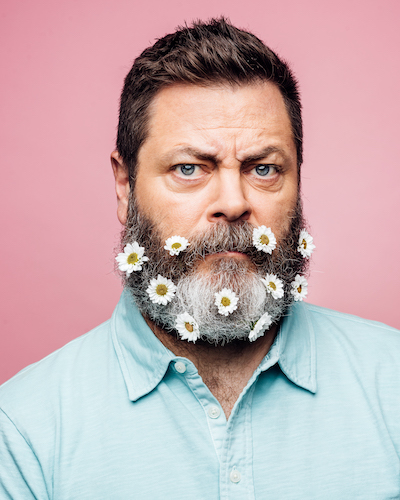
Nick Offerman
A woodshop chinwag with Emmy Award-winning actor, author, humorist, and woodworker Nick Offerman
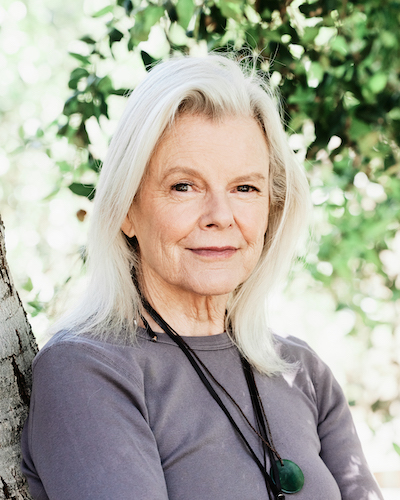
Kristine Tompkins
A thought-provoking conversation with legendary conservationist and co-founder of Tompkins Conservation Kristine Tomkins
Use the search feature below to find the next episode that aligns with your interests. Then repeat—again and again and again!
Episodes
Filter by:
Search by:
- Tony Bynum – Showing Up for the Land
- Jackie Miller and Carlos Fernández – A Breakthrough Moment for Colorado Conservation
- Sonnie Trotter – On Flow, Family, and the Long Game
- Cassidy Randall – The Untold Story of Denali’s First All-Women’s Ascent
- Sara Domek – The Science and Story of Wyoming’s Wildlife Migration
- Cody Wellema – After the Fire, Before What’s Next
- Live from SXSW – Farmer-Founded Brands Will Save American Fashion
- Elliot Ross: Where Landscape, Justice, and Storytelling Meet
- Aaron Citron: Crafting Conservation Policy in a Changing West
- David Cronenwett – Lessons from Jiu-Jitsu, On and Off the Mats
- Helen Augare Carlson & Dylan DesRosier – Land, Language, and Stewardship in the Blackfeet Nation
- George Hodgin Returns – On Risk-Taking, Leadership, and the Future of Cannabis
- Ivan McClellan Returns – From Behind the Lens to Center of the Arena
- Betsy Gaines Quammen Returns – Myths, Curiosity, and Human Connection (Live at the Old Salt Festival)
- Chris Pague – Stories, Science, and the Southern High Plains
- Nicole Qualtieri – Charting a New Course in the Changing Landscape of Outdoor Media
- Hal Herring Returns – Live at the Old Salt Festival
- Scott Hulet: Reading + Writing + Surfing + Fishing + Traveling
- Rusty Bell & Justin Loyka – Economics, Energy, and Community Pride
- Joe Whitworth – On Unrelenting Effort, Blazing Your Own Trail, and Taking Action
- Jesse Smith – A Regenerative Approach to Land and Life
- Nichole Barger – Science as a Catalyst for Human Connection
- Mark Easter – Food, Soil, and Our Planet’s Future
- Kelsey Molloy & Angel DeVries – Fortifying Grasslands and Communities on the Northern Great Plains
- The Partnership of Rangeland Trusts – 20 Years of Cooperation, Collaboration, and Conservation
- Kevin Grange – The Secret Lives of Grizzlies
- Nick Mott – A Masterclass in Nuanced Storytelling
- Mauricia Baca – An Empathetic Approach to Nevada’s Conservation Challenges
- Joe Schobert – From NFL Pro Bowler to Western Conservation Advocate
- Heidi Redd & Sue Bellagamba – Tales from the Dugout Ranch
- Curt Meine – Aldo Leopold’s Life, Work, and Enduring Legacy
- Janie & Louise Roberson – Chatting It Up With Their Old Man
- Nancy Smith & Austin Rempel – A Surprisingly Simple, Effective, and Scalable Approach to Riparian Restoration
- Dr. Alan Townsend – Generosity & Curiosity in the Face of Tragedy
- Pete McBride Returns – Exploring & Documenting His Backyard River
- Peter Gower & Chris Menges – Forward-Looking Approaches to the West’s Energy Transition
- Beatriz Soto – Bridging Cultural Divides & Building Equitable Communities
- “Good Fire, Bad Fire” – A Film and Discussion about Forest Health
- SHED SESSION – Everything I Know About Starting a Podcast
- Dan Stellar – Bolstering Biodiversity in Arizona and Beyond
- Sandy Colhoun – Building Leaders Through Outdoor Education
- Kami Bakken – How to Build a Life and Career in the West’s Wide-Open Spaces
- Hampton Sides Returns: The Wild and Tragic Tale of Captain James Cook
- Celene Hawkins & Izabella Ruffino – Tribal Partnerships, Indigenous Voices, Cutting-Edge Conservation
- Kristine Tompkins – Nothing to Lose
- Logan Maxwell Hagege Returns – On Taking Action & Finding Balance
- Dr. Emily Howe – The Interconnectedness of Mountains, Forests, Rivers, and Estuaries
- Sterling Drake – Roots Music, Ranching, and Giving Back
- Kevin Krasnow – Keeping Jackson Hole Wild and Beautiful
- Mike DeHoff – Exploring the Colorado River’s Reemerging Rapids
- SHED SESSION: Seven Must-Read Books That You May Not Know About
- Live at the Amon Carter Museum – In Conversation with James Prosek and Spencer Wigmore
- Ivy Spohnholz – Climate Solutions, Sustainable Fisheries, and Resilient Communities
- Chad Ellis – On Leadership, Building Relationships, and Working for the Greater Good
- Rick Wittenbraker – Humility, Generosity, and Building One-of-a-Kind Brands
- 50 Years of the Endangered Species Act – Live in Austin
- SHED SESSION: 12 Things I Loved in 2023
- Paige Lewis – Durable Conservation, Collective Action, and Strategic Thinking
- Jenna Pollard – Timber Framing, Organic Farming, Community, and Purpose
- Diana Lane & Aaron Derwingson – Thriving Rivers, Resilient Agriculture, and Strong Communities
- John Vaillant – A Riveting Exploration of Fire
- Dr. Sara Dant Returns – “Losing Eden: An Environmental History of the American West”
- Corissa Busse – Tribal-Led Buffalo Restoration in the American West and Beyond
- Vincent Stanley – Lessons Learned from Patagonia’s First Fifty Years
- Rebecca Clarren – “The Cost of Free Land”
- Nick Offerman – Empathy, Nuance, & Good Hard Work
- Matt Cahill – A Deep Dive into the Sagebrush Sea
- James Prosek – Art, Philosophy, & Our Natural World
- Anna Borgman – Obsession, Curiosity, and Purpose-Driven Work
- Carrie Segil & Duncan Gilchrist – Catalyzing Conservation in Colorado and Beyond
- David James Duncan – Live at the Old Salt Festival
- Erik Glenn Returns – Leadership, Innovation, & Commitment to Conservation
- SHED SESSION: Everything I Know About Landing a Job in the Conservation World
- Lorelei Cloud – Solving Modern-Day Challenges with Ancient Tribal Wisdom
- Christy Sing Robertson – On Grit, Hard Work, & Going All In
- Rebuilding a Resilient, Regional Meat Supply Chain – LIVE at the Old Salt Festival
- Rob Addington – A Deep Dive into Western Wildfires and Forest Health
- David Gessner Returns – “A Traveler’s Guide to the End of the World”
- Doug Peacock – 50 Years of Fighting for the Grizzlies
- Chris Hawkins – Using Nature to Build Healthier & More Equitable Communities
- Live from the Strenuous Life Retreat: In Conversation with Nancy Fishbein
- Jesse Griffiths – Humility, Curiosity, and Creative Cuisine
- Christian Beckwith, Part 2 – The Fascinating History of the 10th Mountain Division
- Matt Moorhead & Galen Guerrero-Murphy – Grasslands Conservation on the Southern High Plains
- Walt Morgan – Helping People Discover Their Best Selves
- Kathie Sever – Chainstitching, Craftsmanship, and Cosmic Western Wear
- Landscape-Scale Management in a Private Land State
- Equitable Access to the Outdoors in Texas
- Taylor Hawes – Innovative Conservation in the Colorado River Basin
- Beau Alexander – Paying Homage to the Past, While Focusing on the Future
- Chandra Brown, Part 2 – Teaching & Learning in the West’s Wildest Landscapes
- Cate Havstad-Casad, Part 2 – Building Businesses for the Greater Good
- Dr. Katharine Hayhoe – Effecting Change Through Authentic Conversation
- Megan Torgerson – Storytelling from Rural America
- Bryce Andrews, Part 2 – “Holding Fire”
- Cole Mannix – Building Community through Land Stewardship and Local Food
- Carlos Fernández, Part 2 – Creating Conservation Opportunities During Uncertain Times
- Christian Beamish – West Coast Craftsman
- Jess Mudgett – Humble & Grateful
- BONUS EPISODE: Kate Matheson & The Ranchlands Podcast
- Live with the Cowboy Artists of America
- Chris Dombrowski, Part 2 – “The River You Touch”
- Douglas Brinkley – Exploring the Past to Find Inspiration for the Future
- Live from Maxwell Alexander Gallery
- Monica Tranel – Fighting for the Future of Montana
- Francesca Claverie – A Borderlands Conservation Success Story
- Amber Smith – Creating Connection & Community
- Mike McTee & Vince Slabe – Win-Win Solutions in the Fight to Save Eagles
- Peter Stark – Tales of Adventure, Exploration, & Epic Battles
- Frances Ashforth – Art, Water, and Wide-Open Spaces
- 10 Must-Read Books about the American West, with Mark Kenyon
- Nate Schweber – A Forgotten Chapter of American Conservation
- Pete McBride, Part 2: In Search of Silence
- Rick Ridgeway – Purpose-Driven Adventurer
- Dr. Eric Arzubi – A New Approach to Solving the West’s Mental Health Crisis
- The Life-Changing Magic of Living Strenuously, with Kate Kavanaugh
- Land Tawney – Energetic & Optimistic
- Betsy Gaines Quammen – A Fascinating History of Public Lands in the West
- Brian Yablonski – Action-Oriented Conservationist
- Dylan Tomine – Protecting What He Loves
- Liz Moore – For the Love of Montana
- Kate Mannix – A Legacy of Land Stewardship
- Alvin Dedeaux – Living His Dream
- Riddy Arman – Artistic Authenticity
- Yemi Mobolade – Community Builder
- Chris Burkard, Part 2 – Seeking Beauty Through Adventure
- Reflections On My First Elk Hunt, with Adam Gall
- Elliott Woods – Stories from Dangerous Places
- Heather Hansman, Part 2 – The Fascinating Story of Skiing’s Past, Present & Future
- Matt Pierson – Finding New Solutions for Food Insecurity
- Ryan Busse – Standing His Ground
- Lesli Allison & Tuda Libby Crews – Durable Conservation in the West… and Beyond
- Hampton Sides, Part 3 – Tales from a Most Excellent Adventure
- Luke Smithwick – A Life in High Places
- Shane Doyle – Reverence for the Past, Hope for the Future
- Antonia Malchik – Exploring Culture & Complexity
- Nickolas Butler – The Craft of Creativity
- Nicole Morgenthau – Curiosity & Creativity
- Adam Gall – A Reverence for Wildlife & Wild Places
- John Branch – Seeking the Extraordinary in the Ordinary
- Matt Barber & Joel Doub, Part 2 – Tales from an Entrepreneurial Adventure
- Max Wenerstrom – Timeless Craftsmanship
- Dr. David Hewitt – The Science of Wildlife Conservation
- NEW WEST DISPATCH – Marci McLean & Cora Neumann on COVID’s Impact on Native Communities
- Brendan Leonard, Part 2 – On Running, Creating, and Other Irrational Passions
- Mitsu Iwasaki – Adventure, Advocacy, & Alpinism
- Jason Gardner – A Life of Purpose & Service
- Kelsey Johnson – Chasing Her Artistic Ambitions
- Iris Gardner – Living with Intention
- The Ramblings of a “Conquistador of the Useless”
- Chris Douglas – An Unexpected Artistic Journey
- Monte Burke – Exploring Obsession
- Malcolm Brooks – Epic Tales from the American West
- Mike Foote – Perfection is in the Process
- NEW WEST DISPATCH: Matt Skoglund – Ranching in the Age of COVID
- Juanita Vero, Part 2 – A Deep Desire to Serve
- Jessica Wahl Turner – Outdoor Recreation & Rural Economies
- Steve Casimiro – Voice of Adventure
- Chris Castilian – Community, Conservation, and Colorado
- Anna Brones – Committed to Creativity
- Carlos Fernández – The Power of Partnerships
- David Gessner, Part 3 – A Confluence of Conservation Ideals
- Becky Edwards – Amplifying the Power of Women in the West
- Ivan McClellan – A New Look at the Old West
- Gabe Vasquez – Advocate for Equity in the Outdoors
- Chris La Tray – Rediscovering His Past, Writing His Future
- Rachel VandeVoort – Harnessing the Power of Outdoor Recreation
- Chris Burkard – The Art of Suffering
- Dan Prenzlow – Generous Service, Humble Leadership
- Callan Wink – A New Voice for the New West
- Rebecca Jewett, Part 2 – Conservation’s Role During Challenging Times
- George Hodgin – Mission-Driven Entrepreneur
- Kyle Richardson – Mountains & Music
- Daniela Ibarra-Howell – Healing the Land Holistically
- Andrew Ramiro Tirado – Stoking His Artistic Fire
- Jessica Ilalaole – Creating Home in the High Desert
- Kate Kavanaugh – Regeneration & Restoration
- Peter Heller – Chasing the Flow
- Hal Herring – A Man of Words & Wild Places
- Mark Kenyon – A Passion for Public Lands
- Matt Skoglund – Adventures in Bison Ranching
- Becca Aceto – Forging Her Own Path in the West
- Duke Phillips III – A Vision for the New West
- Duke Phillips IV – Living with the Land
- Live in Bozeman!
- William deBuys – Sage of the Southwest
- Emilene Ostlind – Storytelling for the New West
- Behind the Scenes with Ed – Parts 1 & 2
- Morgan Irons – Finding Her Muse
- Heather Hansman – Demystifying Water in the West
- David Gessner, Part 2 – Ambition, Art, and Arête
- Mike Phillips – Audacious Goals, Relentless Action
- James Decker – Inspired Leadership for the New West
- Logan Maxwell Hagege – Artistic Evolution
- Mary Rondepierre – Melding Work, Play, and Purpose
- Bryce Andrews – People, Predators, and the American West
- Jessica Lewis – Doing More With Less
- Len Necefer – Indigenous Advocate
- Chris Dombrowski – Words, Water & the West
- Auden Schendler – The Optimistic Pragmatist
- Russ Schnitzer – A Life Devoted to Western Landscapes
- Chandra Brown – Fostering Creativity Through River Adventures
- Jesse Womack – Land Stewardship is in His Blood
- Melissa DiNino – Building a Unique Life in Big Sky Country
- Allison Ryan – Connecting People With Place
- Jay Kleberg – True Dedication to Conservation, Adventure & Texas
- Daniel Anderson – Finding Common Ground
- Alexis Bonogofsky – Taking a Stand for the West
- Sara Dant – A Deep Dive Into the History of the West
- Hampton Sides, Part 2 – How to Tell a Damn Good Story
- Erik Petersen – Stories of Public Lands & the People Who Love Them
- Bonus (or is it a penalty?) Episode – Ed in the Hot Seat
- Juanita Vero – A Deep Love of Place
- Geoffrey Keating – Built to Last
- Hampton Sides – Live at the Aspen Institute
- Pete McBride – A Passion for Water & Wild Places
- Stephen Smith, Part 2 – Evolution & Reinvention
- Rebecca Jewett – Big Ideas for the New West
- Sarah Wentzel-Fisher – Conservation in the Radical Center
- David Gessner – Voice of the West’s Past and Present
- Daniel Vergés – The Pursuit of Simplicity in Art & Life
- Adam Foss – Lessons Learned From a Life Afield
- Chris Eyer – Montana’s Mindful Mule Packer
- Sarah Calhoun – Community Building Through Commerce
- Becca Skinner – Pursuing Her Passions in the West
- Brendan Leonard – Grinding It Out
- Jason Rich – The Humility and Hard Work of Creativity
- Jim Howell, Part II – Restoring Ecological Capital Through Grazing
- Brian Calvert – In-Depth Journalism in the New West
- Christine Su – The Business of Healthy Grasslands
- Robert Krapfel – On Living A Purpose-Driven Life
- Jillian Lukiwski – Art and Adventure in the American West
- Matt Barber & Joel Doub – Stewards of a Fly Fishing Legacy
- Cate Havstad – Cultivating Creativity & Craftsmanship
- Sarah King – Collaborative Conservation in the American Southwest
- Charles Post – Stewardship, Science & Storytelling
- Mark Maggiori – A Fresh View of the American West
- Tyler Sharp, Part II – Modern Huntsman
- Scott Slusher – The Cowboys’ Cowboy Photographer
- Duke Beardsley – Art in the Big, Bold American West
- Dan Flores – Chronicling the West’s Rich Natural History
- Noel Durant – Conservation & Community in the Gunnison Valley
- Teal Blake – On Being Authentic & Original
- Justin Simoni – The Ultra-Endurance Artist
- Bryan Martin & Elizabeth Williams – Life Skills Through Wilderness Adventure
- John Dunaway – The Life and Times of a Merchant Mariner
- Bernice Ende – Equestrian Explorer
- Mike Reilly – Helping Combat Veterans Rediscover Purpose
- AD Maddox – The Art of Trout and Fly Fishing
- Jeff Lee – Creating a Literary Home on the Range
- Christian Beckwith – Building a Conservation Coalition
- Tyler Sharp – The Sportsman Storyteller
- Connor Coleman – How to Build a Meaningful Life in the West
- Taylor Keen – Tribal Truth Seeker
- Camrin Dengel – Slow Living in the American West
- Jason Schlarb – Service, Adventure, and Ultra-Endurance
- Larry Yaw – Creating a Sense of Place in the New West
- Pat O’Toole – Six Generations of Balanced Ranch Stewardship
- Joe Grant – Self-Powered Alpine Adventurer
- Ben Masters – Conservation Through Innovative Filmmaking
- Stephen Smith – Adventures in Photography, Motorcycles, and Ranches
- Nicholas Coleman – Painting the Heritage and History of the American West
- Ann Johnston – Protecting Crested Butte’s Spectacular Landscapes
- Andrew Skurka – Blazing a New Trail Across the West
- Jim Howell – Conserving and Restoring the World’s Grasslands
- Brady Robinson – Climber, Educator, Outdoor Advocate
- Lloyd Athearn – Protecting and Preserving Colorado’s Highest Peaks
- Connie Sciolino – Building Stronger & Tougher Outdoor Athletes
- Spencer Williams – From River Guide to Water Innovator
- Erik Glenn – Saving Colorado, One Ranch at a Time
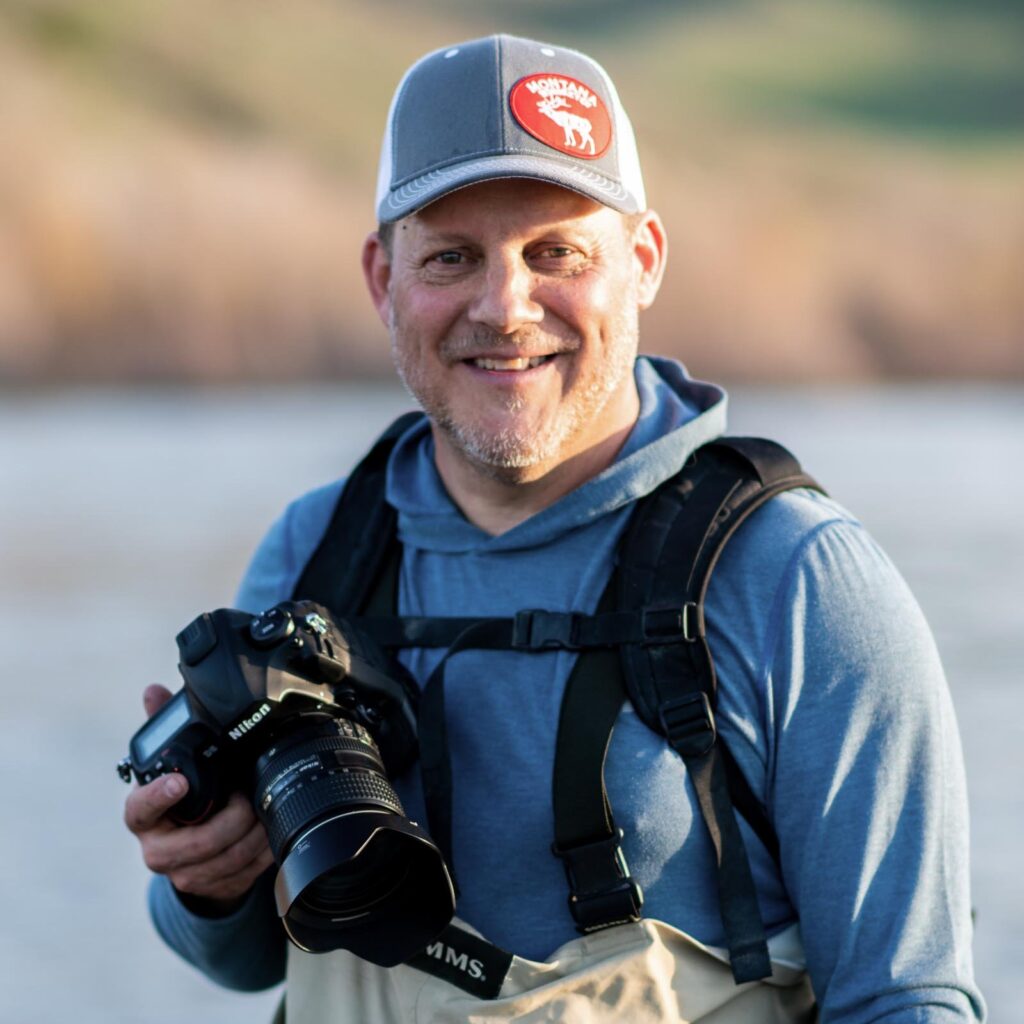
Tony Bynum is a conservation photographer, scientist, and advocate who’s spent decades working at the intersection of public lands, Indigenous rights, and environmental storytelling. Based in Montana, his images have helped shape national conversations around energy development, landscape protection, and the cultural importance of the Northern Rockies. His work has been published widely and used by countless conservation organizations to make the case for protecting wild places.
Before photography became his profession, Tony spent many years working for the Yakama Nation as a senior scientist, eventually landing in Washington, D.C., where he helped shape tribal environmental policy at the highest levels of government. But his path was never linear. A born-and-bred Westerner, he’s been a cowboy, a fly fishing guide, a federal program manager, and a backcountry wanderer. His guiding principle—“Don’t just love something, do something for it”—has carried him through an unconventional but deeply impactful career.
In this episode, Tony tells us about his winding path and the values that have guided him along the way. We dig into his time in D.C., his decision to walk away from a conventional career, and the beginnings of his conservation photography—especially his long-running effort to document proposed energy development on the Blackfeet Reservation and the edge of Glacier National Park. As you’ll hear, I stepped back a little bit in the conversation and let Tony tell his story in his own words, and the result is a thoughtful and unfiltered look at what it means to live a life rooted in land and responsibility.
Thanks so much for listening, hope you enjoy!
---
All photos by Tony Bynum
LISTEN & DOWNLOAD:
Apple Podcasts
Spotify
... or wherever you get your podcasts!
—
RESOURCES:
Topics Discussed:
- 2:02 – Intro, where Tony grew up
- 6:21 – Cue, photography in the early days
- 9:15 – Just doing interesting things
- 13:13 – Indigenous and Western takes on science
- 18:35 – Family dynamics
- 21:24 – Where the work ethic came from
- 23:14 – Where Tony didn’t tread
- 25:48 – Cue, bureaucracy
- 31:07 – Lessons from the copy room
- 36:17 – Tony’s purpose in DC
- 39:01 – And why he had to leave
- 40:41 – Restarting in Montana
- 42:46 – Full-time photography
- 47:07 – A diverse portfolio
- 50:16 – Film to digital and internet access
- 56:05 – Finding conservation
- 58:18 – Energy development near Glacier and the Blackfeet Indian Reservation
- 1:02:52 – The importance of having a visual context
- 1:04:04 – Describing the oil and gas map
- 1:09:51 – Book recs
- 1:18:04 – Final words
Information Referenced:
- Tony Bynum
- Cosmos, Carl Sagan
- A Short History of Nearly Everything
- Podcast episode on the Badger Two-Medicine conversation
- NYT coverage of Tony’s oil and gas boom map focused on east Glacier
- Book recs: Crossing the Next Meridian, This America of Ours, The Rise of the American Conservation Movement
- Spoiler alert about an upcoming new Hal Herring book!
- Cadillac Desert
Enjoy this episode? Then you might like these too:
- Hal Herring Returns – Live at the Old Salt Festival
- Rusty Bell & Justin Loyka – Economics, Energy, and Community Pride
- Helen Augare Carlson & Dylan DesRosier – Land, Language, and Stewardship in the Blackfeet Nation
- Elliot Ross: Where Landscape, Justice, and Storytelling Meet
- Jesse Smith – A Regenerative Approach to Land and Life
- Nichole Barger – Science as a Catalyst for Human Connection
- Mark Easter – Food, Soil, and Our Planet’s Future
Visit the podcast page for a full, searchable list of episodes

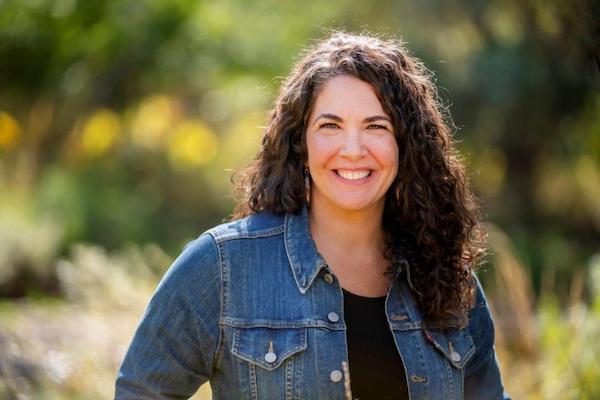
Jackie Miller is the Executive Director of Great Outdoors Colorado (GOCO), and Carlos Fernández is the Colorado State Director for The Nature Conservancy. Both are highly respected leaders in Colorado’s conservation community, and they’ve played pivotal roles in shaping the state’s approach to protecting land, water, wildlife, and outdoor access. While Carlos has joined me on the podcast several times before, this is Jackie’s first appearance, and I was honored to have them both on to discuss one of the most significant conservation developments in recent memory.
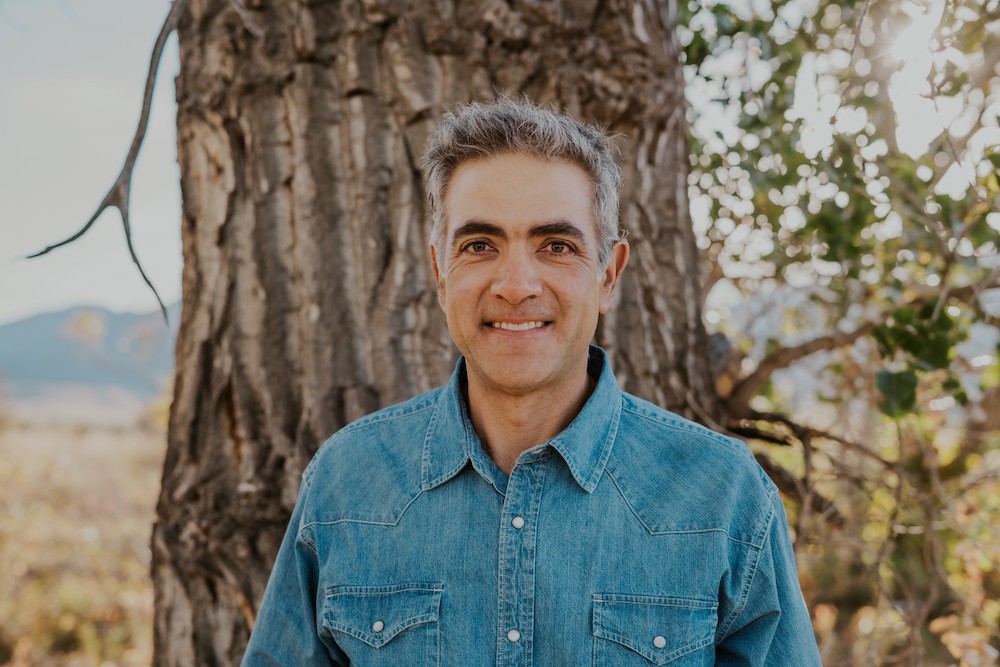
Just a few weeks ago, the State of Colorado announced the launch of its Outdoors Strategy—a comprehensive, collaborative roadmap designed to align the state’s conservation, outdoor recreation, and climate resilience efforts for decades to come. Developed through years of planning, dialogue, and consensus-building across hundreds of organizations and communities, the Strategy addresses some of the most pressing challenges facing Colorado’s landscapes and communities. It’s not just a plan—it’s a shared vision backed by actionable goals, clear metrics, and powerful tools for implementation at the local and statewide levels.
In this wide-ranging conversation, we discuss the origin of Colorado's Outdoors Strategy, the urgency behind its creation, and the unique collaborative process that brought it to life. Jackie shares how GOCO’s long-standing community partnerships and flexible funding model positioned the organization to lead at a statewide scale, while Carlos explains how the Strategy dovetails with The Nature Conservancy’s science-based goals and priorities. We also explore the Strategy’s “North Star” goals, the innovative Resource Hub that supports on-the-ground action, and the importance of regional implementation and tribal engagement. It’s a timely, inspiring look at how Colorado is setting a national standard for coordinated, community-driven conservation.

Photos courtesy of TNC and GOCO
LISTEN & DOWNLOAD:
Apple Podcasts
Spotify
…or wherever you get your podcasts!
EPISODE PARTNER:

This episode is brought to you in partnership with the Colorado chapter of The Nature Conservancy and TNC chapters throughout the Western United States. Guided by science and grounded by decades of collaborative partnerships, The Nature Conservancy has a long-standing legacy of achieving lasting results to create a world where nature and people thrive.
During the last week of every month throughout 2025, Mountain & Prairie will be delving into conversations with a wide range of The Nature Conservancy’s leaders, partners, collaborators, and stakeholders, highlighting the myriad of conservation challenges, opportunities, and solutions here in the American West and beyond. You can access all of the episodes here.
To learn more about The Nature Conservancy’s impactful work in the West and around the world, visit www.nature.org
RESOURCES:
Topics Discussed:
- 3:03 – Intros, Carlos then Jackie
- 5:09 – Explaining Great Outdoors Colorado
- 8:51 – How Jackie got to GOCO
- 11:37 – Carlos on GOCO
- 15:29 – Challenges and opportunities that led to Colorado's Outdoors Strategy
- 19:04 – Opportunities that the Strategy will address
- 21:33 – Jackie’s executive summary
- 27:01 – How the Strategy aligns with TNC’s other goals
- 29:59 – North stars and measuring success
- 33:22 – The TNC tools Carlos is excited about
- 36:34 – Creating urgency to execute a plan
- 40:14 – Face-to-face
- 42:51 – Carlos’s thoughts on execution
- 45:49 – How the plan affects the layperson
- 47:25 – What did we miss? First Jackie
- 51:29 – Then Carlos
- 53:31 – Book recs
- 57:42 – Wrap up words of wisdom
Information Referenced:
- Jackie Miller
- Carlos Fernandez
- Colorado’s Outdoors Strategy
- Colorado’s Outdoors Strategy Video
- Book recs: Prodigal Summer, Abundance, A Walk in the Park, American Wolf
- Quote that Carlos shared in the wrap-up.
Enjoy this episode? Then you might like these too:
- Elliot Ross: Where Landscape, Justice, and Storytelling Meet
- Chris Pague – Stories, Science, and the Southern High Plains
- Nichole Barger – Science as a Catalyst for Human Connection
- Ivan McClellan Returns – From Behind the Lens to Center of the Arena
- Kevin Grange – The Secret Lives of Grizzlies
- Nick Mott – A Masterclass in Nuanced Storytelling
Visit the podcast page for a full list of episodes where you can filter episodes by topic and guests' vocations.

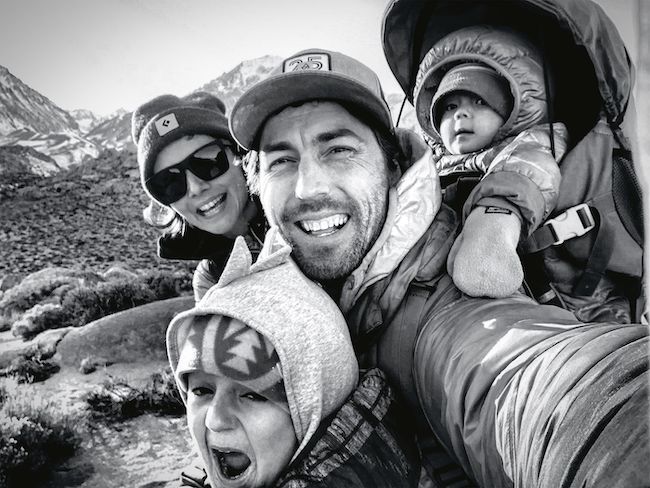
Sonnie Trotter is a world-renowned rock climber, father, husband, writer, and the author of the new book Uplifted: The Evolution of a Climbing Life. For the past three decades, Sonnie has built a career as one of the most accomplished climbers of his generation— pushing standards, putting up first ascents, and bringing a sense of creativity, humility, and grit to every project he tackles. His new book, Uplifted, is part memoir, part meditation on movement and meaning, and it’s one of the most thoughtful and grounded climbing books I’ve read in a long time.
In this wide-ranging conversation, Sonnie and I talk about the unexpected ways writing has shaped his life, how his approach to climbing has evolved over the years, and what it’s been like to move from living out of a van to raising a family in the mountains of Canada. We also discuss how he’s stayed grounded throughout his career, his relationship with sponsors like Patagonia, and why gratitude—not rage or ego—has been the driving force behind his decades of commitment to climbing.
Sonnie also opens up about how parenting has shifted his perspective on adventure, freedom, and ambition—and how he and his wife are raising their kids in a way that emphasizes curiosity, effort, and joy. Whether you’re a climber, a writer, a parent, or just someone trying to live a meaningful life, there’s a ton of wisdom in this one.
Sonnie’s new book Uplifted is out now, and I highly recommend picking up a copy—you’ll find a link in the episode notes, along with links to everything else we discussed. Hope you enjoy both this conversation and the book. Thanks for listening.
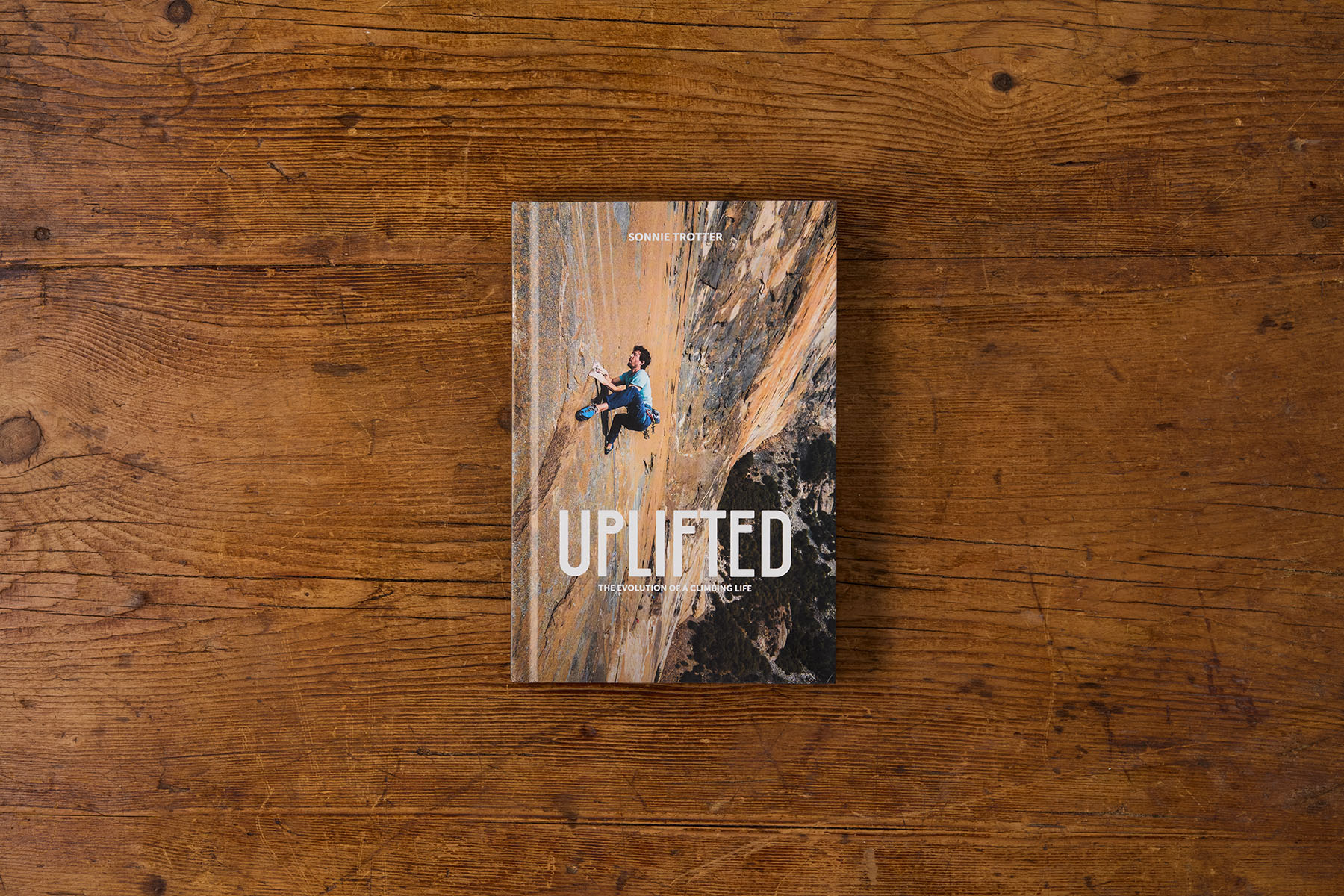
---
Photos courtesy of Patagonia: Header by Ben Moon, Family shot by Sonnie Trotter
LISTEN & DOWNLOAD:
Apple Podcasts
Spotify
... or wherever you get your podcasts!
—
RESOURCES:
Topics Discussed:
- 1:55 - Intro, how Sonnie got into writing
- 4:58 - Influences
- 8:30 - Why write this book now
- 12:40 - Stumbling into the climbing world
- 17:45 - Into the unknown
- 20:27 - Origins of drive
- 25:07 - Climbing’s darkness
- 27:11 - The road to Patagonia
- 32:23 - Parent perspectives
- 36:54 - Becoming a parent
- 42:35 - Getting kids active (a jiu jitsu segway)
- 48:13 - Training, nutrition, and getting older
- 52:47 - Race to 9A
- 56:31 - Book recs
- 59:29 - Final words of wisdom — get back to work
Information Referenced:
- Sonnie Trotter
- Uplifted: The Evolution of a Climbing Life by Sonnie Trotter
- Sonnie’s writing influences including John Long, Lynn Hill and Matt Samet.
- Race to 9A, an accountability challenge for some of America’s top climbers as they age.
- My Side of the Mountain, a Sonnie and Ed top-shelf pick.
- Sonnie’s top three reading recommendations: The Power of One, The Old Man and the Sea and My Side of the Mountain from above.
Enjoy this episode? Then you might like these too:
- Rick Ridgeway – Purpose-Driven Adventurer
- Kristine Tompkins – Nothing to Lose
- Nick Offerman – Empathy, Nuance, & Good Hard Work
- Pete McBride Returns – Exploring & Documenting His Backyard River
- Joe Schobert – From NFL Pro Bowler to Western Conservation Advocate
- George Hodgin Returns – On Risk-Taking, Leadership, and the Future of Cannabis
- Elliot Ross: Where Landscape, Justice, and Storytelling Meet
- Chris Burkard, Part 2 – Seeking Beauty Through Adventure
- Jesse Griffiths – Humility, Curiosity, and Creative Cuisine
Visit the podcast page for a full, searchable list of episodes

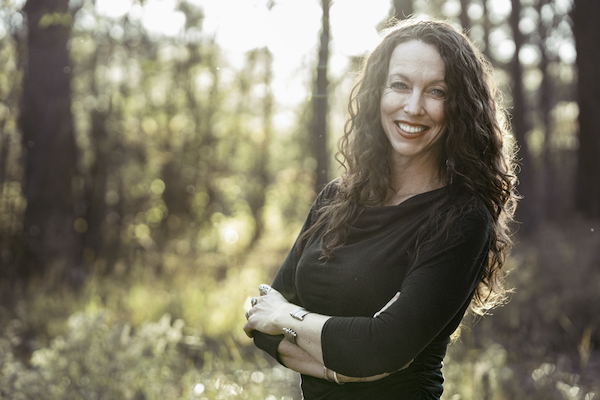
Cassidy Randall is a journalist and author whose work explores the intersections of adventure, history, and the natural world. Her new book, Thirty Below: The Harrowing and Heroic Story of the First All-Women’s Ascent of Denali, tells the gripping true story of six women who, in 1970, became the first all-female team to summit North America’s tallest mountain. It's a meticulously researched, beautifully written account that brings long-overlooked voices to the forefront of mountaineering history.
As someone with a deep personal interest in Denali, I was especially excited to read this book and speak with Cassidy. In our conversation, we talk not only about the origins of Thirty Below and the individual women at the heart of the story, but also about Cassidy’s career as a journalist— how she got started, the path she’s carved through the world of longform storytelling, and how she approaches writing with such clarity, depth, and purpose. She also shares insights into her research process, the challenge of shaping complex narratives, and the broader importance of telling stories that have too often been overlooked or dismissed.
Whether or not you’ve ever set foot on a glacier, Thirty Below offers a deep dive into universal themes— resilience, purpose, and the human desire to explore. It’s a story about ambition and endurance, but also about complexity, contradiction, and the ways women have long carved space for themselves in places that often excluded them. Cassidy brings these histories to life with nuance and empathy, honoring the individuality of each woman while raising timeless questions about legacy, belonging, and what drives us to push beyond our limits.
Thanks to Cassidy for writing the book and for taking the time to chat. I hope you enjoy.
---
Photos courtesy of Cassidy Randall
LISTEN & DOWNLOAD:
Apple Podcasts
Spotify
... or wherever you get your podcasts!
—
RESOURCES:
Topics Discussed:
- 2:06 – Intro, how did Cassidy get into Denali?
- 8:28 – Getting to know Grace
- 13:08 – Landscape of women in climbing
- 18:16 – Margaret and her journey with multiple sclerosis
- 22:39 – Why do people climb mountains?
- 25:38 – Grace at 88, any discontent?
- 28:08 – Ed on his experience climbing Denali
- 31:02 – The process of climbing
- 37:39 – Adventure for the sake of adventure
- 42:23 – Writing advice on structure
- 45:41 – Source change
- 47:07 – Book writing compared with magazine work
- 50:36 – Early creativity threads
- 53:28 – Shifts in the writing industry
- 55:24 – What is journalism’s role anymore?
- 1:00:17 – It’s alive! (The content we’re consuming.)
- 1:01:19 – Denali or McKinley?
- 1:04:37 – Writer recs
- 1:08:03 – Pro tips on being a writer
- 1:10:17 – Wrapping it up
Information Referenced:
- Cassidy Randall
- Cassidy's Substack: The Wilder Path
- Thirty Below: The Harrowing and Heroic Story of the First All-Women’s Ascent of Denali
- Two books that do Denali justice, according to Ed. Club Denali by Jon Krakauer (from Eiger Dreams) and then Cassidy’s book above.
- The 50th anniversary celebration of the first all-women climb up Denali from the NPS that Cassidy's agent sent her asking, “Is this a story?”
- Grace Hoeman, one of the protagonists of Thirty Below
- The Denali Damsels
- The Wilcox expedition, the deadliest Denali expedition with winds up top estimated at 300 mph. (Not a typo, Cassidy says.)
- Wild by Cheryl Strayed
- Classic outdoor adventure books: The Wager and Into Thin Air
- Letter to Outside by writers wanting off the masthead.
- Jessica Yellin’s News Not Noise, journalist on Substack and Instagram that Cassidy loves.
- Writer recs: John Branch at the New York Times, Kevin Fedarko and the Emerald Mile, Caroline Van Hemert and The Sun Is A Compass, Tom Robbins, Kevin Barry and The Heart in Winter, Maggie Shipstead
- John Branch on M&P
Enjoy this episode? Then you might like these too:
- Hampton Sides Returns: The Wild and Tragic Tale of Captain James Cook
- Kami Bakken – How to Build a Life and Career in the West’s Wide-Open Spaces
- Sandy Colhoun – Building Leaders Through Outdoor Education
- Mike DeHoff – Exploring the Colorado River’s Reemerging Rapids
- Pete McBride Returns – Exploring & Documenting His Backyard River
- Scott Hulet: Reading + Writing + Surfing + Fishing + Traveling
- Jenna Pollard – Timber Framing, Organic Farming, Community, and Purpose
- John Vaillant – A Riveting Exploration of Fire
Visit the podcast page for a full, searchable list of episodes

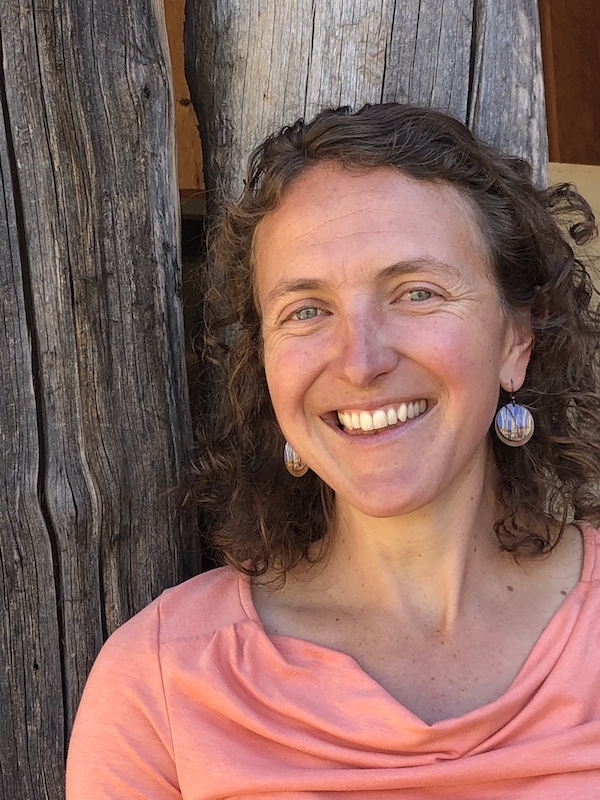
Sara Domek is Wyoming’s Migration Program Director for The Nature Conservancy. Sara grew up in the small town of Kemmerer and later moved to Pinedale, giving her a rare, firsthand perspective on Wyoming’s working landscapes— both from a natural resources and a conservation standpoint. Her upbringing, paired with years of experience working in nonprofits, agencies, and boots-on-the-ground conservation, makes her uniquely suited to lead TNC’s efforts to protect Wyoming’s world-renowned wildlife migrations.
If you’ve spent any time driving through Wyoming, you’ve probably cruised past some of the most important migration corridors in North America—maybe without even realizing it. Sara and her team are working to keep those landscapes permeable, helping mule deer, pronghorn, elk, and other species continue the seasonal journeys they’ve been making for thousands of years. We talk about the science behind migration, how seemingly small barriers like fences can create big challenges for wildlife, and how collaborative conservation— between landowners, agencies, and nonprofits— can create real, lasting wins.
Sara also shares some fascinating details about Wyoming’s longest mule deer migration, the importance of building trust with local communities, why cheatgrass is a bigger villain than it looks, and how carefully designed wildlife crossings can benefit both animals and people. We also get into her favorite books, why she’s hopeful about the future, and, once again, the simple but powerful idea that success in conservation often comes down to strong relationships.
This is a thoughtful and inspiring conversation with someone who truly embodies the spirit of collaborative, community-driven conservation. I hope you enjoy!
Header photo courtesy of TNC and by Scott Copeland, headshot by Sara Domek
LISTEN & DOWNLOAD:
Apple Podcasts
Spotify
…or wherever you get your podcasts!
EPISODE PARTNER:

This episode is brought to you in partnership with the Colorado chapter of The Nature Conservancy and TNC chapters throughout the Western United States. Guided by science and grounded by decades of collaborative partnerships, The Nature Conservancy has a long-standing legacy of achieving lasting results to create a world where nature and people thrive.
During the last week of every month throughout 2025, Mountain & Prairie will be delving into conversations with a wide range of The Nature Conservancy’s leaders, partners, collaborators, and stakeholders, highlighting the myriad of conservation challenges, opportunities, and solutions here in the American West and beyond. You can access all of the episodes here.
To learn more about The Nature Conservancy’s impactful work in the West and around the world, visit www.nature.org
RESOURCES:
Topics Discussed:
- 2:50 – Intro, growing up in Wyoming, and valuing natural resources
- 6:09 – Pinedale and the Wind Rivers
- 7:15 – Plan after high school
- 10:37 – Finding TNC
- 14:16 – Sara describes her job
- 17:21 – Mule deer and pronghorn migration corridors
- 21:57 – Fencing and migration
- 26:25 – Getting the word out about fencing
- 29:27 – Migration primer: distance, predators, and collisions
- 35:54 – Valley of the warm winds
- 42:37 – RCPP programs
- 45:27 – Cheatgrass 101
- 48:54 – Important partners
- 51:08 – Prioritizing projects
- 54:40 – What Sara’s looking forward to
- 57:57 – Where to learn more
- 1:00:22 – Book recs
- 1:03:04 – Parting words
Information Referenced:
- Rusty Bell and Justin Loyka on M&P talking about the coal industry
- Youth Conservation Corps NPS program
- National Bighorn Sheep Center in Dubois, Wyoming
- Wyoming Migration Initiative
- Red Desert to Hoback mule deer migration, the world’s longest mule deer migration
- Wild Migrations: Atlas of Wyoming’s Ungulates
- Dubois = the Valley of the Warm Winds. Though Ed and Sara don’t tend to always agree with the “warm” part.
- Big Game Partnership, which supports migration work in Wyoming, Idaho and Montana
- Some of Justin Loyka’s work on blending migration with industry in a way that’s safer for migrating ungulates.
- Sublette County Conservation District, which focuses on wildlife-friendly fence work
- Wyoming Sagebrush Sea’s native plants work related to maintaining habitat for wildlife, including traveling ungulates
- Yellowstone migration photos by Joe Riis
- TNC’s “Impacts of Roadways on Wildlife” report from 2022, a general overview
- Wyoming’s Department of Transportation animal collision cost estimates. Human fatality costs for collisions with moose is over $13,000.
- WY Game and Fish Department migration information
- Wyldlife Fund and Greater Yellowstone Coalition and the Dubois crossings project
- A series on wildlife crossings in Montana
- Absaroka Fence Initiative
- An example of an RCPP program application. And this is just the how-to.
- Cheatgrass
- TNC and the University of Wyoming’s fencing prioritization tool
- Book recs: The Solace of Open Spaces, Ordinary Wolves
Enjoy this episode? Then you might like these too:
- Rob Addington – A Deep Dive into Western Wildfires and Forest Health
- Emilene Ostlind – Storytelling for the New West
- Matt Cahill – A Deep Dive into the Sagebrush Sea
- Chris Pague – Stories, Science, and the Southern High Plains
- Douglas Brinkley – Exploring the Past to Find Inspiration for the Future
- John Vaillant – A Riveting Exploration of Fire
Visit the podcast page for a full list of episodes where you can filter episodes by topic and guests' vocations.

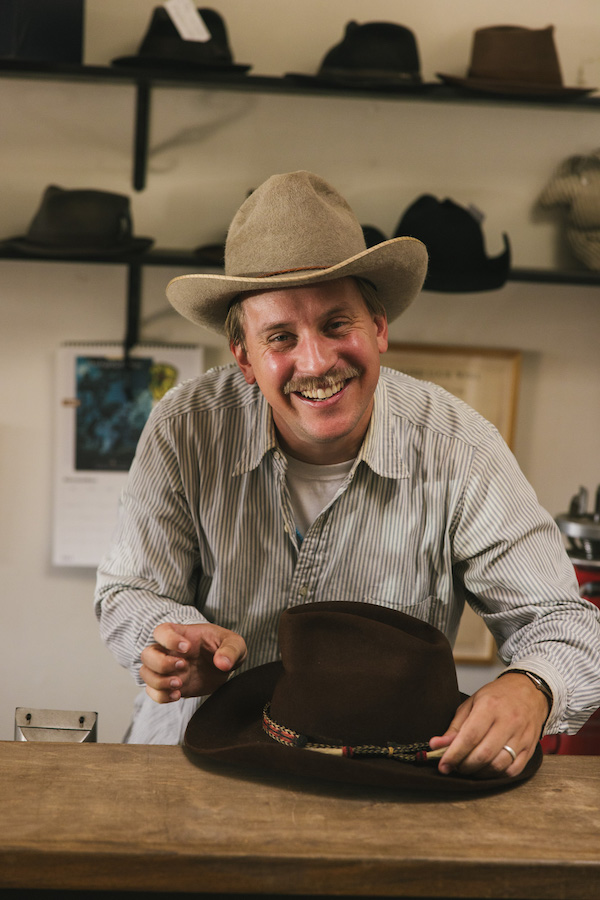
Cody Wellema is a master hatmaker and the founder of Wellema Hat Co., a highly regarded, California-based custom hat business. For over a decade, Cody built a reputation as one of the country’s premier craftspeople in the art of traditional hatmaking, creating heirloom-quality hats by hand, using vintage tools and techniques that harken back to a slower, more intentional era. His work has been worn by artists, ranchers, musicians, and everyday folks alike, and his shop became not only a destination for finely made hats, but a gathering place rooted in community and craft.
On January 8th of this year, Cody and his family lost their Altadena storefront and workspace in the Eaton Canyon Fire, one of the many devastating fires that destroyed a large part of the greater Los Angeles area in early 2025. In the aftermath, he has navigated an overwhelming combination of grief, logistics, and uncertainty—yet throughout it all, he has maintained a sense of gratitude, humility, and forward-looking optimism that is as rare as it is inspiring. As he puts it, the fire forced a kind of reset—one that, while painful, has given him a blank page and the opportunity to reimagine the next chapter of his creative life.
In this conversation, we talk about Cody’s early entrepreneurial spirit, his deep appreciation for vintage craftsmanship, and how he taught himself the trade by deconstructing old hats and learning from the past. We also explore the role of presence in parenting, the importance of community, and the creative possibilities that can emerge when the old path is unexpectedly cleared. Cody’s story is one of resilience, creativity, and deep care– for people, for his craft, and for doing things the right way.
I was so inspired by Cody’s optimism and gratitude, and I know you will be too. Be sure to check out the episode notes for links to everything we discussed, including a GoFundMe page that was set up to support Cody and his family during this unexpected time of chaos.
Thanks for listening, I hope you enjoy!
---
Photos by Farhad Samari
LISTEN & DOWNLOAD:
Apple Podcasts
Spotify
... or wherever you get your podcasts!
—
RESOURCES:
Topics Discussed:
- 3:30 – Intro, how’s Cody doing?
- 7:04 – His default wiring is optimism
- 8:49 – Setting an example for the kids
- 10:52 – Roots
- 12:41 – Cody’s evolution
- 17:33 – Heading out on his own
- 19:31 – Getting to hats
- 25:50 – Taking apart old hats
- 28:33 – Monetization
- 30:59 – Hindsight and going all in
- 34:41 – The fear of diving in
- 38:33 – Time to define
- 41:14 – More than just hats
- 46:29 – Blessing in the bad
- 51:59 – Moving on
- 56:00 – Cody’s first time voicing his new idea
- 1:04:59 – Taking the compliments
- 1:08:56 – Figuring out a blank slate
- 1:13:00 – Inspiration recs
- 1:18:16 – Final words of wisdom
Information Referenced:
- Wellema Hat Co
- GoFundMe for the Wellemas
- Cody on Instagram
- NY Times article about Wellema Hat Co. and the Eaton Fire
- Cool video about Cody
- Teal Blake, rancher and creator. One of Cody’s hat-making inspirations.
- Havstad Hat Company
- Duckworth, born in Montana.
- M&P episode with woodworker Geoffrey Keating
- Cody’s profiles of other hat makers.
- Cody’s reading recs: Lonesome Dove series, William Boyd, Rick Rubin’s The Creative Act, Picasso’s War.
Enjoy this episode? Then you might like these too:
- Logan Maxwell Hagege Returns – On Taking Action & Finding Balance
- Beau Alexander – Paying Homage to the Past, While Focusing on the Future
- Christy Sing Robertson – On Grit, Hard Work, & Going All In
- Anna Borgman – Obsession, Curiosity, and Purpose-Driven Work
- Jenna Pollard – Timber Framing, Organic Farming, Community, and Purpose
- Ivan McClellan Returns – From Behind the Lens to Center of the Arena
- Jesse Griffiths – Humility, Curiosity, and Creative Cuisine
Visit the podcast page for a full, searchable list of episodes


This is a special live episode recorded this past March at SXSW in Austin, Texas, and it features a conversation I had the honor of moderating with two powerhouse guests: Cate Havstad-Casad of Range Revolution and Daniel Mouw of Duckworth.
The title of the panel was Farmer-Founded Brands Will Save American Fashion. At first glance, that might sound like a bold claim, but these two are actually doing the work to make it real. Cate is a designer, hatmaker, and regenerative rancher whose company Range Revolution is turning discarded cattle hides into regenerative high-end leather goods. Daniel is the president of Duckworth, a Montana-based wool company that’s rebuilding the American supply chain– one sheep, sweater, and ranch at a time.
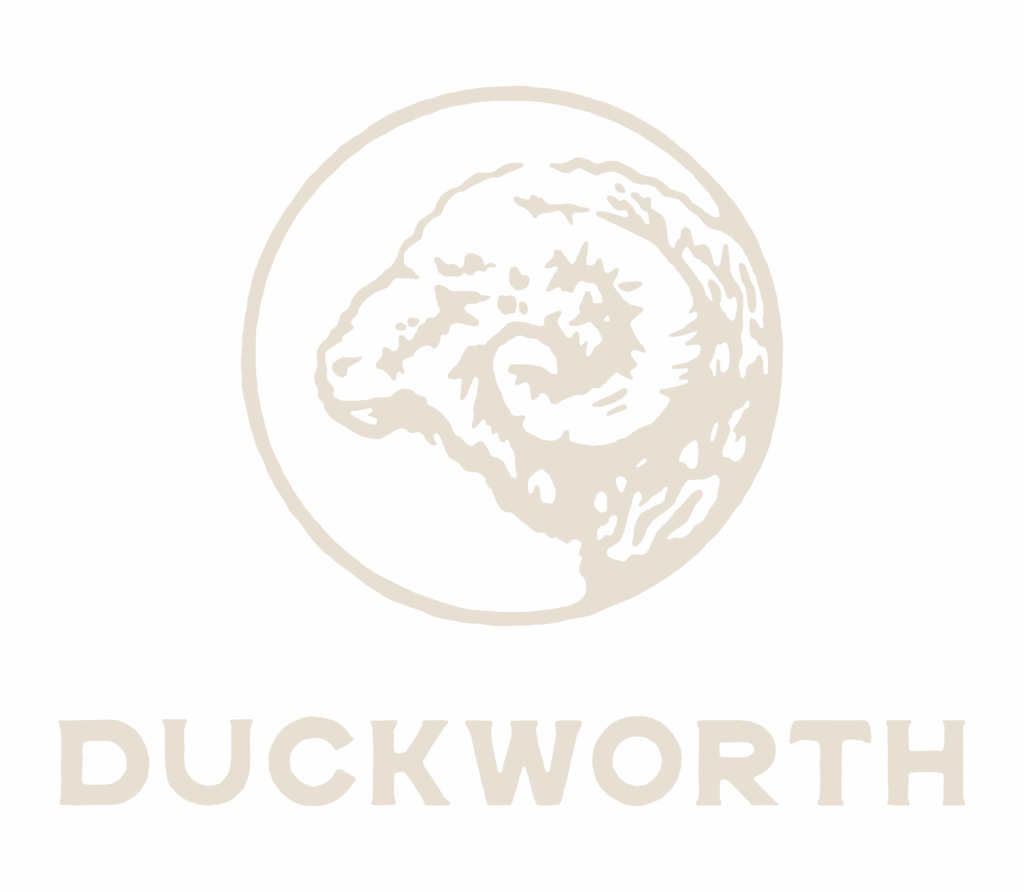
Together, we dug into some big questions: What happened to American-made textiles? Why are most of us walking around wearing plastic? And what would it look like to rebuild rural economies from the ground up, using natural fibers like leather and wool, raised and processed responsibly, here in the United States? It might sound like we’re talking fashion and manufacturing trends—but this is really a conversation about values, ecosystems, and the future of rural America.
Cate and Daniel are funny, deeply thoughtful, and grounded in the realities of both agriculture and business. They bring hard-earned optimism to a conversation that too often gets bogged down in doom and gloom. And they make a compelling case for why fashion can be a vehicle for stewardship, beauty, and connection to the land. We also had a sharp, engaged audience that asked some truly insightful questions– you’ll hear a few of those toward the end.
Thanks to Cate and Daniel for the amazing conversation, thanks to SXSW for inviting us, and thank you for listening.
LISTEN & DOWNLOAD:
Apple Podcasts
Spotify
... or wherever you get your podcasts!
—
RESOURCES:
Topics Discussed:
- 2:10 - Introductions
- 6:35 - A history lesson in US fiber production
- 10:22 - Current supply chain challenges facing producers
- 16:17 - Why natural fibers are superior to synthetics
- 19:17 - The true cost of synthetics and fast fashion
- 23:17 - How Range Revolution and Duckworth are restoring economic power to ag producers
- 27:36 - The unique role of for-profit businesses in solving these challenges
- 33:13 - Positivity as a strategic business decision
- 37:09 - How do you scale this regenerative fashion movement?
- 40:32 - Embracing natural characteristics in design
- 42:06 - How to capture attention in today’s information age
- 46:13 - What would an ideal community support system look like?
- 50:26 - Fabric frequencies!
- 52:53 - How to convert standard retail buyers into regenerative buyers
- 56:40 - Any collaboration with the EU fashion industry?
Information Referenced:
- SXSW
- Range Revolution
- Casad Family Farms
- Duckworth
- Maverick Ski Hill
- Woolrich
- American Flannel: How a Band of Entrepreneurs Are Bringing the Art and Business of Making Clothes Back Home by Steven Kurutz
- Externalities
- Women in Ranching
- Veja shoes
- American Wool Council
- Jenessa Leone
- Fibershed
- Another Tomorrow
- Shop Zero
Enjoy this episode? Then you might like these too:
- Cate Havstad-Casad, Part 2 – Building Businesses for the Greater Good
- George Hodgin Returns – On Risk-Taking, Leadership, and the Future of Cannabis
- Nick Offerman – Empathy, Nuance, & Good Hard Work
- Kristine Tompkins – Nothing to Lose
- Kelsey Molloy & Angel DeVries – Fortifying Grasslands and Communities on the Northern Great Plains
- Jesse Smith – A Regenerative Approach to Land and Life
- Ivan McClellan Returns – From Behind the Lens to Center of the Arena
- Elliot Ross: Where Landscape, Justice, and Storytelling Meet
Visit the podcast page for a full, searchable list of episodes

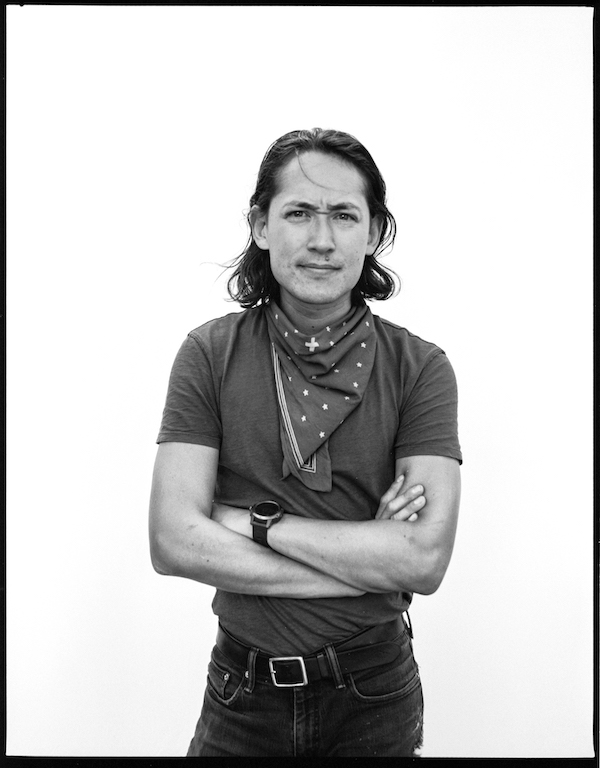
Elliot Ross is a photographer and writer whose work focuses on the intersection of landscape, identity, and justice in the American West. His images have appeared in Time, National Geographic, and The New York Times, and he’s known for deeply researched, long-term projects that combine striking visual storytelling with a journalist’s rigor. Whether he's documenting water access on the Navajo Nation or tracing the contours of Glen Canyon as it reemerges, Elliot brings a rare mix of artistry, empathy, and precision to every assignment.
Born in Taiwan and raised on the eastern plains of Colorado, Elliot grew up between cultures and landscapes—an experience that shaped both his worldview and his creative path. He picked up a camera early, inspired by his grandmother’s family albums, and later earned a full-ride to the Savannah College of Art and Design. After college, he cut his teeth in New York City, assisting some of the most high-profile portrait and fashion photographers in the industry. All the while, he was quietly dreaming about building a career on his own terms—one rooted in storytelling, purpose, and the landscapes he still called home.
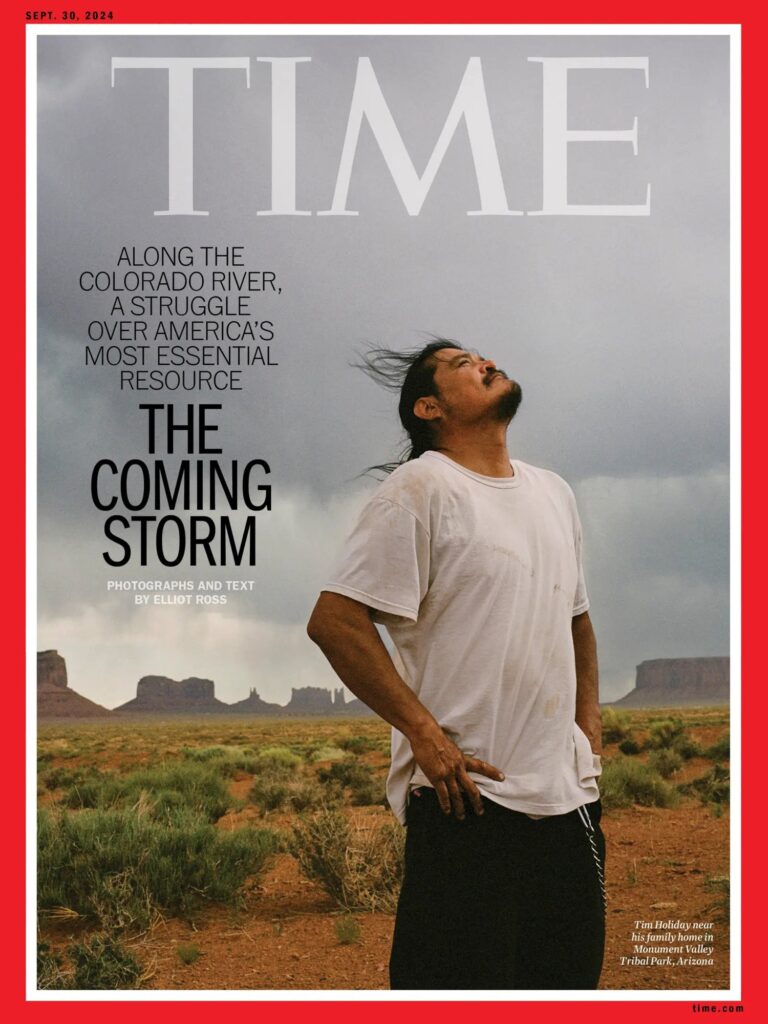
In this episode, we talk about the early experiences that shaped his artistic voice, the evolution of his career, and how he’s learned to navigate the demands of both commercial and documentary work. Elliot shares the backstory of his recent Time magazine cover story on water equity in the West, a project that involved years of reporting, deep community ties, and even a return to the classroom. We also discuss his thoughts on creative endurance, working across political divides, and the role of photography in fostering empathy and connection.
I’d encourage you to visit Elliot’s website and dig deeper into all of his work, especially his project A Question of Balance, which became the Time magazine feature. You can find links to everything in the episode notes. Thanks to Elliot for the inspiring and timely conversation, and thank you for listening.
Photos courtesy of Elliot: Header by Max Lowe, headshot by Miguel DeLeon
LISTEN & DOWNLOAD:
Apple Podcasts
Spotify
…or wherever you get your podcasts!
EPISODE PARTNER:
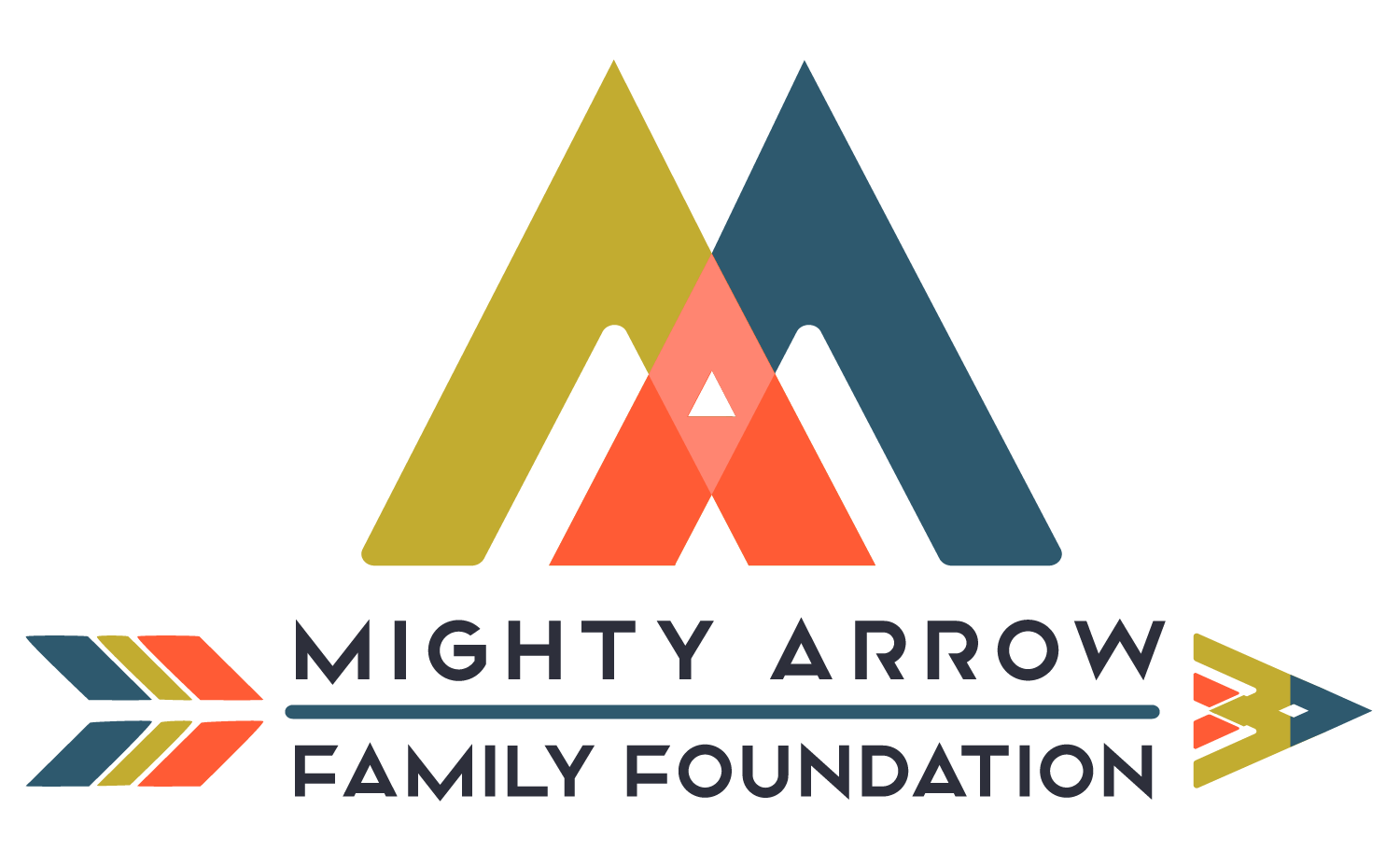
This episode is brought to you in partnership with the Mighty Arrow Family Foundation.
To whom much is given, much is expected. This value guides the philosophy behind the Mighty Arrow Family Foundation today.
Committed to its cause and infused with an entrepreneurial spirit, Mighty Arrow aims to invest in solutions that take action on climate change to build a more vibrant future, repair relationships from farm to market to table, heal our connection to the lands and waters we call home, and demand a more just and equitable society.
To learn more about Mighty Arrow’s forward-thinking, optimistic, and visionary work here in the American West and beyond, please visit www.mightyarrow.org.
RESOURCES:
Topics Discussed:
- 3:05 – Elliot growing up in Taipei and how his parents met
- 6:00 – Few but vivid memories of Taipei
- 7:09 – The culture shock of moving to eastern Colorado
- 8:25 – How photography came into Elliot’s life
- 10:29 – Reading influences
- 13:16 – Travel bug
- 16:22 – Savannah College of Art and Design
- 18:07 – The Asian parents pressure
- 19:49 – Credit to high school art teachers
- 20:54 – Figuring out photography
- 27:47 – No wavering
- 29:54 – Moving into independent business
- 33:29 – Pitching Carhartt
- 37:03 – Nat Geo ups and downs
- 42:10 – Near-death experiences
- 45:44 – Approaching long-term projects
- 49:35 – Pulling on threads
- 51:45 – Humans and landscapes
- 56:35 – Curiosity as the most authentic de-escalator
- 58:05 – Writing and shooting and doing it all
- 1:02:45 – Response to the Time story
- 1:07:35 – A tale of two places
- 1:13:45 – Using water in the West
- 1:16:35 – The Desiderata creed
- 1:17:05 – Book recs
- 1:23:05 – Parting words
Information Referenced:
- Elliot Ross
- Time Magazine piece
- My Side of the Mountain by Jean Craighead George
- Robert Adams, American West photographer
- The “new topographics” movement. Elliot defines it as a revisionist way of looking at landscape. Instead of beauty and splendor, there’s more analysis of the changes that humans brought upon a place.
- Annie Leibovitz, a portrait photographer Elliot interned for.
- Mark Seliger, Elliot was his Second Assistant.
- Philip-Lorca diCorcia, a portrait photographer Elliot didn’t intern for, but stalked until he said no.
- Martin Schoeller, another portrait photographer Elliot worked for.
- Elliot’s The Reckoning Days
- Robert Clark, Nat Geo features photographer
- American Backyard, Elliot’s examination of the U.S./Mexico border
- An interview with Elliot about his experience talking with John Ladd, amongst other things, in Deseret News.
- E.W. Scripps environmental reporting fellowships and internships
- A Question of Balance, another project of Elliot’s
- Elliot’s Geography of Hope Exhibition
- The Glen Canyon Institute
- The Desiderata, Elliot’s daily creed.
- Book recs: John Steinbeck’s East of Eden and Grapes of Wrath; Cormac McCarthy’s (when Elliot’s feeling dark) Blood Meridian and All The Pretty Horses: Border Trilogy 1; Craig Childs’ The Secret Knowledge of Water and House of Rain
Enjoy this episode? Then you might like these too:
- Pete McBride Returns – Exploring & Documenting His Backyard River
- Mike DeHoff – Exploring the Colorado River’s Reemerging Rapids
- Kristine Tompkins – Nothing to Lose
- Mauricia Baca – An Empathetic Approach to Nevada’s Conservation Challenges
- Joe Schobert – From NFL Pro Bowler to Western Conservation Advocate
- Jesse Smith – A Regenerative Approach to Land and Life
Visit the podcast page for a full list of episodes where you can filter episodes by topic and guests' vocations.

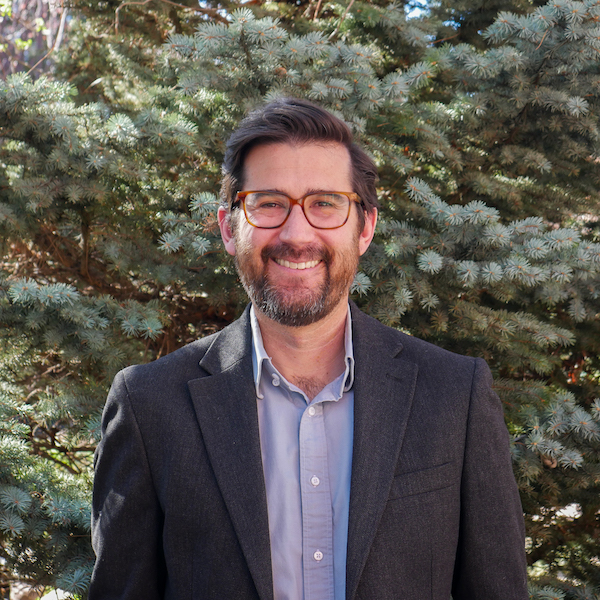
Aaron Citron is the Associate Director of External Affairs at The Nature Conservancy, where he leads state-level policy engagement across Colorado. His work spans a wide array of conservation priorities, including water management, healthy forests, renewable energy siting, and partnerships with private landowners and tribal nations. Aaron plays a key role in bridging on-the-ground conservation efforts with the legislative and regulatory frameworks that support them. He also helps shape TNC’s strategy around climate and energy policy, working to ensure a rapid but responsible transition to renewable infrastructure.
Aaron grew up in Tucson, Arizona, where early exposure to the desert landscape—and its vital, limited water resources—sparked a lifelong interest in the natural world. After studying history and political science at Emory University, he returned west for law school at the University of Arizona, focusing on water and land use law. His career has taken him from local land trusts to national NGOs like Environmental Defense Fund, always at the intersection of policy, place, and practical impact. Along the way, he’s built a reputation for thoughtful, collaborative work that reflects both his legal background and his deep connection to the West.
In our conversation, Aaron shares a detailed look at how conservation policy gets made—from coalition-building and legislative drafting to navigating complex stakeholder relationships. We discuss examples like Colorado’s response to Clean Water Act rollbacks and new tools to support in-stream flows on the Yampa River. He talks about the balance between urgency and patience, the importance of trust in long-term conservation, and how calm, clearheaded engagement can shape better outcomes. It’s a compelling look at the behind-the-scenes work that makes public-facing conservation efforts possible.
Be sure the check out the episode notes for a full list of everything we discussed and links to everything. Thanks to Aaron for this conversation and thank you for listening. Enjoy!
Photos courtesy of The Nature Conservancy, Header photo: Sunset on the Yampa River at Carpenter Ranch in Northwest Colorado. © John Fielder
LISTEN & DOWNLOAD:
Apple Podcasts
Spotify
…or wherever you get your podcasts!
EPISODE PARTNER:

This episode is brought to you in partnership with the Colorado chapter of The Nature Conservancy and TNC chapters throughout the Western United States. Guided by science and grounded by decades of collaborative partnerships, The Nature Conservancy has a long-standing legacy of achieving lasting results to create a world where nature and people thrive.
During the last week of every month throughout 2025, Mountain & Prairie will be delving into conversations with a wide range of The Nature Conservancy’s leaders, partners, collaborators, and stakeholders, highlighting the myriad of conservation challenges, opportunities, and solutions here in the American West and beyond. You can access all of the episodes here.
To learn more about The Nature Conservancy’s impactful work in the West and around the world, visit www.nature.org
RESOURCES:
Topics Discussed:
- 3:15 – Starting at the beginning, growing up in Tucson
- 7:42 – Underrated Arizona
- 11:23 – From environmental history to law school
- 15:22 – After law school, including a TNC internship
- 18:11 – Landing at the Arizona Land and Water Trust
- 21:24 – Path to TNC
- 24:06 – Aaron’s role at TNC
- 27:42 – Clean Water Act protection project
- 33:40 – Getting the information to the people
- 35:29 – Yampa River Fund
- 40:39 – What makes someone good at policy work?
- 46:11 – The power of relationships
- 49:00 – Federal versus state policy focuses
- 53:40 – Remaining calm
- 57:21 – Book recs
- 1:01:53 – Parting thoughts
Information Referenced:
- Aaron Citron - Associate Director of External Affairs at The Nature Conservancy
- TNC Colorado's 2024 Year In Review
- Dan Stellar with TNC on Mountain & Prairie
- Arizona Land and Water Trust in Tucson. Aaron’s first role out of law school.
- Peter Gower and Chris Menges from TNC on M&P about the energy transition.
- Discussion about the Yampa River Fund on M&P with TNC’s Diana Lane and Aaron Derwingson
- Book recs: The Emerald Mile, The Fool's Progress by Edward Abbey
- Doug Peacock on Mountain & Prairie, talking about grizzlies and burying Ed Abbey
Enjoy this episode? Then you might like these too:
- Chris Pague – Stories, Science, and the Southern High Plains
- Betsy Gaines Quammen Returns – Myths, Curiosity, and Human Connection (Live at the Old Salt Festival)
- Matt Cahill – A Deep Dive into the Sagebrush Sea
- Mark Easter – Food, Soil, and Our Planet’s Future
- Douglas Brinkley – Exploring the Past to Find Inspiration for the Future
- The Partnership of Rangeland Trusts – 20 Years of Cooperation, Collaboration, and Conservation
- John Vaillant – A Riveting Exploration of Fire
Visit the podcast page for a full list of episodes where you can filter episodes by topic and guests' vocations.

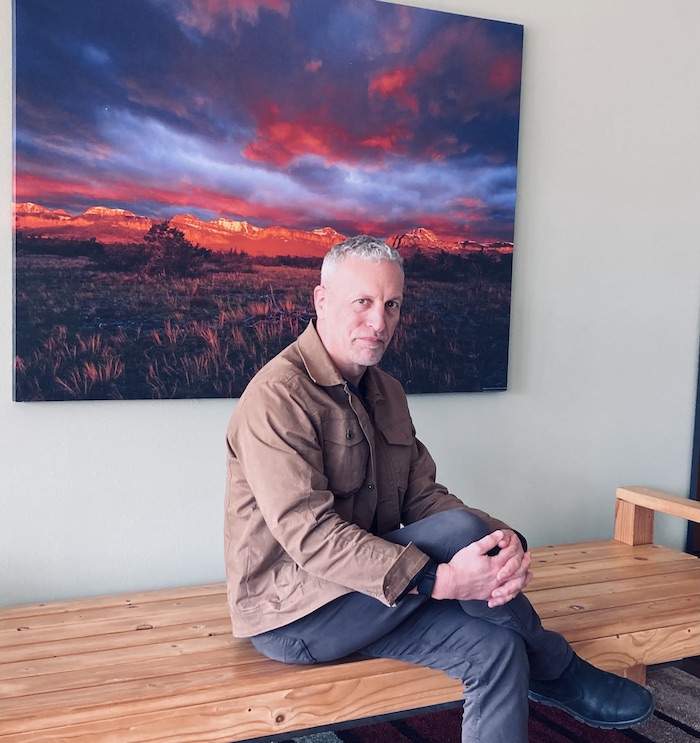
David Cronenwett is the owner of Helena Brazilian Jiu Jitsu and a third-degree black belt under American Jiu-Jitsu legend Rafael Lovato Jr. David started his Jiu-Jitsu journey in Seattle in 1996, back when finding a place to train was like stumbling upon a secret society. Over the years, he’s not only refined his own game but has shared this art with hundreds of students in Montana’s capital city since opening his academy in 2016.
But David’s path to Jiu-Jitsu wasn’t exactly a straight shot. He grew up in New Jersey, made his way west to study classical guitar at Cornish College of the Arts in Seattle right as the grunge scene was taking over, and eventually found himself in Montana, drawn by the wilderness and a deep-rooted need for something more. That “something more” turned out to be a mix of conservation work, backcountry living, and, of course, Jiu-Jitsu—an art that would come to define much of his life.
In this conversation, we go deep into the philosophy of Jiu-Jitsu: why it grabs certain people and won’t let go, how it humbles you, how it teaches you to remain calm under pressure, and how it can serve as a vehicle for self-improvement. But beyond that, we explore how Jiu-Jitsu teaches lessons that stretch far beyond the mats—lessons about patience, resilience, adaptability, and how to wisely face challenges in life. We also talk about the importance of culture in an academy, how a good training environment can shape people beyond the gym, and how the shared purpose and community of Jiu-Jitsu has a way of bringing together folks from all walks of life.
And for those of you who might be on the fence about trying Jiu-Jitsu, David has plenty to say about why it’s never too late to start and how it can change not just how you move, but how you see the world.
So whether you’re a seasoned grappler or just curious about what makes this martial art so addictive, there’s a lot to learn from this conversation. Enjoy!
---
Photos courtesy of David Cronenwett & Helena BJJ
LISTEN & DOWNLOAD:
Apple Podcasts
Spotify
... or wherever you get your podcasts!
—
RESOURCES:
Topics Discussed:
- 2:15 - Getting to know David
- 4:30 - Seattle to Montana
- 6:30 - And from music to conservation
- 7:45 - Early outdoor interests
- 10:00 - First Jiu-Jitsu memories
- 12:30 - Getting into Jiu-Jitsu
- 16:30 - What is it about Jiu-Jitsu?
- 21:00 - Community on the mat
- 26:45 - Importance of having new trainees
- 29:45 - Where the growth happens
- 31:30 - Maintaining culture
- 35:30 - Lessons from practicing and teaching
- 42:30 - Obsessive types
- 45:15 - Not for the bullies
- 47:30 - Maintaining the practice as life goes on
- 53:30 - Self-defense as an insurance policy
- 1:01:00 - What Jiu-Jitsu gives you
- 1:04:45 - Losing ego
- 1:08:45 - Peaks and valleys
- 1:12:30 - Not about the belts
- 1:14:45 - Book recs
- 1:21:30 - Thoughts on therapy
- 1:23:45 - Parting words
Information Referenced:
- David Cronenwett
- Helena Brazilian Jiu Jitsu
- Old Salt conservation with Hal Herring. A rare occurrence when Ed wasn’t talking to Hal about Jiu Jitsu at the festival.
- Meditations by Marcus Aurelius. David’s pro-tip is to pick it up, put it down and come back to it often.
- Musashi's Book of Five Rings
- Origins of Jiu Jitsu
- Jocko Willink on self defense and the young man’s psyche.
- The Gift of Violence by Matt Thornton
- Bad Therapy. And a conversation with author Abigail Shrier on a podcast about the book.
- Tribe, which might be one of the most important written, according to Ed.
Enjoy this episode? Then you might like these too:
- Hal Herring Returns – Live at the Old Salt Festival
- George Hodgin Returns – On Risk-Taking, Leadership, and the Future of Cannabis
- Scott Hulet: Reading + Writing + Surfing + Fishing + Traveling
- Jason Gardner – A Life of Purpose & Service
- Iris Gardner – Living with Intention
- Walt Morgan – Helping People Discover Their Best Selves
- Nick Offerman – Empathy, Nuance, & Good Hard Work
- Joe Schobert – From NFL Pro Bowler to Western Conservation Advocate
- Jesse Smith – A Regenerative Approach to Land and Life
Visit the podcast page for a full, searchable list of episodes

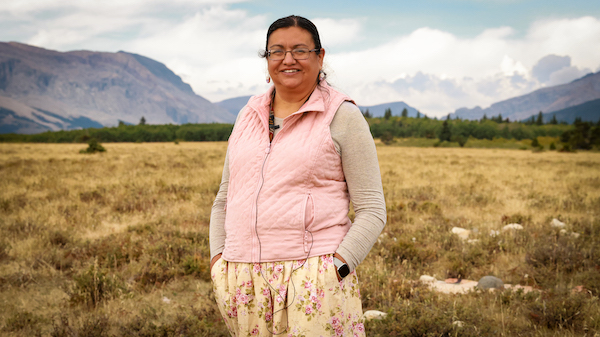
Helen Augare Carlson and Dylan DesRosier are leaders, community builders, and proud members of the Blackfeet Nation. Helen, the Chair of the Piikani Studies Division at Blackfeet Community College, has dedicated over two decades to education, cultural preservation, and building pathways for future generations. Dylan, the Blackfeet Program Manager with The Nature Conservancy, brings a wealth of experience in conservation work rooted in respect for Indigenous knowledge and long-term community collaboration. In addition to their official roles, they both wear many hats when it comes to serving their communities—mentoring youth, engaging in policy discussions, telling stories, and working on grassroots initiatives that strengthen cultural and environmental resilience.
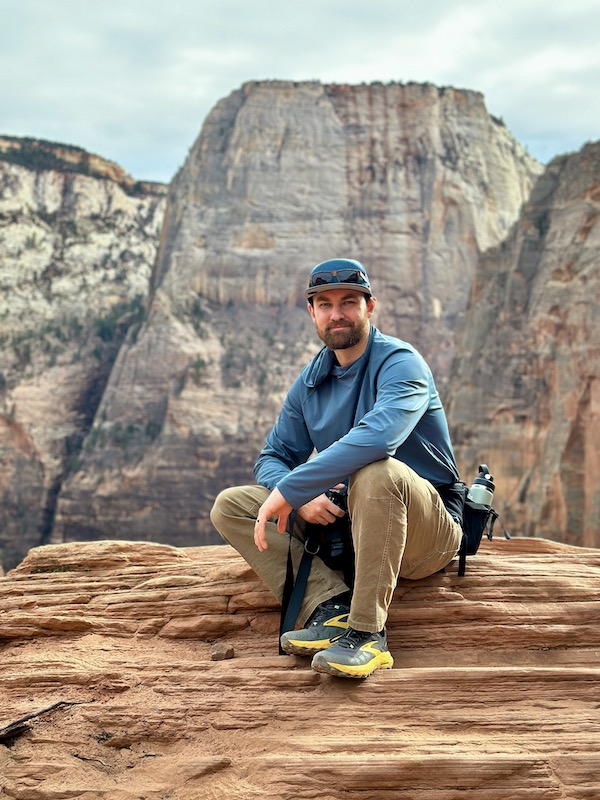
In this episode, we explore the profound relationships between land, language, and stewardship. Helen shares the moving story behind her Blackfoot name, Dylan reflects on his time working in Glacier National Park and how it shaped his conservation approach, and we dig into the groundbreaking Chief Mountain Initiative—an effort that weaves together conservation, education, and cultural revitalization.
We also discuss the evolving role of conservation organizations, TNC's comprehensive approach to supporting Blackfeet initiatives, the importance of holistic thinking, and why Indigenous leadership is crucial for the future of land stewardship. As usual, we wrap up with some incredible book recommendations that will deepen your understanding of these topics long after the episode ends.
This conversation is rich with wisdom, humor, and insight, and Helen and Dylan make quite a team, bringing their unique expertise and shared passion for their community to this important discussion. I’m so excited for you to hear it. So let’s dive in—here’s my conversation with Helen Augare Carlson and Dylan DesRosier.
Header photo by Dylan DesRosier, headshots courtesy of Dylan and Helen
LISTEN & DOWNLOAD:
Apple Podcasts
Spotify
…or wherever you get your podcasts!
EPISODE PARTNER:

This episode is brought to you in partnership with the Colorado chapter of The Nature Conservancy and TNC chapters throughout the Western United States. Guided by science and grounded by decades of collaborative partnerships, The Nature Conservancy has a long-standing legacy of achieving lasting results to create a world where nature and people thrive.
During the last week of every month throughout 2025, Mountain & Prairie will be delving into conversations with a wide range of The Nature Conservancy’s leaders, partners, collaborators, and stakeholders, highlighting the myriad of conservation challenges, opportunities, and solutions here in the American West and beyond. You can access all of the episodes here.
To learn more about The Nature Conservancy’s impactful work in the West and around the world, visit www.nature.org
RESOURCES:
Topics Discussed:
- 3:03 - Introductions, starting with Helen
- 7:18 - Helen’s Blackfeet names
- 12:18 - When to use “Blackfoot” or “Blackfeet”
- 13:33 - Dylan’s bio and Blackfeet name
- 17:48 - Community health and education
- 23:03 - Why Dylan wanted to plug into TNC
- 26:48 - Blackfeet connection to land
- 30:33 - Helen’s thoughts on TNC
- 36:03 - Face-to-face trust
- 38:48 - Chief Mountain initiative
- 45:48 - Measuring progress on a huge timeframe
- 50:48 - Progress in Helen’s view
- 56:03 - Like biodiversity, human diversity is important, too
- 1:01:03 - What Dylan’s learned from Helen
- 1:03:03 - And what Helen’s learned from Dylan
- 1:06:33 - Book recs
- 1:12:33 - Parting words
- 1:15:03 - A Land Back addendum
Information Referenced:
- Helen Augare Carlson / Magpie Woman
- Dylan DesRosier / Bear Star
- TNC Montana’s Annual Report (page 12)
- Chief Mountain
- Land Back movements
- The One-Straw Revolution
- Dr. Leroy Little Bear on Indigenous knowledge and Western science.
- Igniting the Sparkle: An Indigenous Science Education Model
- Blackfoot Ways of Knowing
- The Serviceberry by Robin Wall Kimmerer, author of Braiding Sweetgrass
Enjoy this episode? Then you might like these too:
- Corissa Busse – Tribal-Led Buffalo Restoration in the American West and Beyond
- Celene Hawkins & Izabella Ruffino – Tribal Partnerships, Indigenous Voices, Cutting-Edge Conservation
- Jesse Smith – A Regenerative Approach to Land and Life
- Chris Pague – Stories, Science, and the Southern High Plains
- Matt Cahill – A Deep Dive into the Sagebrush Sea
- Douglas Brinkley – Exploring the Past to Find Inspiration for the Future
- Rebecca Clarren – “The Cost of Free Land”
- John Vaillant – A Riveting Exploration of Fire
Visit the podcast page for a full list of episodes where you can filter episodes by topic and guests' vocations.

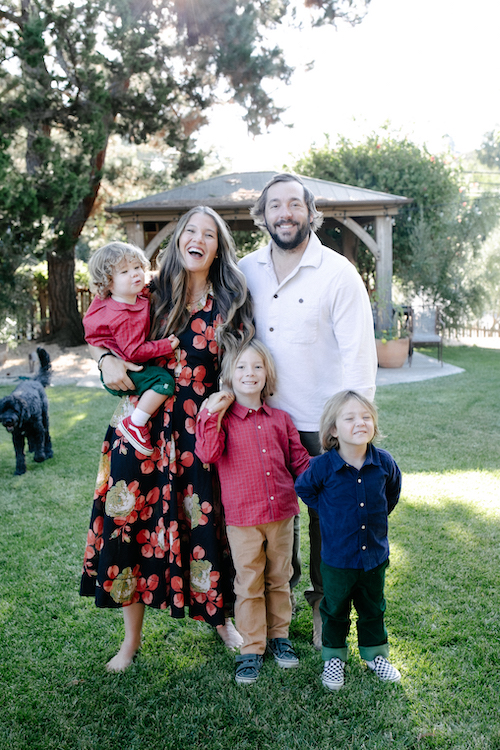
George Hodgin is a former Navy SEAL turned entrepreneur who is revolutionizing the world of medical cannabis research. George is the founder and CEO of Biopharmaceutical Research Company (BRC), one of the only federally legal cannabis research organizations in the United States. His company is leading the charge in developing safe, regulated, and scientifically-backed cannabis-based therapeutics—offering alternatives to opioids and other pharmaceutical treatments.
This is George’s second time on the podcast—our first conversation was almost exactly five years ago, back when his company was in its early stages, the pandemic was just beginning, and he was navigating the uncharted waters of federal cannabis regulations. Since we last spoke, BRC has made huge strides—partnering with leading medical institutions, earning FDA orphan drug designation, and paving the way for legal, cannabis-based medications.
If you haven’t already, I highly recommend going back and listening to that first episode, where George shares the full story of his fascinating career trajectory—his time as a Navy SEAL, his MBA at Stanford, and his undergraduate experience as a Morehead-Cain Scholar at the University of North Carolina. That conversation is a great companion to this one and provides even more insight into his unique journey.
In this episode, George and I dive into the evolution of BRC, the shifting cultural & political landscape around cannabis, and what it’s like balancing an entrepreneurial mindset with the slow, methodical world of federal drug approval. We also talk leadership, risk assessment in business and combat, humility vs arrogance, and what it's been like to watch his wife, bestselling author & culinary powerhouse Caroline Chambers, build an incredible career of her own. Be sure to check out the episode notes for a full list of everything we discussed, plus links to resources, books, and more.
George is one of the most insightful, driven, and humble people I know, and I always learn a ton from our conversations. Whether you're interested in business, science, leadership, or just a great story of perseverance and innovation, this episode has something for you.
Hope you enjoy!
---
Photos courtesy of George Hodgin and Caroline Chambers
LISTEN & DOWNLOAD:
Apple Podcasts
Spotify
... or wherever you get your podcasts!
—
RESOURCES:
Topics Discussed:
- 2:36 – Reconnecting with George
- 3:51 – George’s BRC elevator pitch
- 6:51 – City of Hope collaboration
- 10:36 – Choosing partnerships and plans
- 13:36 – What makes a successful idea
- 16:06 – Company mechanics
- 18:21 – Energy balance
- 22:06 – Cannabis in the name
- 23:51 – Cannabis sentiments culturally shifting
- 26:36 – But not legally
- 28:06 – Regulations and competition
- 32:21 – Different schedules of drugs
- 36:36 – Betting on the idea versus the team
- 41:21 – Risk framework
- 46:51 – When do you stop planning?
- 51:06 – Favorite failure
- 55:36 – Not seeing the forest for the trees
- 59:06 – Does cockiness play a role?
- 1:02:06 – George’s wife’s cooking journey
- 1:07:06 – General Mattis’ influence
- 1:08:51 – Book recs
- 1:11:06 – Parting words, asking Ed a question
Information Referenced:
- George Hodgin
- Biopharmaceutical Research Company
- George’s first M&P episode
- BRC’s partnership with City of Hope to address pain management in breast cancer patients.
- Drug schedules per the DEA
- Bill O'Reilly: "We'll do it live!!"
- Caroline Chambers
- What To Cook When You Don’t Feel Like Cooking by Caroline Chambers
- General Jim Mattis’ memoir, Call Sign Chaos. George’s son, Mattis, is named after General Mattis.
- Hampton Sides’ Blood and Thunder.
- King Rat by James Clavell, same author of the stories that inspired the Shogun series.
- The Splendid and the Vile, not just another Churchill book, according to George.
Enjoy this episode? Then you might like these too:
- Jason Gardner – A Life of Purpose & Service
- Iris Gardner – Living with Intention
- Rick Ridgeway – Purpose-Driven Adventurer
- Walt Morgan – Helping People Discover Their Best Selves
- Nick Offerman – Empathy, Nuance, & Good Hard Work
- Hampton Sides Returns: The Wild and Tragic Tale of Captain James Cook
- Joe Schobert – From NFL Pro Bowler to Western Conservation Advocate
- Hal Herring Returns – Live at the Old Salt Festival
Visit the podcast page for a full, searchable list of episodes

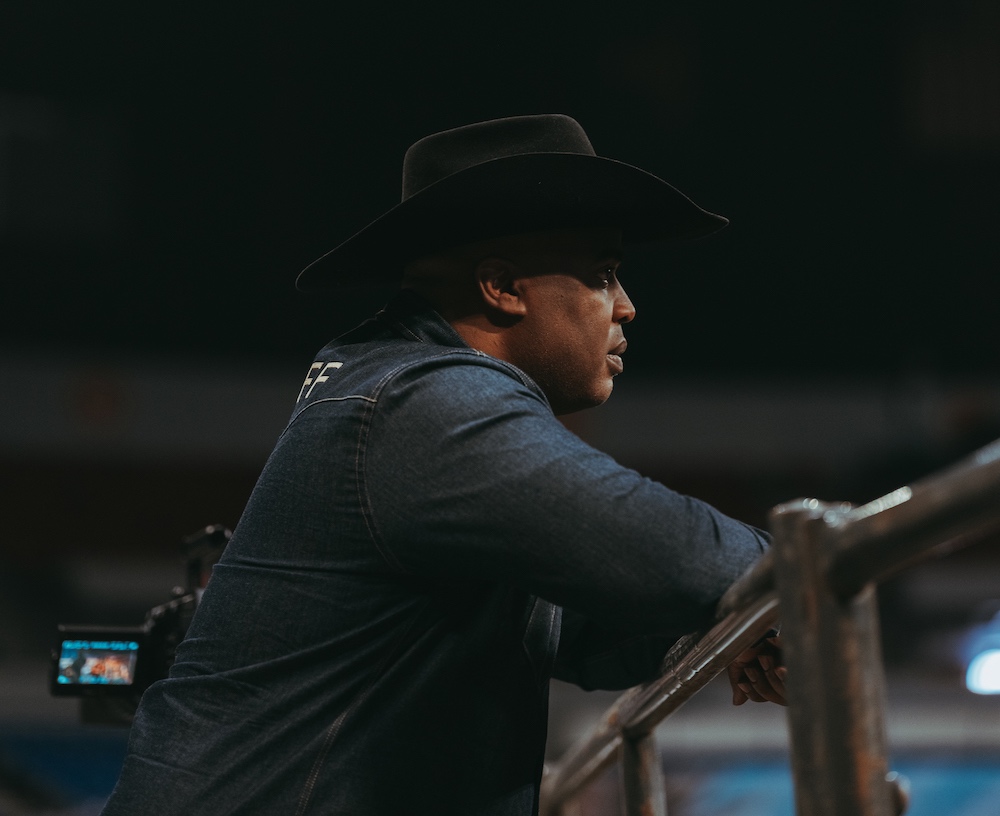
Ivan McClellan is a photographer, writer, and storyteller who’s shining a light on Black cowboy culture in a way that’s never been done before. When we first talked back in 2020, Ivan was in the early stages of immersing himself in this world—capturing rodeos, meeting cowboys, and telling stories that had largely been overlooked. Now, nearly five years later, he’s once again forging his own path by creating Eight Seconds Rodeo, an electrifying, high-stakes event that’s bringing some of the best cowboys and cowgirls in the country together to compete for serious prize money, all while celebrating a rich and important legacy.
In this episode, Ivan shares the inspiring story of how Eight Seconds Rodeo came to life—from a passion project sparked by tragedy to a must-see event that’s redefining the rodeo world. We dig into the challenges of launching something this big from scratch, the power of storytelling to shift culture, and what it means to build something bigger than yourself. Ivan also talks about his new photography book, his creative process, and how he stays grounded while juggling everything he’s got going on.
If you haven’t already, I’d encourage you to go back to our first podcast conversation, where we discuss Ivan’s early life and upbringing, as well as his journey into professional photography and the world of Black rodeo. It’s super inspiring to see how his career has grown and evolved over the last few years– and also to see how he’s continued to be such a humble, hard-working family man.
Whether you’re a longtime rodeo fan or just love hearing stories about people chasing big, meaningful dreams, this conversation is for you.
As always, you can find links to Ivan’s work, Eight Seconds Rodeo, his book, and our first conversation in the episode notes. And if you’re near Portland or Philadelphia in 2025, do yourself a favor and check out one of his rodeos. You won’t regret it.
Thank you for listening, and I hope you enjoy this conversation with Ivan McClellan!
---
Photos courtesy of Ivan McClellan and Eight Seconds Rodeo
LISTEN & DOWNLOAD:
Apple Podcasts
Spotify
... or wherever you get your podcasts!
—
RESOURCES:
Topics Discussed:
- 3:20 - Checking in with Ivan
- 7:05 - Eight Seconds Rodeo beginnings
- 9:35 - Knowing Ouncie
- 14:35 - The first step and conquering doubt
- 16:05 - Choosing Portland
- 18:35 - Someone to run the rodeo
- 22:50 - Stories of the first rodeo
- 26:50 - Year two
- 29:05 - What’s in store for 2025
- 32:35 - Balancing helping others and being the face
- 38:05 - The driving force
- 39:20 - The story of Ivan’s photography book
- 46:35 - Is a written book in store?
- 48:20 - Wearing a cowboy hat
- 52:35 - For more info on Ivan
Information Referenced:
- Eight Seconds
- Eight Seconds Rodeo
- Ivan on Instagram
- Ivan’s first appearance on M&P
- A Long list of incredible press on Ivan and Eight Seconds
- Ivan’s tribute to Ouncie on Instagram
- Ivan writing about Ouncie on Eight Seconds
- Gordon Parks, photographer
- Shaft, directed by Gordon Parks
- Learning Tree, Gordon Park’s semi-autobiographical book
- Ivan’s book, 8 Seconds: Black Rodeo Culture. This book came out just after Beyonce’s Grammy-winning Cowboy Carter album. Ivan said he benefitted by riding the coattails of the publicity of that album.
- Other Black rodeos, including Bill Pickett Rodeo and Black Rodeo USA
Enjoy this episode? Then you might like these too:
- Joe Schobert – From NFL Pro Bowler to Western Conservation Advocate
- Dr. Alan Townsend – Generosity & Curiosity in the Face of Tragedy
- Logan Maxwell Hagege Returns – On Taking Action & Finding Balance
- Rebecca Clarren – “The Cost of Free Land”
- Nick Offerman – Empathy, Nuance, & Good Hard Work
- Lorelei Cloud – Solving Modern-Day Challenges with Ancient Tribal Wisdom
- Corissa Busse – Tribal-Led Buffalo Restoration in the American West and Beyond
Visit the podcast page for a full, searchable list of episodes

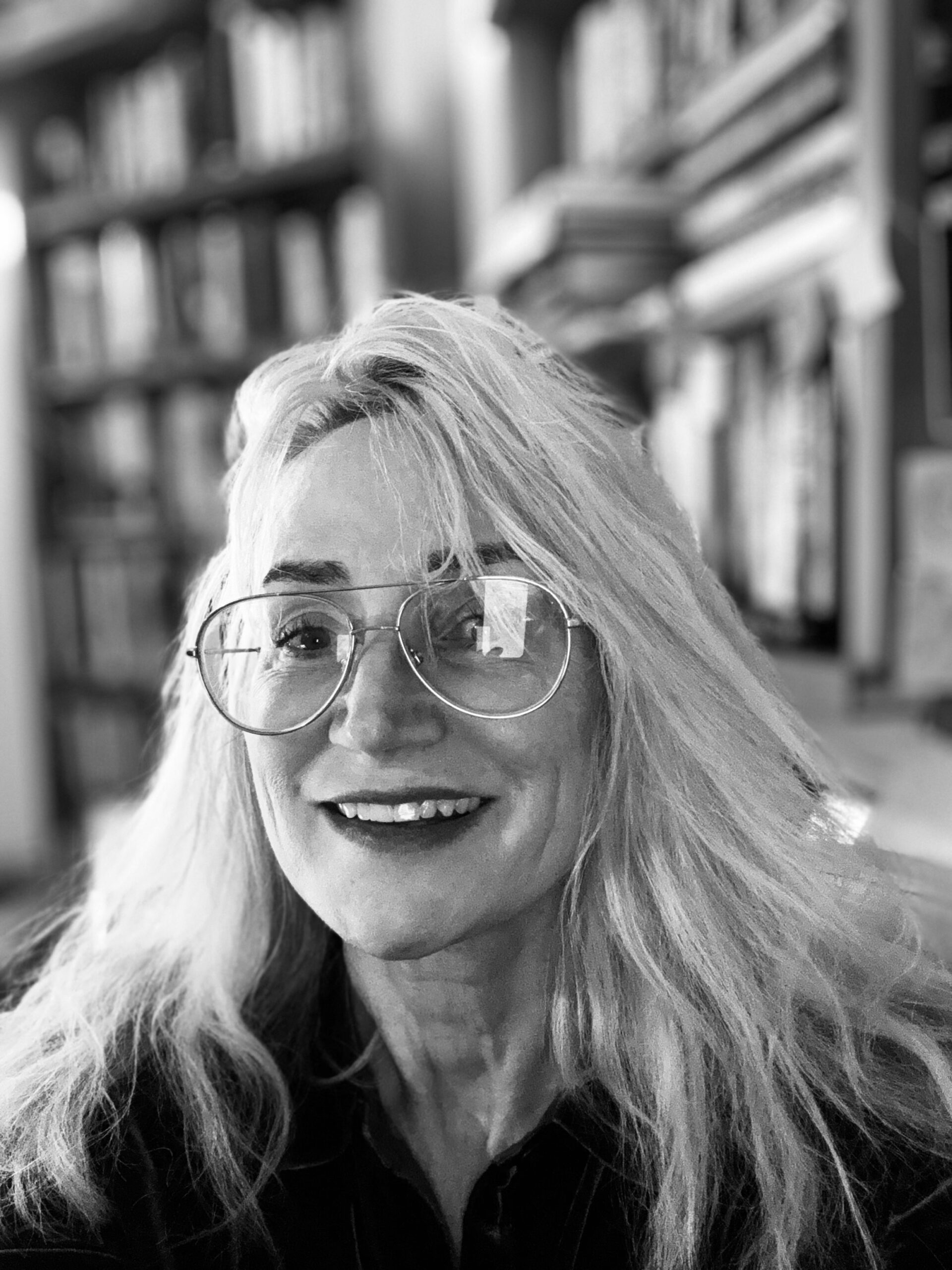
Betsy Gaines Quammen is a Montana-based historian and writer whose work explores the history and myths of the American West, and how those stories have endured and shaped life in the region today. Betsy joined me on the podcast several years ago to discuss her amazing book, American Zion: Cliven Bundy, God, and Public Lands in the West, and since then, she’s published another must-read: True West: Myth and Mending on the Far Side of America. In True West, Betsy meets face-to-face with a wide range of folks here in the West– from militia members to hardcore environmentalists– and seeks to understand why they believe what they do. Combining these conversations with her deep understanding of history, Betsy is able to demonstrate the fascinating complexity and contradictions that define many of the people and issues in today’s West.
We recorded this conversation on stage at the 2024 Old Salt Festival, where Betsy was nice enough to join us for the three-day festival of music, food, and conversation. As you’ll hear me say in the episode, Betsy and her work have played a huge role in my never-ending quest to try and understand this region, and I consider her to be a great friend and mentor. But even if you don’t have any interest in the West’s history or modern-day conflicts, there are big lessons to be learned from Betsy’s approach to her work. She is committed to finding the humanity in everyone– even people she completely disagrees with. Rather than attack them and their ideas, she approaches them with genuine curiosity, really trying to understand what they believe and why. And even when no common ideological ground can be found, there is still mutual respect. And I think most people will agree that we need more of these types of respectful interactions these days.
In this conversation, we talk a bit about Betsy’s background and why she is so fascinated with understanding myths and the West. We talk about her commitment to having deep conversations with people across political and socio-economic spectrums, and she describes one of the unlikely friendships she built with a man whose views on politics, public lands, and the environment could not be further from her own. We discuss the importance of getting off the internet and having face-to-face conversations, how real estate development is changing the ecology and economics of the West, her thoughts on the future, and more. We also took questions from the audience, which was a lot of fun.
Again, I can’t thank Betsy enough for joining me onstage for this conversation, but more importantly, for the wisdom she has shared with me over the years. If you haven’t read True West, I encourage you to pick up a copy as soon as you can, and I’d also encourage you to listen to our first conversation, where Betsy talks a lot about her life and career journey. And tickets for the 2025 Old Salt Festival are on sale now, so if you’d like to experience conversations like this in person– plus music, food, Western makers, and more– follow the link in the episode notes to grab your tickets.
Enjoy!
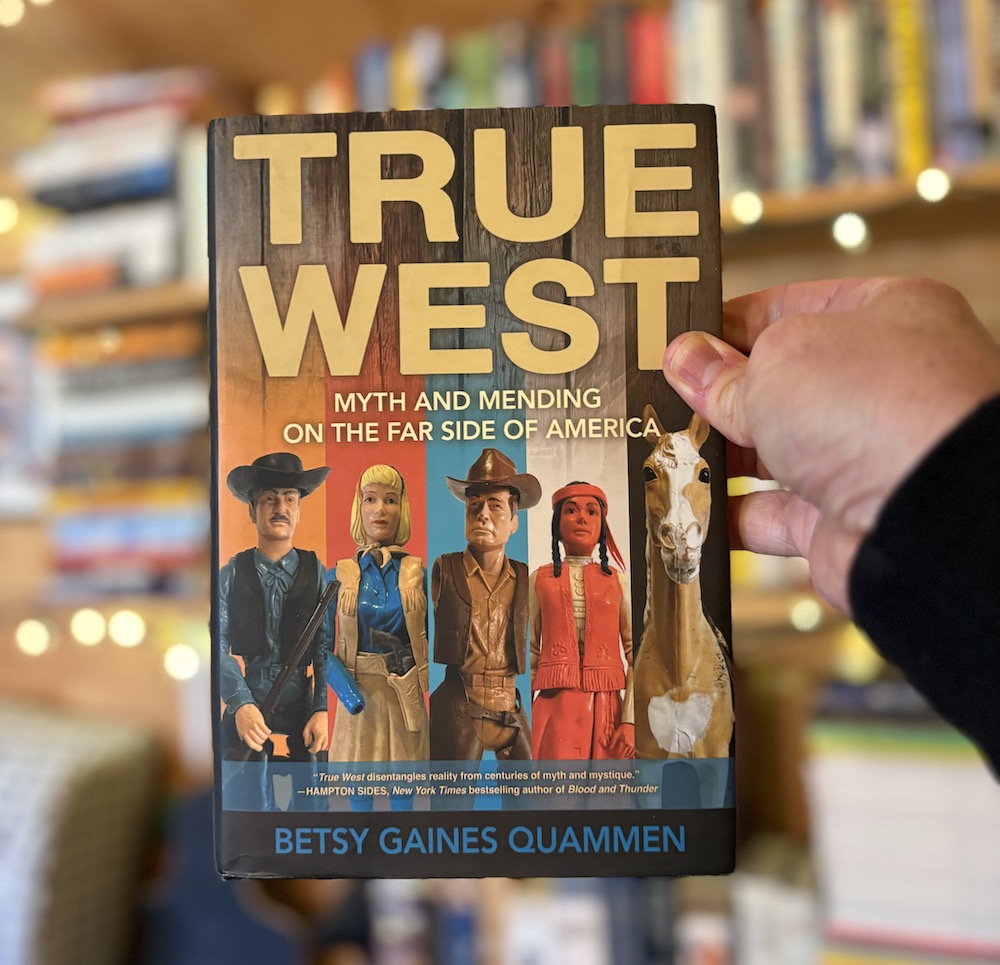
---
Header photo by Ed, headshot courtesy of Betsy Gaines Quammen
LISTEN & DOWNLOAD:
Apple Podcasts
Spotify
... or wherever you get your podcasts!
—
RESOURCES:
Topics Discussed:
- 4:15 - Introducing Betsy at Old Salt
- 7:45 - Why the West?
- 10:15 - Discussing myths
- 14:15 - Betsy talks across the aisle
- 17:30 - Betsy’s relationship with Lance
- 19:45 - Lance’s email
- 23:15 - Creating conversations outside the internet
- 26:00 - Real estate development in the West
- 30:00 - Covid as a catalyst
- 34:30 - Predicting the future
- 35:45 - Q&A
- 39:15 - Should we trust the government?
- 41:30 - Lance’s takeaways
- 43:30 - A ‘real’ Montanan
- 49:45 - Our energy future
- 53:00 - Parting thoughts
Information Referenced:
- Betsy Gaines Quammen
- Old Salt Festival
- True West by Betsy Gaines Quammen
- American Zion by Betsy Gaines Quammen
- Betsy’s first M&P episode
- Montana Book Company in Helena, Montana
- Stewart Rhoades’ Montana connections, courtesy the Flathead Beacon
- M&P’s conversation with Hal Herring at Old Salt
- Becoming Little Shell by Chris La Tray, Montana’s poet laureate
- An Irritable Métis, Chris La Tray’s Substack
- Chris La Tray on M&P
- Sterling Drake on M&P
- M&P and The Nature Conservancy on the energy transition
Enjoy this episode? Then you might like these too:
- Dr. Sara Dant Returns – “Losing Eden: An Environmental History of the American West”
- Douglas Brinkley – Exploring the Past to Find Inspiration for the Future
- Cole Mannix – Building Community through Land Stewardship and Local Food
- Doug Peacock – 50 Years of Fighting for the Grizzlies
- David James Duncan – Live at the Old Salt Festival
- Hal Herring Returns – Live at the Old Salt Festival
- Jesse Smith – A Regenerative Approach to Land and Life
Visit the podcast page for a full, searchable list of episodes

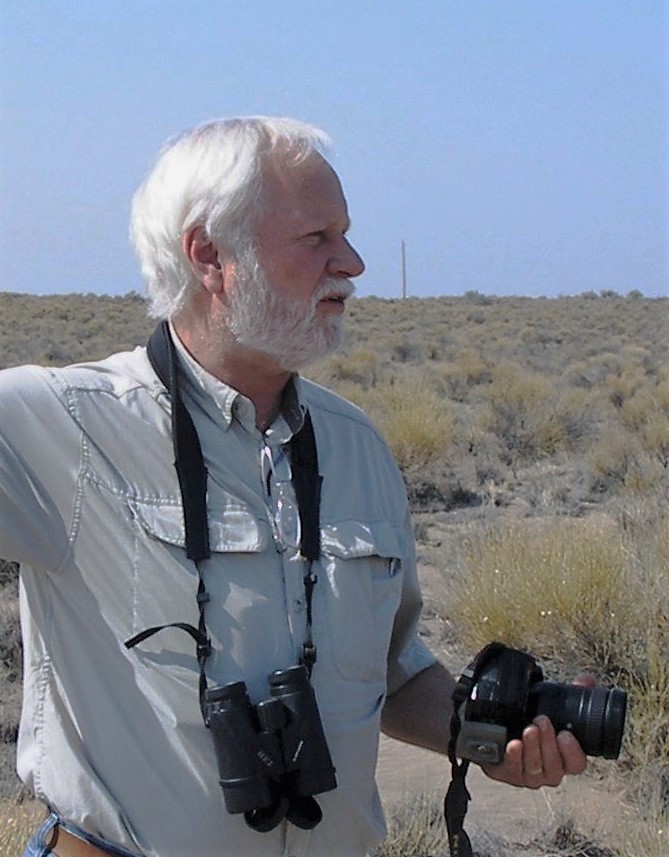
Chris Pague is the Senior Conservation Ecologist at The Nature Conservancy, and he is deeply involved in so many of the topics we discuss here on the podcast– grasslands, bison, endangered species, landscape-scale conservation, and more. For many decades now, Chris has been working on the frontlines of TNC’s science-based conservation efforts, and during his tenure, he’s accumulated a mind-blowing amount of knowledge about everything from the tiniest prairie plants to the plains’ largest mammals. But what makes Chris so special is his ability to translate complex ecology into inspiring, impactful stories– stories that resonate with everyone from the most committed conservationists to people who are just beginning to learn about the West’s wild places.
Chris grew up in Virginia, and for as long as he can remember, he’s been obsessed with the outdoors, wild creatures, and all varieties of plants. He eventually moved West to take a job in Colorado with the Nature Conservancy, where he’s been an invaluable member of the team ever since. I personally credit Chris for helping me in my own journey to understand the importance of grasslands and connected landscapes across the Southern High Plains, thanks to a presentation Chris gave at an event I was attending over a decade ago. I know there are countless other folks just like me who credit Chris with helping them to better understand and appreciate pressing conservation issues— and more importantly, to take action. Between his on-the-ground ecology work and his gift of storytelling, it’s difficult to fully wrap my head around the scale of the positive impact Chris has had over his career.
So, I was long overdue in having Chris join me for a podcast conversation. We could’ve talked for many hours, but in this chat, we still managed to cover a lot, including: Chris’s upbringing in Virginia and some of our shared favorite Virginia landscapes; his decision to move to Colorado; the decades-long shift in thinking around grasslands conservation; the importance of storytelling to communicate critical science, TNC’s Southern High Plains Initiative; optimism and the wisdom of Ted Lasso; partnerships and relationships; favorite books, and much more.
A huge thanks to Chris for this wonderful conversation, but more importantly, thanks to Chris for his many decades of inspiring work. Enjoy.
---
Header photo courtesy of TNC-- header by Terri Schulz
LISTEN & DOWNLOAD:
Apple Podcasts
Spotify
…or wherever you get your podcasts!
EPISODE PARTNER:

This episode is brought to you in partnership with the Colorado chapter of The Nature Conservancy and TNC chapters throughout the Western United States. Guided by science and grounded by decades of collaborative partnerships, The Nature Conservancy has a long-standing legacy of achieving lasting results to create a world where nature and people thrive.
During the last week of every month throughout 2025, Mountain & Prairie will be delving into conversations with a wide range of The Nature Conservancy’s leaders, partners, collaborators, and stakeholders, highlighting the myriad of conservation challenges, opportunities, and solutions here in the American West and beyond. You can access all of the episodes here.
To learn more about The Nature Conservancy’s impactful work in the West and around the world, visit www.nature.org
RESOURCES:
Topics Discussed:
- 3:45 - Introducing Chris
- 8:30 - Chris’s favorite Virginia spots
- 9:45 - Making the decision to work for TNC
- 12:45 - Grassland evolution
- 17:30 - Why are grasslands important?
- 21:15 - Science and storytelling
- 24:15 - 50 years of land conservation history
- 28:00 - TNC’s Southern High Plains Initiative
- 35:15 - Protecting land
- 42:30 - Keep or sell?
- 47:45 - Building relationships
- 52:45 - Ted Lasso and optimism
- 56:45 - Increase in partnerships
- 58:45 - What Chris is excited about
- 1:03:45 - Book recs
- 1:06:45 - Parting words
Information Referenced:
- Chris Pague
- Southern High Plains Initiative
- Short Film: Connecting the Big Wide Open
- Matt Moorhead & Galen Guerrero-Murphy episode
- The Birds of America. That book and Chris’s dad’s binoculars got him into birds and the outdoors.
- RC Cola, one of Chris’s early jobs, manufactured by Dr. Pepper.
- Grayson Highlands State Park in Virginia, located near the two highest peaks in the state.
- Denver Museum of Nature & Science
- Ted Lasso, the eternal optimist
- Chris says an increase in conservation partnerships gives him a reason for hope. Some of those partnerships include those with The Conservation Fund, The Wilderness Society, Ducks Unlimited and Great Outdoors Colorado.
- The Big Empty
- Leaving Space for Nature
- Habitats of the World
- The Book of Hope by Jane Goodall
Enjoy this episode? Then you might like these too:
- Jesse Smith – A Regenerative Approach to Land and Life
- Dr. Katharine Hayhoe – Effecting Change Through Authentic Conversation
- The Partnership of Rangeland Trusts – 20 Years of Cooperation, Collaboration, and Conservation
- Pete McBride Returns – Exploring & Documenting His Backyard River
- Sandy Colhoun – Building Leaders Through Outdoor Education
- 50 Years of the Endangered Species Act – Live in Austin
- Corissa Busse – Tribal-Led Buffalo Restoration in the American West and Beyond
Visit the podcast page for a full list of episodes where you can filter episodes by topic and guests' vocations.

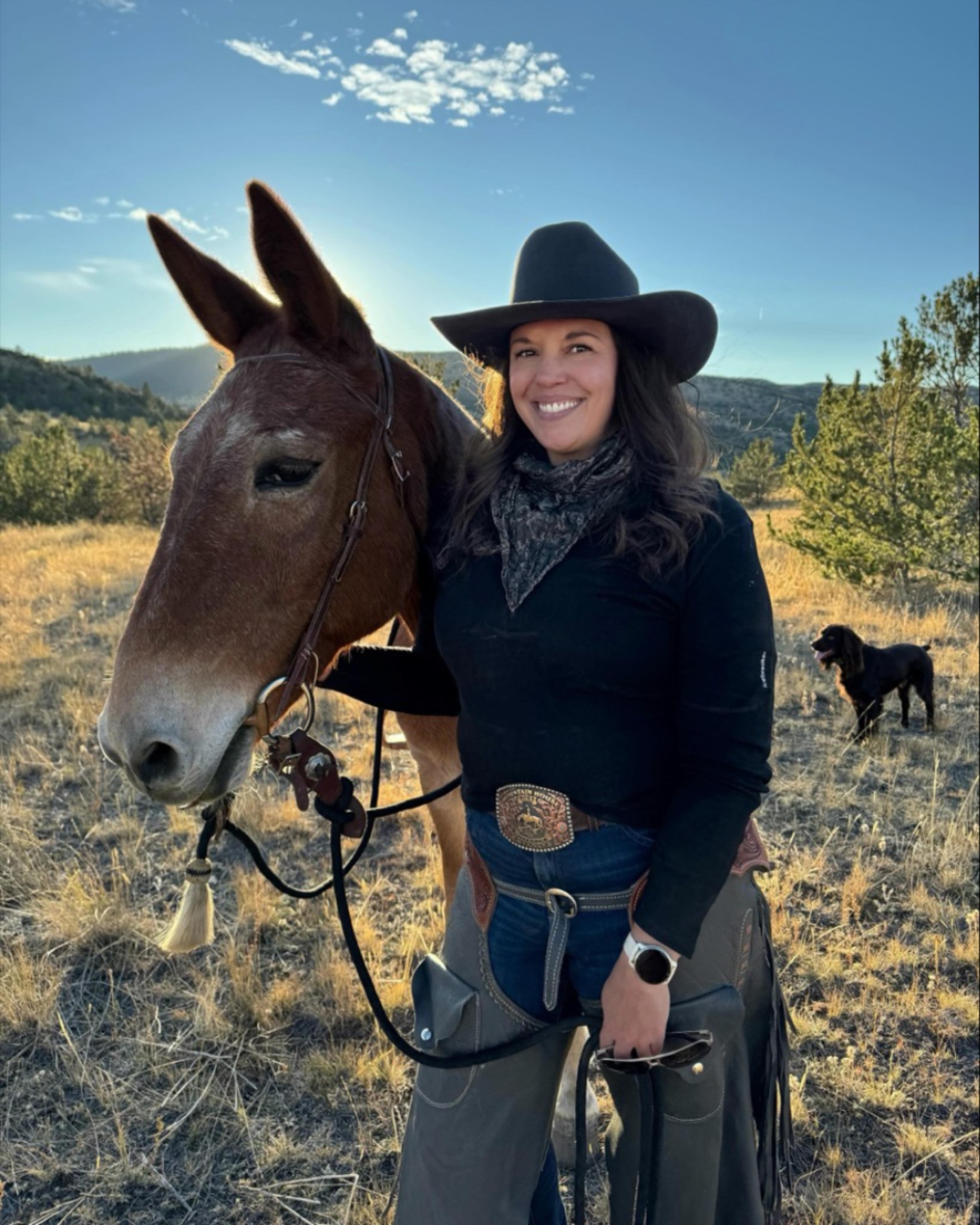
Photo by Lindsey Mulcare
Nicole Qualtieri is an outdoor writer and editor, a conservationist, and a committed outdoorswoman. Over the past decade, she’s worked with some of the most notable brands in the outdoor industry, including MeatEater, Backcountry Hunters and Anglers, and GearJunkie, and she has bylines with many well-known outdoor publications, such as Outside, Modern Huntsman, and Backcountry Journal. But despite being plugged in with many of the best names in the outdoor business, she and a few creative friends decided to go out on a limb and start their own outdoor publication– one that focuses on substance over clickbait, depth and vulnerability over the silly quest for virality and search engine optimization.
The name of the project is The Westrn, and it combines the best parts of online writing and journalism with a printed, hold-it-in-your-hands newspaper that ships to subscribers four times per year. As you’ll hear Nicole describe, the topics covered by The Westrn’s include hunting, conservation, and a wide range of outdoor adventure. But the deeper point of it all is to build a tight-knit community of engaged outdoor enthusiasts of all stripes, who appreciate the value of nuanced writing, thinking, and publishing. As many legacy outdoor media brands have become controlled by private equity and now focus on scalability over creativity and quality, the role of people like Nicole and her partners at the Westrn are all the more important— they are taking a real risk to make the Westrn a reality, and I greatly admire their vision and commitment to action.
Nicole and I connected online– she was at her home in Anaconda, Montana and I was here in Colorado Springs– and we had an enlightening conversation filled with lots of laughs about her fascinating life, career, and the creation of The Westrn. We discussed her upbringing in what she describes as a high-control religious cult and how hunting and the outdoors were her way of working through some of that childhood trauma. We discussed her non-traditional career path, which included a stint as a stand-up comic, and how she worked her way into the outdoor industry. We discuss the importance of hard work, preparation, and grinding, and how self-confidence is generated from those activities. We discuss the current state of the outdoor media industry, the financial challenges of making it as a freelancer, her writing process, contentment vs happiness, favorite books, and of course, her goals for The Westrn.
Nicole was also kind enough to offer some discount codes for M&P listeners:
20% Discount off the Annual Subscription
—Link for M+P Listeners will auto-populate discount: https://www.thewestrn.com/mtnprairie
20% Off Pre-Order Single Issues:
—Use link to use code: https://thewestrnstore.com/discount/MTNPRAIRIE?redirect=%2Fproducts%2Fthe-westrn-individual-issue
—Or use code MTNPRAIRIE
A huge thanks to Nicole for the conversation, and thank you for listening. Enjoy!
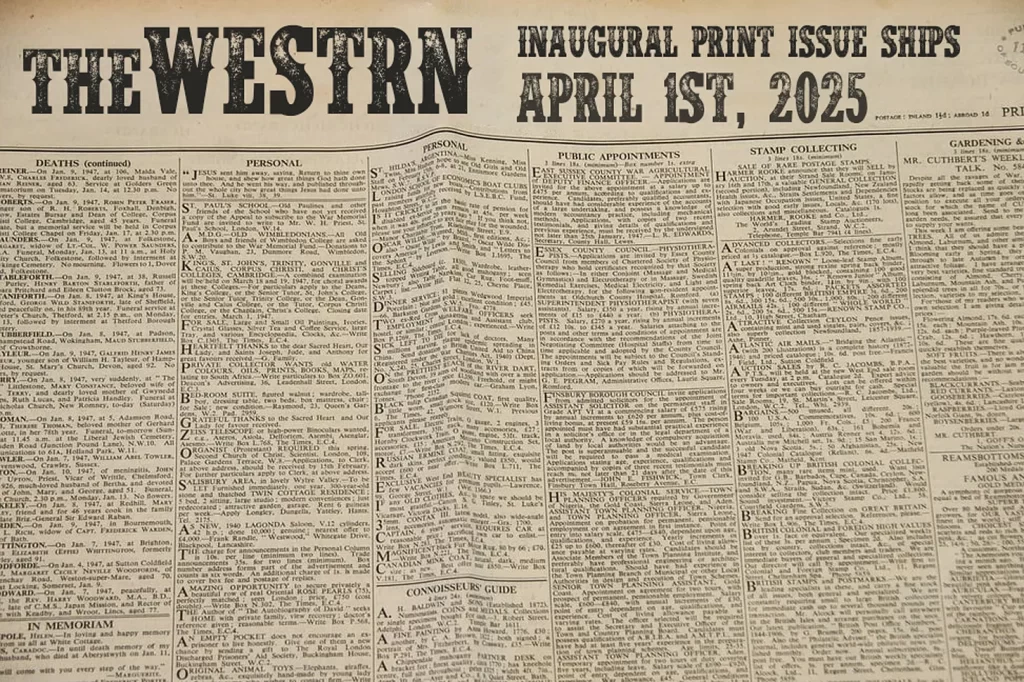
---
Photos courtesy of Nicole Qualtieri: Header by Ty Grethen of Weatherby; Embedded portrait by Lindsey Mulcare
LISTEN & DOWNLOAD:
Apple Podcasts
Spotify
... or wherever you get your podcasts!
—
RESOURCES:
Topics Discussed:
- 4:30 - Nicole and Ed’s first convo (shared Roadhouse appreciation)
- 6:15 - Nicole’s background
- 8:15 - How writing’s been a part of Nicole’s life
- 13:15 - Getting out West
- 16:30 - College degrees
- 19:15 - On writing On Killing Animals
- 21:00 - The grind and the craft
- 28:00 - Taking the pain
- 30:15 - Outside’s rejection of On Killing Animals
- 34:45 - The corporatization of outdoor media
- 44:30 - The Westrn
- 54:30 - Taking a good idea and running with it
- 59:45 - Etymology of happy
- 1:02:30 - Nicole’s book recs
- 1:07:00 - Parting words
Information Referenced:
- Nicole Qualtieri
- The Westrn
- The Westrn’s Newspaper
- On Killing Animals, the first story published by The Westrn, by Nicole
- How to Know if You're in a Cult with Tia Levings: Glennon Doyle, Abby Wombach and Amanda Doyle’s podcast with Tia Levvings
- The Best of Outside: The First 20 Years
- Gear Junkie
- MeatEater
- The Brass Check by Upton Sinclar, journalism and corruption
- How to get the Westrn in print
- The Surfer’s Journal and Ed’s interview with Scott Hulet
- Adventure Journal
- Definition of “happy”
- If you want to be an outdoor writer, read: A Rough Guide to the Heart and A Little More About Me by Pam Houston; H is for Hawk by Helen Macdonald
- If you’re interested in conservation, read: Louis Warren’s The Hunter’s GameIf you want poems, read: Returning to Earth, Jim Harrison; Mary Oliver’s Devotions; Nikki Giovanni’s Bicycles; and not an Ode to the Black Panther, but Pablo Neruda’s Ode to an Onion, as a substitute.
Enjoy this episode? Then you might like these too:
- Kristine Tompkins – Nothing to Lose
- Anna Borgman – Obsession, Curiosity, and Purpose-Driven Work
- Corissa Busse – Tribal-Led Buffalo Restoration in the American West and Beyond
- Kami Bakken – How to Build a Life and Career in the West’s Wide-Open Spaces
- Nick Offerman – Empathy, Nuance, & Good Hard Work
- Hal Herring Returns – Live at the Old Salt Festival
- Heidi Redd & Sue Bellagamba – Tales from the Dugout Ranch
- Kathie Sever – Chainstitching, Craftsmanship, and Cosmic Western Wear
Visit the podcast page for a full, searchable list of episodes

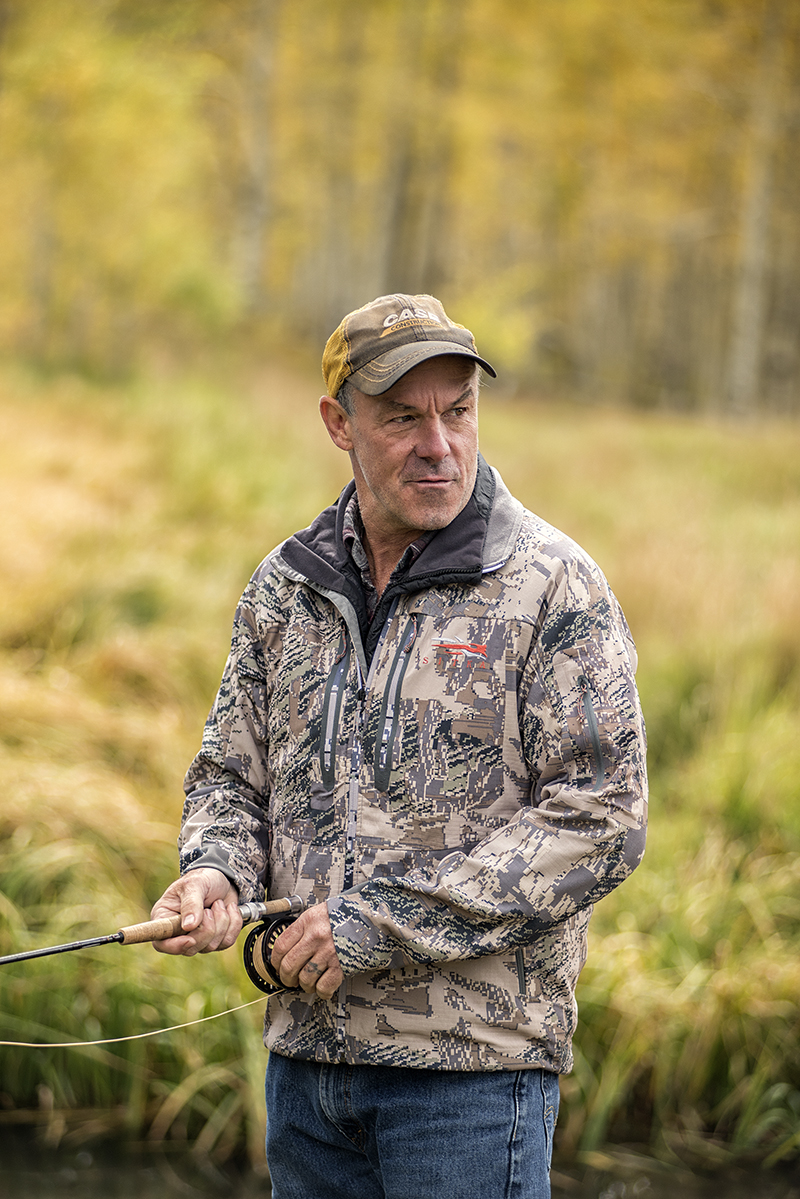
(photo: via BHA by by Tim Peterson)
Hal Herring is an award-winning outdoor journalist, fierce public lands advocate, and thoughtful, action-oriented conservationist. He’s also an accomplished podcaster and host of Backcountry Hunters and Anglers’ Podcast & Blast with Hal Herring. If you’re a longtime listener of Mountain & Prairie, you may remember my first episode with Hal back in December of 2019– pre-pandemic, when the world was a much different place. Like me, Hal was born and raised in the south, and also like me, his Southern accent has not faded. But he’s made Montana his home for many decades now and has established himself as one of the most respected voices in conservation here in the American West.
This episode was recorded live and on stage at the 2024 Old Salt Festival on the Mannix Family Ranch in Helmville, Montana. If you’re not familiar with Old Salt, it’s a three-day gathering in Montana’s Blackfoot Valley that combines live Americana music with artists like Sterling Drake and Summer Dean, wood-fired cooking with chefs including Eduardo Garcia, and a General Store featuring western makers such as Cate Havstad, Jillian Lukiwski, Christy Sing, and many more. The festival also includes a ton of on-stage conversations about land stewardship, conservation, history, literature, and more– and this is one of those conversations.
Most of you are probably already familiar with Hal, but if you’re not, you are in for a treat. Hal brings such energy, humor, and knowledge to everything he does, and he has helped me in my own personal journey to better understand this complex region known as the American West. In this conversation, we covered a lot, including: Hal’s journey from Alabama to Montana, his thoughts on the current state of family ranching and public lands, optimism vs pessimism, and who he admires in the conservation space. We also discuss his forthcoming book on public lands, an idea he is working on for a new podcast, and we take a number of questions from the audience.
I know you’ll learn a lot from this episode– I consider Hal a great teacher and leader, and it’s always an honor to spend time with him. Tickets for the 2025 Old Salt Festival are on sale now, so follow this link to learn more and secure your spot at what will surely be another amazing weekend with amazing people.
Thanks to Hal for the conversation, to the Mannix Family for opening up their ranch for this festival and to you for listening!
---
Header photo courtesy of Old Salt, photo of Hal courtesy of BHA and by Tim Peterson
LISTEN & DOWNLOAD:
Apple Podcasts
Spotify
... or wherever you get your podcasts!
—
RESOURCES:
Topics Discussed:
- 3:30 - Ed introducing Hal at Old Salt Festival
- 4:45 - How Hal ended up in Montana
- 7:15 - Hal’s thoughts on the consolidation, absorption of family ranches
- 9:30 - Threat to public lands
- 11:15 - Hal’s “ah ha” moments as he’s researching his new book
- 12:45 - Hal’s book recs
- 15:00 - Finding common ground
- 18:15 - Keeping the energy going
- 19:15 - Hal’s new podcast project
- 23:45 - What Hal views as current threats to public lands (1872 mining law)
- 26:00 - Optimist or pessimist?
- 29:15 - Who’s taking action?
- 31:45 - Start of Q&A, Hal expanding on new podcast
- 34:00 - Broadening the audience
- 36:00 - What’s Hal doing beyond podcasting to trigger improvement?
- 37:15 - Ideas into action
- 39:00 - Project 2025
- 42:15 - Getting people’s attention without scaring them
- 44:00 - Future of journalism
- 46:00 - Montana Senate race
Information Referenced:
- Hal Herring
- Old Salt Festival
- Hal’s first M&P appearance
- Annick Smith and William Kittridge’s The Last Best Place. Annick was at a writers’ workshop with Hal in 1988.
- 1988 fires in Montana, during which about 36% of Yellowstone National Park burned.
- Homestead Act, during which 270 million acres of U.S. land was transitioned from public to private land in the Lincoln Administration to encourage westward expansion.
- Peter Kropotkin, Mikhail Bakunin, in Hal’s Russian anarchists phase.
- The Wilderness Warrior, Douglas Brinkley. In Hal’s FDR phase.
- Betsy Gaines Quammen’s True West
- Douglas Brinkley’s Silent Spring Revolution
- Silent Spring, touchstone of the environmental movement in the 1970s
- Nate Schweber’s This America of Ours
- Hal’s Backcountry Hunters and Anglers podcast
- What do you really believe in? Hal discusses on Hunt Talk Radio’s podcast.
- The Road, Cormac McCarthy
- Life of Pi
- 1970s Toxic Substances Control Act
- Michael Lewis’s The Fifth Risk
- Outdoor Afro
- Weeds of the West
Enjoy this episode? Then you might like these too:
- David James Duncan – Live at the Old Salt Festival
- Douglas Brinkley – Exploring the Past to Find Inspiration for the Future
- Nate Schweber – A Forgotten Chapter of American Conservation
- Anna Borgman – Obsession, Curiosity, and Purpose-Driven Work
- Nick Offerman – Empathy, Nuance, & Good Hard Work
- Corissa Busse – Tribal-Led Buffalo Restoration in the American West and Beyond
- John Vaillant – A Riveting Exploration of Fire
- Sterling Drake – Roots Music, Ranching, and Giving Back
- Mark Kenyon – A Passion for Public Lands
- Kami Bakken – How to Build a Life and Career in the West’s Wide-Open Spaces
Visit the podcast page for a full, searchable list of episodes

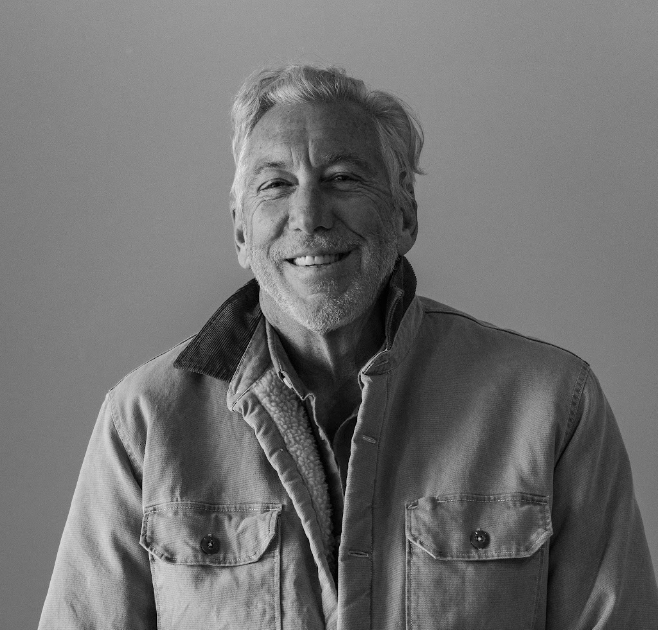
Scott Hulet is a legendary writer, editor, and current Creative Director at The Surfer’s Journal. He also has a new book titled Flow Violento: A Scott Hulet Omnibus, which is a compilation of more than thirty years of his writing about surfing, fishing, travel, food, music, and more. If you subscribe to my book recommendations email, then you’ll already know how much I loved the book– Scott brings to life the cultures, waves, and landscapes of Latin America using his unique blend of insights, humor, and perfectly crafted prose. If you’re a fan of travelogues, adventure tales, and cultural immersion, I know you’ll enjoy Flow Violento.
Scott was born and raised in southern California, and he’s been writing for longer than he can even remember. Skating and surfing entered his life very early, as did travel to Mexico for surf trips. Through a deep commitment to the craft of writing and surfing, he’s been able to build a successful career that combines both. But for all his success, there have also been some speedbumps along the way, including a string of health scares during his fifties that culminated with a very serious stroke. But after a ton of hard work and help from some inspiring medical professionals, Scott was able to make a full recovery– and refocus his efforts on writing, traveling, and surfing.
I’ve been a huge fan of The Surfer’s Journal and Scott for many, many years, so I was honored that he took the time to chat with me about his life, work, and the new book. I caught him just a few days before he took off to the Colombian Amazon for a fishing and research trip, and we had a fun chat about reading, writing, surfing, traveling, and more. Some of the topics include: his “hunting and gathering” approach to reading; some of his favorite childhood books; his first foundational surfing and traveling experiences; moving to Hawaii after high school; becoming a professional writer; the importance of approaching new cultures with respect; his health scares and lessons learned; his surprising thoughts on social media; rules for travel; and much more.
A big thanks to Scott for the conversation and his decades of important work. And another big thanks to you for listening. Enjoy!
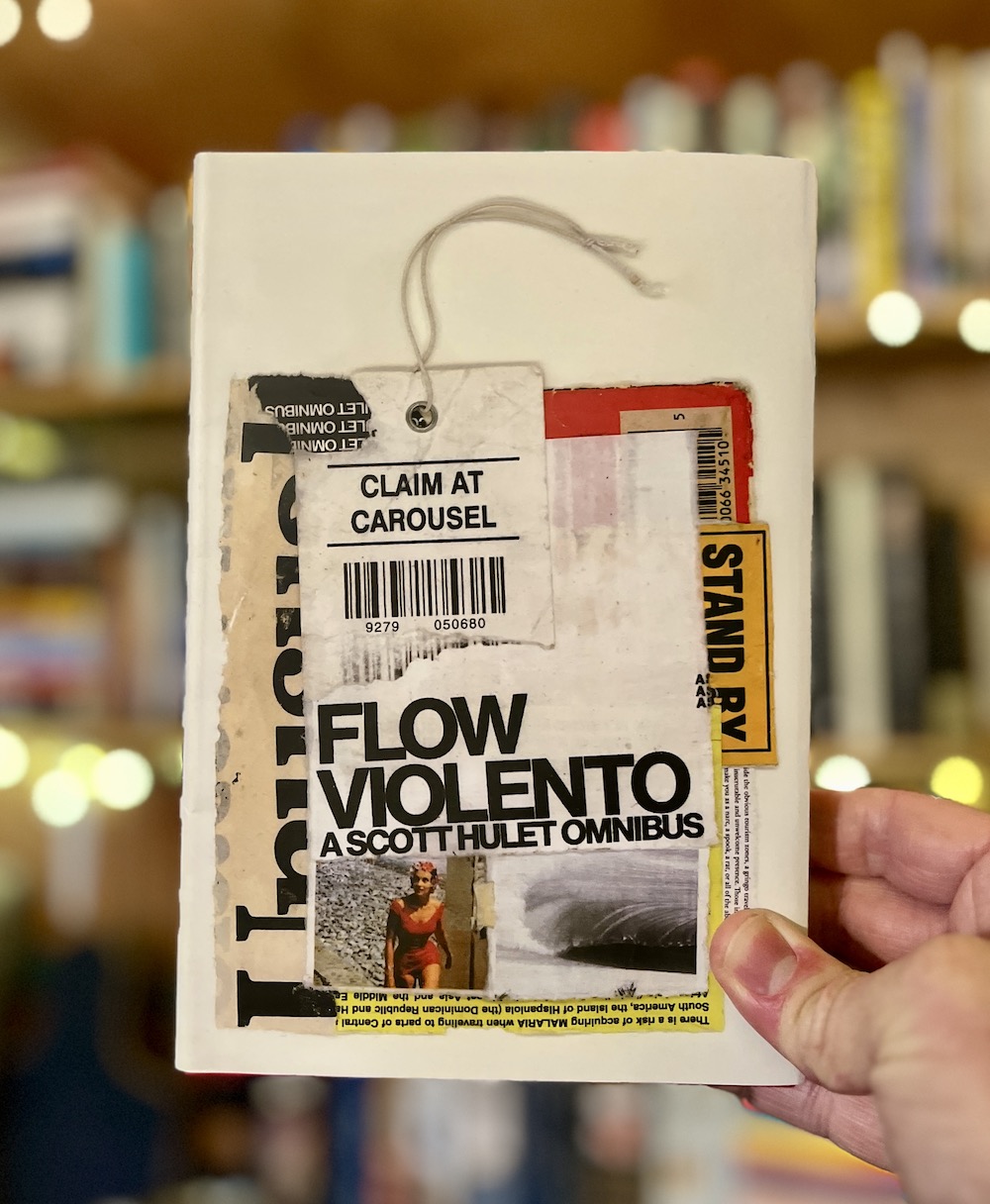
---
Header photo by Ed, headshot by Ben Steele
LISTEN & DOWNLOAD:
Apple Podcasts
Spotify
... or wherever you get your podcasts!
—
RESOURCES:
Topics Discussed:
- 3:30 - Scott’s “hunting and gathering” approach to reading
- 5:30 - Scott’s father’s influence on his reading
- 7:00 - Favorite childhood books
- 8:15 - A brief family history
- 9:35 - Childhood activities in San Diego
- 11:45 - First three foundational surfing experiences
- 16:00 - First adventure in Mexico
- 20:30 - Approaching new cultures and locations with respect… or else
- 24:00 - Heading to university
- 25:45 - Writing: from avocation to vocation
- 28:00 - Mentors
- 34:30 - How TSJ has maintained such a loyal following in the changing world of print media
- 36:45 - A surprisingly positive take on Twitter/X
- 39:45 - The importance of knowing a wide range of people with wide ranges of ideas
- 44:45 - The art of editing
- 47:15 - Courting the Muse
- 49:30 - Lessons learned from several super-intense health trials
- 53:30 - Pre-stroke Scott vs post-stroke Scott
- 55:45 - How to stand out from the crowd as a creative
- 57:15 - There are still unknown, off-the-map places to discover
- 59:00 - Rules for thinking traveler
- 1:01:00 - Important books
- 1:05:00 - Parting words of wisdom
Information Referenced:
- Flow Violento: A Scott Hulet Omnibus
- The Surfer’s Journal
- Scott on the The Surfer’s Journal podcast, Soundings with Jamie Brisick
- World Book
- Harvard Classics
- Robert Service
- My Side of the Mountain by Jean Craighead George
- Hatchet by Gary Paulsen
- The Yearling by Marjorie Kinnan Rawlings
- Jim Thompson
- Autodidact
- Chris Ahrens
- Guy Motil
- Steve Pezman
- Kevin Naughton
- Drew Kampion
- Dale Herd
- Craig Stecyk
- The Belly of Paris by Emile Zola
- Our Man in Havana by Graham Greene and Christopher Hitchens
- Eyelids of Morning; the mingled destinies of crocodiles and men: Being a description of the origins, history, and prospects of Lake Rudolf, its peoples, deserts, rivers, mountains, and weather by Peter Beard
- Escoffier: The Complete Guide to the Art of Modern Cookery
- The Raw and the Cooked: Adventures of a Roving Gourmand by Jim Harrison
- Through the Brazilian Wilderness by Theodore Roosevelt
- The River of Doubt: Theodore Roosevelt's Darkest Journey by Candice Millard
- Rio Orinoco
- Don't Save Anything: Uncollected Essays, Articles, and Profiles by James Salter
Enjoy this episode? Then you might like these too:
- Chris Burkard, Part 2 – Seeking Beauty Through Adventure
- Christian Beamish – West Coast Craftsman
- John Vaillant – A Riveting Exploration of Fire
- Rick Wittenbraker – Humility, Generosity, and Building One-of-a-Kind Brands
- Logan Maxwell Hagege Returns – On Taking Action & Finding Balance
- Pete McBride Returns – Exploring & Documenting His Backyard River
- Nick Offerman – Empathy, Nuance, & Good Hard Work
- Kristine Tompkins – Nothing to Lose
Visit the podcast page for a full, searchable list of episodes

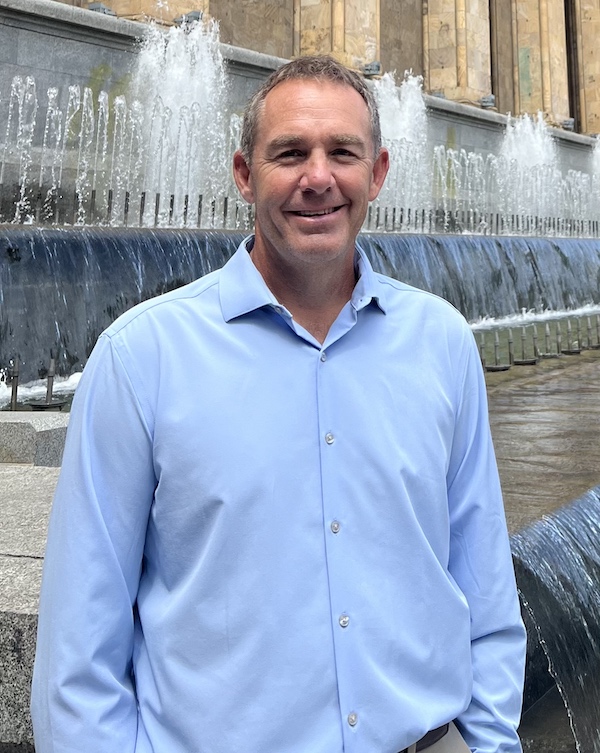
Rusty Bell is the Director of Gillette College’s Office of Economic Transformation, and Justin Loyka is the Wyoming Energy Program Director at the Nature Conservancy. Rusty and Justin are working together to find sustainable, economically viable solutions to the energy transition that is currently taking place in and around Gillette, Wyoming. Gillette and Campbell County, Wyoming have long been leaders in the United States’ coal production business and have been a foundation of West’s economy for decades. But over the past 15 years or so, coal production has decreased by approximately half, which will have far-reaching consequences for Gillette, the state of Wyoming, and the West.
But as coal mining scales back, Gillette is uniquely positioned to capitalize on the rise of renewable energy and the many positive economic and environmental ripple effects that it creates. Campbell County’s landscape, workforce, infrastructure, transmission capabilities, and wildlife migration patterns offer huge opportunities to be a future hotbed of renewable energy. By transitioning reclaimed coal mines into renewable energy sites, Campbell County will not only be able to fill in the economic gap created by the contraction of the coal business, but will be able to allow Gillette to continue its culture of innovation, hard work, and community pride for decades to come.
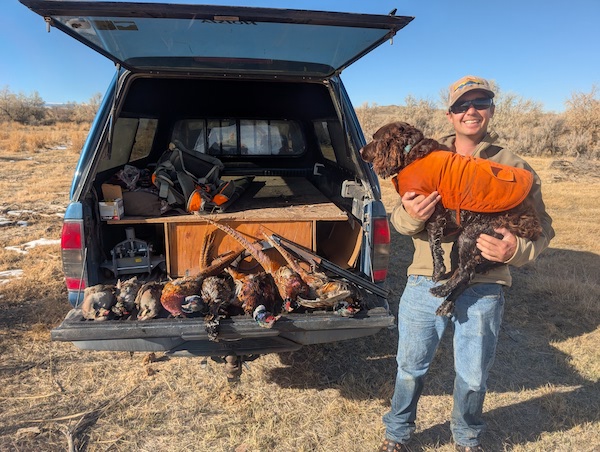
Rusty was born and raised in Gillette, and Justin’s been living and working in Wyoming for almost 15 years. As you’ll hear, they’ve formed a partnership based on optimism, creativity, respect, and pragmatism, and they are making great strides to bolster the economic and environmental future of northeastern Wyoming. We talked about a lot in this conversation, including: A history of Wyoming’s coal mining business; the culture and community pride of Gillette; why Gillette is a perfect place for renewables; cultural and political views on renewables; wildlife considerations; details around coal mine reclamation, ways to build trust and lasting relationships; and more. Justin and Rusty also share ideas about why they work so well together, and they both offer some great book recommendations and wise parting words.
I loved this conversation and learned so much about not just energy production, but also community pride, pragmatism, problem-solving, and respectful, productive relationships. A huge thanks to Rusty and Justin for joining me, and thank you for listening.
Header photo courtesy of TNC, others courtesy of Rusty and Justin
LISTEN & DOWNLOAD:
Apple Podcasts
Spotify
…or wherever you get your podcasts!
EPISODE PARTNER:

This episode is brought to you in partnership with the Colorado chapter of The Nature Conservancy and TNC chapters throughout the Western United States. Guided by science and grounded by decades of collaborative partnerships, The Nature Conservancy has a long-standing legacy of achieving lasting results to create a world where nature and people thrive.
On the last Tuesday of every month throughout 2024, Mountain & Prairie will be delving into conversations with a wide range of The Nature Conservancy’s leaders, partners, collaborators, and stakeholders, highlighting the myriad of conservation challenges, opportunities, and solutions here in the American West and beyond. You can access all of the episodes here.
To learn more about The Nature Conservancy’s impactful work in the West and around the world, visit www.nature.org
RESOURCES:
Topics Discussed:
- 3:30 - A brief history of the coal business in Wyoming
- 10:00 - The unique culture and economy of Gillette, Wyoming
- 16:30 - Some background on coal mine reclamation
- 22:30 - Why Gillette is such a prime location for renewable energy
- 26:00 - Wildlife considerations
- 29:45 - Transmission capacity considerations
- 31:30 - What is a megawatt?
- 34:00 - The cultural and political acceptance of renewables
- 38:30 - Justin’s approach to building trust in Wyoming communities
- 43:30 - The positive ripple effects of a renewable economy
- 48:30 - What Justin admires about Rusty
- 51:30 - What Rusty admires about Justin
- 53:45 - TNC’s role in this energy and economic transition
- 57:30 - How the new Presidential administration will affect this work
- 1:03:30 - Favorite books
- 1:07:15 - Parting words
Information Referenced:
- Rusty Bell
- Justin Loyka
- A great overview of Rusty and Justin’s partnership
- Gillette, Wyoming
- Campbell County, Wyoming
- Mike Enzi, famed Mayor of Gillette
- Gillette Recreation Center
- Gillette Economic Development
- Coal mine reclamation
- Sagebrush Sea
- Matt Cahill episode
- Powder River Basin
- Peter Gower episode
- Wyoming ungulate migration information
- Wyoming’s Energy Transition Plan
- Wyoming: The Paradox of Plenty by David D Freudenthal
- You Can't Send a Duck to Eagle School: And Other Simple Truths of Leadership by Mac Anderson and Derek Shetterly
- Blood Meridian: Or the Evening Redness in the West by Cormac McCarthy
- The Once and Future World: Nature As It Was, As It Is, As It Could Be by J.B. MacKinnon
- Ed's book recs
- Ed's Good News email
Enjoy this episode? Then you might like these too:
- Dr. Katharine Hayhoe – Effecting Change Through Authentic Conversation
- Mark Easter – Food, Soil, and Our Planet’s Future
- Curt Meine – Aldo Leopold’s Life, Work, and Enduring Legacy
- Mike DeHoff – Exploring the Colorado River’s Reemerging Rapids
- Dr. Sara Dant Returns – “Losing Eden: An Environmental History of the American West”
- SHED SESSION: Everything I Know About Landing a Job in the Conservation World
Visit the podcast page for a full list of episodes where you can filter episodes by topic and guests' vocations.

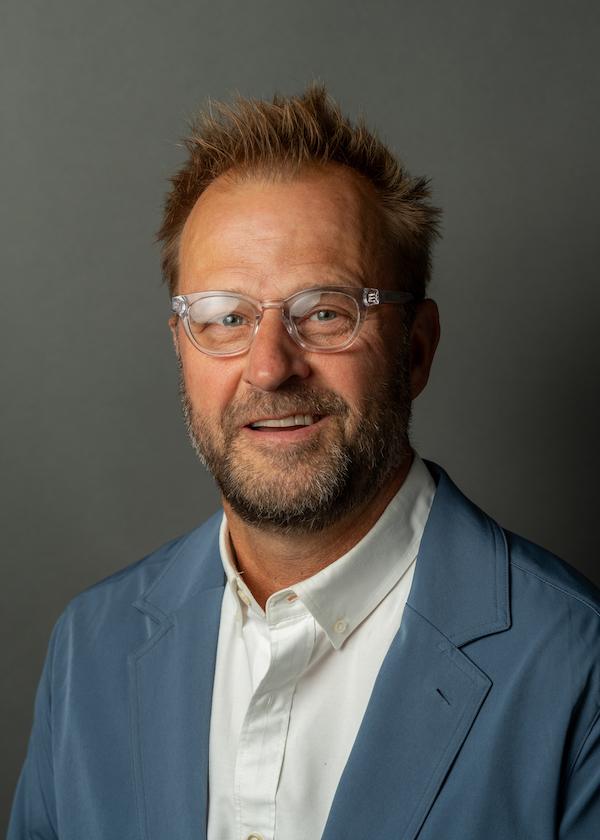
Joe Whitworth is the President and CEO of The Freshwater Trust (“TFT”), an innovative and action-oriented conservation organization whose mission is to preserve and restore freshwater ecosystems. With a focus on technology and an all-star staff made up of scientists, attorneys, GIS experts, systems analysts, and more, TFT is pioneering the next generation of conservation by focusing on quantifiable results. Back when I was a Conservation Director here in Colorado, I had the great pleasure of partnering with TFT on a project involving water rights and irrigated farmland, and I was blown away by the organization’s ability to quickly put complex ideas into action for the benefit of land, water, and communities.
Joe was born into a large Midwestern family, and from an early age, his grandfather, who was a farmer, played a foundational role in his understanding of land, water, and conservation. After high school, Joe moved east to attend Dartmouth, where he played football, and then he eventually moved West to attend law school. Along the way, he began to focus his professional efforts on doing work that made the world a better place. After several stints at several different organizations, he took the reins of the organization that would eventually become The Freshwater Trust. Joe has now been at the helm of TFT for more than two decades and has grown the organization’s budget tenfold during his tenure. He’s focused, action-oriented, innovative, and very serious about solving big, complex conservation problems in the West and beyond.
As you’ll hear, Joe and I share many common interests in everything from history to reading to conservation to rivers, and, perhaps more importantly, I connect deeply with many of Joe’s core values around hard work, following your own path, and taking action. So, it’s no surprise that we had such a fun conversation. We start out talking about Joe’s grandfather, Joe’s journey from the Midwest to the Ivy League, and how he adjusted to life at Dartmouth. We talk about his early years working as a non-profit consultant and the series of events that led him to The Freshwater Trust. We discuss the ultimatum that led to TFT’s impressive growth, the type of people who thrive as staff members, and he gives an overview of their BasinScout technology. We discuss the future of environmentalism, technology’s role in solving environmental challenges, favorite books, and much more.
As I said, I’ve been a fan of TFT for many years, so I was so glad to finally have this opportunity to chat with Joe about his personal and professional operating systems. I hope you enjoy.
---
Photos courtesy of The Freshwater Trust
LISTEN & DOWNLOAD:
Apple Podcasts
Spotify
... or wherever you get your podcasts!
—
RESOURCES:
Topics Discussed:
- 3:00 - Joe’s grandfather and his lasting influence
- 9:00 - Unexpected blessings from a broken femur
- 13:00 - Adjusting to the Ivy League culture
- 16:15 - Next moves after Dartmouth
- 21:30 - Living like a monk and figuring out next steps
- 25:30 - “The world is designed to make you shut up and get in line.”
- 28:45 - Law school and beginnings at the Freshwater Trust
- 29:00 - Revamping The Freshwater Trust
- 34:00 - The board’s reaction to Joe’s plans for the future
- 39:00 - The importance of making hard decisions
- 43:45 - The magic of The Freshwater Trust team
- 47:45 - An overview of BasinScout
- 51:15 - A foundational BasinScout case study
- 58:30 - Ideas and areas of focus on the horizon
- 1:01:00 - The importance of taking action
- 1:03:30 - Next phase of environmentalism
- 1:06:00 - How TFT’s values meld with Joe’s personal values
- 1:09:00 - Expectations of new team members
- 1:12:00 - The TFT model of handing off new ideas and innovation to partners
- 1:16:00 - Favorite books
Information Referenced:
- Joe Whitworth
- The Freshwater Trust
- Clean Water Act
- Buddy Teevans
- Dartmouth
- Harry Denton's
- Bobby Clark
- CCS
- Outward Bound
- Lewis and Clark College
- Paul Fortino
- No Child Left Inside
- The TFT team
- BasinScout and other tools
- Rogue River Case Study
- TFT Core Values
- Beyond the Hundredth Meridian: John Wesley Powell and the Second Opening of the West by Wallace Stegner
- The Dreamt Land: Chasing Water and Dust Across California by Mark Arax
- Good to Great: Why Some Companies Make the Leap...And Others Don't by Jim Collins
- Yvon's 5-15 Report
- Growing a Business by Paul Hawken
- The Obstacle is the Way Expanded 10th Anniversary Edition: The Timeless Art of Turning Trials into Triumph by Ryan Holiday
- The Accidental Connoisseur: An Irreverent Journey Through the Wine World by Lawrence Osborne
- American Nations: A History of the Eleven Rival Regional Cultures of North America by Colin Woodard
Enjoy this episode? Then you might like these too:
- Kristine Tompkins – Nothing to Lose
- Nick Offerman – Empathy, Nuance, & Good Hard Work
- Mike DeHoff – Exploring the Colorado River’s Reemerging Rapids
- Sandy Colhoun – Building Leaders Through Outdoor Education
- Douglas Brinkley – Exploring the Past to Find Inspiration for the Future
- Frances Ashforth – Art, Water, and Wide-Open Spaces
- Pete McBride Returns – Exploring & Documenting His Backyard River
- Curt Meine – Aldo Leopold’s Life, Work, and Enduring Legacy
Visit the podcast page for a full, searchable list of episodes

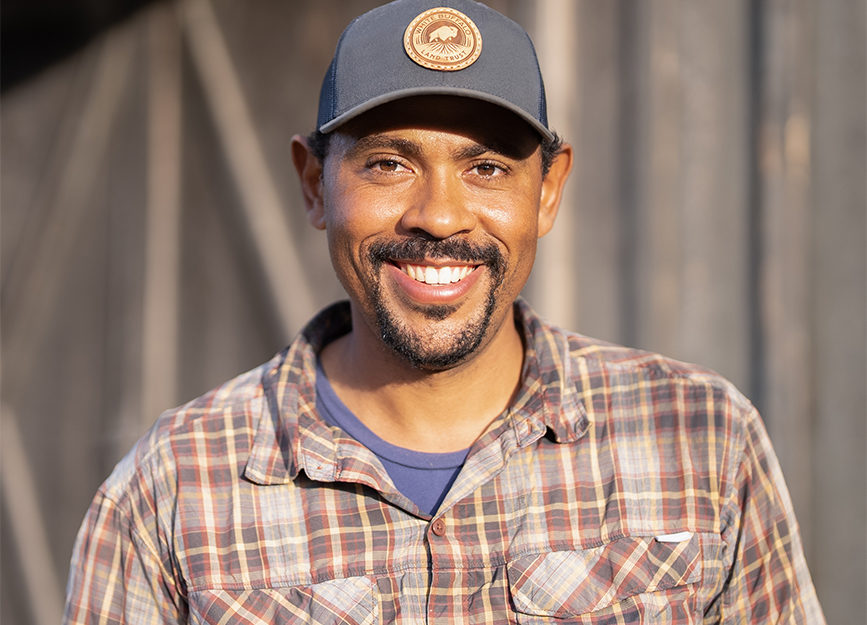
Jesse Smith is the Director of Land Stewardship at the White Buffalo Land Trust, which is a global hub for regenerative land stewardship, ecological monitoring and research, education, and more. Jesse brings a unique perspective and a diverse set of experiences to his work in regenerative agriculture– his early interest in architecture led him to pursue an education in design, which then led to a career in product design and visual communication. But over time, he became interested in combining his artistic sensibilities with his love of the land, science, and permaculture, and soon thereafter began his journey in the world of family farming, food production, and education. Jesse is now a leader in the world of regenerative ag, and, as you’ll hear, he has a real gift for communicating the art and science of land stewardship.
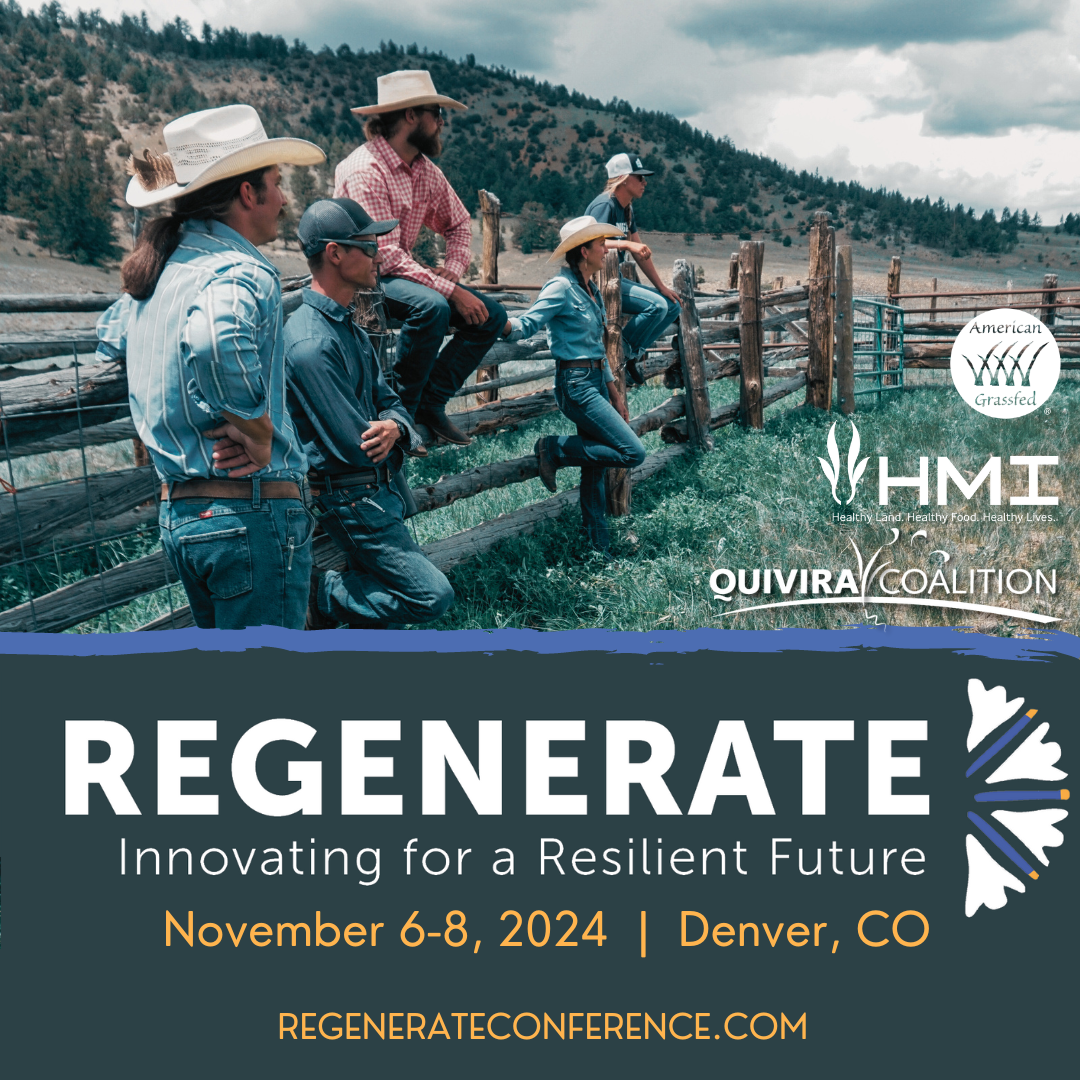
This conversation was recorded in November of 2024 on stage at the REGENERATE conference– one of the country’s foremost gatherings of regenerative agriculture practitioners and thought leaders. REGENERATE is a collaboration between the Quivira Coalition, Holistic Management International, and the American Grassfed Association, and the conference attracts fascinating people from all over the world to share knowledge, build community, and create a culture of resilience and regeneration.
Despite sitting on stage in front of an auditorium full of people, this conversation felt much more like a fun one-on-one discussion between two friends. We covered everything from Jesse’s winding path into the world of agriculture to some of the more technical details around land monitoring and certifications. We discussed the natural disasters in Jesse’s community that highlighted huge problems in the local food systems, which eventually led to the creation of the White Buffalo Land Trust. We discussed how Jesse prioritizes his work when there are so many urgent challenges to address, and he shares his experiences with big business’s growing interest in regenerative ag. We talk about the Japanese concept of Ikigai, transforming inspiration into action, advice for building a career in regenerative ag, favorite books, and much more. We also allowed ample time for Q&A from the audience, which I know you’ll enjoy.
Jesse mentions tons of useful resources so be sure to visit the episode notes for a full list of topics we discussed and links to everything. A huge thanks to the team at REGENERATE for inviting me to the conference, thank you to Jesse for chatting with me and offering so much wisdom, and thanks to you for listening.
The episode starts out with an introduction from Sarah Wentzel-Fisher, who is the Executive Director of the Quivira Coalition and a past Mountain & Prairie podcast guest. Hope you enjoy!
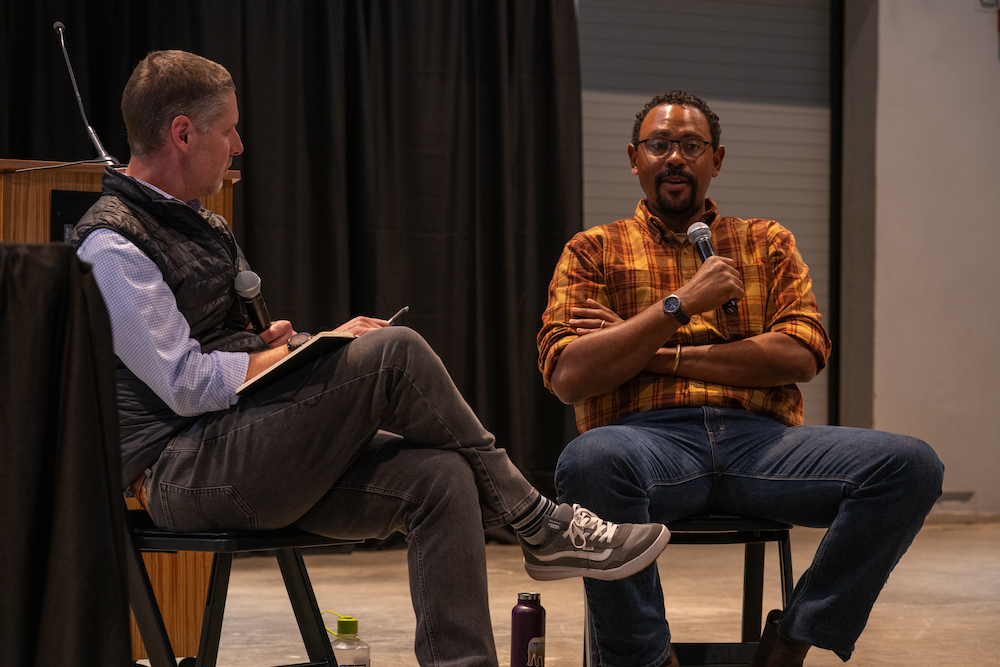
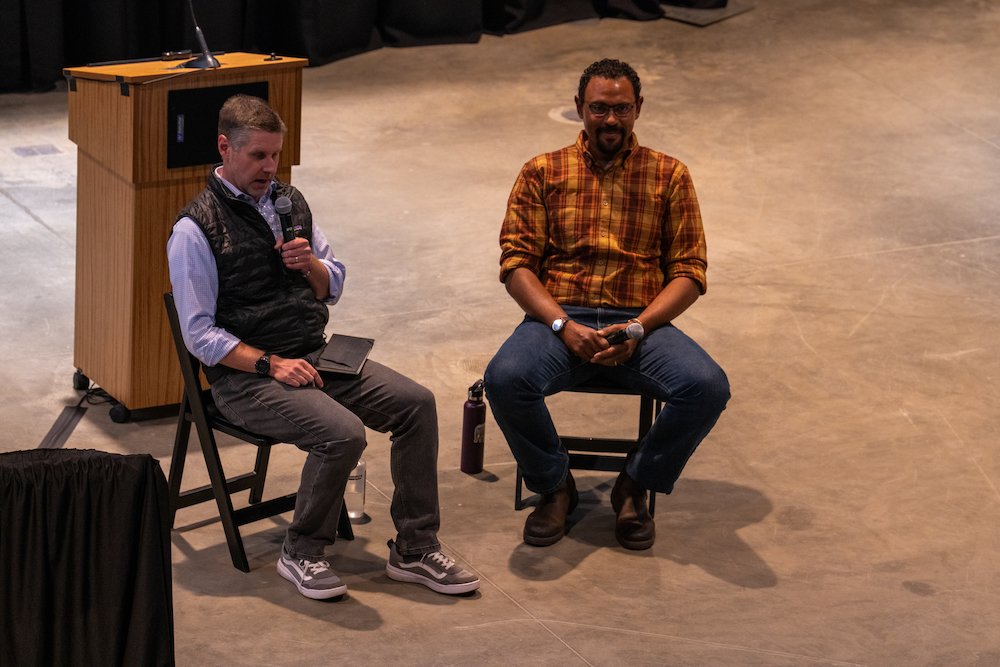
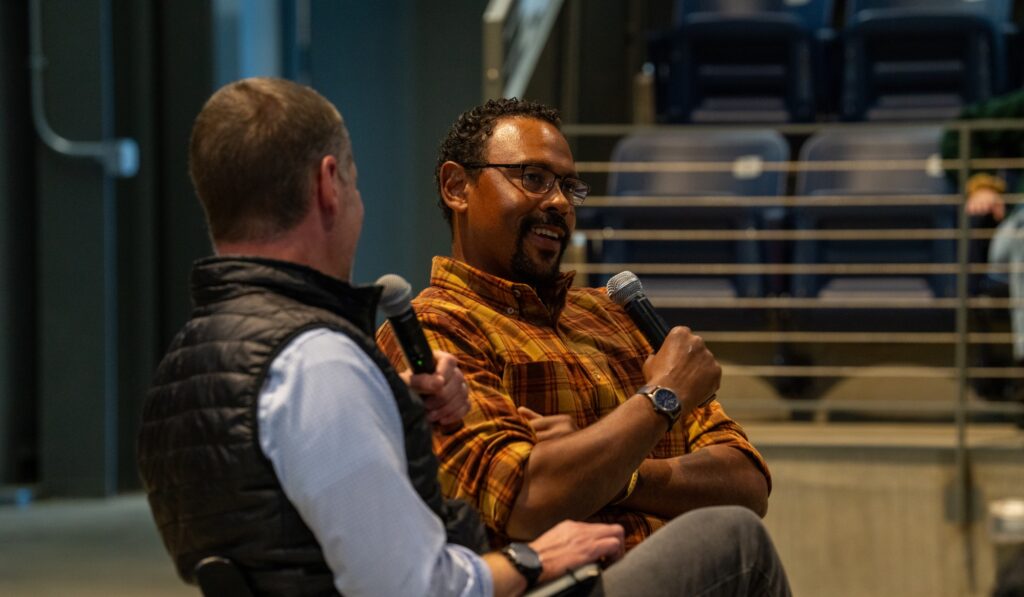
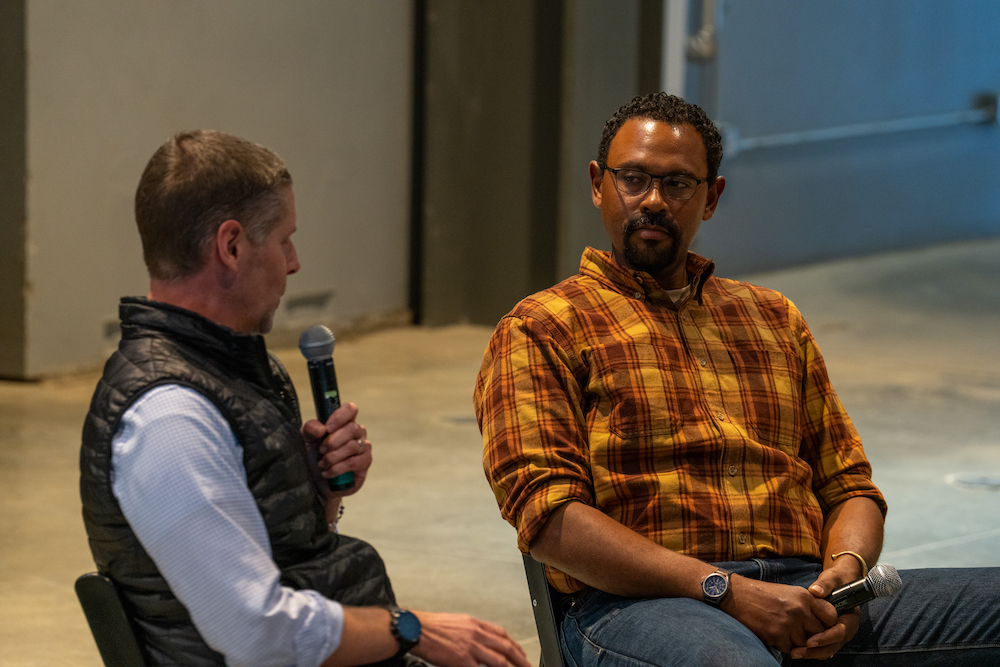
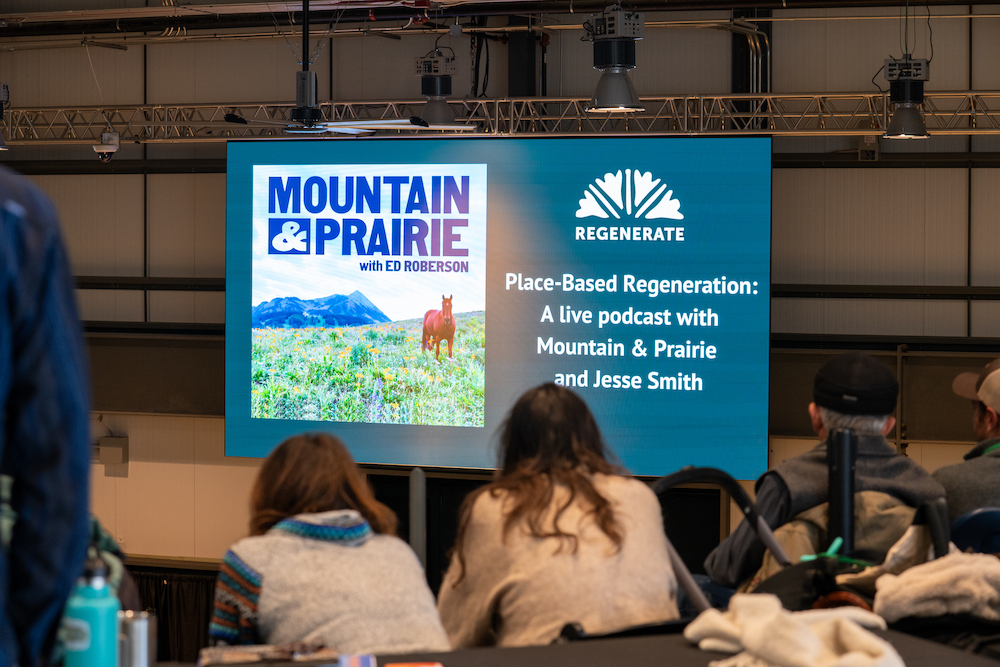
---
Photos courtesy of the Quivira Coalition and REGENERATE, headshot courtesy of Jesse Smith
LISTEN & DOWNLOAD:
Apple Podcasts
Spotify
... or wherever you get your podcasts!
You can also watch it on YouTube:
RESOURCES:
Topics Discussed:
- 3:00 - An introduction from Quivira’s Executive Director, Sarah Wentzel-Fisher
- 4:45 - Ed’s introduction
- 8:00 - Jesse’s early years and path into conservation
- 12:15 - Recognizing the community need that led to the creation of the White Buffalo Land Trust
- 16:00 - How Jesse prioritizes his work at the White Buffalo Land Trust
- 21:45 - Thoughts on big business’s interest in regenerative agriculture
- 27:05 - The complexity of regenerative certifications
- 32:45 - Predictions about the future of regenerative certifications
- 35:30 - Advice for people who want to work in regenerative ag
- 41:00 - Translating inspiration into action
- 45:30 - Audience Q&A: How do stories and on-the-ground experiences help to change people’s minds?
- 50:43 - Audience Q&A: Why is the burden on regenerative producers to get certifications to prove that they are doing it correctly?
- 54:15 - Audience Q&A: Thoughts on the new administration bringing regenerative practitioners into the FDA?
- 59:20 - Audience Q&A: How do we create more accessibility around regenerative ag?
- 1:03:10 - Audience Q&A: How does regenerative ag play a role in procurement by institutional buyers?
- 1:05:00 - Audience Q&A: What is the source of people’s disconnect with food and what is one step to bridge that gap?
- 1:08:20 - Audience Q&A: What are some planning strategies to help balance stewardship and profitability
- 1:12:05 - Audience Q&A: What is the lay of the land when it comes to certifications across a broad range of markets?
- 1:16:15 - Jesse’s book recommendations
Information Referenced:
- REGENERATE conference
- Sarah Wentzel-Fisher
- Quivira Coalition
- Holistic Management International
- American Grassfed Association
- Jesse Smith
- White Buffalo Land Trust
- Figure Ate Foods
- 2015 California Wildfires
- Thomas Fire
- Steve Finkle
- Jamala Canyon Ranch
- Regenerative Agriculture
- Biodynamic Ag
- Greenwashing
- Greenhushing
- ExpoWest
- Patagonia
- Dr. Bronners
- Regenerative Organic Certified
- Savory’s EOV Protocol
- Green America
- Audubon Conservation Ranching
- Ikigai
- Will Harris
- Joel Salatin
- Farmprenuers
- Common Ground
- Richard’s Regenerative
- Bionutrient Food Association
- Nutrient Density Alliance
- Dune by Frank Herbert
- The Third Plate by Dan Barber
- Basque Country: A Culinary Journey Through a Food Lover's Paradise by Marti Buckley
Enjoy this episode? Then you might like these too:
- Kristine Tompkins – Nothing to Lose
- Curt Meine – Aldo Leopold’s Life, Work, and Enduring Legacy
- Celene Hawkins & Izabella Ruffino – Tribal Partnerships, Indigenous Voices, Cutting-Edge Conservation
- Jenna Pollard – Timber Framing, Organic Farming, Community, and Purpose
- Nick Offerman – Empathy, Nuance, & Good Hard Work
- Rebuilding a Resilient, Regional Meat Supply Chain – LIVE at the Old Salt Festival
- Kate Mannix – A Legacy of Land Stewardship
- Daniela Ibarra-Howell – Healing the Land Holistically
Visit the podcast page for a full, searchable list of episodes

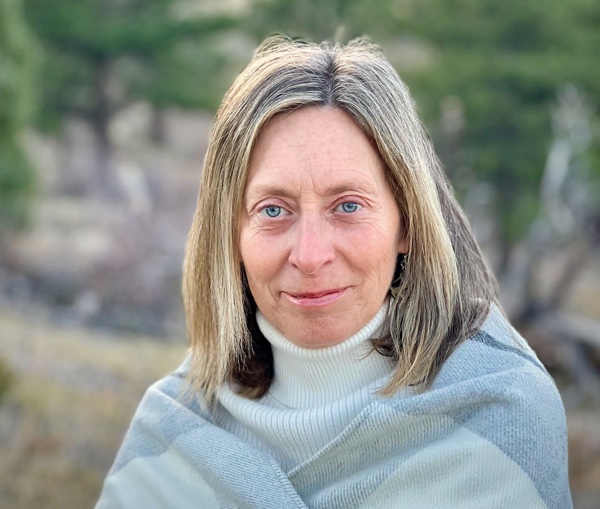
Nichole Barger is an ecologist, former university professor, and the current deputy chief scientist and lead global scientist for The Nature Conservancy. She earned her master’s degree from the University of California at Berkeley and her PhD from Colorado State University, and her career has included extensive time researching, teaching, and practicing on-the-ground, frontline conservation on issues including land degradation, restoration, and more. Prior to assuming her current position at TNC, she was the research director of the Canyonlands Research Center located at the Dugout Ranch, which you may remember as the subject of a Mountain & Prairie episode back in August of 2024.
Given her distinguished career as a scientist, you might be surprised to learn that Nichole never considered pursuing science as a vocation until the second half of her time in college. She grew up in small-town Indiana, and, although she was extremely curious, a great student, and a voracious reader, she was not particularly enamored with science and didn’t know anyone who worked as a scientist. But during college, a supportive-yet-casual comment from one of her professors planted the seed that science could be an option. Fast forward to today, she has published more than 70 peer-reviewed papers, she co-chairs the Science Policy Interface group of the UN Convention to Combat Desertification, and she leads many of TNC’s cutting-edge science initiatives.
As you’ll hear, Nichole brings a deep level of empathy, curiosity, and open-mindedness to all of her work as a scientist. Whether she’s teaching, researching, or working with conservation stakeholders, she never loses sight of the importance of human connection. We spent the first half of the conversation discussing lessons learned from her nontraditional path into the world of science, including a two-year stint where she left college to travel and explore the United States. We discussed her renewed focus on academics when she returned to school, and the moment that professor planted the seed that eventually grew into her career in science. We discuss teaching versus research, how she evolved as an educator and mentor to college students, and when she decided to apply her talents to TNC’s mission. We discuss TNC’s incorporation of Indigenous wisdom and science into its work, human health as a conservation initiative, and the importance of face-to-face human interactions. She also offers some excellent book recommendations and ideas for remaining optimistic and action-oriented during challenging times.
There’s so much wisdom packed into this episode, so be sure to check out the episode notes for a complete list of topics and links to everything. A huge thanks to Nichole for the great conversation and thank you for listening.
Photos courtesy of TNC: Header © Dave Hebert, headshot © Garrett Herndon
LISTEN & DOWNLOAD:
Apple Podcasts
Spotify
…or wherever you get your podcasts!
EPISODE PARTNER:

This episode is brought to you in partnership with the Colorado chapter of The Nature Conservancy and TNC chapters throughout the Western United States. Guided by science and grounded by decades of collaborative partnerships, The Nature Conservancy has a long-standing legacy of achieving lasting results to create a world where nature and people thrive.
On the last Tuesday of every month throughout 2024, Mountain & Prairie will be delving into conversations with a wide range of The Nature Conservancy’s leaders, partners, collaborators, and stakeholders, highlighting the myriad of conservation challenges, opportunities, and solutions here in the American West and beyond. You can access all of the episodes here.
To learn more about The Nature Conservancy’s impactful work in the West and around the world, visit www.nature.org
RESOURCES:
Topics Discussed:
- 4:00 - Nichole’s upbringing and early years
- 7:45 - Taking a non-traditional path and her parents’ reaction
- 9:30 - Lessons learned from her two-year break
- 11:00 - Books read in high school that gave Nichole confidence to follow her own path
- 12:30 - Returning to school with a renewed focus
- 15:30 - Advice to college students who are trying to find their way in the world
- 18:15 - Her journey to becoming a successful scientist
- 20:30 - Research versus teaching
- 22:45 - Lessons learned from years of teaching
- 26:30 - When and how TNC became a professional focus
- 29:30 - Nichole describes her current job at TNC
- 31:15 - Incorporating Indigenous knowledge into TNC’s science work
- 40:00 - The importance and power of weaving in Indigenous knowledge
- 43:00 - Human health as a conservation initiative
- 47:00 - “Doom and Gloom” is not a motivating strategy
- 50:00 - Online resources for news and science (that won’t make you crazy)
- 52:00 - The importance of being with people
- 53:15 - The most exciting project Nichole is working on
- 55:00 - What can the average person do to take action and make a difference
- 59:00 - Book recommendations
- 1:03:00 - Parting words of wisdom
Information Referenced:
- Nichole Barger
- Science programs at TNC
- Wheatfield, Indiana
- Evergreen State College
- UC Berkeley
- Colorado State University
- University of Colorado at Boulder
- Flipped classroom
- BLM
- Colorado Plateau
- Canyonlands Research Center
- United Nations - UNCCD Science-Policy Interface
- Dugout Ranch
- Heidi Redd and Sue Bellagamba podcast
- Celene Hawkins and Izabella Ruffino
- Leave It As It Is by David Gessner
- The Gifts of Imperfection by Brene Brown
- Thinking, Fast and Slow by Daniel Kahneman
Enjoy this episode? Then you might like these too:
- Dr. Katharine Hayhoe – Effecting Change Through Authentic Conversation
- Mark Easter – Food, Soil, and Our Planet’s Future
- Kristine Tompkins – Nothing to Lose
- Dr. Emily Howe – The Interconnectedness of Mountains, Forests, Rivers, and Estuaries
- Dr. Sara Dant Returns – “Losing Eden: An Environmental History of the American West”
- Curt Meine – Aldo Leopold’s Life, Work, and Enduring Legacy
Visit the podcast page for a full list of episodes where you can filter episodes by topic and guests' vocations.

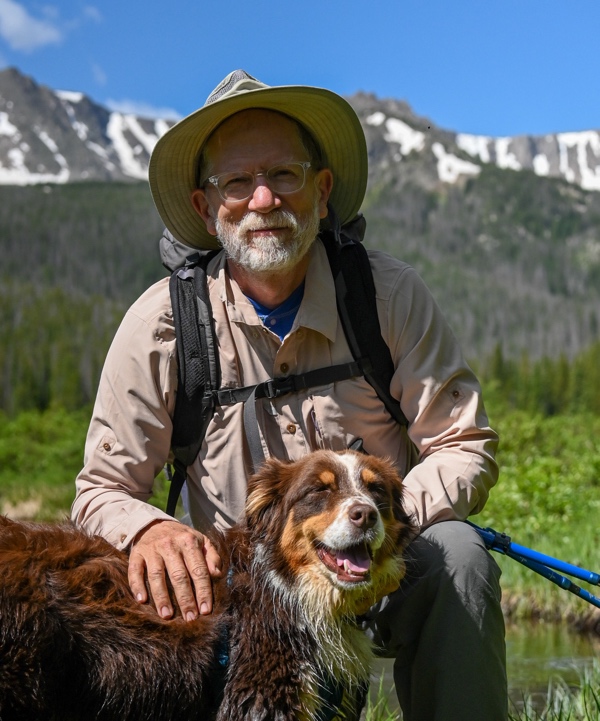
Mark Easter is a Colorado-based ecologist and author whose new book is titled The Blue Plate: A Food Lover's Guide to Climate Chaos. If you care about food and you care about Planet Earth, The Blue Plate is a must-read. It explores the production, consumption, and disposal of many of our favorite foods– seafood, salad, bread, chicken, steak, potatoes, ice cream, and more– and offers a thoughtful and nuanced analysis of these foods' impacts on the environment. This is not a gloom-and-doom climate change book, nor does it have the condescending tone that sometimes accompanies many climate-related readings. While Mark is crystal clear about the massive threats facing our planet, this is a book built on the ideals of optimism, ingenuity, and taking action. I loved it.
Mark lives and works in Fort Collins and has conducted research in academia and private industry since 1988. He has enjoyed a very successful and impactful career at Colorado State University, and he has authored and co-authored more than 50 scientific papers and reports related to carbon cycling and the carbon footprint of agriculture, forestry, and other land uses. But Mark also has a real gift for storytelling and for breaking down enormously complex topics into understandable and enjoyable writing. His writing is personal, educational, and fun to read, and I credit Mark and The Blue Plate with helping me to finally fully understand issues around greenhouse gas emissions and carbon sequestration.
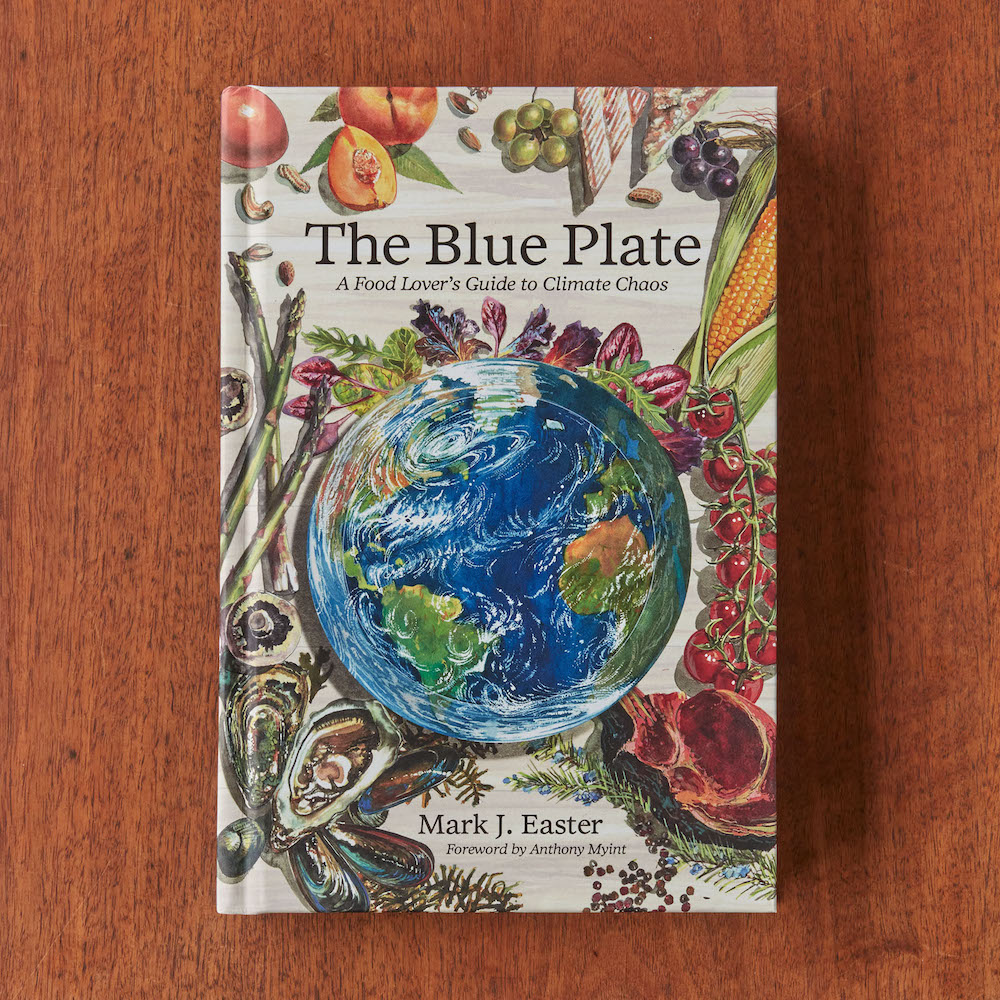
Mark and I met up a few weeks ago at CSU and had a fun and nuanced conversation about food, agriculture, and the climate. We started by discussing why he refers to himself as a “greenhouse gas accountant,” and he offers an excellent explanation of soil's all-important role in balancing the release and capture of carbon on Planet Earth. We talk about how grasslands, jungles, and mangroves sequester carbon, and how and why the destruction of any of these ecosystems negatively affects the planet. We discuss Mark’s ten-year process of writing this book and how Patagonia Books helped him bring his vision to life. We discuss how methane is produced by everything from reservoirs to ruminants, and why that particular greenhouse gas is more harmful than the others. We discuss regenerative agriculture, meat production, composting, and personal diet choices, and Mark offers a long list of excellent book recommendations.
We barely scratched the surface of all of the fascinating topics in The Blue Plate, so if you enjoy this conversation, I’d encourage you to pick up a copy of the book and dig in. I know you’ll enjoy it and learn a lot.
---
Photos courtesy of Patagonia, Header © Remy Anthes,
LISTEN & DOWNLOAD:
Apple Podcasts
Spotify
... or wherever you get your podcasts!
—
RESOURCES:
Topics Discussed:
- 3:00 - Intro and how Mark describes his work
- 7:15 - Parallels between carbon accounting and business accounting
- 13:45 - An overview of soil and carbon
- 21:30 - Carbon in grasslands vs jungles vs mangroves
- 25:00 - How and why Mark decided to write this book
- 33:00 - The ten-year process of writing the book
- 37:00 - Greenhouse gases explained
- 40:00 - Methane feedback loop explained
- 43:30 - A fascinating story about methane in Lake Powell
- 46:15 - Reservoirs and evaporation
- 47:00 - The most difficult chapter to write: Ruminants and meat
- 55:30 - The increasing global demand for meat
- 58:00 - Taking action and personal responsibility
- 1:01:30 - Personal responsibility versus regulation
- 1:04:00 - A helpful way to understand carbon quantities
- 1:06:00 - Carbon consequences of transforming forests to grasslands
- 1:09:00 - All about composting
- 1:13:00 - Business opportunities in regenerative agriculture
- 1:16:30 - Favorite books
- 1:22:15 - Parting words
Information Referenced:
- Mark Easter
- The Blue Plate: A Food Lover's Guide to Climate Chaos
- Keith Paustian
- Intergovernmental Panel on Climate Change
- Marlen Eve
- Stephen Ogle
- Bill Parton
- Excited Skin of the Planet
- Video: Soil Organic Matter: Humanity's True Capital by Francesca Cotrufo, PhD
- Melannie Hartman
- SueEllen Campbell
- The Soil Will Save Us: How Scientists, Farmers, and Foodies Are Healing the Soil to Save the Planet by Kristin Ohlson
- Kiss the Ground
- John Calderazzo
- Rachel Carson
- Doug Brinkley interview
- Aldo Leopold
- EO Wilson
- Barbara Kingsolver
- Greenhouse gases
- Methane feedback loop
- Into the Clear Blue Sky: The Path to Restoring Our Atmosphere by Rob Jackson
- Cod: A Biography of the Fish that Changed the World by Mark Kurlansky
- Prairyerth: A Deep Map by William Least Heat-Moon
- Animal, Vegetable, Miracle: A Year of Food Life by Barbara Kingsolver
- A Sand County Almanac: And Sketches Here and There by Aldo Leopold
- Coming Home to Eat: The Pleasures and Politics of Local Foods by Gary Paul Nabhan
- Silent Spring by Rachel Carson
- Laura Pritchett
Enjoy this episode? Then you might like these too:
- Dr. Katharine Hayhoe – Effecting Change Through Authentic Conversation
- Mike DeHoff – Exploring the Colorado River’s Reemerging Rapids
- Pete McBride Returns – Exploring & Documenting His Backyard River
- Kristine Tompkins – Nothing to Lose
- Dr. Emily Howe – The Interconnectedness of Mountains, Forests, Rivers, and Estuaries
- Matt Cahill – A Deep Dive into the Sagebrush Sea
- Lorelei Cloud – Solving Modern-Day Challenges with Ancient Tribal Wisdom
- Rick Ridgeway – Purpose-Driven Adventurer
Visit the podcast page for a full, searchable list of episodes

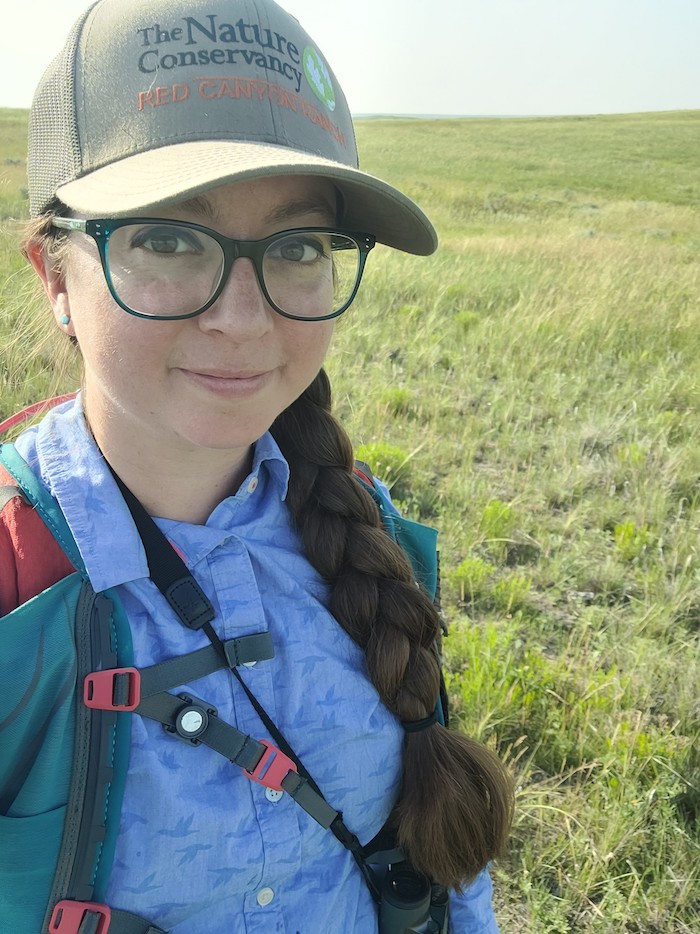
Kelsey Molloy is the Northern Great Plains Director at The Nature Conservancy and Angel DeVries is the Executive Director of the Ranchers Stewardship Alliance (RSA), and they both live and work on the Northern Great Plains in Malta, Montana. While they work for different organizations, Kelsey and Angel collaborate on a long list of critical projects, most of which are focused on grassland conservation, ranching, and community partnerships.
One of their most notable collaborations involves the Matador Ranch, a 60,000-acre TNC-owned property near Dodson, Montana. The Matador Ranch is home to an outside-the-box conservation initiative known as a grassbank, which is a partnership opportunity that offers ranchers grazing access to rich grasses in exchange for adopting sustainable practices on their own property.
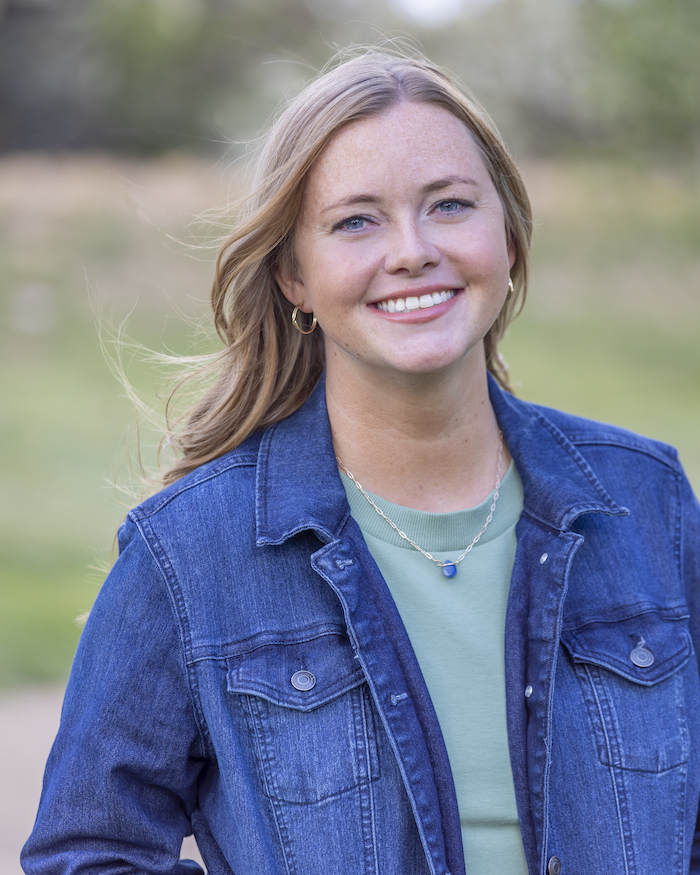
This grassbank was introduced during the historic drought of the early 2000s, and it offered much needed grazing opportunities for ranching families whose homeplaces had been hit hard by the dry conditions. Since then, for the past 20+ years, the grassbank has continued to provide win-win solutions for ranchers and conservation-focused non-profit organizations, as well as helping to bolster trust, goodwill, and community cohesiveness.
As you’ll hear in this conversation, the grassbank has been such a success, the TNC is currently searching for another ranch to acquire and eventually transform into a community led and owned grassbank. This “grassbank 2.0” will not only provide a grazing safety net during times of drought, but will also further the work of providing opportunities for new or young ranchers who are just entering the business but do not yet have the capital to purchase their own land.
We connected via the magic of the internet, and had a wide-ranging conversation about their productive collaboration, grassbanks, challenges and opportunities in the Northern Great Plains, and more. We discussed the work of the Ranchers Stewardship Alliance, the history of the Matador Ranch, and the ins and outs of the Matador Ranch grassbank. We discussed how skyrocketing land values are making it nearly impossible for new ranchers to enter the business, and also how succession planning is becoming an important, but often underappreciated, issue for ranching families. We also talked a lot about the need for optimism and curiosity, the importance of building community, and how TNC and RSA are working to bridge cultural and geographic divides. We also learn about RSA’s book club, which will likely be of great interest to many of you.
I learned so much from this conversation and appreciate Kelsey and Angel taking time out of their busy schedules to chat with me. Hope you enjoy!
Header photo © Ami Vitale/TNC, headshots courtesy of Kelsey and Angel
LISTEN & DOWNLOAD:
Apple Podcasts
Spotify
…or wherever you get your podcasts!
EPISODE PARTNER:

This episode is brought to you in partnership with the Colorado chapter of The Nature Conservancy and TNC chapters throughout the Western United States. Guided by science and grounded by decades of collaborative partnerships, The Nature Conservancy has a long-standing legacy of achieving lasting results to create a world where nature and people thrive.
On the last Tuesday of every month throughout 2024, Mountain & Prairie will be delving into conversations with a wide range of The Nature Conservancy’s leaders, partners, collaborators, and stakeholders, highlighting the myriad of conservation challenges, opportunities, and solutions here in the American West and beyond. You can access all of the episodes here.
To learn more about The Nature Conservancy’s impactful work in the West and around the world, visit www.nature.org
RESOURCES:
Topics Discussed:
- 4:00 - Kelsey and Angel introduce themselves
- 8:10 - Background on the Ranchers Stewardship Alliance (RSA)
- 10:00 - A few of the biggest challenges facing Great Plains ranchers
- 15:30 - The history of the Matador Ranch and the grassbank
- 22:00 - Lessons learned from the grassbank
- 24:15 - A local’s perspective on the grassbank
- 25:30 - Wildlife-friendly fencing explained
- 26:30 - Other examples of grassbanks
- 30:15 - Emerging plans for a new grassbank
- 33:45 - Steps involved in finding a new property
- 36:00 - Success stories from the Matador Ranch
- 41:00 - Easements as a tool for grasslands restoration
- 43:45 - Importance of positivity and optimism
- 48:45 - Importance of optimism
- 52:00 - Important books
- 56:15 - RSA book club
- 59:45 - Words of wisdom
Information Referenced:
- Kelsey Molloy
- Angel DeVries
- TNC Montana
- Ranchers Stewardship Alliance
- Matador Ranch
- Malta, MT
- AUM
- Matt Morehead
- Amber Smith
- Winnett ACES
- Bowdoin National Wildlife Refuge
- Plowprint report from World Wildlife Fund
- Pioneer Cattleman in Montana: The Story of the Circle C Ranch by Walt Coburn
- Dirt: The Erosion of Civilizations by David R. Montgomery
- Nature's Best Hope: A New Approach to Conservation That Starts in Your Yard by Douglas W. Tallamy
- The Unabomber Manifesto: Industrial Society and Its Future
- Brené Brown
- Atomic Habits: An Easy & Proven Way to Build Good Habits & Break Bad Ones by James Clear
- Start with Why: How Great Leaders Inspire Everyone to Take Action by Simon Sinek
- Otters Dance: A Rancher's Journey to Enlightenment and Stewardship by Bob Budd
- RSA Book Club and other events
- Elaine Froese
Enjoy this episode? Then you might like these too:
- Kate Mannix – A Legacy of Land Stewardship
- Amber Smith – Creating Connection & Community
- Anna Borgman – Obsession, Curiosity, and Purpose-Driven Work
- Celene Hawkins & Izabella Ruffino – Tribal Partnerships, Indigenous Voices, Cutting-Edge Conservation
- Heidi Redd & Sue Bellagamba – Tales from the Dugout Ranch
- Lorelei Cloud – Solving Modern-Day Challenges with Ancient Tribal Wisdom
Visit the podcast page for a full list of episodes where you can filter episodes by topic and guests' vocations.

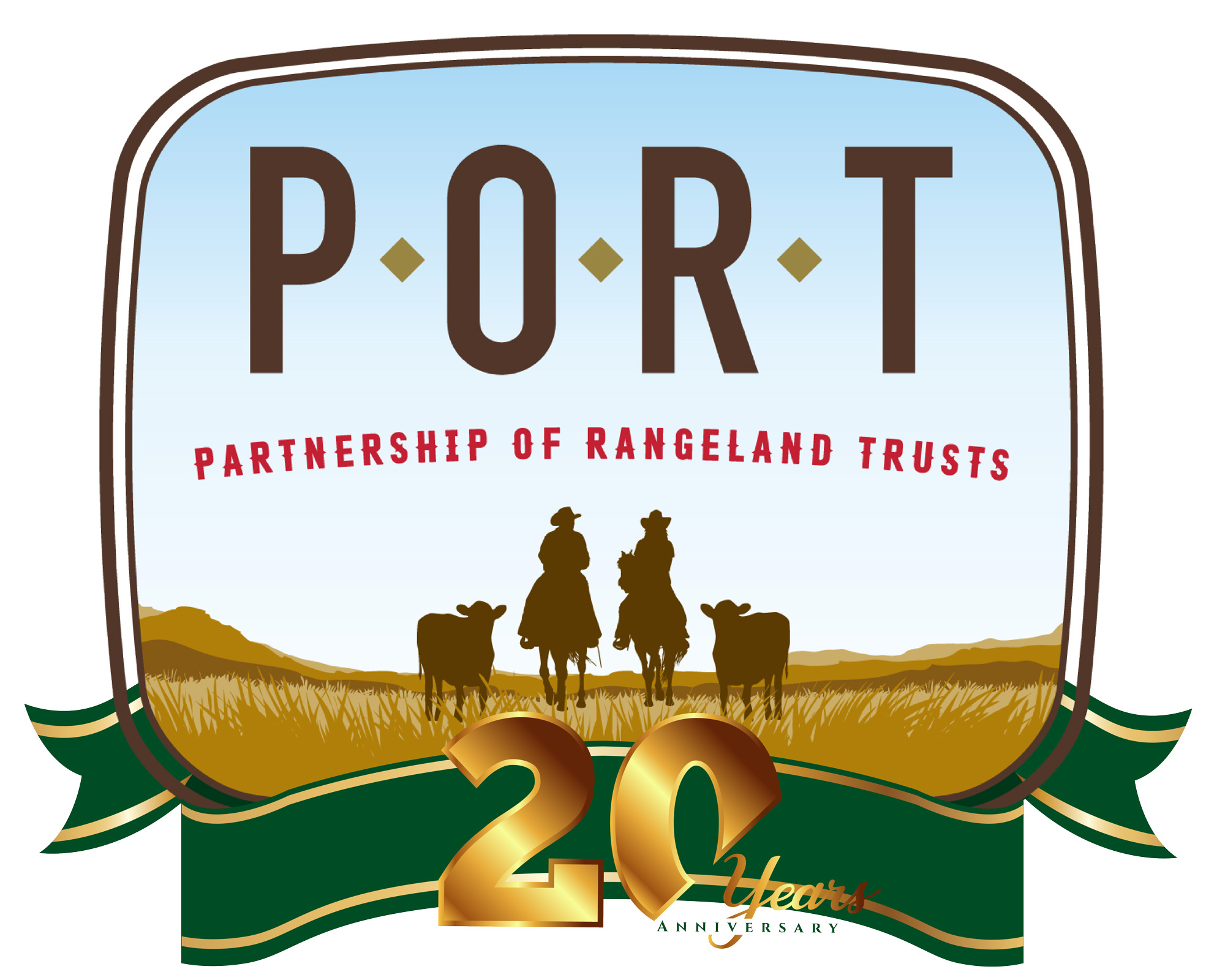
If you’re a longtime Mountain & Prairie listener, then you’re already familiar with the Partnership of Rangeland Trusts, also known as PORT. But for any new listeners, PORT is an alliance of agriculture-focused conservation organizations dedicated to preserving working farms and ranches and conserving productive agricultural lands. PORT is currently celebrating its 20th anniversary, and in those two decades (and as of this recording), PORT organizations have helped more than 2,000 families conserve almost 3.2 million acres of productive working lands across the West.
In this episode, I chat with three executive directors of PORT-affiliated organizations, two of which have been on the podcast before. You’ll recognize Chad Ellis of the Texas Agricultural Land Trust (TALT), and Erik Glenn of the Colorado Cattlemen’s Agricultural Land Trust. And new to the podcast is Michael Delbar, who leads the California Rangeland Trust. I’ve known all three of these guys for many years now, and I have long admired the ways that they lead their respective organizations. But perhaps even more impressive to me is how they have worked as a team with all nine PORT organizations to increase the scale, influence, and effectiveness of large-scale, working lands conservation.
I don’t think I’ve ever recorded an episode this early in the morning– we squeezed it in between an early morning breakfast and PORT’s board meeting. Just the day before, we had all been at TALT’s Working Lands Innovation Summit on the Birdwell-Clark Ranch in Henrietta, Texas, which was a huge success. So this was a great time to reflect on the importance of working lands, and we covered a lot: The Working Lands Innovation Summit and the importance of spending time out on the land; the history and purpose of PORT, the growth of additive conservation projects; private lands conservation as an economic driver; hard work; innovation; the importance of advocating for conservation in Washington DC; future plans for PORT, and much more. As you’ll hear, I start out chatting with Chad and Erik, and then Michael steps in for Erik about halfway through and shares his valuable perspective.
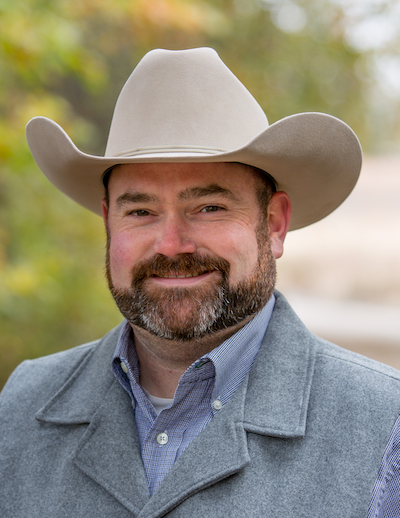

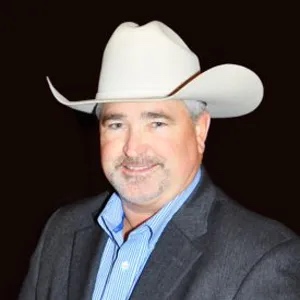
A huge thanks to TALT for inviting me to Texas and another huge thanks to all the PORT organizations and landowner partners who have had such a positive and significant impact on the landscapes of the West.
-----
Header photo courtesy of the California Rangeland Trust
LISTEN & DOWNLOAD:
Apple Podcasts
Spotify
... or wherever you get your podcasts!
—
RESOURCES:
Topics Discussed:
- 4:00 - The event that brought us all to Texas
- 7:00 - Importance of being on the land for the conference
- 8:45 - Introduction to the Partnership of Rangelands Trust (PORT)
- 12:30 - How and why PORT was created
- 15:30 - Additive conservation and the future
- 18:45 - Examples of additive conservation projects
- 25:30 - Private lands conservation as an economic driver
- 29:15 - Intro to Michael Delbar
- 31:00 - How the perception of conservation easements has changed in California
- 32:00 - Once again, the importance of relationships
- 34:15 - Hard work and innovation
- 39:45 - Advocating in DC
- 42:00 - How PORT’s scale translates into results
- 43:30 - Future plans for PORT
- 47:00 - Funding needs and parting words
Information Referenced:
- Partnership of Rangeland Trusts (PORT)
- All PORT members
- Texas Agricultural Land Trust (TALT)
- Colorado Cattlemen’s Agricultural Land Trust
- California Rangeland Trust
- Chad Ellis
- Erik Glenn
- Michael Delbar
- Aldo Leopold
- "Conservation will ultimately boil down to rewarding the private landowner who conserves the public interest." – Aldo Leopold
- Conservation easements
- CSU Economic Study on Private Lands Conservation
- Dr. Roel Lopez
- NRCS
- California Rangeland Trust Presents: From the Ground Up: Healing Our Planet, Healing Ourselves
- California Rangeland Trust Podcast: Tuned Into The Land
- Land Trust Alliance
Enjoy this episode? Then you might like these too:
- Heidi Redd & Sue Bellagamba – Tales from the Dugout Ranch
- Curt Meine – Aldo Leopold’s Life, Work, and Enduring Legacy
- Celene Hawkins & Izabella Ruffino – Tribal Partnerships, Indigenous Voices, Cutting-Edge Conservation
- Rebuilding a Resilient, Regional Meat Supply Chain – LIVE at the Old Salt Festival
- Landscape-Scale Management in a Private Land State
- Dr. Katharine Hayhoe – Effecting Change Through Authentic Conversation
- Carlos Fernández, Part 2 – Creating Conservation Opportunities During Uncertain Times
Visit the podcast page for a full, searchable list of episodes

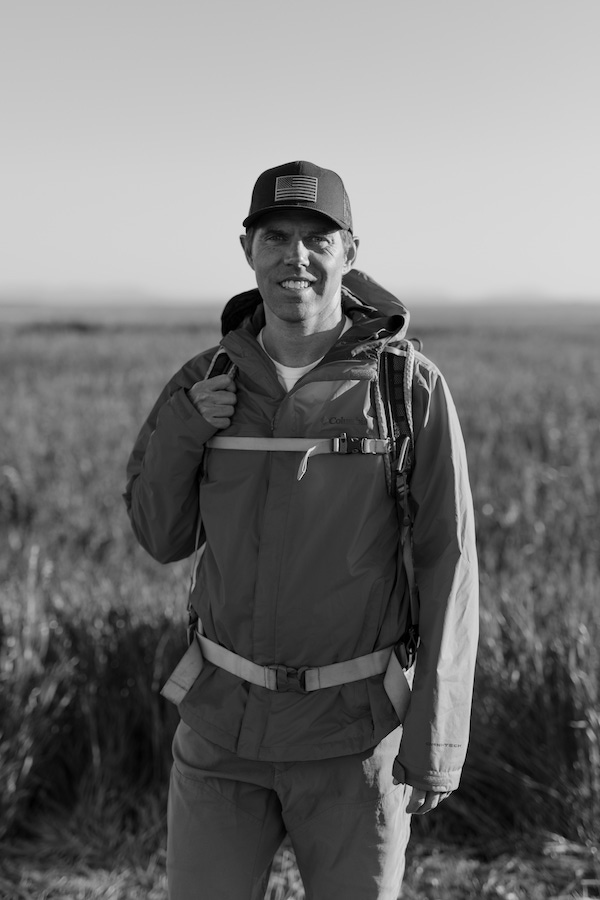
Kevin Grange is a Wyoming-based author, paramedic, and firefighter. His most recent book is titled Grizzly Confidential: An Astounding Journey Into the Secret Life of North America’s Most Fearsome Predator, which is a must-read for anyone interested in the evolving relationship between humans and bears. The book follows Kevin’s journey throughout the American West and Alaska as he seeks to better understand grizzly bears, debunk many deeply engrained myths, explore case studies of successful coexistence, and more. The book is part travelogue, part adventure story, and part science– making for a fun and educational read that I highly recommend.
Kevin was born and raised in New Hampshire, where he grew up obsessed with the outdoors and, like many of us, obsessed with kids’ outdoor books such as Old Yeller, Sounder, and Where the Red Fern Grows. He attended paramedic school in California and began his career in downtown LA before landing a job as a National Park paramedic in Yellowstone. As you’ll hear in our conversation, Kevin has managed to successfully merge his love of medicine and adventure with his talent for writing, and with a lot of hard work, he’s enjoyed two successful, simultaneous careers– one in medicine and the other in writing.
Kevin and I connected just a few weeks after the publication of Grizzly Confidential and had a fascinating conversation about his career, his writing process, and his journey to better understand the legendary grizzly bear. We discussed his career path that led him to the West and his first experiences working in Yellowstone. We talk about balancing his paramedic work with his writing work, and how having a full-time job allows him to be more selective with his writing projects. We obviously talk a lot about grizzly bears– grizzly research, poaching, backcountry bear safety, his travels to Alaska, success stories of coexistence, false grizzly myths, overcoming his fear of grizzlies, and much more. Kevin is also a voracious reader, so he offers up plenty of excellent book recommendations.
A huge thanks to Kevin for writing such a fun and educational book, and a huge thanks to you for listening. Enjoy!
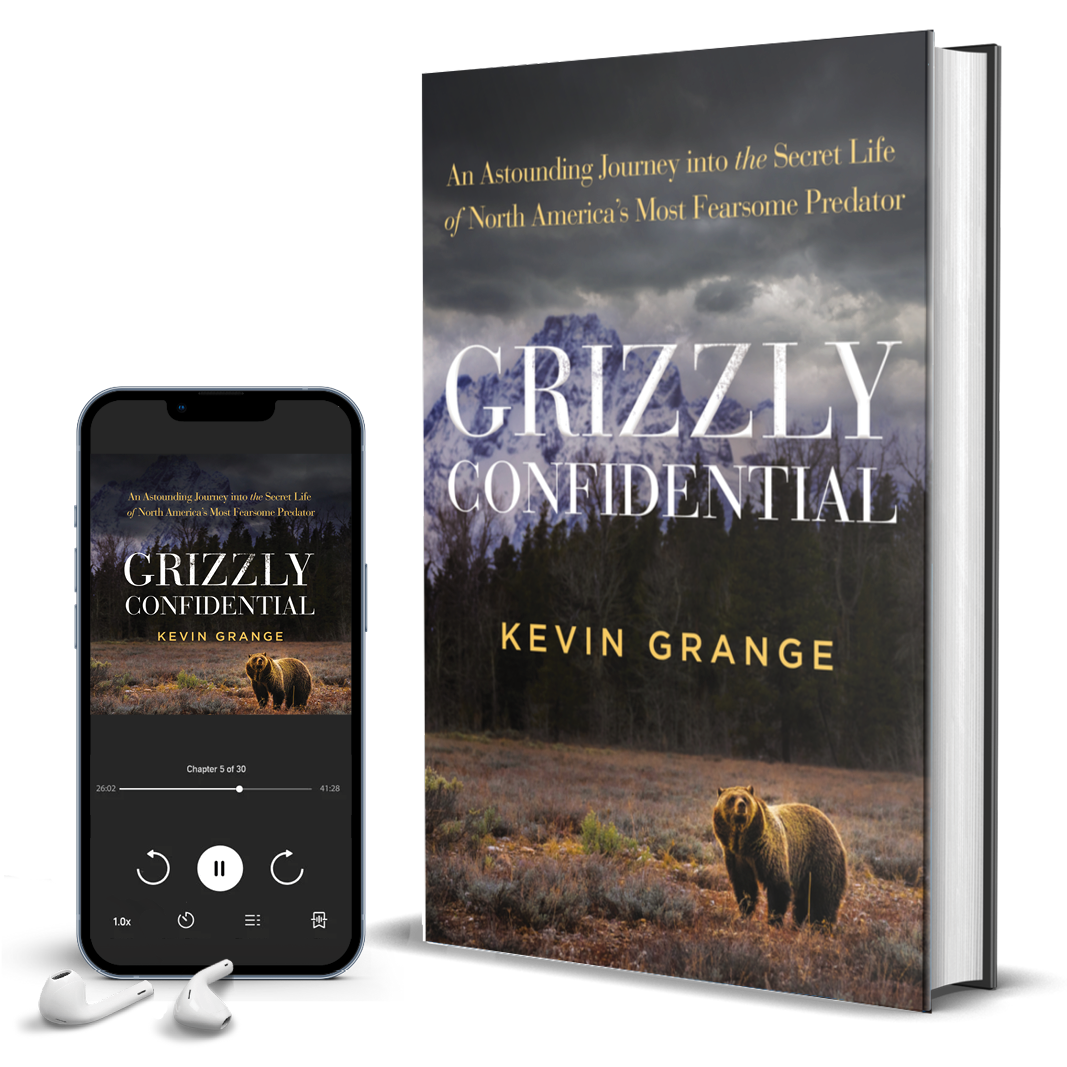
---
Photos courtesy of Kevin Grange
LISTEN & DOWNLOAD:
Apple Podcasts
Spotify
... or wherever you get your podcasts!
—
RESOURCES:
Topics Discussed:
- 4:00 - Intro and Kevin’s upbringing
- 5:45 - Favorite books as a kid
- 8:15 - First memories of grizzlies
- 9:15 - First encounter with a grizzly
- 11:30 - Becoming a National Park paramedic
- 13:45 - Types of emergencies in National Parks
- 15:00 - Idiotic tourist mistakes
- 16:45 - Balancing paramedic work with writing
- 19:30 - Why Grizzlies?
- 22:15 - How this book’s angle is different from other Grizzly books
- 26:20 - What’s the difference between a “Grizzly bear” and a “Brown bear”?
- 27:45 - Washington State University’s Bear Center
- 32:45 - Grizzly poaching
- 37:15 - Learning bear defense methods, including bear spray
- 41:15 - Basic backcountry safety in bear country
- 44:15 - Examples of good and bad coexistence strategies
- 48:15 - Debunking certain grizzly myths
- 52:45 - Continued learning about grizzlies
- 55:45 - How writing this book compares to the others
- 57:15 0 Favorite writers and books
- 59:30 - How has Kevin changed because of this project?
- 1:05:30 - Learning to switch gears after an intense paramedic experience
- 1:07:30 - Parting words of wisdom
Information Referenced:
- Kevin Grange
- Grizzly Confidential by Kevin Grange
- All of Kevin's Books
- Old Yeller by Fred Gipson
- Sounder by William Armstrong
- Where the Red Fern Grows by Wilson Rawls
- Thomas Mangelsen
- Morning Glory hotspring
- Grizzly 399
- Washington State University Bear Center
- Brooks Falls
- Nick Mott episode
- Todd Orr
- Surviving the Griz course
- McNeil Bear Sanctuary
- Fat Bear Week
- National Parks Magazine
- Eager by Ben Goldfarb
- The Devils Teeth by Susan Casey
- Peter Matthiessen
- Antoine de Saint-Exupéry
- Kevin Fedarko
- Pete McBride
- Kate Siber
- Stephanie Pearson
- On Writing by Stephen King
- The Soul of an Octopus by Sy Montgomery
- What a Fish Knows by Jonathan Balcombe
Enjoy this episode? Then you might like these too:
- Doug Peacock – 50 Years of Fighting for the Grizzlies
- Nick Mott - A Masterclass in Nuanced Storytelling
- 50 Years of the Endangered Species Act – Live in Austin
- Corissa Busse – Tribal-Led Buffalo Restoration in the American West and Beyond
- Dr. Sara Dant Returns – “Losing Eden: An Environmental History of the American West”
- Pete McBride Returns – Exploring & Documenting His Backyard River
Visit the podcast page for a full, searchable list of episodes

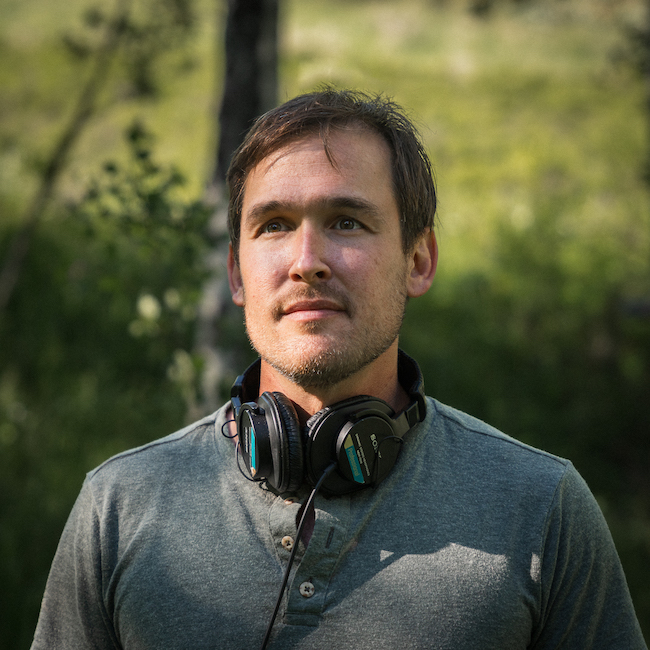
(Photo: Zach Altman)
Nick Mott is an award-winning multimedia journalist who lives in Livingston, Montana. His latest project is a wonderful new podcast called The Wide Open, which he produced in collaboration with Montana Public Radio and the Montana Media Lab. The podcast offers a fresh look into our ever-changing relationship with the Endangered Species Act (ESA), and it digs into the history, nuance, and modern-day controversies surrounding what has been called “the most powerful environmental legislation in the world.” Nick explores this divisive topic with deep curiosity and journalistic integrity, and I found the podcast to be amazingly educational and entertaining– which is a rare combo when discussing such a complex piece of legislation.
If you’re a longtime Mountain & Prairie listener, then many of the topics Nick explores in The Wide Open will be of great interest– grizzly bears, wolves, the environmental history of the West, and more. You’ll also hear a few familiar voices, including past podcast guest and living legend Doug Peacock. But what I most appreciated about The Wide Open is how Nick was able to humanize the stories surrounding such a divisive part of Western culture– he features people who love the ESA and people who hate it, but all of them are given the opportunity to share their stories and unique outlooks. In this current cultural moment of hot takes, outrage, and misinformation, The Wide Open is a much-needed return to nuance, curiosity, and civility.
As you’d expect from an award-winning podcaster, Nick knows how to tell a great story, so I know you’ll enjoy this episode. We start out discussing the history of the ESA and Nick’s fresh approach to exploring such a well-known environmental story. We discuss how the ESA is used as a tool to achieve goals other than species protection, how Nick balances the need to make his podcasts both informative and fun to listen to, how he accounts for his own personal biases when telling stories, and how he goes about choosing people to interview. About halfway through the episode, Nick recounts a horrifying recent run-in he had with a grizzly bear, and he discusses how that close call affected his thinking on some of these complex wildlife issues. We also discuss his favorite books, plans for future seasons of The Wide Open, how he deals with negative feedback, wolf reintroduction in Colorado, his professional heroes, and much more.
Be sure to check out the episode notes for links to everything, including Nick’s other podcasts and his book This is Wildfire, which he co-authored with Justin Angle.
A big thanks to Nick for taking the time, thank you for listening, and please subscribe to The Wide Open– I know you’ll really enjoy it!
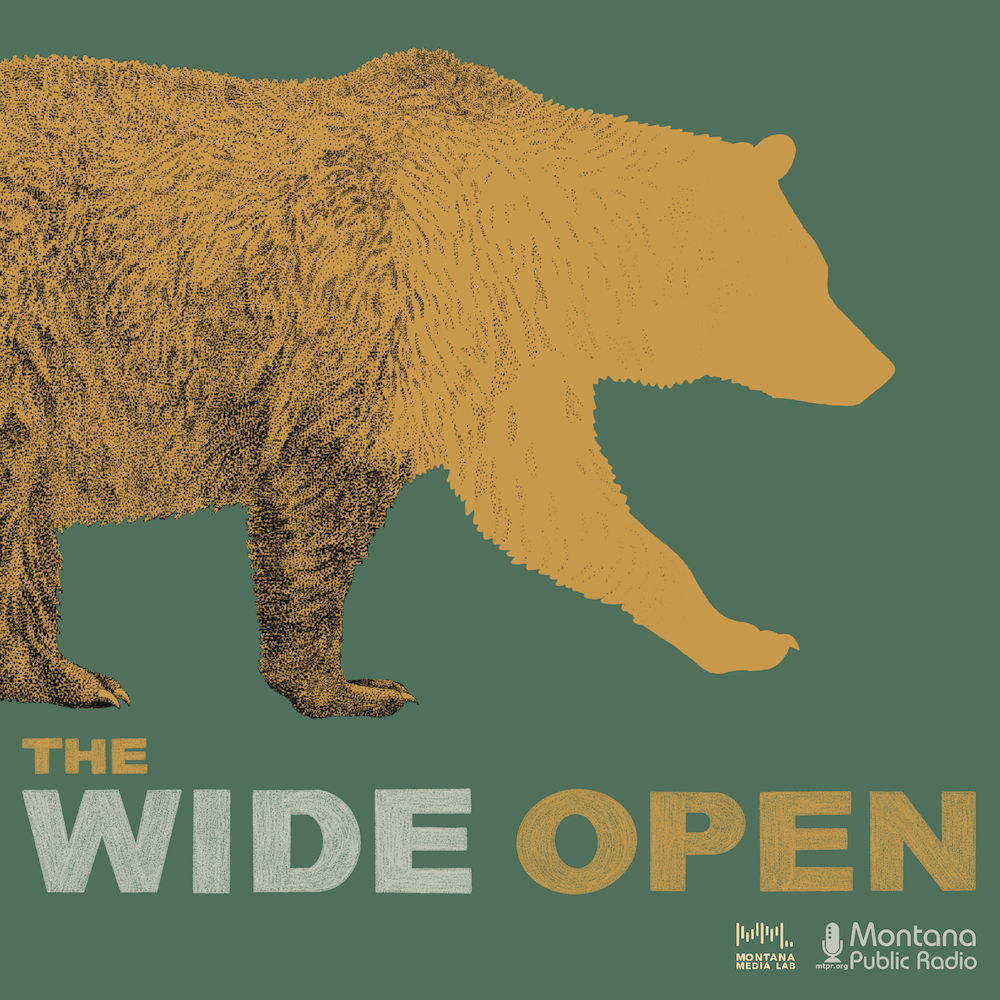
---
Photos by Zach Altman
LISTEN & DOWNLOAD:
Apple Podcasts
Spotify
... or wherever you get your podcasts!
—
RESOURCES:
Topics Discussed:
- 3:50 - What attracts Nick to specific stories or topics?
- 6:30 - Nick describes his new approach to examining the ESA.
- 8:30 - A brief history of the ESA
- 11:35 - Using the ESA as a tool to save species OR achieve other goals
- 16:00 - How Nick chooses people to interview and include on the podcast
- 19:15 - Balancing telling stories that are both entertaining and substantive
- 22:50 - Accounting for bias in journalism
- 24:45 - Why Nick includes his own story in the podcast narrative
- 27:30 - Introvert or extrovert?
- 28:50 - Did Nick change his mind on anything related to the ESA?
- 31:30 - How the internet has inflamed the divisiveness of the ESA
- 33:00 - Nick’s recent terrifying encounter with a grizzly
- 39:00 - The psychological aftermath of the grizzly scare
- 44:45 - Providing a framework for thinking about wolf reintroduction in Colorado
- 49:00 - People Nick admires
- 53:00 - What type of journalism does Nick like the best?
- 55:00 - Future seasons of The Wide Open?
- 56:45 - People Nick admires
- 1:00:00 - Favorite books
- 1:02:00 - Dealing with negative feedback
- 1:04:00 - Parting words of wisdom
Information Referenced:
- Nick Mott
- The Wide Open
- Fireline podcast
- This is Wildfire by Nick Mott and Justin Angle
- Endangered Species Act
- Doug Brinkley
- Rachel Carson
- Tennessee Valley Authority
- Snail darter
- NOLS
- The Final Forest by William Dietrich
- Doug Peacock
- Daniel Anderson
- Amy Martin
- Threshold
- This American Life
- RadioLab
- Jon Ronson books
- Wild Ones by Jon Mooallem
- The Sixth Extinction by Elizabeth Kolbert
Enjoy this episode? Then you might like these too:
- 50 Years of the Endangered Species Act – Live in Austin
- Kristine Tompkins – Nothing to Lose
- Doug Peacock – 50 Years of Fighting for the Grizzlies
- Corissa Busse – Tribal-Led Buffalo Restoration in the American West and Beyond
- Douglas Brinkley – Exploring the Past to Find Inspiration for the Future
- Dr. Sara Dant Returns – “Losing Eden: An Environmental History of the American West”
- “Good Fire, Bad Fire” – A Film and Discussion about Forest Health
- Pete McBride Returns – Exploring & Documenting His Backyard River
Visit the podcast page for a full, searchable list of episodes


Mauricia Baca is the State Director of the Nevada Chapter of The Nature Conservancy. In this role, she leads TNC’s efforts in Nevada across a wide range of conservation issues that are familiar to Mountain & Prairie listeners– the Colorado River, the Sagebrush Sea, and renewable energy. But Nevada is also home to some very unique conservation challenges related to biodiversity, mining for rare earth metals, groundwater for agriculture, and more. So I was excited to have this opportunity to learn from Mauricia about some of the specific challenges facing Nevada, TNC’s solutions to these challenges, and how the lessons learned can be applied in other regions of the West.
Mauricia was born in Mexico, grew up in New York City, and credits much of her love of nature and the environment to her childhood experiences exploring Central Park. After college, she served in the Peace Corps, worked as a community organizer in New York, and eventually attended law school. After four years of working as a prosecutor for the United States Department of Justice’s Environment and Natural Resources Division, she moved to Nevada and began her first position with The Nature Conservancy, leading conservation work on the Truckee River. She has served as the State Director since November 2020, and, as you’ll hear, all of her efforts are infused with a deep level of compassion, empathy, and gratitude.
Mauricia has such a fascinating personal and professional trajectory, and there are many lessons to be learned from both her approach to her life and career, and the specifics of TNC’s critical work in Nevada. We talked about her youth in Mexico and New York City, and how she has been committed to environmental work since she was a very young girl. We discuss her stint in the Peace Corps and how those experiences laid the groundwork for her current work with TNC. She shares some insights from switching from the litigation world to the conservation world, and she offers some wisdom for folks looking to make a similar transition. We discuss lithium mining, groundwater conservation, and climate change, and how TNC is making strides to protect biodiversity while balancing society's growing need for rare earth metals, water, and development. She also shares some wisdom gleaned from her recent battle with breast cancer, and discusses how her approach to work has changed since that life-altering health scare.
A big thanks to Mauricia for being so open and thoughtful, and for sharing so many wonderful insights from her inspiring career. Be sure to check out the episode notes below for links to everything we discussed and to watch Mauricia's recent TEDx talk, which serves as a great companion to this interview. Enjoy!
Header photo © Chip Carroon/TNC, headshot © The Nature Conservancy
LISTEN & DOWNLOAD:
Apple Podcasts
Spotify
…or wherever you get your podcasts!
EPISODE PARTNER:

This episode is brought to you in partnership with the Colorado chapter of The Nature Conservancy and TNC chapters throughout the Western United States. Guided by science and grounded by decades of collaborative partnerships, The Nature Conservancy has a long-standing legacy of achieving lasting results to create a world where nature and people thrive.
On the last Tuesday of every month throughout 2024, Mountain & Prairie will be delving into conversations with a wide range of The Nature Conservancy’s leaders, partners, collaborators, and stakeholders, highlighting the myriad of conservation challenges, opportunities, and solutions here in the American West and beyond. You can access all of the episodes here.
To learn more about The Nature Conservancy’s impactful work in the West and around the world, visit www.nature.org
RESOURCES:
Topics Discussed:
- 4:00 - Mauricia’s upbringing and early years in Mexico and New York City
- 7:00 - When she knew she wanted to devote her career to environmental work
- 9:15 - Legal training as thought training
- 11:45 - How the Peace Corps and other experiences helped her learn to build trust and relationships
- 16:45 - When TNC entered Mauricia’s life as a next career step
- 19:45 - More details on how she was able to land her first job with TNC
- 24:00 - Career evolution within TNC
- 26:00 - Starting as TNC State Director at the beginning of the pandemic
- 28:45 - Tackling climate-related challenges in Nevada and beyond
- 34:00 - The Atwood Preserve and the quiet beauty of the Mojave Desert
- 39:00 - TNC’s work to preserve biodiversity in the face of lithium mining
- 43:45 - The importance of groundwater for Nevada’s ag sector
- 49:00 - Working in partnership with Tribal communities
- 54:00 - Thinking locally and acting globally
- 56:00 - Lessons learned from Mauricia’s recent cancer scare
- 1:03:30 - Favorite books
- 1:06:00 - Parting words of wisdom
Information Referenced:
- Mauricia Baca
- The Nature Conservancy in Nevada
- TNC Nevada’s 40th Anniversary
- Mauricia’s TEDx talk
- The Sagebrush Sea
- The Colorado River
- Secrets of the Mojave
- TNC’s work on groundwater
- TNC’s lithium report
- Power of Place-West
- Mining the Sun
- Peace Corps
- Department of Justice’s Environment and Natural Resources Division
- Truckee River
- Get Outdoors Nevada
- Atwood Preserve
- Amargosa River
- Ash Meadows
- How the nation’s driest state is using cash to free up water The Washington Post
- Celene and Izabella episode
- Silent Spring by Rachel Carson
- Dumping in Dixie by Robert Bullard
- Gabriel García Márquez
- Isabel Allende
- The House of the Spirits by Isabel Allende
- Cloud Cuckoo Land by Anthony Doerr
Enjoy this episode? Then you might like these too:
- Pete McBride Returns – Exploring & Documenting His Backyard River
- Dan Stellar – Bolstering Biodiversity in Arizona and Beyond
- Kate Mannix – A Legacy of Land Stewardship
- Matt Pierson – Finding New Solutions for Food Insecurity
- Douglas Brinkley – Exploring the Past to Find Inspiration for the Future
- Dr. Sara Dant Returns – “Losing Eden: An Environmental History of the American West”
Visit the podcast page for a full list of episodes where you can filter episodes by topic and guests' vocations.

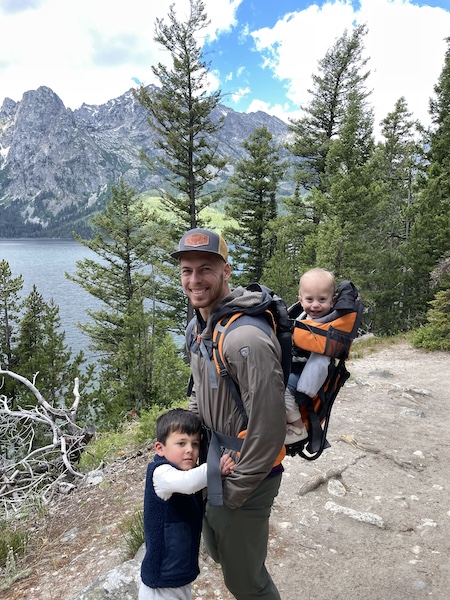
Joe Schobert is a retired NFL Pro Bowler who is devoting the second act of his professional career to advocating for the West’s wild places.
Joe was born and raised in Wisconsin, and despite having an exemplary high school football career, he was not offered a scholarship to play college football. So he took matters into his own hands and walked on at the University of Wisconsin– four years later, he was awarded the Jack Lambert Trophy as the nation’s best linebacker. He was then drafted by the Cleveland Browns, and a few years later, he earned a spot on the NFL’s Pro Bowl team. After a successful career with teams including the Browns, Jaguars, and Steelers, Joe recently retired and is leaning into the next phase of his career.
Since childhood, Joe has loved the outdoors and wide-open spaces. During his time with the Browns, he began leveraging his influence and resources to raise awareness and funds for conservation-focused organizations. Through an NFL fundraising initiative called “My Cause, My Cleats,” he spotlighted several Colorado-based conservation organizations on the NFL’s international stage. Back in 2021, his non-profit of choice was my old employer, Palmer Land Conservancy, and before that, he supported the Colorado Fourteeners Initiative. His most recent fundraiser is called the NFLPA Fishing for Conservation, which was created to raise funds for the amazing team at Western Rivers Conservancy.
As you’ll hear in this conversation, Joe loves the West, loves hiking, fishing, and outdoor adventure, and loves exploring wild places with his wife Megan and their two young sons. He also understands and appreciates the wide range of threats facing everything from family farms and ranches to public lands to river ecosystems, and he is committed to doing his part to protect these invaluable resources. So in this conversation, we talk about it all– from Joe’s inspiring journey at the highest levels of professional athletics all the way up to this summer’s first annual Fishing for Conservation, which took place at Lake Tahoe. At his core, Joe is a focused, humble, and action-oriented guy, and it was such a treat to learn the origins of his talents and how he has applied those talents to both football and conservation.
A huge thanks to Joe for joining me for a chat, and for his years-long commitment to western conservation. Enjoy!
---
Photos courtesy of Joe Schobert
LISTEN & DOWNLOAD:
Apple Podcasts
Spotify
... or wherever you get your podcasts!
—
RESOURCES:
Topics Discussed:
- 3:20 - Joe’s upbringing
- 6:15 - When it became clear that Joe was a talented athlete
- 9:30 - Discussing how, despite his clear talent, Joe did not receive an athletic scholarship to college, and how he pushed past that
- 18:15 - When Joe arrived at the University of Wisconsin
- 20:15 - What Joe is most proud of doing at Wisconsin
- 22:15 - Whether or not there was room for other activities (besides school and football) during Joe’s college experience
- 25:00 - When the NFL became a possibility for Joe
- 26:30 - How Joe chose an agent
- 29:45 - Discussing the Combine
- 32:30 - Discussing the NFL Draft
- 35:15 - Discussing training camp with the Browns
- 37:30 - Joe describes the training camp balance between preparing to work as a team but also working against teammates for a spot on the roster
- 39:00 - The importance of “intangibles” and “soft skills” in the NFL
- 40:45 - When conservation entered Joe’s brain, and how he ended up in Colorado
- 50:00 - Joe’s nonprofit, and the conservation fundraiser he held in Lake Tahoe
- 55:15 - Joe’s recent river trip in Montana
- 58:00 - Joe’s retirement and family life
- 1:00:30 - Joe’s book recommendations
- 1:03:15 - Discussing the need for action
- 1:06:00 - Joe’s parting words of wisdom
Information Referenced:
- Joe Schobert
- Jim Leonhard
- J.J. Watt
- Athletes First LLC
- NFL Combine
- Von Miller
- Miles Garrett
- Muskie
- Colorado Fourteeners Initiative
- Palmer Land Conservancy
- My Cause, My Cleats
- Western Rivers Conservancy
- Bob Marshall Wilderness
- Schotime Dance Center
- Deep Creek by Pam Houston
- The Riyria Revelations by Michael Sullivan
Enjoy this episode? Then you might like these too:
- Rick Ridgeway – Purpose-Driven Adventurer
- Dylan Tomine – Protecting What He Loves
- Luke Smithwick – A Life in High Places
- Brendan Leonard, Part 2 – On Running, Creating, and Other Irrational Passions
- Mike Foote – Perfection is in the Process
- Chris Burkard – The Art of Suffering
- Nick Offerman – Empathy, Nuance, & Good Hard Work
- Kristine Tompkins – Nothing to Lose
Visit the podcast page for a full, searchable list of episodes

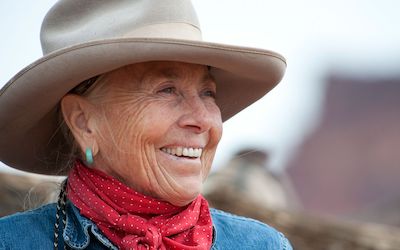
Heidi Redd is a renowned rancher, conservationist, author, and member of the National Cowgirl Museum’s Hall of Fame. Sue Bellagamba serves as Canyonlands Regional Director at the Nature Conservancy, and for more than thirty years, she has worked to protect the lands and waters of southeastern Utah.
Heidi and TNC have been partners since 1997 when Heidi sold her family’s Utah ranch– The Dugout Ranch– to the Nature Conservancy in a historic conservation deal that protected the property from impending development. The Dugout Ranch is located at the gateway to Canyonlands National Park and sits within the boundaries of what is now Bears Ears National Monument– a fragile and arid landscape that has faced various development and environmental threats for many decades.
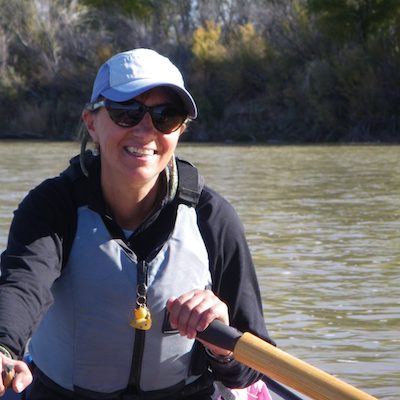
Heidi and Sue have worked together in many capacities over the years, with one of their most notable achievements being the creation of The Canyonlands Research Center (“CRC”), which is headquartered at the Dugout Ranch. The CRC was founded in 2010, and its mission is to “promote a sustainable future on the Colorado Plateau for people and nature through research, inspiration, and demonstration of evidence-based solutions to solve some of our most pressing ecological, social, and economic issues.”
Heidi is also the author of the excellent new book titled A Cowgirl's Conservation Journey: Stories from the Dugout Ranch. The book details her fascinating and adventurous life, with tales ranging from her youth (which included lots of rock climbing and skydiving), to her early years on the Dugout Ranch, all the way up to some recent behind-the-scenes stories from the designation of Bears Ears as a National Monument. If you’re a fan of history, adventure, ranching, conservation, and purpose-driven people, I know you’ll enjoy the book.
We covered a lot in the episode, including Heidi’s upbringing, her first visit to the Dugout Ranch, and when she knew that she would devote her life to stewarding the Dugout’s spectacular landscapes. Sue provides some excellent context around conservation in the American Southwest, and why drylands are such a critical ecosystem and focus of TNC’s efforts. We discuss how TNC initially built trust with Heidi back in the 1990s, the creation of The Canyonlands Research Center, new insights Heidi gleaned from writing her book, and much more. Be sure to visit the episode notes for links to everything we discuss, including Heidi’s book.
A huge thanks to Heidi and Sue for taking the time to chat with me and share their wisdom from so many decades of conversation work in such a special part of the country. Enjoy!
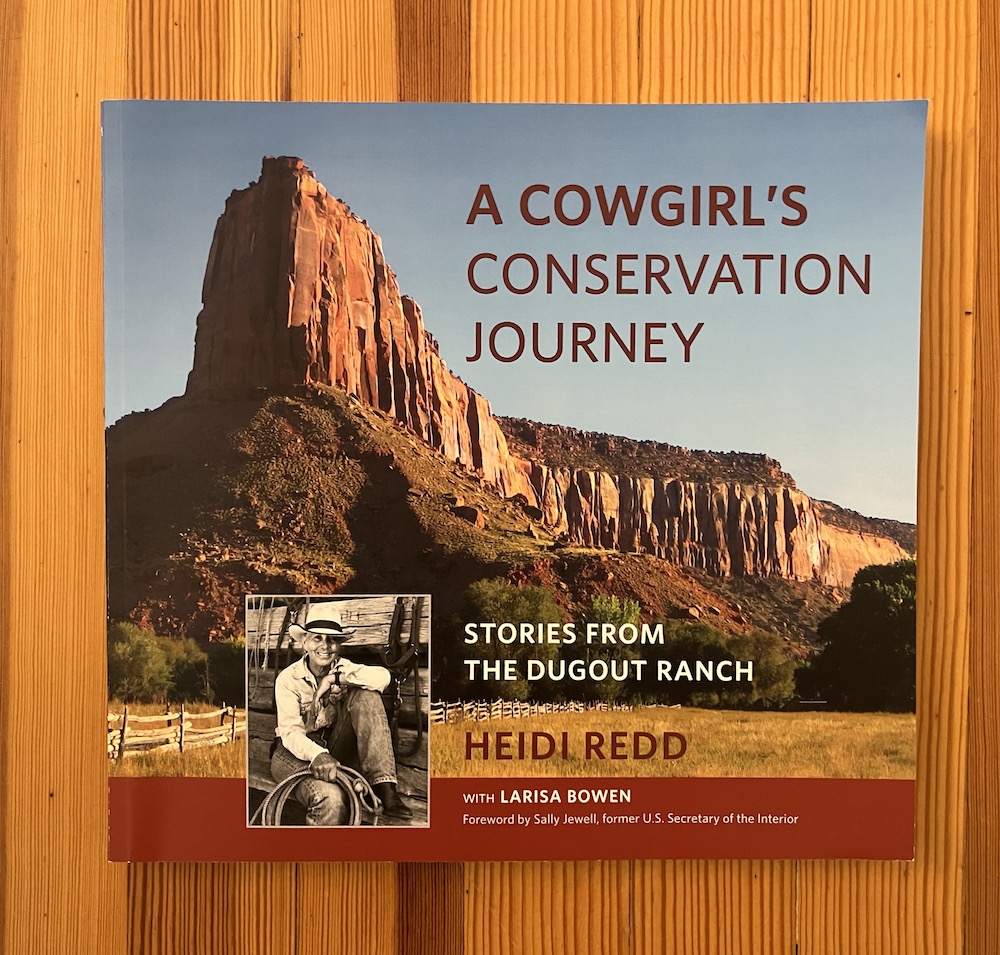
Photos courtesy of The Nature Conservancy, header photo and Heidi's headshot © Ted Wood
LISTEN & DOWNLOAD:
Apple Podcasts
Spotify
…or wherever you get your podcasts!
EPISODE PARTNER:

This episode is brought to you in partnership with the Colorado chapter of The Nature Conservancy and TNC chapters throughout the Western United States. Guided by science and grounded by decades of collaborative partnerships, The Nature Conservancy has a long-standing legacy of achieving lasting results to create a world where nature and people thrive.
On the last Tuesday of every month throughout 2024, Mountain & Prairie will be delving into conversations with a wide range of The Nature Conservancy’s leaders, partners, collaborators, and stakeholders, highlighting the myriad of conservation challenges, opportunities, and solutions here in the American West and beyond. You can access all of the episodes here.
To learn more about The Nature Conservancy’s impactful work in the West and around the world, visit www.nature.org
RESOURCES:
Topics Discussed:
- 4:00 - Heidi’s upbringing
- 7:15 - Heidi describes the Dugout Ranch
- 13:30 - When Heidi knew she wanted to dedicate her life to the Dugout Ranch and surrounding area
- 16:00 - When Heidi took the reins of the Dugout
- 20:45 - When Heidi became interested in working with TNC
- 24:30 - Why Heidi trusted TNC
- 26:45 - Sue explains why TNC wanted to get involved with the Dugout Ranch and what their plan was once they purchased it
- 30:15 - Sue explains the mission and purpose of the Canyonlands Research Center
- 32:15 - When climate change got on Heidi’s radar
- 37:45 - How Heidi discusses climate change, given our political climate
- 41:30 - Sue explains why drylands are so important
- 44:00 - Heidi and Sue explain the impact of the political battle surrounding Bears Ears on their work
- 50:30 - Heidi discusses whether or not writing her book helped her come to new conclusions
- 54:00 - Heidi’s hopes for her family
- 55:30 - Heidi and Sue’s book recommendations
- 59:45 - Parting words of wisdom
Information Referenced:
- A Cowgirl’s Conservation Journey by Heidi Redd
- The Dugout Ranch
- Heidi’s Cowgirl Hall of Fame induction video
- Canyonlands Research Center
- Cisco (fish)
- Canyonlands Field Institute
- Abajo Mountains UT
- Senator Rob Bishop
- Secretary of the Interior Sally Jewell
- Desert Solitaire by Edward Abbey
- Book of the Hopi by Frank Waters
- Blow Sand in His Soul: Bates Wilson, the Heart of Canyonlands by Jen Jackson Quintano
- Beyond the Hundredth Meridian by Wallace Stegner
Enjoy this episode? Then you might like these too:
- Kristine Tompkins – Nothing to Lose
- Jenna Pollard – Timber Framing, Organic Farming, Community, and Purpose
- Corissa Busse – Tribal-Led Buffalo Restoration in the American West and Beyond
- Anna Borgman – Obsession, Curiosity, and Purpose-Driven Work
- Lorelei Cloud – Solving Modern-Day Challenges with Ancient Tribal Wisdom
- Dr. Katharine Hayhoe – Effecting Change Through Authentic Conversation
Visit the podcast page for a full list of episodes where you can filter episodes by topic and guests' vocations.

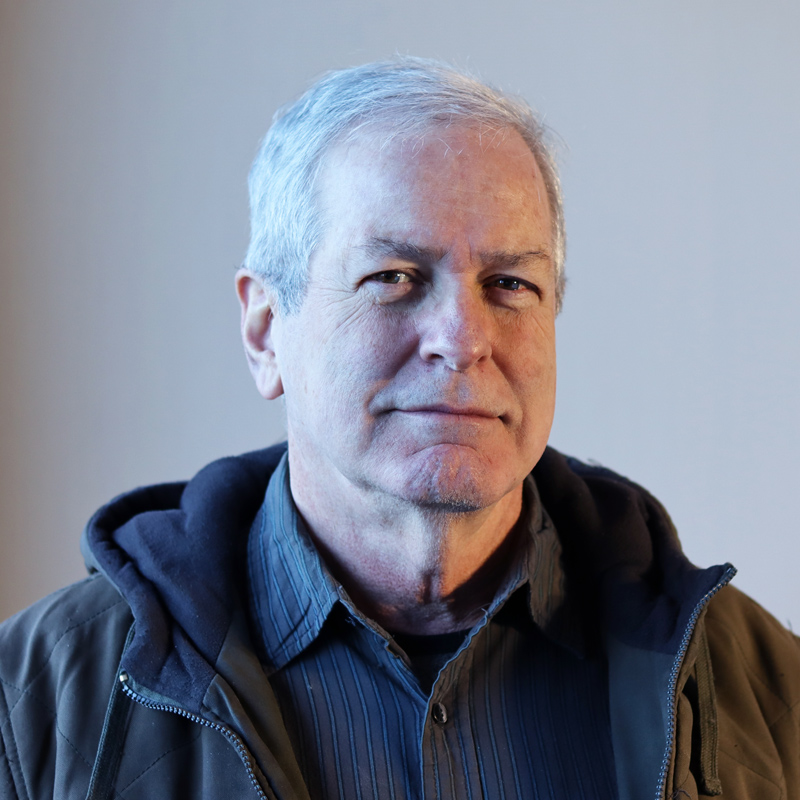
Curt Meine is a Senior Fellow at The Aldo Leopold Foundation and one of the world’s foremost experts on the life, work, and legacy of conservation icon Aldo Leopold. Curt is the author of the biography Aldo Leopold: His Life and Work, and he also works as a conservation biologist, a professor, a senior fellow with the Center for Humans and Nature, and much more.
Since the very beginning of Mountain & Prairie, Aldo Leopold has been one of the most referenced, admired, and influential conservation thinkers whose name and ideas have been referenced over and over on the podcast. Whether I’m talking to people in agriculture or entertainment, writing or athletics, history or politics, there always seems to be a thread of thinking that connects many Mountain and Prairie guests to the Land Ethic of Aldo Leopold.
So, I was long overdue in devoting an episode exclusively to Leopold, and I was thrilled to have the opportunity to chat with Curt, one of our most admired and trusted Leopold scholars. Whether you are brand new to the work of Leopold or you’ve read A Sand County Almanac a hundred times, I think you’ll learn a lot from this episode. Curt has a real gift for discussing the details of Leopold’s life in an amazingly engaging way, while also helping us to understand Leopold’s legacy in the context of the broad history of North American conservation.
We start the conversation with an overview of Leopold’s early years and upbringing, and his eventual enrollment in the Yale School of Forestry. We discuss Leopold’s formative years in the American Southwest, how his outside-the-box ideas about wildlife sometimes clashed with the status quo, and his eventual move back to Wisconsin. We talk a lot about Leopold’s personality and how it compares to other conservation icons, how his work was received both in his lifetime and after his death, his surprising challenges finding a publisher for A Sand County Almanac, and that book’s long-lasting influence. We also discuss criticisms of Leopold’s work, some of his ideas that may not hold up as well today as they did in their time, and Leopold’s abundant curiosity and willingness to change his mind. We also discuss books, the very important work of the Aldo Leopold Foundation, and much more.
Be sure to check out the episode notes for a full list of topics and links to everything. And also, I want to thank my friend, the great conservationist and all-around amazing human Doug Duren for so generously introducing me to the team at The Aldo Leopold Foundation and being such a steadfast champion of Leoplod’s legacy.
Thanks for listening, hope you enjoy.
---
Photos courtesy of Wikipedia and The Aldo Leopold Foundation
LISTEN & DOWNLOAD:
Apple Podcasts
Spotify
... or wherever you get your podcasts!
—
RESOURCES:
Topics Discussed:
- 3:45 - Aldo Leopold’s upbringing
- 11:15 - Leopold’s work in the Southwest
- 16:30 - How Leopold’s persona may or may not have helped (or harmed) him in his efforts to implement conservation
- 20:!5 - What brought Leopold back to his home state of Wisconsin
- 22:45 - How Leopold’s novel ideas for wildlife management were received by the Forest Service establishment
- 26:45 - How Leopold’s ideas influenced forestry and conservation thinking outside of the Forest Service, and whether or not this influenced FDR’s conservation work
- 32:45 - Whether or not Leopold ever lost his cool in his fight to change land stewardship thinking in the US
- 37:00 - Discussing A Sand County Almanac, and how long it took to be viewed as the influential work it is considered by many to be today
- 43:15 - Leopold’s passion for, and balance between, science and art
- 45:45 - Which of Leopold’s stances or ideas do not hold up today
- 50:45 - Leopold’s willingness to accept change and criticism, and its importance today
- 53:15 - An overview of the Aldo Leopold Foundation
- 57:45 - Curt’s book recommendations
- 1:01:30 - Curt’s parting words of wisdom
Information Referenced:
- Curt Meine
- Aldo Leopold - His Life & Work by Curt Meine
- Aldo Leopold Foundation
- Nick Offerman
- Sauk Tribe
- Meskwaki Tribe
- Apache-Sitgreaves National Forest
- Douglas Brinkley
- A Sand County Almanac by Aldo Leopold
- Silent Spring by Rachel Carson
- The Meadow by James Galvin
- Wendell Berry
- Gary Snyder
- Terry Tempest Williams
- Robin Wall Kimmerer
- The Center for Humans and Nature
- Beloved Beasts by Michelle Nijhuis
- Gary Paul Nabhan
- Braiding Sweetgrass by Robin Wall Kimmerer
- Gathering Moss by Robin Wall Kimmerer
Enjoy this episode? Then you might like these too:
- Nick Offerman – Empathy, Nuance, & Good Hard Work
- Douglas Brinkley – Exploring the Past to Find Inspiration for the Future
- Dr. Sara Dant Returns – “Losing Eden: An Environmental History of the American West”
- Doug Peacock – 50 Years of Fighting for the Grizzlies
- Hampton Sides – Live at the Aspen Institute
- David Gessner, Part 3 – A Confluence of Conservation Ideals
- Rebecca Clarren – “The Cost of Free Land”
Visit the podcast page for a full, searchable list of episodes

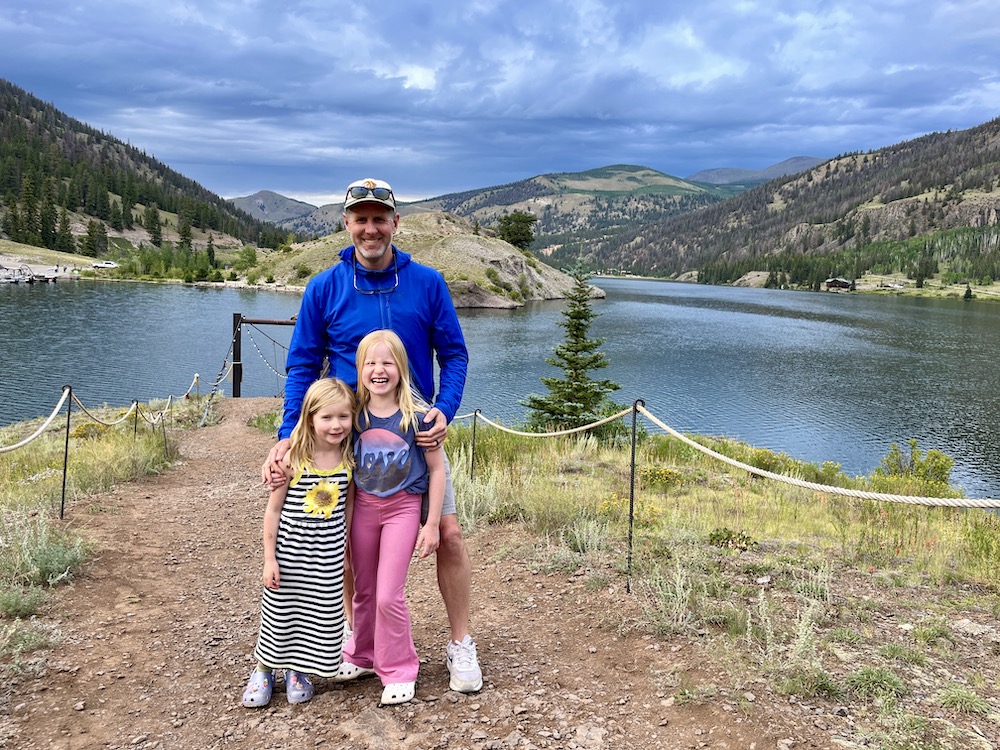
This is a completely different kind of episode, featuring a fun and at times crazy conversation with my two daughters, Janie and Louise.
Back in June, we were eating dinner when, out of the blue, both girls expressed an enthusiastic interest in being guests on the podcast. So the next day, we set up the podcast gear at our dining room table, sat down, and had what I thought was a funny conversation.
Both girls were surprisingly relaxed and acting pretty naturally despite having microphones jammed up in their faces, and I thought that the conversation highlighted their personalities, curiosities, and senses of humor. But I fully understand and admit that I am about as biased as any human can be when it comes to these two girls, so you can take my opinion with a grain of salt.
As you’ll hear, we jammed a lot of crazy topics into thirty minutes, including: camping, what makes for an ideal campground, their understanding of conservation, violin, rock climbing, jiu-jitsu, North Carolina versus the American West, the Biltmore House, silly 19th-century rules about girls wearing bathing suits, Costa Rica, Alcatraz, drunk people, earthquakes and tsunamis, our favorite secret spot in Colorado, favorite books, commentary on my choice of shirts and underwear, and more topics you probably never thought you’d hear on Mountain & Prairie. I also asked them each to prepare a question to ask me, and one of them involved the unexpected topic of me getting into a fight with a wild animal– a subject I’d never really considered in detail.
Anyway, I appreciate you humoring me with this episode. It was fun for the girls, fun for me, and my wife Kim and I will be happy to have this audio time capsule years from now when they are out of the house, living their own lives, and having their own adventures.
Next week, we’ll be back to the normal episodes featuring grown-ups. I’ve got a great line-up of conversations coming your way, including a deep dive into Aldo Leopold’s life and work, a conversation with a Canyonlands conservation/cowgirl/ranching living legend, and live interviews from the Old Salt Festival.
Thanks for listening, and hope you get a few chuckles from this conversation with Janie and Louise.
LISTEN & DOWNLOAD:
Apple Podcasts
Spotify
... or wherever you get your podcasts!
Looking for episodes that feature adults? Then check these out:
- Nick Offerman – Empathy, Nuance, & Good Hard Work
- Kristine Tompkins – Nothing to Lose
- Pete McBride Returns – Exploring & Documenting His Backyard River
- Douglas Brinkley – Exploring the Past to Find Inspiration for the Future
- Sandy Colhoun – Building Leaders Through Outdoor Education
- Kami Bakken – How to Build a Life and Career in the West’s Wide-Open Spaces
- Jenna Pollard – Timber Framing, Organic Farming, Community, and Purpose
Visit the podcast page for a full, searchable list of episodes

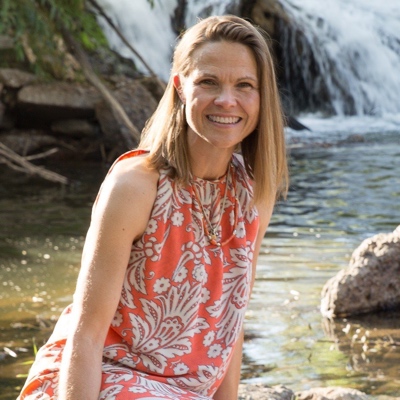
Nancy Smith is the Conservation Director for The Nature Conservancy’s Colorado River Program, and Austin Rempel is the Riparian Restoration Program Manager at The Nature Conservancy. Both Nancy and Austin are working on the front lines of some of the West’s most innovative water and habitat conservation projects– projects that benefit everything from groundwater supplies to wildlife habitat, climate resiliency to ecosystem health.
If you’ve listened to many of these TNC-focused episodes, then you’ll know that TNC works extensively throughout the Colorado River Basin on a wide range of conservation issues that affect people, wildlife, and landscapes. In this episode, we’re going to zoom in on one very specific, very simple, and very effective process that has the potential to have massive positive impacts on ecosystem health throughout the West.
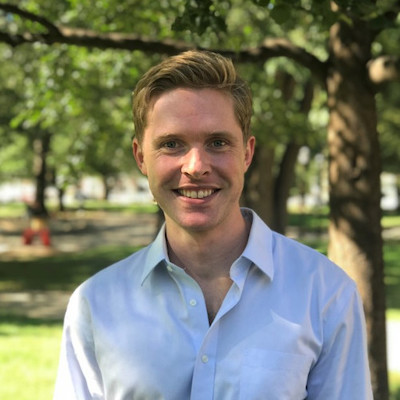
The process is called “low-tech process-based restoration,” which is the practice of adding simple, low-cost structures made of natural materials like rocks, wood, and posts to simulate natural processes like beaver dams in streams and wetlands, kick-starting natural cycles of recovery. These structures require minimal permitting, can be built quickly by hand without heavy equipment, use locally sourced materials, and can be installed by local workers who do not need extensive training. The end result creates surprisingly effective outcomes that can be scaled quickly across vast stretches of the West.
We recorded this conversation the day after Colorado River Day, which was a fitting time to highlight such an important project and process. We started out by discussing how this project came to be, which involved a significant amount of funding from the Inflation Reduction Act. We discuss how rivers have historically looked in the West versus how they look now, as well as the ecological complexities of riverscapes and riparian corridors. We then dig into the details of “low-tech process-based restoration”-- timelines, challenges, opportunities, partnerships, and measuring success. We also talk about beavers, shifting cultural norms around conservation, overlaps between forest and riparian restoration, favorite books, and much more.
As you’ll hear, Nancy and Austin provide such an excellent overview of several varieties of low-tech process-based restoration. But for those of you who want to dig deeper into details of the various processes and case studies, they’ve provided me with extensive additional resources that you can access in the episode notes. I’d also encourage you to check out the short film embedded on the episode’s webpage, which will give you a visual overview of the process and its results.
A big thanks to Nancy and Austin for the fun conversation, and thank you for listening.
Photos courtesy of The Nature Conservancy, header photo © Jeremy Roberts
LISTEN & DOWNLOAD:
Apple Podcasts
Spotify
…or wherever you get your podcasts!
EPISODE PARTNER:

This episode is brought to you in partnership with the Colorado chapter of The Nature Conservancy and TNC chapters throughout the Western United States. Guided by science and grounded by decades of collaborative partnerships, The Nature Conservancy has a long-standing legacy of achieving lasting results to create a world where nature and people thrive.
On the last Tuesday of every month throughout 2024, Mountain & Prairie will be delving into conversations with a wide range of The Nature Conservancy’s leaders, partners, collaborators, and stakeholders, highlighting the myriad of conservation challenges, opportunities, and solutions here in the American West and beyond. You can access all of the episodes here.
To learn more about The Nature Conservancy’s impactful work in the West and around the world, visit www.nature.org
RESOURCES:
Topics Discussed:
- 4:00 - Nancy’s intro
- 5:26 - Austin’s intro
- 7:15 - The impact of wet upland meadows on the Colorado River (Nancy)
- 10:00 - How the Inflation Reduction Act has funded TNC’s important partnership work (Nancy)
- 13:30 - Defining the low-tech, process-based, restoration (LTPBR) involved in this project (Austin)
- 16:30 - What meadows have historically looked like in the American West (Austin and Nancy)
- 21:00 - Describing more of the structures TNC uses in this work, like beaver dam analogs (Austin)
- 26:30 - What kind of land TNC does this restoration work on (Austin)
- 29:30 - How long this work takes (Austin and Nancy)
- 33:30 - What success will look like for this work (Nancy)
- 37:30 - How LTPBRs help empower crucial work by being simple
- 40:45 - What could make or break this project (Austin and Nancy)
- 44:00 - TNC’s ability to balance innovation with responsible stewardship of funding (Nancy)
- 46:30 - Overlaps between river and forest restoration (Austin)
- 50:30 - What would make a good staff member for this work
- 55:45 - Nancy’s book recommendations
- 57:00 - Austin’s book recommendations
- 59:18 - Nancy’s parting words of wisdom
- 1:00:10 - Austin’s parting words of wisdom
Information Referenced:
- Nancy Smith
- Austin Rempel
- Other approaches to low-tech process-based restoration
- Rob Addington
- Matt Cahill
- Inflation Reduction Act
- Trout Unlimited
- Wet meadow restoration work
- Examples of LTPBR structures
- A summary of LTPBR work on BLM land
- Beavers’ impacts on wildfire resilience (video)
- The Emerald Mile by Kevin Fedarko
- Water: A Natural History by Alice Outwater
- Eager by Ben Goldfarb
Enjoy this episode? Then you might like these too:
- Pete McBride Returns – Exploring & Documenting His Backyard River
- Mike DeHoff – Exploring the Colorado River’s Reemerging Rapids
- Lorelei Cloud – Solving Modern-Day Challenges with Ancient Tribal Wisdom
- Ivy Spohnholz – Climate Solutions, Sustainable Fisheries, and Resilient Communities
- Kristine Tompkins – Nothing to Lose
- Paige Lewis – Durable Conservation, Collective Action, and Strategic Thinking
- Rob Addington – A Deep Dive into Western Wildfires and Forest Health
- Carlos Fernández, Part 2 – Creating Conservation Opportunities During Uncertain Times
Visit the podcast page for a full list of episodes where you can filter episodes by topic and guests' vocations.

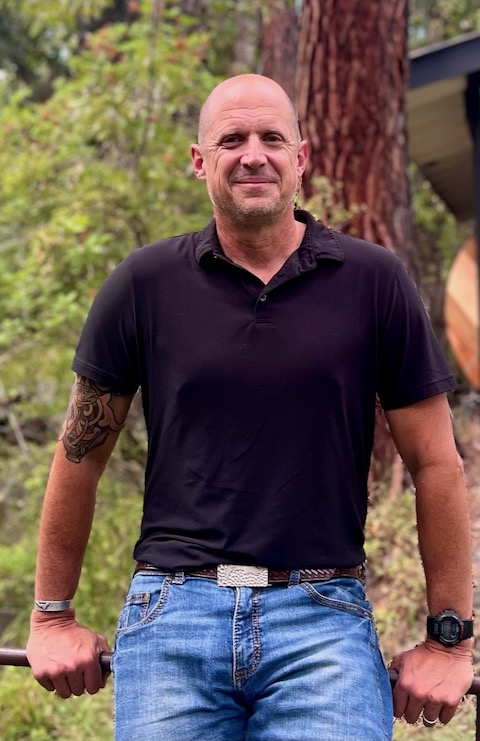
Dr. Alan Townsend is a scientist, author, and Dean of the Franke College of Forestry & Conservation at the University of Montana. His new book is titled This Ordinary Stardust: A Scientist’s Path from Grief to Wonder, and it’s an unbelievably powerful book. It’s the story of Alan’s family being rocked to the core by two unthinkable, back-to-back tragedies– his four-year-old daughter and wife both being diagnosed with brain tumors.
Alan is a highly trained, Ph.D.-level scientist who spent his entire career using cold hard facts, emotionless inquiry, and academic rigor to try and solve some of the world’s most pressing problems. Yet when faced with a father/husband’s worst nightmare, he was forced to accept that science alone was simply not enough to make it through the gauntlet. I was blown away by Alan’s insightfulness and vulnerability and how he managed to constructively meld science and spirituality to make sense of an unimaginable catastrophe.
Alan was born in Hawaii and grew up in Montana, where he spent much of his youth hunting, fishing, and exploring the West’s wide-open landscapes. His education and career in science allowed him to delve deeper into the natural world, giving him an even more intense respect and appreciation for the beautifully complex biological systems that make our world work. He’s worked in Amazonian forests and Costa Rican jungles, and he’s published more than 140 peer-reviewed articles. But, as you’ll hear in this conversation, Alan also embraces the more ethereal and unknown aspects of our existence, and he has a gift for discussing and writing about them in a very powerful and helpful manner.
We met up at Alan’s office at the University of Montana, and had a very meaningful conversation about grief, curiosity, generosity, open-mindedness, focus, and family. We discussed Alan’s upbringing in Montana, his path to becoming such a highly trained scientist, and his process of re-evaluating the limits and usefulness of science in the face of tragedy. We talked a lot about his late wife Diana and her unbelievable toughness and his daughter Neva, who thankfully beat the tumor and is now a happy and healthy young lady. We discussed the compassion and skill of medical professionals, Alan’s years-long process of writing the book, and the indispensable role of his agent and editor. Alan also offers some wise, hard-earned wisdom for anyone who may be going through their own set of challenges.
I loved this conversation, I loved the book, and I really appreciate Alan taking the time to talk with me. Be sure to click through the link in the notes to grab your own copy of This Ordinary Stardust. Enjoy!
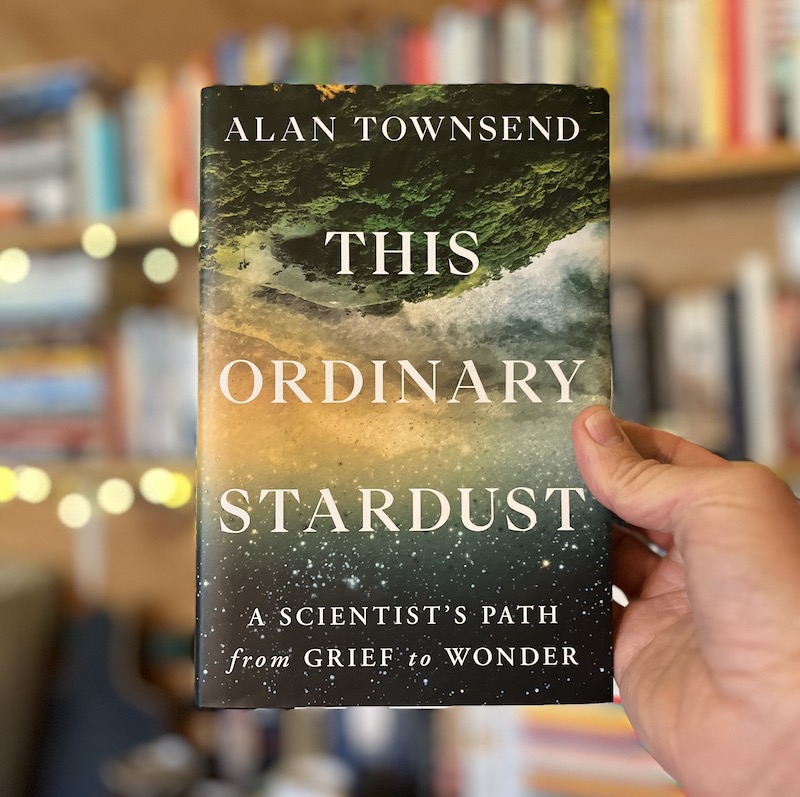
---
Photos courtesy of Alan Townsend
LISTEN & DOWNLOAD:
Apple Podcasts
Spotify
... or wherever you get your podcasts!
—
RESOURCES:
Topics Discussed:
- 4:10 - An introduction to the power of Alan’s book
- 6:10 - The importance of focus in Alan’s book, and the strength of Alan’s wife and daughter
- 10:40 - Discussing Alan’s writing
- 13:40 - Alan’s birth and early childhood in Hawaii
- 15:30 - When science became a focus for Alan
- 17:00 - Alan’s reading choices
- 18:45 - When Alan found out his daughter Neva had a brain tumor
- 21:00 - How Alan got through this incredibly challenging period in his life
- 23:15 - The importance of routine for finding mental stability and peace in difficult times
- 25:15 - The power of curiosity in Alan and his wife, Diana’s, life after Diana was diagnosed with brain cancer
- 27:45 - The difference between people who are curious when it is easy to do so and those who remain curious when life becomes difficult
- 30:15 - Why Alan reevaluated his relationship with science, and how he challenges readers to do a similar reevaluation in his book
- 37:15 - How we share more than we don’t, regardless of political belief
- 39:15 - How Diana invited Michael Brown into their home to learn more about his work with FEMA, demonstrating the importance of respecting and learning from people with different opinions
- 45:00 - Unpacking the theme of generosity in Alan’s book
- 47:45 - How Alan handled vulnerability and the desire for this book to have impact
- 49:45 - Alan’s relationship with his agent and editor
- 52:15 - Discussing Doctor Henry Freedman
- 56:00 - Alan’s take on how doctors dealing with mortality are able to handle the difficulties of that subject on a daily basis
- 58:15 - Alan’s work right now
- 1:01:30 - The next 5-10 years for Alan
- 1:02:45 - Of generosity, curiosity, and the willingness to fail
- 1:03:45 - Alan’s book recommendations
- 1:08:00 - Alan’s parting words of wisdom
Information Referenced:
- This Ordinary Stardust by Alan Townsend
- Doctor Henry Friedman
- John Krakauer
- Underland by Robert MacFarlane
- The Overstory by Richard Powers
- Katherine Hayhoe
- Micheal Brown
- Jesse Helms
- Anna Sproul-Latimer
- Maddie Caldwell
- W.A. Franke College of Forestry and Conservation
- Yemi Mobolade
- Peter Heller
- Body of Water by Chris Dombroski
- True West by Betsy Gaines Quammen
- Whiskey When We’re Dry by John Larison
- A Responsibility to Awe by Rebecca Elson
- In Old Sky by Lauren Camp
Enjoy this episode? Then you might like these too:
- Nick Offerman – Empathy, Nuance, & Good Hard Work
- Chris Dombrowski, Part 2 – “The River You Touch”
- Rick Ridgeway – Purpose-Driven Adventurer
- Dr. Sara Dant Returns – “Losing Eden: An Environmental History of the American West”
- Doug Peacock – 50 Years of Fighting for the Grizzlies
- Anna Borgman – Obsession, Curiosity, and Purpose-Driven Work
- Douglas Brinkley – Exploring the Past to Find Inspiration for the Future
- Sandy Colhoun – Building Leaders Through Outdoor Education
Visit the podcast page for a full, searchable list of episodes

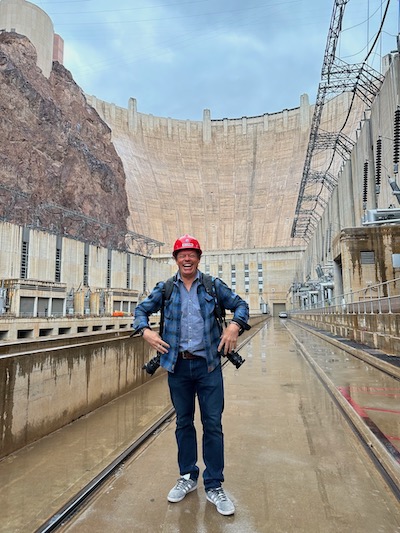
If you’re a longtime Mountain & Prairie listener, then you’ll definitely remember Pete McBride. He’s a renowned photographer, filmmaker, and author, and he’s joined me on the podcast twice before– once to discuss his epic hike of the length of the Grand Canyon, and then to chat about his global search for silence in a very loud world. I’m glad to say that he’s back again, and this time, we’re chatting about his backyard river– the mighty Colorado– and the challenges, opportunities, and realities facing the people and wildlife that depend on it.
Pete’s newest book is titled The Colorado River: Chasing Water, and it features Pete’s stunning photography and insightful essays, along with a foreword by Nick Paumgarten and an introduction by Kevin Fedarko. The book follows the Colorado River from its headwaters in the Rocky Mountains all the way down to the Colorado River Delta, where it peters out just before reaching the Gulf of California.
I’ve read a lot of books about the Colorado River and water in the West, but Chasing Water opened my eyes to a number of very specific and sometimes-maddening challenges facing the Colorado River Basin. The book delves into issues such as the unchecked exportation of water-intensive alfalfa to foreign countries, how dust leads to increased evaporation and water loss, as well as more optimistic topics, such as how Las Vegas has become an imperfect-yet-inspiring case study in responsible water conservation. But at its core, the book demonstrates Pete’s deep love and respect for the Colorado River, and showcases his two decades of dedication to telling the story of this world-famous waterway.
We met up at Pete’s house in Basalt, overlooking the Roaring Fork River, and talked about all things water and conservation. We started by talking about Pete’s father, and how his advice many years ago led Pete to shift his focus from global adventure photography to the Colorado River. We discussed the disconnect between people and their water sources, the challenge of using an over-appropriated water source to grow food for an entire country, Pete’s firsthand experience observing changes in the river and surrounding landscape, his work with Indigenous communities throughout the basin, and his preferences between photography, filmmaking, and writing. We also discuss some of his recent favorite books, and much, much more.
Be sure to check out the episode notes for a full list of everything we discussed and links to all of Pete’s books.
A big thanks to Pete for graciously letting me barge into his house and hassle him with questions yet again, and thank you for listening.
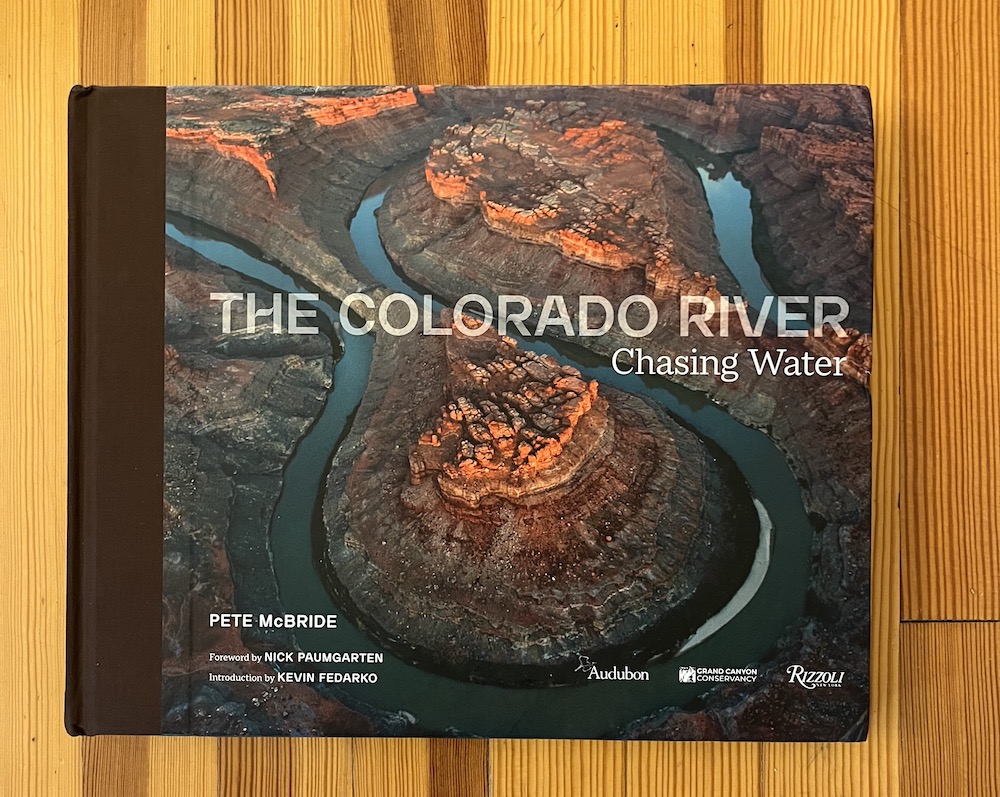
---
Photos courtesy of Pete McBride
LISTEN & DOWNLOAD:
Apple Podcasts
Spotify
... or wherever you get your podcasts!
—
RESOURCES:
Topics Discussed:
- 3:30 - All the places Pete has seen in the Colorado River watershed
- 6:30 - How Pete’s dad influenced Pete’s career
- 11:30 - The immense changes to the Colorado River over the course of Pete’s father’s lifetime
- 13:00 - Reconciling how much of the West’s water comes from the Colorado, and how few people know it
- 14:30 - Pete’s hope for his new book
- 18:00 - Pete’s style of writing for this visual book
- 21:00 - Discussing how much Colorado River water goes to cattle and cattle feed, and the water challenges that face agriculture
- 29:00 - The impact of dust on Rocky Mountain snow, and how that impacts the Colorado River
- 34:30 - Highlighting an unexpected water conservation success story: Las Vegas, and how southwestern cities can start conserving their water.
- 39:00 - How many times Colorado River water has been reused along its trek to Mexico, and discussing the state of the Colorado River Delta
- 44:45 - How Peter wants to divide his time between books and films, and a discussion about “earning” hope
- 53:00 - Pete’s work with Indigenous communities’ access to Colorado River Water
- 1:01:00 - Pete’s book recommendations
Information Referenced:
- Pete McBride
- Pete’s earlier Mountain & Prairie appearances
- The Colorado River: Chasing Water by Pete McBride
- Seeing Silence: The Beauty of the World’s Quietest Places by Pete McBride
- The Grand Canyon: Between River and Rim by Pete McBride
- Into the Grand Canyon documentary
- Hampton Sides
- Blood and Thunder by Hampton Sides
- The Wide, Wide Sea by Hampton Sides
- Taylor Hawes
- Maroon Bells
- Palo Verde Nuclear Generating Station
- Nick Paumgarten
- Kris Thompkins
- A Walk in the Park by Kevin Fedarko
- San Juan River
- Little Colorado River
- Havasupai Tribe
Enjoy this episode? Then you might like these too:
- Kristine Tompkins – Nothing to Lose
- Taylor Hawes – Innovative Conservation in the Colorado River Basin
- Lorelei Cloud – Solving Modern-Day Challenges with Ancient Tribal Wisdom
- Hampton Sides Returns: The Wild and Tragic Tale of Captain James Cook
- Nick Offerman – Empathy, Nuance, & Good Hard Work
- Rick Ridgeway – Purpose-Driven Adventurer
- Doug Peacock – 50 Years of Fighting for the Grizzlies
- Mike DeHoff – Exploring the Colorado River’s Reemerging Rapids
- Douglas Brinkley – Exploring the Past to Find Inspiration for the Future
- Sandy Colhoun – Building Leaders Through Outdoor Education
Visit the podcast page for a full, searchable list of episodes


Peter Gower is the Nature Conservancy’s Climate and Renewable Energy Program Director for the Western United States and Canada Divisions, and Chris Menges is the Director of Climate Action for the Colorado Chapter of the Nature Conservancy. Both Peter and Chris are on the front lines of North America’s transition from fossil fuels to renewables, working to find solutions that protect and benefit working lands, natural landscapes, wildlife, and communities.
As you’ll hear in this episode, the transition from fossil fuels to renewables is an incredibly complex process, and Peter and Chris are highly skilled at breaking down the issues and explaining them in a substantive yet easy-to-understand manner. While the details of their work may be complicated, everything Peter and Chris do is built on the very simple foundation of strong relationships, partnerships, and trust, which has been the common theme of all of these TNC-focused episodes.
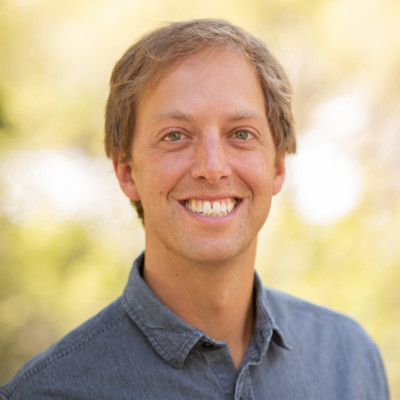
We connected virtually and had a great conversation about The Nature Conservancy’s work in the renewables space, exploring everything from TNC’s big-picture strategies in the American West, down to a few on-the-ground examples of successful initiatives and projects. We discussed how TNC is working with Western states to help them achieve their energy goals and some of the specific renewable work being done here in Colorado.
We also talked about the challenges of finding sites for renewable energy projects, how market incentives can be used to ensure siting that benefits both people and nature, and recently passed legislation in Colorado that addresses these issues. We chatted about TNC’s extensive research in the renewables space, including its Power of Place studies. As usual, we discuss their favorite books and some resources to learn more about the issues surrounding renewable energy.
Renewable energy has long been one of those topics that I have never been able to fully wrap my head around, but after this conversation, I felt that I had a solid foundation of knowledge– as well as the curiosity and desire to go out and learn more.
A huge thanks to Peter and Chris for devoting the time to have this extremely educational conversation, and thank you for listening.
Photos courtesy of The Nature Conservancy
LISTEN & DOWNLOAD:
Apple Podcasts
Spotify
…or wherever you get your podcasts!
EPISODE PARTNER:

This episode is brought to you in partnership with the Colorado chapter of The Nature Conservancy and TNC chapters throughout the Western United States. Guided by science and grounded by decades of collaborative partnerships, The Nature Conservancy has a long-standing legacy of achieving lasting results to create a world where nature and people thrive.
On the last Tuesday of every month throughout 2024, Mountain & Prairie will be delving into conversations with a wide range of The Nature Conservancy’s leaders, partners, collaborators, and stakeholders, highlighting the myriad of conservation challenges, opportunities, and solutions here in the American West and beyond. You can access all of the episodes here.
To learn more about The Nature Conservancy’s impactful work in the West and around the world, visit www.nature.org
RESOURCES:
Topics Discussed:
- 3:20 - The state of renewables in the West (Peter)
- 8:05 - Chris’s renewable work on the ground in CO with TNC (Chris)
- 12:35- Challenges and opportunities associated with finding physical sites for renewable projects (Chris)
- 15:50 - Examples of market incentives that Chris thinks would help develop renewable sites to the benefit of as many interests as possible (Chris and Peter)
- 22:20 - Discussing the Power of Place studies (Peter)
- 26:35 - Other major challenges to implementing more renewable energy solutions (Peter)
- 33:05 - Discussing the Connected West study, to be released soon (Peter)
- 36:20 - Building relationships with businesses and large entities (Peter)
- 39:05 - Discussing Colorado SB24-212 (Chris)
- 47:35 - Developing renewable energy sites on “brownfields” (Peter)
- 51:05 - Where to learn more about renewable energy (Peter and Chris)
Information Referenced:
- Peter Gower
- Chris Menges
- TNC’s energy work
- Bill Ritter
- Site Renewables Right tool
- Power of Place West Report
- GridLab
- Gridworks
- Matt Moorhead
- CO SB24-212
- Brunot Agreement Area
- Renewable energy development on “brownfields”
- The EPA’s Repowering Program
- TNC’s Starfire Project
- BrightNight
- Rivian
- A Short History of Nearly Everything by Bill Bryson
- Collapse by Jared Diamond
- The Ezra Klein Show
- Political Climate Podcast
Enjoy this episode? Then you might like these too:
- Lorelei Cloud – Solving Modern-Day Challenges with Ancient Tribal Wisdom
- Carrie Segil & Duncan Gilchrist – Catalyzing Conservation in Colorado and Beyond
- Ivy Spohnholz – Climate Solutions, Sustainable Fisheries, and Resilient Communities
- Kristine Tompkins – Nothing to Lose
- Rob Addington – A Deep Dive into Western Wildfires and Forest Health
- Carlos Fernández, Part 2 – Creating Conservation Opportunities During Uncertain Times
Visit the podcast page for a full list of episodes where you can filter episodes by topic and guests' vocations.

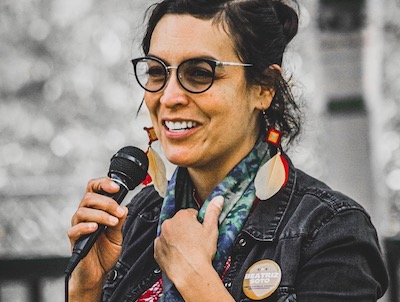
Beatriz Soto is the Director of Protégete, a statewide program from Conservation Colorado, whose mission is to elevate Latino-driven solutions to protect our lands, water, air, and fight for environmental and climate justice. Prior to joining Conservation Colorado, she held a number of leadership and founding positions with conservation-focused organizations here in Colorado. At her core, Beatriz is a gifted and highly effective leader, one who combines her professional expertise with her unique personal story to act as a cultural bridge and give voices to both underrepresented communities and the threatened lands and waters of the West.
Beatriz is originally from Chihuahua, Mexico, and she spent her childhood and youth in a bicultural setting between Mexico and the United States. She graduated from Colorado’s Basalt High School, and then went on to study architecture back in Chihuahua City, Mexico. For nearly 20 years, she applied her talents in architecture and design to a wide range of projects, from Net-Zero affordable housing projects to high-performance strawbale homes and everything in between, in locations ranging from the Pacific Coast of Mexico to Colorado’s Roaring Fork Valley. But as you’ll hear in the conversation, she eventually realized that she wanted to work more directly on issues including conservation and community vitality, so she pivoted and began her new career as a conservation leader in Colorado.
Beatriz and I connected virtually and had an inspirational and instructive conversation about her amazing life story and her present-day conservation work. We talked about her bicultural upbringing between Mexico and the US, and the realities of growing up as an undocumented child. We discussed her family’s emphasis on service and community, and how those values have expressed themselves throughout her career. We talk about the uncertainty that accompanied her transition from a career in architecture to a career in conservation and advocacy, and why she decided to apply her talents to the mission of Conservation Colorado. We discuss the mind-boggling process of becoming an American citizen, how she builds trust with community stakeholders, her favorite books, and much more. Be sure to check out the episode notes for a full list of everything we covered.
A huge thank you to Beatriz for taking the time to share her wisdom, and thank you for listening.
Photos courtesy of Beatriz Soto.
LISTEN & DOWNLOAD:
Apple Podcasts
Spotify
…or wherever you get your podcasts!
EPISODE PARTNER:

This episode is brought to you in partnership with the Mighty Arrow Family Foundation.
To whom much is given, much is expected. This value guides the philosophy behind the Mighty Arrow Family Foundation today.
Committed to its cause and infused with an entrepreneurial spirit, Mighty Arrow aims to invest in solutions that take action on climate change to build a more vibrant future, repair relationships from farm to market to table, heal our connection to the lands and waters we call home, and demand a more just and equitable society.
To learn more about Mighty Arrow’s forward-thinking, optimistic, and visionary work here in the American West and beyond, please visit www.mightyarrow.org.
RESOURCES:
Topics Discussed:
- 3:30 - Beatriz’s childhood
- 5:30- What brought Beatriz and her family from Mexico to the US
- 8:30 - Reflecting on adaptation within Beatriz’s very mobile childhood
- 11:30 - Whether or not looking back on the US from Mexico changed Beatriz’s outlook on the US
- 14:00 - Beatriz’s experience growing up undocumented, and how that affected her upbringing
- 17:45 - Where Beatriz’s commitment to service comes from
- 22:45 - The importance of community
- 24:15 - Beatriz’s goals in college
- 26:30 - Beatriz’s work in design and architecture
- 33:00 - Beatriz’s shift away from design and architecture, and the fear that comes with transitions like that
- 36:30 - How long it took Beatriz to feel like it was the right move to shift from professional architecture to conservation work
- 39:30 - When Conservation Colorado came into Beatriz’s world
- 43:15 - Beatriz’s day-to-day work with Conservation Colorado
- 48:30 - Whether or not leaders and stakeholders are happy to hear from Beatriz and her team
- 51:15 - How Beatriz handles rejections from potential partners
- 53:30 - Discussing the Colorado Latino Justice Handbook
- 1:00:00 - What is next for Beatriz
- 1:02:45 - How Beatriz became a documented American
- 1:04:30 - Discussing how to simplify an overcomplicated immigration process
- 1:08:45 - Beatriz’s book recommendations
- 1:11:15 - Beatriz’s parting words of wisdom
Information Referenced:
- Beatriz Soto
- Conservation Colorado
- Protégete
- Roaring Fork Valley
- The Wilderness Workshop
- Garfield County
- 501(c)(3) vs 501(c)(4)
- Colorado Latino Climate Justice Policy Handbook
- DACA
- Braiding Sweetgrass by Robin Wall Kimmerer
- An Indigenous Peoples’ History of the United States by Roxanne Dunbar-Ortiz
- Billionaire Wilderness by Justin Farrell
- Black Earth Wisdom by Leah Penniman
- Emergent Strategy by adrienne maree brown
Enjoy this episode? Then you might like these too:
- Rebecca Clarren – “The Cost of Free Land”
- Kristine Tompkins – Nothing to Lose
- Corissa Busse – Tribal-Led Buffalo Restoration in the American West and Beyond
- Chris Hawkins – Using Nature to Build Healthier & More Equitable Communities
- Mike DeHoff – Exploring the Colorado River’s Reemerging Rapids
- Lorelei Cloud – Solving Modern-Day Challenges with Ancient Tribal Wisdom
- Equitable Access to the Outdoors in Texas
- Betsy Gaines Quammen – A Fascinating History of Public Lands in the West
Visit the podcast page for a full list of episodes where you can filter episodes by topic and guests' vocations.

This is a special episode recorded live in Bozeman at the premiere of the important new short film titled Good Fire, Bad Fire: Inside the Race to Restore America’s Forests.
On the evening of May 16, 2024, around 200 folks gathered at Bozeman’s Museum of the Rockies to watch the 15-minute film, which captures the breathtaking beauty of our nation’s forests and delves into the urgent crisis threatening their existence. Following the screening, I moderated a panel discussion featuring an extremely impressive line-up of some of the nation’s leading conservationists and forest-health experts. The on-stage conversation gave us the opportunity to dig deeper into some of the issues raised by the film, and glean valuable insights into the importance of responsible forest management from ecological, recreational, economic, and policy perspectives.
Good Fire, Bad Fire was directed by filmmaker Eric Ian, and produced by the team at the Property and Environment Research Center, better known as PERC, who also hosted the event. The panelists you’ll hear in this episode are:
- Brian Ferebee, Chief Executive of Intergovernmental Relations for the U.S. Forest Service
- Randy Newberg, renowned conservationist and Host of Fresh Tracks with Randy Newberg and Hunt Talk Radio
- Morgan Varner, Director of Fire Research at Tall Timbers
- Corey Lewellen, District Ranger for the Bozeman Ranger District
- Hannah Downey, Policy Director at PERC
- Brian Yablonski, CEO of PERC (and a past Mountain & Prairie podcast guest)
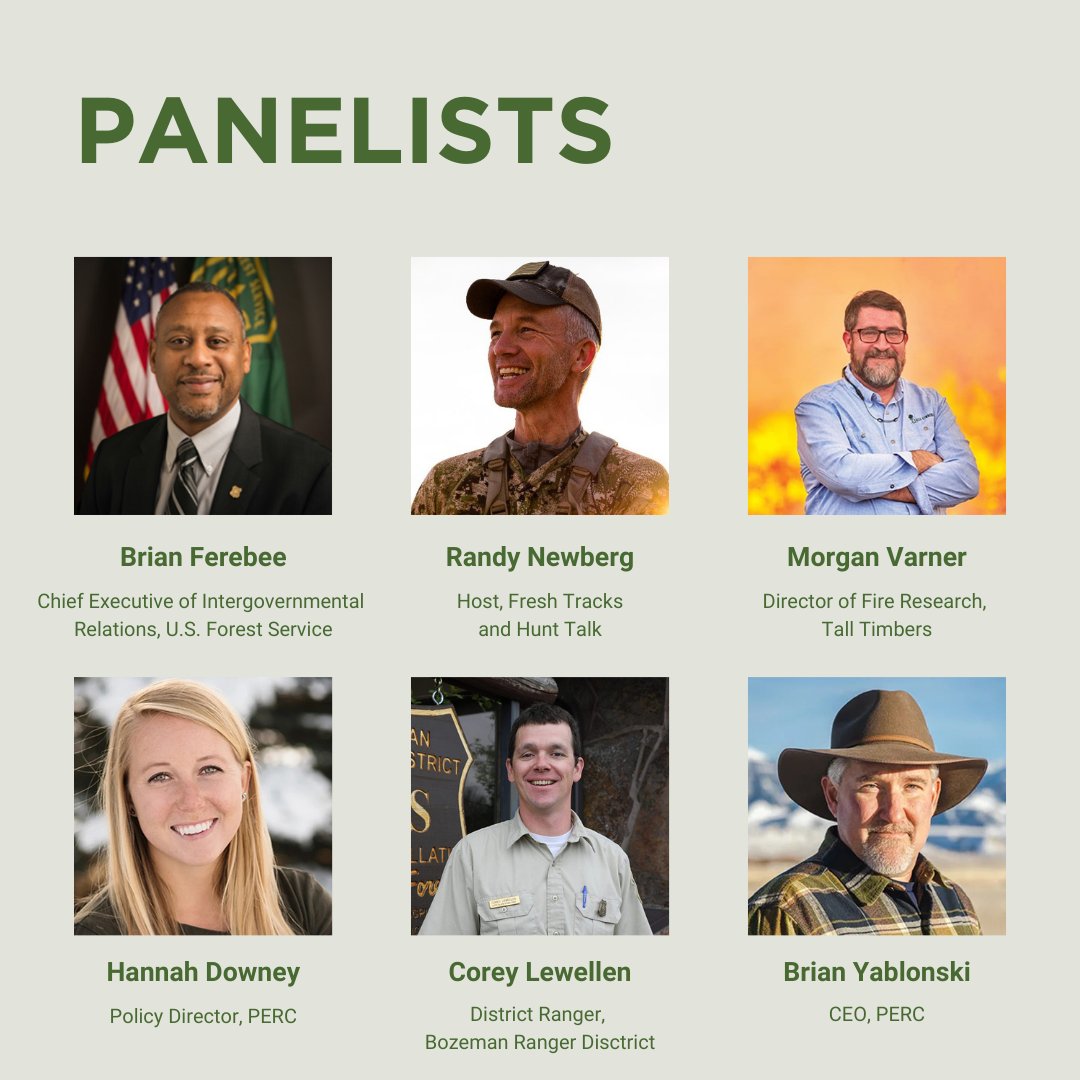
I could’ve spoken with each of these experts individually for several hours, but having them all share a stage and combine their wide range of expertise into a single conversation was a powerfully educational experience.
While you can listen to this episode on its own, I would strongly encourage you to first spend 15 minutes watching Good Fire, Bad Fire as a primer.
I’d also encourage you to check out the episode notes below for a full list of all of the topics we discussed, which included everything from a history of fire as a resource management tool to the Forest Service’s evolving approach to wildfires and forest health. We talked about forest health’s impact on hunting and fishing, the pros and cons of policies such as the ESA and NEPA, on-the-ground success stories, optimistic good news about the future of forest health, and much more. There were tons of resources mentioned, all of which are listed and linked below.
A huge thanks to Brian Yablonski and the team at PERC for creating such an important film and for inviting me to participate in such an enlightening conversation. I hope you enjoy the film as much as I did, and I hope that this discussion provides some new insights into the all-important issue of forest health in the American West.
PHOTO GALLERY
All photos courtesy of PERC
LISTEN & DOWNLOAD:
Apple Podcasts
Spotify
... or wherever you get your podcasts!
—
RESOURCES:
Topics Discussed:
- 3:15 - Introductions
- 6:15 - Where the USFS stands right now on its approach to wildfire and forest health (Brian F)
- 8:45 - A hunter and public lands advocate’s perspective on the state of the forests (Randy)
- 10:30 - A brief history of how fire became a resource management tool in the US and before the US (Morgan)
- 13:45 - Discussing obstacles to the forest management work described in Good Fire, Bad Fire (Corey)
- 18:00 - How we can streamline large federal processes like the ESA and NEPA (Hannah)
- 21:00 - Why PERC became involved in this forestry work (Brian Y)
- 23:15 - What is preventing ideal progress on forest management in Montana (Brian F)
- 27:30 - How Randy would recommend hunters and anglers take action and advocate for forest health
- 31:00 - Discussing how lessons in forest management from the Southeast can impact forestry in MT (Morgan)
- 35:15 - On-the-ground success stories in forest management (Corey)
- 39:45 - An example of fire outpacing procedure, and the impacts that can have (Hannah)
- 41:15 - How discussions of conservation and forestry are received by elected officials (Hannah)
- 43:00 - Predictions for the next five years of forest management (Morgan and Randy)
- 47:15 - Brian Y’s optimistic take on the state of forest stewardship
Information Referenced:
- Brian Ferebee
- Morgan Varner
- Randy Newberg
- Corey Lewellen
- Hannah Downy
- Brian Yablonski
- PERC
- Greater Yellowstone Coalition
- Rocky Mountain Elk Foundation
- Good Fire, Bad Fire
- Spotted Owl
- Eric Ian
- Tall Timbers Research Station
- Bobwhite Quail
- Denver Water
- Silverthorne, CO
- Kristine Thompkins
- Washburn Fire
- Mariposa Grove
- National Wild Turkey Federation
- Pheasants Forever
- Good Neighbor Authority
Enjoy this episode? Then you might like these too:
- Live from Maxwell Alexander Gallery
- Nick Offerman – Empathy, Nuance, & Good Hard Work
- David James Duncan – Live at the Old Salt Festival
- Live with the Cowboy Artists of America
- Beau Alexander – Paying Homage to the Past, While Focusing on the Future
- Frances Ashforth – Art, Water, and Wide-Open Spaces
- Kelsey Johnson – Chasing Her Artistic Ambitions
Visit the podcast page for a full, searchable list of episodes

This is a special Shed Session episode, normally published exclusively for Mountain & Prairie Patreon supporters. In it, I answer the most common question I receive, which is some variation of:
"How do I start a podcast?"
In this episode, I answer that question in excruciating detail, laying out everything I know about it, based on my own bumbling, meandering, eight-year journey through Podcastlandia.
I hope this episode will provide a little bit of actionable guidance that will allow you to put your own unique ideas into the world.
To listen to all past, present, and future Patreon-exclusive episodes, you can sign up at www.mountainandprairie.com/patreon. Memberships start at as little as $2 per month.
Back to the regular episodes next week!!
LISTEN & DOWNLOAD:
Apple Podcasts
Spotify
... or wherever you get your podcasts!
—
RESOURCES:
Topics Discussed:
- 2:15 - Intro
- 6:55 - Disclaimers
- 10:00 - How and why I started Mountain & Prairie
- 22:13 - Intentions
- 28:12 - Getting started + endurance
- 39:25 - Finding your voice, authenticity, and enthusiasm
- 52:55 - Finding your audience
- 1:03:09 - Interview techniques
- 1:08:48 - Finding guests
- 1:11:40 - Dealing with negative feedback
- 1:15:14 - Equipment and editing
- 1:21:38 - Money (least important!)
- 1:25:54 - Further reading
Information Referenced:
- Ed's 2024 Freeflow Course on the Rogue River
- Seth Godin Books: Purple Cow, Tribes, This is Marketing, The Practice
- Steven Pressfield Books: The War of Art, Nobody Wants to Read Your Sh!t
- Originals by Adam Grant
- 1000 True Fans by Kevin Kelly
- Conan interviewing Jack White
- Spreadsheet with all my podcast equipment
To listen to all past, present, and future Patreon-exclusive episodes, you can sign up at www.mountainandprairie.com/patreon. Memberships start at as little as $2 per month.

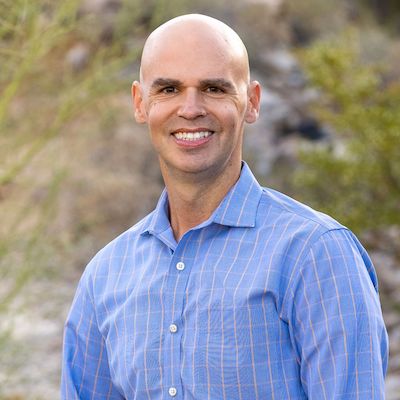
Dan Stellar is the State Director for the Arizona Chapter of The Nature Conservancy, where he leads the organization’s efforts across a wide range of cutting-edge initiatives, including forest health, water conservation, resilient cities, healthy grasslands, and more. Arizona is one of the nation’s largest and most biodiverse states, which creates a host of extremely unique conservation challenges and opportunities– both in its arid, wide-open landscapes and densely populated urban centers. As you’ll hear, Dan and his team are implementing conservation solutions that not only benefit people and nature specifically in Arizona, but they are also creating actionable conservation frameworks that can be applied all over the American West.
Dan was born and raised on the East Coast, and he has spent his career in the non-profit sector, applying his talents to important issues both domestically and abroad. He began his tenure at TNC Arizona in 2016, when he assumed the role of Deputy State Director. He quickly fell in love with Arizona and TNC’s critical work in the state, and, in 2020, he assumed the role of State Director. Dan is also a committed endurance athlete, and he’s run a mind-blowing number of marathons and half-marathons. And on top of all of that, he’s a dedicated father, husband, and family man.
Dan and I share so many common interests in conservation, endurance sports, and family, so I was super excited to have the opportunity to learn more about the specifics of his work and his fascinating personal and professional journey. We started the conversation with an overview of what makes Arizona such a unique place from a conservation perspective, then we dug into the details of TNC’s work in forest heath, rivers, aquifers, outdoor recreation, and resilient cities. We talked about some of the lessons he learned from traveling and working internationally, why he chooses to push himself so hard athletically, and how he goes about building such strong relationships with stakeholders, partner organizations, and his TNC team members. Dan is also a voracious reader, so we obviously chatted about books, and he wrapped up the conversation with very wise parting words.
I felt like I’d met a real kindred spirit in Dan, and I greatly appreciate everything that he and his team are doing to make Arizona—and the West—a better place. I hope you enjoy this conversation as much as I did.
Photos courtesy of The Nature Conservancy: Header image by Ian Adrian/TNC Photo Contest 2022; headshot by Mark Skalny.
LISTEN & DOWNLOAD:
Apple Podcasts
Spotify
…or wherever you get your podcasts!
EPISODE PARTNER:

This episode is brought to you in partnership with the Colorado chapter of The Nature Conservancy and TNC chapters throughout the Western United States. Guided by science and grounded by decades of collaborative partnerships, The Nature Conservancy has a long-standing legacy of achieving lasting results to create a world where nature and people thrive.
On the last Tuesday of every month throughout 2024, Mountain & Prairie will be delving into conversations with a wide range of The Nature Conservancy’s leaders, partners, collaborators, and stakeholders, highlighting the myriad of conservation challenges, opportunities, and solutions here in the American West and beyond. You can access all of the episodes here.
To learn more about The Nature Conservancy’s impactful work in the West and around the world, visit www.nature.org
RESOURCES:
Topics Discussed:
- 3:30 - Setting the scene for conservation work in Arizona
- 8:45 - Forest health work in Arizona
- 15:00 - Aligning profit motives with forest health goals
- 22:00 - Whether or not there are down-sides to forest thinning
- 25:15 - Discussing the Verde River
- 31:15 - Discussing the Big Chino Aquifer
- 35:00 - Collaborating with the Trust for Public Land to build a new park in Arizona
- 39:45 - TNC’s work with cities in Arizona
- 46:00 - Dan’s passion for running, and his attraction to doing hard things
- 50:15 - How Dan fits running into his schedule
- 52:00 - How Dan became interested in conservation
- 57:30 - Dan’s lessons from traveling
- 1:00:00 - Dan’s book recommendations
- 1:04:30 - Dan’s parting words of wisdom
Information Referenced:
- Dan Stellar
- Article about Dan
- The Nature Conservancy in Arizona
- Rob Addington
- Verde River
- Taylor Hawes
- Yavapai-Apache Nation
- Big Chino Aquifer
- RCPP Grant
- Del Rio Springs
- Chris Hawkins
- Paige Lewis
- Endurance by Alfred Lansing
- American Icon by Bryce G. Hoffman
- Alan Mulally
- Radical Candor by Kim Scott
- The Imposter Cure by Dr. Jessamy Hibberd
- Lonesome Dove by Larry McMurtry
- Van Jones
Enjoy this episode? Then you might like these too:
- Lorelei Cloud – Solving Modern-Day Challenges with Ancient Tribal Wisdom
- Sarah King – Collaborative Conservation in the American Southwest
- William deBuys – Sage of the Southwest
- Daniela Ibarra-Howell – Healing the Land Holistically
- Shane Doyle – Reverence for the Past, Hope for the Future
- Dr. Katharine Hayhoe – Effecting Change Through Authentic Conversation
- Rob Addington – A Deep Dive into Western Wildfires and Forest Health
- Chad Ellis – On Leadership, Building Relationships, and Working for the Greater Good
Visit the podcast page for a full list of episodes where you can filter episodes by topic and guests' vocations.

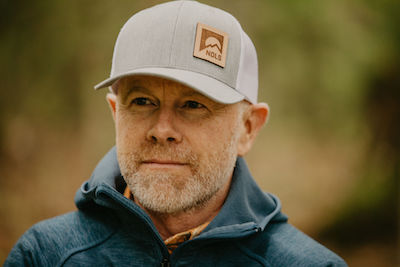
Sandy Colhoun is the President of the National Outdoor Leadership School, also known as NOLS.
Founded in 1965 by legendary mountaineer Paul Petzolt, NOLS is widely considered to be the world’s premier wilderness school, and its mission is “to be the leading source and teacher of wilderness skills and leadership that serve people and the environment.” NOLS operates in many of the world’s wildest outdoor classrooms, and it provides the highest quality instruction in many outdoor skills, including wilderness travel, mountaineering, rock climbing, sea kayaking, and more. But perhaps most importantly, through these outdoor adventures, NOLS students learn the foundational and all-important life skills of leadership, teamwork, humility, and responsibility.
Sandy was named the seventh President of NOLS in October of 2023, after serving as the interim President and, before that, as a member of the NOLS Board of Trustees. Prior to his work with NOLS, he had spent much of his career in the worlds of education and journalism, most notably leading a $750 million fundraising campaign at Colby College in Maine. Sandy is also a proud graduate of a NOLS Wind River Mountaineering course, and he’s no stranger to hardcore outdoor adventures– he worked as a ski patroller in Park City, climbed in Alaska, Nepal, and Bolivia, and cycled up and over the Himalayas from Tibet to Nepal. As you’ll hear in our conversation, he’s focused, driven, and lots of fun, and he’s s fully committed to leading NOLS into the future.
I’m a proud graduate of a 1999 semester-long NOLS course, which was hands-down one of the most formative and valuable experiences of my entire life. Yes, I learned plenty of outdoor skills that have served me well for nearly 25 years now, but the most important lessons were those that taught me the value of good exhibition behavior, being comfortable in uncomfortable situations, and keeping a positive attitude when life gets difficult. If not for that semester, I highly doubt I would’ve ever moved out west, worked in conservation, or started this podcast. So, I’m obviously a superfan of all things NOLS.
I was so excited to chat with Sandy, and we covered a lot in our hour-long conversation. We discussed the history of NOLS, what separates NOLS from other wilderness schools, risk management, exhibition behavior, expanding one’s comfort zone, a description of the ideal NOLS student, Sandy’s own leadership style, his vision for the future of NOLS, how he will measure success, leaders that Sandy admires, favorite books, and much more. Be sure to check out the episode notes for links to everything we discuss.
A huge thank you to Sandy for being so generous with his time and for everything he and the entire team at NOLS do to make the world a better place. Thanks for listening, and I hope you enjoy!
---
All photos by Ruby Jean Photography and courtesy of NOLS
LISTEN & DOWNLOAD:
Apple Podcasts
Spotify
... or wherever you get your podcasts!
—
RESOURCES:
Topics Discussed:
- 4:00 - A brief history of NOLS
- 8:15 - What sets NOLS apart from other outdoor schools
- 10:30 - Discussing NOLS’ partnerships
- 13:00 - How NOLS manages risk
- 16:30 - The talent of NOLS instructors
- 19:00 - What “expedition behavior” is
- 22:15 - How NOLS recruits students in a world that prioritizes job opportunities and career advancement
- 24:45 - How NOLS expands one’s comfort zone
- 28:45 - The ideal NOLS student
- 30:15 - Determining the next chapter of NOLS in the early 2020s
- 33:30 - Sandy’s career pre-NOLS
- 37:00 - Sandy’s leadership style
- 42:30 - How Sandy got his mind around the task of taking the helm at NOLS
- 46:00 - Measuring future success at NOLS
- 49:00 - Leaders that Sandy admires
- 52:15 - Sandy’s book recommendations
- 58:15 - Sandy’s parting words of wisdom, and how you can support NOLS
Information Referenced:
- Sandy Colhoun
- NOLS
- Paul Petzoldt
- Morehead-Cain Foundation
- Wilderness Risk Management Conference
- Freeflow Institute
- Colby College
- It’s Your Ship by Captain D. Michael Abrashoff
- Jocko Willink
- Good to Great by Jim Collins
- Three Peaks Ranch
- Ian Symmonds
- General George Brown
- Jay Stroud
- Tabor Academy
- Jimmy Chin
- Stuart Harris
- The Snow Leopard by Peter Matthiessen
- 100 Years of Solitude by Gabrielle Garcia Marquez
- Start with Why by Simon Sinek
- Good to Great by Jim Collins
- Tribe by Sebastian Junger
- Wendell Berry
Enjoy this episode? Then you might like these too:
- Kristine Tompkins – Nothing to Lose
- Nick Offerman – Empathy, Nuance, & Good Hard Work
- Rick Ridgeway – Purpose-Driven Adventurer
- Doug Peacock – 50 Years of Fighting for the Grizzlies
- Kami Bakken – How to Build a Life and Career in the West’s Wide-Open Spaces
- Mike DeHoff – Exploring the Colorado River’s Reemerging Rapids
- Corissa Busse – Tribal-Led Buffalo Restoration in the American West and Beyond
- David Gessner Returns – “A Traveler’s Guide to the End of the World”
- Chandra Brown, Part 2 – Teaching & Learning in the West’s Wildest Landscapes
- Mike Foote – Perfection is in the Process
- Douglas Brinkley – Exploring the Past to Find Inspiration for the Future
Visit the podcast page for a full, searchable list of episodes


Kami Bakken is a river guide and outdoor advocate, and she currently serves as the Director of the Freeflow Foundation and Director of Ambassador and Grant Programs for Rivers for Change. A native of Minnesota, Kami headed West for college at Colorado State University, where she earned a degree in Human Dimensions of Natural Resources. Since graduating in 2018, she has been fully focused on helping others explore and appreciate the mountains and rivers of the American West, while also advocating for their protection and conservation.
Kami and I met in 2023 when she was the facilitator on my Green River Freeflow Institute workshop through Dinosaur National Monument and the Gates of Lodore. During our weeks of preparation for the course and our five days on the river, I was so impressed by her expertise in outdoor education and river travel and, perhaps more importantly, by her ability to connect with a wide range of people in a sometimes-intense wilderness setting. She’s humble yet confident, earnest yet hilarious, and I credit her with so much of the success of that workshop.
When I was in my late 20s and deep in a traditional career in the real estate business, I dreamed of having a life and career like Kami’s– one that combined adventure and wide-open spaces with purpose-driven work. So I wanted to chat with her in depth to learn more about how she has made it all happen. If, like I was, you are interested in learning the realities of following a non-traditional but deeply fulfilling career in the outdoors, then you’ll definitely learn a lot from Kami.
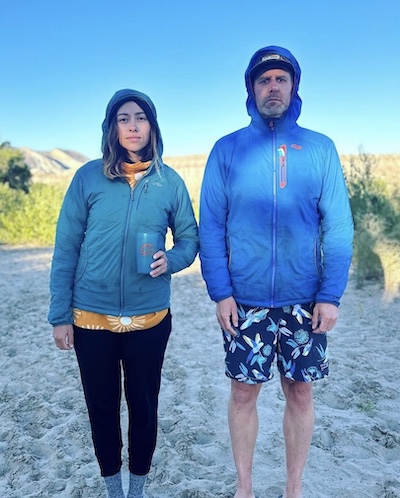
We met up a few weeks ago at my house in the Springs and had a wide-ranging and funny conversation about her life, career, adventures, and crazy misadventures. We talked about what drew her to Colorado for college, and some of the challenges of adjusting to such a new place and environment where she didn’t know anyone. We discussed some of her wild experiences traveling in the West and internationally– including a few run-ins with cult-like groups– and how she took the leap to become a sea kayaking guide and eventually a western river guide. We talk a lot about her commitment to pushing outside of her comfort zone, overcoming fear and discomfort, and why she’s drawn to conservation work. We also discuss the financial realities of seasonal work, how her non-profit work compliments her guiding work, her career plans for the future, and her roles with the Freeflow Institute and Foundation.
And it’s worth noting that Kami and I will be heading out on the river again this summer for another Freeflow workshop, this time on Oregon’s Wild & Scenic Rogue River– August 15th through 20th. As of this recording, there are still a few spots left, so you can follow the link to learn more about the workshop and apply. As of this moment, you can use the secret code “ED200” to get $200 off of the tuition.
A huge thanks to Kami for agreeing to let me ask her a bunch of weird questions and, most importantly, for all of her leadership and support on our river trips. Enjoy!
---
All photos courtesy of Kami Bakken
LISTEN & DOWNLOAD:
Apple Podcasts
Spotify
... or wherever you get your podcasts!
—
RESOURCES:
Topics Discussed:
- 4:00 - Where Kami is from
- 5:00 - Why Kami went to Colorado State, and how her family felt about that decision
- 9:00 - How her early experience in Colorado led her to WWOOF (and apparently a couple of cults)
- 15:30 - Kami’s return to CSU, and her entry into the world of outdoor recreation
- 19:30 - Kami’s travel adventures post-graduation
- 22:00 - Kami’s time with Protect Our Winters
- 24:15 - Kami’s transition to professional guiding
- 27:45 - Where Kami’s desire for connection and impact led her career next
- 31:45 - What Kami’s friends from college were doing while she was raft guiding, and whether or not she has ever questioned her career path
- 33:30 - Exploring the difference between contentment and happiness, and some more details about the outdoor education and rafting nonprofit that Kami worked for
- 37:15 - Kami’s transition to the Freeflow Foundation
- 44:00 - Discussing the Freeflow Foundation
- 45:45 - Balancing safety with growth driven by risk
- 50:00 - The trip that Ed and Kami did together on the Green River
- 54:45 - What makes for a good outdoor guide, and what makes for a bad one
- 59:00 - Who Kami admires
- 1:03:00 - Kami’s next steps
- 1:05:45 - What worries Kami
- 1:09:00 - Kami’s book recommendations
- 1:10:30 - Kami’s advice for those who want to try a new lifestyle or career
Information Referenced:
- Kami on Instagram and LinkedIn
- Freeflow Institute
- Freeflow Foundation
- Ed’s upcoming 2024 Freeflow Program on the Rogue River
- Randolph, MN
- WWOOF
- Jenna Pollard
- Jesus Ranch by Tenacious D
- Protect Our Winters
- Channel Islands
- Kristine Tompkins
- Tribe by Sebastian Junger
- Canyonlands Field Institute
- Chandra Brown
- Chris La Tray
- David James Duncan
- American Whitewater
- American Rivers
- American Prairie
- NRS
- Dinosaur River Expeditions
- Oma plata
- Kate Bollen
- Lindsay Bourgoine
- Canyons River Company
- Brook Hess
- Katie Lee
- Secret Knowledge of Water by Craig Childs
- The BFG by Roald Dahl
- The Desert Oracle by Ken Layne
Enjoy this episode? Then you might like these too:
- Chandra Brown, Part 2 – Teaching & Learning in the West’s Wildest Landscapes
- Mike DeHoff – Exploring the Colorado River’s Reemerging Rapids
- Kristine Tompkins – Nothing to Lose
- Dr. Sara Dant Returns – “Losing Eden: An Environmental History of the American West”
- Anna Borgman – Obsession, Curiosity, and Purpose-Driven Work
- Christy Sing Robertson – On Grit, Hard Work, & Going All In
- Kathie Sever – Chainstitching, Craftsmanship, and Cosmic Western Wear
- Amber Smith – Creating Connection & Community
Visit the podcast page for a full, searchable list of episodes

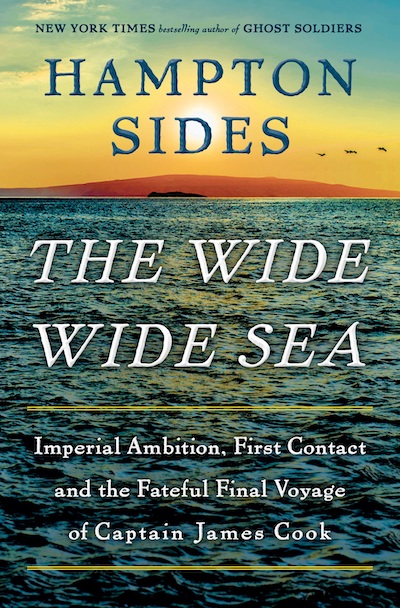
Hampton Sides is a Santa Fe-based historian and bestselling author who has written many books that are favorites of Mountain & Prairie listeners, including Blood and Thunder, On Desperate Ground, and Ghost Soldiers. His newest book is The Wide Wide Sea: Imperial Ambition, First Contact and the Fateful Final Voyage of Captain James Cook, which is available now and sitting high on the New York Times bestseller list. If you’re a longtime Mountain & Prairie listener, then I’m sure you’re glad to see that Hampton has joined me for yet another podcast conversation.
Much of Captain Cook’s epic third voyage takes place far from the mountains and prairies of the American West, in tropical paradises including Tahiti and Hawaii. But what you may not realize, is that a big portion of his final voyage was spent exploring and mapping the west coast of North America, from the rocky shores of present-day Oregon and Washington, all the way up to Alaska. While I was somewhat familiar with Cook and his explorations, I didn’t fully understand or appreciate the mind-blowing scale of his journeys or his impact on world history.
As is the case with all of Hampton’s books, he melds together deep and extensive research with thrilling storytelling to make the process of understanding history as entertaining as it is educational. While Cook is obviously a central figure in The Wide Wide Sea, the book also profiles numerous fascinating Polynesian and Indigenous historical figures, including the Tahitian man named Mai, whom Hampton and I discussed at length in our September 2021 episode. If you haven’t already listened to that episode, I’d encourage you to do so when you’re done with this one.
Hampton and I met up here in Colorado Springs, one of many stops on his book tour for The Wide Wide Sea. As usual, we had a fun and at times very funny conversation about history, his research and writing process, and all things Captain Cook. We started out discussing why Hampton is drawn to write about controversial historical figures, and we talked at length about how he combined historical accounts from Europeans with those from the Indigenous communities that Cook visited. We talked about the mystery of Cook’s dramatic personality change, how Cook’s arrival disrupted the equilibrium of Polynesian cultures, Cook’s leadership style both before and after his personality change, how Hampton organized such massive amounts of research, and how and why he works so hard to get his books into the world. He also gives a sneak peek into his next book, which will based here in Colorado and explores one of the West’s most notorious massacres.
A huge thank you to Hampton for taking time out of his busy schedule to chat with me again, and thank you for listening. Enjoy!
---
All photos courtesy of Hampton Sides
LISTEN & DOWNLOAD:
Apple Podcasts
Spotify
... or wherever you get your podcasts!
—
RESOURCES:
Topics Discussed:
- 7:00 - Why write about Captain Cook
- 10:45 - Captain Cook, pre-1776
- 16:45 - Cook’s ship
- 21:15 - Exploring Cook’s mental health
- 25:30 - Exploring humans’ predisposition towards greed
- 29:30 - The importance of doing boots-on-the-ground research for history
- 32:00 - How Cook kept scurvy at bay
- 34:30 - Hampton’s biggest unexpected discovery while writing The Wide Wide Sea
- 38:00 - Whether or not Hampton experienced apprehensions about telling the story of a complicated person like Cook
- 42:00 - Discussing the circumstances that led to Cook’s death
- 45:45 - Discussing some of Cook’s personality traits and cultural differences between Cook and the Māori
- 49:30 - How Hampton organizes his quotes for writing
- 53:45 - How Hampton actually sells his books
- 58:00 - Hampton’s plans for the future
Information Referenced:
- The Wide Wide Sea by Hampton Sides
- Hampton’s episode discussing Mai
- Hampton’s second M&P episode
- Hampton and Ed live at the Aspen Institute
- Captain James Cook
- Blood and Thunder by Hampton Sides
- Joseph Banks
- Sciatica
- Kerguelen Islands
- Ghost Soldiers by Hampton Sides
- Ernest Shackelton
- The Wager by David Grann
- John Milton Chivington
- The Sand Creek Massacre
- Silas Soule
Enjoy this episode? Then you might like these too:
- Douglas Brinkley – Exploring the Past to Find Inspiration for the Future
- John Vaillant – A Riveting Exploration of Fire
- Dr. Sara Dant Returns – “Losing Eden: An Environmental History of the American West”
- Peter Stark – Tales of Adventure, Exploration, & Epic Battles
- Pete McBride, Part 2: In Search of Silence
- Kristine Tompkins – Nothing to Lose
- Doug Peacock – 50 Years of Fighting for the Grizzlies
- Dr. Katharine Hayhoe – Effecting Change Through Authentic Conversation
Visit the podcast page for a full, searchable list of episodes

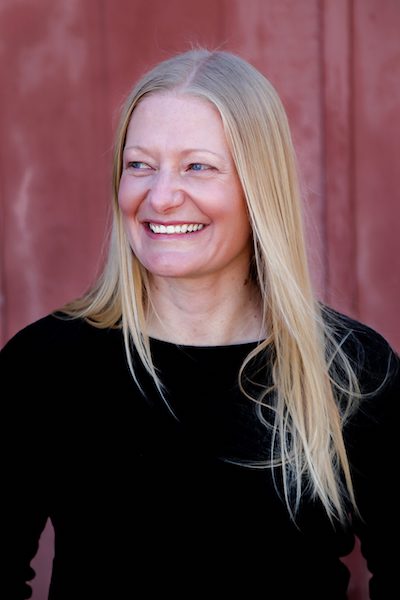
Celene Hawkins is the Colorado River Tribal Water Partnerships Program Director for the Nature Conservancy, and Izabella Ruffino is the Tribal and Indigenous Engagement Program Manager for the Colorado Chapter of the Nature Conservancy. Both Celene and Izabella use their skills to advance and support tribal-led land and water conservation work throughout the American West.
Most of Celene’s work is centered around the Colorado River Basin, and she has played an integral role in many cutting-edge water conservation projects that have sought out Tribal voices and Indigenous perspectives to create some of the West’s most effective and equitable solutions to complex water challenges. Perhaps most notably, she worked with the Jicarilla Apache Nation, the New Mexico Interstate Stream Commission, and her colleagues at TNC to create a first-of-its-kind water agreement that was a true win-win for nature and people.
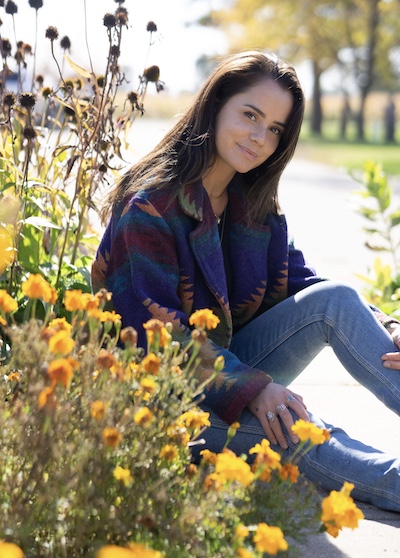
Izabella’s work builds on TNC’s strong foundation of partnerships with Tribal Nations for land and water issues, and she is also focused on expanding Tribal and Indigenous engagement into all aspects of TNC’s wide-ranging conservation work. Additionally, she is responsible for internal efforts to fortify organizational cultural awareness and humility within TNC’s Colorado Chapter. As you’ll hear, Izabella is doing everything from leading internal educational initiatives to working with wide-ranging stakeholder groups on projects such as determining the best uses for TNC-owned land and preserves.
In this episode, we dig into the details of many of their specific projects and initiatives, but we also talk more broadly about the importance of seeking out Indigenous perspectives to help guide TNC’s critical conservation work worldwide. They both offer plentiful resources– online courses, books, podcasts, essays, and more– that will help me (and you, the listener!) better understand the importance of bringing together diverse perspectives to guide the next chapter of conversation work in the West and beyond.
Celene and Izabella mention so many excellent books, people, and resources, so don’t forget to check out the episode notes for links to everything. A big thanks to them both for such a fun, inspiring, and educational conversation. I hope you enjoy!
Photos courtesy of The Nature Conservancy: Header © Roberto Rosales; headshots from Celene and Izabella.
LISTEN & DOWNLOAD:
Apple Podcasts
Spotify
…or wherever you get your podcasts!
EPISODE PARTNER:

This episode is brought to you in partnership with the Colorado chapter of The Nature Conservancy and TNC chapters throughout the Western United States. Guided by science and grounded by decades of collaborative partnerships, The Nature Conservancy has a long-standing legacy of achieving lasting results to create a world where nature and people thrive.
On the last Tuesday of every month throughout 2024, Mountain & Prairie will be delving into conversations with a wide range of The Nature Conservancy’s leaders, partners, collaborators, and stakeholders, highlighting the myriad of conservation challenges, opportunities, and solutions here in the American West and beyond. You can access all of the episodes here.
To learn more about The Nature Conservancy’s impactful work in the West and around the world, visit www.nature.org
RESOURCES:
Topics Discussed:
- 3:30 - Introductions
- 8:30 - The win-win partnership between the Jicarilla Apache Nation, the New Mexico Interstate Stream Commission, and TNC
- 14:00- Challenges and opportunities related to putting together the partnership deal
- 19:00 - Benefits to all parties as a result of the deal
- 21:30 - Positive ripple effects resulting from the partnership
- 24:15 - TNC’s strategies for managing its preserves, including the Medano Zapata Ranch
- 29:15- The process of gathering Indigenous and local perspectives
- 32:00 - Strategies, tactics, and frameworks for building cross-cultural relationships
- 36:30 - Balancing the time it takes to build solid relationships with the reality that “time is of the essence”
- 40:30 - Upcoming exciting projects
- 44:30 - Resources for further learning
- 50:30 - Why they each chose to apply their talents, skills, and careers to the cause of conservation
- 55:30 - Heroes and mentors
- 1:05:00 - Favorite books
- 1:11:00 - Parting words of wisdom
Information Referenced:
- Celene Hawkins
- Izabella Ruffino
- Taylor Hawes episode
- A Win-Win-Win Solution for the Colorado River
- Jicarilla Apache Nation
- Strategic Water Reserve tool
- Medano Zapata Ranch
- Keystone Policy Center
- Voice, Choice, and Action Framework
- Water and Tribes Initiative
- Indian Country 101 training
- Whitener Group
- All My Relations podcast
- Inhabitants film
- Turtle Talk
- This Land podcast
- The Serviceberry by Robin Wall Kimmerer
- Quincy Library Group
- Braiding Sweetgrass by Robin Wall Kimmerer
- Charles Wilkinson
- Sara Krakoff
- Ten Tribes Partnership
- Regina Lopez Whiteskunk
- Lorelei Cloud
- Colorado Water Conservation Board
- Return the National Parks to the Tribes by David Treuer
- Omnivore's Dilemma by Michael Pollen
- This is Your Mind on Plants by Michael Pollen
- The Secret Network of Nature by Peter Wohlleben
- The Hidden Life of Trees by Peter Wohlleben
- An Indigenous Peoples’ History of the United States by Roxanne Dunbar-Ortiz
- As Long as the Grass Grows by Dina Gilio-Whitaker
- Fresh Banana Leaves by Jessica Hernandez
- The Monkey Wrench Gang by Edward Abbey
- Doug Peacock
Enjoy this episode? Then you might like these too:
- Rebecca Clarren – “The Cost of Free Land”
- Lorelei Cloud – Solving Modern-Day Challenges with Ancient Tribal Wisdom
- Doug Peacock – 50 Years of Fighting for the Grizzlies
- Equitable Access to the Outdoors in Texas
- Douglas Brinkley – Exploring the Past to Find Inspiration for the Future
- Shane Doyle – Reverence for the Past, Hope for the Future
- Dr. Sara Dant Returns – “Losing Eden: An Environmental History of the American West”
Visit the podcast page for a full list of episodes where you can filter episodes by topic and guests' vocations.


Credit: Adam Amengual
Kristine Tompkins is an iconic conservationist, the president and co-founder of Tompkins Conservation, and the former CEO of Patagonia. For three decades, she has committed to protecting and restoring wild beauty and biodiversity by creating national parks, restoring wildlife, inspiring activism, and fostering economic vitality through conservation.
Kristine and her late husband Douglas Tompkins have protected approximately 14.8 million acres of parklands in Chile and Argentina through Tompkins Conservation and its partners, making them among the most successful national park-oriented philanthropists in history. To give you a frame of reference for exactly how much land 14.8 million acres is, Yellowstone National Park is just over 2.2 million acres– so the scale and scope of Tompkins Conservation’s impact is truly mind-blowing.
Kristine’s amazing life story was beautifully told in the 2023 feature-length documentary Wild Life, which I highly recommend and can be streamed on Disney+. She was also awarded the Carnegie Medal of Philanthropy, and she recently gave her second TED talk, which will be released in the coming weeks. She’s been featured by pretty much every media outlet you could imagine, so I was honored that she took time out of her very full schedule to chat with me.
Tompkins Conservation has published multiple books about its groundbreaking conservation work in South America. The most recent book is titled Patagonia National Park Chile, which tells the story of the park’s transformation from a former sheep ranch into one of the crown jewels of Chile’s National Park system. Featuring stunning photography by Linde Waidhofer and essays by Kristine, the former President of Chile Michelle Bachelet, Yvon Chouinard, and many others, the coffee-table style book is equal parts inspiring and educational. It’s the kind of book that you’d proudly display on your shelf and find yourself revisiting for years to come.
I met up with Kristine at her California home, and we had a fun and fascinating conversation about everything from the book to leadership to the growth and evolution of Tompkins Conservation. We discussed optimism and pessimism, the difference between contentment and happiness, the importance of having a relentless work ethic, living an extreme life, and operating as if you have nothing to lose. We also talked in detail about the challenges of creating Patagonia National Park, balancing rewilding efforts with the need for economic vitality, and how the conservation lessons learned in South America can be applied to conservation efforts here in the American West. There are even a few brief appearances by her two very sweet pups who sat with us during our conversation, so all of you dog lovers will surely enjoy hearing from them.
Patagonia National Park Chile is available right now at Patagonia.com and available for pre-order wherever you get your books. Follow the links in the episode notes to learn more.
A huge thank you to Kristine for inviting me into her home and being so gracious and generous with her time. And another huge thanks to the teams at Tompkins Conservation and Patagonia Books for the opportunity. Thanks so much for listening, and I hope you enjoy.
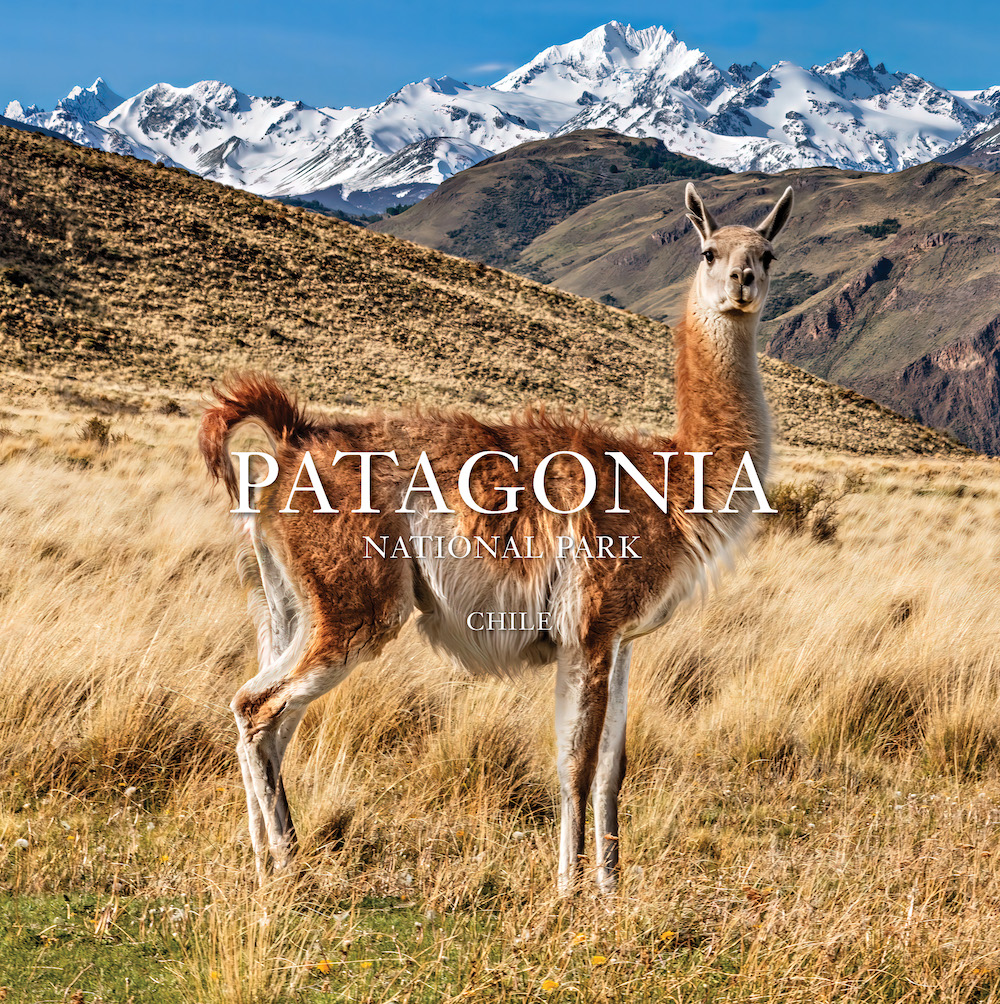
---
All photos courtesy of Patagonia. Header photo credit: Nicolas Piwonka; Headshot photo credit: Adam Amengual
LISTEN & DOWNLOAD:
Apple Podcasts
Spotify
... or wherever you get your podcasts!
—
RESOURCES:
Topics Discussed:
- 3:40 - Why Kris keeps coming back to books
- 7:30 - Who is Arnie Næss
- 13:45 - Discussing leadership, giving credit, and other behaviors key to Kris’s success
- 18:40 - Happiness vs contentment
- 21:30 - Discussing Valle Chacabuco
- 25:45 - Establishing local buy-in as a conservation entity not local to Chile
- 30:30 - How the Tompkins managed livestock on the Valle Chacabuco
- 32:15 - The speed at which settlers spread to Chile
- 34:15 - Whether Kris is an optimist or pessimist
- 36:00 - Who in the new generation gives Kris hope, and what Kris thinks about “hope”
- 40:45 - Kris’s view on taking action
- 44:30 - How Kris prioritizes her efforts
- 49:45 - What Kris has learned in South America that is applicable to the North American West
- 52:15 - Business’s impact on Kris and Doug’s conservation work ethic
- 53:45 - Kris’s favorite failure and lessons learned
- 59:45 - Kris’s life of extremes and passion for service
- 1:05:45 - Kris’s book recommendations
- 1:15:45 - The land trust movement in the US, and the American grasslands
Information Referenced:
- Kristine Tompkins
- Tompkins Conservation
- Rewilding Chile
- Rewilding Argentina
- Douglas Tompkins
- Patagonia National Park
- Vincent Stanley
- The new book, Patagonia National Park
- Arne Næss
- Spinozism
- The Wolf in the Parlor by Jon Franklin
- Sigmund Kvaløy Setreng
- Yvon Chouinard
- Valle Chacabuco
- The Nature Conservancy
- Tierra del Fuego
- Doug Peacock
- Greta Thunberg
- Tapir
- Pete McBride
- Hampton Sides
- Endurance by Alfred Lansing
- James Baldwin
- Genghis Khan
- Napoleon Bonaparte
- The Sea People by Christina Thompson
- The Wager by David Grann
- Sir Francis Drake
- Strait of Magellan
- Douglas Brinkley
- Silent Spring Revolution by Douglas Brinkley
- James Prosek
- Carlos Fernandez
Enjoy this episode? Then you might like these too:
- Nick Offerman – Empathy, Nuance, & Good Hard Work
- Doug Peacock – 50 Years of Fighting for the Grizzlies
- Anna Borgman – Obsession, Curiosity, and Purpose-Driven Work
- Rick Ridgeway – Purpose-Driven Adventurer
- Vincent Stanley – Lessons Learned from Patagonia’s First Fifty Years
- Dylan Tomine – Protecting What He Loves
- Pete McBride, Part 2: In Search of Silence
- Corissa Busse – Tribal-Led Buffalo Restoration in the American West and Beyond
- Jenna Pollard – Timber Framing, Organic Farming, Community, and Purpose
Visit the podcast page for a full, searchable list of episodes

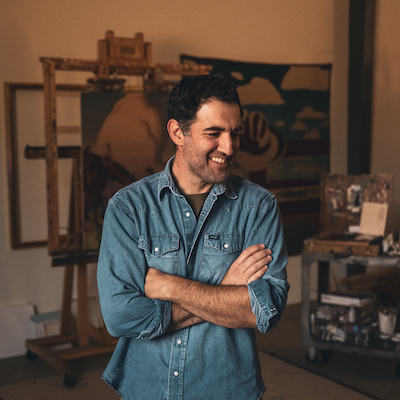
Photo credit: Dylan Gordon
Logan Maxwell Hagege is an Ojai, CA-based contemporary artist with modern visions of the American West. Logan is no stranger to longtime Mountain & Prairie listeners—he first joined me on the podcast back in 2019, and he made another appearance in 2022 alongside several other renowned Western artists in an episode recorded live at Maxwell Alexander Gallery’s 10th-anniversary exhibition. In this episode, I reconnected with Logan at his Ojai studio, and we caught up on a long list of fascinating topics, including his upcoming exhibition at the Gerald Peters Gallery in New York City titled Flowers Will Grow.
Since our first podcast conversation, Logan’s artistic career has continued to skyrocket, and his work has earned the acclaim of a growing number of collectors, critics, and journalists. Most recently, his painting titled “Time and Space” won Best in Show at the Autry’s Masters of the American West show. He’s also been featured in all corners of the Western art world, including a recent spread in Western Art and Architecture and collaborations with well-known brands such as Stetson and Pendleton. But perhaps most impressively, he’s accomplished all of this success while being a deeply committed husband and father of two young children.
As you’ll hear in this conversation, Logan works extremely hard and is fully committed to exploring new realms of his artistic interests, but he brings balance and calmness to what could easily become an all-consuming obsession. I caught Logan just as he was wrapping up all the final details for his upcoming show, and we had a fun discussion about a wide range of topics, including: The intensity of preparing for a show, accepting the judgment that comes with showing art, his practice of constant doodling, how living in Ojai has changed his approach, the importance of self-talk, Georgia O’Keefe, the idea that perfection is boring, the need for action, and much more. Check out the episode notes for a full list of topics discussed and links to everything.
And if you happen to be in New York, the Flowers Will Grow exhibition will open with a reception with Logan on Thursday evening, April 18, 2024, and will be on display through May 23rd.
A huge thanks to Logan for letting me barge into his studio during such a busy time and a huge thanks to you for listening. Enjoy!
All photos by Dylan Gordon
LISTEN & DOWNLOAD:
Apple Podcasts
Spotify
... or wherever you get your podcasts!
—
RESOURCES:
Topics Discussed:
- 2:45 - What the hell is happening in Logan’s studio, and his upcoming show in New York
- 5:15 - Why Logan is working with a gallery outside of Maxwell Alexander
- 7:30 - Whether Logan was nervous the last time he showed his art in New York
- 9:00 - The impact of being able to show more examples of an artist’s work
- 11:15 - How periods of intensity and external pressure have shaped Logan’s work
- 12:45 - How Logan’s art has changed since his 2018 show
- 14:30 - What a Logan’s process looks like when there isn’t external pressure from deadlines
- 17:45 - Logan’s doodling process
- 19:45 - The need for action
- 23:30 - How Logan deals with the fact that unique art will be judged
- 27:45 - Discussing perfection and how boring it is
- 28:45 - Who Logan admires
- 31:15 - Discussing Georgia O’Keefe
- 32:45 - Discussing Logan’s life in Ojai
- 40:00 - The importance of retreat for Logan’s art
- 42:00 - The impact of self-talk
- 44:30 - Discussing the new gallery
- 47:45 - Logan’s book and artist recommendations
Information Referenced:
- Logan Maxwell Hagege
- Logan’s first M&P episode
- Live at Maxwell Alexander Gallery
- Hollyhocks
- Maxwell-Alexander Gallery
- Gerald Peters Gallery
- Briscoe Western Art Museum
- Prix de West
- Masters of the American West, Autry Museum
- Georgia O’Keeffe
- Glenn Dean
- Norman Rockwell
- Ojai, CA
- Rick Ridgeway
- Tribe by Sebastian Junger
- Jocko Willink
- David McCullough
- Tim Lawson
Enjoy this episode? Then you might like these too:
- Nick Offerman – Empathy, Nuance, & Good Hard Work
- Live at the Amon Carter Museum – In Conversation with James Prosek and Spencer Wigmore
- Frances Ashforth – Art, Water, and Wide-Open Spaces
- David James Duncan – Live at the Old Salt Festival
- Kathie Sever – Chainstitching, Craftsmanship, and Cosmic Western Wear
- Beau Alexander – Paying Homage to the Past, While Focusing on the Future
- Douglas Brinkley – Exploring the Past to Find Inspiration for the Future
- Chris Burkard, Part 2 – Seeking Beauty Through Adventure
Visit the podcast page for a full, searchable list of episodes

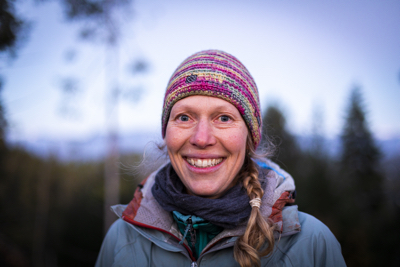
Photo Credit: University of Washington's Snow Project
Dr. Emily Howe is an aquatic ecologist with the Washington state chapter of The Nature Conservancy, and she holds a Ph.D. from the School of Aquatic and Fishery Sciences at the University of Washington. Her work integrates across ecosystem boundaries, investigating how landscape configuration and management shape cross-boundary relationships for food webs, organisms, and ecosystem processes.
At the Nature Conservancy, Emily’s projects stretch from the high peaks of the North Cascades all the way down to the estuary of Port Susan Bay, and her work highlights the interconnectedness of everything from snowpack to salmon populations, forest management to marsh grass health. Much of Emily’s work focuses on understanding liminal spaces– areas in nature where boundaries blend together and where the interactions between ecosystems can be fluid and dynamic.
Since the earliest days of European settlement, this area has been subject to a wide variety of threats to the overall ecosystem—aggressive logging, wildfire suppression, attempts to engineer order into the ever-changing estuaries, and more. And with the intensification of climate change, snowfall and its resulting snowpack have decreased, which only exacerbates the negative effects and threats to the ecosystem.
But thanks to Emily and her team of stakeholders and partners, there are many, many reasons to be optimistic about the future. Combining cutting-edge science with Indigenous knowledge, Emily and TNC are making great progress toward finding solutions that can help with everything from increasing the depth and duration of snowpack in the Cascades to restoring all-important salmon habitat, and much much more.
If you’re a fan of ecology and are interested in how Indigenous wisdom can bolster our 21st-century scientific knowledge, then you’ll love this episode. We start our conversation at sea level, discussing the magic of the tidal ecosystems, then work our way up the into mountains, eventually discussing all things snowpack and forest health. We talk about TNC’s partnership with the Stilliguamish Tribe, how forest gaps can affect snowpack, snow droughts and El Nino, collaboration with federal agencies, and rising sea levels in the Northwest. Emily also talks about her career path to becoming a scientist and she offers up some excellent book recommendations.
I love the Pacific Northwest, so I greatly appreciate everything that Emily and her partners are doing to keep this region of the West so wild, special, and healthy. I hope you enjoy.
Photos courtesy of The Nature Conservancy and the University of Washington's Snow Project.
LISTEN & DOWNLOAD:
Apple Podcasts
Spotify
…or wherever you get your podcasts!
EPISODE PARTNER:

This episode is brought to you in partnership with the Colorado chapter of The Nature Conservancy and TNC chapters throughout the Western United States. Guided by science and grounded by decades of collaborative partnerships, The Nature Conservancy has a long-standing legacy of achieving lasting results to create a world where nature and people thrive.
On the last Tuesday of every month throughout 2024, Mountain & Prairie will be delving into conversations with a wide range of The Nature Conservancy’s leaders, partners, collaborators, and stakeholders, highlighting the myriad of conservation challenges, opportunities, and solutions here in the American West and beyond. You can access all of the episodes here.
To learn more about The Nature Conservancy’s impactful work in the West and around the world, visit www.nature.org
RESOURCES:
Topics Discussed:
- 3:45 - Discussing the history Port Susan Bay Preserve
- 8:15 - The colonial reasons for the “straightening out” of the complex Stille River System
- 11:15 - Why TNC became interested in Port Susan Bay
- 13:15 - Emily’s focus on the Port Susan Bay Preserve
- 17:15 - Emily’s partnership with Tribal entities around Port Susan Bay Preserve
- 21:45 - Where and how TNC partners with the federal government on its work on the coast
- 26:15 - Goals for the Port Susan Bay Preserve
- 32:30 - How fast the sea level is rising in the Port Susan Bay Preserve
- 34:15 - The 2015 Pacific Northwest snow drought
- 38:15 - Emily’s involvement in higher elevation forest management and how it can impact snowpack and water resources
- 45:00 - Putting Emily’s work above to practice
- 52:30 - Emily’s personal journey to this work
- 56:30 - Emily’s book recommendations
- 1:02:00 - Emily’s parting words of wisdom
Information Referenced:
- TNC Washington
- Port Susan Bay Preserve
- Salish Sea
- Stillaguamish River
- Glacier Peak
- Diatoms
- Macoma
- Snoqualmie Tribe
- Tulalip Tribes
- Dr. Susan Dickerson-Lange
- Tapash Sustainable Forest Collaborative
- Yakama Nation
- Yakima, WA
- The Big Burn by Timothy Egan
- The Timber Wars
- Demon Copperhead by Barbara Kingsolver
- Braiding Sweetgrass by Robin Wall Kimmerer
- Leah Palmer’s blog post
Enjoy this episode? Then you might like these too:
- Paige Lewis – Durable Conservation, Collective Action, and Strategic Thinking
- Jenna Pollard – Timber Framing, Organic Farming, Community, and Purpose
- Matt Cahill – A Deep Dive into the Sagebrush Sea
- Lorelei Cloud – Solving Modern-Day Challenges with Ancient Tribal Wisdom
- Cole Mannix – Building Community through Land Stewardship and Local Food
Visit the podcast page for a full list of episodes where you can filter episodes by topic and guests' vocations.


Sterling Drake is an award-winning musician whose soulful tunes reflect his deep love of the landscapes, people, and culture of the American West. The media outlet Lonesome Highway probably best described Sterling’s music by calling it a “perfect fusion of western swing, honky-tonk heartache, and dance hall treasures.” But you can’t really confine Sterling’s music to a single, overarching category– his influences range from country to folk to blues [and more], and he’s toured everywhere from rural Montana to the swamps of South Florida to the music epicenter of Nashville, Tennesse. And it’s those wide-ranging experiences and influences that make him such a fascinating and thoughtful character and such a fun person to talk with.
Sterling’s family has roots in the southeastern U.S., and he was born and raised in Florida. Music was always a big part of his life, but his early interests revolved around the hardcore music scene and his love of drumming. Soon after graduating high school, he decided to head out west, where he began a long stretch of working on various ranches in several different states. Over time, his musical focus shifted from the hardcore world into the roots genre, and he began to capture the attention of audiences at bars, rodeos, and everywhere in between. Today, Sterling is a full-time touring musician, and as I record this, he is preparing for his first European tour. In my mind, Sterling is a perfect example of how a person can successfully meld passion, curiosity, hard work, and respect to create an entirely unique brand of art that resonates with a large, thoughtful audience.
I met Sterling last summer at the 2023 Old Salt Festival in Helmville, Montana, and I was instantly struck by his thoughtfulness, sense of humor, and his desire to contribute to the culture of the American West. So I was glad to finally connect with him for a podcast episode and have an in-depth conversation about his artistic journey. We started out talking about his upbringing in Florida and why he eventually decided to head west. We discuss his time working on ranches, lessons learned from living and working in Nashville, and why he continues to be drawn to Montana. We discuss his most recent EP titled Jereco Sessions, and why he decided to donate all of the proceeds of that project to the nonprofit Western Landowners Alliance. We also discuss Willie Nelson, books, martial arts, straight-edge culture, travel, and much, much more.
If you want to see Sterling perform in person and have a chance to hang out with him, I’d encourage you to come to this summer’s Old Salt Festival, which is taking place June 21-23 in Helmville, Montana. Both Sterling and I will be there, and we’re both looking forward to what is guaranteed to be an amazing weekend.
Thanks for listening, hope you enjoy!
Photos courtesy of Sterling Drake
LISTEN & DOWNLOAD:
Apple Podcasts
Spotify
... or wherever you get your podcasts!
—
RESOURCES:
Topics Discussed:
- 5:00 - Sterling’s first memory of music
- 7:45 - Reflecting on Sterling’s childhood in Florida
- 11:00 - How Sterling became interested in the West, and further discussing Sterling’s upbringing
- 14:30 - Sterling’s time in Utah
- 17:30 - Where Sterling’s work ethic comes from
- 20:00 - How music played into Sterling’s early years out West
- 22:00 - A brief discussion of martial arts and its impact on Sterling’s life
- 25:45 - Sterling’s shift into country music
- 28:15 - When Sterling’s country career started to take off
- 33:15 - Sterling’s insider take on the Nashville music industry
- 40:45 - How Sterling became involved with WLA
- 44:15 - Discussing Sterling’s recent/upcoming album cover
- 45:15 - Sterling’s upcoming European tour
- 46:45 - Looking forward to Old Salt Festival
- 52:30 - Where Sterling may eventually choose to settle down
- 54:00 - Sterling’s advice to early career professionals and aspiring artists
- 1:00:30 - Sterling’s book recommendations
- 1:03:45 - Sterling’s parting words of wisdom
Information Referenced:
- Sterling Drake
- Old Salt Festival
- Western Landowners Alliance
- Beau Alexander and Logan Maxwell Hagege
- Cole Mannix
- Lesli Allison
- Jess Mudgett
- Chris Burkard
- Kaleo
- Bob Marshall Wilderness
- Ovando, MT
- Helmville, MT
- Nick Offerman
- It’s a Long Story by Willie Nelson
- The Lost Cowboy by J.B. Zielke
- Dusty Vaquero YouTube Channel
Enjoy this episode? Then you might like these too:
- David James Duncan – Live at the Old Salt Festival
- Nick Offerman – Empathy, Nuance, & Good Hard Work
- Kathie Sever – Chainstitching, Craftsmanship, and Cosmic Western Wear
- Amber Smith – Creating Connection & Community
- Rick Ridgeway – Purpose-Driven Adventurer
- Nickolas Butler – The Craft of Creativity
- Rick Wittenbraker – Humility, Generosity, and Building One-of-a-Kind Brands
Visit the podcast page for a full, searchable list of episodes

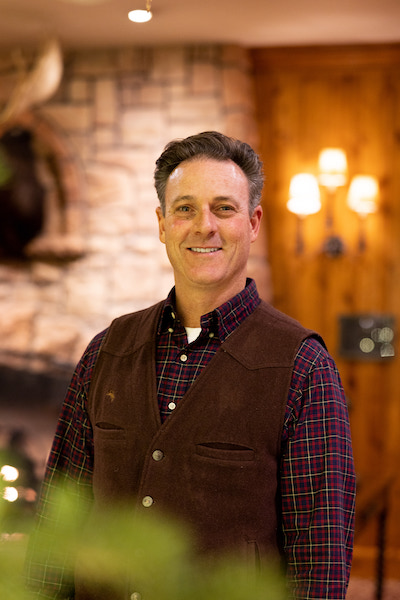
Kevin Krasnow is the Conservation Director at the Jackson Hole Conservation Alliance, a long-standing, highly effective organization whose mission is to “protect the wildlife, wild places, and community character of Jackson Hole.” For more than four decades, the Jackson Hole Conservation Alliance has been a staunch advocate for keeping Jackson Hole wild and beautiful, and it has proven to be a nimble and creative protector of the legendary Wyoming valley. The organization has served as a watchdog against poorly planned development, a champion for public land, a community voice that holds elected officials accountable, and much more.
Kevin brings a fascinating and diverse professional background to his work at the Jackson Hole Conservation Alliance– he’s worked as an Outward Bound instructor, a high school teacher, a college professor, and, most notably, he earned a Ph.D. in Environmental Science, Policy, and Management from the University of California Berkley. Prior to joining the team at the Jackson Hole Conservation Alliance, he worked for ten years at the Teton Science Schools in Jackson. As you’ll hear in our conversation, Kevin is a high-level expert in forest and wildfire ecology, and he speaks eloquently about the role of wildfires in the Greater Yellowstone Ecosystem and beyond.
When I first headed out West from North Carolina nearly twenty years ago, I moved to Jackson Hole— and I will always have a tender spot in my heart for that particular area. So I was thrilled to have the opportunity to connect with Kevin and talk about all things related to ecology, wildlife, fire, and conversation in Jackson Hole. We started with a deep dive into Aspen trees, and why they are such an important and unique part of the Greater Yellowstone Ecosystem. We discussed the Yellowstone Fire of 1988 and how that disaster shaped forest management in the future. We discussed the unprecedented development pressure in and around Jackson, how Kevin and his organization collaborate with a wide range of conservation partners, his professional journey from indirect to direct conservation work, and how his career as an educator informs his work today.
If you’ve ever spent time in the Tetons, Yellowstone, or the Greater Yellowstone Ecosystem, then you’re going to learn a lot from Kevin. Please check out the notes below for a full list of everything we discuss, and I hope you enjoy!
Header photo courtesy of TNC: "Reflective Waters on Jackson Lake." © Andrew Underwood; Headshot courtesy of Kevin Krasnow
LISTEN & DOWNLOAD:
Apple Podcasts
Spotify
…or wherever you get your podcasts!
EPISODE PARTNER:

This episode is brought to you in partnership with the Colorado chapter of The Nature Conservancy and TNC chapters throughout the Western United States. Guided by science and grounded by decades of collaborative partnerships, The Nature Conservancy has a long-standing legacy of achieving lasting results to create a world where nature and people thrive.
On the last Tuesday of every month throughout 2024, Mountain & Prairie will be delving into conversations with a wide range of The Nature Conservancy’s leaders, partners, collaborators, and stakeholders, highlighting the myriad of conservation challenges, opportunities, and solutions here in the American West and beyond. You can access all of the episodes here.
To learn more about The Nature Conservancy’s impactful work in the West and around the world, visit www.nature.org
RESOURCES:
Topics Discussed:
- 3:30 - Discussing Aspen trees and how they captured Kevin’s attention
- 9:30 - Threats to Aspen populations
- 13:30 - Looking at the Yellowstone Fire of 1988
- 24:00 - How significantly forestry and attitudes toward fire have changed after the Yellowstone Fire of 1988
- 28:30 - What brought Kevin to the Jackson Hole Conservation Alliance
- 31:00 - Whether or not COVID has impacted the urgency of JHCA’s work
- 35:15 - What specific problems Kevin works on at JHCA
- 39:15 - How Kevin and JHCA have collaborated with The Nature Conservancy
- 43:00 - Kevin’s switch from “indirect” conservation to “direct”
- 45:00 - When the outdoors became a part of Kevin’s life
- 47:15 - Kevin’s early career in experiential education, and how it benefits his career now
- 52:30 - Kevin’s words for a young person looking for career advice
- 55:00 - Kevin’s book recommendations
- 58:15 - Kevin’s parting words of wisdom, and how folks can support JHCA
Information Referenced:
- Kevin Krasnow
- Pando Aspen Stand
- Pine beetle
- Yellowstone fires of 1988
- Ponderosa Pine
- The Big Burn by Timothy Egan
- Fire Weather by John Vaillant
- John Vaillant
- Jackson Hole Conservation Alliance
- The Nature Conservancy, Idaho
- The Nature Conservancy, Wyoming
- Teton Area Wildfire Protection Coalition
- Outward Bound
- Braiding Sweetgrass by Robin Wall Kimmerer
- When Things Fall Apart by Pema Chodron
Enjoy this episode? Then you might like these too:
- Doug Peacock – 50 Years of Fighting for the Grizzlies
- Rob Addington – A Deep Dive into Western Wildfires and Forest Health
- John Vaillant – A Riveting Exploration of Fire
- Christian Beckwith, Part 2 – The Fascinating History of the 10th Mountain Division
- Dr. Katharine Hayhoe – Effecting Change Through Authentic Conversation
- 50 Years of the Endangered Species Act – Live in Austin
Visit the podcast page for a full list of episodes where you can filter episodes by topic and guests' vocations.

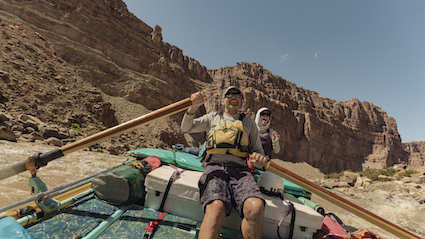
(Photo by Elliot Ross)
Mike DeHoff is the Principal Investigator at Returning Rapids Project, a one-of-a-kind initiative that is documenting the recovery of the Colorado River in Cataract Canyon, upper Glen Canyon, and along the San Juan. Back in 1963, the construction of Glen Canyon Dam created Lake Powell, which submerged many of the area’s canyons– turning what were once wild stretches of the Colorado into flat water. Today, the southwest’s ongoing historic drought has caused Lake Powell’s water levels to to drop significantly, revealing historic rapids, recently hidden geologic features, and riparian ecosystems that had been deep underwater for nearly fifty years.
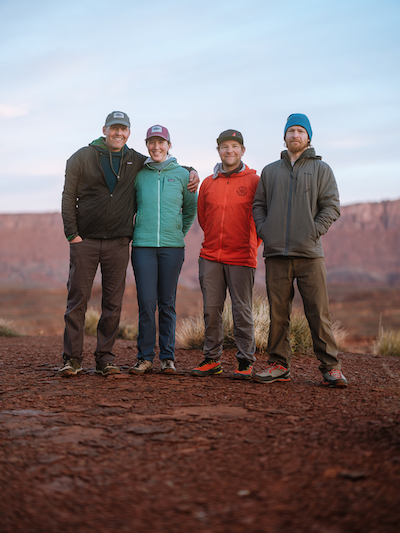
Returning Rapids began as a personal project for Mike and three of his river-loving friends– Meg Flynn, Peter Lefebvre, and Chris Benson. They began to notice changes in the river created by Lake Powell’s receding waters and started documenting those changes and using historic photographs and documents to better understand the reemerging landscape. Over the years, their work caught the attention of universities, academics, scientists, and government agencies, all of whom were fascinated by what was being discovered deep in those canyons. Fast forward to today, and their work is not only enabling cutting-edge research but also capturing the attention of bigtime media outlets, including a recent feature in Rolling Stone.
Mike connected with me virtually from his home base in Moab, Utah, and we had a fascinating discussion about the Colorado River, Lake Powell, and the history of the Returning Rapids project. We started out with a brief history lesson on the drought’s effect on the Colorado River, then we dug into issues such as the mind-blowing amount of sediment created by Glen Canyon Dam. We discussed when Mike and his partners realized that their personal project was capturing the attention of the public, the challenges of garnering attention for lesser-known places like Cataract Canyon, and the idea of combining Lake Powell and Lake Mead. We also talk a lot about Mike’s personal journey with this project, and how his willingness to follow his curiosity, partner with very smart people, take risks, and work extremely hard has had a significant scientific impact. We also discuss books, his mentors, his desire to learn from everyone he meets, and much more.
A huge thanks to Mike, Meg, Peter, and Chris for their important work, and for providing such a solid example for all of us who feel drawn to make a difference here in the American West. You can support Returning Rapids
Header photo by Travis Custer, photo of Mike and Meg by Elliot Ross, team photo by Cody Cobb
LISTEN & DOWNLOAD:
Apple Podcasts
Spotify
…or wherever you get your podcasts!
EPISODE PARTNER:

This episode is brought to you in partnership with the Mighty Arrow Family Foundation.
To whom much is given, much is expected. This value guides the philosophy behind the Mighty Arrow Family Foundation today.
Committed to its cause and infused with an entrepreneurial spirit, Mighty Arrow aims to invest in solutions that take action on climate change to build a more vibrant future, repair relationships from farm to market to table, heal our connection to the lands and waters we call home, and demand a more just and equitable society.
To learn more about Mighty Arrow’s forward-thinking, optimistic, and visionary work here in the American West and beyond, please visit www.mightyarrow.org.
RESOURCES:
Topics Discussed:
- 3:30 - The drought of the early 2000s and how it started a 20+ year journey for Mike
- 16:30 - How an entire land mass of Colorado River sediment can be created with no one claiming management or responsibility of it
- 21:30 - When Mike’s project shifted from a personal interest to an interest of the public
- 26:15 - The surprising rate that Lake Powell and Cataract Canyon are capable of recovering
- 34:30 - How Mike garners attention for lesser-known but important places like Cataract Canyon
- 37:15 - Discussing the idea of combining Lake Powell and Lake Meade
- 44:15 - Mike’s advice for people wanting to do something similar to he and his team
- 47:30 - Mike’s powerful appreciation for the people he meets, and his mentors and heroes
- 50:30 - Mike’s book recommendations
- 53:45 - Mike’s parting words of wisdom
Information Referenced:
- The Returning Rapids Project
- The Returning Rapids Project: Good News From the Beleaguered Colorado River
- Cataract Canyon
- Peter Lefebvre
- Meg Flynn
- Les Jones
- Mike DeHoff’s online presentation
- Encounters With Archdruid by John McPhee
- David Brower
- Floyd Dominy
- Chris Benson
- Scott Hynek
- Cari Johnson
- Mighty Arrow Family Foundation
- The Interim Guidelines
- Where the Water Goes by David Owen
- Brenda Bowen
- 1491 by Charles C. Mann
- Deadrun by Dan Schultz
- Desert Notes and River Notes by Barry Lopez
Enjoy this episode? Then you might like these too:
- Pete McBride, Part 2: In Search of Silence
- Chris Burkard, Part 2 – Seeking Beauty Through Adventure
- Taylor Hawes – Innovative Conservation in the Colorado River Basin
- Chandra Brown, Part 2 – Teaching & Learning in the West’s Wildest Landscapes
- Lorelei Cloud – Solving Modern-Day Challenges with Ancient Tribal Wisdom
- Doug Peacock – 50 Years of Fighting for the Grizzlies
- Dylan Tomine – Protecting What He Loves
Visit the podcast page for a full list of episodes where you can filter episodes by topic and guests' vocations.

An excerpt from my most recent Shed Session episode, highlighting seven of my favorite books that you may have never heard of.
To listen to the full episode and all future Shed Sessions, become a Patreon supporter.
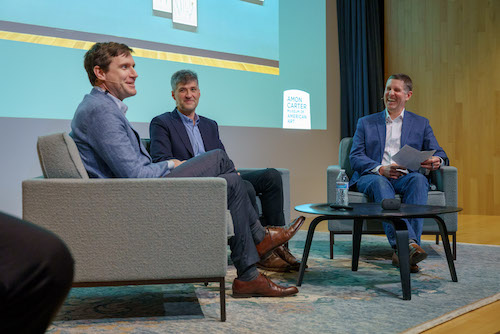
This is a special live episode that was recorded at the Amon Carter Museum of American Art in Fort Worth, Texas. The event was centered around the museum’s ongoing exhibition titled Trespassers: James Prosek and the Texas Prairie, and the episode features a fascinating on-stage conversation with artist and past podcast guest James Prosek and art curator Spencer Wigmore.
Trespassers is an exhibit about grasslands– specifically, James examines how we think about and define America’s imperiled prairie ecosystem. Over the course of more than two years, James traveled throughout Texas and the Southern Plains, visiting private ranches and urban restoration sites, and he was often accompanied by some of Texas’s most well-renowned grasslands experts. He investigated ideas around how our man-made boundaries and concepts attempt to define grasslands, and how grasslands often do not conform to our desires to control them. He examines ideas around fire, species classification, conservation, and natural history, and the end result is a collection of more than twenty mind-blowing paintings and sculptures.
As the curator for this exhibit, Spencer played a very unique role throughout the entire project– he was the one who initially approached James with the idea, he accompanied James on many of his grasslands road trips, and he even arranged the exhibit in its stunning space within the museum. So I loved learning about the collaboration between artist and curator, how they complimented each other’s personalities, and how they ultimately worked together to bring this spectacular collection of meaningful art into the world.
As you probably remember from my first podcast conversation with James, he’s a deep thinker who has spent his entire career digging into the nuances of our natural world. And Spencer’s depth of understanding of art history and the artistic process– as well as his ability to communicate his knowledge in a fun and engaging way– is second to none. So I know you’ll enjoy this conversation that covers everything from broad, big-picture ideas around the philosophies of defining species, all the way down to the details of how James created such intricate, delicate sculptures. Be sure to check out the episode notes below for a full list of everything we discussed.
The episode starts with a kind introduction from The Carter’s Manager of Adult Programming, Madeleine Fitzgerald and then James, Spencer, and I begin our conversation. I hope you enjoy!
Photos of Trespassers:
All photos courtesy of The Amon Carter Museum of American Art
LISTEN & DOWNLOAD:
Apple Podcasts
Spotify
... or wherever you get your podcasts!
—
RESOURCES:
Topics Discussed:
- 3:00 - Welcome statements
- 10:45 - How the Trespassers exhibition came about in Spencer’s mind, and how it landed for James
- 19:15 - Comparing American grasslands to the Great Pyramids
- 23:45 - James’ painting process
- 29:15 - Spencer’s role as curator
- 34:00 - Discussing the work Fort Worth Composition No. 1
- 37:45 - Discussing James’ interest in silhouettes
- 42:30 - James’ use of bronze to depict burn logs
- 47:00 - James’ clay flowers
- 50:15 - The biggest surprise in this project for Spencer
- 54:00 -What James has learned about grasslands since finishing the project
- 1:01:15 - James’ read on the state of western grasslands conservation
- 1:06:15 - James’ book recommendations
- 1:09:30 - How Spencer sets up the gallery space
- 1:14:00 - Audience questions begin
- 1:14:45 - Spencer’s and James’ relationship to Fort Worth, and whether or not they found remnant prairies there
- 1:20:00 - Where Spencer and James feel the anti-fire bias came from?
- 1:23:30 - Inquiring about the significance of a Rio Grande Cutthroat Trout in one of James’ works
- 1:26:15 - Whether or not James or Spencer did some fly fishing as a part of their research for this project
Information Referenced:
- Amon Carter Museum of American Art
- Spencer Wigmore
- James Prosek
- Trespassers exhibition
- Big Bluestem
- Fire in America by Stephen Pyne
- Heath Hens
- Pliny the Elder
- Prairie Time by Matt White
- Changes in the Land by William Cronon
- Forgotten Fires by Omer C. Stewart
- Jaime Gonzales, when featured in M&P epsisode
- The Big Burn by Timothy Egan
- Trout by James Kersec
Enjoy this episode? Then you might like these too:
- Live from Maxwell Alexander Gallery
- Nick Offerman – Empathy, Nuance, & Good Hard Work
- David James Duncan – Live at the Old Salt Festival
- Live with the Cowboy Artists of America
- Beau Alexander – Paying Homage to the Past, While Focusing on the Future
- Frances Ashforth – Art, Water, and Wide-Open Spaces
- Kelsey Johnson – Chasing Her Artistic Ambitions
Visit the podcast page for a full, searchable list of episodes

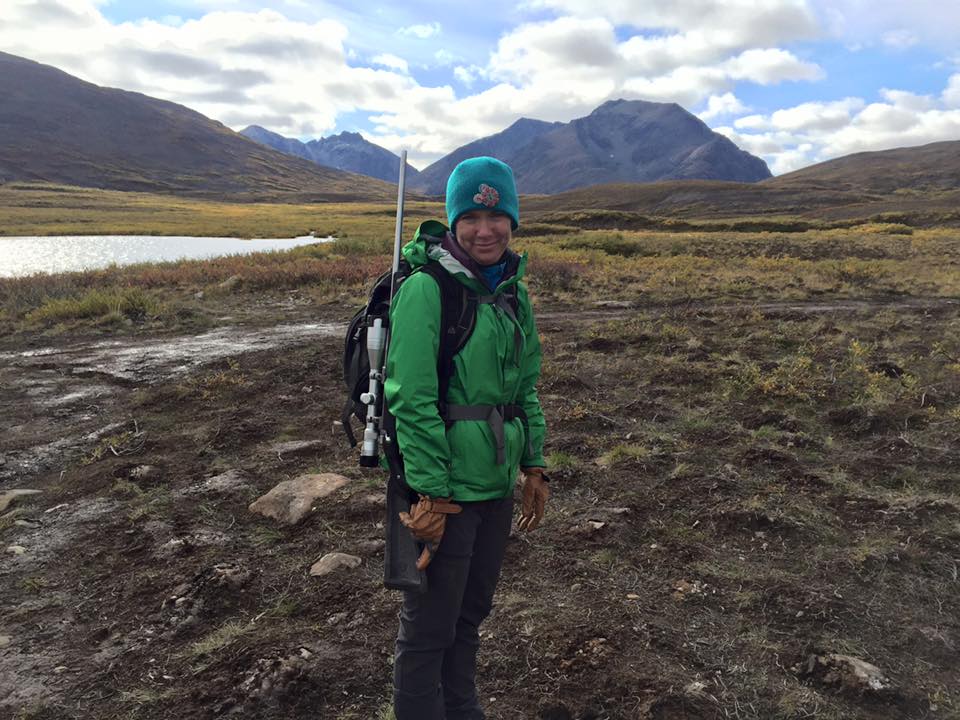
(credit Troy Bowler)
Ivy Spohnholz is the Alaska State Director at The Nature Conservancy, where she leads the organization’s critical work around climate solutions, sustainable fisheries, and resilient communities. Given its size, location, climate, demographics, and economics, Alaska presents a very unique blend of conservation challenges– challenges that can directly affect massive, landscape-scale ecosystems and the communities within them. We’ve rarely, if ever, dug into the details of conservation in Alaska on this podcast, so I was thrilled to have Ivy join me for such an in-depth conversation.
Ivy was born in a dry log cabin in the remote Wrangell Mountains, in what is now Wrangell-St. Elias National Park and Preserve. Her entire career has revolved around public service– she’s held leadership roles at the Salvation Army, University of Alaska Anchorage, Alaska Conservation Foundation, and Abused Women’s Aid in Crisis. She also served for more than six years in the Alaska House of Representatives, where she honed her skills as a pragmatic and effective problem solver. In the fall of 2022, she took the reins as TNC’s Alaska State Director and has been applying her skills as a leader and problem solver toward Alaska’s distinctive conservation challenges.
I’ve been lucky enough to visit Alaska on two separate occasions, and I’ve had some of the most formative experiences of my life in the Alaska Range. The size and scale of the mountains, valleys, and wildlife are so staggering that it's impossible to visit Alaska without gaining a deep respect for both the landscapes and the people who live there. So, I was excited to have the opportunity to chat with Ivy about her adventurous upbringing in Alaska and her service-oriented career. We talk in detail about her unexpected entrance into politics and how she quickly learned to lead and navigate the law-making process as an elected official. We discuss TNC’s focus areas in Alaska, and we talk a lot about Bristol Bay and its ecological and economic significance in the world. As you’ve probably come to expect, we talk about the all-important power of relationships, and we also discuss the need to be practical and optimistic.
A big thank you to Ivy for taking the time to talk with me– I greatly appreciate all of the important work being done by TNC Alaska. Enjoy!
Header photo by Matthew Waliszek, hunting photo by Troy Bowler
LISTEN & DOWNLOAD:
Apple Podcasts
Spotify
…or wherever you get your podcasts!
EPISODE PARTNER:

This episode is brought to you in partnership with the Colorado chapter of The Nature Conservancy and TNC chapters throughout the Western United States. Guided by science and grounded by decades of collaborative partnerships, The Nature Conservancy has a long-standing legacy of achieving lasting results to create a world where nature and people thrive.
On the last Tuesday of every month throughout 2024, Mountain & Prairie will be delving into conversations with a wide range of The Nature Conservancy’s leaders, partners, collaborators, and stakeholders, highlighting the myriad of conservation challenges, opportunities, and solutions here in the American West and beyond. You can access all of the episodes here.
To learn more about The Nature Conservancy’s impactful work in the West and around the world, visit www.nature.org
RESOURCES:
Topics Discussed:
- 3:30 - Ivy’s birth in a dry log cabin in the Wrangell Mountains
- 7:15 - Ivy’s childhood
- 10:15 - When Ivy left Alaska, and what brought her back
- 12:00 - How serving others became a core part of Ivy
- 17:00 - When Ivy became an elected official
- 24:00 - Discussing the political landscape of Alaska
- 28:15 - How Ivy became involved with TNC
- 34:45 - Discussing TNC’s work in Alaska
- 41:00 - How Ivy balances working urgently with the often slower pace of building relationships
- 46:30 - The importance of Bristol Bay
- 52:00 - Potential future threats to Bristol Bay
- 57:00 - The biggest surprise for Ivy in her work with TNC
- 59:30 - Discussing “practical optimism”
- 1:01:30 - Ivy’s book recommendations
- 1:03:45 - Ivy’s parting words of wisdom
Information Referenced:
- Ivy Sponholtz
- The Alaska Chapter of The Nature Conservancy
- Wrangell Mountains
- Nabesna, AK
- Wrangell-Saint Elias National Park and Preserve
- Anchorage, AK
- Talkeetna, AK
- The Timber Wars
- Bristol Bay
- United Tribes of Bristol Bay
- Pebble Mine
- Katharine Hayhoe
- Saving Us by Katherine Hayhoe
- Strangers In Their Own Land by Arlie Russell Hochschild
- How to Know a Person by David Brooks
- Good to Great by Jim Collins
- The Second Mountain by David Brooks
Enjoy this episode? Then you might like these too:
- Dr. Sara Dant Returns – “Losing Eden: An Environmental History of the American West”
- Jenna Pollard – Timber Framing, Organic Farming, Community, and Purpose
- Corissa Busse – Tribal-Led Buffalo Restoration in the American West and Beyond
- Vincent Stanley – Lessons Learned from Patagonia’s First Fifty Years
- Doug Peacock – 50 Years of Fighting for the Grizzlies
- Chandra Brown, Part 2 – Teaching & Learning in the West’s Wildest Landscapes
- Cole Mannix – Building Community through Land Stewardship and Local Food
Visit the podcast page for a full list of episodes where you can filter episodes by topic and guests' vocations.


Chad Ellis is the CEO of the Texas Agricultural Land Trust (TALT), which is one of the nation’s leading ag-focused conservation organizations. TALT’s mission is “To conserve the Texas heritage of agricultural lands, wildlife habitats, and natural resources,” but at its core, TALT’s work is built on the foundation of long-term, trusting, mutually respectful relationships.
Given the small proportion of public lands in Texas compared to other western states, much of the responsibility for landscape-scale ecological health falls on the shoulders of private landowners. And since 2007, TALT has helped these landowners find ways to not only protect their family legacies, but to improve the overall quality of grasslands, water, air, and wildlife for all Texans.
Chad was raised in rural Texas, and from a very early age, he felt a deep connection to land, agriculture, and wildlife. While his entire career has been devoted to thoughtfully and effectively stewarding natural resources, you’ll quickly realize that at his core, Chad is a relationship builder. During his tenures at the NRSC, the Noble Research Institute, and now as the leader of TALT, Chad has implemented many cutting-edge conservation solutions– but, as you’ll hear him explain, none of these projects would be successful without solid, trusting relationships between all stakeholders.
Longtime listeners will recognize Chad from an earlier appearance on Mountain & Prairie– back in 2023, he was one of the panelists in an episode called “Landscape-Scale Management in a Private Land State,” which was recorded live at the Texas Chapter of the Wildlife Society’s annual meeting. In this episode, we dig more into Chad’s personal and professional journey in conservation– why he has devoted his career to such a challenging-yet-critical cause, and how he approaches his work from both practical and philosophical perspectives. We discuss his love of entrepreneurial approaches, his leadership style, mentors, the storied legacy of TALT’s founder Blair Fitzsimons, supporting the next generation of conservationists, his favorite books, and much more.
If you haven’t already, I’d encourage you to check out TALT’s website and follow its work on social media– TALT is a constant source of inspiration for me and all of the Western conservation community. Thanks for listening!
Photos courtesy of Chad Ellis and TALT
LISTEN & DOWNLOAD:
Apple Podcasts
Spotify
... or wherever you get your podcasts!
—
RESOURCES:
Topics Discussed:
- 4:30 - Where Chad grew up
- 7:45 - Chad’s work with PERC
- 10:15 - Where Chad’s entrepreneurial background came from
- 16:15 - How Chad moved up in the NRCS ranks
- 18:45 - Chad’s time with Mobil Foundation
- 21:45 - Chad’s personal vision
- 24:30 - Chad’s motivation to strengthen people’s connection to the land, instead of just supporting the land itself
- 27:15 - How Chad hires for a passionate team
- 29:15 - Chad’s work securing federal funding
- 32:45 - How Chad thinks about failure
- 34:45 - How Chad presented his vision for TALT to an already accomplished director (Blair Fitzsimons)
- 40:30 - Chad’s goal to support the next generation of conservationists
- 44:30 - How Chad interprets the threats facing conservation in Texas
- 51:30 - How Chad prioritizes his allocation of resources
- 58:45 - Exploring Chad’s level of patience, as well as the various ways that people learn and work
- 1:03:30 - The importance of relationships
- 1:07:45 - Chad’s book recommendations
- 1:09:15 - Chad’s parting words of advice
Information Referenced:
- Lohn, TX
- Texas Agricultural Land Trust (TALT)
- Property Environment Research Center (PERC)
- Noble Foundation (Noble Research Institute)
- Dr. Roel Lopez
- Natural Resource Institute
- Brian Lebronski
- Sul Ross State University
- Texas Parks and Wildlife Department
- Angelo State University
- Natural Resources Conservation Service (NRCS)
- Lloyd Noble
- Carlos Fernandez
- Inflation Reduction Act (IRA)
- Blair Fitzsimons
- Joe Fitzsimons
- Texas Chapter of the Wildlife Society 2023 meeting
- TALT’s guiding principles
- Regional Conservation Partnership Program (RCPP)
- Myers-Briggs Personality Test
- Enneagram
- Think Like a Horse by Grant Golliher
- Diamond Cross Ranch
Enjoy this episode? Then you might like these too:
- Erik Glenn Returns – Leadership, Innovation, & Commitment to Conservation
- Rebuilding a Resilient, Regional Meat Supply Chain – LIVE at the Old Salt Festival
- Matt Moorhead & Galen Guerrero-Murphy – Grasslands Conservation on the Southern High Plains
- Dr. Katharine Hayhoe – Effecting Change Through Authentic Conversation
- Francesca Claverie – A Borderlands Conservation Success Story
- Taylor Hawes – Innovative Conservation in the Colorado River Basin
- Anna Borgman – Obsession, Curiosity, and Purpose-Driven Work
Visit the podcast page for a full, searchable list of episodes

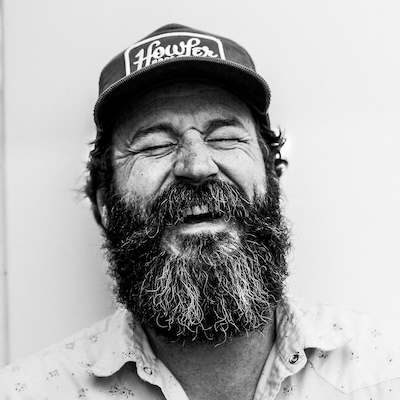
Rick Wittenbraker is the CMO of Howler Brothers, an Austin-based apparel company that creates some of the most unique, stylish, quirky, and highly functional outdoor clothing for adventurers of all stripes. In a little over a decade, Howler has firmly established itself as the go-to brand for anglers, surfers, travelers, and fun-seekers– the kind of people who value good times with good friends in cool places.
Rick was born and raised in Texas, attended UT Austin, and spent the first years of his career in traditional businesses such as finance and sales. But in 2009, he joined an up-and-coming cooler company known as Yeti, and that is where Rick’s genius for storytelling really broke through. He eventually became Yeti’s VP of Marketing and was one of the major forces behind Yeti’s groundbreaking approach to building a brand through outside-the-box storytelling. Along the way, he met Howler Brother’s founders– Chase Heard and Andy Stepanian– and eventually decided to join them and apply his brand-building expertise toward expanding what is now known as The Howlerverse.
Rick has been a longtime mentor of mine, and I credit his wisdom and counsel as being one the main factors that have allowed me to build Mountain & Prairie from a silly little side project into my full-time job. And there are countless creatives and entrepreneurs who have a similar story of Rick generously taking an interest in their project, offering his hard-earned wisdom, and expecting nothing in return. So this episode with Rick was long overdue.
We recorded this in Austin, at the Howler Brothers HQ, and we covered a lot, including: Rick’s career path, lessons learned from living internationally, his philosophies around building authentic, completely original brands, his ever-present focus on generosity and humility, separating personal identity from brand identity, growing without abandoning core values, the spirit behind the Howler Brothers brand, the Howler Brothers book, some of his favorite books, and much more.
A big thanks to Rick for taking the time to chat with me, as well as for everything he’s done to help Mountain & Prairie grow and evolve over the years. Hope you enjoy this conversation as much as I did.
Photos courtesy of Rick Wittenbraker
LISTEN & DOWNLOAD:
Apple Podcasts
Spotify
Google Podcasts
... or wherever you get your podcasts!
—
RESOURCES:
Topics Discussed:
- 4:00 - Rick’s childhood and what he wanted to be when he grew up
- 9:15 - Rick’s first job out of college
- 11:15 - Rick’s mentor in his first job
- 14:45 - When Rick became interested in marketing
- 18:00 - When Rick realized he and Yeti were onto something big
- 20:45 - Inspirations for Rick’s style of marketing with Yeti, and why it works so well
- 25:30 - Fun that Rick has had on the job
- 27:45 - Why Rick decided to move along from Yeti
- 29:45 - A bump in Rick’s career road
- 31:15 - Balancing the merits of business ideas and businesses with the people who implement them
- 38:00 - Describing Howler Bros.
- 44:15 - How Howler Bros. balances their identity and values with the need for business growth
- 46:15 - Separating personal identity from brand identity
- 49:30 - Balancing initiative and recklessness as it pertains to business progress
- 51:30 - Where Rick’s generosity and willingness to help comes from
- 54:00 - The future of Howler Bros.
- 58:15 - Rick’s book recommendations
- 1:03:00 - Rick’s parting words of wisdom
Information Referenced:
- Rick Wittenbraker
- Howler Bros.
- Flyfishing Film Tour
- Yeti Coolers
- Flip Pallot
- Jose Wajebe
- Bill Dance
- Chase Heard and Andy Stepanian
- Howler monkey
- A Decade of Howler Brothers Book
- Goodbye to a River by John Graves
- Lonesome Dove by Larry McMurtry
- Call an Audible by Daron K. Roberts
Enjoy this episode? Then you might like these too:
- Nick Offerman – Empathy, Nuance, & Good Hard Work
- Alvin Dedeaux – Living His Dream
- Kathie Sever – Chainstitching, Craftsmanship, and Cosmic Western Wear
- Chris Burkard, Part 2 – Seeking Beauty Through Adventure
- Beau Alexander – Paying Homage to the Past, While Focusing on the Future
- Jess Mudgett – Humble & Grateful
- Pete McBride, Part 2: In Search of Silence
- Rick Ridgeway – Purpose-Driven Adventurer
- Anna Borgman – Obsession, Curiosity, and Purpose-Driven Work
Visit the podcast page for a full, searchable list of episodes

This is a special live episode that was recorded in Austin, Texas, in November of 2023 at the 50th Anniversary Endangered Species Act Symposium. As you may know, 2023 marked 50 years since the passing of the Endangered Species Act (ESA), which is one the most influential and impactful pieces of conservation legislation in United States history. This symposium gathered together an impressive and wide range of ESA experts from governmental, non-profit, and for-profit organizations, and we spent the day discussing the ESA’s fascinating and complex past, present, and future.
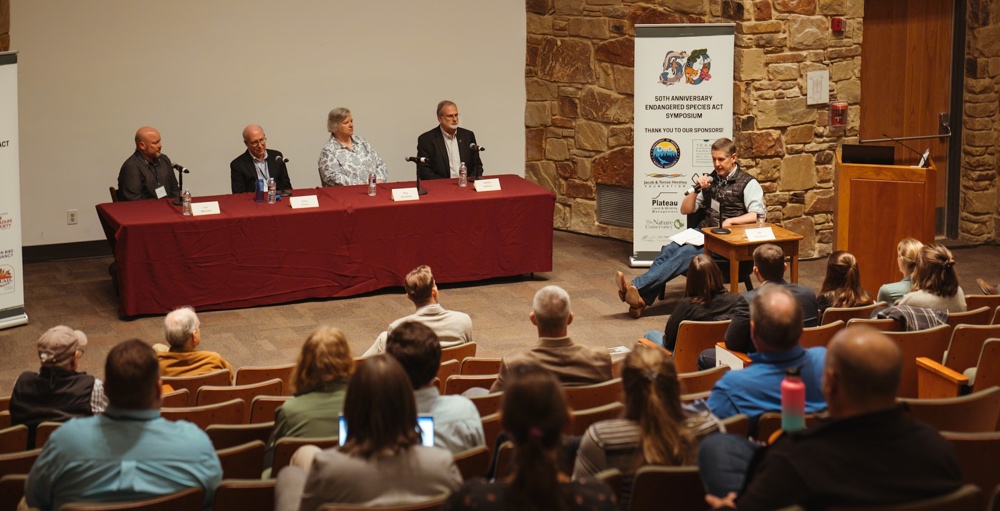
In this episode, we’ll hear from four leaders who have worked in the trenches of conservation for decades, and each of them brings a unique perspective on both the challenges and opportunities that the ESA creates for on-the-ground conservation. The panelists are:
- Gary Frazer - Assistant Director for Ecological Services at the US Fish and Wildlife Service
- Peg Romanik - Recently retired high-ranking attorney from the Department of Interior
- Jimmy Bullock - Senior Vice President at Resource Management Service LLC
- Leo Miranda-Castro - Former USFWS Director and current Executive Director of Conservation without Conflict
All four of these distinguished panelists have worked extensively within the frameworks of the Endangered Species Act, and they bring a wealth of practical and philosophical knowledge about the ESA’s impact over the past 50 years… and its expected impacts in the future. But perhaps more importantly, these four panelists helped me to appreciate the humanity behind the historic, powerful legislation– the smart, dedicated, conservation-minded leaders whose work has allowed the act to effect change and evolve over the past five decades.
We covered a lot during this hour-long discussion, and highlights include: How the ESA switched from a more punitive to a more collaborative approach; concrete examples of productive, collaborative conservation; working with the extreme opinions about climate change; hopes for the future of market-incentivized species conservation; examining potential political threats to the ESA; the evolution of using the ESA for single species conservation to using it for landscape-scale conservation, advice for young people in the conservation field, and much more.
This episode was the last panel discussion of the day, so if you’d like to listen to the first three panels, you can do so below. Those earlier sessions include discussions with everyone from one of the ESA’s authors to some of today’s most renowned conservation thought leaders– I really can’t imagine having a more impressive group of conservation practitioners in one room. You can check out the Symposium program, which includes all the details of the day's event and speaker bios.
And one more thing: This symposium was organized by the fellows of the James G. Teer Conservation Leadership Institute, which is sponsored by The Texas Chapter of The Wildlife Society. The mission of the Teer Institute is to ensure a future legacy of well-trained conservation leaders by providing professional training in leadership skills and contemporary conservation. I was so impressed with all the fellows and left this event feeling very optimistic about the future of conservation in Texas and beyond.
A huge thank you to the fellows and to Dr. Roel Lopez of Texas A&M University for inviting me down to Austin to moderate this panel. It was an honor to be in the same room with all these amazingly inspiring folks. Hope you enjoy!
All photos by Brittany Wegner
LISTEN & DOWNLOAD:
Apple Podcasts
Spotify
Google Podcasts
…or wherever you get your podcasts!
RESOURCES:
Topics Discussed:
- 4:00 - Introduction
- 10:15 - Peg describes when the ESA switched from a more punitive to a more collaborative approach
- 14:45 - Leo’s example of exceptional collaborative conservation
- 21:00 - How Gary handles extreme opinions about climate change
- 27:00 - Examples of Jimmy’s work with the ESA that became financially sustainable
- 31:30 - Hopes for the future of market-incentivized species conservation
- 34:45 - Examining the security of the ESA
- 39:00 - Discussing the evolution of using the ESA for single species conservation to using it for landscape-scale conservation
- 44:30 - The panel’s advice for young people in this field
- 53:15 - Wrapping up and acknowledgments
Information Referenced:
- James G. Teer Conservation Leadership Institute
- Symposium Program and Speaker Bios
- Endangered Species Act
- Dr. Roel Lopez
- Peg Romanik
- Leo Miranda
- Gary Frazer
- Jimmy Bullock
- Gopher Tortoise
- National Alliance of Forest Owners
- Section 4 listings
- Katherine Hayhoe
- Saving Us by Katherine Hayhoe
- Rio Encantado, Puerto Rico
- Aldo Leopold
- The Ladybird Johnson Wildflower Center
- East Foundation
- Department of Defense Natural Resources
- Texas Parks and Wildlife Foundation
- Hershey Foundation
- Caesar Kleberg Wildlife Research Institute
- The Temple Foundation
- Bowman Consulting
- The Nature Conservancy
- Welder Wildlife Foundation
- Texas A&M
- Aldo Leopold Foundation
Earlier Symposium Sessions
Session One - Past
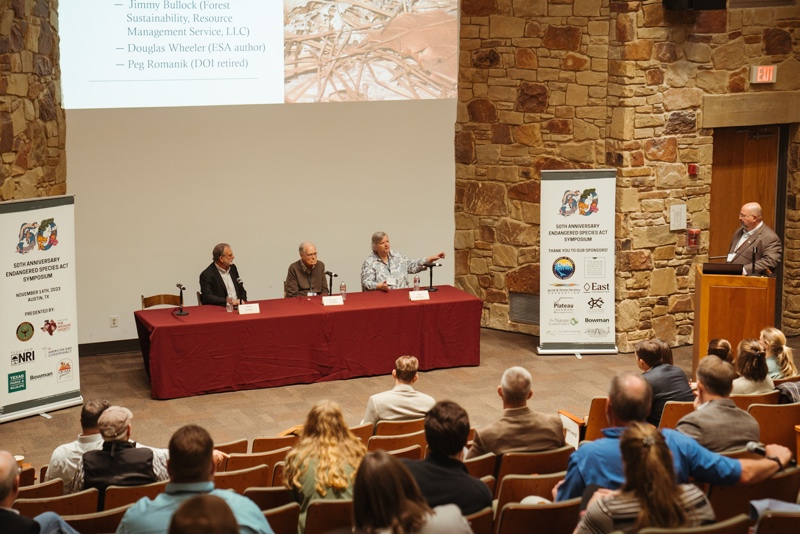
Session Two - Present
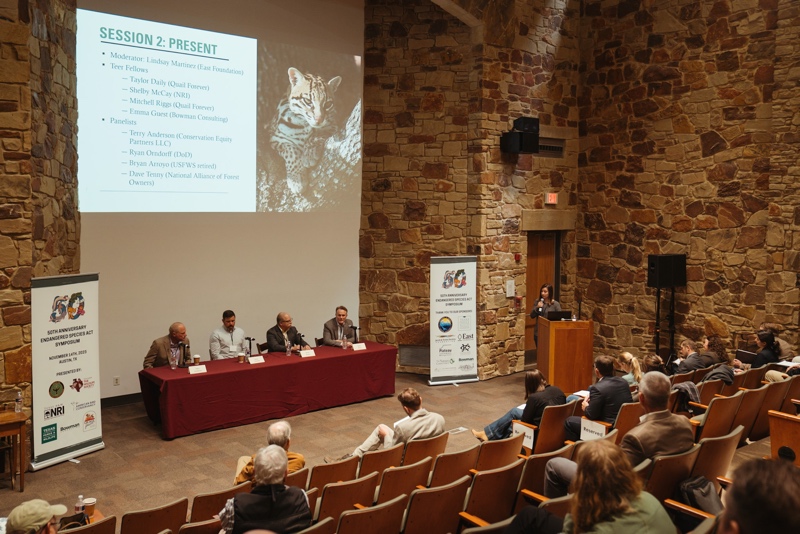
Session Three - Future
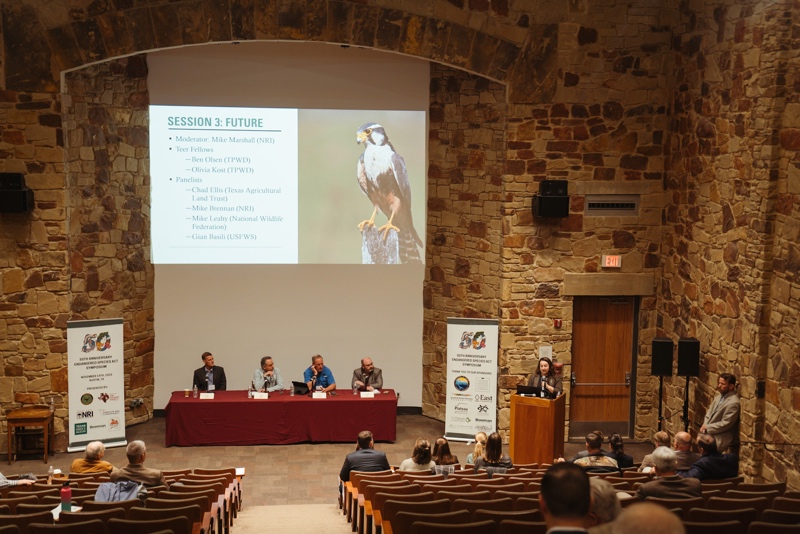
Enjoy this episode? Then you might like these too:
- Landscape-Scale Management in a Private Land State
- Equitable Access to the Outdoors in Texas
- Rebuilding a Resilient, Regional Meat Supply Chain – LIVE at the Old Salt Festival
- Erik Glenn Returns – Leadership, Innovation, & Commitment to Conservation
- James Prosek – Art, Philosophy, & Our Natural World
- Matt Cahill – A Deep Dive into the Sagebrush Sea
- Dr. Sara Dant Returns – “Losing Eden: An Environmental History of the American West”
Visit the podcast page for a full list of episodes where you can filter episodes by topic and guests' vocations.

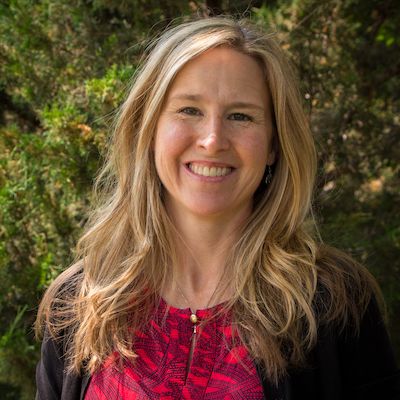
Paige Lewis is the Deputy State Director and Director of Conservation Programs for The Nature Conservancy in Colorado. In this role, she serves as the chapter’s chief conservation officer and is responsible for leading the development of innovative, large-scale and entrepreneurial solutions to the challenges facing people and nature in Colorado and around the world. Paige brings a unique skill set that combines big-picture thinking with tangible, one-the-ground execution– her work involves creating ambitious, large-scale strategies, while also ensuring that the TNC team has the resources, communication, and support to accomplish its goals.
Over the course of this 2023 podcast series with TNC Colorado, we’ve highlighted both the breadth and depth of the organization’s work in Colorado and beyond. From grassland conservation to sustainable water management to forest health to urban conservation efforts (and much more!), it’s been amazing to learn about the positive impact that TNC is having across such a broad spectrum of pressing environmental issues. And if you’ve wondered, as I have, how TNC successfully aligns so many initiatives, teams, and stakeholders toward common organizational goals, well, you’re in luck, because that’s exactly what Paige does!
Paige and I sat down at the TNC office in Boulder just before the holidays and had a fun conversation that looked back at some of the 2023 conservation wins and looked forward toward TNC’s ambitious goals for the future. We started out discussing Paige’s lifelong appreciation for conservation, and her career that took her from her home state of Utah to Washington DC and eventually to Colorado. We discussed her skill of thinking strategically while also focusing on the need to get things done, and how she has managed to keep so many balls in the air year after year. We talk about durable conservation, collective action, and embracing risk, and we also discuss the challenges and opportunities that come with setting ambitious goals. Paige is a voracious reader and lover of history, so she has tons of excellent book recommendations.
A big thank you to Paige for taking the time to chat with me during such a busy time of year, and, once again, thank you for listening. Hope you enjoy.
Header photo by Ethan Herrold/TNC Photo Contest 2019; headshot by Lauryn Wachs.
LISTEN & DOWNLOAD:
Apple Podcasts
Spotify
Google Podcasts
…or wherever you get your podcasts!
EPISODE PARTNER:

This episode is brought to you in partnership with the Colorado chapter of The Nature Conservancy. Guided by science and grounded by decades of collaborative partnerships, The Nature Conservancy has a long-standing legacy of achieving lasting results to create a world where nature and people thrive.
On the fourth Tuesday of every month throughout 2023, Mountain & Prairie will be delving into conversations with a wide range of The Nature Conservancy’s leaders, partners, collaborators, and stakeholders, highlighting the myriad of conservation challenges, opportunities, and solutions here in the American West. You can access all of the 2023 episodes here.
To learn more about The Nature Conservancy’s impactful work in Colorado and around the world, visit www.nature.org/colorado
RESOURCES:
Topics Discussed:
- 3:30 - How Paige became interested in conservation
- 9:15 - Paige’s first conservation job
- 10:45 - Adjusting from the West to DC
- 11:45 - Paige’s return West
- 15:00 - How Paige ended up at TNC
- 18:30 - Paige’s role at TNC
- 23:30 - An example of successful collaborative work in Paige’s time at TNC
- 27:15 - What Paige is most proud of in TNC’s 2023 work
- 30:30 - Reflecting on TNC’s progress towards their 2026 strategic goals
- 34:30 - How Paige prioritizes and keeps all the balls in the air
- 39:45 - What “durable conservation” means and looks like to Paige
- 42:30 - What “collective action” means and looks like to Paige
- 45:30 - How Paige knows when to shift from ideation and relationship building to action
- 48:45 - How TNC’s approach to taking risks has changed during Paige’s tenure
- 52:15 - What qualities Paige thinks makes a good team member at TNC
- 56:15 - Paige’s book recommendations
- 1:02:15 - Paige’s parting words
Information Referenced:
- Paige Lewis
- TNC Colorado’s 2023 Year in Review
- Providence, UT
- Cache Valley
- Bear Mountains
- Wellsville Mountains
- Topophilia by Yi-Fu Tuan
- Logan Canyon
- Utah Division of Forestry, Fire and State Lands
- Western Forestry Leadership Coalition
- Sarah Dant
- Losing Eden by Sara Dant
- Colorado State Forest Service
- Hayman Fire
- Rob Addington
- John Vaillant
- Taylor Hawes
- TNC’s Colorado River Program
- TNC’s work in Mongolia
- TNC’s Southern High Plains Initiative
- Diana Lane
- TNC’s Power to the People and the Planet Program
- Carlos Fernandez
- Catalyst Fund
- Chris Hawkins
- Colorado Outdoor Plan
- Great Outdoors Colorado
- Matt Moorehead
- Legacy of Conquest by Patrica Nelson Limerick
- Fire on the Plateau by Charles Wilkinson
- The Rediscovery of America by Ned Blackhawk
- A Man Called Ove by Frederik Backman
- My Grandmother Asked Me to Tell You She’s Sorry by Frederik Backman
- Demon Copperhead by Barbara Kingsolver
- Animal, Vegetable, Miracle by Barbara Kingsolver
Enjoy this episode? Then you might like these too:
- John Vaillant – A Riveting Exploration of Fire
- Dr. Sara Dant Returns – “Losing Eden: An Environmental History of the American West”
- Erik Glenn Returns – Leadership, Innovation, & Commitment to Conservation
- Carlos Fernández, Part 2 – Creating Conservation Opportunities During Uncertain Times
- Francesca Claverie – A Borderlands Conservation Success Story
- Nate Schweber – A Forgotten Chapter of American Conservation
- Liz Moore – For the Love of Montana
Visit the podcast page for a full list of episodes where you can filter episodes by topic and guests' vocations.

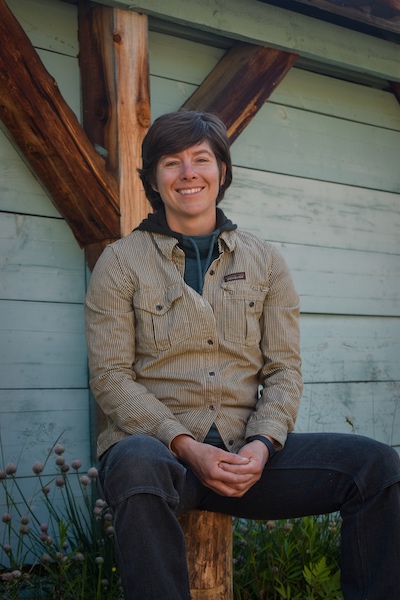
Jenna Pollard is a timber framer, a farmer, and an advocate for organic agriculture, but at her core, she is a teacher. The list of Jenna’s inspiring projects, causes, and interests is too extensive to summarize in a few sentences, but to give you an overview: She hosts workshops for women in which they learn the art of timber framing and build structures as a team from the ground up. She’s a team member with Worldwide Opportunities on Organic Farms (also known as WWOOF), where she helps to provide opportunities for aspiring farmers to build their careers. She’s also a committed traveler, community builder, reader, and all-around inspiring human.
Born and raised in South Dakota, Jenna grew up immersed in the outdoors and various outdoor adventures. After college, she went to work on an organic farm, which began her professional passion for working closely with the land surrounded by a community of like-minded individuals. As you’ll hear, she continued to follow her curiosity and has enjoyed a fulfilling and wide-ranging career– she worked as a teacher in Japan, built her own timber-frame home on the South Dakota prairie, and became deeply involved in helping to develop the skills and confidence of future farmers and timber framers. But if there’s a thread that connects all of Jenna’s work, it’s her commitment to building community through hard work and shared purpose– one of my favorite topics to discuss.
I first learned about Jenna through a short film by Patagonia Workwear that profiled her women’s timber-framing workshops– I’ve linked to the film in the episode notes. So I was thrilled that our schedules aligned so that we could have this conversation, and I learned so much for her. We discussed her upbringing in South Dakota and how her outdoor-focused childhood laid the foundation for her career. We discussed the intricacies of timber framing, and why it is such a powerful skill for building community and confidence. We talk a lot about WWOOF and its Future Farming Program, and Jenna offers some ways that aspiring farmers can get involved. We also discuss books, how Jenna accomplishes so much, how Patagonia has encouraged and supported her work, lessons learned from Japan, and much much more.
If you want to connect with Jenna, attend a workshop, or learn more about WWOOF, there are links to everything in the episode notes. Thanks for listening, hope you enjoy.
Photos courtesy of Jenna Pollard.
LISTEN & DOWNLOAD:
Apple Podcasts
Spotify
Google Podcasts
... or wherever you get your podcasts!
—
RESOURCES:
Topics Discussed:
- 2:30 - Where Jenna grew up
- 4:15 - What Jenna did for fun as a kid
- 6:30 - Turning points in Jenna’s life regarding self-sufficiency in the outdoors
- 8:45 - Post-high school for Jenna
- 11:00 - How something like WWOOFing drew Jenna’s career attention
- 13:30 - Books and thinkers that influenced Jenna’s agrarian lifestyle
- 16:00 - Defining “timber framing,” and exploring why it captured Jenna’s attention
- 20:00 - When Jenna decided to start teaching timber framing
- 21:15 - Discussing the process of Jenna building her house in South Dakota
- 24:45 - How Jenna came to specifically teach women how to timber frame
- 38:15 - How Patagonia became interested in Jenna’s timber framing classes
- 30:45 - Continuing to explore the importance of Jenna’s work with women
- 33:00 - Jenna’s success stories from her classes
- 37:15 - The relationships that Jenna builds through timber framing
- 39:15 - Jenna’s students’ goals
- 40:45 - Discussing WWOOF
- 43:15 - Discussing the 2024 Future Farming Program
- 47:15 - How Jenna manages to do all of this!
- 48:15 - Jenna’s time as a teacher in Japan
- 52:30 - Whether or not Jenna ever questioned her path
- 55:15 - Jenna’s book recommendations
- 1:01:15 - Jenna’s parting words of wisdom
Information Referenced:
- Patagonia film Reframed
- WWOOF
- Places to hear about Jenna’s upcoming classes:
- Email Jenna - jennampollard@gmail.com
- Steger Center
- Canelo Project
- Olympic Outpost
- Timber framing
- Wendell Berry
- Mary Oliver
- The Encyclopedia of Country Living by Carla Emery
- Patagonia
- Patagonia Workwear
- Yvon Chouinard
- Tenkara
- Tribe by Sebastian Junger
- Will Steger
- Patagonia workwear
- Future Farmer Program
- MESA
- Quivira Coalition
- New Agrarian Program
- Kumamoto, Japan
- Jack London
- Just Enough by Azby Brown
- The Art of Taking Action by Gregg Krech
- Shoma Morita
- Jack Sobon
- Pilgrim at Tinker Creek by Annie Dillard (not mentioned in the episode, but this book has been incredibly influential)
Enjoy this episode? Then you might like these too:
- Anna Borgman – Obsession, Curiosity, and Purpose-Driven Work
- Christy Sing Robertson – On Grit, Hard Work, & Going All In
- Jesse Griffiths – Humility, Curiosity, and Creative Cuisine
- Kathie Sever – Chainstitching, Craftsmanship, and Cosmic Western Wear
- Cate Havstad-Casad, Part 2 – Building Businesses for the Greater Good
- Jess Mudgett – Humble & Grateful
- Megan Torgerson – Storytelling from Rural America
Visit the podcast page for a full, searchable list of episodes


Diana Lane is the Director of Sustainable Food and Water at the Colorado Chapter of the Nature Conservancy, and Aaron Derwingson is the Water Projects Director for the Nature Conservancy’s Colorado River Program. Both Diana and Aaron work at the intersection of water sustainability, thriving rivers, resilient agriculture, and strong communities– harnessing TNC’s relationships and resources to advance some of the most cutting-edge and effective conservation initiatives in the American West.
Diana and Aaron bring a diverse set of skills and experiences to their work at TNC. Diana holds a PhD in Biological Sciences and has spent much of her career working with a wide array of partners on restoration ecology and planning, climate adaptation, and management of public funding. Aaron is a river guide-turned-conservationist who began his career focusing on conservation in the Rio Grande River basin, and now applies his skills toward creating pragmatic, solution-oriented approaches to freshwater challenges in the greater Colorado River basin. But perhaps most importantly, they both bring a deep level of passion and focus to their work– their optimistic commitment to solving some of the West’s most pressing water and agricultural challenges is infectious.
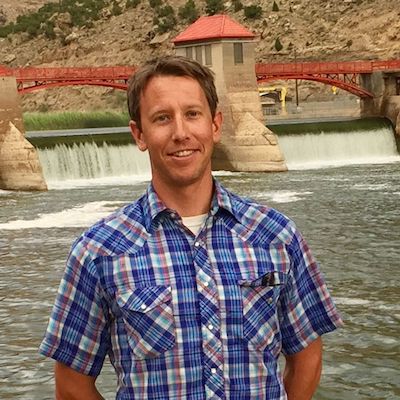
Diana, Aaron, and I connected virtually and had an educational and inspiring conversation about water, agriculture, and community here in Colorado and beyond. We discussed some of the most urgent water-related challenges and opportunities and how they are working with a wide range of stakeholders to find mutually beneficial solutions. We discuss the Yampa River fund, their work helping agricultural producers adjust to a drier climate, and the all-important role of building solid relationships with stakeholders. We discussed the Maybell Irrigation Ditch Project, which is a fascinating, win-win project for both producers and recreational river users, and we discussed some of the water-related challenges that keep both Diana and Aaron up and night. And as usual, they both have plenty of excellent book recommendations.
A huge thank you to Diana and Aaron for taking the time to talk with me, and thank you for listening. Hope you enjoy!
Header photo by Ken Geiger; all photos courtesy of the Nature Conservancy.
LISTEN & DOWNLOAD:
Apple Podcasts
Spotify
Google Podcasts
…or wherever you get your podcasts!
EPISODE PARTNER:

This episode is brought to you in partnership with the Colorado chapter of The Nature Conservancy. Guided by science and grounded by decades of collaborative partnerships, The Nature Conservancy has a long-standing legacy of achieving lasting results to create a world where nature and people thrive.
On the fourth Tuesday of every month throughout 2023, Mountain & Prairie will be delving into conversations with a wide range of The Nature Conservancy’s leaders, partners, collaborators, and stakeholders, highlighting the myriad of conservation challenges, opportunities, and solutions here in the American West. You can access all of the 2023 episodes here.
To learn more about The Nature Conservancy’s impactful work in Colorado and around the world, visit www.nature.org/colorado
RESOURCES:
Topics Discussed:
- 3:30 - Diana and Aaron’s backgrounds
- 7:30 - Aaron’s read on the future of water
- 12:30 - Diana’s overview of the Yampa River Fund
- 18:30 - Aaron’s work with producers to adjust to the new water reality
- 23:15 - The process of building relationships with producers for water projects
- 27:00 - The Colorado Water Plan’s impact on Diana and Aaron’s work
- 31:45 - Discussing the Yampa River Fund
- 41:15 - The things about Colorado water that keep Diana and Aaron up at night
- 47:15 - What makes a solid conservation professional
- 51:00 - How you can help TNC in this work
- 55:30 - Diana and Aaron’s book recommendations
- 1:00:00 - Parting requests and words of wisdom
Information Referenced:
- TNC Colorado
- Dr. Diana Lane
- Aaron Derwingson
- Upper San Juan Watershed Enhancement Project
- Colorado Agricultural Water Alliance
- Evaluating Conserved Consumptive Use In The Upper Colorado
- Yampa River Fund
- Gulf Oil Spill 2010
- Colorado River Program
- Rio Grande Headwaters Land Trust
- Taylor Hawes
- Matt Cahill
- Maybell Irrigation Ditch Project
- Matt Moorehead
- Yampa River video from TNC
- Bioneers
- Nature’s Operating Instructions by The Bioneers
- Ecological Literacy by The Bioneers
- The Last Ranch by Sam Bingham
- Eager by Ben Goldfarb
- Water Always Wins by Erica Gies
Enjoy this episode? Then you might like these too:
- Taylor Hawes – Innovative Conservation in the Colorado River Basin
- Corissa Busse – Tribal-Led Buffalo Restoration in the American West and Beyond
- Erik Glenn Returns – Leadership, Innovation, & Commitment to Conservation
- Matt Cahill – A Deep Dive into the Sagebrush Sea
- SHED SESSION: Everything I Know About Landing a Job in the Conservation World
- Live from the Strenuous Life Retreat: In Conversation with Nancy Fishbein
- Cole Mannix – Building Community through Land Stewardship and Local Food
- Lorelei Cloud – Solving Modern-Day Challenges with Ancient Tribal Wisdom
Visit the podcast page for a full list of episodes where you can filter episodes by topic and guests' vocations.

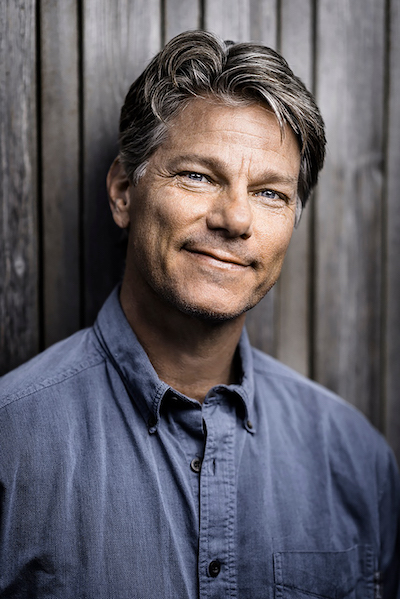
(photo credit: John Sinal)
John Vaillant is a renowned writer and journalist whose work has appeared in The New Yorker, The Atlantic, National Geographic, and more, and he’s also the author of classic books including The Tiger and The Golden Spruce. His most recent book is titled Fire Weather: A True Story from a Hotter World, which is a must-read for anyone interested in wildfires, humans’ relationship with fire, and the future of fire-related disasters. And you don’t have to take my word for it– the book won the 2023 Baillie Gifford Prize for Non-Fiction and was a finalist for both the National Book Award and the Hilary Weston Writers' Trust Prize for Nonfiction.
Fire Weather tells the story of the 2016 Fort McMurray wildfire– a historic and apocalyptic fire that torched the city of Fort McMurray, Alberta, and spread across nearly 1.5 million acres of forest. With this epic disaster as the focal point, John masterfully weaves in the fascinating histories of fire, the fossil fuel industry, and climate science. He also explores 21st-century wildfires– why they are hotter, more aggressive, and more destructive than anything we’ve seen before. Whether you’re interested in the science of fire and forest health, the fascinating relationship between humans and fire, or you’re just looking for a book that you won’t be able to put down, I give Fire Weather my highest endorsement.
Wildfires are obviously becoming more and more intense and destructive here in the West, so I was excited to chat with John and dig deeper into the history of fire and the outlook for the future. We discussed why he decided to devote many years to writing about this particular wildfire, and how the book’s ingenious structure came to him in a dream. We talk about the similarities between living beings and fire, a fascinating idea known as the Lucretius Problem, some of the story’s larger-than-life characters, John’s long-term goals for the book, some of his favorite books, and much, much more.
A huge thanks to John for writing such an impactful book and for taking the time to chat with me. I encourage you to pick up a copy of Fire Weather as soon as you can, but in the meantime, enjoy this wide-ranging conversation with John Vaillant.
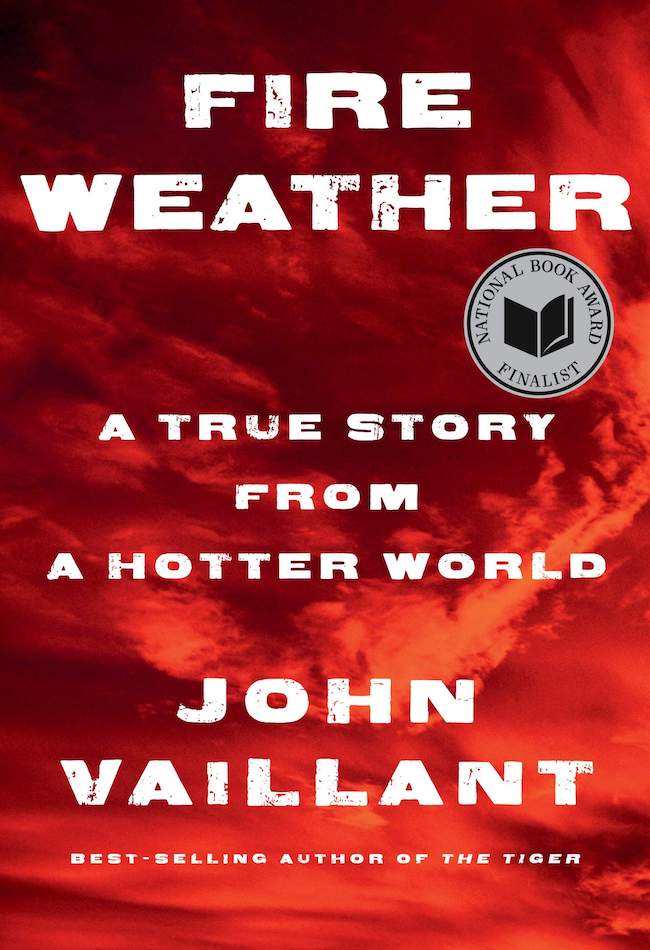
Header photo: Chris Schwarz / Government of Alberta / Reuters; Headshot: John Sinal
LISTEN & DOWNLOAD:
Apple Podcasts
Spotify
Google Podcasts
... or wherever you get your podcasts!
—
RESOURCES:
Topics Discussed:
- 3:30 - When John realized he wanted to write about fire
- 11:15 - The surprising significance of dreams in John’s writing
- 14:15 - How John organizes the information in his head so he can write
- 19:45 - A brief note on pacing, and the similarities between living beings and fire
- 30:45 - The Lucretius Problem
- 35:45 - How John finds the characters for his book
- 44:15 - How John handles writing about someone in a less-than-flattering light
- 52:00 - John’s goals for his book, Fire Weather
- 57:30 - John’s book recommendations
- 1:02:15 - John’s parting words of wisdom
Information Referenced:
- Fire Weather by John Vaillant
- The Tiger by John Vaillant
- The Golden Spruce by John Vaillant
- The Jaguar’s Children by John Vaillant
- Johnathon Dee
- Fort McMurray, Alberta
- Tubbs Fire
- Paradise Fire
- Camp Fire
- Lucretius
- Alex Steffen
- Marshall Fire
- Lahaina, HI
- The Johnstown Flood by David McCullough
- Endurance by Alfred Lansing
- Shackleton expedition
- Moby Dick by Herman Melville
- Paddle to the Sea by Holling C. Holling
- The Tree and the Trail by Holling C. Holling
- Mike Mulligan and His Steam Shovel by Virginia Lee Burton
- Life Story by Virginia Lee Burton
Enjoy this episode? Then you might like these too:
- Rob Addington – A Deep Dive into Western Wildfires and Forest Health
- Hampton Sides – Live at the Aspen Institute
- Dr. Sara Dant Returns – “Losing Eden: An Environmental History of the American West”
- Douglas Brinkley – Exploring the Past to Find Inspiration for the Future
- Doug Peacock – 50 Years of Fighting for the Grizzlies
- Bryce Andrews, Part 2 – “Holding Fire”
- Auden Schendler – The Optimistic Pragmatist
- David Gessner Returns – “A Traveler’s Guide to the End of the World”
Visit the podcast page for a full, searchable list of episodes

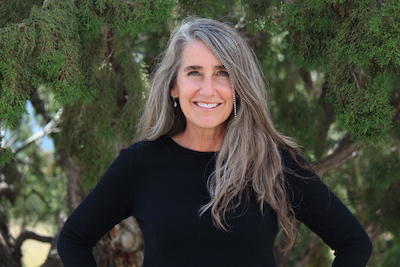
Dr. Sara Dant is a Brady Presidential Distinguished Professor of history at Weber State University, and she’s the author of one of my most-often recommended books, Losing Eden: An Environmental History of the American West. She is also one of the featured historians in Ken Burns’ newest documentary, The American Buffalo, which you can watch for free on the PBS website. Sara’s work focuses on environmental politics in the United States with a particular emphasis on the creation and development of consensus and bipartisanism, and she is especially skilled at presenting complex, sometimes controversial topics in an engaging and fun-to-learn manner.
In June of 2023, Sara updated and republished her book Losing Eden– she added some chapters, revised some of the content, and added lots of maps, photos, and additional resources. She somehow managed to make one of my favorite books even better. For anyone who is looking for a thorough yet fun-to-read overview of this complex region known as the American West, I can’t recommend it enough. From the migration of the first humans into North America to modern-day controversies around energy development, the book provides a solid foundation and acts as a launching point to dig into whatever specific time period you may find interesting.
Longtime listeners will remember my first conversation with Sara back in 2018, in which we discussed the early phases of North American environmental history, the tragedy of the commons, conservation vs preservation, and more. In this conversation, we focus on mostly recent environmental history, including the historic environmental legislation of the 1960s and 70s, legendary senator Frank Church, and the backlash to environmental regulation that led to movements such as the Sagebrush Rebellion. We also discuss Sara’s perspective-shifting Alaska adventure, the value of wild places, her experience working with Ken Burns, book recommendations, and much, much more.
I always enjoy my visits with Sara, and I can’t thank her enough for how generous she is with sharing her time, wisdom, and expertise. I’d encourage you to pick up a copy of the new Losing Eden, but in the meantime, enjoy this conversation with Dr. Sara Dant.
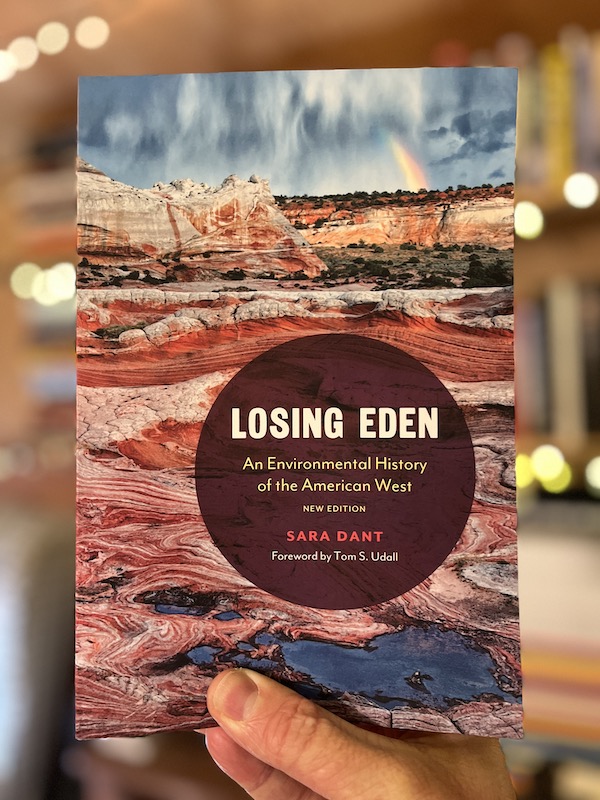
Photos courtesy of Sara Dant.
LISTEN & DOWNLOAD:
Apple Podcasts
Spotify
Google Podcasts
... or wherever you get your podcasts!
—
RESOURCES:
Topics Discussed:
- 3:30 - Why Sara decided to republish Losing Eden
- 7:00 - The guiding idea of "At what cost?"
- 10:00 - The myth of "right or wrong," "good or bad"
- 16:15 - Using history to understand our current political situation
- 19:30 - Optimistic examples of positive political environmental bipartisanship
- 23:30 - The legendary Idaho senator, Frank Church
- 28:00 - James Watt and the backlash to environmental regulation
- 34:00 - Divisiveness as a power-grabbing tool
- 43:00 - Sara's 2019 life-changing trip to Alaska
- 46:30 - What is the value of wild places?
- 54:15 - Participating in the new Ken Burns documentary
- 56:30 - Something new that Sara has recently learned
- 1:02:30 - Book recommendations and further reading
- 1:10:30 - Parting words of wisdom
Information Referenced:
- Dr. Sara Dant
- Losing Eden: An Environmental History of the American West
- Sara's first M&P episode
- Weber State University
- Spotted Owl controversy
- Frank Chuch
- Sierra Club
- Grangeville, Idaho
- Gospel Hump Wilderness
- The Wilderness Act
- Endangered Species Act
- Great Salt Lake dry-up threat
- College of Eastern Utah
- Fighting the Odds: The Life of Senator Frank Church by LeRoy Ashby and Rod Gramer
- Wild and Scenic Rivers
- James Watt
- James Watt obituary
- Ronald Reagan
- Sagebrush Rebellion
- Bears Ears National Monument
- Arctic National Wildlife Refuge
- Hula Hula River
- William Cronon's The Trouble with Wilderness
- Aldo Leopold
- Mo Udall
- Stewart Udall
- Frank Church - River of No Return Wilderness
- Hells Canyon
- Echo Park
- Doug Peacock
- The American Buffalo by Ken Burns
- Wild New World by Dan Flores
- Invisible Reality: Storytellers, Storytakers, and the Supernatural World of the Blackfeet by Rosalyn R. LaPier
- Silent Spring by Rachel Carson
- Silent Spring Revolution by Douglas Brinkley
- Overshootday.org
Enjoy this episode? Then you might like these too:
- Douglas Brinkley – Exploring the Past to Find Inspiration for the Future
- Lorelei Cloud – Solving Modern-Day Challenges with Ancient Tribal Wisdom
- Rebecca Clarren – “The Cost of Free Land”
- Corissa Busse – Tribal-Led Buffalo Restoration in the American West and Beyond
- David Gessner Returns – “A Traveler’s Guide to the End of the World”
- Doug Peacock – 50 Years of Fighting for the Grizzlies
- Taylor Hawes – Innovative Conservation in the Colorado River Basin
Visit the podcast page for a full, searchable list of episodes

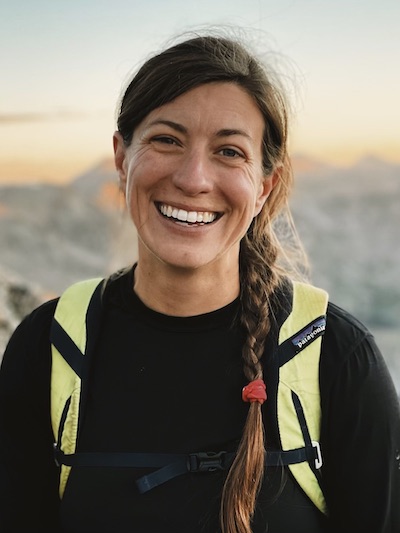
Corissa Busse is the Buffalo Restoration Program Manager for The Nature Conservancy, where she oversees TNC’s work to advance Tribal-led efforts to restore buffalo, grasslands, and communities at scale. Based in Rapid City, South Dakota, Corissa and her team at TNC partner with organizations including the InterTribal Buffalo Council and the Tanka Fund to bring buffalo back to tribal lands, which not only contributes to healthier, more resilient landscapes, but helps to heal and restore a web of natural relationships that has been broken for hundreds of years.
TNC has been working with buffalo for many decades now, and it owns herds at numerous TNC preserves across the United States. Each year, those herds produce approximately 1,500 buffalo that are in need of new homes, so TNC has begun working with Tribal nations to transfer these buffalo from the TNC preserves onto Native lands. But transferring the animals from one place to another is relatively simple– it’s the trust-building, infrastructure development, and long-term, collaborative vision that requires strong relationships and outside-the-box thinking. As you’ll hear in this conversation, it’s a complex and important project with amazing potential.
I’ve always loved learning about buffalo, and given the recent release of Ken Burns’ newest documentary on this very subject, I was extra excited to chat with Corissa. We started out with the most basic question of all– “Should we call them bison or buffalo?”-- and then moved into the more complex topics. We discussed when and why TNC initially became interested in buffalo, TNC’s history of working with Tribal partners, the challenges of overcoming historical realities, the potential for tension between cattle and buffalo producers, specific success stories from TNC’s buffalo restoration work, the all-important role of strong relationships, resources to learn more about buffalo, and Corissa offers some excellent book recommendations.
I greatly appreciate Corissa taking the time out of her busy schedule to educate me on the finer details of buffalo as well as the large-scale vision for TNC’s work. I learned a lot from this conversation, and I know you will too. Thanks for listening and I hope you enjoy.
Header photo by John Fielder courtesy of The Nature Conservancy, headshot courtesy of Corissa Busse
LISTEN & DOWNLOAD:
Apple Podcasts
Spotify
Google Podcasts
…or wherever you get your podcasts!
EPISODE PARTNER:

This episode is brought to you in partnership with the Colorado chapter of The Nature Conservancy. Guided by science and grounded by decades of collaborative partnerships, The Nature Conservancy has a long-standing legacy of achieving lasting results to create a world where nature and people thrive.
On the fourth Tuesday of every month throughout 2023, Mountain & Prairie will be delving into conversations with a wide range of The Nature Conservancy’s leaders, partners, collaborators, and stakeholders, highlighting the myriad of conservation challenges, opportunities, and solutions here in the American West. You can access all of the 2023 episodes here.
To learn more about The Nature Conservancy’s impactful work in Colorado and around the world, visit www.nature.org/colorado
RESOURCES:
Topics Discussed:
- 3:30 - Is it buffalo or bison?
- 6:30 - A brief history of buffalo in the US
- 10:30 - Books and resources that have helped Corissa learn more about the history of buffalo
- 13:45 - TNC’s interest in buffalo
- 17:00 - TNC’s history of relationship-building with Tribal nation partners
- 22:15 - How buffalo from TNC’s herds are transferred to other partners
- 23:30 - Exploring the tension between cattle and buffalo businesses
- 27:15 - Examples of the success of Corissa’s program
- 31:15 - Measuring success in this work
- 35:00 - The challenges in this work that Corissa worries about
- 39:15 - The market for buffalo
- 42:15 - How Corissa got into work with buffalo
- 48:00 - The importance of relationships to Corissa’s work
- 52:30 - Corissa’s book recommendations
- 56:00 - Ways you can support Corissa’s work, and Corissa’s parting words of wisdom
Information Referenced:
- Corissa Busse
- The Nature Conservancy
- Corrisa’s buffalo restoration work
- “The American Buffalo” by Ken Burns
- The Ecological Buffalo by Wes Olson
- Dan Flores
- Sara Dant
- Zapata Ranch
- Matt Moorehead and Galen Guerrero-Murphy
- Intertribal Buffalo Council
- Tonka Fund
- Eastern Shoshone
- Northern Arapaho
- Vincent Stanley
- Catalyst Fund
- Oceti Sakowin Oyate (Sioux) Nation
- Seneca Nation
- Haudenosaunee Confederacy (Iroquois)
- Braiding Sweetgrass by Robin Wall Kimmerer
- Whitener Group
- Indian Country 101 training
Enjoy this episode? Then you might like these too:
- Lorelei Cloud – Solving Modern-Day Challenges with Ancient Tribal Wisdom
- Rebecca Clarren – “The Cost of Free Land”
- Doug Peacock – 50 Years of Fighting for the Grizzlies
- Matt Moorhead & Galen Guerrero-Murphy – Grasslands Conservation on the Southern High Plains
- Cole Mannix – Building Community through Land Stewardship and Local Food
- Francesca Claverie – A Borderlands Conservation Success Story
- Betsy Gaines Quammen – A Fascinating History of Public Lands in the West
Visit the podcast page for a full list of episodes where you can filter episodes by topic and guests' vocations.

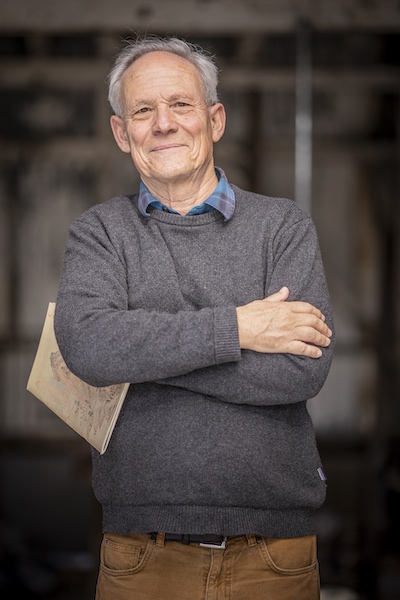
Vincent Stanley is the Director of Philosophy at Patagonia, and he holds the honor of being the company’s longest-serving employee. He is also an author, poet, and a resident fellow at the Yale Center for Business and the Environment. His most recent book, which he co-authored with Patagonia’s founder Yvon Chouinard, is titled The Future of the Responsible Company: What We’ve Learned from Patagonia’s First 50 Years.
The book recounts Patagonia’s evolution from its humble beginnings as a small offshoot of Chouinard Equipment for Alpinists to becoming the world’s premiere outdoor apparel brand into its current role of serving as a blueprint for how business can be a force for good in the world. In less than 200 pages, Vincent delves into Patagonia’s greatest business challenges, victories, and missteps, and he explains Patagonia’s never-ending quest to become more responsible, more thoughtful, and more effective in achieving its mission of “saving our home planet.”
My first real exposure to Patagonia’s business model was when I was a student in graduate school, earning my MBA. I read Yvon’s book Let My People Go Surfing, and realized that many of the business lessons and philosophies from Patagonia stood in stark contrast to those of mega-corporations. Patagonia’s approach opened my mind to a different way of thinking about business, one that led me to follow a much different path than I’d planned when I initially showed up at grad school. So it was a real honor to have the conversation with Vincent and dig even deeper into the philosophies, ideals, and tactics that have made Patagonia such a legendary enigma in the world of big-time business– and a role model for me and countless other business owners.
Vincent and I connected virtually– he was in Maine, I was in Colorado– and we talked about all aspects of the book, as well as his long and storied history at Patagonia. You can check out the episode notes for a full list of everything we discussed, and I would highly recommend you pick up a copy of The Future of the Responsible Company– it’s chock full of actionable, applicable wisdom that anyone with a job would benefit from knowing.
Thanks to Vincent for taking the time to chat, thanks to you for listening, and I hope you enjoy.
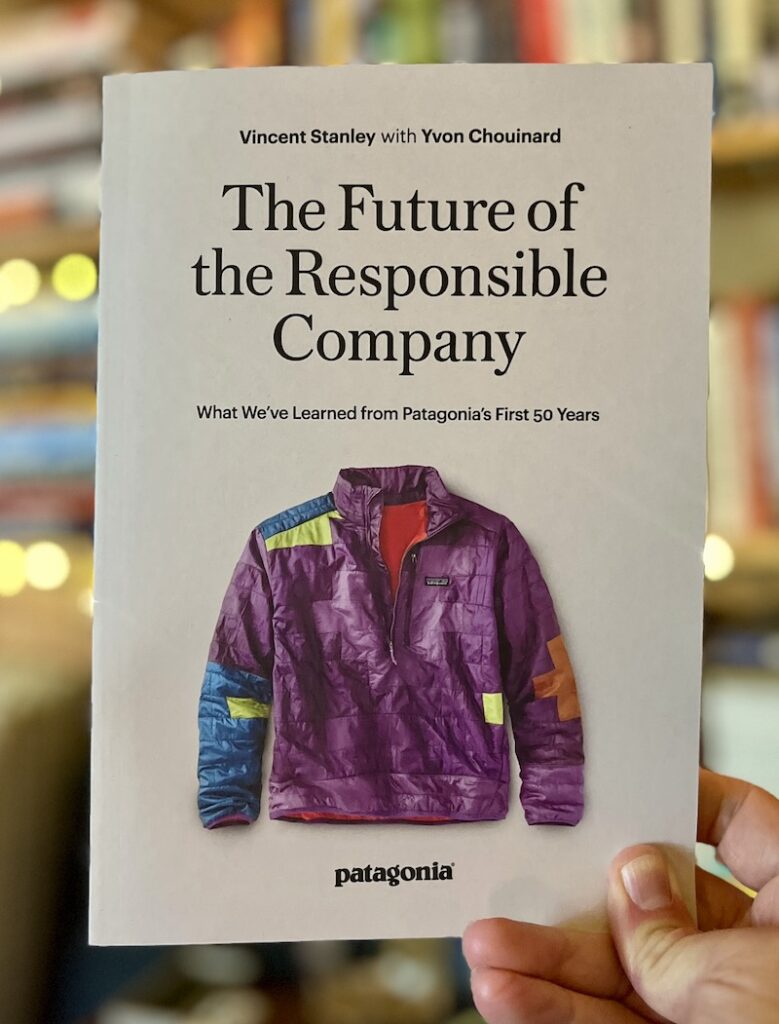
Photos courtesy of Patagonia
LISTEN & DOWNLOAD:
Apple Podcasts
Spotify
Google Podcasts
... or wherever you get your podcasts!
—
RESOURCES:
Topics Discussed:
- 3:00 - How Vincent became involved in Patagonia
- 7:00 - Why Vincent and Yvon decided to update The Responsible Company, and a history of changes at Patagonia
- 24:00 - When Vincent realized there was interest in and demand for the business model and values of Patagonia
- 28:00 - Differentiating between “responsible” and “sustainable”
- 31:00 - How Vincent and Patagonia approach the work of marketing
- 34:30 - The unconventional business performance indicators and evaluations that Patagonia employs
- 37:15 - Why books are important in Vincent and Patagonia’s work
- 41:15 - Who and what gives Vincent hope for the future
- 44:15 - Reconciling the guilt of “messing up”
- 50:15 - Vincent’s book recommendations
- 53:00 - Vincent’s parting words of wisdom
Information Referenced:
- Vincent Stanley
- Patagonia
- Yvon Chouinard
- The Future of the Responsible Company by Yvon Chouinard & Vincent Stanley
- All Patagonia Books
- San Joaquin Valley
- Wilkes-Barre, PA
- United Nations Sustainable Development Goals
- Laudato Si’ by Pope Francis
- Syrian Civil War
- Dr. Michael Kami
- Let My People Go Surfing by Yvon Chouinard
- Milton Friedman
- Dylan Tomine
- Frances B. Ashforth
- DamNation film
- Patagonia Books
- Malinda Chouinard
- Doug Tompkins
- Kristine Tompkins
- Doug Peacock
- Rick Ridgeway
- Tom McGuane
- Jim Harrison
- Greenwich Village
- Hurricane Lee
- Daniel Goleman
- The End of Nature by Bill McKibben
- Wallace Stevens
- William Carlos Williams
- Kate Raworth
- Donut Economics
- John Fullerton
- The Capital Institute
- Middlemarch by George Eliot
Enjoy this episode? Then you might like these too:
- Nick Offerman – Empathy, Nuance, & Good Hard Work
- Anna Borgman – Obsession, Curiosity, and Purpose-Driven Work
- Doug Peacock – 50 Years of Fighting for the Grizzlies
- Rick Ridgeway – Purpose-Driven Adventurer
- Lorelei Cloud – Solving Modern-Day Challenges with Ancient Tribal Wisdom
- Dr. Katharine Hayhoe – Effecting Change Through Authentic Conversation
- Dylan Tomine – Protecting What He Loves
Visit the podcast page for a full, searchable list of episodes

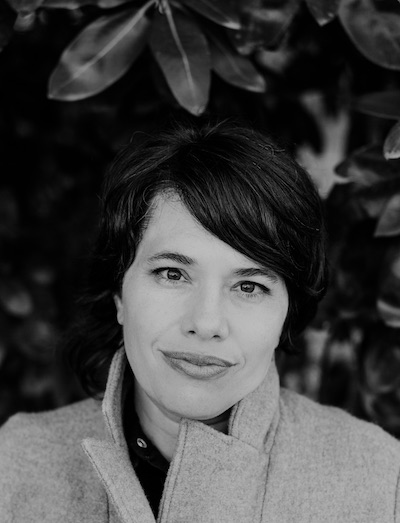
(photo credit: Shelby Brakken)
Rebecca Clarren is an award-winning journalist who has been writing about the American West for more than twenty years. Her most recent book is titled The Cost of Free Land: Jews, Lakota, and an American Inheritance. The book is a powerful, nuanced, and deeply personal exploration of her ancestors fleeing antisemitism in Russia and immigrating to the South Dakota prairie at the turn of the 20th century. I was lucky enough to receive an advanced copy of the book, and I absolutely loved it. Rebecca seamlessly weaves together heavily researched US and Native American history with a vulnerable, clear-eyed examination of her family’s legacy. The result is an engaging story that not only helped me better understand the past, but provided a blueprint for how we can begin to make amends and move forward, both individually and as a nation.
In The Cost of Free Land, Rebecca grapples with the complicated ripple effects of her family settling on the Great Plains– the free land that they received from the US government allowed them to establish a foothold in America, and over time, they found relative stability, especially when compared to their chaotic lives in Russia. But her family’s stability and eventual success came at a steep cost to the Lakota people, who were the victims of stolen land, broken treaties, and the devastating loss of their culture and resources. Contrasting her family’s experience with that of the Lakota makes this story all the more powerful, and speaks volumes about Rebeccs’s skill as a writer and journalist. Again, I loved the book.
Rebecca and I connected the day before the book was published, and we had a wonderful conversation. We started by discussing why she decided to write such a deeply personal story, and how that differs from most of her previous journalistic endeavors. She provides a brief overview of the Lakota people and the laundry list of injustices they faced during westward expansion. We discuss the complicated nature of land ownership on reservations, and how those complications continue even to this day. She explains how the US’s treatment of Native American influenced Hitler and the Nazi Party, and how she personally processes her family’s role in Westward expansion by working with spiritual mentors and exploring her own Jewish faith. We also talk about her career as a journalist, how motherhood has changed her, the challenge of writing, and she has lots of great book recommendations.
Thanks to Rebecca for writing such an important and eye-opening book, and thank you for listening. Hope you enjoy!
Photos courtesy of Rebecca Clarren and Viking Books.
LISTEN & DOWNLOAD:
Apple Podcasts
Spotify
Google Podcasts
... or wherever you get your podcasts!
—
RESOURCES:
Topics Discussed:
- 3:15 - When Rebecca decided to write “The Cost of Free Land”
- 9:15 - Discussing the vulnerable process of capturing not just Rebecca’s story, but her entire family’s story and how it ties in with American histories of stolen land
- 18:15 - Discussing empathy in the difficult stories of Rebecca’s book
- 21:30 - A brief history of the Lakota and the injustices they faced during westward expansion
- 27:00 - Discussing the complicated nature of land ownership on Indigenous reservations, and how the US Government still influences land decisions on reservations
- 30:45 - Discussing the historical implications of US land theft from Indigenous peoples, including how it influenced the actions of the Nazis during the Holocaust
- 33:15 - The Six Steps of Repentance and how Rebecca processes the violent past of the US and how she benefited from it
- 40:45 - The biggest surprise about Rebecca’s family that she learned in writing this book
- 43:15 - Surprises in Rebecca’s research about the Lakota
- 48:00 - Where Rebecca thinks the world of journalism is going
- 51:15 - Rebecca’s career trajectory
- 55:15 - How having kids impacted Rebecca’s approach to work
- 58:30 - The difficulty of writing
- 59:30 - Rebecca’s book recommendations
- 1:05:45 - Rebecca’s parting words of wisdom
Information Referenced:
- Rebecca Clarren
- The Cost of Free Land by Rebecca Clarren
- Kickdown by Rebecca Clarren
- High Country News
- Pine Ridge Reservation
- Lakota
- Investigate West
- Sioux tribe
- Dakota
- The Regional Arts and Culture Council
- Yiddish
- Pogrom
- Abby Abinanti
- Yurok nation
- Rabbi Benjamin Barnett
- Havruta
- Torah
- Talmud
- Cathy Park Hong
- Ann Tweedy
- Treaty of Fort Laramie
- Tim Giago
- Lakota Times
- Ed Marston
- Josh Meisel
- Haskell Indian Nations University
- Indian Land Tenure Foundation
- Lorelai Cloud
- Hitler’s American Model by James Whitman
- Maimonides
- On Repentance and Repair by Danya Ruttenberg
- Wounded Knee Massacre
- Cheyenne River Sioux Tribe
- Remi Bald Eagle
- Smith College
- Denali National Park
- Durango Herald
- Mariana Islands
- Betsy Marston
- The Plague of Doves by Louise Erdrich
- Late Nights on Air by Elizabeth Hay
- Cloud Atlas by David Mitchel
- Let the Great World Spin by Collin McCan
- Joan Didion
- Custer Died for Our Sins by Vine Deloria Jr.
- Killers of the Flower Moon by David Grann
Enjoy this episode? Then you might like these too:
- Douglas Brinkley – Exploring the Past to Find Inspiration for the Future
- Lorelei Cloud – Solving Modern-Day Challenges with Ancient Tribal Wisdom
- David Gessner Returns – “A Traveler’s Guide to the End of the World”
- Doug Peacock – 50 Years of Fighting for the Grizzlies
- Bryce Andrews, Part 2 – “Holding Fire”
- Shane Doyle – Reverence for the Past, Hope for the Future
- Marci McLean & Cora Neumann on COVID’s Impact on Native Communities
- Juanita Vero, Part 2 – A Deep Desire to Serve
Visit the podcast page for a full, searchable list of episodes


Nick Offerman is an actor, author, humorist, and woodworker who is best known for playing the legendary character Ron Swanson on NBC’s Parks and Recreation. But his success as an actor is just the tip of the iceberg– he’s written five New York Times bestselling books, is the narrator of three of Wendell Berry’s audiobooks, and owns and operates Offerman Woodshop, where he and a small collective of woodworkers handcraft everything from spoons to furniture to canoes. And as many of you know, Nick is a staunch advocate for conservation, responsible land stewardship, and sustainable agriculture.
Nick’s most recent book is titled Where the Deer and the Antelope Play: The Pastoral Observations of One Ignorant American Who Loves to Walk Outside, and it’s an excellent, thought-provoking read. It follows Nick on a series of adventures through the American West and English countryside– adventures driven by his desire to better understand conservation, recreation, and humans’ connection to the land and wild places. Along the way, he explores everything from the legacies of John Muir and Aldo Leopold to regenerative agriculture, without shying away from tough, complex topics, such as industrial farming and the conservation movement’s impact on Indigenous cultures. The book also hits on so many underlying ideas that are often explored here on Mountain & Prairie, including nuance, empathy, compassion, curiosity, and doing work that makes the world a better place. I loved the book, and I highly recommend it.
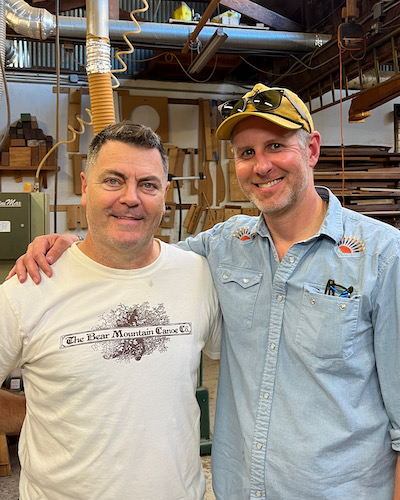
I met up with Nick in Los Angeles at Offerman Woodshop, and we had a fun, inspiring, and at times hilarious conversation about everything from Aldo Leopold’s Land Ethic to Nick's work as a “traveling clown.” (His words, not mine!) We started out by discussing the life-changing moment when a friend handed him a Wendell Berry book, and how Wendell’s writings and philosophy continue to be one of Nick’s most important sources of inspiration and instruction to this day. We discuss why hard work and being of service to others are so deeply embedded in Nick’s DNA, and the critical role that artists can play in solving societal challenges. We talk about authenticity, the importance of being even-keeled, the need for nuance and open-mindedness, the skill of self-deprecation, enjoying the process of creating, not passing judgment, and much, much more.
Where the Deer and the Antelope Play was just released in paperback, so follow the links in the episode notes to pick up a copy. If you’re a longtime listener, I know you’ll love it. There are also links to Offerman Woodshop, Nick’s touring schedule, and all of his other books, so click through and check it all out.
A thousand thanks to Nick for inviting me to his shop for such an amazing conversation, and thank you for listening. Hope you enjoy.
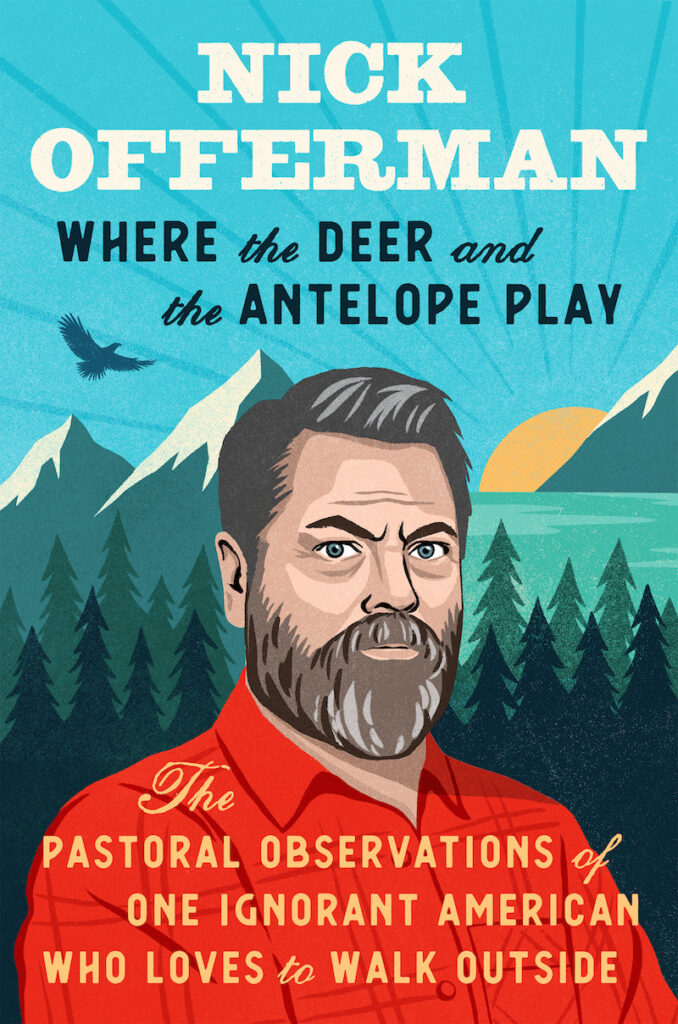
Header photo of Nick in Glacier National Park by George Saunders, headshot by Taylor Miller.
LISTEN & DOWNLOAD:
Apple Podcasts
Spotify
Google Podcasts
... or wherever you get your podcasts!
—
RESOURCES:
Topics Discussed:
- 3:30 - A self-deprecation showdown
- 5:30 - The impact of Wendell Berry on Nick’s life
- 10:15 - Of Nick’s family and upbringing, and tying back to Wendell Berry
- 15:15 - Nick telling the story of when he “made it,” and how that impacted his work ethic
- 18:30 - Of the ethos of taking the time to do hard things
- 23:15 - The impact of a conversation between Nick and Wendell Berry
- 29:00 - More about Nick’s book, Where the Deer and the Antelope Play
- 42:15 - How Nick discusses serious topics with a lighthearted demeanor
- 47:30 - How Aldo Leopold influenced Nick
- 51:45 - A great story about Wendell Berry and the need for artists
- 55:15 - How and when Nick developed his authenticity
- 1:02:00 - The two jokes Nick has written in his career
- 1:05:45 - What good work looks like
- 1:18:00 - Discussing how to pronounce words and the importance of not passing judgment
- 1:23:15 - Coming back to “good work”
Information Referenced:
- Nick Offerman
- Offerman Woodshop
- Where the Deer and the Antelope Play by Nick Offerman
- All of Nick's books
- The Rainbow Song by Nick Offerman
- Steppenwolf Theatre
- Ethan Hawke
- Buried Child, a play by Sam Shepherd
- Leo Burmester
- Fidelity, short stories by Wendell Berry
- Watch With Me, short stories by Wendell Berry
- Gandalf
- Minooka, IL
- David Lee Roth
- As I Lay Dying, a play by William Faulkner
- Frank Galati
- Anton Chekov
- Nick on Conan O’Brien
- Megan Mullally
- Will and Grace
- Everybody Knows This Is Nowhere, by Neil Young
- SkyMall
- John Muir
- Aldo Leopold
- Laura Dunn
- Look and See, directed by Laura Dunn and Jef Sewell, Co-Produced by Nick Offerman
- Mary Berry
- Chess Pie
- Tanya Berry
- Fine Woodworking Magazine with Nick on the cover
- Garbage Land by Elizabeth Royte
- Bottlemania by Elizabeth Royte
- Gowanus Canal
- Redhook, Brooklyn, NY
- Poland, MA
- Kathie Sever
- Matt the Electrician
- “The Bear,” a song by Matt the Electrician
- The Paramount Theatre, Austin TX
- Greta Thunberg
- Han Solo
- Michael Pollan
- Parks and Recreation
- A Sand County Almanac by Aldo Leopold
- Rachel Carson
- DDT
- The Unsettling of America by Wendell Berry
- World Ending Fire by Wendell Berry
- Just Act Naturally by the Beatles
- Garrison Keillor
- Rodney Dangerfield
- Zack Galifianakis
- Sarah Silverman
- Full Bush
- The Last of Us
- Craig Mazin
- Chernobyl
- Paramount Theatre, Denver
- University of Illinois at Urbana-Champaign
- Lake District, England
- The Shepherd’s Life by James Rebanks
- Pastoral Song by James Rebanks
- The Farmer’s Wife by Helen Rebanks
- White Oak Pastures
- Joel Salatin
- Our Home Place Meat
- John Hodgman
- Judge John Hodgman Podcast
- Siddhartha
Enjoy this episode? Then you might like these too:
- Douglas Brinkley – Exploring the Past to Find Inspiration for the Future
- Dr. Katharine Hayhoe – Effecting Change Through Authentic Conversation
- Christy Sing Robertson – On Grit, Hard Work, & Going All In
- Yemi Mobolade – Community Builder
- Lorelei Cloud – Solving Modern-Day Challenges with Ancient Tribal Wisdom
- Pete McBride, Part 2: In Search of Silence
- Rick Ridgeway – Purpose-Driven Adventurer
- Anna Borgman – Obsession, Curiosity, and Purpose-Driven Work
- Kathie Sever – Chainstitching, Craftsmanship, and Cosmic Western Wear
- Betsy Gaines Quammen – A Fascinating History of Public Lands in the West
- Shane Doyle – Reverence for the Past, Hope for the Future
Visit the podcast page for a full, searchable list of episodes

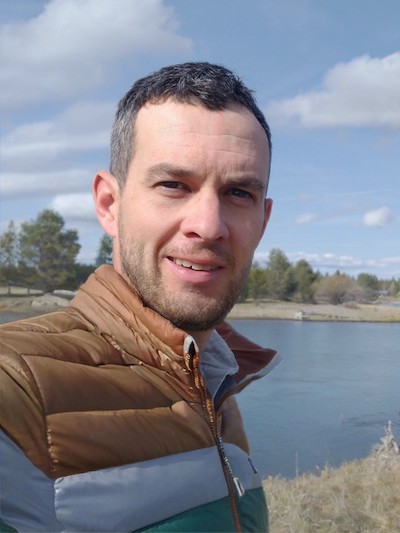
Matt Cahill is the Sagebrush Sea Program Director for the Nature Conservancy. Based out of Bend, Oregon, Matt leads all of TNC’s critical work restoring, managing, and protecting sagebrush habitat across six western states. This is a huge and complex effort– it combines protection and policy work with ground-breaking restoration advances, public and industry partnerships, and local community projects. But as you’ll hear in this conversation, Matt is optimistically leaning into the challenge and making great strides to protect this uniquely Western ecosystem.
To give you some context into the vastness of North America’s sagebrush ecosystem, it spans 150 million acres and is home to 350 rare, threatened, and endangered species. Since 1998, 14 million acres of sagebrush ecosystems have been lost, and currently, we’re losing approximately one million acres to invasive species, catastrophic wildfires, development, improper grazing, and climate change. 70% of the Sagebrush Sea is found on public lands, so efforts to protect, manage, and restore the ecosystem are dependent on creative, action-oriented public-private partnerships. Again, Matt is leading a huge and complex effort!
In this episode, we start our conversation by discussing why the Sagebrush Sea is important, and why even people who live far from the ecosystem should care about it. We discuss the history of the threats to sagebrush, and we also do a deep dive into the specific threat of cheatgrass– a true scourge on the landscapes of the West. We discuss the ecology of sagebrush, how TNC measures success when it comes to protecting such a fragile ecosystem, and the importance of partnering with ranchers. We talk about the efficacy of for-profit approaches to restoration, collaboration with government agencies, and specific cutting-edge approaches to restoration. Matt also explains his career trajectory that led him from the East Coast to becoming obsessed with sagebrush, and he offers several great book recommendations.
Be sure to check out the episode notes for links to everything we discuss, including a few videos and writings by Matt that will provide even more context into this nuanced issue. Thanks to Matt and his team for all of their hard work, and thank you for listening. Hope you enjoy.
Photos courtesy of The Nature Conservancy
LISTEN & DOWNLOAD:
Download on Apple Podcasts
Download on Spotify
Download on Google Podcasts
…or wherever you get your podcasts!
EPISODE PARTNER:

This episode is brought to you in partnership with the Colorado chapter of The Nature Conservancy. Guided by science and grounded by decades of collaborative partnerships, The Nature Conservancy has a long-standing legacy of achieving lasting results to create a world where nature and people thrive.
On the fourth Tuesday of every month throughout 2023, Mountain & Prairie will be delving into conversations with a wide range of The Nature Conservancy’s leaders, partners, collaborators, and stakeholders, highlighting the myriad of conservation challenges, opportunities, and solutions here in the American West. You can access all of the 2023 episodes here.
To learn more about The Nature Conservancy’s impactful work in Colorado and around the world, visit www.nature.org/colorado
RESOURCES:
Topics Discussed:
- 3:30 - Description of the Sagebrush Sea
- 7:45 - Why sagebrush matters
- 10:30 - The state of the Sagebrush Sea and how it got there
- 15:15 - Cheatgrass’s impact on the Sagebrush Sea
- 23:30 - TNC’s Sagebrush Sea program
- 26:45 - Exploring the restoration aspect of Matt’s work
- 33:15 - The restoration timeline for sagebrush regions
- 35:30 - Measuring restoration success
- 39:00 - The management portion of Matt’s work
- 41:30 - Matt’s success stories of collaborating with ranchers
- 46:00 - The land protection (acquisition, easement, etc.) portion of Matt’s work
- 49:15 - Evaluating the for-profit wing of conservation of sage grouse habitat
- 43:15 - Discussing TNC’s collaboration across its own programs as well as with government land managers
- 57:00 - How Matt ended up an expert in sagebrush biomes when he grew up on the East Coast
- 1:00:30 - Matt’s book recommendations
- 1:04:00 - Matt’s parting words of wisdom
Information Referenced:
- The Nature Conservancy
- The Sagebrush Sea program at The Nature Conservancy
- Innovative Restoration article about TNC’s Sagebrush Sea work
- Sagebrush Conservation Design
- Matt’s article about the “Defend the Core, Grow the Core” framework
- Sagebrush
- Salt playa
- Burns, OR
- Lander, WY
- Ponderosa pine
- Piñon pine
- Juniper
- Cheatgrass
- Medusahead
- Ventenata/wiregrass
- Cryptobiotic Crust
- Fescue
- Bluebunch Wheatgrass
- Pinedale, WY
- Carlos Fernadez
- Winecup Gamble Ranch
- Matador Ranch
- Red Canyon Ranch
- Taylor Hawes
- Bears Ears National Monument
- Matt Moorehead
- Sagebrush Ocean by Stephen Trimble
- Catch-22 by Joseph Heller
- Brave New World by Aldous Huxley
- Franz Kafka
- Basin and Range by John McPhee
- Encounters with the Archdruid by John McPhee
Enjoy this episode? Then you might like these too:
- Carrie Segil & Duncan Gilchrist – Catalyzing Conservation in Colorado and Beyond
- Lorelei Cloud – Solving Modern-Day Challenges with Ancient Tribal Wisdom
- Rob Addington – A Deep Dive into Western Wildfires and Forest Health
- Chris Hawkins – Using Nature to Build Healthier & More Equitable Communities
- Matt Moorhead & Galen Guerrero-Murphy – Grasslands Conservation on the Southern High Plains
- Taylor Hawes – Innovative Conservation in the Colorado River Basin
- Dr. Katharine Hayhoe – Effecting Change Through Authentic Conversation
- Carlos Fernández, Part 2 – Creating Conservation Opportunities During Uncertain Times
Visit the podcast page for a full list of episodes where you can filter episodes by topic and guests' vocations.

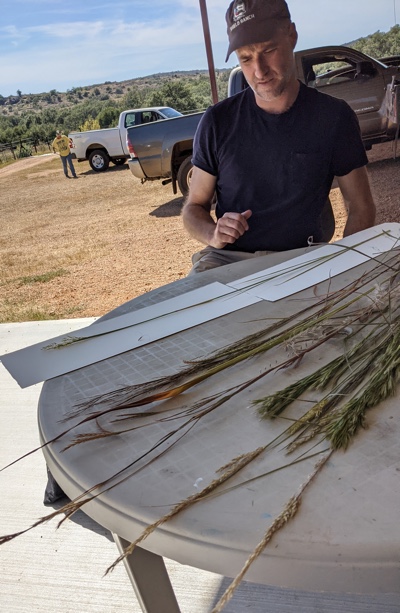
James Prosek is an artist, writer, and naturalist whose work deeply examines our relationship with the natural world. Over the course of his career, he’s focused his artist’s eye and philosopher’s mind on everything from trout to eels, from birds to ocean fishes. For the past two years, he’s been focused on understanding and documenting the grasslands of Texas, and he’s traveled the state examining the diverse plants and wildlife that call the prairie ecosystem home. Beginning on September 16, 2023, the results of his journey around Texas will be on display at the Amon Carter Museum of American Art, in his new exhibition titled Trespassers: James Prosek and the Texas Prairie.
James was born in Connecticut and, as you’ll hear in our conversation, much of his childhood was spent obsessed with birds, fish, and fishing. He attended Yale Univesity, where at age 19 he published his first book titled Trout: An Illustrated History, which featured seventy of his watercolor paintings of the trout of North America. From there, his curiosity about the natural world continued to intensify, as evidenced by his prolific production of art and writing for many renowned museums and publications. He has also lent his talents to a variety of conservation efforts, most notably his partnership with Yvon Chionard to protect coldwater fisheries habitat.
James and I share many mutual friends and interests, so it was wonderful to connect with him for this conversation. It’ll only take you a few minutes of listening to realize that James is a deep thinker whose art is the manifestation of his extremely nuanced and fascinating ideas and philosophies. We started out talking about his first memory of interacting with nature, and how he has used drawing and journaling as tools to better understand plants, animals, and concepts. We discuss how the idea of naming plants and animals is an imperfect science, how drawing connects us with our evolutionary past, how philosophy and philosophical thinking inform all of his art, grasslands in Texas, the importance of understanding and respecting place, how James snaps out of creative slumps, his writing process, and he offers plenty of book recommendations.
As is the case with so many of my guests, I could’ve talked to James for many more hours. So thankfully, this conversation is part one of what will be a two-episode series with James. The second episode will be a live event at the Amon Carter Museum of American Art, on Thursday, January 11, 2024. We’ll be continuing this conversation, and we’ll be focusing in more detail on his exploration of the Texas Prairie and his new exhibition, Trespassers. We’ll be releasing more information about this event soon, but I’d love to see some of you at the event in Fort Worth on January 11.
A huge thank you to James for his inspiring art, to the Amon Carter Museum for the opportunity to chat with James, and to all of you for listening. Enjoy!
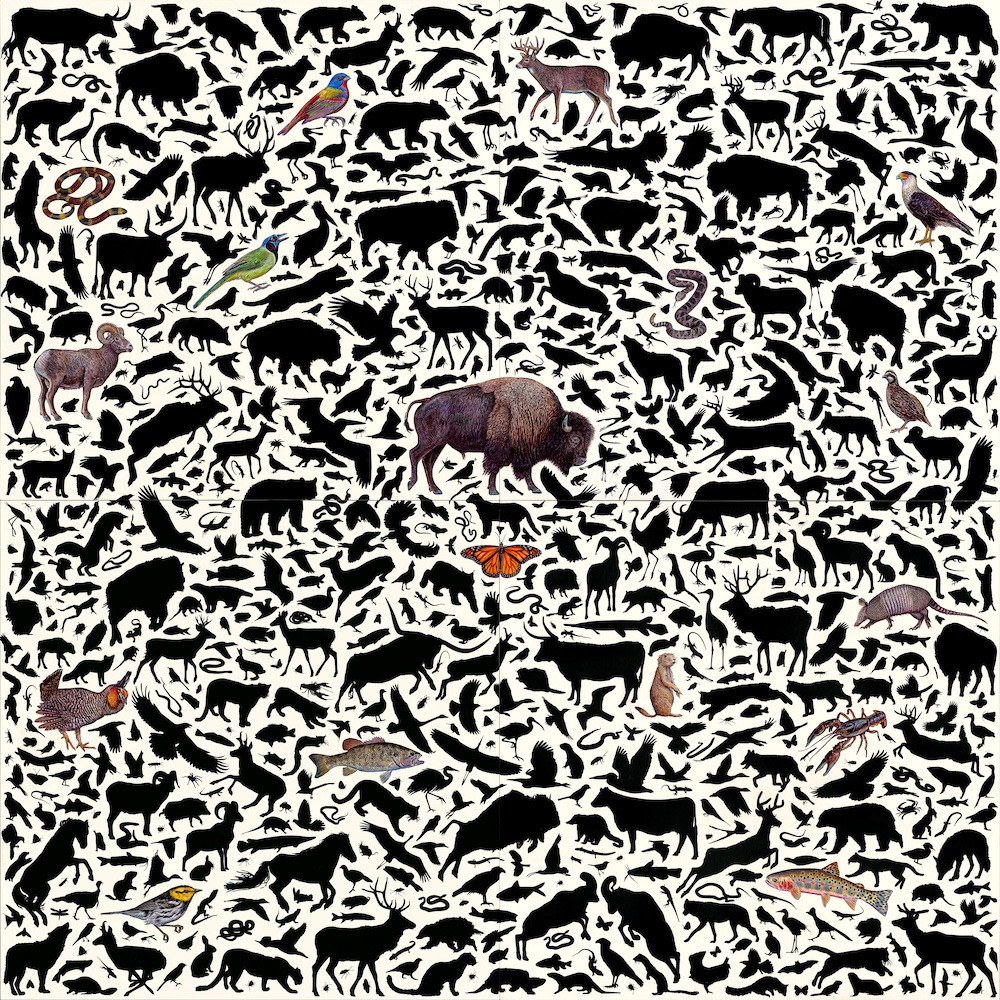
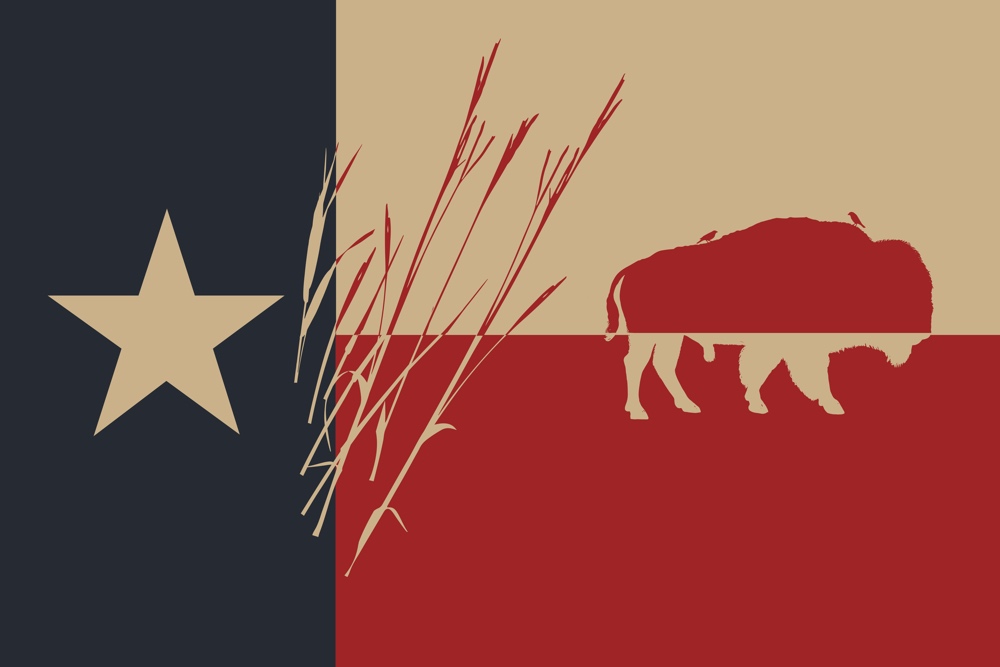
Photos courtesy of James Prosek and the Amon Carter Museum of American Art.
LISTEN & DOWNLOAD:
Apple Podcasts
Spotify
Google Podcasts
... or wherever you get your podcasts!
—
RESOURCES:
Topics Discussed:
- 3:15 - James’ first memory of interacting with nature
- 7:00 - When journaling and drawing became standard practices for James
- 10:15 - James’ view on drawing and its connection to our evolutionary past as hunters
- 15:15 - How drawing fish made James a better angler
- 20:45 - How names affect our thinking about other organisms
- 24:15 - The art that James engaged in parallel to fishing
- 28:00 - How James sharpens his philosophy
- 39:45 - James’ writing process
- 43:00 - How James establishes connections with places
- 1:00:15 - Whether or not James has gone through an artistic slump
- 1:10:00 - James’ parting words of wisdom
Information Referenced:
- Amon Carter Museum of American Art
- Trespassers: James Prosek and the Texas Prairie
- Rhododendron
- Monarch butterfly
- Fairfield, CT
- National Audubon Society
- Why We Draw: TEDxYale talk by James Prosek
- Warbler
- Brook Trout
- Arctic Char
- Mill River (CT)
- Brown Trout
- Sam Harris
- The Treachery of Images (“This is not a pipe” painting), René Magritte
- Merchant Marines
- Henry David Thoreau
- Ralph Waldo Emerson
- Stephen Jay Gould
- E.O. Wilson
- Alfred Korzybski
- Jupiter, FL
- “Art, Artifact, Artifice” by James Prosek
- The Doors of Perception by Aldous Huxley
- David Starr Jordan
- Ichthyology
- Louis Agassiz
- Louis Agassiz Fuertes
- On the Origin of Species by Charles Darwin
- This is Not a Pipe by Michel Foucault
- On Truth and Lies in a Nonmoral Sense by Frederich Nietzsche
- The Divine Within by Aldous Huxley
- Natural Kind
- Realism
- Nominalism
- Ludwig Wittgenstein
- Kristof Zyskowski
- Peabody Museum, Yale
- Suriname
- “She Unnames Them” by Ursula K. LeGuin
- Robert Behnke
- Colorado State University
- Blue Marlin
- Cape Verde Islands
- Woods Harbor, Nova Scotia
- Bird, Butterfly, Eel by James Prosek
- Orange Milkweed
- Spencer Wigmore
- Maggie Addler
- Edwards Plateau in TX
- Indiangrass
- Big Bluestem
- Little Bluestem
- Switchgrass
- Changes in the Land by William Cronon
- Davis Mountains in West Texas
- Broomsedge Bluestem
- Heath Hen
- Martha’s Vineyard
- Prairie Time by Matt White
- Dartmouth Hood Museum
Enjoy this episode? Then you might like these too:
- Live from Maxwell Alexander Gallery
- Frances Ashforth – Art, Water, and Wide-Open Spaces
- Beau Alexander – Paying Homage to the Past, While Focusing on the Future
- Kelsey Johnson – Chasing Her Artistic Ambitions
- Ivan McClellan – A New Look at the Old West
- Morgan Irons – Finding Her Muse
- Live with the Cowboy Artists of America
- Logan Maxwell Hagege – Artistic Evolution
Visit the podcast page for a full, searchable list of episodes

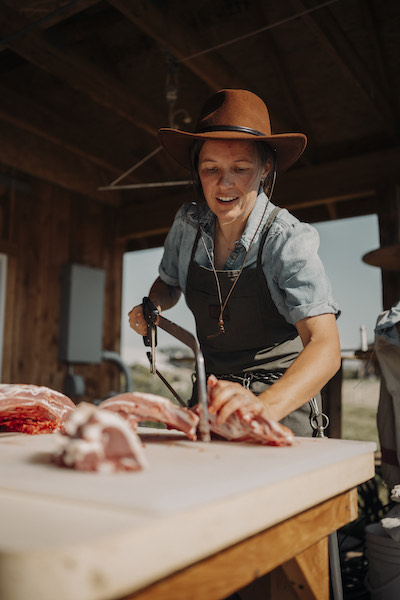
Photo by Chloe Nostrant
Anna Borgman is a Montana-based butcher, chef, and writer whose work focuses on helping people better understand and appreciate the origins of their food. Whether writing an article for Steven Rinella’s MeatEater or helping to field harvest and process a bison, Anna has a gift for helping curious, conscientious people become more educated about the impacts of their food choices. And as you’ll hear in this conversation, her enthusiasm and authenticity are infectious– even after more than an hour of chatting, I felt we only scratched the surface.
Anna grew up in Oregon, and thanks to participation in 4H, she was involved with animals and livestock from an early age. During her teenage years, skiing became her primary passion, and she devoted much of her post-college life to spending as many days as possible in the mountains, oftentimes working multiple jobs to make ends meet. Eventually, through a serendipitous chain of events that we discuss, she found her way into culinary school, which was her gateway into the world of meat and butchery. Through all the various stages of Anna’s career, she’s brought intense devotion– possibly even obsession– to her work, which has resulted in a fascinating life trajectory that is both inspiring and instructive.
Anna and I share so many mutual friends and I’ve been hearing about her and her work for many years, so I was thrilled to have her finally join me for a conversation. We started out discussing her childhood in Oregon and how skiing became her primary focus for so many years. We discuss some of her adventurous international travel experiences, and how those places and the characters she met led her into the world of food. We discuss the upsides of obsession, advice for getting out of ruts, the value of curiosity, and the importance of experiencing other cultures. She also talks in detail about the realities of slaughtering livestock, why she feels such a connection to butchery, her favorite books, and much more.
Even though this was my first time meeting Anna, I felt like I was chatting with an old friend. I’m super-inspired by all of her work, but even more inspired by the focus and passion she brings to everything she does. I hope you enjoy this conversation as much as I did.
Photos courtesy of Anna Borgman and Chloe Nostrant
LISTEN & DOWNLOAD:
Apple Podcasts
Spotify
Google Podcasts
... or wherever you get your podcasts!
—
RESOURCES:
Topics Discussed:
- 3:00 - What Anna wanted to be when she grew up
- 7:30 - When Anna realized that most livestock she raised would led to slaughter
- 10:00 - Anna’s interest in skiing and how it led her to work with a French cook in Australia and adventures in Spain
- 16:30 - Anna’s experience in culinary school
- 20:15 - Why so many interesting people have pastry making on their resume
- 22:15 - When Anna became interested in butchery, and whether or not working long days in culinary school made Anna feel more content
- 25:45 - The importance of having an obsession
- 28:45 - Anna’s advice for getting out of a rut
- 32:00 - The scariest things that have happened to Anna during international travel, as well as the lessons travel taught her
- 38:30 - When Anna went all in on butchery
- 43:00 - The process of slaughtering and butchering
- 46:30 - Anna’s first slaughter
- 51:45 - Lessons from butchery
- 57:00 - The value of curiosity
- 59:45 - Discussing Forage Fed
- 1:03:45 - Anna’s book recommendations
- 1:09:00 - Anna’s guilty pleasures (or lack thereof)
- 1:14:00 - Anna’s parting words of wisdom
Information Referenced:
- Anna Borgman
- North Bridger Bison
- Bend, OR
- Powell Butte, OR
- 4-H
- University of Utah
- Thredbo Ski Resort
- Kitchen Confidential by Anthony Bourdain
- Basque Country
- San Sebastian, Basque Country
- Basque History of the World by Mark Kurlansky
- Salt by Mark Kurlansky
- Cod by Mark Kurlansky
- Cascade Culinary Institute
- Kathie Sever
- Fort Lonesome
- Diplomat Cream
- Enneagram
- Bilbao. Spain
- Sam Harris
- Matt Skoglund
- Article about Anna in Deseret News
- Amsterdam Meat Shop
- Amsterdam, MT
- Camas Davis
- Good Meat Project
- Temple Grandin
- Adam Gall
- Kate Kavanaugh
- Ryan “Cal” Callaghan
- Backcountry Hunters and Anglers (BHA)
- Back40 Property
- Mark Kenyon
- Wild and Whole
- Danielle Prewett
- Blackbird restaurant
- One Montana Master Hunters Group
- Raw Deal by Chloe Sorvino
- Old Salt Co-op
- American Lucifers by Jeremy Zallen
- Moby Dick by Herman Melville
- The End of Night by Paul Bogard
- Seeing Silence by Pete McBride
- Call Sign Chaos by James Mattis
Enjoy this episode? Then you might like these too:
- Rebuilding a Resilient, Regional Meat Supply Chain – LIVE at the Old Salt Festival
- Kate Mannix – A Legacy of Land Stewardship
- Kate Kavanaugh – Regeneration & Restoration
- Mark Kenyon – A Passion for Public Lands
- Kelsey Johnson – Chasing Her Artistic Ambitions
- Matt Pierson – Finding New Solutions for Food Insecurity
- Amber Smith – Creating Connection & Community
- Cate Havstad-Casad, Part 2 – Building Businesses for the Greater Good
Visit the podcast page for a full, searchable list of episodes

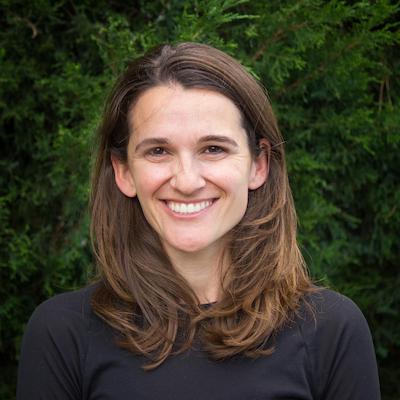
Carrie Segil is the People and Culture Manager at The Nature Conservancy in Colorado, and Duncan Gilchrist is a Climate and Natural Resources Policy Associate at The Nature Conservancy in Colorado. Both Carrie and Duncan are deeply involved with TNC Colorado’s Catalyst Fund, a cutting-edge conservation funding initiative that supports forward-looking projects that enable innovation and rapid learning, both to test new ideas and to build greater capacity for innovation over the long term.
One of the Catalyst Fund’s most notable projects involves agrivoltaics, which is the simultaneous use of land for both solar energy production and agriculture. The project is called the Agrivoltaics Retrofit Partnership, and it’s a Boulder-based partnership between TNC, Jack’s Solar Garden, Drylands Agroecology Research, Boulder Housing Partners, and a conservation-justice / community outreach partner called FLOWS. The project aims to achieve multiple conservation and community objectives, including restoring degraded land, producing perennial plants with medicinal, economic, and indigenous cultural value, and providing a host of benefits to local marginalized community members– benefits that we discuss in this episode.
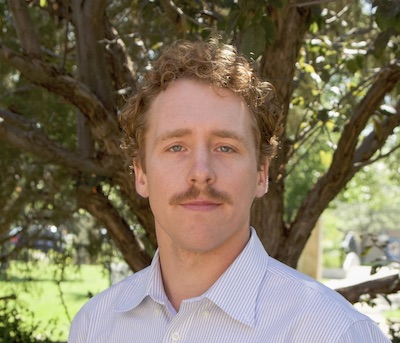
In this episode, we talk in detail about this specific agrivoltaics project, as well as some of the other innovative projects that are being pushed forward thanks to support from the Catalyst Fund. We discussed how and why TNC Colorado decided to create the Catalyst Fund in the first place, and the need to push boundaries and take risks in the conservation space. Carrie offers insights into specific Catalyst projects, such as virtual fencing for bison, and Duncan discusses all the details about this agrivoltaics project– including the genesis of the idea, the challenges of the projects, and why it has proven to be so successful and replicable. We also discuss how policy on the state and federal level is creating more opportunities for agrivoltaics, why it garners bipartisan support, and lessons learned from all of the Catalyst Fund projects.
I was so impressed with Carrie and Duncan’s enthusiasm, professionalism, and commitment to innovation, and I learned so much from this conversation. Be sure to check out the episode notes to learn more about everything we discussed, and please share this episode with any friends or colleagues who might find it valuable. Thanks so much for listening, I hope you enjoy!
Photos courtesy of The Nature Conservancy
LISTEN & DOWNLOAD:
Download on Apple Podcasts
Download on Spotify
Download on Google Podcasts
…or wherever you get your podcasts!
EPISODE PARTNER:

This episode is brought to you in partnership with the Colorado chapter of The Nature Conservancy. Guided by science and grounded by decades of collaborative partnerships, The Nature Conservancy has a long-standing legacy of achieving lasting results to create a world where nature and people thrive.
On the fourth Tuesday of every month throughout 2023, Mountain & Prairie will be delving into conversations with a wide range of The Nature Conservancy’s leaders, partners, collaborators, and stakeholders, highlighting the myriad of conservation challenges, opportunities, and solutions here in the American West. You can access all of the 2023 episodes here.
To learn more about The Nature Conservancy’s impactful work in Colorado and around the world, visit www.nature.org/colorado
RESOURCES:
Topics Discussed:
- 3:30 - An overview of the Catalyst Fund
- 7:00 - Talking to funders about the Catalyst Fund
- 8:45 - How TNC evaluates what it is looking for regarding the Catalyst Fund
- 10:30 - Duncan’s project
- 12:45 - Duncan’s job before his agrivoltaics project
- 14:45 - More on Duncan’s project and his site
- 19:00 - About Boulder Housing Partners, and how they reacted to Duncan’s idea
- 20:30 - How Duncan worked to turn the rocky land he was working into agricultural land
- 22:30 - The outlook for Duncan’s project, and how it stacks up against his expectations
- 25:00 - The federal and state (CO) push for more projects like Duncan’s
- 28:00 - Why agrivoltaics seems to garner bipartisan support
- 29:30 - Why everyone isn’t doing agrivoltaics
- 31:30 - The potential for grazing under agrivoltaics
- 32:30 - Other synergies between solar energy and agriculture
- 33:30 - Carrie’s outlook on Duncan’s project, and some other projects funded by the Catalyst Fund
- 36:45 - What it’s like for TNC to work with external partners
- 37:45 - Other projects funded through the Catalyst Funds
- 40:00 - Big lessons from the Catalyst Fund project
- 45:00 - The power of advocating for policy
- 47:15 - Where the Catalyst Fund is going
- 51:00 - Carrie and Duncan’s book recommendations
- 53:45 - Closing thoughts
Information Referenced:
- Catalyst Fund
- TNC Colorado
- TNC New York
- Jennifer Chin
- Palmer Land Conservancy
- Bessemer Farmland Conservation Project
- JE Canyon Ranch
- Matt Moorehead
- Mirr Ranch Group
- Agrivoltaics
- Byron Kominek
- Jack’s Solar Garden
- Longmont, CO
- Drylands Agroecology Research
- Boulder Housing Partners
- Wish Garden Herbs
- Katherine Hunziker
- FLOWS - Foundations for Leaders Organizing for Water and Sustainability
- Tim Beal
- Nick DiDomenico
- Lemon Balm
- Flax
- Thyme
- Colorado White Sage
- Fennel
- Agricultural Producers Use Of Agrivoltaics Act
- Rob Addington
- JJ Autrey
- Silver Mountain Preserve
- Call Sign Chaos by Jim Mattis
- Galen Guerrero-Murphy
- Carlos Fernandez
- Taylor Hawes
- Lean Impact by Ann Mei Chang
- Sandra Boynton
- Already Free by Bruce Tift
- Boulder Shambhala Center
Enjoy this episode? Then you might like these too:
- Erik Glenn Returns – Leadership, Innovation, & Commitment to Conservation
- Lorelei Cloud – Solving Modern-Day Challenges with Ancient Tribal Wisdom
- Rebuilding a Resilient, Regional Meat Supply Chain – LIVE at the Old Salt Festival
- Matt Moorhead & Galen Guerrero-Murphy – Grasslands Conservation on the Southern High Plains
- Taylor Hawes – Innovative Conservation in the Colorado River Basin
- Francesca Claverie – A Borderlands Conservation Success Story
Visit the podcast page for a full list of episodes where you can filter episodes by topic and guests' vocations.

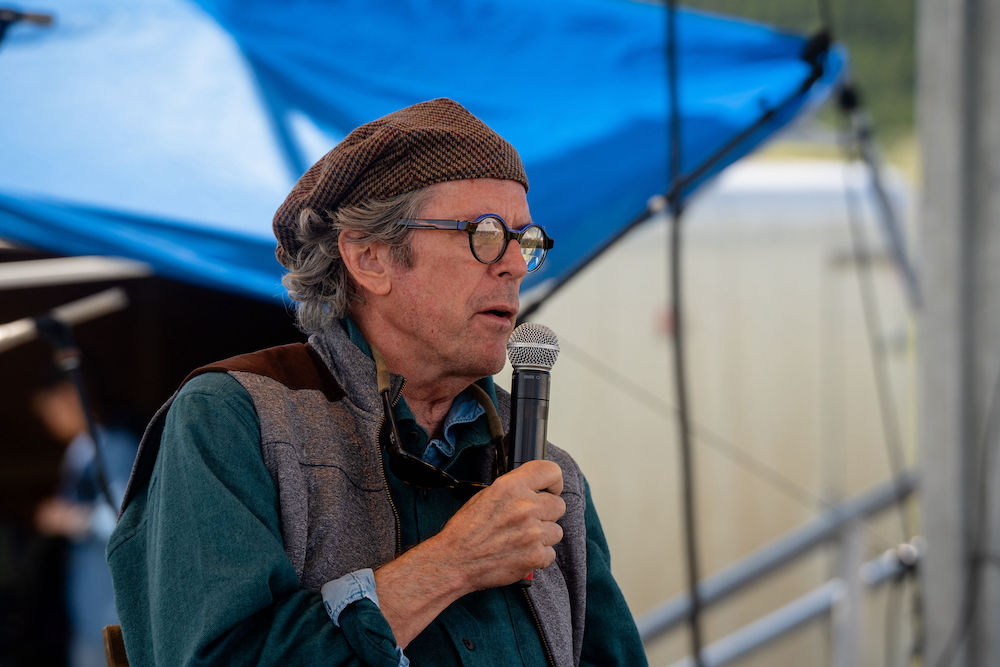
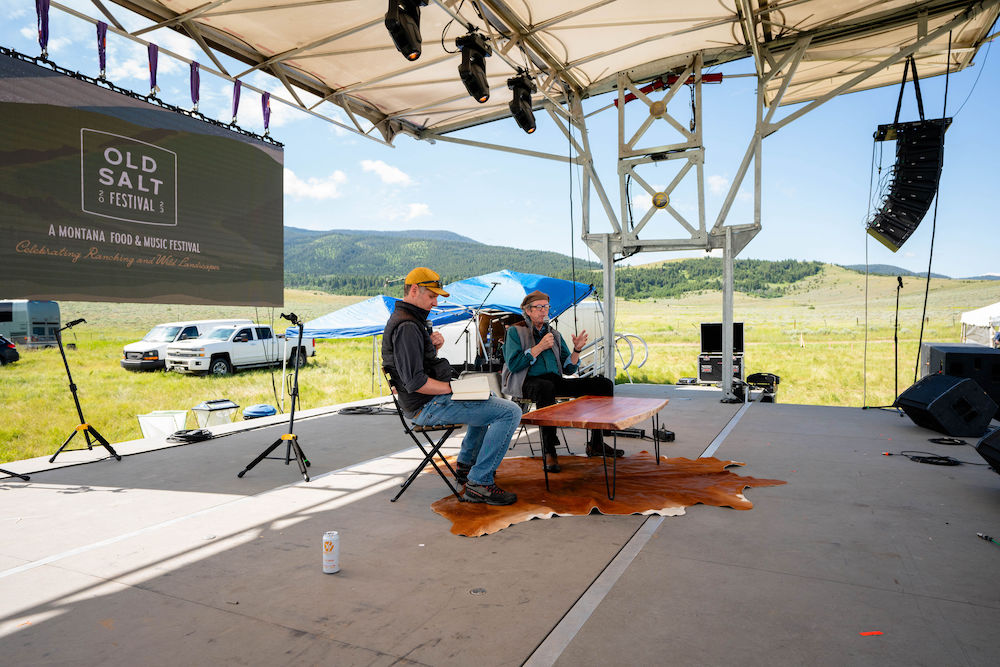
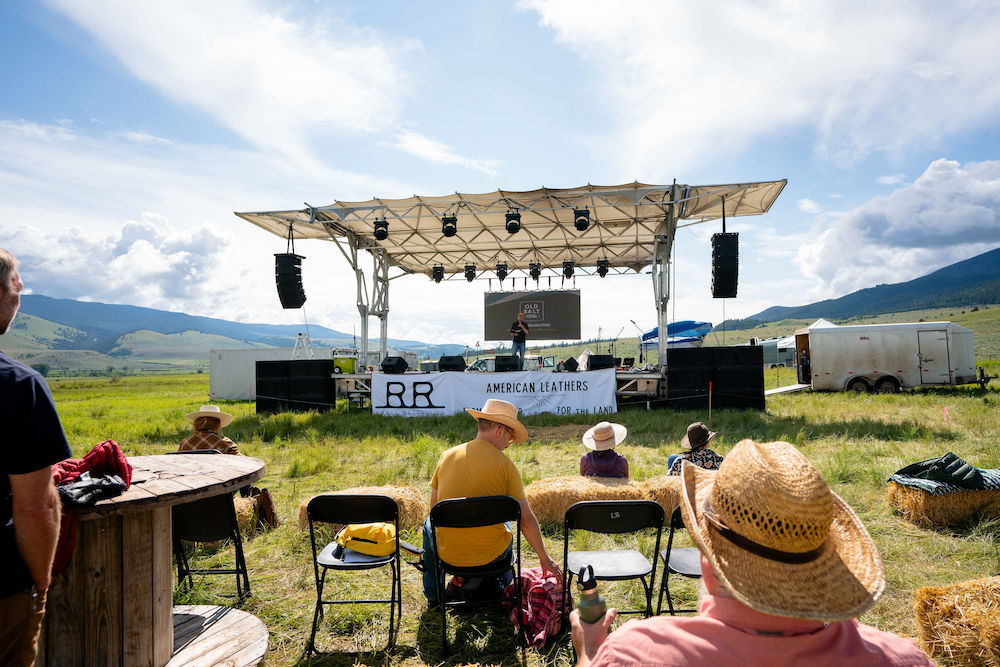
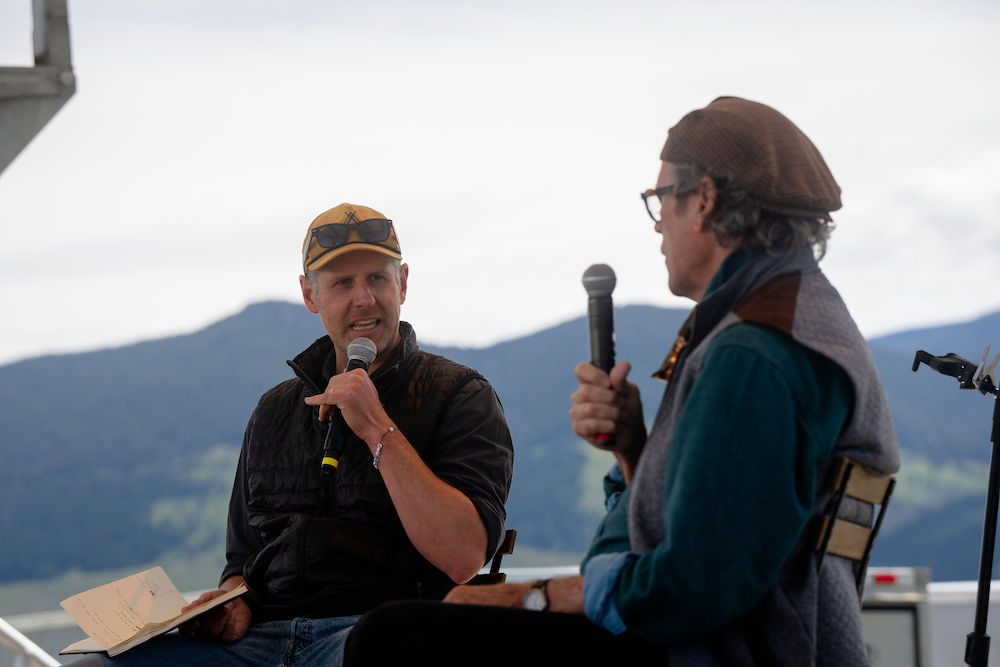
David James Duncan is one of those Western literary legends who needs no introduction to Mountain & Prairie listeners. But for those of you who may be new to the podcast or to Western literature, David is a renowned Montana novelist, activist, and flyfisherman. He’s the author of The River Why and The Brothers K, and his newest novel Sun House hits shelves today. David is also the author of countless nonfiction essays, many of which have been compiled in books such as My Story as Told by Water, River Teeth, and God Laughs & Plays.
This episode was recorded live at the first-annual Old Salt Festival, which was held on the Mannix Family Ranch in Helmville, Montana. The festival was a three-day celebration of land stewardship and wild places, and it featured live music, wood-fired cooking, and discussions about conservation, literature, and the power of place. Given that so much of David’s work as an author and activist is heavily influenced by his love of land, water, and wildlife, he brought a wise and thoughtful perspective to the Festival– a perspective that was greatly appreciated by everyone in attendance.
This episode is split into two parts– first is our on-stage conversation, which took place on Saturday morning, followed by two readings from his new novel Sun House, which took place that evening. In our conversation, I focused in on David’s life as a contemplative. We talk about his upbringing in the Pacific Northwest and his eventual move to Montana, which is the place he now considers his home. We discuss the importance of being able to hold two competing ideas in your mind at once, why he felt called to become an activist, why deep friendships are such an important part of his life, and the women who have served as mentors to him. We also talk about his 16-year process of writing Sun House, the difference between creating ideas versus receiving them, what gives David hope for the future, and much more.
The second part of the episode features two readings from Sun House, both of which were perfectly aligned with the spirit and mood of the Old Salt Festival. From where I was sitting in the crowd, I saw many people tearing up near the end of David’s reading, so I hope the power of his words and the place come through in this audio. It was an extremely special experience that I will not soon forget.
A huge thank you to David for his kindness, generosity, and for all of his contributions to the culture and conservation of the West. Thank you to the Old Salt Festival for giving me this opportunity to talk with David. And thank you for listening.
If you haven’t already, I’d encourage you to pick up a copy of Sun House– it’s available online or in your favorite local bookstore right now!
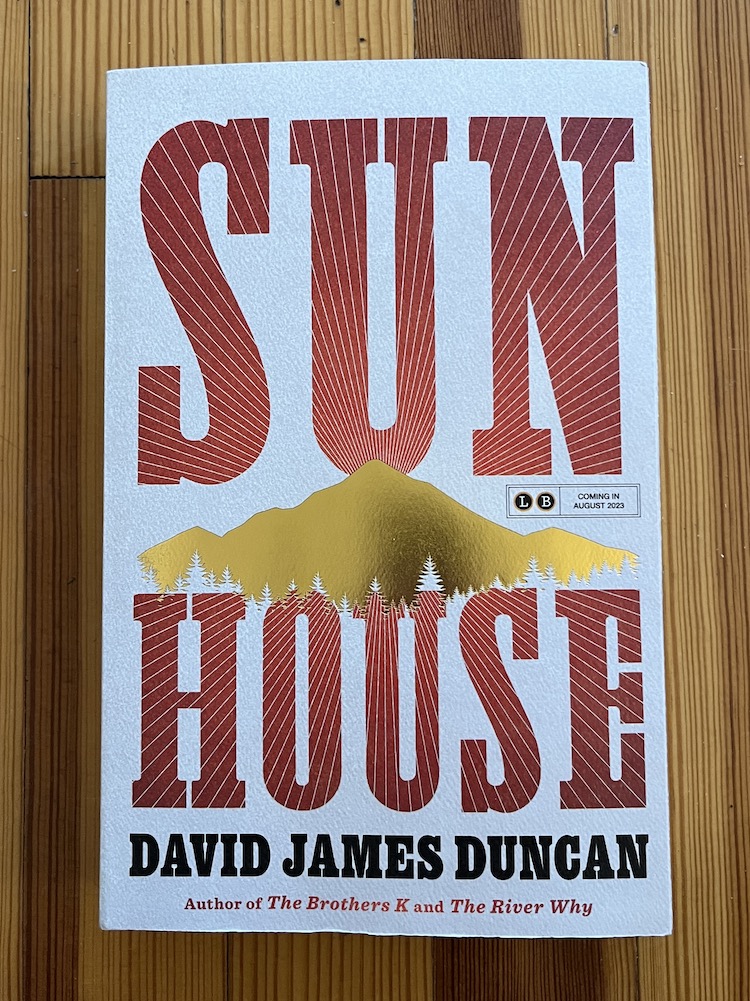
All photos by Anthony Pavkovich
LISTEN & DOWNLOAD:
Apple Podcasts
Spotify
Google Podcasts
... or wherever you get your podcasts!
—
RESOURCES:
Topics Discussed:
- 4:30 - Intros
- 7:30 - Discussing if Montana is home to David
- 10:30 - How David came to write about Montana
- 12:30 - How to hold two ideas in your head (the brutal US past and the landscape beauty we see presently)
- 14:55 - David’s transition from fiction to nonfiction writing
- 19:30 - Advice on how to take a stand
- 21:45 - David’s friends
- 26:30 - David’s women mentors
- 30:30 - Writing Sun House
- 34:30 - The benefits and challenges of writing something so emotional as Sun House
- 38:00 - Whether or not David is creating ideas or receiving them while writing
- 41:30 - What makes David feel good about the future
- 43:30 - Reading 1
- 58:15 - Reading 2
Information Referenced:
- David James Duncan
- Sun House by David James Duncan
- The River Why by David James Duncan
- The Brothers K by David James Duncan
- My Story as Told by Water by David James Duncan
- River Teeth by David James Duncan
- God Laughs & Plays by David James Duncan
- Old Salt Festival
- Cole Mannix
- “The Non-Sense of Place” - from My Story as Told by Water by David James Duncan
- The Meadow by James Galvin
- Steelhead
- Seventh-Day Adventist
- Livingston, MT
- Debra Magpie Earling
- Sherman Alexie
- Snake River
- Army Corp of Engineers
- Bonneville Power Administration
- 2,4-D
- 2,4,5-T
- Loma, MT
- David Whyte
- Paul Hawken
- Rick Bass
- Brian Doyle
- Wendell Berry
- Jane Hirshfield
- Trumpeter Swan
- Phil Gardner
- Lolo, MT
- Thomas Aquinas
- Beguines
- Cologne, France
- Michael Pietsch
- Hachette Book Group
- David James Duncan Talks About His New Novel, Sun House
- Trappist Monk
- Osprey
- Cedar Waxwing
- Swallows
- Nighthawks
- Coho salmon
Enjoy this episode? Then you might like these too:
- Doug Peacock – 50 Years of Fighting for the Grizzlies
- Douglas Brinkley – Exploring the Past to Find Inspiration for the Future
- Kate Mannix – A Legacy of Land Stewardship
- Rebuilding a Resilient, Regional Meat Supply Chain – LIVE at the Old Salt Festival
- David Gessner Returns – “A Traveler’s Guide to the End of the World”
- Bryce Andrews, Part 2 – “Holding Fire”
- Chris Dombrowski, Part 2 – “The River You Touch”
- Rick Ridgeway – Purpose-Driven Adventurer
- Cate Havstad-Casad, Part 2 – Building Businesses for the Greater Good
- Amber Smith – Creating Connection & Community
Visit the podcast page for a full, searchable list of episodes


This is the 200th episode of Mountain & Prairie, so I decided to celebrate the milestone by bringing back the first-ever M&P guest, my good friend Erik Glenn. Erik is the Executive Director of the Colorado Cattlemen’s Agricultural Land Trust, a statewide conservation organization that protects Colorado's agricultural land, heritage, and families for future generations by conserving working rural landscapes. Erik is also the President of the Partnership of Rangeland Trusts, a collection of nine ag-based, western land trusts who work together to “advocate for the conservation of working lands and western heritage for the benefit and wellbeing of future generations.”
When Erik and I spoke for episode number one all the way back in the spring of 2016, he was only about a year into his role as Executive Director. At that point, the organization had conserved just over 465,000 acres of land in Colorado. Fast forward seven and a half years to today, Erik and his team have added an additional 300,000 acres of conserved land, bringing the total to more than 765,000 acres. But most importantly, CCALT has served as a loyal and trusted partner for more than 400 agricultural families who are deeply committed to conserving Colorado’s western heritage and working landscapes.
I consider Erik a great friend and a wise mentor, and if not for his kindness, encouragement, and counsel, I doubt there would be a Mountain & Prairie, nor would I have ever worked in the conservation world. We sat down at his office in Lakewood and caught up on everything, including: how Erik spurs innovation without losing sight of the basics of land conservation; his thoughts on building culture and retaining the best team members; balancing his own intense work ethic with his desire set reasonable-yet-high expectations for his team; how having kids has changed him; the growth of PORT; his mentors; the evolution of the perception of conservation easements in the ag community; threats and opportunities; book recommendations; and much more.
A big thanks to Erik for letting me use him as a guinea pig for the first episode back in 2016, and for his willingness to join me again for episode 200. But more importantly, thanks to Erik for his leadership and commitment to conservation in Colorado, the West, and beyond. Hope you enjoy!
---
Photos courtesy of CCALT.
LISTEN & DOWNLOAD:
Apple Podcasts
Spotify
Google Podcasts
... or wherever you get your podcasts!
—
RESOURCES:
Topics Discussed:
- 3:30 - What the Colorado Cattlemen's Agricultural Land Trust is
- 11:00 - How Erik balances innovation with the basics of conservation
- 15:30 - How Erik actually implements a culture in the workplace
- 23:30 - How Erik balances his work ethic with the desire to not set unreasonable work expectations for his team
- 29:30 - How having kids impacted Erik
- 35:45 - Discussing PORT
- 46:00 - Discussing whether or not good conservation tools have become good business tools for land owners
- 50:00 - Erik’s mentors
- 58:00 - The biggest threat and opportunity facing conservation
- 1:10:30 - Erik’s book recommendations
- 1:13:30 - Erik’s parting words
Information Referenced:
- Erik Glenn
- Colorado Cattlemen’s Agricultural Land Trust
- Colorado Cattlemen’s Association
- CSU study on conservation impacts on private lands
- PORT (Partnership of Rangeland Trusts
- Wyoming Stock Growers Land Trust
- Lynn Sherrod
- Montana Land Reliance
- South Dakota Agricultural Land Trust
- Ranchlands Trust of Kansas
- Nebraska Land Trust
- The Northwest Rangeland Trust
- California Rangeland Trust
- Chad Ellis of TALT
- Ken Mirr
- Chris West
- Larry Kueter
- Bill Silberstein
- Colorado College
- Colorado Transferable Conservation Easement Tax Credit
- Infrastructure Investment and Jobs Act
- Inflation Reduction Act
- Play to Win by A.G. Lafley and Roger L. Martin
- Vince Flynn
- Honestly Podcast with Bari Weiss
- Collective Illusions by Todd Rose
- Peter Thiel
- Call Sign Chaos by Jim Mattis
Enjoy this episode? Then you might like these too:
- Rebuilding a Resilient, Regional Meat Supply Chain – LIVE at the Old Salt Festival
- Matt Moorhead & Galen Guerrero-Murphy – Grasslands Conservation on the Southern High Plains
- Landscape-Scale Management in a Private Land State
- Cole Mannix – Building Community through Land Stewardship and Local Food
- Carlos Fernández, Part 2 – Creating Conservation Opportunities During Uncertain Times
- Francesca Claverie – A Borderlands Conservation Success Story
- Matt Pierson – Finding New Solutions for Food Insecurity
Visit the podcast page for a full, searchable list of episodes

For many years now, listeners have been emailing me with lots of different versions of the same basic question:
“How do I get a job in the conservation world?”
Some of the inquiries come from college students or young professionals, while others come from folks who are deep into a specific career path but want to make a change. I’m always happy to receive these messages, and I’m flattered that anyone would think I have valuable advice to offer.
Unfortunately, I’ve never been able to provide what I believe to be a suitable answer, mainly because I could not do the question justice within the constraints of email or social media. And over the last few years, the volume of messages has reached a point that I simply cannot keep up with it all– so if you’ve reached out and I have not responded, my sincere apologies.
For (at least) the past three years, I’ve been considering answering this question in podcast form, thinking the episode could serve as a detailed resource for anyone who asked the question… and for those who will in the future. But I’ve procrastinated or rationalized reasons not to, mainly because I felt extremely uncomfortable about sitting by myself, blabbing my thoughts and ideas into a microphone. I never want to come off as a know-it-all or some kind of wannabe internet guru.
But the volume of the incoming messages kept increasing, so I finally decided to put my ego and self-consciousness aside and just answer the question in podcast form.
I wrote an eight-page outline that laid out everything I know about finding a job in the conservation world, then I sat down in The Shed and let ‘er rip. The result is a ridiculously long soliloquy in which I put it all out there. I’m calling it a Shed Session.
Please keep in mind that this episode is simply a recounting of my own personal and professional experience– it’s not some kind of one-size-fits-all “hack” that will lead you directly to your dream job. I’ve long said that I am the last person anyone should be asking for career advice, and there are certainly tons of people who are much more experienced and accomplished in conservation than I am.
But for those of you who did ask, this episode is for you. I lay it all out, including: my specific career path; my specific job in the conservation field; skills that are needed in the conservation sector; why relationship building is the most important skill; how I built a deep and broad network in Colorado despite only knowing one person when I moved here in 2010; why I think networks are the most valuable assets, what I looked for when I was hiring for conservation roles; what you should look for (and avoid) in conservation organizations; pros and cons of working in non-profit conservation, book recommendations, and more. Links to everything are in the episode notes.
Again, all of this is just my personal experience and my possibly weird ideas about doing purpose-driven work. For those of you who have reached out, I hope this adds some value. For everyone else, we’ll be back to the regularly scheduled interviews later this week.
Thanks for listening!
LISTEN & DOWNLOAD:
Apple Podcasts
Spotify
Google Podcasts
... or wherever you get your podcasts!
—
WATCH ON PATREON:
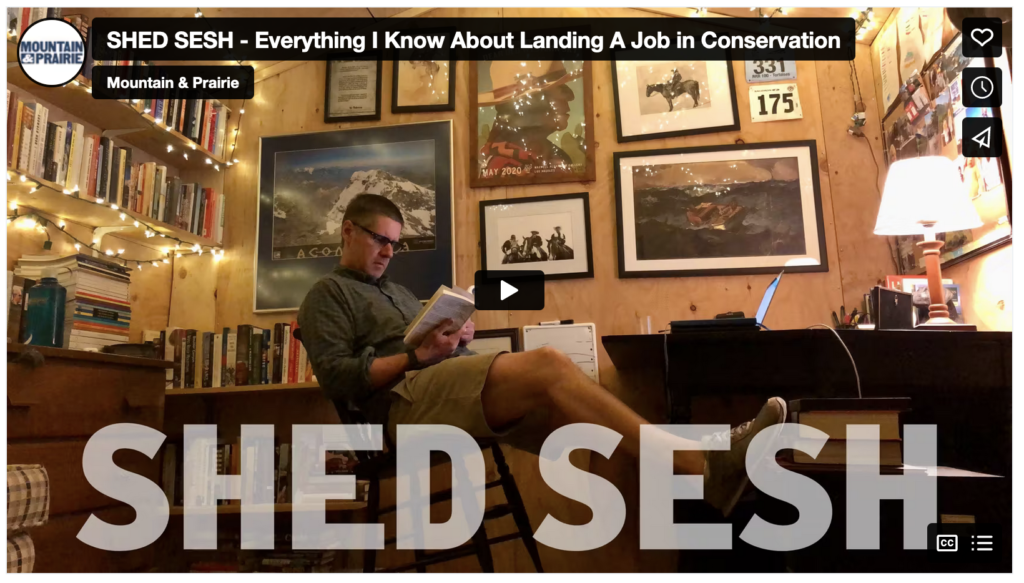
RESOURCES:
Topics Discussed:
- 3:12 - Intro, Questions, and Goals
- 10:20 - Disclaimers
- 13:58 - Discussion outline
- 15:45 - My career path
- 19:53 - My specific job in conservation
- 22:30 - How I built a network from scratch
- 40:01 - Advice on how to build a network
- 48:55 - What I looked for when I was hiring
- 54:39 - What you should look for in a conservation organization
- 1:05:51 - Book Recommendations
- 1:15:05 - Pros and cons
- 1:22:22 - Closing thoughts
Information Referenced:
- Watch this podcast on Patreon
- Wake Forest University
- Ed on the Mirr Ranch Group podcast (Part 1, Part 2, or full video)
- VIDEO: Bessemer Farmland Conservation Project
- Mirr Ranch Group
- Palmer Land Conservancy
- Colorado Cattlemen’s Agricultural Land Trust
- The Nature Conservancy
- Trust for Public Land
- The Conservation Fund
- Linchpin by Seth Godin
- Extreme Ownership by Jocko and Leif
- Boyd: The Fighter Pilot Who Changed the Art of War by Robert Coram
- Let My People Go Surfing by Chiounard
- How to Win Friends and Influence People by Dale Carnegie
- Deep Work, Digital Minimalism, and A World Without Email by Cal Newport
- Atomic Habits by James Clear
- Think Again and Originals by Adam Grant
- Endurance: Shackleton’s Incredible Voyage by Alfred Lansing
- For the Love of Land: Global Case Studies of Grazing in Nature’s Image by Jim Howell
- Losing Eden: An Environmental History of the American West by Sara Dant
- Blood and Thunder by Hampton Sides
- TED Talk: The way we think about charity is dead wrong | Dan Pallotta
To check out dozens of past episodes featuring conservationists from around the West, visit the podcast page and choose "conservationists" from the dropdown menu!

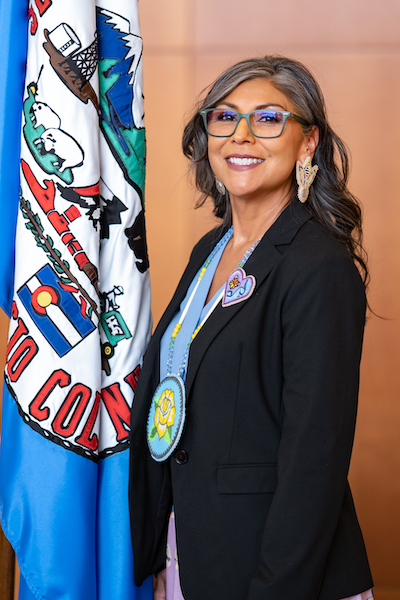
Photo: Jeremy Wade Shockley
Lorelei Cloud is a member of the Southern Ute Indian Tribe and currently serves as Vice Chairman of the Southern Ute Indian Tribal Council. Lorelei’s commitment to conservation, leadership development, and Ute language, traditions, and culture is evident by the staggering number of leadership roles she holds– she is Co-Chairman of the Indigenous Women’s Leadership Network, a Board Trustee for the Nature Conservancy, and serves on the Colorado River Basin’s Water & Tribes Initiative. Earlier this year, she was appointed by the Governor of Colorado to serve on the Colorado Water Conservation Board ("CWCB"), making her the first-ever Tribal member of the board.
Lorelei was born and raised on the Southern Ute Reservation, which is located in the far southwestern corner of Colorado. From the very beginning, water has played a central role in Lorelei’s life– much of her childhood was spent without running water and access to drinking water continues to be a challenge on the Reservation to this day. Much of Lorelei’s early career was spent working in various businesses, including banking and energy, all while being a mother and raising four children. In 2015, she was elected to the Tribal Council, which began this new phase of her life and career– a phase devoted to serving her Tribal Community, as well as the communities, landscapes, and natural resources of the American West.
I’ve been hearing such great things about Lorelei for years, so I was honored to have the opportunity to chat with her on the podcast. We enjoyed a wide-ranging conversation about her upbringing on the Southern Ute Reservation, the history of the Southern Ute Tribe, her recent appointment to the CWCB, why she decided to devote herself to public service, the goals of the Indigenous Women’s Leadership Network, her work with the Nature Conservancy, the need to elevate Tribal voices on issues of water and land conservation in the West and beyond, advice for aspiring leaders, her favorite books, ways the listeners can get involved and support the work of the Southern Ute Tribe, and much more.
Be sure to check out the episode notes for a full list of topics discussed and links to everything. A huge thanks to Lorelei for taking the time out of her busy schedule to talk with me and for her deep commitment to doing such impactful work in Colorado and beyond. Enjoy!
Header photo by Trennie Collins, Portrait by Jeremy Wade Shockley
LISTEN & DOWNLOAD:
Download on Apple Podcasts
Download on Spotify
Download on Google Podcasts
…or wherever you get your podcasts!
EPISODE PARTNER:

This episode is brought to you in partnership with the Colorado chapter of The Nature Conservancy. Guided by science and grounded by decades of collaborative partnerships, The Nature Conservancy has a long-standing legacy of achieving lasting results to create a world where nature and people thrive.
On the fourth Tuesday of every month throughout 2023, Mountain & Prairie will be delving into conversations with a wide range of The Nature Conservancy’s leaders, partners, collaborators, and stakeholders, highlighting the myriad of conservation challenges, opportunities, and solutions here in the American West. You can access all of the 2023 episodes here.
To learn more about The Nature Conservancy’s impactful work in Colorado and around the world, visit www.nature.org/colorado
RESOURCES:
Topics Discussed:
- 3:30 - Lorelei’s youth on the Southern Ute Reservation
- 6:15 - How Lorelei’s family would get water
- 8:15 - Lorelei’s childhood personality, school years, and early jobs
- 13:30 - Whether or not Lorelei wanted to stay on the reservation
- 15:30 - A brief Ute history
- 19:00 - How Lorelei’s appointment as the first Indigenous representative on the CWCB
- 22:15 - What the CWCB does
- 27:30 - How Lorelei decided to pursue public service
- 30:15 - About the Indigenous Women’s Leadership Network
- 34:00 - Lorelei’s advice for aspiring leaders
- 36:15 - Lorelei’s mentors
- 40:30 - About Lorelei’s role as Vice Chairman of the Southern Ute Tribe
- 43:00 - How Lorelei became involved with TNC and how she evaluates whether or not to pursue a professional opportunity
- 48:15 - Whether or not Deb Haaland has elevated Tribal voices through her work
- 52:00 - Lorelei’s book recommendations
- 55:00 - How you can help Lorelei’s work
- 56:00 - Lorelei’s words of wisdom
Information Referenced:
- Lorelei Cloud
- Southern Ute Indian Tribe
- Lorelei’s YouTube presentation
- CWCB - Colorado Water Conservation Board
- Lorelei’s appointment to the CWCB
- Leonard Birch
- Pino Nuche Purasa restaurant
- Ignacio, CO
- Indian Housing Authority
- Red Willow Production Company
- Ute Reservation reduction maps
- Ute history
- Ute Mountain Ute Tribe
- Ute Tribe
- Fort Duchesne, UT
- Meeker Massacre
- Jicarilla Apache Nation
- Palmer Land Conservancy
- Rebecca Mitchel
- San Miguel River
- Dolores River
- San Juan River
- Sports Betting Act
- Indigenous Women’s Leadership Network
- The Nature Conservancy, CO
- Water and Tribes Initiative
- Matt McKinney and Darryl Vigil
- Bidtah Becker
- Nora McDowell
- Fort Mojave Indian Tribe
- Crystal Tulley-Cordova
- Bureau of Indian Affairs
- Celene Hawkins
- Carlos Fernandez
- Melvin Baker, Chairman of the Southern Ute
- Colorado River Compact
- Deb Haaland
- Taylor Hawes
- The Fifth Discipline by Peter M. Senge
- White Horse by Erica T. Wurth
- M. Scott Momaday
Enjoy this episode? Then you might like these too:
- Shane Doyle – Reverence for the Past, Hope for the Future
- Marci McLean & Cora Neumann on COVID’s Impact on Native Communities
- Chris La Tray – Rediscovering His Past, Writing His Future
- Peter Stark – Tales of Adventure, Exploration, & Epic Battles
- Francesca Claverie – A Borderlands Conservation Success Story
- Betsy Gaines Quammen – A Fascinating History of Public Lands in the West
- Len Necefer – Indigenous Advocate
- Bryce Andrews, Part 2 – “Holding Fire”
Visit the podcast page for a full list of episodes where you can filter episodes by topic and guests' vocations.

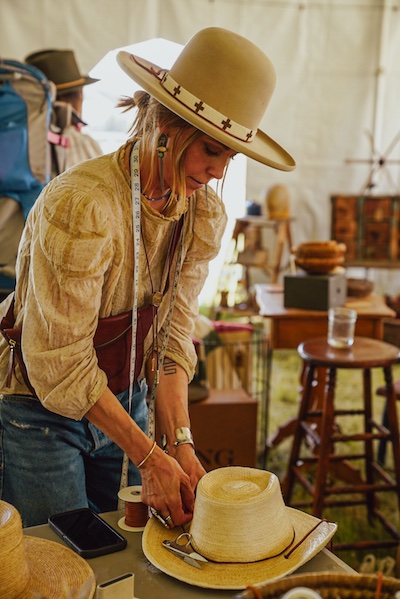
photo credit: Alexandra Rapadas Munger
Christy Sing Robertson is a hatmaker and the founder and owner of Sing Hat Company. Based in Jackson, Wyoming, Christy has evolved rather quickly from making a few hats for herself and several friends into becoming one of the most popular and sought-after hat makers in the West. Whether she’s hand-shaping palm leaf hats for hundreds of people at events such as last month’s Old Salt Festival or creating a custom felt hat for a 5th generation rancher or celebrity musician, Christy’s humility, curiosity, and commitment to the craft have allowed her to stand out in the crowded field of custom hatmakers.
Christy was born and raised in the Ozark Mountains of Arkansas, and she stayed there for the first half of her career, working as a high-performing salesperson in the insurance industry. But despite her success in the conventional and lucrative world of sales, she felt called to the West and decided to uproot her life and move to Jackson, Wyoming. Even though she moved to Jackson without knowing a soul, she managed to establish roots and build a fulfilling life centered around motherhood, hard work, and leading a thoughtful, intentional life. And along the way, just as she felt a calling to move to Wyoming, she felt called to make hats– so she went all-in. Today, Christy’s hats– and her long list of customers– demonstrate the amazing success she’s achieved in a relatively short amount of time.
I’ve been following Christy’s work for many years now, so I was thrilled to finally have a chance to chat with her on the podcast. Her story is amazingly inspiring and speaks to the importance of grit, risk-taking, working hard, humility, and trusting your gut. We covered a lot during our hour together, including: her upbringing in Arkansas and her success in the insurance business; the spiritual event that led her to move to Wyoming; how motherhood changed her; the focus and hustle required to make ends meet as a single mother; hunting big game for food; balancing the artistic side of hatmaking with the all-important need to earn a living; the increasing wealth inequality in Jackson; the importance of friendships with other artisans and makers; why imposter syndrome can be a good thing; techniques for keeping an even keel; favorite books; and much more.
If you haven’t checked out Christy’s website or followed her on social media, I recommend that you do– there are links in the episode notes to all of that and everything else we discussed. But in the meantime, I know you’ll enjoy this inspiring and motivational conversation with Christy Sing Robertson.
Photos courtesy of Sing Hat Company, header photo by Jamie Johnson.
LISTEN & DOWNLOAD:
Apple Podcasts
Spotify
Google Podcasts
... or wherever you get your podcasts!
—
RESOURCES:
Topics Discussed:
- 4:30 - Christy’s childhood
- 9:00 - Christy’s life post high school
- 10:45 - When making things clothes came into Christy’s life
- 12:00 - How Christy came to the Rocky Mountains, and how it changed her
- 23:00 - What Christy’s work and life was like after moving to Wyoming
- 25:15 - When hatmaking entered Christy’s life
- 27:30 - How Christy’s life changed after she had kids
- 32:00 - How Christy became self-sufficient in hunting
- 35:30 - Back to hats
- 39:00 - Whether or not Christy ever reconsidered her decision to make hats
- 40:55 - When Christy felt she was good at making hats
- 42:45 - How relationship building impacted Christy’s business
- 44:15 - How it went when Christy went full into making hats for a living
- 46:45 - How Christy manages the prices of Jackson, WY
- 50:15 - How Christy keeps an even keel
- 51:30 - How a community of makers has impacted Christy’s journey and career
- 55:15 - Reflecting on how Christy got where she is in her craft and career
- 58:45 - Christy’s advice for aspiring makers
- 1:01:15 - Christy’s vision for Sing Hats
- 1:05:00 - Christy’s book recommendations
- 1:07:00 - Christy’s parting words of wisdom
Information Referenced:
- Christy Sing
- Sing Hat Company (Instagram)
- Old Salt Festival
- Russellville, AR
- Ozark Mountains
- Mount Magazine, AR
- Jackson, WY
- Lost Creek Ranch
- Virginia Beach, VA
- Alpine, WY
- Idaho Falls, ID
- Adam Gall
- Billionaire Wilderness by Justin Farrell
- Heather Hansman
- Powder Days by Heather Hansman
- Pema Chödrön
- Jillian Lukiwski
- Noisy Plume
- Kate Mannix
- Think Again by Adam Grant
- Kathy Sever
- Dare to Lead by Brené Brown
- The War of Art by Steven Pressfield
- Atomic Habits by James Clear
- Chop Wood, Carry Water by Joshua Medcalf
- Wintering by Katherine May
Enjoy this episode? Then you might like these too:
- Jessica Ilalaole – Creating Home in the High Desert
- Cate Havstad-Casad, Part 2 – Building Businesses for the Greater Good
- Jessica Lewis – Doing More With Less
- Morgan Irons – Finding Her Muse
- Anna Brones – Committed to Creativity
- Iris Gardner – Living with Intention
- Nicole Morgenthau – Curiosity & Creativity
- Riddy Arman – Artistic Authenticity
- Kathie Sever – Chainstitching, Craftsmanship, and Cosmic Western Wear
- Jillian Lukiwski – Art and Adventure in the American West
- Live in Bozeman!
Visit the podcast page for a full, searchable list of episodes

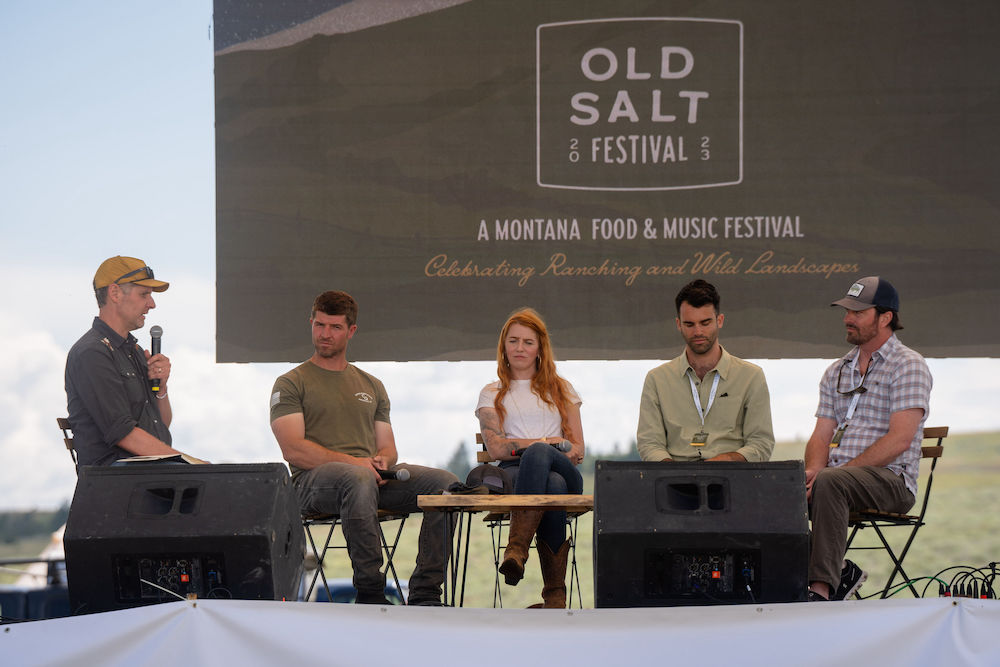
This is a special live episode that was recorded in late June 2023 at the first-ever Old Salt Festival, which was held on the Mannix Family Ranch in Helmville, Montana. The Old Salt Festival is a three-day celebration of ranching, land stewardship, and wild places that features live Western music, wood-fired cooking, products from some of the West’s most renowned artisans, readings and interviews with Western authors and poets, and in-depth discussions about conservation and land stewardship. The festival was a resounding success, so I’m thrilled to share one of the many conversations with you here.
The episode is a panel discussion titled Rebuilding a Resilient, Regional Meat Supply Chain, featuring several of the West’s leading voices in sustainable meat production and regenerative agriculture. In order of their appearance in the episode, you’ll hear from Cole Mannix, President of the Old Salt Co-op; Kate Kavanaugh, owner of Western Daughters Butcher Shoppe and host of the Mind, Body, and Soil Podcast; Dan Miller, Founder of Steward; and Wyatt Nelson, President of Wild West Local Foods. As you’ll hear, each panelist is deeply immersed in a different aspect of the meat production supply chain, and each of them brings a unique and wise perspective to the challenges facing producers and small businesses involved in meat production.
Many of you may already know, but the Old Salt Festival is a part of the Old Salt Co-op, a new, purpose-driven company that “provides meat raised with integrity from Montana landscapes its customers know and care about.” The Old Salt Co-op is working to rebuild the meat business in Montana, creating a sustainable business model that is beneficial to local ranchers, local consumers, and local economies– all while responsibly and effectively stewarding the lands that support agriculture. Rebuilding Montana’s meat supply chain is no small feat, but with smart, purpose-driven people like Cole, Kate, Dan, and Wyatt working to find solutions, I think you’ll be both inspired and encouraged.
To learn more about the Old Salt Co-op, you can go back to my first podcast conversion with Cole from February of 2023. And be on the lookout for another live Old Salt Festival episode, which I’ll be releasing on August 8, 2023– that one will feature a conversation with famed western author David James Duncan followed by a reading from his new novel Sun House.
A huge thanks to Cole and the Old Salt team for inviting me to the Festival, and a huge thanks to the Mannix Family for sharing their stunning ranch with all of us. Thanks to Cole, Kate, Dan, and Wyatt for sharing their wisdom. And last but definitely not least, thanks to the one and only, always hilarious and energetic Bex Frucht for the amazing intro. Hope you enjoy.
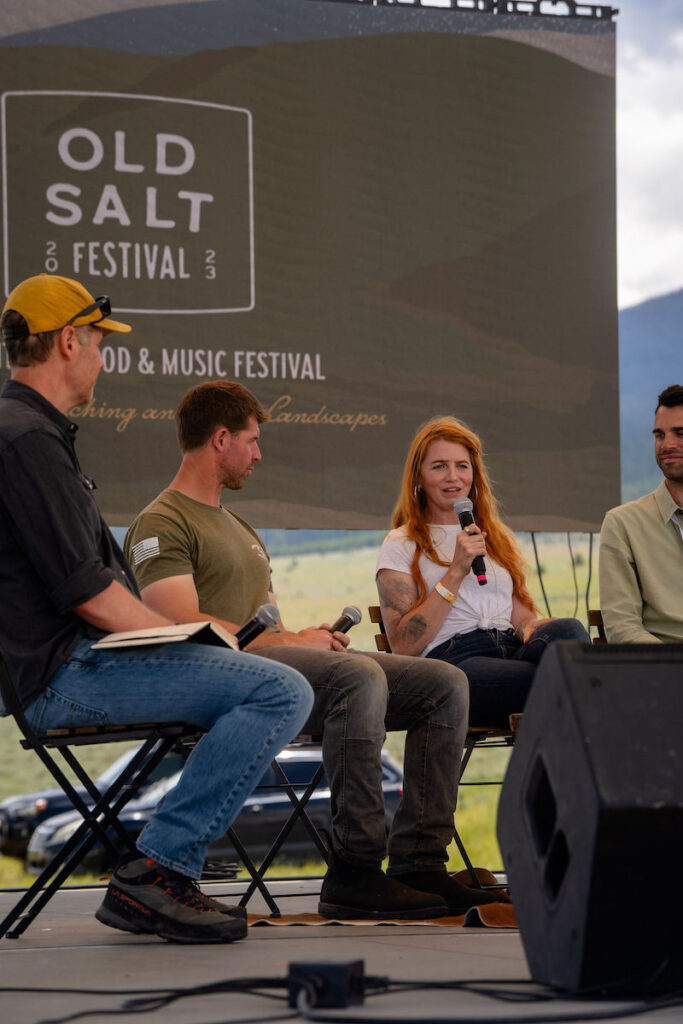
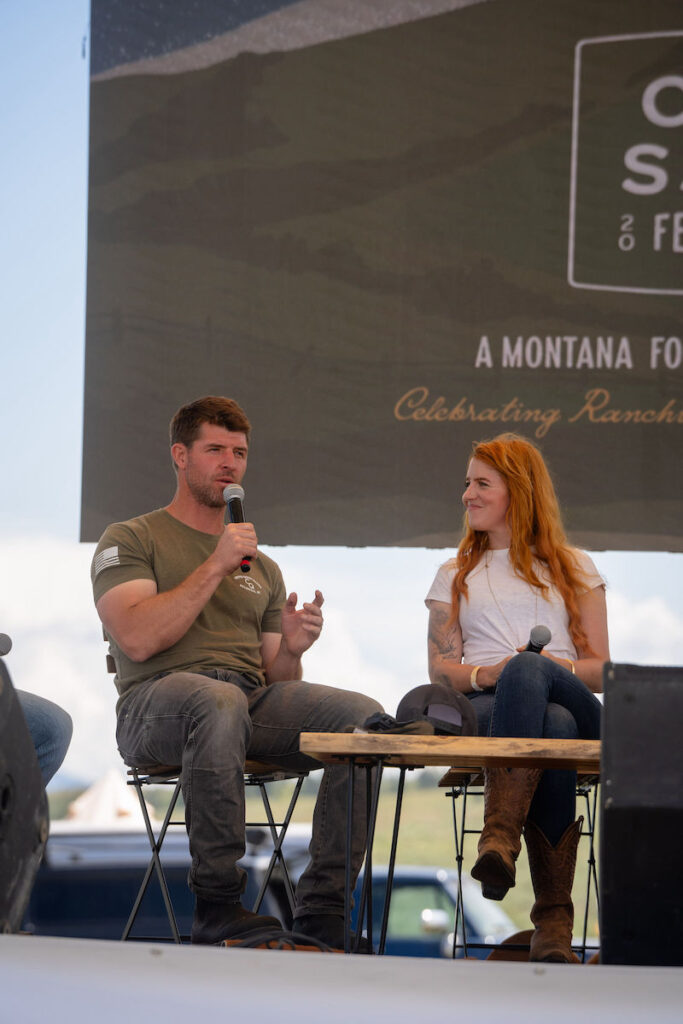
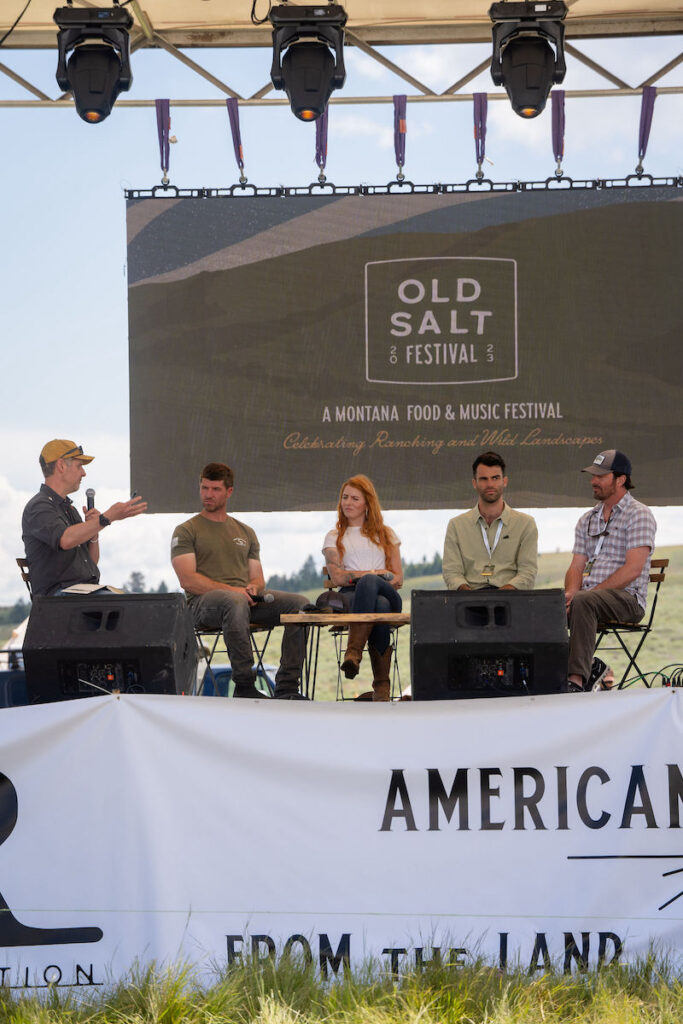
Photos by Anthony Pavkovich for the Old Salt Festival
LISTEN & DOWNLOAD:
Apple Podcasts
Spotify
Google Podcasts
... or wherever you get your podcasts!
—
RESOURCES:
Topics Discussed:
- 2:45 - Introductions
- 6:15 - The challenge and opportunity that Cole saw, leading to the development of Old Salt Co-op
- 9:00 - What Kate sees as major potential challenges for Old Salt Co-op going forward
- 12:15 - What attracted Dan to finance regenerative agriculture, especially given that industry’s tight margins
- 15:00 - Wyatt’s introduction, as well as the roadblocks that Wyatt sees to a more resilient food system from the distribution side of things
- 17:15 - How the panel members go about getting people’s attention
- 24:45 - The work Cole’s family and neighbors have done to protect the local landscape, as well as trends in young people getting involved with agriculture
- 32:15 - What Kate is seeing on the retail side of meat production, and how to address it
- 38:15 - What Old Salt Co-op is working on right now
- 41:15 - What we can do that would help build a resilient meat and food system
Information Referenced:
- Old Salt Festival
- Roadhouse
- Cole Mannix
- Mannix Family Ranch
- Old Salt Co-op
- Kate Kavanaugh
- Western Daughters Butcher Shop
- Mind, Body, and Soil Podcast
- Dan Miller
- Steward
- J-Bar-L Ranch
- LF Ranch
- Sieben Livestock Company
- Andrew Mace
- Ross Eickenbary
- Spike Gjerde
- Woodberry Kitchen
- Matt Skoglund
- Wyatt Nelson
- Helena, MT
- Chesapeake Bay
- Arkansas River
- David James Duncan
- Wes Jackson
Enjoy this episode? Then you might like these too:
- Jesse Griffiths – Humility, Curiosity, and Creative Cuisine
- Taylor Hawes – Innovative Conservation in the Colorado River Basin
- Cate Havstad-Casad, Part 2 – Building Businesses for the Greater Good
- Bryce Andrews, Part 2 – “Holding Fire”
- Chris Dombrowski, Part 2 – “The River You Touch”
- Amber Smith – Creating Connection & Community
- Kate Mannix – A Legacy of Land Stewardship
Visit the podcast page for a full, searchable list of episodes

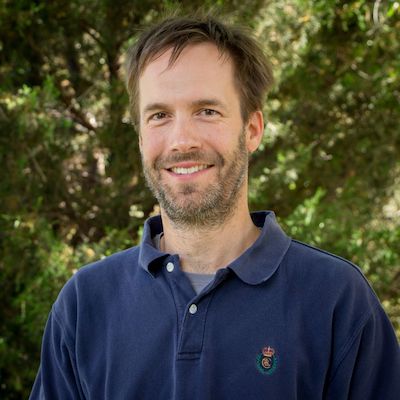
Rob Addington is the Director of the Forest and Fire Program with The Nature Conservancy in Colorado. He and his team are focused on increasing the pace and scale of forest restoration in Colorado to reduce hazardous fuels and promote landscape resilience to natural disturbances such as wildfire as well as climate change.
You don’t have to live in the West to know that the region has been battling ongoing drought, historically large and intense wildfires, and various forms of insect-induced forest devastation. Over the past few years here in Colorado, we’ve experienced some of the most destructive wildfires in recorded history, and the pine beetle infestation continues to be a source of serious and increasing concern. And Colorado is obviously not alone– there are similar stories of struggling forests throughout all of the Western states.
While the current conditions may be dire, you’ll be happy to know that Rob and his team at The Nature Conservancy are working extremely hard to find collaborative, creative, and effective solutions to the challenges facing our forests here in the West. By partnering with government agencies, Tribal nations, private landowners, various non-profits, and more, TNC has been leading and implementing some of the most innovative forest health work in the country– work that is creating more resilient, healthy landscapes across hundreds of thousands of acres.
For all the listeners who have been asking for a wildfire and forest health-focused episode, this one is for you. I met up with Rob at the TNC office in Boulder, and he was kind enough to educate me on both the big picture and finer details of all things forest health. You can check out the notes for a full list of everything we discussed, but a few of the topics include: The infamous 2020 wildfire season and the outlook for 2023, the history of land management and how that has affected wildfires, pine beetles, wildfire’s effects on water quality, how beavers can play a role in fire mitigation, some specific success stories, business solutions for forest health, the all-important focus on partnerships, post-fire land management strategies, good books, and much more. Be sure to visit the episode webpage for links to everything, including TNC’s exciting new Western Division Forest and Fire Initiative.
A huge thanks to Rob for taking the time to answer all my questions and another huge thanks to TNC for leading all of this important work. I hope you enjoy!
Headshot courtesy of The Nature Conservancy
LISTEN & DOWNLOAD:
Download on Apple Podcasts
Download on Spotify
Download on Google Podcasts
…or wherever you get your podcasts!
EPISODE PARTNER:

This episode is brought to you in partnership with the Colorado chapter of The Nature Conservancy. Guided by science and grounded by decades of collaborative partnerships, The Nature Conservancy has a long-standing legacy of achieving lasting results to create a world where nature and people thrive.
On the fourth Tuesday of every month throughout 2023, Mountain & Prairie will be delving into conversations with a wide range of The Nature Conservancy’s leaders, partners, collaborators, and stakeholders, highlighting the myriad of conservation challenges, opportunities, and solutions here in the American West. You can access all of the 2023 episodes here.
To learn more about The Nature Conservancy’s impactful work in Colorado and around the world, visit www.nature.org/colorado
RESOURCES:
Topics Discussed:
- 3:30 – Discussing the fire season of 2020
- 9:45 – The outlook for the fire season of 2023
- 12:00 – Discussing the variability in Colorado’s recent fire seasons
- 14:45 – The causes for Colorado’s changing fire seasons
- 17:30 – Exploring, specifically, the role of historic land management and how it impacts fire behavior
- 20:30 – Discussing pine beetles
- 26:00 – How the forest regime progresses in beetle-killed stands without fire, and how changing fire behavior is impacting the forest regime
- 32:00 – How fires impact water
- 39:15 – Discussing potential solution strategies for Colorado’s fire situation
- 42:00 – Discussing the importance of managing partnerships in this work
- 44:45 – A specific, fire-related project that Rob is happy about
- 47:15 – Exploring the potential of a for-profit business that is incentivized to thin out fire-prone forests
- 50:30 – Beavers’ role in wildfire prevention
- 54:30 – Rob’s favorite period of history to read about
- 56:30 – Management strategies for an area that has been wiped clean by fire
- 1:00:30 – Rob’s book recommendations
Information Referenced:
- Rob Addington
- Monsoon
- Cameron Peak Fire
- East Troublesome Fire
- Calwood Fire
- Grizzly Creek Fire
- Pine Gulch Fire
- Division of Fire Prevention and Control
- Hayman Fire
- High Park Fire
- Waldo Canyon Fire
- Black Forest Fire
- Ponderosa Pine
- The Big Burn by Timothy Egan
- Gifford Pinchot
- Ten o’clock Rule
- Lodgepole Pine
- Spruce-Fir forest
- Grand County, CO
- Winter Park
- Red Phase of beetle kill (and others)
- Forest Canopy Bulk Density
- Incident Management Teams
- Rocky Mountain Research Station
- Aspen trees
- Boulder, CO
- Taylor Hawes
- Buffalo Creek Fire
- Strontia Springs Reservoir
- Cheesman Reservoir
- Fort Collins, CO
- Cache La Poudre River
- Big Thompson River
- Bipartisan Infrastructure Act
- Inflation Reduction Act
- USFS Wildfire Crisis Strategy
- Upper Monument Creek Landscape Restoration Initiative
- South Platte River
- Northern Colorado Fireshed Collaborative
- Pike National Forest
- Jefferson County Open Space
- Denver Mountain Parks
- Conifer, CO
- Bailey, CO
- Biochar
- Mass timber/Cross-laminated timber
- Emily Fairfax
- Beaver dam analogs
- Eager by Ben Goldfarb
- Salt by Mark Kurlansky
- Cod by Mark Kurlansky
- Astoria by Peter Stark
- Peter Stark
- Oregon State University
- Katherine Schloegel
- Colorado Forest Restoration Institute
- Ecological Restoration Institute (NAU)
- Northern Arizona University
- Young Men and Fire by Norman Mclean
- Mann Gulch Tragedy
- Chief Left Hand by Margaret Coel
- Governor Evans
- Colonel Chivington
- Sand Creek Massacre
- Western Division Forest and Fire Initiative
Enjoy this episode? Then you might like these too:
- Russ Schnitzer – A Life Devoted to Western Landscapes
- Robert Krapfel – On Living A Purpose-Driven Life
- Mike Phillips – Audacious Goals, Relentless Action
- Daniela Ibarra-Howell – Healing the Land Holistically
- Shane Doyle – Reverence for the Past, Hope for the Future
- Land Tawney – Energetic & Optimistic
- Francesca Claverie – A Borderlands Conservation Success Story
- Taylor Hawes – Innovative Conservation in the Colorado River Basin
Visit the podcast page for a full list of episodes where you can filter episodes by topic and guests' vocations.

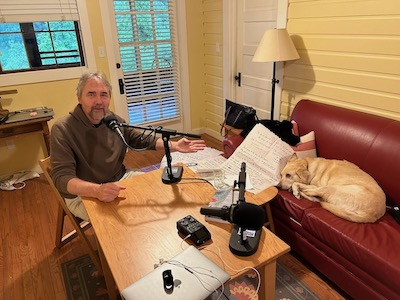
David Gessner is no stranger to Mountain & Prairie listeners– he’s joined me for many episodes and is the author of many of my favorite books, including All the Wild That Remains, Leave It As It Is, My Green Manifesto, and more. His newest book is A Traveler's Guide to the End of the World: Tales of Fire, Wind, and Water, which once again showcases David’s unique ability to combine humor, travel, and memoir in service of connecting the reader with the natural world.
A Traveler's Guide to the End of the World chronicles David’s journeys around the country, where he finds himself in the middle of an unsettling number of climate disasters– from historic forest fires in the American West to hurricanes on North Carolina’s Outer Banks. Eschewing the ubiquitous facts, figures, and policy debates that often dominate climate-focused books, David does what he does best: he tells stories. Specifically, he tells impactful, insightful stories from the front lines of the climate crisis– stories that will stick with the reader for years to come.
As has been our tradition for several years now, David and I met up in Boulder, Colorado, where he and his family visit each summer. We obviously talk a lot about the book, but as is the case whenever we get together, the conversation flows into many fun and unexpected topics. You can check out the episode notes for a full list of everything we discussed, but some of the topics include: David’s recent writing workshop at the Zapata Ranch with his friend, author Craig Childs, the importance of momentum and dailiness in writing, how David’s daughter was the influence for the new book, optimism vs pessimism when reporting current events, thoughts on death and loss, David’s good friend, the late Mark Spitzer, the next generation of conservation-minded writers, some book recommendations, the idea of being a “polygamist of place,” and much more.
I’m always happy to have the opportunity to sit down with David for a conversation, so I greatly appreciate his carving out the time. I hope you can check out A Traveler's Guide to the End of the World, and I hope you enjoy this episode.
Photos courtesy of David Gessner
LISTEN & DOWNLOAD:
Apple Podcasts
Spotify
Google Podcasts
... or wherever you get your podcasts!
—
RESOURCES:
Topics Discussed:
- 3:15 - David’s Zapata Ranch retreat
- 6:45 - Discussing the power of “dailiness”
- 7:45 - Whether or not teaching helped in David’s practice of writing
- 9:00 - How many books David has written in the past 18 months
- 10:30 - How David knows when an idea becomes a book in his mind
- 16:45 - David’s goal for A Traveler’s Guide to the End of the World, including how he balanced stories with statistics and humor with the weight of the subject
- 20:45 - Evaluating how the news of the West is reported
- 27:45 - What David means when he identifies as a “polygamist of place”
- 33:15 - David’s relationship with Mark Spitzer
- 39:30 - How David feels about entering a stage in life where his friends are beginning to pass away
- 43:45 - Discussing David’s daughter, climate change, and how they figure into A Traveler’s Guide
- 50:30 - David discussing the various tools he would like to use to face climate change
- 52:45 - Who David thinks will continue the work of the Doug Peacocks of the world
- 56:45 - Discussing the political alignment affiliated with climate change work
- 1:01:30 - David’s book recommendations
Information Referenced:
- A Traveler’s Guide to the End of the World by David Gessner
- Leave It As It Is: A Journey Through Theodore Roosevelt’s American Wilderness by David Gessner
- All the Wild That Remains by David Gessner
- Return of the Osprey by David Gessner
- The Tarball Chronicles by David Gessner
- Sick of Nature by David Gessner
- Chautauqua Park
- Zapata Ranch
- Craig Childs
- Andre Hamm
- Samuel Johnson
- Henry David Thoreau
- Jaimie Raskin
- Boulder, CO
- Ken Sleight
- Seldom Seen Smith
- The Monkey Wrench Gang by Edward Abbey
- Pack Creek Fire
- Pack Creek
- Quonset Hut
- Paradise, CA
- Flagstaff, AZ
- Bill McKibben
- The End of Nature by Bill McKibben
- The Ministry for the Future by Kim Stanley Robinson
- Winston Churchill
- Maya Angelou
- Yellowstone to Yukon Conservation Initiative
- Leadville, CO
- Wallace Stegner
- Ryan Lambert
- Ducks Unlimited
- Tarboro, NC
- Morehead City, NC
- Atlantic Beach, NC
- Wendell Berry
- Cape Cod
- Worcester, MA
- University of North Carolina Wilmington
- Wilmington, NC
- Bears Ears National Monument
- Mark Spitzer
- Monster Fishing by Mark Spitzer
- Lea Graham
- Tom Wolfe
- Beatnik
- The New Yorker
- Shakespeare and Company
- Gar
- Brad Watson
- Phillip Gerard
- John Denver
- Rocky Mountain High by John Denver
- Annie’s Song by John Denver
- Mt. Pinatubo
- Orrin Pilkey
- Hurricane Florence
- Hurricane Dorian
- Mancos, CO
- Durango, CO
- Doug Peacock
- Gary Snyder
- Orion Magazine
- Camille Dungy
- Drew Lanham
- Ed's interview with Dr. Drew Lanham
- Joe Wilkins
- Orion Magazine’s 2023 Environmental Writers’ Workshop
- Ginger Strand
- Kathryn Miles
- Zack Podmore
- Salt Lake Tribune
- San Juan County, UT
- ZZ Top
- Katherine Hayhoe
- Lancet Study of youth climate anxiety across the world
- Vernal, UT
- The Overstory by Richard Powers
- Braiding Sweetgrass by Robin Wall Kimmerer
- True West by Betsy Gaines Quammen
- Bernard DeVoto
- Nate Schweber
Enjoy this episode? Then you might like these too:
- Betsy Gaines Quammen – A Fascinating History of Public Lands in the West
- Nate Schweber – A Forgotten Chapter of American Conservation
- Douglas Brinkley – Exploring the Past to Find Inspiration for the Future
- Taylor Hawes – Innovative Conservation in the Colorado River Basin
- Doug Peacock – 50 Years of Fighting for the Grizzlies
- Ryan Busse – Standing His Ground
Visit the podcast page for a full, searchable list of episodes

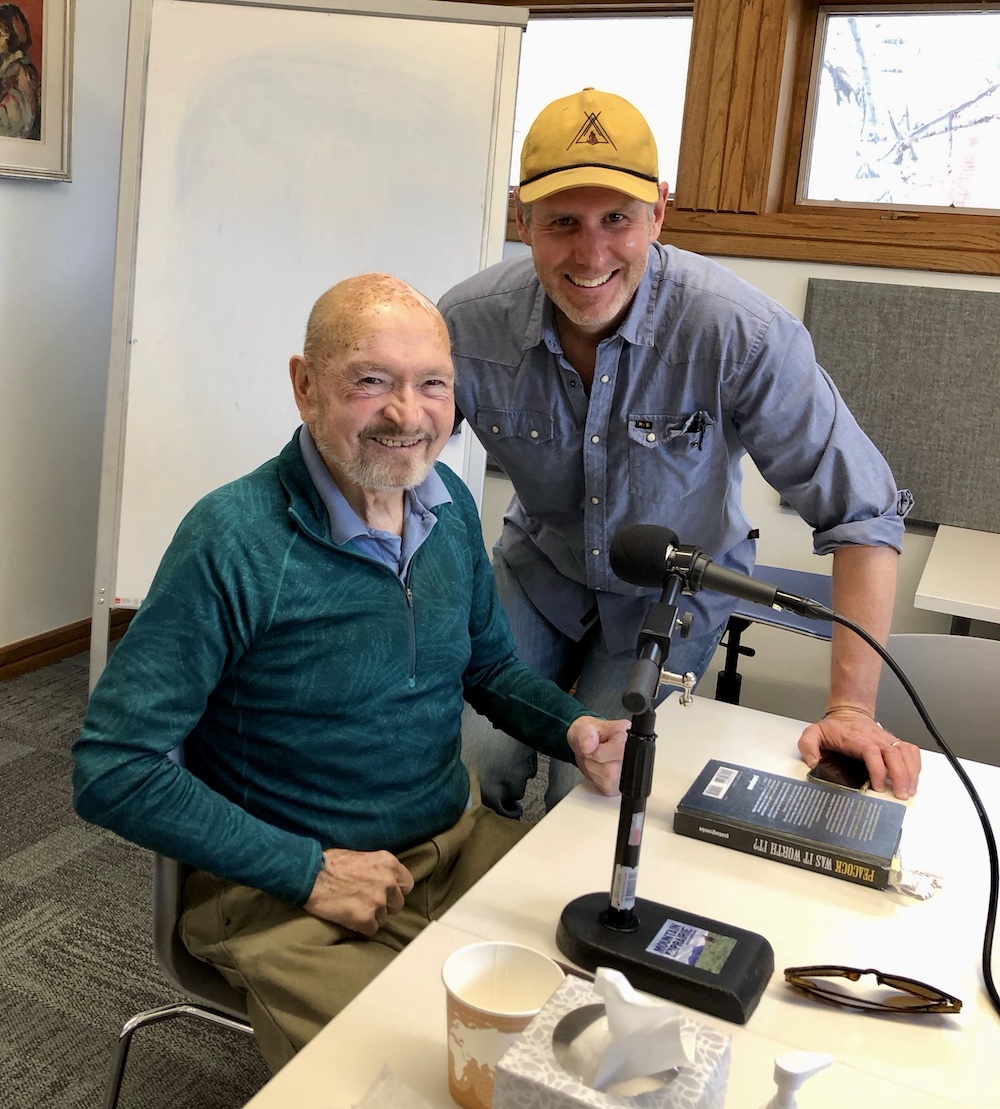
Doug Peacock is a legendary environmentalist, writer, filmmaker, and grizzly bear advocate. He’s the co-founder of two conversation nonprofits– Round River Conservation Studies and Save the Yellowstone Grizzly. Doug was also the inspiration for the character George Washington Hayduke in his friend Edward Abbey’s classic novel The Monkey Wrench Gang. And to top it all off, he is the author of many classic books, including Grizzly Years: In Search of the American Wilderness and his most recent award-winning book Was it Worth It? A Wilderness Warrior’s Long Trail Home, published by Patagonia Books.
Doug was born and raised in Michigan, where he grew up obsessed with nature and the outdoors. As a young man, he was drafted into the Vietnam War, where he served as a Green Beret combat medic, an experience that placed him squarely in the middle of devastating violence toward his fellow soldiers, as well as civilian men, women, and children. In 1968, he returned home from Vietnam spiritually broken, mentally unwell, and physically debilitated with malaria. Not knowing where to turn, he headed deep into the wilderness of Yellowstone National Park by himself, where he formed an unlikely bond with the Yellowstone Grizzly Bear. Eventually, he recovered both physically and mentally and, to this day, he credits the grizzly with saving his life. He has spent the last half-century repaying his debt to the grizzly bear, aggressively fighting for their protection and recovery in the Greater Yellowstone Ecosystem and beyond.
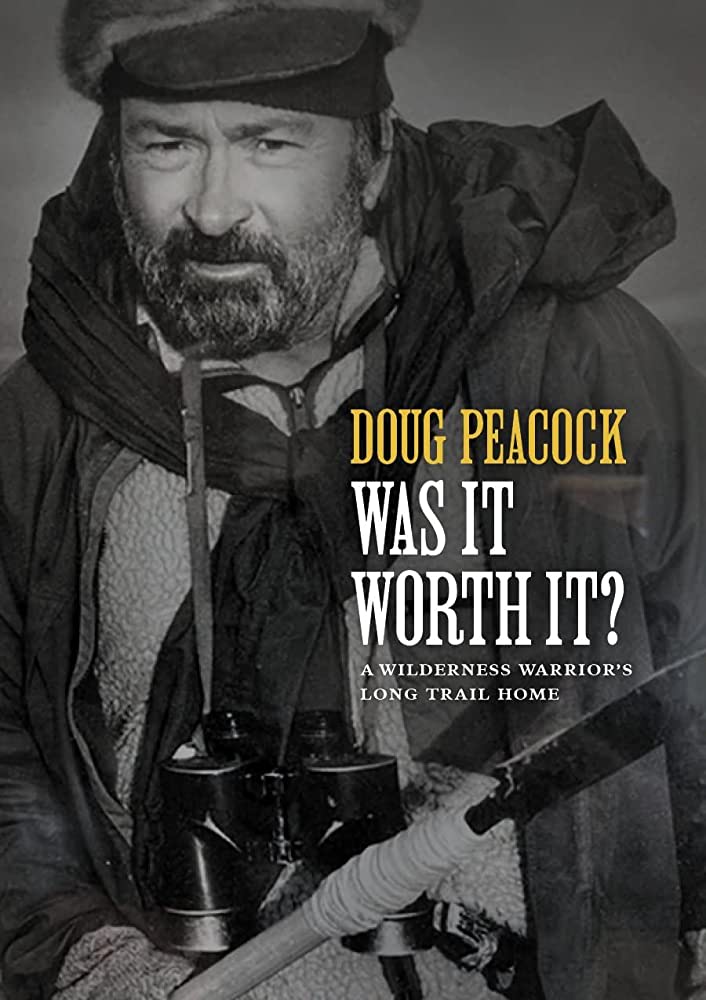
I met up with Doug in Aspen, Colorado, where he was in town for a reading of Was it Worth It? at Aspen’s only bookstore, Explore Booksellers. Even though I could’ve talked with Doug for many hours, we managed to jam a lot of stories into this conversation. Some of the topics we discussed include: Why Doug does not carry a gun in grizzly country; why it is important for humans to love and protect a creature as powerful, even dangerous, as a grizzly; his friendships with Edward Abbey, Yvon Chouinard, Jim Harrison, and others, and how each of those high-voltage personalities helped to elevate the others; the death and secret burial of Edward Abbey; why climate changes is such a threat to grizzlies, the challenges and financial realities of a life dedicated to environmental advocacy; his greatest source of pride and greatest disappointment; what is giving him hope now; and Doug reads several passages from Was It Worth It?
Today, at age 81, you can still feel the fire in Doug’s spirit and his passion for grizzlies is palpable. I was honored to have the opportunity to chat with Doug, and I loved his book Was it Worth It? I hope you enjoy this conversation as much as I did.
Photos courtesy of Doug Peacock and Patagonia Books
LISTEN & DOWNLOAD:
Apple Podcasts
Spotify
Google Podcasts
... or wherever you get your podcasts!
—
RESOURCES:
Topics Discussed:
- 4:10 - Discussing the picture on the front of Doug’s book
- 6:25 - When Doug decided it wasn’t fair to be in grizzly country with guns
- 8:40 - How Yellowstone became a part of Doug’s life
- 10:55 - How grizzlies provided a much-needed community for Doug after his time at war
- 12:40 - How long it took for Doug to find peace in grizzly country after Vietnam
- 15:10 - Exploring Doug’s balance between telling the good stories and being willing to fight for conservation
- 18:10 - Why specifically it is so important for humans to learn to love and protect a creature as powerful, even dangerous, as a grizzly
- 19:40 - How Doug’s friends made him a better conservationist
- 21:40 - How Doug’s friends balance their very strong personalities
- 22:40 - The importance of ceremony and how Doug handled the passing of his dear friend, Ed Abbey
- 28:40 - Whether or not parenthood changed Doug’s outlook on risk and death
- 30:10 - Who or where Doug drew his motivation from
- 32:10 - How Doug managed his lifestyle
- 33:40 - What keeps Doug awake at night, as it pertains to grizzlies
- 36:40 - How Doug became interested in fighting climate change by way of grizzlies
- 39:30 - Where Doug would focus his energy if he were starting his career in conservation now
- 40:25 - Whether or not Doug is an optimist
- 43:40 - What work Doug is most proud of in his life, and where he thinks he may have fallen short
- 46:00 - Doug’s friendship with Jim Harrison
- 47:10 - What gives Doug hope
- 48:40 - Doug’s mandatory reading
Information Referenced:
- Doug Peacock
- Was it Worth It? by Doug Peacock
- Grizzly Years by Doug Peacock
- Doug Thompkins
- Somerset Island
- Beluga Whale
- Narwhal
- Tet Offensive
- NVA - Northern Vietnamese Army
- Viet Cong
- Lodgepole pine
- Edward Abbey
- Hayduke
- The Monkey Wrench Gang by Edward Abbey
- Sebastian Junger
- The Perfect Storm by Sebastian Junger
- Tribe by Sebastian Junger
- Mandan
- Tom Brokaw
- Federal Wildlife Service (US Fish and Wildlife)
- Terry Tempest Williams
- Jim Harrison
- Rick Ridgeway
- Peter Matthiessen
- Bordeaux
- Yvon Chouinard
- Yvon Chouinard giving away Patagonia
- Jack Loeffler
- Jeb Ellisan
- Umba River
- On the Trail of the Siberian Tiger with the Do-Boys by Doug Peacock
- Mesquite
- My Lai Massacre
- Zuni
- Haida Gwaii (Queen Charlotte Islands)
- Turkey vulture
- Round River Conservation Studies
- Save the Yellowstone Grizzly
- “Peacock’s War” by Doug Peacock
- Guggenheim grant
- Lannan Foundation
- Patagonia
- Tetonia, ID
- Mountain Journal Article about Doug’s suite against the government
- Cannes Film Festival
- The Beast of Our Time
- Jeff Bridges
- Bill Payne
- Lance Craighead
- Whitebark Pine
- Thomas Banyacya
- San Juan Mountains
- Doug Sues
- Video of Doug Peacock’s tribute to Jim Harrison
- Legends of the Fall by Jim Harrison
- Dalva by Jim Harrison
- Tom McGuane
- Hunter S. Thompson
- Desert Solitaire by Edward Abbey
- Arctic Dreams by Barry Lopez
- Silent Spring by Rachel Carson
- Dr. Drew Lanham
- Ed's interview with Dr. Drew Lanham
Enjoy this episode? Then you might like these too:
- Rick Ridgeway – Purpose-Driven Adventurer
- Francesca Claverie – A Borderlands Conservation Success Story
- Mike McTee & Vince Slabe – Win-Win Solutions in the Fight to Save Eagles
- Pete McBride, Part 2: In Search of Silence
- Shane Doyle – Reverence for the Past, Hope for the Future
- Chris Burkard – The Art of Suffering
- Jason Gardner – A Life of Purpose & Service
- Iris Gardner – Living with Intention
- Hal Herring – A Man of Words & Wild Places
Visit the podcast page for a full, searchable list of episodes


Chris Hawkins is the Colorado Urban Conservation Manager for The Nature Conservancy, where he leads the organization’s efforts in Denver to “solve global challenges like the biodiversity and climate emergencies by supporting and creating more sustainable, efficient ways of living.”
When many people think of The Nature Conservancy, they may envision large-scale conservation efforts across vast grasslands and wild landscapes– but TNC also conducts some of its most innovative conservation work in cities— work that leads to more resilient, healthy, and equitable communities. Chris’s work in Denver is a shining example of how nature-based solutions in densely populated urban areas can have positive ripple effects far beyond the city limits.
Chris was born and raised on the east coast, attended college in Boston, and from the very beginning of his career, he’s been focused on service and causes greater than himself. He’s worked as a Corps Member of AmericaCorps, as Chief of Staff in New York City’s Department of Environmental Protection, and for the past nine years, he’s been with the Nature Conservancy. As you’ll hear in this conversation, Chris’s diverse professional experiences have allowed him to bring a unique and effective perspective to the complex world of urban conservation.
Chris was nice enough to join me at my dining room table for an engaging and educational conversation about all things urban conservation. We started out by discussing why TNC has chosen to devote its resources and expertise to conservation in cities, and he explains the unique challenges facing cities in the West. We discuss how public health is directly related to people’s access to nature, and how the simple-but-not-easy strategy of planting trees in neighborhoods can have huge conservation and public health benefits. As is the case with all of my conservation-related conversations, we discuss the critical importance of relationships, and how Chris has managed to build relationships with a diverse group of Denver residents. We also discuss his professional trajectory, the importance of exporting urban conservation ideas to other cities, and the critical roles of mayors and local leadership. And finally, Chris is a serious history buff, so we have a great discussion about books.
There is so much fascinating information packed into this episode, and I greatly appreciate Chris’s taking the time to share his wisdom with the Mountain & Prairie community. Check out the episode notes below for links to everything we discuss. I hope you enjoy this conversation as much as I did.
Photos courtesy of Chris Hawkins and The Nature Conservancy
LISTEN & DOWNLOAD:
Download on Apple Podcasts
Download on Spotify
Download on Google Podcasts
…or wherever you get your podcasts!
EPISODE PARTNER:

This episode is brought to you in partnership with the Colorado chapter of The Nature Conservancy. Guided by science and grounded by decades of collaborative partnerships, The Nature Conservancy has a long-standing legacy of achieving lasting results to create a world where nature and people thrive.
On the fourth Tuesday of every month throughout 2023, Mountain & Prairie will be delving into conversations with a wide range of The Nature Conservancy’s leaders, partners, collaborators, and stakeholders, highlighting the myriad of conservation challenges, opportunities, and solutions here in the American West. You can access all of the 2023 episodes here.
To learn more about The Nature Conservancy’s impactful work in Colorado and around the world, visit www.nature.org/colorado
RESOURCES:
Topics Discussed:
- 3:45 - Why do Chris and TNC work in cities
- 7:00 - Thriving cities in the West and the unique challenges they present
- 9:30 - Whether or not the health benefits of the outdoors have become a larger part of Chris’s work recently
- 15:30 - Discussing trees
- 27:45 - How Chris builds relationships in his work in cities
- 33:45 - Specific strategies Chris uses to build trust
- 38:30 - Where Chris grew up and why he became involved in this work
- 43:30 - Discussing the work of city mayors
- 53:00- How ideas that are exported or imported between cities show up in Chris’s work in Denver
- 1:00:15 - Chris’s book recommendations
Information Referenced:
- Chris Hawkins
- Jaime González
- The Nature Conservancy
- The Nature Conservancy in Colorado
- TNC Cities program in Denver
- Global Cities Program, TNC
- The Nature Conservancy in Kentucky
- The Nature Fix by Florence Williams
- Last Child in the Woods by Richard Louv
- Melissa McHale
- Globeville, Denver
- Elyria-Swansea, Denver
- Office of Climate Action, Sustainability, and Resiliency, Denver, CO
- Carlos Fernández
- Matt Moorhead and Galen Guerro-Murphy
- Dr. Katherine Hayhoe
- Americorps
- Cape Cod
- John Hickenlooper
- Congestion pricing in London
- Yemi Mobolade
- New York Office of Charter Schools
- New York City Office of Sustainability
- New York City Water Board
- Rain garden map of New York City
- Trust for Public Land
- Colorado Cattlemen’s Association
- Green roof ordinance in Denver
- The Power Broker by Robert A. Caro
- Robert Moses
- Grant by Ron Chernow
- Ulysses S. Grant
- Frederick Douglass: Prophet of Freedom by David W. Blight
Enjoy this episode? Then you might like these too:
- Equitable Access to the Outdoors in Texas
- Cole Mannix – Building Community through Land Stewardship and Local Food
- Carlos Fernández, Part 2 – Creating Conservation Opportunities During Uncertain Times
- Douglas Brinkley – Exploring the Past to Find Inspiration for the Future
- Amber Smith – Creating Connection & Community
- Land Tawney – Energetic & Optimistic
- Betsy Gaines Quammen – A Fascinating History of Public Lands in the West
Visit the podcast page for a full list of episodes where you can filter episodes by topic and guests' vocations.

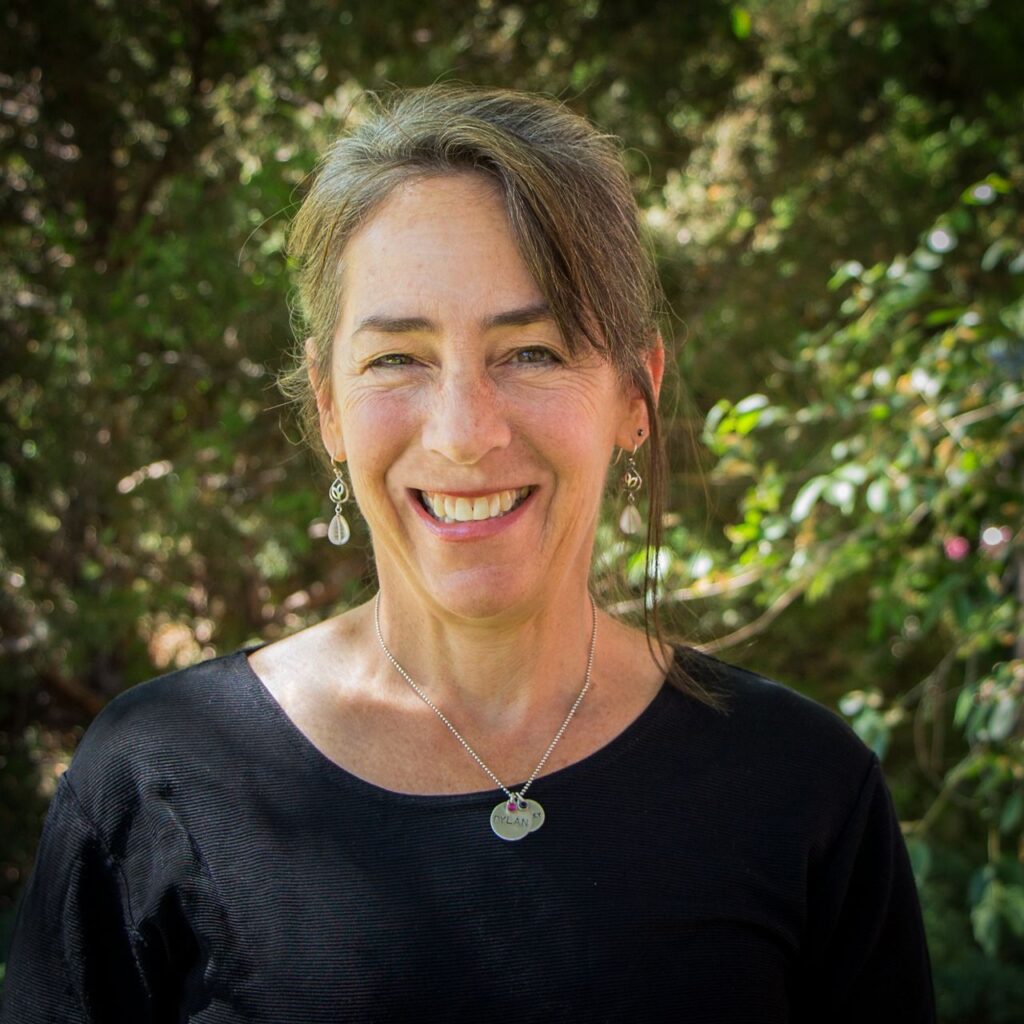
Back in September of 2022, I held the first annual Strenuous Life Retreat at the renowned Zapata Ranch in Colorado’s San Luis Valley. The retreat consisted of five days of adventure and education inspired by Theodore Roosevelt’s well-known commitment to living “the Strenuous Life.” We hiked high into the Sangre de Cristo Mountains, rode horses in Great Sand Dunes National Park, and enjoyed world-class meals. And each afternoon, we enjoyed facilitated conversations about land stewardship, conservation, and regenerative agriculture. This episode is a recording of one of those conversations.
I was honored to be joined by conservation veteran Nancy Fishbein, who serves as Director of Resilient Lands for the Colorado Chapter of The Nature Conservancy. Nancy has been a long-standing leader in the Western conservation community, so we were all honored that she took time out of her full schedule to join us and share some stories and hard-earned wisdom. The Zapata Ranch is owned by the Nature Conservancy and managed by Ranchlands, so Nancy has a unique insight into the history of the ranch, as well as the importance of conservation in the San Luis Valley.
We recorded this conversation at the ranch’s education center, one afternoon after a morning of horseback riding. The first half consists of me asking the questions, and the second half consists of questions from the retreat participants. We cover everything from the history of the Zapata Ranch to the establishment of Great Sand Dunes National Park, which adjoins the ranch to the north. We talk about the conservation bison herd that calls the ranch home, and some of the ongoing challenges in the San Luis Valley created by water speculation and development. We discuss how mineral rights development can coexist with conservation, the protection of biodiversity on ranches, how TNC and the National Park Service work together, and much more. As you’ll hear, everyone in attendance was super engaged and curious about Nancy’s work, and it showed in the range of interesting and thoughtful questions.
I hope this episode will give you a bit of insight into the types of conversations we had at the 2022 Retreat and the kind of conversations you can expect in 2023 and beyond. Colorado is blessed to have so many committed conservationists like Nancy who devote their time and energy to protecting and stewarding these spectacular landscapes, and I can’t thank Nancy enough for taking the time to join us.
If you’re interested in joining me for the 2023 Retreat, as of this recording there are still a few spots left. Follow this link to learn more and reserve your spot. Thanks for listening, and I hope you enjoy!
Header photo by Ranchlands, Nancy's headshot by The Nature Conservancy.
LISTEN & DOWNLOAD:
Apple Podcasts
Spotify
Google Podcasts
... or wherever you get your podcasts!
—
RESOURCES:
Topics Discussed:
- 3:30 - A quick intro to Nancy
- 5:30 - The story of the Education Center on Zapata Ranch
- 7:00 - How Zapata Ranch first got onto TNC’s radar
- 10:00 - How TNC goes about acquiring properties like Zapata Ranch
- 12:15 - Why the previous owner of Zapata Ranch did not charge TNC full fair market value for the property
- 13:30 - The importance of relationships in TNC’s work
- 15:30 - What happened after TNC acquired Zapata Ranch
- 18:15 - Explaining a conservation easement
- 20:00 - Why the bison herd on Zapata Ranch were such a focal point of TNC’s conservation work there
- 22:15 - Why TNC has chosen to hold onto Zapata Ranch as an owner for so long
- 25:45 - How TNC works with various levels of government agencies
- 27:30 - Nancy’s biggest concern for the San Luis Valley
- 29:00 - The most recent scheme to remove water from the San Luis Valley
- 31:45 - Audience questions begin
- 32:00 - Whether or not Nancy wished that TNC had done something different in their acquisition of Zapata Ranch
- 32:45 - Nancy’s surprises and lessons learned about Zapata
- 34:30 - Why an easement cannot be put on San Luis Valley’s aquifer
- 36:15 - TNC’s role in the establishment of Baca Wildlife Refuge and the Great Sand Dunes National Park
- 40:45 - The distinction between a national park and national monument
- 41:30 - How the TNC navigated purchasing land that was managed by a private company (Rocky Mountain Bison) but on leased state land
- 42:30 - Exploring the potential causality between water export schemes in the San Luis Valley and the establishment of the Great Sand Dunes National Park
- 44:00 - Whether or not there remains the appetite for bipartisan action, such as the kind that led to the creation of the Great Sand Dunes National Park, in our current political climate
- 45:00 - Exploring TNC’s support of agriculture as a conservation service
- 43:30 - Whether or not TNC deals with agricultural leases
- 51:30 - How easements impact mineral and mining rights on a property
- 53:30 - How fracking might complicate conservation easements, and whether or not easements are a successful tool for reducing oil and gas development
- 55:45 - How TNC measures success in its conservation work and the preservation of biodiversity on a property, and ow they respond to and act on those measurements
- 1:00:55 - What TNC is working on right now in Colorado
Information Referenced:
- Nancy Fishbein
- The Nature Conservancy, Colorado
- Ranchlands
- San Luis Valley
- World Wildlife Fund
- Zapata Ranch
- Rocky Mountain Bison Company
- JE Canyon Ranch
- La Garita Creek Ranch
- Meshak Lakes Preserve
- David Cooper
- Colorado Parks and Wildlife
- Great Outdoors Colorado
- Chris Castilian
- Matt Moorhead
- Palmer Land Conservancy
- Colorado State Land Board
- Conservation easement
- Sangre de Cristo Mountains
- Great Sand Dunes National Park
- La Garita Wilderness
- Baca National Wildlife Refuge
- Blanca Wetlands
- Louis Bacon
- Bureau of Land Management
- Colorado Open Lands
- Confined and unconfined aquifers
- Closed Basin Project
- AWDI water export scheme
- Spanish Land Grants
- Treaty of Guadalupe Hidalgo
- Senator Wayne Allard
- Senator Ben Nighthorse Campbell
- Scott McInnis
- Bruce Babbitt
- Ken Salazar
- Great Sand Dunes National Park and Preserve Act of 2000
- National Park Service
- Row crop agriculture
- Colorado Cattlemen's Association
- American Farmland Trust
- Golden Eagle episode - Mike McTee and Vince Slabe
- Southern High Plains Initiative
- Trinidad, CO
- Purgatoire River
- Shortgrass Prairie
- Virtual livestock fencing
Enjoy this episode? Then you might like these too:
- Matt Moorhead & Galen Guerrero-Murphy – Grasslands Conservation on the Southern High Plains
- Douglas Brinkley – Exploring the Past to Find Inspiration for the Future
- Frances Ashforth – Art, Water, and Wide-Open Spaces
- Nate Schweber – A Forgotten Chapter of American Conservation
- Pete McBride, Part 2: In Search of Silence
- Rick Ridgeway – Purpose-Driven Adventurer
- Betsy Gaines Quammen – A Fascinating History of Public Lands in the West
Visit the podcast page for a full, searchable list of episodes


Jesse Griffiths is an Austin-based chef, author, hunter, and fisherman, and he’s also the co-owner of Dai Due Butcher Shop & Supper Club and the New School of Traditional Cookery. Jesse’s work has been featured everywhere from The New York Times to the Joe Rogan Experience, and he’s a regular contributor to Steven Rinella’s MeatEater. As an author, Jesse has received great praise for his two books, the James Beard Award-finalist cookbook, Afield: A Chef’s Guide to Preparing and Cooking Wild Game and Fish, as well as his most recent title, The Hog Book: A Chef’s Guide to Hunting, Preparing, and Cooking Wild Pigs.
Born and raised in Denton, Texas, Jesse grew up obsessed with fishing– he loved catching the fish, but he also loved cooking and eating them. As a teenager, he started working in restaurants and became more and more interested in cooking– an interest that he pursued full-time after graduating from high school. Propelled by a deep curiosity and a desire to broaden his perspective, he would save up his money and then travel, studying food and cooking in a wide variety of cultures around the world. Eventually, Jesse combined all of his unique personal and professional experiences and opened his own restaurant, Dia Due, which features food that is “produced in a fair and equitable way, represent(s) local culinary traditions, and support(s) farmers and ranchers who are striving to improve the quality of our food.”
I’ve been a fan of Jesse’s work for many years, so I was thrilled when we were introduced by a mutual friend. Over the course of our hour together, we covered a lot, include: Jesse’s upbringing in Texas and his early days in cooking, the importance of international travel, the challenges of getting Dai Due off the ground, the importance of humility and curiosity, a deep dive into wild hogs in Texas, his approach to writing, Jesse’s recent obsession with wild turkeys, and, of course, Jesse offers a ton of great book recommendations.
I loved this conversation and was blown away by Jesse’s kindness and humility. I really appreciate his taking the time to chat with me, and I know you’ll learn a lot from Jesse’s fascinating life story. Enjoy!
Photos by Jody Horton for The Hog Book
LISTEN & DOWNLOAD:
Apple Podcasts
Spotify
Google Podcasts
... or wherever you get your podcasts!
—
RESOURCES:
Topics Discussed:
- 3:15 - Jesse’s upbringing
- 7:30 - How Jesse got involved in cooking
- 12:15 - When Jesse first left the USA
- 13:30 - The importance of international travel
- 16:45 - Jesse’s mentors
- 24:15 - Getting Dai Due started
- 27:15 - How Jesse learned to be a manager
- 31:15 - The source of Jesse’s humility
- 36:15 - Jesse’s work with Texas wild hogs
- 50:15 - Jesse’s ethos in writing
- 51:30 - Jesse’s recent work with turkeys
- 1:01:15 - Jesse’s book recommendations
Information Referenced:
- Jesse Griffiths
- Dai Due
- New School of Traditional Cookery
- Texas Chapter of the Wildlife Society
- The Hog Book by Jesse Griffiths
- Afield by Jesse Griffiths
- Ed’s live event in Texas
- Romey Swanson
- Ed’s first elk hunt
- Dallas- Fort Worth metroplex
- Denton, TX
- Crappie
- Hanger Steak
- Venice
- Radicchio
- Dai Due on Bon Appetit
- Jesse on Joe Rogan
- Texas wild hogs
- Kevin Harlander
- First Lite
- National Wild Turkey Federation
- Ben O’Brien
- White-tailed deer
- Dove hunting in Texas
- White Bass
- The River Cottage Meat Book by Hugh Fearnley-Whittingstall
- Emeril Lagasse
- Julia Child
- American Sfoglino by Evan Funke
- Nate Schweber
- This America of Ours by Nate Schweber
- Bernard DeVoto
- Avis DeVoto
- Olympia Provisions by Elias Cairo
Enjoy this episode? Then you might like these too:
- Cole Mannix – Building Community through Land Stewardship and Local Food
- Land Tawney – Energetic & Optimistic
- Dylan Tomine – Protecting What He Loves
- Alvin Dedeaux – Living His Dream
- Reflections On My First Elk Hunt, with Adam Gall
- Hal Herring – A Man of Words & Wild Places
- Mark Kenyon – A Passion for Public Lands
- Kate Kavanaugh – Regeneration & Restoration
Visit the podcast page for a full, searchable list of episodes

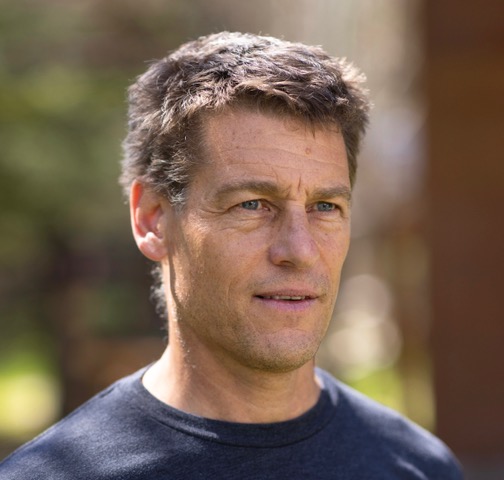
Photo: David Stubbs
For today’s conversation, I was thrilled to chat once again with Christian Beckwith, a Jackson, Wyoming-based writer, historian, conservationist, and entrepreneur. Christian’s latest project is “Ninety-Pound Rucksack: A podcast about the US Army's 10th Mountain Division and the dawn of outdoor recreation in America.”
If you enjoy spending time up high in the mountains here in the American West, then you’ve surely heard at least a passing mention of the 10th Mountain Division. It’s nearly impossible to travel up and down the I-70 corridor here in Colorado without seeing a few references to the 10th. But if you’re like me, you probably do not have a sufficient appreciation for the exciting story of how and why the division was formed, and how its creation set the trajectory for climbing, skiing, and recreational outdoor adventure for decades to come.
Whether you’re a climber, skier, or simply a history buff who enjoys diving into untold stories from pivotal moments in our past, then I highly recommend Ninety-Pound Rucksack. The podcast starts out exploring the 1939 Russian invasion of Finland, and how, despite being outmatched on nearly every level, the Fins were able to put up a heroic fight thanks to their ability to efficiently maneuver through cold, snowy, rugged terrain on skis. The story then shifts to America, where a small group of young mountaineers and skiers recognized the importance of mountain warfare and began to lobby the government to focus on this unconventional approach to battle. I won’t give any more details away, but the podcast is just the kind of history I love: big adventures, one-of-a-kind characters, and people driven by causes larger than themselves.
To learn more about Christian’s personal background, I’d encourage you to go back and listen to our first conversation from many years ago. Because in this one, we talk all history, all the time– from the backstory of the 10th, to the adventurous young men who dreamed it up, to how that time period affects us still today. Toward the end of the conversation, Christian offers up some valuable wisdom on the need to be tenacious in all creative and entrepreneurial endeavors, and he also has some really great book recommendations.
Follow the links in the episode notes to listen to Ninety-Pound Rucksack, and please pass the podcast along to any of your history-loving friends. A big thanks to Christian for working so hard to create this podcast and for joining me for another conversation. Hope you enjoy!
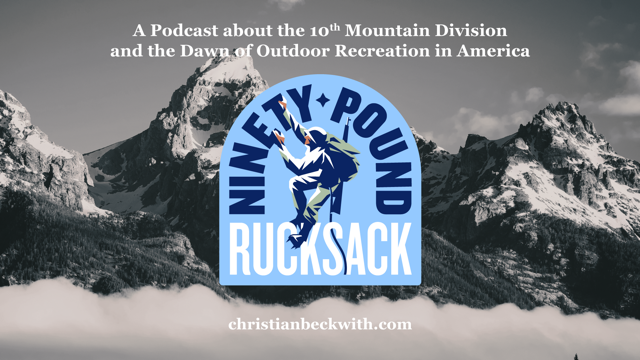
Headshot by David Stubbs
LISTEN & DOWNLOAD:
Apple Podcasts
Spotify
Google Podcasts
... or wherever you get your podcasts!
—
RESOURCES:
Topics Discussed:
- 3:15 - An overview of Christan’s background
- 13:15 - How the 10th Mountain Division was established
- 26:15 - How the 10th Mountain Division impacted the development of skiing in the US
- 32:15 - How digging into the history of the 10th impacted Christian’s thinking about the present
- 40:45 - Discussing Christian’s code switch from adventure writing to engaging history writing
- 45:15 - The podcast’s advisory council
- 50:15 - Christian’s advice for people who have an idea but feel they are not qualified to pursue it
- 54:45 - Discussing Christian’s tenacity
- 57:00 - What can we do to help get the word out about Christian’s work
- 1:00:00 - Christian’s book recommendations
Information Referenced:
- Christian Beckwith
- Chrsitan’s podcast, Ninety-Pound Rucksack
- Teton Range
- Yvon Chouinard
- Teton Boulder Park
- Snow King Mountain
- Jackson, WY
- Teton Climbers’ Coalition
- Climbing Area Modernization Project
- Joe Stettner
- Paul Stetner
- 10th Mountain Division
- Riva Ridge Operation
- Gothic Line
- John A. McCown II
- Grove McCown
- Camp Hale
- Russian invasion of Finland, the Winter War
- Charles Minot “Minnie” Dole
- National Ski Patrol System
- Roger Langley
- National Ski Association
- Alec Bright
- Robert Livermoore
- Bromley Mountain
- Champlain Valley
- US War Department
- American Alpine Club
- American Alpine Journal
- The American Alpine Journal 1946 edition
- H. Adams Carter
- Bob Bates
- Harvard Mountaineering Club
- Yukon
- Himalya
- General George C. Marshall
- Henry Stimson
- Dolomites
- Julian Alps
- Johann “Hannes” Schneider
- Arlberg technique
- Boston and Maine Ski Train
- Downhill ski racing
- Slalom ski racing
- Appalachian Mountain Club
- The Mountaineers
- Mazamas
- Colorado Mountain Club
- Molotov Cocktail
- Leslie McNair
- Henry Ford
- Narvik, Norway
- Narvik Netflix show
- Albania
- Italy’s invasion of Greece, the Greco-Italian War
- Rolf Monsen
- Harald Sorensen
- Hampton Sides
- Blood and Thunder by Hampton Sides
- On Desperate Ground by Hampton Sides
- The Last Ridge by McKay Jenkins
- Chris Juergens
- History Colorado
- Jeff Leich
- New England Ski Museum
- David Little
- Sepp Scanlin
- 10th Mountain Division and Fort Drum Museum
- Denver Public Library
- Keli Schmid
- Doug Schmidt
- National Association of the 10th Mountain Division
- Lance Blyth
- NORAD
- 10th Mountain Division Foundation
- Outside Magazine
- Navajo Nation
- Sebastian Junger
- Unbroken by Laura Hillenbrand
- Louis Zampirini
- The Rock Warrior’s Way by Arno Ilgner
- Carlos Castaneda
Enjoy this episode? Then you might like these too:
- Douglas Brinkley – Exploring the Past to Find Inspiration for the Future
- Peter Stark – Tales of Adventure, Exploration, & Epic Battles
- Betsy Gaines Quammen – A Fascinating History of Public Lands in the West
- Elliott Woods – Stories from Dangerous Places
- Shane Doyle – Reverence for the Past, Hope for the Future
- Jason Gardner – A Life of Purpose & Service
- Hampton Sides, Part 2 – How to Tell a Damn Good Story
- David Gessner, Part 3 – A Confluence of Conservation Ideals
Visit the podcast page for a full, searchable list of episodes


Matt Moorhead and Galen Guerrero-Murphy are conservationists who work for The Nature Conservancy on its Southern Highs Plains Initiative (SHPI), a collaboration between five states with the shared goal of protecting the nation’s grasslands. The Southern High Plains encompasses approximately 71 million acres across Colorado, Kansas, New Mexico, Oklahoma, and Texas. The region is home to some of the country’s most important grasslands, as well as the people and wildlife who depend on the invaluable shortgrass prairie ecosystem.
Officially, Matt is TNC’s Conservation Business & Partnership Development Advisor and Galen is TNC’s Land Conservation Program Manager– but at their core, they are both relationship builders. As you’ll hear in this conversation, both Matt and Galen work tirelessly to build long-term, rock-solid partnerships with landowners and conservation partners with the goal of finding win-win solutions that can be mutually beneficial for all parties. Through genuine curiosity, creative thinking, and a deep respect for landowners and their legacy, Matt and Galen have helped to implement lasting conservation outcomes in the Southern High Plains.
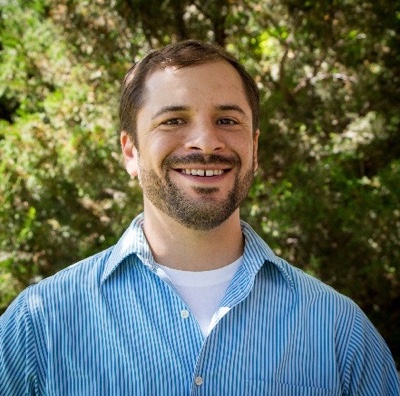
The three of us connected virtually and had a fascinating conversation about grasslands, ranching, buidling relationships, and purpose-driven work. We start out by defining exactly what constitutes the Southern High Plains and why this is such an important region for conservation. We then discuss why the large percentage of private ownership creates such a compelling case for conservation, the need for balancing conservation with various forms of energy development, the current markets around grasslands carbon sequestration, and the all-important role of TNC’s partners. We also discuss Matt and Galen’s mentors, how they measure conservation success, and some of their favorite books.
I’ve considered Matt and Galen to be friends and mentors for many years now, so I was grateful for the opportunity to talk with them on the podcast. Hope you enjoy.
Photos courtesy of The Nature Conservancy, header photo by Lauryn Wachs
LISTEN & DOWNLOAD:
Download on Apple Podcasts
Download on Spotify
Download on Google Podcasts
…or wherever you get your podcasts!
EPISODE PARTNER:

This episode is brought to you in partnership with the Colorado chapter of The Nature Conservancy. Guided by science and grounded by decades of collaborative partnerships, The Nature Conservancy has a long-standing legacy of achieving lasting results to create a world where nature and people thrive.
On the fourth Tuesday of every month throughout 2023, Mountain & Prairie will be delving into conversations with a wide range of The Nature Conservancy’s leaders, partners, collaborators, and stakeholders, highlighting the myriad of conservation challenges, opportunities, and solutions here in the American West. You can access all of the 2023 episodes here.
To learn more about The Nature Conservancy’s impactful work in Colorado and around the world, visit www.nature.org/colorado
RESOURCES:
Topics Discussed:
- 3:10 - Introductions
- 6:25 - What are the Southern High Plains
- 9:55 - Why the Southern High Plains are so critical in conservation
- 16:10 - How the patchwork of private lands in the Southern High Plains allows Matt and Galen to be effective in their conservation work
- 20:55 - The process of building relationships in private lands conservation work
- 29:10 - Balancing the potential for landowners to earn revenue through energy development with the interest in conserving landscapes
- 35:10 - Where things stand on grassland carbon sequestration as a method of generating both landowner revenue as well as conservation outcomes
- 39:10 - The importance and skills of TNC’s partners
- 43:10 - Matt and Galen’s mentors
- 50:10 - What progress on the Southern High Plains Initiative would make Matt and Galen happy in 10-15 years
- 53:40 - Matt and Galen’s book recommendations
Information Referenced:
- The Nature Conservancy, Colorado Chapter
- Matt Moorhead
- Galen Guerrero-Muphy
- Theodore Roosevelt
- Southern High Plains Initiative
- Colorado Cattlemen's Association
- JE Canyon Ranch
- Arkansas River
- Canadian River
- Sangre de Cristo Mountains
- Santa Fe Trail
- American Serengeti by Dan Flores
- Roaring Fork Valley
- Spanish Land Grants
- Chris Pague
- Dust Bowl
- Colonial Conservation
- TRC Companies
- Pueblo, CO
- UC Davis study - Grasslands More Reliable Carbon Sink Than Trees
- David Smith
- Steve Massey
- John Ehrenfeld
- Palmer Land Conservancy
- Pueblo, Colorado
- The Complete Far Side by Gary Larson
- Celebrating Peanuts: 65 Years by Charles Schultz
- Guns, Germs, and Steel by Jared Diamond
- The Dawn of Everything by David Graeber
- Confessions of an Economic Hitman by John Perkins
- The Tree of Knowledge by Humberto R. Maturana and Francisco J. Varela
- This is Your Mind on Plants by Michael Pollan
- Braiding Sweetgrass by Robin Wall Kimmerer
- Saving Us by Katherine Hayhoe
Enjoy this episode? Then you might like these too:
- Cole Mannix – Building Community through Land Stewardship and Local Food
- Francesca Claverie – A Borderlands Conservation Success Story
- Kate Mannix – A Legacy of Land Stewardship
- Amber Smith – Creating Connection & Community
- Lesli Allison & Tuda Libby Crews – Durable Conservation in the West… and Beyond
- Daniela Ibarra-Howell – Healing the Land Holistically
- Russ Schnitzer – A Life Devoted to Western Landscapes
Visit the podcast page for a full list of episodes where you can filter episodes by topic and guests' vocations.

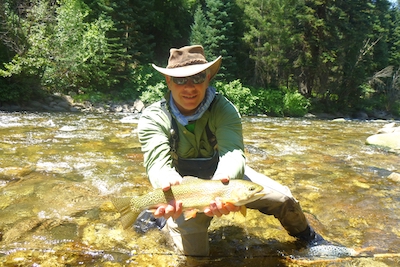
Walt Morgan is a retired Navy Commander and Navy helicopter pilot, and he’s also the founder of Translational Lift Coaching, where he works with individuals and teams to help them reach their full potential. Walt’s wide-ranging background as a leader, teacher, student, and parent gives him a unique approach to helping people identify what they are doing well, what they could be doing better, and how to make subtle-yet-powerful adjustments that can lead to lasting change.
Walt grew up in rural Oregon, where agriculture and working lands were an important part of his upbringing. He attended college on a military scholarship, graduated, and began flying helicopters for the Navy. After 23 rewarding years of service, Walt retired from the Navy and made his way into corporate America, where he quickly discovered his talent and passion for coaching. Today, Walt has combined his innate skills as a coach with his deep desire to help people, and he’s created a meaningful second act to his already impressive career.
I have had the great fortune of being coached by Walt for many years now, and I credit him and his guidance with helping me to identify the beliefs and ideas that are serving me well and to discard those that created friction. As you’ll hear in this conversation, several of the insights I gained from Walt’s coaching are what led me to leave the real estate business and fully focus on the purpose-driven work of conservation and this podcast. While I generally avoid blabbing about myself in these conversations, I feel that my personal experience with Walt speaks to the power of the work he does on a daily basis with many, many people.
Walt and I sat down at my dining room table and had a fun conversation about his life and career, including: Walt’s upbringing in rural Oregon; his decision to join the military; lessons learned from helicopters, deployments, and decades of service; his experience on the morning of 9/11 and his work in the aftermath; discovering his love of teaching; harnessing youthful wild energy into something productive; becoming a coach; the difference between coaching and therapy; the Enneagram and Integral Coaching methodology; favorite books and music; and much more.
A big thanks to Walt for taking the time to chat and for his guidance over the years. You can find links to everything Walt is doing in the episode notes, so be sure to click through. Hope you enjoy.
Photos courtesy of Walt Morgan, Header photo by D'Ann Boal
LISTEN & DOWNLOAD:
Apple Podcasts
Spotify
Google Podcasts
... or wherever you get your podcasts!
—
RESOURCES:
Topics Discussed:
- 3:30 - How a saddle made it into Walt's living room (a look into his upbringing)
- 8:300 - Walt’s journey in college
- 10:00 - Discussing Walt’s hometown of Yoncalla, OR, and the remarkable people connected to it
- 13:45 - Why Walt became involved in the military
- 15:30 - Walt’s character pivot from his 19-year-old self to now
- 18:30 - When Walt started at the US Navy post-graduate school
- 19:15 - Discussing when flying helicopters became a dream of Walt’s
- 21:45 - Whether or not flight school was a means for Walt to channel the negative experiences he was having in his personal life into something productive
- 23:45 - Describing Walt’s missions with helicopters
- 28:15 - Where Walt was on 9/11
- 31:00 - Walt’s deployments following 9/11
- 34:45 - Walt’s spiritual and emotional journey in corporate America, and starting his own business
- 42:15 - People’s reactions (including Ed’s) to receiving the kind of coaching Walt provides
- 48:15 - Defining Integral Coaching and the process that Ed has specifically worked through with Walt
- 53:30 - The difference between Integral Coaching and therapy
- 56:45 - Exploring the Integral Coaching methodology further, and discussing success stories in Walt’s work
- 1:05:15 - Why this coaching strategy is not widespread
- 1:08:00 - How folks can work with Walt
- 1:13:45 - Walt’s book and music recommendations
Information Referenced:
- Walt Morgan
- Walt on LinkedIn
- Coronado, San Diego
- Bonita, CA
- California Polytechnic State University, San Luis Obispo
- Yosemite National Park
- Madonna Inn
- San Luis Obispo, CA
- Santa Cruz, CA
- Lompoc, CA
- Santa Maria Valley
- Team Roping
- Future Farmers of America
- University of Colorado, Boulder
- University of Purdue
- University of North Carolina at Chapel Hill
- Pepperdine University
- Less Than Zero
- Yoncalla, OR
- Church of the Brethren
- Martin Luther King Jr.
- Jesse Jackson
- Dr. Lydia Emery
- Warrant Officer, Marines
- Applegate Ranch
- Shannon Applegate
- Skookum by Shannon Applegate
- Rex Applegate
- Kill or Get Killed by Rex Applegate
- Living Among Headstones by Shannon Applegate
- West Lafayette, IN
- Reserve Officers’ Training Corps (ROTC)
- Ensign, Navy
- Pensacola, FL
- T-34 fixed wing aircraft
- Forrest Gump
- Huey Helicopter
- Guam
- Persian Gulf
- Vertical replenishment
- Video of Walt’s flying
- Top Gun: Maverick
- MH60 Sierra Helicopter
- Kinetic engagement
- War by Sebastian Junger
- Davita Healthcare
- Integral Coaching
- Enneagram
- Tim Ferris
- Ken Wilbur
- Integral Theory
- Laura Devine and Joanna Hunt
- Ivan Doig
- William Kitridge
- The Body by Bill Bryson
- A Short History of Nearly Everything by Bill Bryson
- Sapiens by Yuval Noah Herari
- 21 Lessons for the 21st Century by Yuval Noah Herari
- Circe by Madeline Miller
- Barbara Kingsolver
- John Irving
- Linda Ronstadt
- “Willin’” performed by Linda Rhonstat
- Lowell George
- Tyler Childers
- Sturgill Simpson
- Zoe Muth
- Lillie Mae
- Belinda Carlisle
- Emmylou Harris
- Dolly Parton
- Kaitlin Butts
Enjoy this episode? Then you might like these too:
- Dr. Eric Arzubi – A New Approach to Solving the West’s Mental Health Crisis
- Elliott Woods – Stories from Dangerous Places
- Jason Gardner – A Life of Purpose & Service
- Iris Gardner – Living with Intention
- George Hodgin – Mission-Driven Entrepreneur
- Juanita Vero, Part 2 – A Deep Desire to Serve
- Yemi Mobolade – Community Builder
Visit the podcast page for a full, searchable list of episodes

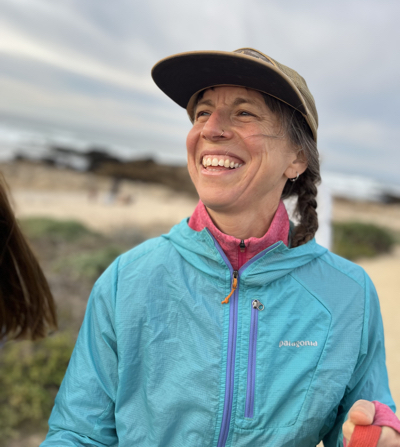
Kathie Sever is an artist, designer, and the founder of Fort Lonesome, an Austin-based company that creates one-of-a-kind, hand-cranked, chain-stitched western wear. What started with Kathie hand-embroidering garments for friends out of her home has transformed over the years into a globally known fashion brand that is worn by well-known personalities such as Matthew McConaughey and singer-songwriter Nikki Lane. Using decades-old chain stitching machines, Kathie and her team create some of the most intricate and rich designs imaginable, and Fort Lonesome has been credited with the resurgence of Western wear’s popularity in fashion circles around the world.
Kathie was born, raised, and educated in California, but soon after graduating from art school, she took off for Montana, where she worked at a dude ranch. She worked at the ranch off and on for several years, and she took note of how the ranchers brought creativity, craftsmanship, and an artist’s eye to so many of their tasks– from welding to sewing to leatherwork. Kathie loved the idea of functional art, and she has since made a career of combining handcrafted artistry with pragmatic design. And now, as the head of Fort Lonesome, she and her team continue to innovate and push the boundaries of functional art with Fort Lonesome’s unique brand of what they call Cosmic Western wear.
I loved this conversation with Kathie and could’ve talked with her for many more hours. We covered a lot, including Kathie’s upbringing in California and how her family affected her artistic trajectory; her experience in Montana and how it laid the foundation for Fort Lonesome; her work as a pastry chef and the challenges of working in the restaurant scene of the 1990s; the power that can come as a result of negative experiences; her growth and evolution as a manager and business owner; how parenthood affected her goals; the pros and cons of working with famous people; the nervous feelings that come with creating art; our shared Enneagram personality profiles; favorite books; and much, much more.
Whether you’re interested in art, fashion, the creative process, entrepreneurship, or balancing a career with the demands of parenthood, you’ll glean a lot of value from this conversation. A huge thank you to Kathie for the conversation, and thank you for listening.
Photos courtesy of Kathie Sever & Fort Lonesome
LISTEN & DOWNLOAD:
Apple Podcasts
Spotify
Google Podcasts
... or wherever you get your podcasts!
—
RESOURCES:
Topics Discussed:
- 3:15 - How Kathie’s childhood led her to a career in art
- 9:00 - Kathie’s goals as she went into art school
- 10:00 - How Kathie ended up in Montana
- 13:30 - Kathie’s takeaways from her time in Montana
- 15:45 - When Kathie started to recognize Western wear as a creative outlet
- 18:30 - Kathie’s next steps after working at a ranch in Montana
- 20:15 - When pastry making came into the equation, and exploring the connection between pastry making and art
- 23:30 - Kathie’s time in Austin and the misogyny she experienced in the restaurant scene in the late 90s
- 29:00 - Exploring the motivational power of negative experiences
- 32:00 - How having a kid impacted Kathie and how it lead to her work with clothing
- 37:45 - Kathie’s journey in figuring out the business side of making clothes
- 43:45 - When Kathie realized she was onto a good business idea, and how she balanced managing a small business from home while raising kids
- 1:00:00 - How oil painting impacted Kathie’s embroidery work
- 1:03:45 - The first time a celebrity reached out for one of Kathie’s pieces
- 1:07:15 - How Kathie balances her vision for her art with that of her clients when making clothes for performers
- 1:11:00 - Whether or not Kathie still feels nervous about putting her art into the world
- 1:18:30 - Kathie’s vision for Fort Lonesome in the next 5-7 years
- 1:22:15 - Kathie’s book recommendations
Information Referenced:
- Fort Lonesome
- Videos of Kathie working
- Darkroom
- Monterey Peninsula
- Pacific Grove, CA
- Carmel, CA
- Big Sur, CA
- Brett Weston
- Ansel Adams
- Yosemite National Park
- Friends of Photography
- Sierra Club
- McLeod, MT
- Livingston, MT
- Big Timber, MT
- A River Runs Through It
- Thomas McGuane
- Jimmy Buffett
- Mile Marker Zero by William McKeen
- Jim Harrison
- Hunter S. Thompson
- Austin, TX
- Rockabilly
- Grunge
- Humboldt State University
- School of the Museum of Fine Arts, Boston
- Nancy Silverton
- University of Texas
- The Baby Book by William Sears
- Yoke
- Piping
- Embroidery
- Austin Craft Mafia
- Crochet
- Sublime Stitching
- Jenny Hart
- Chain Stitch embroidery
- Richard Linklater
- Ethan Hawke
- Matthew McConaughey
- Nikki Lane
- Jenny Lewis
- Enneagram
- Seth Godin
- Rick Wittenbraker
- Howler Brothers
- Carl Jung
- Hamnet by Maggie O’Farrell
- The High Sierra: A Love Story by Kim Stanely Robinson
- The Martian by Andy Weir
Enjoy this episode? Then you might like these too:
- Cate Havstad-Casad, Part 2 – Building Businesses for the Greater Good
- Jess Mudgett – Humble & Grateful
- Christian Beamish – West Coast Craftsman
- Frances Ashforth – Art, Water, and Wide-Open Spaces
- Riddy Arman – Artistic Authenticity
- Kelsey Johnson – Chasing Her Artistic Ambitions
- Anna Brones – Committed to Creativity
- Live in Bozeman!
Visit the podcast page for a full, searchable list of episodes

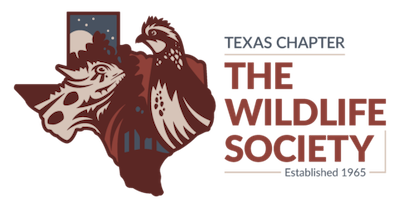
This is the second of two live episodes that were recorded at the Texas Chapter of The Wildlife Society’s 2023 annual meeting in Houston, Texas. The topic of this panel discussion was Achieving Landscape-Scale Management in a Private Land State. As you learned in the previous episode, Texas has very little public land compared to other western states, so large-landscape conservation in Texas brings with it a number of extremely unique challenges and opportunities. In this conversation, we heard from four of Texas’s most respected conservation leaders– individuals who are finding ways to achieve ambitious conservation goals using their own unique skillsets and approaches.
I was joined on stage in front of an audience of nearly 600 people by Roel Lopez, Director of the Texas A&M Natural Resources Institute; Chad Ellis, CEO of the Texas Agricultural Land Trust; Terry Anderson, co-founder of Conservation Equity Management and Conservation Equity Partners; and Billy Tarrant, Associate Director of Stewardship Services at Borderlands Research Institute. You can check out the episode notes for more information on each of the panelists and links to their respective bios and organizations.
As you’ll hear in the conversation, there are a wide range of innovative approaches and tools– from academic to non-profit to market-based– that are allowing Texas to be a trailblazer in private lands conservation in the United States. So we had a lot to cover in this hour-long session, including: The evolution and use of conservation easements, the importance of building solid relationships with landowners, new conservation tools on the horizon, how Texas has exported is private lands conservation tools to other states, data around population growth in Texas, advice for you and aspiring conservationists, and a long list of books, podcasts, and resources that have influenced these conservation leaders.
And just before this conversation, each of the panelists did a brief presentation that summarized all of the important work they are doing in Texas. If you’d like to listen to those talks and access their Powerpoint presentations, follow this link. However, you don’t need to listen to those presentations to get full value out of this episode– but they are there if you want to go a little deeper.
If you’re interested in conservation and learning from impressive individuals who have devoted their lives to land, stewardship, and conservation, then I know you’ll enjoy this episode. Once again, thanks to John Kinsey and the Texas Chapter of The Wildlife Society for inviting me down to Houston and for giving me the opportunity to have these meaningful conversations. Enjoy!
Photos courtesy of The Texas Chapter of The Wildlife Society
LISTEN & DOWNLOAD:
Apple Podcasts
Spotify
Google Podcasts
... or wherever you get your podcasts!
—
RESOURCES:
Topics Discussed:
- 3:00 – Introduction
- 5:00 – Discussing the Conservation Easement as a tool, and how it has evolved
- 10:30 – The importance of relationships in this work
- 13:30 – What new tools do we need in private lands conservation
- 22:00 – Discussing the private lands conservation strategies that Texas has been able to export to other states
- 27:15 – Whether or not the experts predicted the population numbers and growth that Texas is seeing today
- 29:45 – Advice for young professionals who want to become better storytellers
- 40:30 – The importance of building relationships with politicians for conservation work
- 53:00 – Books, podcasts, heroes, and other resources that have influenced the panelists
- 56:30 – Where the panelists find hope and motivation
Information Referenced:
- Texas Chapter of The Wildlife Society
- Roel Lopez
- Chad Ellis
- Billy Tarrant
- Terry Anderson
- Blair Fitzsimons
- Texas Agricultural Land Trust (TALT)
- Mitigation banking
- Ecosystem service markets
- The Nature Conservancy
- Colorado Cattlemen’s Agricultural Land Trust
- Republic Ranch magazine article about Terry
- Fault lines
- North Texas Water Municipal District
- Edwards Aquifer Protection Program
- Carter Smith
- The Partnership of Rangeland Trusts (PORT)
- Recovery Credit System
- Gopher Tortoise
- Dune Sagebrush Lizard Texas Conservation Plan
- Ocelots
- Marathon, TX
- How to Speed Read People by Liam Robinson
- Black-tailed deer
- Chronic Wasting Disease
- High Fence Deer Breeding/Hunting
- Pronghorn
- Farm Bill
- Texas Wildlife Association
- ESG – Environmental social, and Corporate Governance
- Texas Department of Transportation (TexDOT)
- US Roundtable for Sustainable Beef
- Bobwhite Quail Enhancement Program
- Good to Great by Jim Collins
- The 7 Habits of Highly Effective People by Stephen R. Covey
- The California Quail by Aldo Starker Leopold
- Aldo Starker Leopold
- Energy Sprawl Solutions Joseph M. Kiesecker
- Arizona Game & Fish Department
- Texas Parks and Wildlife Department
- Alpine, TX
- Texas A&M University
Enjoy this episode? Then you might like these too:
- Dr. David Hewitt – The Science of Wildlife Conservation
- Taylor Hawes – Innovative Conservation in the Colorado River Basin
- Cole Mannix – Building Community through Land Stewardship and Local Food
- Carlos Fernández, Part 2 – Creating Conservation Opportunities During Uncertain Times
- Amber Smith – Creating Connection & Community
- Kate Mannix – A Legacy of Land Stewardship
- Lesli Allison & Tuda Libby Crews – Durable Conservation in the West… and Beyond
Visit the podcast page for a full, searchable list of episodes


This is the first of two live episodes that were recorded at the Texas Chapter of The Wildlife Society’s 2023 annual meeting in Houston, Texas. The topic of this panel discussion was Equitable Access to the Outdoors, a subject that is timely and important in all areas of the West, but especially important in Texas, where 93% of the state’s land is privately owned. Whether your interest is outdoor recreation, public health, climate change, or public-private conservation partnerships, the ability for people to have access to parks, trails, open spaces, and wild places is becoming more and more important with each passing year.
For this conversation, I was joined on stage by five Texas conservation innovators– folks who are working hard to ensure that Texans of all stripes have ample opportunities to spend time outside– whether in the cities or in the state’s more rural areas. In order of their appearance in this conversation, we had Jaime González, Healthy Communities Director for the Nature Conservancy; Sarah Coles, Executive Director of the Texas Children in Nature Network; Immanuel Salas, Texas Parks and Wildlife’s R3 Coordinator for Hunting and Shooting Sports; Neal Wilkins, President and CEO of the East Foundation; and Joseph Fitzsimons, conservationist and owner of the San Pedro Ranch. You can check out the episode notes below for more information on each of the panelists and links to their respective bios and organizations.
I could’ve spent hours talking to each of the panelists individually, but as a group, we had a very informative and educational conversation– one that provided a different perspective from some of my past episodes that focused on equitable access. we covered a lot in this hour-long discussion, including: the importance of building thriving cities with ample parks, trails, and outdoor space; how these organizations are working to reverse some of the disheartening trends around children’s health and their access to the outdoors; the importance of collaborative partnerships, the R3 program in Texas– what it is, why it’s important, and how it is evolving; the role of private landowners in providing access opportunities; the importance of youth education; the role of government; public land in Texas; the need to engage with elected officials; favorite books; and much more.
I learned a lot from this conversation and was honored to share a stage with such an impressive group of people who are working so hard on this all-important issue. Click the link in your podcast player to access all of the notes and links from this episode– we’ve listed tons of excellent resources from this episode.
Thanks to John Kinsey and the Texas Chapter of The Wildlife Society for inviting me to host this event, and thank you for listening. Hope you enjoy!
Photos courtesy of The Texas Chapter of The Wildlife Society
LISTEN & DOWNLOAD:
Apple Podcasts
Spotify
Google Podcasts
... or wherever you get your podcasts!
—
RESOURCES:
Topics Discussed:
- 3:04 - An introduction, and then Jaime discusses his work with TNC in Houston
- 9:25 - The quantitative way that Jaime and TNC evaluate success in connecting youth with the outdoors
- 11:25 - Sarah introduces Texas Children in Nature Network
- 15:55 - Sarah explains TCINN’s partnership model
- 19:10 - Immanuel discusses the R3 program and its importance
- 26:40 - Neil introduces the East Foundation
- 30:55 - How the East Foundation’s educational programs have shifted over time
- 32:10 - How Joe became involved in public lands conservation work through the Texas Parks and Wildlife Commission
- 38:55 - The panelists' experience in dealing with politics and elected officials
- 46:40 - The panelists discuss the importance of storytelling
- 58:40 - Panelists’ suggestions for books, podcasts, resources to access, etc
Information Referenced:
- Texas Chapter of The Wildlife Society
- Jaime Gonzales
- Sarah Coles
- Immanuel Salas
- Neil Wilkins
- Joseph B.C. Fitzsimons
- Dr. Dave Hewitt
- The Nature Conservancy
- Attwater Prairie Chicken National Wildlife Refuge
- World Wildlife Fund
- Harris County
- Memorial Park Conservancy
- Memorial Park Land Bridge and Prairie Project
- The One Health Model
- Texas Children in Nature Network (TCINN)
- Nature Smart Libraries
- Texas Parks and Wildlife Department
- R3
- Steven Rinella
- Backcountry Hunters and Anglers
- East Foundation
- El Sauz Ranch
- Rio Grande Valley (“The Valley”)
- Texas Wildlife Association
- Natural Resources Conservation Service
- The Museum of South Texas History
- Masi Mejia
- Laredo, TX
- San Antonio Viejo Ranch
- Blair Fitzsimons
- Black Gap Wildlife Management Area
- Sporting Goods Sales Tax
- City Kid Adventures
- Land and Water Conservation Fund
- Alan Simpson
- Agricultural land valuation in Texas
- Romey Swanson
- White-tailed deer
- Chronic Wasting Disease
- Austin Independent School District
- Garden and Gun magazine regarding East Foundation
- TCINN video
- Certified Interpretive Guide
- Texas Parks and Wildlife Department PBS show
- Lone Star Land Steward Awards
- Texas Youth Hunting Program
- Latino Outdoors
- Outdoor Afro
- Black Outside, Inc.
- Made to Stick by Chip Heath and Dan Heath
- Seth Godin
- Last Child in the Woods by Richard Louv
- The Nature Fix by Florence Williams
- Vitamin N by Richard Louv
- Balanced and Barefoot by Angela J. Hanscom
- Parker McMullen Bushman (Instagram)
- Inclusive Guide
- Goodbye to a River by John Graves
- From a Limestone Ledge by John Graves
- Hard Scrabble by John Graves
- Rancher, Farmer, Fisherman by Miriam Horn
- Rambunctious Garden by Emma Marris
- National Geographic stories by Emma Marris
- Dr. Drew Lanham
- Aldo LeopoldBeyond Fair Chase by Jim Posewitz
Enjoy this episode? Then you might like these too:
- Dr. David Hewitt – The Science of Wildlife Conservation
- Douglas Brinkley – Exploring the Past to Find Inspiration for the Future
- Rachel VandeVoort – Harnessing the Power of Outdoor Recreation
- Mike McTee & Vince Slabe – Win-Win Solutions in the Fight to Save Eagles
- Nate Schweber – A Forgotten Chapter of American Conservation
- Becky Edwards – Amplifying the Power of Women in the West
- Land Tawney – Energetic & Optimistic
- Alvin Dedeaux – Living His Dream
- Adam Gall – A Reverence for Wildlife & Wild Places
Visit the podcast page for a full, searchable list of episodes

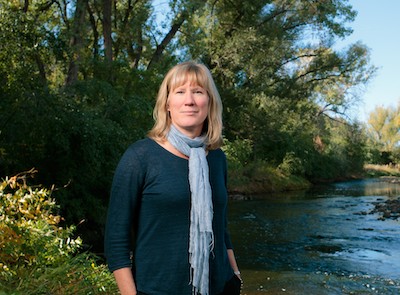
Photo credit: Matthew Staver
Taylor Hawes is the Director of the Colorado River Program for the Nature Conservancy. As the leader of the program, she guides TNC’s efforts to conserve the freshwater biodiversity of the Colorado River Basin while also meeting human demands for water– challenging objectives given the wide-ranging stresses facing the river today. But despite the challenges brought about by climate change, overallocation, and increasing demand, Taylor and her team are making great strides toward finding long-term solutions to create a sustainable future for the Colorado River and the people, plants, and animals that depend on it.
Taylor grew up on the east coast, and, from a young age, she felt a deep connection to land, water, and natural resources. She fell in love with wide-open spaces while on a course with the National Outdoor Leadership School, and she’s devoted her career to protecting land and water in the West. Prior to joining the team at TNC, she served as Associate Counsel to the Colorado River Water Conservation District on Colorado’s Western Slope, working on water quality, water policy, environmental permitting, and water rights litigation.
If you pay attention to the news, then you’ll know that the Colorado River has been receiving tons of media attention for the dire conditions and projections facing the entire region. Reservoirs are at historic lows, temperatures are rising, and the need for more water is increasing. In the first part of this conversation, I ask Taylor to decipher many of the surface-level sound bytes that I’ve heard in the news, and she provides some much-needed context and background regarding the river basin’s current challenges. We then talk about how TNC is working to solve these problems, by building community support, working collaboratively with Tribal nations, and helping agricultural producers become more efficient. And we spend the last part of the conversation talking about Taylor’s professional journey– why she chooses to do this work, what gives her hope, and her goals for her work on the Colorado River.
This was a timely conversation, and I hope it sheds some light on the challenges facing the Colorado River today– and provides some optimism about the river’s future. Thanks to Taylor for taking the time to chat, and thank you for listening.
Photos courtesy of Taylor Hawes and The Nature Conservancy
LISTEN & DOWNLOAD:
Download on Apple Podcasts
Download on Spotify
Download on Google Podcasts
…or wherever you get your podcasts!
EPISODE PARTNER:

This episode is brought to you in partnership with the Colorado chapter of The Nature Conservancy. Guided by science and grounded by decades of collaborative partnerships, The Nature Conservancy has a long-standing legacy of achieving lasting results to create a world where nature and people thrive.
On the fourth Tuesday of every month throughout 2023, Mountain & Prairie will be delving into conversations with a wide range of The Nature Conservancy’s leaders, partners, collaborators, and stakeholders, highlighting the myriad of conservation challenges, opportunities, and solutions here in the American West. You can access all of the 2023 episodes here.
To learn more about The Nature Conservancy’s impactful work in Colorado and around the world, visit www.nature.org/colorado
RESOURCES:
Topics Discussed:
- 3:15 - An overview of the situation regarding Colorado River water
- 8:00 - Discussing the “bandaid” solutions for the overallocated Colorado River implemented over the years
- 10:45 - Who is making the water allocation decisions for the Colorado River
- 12:00 - The breakdown of water use in the West
- 16:45 - Why has this situation has become an emergency right now, meriting the involvement of the federal government
- 19:30 - The timeline of Colorado river use reduction mandates
- 21:30 - The potential impacts of shrinking Colorado River on the Grand Canyon
- 23:00 - What will happen if the Colorado River Basin states do not agree on a plan to reduce water use in accordance with federal mandates
- 24:45 - How Taylor focuses on solutions regarding such a complex, difficult-to-model problem
- 28:30 - Some strategies TNC is employing to support and work with producers in reducing their water use
- 35:00 - Discussing the difficulties and importance of relationship building in this work
- 40:15 - TNC’s work supporting Tribal water challenges
- 44:45 - What drives Taylor’s work and what are her goals
- 47:00 - How Taylor ended up doing this work
- 53:45 - How law school helped Taylor
- 55:45 - What keeps Taylor energized about her work and TNC
- 58:15 - How anybody can get involved in this work
- 1:02:00 - Taylor’s book recommendations
Information Referenced:
- The Nature Conservancy, Colorado
- Taylor Hawes
- 5280 Magazine
- 5280 article with Taylor
- The Colorado River
- The Colorado River Compact
- Colorado River 2007 Interim Guidelines and Drought Contingency Plans
- Bureau of Reclamation
- Lake Powell
- Lake Mead
- SEIS: Supplemental Environmental Impact Statement
- Colorado Water Conservation Board
- Rebecca Mitchell
- Arizona Department of Water Resources
- State of California Colorado River Board
- Denver Water
- San Juan Mountains
- The Emerald Mile by Kevin Fedarko
- Glen Canyon Dam
- Page, AZ
- Navajo Nation
- Boulder, CO
- Acre-foot
- Smallmouth Bass
- CFS - cubic feet per second
- Arkansas River
- Colorado Springs, CO
- Kernza
- Alfalfa
- Hay Grass
- Riparian Doctrine
- Grand Valley
- Verde River
- Phoenix, AZ
- Barley
- Malt House
- Headgate
- Matt Moorhead
- Aaron Derwingson
- Klamath Basin
- Trout Unlimited
- TNC Colorado 2022 Year in Review
- Upper Basin Tribal Dialogue
- Yampa River
- University of North Carolina
- Savannah River
- Richard B. Russell Dam
- Jimmy Carter
- Chapel Hill, NC
- Exxon Valdez Oil Spill
- NOLS
- Prince William Sound
- Time Magazine coverage of the Exxon Valdez Spill
- Booms
- Gila River
- Virgin River
- Colorado River in Crisis podcast
- Audubon Society
- Cadillac Desert by Mark Reisner
Enjoy this episode? Then you might like these too:
- Carlos Fernández, Part 2 – Creating Conservation Opportunities During Uncertain Times
- Dr. Katharine Hayhoe – Effecting Change Through Authentic Conversation
- Pete McBride, Part 2: In Search of Silence
- Frances Ashforth – Art, Water, and Wide-Open Spaces
- Dylan Tomine – Protecting What He Loves
- Alvin Dedeaux – Living His Dream
- Mike Foote – Perfection is in the Process
- Chris Dombrowski, Part 2 – “The River You Touch”
Visit the podcast page for a full list of episodes where you can filter episodes by topic and guests' vocations.

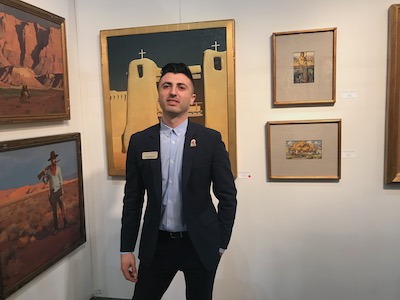
Beau Alexander is the owner and operator of Maxwell Alexander Gallery, a world-renowned art gallery that curates and celebrates “a new breed of fine art” here in the American West and beyond. Beau and his brother, the famed western artist Logan Maxwell Hagege, officially opened the gallery back in 2012, and their goals were simple: Represent one-of-a-kind artists, put the artists’ interests first, and serve as a trusted resource for a wide range of collectors around the globe. After many years of scrappy hard work and outside-the-box thinking, Maxwell Alexander Gallery has become a cornerstone of the Western art world.
Beau was born and raised in Los Angles and from an early age, he showed a talent for entrepreneurship and marketing. He and his brother Logan started a number of businesses together, combining their proclivity for creativity with the tireless work ethic they learned from their immigrant father. As Logan’s art career exploded, they both saw an opportunity to create an art gallery that takes care of its artists and clients– one that plays the long game and is deeply invested in the people behind the art… not solely focused on making a sale. So, in 2012 they opened Maxwell Alexander Gallery and have steadily risen to the top of the western contemporary art world. And just a few weeks ago, Beau was awarded the Autry Museum’s John J. Geraghty Award, which recognizes an individual for his or her Advancement of Contemporary Western art.
Beau and I met last fall in L.A. at Maxwell Alexander Gallery’s 10 Year Anniversary Exhibition, so I was thrilled to have him join me for a more in-depth conversation about his journey in western art. We started out by discussing his upbringing in LA and how entrepreneurship has always been a part of his life. We discuss some of the good and bad aspects of the old-school art gallery world that sparked the idea to start Maxwell Alexander Gallery. We discussed the early days of the business, and how he had to grind and be extremely creative in order to gain a foothold in the art world. We also discuss his irreverent, often times hilarious, approach to using social media as a marketing tool and the importance of introducing new collectors to western art. We discuss art valuation, the importance of treating people fairly, his other artistic influences, and his brother Logan’s evolution as an artist.
We talk a lot about Logan and the 10 Year Anniversary exhibition– you can listen to those podcasts by following these links: Logan Maxwell Hagege and Live from Maxwell Alexander Gallery. But for now, I hope you enjoy this inspiring conversation with Beau Alexander.
Photos courtesy of Beau Alexander
LISTEN & DOWNLOAD:
Apple Podcasts
Spotify
Google Podcasts
... or wherever you get your podcasts!
—
RESOURCES:
Topics Discussed:
- 3:45 – Setting the scene in Beau’s year leading up to starting the Maxwell Alexander Gallery
- 10:00 – Discussing Beau’s time studying business, before which he had actually started his own business
- 14:00 – How Beau prioritizes relationships in his business
- 17:30 – Beau’s process of evaluating artwork
- 21:30 – How the Maxwell Alexander Gallery is different from other art galleries
- 24:00 – When Beau figured out that the Maxwell Alexander Gallery was a unique idea to run with in the art world, and the early process of establishing the gallery
- 29:45 – Discussing Beau’s unconventional ways of advertising the gallery
- 31:15 – How long it took for the established art community to recognize and embrace the Maxwell Alexander Gallery model
- 36:45 – Discussing the 10 Year Anniversary of the gallery
- 39:30 – Talking about the finances and value of art
- 49:30 – Advice for young art collectors
- 52:30 – Beau’s favorite art
- 59:30 – Beau’s other influences outside of painting and sculpture, as well as the impact Logan Maxwell has had on the art world
Information Referenced:
- Maxwell Alexander Gallery
- Maxwell Alexander Gallery on Instagram
- Beau Alexander
- Maxwell Alexander Gallery 10 Year Anniversary Celebration
- Mountain and Prairie Live at the Maxwell Alexander Gallery 10 Year Anniversary
- Logan Maxwell Hagege
- Malibu, CA
- Jay-Z
- Jackson Hole, WY
- John J. Geraghty Award
- Glenn Dean
- Billy Schenck
- Josh Elliott
- Jeremy Lipking
- Contemporary Realism (definition | at the Maxwell Alexander Gallery)
- Michael Klein
- Joshua Larock
- David Kassan
- Kim Wiggins
- Eric Bowman
- Maxwell Alexander Gallery Black Friday Exhibition
- Pendleton collaboration
- Stetson collaboration
- Pasadena, CA
- Norton Simon Museum
- The Louvre
- The Tate Museum
- Pablo Picasso
- Henri Matisse
- Claude Monet
- Agnes Martin
- Minimalism
- Modernism
- American Modernism
- Ellsworth Kelly
- Brett Allen Johnson
- Earnest L. Blumenschein
- Taos Society of Artists
- William Herbert Dunton
- Ernest Martin Hennings
- Endurance: Shackleton's Incredible Voyage
- Into Thin Air
- The Tipping Point
- The Millionaire Next Door
- Logan Maxwell Hagege - Desert Survey
- E. Martin Hennings & Walter Ufer (Edited by Thomas Smith) - A Place in the Sun
- Beyond the Visible Terrain by Ed Mell
- Mann Vol. 1 by Jeremy Mann
- Rich Dad, Poor Dad by Robert T. Kiyosaki
- How to Argue and Win Every Time by Gerry Spence
- The Salmagundi Club
Enjoy this episode? Then you might like these too:
- Logan Maxwell Hagege – Artistic Evolution
- Live from Maxwell Alexander Gallery
- Christian Beamish – West Coast Craftsman
- Jess Mudgett – Humble & Grateful
- Riddy Arman – Artistic Authenticity
- Chris Burkard, Part 2 – Seeking Beauty Through Adventure
- Ivan McClellan – A New Look at the Old West
- Chris La Tray – Rediscovering His Past, Writing His Future
- Peter Heller – Chasing the Flow
- Morgan Irons – Finding Her Muse
Visit the podcast page for a full, searchable list of episodes

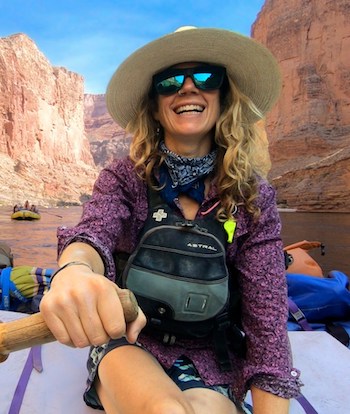
I first met Chandra Brown through the podcast more than four years ago, and with each passing year, I’ve been more and more inspired by her life and work. You may remember that she’s the founder of Freeflow Institute, a Montana-based organization that curates immersive outdoor learning experiences in Earth’s wildest classrooms. What started with combining summer river trips with writing workshops taught by some of the West’s greatest authors has turned into a year-round, immersive curriculum that incorporates many forms of art and storytelling.
If you’ve listened to a lot of Mountain & Prairie episodes, then you will recognize many past and present Freeflow Instructors– Hal Herring, Bill deBuys, Chris La Tray, Heather Hansman, Anna Brones, Brendan Leonard, Alexis Bonogofsky, and Elliott Woods. And you’ll also recognize the Freeflow classrooms, which include the Salmon River, Green River, Big Blackfoot River, San Juan Islands, and the canyon country of Southwest Colorado. The overlap between what Chandra has built at Freeflow and what we’re all doing here in Mountain & Prairie is significant, so I was excited to have Chandra join me for another conversation.
If you want to hear more about Chandra’s upbringing in Alaska and her fascinating life trajectory, I’d encourage you to go back and listen to our first episode. But also feel free to dive right into this conversation, as we had a wonderful chat about everything from cold water plunges to Freeflow’s growth and evolution to the challenges of running a small business during the pandemic years. We discuss some of the upcoming courses for this calendar year, Freeflow’s scholarship program, the importance of pursuing one’s own creative endeavors, and how Chandra and grown as a person over the past four years.
I’d also be crazy not to mention that I’m leading a Freeflow course late this summer, down the Green River in Utah, through Gates of Ladore and Dinosaur National Monument. We’ll be focused on the power of optimistic storytelling, and how storytelling can be used to effect change here in the West and beyond. You can check out the link in the episode notes to learn more, but my course is limited to 12 people and it’s already filling up. But even if you’re not interested in spending a week with me, I’d encourage you to check out all the courses and the scholarship opportunities. I wish I could go on all the courses!
Thanks for listening. Hope you enjoy!
Photos courtesy of Chandra Brown
LISTEN & DOWNLOAD:
Apple Podcasts
Spotify
Google Podcasts
... or wherever you get your podcasts!
—

This episode is brought to you in partnership with my friends at Stonefly Nets: Handcrafted Fishing Nets Made in Arkansas
RESOURCES:
Topics Discussed:
- 4:00 - Chandra’s most recent trip with Anna Brones
- 6:15 - How cold water became a part of Chandra’s life and practice
- 9:44 - An overview of Freeflow Institute and how it came to be
- 12:00 - How Freeflow has evolved
- 14:45 - Whether Freeflow’s evolution was more due to Chandra’s planning or her flexibility
- 16:30 - Chandra’s advice for someone thinking of quitting their steady job to build something new
- 19:45 - The business owners and creatives Chandra admires
- 22:45 - How the Freeflow Foundation came to be
- 25:15 - Some available scholarships through the Freeflow Foundation
- 27:45 - Running through some of the currently available Freeflow courses, with a brief tangent into dishwashing habits
- 30:45 - What makes a Freeflow Institute course successful for participants
- 34:00 - Success stories from past courses
- 41:30 - How Freeflow has changed Chandra
- 46:45 - Freeflow’s podcast and creative services
- 50:00 - Chandra’s book recommendations
Information Referenced:
- Chandra Brown
- Freeflow Institute
- Anna Brones
- Puget Sound
- Hillary Oliver
- Brendan Leonard
- Sympathetic nervous system
- William DeBuys
- Hal Herring
- Pam Houston
- David James Duncan
- Alexis Bonogofsky
- Elliot Woods
- “How Ugandans are Saving the Nile with River Sports Culture” by Chandra Brown
- Running to Stand Still - Freeflow course with Brendan Leonard
- Freeflow Foundation
- American Rivers
- American Prairie Reserve
- American Whitewater
- Craig Childs
- Dolores River
- The Desert Eye - Freeflow course with Craig Childs
- Joe Wilkins
- Blackfoot River
- River, Language, World - Freeflow course with Joe Wilkins
- Ana Maria Spagna
- San Juan Islands
- Writing the Nonhuman - Freeflow course with Ana Maria Spagna
- Chris La Tray
- Missouri River
- Rewilding Bodies, Rewilding Writing - Freeflow course with Chris La Tray
- Whitefish, MT
- Sherwin Bitsui
- Rio Grande
- Fort Lewis College
- Byron Aspaas
- Place, Power, and Purpose - Freeflow course with Ed Roberson
- Gates of Lodore
- Green River
- Freeflow Podcast
- The Prop Foundation
- Freeflow’s creative services
- Seth Godin
- This is Marketing by Seth Godin
- Akimbo - a podcast from Seth Godin
- Wintering by Katherine May
- Being Mortal by Atul Gawande
- Four Thousand Weeks by Oliver Burkeman
- Tim Ferriss
- Arctic Dreams by Berry Lopez
Enjoy this episode? Then you might like these too:
- Chris Dombrowski, Part 2 – “The River You Touch”
- Douglas Brinkley – Exploring the Past to Find Inspiration for the Future
- Peter Stark – Tales of Adventure, Exploration, & Epic Battles
- Frances Ashforth – Art, Water, and Wide-Open Spaces
- Nate Schweber – A Forgotten Chapter of American Conservation
- Pete McBride, Part 2: In Search of Silence
- Rick Ridgeway – Purpose-Driven Adventurer
- Riddy Arman – Artistic Authenticity
- Antonia Malchik – Exploring Culture & Complexity
- Nickolas Butler – The Craft of Creativity
Visit the podcast page for a full, searchable list of episodes

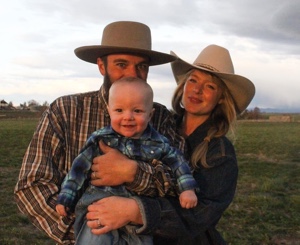
If you’ve listened to Mountain & Prairie since the early days, then I’m sure you remember Cate Havstad-Casad. She first joined me on the podcast in early 2018 for a conversation about her life and career as a hatmaker and farmer. In late 2019, she was one of the four amazing women who joined me on stage for a live podcast at the Bozeman’s Ellen Theatre. And today more than 5 years after that first conversation, she joins me once again to talk about her continued personal and professional evolution.
Over the past few years, Cate has been working at a dizzying pace, focusing on creating and building several purpose-driven businesses. She’s the founder and CEO of Range Revolution, the world’s first regenerative leather luggage company, as well as the co-founder of Agricultural Connections Co-Op, a regional food distribution business based in Bend, Oregon. Additionally, she and her husband Chris have continued to grow their organic farming business, and her hatmaking business, Havstad Hat Co., continues to grow and evolve in unexpected ways. And to top it all off, in 2021, Cate and Chris welcomed their first child into the world.
So, we had a lot to discuss! We started by talking about how Cate thinks about her work today versus five years ago, and why she feels it is important to continue to take business risks even after taking on the new responsibilities that come with parenthood. We talk a lot about Range Revolution and the Agricultural Connections Co-op, and Cate shares a ton of lessons learned from the process of founding these vastly different businesses. We discuss leadership and management, and Cate offers up some excellent books and resources that have helped her to become a better leader. We talk about fundraising, the importance of self-awareness, thinking versus doing, mentors, Wendell Berry, and our mutual love of hard work.
Cate obviously has a full schedule, so I appreciate her carving out time to chat with me. Check out the episode notes for links to her businesses and all of the resources we discuss. Thanks for listening, hope you enjoy.
Photos courtesy of Cate Havstad-Casad
LISTEN & DOWNLOAD:
Apple Podcasts
Spotify
Google Podcasts
... or wherever you get your podcasts!
—
RESOURCES:
Topics Discussed:
- 4:00 - Comparing 2017 Cate Havstad to Cate Havstad now
- 8:00 - Talking about starting businesses and incurring risk later in one’s career
- 11:15 - Discussing Range Revolution
- 15:00 - Where the business of Range Revolution stands
- 18:00 - Cate’s work ethic and how she got potential business partners to take her seriously
- 20:45 - Cate’s relationships with hard work and rest
- 23:45 - How Cate learned to build and manage teams in her work
- 27:15 - Cate’s business book recommendations
- 30:30 - Cate’s red flags in a teammate
- 32:00 - Discussing Agricultural Connections Co-op
- 34:30 - Defining a “cooperative entity” or “co-op”
- 36:15 - How Cate raised the money to start her co-op
- 38:00 - Why Cate is so good at fundraising and how she networks to that end
- 43:30 - Mistakes Cate made that taught valuable lessons
- 49:15 - Where Cate finds balance between action and reflective self-awareness
- 51:15 - Cate’s mentors
- 53:45 - Cate’s suggestions for Wendell Berry reads
- 58:00 - Other book and podcast recommendations from Cate
Information Referenced:
- Havstad Hat Co
- Range Revolution
- Casad Family Farms
- Agricultural Connections Co-op
- Madras, OR
- Land to Market
- Savory Institute
- Leaders Eat Last by Simon Sinek
- Jocko Willink
- Extreme Ownership by Jocko Willink
- Live podcast in Bozeman
- Cole Mannix
- Old Salt Co-op
- Old Salt Festival
- REI
- Ecotrust
- Portland, OR
- Ricardo Bayon
- Brené Brown
- Sallie Calhoun
- Wendell Berry
- It All Turns on Affection by Wendell Berry
- The Unsettling of America by Wendell Berry
- The World Ending Fire by Wendell Berry (essays)
- What are People For essays by Wendell Berry
- Fredrick Douglas
- Silent Spring Revolution by Douglas Brinkley
- Douglas Brinkley
- Rachel Carson
- Green Grass in the Spring by Tony Malmberg
- Tony Malmberg
- Andrea Malmberg
- Holistic management
- Kate Kavanaugh
- Mind, Body, and Soil podcast
- Dr. Anthony Gustin
- The Natural State podcast
- Smartless podcast
- Conan O’Brien
- Conan O’Brien Needs a Friend podcast
Enjoy this episode? Then you might like these too:
- Megan Torgerson – Storytelling from Rural America
- Cole Mannix – Building Community through Land Stewardship and Local Food
- Amber Smith – Creating Connection & Community
- Betsy Gaines Quammen – A Fascinating History of Public Lands in the West
- Kate Mannix – A Legacy of Land Stewardship
- Antonia Malchik – Exploring Culture & Complexity
- Juanita Vero, Part 2 – A Deep Desire to Serve
- Live in Bozeman!
- Kate Kavanaugh – Regeneration & Restoration
Visit the podcast page for a full, searchable list of episodes

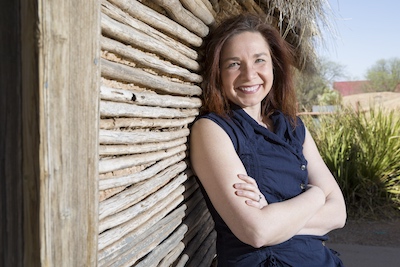
[Photo Credit: Ashley Rodgers]
Dr. Katharine Hayhoe is a world-renowned climate scientist, professor, and Chief Scientist for The Nature Conservancy, where she leads and coordinates the organization's scientific efforts. She is also the author of Saving Us: A Climate Scientist's Case for Hope and Healing in a Divided World, an excellent book you've likely heard me reference on the podcast. Whether you are interested in learning more about the facts, data, or projections regarding climate change, or if you are seeking guidance on how best to approach challenging conversations about climate, I highly recommend Saving Us. It's an optimistic, solutions-oriented guidebook for finding common ground and having productive conversations.
Katharine was born and raised in Canada and has been obsessed with science, the natural world, and the universe for as long as she can remember. Her undergraduate studies focused on physics and astronomy, but as she was finishing up her degree, she happened to take a climate science course, which captured her imagination and changed the focus of her education and career. Today, Katharine is a distinguished professor at Texas Tech, a highly respected researcher, and a sought-after speaker with a TED Talk that's been viewed more than 4 million times. And to top it all off, in 2021, she joined The Nature Conservancy as its Chief Scientist.
Katharine and I met up in Steamboat Springs, Colorado, where she was the keynote speaker at a community event focused on climate and climate change in the Yampa Valley and beyond. Katharine and I chatted for an hour before her event, and we managed to cover a lot of ground. We discussed her book Saving Us, her TED talk, and a concept known as "The Six Americas of Global Warming." We discuss how and why her Christian faith plays such an important role in her work to solve climate change, and she offers some common-sense, optimistic approaches to having challenging conversations with smart people who do not think that climate change is a threat. She also talks about her role at The Nature Conservancy, specific climate opportunities and challenges facing the American West, and she offers a ton of excellent book recommendations.
Thank you to Dr. Hayhoe for taking the time out of her busy schedule to chat with me, and thank you for listening. Hope you enjoy.
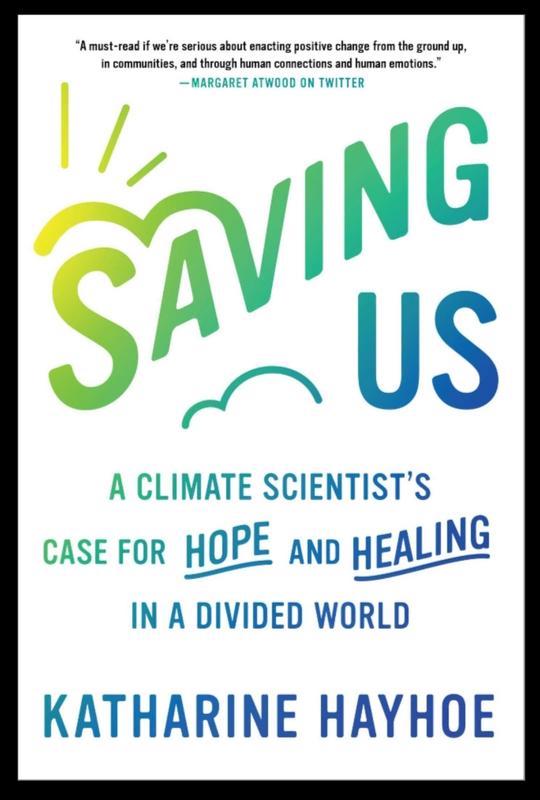
Header photo and headshot by Ashley Rodgers
LISTEN & DOWNLOAD:
Download on Apple Podcasts
Download on Spotify
Download on Google Podcasts
…or wherever you get your podcasts!
EPISODE PARTNER:

This episode is brought to you in partnership with the Colorado chapter of The Nature Conservancy. Guided by science and grounded by decades of collaborative partnerships, The Nature Conservancy has a long-standing legacy of achieving lasting results to create a world where nature and people thrive.
On the fourth Tuesday of every month throughout 2023, Mountain & Prairie will be delving into conversations with a wide range of The Nature Conservancy’s leaders, partners, collaborators, and stakeholders, highlighting the myriad of conservation challenges, opportunities, and solutions here in the American West. You can access all of the 2023 episodes here.
To learn more about The Nature Conservancy’s impactful work in Colorado and around the world, visit www.nature.org/colorado
RESOURCES:
Topics Discussed:
- 3:30 - Why Dr. Hayhoe wrote Saving Us
- 5:45 - Regarding Dr. Hayhoe’s TED Talk
- 8:15 - Discussing The Six Americas of Global Warming
- 12:00 - The relationship between Dr. Hayhoe’s faith and climate work
- 17:45 - When religion and climate change dismissal historically became tied together
- 21:30 - Discussing the balance between fear and guilt as motivating and stagnating forces
- 28:00 - What surprised Dr. Hayhoe in writing the book
- 33:45 - Role-playing how to interact with intelligent people who doubt climate science
- 37:30 - Applying lessons learned from COVID-19 to climate change
- 41:30 - Dr. Hayhoe’s time as a 9-year-old abroad in Columbia and how it influenced her thinking and career
- 46:15 - Why Dr. Hayhoe decided to work with The Nature Conservancy, and the impacts she hopes to make
- 50:15 - The stats Dr. Hayhoe would want to see to feel she has had an impact in five years
- 54:45 - The challenges and opportunities facing the arid West amidst climate change
- 57:00 - Dr. Hayhoe’s reading habits and some books she has loved
Information Referenced:
- Saving Us by Dr. Katharine Hayhoe
- The Nature Conservancy
- Poll Everywhere
- Dr. Hayhoe’s TED Talk (The Most Important Thing to Do to Fight Climate Change is to Talk About It)
- The Yale Program on Climate Change Communications
- Dr. Hayhoe’s conversation with Krista Tippett, On Being Podcast
- Douglas Brinkley
- Silent Spring Revolution by Douglas Brinkley
- Time Magazine climate change cover
- James Hansen
- James Hansen’s climate testimony
- Merchants of Doubt
- Winston-Salem, NC
- Wake Forest University
- R.J Reynolds Tobacco Company
- Boulder, CO
- Colorado Springs, CO
- COP27, Egypt
- EasyJet
- The Influential Mind by Tali Sharot
- American Psychological Association
- Texas Tech University
- Oxfam Sisters on the Planet
- Mangrove Forest
- Papua New Guinea
- Houghton College
- Wesleyan Church
- Brian Webb
- Harvard Extension School
- Citizens’ Climate Lobby
- The Righteous Mind by Jonathan Haidt
- King Tutankhamun
- The Amelia Peabody Series by Elizabeth Peters
- Dr. Ayana Elizabeth Johnson
Enjoy this episode? Then you might like these too:
- Daniela Ibarra-Howell – Healing the Land Holistically
- Marci McLean & Cora Neumann on COVID’s Impact on Native Communities
- Dr. David Hewitt – The Science of Wildlife Conservation
- Shane Doyle – Reverence for the Past, Hope for the Future
- Betsy Gaines Quammen – A Fascinating History of Public Lands in the West
- Pete McBride, Part 2: In Search of Silence
- Chris Dombrowski, Part 2 – “The River You Touch”
- Douglas Brinkley – Exploring the Past to Find Inspiration for the Future
Visit the podcast page for a full list of episodes where you can filter episodes by topic and guests' vocations.

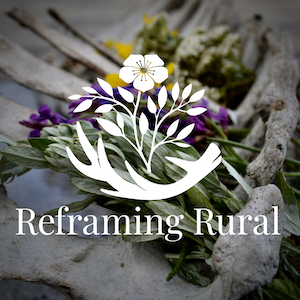
Megan Torgerson is a podcaster and the creator of Reframing Rural, a narrative podcast whose mission is to “share stories of people and places in rural America in an effort to celebrate culture, preserve history and cultivate curiosity and conversation across geographic, class and cultural divides.” In just three seasons, Megan has grown Reframing Rural from a spark of an idea into a highly regarded podcast, one that has been recognized by institutions such as the Headwaters Foundation, Montana Farmers Union, Humanities Montana, and more. Personally, I have learned a ton from Megan’s work, so it was an honor to have her join me on the podcast.
Megan was born and raised on the Great Plains of eastern Montana, primarily in the small town of Dagmar. She attended the University of Montana in Missoula and eventually made her way to graduate school in Seattle, where she earned her MFA. As you’ll hear in this conversation, during her time in grad school, Megan began exploring the idea of a podcast that focused on rural America. Rather than getting bogged down in endless planning and idea generation, she took action, produced Season 1, and put it out into the world in spring 2020. Fast forward to today, and Megan has a team that works with her, she continues to receive wide-ranging recognition, and the show is being broadcast on several Montana radio stations.
I’ve known Megan for a year or so, but this was the first time I had a chance to ask her detailed questions about her journey as a storyteller. We started out talking about her upbringing in Dagmar, as well as her educational background and early career. We discuss why she decided to create a narrative podcast, and she explains the very involved process of creating a single episode. We discuss some of the issues that she explores in Reframing Rural, including rural gentrification, which was the topic of one of her most recent episodes. We discuss her generosity in the podcast space, whether or not she considers herself a journalist, why she is optimistic about the future of rural America, some advice for aspiring podcasters, and she has lots of amazing book recommendations.
If you haven’t already, I’d encourage you to subscribe to Reframing Rural on your favorite podcast app. Megan is committed and she’s a pro, and I know that Mountain & Prairie listeners will appreciate the amazing work she’s putting into the world. Enjoy!
Photos courtesy of Megan Torgerson and Reframing Rural
LISTEN & DOWNLOAD:
Apple Podcasts
Spotify
Google Podcasts
... or wherever you get your podcasts!
—
RESOURCES:
Topics Discussed:
- 5:30 - Megan’s childhood
- 12:30 - What Megan hoped to do once she went to college in Missoula
- 15:00 - How Megan’s passions inspired hard work
- 17:15 - Why Megan started Reframing Rural
- 22:00 - Why Megan produces a narrative style podcast
- 26:00 - When did Megan plan for podcasting to become a job
- 28:30 - Megan’s experience with why podcasts generate such compelling stories and interviews
- 31:30 - Whether podcasting is a journalistic or creative endeavor for Megan, and whether she is concerned or not with “taking sides”
- 35:30 - An example of Megan’s podcast topics
- 39:30 - If Megan worries about negative feedback to her show, and how she handles it
- 44:30 - Where Megan’s generosity comes from
- 47:30 - What Megan is optimistic about regarding rural America
- 51:30 - How Megan measures success as a storyteller
- 53:30 - Other storytellers that Megan admires
- 55:15 - How to start a podcast, according to Megan
- 57:30 - How long the Dover episode took Megan to make
- 59:15 - Megan’s accolades
- 1:02:30 - Megan’s book recommendations
- 1:06:15 - Megan’s parting words of wisdom
Information Referenced:
- Reframing Rural
- Episode 1: Preservation and Motherhood on the Northern Great Plains (Kim Rudningen episode)
- Episode 5: A Snapshot of Family Farming Amid Cycles of Modernization and Migration (the episode with Megan’s family)
- "Groundwork" Episode 2: Farm Succession in Northeast Montana
- “Groundwork” Episode 3: A Conversation with Kathleen McLaughlin on Class Inequality & Cultural Extraction in a Changing Montana (an episode regarding rural gentrification)
- "Groundwork" Episode 4: Rural Gentrification in North Idaho
- Ashville, NC
- Dagmar, MT
- Williston, ND
- Sheridan county (MT)
- Medicine Lake, MT
- Saskatchewan
- Missoula, MT
- Prague
- Charles University
- Au pair
- Czechoslovakia
- Slovakia
- University of Montana
- National Outdoor Leadership School
- Big Sky Documentary Film Festival
- Seattle University
- SU Arts Leadership Program
- On Being Podcast with Krista Tippett
- The Modern West Podcast
- Decolonizing Methodologies by Linda Tuhiwai Smith
- Māori
- Quonset
- Business Impact NW
- Dover, ID
- Chloé Zhao
- Pine Ridge Reservation
- Songs My Brother Taught Me
- The Rider
- Billionaire Wilderness by Justin Farrell
- Pushed Out by Ryanne Pilgerim
- Sandpoint, ID
- Pend Oreille River
- Lake Pend Oreille
- Kalispell, MT
- Road House
- “Opinions vary” clip, Road House
- Tombstone
- Doc Holliday
- Billy Bob Thornton
- “I’m sorry I forgot you were there” clip, Tombstone
- The Rural Radio Collective
- Sunset Hill, Seattle
- Ballard, Seattle
- Red Ants Pants
- Sarah Calhoun
- Red Ants Pants Foundation
- Red Ants Pants Music Festival
- Girls Leadership Program
- Reimagining Rural, MSU Extension
- Amber Smith
- Women in Ranching
- Tara Mastel
- Pete McBride
- Headwaters Foundation
- Heartland by Sarah Smarsh
- S.G. Goodman
- Tascam field recorder
- Shure microphone
- Public Humanities Fellowship
- Butte America Radio
- Gallatin Valley Community Radio
- Missoula Community Access Television
- Humanities Montana
- Montana Farmers Union
- Braiding Sweetgrass by Robin Wall Kimmerer
- The Myth of Normal by Gabor Maté
- The Last Best Place Co-Edited by William Kitrich and Annick Smith
- Assiniboine people
- The Shepherd’s Life by James Rebanks
- English Pastoral by James Rebanks
- Dakota by Kathleen Norris
- The Hugo House
- Joe Wilkins Writing Classes at Hugo House
- Thieve by Joe Wilkins
- Killing the Murnion Dogs by Joe Wilkins
- Becoming Wise by Krista Tippett
- Sound Reporting by Jonathan
- Out on the Wire by Jessica Abel
- Jessica Abel
- Ira Glass
- On Writing Well by William Zinzer
- Writing Tools by Roy Peter Clark
- On Writing by Stephen King
- Norse Mythology by Neil Gaiman
- The Sentence by Louise Erdrich
- George Floyd
- The Overstory by Richard Powers
Enjoy this episode? Then you might like these too:
- John Branch – Seeking the Extraordinary in the Ordinary
- Shane Doyle – Reverence for the Past, Hope for the Future
- Heather Hansman, Part 2 – The Fascinating Story of Skiing’s Past, Present & Future
- Betsy Gaines Quammen – A Fascinating History of Public Lands in the West
- Pete McBride, Part 2: In Search of Silence
- Mike McTee & Vince Slabe – Win-Win Solutions in the Fight to Save Eagles
- Juanita Vero, Part 2 – A Deep Desire to Serve
- Jessica Wahl Turner – Outdoor Recreation & Rural Economies
Visit the podcast page for a full, searchable list of episodes

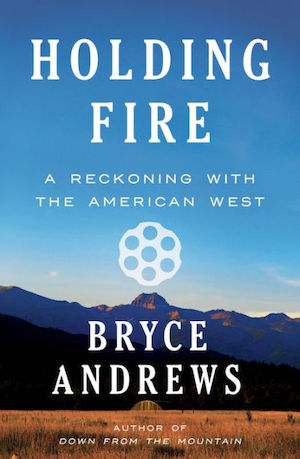
Bryce Andrews is a Montana-based rancher and writer, and he's the author of the brand new book Holding Fire: A Reckoning with the American West. Longtime Mountain & Prairie listeners will remember my first conversation with Bryce back in 2019 when we discussed his writing, conservation work, ranching experience, and his first two books. I thoroughly enjoyed that first conversation and was so impressed with Bryce’s thoughtfulness, curiosity, and humility, so I was thrilled to have him back on the podcast to discuss Holding Fire.
Holding Fire is a thought-provoking memoir that explores Bryce’s complicated and evolving relationship with the landscape, culture, and history of the American West. Much of the story focuses on his grandfather’s Smith and Wesson revolver– a gun that he inherited and owned for many years while living and working in Montana. But despite being a committed big game hunter and owner of many guns, Bryce’s feelings toward the revolver began to change. As you’ll hear him explain, he eventually befriends a master blacksmith, learns to forge steel, and transforms the revolver from a gun into a tool that he now uses to plant trees on his property.
I loved the book, and it forced me to reexamine many of my baked-in notions about everything from the history of the West to my ideas about hunting for food, mental health, and the culture of the modern-day American West. We talked about why Bryce chose this particular topic for the subject of a book, his long-standing love of hunting, and why he decided to repurpose the revolver into a ranch tool. We discuss what he learned about craftsmanship from the blacksmith, the importance of converting guilt into action, and how fatherhood has changed his approach to life and work. We also talk about this summer’s Old Salt Festival, he and his wife’s stewardship of their ranch, and he offers up lots of excellent book recommendations.
And if you want to read and discuss a chapter of Bryce’s book for free, then download the new social reading app called Threadable. I have recently partnered with Threadable to highlight and discuss a number of readings about the history of the American West, including chapters from Sara Dant’s Losing Eden, and Roxanne Dunbar-Ortiz’s An Indigenous Peoples’ History of the United States. Threadable allows users to read portions of great books, then discuss them in a fun and interactive way. As of this recording, Threadable is only for iOS, but if you want to read a sample of Holding Fire and discuss it with the Mountain & Prairie community, follow this link to download the app (on your mobile device). I’ve really been enjoying it.
Thanks to Bryce for another wonderful conversation, and thank you for listening. Hope you enjoy.
Photos courtesy of Bryce Andrews
LISTEN & DOWNLOAD:
Apple Podcasts
Spotify
Google Podcasts
... or wherever you get your podcasts!
—
RESOURCES:
Topics Discussed:
- 3:00 - Bryce’s process for choosing the topic of Holding Fire
- 6:15 - Bryce’s father’s choices of nonviolence during the Vietnam War
- 11:30 - How guns became a part of Bryce’s life
- 13:45 - Bryce’s background in hunting
- 18:45 - Bryce’s scariest interaction with people and guns
- 21:45 - The problem with “tough guys with guns”
- 24:00 - A winter’s impact on Bryce’s thoughts regarding guns
- 29:45 - Exploring the concept of guilt
- 30:30 - Exploring the cultural significance of fire and firearms with women of the Salish and Kootenai Tribes
- 34:30 - What Bryce has done on his property since purchase
- 38:00 - How writing fits into Bryce’s busy life
- 44:45 - How having a daughter has changed Bryce’s work, writing, and life
- 48:30 - How Bryce became involved in the Old Salt Festival
- 51:30 - What Bryce learned about creativity from a metalsmith
- 54:30 - Discussing action as the antidote to despair
- 55:45 - Bryce’s book recommendations
Information Referenced:
- Holding Fire by Bryce Andrews
- Bryce Andrews
- Conscientious Objector
- The Sun Ranch
- Laurel, MT
- Ed’s Elk Hunt Episode
- Badluck Way by Bryce Andrews
- Missoula, MT
- .357 Magnum
- Dr. Katherine Hayhoe
- Germaine White
- Confederated Salish and Kootenai Tribes
- Plymouth Colony
- Rotational grazing
- Flathead Reservation
- The Memoirs of Stockholm Sven by Nathaniel Ian Miller
- Old Salt Festival
- Old Salt Co-op
- Cole Mannix
- Blackfoot Valley
- Helmville, MT
- David James Duncan
- Debra Magpie Earling
- Perma Red by Debrah Magpie Earling
- Chris Dombrowski
- Jeffrey Funk
- The New Agrarian School
- Smelting
- Salish Sea Region
- A Story as Sharp as a Knife by Robert Bringhurst
- Haida people
- The River You Touch by Chris Dombrowski
- Sun House by David James Duncan
Enjoy this episode? Then you might like these too:
- Chris Dombrowski, Part 2 – “The River You Touch”
- Cole Mannix – Building Community through Land Stewardship and Local Food
- Amber Smith – Creating Connection & Community
- Dr. Eric Arzubi – A New Approach to Solving the West’s Mental Health Crisis
- Reflections On My First Elk Hunt, with Adam Gall
- Elliott Woods – Stories from Dangerous Places
- Heather Hansman, Part 2 – The Fascinating Story of Skiing’s Past, Present & Future
- Antonia Malchik – Exploring Culture & Complexity
Visit the podcast page for a full, searchable list of episodes

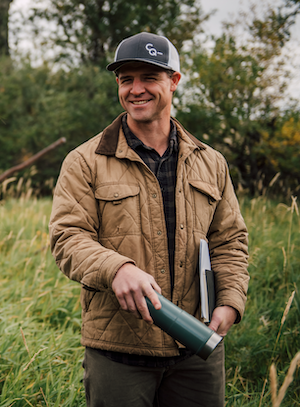
Cole Mannix is the President and Founder of the Old Salt Co-op, a new, purpose-driven company that “provides meat raised with integrity from Montana landscapes its customers know and care about.” Cole and his team partner with a growing number of Montana ranches, butchers, chefs, and businesses to connect customers and producers, while simultaneously encouraging and promoting a deeper understanding of land stewardship, community, and the interconnectedness of Montana landscapes.
Cole was born and raised in Montana, and he is a member of the fifth generation of the Mannix Family who has been stewarding their family ranch in Montana’s Blackfoot Valley since the late 1800s. Cole has followed a fascinating educational and career path, mixing his degrees in biology, philosophy, and theology with wide-ranging work in both entrepreneurial ventures and non-profit conservation work. And as you’ll hear in this conversation, the common thread that connects all of Cole’s experiences is a deep love and respect for the land and all that it can provide.
One of the most exciting projects that Cole is currently working on is the Old Salt Festival, a three-day festival taking place this June on the Mannix Ranch, just outside of Helmville, Montana. It’s much more than a music festival– it’s a celebration of land and land stewardship, and it will feature an eclectic mix of artists, authors, poets, storytellers, chefs and more. I’ll be at the event hosting some live podcast conversations, and there will be appearances by a number of past M&P guests, including singer-songwriter Riddy Arman, author-poet Chris Dombrowski, author-rancher Bryce Andrews, and more. Novelist David James Duncan will be reading, and chef Eduardo Garcia will be cooking. So we spend a lot of time discussing this event, its purpose, and how the whole idea came together.

This is a wonderful conversation about following your interests, working hard, and doing purpose-driven work that is connected to land and community. Check out the episode notes for a full list of all the topics we discussed, as well as links to the Co-op and this summer’s Festival. Thanks so much to Cole for joining me, and thanks to you for listening.
Photos courtesy of Cole Mannix and the Old Salt Co-op
LISTEN & DOWNLOAD:
Apple Podcasts
Spotify
Google Podcasts
... or wherever you get your podcasts!
—
RESOURCES:
Topics Discussed:
- 3:45 - Cole explains the Mannix family tree
- 5:45 - Cole discusses his family history
- 7:45 - Overview of the Old Salt Co-op
- 13:00 - Cole explains what motivated him to begin the Old Salt Co-op, and describes what it was like to leave a steady job to start something uncertain
- 17:45 - The value proposition that sets Old Salt Co-op apart
- 20:45 - The biggest obstacle/most important factor is for the business model of Old Salt Co-op
- 27:00 - The biggest surprises in the building of Old Salt Co-op
- 31:00 - How he stays focused and keeps track of real progress
- 33:45- The Old Salt Festival in more detail, including the musical, culinary, and land stewardship talent that will be featured
- 40:30 - Cole dives more into his career and backstory, including his interest and study in philosophy
- 45:45 - His career shift from teaching to entrepreneurship
- 53:45 - Lessons he learned from past business difficulties and how they inform his current enterprises
- 57:00 - Cole discusses what he does when he isn’t working
- 58:00 - Book recommendations
- 1:01:00 - Parting words of wisdom
Information Referenced:
- Cole Mannix
- Mannix Brothers Ranch
- Old Salt Co-op
- Old Salt Outpost
- Old Salt Festival
- Kate Mannix
- Helena, MT
- Helmville, MT
- Plant City, FL
- Sysco
- Food Services of America, Inc (owned by US Foods)
- Western Landowners Alliance
- Missoula, MT
- The Blackfoot River
- MeatEater
- This is Marketing by Seth Godin
- Austin, TX
- Portland, OR
- Build.com
- Hoodoo Mountain, MT
- Riddy Arman
- Jalan Crossland
- The River Why by David James Duncan
- The Brothers K by David James Duncan
- Debra Magpie Earling
- Jillian Lukiwski
- Cate Havstad
- Boulder, CO
- South Park, CO
- Campesinos
- Carroll College
- Ranching for Profit
- Executive Link
- Greeley, CO
- Fort Morgan, CO
- Denver, CO
- Country of Origin Labeling
- Shopify
- Horsefly, BC
- Pharis and Jason Romero
- On the Origin of Species by Charles Darwin
- Plato
- Allan Savory
- Small is Beautiful by E.F Schumacher
- Wes Jackson
- The Land Institute
- The Unsettling of America by Wendell Berry
- Jayber Crow by Wendell Berry
- Working Wilderness by Nathan Sayre
- Malpai Borderlands Group
- Blackfoot Challenge
- Jim Corbet
Enjoy this episode? Then you might like these too:
- Kate Mannix – A Legacy of Land Stewardship
- Amber Smith – Creating Connection & Community
- Riddy Arman – Artistic Authenticity
- Dr. David Hewitt – The Science of Wildlife Conservation
- Juanita Vero, Part 2 – A Deep Desire to Serve
- Daniela Ibarra-Howell – Healing the Land Holistically
- Land Tawney – Energetic & Optimistic
- Chris Dombrowski, Part 2 – “The River You Touch”
Visit the podcast page for a full, searchable list of episodes

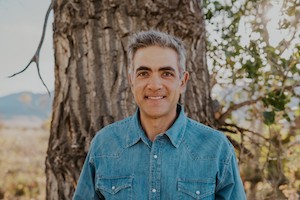
Carlos Fernandez is the Colorado State Director of The Nature Conservancy, one of the most effective conservation organizations in the American West and around the globe. You probably remember Carlos from our first conversation back in August of 2020, in which we discussed his inspiring career trajectory, the importance of collaborative conservation partnerships, and several of TNC’s cutting-edge initiatives throughout the West.
When we recorded that first episode, we were in the very early stages of the pandemic– a time marked by unprecedented uncertainty in almost every aspect of life. When we recorded today’s episode– nearly two-and-a-half years after that first conversation– the worst of the pandemic is now behind us. Carlos was able to look back on that trying period with some perspective, discussing the many challenges and opportunities that arose from such a difficult few years. This conversation is a case study of how critical work can be produced during challenging times, and how optimism, focus, and old-fashioned teamwork can lead to lasting outcomes.
Carlos and I met up at his office in Boulder and had an in-depth conversation about TNC’s conservation initiatives and collaborations over the past few years. I asked Carlos about his leadership strategies and tactics during the most intense days of the pandemic and what he and TNC learned from those challenges. We talk about Carlos’s recent 2022 year-end letter and TNC Colorado’s 2022 Year In Review, and we dig into several inspiring conservation victories from the past 12 months. We also revisit the Southern High Plains Initiative and the Yampa River Fund, and we discuss TNC’s future plans around climate change and diversity, equity, and inclusion. We also talk about this year-long partnership between TNC and Mountain & Prairie, which we are both very excited about.
A huge thank you to Carlos for taking the time to chat, and a huge thanks to all of you for listening. I hope you enjoy!
Photos courtesy of Carlos Fernández
LISTEN & DOWNLOAD:
Download on Apple Podcasts
Download on Spotify
Download on Google Podcasts
…or wherever you get your podcasts!
EPISODE PARTNER:

This episode is brought to you in partnership with the Colorado chapter of The Nature Conservancy. Guided by science and grounded by decades of collaborative partnerships, The Nature Conservancy has a long-standing legacy of achieving lasting results to create a world where nature and people thrive.
On the fourth Tuesday of every month throughout 2023, Mountain & Prairie will be delving into conversations with a wide range of The Nature Conservancy’s leaders, partners, collaborators, and stakeholders, highlighting the myriad of conservation challenges, opportunities, and solutions here in the American West. You can access all of the 2023 episodes here.
To learn more about The Nature Conservancy’s impactful work in Colorado and around the world, visit www.nature.org/colorado.
RESOURCES:
Topics Discussed:
- 3:00 - Carlos discusses the evolution of TNC Colorado during COVID
- 10:00 - Why the eastern plains and grasslands of Colorado are important and such a focus area of TNC Colorado’s work
- 12:00 - The power of partnerships in conservation work
- 14:45 - Why TNC Colorado feels it is important to focus on underserved and underrepresented groups in any work concerning climate change and conservation
- 19:30 - The importance of storytelling in conservation work
- 23:00 - How he and TNC prioritizes the focal points of their work, including who he seeks council from
- 30:45 - What he is excited about for TNC Colorado moving forward
- 33:30 - How he evaluates difficult choices and newest trends in conservation to ensure action is intentional and not controlled by external trends (not chasing every shiny object)
- 36:30 - What he thinks TNC Colorado’s role is in the state’s overall conservation sector, returning again to the importance of partnership and collaboration in this field
- 44:00 - The Yampa River Fund and updates us on its progress
- 49:45 - TNC’s relationships with businesses
- 53:00 - Advice for folks looking to work in conservation
- 56:00 - Carlos and Ed talk about the upcoming podcast series that Mountain & Prairie will be conducting with TNC Colorado
- 59:45 - Book recommendations
- 1:01:45 - Parting words of wisdom
Information Referenced:
- Carlos Fernández's first interview - The Power of Partnerships
- The Nature Conservancy, Colorado
- Fishers Peak State Park
- Boulder, CO
- Steamboat Springs, CO
- Idaho Springs, CO
- Southern High Plains Initiative
- NRCS - Natural Resources Conservation Service
- TNC Colorado's 2022 Year in Review
- Dust Bowl
- Colorado River Compact
- Southern Ute Indian Tribe
- Ute Mountain Ute Tribe
- Dr. Katharine Hayhoe
- RCN - Resilient and Connected Network
- Land Trust Alliance
- Great Outdoors Colorado
- Colorado Climate Plan
- Colorado Conservation, Outdoor Recreation, and Climate Resilience Planning
- Keep it Colorado
- Western Dry Forest and Fire Initiative
- Raton Pass
- Santa Fe, NM
- Trinidad, CO
- Colorado Department of Natural Resources
- Trust for Public Land
- Yampa River Fund
- Riparian area
- Yampa Valley Community Foundation
- Steamboat Ski Company
- Big Agnes
- Friends of the Yampa
- Eagle River
- San Juan River
- San Miguel River
- Telluride, CO
- Telluride Foundation
- Palmer Land Conservancy
- Colorado Outdoor Recreation Industry Office
- Smart Wool
- VF Corporation
- TNC Careers
- Next 100 Colorado
- Rick Ridgeway
- Saving Us by Catherine Heyho
- The Ministry for the Future by Kim Stanley Robinson
- Michael Bennet
- Joe Neguse
- David Gessner
- Mark Kenyon
- Steven Rinella
- Adam Gall
Enjoy this episode? Then you might like these too:
- Francesca Claverie – A Borderlands Conservation Success Story
- Nate Schweber – A Forgotten Chapter of American Conservation
- Pete McBride, Part 2: In Search of Silence
- Rick Ridgeway – Purpose-Driven Adventurer
- Land Tawney – Energetic & Optimistic
- Liz Moore – For the Love of Montana
- Kate Mannix – A Legacy of Land Stewardship
- Lesli Allison & Tuda Libby Crews – Durable Conservation in the West… and Beyond
Visit the podcast page for a full list of episodes where you can filter episodes by topic and guests' vocations.

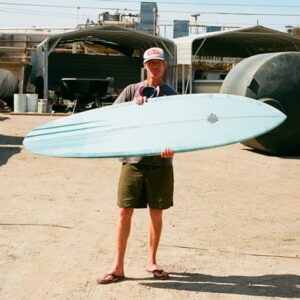
Christian Beamish is a writer, craftsman, surfboard shaper, and all-around adventurer who lives and works between Ventura and Carpinteria, California. He’s the author of one of my favorite books– The Voyage of the Cormorant– which tells his deeply personal story of building an open-hulled boat by hand and then sailing it down the Baja Peninsula alone, surfing and camping along the way. He’s also the owner of Surfboards California, where he hand-shapes a wide variety of custom boards for surfers of all skill levels.
Christian grew up in California, and for as long as he can remember, he’s been connected to the ocean and committed to building things. He’s lived an adventurous life that included a stint in the military, surf trips to the far reaches of the globe, and sailing trips up and down the Pacific Coast. And in addition to his work shaping surfboards and writing, he’s also a committed husband, father, and community member. I greatly admire how Christian manages to balance all of these sometimes-competing roles, and I gained a lot of valuable perspective from this conversation.
I met up with Christian in Carpinteria, just a few blocks from the Pacific Ocean, in a building that is home to several surfboard shapers and various creative folks. I’ve admired Christian’s writing for over a decade, so it was a dream come true to have the opportunity to spend the morning with him. We covered a ton in this hour-long conversation– his lifelong connection to the ocean and craftsmanship, lessons learned from the military, how he developed his skill for writing, his amazing book The Voyage of the Cormorant, fatherhood, dealing with intense emotions, the craft of shaping surfboards, favorite books and authors, and much more. You can check out the episode notes for a list of all the topics we discussed and links to everything.
A huge thanks to Christian for welcoming me into his shop, and thanks to all of you for listening. Hope you enjoy.
Photos courtesy of Christian Beamish
LISTEN & DOWNLOAD:
Apple Podcasts
Spotify
Google Podcasts
... or wherever you get your podcasts!
—
RESOURCES:
Topics Discussed:
- 4:00 - Christian talks about where he grew up
- 9:15 - What influenced his desire to build things
- 10:15 - Christian's relationship with work
- 12:30 - His writing practice and talks about when writing came into his life
- 16:00 - Christian tangles with how his literary interests and writing reconcile with his service in the US Navy
- 17:15 - Overview of his book, The Voyage of the Cormorant
- 24:45 - Christian reflects on the person he was when he started the voyage that inspired his book
- 27:30 - The inner challenges he experienced during his voyage
- 31:30 - His strategies for dealing with emotional challenges
- 33:00 - How having kids has affected his life
- 38:45 - Christian describes the surfboards he designs
- 43:00 - His transition from more standard surfing to big wave surfing
- 50:45 - Christian and Ed briefly discuss skiing
- 54:30 - Book recommendations, and a discussion of his family’s history
- 1:01:00 - Parting words of advice for budding crafters and creators
Information Referenced:
- Christian Beamish
- Surfboards California
- The Voyage of the Cormorant by Christian Beamish
- Newport Beach, CA
- Orange County, CA
- Laguna Beach, CA
- Dane Kealoha
- Eddie Aikau
- Hokulea
- Seabee Battalion
- Gulfport, MS
- New Orleans, LA
- Cape Verde Islands
- Philippines
- Guam
- Pipe Masters
- Cabo San Lucas
- Baja
- Patagonia Books
- Ernest Hemingway
- Jack Kerouac
- Joan Didion
- The High Sierras
- Desolation Angels by Jack Kerouac
- Pigeon Point Lighthouse
- Halfmoon Bay
- Latin-rig boats
- Shetland
- The Surfer’s Journal
- Sabot
- Laser
- Tiller
- Balanced Lug Sail
- Back to the Future Part II
- Kelly Slater
- Ventura, CA
- Logan Hagege
- Concave bottom surfboards
- Duke Kahanamoku
- Heʻe Nalu
- Mavericks, CA
- Todos Santos
- UC Santa Cruz
- North Coast, CA
- McCoy Surf Designs, Greg Pautsch
- Greg Liddle
- Pintail surfboards
- Channel bottom
- Clinker boat building
- Danny Hess
- Cornice (snow)
- Santa Fe Ski Basin
- Concept of Aloha
- UC Santa Barbara
- Ireland Since the Famine by F.S. Lyons
- Skibbereen, Ireland
- County Cork
- Taranaki, NZ
- Irish Potato Famine
- Cape Fear River
- Patea, NZ
- The Royal Irish Armed Constabulary
- Ngāti Ruanui
- Iwi
- Hughes Aircraft
- The Life of Johnson by James Boswell
Enjoy this episode? Then you might like these too:
- Logan Maxwell Hagege – Artistic Evolution
- Jessica Lewis – Doing More With Less
- Peter Heller – Chasing the Flow
- Chris Burkard, Part 2 – Seeking Beauty Through Adventure
- Alvin Dedeaux – Living His Dream
- Frances Ashforth – Art, Water, and Wide-Open Spaces
- Chris Dombrowski, Part 2 – “The River You Touch”
- Steve Casimiro – Voice of Adventure
Visit the podcast page for a full, searchable list of episodes

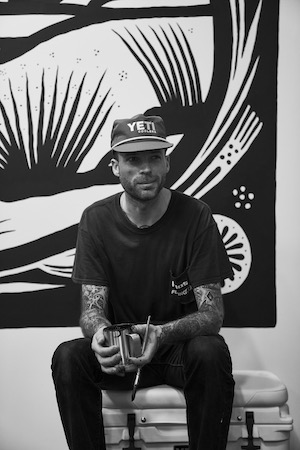
(photo credit: Dylan Schmitz)
Jess Mudgett is an artist, skater, surfer, and occasional ranch hand who specializes in one-of-a-kind designs that appear everywhere from murals in the rural West to the Yeti offices in downtown Austin. Fans of Jess’s work can spot his art from a mile away– he’s known for bold, often-times big portrayals of western landscapes, horses, birds, people, and more, all presented in a style that is uniquely his own. If you’re not familiar with Jess’s art, I’d encourage you to visit his Instagram page while listening– here's a link.
Jess was raised in Fort Collins, Colorado, and grew up obsessed with and fully committed to skateboarding. While attending art school in Portland, he dropped out to go on a professionally funded skate trip, which ultimately led to getting his foot in the door with the art department of a skate company. After a few years, Jess returned to school to earn his degree, and his path as a professional artist was set. Currently, Jess is based in Portland, but spends big portions of the year traveling the West in his truck, creating art for a wide variety of well-known companies and individuals.
Jess and I met up at my house in Colorado Springs and had a fun conversation about his life as an artist. We started out discussing his upbringing in Fort Collins and how skating and art became the focus of his life. We discuss his creative process, his partnerships with popular brands, and his relationship with the renowned photographer (and past podcast guest) Chris Burkard. Jess describes his time working on Mark Carter’s Wyoming ranch, his lifestyle of living on the road, how he pushes through self-doubt, his love of tattoos, and some of the artists who have inspired him over the years. And what I loved most about this conversation was Jess’s overall vibe of deep gratitude and true humility– I think you’ll be inspired by his approach to life and art.
And as a surprise, Jess created a special Mountain & Prairie design that I know you’ll love– I sure do. I’m going to be offering this design on special edition t-shirts, stickers, and coffee mugs in the Mountain & Prairie shop. It’s an awesome design, and I’m honored that Jess took the time to create such a unique piece just for Mountain & Prairie listeners.
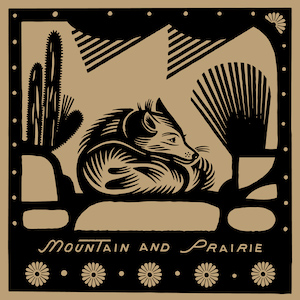
Once again, thanks for taking the time to listen. I hope you enjoy this conversation with the great Jess Mudgett.
Header photo by Mark Welsh, photo of Jess by Dylan Schmitz
LISTEN & DOWNLOAD:
Apple Podcasts
Spotify
Google Podcasts
... or wherever you get your podcasts!
—
RESOURCES:
Topics Discussed:
- 4:10 – Jess discusses growing up and the role his parents played in his childhood
- 6:00 – Jess talks about how skateboarding became a part of his life and art
- 7:15 – Jess discusses the next step in his life after high school: going to art school
- 13:45 – Jess and Ed talk about surfing
- 16:30 – Jess discusses his life after art school, including how he worked his way into NHS skate company
- 23:30 – Jess talks about his current lifestyle, including living out of his truck
- 26:45 – Jess discusses his stint working on a ranch at the beginning of COVID, as well as how it changed him
- 31:15 – Jess talks about how he manages his creative time
- 35:30 – Jess discusses his relationship with Chris Burkard, as well as why he thinks Chris has been so successful
- 41:45 – Jess talks about tattoos becoming a part of his life
- 43:45 – Jess describes his art as he sees it today
- 44:30 – Jess talks about the artists who inspire him
- 47:15 – Jess discusses self-criticism in his work
- 47:45 – Jess talks about how his relationship with Yeti began
- 51:00 – Jess talks about the times in his artistic career where he has felt like quitting
- 53:45 – Jess’s advice for your creatives
- 58:45 – Jess’s book recommendations
- 1:00:30 – Jess’s parting words of wisdom
Information Referenced:
- Jess Mudgett
- Fort Collins, CO
- Laramie, WY
- Charles Russell
- Jeremy Fish
- Shepard Fairey
- The Huberman Lab podcast
- Jocko Podcast
- NHS Inc.
- Geoff Rowley
- Rick Wittenbraker
- Mark Welsh
- Mark Carter
- Video of painting the abandoned building
- Monster Children
- Ten Sleep, WY
- Christian Beamish
- Callan Wink
- Ranchlands
- Chris Burkard
- Pismo Beach, CA
- Smith Optics
- Mark Maggiori
- Mike Giant
- Yeti
- Being Nixon by Evan Thomas
- Lonesome Dove by Larry McMurtry
- Blood and Thunder by Hampton Sides
- Blood Meridian by Cormac McCarthy
- The Alchemist by Paulo Coehlo
- Edward Abbey
Enjoy this episode? Then you might like these too:
- Chris Burkard, Part 2 – Seeking Beauty Through Adventure
- Pete McBride, Part 2: In Search of Silence
- Alvin Dedeaux – Living His Dream
- Riddy Arman – Artistic Authenticity
- Luke Smithwick – A Life in High Places
- Nicole Morgenthau – Curiosity & Creativity
- Jason Gardner – A Life of Purpose & Service
- Kelsey Johnson – Chasing Her Artistic Ambitions
- Iris Gardner – Living with Intention
- Kate Kavanaugh – Regeneration & Restoration
Visit the podcast page for a full, searchable list of episodes

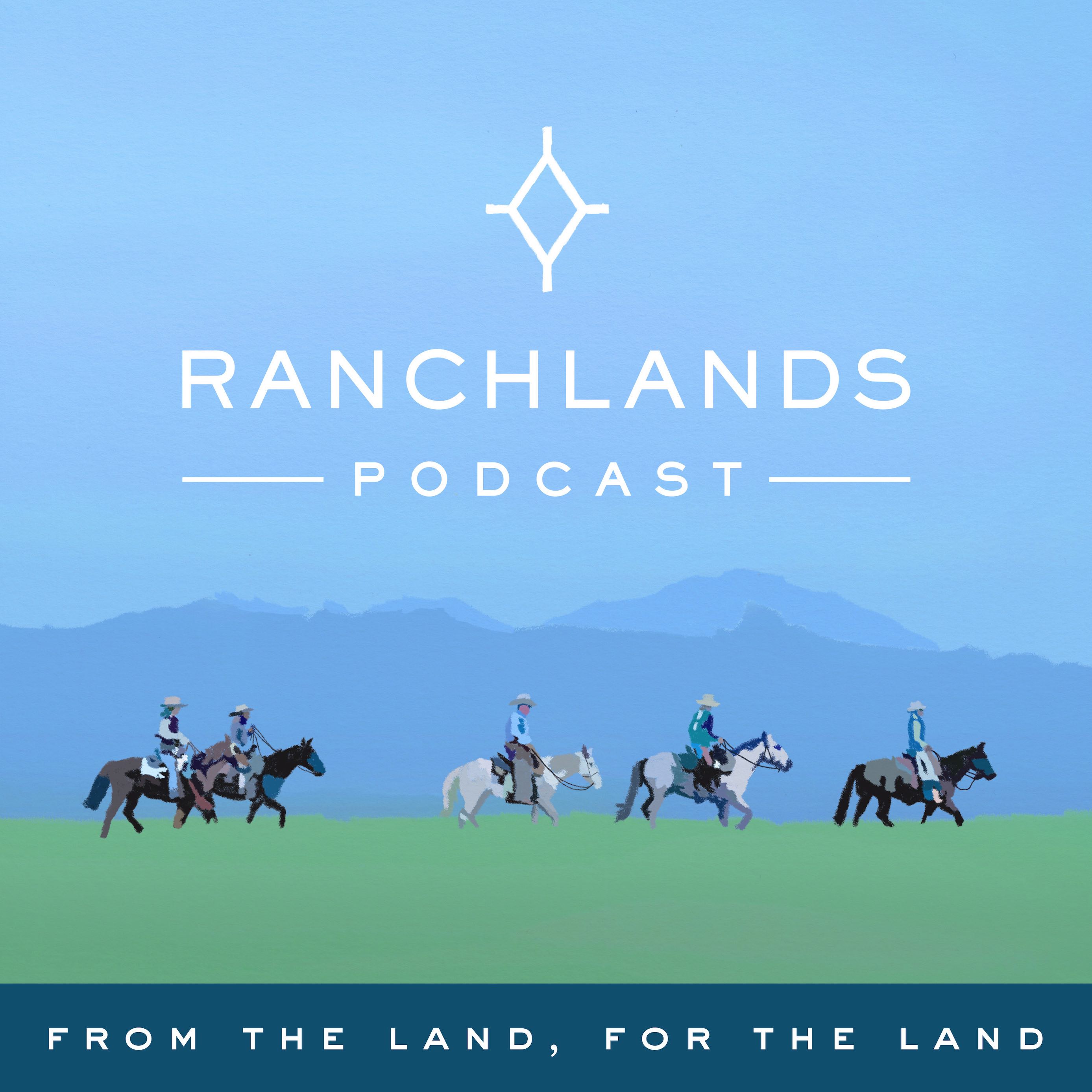
If you’re a Mountain & Prairie Patreon supporter, then you probably already know that I recently began hosting another podcast for my friends at Ranchlands. It’s called the Ranchlands Podcast, and it features conversations with members of the Ranchlands community. As of today, we’re about ten episodes in, and we feel very grateful that the podcast has been well-received and shared widely.
For those of you who have not listened to it, I wanted to share one episode here on Mountain & Prairie. This one features my conversation with Kate Matheson, who is the ranch manager of the Zapata Ranch located in Colorado’s San Luis Valley. Kate was born and raised in England and enjoyed a successful career in publishing and fashion before picking up and heading to the American West. It’s a cool story.
This was a fun, inspiring conversation that I know will resonate with Mountain & Prairie listeners. If you want to listen to more of the Ranchlands Podcast, you can subscribe to it using the link in the notes or wherever you get your podcasts.
And if you want to hang out with Kate and me at the Zapata Ranch this upcoming summer, I encourage you to check out my second annual Strenuous Life Retreat, which takes place in August of 2023. It's five full days of adventure, learning, conversation, and camaraderie, all in the spirit of Theodore Roosevelt’s commitment to living the Strenuous Life.
The 2022 retreat was a huge success: We hiked high into the Sangre de Cristo Range, rode horses in Great Sand Dunes National Park and alongside bison and elk on the Medano Ranch. We had discussions about conservation and regenerative agriculture with expert guests, we started each day with strenuous exercise and ended each day with top-notch dinners and a campfire.
The retreat is a one-of-a-kind opportunity to spend five days with a like-minded crew, immersed in one of the West’s most spectacular landscapes, pushing yourself hard both physically and intellectually.
But without further delay, here’s episode nine of the Ranchlands Podcast, featuring the amazing Kate Matheson.
Photos courtesy of Ranchlands
LISTEN & DOWNLOAD:
Apple Podcasts
Spotify
Google Podcasts
... or wherever you get your podcasts!
—
RESOURCES:
Topics Discussed:
- 4:20 - Kate’s history with horses
- 10:00 - School and career post-high school
- 14:40 - Breaking into the magazine business
- 20:45 - Kate’s impression of the US before moving here
- 22:45 - Moving to Montana
- 28:00 - How did Montana change Kate?
- 32:40 - Quitting her job and moving back to Montana
- 36:00 - Meeting the Phillips family
- 41:54 - Beginning work at Ranchlands
- 44:15 - How Kate combines her passions with her career
- 50:00 - Life-changing experiences at Zapata
- 54:20 - Why should city dwellers care about the land
- 55:25 - Misconceptions about ranching
- 56:45 - Resources
- 57:40 - Sources of hope
Information Referenced:
- Mojo Magazine
- Bliss Magazine
- Glamour Magazine
- Billings, MT
- Chico Basin Ranch
- Zapata Ranch
- For the Love of Soil by Nicole Masters
- Sacred Cow by Diane Rodgers

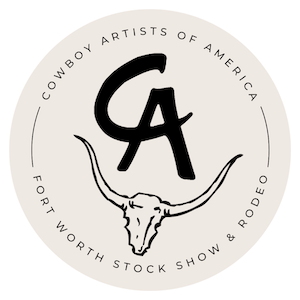
This is a special episode that was recorded live in Fort Worth, Texas as part of the Cowboy Artists of America’s 56th annual exhibition and sale. The show was called “Stories From Around the Campfire,” and it was held at the world-renowned Amon Carter Musem of American Art. I was joined on stage by seven influential members CAA community, and we had a panel discussion about the rich history and bright future of the organization. As you’ll hear, the event was partly an in-depth, educational discussion about the history of the CAA and western art markets, with the other part being hilarious stories from the organization’s past 56 years.
This event was the brainchild of CAA member and my good friend Teal Blake, who joined me on the podcast several years ago. Sitting on stage with me for the event were Fred Fellows, Jody Beeler, Bill Nebeker, Seth Hopkins, Tim Newton, Red Steagall, and Bruce Greene, all of whom are legends in the western art world– you can read more about all of them using the links below. Each of these gentlemen brought a unique perspective and distinct experiences to the conversation. But across the board, they all share a deep love of the West, authentic artistic humility, and unwavering respect for the legacy of the CAA.
This conversation winds in and out of many fascinating (and sometimes hilarious) topics. We had great discussions about the creative process, the idea of fully committing to the life of an artist, and how mentorship plays a huge role in the artist’s journey. We discussed the CAA’s unprecedented longevity in the art world, and how the group’s annual trail ride plays an important role in building friendships and strong bonds between the artists. We talk about how the CAA selects new members, and how the organization has evolved artistically over the decades. There is no lack of sense of humor among these guys, so they share plenty of crazy stories about the pranks and practical jokes that they’ve played on each other over the past 56 years. You can hear from the audience’s laughter that everyone in the auditorium was having a great time.
I was honored to share a stage with these seven men, and I greatly appreciate Teal inviting me to be a part of such a special few days. Hope you enjoy!
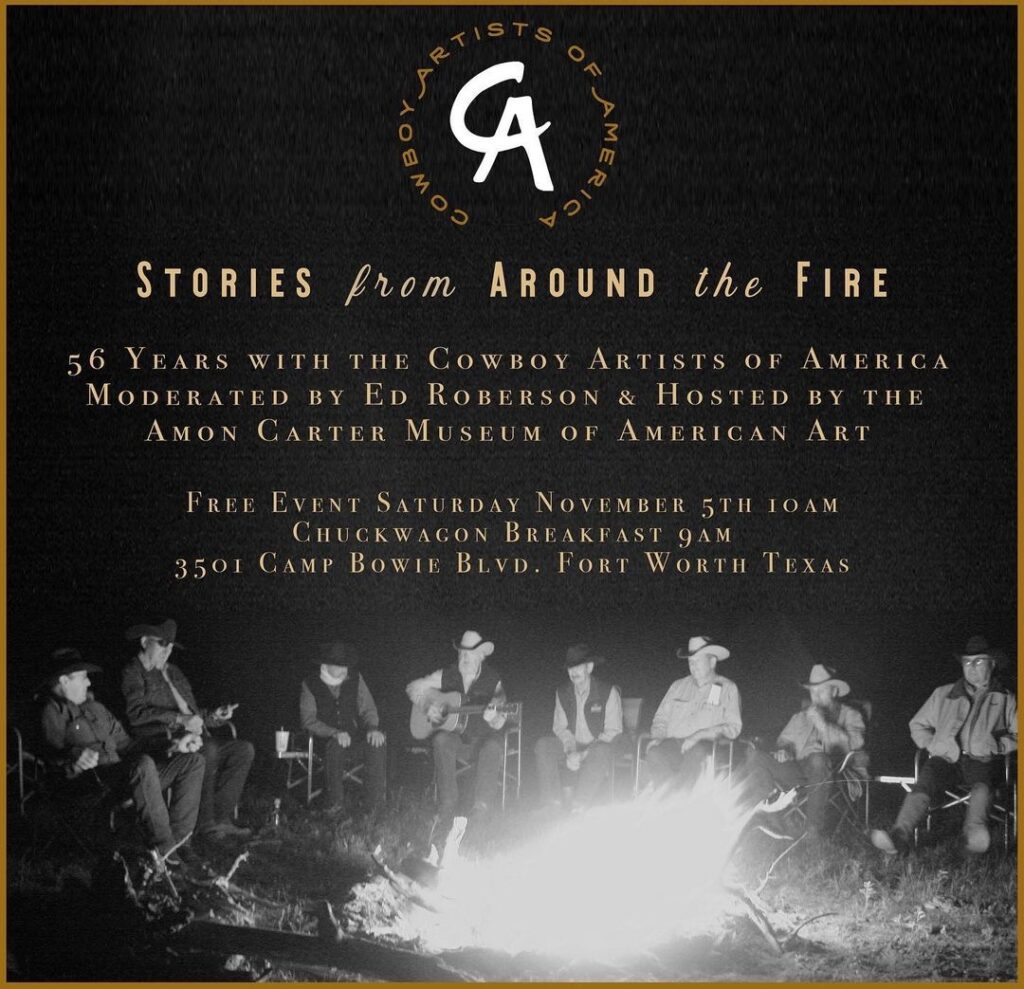
Photos courtesy of the Cowboy Artists of America
LISTEN & DOWNLOAD:
Apple Podcasts
Spotify
Google Podcasts
Overcast
... or wherever you get your podcasts!
—
RESOURCES:
Topics Discussed:
- 2:40 - Intro
- 4:55 - Fred Fellows’ journey from Northrop Aircraft to professional artist
- 13:20 - Jody talks about Joe Beelor’s focus and work ethic
- 15:40 Bill Nebeker tells one of his world-famous jokes
- 18:40 - Bill discusses mentorship and art education for the next generation
- 25:40 - Seth Hopkins discusses the CAA’s longevity in the art world
- 28:10 - Tim Newton discusses how the CA began his journey in the art world
- 33:10 - Red Stegall talks about his deep respect for the CAA
- 38:40 - Bruce Greene discusses the balance of being an individual with being a member of a brotherhood of artists
- 46:25 - Fred discusses the CA trail ride
- 49:40 - Crazy pranks and funny stories from the trail ride
- 1:00:40 - What are the criteria for joining the CAA?
- 1:05:55 - What does the future of the CAA look like?
- 1:07:40 - Early days of selling western art, before there was a robust western art market
- 1:10:40 - How does CA pick trail ride locations
- 1:12:55 - How the CA built the western art market
- 1:16:10 - How the CA thinks about finding new artists in the future
Information Referenced:
- Cowboy Artists of America
- 56th Annual Exhibition and Sale
- Teal Blake
- Fred Fellows
- Jody Beeler
- Bill Nebeker
- Seth Hopkins
- Tim Newton
- Red Steagall
- Bruce Greene
- All CAA active members
- All CAA emeritus members
- Western Horseman
- Booth Museum
- Taos Society
- Tribe by Sebastian Junger
- Joe Beeler Foundation
Enjoy this episode? Then you might like these too:
- Teal Blake – On Being Authentic & Original
- Duke Beardsley – Art in the Big, Bold American West
- Mark Maggiori – A Fresh View of the American West
- Jason Rich – The Humility and Hard Work of Creativity
- Daniel Vergés – The Pursuit of Simplicity in Art & Life
- Melissa DiNino – Building a Unique Life in Big Sky Country
- Jessica Lewis – Doing More With Less
- Morgan Irons – Finding Her Muse
- Chris Douglas – An Unexpected Artistic Journey
- Kelsey Johnson – Chasing Her Artistic Ambitions
- Frances Ashforth – Art, Water, and Wide-Open Spaces
- Live from Maxwell Alexander Gallery
Visit the podcast page for a full list of episodes that can be sorted by topic.

Chris Dombrowski is a Missoula-based writer, poet, teacher, and fishing guide, and he’s also the author of the excellent new book The River You Touch: Making a Life on Moving Water. If you’re a longtime Mountain & Prairie listener, you probably remember Chris’s first appearance on the podcast in which we discussed his first book Body of Water and his poetry collection, Ragged Anthem. Since that first conversation, Chris has become a great friend, sounding board, and supporter, and his generous spirit and creative commitment continue to be a huge source of inspiration for everything I’m trying to do here at Mountain & Prairie.
Like me, Chris is not originally from the West, but since moving here, he has built a meaningful, purpose-driven life that is deeply connected to the region’s rugged land and powerful rivers. Whether guiding fishing clients on the Big Hole, foraging food with his family, or hunting birds with his dog Zeke, the West’s wild places are a cornerstone of Chris’s life– professionally, personally, and spiritually. His new book The River You Touch offers rich insights into his journey from his home state of Michigan to his now-home of Montana, as well as his personal evolution as a husband, father, friend, and community member. Beautifully written, surprisingly vulnerable, and extremely inspiring, The River You Touch is one of the best books I’ve read this year.
Chris and I connected virtually and had a fun conversation about the book, fatherhood, adventure, writing, and much more. We started by discussing how The River You Touch came to be, which has an interesting connection to our first podcast conversation. We talk about his process of combining poetic prose with non-fiction narrative, as well as his desire to explore ideas around masculinity and vulnerability. We talk a lot about Jim Harrison– their friendship, Harrison’s genius, and his other-worldly work ethic. We discuss family, the blessing of having strong and tough wives, advice for aspiring writers, and more good book recommendations. Enjoy!
Photos by (past podcast guest) Erik Petersen
LISTEN & DOWNLOAD:
Apple Podcasts
Spotify
Google Podcasts
Overcast
... or wherever you get your podcasts!
—
RESOURCES:
Topics Discussed:
- 3:15 - Chris talks about how he came upon the idea that became his most recent book, The River You Touch
- 8:30 - Chris discusses his motivations for writing
- 14:30 - Chris talks about his writing process for The River Your Touch
- 20:30 - Chris discusses being vulnerable in his writing
- 30:30 - Chris talks about the need for more writing that discusses masculinity and vulnerability
- 34:45 - Chris discusses his relationship with Jim Harrison and how he operated with such a work hard, play hard mentality
- 42:15 - Chris explains the advice he received from Jim Harrison: “Don’t let your life become the sloppy leftovers of your work.”
- 45:45 - Chris reads a section from The River You Touch
- 48:30 - Chris discusses his thinking regarding having children and their environmental impact
- 51:45 - Chris talks about his wife and continuing his writing career after having children
- 54:15 - Chris discusses how he advises students who may not want to write as much as they think they do
- 1:00:15 - Chris talks about his audiobook narrator for The River You Touch
- 1:04:00 - Chris’s book recommendations
Information Referenced:
- The River Your Touch by Chris Dombrowski
- Body of Water by Chris Dombrowski
- Jeffery Foucault
- Upper Big Hole River
- Montana Arctic Grayling
- Draft No. 4 by John McPhee
- Salish peoples
- Bill Bryson
- Jim Harrison
- Boys and Oil: Growing up Gay in a Fractured Land by Taylor Brorby
- Sergei Yesenin
- Raymond Carver
- Richard Ford
- Tobias Wolff
- Dirty Realism
- John Updike
- Mile Marker Zero by William McKeen
- Thomas McGuane
- Jimmy Buffett
- Hunter S. Thompson
- Juanita Vero
- Chandra Brown
- Freeflow Institute
- Jonathan Franzen
- Lois Welch
- Norman McLean
- David Gessner
- Taj Mahal
- Nick Adams Stories by Ernest Hemingway
- The Sun Also Rises by Ernest Hemingway
- Milkweed Editions
- Mary Austin Speaker
- Tecovas
- Nickolas Butler
- Adam Gall
- One Long River of Song by Brian Doyle
- Believers by Lisa Wells
- Perma Red by Debra Magpie Earling
- The Lost Journals of Sacajewea by Debra Magpie Earling
- Fools Crow by James Welch
Enjoy this episode? Then you might like these too:
- Dylan Tomine – Protecting What He Loves
- Peter Stark – Tales of Adventure, Exploration, & Epic Battles
- Antonia Malchik – Exploring Culture & Complexity
- Nickolas Butler – The Craft of Creativity
- Peter Heller – Chasing the Flow
- Hal Herring – A Man of Words & Wild Places
- Monte Burke – Exploring Obsession
- Juanita Vero, Part 2 – A Deep Desire to Serve
- Malcolm Brooks – Epic Tales from the American West
- Mike Foote – Perfection is in the Process
- Brendan Leonard, Part 2 – On Running, Creating, and Other Irrational Passions
- Chris La Tray – Rediscovering His Past, Writing His Future
Visit the podcast page for a full list of episodes where


Douglas Brinkley is a world-renowned historian, author, and professor who may be best known to Mountain & Prairie listeners as the author of The Wilderness Warrior: Theodore Roosevelt and the Crusade for America and Rightful Heritage: Franklin D. Roosevelt and the Land of America, which detailed the first two waves of the United States’ conservation movement. His most recent book is Silent Spring Revolution: John F. Kennedy, Rachel Carson, Lyndon Johnson, Richard Nixon, and the Great Environmental Awakening, which delves into the third wave of conservation and the rise of the modern environmental movement. I was lucky enough to read an advanced copy of Silent Spring Revolution, and I highly recommend it.
Doug was raised in Ohio and from an early age, his parents instilled in him and deep love and respect for wild places, national parks, and the rich history of conservation in the United States. After earning his M.A. and Ph.D. from Georgetown University, Doug began his career as a professor and historian, and he went on to teach at numerous prestigious institutions, including the US Naval Academy, Princeton, Hofstra, Tulane, and, most recently, Rice University. The prolific nature of Doug’s writing life is hard to comprehend– he’s written extensively about everyone from TR to FDR, JFK to Rosa Parks, and about places ranging from the Alaskan Wilderness to the moon. He’s the literary executor of Hunter S. Thompson’s estate and has edited the diaries of Jack Kerouac for two separate books. He’s also served on the boards of numerous conservation organizations and has won awards for his contributions to the conservation movement. And those accomplishments just scratch the surface of his career…
Doug has been a long-time literary hero of mine, and I credit The Wilderness Warrior with fueling my obsession with TR and inspiring me to move out of the real estate business and into land and water conservation work. So when I had the opportunity to join Doug at his home in Austin for a conversation about Silent Spring Revolution, I didn’t hesitate to jump on a plane to Texas. We had a wonderful, wide-ranging conversation about the book, exploring everything from the life and work of Rachel Carson to the TR-like qualities of Supreme Court Justice William O. Douglas to the environmental legacies of JFK, LBJ, and Nixon. We also talk about Doug’s longstanding personal connection to conservation and how a deep love of teaching is at the core of all of his work. Doug also talks about the roles that art and music play in his life, what gives him hope for the future, and much more. The episode notes are jam-packed with everything we discussed, so be sure to visit the episode webpage for copious resources and links.
Again, I highly recommend Silent Spring Revolution, but really, I highly recommend all of Doug’s work. I greatly appreciate Doug welcoming me into his home and taking the time to chat, I hope you enjoy both this conversation and Silent Spring Revolution as much as I did.
All photos courtesy of Douglas Brinkley
LISTEN & DOWNLOAD:
Apple Podcasts
Spotify
Google Podcasts
Overcast
... or wherever you get your podcasts!
—
RESOURCES:
Topics Discussed:
- 5:30 - Doug walks us through a brief history of American conservation, as well as his love for Thoreau
- 9:00 - JFK’s connection to the ocean and how it influenced his conservation ethic
- 15:30 - Wiliam O’Douglas’s impact on American conservation
- 20:00 - How Rachel Carson’s work ended up connecting her to JFK
- 31:30 - The bond that developed between Rachel Carson and JFK
- 34:30 - The Nixon legacy in American Conservation
- 41:45 - Sewage treatment and its unexpected contribution to the environmental movement
- 45:00 - The formation of the Endangered Species Act
- 46:00 - Doug talks about how he writes, his relationship with teaching, and his National Park travels
- 52:00 - Doug discusses the more art-focused parts of his life
- 56:20 - Doug talks about what gives him hope despite climate change
Information Referenced:
- Silent Spring Revolution by Douglas Brinkley
- Henry David Thoreau
- The Wilderness Warrior by Douglas Brinkley
- John Muir
- Gifford Pinchot
- National Wildlife Refuge System
- Franklin Delano Roosevelt
- Civilian Conservation Corps
- Dust Bowl
- Rachel Carson
- Silent Spring by Rachel Carson
- John F. Kennedy
- Lyndon B. Johnson
- Richard Nixon
- Cape Cod by Henry David Thoreau
- Rose Kennedy
- Brookline, MA
- Walden Pond
- Concord, MA
- Cape Cod, MA
- Hyannis Port, MA
- William O. Douglas
- Provincetown, MA
- Wellfleet, MA
- Truro, MA
- Cape Cod National Seashore
- Padre Island National Seashore
- Point Reyes National Seashore
- Muir Woods National Monument
- Cape Lookout National Seashore
- Assateague Island National Seashore
- Fire Island National Seashore
- Cumberland Island National Seashore
- Apostle Island National Lakeshore
- Sleeping Bear Dunes National Lakeshore
- Indiana Dunes National Park
- Marin County, CA
- Ralph Yarborough, D-TX
- Yakima, WA
- Mt. Adams
- Mt. Baker
- Whitman College
- Columbia University
- Princeton University
- Joseph Kennedy
- C&O Canal
- Cumberland, MD
- Olympics Range
- Buffalo River, AR
- Red River Gorge
- Wendell Berry
- My Wilderness: East to Katahdin by William O’Douglas
- My Wilderness: The Pacific West by William O’Douglas
- Environmental Protection Agency
- Audubon Society
- Isaak Walton League
- Trout Unlimited
- Eric Sevareid
- Springdale, PA
- Allegheny River
- Howard Zahniser
- The Wilderness Society
- Harold L. Ickes
- Edward Abbey
- Clarion River
- Chapman University
- Johns Hopkins University
- Woods Hole, MA
- Baltimore Sun
- US Fish and Wildlife Service
- American shad
- “Conservation in Action” booklets by Rachel Carson
- Works Progress Administration guides
- Library of America
- Jacques Gusteau
- Jean Kennedy Smith
- Anne Morrow Lindbergh
- Sanibel Island, FL
- DDT
- Patuxent Wildlife Center
- Malaria
- Reader's Digest
- Jimmy Carter
- Plains, GA
- Sumter County, GA
- Marjorie Spock
- Long Island, NY
- United States Department of Agriculture
- Benjamin Spock
- The New Yorker
- Common Sense by Thomas Payne
- Uncle Tom’s Cabin by Harriot Beecher Stowe
- The Jungle by Upton Sinclair
- William Ruckelshaus
- Environmental Defense Fund
- National Environmental Policy Act
- Environmental Impact Statement
- National Democratic Institute Advisory Councils
- Jackie Kennedy
- Eleanor Roosevelt
- Robert F. Kennedy
- Hickory Hill
- Addison’s Disease
- Stewart Udall
- Frank Church
- Ed Muskie
- Wilderness Act
- Wild and Scenic Rivers Act
- Endangered Species Act
- Key Deer
- Black-footed Ferret
- Everglades
- Florida Panther
- Manatee
- Tricia Nixon Cox
- Watergate
- Nixon Library
- San Clemente, CA
- Santa Barbara Oil Spill (Refugio)
- Cuyahoga River
- Dana Point, CA
- Laguna Beach, CA
- Bebe Rebozo
- Flipper
- John Ehrlichman
- David Brower
- Sierra Club
- Henry M. (Scoop) Jackson
- North Cascades National Park
- Boeing
- George McGovern
- Eugene McCarthy
- Gaylord Nelson
- Berkeley, CA
- Ronald Reagan
- Great Basin National Park
- Badlands National Park
- Clean Air Act
- Clean Water Act
- The Majic Bus by Douglas Brinkely
- Korean War
- Big Bend National Park
- Grand Canyon National Park
- Yosemite National Park
- Glacier National Park
- Traverse City, MI
- Empire, MI
- Medora, ND
- Ken Burns
- Missouri River
- Pisgah National Forest
- Ashville, NC
- Davidson River
- Brevard College
- Cleveland, OH
- Lake Erie
- Canyonlands National Park
- Guadalupe Mountains National Park
- Hunter S. Thompson
- Bob Dylan
- Lena Horne
- Duke Ellington
- Miles Davis
- Charlie Parker
- Coleman Hawkins
- Jann Wenner
- Rolling Stone Magazine
- Warren Zevon
- Willie Nelson
- Larry McMurtry
- Lonesome Dove by Larry McMurtry
- James McMurtry
- Continental Club
- Georgetown University
- The Phillips Collection
- Cesar Chavez
- San Joaquin Valley, CA
- Coachella Valley, CA
- Washburn Fire
- Mariposa Grove
- Hurricane Katrina
- Waveland, MS
- Neil Young
- Marvin Gaye
- Mercy Me (The Ecology)
- Joan Baez
- Pete Seeger
- Gary Snyder
Enjoy this episode? Then you might like these too:
- Hampton Sides – Live at the Aspen Institute
- Sara Dant – A Deep Dive Into the History of the West
- Mike Phillips – Audacious Goals, Relentless Action
- Heather Hansman – Demystifying Water in the West
- Hal Herring – A Man of Words & Wild Places
- Mark Kenyon – A Passion for Public Lands
- David Gessner, Part 3 – A Confluence of Conservation Ideals
- Dr. David Hewitt – The Science of Wildlife Conservation
- Betsy Gaines Quammen – A Fascinating History of Public Lands in the West
- Peter Stark – Tales of Adventure, Exploration, & Epic Battles
Visit the podcast page for a full list of episodes where

This is a special podcast episode that was recorded live in Los Angeles at Maxwell Alexander Gallery’s 10 Year Anniversary Exhibition. Maxwell Alexander Gallery was founded back in 2012, when brothers Beau Alexander and Logan Maxwell Hagege decided to start an artist-focused gallery that spotlighted the West’s most cutting-edge art. What started with a crazy idea, a small space, and a few artists has evolved into one of the most well-known galleries in the West– a gallery that celebrates the many complex facets of the American West through paintings and sculpture.
This is a recording of an artist panel discussion that was held on Saturday evening, just before the public exhibition began. The panel includes both Beau and Logan, as well as renowned western artists Kim Wiggins, Eric Bowman, and T. Allen Lawson, who goes by Tim. We recorded this conversation in a space next door to the gallery, and we quickly filled all of the chairs and it became a standing-room-only event. The six of us sat on stools in front of Logan’s 8'x12' painting titled “The Song at Sunset,” which Logan discusses during the panel. If you’d like to see an image of this massive work of art, there’s a link in the episode notes.
Over the course of an hour, the six of us had a wonderful conversation that covered a wide range of topics, everything from the founding of the Maxwell Alexander Gallery all the way to expectations about the future of the Western art markets. Tim speaks about how he used to go out looking for scenes to paint, but now he patiently waits for the “paintings to come to [him].” Kim talks about his unique upbringing in New Mexico and how professional art captured him from an early age. Eric discussed how he treats each of his paintings as an “open-ended story” so as to draw the viewer deeper into the work. And those are just a few of the many topics we discussed. Check out the notes below for a full list of topics.
And if you leave this episode wanting to hear more from these artists, don’t worry– I’ve convinced them all to join me for their own episodes in the coming months. And you can always go back and listen to my first episode with Logan.
A huge thank you to Beau and Logan for inviting me to this one-of-a-kind event, and a thank you to all of the artists for being such fun, welcoming, and fascinating people who contribute so much to the culture of the American West. I was honored to be included, and I hope you enjoy this conversation as much as I did.
All photos courtesy of Maxwell Alexander Gallery
LISTEN & DOWNLOAD:
Apple Podcasts
Spotify
Google Podcasts
Overcast
... or wherever you get your podcasts!
—
RESOURCES:
Topics Discussed:
- 3:15 - Introductions
- 4:40 - Ed starts the questions
- 5:30 - Logan talks about starting up the Maxwell Alexander Gallery and why they were interested in doing so
- 7:45 - Beau talks about the biggest surprises he experienced in starting the gallery
- 10:30 - Beau and Logan discuss how they evaluate which artists are a good fit for their gallery
- 13:30 - Tim discusses his process of letting “paintings come to me”
- 16:00 - Tim talks about balancing (or not balancing) making art that he knows will sell with trying new forms of art
- 17:30 - Kim talks about becoming an artist
- 22:30 - Eric discusses how he makes his paintings “open-ended [stories]”
- 25:30 - Eric talks about how the American West captured his imagination
- 27:45 - Beau discusses his process of encouraging artists that he works with without over-influencing them
- 29:45 - Logan discusses his large work of art positioned behind the panel (name?)
- 32:15 - Beau discusses Logan’s painting
- 34:00 - The panel talks about the responsibility they feel to understand the history of the places they represent in their art
- 40:15 - Eric discusses why he believes that making art should never be easy
- 42:15 - Beau talks about the business of art, how it was impacted by COVID-19, and what he is thinking about as predictions of a recession circulate
- 47:00 - Audience question: How does the panel compose their color harmonies, especially Logan on such large paintings?
- 52:30 - Audience question: Discuss the effect of the 2021 Maxwell Alexander artist’s retreat
- 55:30 - Audience question: Does anyone on the panel intend to make a big shift in their style, or do they feel locked in?
- 59:45 - Tim celebrates Logan and Beau’s work at the gallery
- 1:01:00 - Logan and Beau express their appreciation for the artists
Information Referenced:
- Maxwell Alexander Gallery
- Logan Maxwell Hagege
- Beau Alexander
- T. Allen Lawson (Tim)
- Kim Wiggins
- Eric Bowman
- Culver City, CA
- Billy Shenck
- Scottsdale, AZ
- Claude Monet
- Armand Guillaumin
- Santa Fe Plaza
- American Impressionist Society
- Robert Daughters
- Walter Gonske
- Wilhelm J. Goebel
- Douglas Higgins
- St. Louis, MO
- Peter Hurd
- Henriette Wyeth
- Thomas Hart Benton
- Georgia O’Keeffe
- William Lumpkins
- New Mexico Modernism
- Alfred Morang
- Emil Bisttram
- William Lumpkins
- Charles M. Russell
- Alexandre Hogue
- Earnest L. Blumenschein
- Taos, NM
- Realism
- San Geronimo Feast Day
- Orange County, CA
- Glenn Dean
- Josh Elliott
- David McCullough
- Norton Simon Museum
- The Alamo
- Custer’s Last Stand
- Value
- Color Harmony
- Vincent van Gogh
- Rembrandt
- Brett James Smith
- What About Bob?
- Lucian Freud
Enjoy this episode? Then you might like these too:
- Frances Ashforth – Art, Water, and Wide-Open Spaces
- Pete McBride, Part 2: In Search of Silence
- Kelsey Johnson – Chasing Her Artistic Ambitions
- Anna Brones – Committed to Creativity
- Ivan McClellan – A New Look at the Old West
- Live in Bozeman!
- Morgan Irons – Finding Her Muse
- Logan Maxwell Hagege – Artistic Evolution
- Jessica Lewis – Doing More With Less
Visit the podcast page for a full list of episodes where

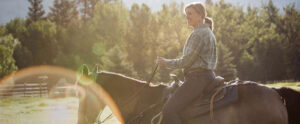
Monica Tranel is an attorney, Olympian, and mother of three, and she’s also running for the U.S. House of Representatives in Montana’s reformed second congressional district. Monica grew up in eastern Montana in a large family where she was one of ten siblings. Throughout her childhood, her parents stressed the importance of hard work, curiosity, and independent thinking, characteristics that Monica has exhibited in all aspects of her athletic and professional endeavors.
As an athlete, Monica began rowing competitively during law school, and after years of unwavering focus and tenacity, she earned a spot on different two Olympic teams. As an attorney, she devoted much of her career to standing up to a wide range of powerful corporate interests that were attempting to bully or take advantage of everyday Montanans. And now, as a Congressional candidate, she’s focused on bolstering Montana’s middle class and closing the ever-widening inequality gap.
Monica is in the final stretch of her campaign, so I greatly appreciate her taking the time out of her jam-packed schedule to chat with me. We spend about half of the time talking about Monica as a person– her upbringing in eastern Montana, why athletics have been so important in her life, her high school and college years, her rowing and legal careers, and why public service has always been a part of her personal operating system. For the second half of the conversation, we discuss the election– the challenges facing the middle class, her commitments to Indigenous communities, the importance of thinking independently, an issue that she has changed her mind on, and much more. She also offers a ton of excellent book recommendations, which I always appreciate.
A big thank you to Monica and her team for fitting this podcast into their busy schedule, and thank you for listening. Hope you enjoy.
Photos courtesy of Monica Tranel
LISTEN & DOWNLOAD:
Apple Podcasts
Spotify
Google Podcasts
Overcast
—
EPISODE NOTES:
Topics Discussed:
- 3:15 – Monica discusses her upbringing and how it set her on her trajectory\
- 6:45 – Monica talks about athletics and the role the outdoors played in her life
- 9:00 – Monica describes her high school years
- 12:40 – Monica explains what drew her to the legal field
- 16:00 – Monica talks about what she is particularly proud of in her legal career
- 21:45 – Monica discusses her Olympic career in rowing
- 26:45 – Monica talks about when public service became an interest in her life
- 30:15 – Monica discusses the challenges of politically addressing the inflating cost of living in places like Montana
- 34:15 – Monica talks about rebuilding a culture of governance with fair, enforceable rules
- 39:15 – Monica outlines what she feels her political role and commitment will be with respect to Indigenous communities in Montana
- 42:15 – Monica talks about something she has changed her mind on
- 45:45 – Monica discusses what she thinks people will find surprising about her during her Congressional candidacy
- 51:15 – Monica’s book recommendations
- 52:15 – Monica’s parting words of hope
Information Referenced:
- Miles City, MT
- Ashland, MT
- Northern Cheyenne Tribe
- Beartooth Highway
- Red Lodge, MT
- Broadview, MT
- Gonzaga University
- Ten Circles Upon the Pond by Virginia Tranel
- Marty Wilde vs NorthWestern
- Rutgers University - Camden
- Ryan Zinke
- Freedom from Fear by David Kennedy
- Teddy Roosevelt trilogy by Edmund Morris
- Democracy in Chains by Nancy MacLean
- Butte, MT
- Thomas Walsh
- Burton Wheeler
- Teapot Dome scandal
- January 6th Committee
- 17th Amendment
- William Clark
- Blackfeet Nation
- Confederated Salish and Kootenai Tribes
- Battle of the Little Bighorn
- Salish Kootenai College
- American Indian Boarding Schools
- Think Again by Adam Grant
- Boathouse Row
- Tribe by Sebastian Junger
- NAFTA
- The People, No by Thomas Frank
- The Koch Family
- Mansion Heights (Missoula, MT)
- War and Peace by Leo Tolstoy
- Angle of Repose by Wallace Stegner
- Olive Kitteridge by Elizabeth Strout
Enjoy this episode? Then you might like these too:
- Kate Mannix – A Legacy of Land Stewardship
- Liz Moore – For the Love of Montana
- Lesli Allison & Tuda Libby Crews – Durable Conservation in the West… and Beyond
- Juanita Vero, Part 2 – A Deep Desire to Serve
- Hal Herring – A Man of Words & Wild Places
- Rachel VandeVoort – Harnessing the Power of Outdoor Recreation
- Iris Gardner – Living with Intention
Visit the podcast page for a full list of episodes where you can filter episodes by topic and guests' vocations.
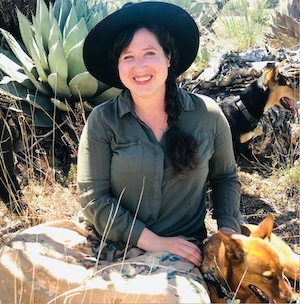
Francesca Claverie is the Native Plant Program Manager at the Borderlands Restoration Network. Based in the southern Arizona town of Patagonia, the Borderlands Restoration Network’s mission is “to grow a restorative economy by rebuilding healthy ecosystems, restoring habitat for plants and wildlife, and reconnecting our border communities to the land through shared learning.” Through binational partnerships and community-led innovation, Francesca and her team are making progress toward solving many border-specific conservation challenges– challenges that are often not very well known to those of us living far from the border.
We could easily spend five or six hours discussing Francesca’s various conservation projects, but for this hour-long conversation, we zoned in one particularly innovative project that spans the US-Mexico border called Bacanora for Bats: Binational Conservation and Sustainable Agave Spirits. The project is focused on conserving agave plants– plants that are a critical food source for specific migrating bat populations and are simultaneously under a great deal of pressure because of the booming tequila and Bacanora industries. As you’ll hear her explain, Francesca and her team have implemented a one-of-a-kind system that allows for continued economic prosperity from agave production, but not at the expense of the bat populations. It’s a perfect example of a community-driven, win-win conservation solution.
A little more than two years ago, the project was awarded the Salazar Center’s Connectivity Challenge prize– a $100,000 award that Francesca and her binational team have used to implement this innovative conservation solution. So we obviously talk about how those funds have been put to use and some of the successes that have resulted from the prize. We also discuss some of the unexpected opportunities and challenges that have arisen during the project, and how changing political administrations on both sides of the border have affected her work. We go into great detail about bats, the ecology of agave plants, and specific challenges that come with working across borders. Francesca also has a fascinating personal and professional trajectory, so we talk about her childhood spent on the California-Mexico border and how she decided to pursue conservation as a career. She also offers up some excellent book recommendations and some wise parting words.
I was so inspired by Francesca and her work along the border, and I believe there are lessons in this conversation that can be applied by anyone working in the conservation sector. Thanks to Francesca for taking the time to chat, and thank you for listening.
Header photo by Kayla Lewis, headshot courtesy of Francesca Claverie
LISTEN & DOWNLOAD:
Download on Apple Podcasts
Download on Spotify
Download on Google Podcasts
Download on Overcast
—
EPISODE PARTNER:

This episode is brought to you in partnership with Colorado State University’s Salazar Center for North American Conservation.
This conversation scratches the surface of some of the topics that will be covered in greater depth at the Salazar Center’s fourth annual International Symposium on Conservation Impact, which will be held next week - the week of October 3, 2022 - in Denver and online. The symposium will explore how conservation efforts that span boundaries like the US-Mexico border can drive binational cooperation as well as better outcomes for people and nature. An all-star lineup of conservation researchers, practitioners, policymakers, and funders will highlight opportunities for and barriers to conservation in the border region, climate change impacts, the role of Indigenous leadership, and learnings from the region’s distinct history and biogeography.
Listeners can learn more at salazarcenter.colostate.edu and receive $25 off symposium registration with the code "25OffReg".
RESOURCES:
Topics Discussed:
- 4:30 - Overview of the Borderlands Restoration Network
- 9:30 - Application to the Connectivity Challenge
- 11:40 - Agave, Bats, and Pollination
- 20:40 - How the bat pollination issue came to Borderlands Restoration Network's attention
- 27:00 - Certification program for Bacanora
- 36:20 - How the Connectivity Challenge funds have been invested
- 38:55 - Unexpected challenges and opportunities
- 41:20 - How different US administrations affect these border projects
- 47:20 - Francesca's personal and professional background
- 53:45 - Other borderland projects that are showing great promise
- 57:30 - Favorite books
- 1:02:25 - Parting words
- 1:04:30 - Connect with the Borderlands Restoration Network
Information Referenced:
- Borderlands Restoration Network
- Salazar Center for North American Conservation
- Connectivity Challenge
- Borderlands Restoration Network Pitch Video
- Dr. Rod Pulliam
- Agave
- Lesser Long-nosed Bat
- Saguaro cactus
- Bat Conservation International
- Colectivo Sonora Silvestre
- Universidad de Sonora
- Sonoran election story
- Altar Valley
- Calexico, CA
- Sky Islands of Arizona
- Sky Island Alliance
- Watershed Management Group
- Tending the Wild by Kat Anderson
- Braiding Sweetgrass by Robin Wall Kimmerer
Enjoy this episode? Then you might like these too:
- Amber Smith – Creating Connection & Community
- Mike McTee & Vince Slabe – Win-Win Solutions in the Fight to Save Eagles
- Brian Yablonski – Action-Oriented Conservationist
- Liz Moore – For the Love of Montana
- Kate Mannix – A Legacy of Land Stewardship
- Shane Doyle – Reverence for the Past, Hope for the Future
- Sarah King – Collaborative Conservation in the American Southwest
- Mike Phillips – Audacious Goals, Relentless Action
Visit the podcast page for a full list of episodes where you can filter episodes by topic and guests' vocations.

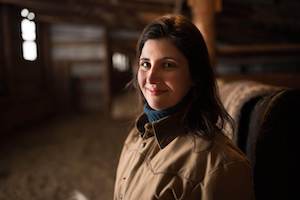
Amber Smith is a Montana-based rancher and the Executive Director of Women in Ranching, a nonprofit organization whose mission is to hold brave space, support courageous action, and champion rural women’s leadership on the land. Offering a blend of in-person and virtual events, Women in Ranching has filled a unique niche across a wide range of rural communities in the West and beyond. From skill-building workshops to virtual kitchen table chats to multi-day on-the-ground experiences, Women in Ranching offers a much-needed, supportive network for women whose families and livelihoods are closely tied to agriculture and the land.
Amber was born and raised in Illinois, and she met her now-husband Trevor while working at a ranch in Colorado. They fell in love, got married, and today Amber and Trevor have two young children and a successful ranching business in eastern Montana. As you’ll hear in our conversation, when Amber was first introduced to Women in Ranching several years ago, she felt an immediate connection to the organization’s work– the connection was so strong that she eventually took the helm as the organization’s leader. And earlier this year, after several years under the umbrella of Western Landowners Alliance, Women in Ranching became its own freestanding nonprofit organization- an exciting next step for the organization’s continued growth and evolution.
Amber and I met more than five years ago on the Antelope Springs Ranch, the ranch that she and Trevor continue to steward to this day. I was immediately impressed with her energy, dedication to her community, and ability to juggle many competing priorities with grace and humor. I’ve been following her leadership with Women in Ranching for many years now, and it was a real pleasure to have the opportunity to reconnect and have such an inspiring conversation. We talked about the purpose and mission of Women in Ranching and how the organization has evolved in unexpected ways. We discuss some of the specific challenges facing women ranchers and how Women in Ranching works to address those needs. We discussed the pandemic’s effect on ranching communities, how Amber tries to find balance in her life, how she has been positively impacted by the organization, some specific success stories, her favorite books, and much more. Be sure to check out the episode notes for a complete list of everything we discussed.
To learn more about Women in Ranching and to support its work, head over to www.womeninranching.co. Huge thanks to Amber for all of her hard work, and thanks to you for listening. Hope you enjoy.
Header photograph courtesy of Grasslands LLC, Headshot courtesy of Amber Smith
—
Download on Apple Podcasts
—
Download on Spotify
—
Download on Google Podcasts
—
Download on Overcast
—
EPISODE NOTES
Topics Discussed:
- 4:00 - Amber describes Women in Ranching
- 17:30 - Amber talks about how her work with elders impacted how she approaches her work and life
- 22:30 - Amber discusses Women in Ranching and how its work was influenced by the pandemic
- 29:00 - Amber talks about who comes to the Confluence
- 30:30 - Amber discusses the current form of Women in Ranching
- 35:00 - Amber talks about the early stages of Women in Ranching becoming their own organization
- 40:00 - Amber explains her outlook on life balance and managing overwhelm
- 45:30 - Amber discusses how she learned to deal with a new kind of challenge in her work with Women in Ranching
- 56:00 - Amber talks about how the shift in Women in Ranching from WLA program to its own organization impacted her as a person
- 1:05:45 - How folks can get involved and support Women in Ranching
- 1:10:15 - Amber talks about books that have influenced her
- 1:14:30 - Amber’s parting words of wisdom
Information Referenced:
- Women in Ranching: Website & Instagram
- Quivira Coalition
- Regenerate conference
- Paicines Ranch
- TomKat Ranch
- Elaine Patarini
- Wendy Millet
- Steamboat Springs, CO
- Western Landowners Alliance
- Lesli Allison
- Holistic management
- Extension service
- Ranching for Profit
- Savory Institute
- Nicki Silvestri
- Robin Wall Kimmerer
- Tribe by Sebastian Junger
- Paul Farmer
- Andrea Malmberg
- Tony Malmberg
- Green Grass and the Spring by Tony Malmberg
- Pretty-shield: Medicine Woman of the Crows by Frank B. Linderman
- River House by Sarahlee Lawrence
- Rainshadow Organics
- Alzada, MT
- The Long Way Home: Journeys of a Chinese Montanan by Flora Wong
Enjoy this episode? Then you might like these too:
- Kate Mannix – A Legacy of Land Stewardship
- Riddy Arman – Artistic Authenticity
- Betsy Gaines Quammen – A Fascinating History of Public Lands in the West
- Matt Pierson – Finding New Solutions for Food Insecurity
- Shane Doyle – Reverence for the Past, Hope for the Future
- Antonia Malchik – Exploring Culture & Complexity
- Iris Gardner – Living with Intention
- Daniela Ibarra-Howell – Healing the Land Holistically
- Jessica Ilalaole – Creating Home in the High Desert
Visit the podcast page for a full list of episodes where you can filter episodes by topic and guests' vocations.

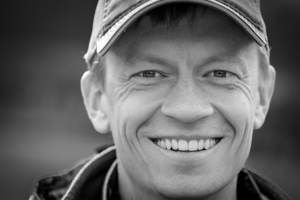
Photo Credit: Jordan Hoffmaster
Mike McTee and Vince Slabe are Montana-based researchers who use cutting-edge science, writing, and educational programs to protect eagles in the American West and beyond. Both Mike and Vince are laser-focused on the surprisingly little-known issue of lead poisoning in bald and golden eagles, a problem caused mainly by eagles scavenging the remains of big game animals that have been hunted with lead-based ammunition. For example, a study conducted near Jackson Hole captured migrating golden eagles, tested them for lead, and found that 98% had elevated lead levels in their blood. Committed hunters themselves, Mike and Vince are devoting their professional energies toward finding sustainable, reasonable, and mutually beneficial solutions to this large-scale challenge.
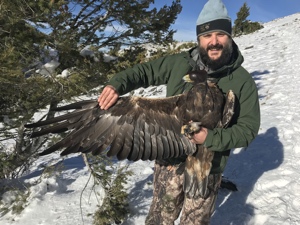
Mike lives in Missoula and works as a researcher at the MPG Ranch, a large, privately owned ranch in the Bitterroot Valley that promotes conservation through restoration, research, education, and information sharing. He is also the author of the excellent new book Wilted Wings: A Hunter's Fight for Eagles, which was recently published by Riverfeet Press. In it, Mike lays out the issue of lead poisoning in eagles in a compelling and easy-to-understand style, and he offers some clear and relatively simple paths to solving the problem. Mike has also written for The FlyFish Journal, Backcountry Journal, and Bugle, and he is a sought-after speaker on various hunting-related topics.
Vince is a Bozeman-based Research Wildlife Biologist with Conservation Science Global. He holds a Ph.D. from West Virginia University and recently published a wildly cited paper that details the implications of lead poisoning in eagles across North America. The paper, which was published in Science, describes how almost half of the bald and golden eagles sampled for the study had elevated levels of lead in their blood. More importantly, it explains exactly how increasing or decreasing levels of lead exposure will affect golden and bald eagle populations. We discussed the paper in our conversation, and I've also linked it to the episode notes.
This is a fascinating discussion that digs deep into a very specific issue– an issue that is largely under the radar here in the West. But if you zoom out from the details related to lead and eagles, and focus on the big picture, I think you'll agree that Mike and Vince are shining examples of the many smart, driven, level-headed people here in the West who are working hard to find win-win solutions to conservation-related challenges. I thoroughly enjoyed this conversation, Mike's new book, and Vince's paper, and I hope you will too.
Be sure to check out the episode notes for a list of all the topics we discussed and links to everything. Thanks for listening!
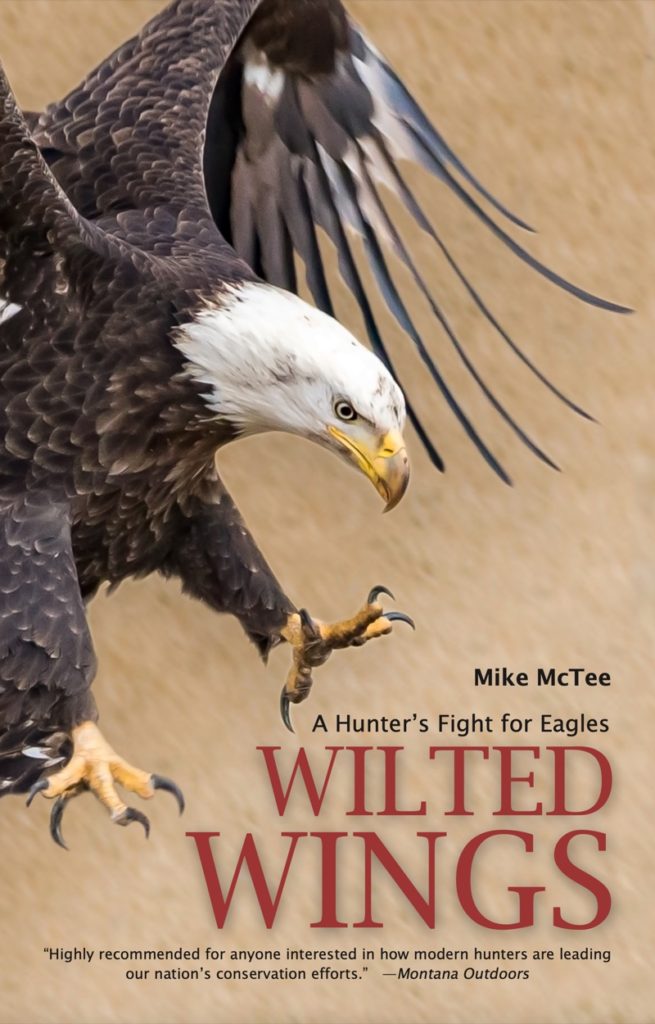
Header photograph by Estelle Shuttleworth, Mike's headshot by Jordan Hoffmaster
—
Download on Apple Podcasts
—
Download on Spotify
—
Download on Google Podcasts
—
Download on Overcast
—

This episode is brought to you by The Arthur M. Blank Family Foundation, which embodies the values-based approach to philanthropy and business of its Chairman Arthur M. Blank
EPISODE NOTES
Topics Discussed:
- 3:45 - Mike’s introduction
- 5:30 - Vince’s introduction
- 8:45 - Mike and Vince discuss the history of raptor-human interaction in the US over the last 200 years
- 15:15 Mike and Vince discuss the threat of lead poisoning as it pertains to raptors, noting the historical use of lead shot in waterfowl hunting
- 26:30 - Mike and Vince discuss their current work addressing the threat still posed to raptors by lead bullets for big game hunting
- 33:00 - Vince discusses ammunition demonstrations and the Arthur M. Blank Foundation’s advocacy for adopting non-lead ammunition through their private, guided hunting trips.
- 40:15 - Mike and Vince talk about why there has been resistance to widespread adoption of non-lead ammunition.
- 49:15 - Mike discusses managing the few situations where there is anger directed towards his work as he encourages hunters to switch ammunition
- 55:15 - Mike and Vince’s book recommendations
- 1:04:30 - Mike and Vince’s parting words of wisdom
Information Referenced:
- Arthur M. Blank Family Foundation
- Mike McTee
- Wilted Wings by Mike McTee
- Mike’s quarterly newsletter: Montana’s Nonlead Newsletter
- Vince Slabe
- Conservation Science Global
- MPG Ranch
- Bitterroot Valley
- Sapphire Mountains
- Selway-Bitterroot Wilderness
- Trap shooting
- Skeet shooting
- Rob Domenech
- Raptor View Research Institute
- Bald Eagle
- Golden Eagle
- “Demographic Implications of Lead Poisoning for Eagles Across North America” by Vince Slabe
- Silent Spring by Rachel Carson
- Peregrine Falcon
- Bald and Golden Eagle Protection Act
- Hawk Mountain
- Goshawk
- Grouse
- George Bird Grinnell
- Boone and Crockett Club
- Field and Stream
- Waterfowl
- Mallard
- Bismuth
- National Wildlife Federation
- Endangered Species Act
- Migratory Bird Treaty Act
- The Peregrine Fund
- Chris Parish
- Billings Gazette
- Missoulian
- Paradise Valley
- Montana Hunters for Eagle Conservation
- Hunters for Eagle Conservation
- Pittman-Robertson Wildlife Restoration Act
- Asics
- Montana Master Hunter Program
- One Montana
- Barnes Bullets
- Federal Premium Ammunition
- Nosler
- Hornady Manufacturing
- Shirley Basin
- North American Non-lead Partnership
- Leland Brown
- Oregon Zoo
- huntingwithnonlead.org
- Sporting Lead Free
- One Long River of Song by Brian Doyle
- Orion Magazine
- “Their Irrepressible Innocence” by Brian Doyle
- “Joyas Voladores” by Brian Doyle
- American Scholar
- Indian Creek Chronicles by Pete Fromm
- American Buffalo by Steven Rinella
- Scavenger’s Guide to Haute Cuisine by Steven Rinella
- There There by Tommy Orange
- Refuge by Terry Tempest Williams
- Jim Harrison
- Blood Meridian by Cormac McCarthy
- The Road by Cormac McCarthy
- Ernest Hemingway
- A Sand County Almanac by Aldo Leopold
- Henry David Thoreau
- Dr. Drew Lanham
- The Homeplace by Drew Lanham
- Black Faces, White Spaces by Carolyn Finney
- Beyond Fair Chase by Jim Posewitz
Enjoy this episode? Then you might like these too:
- Shane Doyle – Reverence for the Past, Hope for the Future
- Matt Pierson – Finding New Solutions for Food Insecurity
- Dr. Eric Arzubi – A New Approach to Solving the West’s Mental Health Crisis
- Liz Moore – For the Love of Montana
- Lesli Allison & Tuda Libby Crews – Durable Conservation in the West… and Beyond
- Dr. David Hewitt – The Science of Wildlife Conservation
- Jessica Wahl Turner – Outdoor Recreation & Rural Economies
Visit the podcast page for a full list of episodes where you can filter episodes by topic and guests' vocations.

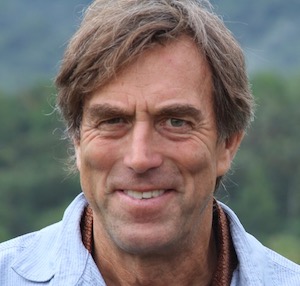
Photo by Amy Ragsdale
If you’re a long-time Mountain & Prairie listener, then I’m sure you’ve heard me reference the author and historian Peter Stark. He’s written some of the most memorable books I’ve ever read, including one of my all-time favorites about the early history of the western United States– a thrilling tale of adventure and exploration called Astoria: John Jacob Astor and Thomas Jefferson's Lost Pacific Empire: A Story of Wealth, Ambition, and Survival. Peter has also spent years working as a correspondent for Outside and has written extensively for magazines including Smithsonian, Men’s Journal, The New Yorker, and more.
I’ve been a fan of Peter’s for more than twenty years, so when I was offered the chance to chat with him, I jumped at the opportunity. The focus of this conversation is Peter’s newest project, an e-and audiobook titled Sins of the Founding Father: George Washington, the Indigenous Tribes, and the Decisions that Shaped America’s Future. It’s an in-depth exploration of an often-overlooked battle in 1791 between American troops and Indigenous tribes– a violent fight that was decisively won by the Native Americans, and resulted in three times more American deaths than the Battle of Little Big Horn. The e-book also covers the life and personality of George Washington, America’s insatiable hunger for land, and the United States’ uncertain future in the years just after the Revolutionary War.
You might be wondering, what does George Washington have to do with the present-day American West? Back then, the term “American West” described a region now known as Ohio. Well, as you’ll hear in this conversation, this specific battle set the course of action for the next hundred+ years regarding the United States’ policies toward Indigenous tribes. The American’s crippling defeat led Washington and other leaders to ramp up their violent tactics against Native tribes and hold nothing back in their quest to claim as much western land as possible, as quickly as possible. It’s an eye-opening story that gave me a much better understanding of the ambition, egos, and economic realities that laid the foundation for the modern-day West.
Sins of the Founding Father is available exclusively at Scribd, and there’s a link in the episode notes that will give you a free 30-day trial. Scribd is a really cool app that I’ve enjoyed using for e and audiobooks, so go to Scribd.com to check it all out. Sins of the Founding Father is a great read and at only 70 pages, you can enjoy it in one sitting. I hope you’ll check it out, and I hope you enjoy this conversation.
All images courtesy of Peter Stark and Scribd
LISTEN
Download on Apple Podcasts
—
Download on Spotify
—
Download on Google Podcasts
—
Download on Overcast
EPISODE NOTES
Topics Discussed:
- 4:00 – Peter describes young George Washington
- 7:15 – Peter discusses Washington’s lust for land acquisition
- 19:30 – Peter talks about how Washington’s land speculation set the playbook for greedy land acquisition seen throughout US history
- 23:00 – Peter jumps ahead to Washington’s life in 1791
- 40:00 – Peter talks about writing history in an engaging way
- 46:00 – Peter discusses his own writing process
- 51:15 – Peter discusses the historical parallels between our recent sociopolitical turmoil and that of the late 1700s following the Battle with No Name – or -discusses the fallout of the Battle with No Name
- 1:01:15 – Peter’s book recommendations
Information Referenced:
- Sins of the Founding Father by Peter Stark
- Last Breath by Peter Stark
- Young Washington by Peter Stark
- Astoria by Peter Stark
- The French and Indian War
- Jamestown, VA
- Shenandoah Valley
- Piedmont
- Blue Ridge Mountain
- Robert Dinwiddie
- Lexington and Concord
- Patrick Henry
- Benjamin Franklin
- The Confederated Congress
- Shawnee Tribe
- Henry Knox
- Fort Washington
- Miami Tribe
- Kakionga
- Arthur St. Clair
- Gout
- The Battle with No Name (the Battle of the Wabash)
- Outside magazine
- Tim Colter
- Matthew Waxman
- Mark Trahant
- Shoshone Tribes
- Navajo Nation
- Tecumseh
- William Henry Harrison
- Thomas Jefferson
- Alexander Hamilton
- Edmond Randolph
- Mount Vernon
- The Northwest Ordinance of 1787 (Peter discusses Art. 3)
- The Annals of Congress from March 1792
- Potawatomi People
- John Dunn Hunter
- Memoirs of a Captivity Among the Indians of North America by John Dunn Hunter
- Scoouwa: James Smith’s Indian Captivity Narrative by James Smith
- The Snow Leopard by Peter Matthiessen
- Coming into the Country by John McPhee
- Winter in the Blood by James Welch
- Fools Crow by James Welch
- Crow Tribe
Enjoy this episode? Then you might like these too:
- Betsy Gaines Quammen – A Fascinating History of Public Lands in the West
- Nate Schweber – A Forgotten Chapter of American Conservation
- Hampton Sides, Part 3 – Tales from a Most Excellent Adventure
- Chris La Tray – Rediscovering His Past, Writing His Future
- William deBuys – Sage of the Southwest
- Hampton Sides – Live at the Aspen Institute
- Sara Dant – A Deep Dive Into the History of the West
Visit the podcast page for a full list of episodes where you can filter episodes by topic and guests' vocations.

Frances B. Ashforth is an artist who specializes in drawing, printmaking, and painting. While much of her work is tied to the landscapes and rivers of the American West, she is also well known for her depictions of salt flats and coastal weather in more tropical locales. If there are two threads that bind all of Francie’s work, they are her deep reverence for natural landscapes and her desire to protect them. Over the years, she has collaborated with many highly regarded conservationists to combine writing and art– first, in her Water + Words project, and most recently, when she created all of the art for Dylan Tomine’s excellent new book Headwaters: The Adventures, Obsession and Evolution of a Fly Fisherman.
Francie was born and raised on the east coast, into a family of artists and athletes who cultivated her obsessions with art and perpetual physical activity. Even though a childhood accident confined her to a body brace for nearly six years, Francie always pursued her passions with full enthusiasm and vigor, working hard to keep a positive attitude in the face of such a serious physical setback. But her commitment to creativity never waivered– after studying art and architecture in college, she worked professionally as both an architectural illustrator and art director for more than a decade. Eventually, Francie left her day job to focus on her own artistic endeavors, as well as her all-important role as a mother to young children. Today, Francie’s work has been shown in venues from New York City to San Francisco, and she has a loyal following among galleries and collectors across the country.
Francie and I met through past podcast guest Dylan Tomine, when I had the pleasure of interviewing both of them at a live event in Brooklyn earlier this year. I was immediately impressed with Francies’ art, her obsession with fly fishing and books, and her long-term commitment to melding art and conservation. So I was so thrilled when she agreed to join me on the podcast, and we managed to cover a lot. We discussed her childhood and her family’s influence, and her early career that combined art and architecture. We talked about the specifics of her art, including her influences and her preferred mediums, and we talked in detail about her Water + Words project. We talk a lot about the book Headwaters, as well as her own love of books and reading. Francie offers a long list of excellent book recommendations, so be sure to check the episode notes for links to all of those and everything else we discuss.
Huge thanks to Francie for all she does for conservation and for taking the time to chat with me. Hope you enjoy!
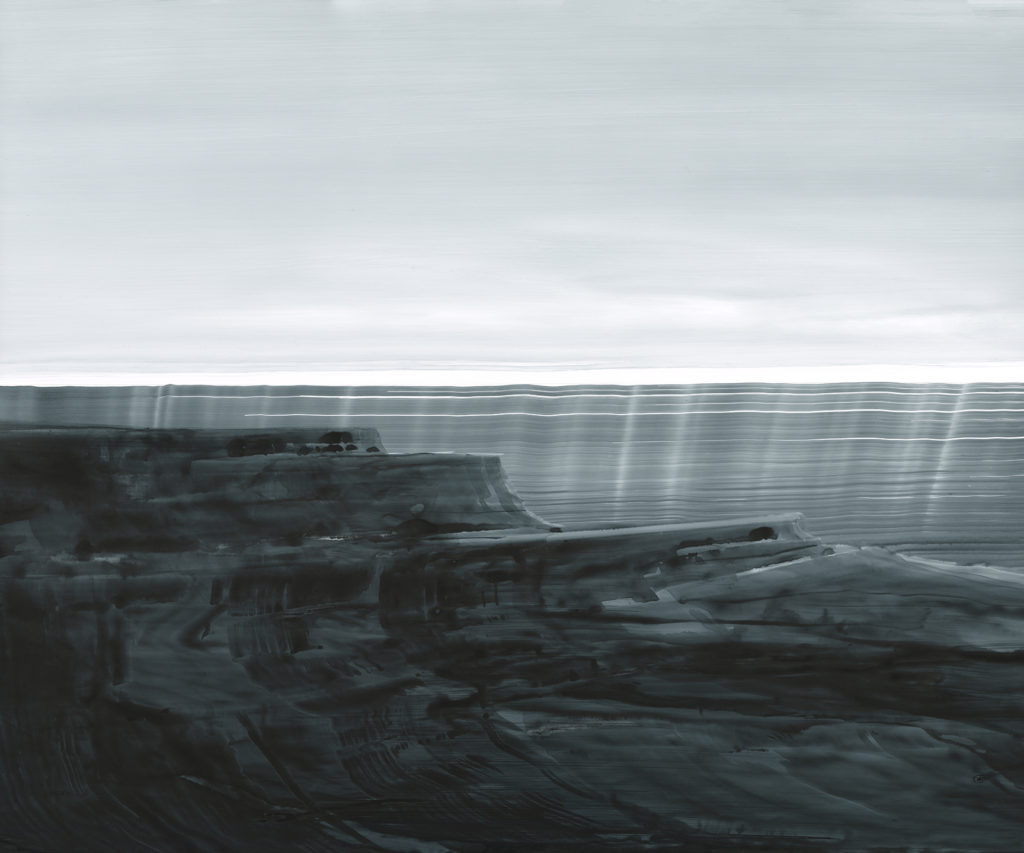
24×20
ink on yupo
2020
Frances B. Ashforth
All images courtesy of Frances Ashforth
LISTEN
Download on Apple Podcasts
—
Download on Spotify
—
Download on Google Podcasts
—
Download on Overcast
EPISODE NOTES
Topics Discussed:
- 3:40 – Francie discusses her childhood
- 5:30 – Francie talks about her family’s creative streak
- 8:30 – Francie discusses an accident that impacted her childhood
- 19:00 – Francie talks about her college education and early career in architecture
- 26:15 – Francie explains her transition from professional drafting to focusing on her own art
- 28:55 – Francie describes her art
- 32:30 – Francie talks about her Water and Word Project
- 37:15 – Francie explains her process of adapting existing words into new, complementary art
- 42:45 – Francie talks about how she became involved with Dylan Tomine, Headwaters, and Patagonia Books
- 49:15 – Francie discusses reading and the books that make up her personal “bibliography”
- 1:00:30 – Francie talks about what is giving her hope these days
Information Referenced:
- Frances B. Ashforth
- Francie on Instagram
- Water + Words
- Dylan’s past Headwaters event
- Connecticut River
- Printmaking
- Drafting
- Westport, CT
- Scoliosis
- Body brace
- C-curve scoliosis vs S-curve scoliosis
- Lexington Avenue, New York City
- Tree well
- Forest Gump
- Forest Gump loses his brace
- Fine Homebuilding Magazine
- PageMaker
- CAD system
- Ecotones
- Dylan Tomine
- Headwaters by Dylan Tomine
- Joe Whitworth
- Rachel Finn
- Spencer Beebe
- Christopher Shore
- Codex Foundation
- Malinda Chouinard
- Patagonia books
- Rick Ridgeway
- The Immense Journey by Loren Eiseley
- Jane Goodall
- Far North by Marcel Theroux
- Where the Crooked River Rises by Ellen Waterston
- Bend, OR
- Playa
- Summer Lake, OR
- Rancher, Farmer, Fisherman by Miriam Horn
- Refuge by Terry Tempest Williams
- Arctic Dreams by Barry Lopez
- Horizon by Barry Lopez
- Buffalo for the Broken Heart, Dan O’Brien
- Antelope Island
- Basin and Range, John McPhee
- Survival of the Bark Canoe, by John McPhee
- Oranges by John McPhee
- Draft No. 4 by John McPhee
- Encounters with the Archdruid by John McPhee
- The Red Pony by John Steinbeck
- Old Yeller by Fred Gipson
- Where the Sea Used to Be by Rick Bass
- Powell’s bookstore
- Fourth of July Creek by Smith Henderson
- Bryan Nash Gill
- Eric Arzubi
- Thirteen Moons by Charles Frazier
- The Big Sky by A.B. Guthrie, Jr.
- The Way West by A.B. Guthrie, Jr.
- Kentucky Straight by Chris Offutt
- The Good Brother by Chris Offutt
- Nate Schweber
Enjoy this episode? Then you might like these too:
- Dylan Tomine – Protecting What He Loves
- Heather Hansman, Part 2 – The Fascinating Story of Skiing’s Past, Present & Future
- Kate Mannix – A Legacy of Land Stewardship
- Kelsey Johnson – Chasing Her Artistic Ambitions
- Iris Gardner – Living with Intention
- Juanita Vero, Part 2 – A Deep Desire to Serve
- Dr. David Hewitt – The Science of Wildlife Conservation
- Riddy Arman – Artistic Authenticity
Visit the podcast page for a full list of episodes where you can filter episodes by topic and guests' vocations.

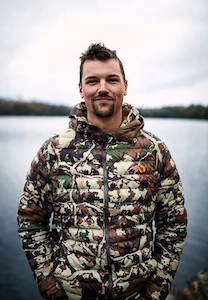
Mark Kenyon is an author, podcaster, conservationist, and member of the MeatEater crew. You probably know him from his excellent book That Wild Country: An Epic Journey Through the Past, Present, and Future of America's Public Lands, the Wired to Hunt podcast, or his contributions to MeatEater's Netflix show and other video productions. To learn more about Mark and his impressive personal and professional journey, I'd encourage you to go back to our first Mountain & Prairie conversation from a few years ago, which is linked in the episode notes.
In this episode, Mark and I are doing something a little different: We're focusing exclusively on books. Earlier this year, Mark had me on his podcast to discuss our favorite books about conservation, and we both received excellent feedback on that episode. You can find a link to that discussion in the notes. So we decided to have another book conversation, this time focusing on some of our favorite books about the American West. Both Mark and I are voracious readers who love share a love of history, conservation, and adventure, so I'm always excited to hear Mark's recommendations and thoughts on a wide range of titles.
The episode starts out with a brief catch-up on Mark's summer adventures and his current work with MeatEater, and then we dive into the books. We each picked five of our all-time favorites, and, as you'd expect, we veer off into other tangentially related titles and subjects. This is an episode where you'll definitely want to check out the episode notes, because there are links to dozens of books, authors, films, and other resources. Mark and I could've easily talked for three or four hours, but we had to keep the conversation relatively short because of tight schedules. However, we're going to try and make these book conversations a regular occurrence on both of our podcasts– so if you like this format, stay tuned for more!
If you haven't already, I'd encourage you to check out Mark's podcast or follow him on social media– he's a smart, thoughtful, hard-working guy that brings tons of value to the world of conservation and outdoor recreation. Please enjoy the episode, and if you do, please share it with a few friends.
Mark’s Five Recommendations
Desert Solitaire by Edward Abbey
Blood Meridian by Cormac McCarthy
The Course of Empire by Bernard DeVoto
Dreams of Eldorado by H.W. Brands
The Oregon Trail by Rinker Buck
Great Plains by Ian Frasier
Ed’s Five Recommendations
Blood and Thunder by Hampton Sides
The Emerald Mile by Kevin Fedarko
Leave It As It Is by David Gessner
Bad Land by Jonathan Rabin
American Zion by Betsy Gaines Quammen
---
Headshot courtesy of Mark Kenyon
—
Download on Apple Podcasts
—
Download on Spotify
—
Download on Google Podcasts
—
Download on Overcast
EPISODE NOTES
Topics Discussed:
- 4:00 - Mark talks about his summer with his family
- 11:30 - Mark discusses his plans for Meat Eater in the fall
- 13:15 - Mark talks about the incredible experiences that constitute his job
- 14:30 - Mark and Ed discuss their five favorite American West conservation books (see their lists below) starting with Desert Solitaire
- 27:30 - Blood and Thunder
- 33:15 - Empire of the Summer Moon
- 34:45 - Blood Meridian
- 36:15 - The Course of Empire and
- 39:15 - Dreams of Eldorado
- 45:15 - The Emerald Mile
- 51:00 - The Oregon Trail
- 54:45 - Leave It As It Is
- 59:00 - Great Plains
- 1:03:15 - Badlands
- 1:05:45 - American Zion
Information Referenced:
- That Wild Country by Mark Kenyon
- MeatEater
- Ed and Mark on Wired to Hunt
- Mark’s first appearance on Mountain & Prairie
- Jocko energy drink
- Sculpin
- Cutthroat Trout
- Nymph
- Dry fly
- Mending the line
- Riffle
- Rainbow Trout
- Largemouth Bass
- Spin reel fishing vs fly fishing
- Steve Rinella
- Janis Putelis
- Pronghorn
- Undaunted Courage by Stephen E. Ambrose
- Canyonlands National Park
- Arches National Park
- Glen Canyon
- Sierra Nevada Mountains
- All the Wild That Remains by David Gessner
- Edward Abbey
- Wallace Stegner
- The Godfather
- Yvon Chouinard
- John C. Frémont
- James Henry Carleton
- Navajo
- Empire of the Summer Moon by S.C. Gwynne
- Comanche
- Quanah Parker
- The Overstory by Richard Powers
- Across the Wide Missouri by Bernard DeVoto
- Year of Decision: 1846 by Bernard DeVoto
- Astoria by Peter Stark
- Santa Fe Trail
- Nate Schweber
- This America of Ours by Nate Schweber
- Kevin Fedarko (MnP)
- Outside Magazine
- Beyond the Hundredth Meridian by Wallace Stegner
- Downriver by Heather Hansman
- Heather Hansman
- Cadillac Desert by Marc Reisner
- Martin Litton
- Pete McBride
- Into the Canyon
- A Walk in the Woods by Bill Bryson
- Bears Ears National Monument
- Theodore Roosevelt: The Strenuous Life by Kathleen Dalton
- In Cold Blood by Truman Capote
- Betsy Gaines Quammen
- Malheur occupation
Enjoy this episode? Then you might like these too:
- Hampton Sides – Live at the Aspen Institute
- Betsy Gaines Quammen – A Fascinating History of Public Lands in the West
- David Gessner, Part 3 – A Confluence of Conservation Ideals
- Hal Herring – A Man of Words & Wild Places
- Heather Hansman – Demystifying Water in the West
- Sara Dant – A Deep Dive Into the History of the West
- Nate Schweber – A Forgotten Chapter of American Conservation
- Chris La Tray – Rediscovering His Past, Writing His Future
- Callan Wink – A New Voice for the New West
- Peter Heller – Chasing the Flow
- Chandra Brown – Fostering Creativity Through River Adventures
Visit the podcast page for a full list of episodes where you can filter episodes by topic and guests' vocations.

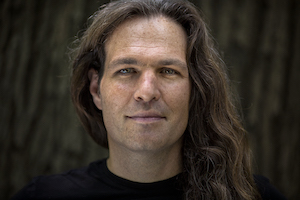
Photo credit: Dave Sanders
Nate Schweber is an award-winning journalist whose work has been featured in the New York Times, ProPublica, Anthony Bourdain’s Parts Unknown, and more. He’s also the author of the new book This America of Ours: Bernard and Avis DeVoto and the Forgotten Fight to Save the Wild, which was published in early July 2022. If you’re looking for an engaging and entertaining history book that highlights an often-overlooked era of conservation in the American West, then This America of Ours is your book– as you’ll hear in this conversation, I thoroughly enjoyed it.
Nate is a native Montanan who grew up in Missoula and headed east to New York City as a young man to pursue a career in journalism. Despite building a successful life and career in the big city, Nate never lost his love for Montana– so he made an effort to pursue more stories linked to the people and landscapes of the American West. As he studied and explored the West with his journalist’s eye, he discovered the writings of Bernard DeVoto and was quickly captivated. Fast forward to today, and he has written an amazing book about Bernard and his wife Avis, and how together they were one of the most important and effective forces for conservation in the early 20th century.
I knew I was going to enjoy This America of Ours, but it surpassed all of my lofty expectations. While I had definitely heard of the DeVotos, I had no idea of their influence and fearlessness, especially as they faced off against powerful forces that were attempting to sell off vast tracts of our public lands. Nate and I dig into all aspects of the DeVotos’ lives and historical importance, both individually and as a power couple. We talk about why Nate became so obsessed with the DeVotos, and how the DeVotos bridged the gap between Theodore and Franklin Roosevelt’s conservation legacies and the modern-day environmental movement. We discuss the parallels between the public lands battles of today and those of the early 20th century, and how reading history helps us to better understand and process today’s current events. Nate also offers up tons of excellent book recommendations, so be sure to check out the notes for a list of all the topics we discuss and links to everything.
A huge thanks to Nate for writing such an enlightening book and for taking the time to join me for a conversation. I hope you enjoy!
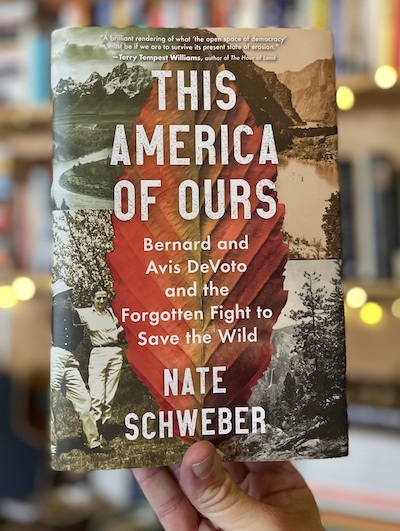
Header photo courtesy of Nate Schweber, headshot by Dave Sanders
—
Download on Apple Podcasts
—
Download on Spotify
—
Download on Google Podcasts
—
Download on Overcast
EPISODE NOTES
Topics Discussed:
- 4:00 - How the DeVotos captured Nate’s attention
- 8:45 - Nate describes the DeVotos' personalities
- 13:30 - Nate explains how a flood galvanized Bernard DeVoto’s passionate conservation ethic
- 20:00 - The role road trips played in the DeVotos' lives and work
- 27:00 - Nate discusses how learning the historical and legal backdrop for conservation colors his understanding of the challenges surrounding conservation and public lands now
- 32:00 - Nate introduces some of the tangles the DeVotos had with the FBI following accusations that the couple were communists
- 38:00 - Nate discusses an important friendship for the DeVotos: Julia Child
- 44:00 - Nate dives into his process of researching the DeVotos
- 49:45 - Nate talks about his career and how he ended up moving from Missoula, MT to New York City, and why he stays there now
- 55:07 - Ed and Nate discuss contradictions in each personality and how they make people more interesting
- 58:00 - Nate recommends some books
- 1:03:30 - Nate’s parting words of wisdom
Information Referenced:
- This America of Ours: Bernard DeVoto and the Forgotten Fight to Save the Wild by Nate Schweber
- Bernard DeVoto
- Avis DeVoto
- David Gessner
- This Land by Christopher Ketchum
- Harper’s Magazine
- Upper Peninsula, Mchigan
- Ogden, UT
- Homer
- Wasatch Range
- Harvard University
- University of Utah
- Cloudburst
- Pueblo, CO
- Escalante, UT
- Silver City, NM
- Clean Air Act
- Endangered Species Act
- The Wilderness Act
- Wild and Scenic Rivers Act
- Land and Water Conservation Fund
- “The West Against Itself,” by Bernard DeVoto
- Civilian Conservation Corps (CCC)
- The Garrison Dam
- Mandan, Hidatsa, and Arikara Nation
- Joseph Kinsey Howard
- Montana: High, Wide, and Handsome by Joseph Kinsey Howard
- Ansel Adams
- Wallace Stegner
- Chet Olson
- Fred Sanders
- Karl Marx
- J. Edgar Hoover
- Joseph McCarthy
- Thomas McGuane
- Jim Harrison
- Hunter S. Thompson
- Hell’s Angels: A Strange and Terrible Saga by Hunter S. Thompson
- Robert Frost
- Stanford University
- Ray Bradbury
- Julia Child
- Julie and Julia
- Deborah Rush
- Julia series on HBO
- Bebe Neuwirth
- Saturday Evening Post
- “Shall We Let Them Ruin Our National Parks,” article by Bernard Devoto
- Blacklisting
- Reader’s Digest
- Fortune
- Reno, NV
- Pat McCarran
- Laramie, WY
- Wyoming Stock Growers Association
- Weber State University
- DeVoto’s Nonfiction Western Trilogy
- The Year of the Decision: 1846 by Bernard DeVoto
- Across the Wide Missouri by Bernard DeVoto
- The Course of Empire by Bernard DeVoto
- DeVoto’s West: History, Conservation, and the Public Good by Bernard DeVoto
- The Western Paradox: A Conservation Reader by Bernard DeVoto
- Rightful Heritage by Douglas Brinkley
- James Welch
- Blackfeet
- Killing Custer by James Welsch
- The Overstory by Richard Powers
- The Hour of Land by Terry Tempest Williams
- Grizzly Years by Doug Peacock
- Hayduke Lives! By Edward Abbey
- Louise Erdrich
- Toni Morrison
- Laila Lalami
- Phillip Roth
- Angle of Repose by Wallace Stegner
- Timothy Egan
- Hal Herring
- Podcast and Blast
- Backcountry Hunters and Anglers
- Mark Kenyon
- Jon PageThe Craft Brewery Cookbook by John Holl
Enjoy this episode? Then you might like these too:
- Land Tawney – Energetic & Optimistic
- Betsy Gaines Quammen – A Fascinating History of Public Lands in the West
- Steve Casimiro – Voice of Adventure
- Carlos Fernandez – The Power of Partnerships
- David Gessner, Part 3 – A Confluence of Conservation Ideals
- Hal Herring – A Man of Words & Wild Places
- Mark Kenyon – A Passion for Public Lands
- Heather Hansman – Demystifying Water in the West
- Sara Dant – A Deep Dive Into the History of the West
Visit the podcast page for a full list of episodes where you can filter episodes by topic and guests' vocations.

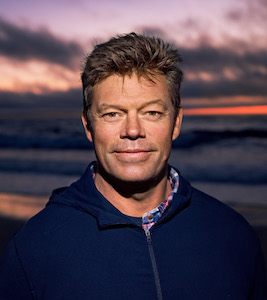
Pete McBride is an award-winning photographer and filmmaker whose work is regularly featured by National Geographic, Smithsonian, The Nature Conservancy, and other renowned institutions. His most recent book is titled Seeing Silence: The Beauty of the World’s Most Quiet Places, and it features photographs and stories from more than two decades of his adventures on all seven continents. Seeing Silence uses stunning imagery and engaging storytelling to highlight the importance of places free of man-made noise, and it educates the reader on just how quickly silence is disappearing from the world.
For more than twenty years, Pete has been using his skills as a storyteller to inspire action on a wide variety of conservation issues. He has highlighted the multitude of threats facing the Grand Canyon in both his documentary Into the Grand Canyon and his book Grand Canyon: Between River and Rim. He’s also documented the West’s ongoing water crisis by focusing on the myriad of challenges affecting the Colorado River basin–making the important but sometimes confusing topic of water in the West accessible to a broader audience. And now, with Seeing Silence, he’s turned his focus to noise pollution and natural sounds, and I personally learned a lot from the book and this conversation.
This is Pete’s second appearance on the podcast, so if you’d like to learn more about his personal backstory and adventures in the Grand Canyon, you can find a link to that conversation in the episode notes. In this conversation, we go deep into Pete’s new obsession with silence and natural sounds, and why noise pollution is such a critical conservation issue. We started out talking about Pete’s expedition to South Georgia Island back in March of 2020 and how he had to make a hasty escape from the island when Covid descended on the world. We talk about his experience during Covid, and how the pandemic shifted his interests from the visual to the auditory. We discuss how artificial noise affects wildlife, why Pete feels a responsibility not to share specific wilderness locations on social media, how Pete’s family keeps him grounded, the larger purpose that drives his professional work, his recent trips to Lake Powell, and we also included some sounds that Pete recorded during his South Georgia Island expedition.
It was great to chat with Pete again, and I’d encourage you to check out Seeing Silence– it’s an excellent book. And be sure the check out the episode notes for a complete list of all the topics we discussed and links to everything. Thanks to Pete for taking the time, and thanks to you for listening. I hope you enjoy!

Header photo and headshot courtesy of Pete McBride, book photo by Ed
—
Download on Apple Podcasts
—
Download on Spotify
—
Download on Google Podcasts
—
Download on Overcast
EPISODE NOTES
Topics Discussed:
- 3:30 - Where Pete was during the start of the pandemic
- 5:30 - Thousands of King Penguins
- 10:15 - How Pete, as an outgoing person, adjusted from a career of traveling for films to pandemic isolation
- 13:30 - An example that Pete observed of how pandemic silence affected wildlife
- 23:30 - Pete reflects on shifting his focus from more visual media to auditory
- 26:45 - Pete discusses a search for quiet and how human-made sound and industry impacts wildlife
- 32:30 - Pete and Ed discuss the impact of human-caused light pollution along with the impacts sound has on humans
- 36:45 - Pete describes why he became interested in sound
- 40:00 - Pete discusses the responsibility he feels as a photographer to not inspire destructive over-visitation of beautiful natural places
- 44:45 - Pete discusses how he and his family keep him humble and grounded despite widespread attention
- 49:45 - Pete talks about weaving adventure into work for conservation, and follows up on our first conversation regarding the state of water in the western US
- 59:30 - Pete gives us some conservation optimism
Information Referenced:
- Pete’s first visit on Mountain & Prairie
- Seeing Silence by Pete McBride
- South Georgia Island
- Ernest Shackleton
- King Penguins
- Falkland Islands
- Drake Passage
- Kevin Fedarko
- Roaring Fork Valley
- Rolling Stones
- Mick Jagger
- Jaque de Vos
- Svalbard
- Herring
- Swim bladders
- The Grand Canyon: Between River and Rim
- Colorado River Delta
- Gordon Hempton
- Maroon Bells-Snowmass Wilderness
- Independence Pass
- The End of Night by Paul Bogard
- San Juan River
- Pete’s NPR 1A interview
- Rick Ridgeway
- Yampa River
- Lake Powell
- Jonathan Wright
- Glen Canyon
- Lake Mead
- Flaming Gorge
- Len Necefer
- Glen Canyon Institute
- Desalination
- Kris Tompkins
Enjoy this episode? Then you might like these too:
- Rick Ridgeway – Purpose-Driven Adventurer
- Heather Hansman – Demystifying Water in the West
- Chris Burkard, Part 2 – Seeking Beauty Through Adventure
- Betsy Gaines Quammen – A Fascinating History of Public Lands in the West
- John Branch – Seeking the Extraordinary in the Ordinary
- Monte Burke – Exploring Obsession
- Mike Foote – Perfection is in the Process
- Steve Casimiro – Voice of Adventure
- Gabe Vasquez – Advocate for Equity in the Outdoors
Visit the podcast page for a full list of episodes where you can filter episodes by topic and guests' vocations.

Rick Ridgeway is a world-renowned mountaineer and adventurer who has devoted his life to exploring some of the wildest regions of Planet Earth– from the summit of K2 to the jungles of Borneo to the mountain ranges of the American West and almost everywhere in between. Rick is also a highly regarded author, director, and producer who has written seven books and created numerous films and television shows. His newest book is titled Life Lived Wild: Adventures at the Edge of the Map, an excellent memoir that dives deep into his adventures, friendships, environmental advocacy, and pursuit of purpose-driven work.
Rick was born and raised in California, and when he was a teenager, his mother gave him a subscription to National Geographic, which ignited his passion for climbing and adventure. Early in his climbing career, Rick ticked off some unbelievably difficult climbs around the world, most notably being the first American to summit K2. But as he grew older and more experienced in the mountains, he shifted his focus away from pursuing adventure for adventure's sake. Over time, he began to use his skills as an athlete and explorer to advance more purpose-driven causes such as wildlife conservation and environmental advocacy. Rick's commitment to living a purpose-driven life is beautifully detailed in his new book Life Lived Wild, a book that I loved and highly recommend.
I had the pleasure of recording this conversation with Rick in person, just before a book signing at the Patagonia store in Denver. I have long admired Rick, and one of his earlier books played a huge role in my personal development, so it was an honor to have the opportunity to sit and talk with him for an hour. We started out discussing how and when he first began climbing and how he grew from an amateur climber into a world-class mountaineer. We talk a lot about mentorship– how he was mentored by climbing and environmental luminaries Yvon Chouinard and Doug Tompkins, and how he mentored many up-and-coming climbers, including Jimmy Chin. We talk about his commitment to taking action and being a doer, his success as an entrepreneur, and his 15-year tenure leading Patagonia's sustainability initiatives. We talk about what brings Rick hope in the face of the climate crisis, how the pandemic affected him, and, as you'd expect from such a skilled writer, Rick offers tons of excellent book recommendations.
Huge thanks to Rick for taking the time to chat and to Patagonia Books for setting it all up. Meeting Rich was really a dream come true for me. I hope you enjoy.
Photos courtesy of Patagonia Books. Header by John Roskelley, portrait by Jimmy Chin.
This episode is brought to you thanks to the generous support of Ranchlands.
Visit www.ranchlands.com to learn more about their top-notch vacations, leather goods and apparel, or to explore their excellent blog, the "Ranchlands Review."
THANK YOU, Ranchlands!
—
Download on Apple Podcasts
—
Download on Spotify
—
Download on Google Podcasts
—
Download on Overcast
EPISODE NOTES
Topics Discussed:
- 6:00 - A thank you to Rick
- 7:30 - Rick describes the moment he knew what he wanted to do when he grew up
- 13:30 - Rick talks us through his transition from climbing just for fun to using climbing to inform larger causes
- 21:30 - Rick talks about mentorship and what inspires him to be that kind of friend to people
- 29:15 - Rick talks about his experiences on the second American expedition on Everest and the first American expedition on K2 with his mentor, Jim Whittaker
- 32:00 - Rick explains the “do” mentality of Yvon Chouinard and Doug Thompkins
- 36:45 - Rick talks about his career shift from owning his own business to a job at an established company (Patagonia)
- 44:45 - Rick discusses how he finds balance between a business’s larger purpose and the details in its operation
- 48:30 - Rick talks about hope and climate change
- 56:00 - Rick talks about his lessons in exploration during the pandemic
- 1:00:15 - Rick’s book recommendations
Information Referenced:
- Life Lived Wild: Adventures at the Edge of the Map by Rick Ridgeway
- Seven Summits by Dick Bass, Frank Wells, and Rick Ridgeway
- Jim Whittaker
- National Geographic
- Sierra Nevadas
- Thunder Mountain
- Santa Ana River
- Outward Bound
- National Outdoor Leadership School (NOLS)
- Marin County
- Yvon Chouinard
- Doug Thompkins
- Jimmy Chin
- Conrad Anker
- Galen Rowell
- Brady Robinson
- Mountain Hardwear
- Alex Lowe
- Ventura, CA
- The North Face
- Fitz Roy Peak
- Osprey
- Sustainable Apparel Coalition
- The Higg index
- Dylan Tomine
- One Earth
- Leonardo DiCaprio Foundation
- Justin Winters
- Kris Thompkins
- Eric Goode
- Turtle Conservancy
- Rose Marcario
- The Snow Leopard by Peter Matthiessen
- Seven Pillars of Wisdom by T.E. Lawrence
- In Patagonia by Bruce Chatwin
- South by Ernest Shackleton
- For Whom the Bell Tolls by Ernest Hemingway
- Cormac McCarthy
- Silent Spring by Rachel Carson
- Desert Solitaire by Ed Abbey
- The Red Badge of Courage by Stephen Crane
Enjoy this episode? Then you might like these too:
- Dylan Tomine – Protecting What He Loves
- Luke Smithwick – A Life in High Places
- Chris Burkard, Part 2 – Seeking Beauty Through Adventure
- Elliott Woods – Stories from Dangerous Places
- Brendan Leonard, Part 2 – On Running, Creating, and Other Irrational Passions
- Iris Gardner – Living with Intention
- Heather Hansman, Part 2 – The Fascinating Story of Skiing’s Past, Present & Future
Visit the podcast page for a full list of episodes where you can filter episodes by topic and guests' vocations.
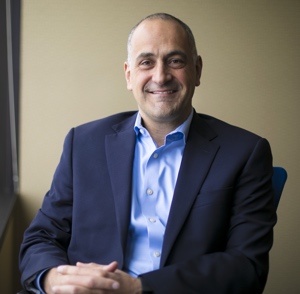
Dr. Eric Arzubi is the co-founder of Frontier Psychiatry, a Montana-based medical practice that is accelerating and expanding access to high-quality psychiatric care for rural communities.
By many metrics, Montana can be described as the epicenter of the United States’ mental health crisis. The large, mostly rural state is home to many vulnerable populations who are disproportionately affected by mental health concerns. And given Montana’s sprawling, lightly populated landscape, easy access to specialized and high-quality mental health care has been a significant challenge. But thanks to technological advancements and increased internet access, Eric and his team have successfully used telepsychiatry to reach underserved communities throughout Montana.
Eric’s path to becoming an innovator in rural medicine is an amazing, unexpected, and inspiring story. After graduating from college, he spent most of his twenties working as a Wall Street bond trader for Morgan Stanley, traveling the world and earning a great living. But despite his material success, he was unfulfilled with his career and felt a deep longing to do purpose-driven work that made the world a better place. So, at age 29, he decided to walk away from Wall Street and begin the long process of becoming a doctor– prerequisite courses, medical school, residency, and a fellowship in child psychiatry. At age 44, he landed his first job as a psychiatrist in Billings, Montana, where he fell in love with the people and place, and he began his quest to find solutions to the mental health crisis that plagues the rural West.
Mental health is a topic that is near and dear to my heart, so it was a real honor to have the opportunity to chat with Eric and learn about his innovative approach to solving such a complex societal challenge. We started out discussing his path to medicine– everything from why he decided to walk away from Wall Street to why he chose psychiatry as his specialty. We discuss the factors that have made Montana the epicenter of the mental health crisis, and what makes Frontier Psychiatry so uniquely qualified to help. We discuss approaches to scaling mental health care throughout the West, how Eric’s business and entrepreneurial background has helped him to find solutions to such a complex problem, and why it’s important for all of us to be advocates for mental health in our own communities. He also describes one of Frontier Psychiatry’s newest initiatives, a partnership with the Montana Department of Agriculture that provides free, confidential counseling to men and women working in agriculture in Montana.
Eric’s life story and his work are extremely inspiring and important, so I know you’ll enjoy this episode. Thanks to Eric for taking the time to talk, and thanks to you for listening.
Headshot courtesy of Eric Arzubi
—
Download on Apple Podcasts
—
Download on Spotify
—
Download on Google Podcasts
—
Download on Overcast
—

This episode is brought to you by The Arthur M. Blank Family Foundation and its Montana-based AMB West Philanthropies, both of which embody the values-based approach to philanthropy and business of their Chairman Arthur M. Blank
EPISODE NOTES
Topics Discussed:
- 4:00 – Eric describes what he was doing when he was 28
- 6:00 – Eric talks about his change of heart at age 29
- 12:00 – Eric discusses his friends’ and family’s reaction to his career shift, and how one staff member at Morgan Stanley gave him the courage and space to pursue his medical career
- 16:00 – Eric talks about how psychiatry caught his attention
- 21:45 – Eric explains how he ended up in Montana
- 32:30 – Eric talks about what makes Frontier Psychiatry special
- 37:30 – Eric discusses how his nontraditional career path may have helped him challenge established practices in the field of mental healthcare
- 41:45 – Eric talks about the balance in his work between addressing distinct issues and deep, underlying problems
- 48:45 – Eric discusses what gives him hope that there are scalable solutions for mental health challenges, especially in rural communities
- 55:00 – Eric explains the role that untrained citizens can play in advocating for/supporting mental health
- 1:02:45 – Eric’s book recommendations
- 1:07:30 – Eric’s parting words of wisdom
Information Referenced:
- Eric’s TED talk
- Frontier Psychiatry
- Morgan Stanley
- The Hamptons
- American Academy of Pediatrics
- Philips
- Billings Clinic
- Adverse Childhood Experiences
- Nurse-Family Partnership
- National Alliance on Mental Illness
- Mental Health America
- Healing: Our Path from Mental Illness to Mental Health by Thomas Insel
- National Institute of Mental Health
- The Voltage Effect by John A. List
- The Culture Engine by Chris Edmonds
- Counseling Access for Montana Ag
Enjoy this episode? Then you might like these too:
- Matt Pierson – Finding New Solutions for Food Insecurity
- Liz Moore – For the Love of Montana
- NEW WEST DISPATCH – Marci McLean & Cora Neumann on COVID’s Impact on Native Communities
- Shane Doyle – Reverence for the Past, Hope for the Future
- Iris Gardner – Living with Intention
- Chris La Tray – Rediscovering His Past, Writing His Future
- Kate Kavanaugh – Regeneration & Restoration
- Mike Foote – Perfection is in the Process
- Jason Gardner – A Life of Purpose & Service

This episode is a little different-- it's me being interviewed by my friend and past Mountain & Prairie podcast guest Kate Kavanaugh. If you've been listening for a while, then I'm sure you remember Kate-- she's a farmer, butcher, and all-around interesting woman who co-founded Western Daughters Butcher Shop in Denver.
Kate recently started an excellent new podcast called Ground Work, which covers a variety of interesting topics, from soil to health to books to intentional living. Kate is unbelievably smart and insightful, and there's a ton of overlap between what I'm doing with M&P and what she's doing with Ground Work, so I'd encourage you to check out all of her episodes. There's a link in the notes.
Even though I'm still confused as to why anybody would ever want to interview me, Kate did and we had a fun conversation about everything from conservation to ultra running, reading to starting a podcast. We also talk a lot about my obsession with living what Theodore Roosevelt called the Strenuous Life, and how adopting that approach to life has been life-changing for me.
And speaking of the Strenuous Life, I just launched a new section of the website devoted to The Strenuous Life and offering ways for the Mountain & Prairie community to connect and collaborate in the spirit of "Living Strenuously." Rather than try to explain it all here, I’d encourage you to click over to learn more about all the details.
Thanks for listening. Hope you enjoy this and all of Kate’s podcast episodes. And I hope you’ll be able to join some of the M&P community in our commitment to living the Strenuous Life. Enjoy!
- Kate’s GROUND WORK podcast
- Strenuous Living on Mountain & Prairie
- Mountain & Prairie on Strava
- Mountain & Prairie on Goodreads
- Annual Strenuous Life Retreat
—
Download on Apple Podcasts
—
Download on Spotify
—
Download on Google Podcasts
—
Download on Overcast
“I wish to preach, not the doctrine of ignoble ease, but the doctrine of the strenuous life, the life of toil and effort, of labor and strife; to preach that highest form of success which comes, not to the man who desires mere easy peace, but to the man who does not shrink from danger, from hardship, or from bitter toil, and who out of these wins the splendid ultimate triumph.”
Theodore Roosevelt
Land Tawney is the President and CEO of Backcountry Hunters and Anglers, one of North America’s leading and most effective advocates for wild public lands, waters and wildlife. Founded around a campfire in 2004, BHA uses education, nonpartisan political advocacy, stewardship initiatives, and stakeholder coalitions to ensure the protection of our public lands for generations to come. As its name implies, BHA is an organization that works on behalf of sportsmen, but you don’t have to be a hardcore hunter or fisherman to benefit from its work. I’m a lot of things, but a hardcore hunter is not one of them– yet, I’m a proud member of BHA and a super-fan of all that it has accomplished.
Land was born and raised in Montana, the son of two highly respected conservationists who instilled in him a deep reverence for wild places and the importance of protecting them. From an early age, Land was hunting, fishing, and spending time around his parents’ friends and colleagues, many of whom were well-known, renowned conservationists. When Land was in college, his father passed away, which fortified his desire to devote all of his professional energy to conserving the wild places that have always meant so much to his family. After successful stints at several notable conservation organizations, Land took the helm of BHA in 2013. Since then, he has led and grown the organization into one of the country’s leading voices for sportsmen and public land protectors.
When Land and I connected for this conversation, he was hard at work preparing for the upcoming BHA Rendezvous, which is taking place May 12-14, 2022 in Missoula, Montana. We discuss all of the details of that premiere conservation event, and you can find additional information in the notes and on this episode’s webpage. And we also covered a ton of interesting and important topics, including: the importance of advocating for conservation in Washington, DC; how apathy can be a huge threat to our wild lands; the slippery-slope threat of transferring federal lands to state or private entities; the importance of remaining optimistic in the face of challenges; how BHA helps and encourages new hunters; the importance of BHA’s state chapters and local leadership; Land’s personal and professional conservation journey; and, of course, he offers tons of great book recommendations.
A huge thanks to Land for joining me during such a busy time of year. And I encourage all of you to check out BHA’s membership options and consider supporting them if you are so inclined. I deal with conservation organizations all day in both my podcast and conservation work, and BHA is the best of the best. Hope you enjoy this episode.
Header photo courtesy of Land Tawney and BHA, portrait by Maggie Hamilton
This episode is brought to you thanks to the generous support of Ranchlands.
Visit www.ranchlands.com to learn more about their top-notch vacations, leather goods and apparel, or to explore their excellent blog, the "Ranchlands Review."
THANK YOU, Ranchlands!
—
Download on Apple Podcasts
—
Download on Spotify
—
Download on Google Podcasts
—
Download on Overcast
EPISODE NOTES
Topics Discussed:
- 6:30 - Land talks about Backcountry Hunters and Anglers
- 12:30 - Land discusses his plan for when he advocates for conservation issues in DC
- 17:15 - Land describes what he thinks is the greatest threat to public lands that folks should be aware of
- 20:15 - Land explains his concern with transferring ownership of public lands to state or private entities
- 23:30 - Land talks about how he maintains a healthy level of skepticism in his advocacy work without becoming jaded
- 27:15 - Land explains the function and importance of BHA’s state chapters
- 30:15 - Land talks about BHA programs that encourage new hunters and anglers
- 36:15 - Land talks about his childhood and the role that the outdoors played in it
- 40:45 - Land discusses his first job out of college
- 44:15 - Land talks about the common threads he noticed in his conservation mentors
- 48:15 - Land describes the BHA Rendezvous
- 58:15 - Land’s book recommendations
Information Referenced:
- Backcountry Hunters and Anglers
- BHA Rendevous 2022
- Trout Unlimited
- Rocky Mountain Elk Foundation
- Pheasants Forever
- Ducks Unlimited
- BHA Armed Forces Initiative
- BHA Collegiate Program
- Land Trust Alliance
- LTA’s Advocacy Days
- Cory Gardner
- Recovering America’s Wildlife Act
- Pittman–Robertson Federal Aid in Wildlife Restoration Act
- Duck Stamps
- Kingfisher
- American Dipper
- Great Blue Heron
- Theodore Roosevelt Conservation Partnership
- Jim Range
- Mike Lee
- The HOUSES Act
- The Federal Land Transaction Facilitation Act
- Adam Gall
- National Wild Turkey Federation
- BHA’s Hunting for Sustainability Program
- BHA’s Women in the Woods Initiative
- BHA Membership
- A River Runs Through It by Norman Maclean
- Blackfoot River
- Clark Fork River
- Bitterroot River
- Patty Canyon
- Duck blind
- Conservation Easements
- Long Eared Owls
- Howard Vincent
- Smith River
- Theodore Roosevelt biography trilogy by Edmund Morris
- The Rendezvous
- Rachel Schmidt
- Tyson Running Wolf
- Rue Mapp
- Outdoor Afro
- David Wise
- Clay Hayes
- Alone
- Mark Kenyon
- Meat Eater
- Jonathan Wilkins
- North American Wildlife Model
- Hal Herring: BHA Podcast & Mountain and Prairie
- Ranch Life and the Hunting Trail by Theodore Roosevelt
- American Sportsmen and the Origins of Conservation by John F. Reiger
- Gifford Pinchot
- Where the Crawdads Sing by Delia Owens
- Otherlands by Thomas Halliday
- Lake Missoula
Enjoy this episode? Then you might like these too:
- Hal Herring – A Man of Words & Wild Places
- Mark Kenyon – A Passion for Public Lands
- Reflections On My First Elk Hunt, with Adam Gall
- Alexis Bonogofsky – Taking a Stand for the West
- Gabe Vasquez – Advocate for Equity in the Outdoors
- Jessica Wahl Turner – Outdoor Recreation & Rural Economies
- Rachel VandeVoort – Harnessing the Power of Outdoor Recreation
- Jason Gardner – A Life of Purpose & Service
- Kelsey Johnson – Chasing Her Artistic Ambitions
- Iris Gardner – Living with Intention
Visit the podcast page for a full list of episodes where you can filter episodes by topic and guests' vocations.
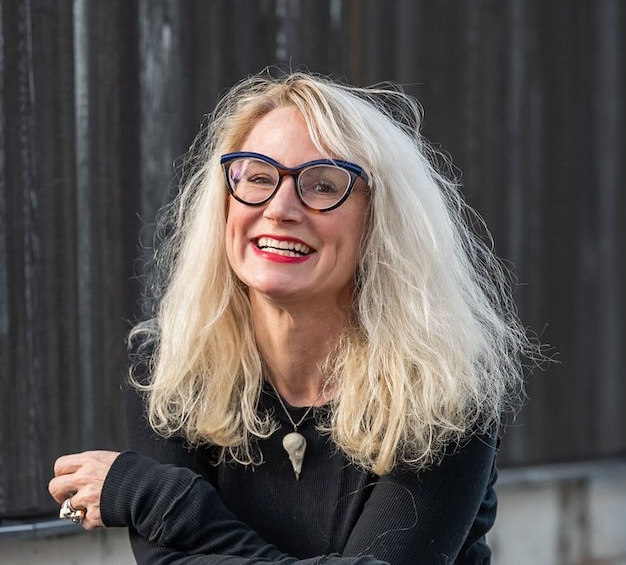
Betsy Gaines Quammen is a historian and conservationist, and she’s also the author of the excellent book American Zion: Cliven Bundy, God, & Public Lands in the West. Betsy has enjoyed a long career in the conservation world, working on issues ranging from grizzly bears in the West to fish in Mongolia to wildlife in East Africa. She also holds a doctorate in Environmental History from Montana State University, where her dissertation focused on the Mormon settlement of the West and public land conflicts. With such a depth of expertise on such a wide range of subjects, I was thrilled to have Betsy join me for a conversation about her book, public lands, and the West.
American Zion had been recommended to me numerous times since it was published in early 2020. Many of my most knowledgeable friends told me it was a must-read for anyone trying to make sense of the present-day threats to public lands here in the West. Well, I finally read it a few weeks ago, and I can confirm that my friends were correct– the book provided me with much-needed, nuanced context for understanding both specific public lands controversies and broader political threats. It also provided fascinating insights into the mindsets and goals of the Bundy family– the people behind the infamous occupation of Malheur Wildlife Refuge and the Battle of Bunkerville. I was also fascinated by the beliefs of the Bundys and their ancestors, and how their ideas about everything from religious texts to the US Constitution have influenced public discourse in the West and beyond.
Betsy and I connected last week and had a fun and educational conversation about everything from her career as a conservationist to her in-person interactions with the Bundy family. We started out discussing how she became interested in the West and why the Morman settlement of the West became the focus of her work. We discuss the Mormon prophets Joseph Smith and Brigham Young, and how and why Mormons settled in the West. We talked about how perceived persecution by the US government has served as a faith-building experience for the Bundys and their followers, and whether or not the Bundys truly believe the prophesies that they preach. We discuss the Sagebrush Rebellion, the Malheur takeover, the Battle of Bunkerville, and how Betsy thinks about her personal safety when writing about potentially violent people. She also talks about how American Zion was positively received by her Mormon friends, describes her current book project, and recommends tons of books that you’ll want to check out. Links to everything are in the episode notes.
It was great to finally have the opportunity to chat with Betsy, and I sincerely appreciate her taking the time. Hope you enjoy it as much as I did.
Top photos courtesy of Betsy Gaines Quammen, book photo by Ed
LISTEN:
—
Download on Apple Podcasts
—
Download on Spotify
—
Download on Google Podcasts
—
Download on Overcast
EPISODE NOTES:
Topics Discussed:
- 6:00 - Betsy reads her opening paragraph from her book American Zion
- 8:45 - Betsy explains how she became interested in the western US
- 10:00 - Betsy talks about why she began looking into Mormon history in the western states
- 14:45 - Betsy talks about her research and interactions regarding the Bundy family and their anti-federal government activities
- 22:00 - Betsy discusses the history of the Church of Jesus Christ of Latter Day Saints and how that impacted many rural attitudes towards land management and the federal government
- 27:00 - Betsy discusses her personal interactions with Cliven Bundy
- 31:00 - Betsy explains the depth of the Bundy’s faith and how that plays out in their political and anti-government action
- 31:30 – Betsy talks about the Bundys’ action after she published her book and explores the differences between the Malheur and Bunkerville incidents
- 34:00 – Betsy talks discusses the implications of her writing for her personal safety
- 35:45 – Betsy explains why any public land user should care about what the Bundys are doing.
- 40:45 – Betsy explains how anti-Semitism and the Sagebrush Rebellion laid the groundwork for the misinformation that is rampant today
- 46:00 - Betsy talks about how her book was received by her Mormon friends
- 50:30 - Betsy discusses her current work
- 52:45 - Betsy’s recommended books about the West
- 1:03:00 - Betsy’s parting words of wisdom
Information Referenced:
- Betsy Gaines Quammen
- American Zion by Betsy Gaines Quammen
- Evergreen, CO
- Colorado Springs, CO
- Colorado College
- Nairobi, Kenya
- Doug Peacock
- Church of Jesus Christ of Latter Day Saints - LDS, Mormons
- Terry Tempest Williams
- Under the Banner of Heaven by John Krakauer
- New TV series based on the book
- Bundyville
- Sarah Dant, Weber State
- Weber State University
- Malheur Wildlife Refuge
- Occupation
- https://en.wikipedia.org/wiki/Cliven_Bundy
- Ammon Bundy
- Joseph Smith
- Zion
- Zion National Park
- Sagebrush Rebellion
- Bunkerville, NV
- The Battle of Bunkerville
- The Wilderness Act
- The Endangered Species Act
- Monroe Mountain
- Piute County
- Q-Anonymous conspiracy theories
- Cleon Skousen
- Glenn Beck
- John Birch Society
- Stewart Rhodes, Oathkeepers
- January 6th insurrection
- Mitt Romney
- Mike Lee
- Gretchen Whitmer
- Burns, OR
- The Rothschilds
- 1992 UN Earth Summit to Address Sustainability in the 21st Century
- Agenda 21
- California dad killed his kids over QAnon and 'serpent DNA' conspiracy theories, feds claim
- LDS statement about the occupation of the Malheur Wildlife Refuge
- Logan, UT
- Fools Crow by James Welch
- Blackfeet Nation
- Close Range: Wyoming Stories by Annie Proulx
- Includes Brokeback Mountain by Annie Proulx
- Ceremony by Leslie Marmon Silko
- Pueblo of Laguna
- Deb Haaland
- House Made of Dawn by N. Scott Momaday
- Kiowa Tribe
- Chris La Tray
- Annie Helen Peterson
- Hal Herring
- Fifty-Six Counties by Russel Roland
- The Mountain Meadows Massacre by Juanita Brooks
- Rick Bass
- Torrey House Press
- Amy Irvine
- David Gessner
- Patagonia Books
- Fantasyland by Kurt Andersen
Enjoy this episode? Then you might like these too:
- Shane Doyle – Reverence for the Past, Hope for the Future
- Adam Gall – A Reverence for Wildlife & Wild Places
- Chris La Tray – Rediscovering His Past, Writing His Future
- Hal Herring – A Man of Words & Wild Places
- Mark Kenyon – A Passion for Public Lands
- Heather Hansman, Part 2 – The Fascinating Story of Skiing’s Past, Present & Future
- Sara Dant – A Deep Dive Into the History of the West
- David Gessner, Part 3 – A Confluence of Conservation Ideals
- Becky Edwards – Amplifying the Power of Women in the West
Visit the podcast page for a full list of episodes where you can filter episodes by topic and guests' vocations.
Brian Yablonski is the Chief Executive Officer of the Property and Environment Research Center (“PERC"), a Bozeman-based research institute dedicated to promoting conservation by exploring how voluntary trade can produce positive environmental outcomes. For more than 40 years, PERC has explored market-based solutions for major conservation challenges throughout the West, and its current initiatives focus on innovative approaches for wildlife conservation, public lands management, and more. For example, PERC recently collaborated with the Greater Yellowstone Coalition and a ranching family in Paradise Valley, MT, to enact a first-of-its-kind elk occupancy agreement, which offers a new, win-win method for managing the sometimes-competing needs of livestock and wildlife.
Brian was born and raised on the east coast, and, prior to taking the helm at PERC, he enjoyed a successful career in public policy, business, and conservation. In 2018, he moved to Bozeman to lead PERC into its next chapter of conservation innovation in the West. As you’ll hear in this conversation, Brian has a deep respect for research, economic theory, and big ideas created by scholars and conservation professionals. But he is equally if not more, committed to putting these ideas into action– to making a tangible difference on the ground, throughout the communities of the West. In my experience, it can be difficult to find organizations that balance scholarly rigor with a commitment to execution, so it was a pleasure to speak with Brian and learn more about PERC’s unique approach to conservation.
Brian and I actually attended the same college in North Carolina, so it was fun to connect with a fellow Wake Forest Demon Deacon to discuss conservation here in the West. We started out discussing the history of PERC, and how and why the organization was founded back in 1980. We talked in detail about the elk occupancy agreement and how this new approach to wildlife and habitat management could be scaled throughout the West. We discuss the all-important role that private landowners play in wildlife and land conservation, and how market-based solutions can create new tools for finding win-win solutions. We discuss PERC’s work exploring the financial sustainability of National Parks, as well as PERC’s history of collaboration with a wide range of nonprofit and governmental entities. Brian shares his thoughts on the ideal role that government can play in conservation, and he discusses a few success stories of his careering in conservation. And as usual, we talk about book recommendations, and Brian offers up some great ones.
I’ve been following PERC’s work in the West for quite some time, so I thoroughly enjoyed being able to learn more about the organization directly from Brian. There are a lot of excellent resources mentioned in the episode, including some films that PERC has produced, so be sure to check out the notes for links to everything. Hope you enjoy!
Photos courtesy of Brian Yablonski and PERC
LISTEN:
—
Download on Apple Podcasts
—
Download on Spotify
—
Download on Google Podcasts
—
Download on Overcast
EPISODE NOTES:
Topics Discussed:
- 4:30 - Brian talks us through the history and work of the Property and Environment Research Center (PERC)
- 7:45 - Brian discusses the Elk Occupancy Agreements PERC has entered with the Greater Yellowstone Coalition
- 24:15 - Brian talks about how the Elk Occupancy Agreements model could be scaled up to incentivize conservation on a broader scale
- 29:30 - Brian discusses the balance he and PERC have to strike between high-level strategic thinking and on-the-ground implementation
- 35:15 - Brian talks about PERC’s partnership with the Environmental Defense Fund
- 38:30 - Brian describes what he believes the ideal role of government is, especially in conservation
- 42:45 - Brian talks about the work PERC is doing with National Parks
- 54:15 - Brian discusses his conservation work in Florida
- 1:00:15 - Brian’s book recommendations
- 1:08:00 - Brian’s parting words of wisdom
Information Referenced:
- The Property and Environment Research Center (PERC)
- PERC on YouTube
- Elk in Paradise
- PERC and National Parks
- Wake Forest University
- Elk Occupancy Agreements
- Greater Yellowstone Coalition
- Arthur Middleton
- Cody, WY
- Brucellosis in cattle
- Western Landowners Alliance
- National Elk Refuge
- Paradise Valley, MT
- Absaroka-Beatooth Wilderness
- Fescue grass
- Timothy grass
- The Nature Conservancy
- Ducks Unlimited
- Environmental Defense Fund
- Paradise Valley Working Lands
- Chris Costello
- Great American Outdoors Act
- Kruger National Park
- Pelican Island
- Critical Wildlife Area
- Coastal Conservation Association
- American Sportfishing Association
- The Bonefish and Tarpon Trust
- Undaunted Courage by Steven E. Ambrose
- American Big Game Hunting: the Book of the Boone and Crockett Club by Theodore Roosevelt and George Bird Grinnell
- Boone and Crockett Club
- Ted Turner
- Rough Riders
- Todd Wilkinson
- Mountain Journal
- Aldo Leopold
Enjoy this episode? Then you might like these too:
- Kate Mannix – A Legacy of Land Stewardship
- Heather Hansman, Part 2 – The Fascinating Story of Skiing’s Past, Present & Future
- Matt Pierson – Finding New Solutions for Food Insecurity
- Shane Doyle – Reverence for the Past, Hope for the Future
- Antonia Malchik – Exploring Culture & Complexity
- NEW WEST DISPATCH – Marci McLean & Cora Neumann on COVID’s Impact on Native Communities
- Carlos Fernandez – The Power of Partnerships
- Rachel VandeVoort – Harnessing the Power of Outdoor Recreation
Visit the podcast page for a full list of episodes where you can filter episodes by topic and guests' vocations.
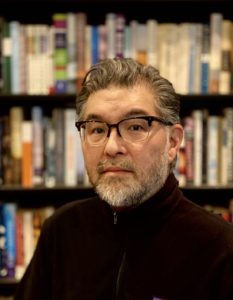
Dylan Tomine is a conservationist, angler, and author of the excellent new book Headwaters: The Adventures, Obsession and Evolution of a Fly Fisherman. Headwaters is a collection of essays and stories from Dylan’s life as a self-proclaimed fly fishing bum, a life that has taken him from his home in the northwest to the far reaches of the globe and back again. You don’t have to be a hardcore angler to connect with this book– it’s an important read for anyone who loves wild places and feels drawn to protect them. And I’m not alone in my praise– in just the few days between when we recorded this conversation and now, the book has received glowing reviews from the Wall Street Journal, Seattle Times, and more.
Dylan was born and raised in the Pacific Northwest, and he’s been obsessed with fish for as long as he can remember. At an early age, he caught his first steelhead, and from that point on he has been laser-focused on that specific species– and he’s devoted huge swaths of his life to both pursuing and protecting the fascinating fish. Given steelhead’s dwindling populations, threatened habitat, and often miserable weather that defines their home waters, steelhead fisherman like Dylan are a rare breed–some would argue they are gluttons for punishment. So when you combine Dylan’s skill as a writer, with his devotion to steelhead, with his love of suffering, the end product is a fascinating man with a gift for telling important stories. Just the kind of person I love getting to know!
I thoroughly enjoyed this conversation with Dylan and thought it was the perfect mix of sobering analysis of the state of the West’s fisheries combined with optimism and solutions for solving the challenges. He also offers up plentiful hilarious and insightful stories from his life on the water. We started out talking about Dylan’s upbringing in the northwest and how and why he became so obsessed with fish. We talk about the moment he realized that he needed to play an active role in protecting fish and fisheries, and why fish health is an indicator of larger environmental challenges. We talk about his longstanding role as a Patagonia fishing ambassador, and how Yvon Chouinard has played a critical role in Dylan’s evolution as a conservationist. We discuss how parenthood changes people’s outlook on environmental challenges and the role of the upcoming generation in the environmental movement. We obviously talk a lot about Headwaters, as well as his previous book called Closer to the Ground, which I also loved. We discussed his creative process, and, as you’d expect, he has tons and tons of excellent book and author recommendations. Be sure to check the episode notes for links to those books and everything else we discuss.
I can’t thank Dylan enough for all his work as a writer and conservationist, and for taking the time to chat with me for this episode. Hope you enjoy!

Header photo by Matthew DeLorme, headshot by Weston Tomine
This episode is brought to you thanks to the generous support of Ranchlands.
Visit www.ranchlands.com to learn more about their top-notch vacations, leather goods and apparel, or to explore their excellent blog, the "Ranchlands Review."
THANK YOU, Ranchlands!
LISTEN:
—
Download on Apple Podcasts
—
Download on Spotify
—
Download on Google Podcasts
—
Download on Overcast
EPISODE NOTES:
Topics Discussed:
- 6:00 - Dylan discusses his childhood and how fishing became a part of his life
- 8:30 - Dylan talks about steelhead
- 11:00 - Dylan describes the general conditions in which one fishes for steelhead
- 16:15 - Dylan talks about the moment he realized there were real problems and challenges facing the native steelhead population
- 20:00 - Dylan describes how becoming a parent impacted his conservation ethic
- 28:00 - Dylan explains why people should care about declining steelhead populations
- 34:00 - Dylan talks about why he wrote his book Headwaters
- 36:00 - Dylan explains how he became involved with Patagonia
- 41:30 - Dylan talks about Yvon Chouinard, what makes him unique, and how that has made Patagonia into the powerhouse company it is today
- 45:00 - Dylan talks about Patagonia Books
- 49:15 - Dylan reads an excerpt from his book
- 54:30 - Dylan describes his writing process
- 58:15 - Dylan talks about the authors he admires
Information Referenced:
- Headwaters by Dylan Tomine
- Closer to the Ground by Dylan Tomine
- Frances Ashforth
- Steelhead
- Olympic Peninsula
- Swung fly
- National Outdoor Leadership School (NOLS)
- Olympic National Park
- Bogachiel River
- Puget Sound
- Skykomish River
- Polio
- Spanish Flu
- Indicator species
- Mark Kurlansky
- Cod by Mark Kurlansky
- Salt by Mark Kurlansky
- Chinook salmon
- Yvon and Malinda Chouinard
- Tom McGuane
- Gretel Ehrlich
- Dean Potter
- Steph Davis
- Don’t buy this jacket
- Key West, FL
- Jim Harrison
- Hunter S. Thompson
- Jimmy Buffett
- Doug Thomkins
- The North Face
- Royal Robbins
- Patagonia Books
- Rick Ridgeway
- Jane Seivert
- Chris Burkard
- Jennifer Ridgeway
- Jason Isbell
- Russell Chatham
- Dark Waters by Russel Chatham
- James Welch
- Winter in the Blood by James Welch
- David Guterson
- Snow Falling on Cedars by David Gutterson
- East of the Mountains by David Getterson
- John Larison
- Whiskey When We’re Dry by John Larison
- Callan Wink
- August by Callen Winks
- Chris Dombrowski
- Monte Burke
- Chris La Tray
- One Sentence Journal by Chris La Tray
- Brian Doyle
- Wet Engine by Brian Doyle
- Grace Notes by Brian Doyle
- Mink River by Brian Doyle
- The Plover by Brian Doyle
- Ken Kesey
- Sometimes a Great Notion by Ken Kesey
- Jonathan Raban
- Passage to Juneau by Jonathan Raban
- Bad Land by Jonathan Raban
- Karl Marlantes
- Matterhorn by Carl Marlantus
- Deep River by Carl Marlantus
Enjoy this episode? Then you might like these too:
- Chris La Tray – Rediscovering His Past, Writing His Future
- Alvin Dedeaux – Living His Dream
- Reflections On My First Elk Hunt, with Adam Gall
- Monte Burke – Exploring Obsession
- Malcolm Brooks – Epic Tales from the American West
- Rachel VandeVoort – Harnessing the Power of Outdoor Recreation
- Callan Wink – A New Voice for the New West
- Peter Heller – Chasing the Flow
- Hal Herring – A Man of Words & Wild Places
- Chris Dombrowski – Words, Water & the West
- Anna Brones – Committed to Creativity
Visit the podcast page for a full list of episodes where you can filter episodes by topic and guests' vocations.
Liz Moore is the Executive Director of the Montana Nonprofit Association, an organization whose mission is to “provide leadership for Montana’s nonprofit sector and partner with charitable nonprofits to promote a sustainable, networked, and influential sector.” Founded in 2001, the MNA provides capacity, resources, and networking opportunities that allow Montana’s diverse and numerous nonprofit organizations to increase their effectiveness and better serve the communities and citizens of Montana. As you’ll hear in this conversation, Liz loves Montana and has devoted her career to the service of others, and her passion for making her home state an even better place is both inspiring and infectious.
As some of you may know, my full-time job is in the nonprofit sector– I’m the Conservation Director at a regional land trust in southeastern Colorado. Prior to moving into the nonprofit sector, I spent all of my career in the business world. But despite serving on several nonprofit boards and advisory committees, I still did not fully understand the critical role of nonprofits, especially in the West. It wasn’t until I was a year or so into my nonprofit conservation work that I realized just how critical nonprofits are to the functioning of society in the West. Nor did I understand how they complement the work of businesses and governmental entities. So I was thrilled to have Liz join me to discuss all of these issues, and I hope that you, the listener, will gain a deeper appreciation for why nonprofits are so important here in the West.
Liz and I connected virtually and had a wide-ranging conversation about the invaluable role of nonprofits in Montana and beyond. We started out discussing why Montana has such a large number of nonprofits per capita, and why Montana’s unique geography makes nonprofits such an essential part of the culture. We also discussed why Montanans are more involved in the community than what you see in many other regions of the United States. We talked a lot about COVID’s impact on the rural communities of Montana and how nonprofits were uniquely positioned to provide immediate and long-term relief to the unprecedented challenges created by the pandemic. We discussed Liz’s work on Montana’s Coronavirus Relief Task Force, and why she was asked to serve under two different governors, one Democrat and one Republican. We talk about how political polarization is affecting the nonprofit sector, and the importance of identifying and focusing on common ground rather than differences. We also discuss Liz’s upbringing in eastern Montana, her thoughts on what makes a successful nonprofit, her passion for photography, and much more.
I can’t thank Liz enough for taking the time to share all of her wisdom and insights about this important yet often not fully understood topic. You’ll learn a lot from this episode, so I hope you enjoy!
Header photograph by Liz Moore Photography, headshot courtesy of Liz
—
Download on Apple Podcasts
—
Download on Spotify
—
Download on Google Podcasts
—
Download on Overcast
—
This episode is brought to you by The Arthur M. Blank Family Foundation and its Montana-based AMB West Philanthropies, both of which embody the values-based approach to philanthropy and business of their Chairman Arthur M. Blank
EPISODE NOTES
Topics Discussed:
- 4:00 - Liz describes the Montana Nonprofit Association
- 6:00 - Liz talks about the nonprofit sector in Montana
- 8:30 - Liz explains what the high concentration of nonprofits in Montana means for the sector
- 10:45 - Liz talks about how COVID-19 impacted her work and the work of Montana nonprofits
- 13:30 - Liz explains why some nonprofits saw success during the pandemic and why others did not
- 17:30 - Liz discusses nonprofit lessons learned during the pandemic
- 20:00 - Liz explains some of the challenges facing the nonprofit workforce and why employee retention is so difficult in that sector
- 22:45 - Liz discusses some potential, if difficult avenues for addressing the challenges facing the nonprofit sector
- 26:00 - Liz gives some examples of nonprofit organizations and staff giving their best during the pandemic
- 30:00 - Liz explores the concept of generosity with respect to the nonprofit sector and explains where she saw Montana nonprofits exhibit generosity during the pandemic
- 33:00 - Liz describes how the current political/cultural climate impacts the nonprofit sector
- 40:30 - Liz talks about where she sees the nonprofit sector going in the coming years
- 43:45 - Liz identifies characteristics of successful nonprofits
- 46:00 - Liz discusses her background
- 50:00 - Liz gives advice for people facing forks in the road regarding their careers
- 53:00 - Liz explains how she became interested in photography
- 54:30 - Liz’s book recommendations
- 57:00 - Liz’s parting words of wisdom
Information Referenced:
- Montana Nonprofit Association (MNA)
- Liz Moore Photography
- Rocky Mountain Elk Foundation
- Helena Symphony
- The Myrna Loy
- Matt Pierson
- Montana Coronavirus Task Force
- Governor Steve Bullock
- Governor Greg Gianforte
- American Rescue Plan Act
- Miles City, MT
- Fromberg, MT
- Prickly Pear Land Trust
- Mary Hollow
- Governance as Leadership by Richard P Chait
- Gentlemen in Moscow by Amor Towles
- The Lincoln Highway by Amor Towles
- Leadership: In Turbulent Times by Dorris Kearns Goodwin
- Atomic Habits by James Clear
- Arthur M. Blank Family Foundation
- AMB West Philanthropies
Enjoy this episode? Then you might like these too:
- Shane Doyle – Reverence for the Past, Hope for the Future
- Matt Pierson – Finding New Solutions for Food Insecurity
- Lesli Allison & Tuda Libby Crews – Durable Conservation in the West… and Beyond
- Antonia Malchik – Exploring Culture & Complexity
- Dr. David Hewitt – The Science of Wildlife Conservation
- NEW WEST DISPATCH – Marci McLean & Cora Neumann on COVID’s Impact on Native Communities
- Jessica Wahl Turner – Outdoor Recreation & Rural Economies
- Carlos Fernandez – The Power of Partnerships
- Juanita Vero – A Deep Love of Place
- Gabe Vasquez – Advocate for Equity in the Outdoors
Kate Mannix is a rancher who works alongside her family on the Mannix Ranch in Montana’s Blackfoot Valley. The Mannix family has been ranching and stewarding their family ranch since 1882, back when Timothy Benjamin Mannix purchased the land from the Northern Pacific Railroad. For generations, the Mannix family has served as loyal caretakers of this spectacular landscape, and, over the years, they have evolved their business and land management approaches so as to continuously improve the ranch’s soil, water, flora, and fauna.
Kate was born and raised in California, but moved to Montana for graduate school, where she fell in love with both ranching and the Rocky Mountains. A few years later, she was accepted as an apprentice into the Quivira Coalition’s New Agrarian Program, a unique program that connects aspiring farmers and ranchers with experienced regenerative agriculture practitioners throughout the West. After a stint in New Mexico, she eventually found her way to the Mannix Ranch, where she fell in love with Bryan Mannix, who is now her husband. So today, Kate is officially a Mannix and is an invaluable part of this storied ranching family.
Kate and I connected virtually and chatted about everything from the business of ranching to her favorite books, with a lot of fascinating topics in between. We started out by discussing the history of the Mannix Ranch and how her family has managed to maintain such a successful family business for so many generations. We talk about challenges facing her ranch and the business of ranching, and the importance of land conservation and regenerative practices for the business’s sustainability. We talk about her time with Quivira, her stint as a vegan, her current love of hunting, and her family’s thoughts on her career path. She also shares some inspiring and instructive thoughts on her recent battle with cancer, and some of the lessons she learned from the scary, life-change experience. We discussed a lot, so please check out the episode notes for a full list of everything we covered.
I’ve wanted to have Kate on the podcast for quite some time now, so I greatly appreciate her making the time to chat. This was an educational and inspiring episode, so I hope you enjoy.
Photos courtesy of Kate Mannix
This episode is brought to you thanks to the generous support of Ranchlands.
Visit www.ranchlands.com to learn more about their top-notch vacations, leather goods and apparel, or to explore their excellent blog, the "Ranchlands Review."
THANK YOU, Ranchlands!
—
Download on Apple Podcasts
—
Download on Spotify
—
Download on Google Podcasts
—
Download on Overcast
EPISODE NOTES
Topics Discussed:
- 5:10 - Kate walks us through the family genealogy related to the Mannix Ranch
- 7:40 - Kate describes the Mannix Ranch operations
- 9:40 - Kate explains why her family got involved in grass finishing their beef
- 14:10 - Kate talks about why she thinks the Mannix’s have been so successful in managing a multigenerational family business
- 18:00 - Kate describes some of the challenges she expects the ranch will face in the coming years
- 23:00 - Kate directs us to resources about the relationships between grazing, grasslands, and climate change
- 27:30 - Kate explains how she fell in love with ranching
- 35:30 - Kate talks about moving from her ranch work with Quivira in New Mexico to Mannix Ranch in Montana
- 39:00 - Kate discusses what her family thinks about her career path
- 40:00 - Kate explains why she stopped being a vegan
- 45:30 - Kate talks about when she started hunting
- 51:00 - Kate explains her connection with Red Ants Pants, a women’s workwear company
- 54:30 - Kate discusses cancer and chemotherapy
- 1:09:30 - Kate’s book recommendations
Information Referenced:
- Mannix Family and Ranch
- Rusty Sagebrush - Botanically Dyed Natural Textiles
- Blackfoot Valley
- Cow-calf operation
- Ranching For Profit School
- Bob Marshall Wilderness
- The Quivira Coalition
- Soil Carbon Cowboys
- Defending Beef, Nicolette Hahn Niman
- For the Love of Land, Jim Howell
- Jim Howell
- Daniela Ibarra-Howell
- Mescalero Apache
- Sacramento Mountains (New Mexico)
- Ranchlands
- Sieben Live Stock
- Cascade, MT
- Alexis Bonogofsky
- Quivira’s New Agrarian Program
- Regenerative agriculture
- Paleolithic diet
- Kate Kavanaugh
- Laird Hamilton
- Adam Gall
- Meat Eater, Steven Rinella
- Red Ants Pants
- Sarah Calhoun
- Girls Leadership Program, Red Ants Pants Foundation
- Phantom Ranch
- Between Two Kingdoms, Suleika Jaouad
- Pema Chödrön
- Black Lives Matter
- Lincoln’s Melancholy, Joshua Wolf Shenk
- Regarding Willingness, Tom Harpole
- Life on the Mississippi, Mark Twain
- Roughing It, Mark Twain
- Americanah, Chimamanda Ngozi Adichie
- Nnedi Okorafor
Enjoy this episode? Then you might like these too:
- Alexis Bonogofsky – Taking a Stand for the West
- Sarah Wentzel-Fisher – Conservation in the Radical Center
- Sarah King – Collaborative Conservation in the American Southwest
- Juanita Vero – A Deep Love of Place
- Heather Hansman – Demystifying Water in the West
- Kate Kavanaugh – Regeneration & Restoration
- Daniela Ibarra-Howell – Healing the Land Holistically
- Matt Pierson – Finding New Solutions for Food Insecurity
Visit the podcast page for a full list of episodes where you can filter episodes by topic and guests' vocations.
Alvin Dedeaux is a renowned Austin-based fly fishing guide who is one of the Lone Star State’s most sought-after experts in the pursuit of everything from Guadelupe Bass in Central Texas to Redfish on the Texas coast. Alvin is an ambassador for well-known brands such as Howler Brothers and Yeti, and he’s twice been a finalist for Orvis’s Guide of the Year award. And on top of all of that, Alvin produces informative and entertaining videos on his popular Youtube channel, where anglers of all experience levels can learn from Alvin’s decades of experience.
Alvin was born and raised in Houston, and he has been a committed fisherman, hunter, and all-around outdoorsman for as long as he can remember. At age 12, he began teaching himself to fly fish, and what started as a hobby quickly became one of the most important aspects of his life– a passion that remains the centerpiece of his personal and professional lives to this day. Alvin’s story has many fascinating chapters, and each one could be its own three-hour podcast episode– he’s owned a construction company, been a singer in a very successful touring band, worked at the world-famous Austin Angler, and is now the head guide and owner All Water Guides. With a background like that, it’s no surprise that Alvin has become one of the most well-known fly guides in the country.
Alvin and I connected virtually and had a fun hour-long conversation about all aspects of his life and career. We started out chatting about his upbringing in Texas, and how fly fishing has been a mainstay in his life throughout all its various stages. We talk about his decision to leave college to pursue life as an entrepreneur, and his path to becoming professionally involved in fishing. We discuss his formative years working at the Austin Angler, and how that particular shop started the careers of some of the country’s most well-respected guides. He offers excellent insights into finding one’s dream job, the importance of conservation in Texas, and how COVID has affected Texas’s valuable fishing resources. We also discuss his popular Youtube channel and why he devotes so much time and energy toward sharing his wisdom. And, as you’d expect, Alvin offers some excellent book and music recommendations.
I loved talking to Alvin, and felt like we only scratched the surface of his wildly unique life. Be sure to check on the episode notes for tons of links to everything we discussed. Hopefully we can do a part 2 at some point in the future, but, until then, enjoy this fun conversation with Alvin Dedeaux!
Photos courtesy of Alvin Dedeaux
—
Download on Apple Podcasts
—
Download on Spotify
—
Download on Google Podcasts
—
Download on Overcast
EPISODE NOTES
Topics Discussed:
- 4:00 - Alvin’s background and childhood
- 6:00 - Alvin discusses how fly fishing entered his life
- 8:00 - Alvin talks about his decision to leave college
- 16:00 - Alvin talks about his job at the Austin Angler, his first job in the fly fishing industry
- 23:15 - Alvin discusses how he began guiding in Colorado
- 27:45 - Alvin talks about how long it took for him to feel like he had a sustainable business going in the fly fishing industry
- 32:00 - Alvin explains why he became interested in the use of social media for his business
- 37:00 - Alvin talks about finding the one thing you’d “eat shit all day” for (aka dream jobs)
- 45:00 - Alvin explains how COVID-19 impacted his business and limited fishery resources
- 51:00 - Alvin gives advice for anybody to become more conservation minded
- 53:45 - Alvin talks about how he got connected with Howler Brothers
- 57:45 - Alvin’s book and music recommendations
Information Referenced:
- Alvin Dedeaux
- Sunfish
- Eagle Claw
- Fly rod weighting system
- Martin
- University of Texas
- Texas A&M
- Austin Angler
- JT Van Zandt
- Dave Mangum
- Jim Adams
- Mina Hemingway
- Ernest Hemingway
- Adams & Sons fly shop
- Bozeman Angler
- Simms
- Joe Robinson
- Dave and Emily Whitlock
- Zap-a-gap
- Texas Hill Country
- Mike Thompson
- Yvon Chouindard
- Vermillion Brothers
- Taimen fish (Mongolia)
- Kamchatka, Russia
- Vail, CO
- Bill Perry
- Fly Fishing Outfitters
- Orvis
- Beaver Creek, CO
- Texas Parks and Wildlife Foundation
- Jay Kleberg
- Rick Wittenbraker
- Howler Brothers
- Yeti
- Banning Collins
- Empire of the Summer Moon by S. C. Gwynne
- John Adams by David McCullough
- Benjamin Franklin by Walter Isaacson
- Blood and Thunder by Hampton Sides
- Slayer
- Metallica
- Soundgarden
- Snoop Dogg
- Bob Marley
Enjoy this episode? Then you might like these too:
- Reflections On My First Elk Hunt, with Adam Gall
- Matt Barber & Joel Doub, Part 2 – Tales from an Entrepreneurial Adventure
- Monte Burke – Exploring Obsession
- Callan Wink – A New Voice for the New West
- Hal Herring – A Man of Words & Wild Places
- Mark Kenyon – A Passion for Public Lands
- Chris Dombrowski – Words, Water & the West
- Hampton Sides – Live at the Aspen Institute
Visit the podcast page for a full list of episodes where you can filter episodes by topic and guests' vocations.
Riddy Arman is a singer-songwriter who lives in Montana's Mission Valley, a rural agricultural community in the state's northwestern corner. Riddy's self-titled debut album was released in 2021 and has received praise from renowned institutions such as Rolling Stone, as well as from many highly respected fellow musicians, including Colter Wall. Riddy and her music are highly influenced by the wide-open spaces of Montana, and she brings a deep level of authenticity and emotion to all aspects of her craft– from the lyrics, to the melodies, to her live performances.
Born and raised in Ohio, Riddy left home after high school and began a long, winding, and interesting journey that took her to North Carolina for a year of college, to New York City where she worked as a model, and on an extended hitchhiking and train-hopping journey around the United States, just to name a few. She began writing and playing music in earnest while living on a farm in rural Virginia and eventually moved to Montana, a place she had long felt drawn toward. After a lot of hard work, creative experimentation, and determination, Riddy has figured out how to cultivate a successful music career far from the hustle and bustle of Nashville and deeply connected to the Montana landscapes that she loves.
Riddy and I connected earlier this week and had a fascinating conversion about everything from her winding career path to her current success in the music business. We started out talking about her childhood in Ohio and how she unexpectedly ended up in New York City working as a model. We discussed some of her craziest experiences from traveling around the United States and when and why she decided to get serious about music. She talks about her commitment to be authentic, how she manages to stay calm, even when she's extremely nervous, and how she has managed to build a music career so far away from Nashville. We discuss the value of quiet time, mindfulness, the importance of mentors, favorite books, and much more.
Be sure to check out the episode notes for links to everything we discuss. Hope you enjoy.
Photos by Elisabeth Kokesh
This episode is brought to you thanks to the generous support of Ranchlands.
Visit www.ranchlands.com to learn more about their top-notch vacations, leather goods and apparel, or to explore their excellent blog, the "Ranchlands Review."
THANK YOU, Ranchlands!
—
Download on Apple Podcasts
—
Download on Spotify
—
Download on Google Podcasts
—
Download on Overcast
EPISODE NOTES
Topics Discussed:
- 5:30 - Where Riddy grew up
- 7:50 - Riddy's connection to agriculture
- 10:15 - Dropping out of college
- 12:30 - Moving to New York City and modeling
- 16:00 - Music and writing while in NYC
- 17:15 - Decision to leave NYC
- 19:00 - Traveling, riding trains, hitchhiking
- 20:30 - Raised to be independent
- 23:00 - Lessons learned from the adventures of traveling
- 27:00 - Moving to Virginia, focusing on agriculture
- 29:00 - Settling down, connecting with the land
- 32:45 - Finding value in quiet time
- 34:15 - Sticking with music for good
- 35:30 - Riddy's writing process
- 37:45 - Transition to performing
- 40:45 - Dealing with nervousness
- 44:00 - Breathing and other ways to calm down
- 47:15 - Riddy's deep connection with Montana
- 51:30 - Building a music career from rural Montana
- 56:30 - Process of being authentic and putting herself out there
- 58:30 - Artists that Riddy admires
- 1:01:45 - Advice for creatives
- 1:03:50 - Favorite books
Information Referenced:
- Riddy Arman
- Maumee, Ohio
- Warren Wilson College
- Swannanoa, NC
- Chris Douglas episode
- Freedom by Sebastian Junger
- Ranchlands Review article by Anna LoPinto
- Wim Hof
- What Doesn't Kill Us by Scott Carney
- Mission Valley, Montana
- Chris Acker
- La Honda Records
- Gillian Welch
- Avett Brothers
- Toa of Equus by Linda Kohanov
- Ranier Maria Rocka
Enjoy this episode? Then you might like these too:
- Shane Doyle – Reverence for the Past, Hope for the Future
- Antonia Malchik – Exploring Culture & Complexity
- Nickolas Butler – The Craft of Creativity
- Kelsey Johnson – Chasing Her Artistic Ambitions
- Iris Gardner – Living with Intention
- Live in Bozeman!
- Jessica Ilalaole – Creating Home in the High Desert
- Morgan Irons – Finding Her Muse
Visit the podcast page for a full list of episodes where you can filter episodes by topic and guests' vocations.
Yemi Mobolade is an entrepreneur, public servant, and community leader who devotes his seemingly limitless energy toward the betterment of Colorado Springs, Colorado. Born and raised in Nigeria, Yemi immigrated to the United States for college and eventually landed in Colorado Springs, where he has fully devoted himself to serving the community. He’s a co-founder and partner in two wildly successful restaurants, he’s served in various capacities within the city’s government and economic development arms, and he’s deeply involved in numerous non-profit organizations. On top of all of that, he’s a devoted husband and father of three beautiful children.
Yemi and I are neighbors, and our kids have been classmates and buddies for several years– so I’ve had the opportunity to personally interact with him in a variety of settings over a long period of time. Ever since first meeting Yemi, I have been extremely impressed with his positivity, leadership skills, and deep commitment to our community. Whether he’s touting the economic upside of doing business in Colorado Springs or figuring out creative solutions for his restaurants to thrive in the pandemic, I’ve always been intrigued by Yemi– everything from his personal backstory to why he is so obsessed with community building. So I was happy to finally sit down with him to discuss all of this.
We met up at his office on a Sunday afternoon for an inspiring conversation about everything from his early days in Nigeria to his upcoming plans to run for mayor of Colorado Springs. We start out discussing his move to the United States from Nigeria, and he talks about his perceptions of America from the outside looking in. We talk about his education, his commitment to his faith, and how he spent parts of his early career starting churches in various parts of the United States. We discuss his deep love for the city of Colorado Springs, and why he has decided to throw his hat in the ring for mayor. We discuss his heroes, his favorite books on leadership, and how his wife and children positively influence his desire to serve.
I really appreciate Yemi taking the time to chat, and I greatly appreciate his commitment to serving our community. There are lots of important lessons to be learned from Yemi, so I hope you enjoy.
Photos courtesy of Yemi Mobolade
—
Download on Apple Podcasts
—
Download on Spotify
—
Download on Google Podcasts
—
Download on Overcast
EPISODE NOTES
Topics Discussed:
- 4:45 – Yemi’s childhood in Nigeria
- 11:45 – What it was like when Yemi came to the US.
- 13:15 – Yemi’s journey of self-discovery
- 18:15 – How Yemi ended up in Colorado Springs
- 13:30 – Why Yemi appreciates and builds community
- 25:30 – Yemi’s political plans
- 31:45 – How Yemi plans to maintain his ideals within politics
- 35:00 – Yemi’s goals for the growth of Colorado Springs
- 39:00 – The impact of Yemi’s children on his life
- 44:15 – Leaders that Yemi admires
- 56:30 – Yemi’s book recommendations
Information Referenced:
- Lagos, Nigeria
- South Bend, Indiana
- Christian Missionary Alliance
- Good Neighbors Meeting House
- The Wild Goose Meeting House
- COS I Love You
- El Pomar Foundation Fellowship
- Abraham Lincoln
- Doris Kearns Goodwin
- Joshua Wolf Shenk
- Theodore Roosevelt
- Sebastian Junger
- Adam Grant
- Delia Owens
- J.K. Rolling
Enjoy this episode? Then you might like these too:
- Shane Doyle – Reverence for the Past, Hope for the Future
- Matt Pierson – Finding New Solutions for Food Insecurity
- Juanita Vero, Part 2 – A Deep Desire to Serve
- James Decker – Inspired Leadership for the New West
- Gabe Vasquez – Advocate for Equity in the Outdoors
- Becky Edwards – Amplifying the Power of Women in the West
- Jason Gardner – A Life of Purpose & Service
Visit the podcast page for a full list of episodes where you can filter episodes by topic and guests' vocations.
Chris Burkard is a prolific photographer, filmmaker, and author who is known for diving headfirst into epic adventures, documenting them with his camera, and producing one-of-kind stories that resonate deeply with millions of people around the world. He’s bikepacked across Iceland in winter, scouted cold-water surf breaks in British Columbia, and explored some of the lesser-known corners of the American West—just to name a few. In all his work, Chris combines his abundant positive energy with curiosity and authenticity, which has earned him the admiration of fellow accomplished artists, well-known brands, and nearly four million Instagram followers.
Earlier this week, Chris released his newest book titled Wayward– a collection of some of his best and never-before-seen photographs from some of the wildest places on earth. Wayward also features extensive written stories that detail his fascinating career path and the challenges, mistakes, and adventures that made him the artist he is today. I was lucky enough to receive an advanced copy of the book, and I read it in one sitting and thoroughly enjoyed it. The photographs are obviously stunning, but what I really appreciated was Chris’s willingness to share the many lessons he’s learned along his professional journey– lessons that I (and maybe you) can apply to your own creative endeavors.
If you’ve been listening to Mountain & Prairie for the past few years, then you surely remember my first conversation with Chris during the first few weeks of the pandemic. I was thrilled to have Chris join me again, this time for an inspiring conversation about Wayward, creativity, adventure, fatherhood, and more. We talked about what he’s learned during the pandemic, the process of writing Wayward, and why, in this high-tech world, he remains committed to publishing physical books. We discuss the importance of being yourself, how he overcomes self-doubt, and who he trusts to give him honest feedback. Chris also talks about how he evaluates risk, discusses how working with Patagonia helped him to find his voice as a photographer, explains his passion for sharing his experiences with others, and much more. Be sure to check the episode notes for a full list of everything we discuss and links to all the information.
A huge thanks to Chris for making the time to chat with me again, especially during such a busy travel schedule. And whether you’re interested in beautiful photos or learning lessons from an accomplished creative, I encourage you to check out Wayward.
Thanks for listening. Hope you enjoy.
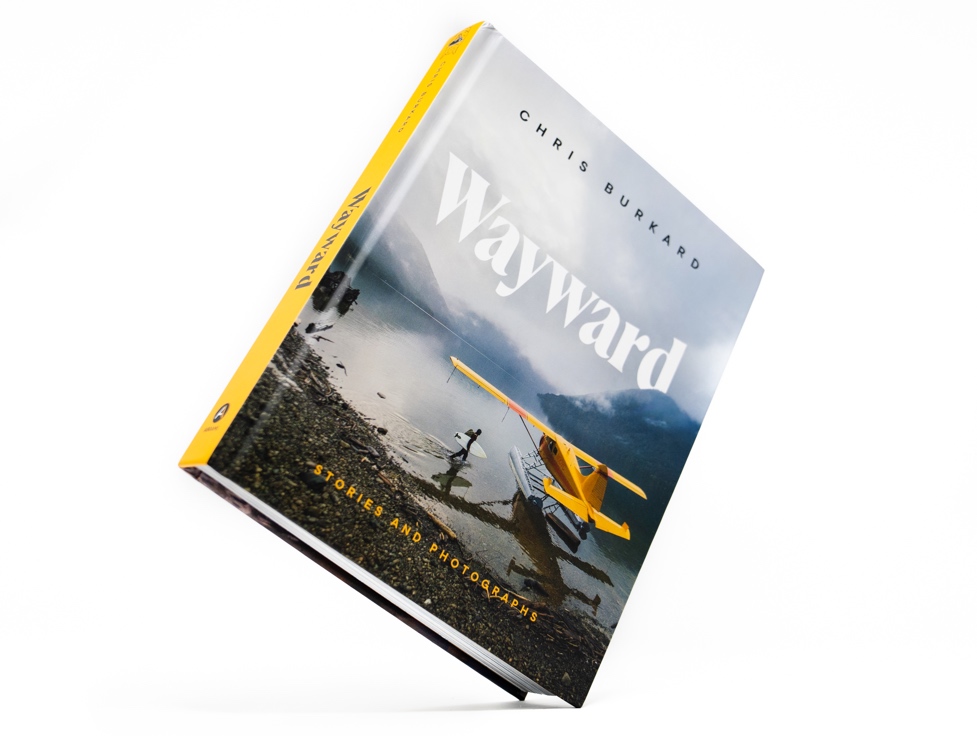
Photos courtesy of Chris Burkard
—
Download on Apple Podcasts
—
Download on Spotify
—
Download on Google Podcasts
—
Download on Overcast
—
EPISODE NOTES
Topics Discussed:
- 5:00 - How the pandemic has been for Chris and his family
- 9:25 - Process of writing the book
- 14:00 - Thoughts when looking back at his early work
- 17:30 - Early challenges and localism
- 23:45 - Patagonia's role in Chris's artistic evolution
- 27:40 - Importance of having the confidence to be yourself
- 31:30 - Overcoming self-doubt
- 33:45 - People Chris trusts to give honest opinions
- 36:45 - How Chris transitions from hardcore adventures back into "real life"
- 40:30 - Reevaluation of risk as he gets older
- 42:40 - Lessons from suffering
- 44:00 - Why Chris continues to focus his creative energy on books
- 54:00 - Importance of sharing the experiences with others
- 58:30 - Projects in the works
Information Referenced:
- Chris Burkard
- Wayward by Chris Burkard [Amazon / Bookshop]
- The Constant Gardener by John Le Carre [Amazon / Bookshop]
- California Surf Project by Chris Burkard [Amazon / Bookshop]
- Patagonia
- Surfer Magazine
- Keith Ladzinski
- Distant Shores by Chris Burkard [Amazon / Bookshop]
- John Muir
- Ansel Adams
- Edward Weston
- Edward Abbey
- Jimmy Chin
- There and Back by Jimmy Chin [Amazon / Bookshop]
- Corey Rich
- Paul Nicklen
- Hampton Sides
Enjoy this episode? Then you might like these too:
- Pete McBride – A Passion for Water & Wild Places
- Hampton Sides, Part 3 – Tales from a Most Excellent Adventure
- Peter Heller – Chasing the Flow
- Iris Gardner – Living with Intention
- Heather Hansman, Part 2 – The Fascinating Story of Skiing’s Past, Present, & Future
- Kelsey Johnson – Chasing Her Artistic Ambitions
- Duke Phillips IV – Living with the Land
Longtime Mountain & Prairie listeners will remember Adam Gall– he’s a Colorado-based hunting guide who, along with his wife Ana, owns Timber to Table Guide Service. Adam is a highly regarded expert in the pursuit of elk and mule deer, and he offers a variety of outfitting services ranging from public land hunts for experienced hunters to private land hunts for beginners. In my first episode with Adam, we discussed his career path to guiding, which included stints as a wolf biologist and science teacher, as well as his advocacy for public lands and wildlife conservation.
In early January, I had the pleasure of joining Adam for my first-ever elk hunt, and this episode is a discussion about that extremely powerful experience. I had wanted to hunt elk ever since moving to the Rocky Mountains back in 2005, but I never took the necessary steps to learn how to do it. While I do have limited experience with bird hunting, I had zero experience hunting with a rifle. The idea of starting big game hunting from scratch was intimidating and overwhelming– plus, I have way-too-many other hobbies that fill my time– so elk hunting has been on the back burner for more than 16 years. But after getting to know Adam, learning about his skills as a teacher, and admiring his calm demeanor and reverence for wildlife, I decided that he was just the person to introduce me to the sport of elk hunting.
To be completely transparent, I was very nervous about all aspects of the hunt– my shooting proficiency, my ability to kill the elk quickly, quartering the animal, and processing the meat. I have the utmost respect for the skills required to be a responsible and effective big game hunter, so I was intent on approaching the entire endeavor with a high level of seriousness and focus. From the moment I arrived in Hotchkiss until we had processed the last pound of meat, Adam and Ana were exceptional teachers–we had a successful hunt and I left Hotchkiss with a new-found, life-changing appreciation for everything that is required to procure meat for my family.
The purpose of this episode is to provide instruction and insight for people like me– individuals who are interested in big game hunting and procuring meat but have no idea where or how to start. Even if you’ve never shot a gun, there will be useful information in this episode. Adam and I discuss all aspects of the hunt–from shooting practice at the gun range on the first day all the way to processing the meat into burger, steaks, and roasts four days later. I discuss the overwhelming emotions I felt after killing such a majestic animal, and the eye-opening experience of learning about specific cuts of meat with Ana. We discuss how Adam’s experience as a teacher makes him such an effective guide, and the importance of approaching hunting with respect, reverence, and curiosity. We talk about game management, food systems, private lands’ role in wildlife health, and much more.
I hope you enjoy this conversation as much as I did. Hopefully, it will give you the encouragement to pursue hunting if it is of interest to you. Hunting is obviously not for everyone, but as a person who eats and enjoys meat, I am very grateful to have had the opportunity to participate in all the tasks that are required to put clean, healthy meat on my family’s table.
Thanks again to Adam and Ana for the once-in-a-lifetime experience, and thanks to you for listening. Enjoy!
Photos by Ed and Adam
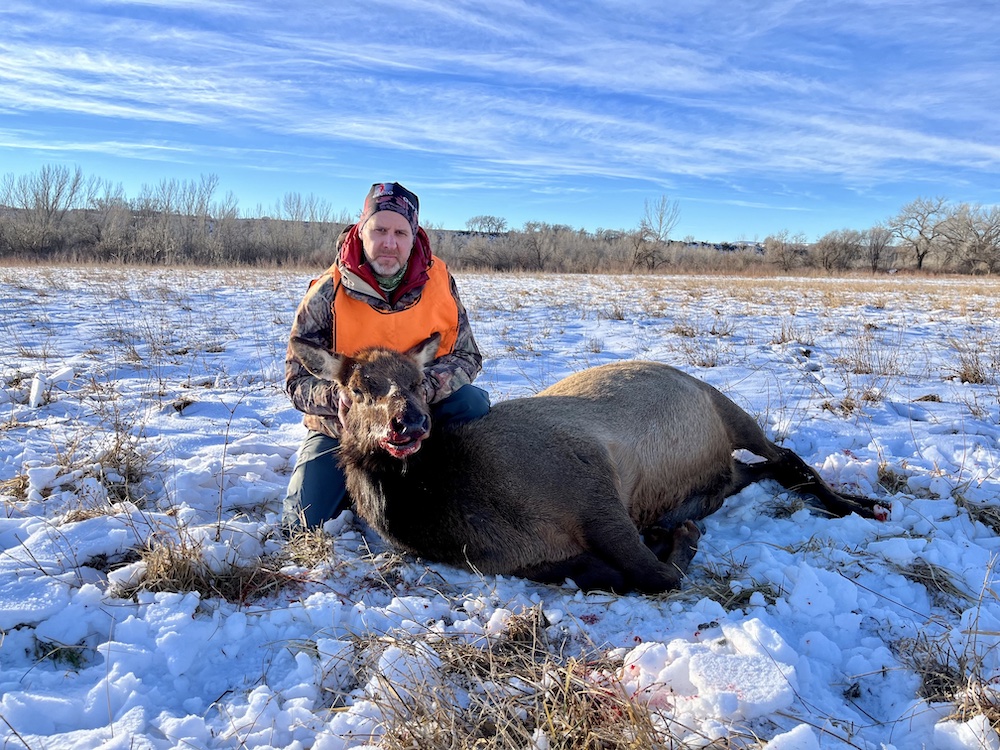
—
—
Download on Apple Podcasts
—
Download on Spotify
—
Download on Google Podcasts
—
Download on Overcast
—
EPISODE NOTES
Topics Discussed:
- 4:45 - Thanks to Adam and Ana
- 6:15 - Why Adam enjoys teaching first-time hunters
- 8:15 - Adam's background as a teacher
- 10:30 - Balancing fun and seriousness
- 16:15 - Details of the beginner's private land meat hunt
- 21:45 - Importance of game management on private lands
- 23:45 - Hunt preparation
- 32:15 - Morning of the hunt
- 34:45 - The kill
- 37:45 - Respect for the taking a life
- 44:45 - Quartering the animal and processing the meat
- 54:45 - A foundational shift in perspective
- 58:00 - Cooking resources and ideas
- 59:45 - Closing thoughts
Information Referenced:
- Adam's first M&P episode
- Timber to Table Guide Service
- Dark Timber Lodge
- Hotchkiss, Colorado
- Paonia, Colorado
- Colorado Parks and Wildlfe
- Colorado Parks and Wildlife - Big Game Hunting
- Backcountry Hunters and Anglers
- Ryan Busse episode
- Kate Kavanaugh episode
- Buck, Buck, Moose: Recipes and Techniques for Cooking Deer, Elk, Moose, Antelope and Other Antlered Things by Hank Shaw - Amazon / Bookshop
Enjoy this episode? Then you might like these too:
- Ryan Busse – Standing His Ground
- Iris Gardner – Living with Intention
- Rachel VandeVoort – Harnessing the Power of Outdoor Recreation
- Dan Prenzlow – Generous Service, Humble Leadership
- Kate Kavanaugh – Regeneration & Restoration
- Mark Kenyon – A Passion for Public Lands
- Matt Skoglund – Adventures in Bison Ranching
- Chris Dombrowski – Words, Water & the West
- Jessica Wahl Turner – Outdoor Recreation & Rural Economies
Elliott Woods is a Montana-based veteran and multimedia journalist who has reported for publications including Outside, The Wall Street Journal, The New York Times, and many more. His most recent project is a podcast called Third Squad, which tells the powerful story of "one journalist, 12 Marines and two decades of war." Back in 2011, Elliott was an embedded journalist with a group of Marines who were positioned deep in one of Afghanistan's most dangerous regions. Nearly a decade later, Elliott embarked on a cross-country road trip to reunite with the surviving members of the team and discuss how that violent deployment impacted their lives. Third Squad tells the stories of these Marines, offering raw insights into the impact of war on individual soldiers, both on the battlefield and back at home.
Elliott was born and raised on the east coast, and as a kid, he never had strong ambitions to join the military. However, after an unsuccessful stint in college left him lacking purpose and low on options, he decided to join the National Guard. Elliott was eventually deployed to Iraq, where he served for a year as an Army combat engineer. When Elliott had finished serving and returned to college at the University of Virginia, he approached his education with a new focus and purpose, and it was there that he discovered writing and journalism. As a journalist, Elliott has traveled everywhere from war-torn regions of the globe to well-known conflicts in the American West-- from the Gaza Strip to the front lines of the Keystone XL Pipeline protests. Whether reporting on public lands, outdoor adventure, or war, Elliott brings focus and intensity to all of his projects.
Elliott and I met years ago, so it was great to reconnect and have an in-depth conversation about his life and career. We started out by discussing his upbringing in Maryland and Pennsylvania, and how he developed a love of the outdoors at an early age. We discuss his education, his failed first attempt at college, and his path to the military. We discuss his time in Iraq, his career as a journalist, and the origins of the Third Squad podcast. We talk about the current state of journalism, and Elliott discusses why he feels the need to cover stories that involve dangerous people and places. We talk about hero culture, the importance of having a purpose, how the natural world has been a healing force in his life, and Elliott offers up some excellent book recommendations.
I encourage all of you to check out Third Squad, as well as Elliott's 2016 TED Talk that I reference in the conversation. There are links to everything in the episode notes. Thanks to Elliott for all of his hard work and for joining me for such an important conversation. Enjoy.
Photos courtesy of Elliott Woods.
—
Download on Apple Podcasts
—
Download on Spotify
—
Download on Google Podcasts
—
Download on Overcast
—
EPISODE NOTES
Topics Discussed:
- 4:00 – Elliott’s childhood and how he got into the military
- 12:00 – Elliott discusses what it was like having joined the military weeks before 9/11/2001
- 15:00 – Elliott talks about reintegrating to normal life as a student after his deployment in Iraq
- 22:30 – Elliott discusses the importance of having a mission in his life
- 29:00 – Elliott talks about why he disagrees with “hero culture” in the US
- 34:30 – Elliott talks about his mentality when writing about powerful or dangerous people
- 43:00 – Elliott talks about “solution journalism” and the need to highlight problems in journalism
- 53:45 – Elliott discusses the impact Montana and nature has had on him
- 58:15 – Elliott’s book recommendations
- 1:04:00 – Elliott’s parting words of wisdom
Information Referenced:
- Elliott’s podcast: Third Squad
- Elliott’s TED talk: Finding Fulfilment in the Aftermath of War
- Gaithersburg, MD
- Bethesda Naval Hospital
- Lewisburg, PA
- Susquehanna River
- Georgetown Prep
- Valley Forge Military Academy
- Fordham University
- Fort Leonard Wood
- Virginia Commonwealth University
- Saddam Hussein
- Mosul, Iraq
- University of Virginia
- Virginia Quarterly Review
- Mad Libs
- Greg Gianforte
- Sebastian Junger
- Existentialism
- Miguel de Cervantes Saavedra
- Absaroka-Beartooth Wilderness
- Livingston, MT
- Wilson Rawls
- Gary Paulsen
- Kurt Vonnegut
- Svetlana Alexievich
- Tim O’Brien
- Abe Streep
Enjoy this episode? Then you might like these too:
- Jason Gardner – A Life of Purpose & Service
- John Branch – Seeking the Extraordinary in the Ordinary
- Antonia Malchik – Exploring Culture & Complexity
- Ryan Busse – Standing His Ground
- George Hodgin – Mission-Driven Entrepreneur
- Hal Herring – A Man of Words & Wild Places
- Heather Hansman, Part 2 – The Fascinating Story of Skiing’s Past, Present, & Future
Heather Hansman is a Seattle-based writer and editor, as well as the author of the excellent new book Powder Days: Ski Bums, Ski Towns, and the Future of Chasing Snow. Longtime listeners will remember Heather's first appearance on the podcast, when we discussed her book Downriver, one of my favorite books about the complicated subject of water in the West. Heather has an uncanny ability to distill complex, sometimes-messy topics into fun-to-read narratives that are equally educational and entertaining. And she's done it once again with Powder Days-- it's a thoughtful and thorough examination of ski culture, the ski industry, and the myriad of challenges that can accompany life in ski communities.
Heather was born and raised on the east coast, but headed West immediately after college, where she spent many winters living and working in ski towns throughout the Rocky Mountains. She eventually left the ski bum lifestyle behind to pursue a career in journalism but has remained closely connected to skiing and the ski culture for all of her adult life. Given her professional success as a journalist and her personal love of skiing, Heather is uniquely qualified to offer this nuanced, in-depth look at skiing and its impact on the culture, economy, and environment of mountain towns throughout the United States.
Heather and I connected a few days before Powder Days' publication date to talk about the book and the many important topics that it addresses. We start out discussing why she chose to write a book about the ski industry, and how the many issues and challenges facing ski communities are representative of broader issues facing the American West. We discuss the history of skiing in the United States and how the industry has grown and transformed over the past 70 years. We discuss income inequality in ski towns, as well as the prevalence of mental health and substance abuse problems that often plague these communities. We discuss the psychological profiles of sensation-seeking skiers, the big business of skiing and ski resorts, equity in outdoor recreation, climate change's effect on skiing, and much more.
Whether you're a skier or not, I highly recommend you check out Powder Days. It's a must-read for anyone interested in understanding the economic and social forces shaping the modern-day American West. And for more information on Heather, you can check out our first episode-- there's a link in the episode notes.
Big thanks to Heather for writing yet another wonderful book, and thanks to all of you for listening. Enjoy!
Photos courtesy of Heather Hansman.
—
Download on Apple Podcasts
—
Download on Spotify
—
Download on Google Podcasts
—
Download on Overcast
—
EPISODE NOTES
Topics Discussed:
- 4:30 - Why Heather chose to write a book about skiing
- 8:00 - "Ski bum" defined
- 12:00 - Heather's time as a ski bum and when she decided to leave that world
- 15:00 - The psychological profile of obsessed skiers
- 18:00 - The appeal of seeking adventure in the mountains
- 19:40 - History of the ski industry in the US
- 23:00 - Changes in the business of skiing
- 27:00 - Extreme economic inequality in ski towns
- 30:30 - What is the future of economic sustainability in ski towns
- 33:30 -Gini coefficient and more on inequality
- 38:20 - Climate change and the ski industry
- 41:30 - Predicting the future of skiing related to climate
- 43:00 - Feeling that came with revisiting the ski world
- 45:00 - The need for ski bums to engage in the community
- 48:30 - Booze and mental health in mountain communities
- 51:20 - Goals and reasons for writing this book
- 55:00 - Heather's current projects
- 56:00 - Good books
Information Referenced:
- Heather Hansman
- "Ski Bum"
- Beaver Creek
- Arapahoe Basin
- Five personality traits
- Sensation seeking
- Ryan Burke - Jackson Hole
- Steamboat Springs
- 10th Mountain Division
- Vail Resorts
- Alterra
- Aspen, Colorado
- Gini coefficient
- Auden Schendler episode
- Heather's Outside column
- Firewatcher's Daughter
- Firekeeper's Daughter by Angeline Boulley - Bookshop / Amazon
- Great Circle by Maggie Shipstead - Bookshop / Amazon
Enjoy this episode? Then you might like these too:
- John Branch – Seeking the Extraordinary in the Ordinary
- Luke Smithwick – A Life in High Places
- Hampton Sides, Part 3 – Tales from a Most Excellent Adventure
- Kelsey Johnson – Chasing Her Artistic Ambitions
- Iris Gardner – Living with Intention
- Jessica Wahl Turner – Outdoor Recreation & Rural Economies
- Chris Burkard – The Art of Suffering
- Kate Kavanaugh – Regeneration & Restoration
- Sara Dant – A Deep Dive Into the History of the West
Matt Pierson is a fifth-generation Montana rancher who owns and operates Highland Livestock Company alongside his wife and two sons. He’s also the founder and President of the Producer Partnership, a newly formed non-profit organization that brings together farmers and ranchers with the goal of ending hunger in Montana. Since its start in spring of 2020, the Producer Partnership has given away tens of thousands of pounds of beef to Montana food banks and is creating replicable, scalable solutions for fighting hunger throughout the West and beyond.
The idea for the Producer Partnership was born in early 2020, just as the COVID-19 pandemic was roiling communities and economies across the globe. With many Montana residents out of work and food banks struggling to keep up with the unprecedented demand, Matt decided to donate the meat from a cow he was planning to cull to his local food bank. He quickly recognized the direct positive impact that his donation had on the community, so he reached out to friends to drum up more donations. Within a month, he had directed 10,000 pounds of ground beef to area food banks. He kept going, and by the end of 2020, that number had risen to more than 53,000 pounds of beef. Through creativity, hard work, and an unyielding commitment to G.S.D. (“Getting Stuff Done”), Matt and his team at the Producer Partnership have created a new model for solving food insecurity in Montana.
Matt and I connected virtually for a wide-ranging conversation that will be inspiring and educational for anyone interested in impactful, purpose-driven work. We started out discussing his family’s long history in Montana, and then we moved into details of how the Producer Partnership began. We talked about the challenges around processing meat both during the early stages of the pandemic and now, as well as the cutting-edge meat processing facility that the Producer Partnership is currently building. We discussed the scalability and replicability of the Producer Partnership model, and how he expects the organization to evolve in the coming years. Matt discussed the importance of community; why he chooses to volunteer for causes ranging from youth soccer to Trout Unlimited; the future of agriculture; how he defines success in his ranching operation; and much more.
This is an inspiring episode, and I know you’ll enjoy it. Go to producerpartnership.com to learn more about Matt and his work-- and donate or buy some gear if you are so inclined. Enjoy!
Photos courtesy of the Producer Partnership
—
Download on Apple Podcasts
—
Download on Spotify
—
Download on Google Podcasts
—
Download on Overcast
—
This episode is brought to you by The Arthur M. Blank Family Foundation and its Montana-based AMB West Philanthropies, both of which embody the values-based approach to philanthropy and business of their Chairman Arthur M. Blank
EPISODE NOTES
Topics Discussed:
- 3:50 - Matt's family history in Montana
- 4:50 - The beginnings of the Producer Partnership
- 8:20 - Logistics during the early days of the Producer Partnership
- 10:20 - Media begins to pick up the Producer Partnership story
- 12:00 - "GSD" - Getting Stuff Done
- 14:00 - First year success
- 15:50 - Managing the Producer Partnership and the family ranch
- 18:20 - Executing the idea of building a new processing facility
- 22:00 - Adding value to all steps of the process
- 26:20 - Realities of building a first-of-its-kind federally approved processing facility
- 30:00 - Role for the Producer Partnership post-COVID
- 32:00 - Potential for replicability
- 39:00 - The importance of community
- 43:00 - How Matt judges success in ranching
- 47:45 - How Matt thinks agriculture will evolve in the coming years
- 52:00 - The unexpected surprise of creating a non-profit
- 56:00 - Importance of being a problem solver, thinking independently
- 57:30 - Favorite books
- 1:00:30 - Words of wisdom
- 1:02:30 - Overcoming the labor challenges
Information Referenced:
- The Producer Partnership
- DONATE to the Producer Partnership
- Producer Partnership Merch
- Livingston, Montana
- Yellowstone River Beef Processing
- Livingston Food Resource Center
- Missoula Food Bank
- Montana Food Bank Network
- 501(c)(3)
- Matt Skoglund - Episodes 1 & 2
- John Deer film, featuring Matt
- Lonesome Dove by Larry McMurtry - Bookshop / Amazon
- Lonesome Dove movie
- Everything Your Coach Never Told You Because You're a Girl by Dan Blank - Bookshop / Amazon
- Arthur M. Blank Family Foundation
- AMB West Philanthropies
Enjoy this episode? Then you might like these too:
- NEW WEST DISPATCH: Matt Skoglund – Ranching in the Age of COVID
- Lesli Allison & Tuda Libby Crews – Durable Conservation in the West… and Beyond
- Daniela Ibarra-Howell – Healing the Land Holistically
- Kate Kavanaugh – Regeneration & Restoration
- Duke Phillips III – A Vision for the New West
- Duke Phillips IV – Living with the Land
- Alexis Bonogofsky – Taking a Stand for the West
- Shane Doyle – Reverence for the Past, Hope for the Future
Ryan Busse is a Montana-based conservationist, public lands advocate, and former top-performing firearms executive. He's also the author of the new book Gunfight: My Battle Against the Industry that Radicalized America, which has received advanced praise from everyone from Publishers Weekly to Senator Jon Tester. Ryan is a life-long hunter and angler, as well as a proud gun owner, and he brings a unique, nuanced perspective to our country's ongoing debate about guns and the Second Amendment. Gunfight is in no way an "anti-gun" book-- rather, it's an insider's examination of how and why the firearms industry transformed from a sportsman-centered business into a politically driven machine that uses decisiveness and fear to grow profits exponentially. From a broader perspective, Gunfight helped me to understand how we ended up at this bizarre moment in history-- a moment defined by anger, misinformation, tribalism, and binary thinking.
Ryan was born in western Kansas and grew up on his family's ranch, where most of his childhood was centered around hunting, fishing, and a close connection to the land. After college, Ryan focused his energy on building a career in the sporting goods industry, first working for an optics company and then moving into the firearms business. Ryan found his calling as a gun salesman, and, over the course of his career, he helped transform a small firearms company named Kimber into an internationally recognized brand. But as you'll hear in our conversation, Ryan's advocacy for public lands and conservation created a rift between him and the firearms industry-- a rift that eventually exposed the industry's authoritarian power structure that does not tolerate independent thinking or deviations from industry dogma. Ryan refused to be bullied or told what to think, and he eventually quit his lucrative job selling guns and decided to tell his story and that of the industry's transformation. The result is his book Gunfight, which we are discussing here today.
I was lucky enough to receive an advanced copy of Gunfight, and I was thrilled to have a chance to discuss it with Ryan. We started out talking about his upbringing on his family's Kansas ranch and how his father introduced him to the writings of conservation luminaries, including Aldo Leopold and Theodore Roosevelt. We then discussed his life-long love of hunting and guns, and why he chose to pursue a career in the gun industry. We discussed the exact moment when he realized that his personal devotion to public lands was at odds with his industry's stance and the unraveling that occurred over the course of the following years. We talk about why gun sales soar during Democratic administrations, the industry's shift from hunting rifles to assault rifles, some very disturbing stories from industry events, Ryan's public land advocacy, the positive influence of his wife, and much more.
I thoroughly enjoyed this conversation, and I learned a lot. I really appreciate Ryan taking the time to chat, and I hope you find it enlightening. Be sure to check out the episode notes for a complete list of topics and links to everything we discussed. Enjoy!
Photos courtesy of Ryan Busse
—
Download on Apple Podcasts
—
Download on Spotify
—
Download on Google Podcasts
—
Download on Overcast
—
EPISODE NOTES
Topics Discussed:
- 5:00 – Ryan’s background
- 8:30 – Ryan discusses his father and his impact on Ryan’s conservation ethic
- 12:45 – Ryan talks about what he was like in high school
- 15:00 – Ryan discusses when he felt like his role in the firearms/optics industry was a good career path for him
- 17:00 – Ryan tells the story of the experience that made him second guess his career
- 22:00 – Following his falling out with the leaders in firearms industry, Ryan explained why he stayed in the industry
- 26:00 – Ryan describes an uncomfortable moment when he went to an NRA conference
- 32:30 – Ryan describes a moment where a journalist showed up to an interview armed with an AR-15
- 37:30 – Ryan discusses the phenomenon that gun ownership/purchases sky rocket during Democratic presidential administrations
- 41:30 – Ryan explores why gun enthusiasts or industry personnel may disagree with him
- 45:30 – Ryan talks about his wife
- 48:00 – Ryan talks about Backcountry Hunters and Anglers and his role with them
- 1:02:30 – Ryan’s book recommendations
- 1:05:00 – Ryan’s parting words of wisdom
Information Referenced:
- Ryan Busse
- Burlington, CO
- Burris Optics
- Kimber
- The Conservation Reserve Program
- Smith & Wesson
- Adam Grant
- Badger Two-Medicine area
- Cheney Energy Plan
- Trout Unlimited
- Roan Plateau
- National Riffle Association
- National Shooting Sports Foundation
- AR-15
- Assault Weapons Ban of 1994
- Q-Anon
- Sam Harris
- Backcountry Hunters and Anglers
- National Audubon Society
- Martin Heinrich
- Timothy Egan
- Patrick Radden Keefe
Enjoy this episode? Then you might like these too:
- Hal Herring – A Man of Words & Wild Places
- Adam Gall – A Reverence for Wildlife & Wild Places
- Rachel VandeVoort – Harnessing the Power of Outdoor Recreation
- Mark Kenyon – A Passion for Public Lands
- Antonia Malchik – Exploring Culture & Complexity
- Gabe Vasquez – Advocate for Equity in the Outdoors
- Dan Prenzlow – Generous Service, Humble Leadership
- Alexis Bonogofsky – Taking a Stand for the West
- Adam Foss – Lessons Learned From a Life Afield
Lesli Allison and Tuda Libby Crews join me to discuss the critical role of private and working lands in achieving durable conservation outcomes in the United States. Lesli is a founding member and the Executive Director of the Western Landowners Alliance, a nonprofit organization that advances policies and practices that sustain working lands, connected landscapes, and native species. Tuda is a rancher and owner of Ute Creek Cattle Company, a conservation-focused ranching operation in northeastern New Mexico that has been in Tuda’s family for more than 200 years. Whether discussing on-the-ground stewardship practices or the intricacies of federal conservation policy, Lesli and Tuda are uniquely qualified to offer informed and thoughtful perspectives on all aspects of private land in the West.
While ranchers, farmers, and conservation stakeholders have long understood the critical importance of private land stewardship and conservation, the Biden administration’s 30x30 conservation goal has brought the topic to the forefront of American politics and mainstream media. 30x30 has prompted challenging conversations about what it means to conserve land, and it has sparked healthy debates about the government’s role in private land stewardship. 30x30 is a bold initiative and its implications for private landowners, particularly agricultural producers, are enormously complex-- we’ll never find sufficient answers in pithy Tweets or surface-level news stories. So, I was excited to have Lesli and Tuda join me for an in-depth, hour-long conversation about 30x30 and private lands’ role in large-scale conservation.
Lesli, Tuda, and I connected via Zoom and enjoyed a wide-ranging conversation, covering everything from Tuda’s family history in New Mexico to the intricacies and realities of the 30x30 initiative. We started out discussing the vital role private lands play in conservation and environmental health here in the United States. Tuda talks about her family’s process of restoring her family’s ranch in New Mexico and the many environmental benefits that they have experienced. We obviously dig into 30x30, discussing its pros and cons and its opportunities and challenges. We talk about the importance of garnering local support for all land-related initiatives, and they each discuss their thoughts on the odds of success for an initiative as ambitious as 30x30. And as usual, they each offer up some excellent book recommendations that I think you’ll enjoy.
Please check out the episode notes for a full list of topics we discuss and links to all of the information we reference. Enjoy!
Photos courtesy of the Salazar Center, Lesli Allison, and Tuda Libby Crews.
—
Download on Apple Podcasts
—
Download on Spotify
—
Download on Google Podcasts
—
Download on Overcast
—
This episode is brought to you in partnership with Colorado State University’s Salazar Center for North American Conservation.
On Sept. 28-29, 2021 the Salazar Center will host its third annual International Symposium on Conservation Impact. The virtual event will serve as the first major public convening focused on next steps for the Biden administration’s America the Beautiful initiative, with Secretary of Agriculture Tom Vilsack, Secretary of Interior Deb Haaland, and White House Council on Environmental Quality Chair Brenda Mallory joining on the second day.
The two-day event will also feature researchers, practitioners, and political leaders from Canada, Mexico, and Indigenous territories, who—along with their U.S. counterparts—will explore the state of progress toward large landscape conservation goals throughout North America, and highlight lessons learned from other national-level efforts, such as Canada’s Pathway to Target One. In this context, the symposium will address critical themes such as transboundary partnerships, Indigenous leadership, and climate impacts, with former Vice President Al Gore providing remarks on the urgency of efforts to mitigate climate change.
Please follow the link in the episode notes to learn more, or go directly to salazarcenter.colostate.edu. Thank you.
—
EPISODE NOTES
Topics Discussed:
- 4:40 – Lesli’s introduction
- 6:25 – Tuda’s introduction
- 9:55 – Lesli discusses private lands’ role in conservation
- 13:25 – Tuda describes her ranch and her family’s conservation work there
- 19:40 – Lesli talks about performing private land conservation work at scale
- 24:40 – Tuda describes her process of arriving at creative land stewardship solutions
- 28:55 – Lesli and Tuda discuss 30 by 30
- 39:40 – Lesli discusses means of protecting agricultural property from subdivision
- 44:10 – Nodding towards public land conservation efforts, Leslie and Tuda discuss was to garner public support for private land stewardship efforts
- 51:40 – Lesli and Tuda talk about how they see our odds for success in these efforts
- 55:40 – Book recommendations
- 59:40 – Lesli mentions what WLA is doing from a media perspective
Information Referenced:
- Salazar Center
- Western Landowners Alliance
- Ute Creek Cattle Company
- Saltcedar (tamarisk)
- 30 by 30
- Nikki Silvestri
- Chaffee County
- Scott Momaday
- Aldo Leopold
- David Epstein
- John Steinbeck
- Timothy Egan
- Norman MacLean
- Dan Dagget
- Tracy Kidder
- Khaled Hosseini
Enjoy this episode? Then you might like these too:
- Dr. David Hewitt – The Science of Wildlife Conservation
- Carlos Fernandez – The Power of Partnerships
- Daniela Ibarra-Howell – Healing the Land Holistically
- NEW WEST DISPATCH – Marci McLean & Cora Neumann on COVID’s Impact on Native Communities
- NEW WEST DISPATCH: Matt Skoglund – Ranching in the Age of COVID
- Duke Phillips III – A Vision for the New West
- Duke Phillips IV – Living with the Land
- Russ Schnitzer – A Life Devoted to Western Landscapes
Hampton Sides is a historian and New York Times bestselling author who is best known for his engaging works of narrative nonfiction, including the books Blood and Thunder, Ghost Soldiers, On Desperate Ground, and more. His latest project is an ebook and audiobook titled The Exotic: Intrigue and Cultural Ruin in the Age of Imperialism, which details the life and unbelievable adventures of a man named Mai, who was the first Polynesian to set foot on British soil. The Exotic is much shorter than Hampton’s previous books but much longer than a magazine article, giving the reader a chance to enjoy Hampton’s one-of-a-kind historical storytelling in only a few hours of reading.
Longtime listeners of Mountain & Prairie will remember Hampton’s two previous appearances on the podcast. The first was an in-depth discussion of his book Blood and Thunder and the history of the American West, which was recorded live and on stage at the Aspen Institute. In his second appearance, we focused on his writing and research process, and his career progression from journalist at Outside magazine to becoming a best-selling historian. Today’s conversation takes us far beyond the American West, everywhere from remote islands in the South Pacific to King George’s court in England. So if you’re a fan of adventure, history, and profiles of Indigenous people who have often been overlooked by mainstream history, you’ll love this book.
Hampton and I connected virtually and had a fun conversation about the book and his process for writing it. We talked a lot about Mai’s unbelievable journey from Polynesia to England and back again, as well as the opportunities and challenges of exploring history from an Indigenous perspective. We talked about Hampton’s process for researching the book and how COVID has forced him to adjust his usual approach. Hampton was actually in the South Pacific researching the book in March 2020 when the pandemic hit, which, as you’ll hear, added an extra layer of adventure to an already adventurous trip. And as usual, Hampton offers up some great book recommendations that I think you’ll enjoy.
The Exotic is available exclusively on Scribd, which is an online service that gives you instant access to ebooks, audiobooks, articles, podcasts, and more. I’ve thoroughly enjoyed Scribd over the past few weeks, and I’d encourage you to give it a shot. You can access it for free for 30 days by following this link. And I’m not being paid for this endorsement-- I’m just a fan of what Scribd is doing and the unique forms of writing that they are bringing to the world.
I hope you enjoy this episode, and I hope you’ll invest a few hours reading The Exotic. And if you haven’t already, go back and listen to my past episodes with Hampton-- they are fun and educational conversations. Thanks so much.
Hampton's headshot by Sergio Salvador.
—
Download on Apple Podcasts
—
Download on Spotify
—
Download on Google Podcasts
—
Download on Overcast
—
EPISODE NOTES
Topics Discussed:
- 4:00 – How Mai got Hampton’s attention
- 11:45 – Hampton discusses who Mai was
- 22:00 – Hampton walks us through what Mai did while he was in England
- 31:30 – Hampton explains what happens when Mai returns home
- 36:30 – Hampton describes doing his research while COVID-19 took off and discusses how the pandemic affected his writing
- 43:30 – Hampton talks about Captain Cook
- 51:15 – Hampton’s book recommendations
Information Referenced:
- Hampton Sides
- Hampton’s first and second M&P episodes
- 30-day free trial of Scribd
- Context about Mai
- Captain James Cook
- Scribd
- Sir Joshua Reynolds
- John Magnier
- Tahiti
- Raiatea
- Bora Bora
- Captain Samuel Wallace
- Motavai Bay
- Tobias Furneaux
- Jean-Jaques Rousseau
- Sir Joseph Banks
- The Kew Gardens
- King George III
- Dr. Thomas Dimsdale
- Samuel Johnson
- James Boswell
- Hyde Park
- Captain William Bligh
- Louis Antoine de Bougainville
- Bougainvillea
Enjoy this episode? Then you might like these too:
- Hampton Sides – Live at the Aspen Institute
- Hampton Sides, Part 2 – How to Tell a Damn Good Story
- Peter Heller – Chasing the Flow
- William deBuys – Sage of the Southwest
- Heather Hansman – Demystifying Water in the West
- Chris Dombrowski – Words, Water & the West
- Sara Dant – A Deep Dive Into the History of the West
- Hal Herring – A Man of Words & Wild Places
- Nickolas Butler – The Craft of Creativity
Luke Smithwick is a professional alpinist, ski mountaineer, and mountain guide best known for his cutting-edge climbs and descents in the world’s wildest mountain ranges. Luke is based in Victor, Idaho, in the shadow of the legendary Teton Range, but he spends large portions of each year deep in the Himalayas, guiding clients on remote peaks or pursuing personal climbing and skiing objectives on 7-8,000-meter peaks. He is currently hard at work on a multi-year skiing project called The Himalaya 500, which is his personal quest to ski 500 aesthetic ski lines throughout the greater Himalayan Range.
Luke was born and raised in North Carolina, and he moved to Colorado for college, where he attended CU Boulder and studied environmental biology and cultural anthropology. When not in class, Luke immersed himself in outdoor sports and soon began working as a guide-- first a river guide on Colorado’s Upper Arkansas River and then a climbing guide. After graduation, Luke completely committed himself to the mountains, and his adventures have since taken him everywhere from the Alaska Range to his current work in the Himalayas. His company, Himalaya Alpine Guides, focuses on trips to some of the lesser-known (and less crowded) peaks in the Himalayan Range, where his clients can enjoy completely unique climbing and cultural experiences that cannot be found on more mainstream, well-known mountains.
Luke and I went to high school together back in the mid-1990s, and I was a couple of grades ahead of him. After graduation, we lost touch but have reconnected during the past few years thanks to shared interests and common friends. I was so happy that he joined me on the podcast, because I had lots of questions about how a guy from small-town North Carolina has become one of the world's most accomplished Himalayan skiers. We had a wonderful conversation, discussing everything from his career trajectory to this season’s climbing objectives. We talked about how he picks ski lines, how climate change is affecting the Himalayas, the unique nature of his guiding company, how he trains, why he has made his home in the American West, and his deep respect for the people, history, and cultures of the Himalayas.
I loved catching up with my old friend Luke. I was blown away by all he has accomplished in the past 20 years, and I have the utmost respect for his understated, humble approach to life, learning, and adventure. Be sure to check the episode notes for links to everything we discussed. Enjoy!
Photos courtesy of Luke Smithwick.
—
Download on Apple Podcasts
—
Download on Spotify
—
Download on Google Podcasts
—
Download on Overcast
—
EPISODE NOTES
Topics Discussed:
- 4:00 – Luke walks us through his trajectory post high school and how he became a professional outdoor guide
- 7:30 – Luke talks about his work and his guide company in the Himalayas
- 9:45 – Luke explains why he focuses on a deep understanding of mountain ranges instead of just the principle summits of a range
- 13:15 – Luke discusses how he finds his clientele
- 15:30 – Luke explains the importance of local relationships for his business
- 17:45 – Luke discusses his project, the Himalaya 500
- 21:15 – Luke explains how he picks his ski lines
- 23:00 – Luke talks about the information age and its impact on the availability of “secret spots”
- 25:00 – Luke talks about the people he has met in his travels around the Himalaya
- 27:45 – Luke talks about how current action in Afghanistan may affect his work
- 28:45 – Luke discusses the impacts of climate change that he sees in his work
- 32:00 – Luke explains how he trains for his work and play in the mountains in order to make it a sustainable lifestyle
- 36:00 – Luke talks about his current 8,000 meter peak goal
- 39:00 – Luke discusses how he balances humility and the need for self-promotion in his field
- 44:45 – Luke talks about training for alpine trips in his forties
- 48:00 – Luke talks about his family
- 49:15 – Luke discusses his hometown and the significance of Boy Scouts in his upbringing
- 51:30 – Luke’s book recommendations
- 53:30 – Luke’s film recommendations
- 54:30 – Luke talks about the most powerful experience in his life
- 56:45 – Luke’s parting words of wisdom
Information Referenced:
- Luke Smithwick
- Arkansas River Valley
- Colorado Outward Bound School
- Woodberry Forest School
- Berthoud Pass
- Rollins Pass
- Denali
- Anchorage, AK
- Aconcagua
- Tibet
- Manali, India
- Sherpa
- Nepal
- Khumbu Region of Nepal
- K2
- Karakoram
- Pakistan
- Bhutan
- Tamotsu Nakamura
- Islamabad
- GLOFs (glacial lake outburst floods)
- Indo-Gangetic
- Hunza, Pakistan
- Dhaulagiri
- Kashmir
- Victor, ID
- Laurinburg, NC
- Tarboro, NC
- Kathmandu
- McNair Evans
- Camp Sea Gull
- Herman Hesse
- Barry Lopez
- Roadhouse
Enjoy this episode? Then you might like these too:
- Mitsu Iwasaki – Adventure, Advocacy, & Alpinism
- Mike Foote – Perfection Is In the Process
- Steve Casimiro – Voice of Adventure
- Rachel VandeVoort – Harnessing the Power of Outdoor Recreation
- Kyle Richardson – Mountains & Music
- Live in Bozeman – Cate Havstad, Jillian Lukiwski, Becca Skinner & Juanita Vero
- Jessica Lewis – Doing More With Less
Shane Doyle is a Montana-based scholar, teacher, and community advocate whose work focuses on the history and heritage of Native American tribes of the Northern Great Plains. Shane is an enrolled member of the Apsáalooke Nation (also known as the Crow Tribe), and he holds a doctorate in Curriculum and Instruction from Montana State University. His unique personal and professional experiences, combined with his deep curiosity and seemingly endless energy, have made Shane a well-known leader in many fields, including education, land use advocacy, and the arts.
Shane grew up in Crow Agency, Montana, and he did not have an interest in history until college, when a road trip with a professor opened his eyes to Montana’s rich Native American past. From that moment onward, Shane’s curiosity has continued to grow, and he has built his career around making Native American history a cultural mainstay in everything from Montana’s educational system to governmental land management decisions. Whether designing educational curriculums, making films, or singing Northern Plains tribal music, Shane is always focused on serving his community.
Whether you’re a long-time listener or this is your first episode, I know you’ll enjoy getting to know Shane. We started out discussing his youth on the Crow reservation, and he talks about that fateful road trip when he fell in love with history. We talk about his family and the important life lessons that he learned from his grandmother. We discuss the history of the Apsáalooke, and the importance of the Crazy Mountains from a cultural and historical perspective. We also discuss his consulting business Native Nexus, some of his film projects, and his plans for the future. And Shane obviously has plenty of excellent book recommendations, so be sure to check out the episode notes for links to all of those.
As you’ll hear in this conversation, Shane is doing so much excellent work and has many more projects in the pipeline. I’ll look forward to a part 2 with Shane in the future so we can hear updates on everything that he’s working on. Hope you enjoy!
Photos courtesy of Shane Doyle.
—
Download on Apple Podcasts
—
Download on Spotify
—
Download on Google Podcasts
—
Download on Overcast
—
This episode is brought to you by The Arthur M. Blank Family Foundation and its Montana-based AMB West Philanthropies, both of which embody the values-based approach to philanthropy and business of their Chairman Arthur M. Blank
EPISODE NOTES
Topics Discussed:
- 3:15 – Shane’s childhood and how he pursued Indigenous history in his youth
- 7:45 – Shane describes how he engaged in studying the Indigenous history of Montana
- 10:30 – Shane discusses Asaalooke Nation history
- 14:30 – Shane discusses his thoughts regarding a history of broken treaties
- 18:15 – Shane talks about the service element of his work
- 21:00 – Shane discusses the significance of the Crazy Mountain Range, including his own experience fasting in that mountain range
- 27:15 – Shane explains regularity of his meditation ceremonies
- 30:15 – Shane mentions some resources for people interested in Northern Plains Indigenous culture
- 34:00 – Shane discusses the book he is writing, Messages from Medicine Wheel Country
- 38:00 – Shane talks about his film regarding the Crazy Mountains
- 41:45 – Shane explains how folks can get involved in the protection of the Crazy Mountains
- 43:30 – Shane discusses his business, Native Nexus
- 47:15 – Shane talks about where he thinks his career is going next
- 51:45 – Shane’s book recommendations
- 55:45 – Shane’s film recommendations, as well as some films he feels less enthusiastic about
- 1:01:30 – Shane’s parting words of wisdom
Information Referenced:
- Arthur M. Blank Family Foundation
- AMB West Philanthropies
- Apsáalooke Nation (Crow Tribe)
- Film: Awaxaawippíia: The Crow Nation’s Sacred Ties
- Crazy Mountains
- Native Nexus
- Crow Agency, MT
- Little Bighorn River
- Battle of Little Bighorn
- Flathead Lake
- Blackfeet Nation
- Cheyenne Nation
- Lakota Nation
- Confederated Salish and Kootenai Tribes of the Flathead Reservation
- Bighorn Range
- Musselshell, MT
- Black Hills
- Three Forks Headwaters of the Missouri River
- Fort Laramie
- Virginia City
- Plenty Coups
- John G. Neihardt
- Joseph Medicine Crow
- Alma Hogan Snell
- Sun Dance
- Sweat Lodge
- Frederick E. Hoxie
- Elliot West
- Fred W. Voget
- Little Big Man
- The Outlaw Josey Wales
- Reservation Dogs
- The Revenant
- Killers of the Flower Moon
- Osage Nation
- James Welch
- Frederick Voget Lefthand
- Nathaniel Philbrick
Enjoy this episode? Then you might like these too:
- Marci McLean & Cora Neumann on COVID’s Impact on Native Communities
- Chris Douglas – An Unexpected Artistic Journey
- Juanita Vero, Part 2 – A Deep Desire to Serve
- Becky Edwards – Amplifying the Power of Women in the West
- Rachel VandeVoort – Harnessing the Power of Outdoor Recreation
- Hal Herring – A Man of Words & Wild Places
- Antonia Malchik – Exploring Culture & Complexity
- Len Necefer – Indigenous Advocate
- Callan Wink – A New Voice for the New West
Antonia Malchik is a Montana-based writer and essayist, and she’s also the author of the book A Walking Life: Reclaiming Our Health and Freedom One Step at a Time. She has written for publications including The Atlantic and High Country News, she also writes a regular Substack newsletter titled On the Commons, which I highly recommend. Antonia thinks deeply about a wide range of topics, including community, conservation, the environment, private property, the West, books, and more. She has a true talent for writing about complex subjects in an engaging, in-depth manner that both educates and challenges the reader.
Antonia grew up in northwest Montana-- her mother was a multigenerational Montanan and her father was a first-generation immigrant from the former Soviet Union. Her family heritage combined with her innate curiosity gave Antonia a unique perspective on the world that informs all of her work. She has lived in Moscow, Vienna, Australia, and other far-flung regions, but she has always been drawn back to the landscapes of her home state of Montana, where she currently lives with her husband and two children.
I’ve been a long-time fan of Antonia’s work, so it was a pleasure to finally have her join me on the podcast. Just as her work covers a broad range of topics, so does this conversation-- we discuss everything from Russian history to her Montana ancestors to her long-standing commitment to the craft of writing. We talk about why she has chosen to not participate in social media, and how she manages to consume online news and media without becoming overwhelmed. We talk a lot about her writing process, her thoughts on publishing her work, and her approach to exploring and writing about potentially controversial ideas. We obviously talk about her book A Walking Life, as well as how the act of walking can contribute to strong communities, mental health, and physical well-being. And finally, Antonia is known for her excellent book recommendations, and she offers up some great ones-- be sure to check the episode notes for links to all the books and authors she mentions.
I thoroughly enjoyed this conversation and can’t thank Antonia enough for all of her hard work. Hope you enjoy.
Header photo of Antonia Malchik by Lindsey Jane Photography.
—
Download on Apple Podcasts
—
Download on Spotify
—
Download on Google Podcasts
—
Download on Overcast
—
EPISODE NOTES
Topics Discussed:
- 5:00 – Antonia explains why she was left on the streets of Moscow and told not to get lost.
- 8:45 – Antonia reflects on moving to a completely different culture during a time when international relations were tense.
- 14:15 – Antonia recommends resources for understanding Russian history.
- 18:15 – Antonia reflects on the Montana side of her family and on the idea of pioneering.
- 23:00 – Antonia explains how and why she chooses to write.
- 27:45 – Antonia explores how she puts potentially controversial ideas out into the digital commons as well as explains when she decides to engage with people who disagree with her and comment on her writing.
- 31:30 – Despite anxiety regarding putting her work out for public viewership, Antonia reflects on why she still writes.
- 35:30 – Antonia and Ed discuss creating for the sake of continuing to create and the merits of not waiting for permission to create.
- 43:15 – Antonia explains, as a curious person, how she controls the constant influx of information that can occur through social and informational media.
- 49:00 – Antonia discusses her book, A Walking Life.
- 55:15 – Antonia talks about walking as it relates to mental health.
- 1:07:45 – Antonia’s favorite books about the West.
- 1:15:30 – Antonia’s parting words of wisdom.
Information Referenced:
- Antonia Malchik
- Joseph Stalin
- Soviet Union
- Berlin Wall
- Mikhail Gorbachev
- Burlingame, CA
- Leningrad
- Cold War
- Natasha’s Dance
- The Siege of Leningrad
- The 900 Days
- Anna Reid
- Svetlana Alexievich
- Geoffrey Hosking
- Lesley Chamberlain
- Hedrick Smith
- Brendan Leonard
- Semi-Rad
- Whitefish, MT
- High Country News
- Bill Bryson
- Lunch Ticket
- Orange County, NY
- Rachel VandeVoort
- Peter Norton
- Cal Newport
- Beyond the 100th Meridian
- John Wesley Powell
- Melissa Sevigny
- Katherine Schultz
- Willa Cather
- Joe Wilkins
- Alexis Bonogofsky
- Plenty Coups Chief of the Crows
- Alan Weisman
- H. Emerson Blake
- Jeremy Lent
- Douglas Rushkoff
- Dr. David Hewitt
Enjoy this episode? Then you might like these too:
- Chandra Brown – Fostering Creativity Through River Adventures
- Alexis Bonogofsky – Taking a Stand for the West
- Heather Hansman – Demystifying Water in the West
- Morgan Irons – Finding Her Muse
- Live in Bozeman – Cate Havstad, Jillian Lukiwski, Becca Skinner & Juanita Vero
- Kate Kavanaugh – Regeneration & Restoration
- Jessica Ilalaole – Creating Home in the High Desert
- Anna Brones – Committed to Creativity
- Iris Gardner – Living with Intention
Nickolas Butler is an award-winning writer and novelist who has published five books, one of which is the wildly popular, award-winning Shotgun Love Songs. His most recent novel is titled Godspeed-- a fast-paced, thriller of a book that is set in and around Jackson Hole, Wyoming. While the novel has all of the components that make for a great story-- action, suspense, wild landscapes, complex characters-- it also touches on many of the challenges facing the modern-day West, including income inequality and rural gentrification. From the first page of Godspeed, I was hooked, and I stayed up way too late for several nights in a row finishing the book.
For all of Nick’s accomplishments as a novelist, his path to becoming a full-time writer was not an easy one, nor was he an overnight success. He spent many years working a variety of jobs, including as a telemarketer, meatpacker, and Burger King maintenance man. And as you’ll hear him discuss in this conversation, it was during his stint working as a liquor store clerk that he decided to fully commit to the craft and profession of writing. Fast forward to today, and his focus, commitment, and hard work have paid off-- not only is he a successful full-time writer, but also a devoted husband and father of two.
Nick and I recorded this conversation just a few days after the publication of Godspeed. I was lucky enough to read an advanced copy of the book prior to our conversation, and I can’t say enough great things about it. So we obviously talked a lot about the book-- his process for writing it, how the book highlights present-day challenges facing the West, and how he went about developing the plot and the characters. We discussed his journey as a writer and artist-- how and why he views writing as a craft, the importance of hard work, and how he keeps his competitive fire burning, even after experiencing so much success. We also talk a lot about family and community, which are two subjects that Nick and I are both very passionate about. And finally, Nick offers up a ton of excellent book and author recommendations, as well as some wise parting words.
Big thanks to the great writer, angler, and past podcast guest Chris Dombrowski for introducing me to Nick. Check the episode notes for the full list of everything we discuss and links to all of the books and authors that nick mentions. And I encourage you to pick up a copy of Godspeed-- you’ll love it.
Photos courtesy of Nickolas Butler
—
Download on Apple Podcasts
—
Download on Spotify
—
Download on Google Podcasts
—
Download on Overcast
—
EPISODE NOTES
Topics Discussed:
- 4:00 – Nickolas compares his most recent book release with his first release.
- 9:30 – Nickolas discusses how he handles reviews of his work
- 13:45 – Nickolas explains how he balances creating art with treating writing as a job, like a craftmaker
- 16:00 – Nickolas discusses his most recent novel, Godspeed, and how the story came to him
- 21:00 – Nickolas talks about the process of a story gathering in his mind, and generally how long it takes.
- 22:30 – Nickolas discusses how he comes to know a place to write about it so well.
- 25:45 – Nickolas reads a passage from Godspeed and explores the challenges surrounding housing in the West and beyond.
- 32:00 – Nickolas explores the way he crafts stories in his writing, and how it leads to empathy in his most recent novel.
- 36:45 – Nickolas describes the role of meth and addiction in Godspeed.
- 38:30 – Nickolas talks through the pace and process of writing Godspeed.
- 41:15 – Nickolas discusses some of his current projects.
- 42:45 – Nickolas looks back on his career before being a writer.
- 49:30 – Nickolas discusses his transition from early career to writing career.
- 52:15 – Nickolas talks about how he keeps his “fire going” in his career.
- 55:00 – Nickolas talks about teaching work ethic to his children.
- 58:00 – Nickolas identifies his literary icons.
- 1:00:45 – Nickolas’s favorite books about the West.
- 1:03:00 – Nickolas’s parting words of wisdom.
Information Referenced:
- Nickolas Butler
- Chris Dombrowski
- Marcus Burke
- Pretty Woman
- Coldplay
- James Ellen McPhearson
- Peter Heller
- Michael Perry
- Eau Claire, WI
- Jackson, WY
- Lord of the Flies
- John Larison
- Upper Arkansas River Valley
- Ethan Canin
- Pushed Out: Contested Development and Rural Gentrification in the US West
- The Eau Claire Leader Telegram
- Oscar Mayer
- Rick Bass
- Stephen King
- Marilyn Robinson
- Jim Harrison
- The UP (Upper Peninsula)
- Annie Proulx
- Tom McGowen
- Legends of the Fall
- Treasure of the Sierra Madre
- Ken Kesey
- CJ Box
- David James Duncan
Enjoy this episode? Then you might like these too:
- Chris Dombrowski – Words, Water & the West
- Peter Heller – Chasing the Flow
- Heather Hansman – Demystifying Water in the West
- Hampton Sides – Live at the Aspen Institute
- David Gessner, Part 2 – Ambition, Art, and Arête
- Sara Dant – A Deep Dive Into the History of the West
- Alexis Bonogofsky – Taking a Stand for the West
- Monte Burke – Exploring Obsession
- Chris Burkard – The Art of Suffering
Nicole Morgenthau - Curiosity & Creativity
Nicole Morgenthau is a Utah-based professional photographer whose work depicts the people and places of the American West in a completely unique, one-of-a-kind style. While she has been involved in many aspects of the photography business throughout her career, Nicole may be best known for her portraits of a wide range of western characters-- from cowgirls to mountain men, from professional athletes to mountain-town ski bums. And her creative pursuits don’t stop with photography-- Nicole is also the owner of Sandstone Sky Jewelry, a business in which she makes and curates a variety of stunning jewelry, much of which has its creative roots in Native American culture.
Nicole was born and raised on the east coast, just outside of New York City. As a kid, she loved western movies and dreamed of moving out of the humid New Jersey suburbs and into wide-open, arid landscapes of the American West. After high school, she made the move West for college, first in Colorado and then to Montana State, where she studied photography. And immediately after graduating, she dove headfirst into the photography business, first as an assistant to several commercial photographers and then as her own boss. Since then, her work has been featured by well-known brands such as Patagonia, Outside, Men’s Journal, the New York Times, and more.
Nicole and I connected a few weeks ago and had an insightful discussion about everything from the photography business to jewelry making to overcoming creative blocks. We started out by discussing her childhood in New Jersey, her desire to move West, and how she decided to take that leap. We then talked about her journey as a professional photographer-- the ups and downs, the evolution of the business, and how she found her voice as a portrait photographer. We talked about her jewelry business and how it compliments photography, both creatively and financially. And toward the end, she offers up some excellent music recommendations, wise parting words, and an inspiring quote from Anthony Bourdain that I think you’ll appreciate.
Be sure the check the episode notes for links to all the people and places Nicole mentions. This was a fun chat, and I hope you enjoy.
All photos by Nicole Morgenthau
—
Download on Apple Podcasts
—
Download on Spotify
—
Download on Google Podcasts
—
Download on Overcast
—
EPISODE NOTES
Topics Discussed:
- 3:30 - Growing up in New Jersey
- 5:30 - First trip to the West
- 7:30 - Decision to attend college in the West
- 9:00 - Childhood beginnings in art and creativity
- 10:45 - Nicoles first years in professional photography
- 12:30 - Working as an assistant
- 14:00 - Going out on her own
- 18:00 - Importance of toughness
- 19:00 - Finding her "voice" as a photographer
- 24:00 - What's the key to good portrait photography
- 26:30 - Photography influences
- 28:45 - The evolution of her photography
- 31:30 - Nicole's jewelry business, Sandstone Sky Jewelry
- 37:00 - Inspiring interactions while making jewelry
- 39:30 - Techniques for remaining calm despite being Type A
- 42:000 - Musical influences
- 45:00 - Advice to aspiring creatives
- 50:00 - Upside of education and workshops
- 54:00 - Parting words of wisdom
- 59:30 - Parting quote
Information Referenced:
- Nicole Morgenthau
- Sandstone Sky Jewelry
- Andy Anderson
- Mountain Man Rendevouz
- Edward Curtis
- Sally Mann
- Mark Tucker
- Chris Douglas
- Chris Douglas podcast episode
- Shiprock, NM
- Navajo Nation
- Cody Jinks
- Avett Brothers
- Macduff Everton
- Four Corners
- Anthony Bourdain
Enjoy this episode? Then you might like these too:
- Chris Douglas – An Unexpected Artistic Journey
- Chris Burkard – The Art of Suffering
- Anna Brones – Committed to Creativity
- Jillian Lukiwski – Art and Adventure in the American West
- Jessica Ilalaole – Creating Home in the High Desert
- Jessica Lewis – Doing More With Less
- Ivan McClellan – A New Look at the Old West
- Iris Gardner – Living with Intention
Adam Gall is a hunting guide and owner of Timber to Table Guide Service, a guiding company focused on helping hunters of all skill levels put wild, healthy, and delicious meat on their tables. Based out of the small town of Hotchkiss on Colorado’s Western Slope, Timber to Table offers multi-day hunts on both public and private lands, offering top-notch instruction on everything from the intricacies of elk hunting to the technical skills needed to properly and efficiently process the meat. Adam is highly regarded by many of my friends and past podcast guests and praised as an outside-the-box thinker, so I’m thrilled to finally have him join me for a conversation.
Adam’s professional background gives him a unique perspective on wildlife, land management, and wild places in the American West-- he worked as a wildland firefighter, a wolf biologist, and a high school science teacher before devoting himself to full-time guiding. He has also been involved in a variety of volunteer initiatives, ranging from leadership positions with groups like Backcountry Hunters and Anglers to advisory roles on issues such as the wolf reintroduction in Colorado. As you’ll hear in our conversation, Adam thinks deeply and independently on a wide range of land and wildlife issues, and he offers his ideas respectfully and thoughtfully-- something we could all use a little more of these days.
I connected with Adam while he was on a family vacation in rural Montana, and we had a wide-ranging conversation that we probably could’ve continued for hours. We started out chatting about his upbringing in Michigan and how he fell in love with hunting despite coming from a family of non-hunters. We talked about Timber to Table-- how the guide service came to be, the challenges of running his own business, and his commitment to ethical hunting practices. We talked a lot about wolves and the wolf reintroduction in Colorado, and Adam offered some new thoughts that differ from some of my past podcast guests. He also describes the skills needed to be a great hunter, recommends some of his favorite books, and offers some wise parting words.
This was a thought-provoking conversation that provided a new perspective for me on several important topics, so I hope you enjoy it.
Photo courtesy of Adam Gall
—
Download on Apple Podcasts
—
Download on Spotify
—
Download on Google Podcasts
—
Download on Overcast
EPISODE NOTES
Topics Discussed:
- 3:30 – Adam talks about where he grew up
- 9:45 – Adam explains how hunting became a part of his life
- 12:30 – Adam describes his guide service, Timber to Table Guided Service, which provides an educational and holistic hunting and butchering experience
- 19:30 – Adam talks about balancing his work and home life
- 23:30 – Adam talks about how he got into wolf biology prior to his guiding work and dives into the controversy that surrounds them
- 39:15 – Adam discusses his role in the Stakeholder Advisory Group as a part of Colorado Parks and Wildlife’s wolf reintroduction work
- 44:30 – Adam’s resources for learning more about wolves
- 47:00 – Adam gives advice on how to get started in hunting
- 52:45 – Adam discusses what makes an excellent hunter
- 57:15 – Adam’s book recommendations
- 1:02:30 – Adam’s parting words of wisdom
Information Referenced:
- Timber to Table Guide Service
- Chris Dombrowski
- Callan Wink
- Steven Rinella
- Sagebrush Rebellion
- Lolo Pass
- Nez Perce Tribe
- Mike Phillips
- Ted Turner
- Colorado wolf reintroduction legislation (CO Proposition 114)
- Carter Niemeyer
- Mike Jiminez
- Doug Smith
- Dan Flores
- Rick Bass
- Dave Meches
- Carter Niemeyer
- Randy Newberg
- Cory Jacobsen
- Backcountry Hunters and Anglers
- R3 Programs
- Barry Lopez
- Chris Dombrowski
- James Galvin
- Allan Eckert
Enjoy this episode? Then you might like these too:
- Hal Herring – A Man of Words & Wild Places
- Chris Dombrowski – Words, Water & the West
- Mike Phillips – Audacious Goals, Relentless Action
- Kate Kavanaugh – Regeneration & Restoration
- Gabe Vasquez – Advocate for Equity in the Outdoors
- Mark Kenyon – A Passion for Public Lands
- Becca Aceto – Forging Her Own Path in the West
- Rachel VandeVoort – Harnessing the Power of Outdoor Recreation
John Branch is a Pulitzer-prize-winning journalist with the New York Times and the author of the brand new book Sidecountry: Tales of Death and Life from the Back Roads of Sports. He is also the author of The Last Cowboys: A Pioneer Family in the New West, which is one of my favorite books about the modern-day challenges facing ranching families in the American West. Whether he’s reporting on the historic ascent of the Dawn Wall on Yosemite’s El Capitan, reconstructing a deadly avalanche in the Washington backcountry, or describing the financial realities of the cattle ranching business, John’s has one of the most unique and engaging voices you’ll find anywhere in print.
Growing up in Colorado, John never had serious childhood dreams about a career in writing or journalism. He studied business at CU Boulder and graduated fully focused on pursuing jobs in the business world. But after several years of building a successful career with retail-focused companies, John found himself dreaming of a career as a writer. So, in the mid-1990s, with minimal writing experience under his belt, he applied to graduate school, was accepted, and officially began his journey as a journalist. Fast forward to 2013, and John won the Pulitzer Prize for his New York Times article titled Snow Fall: The Avalanche at Tunnel Creek.
In our modern-day, frenetic world that is overflowing with articles and information, I’ve found that John’s work rises above the fray and sticks with me for many years after my first reading. While he has reported on many well-known sports figures such as Tommy Caldwell or even Kobe Bryant, John says he enjoys finding meaning in less-flashy tales, telling the stories of “ordinary people tangled up in something extraordinary.” So in this conversation, we talk about his commitment to uncovering these little-known stories-- from his on-the-ground reporting to his process of sitting down at the keyboard to write. We also dig into some of his favorite outdoor-related stories, his new book Sidecountry and his older book The Last Cowboys, and his unconventional path into journalism. We talk about reporting from the top of El Capitan, his process of writing Snow Fall, his heroes and mentors, and much more. Finally, John offers up some great book and music recommendations, and well as timely advice for aspiring creatives.
I’ve been a fan of John’s for many years, so I can’t thank him enough for taking the time to chat with me. I encourage you to find copies of Sidecountry and The Last Cowboys, and keep an eye out for everything he writes for the Times. Check the notes for links to everything we discuss. Hope you enjoy!
Photo courtesy of John Branch
—
Download on Apple Podcasts
—
Download on Spotify
—
Download on Google Podcasts
—
Download on Overcast
EPISODE NOTES
Topics Discussed:
- 4:30 – John discusses his childhood, education, and career shift from business to journalism
- 10:00 – John discusses his family’s reaction to his change in career
- 11:15 – John explains how he ended up in Colorado Springs
- 12:00 – John describes his climb through the journalism world
- 14:30 – John explains how he caught the attention of the New York Times
- 16:30 – John explains why he feels his career transition worked
- 19:00 – John describes the kind of stories he looks to tell in his writing and how he knows when there is a story in front of him worth digging into
- 25:00 – John explains how he builds trust with the subjects of his stories
- 27:00 – John describes his most recent book, Side County
- 32:15 – John describes his writing process
- 38:30 – John describes his editing process and explains how he still gets nervous about submitting his work
- 43:15 – John talks about the importance of journalism now more than ever
- 46:15 – John talks about how he manages the constant influx of information in his job
- 48:45 – John talks about his ideal writing environment
- 50:00 – John identifies several of his writing heroes/role models
- 53:00 – John talks about how he differentiates between which stories should be told in articles and which should be told in books
- 56:15 – John discusses his musical tastes
- 59:00 – John’s parting words of wisdom
Information Referenced:
- John Branch
- John on Twitter and Instagram
- Sidecountry: Tales of Death and Life from the Back Roads of Sports
- The Last Cowboys: A Pioneer Family in the New West
- Zima
- Colorado Springs Gazette
- New York Times
- Snow Fall
- Stevens Pass
- ‘Battling’ Up a Sheer Yosemite Face, Seizing a Dream, Not a Rope
- Tommy Caldwell
- Jay Bilas
- John Prine
- Dan Barry
- Barry Lopez
- Paul Theroux
- Larry McMurtry
- Louis L’Amour
- The Avett Brothers
- Gin Blossoms
- Smashing Pumpkins
- Counting Crows
- The Kooks
- The Coral
- Tom Petty
Enjoy this episode? Then you might like these too:
- Heather Hansman – Demystifying Water in the West
- Monte Burke – Exploring Obsession
- Brendan Leonard, Part 2 – On Running, Creating, and Other Irrational Passions
- Steve Casimiro – Voice of Adventure
- Chris Burkard – The Art of Suffering
- Anna Brones – Committed to Creativity
- Emilene Ostlind – Storytelling for the New West
- Alexis Bonogofsky – Taking a Stand for the West
- Sara Dant – A Deep Dive Into the History of the West
Matt Barber and Joel Doub are the owners of Tom Morgan Rodsmiths, one of the West’s most renowned custom fly rod companies. I was introduced to Matt and Joel nearly three and half years ago and was quickly fascinated by their entrepreneurial journey and Tom Morgan Rodsmiths’ storied history in the fly fishing world. As longtime listeners may remember, I recorded a podcast with Matt and Joel in January of 2018, about a year after they had purchased the company from Tom and Gerri Morgan. In that conversation we talked in-depth about the history of the company, Matt and Joel’s unconventional backgrounds, and their plans for the future of TMR-- it was a fun conversation that led to a great friendship between all of us.
But in the more than three years since I published that episode, Tom Morgan Rodsmiths has grown in size and scope, and Matt and Joel have continued to evolve as business owners. They’ve enjoyed highs that include being featured in the New York Times and steadily growing their sales year over year. But they’ve also faced unexpected challenges, most notably a global pandemic and its far-reaching supply chain and economic effects. But thanks to their creativity, planning, complementary skill sets, and unwavering commitment to the values of the founders Tom and Gerri Morgan, Matt and Joel have thrived as entrepreneurs and built wonderful lives for their families in Montana.
A quick, one-time snapshot of any entrepreneurial venture can never provide the full, vivid story of a company and its owners, so I wanted to bring Matt and Joel back on the podcast to give us an update and share some of their hard-earned wisdom and lessons learned. We talked a bit about the specifics of the fly fishing business, but most of the topics we discussed were around resilience, teamwork, marketing, managing complex work, and maintaining a positive attitude-- actionable advice that almost anyone could put to use in business or creative endeavors. You don’t need to listen to our first episode to glean value from this one, but it’s worth a listen too, so there’s a link in the notes to access that episode if you’d like.
Be sure to check out the Tom Morgan Rodsmiths website and follow them on social media-- links to everything are in the notes. They will be celebrating the company’s 25th anniversary in the coming weeks and offering some special, one-of-a-kind products that will be of interest to anglers and outdoor enthusiasts of all stripes. Thanks to Matt and Joel for the inspiring conversation, and I hope you enjoy.
Header photo by Paolo Marchesi
—
Download on Apple Podcasts
—
Download on Spotify
—
Download on Google Podcasts
—
Download on Overcast
EPISODE NOTES
Topics Discussed:
- 4:30 – Introduction to Matt and Joel
- 11:30 – Update on the progress of Tom Morgan Rodsmiths
- 16:15 – Matt and Joel discuss the benefits and challenges of co-owning a business
- 12:15 – Matt and Joel discuss how they navigate owning Tom Morgan Rodsmiths while respecting the legacy of its founders
- 27:45 – Matt and Joel talk about the coverage they received from the New York Times
- 31:45 – Matt and Joel explain their thoughts and practice of marketing their products
- 38:15 – How Matt and Joel stay organized to manage the many, many challenges of running a business
- 49:30 – Matt and Joel discuss generosity in their work and lives
- 53:15 – Matt and Joel talk about living in Montana, having recently moved there
- 56:15 – Matt and Joel’s book recommendations
- 58:45 – Matt and Joel’s parting words of wisdom
Information Referenced:
- Tom Morgan Rodsmiths
- Previous M&P episode
- Saint Lawrence University
- Suez Canal
- Techstars
- Cal Newport
- 10 Percent Happier
- Vipassana
- Waking Up
- Malcolm Brooks
- Callan Wink
- John Larison
- Mattew Crawford
- Joe Haldeman
Enjoy this episode? Then you might like these too:
- Max Wenerstrom – Timeless Craftsmanship
- Kelsey Johnson – Chasing Her Artistic Ambitions
- Chris Douglas – An Unexpected Artistic Journey
- Kate Kavanaugh – Regeneration & Restoration
- Chris Burkard – The Art of Suffering
- Live in Bozeman – Cate Havstad, Jillian Lukiwski, Becca Skinner & Juanita Vero
- Hal Herring – A Man of Words & Wild Places
- Mark Kenyon – A Passion for Public Lands
- Matt Skoglund – Adventures in Bison Ranching
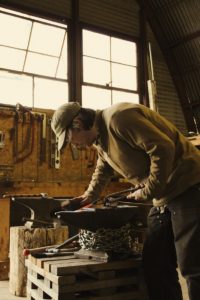
Max Wenerstrom is a blacksmith and craftsman best known for creating hand-forged knives that balance a beautiful aesthetic with practical durability. Max started blacksmithing at the age of 15, became obsessed with the craft, and quickly demonstrated an elite talent for creating one-of-a-kind knives. His passion led him to study under a 17th-generation Japanese bladesmith, who began teaching Max the art of forging knives in the Japanese tradition-- a labor-intensive, time-honored method of creating some of the world’s sharpest and most durable knives.
I was introduced to Max by my friends at Ranchlands, one of the West’s most respected ranch management companies. Max was participating in a residency at Ranchlands’ 87,000-acre Chico Basin Ranch, where he was offering blacksmithing demonstrations and forging a specific model of knife developed in partnership with Ranchlands. It’s a knife created specifically for ranchers-- designed to be used on horseback for everyday work and high-stakes situations. So when the folks at Ranchlands told me about Max, I drove out, and we sat down for an inspiring conversation.
Max is only 21 years old, and as you’ll hear in the interview, I was blown away by his maturity, work ethic, and commitment to quality. But aside from my endless amazement with his age, we covered a ton of interesting topics. We chatted about his beginnings in the craft, and what led him to study with world-famous Japanese bladesmith Murray Carter. We discussed his dedication to creating the highest quality products, how he pushes himself to constantly improve his craft, and the hard work involved in both. We discuss how he started building his business during high school and how it has grown and evolved in recent years. We talked about his partnership with Ranchlands, the process of making a knife, his deep love of the West, and advice for anyone seeking to begin a deliberate practice of craftsmanship.
I really loved this conversation and appreciated Max taking the time to chat. Be sure to check out the episode notes for links to Max’s website and to the specific Ranchlands-inspired knife that we discussed. I hope you enjoy!
Photos by Claudia Landreville, courtesy of Ranchlands
—
Download on Apple Podcasts
—
Download on Spotify
—
Download on Google Podcasts
—
Download on Overcast
EPISODE NOTES
Topics Discussed:
- 3:15 – When Max started forging knives
- 11:35 – Why Max start smithing at such a young age
- 13:45 – When Max realized he had a talent for bladesmithing
- 16:30 – How Max ended up using his bladesmithing at Ranchlands
- 23:30 – Max discusses his mentality in bladesmithing, why he values quality in his knives, and how he pushes himself to improve his craft
- 26:00 – Max walks us through the process of making a knife
- 29:15 – Max talks about what you need if you are interested in starting bladesmithing
- 32:30 – Max discusses what made his teacher, Murray Carter, such a good teacher
- 34:15 – Max highlights other craft-makers he admires
- 37:30 – Max discusses his plans for the future of his craft
- 43:00 – Max discusses knife sharpening, care, and styles of knives
- 53:15 – Max identifies the West as a source of inspiration
- 1:00:45 – Max’s parting advice
Information Referenced:
- Wenerstrom Forge, LLC
- Murray Carter
- Carter Cutlery Journeyman Program
- Yoshimoto Bladesmithing
- Ranchlands
- Chico Basin Ranch
- Duke Phillips III
- Duke Phillips IV
- Neck Knives
- Field Knives
- Ranchlands-Inspired Remuda Knife
- Knife Anatomy
- Finger Choil
- Heel of the blade
- Alex Pole
- Seth Godin
- Whetstone
- Louis L’Amour
- Osaka
- Geoffrey Keating
Enjoy this episode? Then you might like these too:
- Duke Phillips III – A Vision for the New West
- Duke Phillips IV – Living with the Land
- Kate Kavanaugh – Regeneration & Restoration
- Chris Douglas – An Unexpected Artistic Journey
- Daniela Ibarra-Howell – Healing the Land Holistically
- Live in Bozeman – Cate Havstad, Jillian Lukiwski, Becca Skinner & Juanita Vero
- Jessica Lewis – Doing More With Less
Dr. David Hewitt is the Executive Director of the Caesar Kleberg Wildlife Research Institute, an organization widely recognized as the leading wildlife research organization in Texas. The Institute is located on the campus of Texas A&M - Kingsville, and its mission is to provide science-based information for enhancing the conservation and management of Texas wildlife. Dave and his team at the Institute are focused on applied science-- research that is useful, actionable, and tightly focused on helping land managers meet their goals.
Dave was born and raised in Colorado and followed in his grandfather’s footsteps to become a wildlife biologist. After earning his undergraduate degree from Colorado State, his education and research took him to many different corners of the United States, and in 1996 he landed at the Caesar Kleberg Wildlife Research Institute. For the past 25 years, Dave has been fully focused on the flora and fauna of Texas, and many of his projects have positive ripple effects on land management throughout the American West and beyond. Whether discussing the management of ocelot, restoration of native grasslands, or the history of the Institute, Dave’s enthusiasm for the natural world is palpable and inspiring.
Dave and I had a fun discussion about the Institute’s past, present, and future, as well as his fascinating career path. We started out discussing the Institute’s namesake, Caesar Kleberg, and why Caesar is known as the father of Texas wildlife conservation. We then discussed why the huge proportion of private land in Texas makes the state so unique from a land and wildlife management perspective. We also dug into several of the Institute’s success stories, including its work with ocelots and native grasses throughout the state. Then we chatted about Dave’s personal background-- his impressive educational journey, his love of teaching, and his vision for the future of the Institute.
If you enjoy learning about wildlife, native plants, and the people who have devoted their lives to protecting them, then you’ll love this episode with Dave. There’s a ton of fascinating information in this conversation, so be sure to check out the episode notes for links to everything we discuss. Enjoy!
Ocelot photo by Ben Masters. Headshot courtesy of David Hewitt.
—
Download on Apple Podcasts
—
Download on Spotify
—
Download on Google Podcasts
—
Download on Overcast
—
This episode is brought to you in partnership with EXPLORE RANCHES
Explore Ranches was born out of a desire to share some of the most wild and scenic places in the world with others. We offer authentic outdoor experiences and access to charming ranch homes on some of the world’s least explored private lands. In return for enabling access to these natural treasures, we are making new connections between our guests and land owning partners. In the process, we are all contributing to a network of open space that not only benefits wildlife but the very food we eat, water we drink and air we breathe. Whether you are one of our guests, a ranch partner or one of our guides, at Explore Ranches we are all on an endless journey to find our place in the wild.
—
EPISODE NOTES
Topics Discussed:
- 5:00—Dave discusses the story of Caesar Kleberg.
- 14:00—Dave explains the differences between land management in Texas and states Colorado or Montana.
- 16:30—Dave explains the type of research that goes on at the Caesar Kleberg Wildlife Research Institute.
- 19:30—Dave discusses victories during his tenure with CKWRI.
- 22:30—Dave discusses building trust with private landowners in wildlife conservation.
- 24:45—Dave dives deeper into the CCWRI Ocelot Program.
- 32:00—Dave discusses the varied opinions regarding the Endangered Species Act.
- 37:45—Dave discusses the CKWRI Grasslands program.
- 47:00—Dave walks us through his career path.
- 53:30—Dave explains how he balances his research with his teaching.
- 57:00—Dave projects where he thinks the CKWRI is headed in the future.
- 1:00:30—Dave’s book recommendations.
- 1:03:00—Dave’s parting words of wisdom.
Information Referenced:
- Dr. David G. Hewitt
- Caesar Kleberg Wildlife Research Institute
- Caesar Kleberg
- Cuero, TX
- Corpus Christi, TX
- Robert Kleberg
- King Ranch
- Texas Fish and Oyster Commission
- Richard Kleberg
- Caesar Kleberg Foundation for Wildlife Conservation
- Jay Kleberg
- Ferruginous Pygmy Owl
- Chihuahuan Desert
- Ocelot
- Dr. Micheal E. Tewes
- Laguna Atascosa Wildlife Refuge
- Yturria Ranch
- Raymondville, TX
- East Foundation
- Dr. Neil Wilkins
- Endangered Species Act (ESA)
- Old world bluestems
- Permian Basin
- Panhandle of Texas
- Eagle Ford Oil Clay
- Forbs (botany)
- Crowley County, CO
- Greeley, CO
- Uvalde, TX
- Fallow Deer
- Ruffed Grouse
- Tio Kleberg
- Dr. Duane Leach
- Andrea Wulf
- Dan Flores
Enjoy this episode? Then you might like these too:
- Teal Blake – On Being Authentic & Original
- Duke Phillips III – A Vision for the New West
- Duke Phillips IV – Living with the Land
- James Decker – Inspired Leadership in the New West
- Sara Dant – A Deep Dive Into the History of the West
- Jay Kleberg – True Dedication to Conservation, Adventure & Texas
- Allison Ryan – Connecting People With Place
- Jesse Womack – Land Stewardship is in His Blood
- Gabe Vasquez – Advocate for Equity in the Outdoors
Marci McLean and Cora Neumann are joining me for another episode of my ongoing series called New West Dispatches. In each New West Dispatch, I break from the normal Mountain & Prairie format of discussing a guest’s personal experiences, influences, and life story, and instead we spend the hour diving deep into a specific, timely issue that is creating challenges in the American West. The goal of these episodes is to offer a clear-eyed examination of a pressing issue, then to highlight the people and ideas that are helping to solve these sometimes-overwhelming problems. These episodes are meant to educate and provide actionable information, while also offering hope and optimism in the face of challenges.
In today’s New West Dispatch, we’ll be discussing COVID’s impact on Native communities in Montana and throughout the American West. Marci and Cora are uniquely qualified to discuss this topic, as they have been on the front lines of Montana’s public health response to the devastating effects of COVID across tribal lands. Marci grew up on the Blackfeet Nation and currently serves as Executive Director of Montana Native Vote, an organization with the mission of building leaders in Montana’s Indian County. Cora Nuemann is a PhD-level public health expert and the founder of We Are Montana, an organization that supports public health leadership across rural and Native Montana. In early 2020, when it became clear that COVID was a true threat, Marci and Cora teamed up and took action, offering much-needed education, funding, and support to combat the virus in Native communities.
We had an enlightening and educational conversation, and I am so grateful to Marci and Cora for joining me to share their experiences and wisdom. We start out by discussing both Marci and Cora’s backgrounds, and how they decided to take action as the pandemic descended on Montana. We talk about the specific factors that made this pandemic so devastating to Native communities and why Native Americans suffered the highest death rates of any community in the United States. We discuss the Native response to the pandemic-- what worked, what didn’t, and some specific success stories. And we also talk about vaccine rollout and how Marci and Cora see the next year playing out. Finally, they both offer up some excellent book recommendations on Native American history, culture, and current events.
The notes for this episode are even more robust than usual, so be sure to check them out for links to articles, resources, and further information on everything we cover. Thanks again to Marci and Cora for their hard work and focus on this important issue. I hope you enjoy and learn as much as I did!
Photos courtesy of Marci and Cora.
Download on Apple Podcasts
—
Download on Spotify
—
Download on Google Podcasts
—
Download on Overcast
—
EPISODE NOTES
Topics Discussed:
- 4:00 – Introductions
- 13: 15 – When did Cora and Marci know when COVID was going to be a big impact on their communities
- 20:45 – What worked in communicating public health in Cora and Marci’s community
- 24:00 – Reflections on how Indigenous communities responded to information coming from the Trump administration regarding COVID
- 27:15 – Why Indigenous communities are so vulnerable in pandemic scenarios like COVID
- 33:45 – Cora and Marci discuss the extensive work they have done in and around Indigenous communities in Montana regarding public health and COVID.
- 40:30 – The vaccine rollout progress in and around Indigenous Montana communities
- 42:00 – How do we get to the new normal
- 43:30 – How can people help in these efforts
- 47:45 – Book recommendations
- 51:15 – Parting words of wisdom
Information Referenced:
- COVID impacts on Indigenous Americans
- COVID impacts on Indigenous people in Montana
- Coverage of Cora and Marci’s work
- The 19th feature: As Montana's tribal nations are threatened by COVID, women health leaders have stepped up
- Great Falls Tribune: Montana COVID-19 relief: Organizations help tribal communities
- Mansfield Center panel: Montana tribal leaders discuss fighting the pandemic | Local News | missoulian.com
- Intercept feature: Montana Tribes Hard-Hit by Covid-19 Brace for Republican Takeover Miranda Green
- Indian Country Today: Montana responds to local advocacy groups and adds American Indians in Phase 1B vaccine rollout
- Notes From The Field - COVID Local Blog - supporting Tribal leaders (this is work with the former White House pandemic team - who are now back in the White House!)
- New nonprofit aimed at tackling COVID-19 in Native, rural communities
- Social Media
- Vaccine rollout information:
- DPHHS report March 16th: Native Americans make up about 7% of Montana’s population, but represent 18% of reported COVID-19 related deaths in the state. COVID-19 was the 3rd leading cause of death in 2020.
- Blackfeet Nation is currently reporting 95% of eligible enrolled members are vaccinated—7,600 of 9,778
- More than 30% of the Crow Tribe’s eligible population had received at least one vaccine as of March 18.
- In Great Falls as of March 12, more than 75% of Indian Family Health Clinic (IFHC, an IHS-funded urban Indian organization) eligible patients had received their first dose of COVID-19 vaccine and 60% were fully immunized.
- Each week, the Centers for Disease Control and Prevention allocates COVID-19 vaccines to IHS, which then distributes them across their areas. IHS' Billings-area location, which includes eleven Montana facilities, receives, on average, 1,200 Moderna doses, 1,170 Pfizer doses and 100 Johnson & Johnson doses each week. In the first eight weeks of distribution, every IHS site in Montana had a 100% vaccination rate, meaning no shots were wasted. So far, the IHS facilities across Montana have administered at least one dose to 29% of the eligible population, and 21% of the eligible IHS population is fully immunized.
- Blackfeet (Niitsitapi or Siksikaitsitapi)
- Medicaid expansion
- Two-spirit
- Montana Native Vote
- We Are Montana
- Indigenous Movements Interchange
- Elizabeth Cameron
- Crow Nation (Apsáalooke)
- Ember Singer
- CSKT Tribal Health
- Incident Command Center
- Food Sovereignty
- Roxanne Dunbar-Ortiz
- Percy Bullchild, Woody Kipp
- Sherman Alexie
- Joy Harjo
- Louise Erdrich
- David Treuer
- Chris La Tray
- One-Sentence Journal
- Becoming Little Shell (upcoming)
- Nick Estes
- Robin Wall Kimmerer
- Ruth Lister
- Jesmyn Ward
- Geoffrey Rose
- Paul Offit
Enjoy this episode? Then you might like these too:
- NEW WEST DISPATCH: Matt Skoglund – Ranching in the Age of COVID
- Juanita Vero, Part 2 – A Deep Desire to Serve
- Becky Edwards – Amplifying the Power of Women in the West
- Chris La Tray – Rediscovering His Past, Writing His Future
- Ivan McClellan – A New Look at the Old West
- Gabe Vasquez – Advocate for Equity in the Outdoors
- Len Necefer – Indigenous Advocate
- Carlos Fernandez – The Power of Partnerships
Brendan Leonard is a prolific writer and artist who is best known as the creator of Semi-Rad.com. He’s also the author of a brand new book titled I Hate Running and You Can Too: How to Get Started, Keep Going, and Make Sense of an Irrational Passion. The book offers motivation and witty insights into the sometimes-crazy pastime of running. And Brendan knows a thing or two about running irrational distances-- he’s completed multiple 100-mile ultramarathons, ran 52 marathons in 52 weeks, directed the film How to Run 100 Miles, and co-hosts the Off The Couch Podcast, which features interviews with runners of all stripes.
Through his books, filmmaking, and writing on Semi-Rad.com, Brendan offers a unique perspective into the world of outdoor recreation and adventure. Rather than focusing on the mind-blowing feats of super-elite athletes, Brendan’s work highlights the passion and determination of regular people who enjoy pushing themselves hard in the outdoors. Brendan has also perfected the ability to draw larger life lessons from these outdoor adventures-- lessons that can be applied to creative endeavors of any kind. You don’t have to be a runner or mountain athlete to glean actionable wisdom from Brendan’s work, and I personally credit Brendan’s influence with helping me to grow and evolve Mountain & Prairie.
Brendan and I connected a few days before the release of his new book and had a fun and wide-ranging conversation about everything from running to reading, from Ted Lasso to Matthew McConaughey. We started out by discussing his new book I Hate Running and You Can Too-- how the book came to be, the process of writing it, and how its lessons can be applied to writing or other creative pursuits. We then discussed some of his own running achievements, including running 52 marathons over the course of 52 weeks and the life lessons he learned from that year-long commitment. We talked about the fallacy of looking for hacks in running or life, some of Brendan’s creative heroes, the importance of vulnerability, the process of finding his creative voice, recent good books, and much more.
If you’re the type of person who likes to push yourself creatively or physically, this episode is full of wisdom and insight that you can put to use immediately. I’d also encourage you to check out Brendan’s new book, and really all of his work-- check out the links in the episode notes or just head to Semi-Rad.com. Huge thanks to Brendan, and I hope you enjoy.
Header image by Mile90 Photography; photo of Brendan and Rowlf courtesy of Brendan.
Download on Apple Podcasts
—
Download on Spotify
—
Download on Google Podcasts
—
Download on Overcast
—
EPISODE NOTES
Topics Discussed:
- 6:00 – Brendan discusses his latest book, I Hate Running and You Can Too
- 10:00 – Brendan discusses his progression as a runner
- 18:15 – Brendan talks about his experience running 52 marathons in 52 weeks
- 27:00 – The lessons Brendan learned from 52 marathon challenge
- 33:00 – Brendan explains how becoming a runner influenced other areas of his life
- 36:30 – Brendan discusses his claim that “there are no hacks” in running (or life)
- 42:00 – Who Brendan looks up to
- 50:30 – Brendan explores the process of finding his voice
- 55:30 – Brendan discusses vulnerability and the process of sharing his own experiences in his writing
- 1:02:30 – Brendan’s book recommendations
- 1:07:30 – Brendan’s parting words of wisdom
Information Referenced:
- Brendan Leonard
- On Instagram
- I Hate Running and You Can Too
- Sixty Meters to Anywhere
- The Camping Life (co-authored by Forrest Woodward)
- How to Run 100 Miles
- Off the Couch Podcast (co-hosted by Johnathan Ellsworth)
- Thanks for 10 years OR Finding A Voice
- Brendan's first M&P episode
- Austin Kleon
- Run Rabbit Run
- Colfax Marathon
- Missoula Marathon
- New York City Marathon
- Strava
- Amelia Boone
- Ronny Coleman
- James Lucas
- The Voice
- American Idol
- Tim Ferris
- Aaron Draplin
- Adam J. Kurtz
- Judy Blunt
- Melissa Maerz
- Jay Rubin, Haruki Murakami
- Craig Mod
- Kevin Barry
- Andrew Forbes
- Road House
- Ted Lasso
- Do the Right Thing
- Heat
Enjoy this episode? Then you might like these too:
- Mike Foote – Perfection Is In the Process
- Anna Brones – Committed to Creativity
- Steve Casimiro – Voice of Adventure
- Chandra Brown – Fostering Creativity Through River Adventures
- Monte Burke – Exploring Obsession
- William deBuys – Sage of the Southwest
- Chris Burkard – The Art of Suffering
- Chris La Tray – Rediscovering His Past, Writing His Future
- Morgan Irons – Finding Her Muse
- Heather Hansman – Demystifying Water in the West
Mitsu Iwasaki is the CEO of the American Alpine Club (AAC), a historic and storied organization whose mission is to "share and support our passion for climbing and respect for the places we climb." Founded in 1902, the AAC began as a social club for east coast elites who shared a passion for climbing, adventure, and conservation. But over the past 119 years, the AAC has evolved into an open and equitable organization, which provides "knowledge and inspiration, conservation and advocacy, and logistical support for the climbing community." Mitsu took the helm of the AAC in the summer of 2020, ushering in a new phase for the Club's growth and focus.
Mitsu was born in Japan but immigrated to Seattle with his family when he was six years old. In high school, at the urging of his father, Mitsu began spending his summers working on commercial fishing boats in Alaska, experiences that he credits as the genesis of his lifelong pursuit of adventure. He attended college in Washington State at the foot of the Cascade Mountains, then spent years as an Outward Bound instructor-- successfully merging his love of climbing, skiing, and adventure with his career. A graduate degree in nonprofit management propelled Mitsu into leadership positions with several outdoor recreation organizations, which led him to his new role at the AAC.
For anyone interested in melding personal passions with lofty career aspirations, Mitsu's life story will be both inspiring and instructional. We had a fascinating conservation covering everything from his days as a climber living out of his van to his current focus of creating more equitable access in the climbing community. We started by discussing the AAC-- its history, goals, and evolution over nearly 120 years. We then talked about Mitsu's personal background-- moving to the US as a child, adjusting to life in the US while maintaining close connections to his Japanese heritage, lessons learned from working in commercial fishing, and experiences as an outdoor educator. We talk about his vision for the AAC, and he explains AAC's exciting new equity initiative known as Climb United. We also discuss his mentors, favorite books, the best advice he's ever received, and Mitsu offers some useful parting words of wisdom.
Be sure to check the episode note for a complete list of topics and links to everything we covered. Hope you enjoy.
Images courtesy of Mitsu Iwasaki
Download on Apple Podcasts
—
Download on Spotify
—
Download on Google Podcasts
—
Download on Overcast
—
EPISODE NOTES
Topics Discussed:
- 3:40 – Mitsu explains the history of American Alpine Club (AAC)
- 6:40 – Mitsu discusses programs and projects of AAC
- 9:25 – Mitsu discusses his role as CEO of AAC
- 12:10 – Mitsu explains some of his goals to adapt the AAC
- 14:10 – Mitsu discusses AAC’s work in the arena of climate change
- 19:10 –Mitsu discusses his early life and how he became interested in the outdoors, including his time spent on an Alaskan fishing boat
- 28:10 – Mitsu discusses his prior career with Outward Bound and his thoughts on experiential education
- 33:40 – Mitsu discusses his transition from outdoor enthusiast to executive
- 37:25 – Mitsu talks about his mentor, Brendan Leonard
- 41:25 – Mitsu talks about the AAC program, Climb United, and equity in the sport of climbing
- 48:55 – Mitsu’s book recommendations
- 52:25 – The best piece of advice Mitsu ever received
- 53:40 – Mitsu’s parting advice
Information Referenced:
- American Alpine Club
- International Climbing and Mountaineering Federation (UIAA)
- 10th Mountain Division
- 1939 attempt on K2
- 1963 first American expedition on Mt. Everest
- Glenn E. Porzak
- AAC Library
- Phil Powers
- Kamakura
- Shogun
- Bellevue, WA
- Anchorage, AK
- Naknek, AK
- Bristol Bay
- Chignik, AK
- Sebastian Junger
- Outward Bound
- National Outdoor Leadership School (NOLS)
- Brady Robinson
- Big City Mountaineers
- Brendan Leonard
- Climb United
- Leave No Trace (LNT)
- Marc Reisner
- Wallace Stegner
- Nina McConigley
Enjoy this episode? Then you might like these too:
- Mike Foote – Perfection Is In the Process
- Gabe Vasquez – Advocate for Equity in the Outdoors
- Jessica Wahl Turner – Outdoor Recreation & Rural Economies
- Chris Burkard – The Art of Suffering
- Kyle Richardson – Mountains & Music
- Rachel VandeVoort – Harnessing the Power of Outdoor Recreation
- Hal Herring – A Man of Words & Wild Places
- Juanita Vero, Part 2 – A Deep Desire to Serve
Jason Gardner is a father, homesteader, leadership instructor, and regenerative agriculture devotee who lives with his family on a remote property in the mountains of northeastern Washington State. Jason is also a retired Navy SEAL Master Chief who spent nearly thirty years in the SEAL teams and is a recipient of the Silver Star, two Bronze Stars, a Purple Heart, and numerous other awards. As you’ll hear in our conversation, Jason applies the lessons learned from his years of service toward building a meaningful life for his family in the wilds of Washington-- a life lived with purpose and intention, built on a deep respect for the land.
If Jason sounds familiar, it’s because he’s the husband to Iris Gardner, who was a guest on the podcast just a few weeks ago. Given all of the wisdom that Iris shared regarding parenting and intentional living, and how fondly she spoke of Jason as a father and husband, I thought it would be fun to have Jason join me for a conversation. It was fascinating to hear Jason discuss many of the same topics that Iris and I covered, as he provided a complementary perspective on subjects including parenting, marriage, and thriving as a family in such a remote, wild region of the West.
This was a fantastic conversation, and I can’t thank Jason enough for taking the time to share his wisdom with me. We talked a lot about his military service-- from his decision as a high-schooler to join the SEALs to his long and diverse career as a SEAL leader. We also discuss his life-long love of wild, mountainous places, and why he and Iris have chosen to raise their family in northeastern Washington. We talked about how to find purpose in work, no matter what your chosen career. We discuss the idea of having a warrior’s mentality and how he applies that idea to parenting and his current career as a leadership consultant. Jason explains the dichotomy of being an elite special forces operator and gentle father and husband. And we also talk about regenerative agriculture, the many life lessons he’s learned from training horses, influential music, his favorite books, the best advice he’s ever received, and much more.
There are so many insights and resources packed into this episode, so don’t forget to reference the episode notes for a full list of topics and links to everything we discussed. And if you’d like more insights into Jason and Iris’s life in Washington, you can check out their Youtube channel, which I’ve linked to in the notes. Thanks again to Jason, and I hope you enjoy.
Images courtesy of Jason Gardner
Download on Apple Podcasts
—
Download on Spotify
—
Download on Google Podcasts
—
Download on Overcast
—
EPISODE NOTES
Topics Discussed:
- 3:50 – Where Jason grew up
- 5:50 – How Jason developed a love of wild places
- 6:10 – When Jason first started considering military service and the SEALS
- 10:05 – How music helped frame Jason’s mindset
- 12:50 – Jason explores the dichotomy of his military and personal life
- 17:50 – What makes Jason so good at his job
- 19:20 – How Jason knew it was time to retire
- 23:20 – Jason explores the intentionality that enabled he and Iris to live the life they do
- 24:35 – How Jason’s approach to parenting has changed since retiring from the SEALS
- 28:20 – How did Jason come up with the points of To My Daughter
- 32:20 – What being a warrior means to Jason
- 34:35 – Jason explores how marriage works between two strong-willed individuals
- 37:50 – Jason discusses his recent work with horses and its impact on himself
- 43:50 – Jason’s advice on finding purpose, told through the lens of sniper training and “the stalk”
- 52:05 – Jason discusses his current role as a leadership coach
- 56:35 – Jason discusses books that have been important to him
- 58:05 – Jason discusses regenerative agriculture
- 1:01:05 – What Jason does for fun
- 1:02:50 – The best piece of advice Jason ever received
- 1:06:20 – Jason’s parting words of wisdom
Information Referenced:
- Jason Gardner on Instagram
- Jason’s motivational battle speech
- Iris Gardner
- Echelon Front
- Marin Corps Air Station El Toro
- San Clemente
- Camp Pendleton
- Okinawa (Kadena Air Base)
- Navy SEALS
- Marine Corps
- Hardcore (punk)
- Punk Rock
- Metallica
- Dead Kennedys
- Cro-Mags
- Minor Threat
- Uniform Choice
- Ill Repute
- Stalag 13
- Speed Metal
- Danheim
- Faun
- Wardruna
- Jocko Willink and Leif Babin
- Slayer
- Chris LeDoux
- To My Daughter
- Jocko Willink (podcast)
- Jordan Peterson
- Marcus Aurelius
- Larry McMurtry
- Akiva Silver
- Gabe Brown
- Joel Salatin
- The Daily Stoic
- Stoicism
- Jim Howell
- Dungeons and Dragons
- Jocko, “Good”
- Sisyphus
Enjoy this episode? Then you might like these as well:
- Iris Gardner – Living with Intention
- Chris Douglas – An Unexpected Artistic Journey
- Chris Burkard – The Art of Suffering
- George Hodgin – Mission-Driven Entrepreneur
- Daniela Ibarra-Howell – Healing the Land Holistically
- Kate Kavanaugh – Regeneration & Restoration
- Matt Skoglund – Adventures in Bison Ranching
- Hampton Sides – Live at the Aspen Institute
Kelsey Johnson is a Bozeman-based artist whose work highlights the epic wildlife, people, and landscapes of the American West. Using graphite pencils and oil paints, Kelsey creates stunning, life-like artwork-- works that you would assume were created by a full-time artist with decades of experience. But in reality, Kelsey is new to professional art-- she balances her artistic endeavors with a full-time job, and she actually started her art business only a few years ago, back in 2018. While Kelsey’s artistic career will undoubtedly continue to grow and flourish in the coming years, I am inspired by the commitment and work ethic she exhibits on a daily basis to turn her creative passions into a self-sustaining business.
Growing up in Pennsylvania, Kelsey was always artistic, but she put art aside and earned her undergraduate degree in agricultural business and agronomy. After graduation, she began a career with a large corporation where she sold corn and soybean seeds across the United States. While the job was safe and steady with plenty of upward mobility, she couldn’t shake the feeling that she was not completely fulfilled by her work. So, as you’ll hear her describe, a series of events came together that prompted her to pack up and move to Montana, where she rededicated herself to her artistic inclinations.
I greatly admire Kelsey and the way she has created a life and career here in the West. I also feel that she serves as a perfect example of how to balance professional, practical obligations with the pursuit of artistic goals. If you’ve got creative ambitions but struggle to fit them in between the other demands of life, you’ll find Kelsey’s story inspirational. We had a wide-ranging conversation, discussing everything from her childhood on the east coast to her eventual move to Montana. We talked about her evolution as an artist, some of her artistic breakthroughs, and her creative influences. She talks a lot about juggling professional and artistic commitments, and she also offers up some excellent book, music, and film recommendations.
And as you’ll hear in the episode, Kelsey and I will be doing a giveaway of a print of her newest painting, titled “Land of the Desert Poppy.” If you want to enter to win, follow me on Instagram and look for a post about the giveaway later this week, the week of February 22, 2021.
Thanks so much to Kelsey for taking the time to chat. Hope you enjoy this conversation.

Images courtesy of Kelsey Johnson
Download on Apple Podcasts
—
Download on Spotify
—
Download on Google Podcasts
—
Download on Overcast
—
EPISODE NOTES
Topics Discussed:
- 3:45 – Where Kelsey grew up
- 4:45 – How Kelsey initially got into agriculture
- 6:30 – When did Kelsey realize that agriculture was not the path for her
- 8:45 – How did Kelsey come to set her eyes on Montana
- 12:15 – What did Kelsey have to do to move to Bozeman
- 14:45 – Kelsey’s art
- 18:30 – How the art community in Southwest Montana influenced Kelsey’s art
- 20:45 – The first time Kelsey sold art
- 23:45 – Kelsey’s experience balancing her art with the rest of her life
- 25:45 – Kelsey’s biggest surprise in setting up her art business
- 26:45 – Kelsey discusses “big break” moments that helped get her work in front of more people
- 30:30 – Kelsey’s role models in the creative community of the American West
- 33:45 –Kelsey discusses how she knows she’s finished with a piece and explores those moments when a piece just “doesn’t work out”
- 37:15 – Kelsey’s advice for those getting started in creative pursuits
- 35:30 – Kelsey’s most recently finished piece (ft. information on a print giveaway!)
- 42:30 – Kelsey’s adventures in hunting
- 45:45 – What Kelsey does for fun
- 46:30 – Kelsey’s favorite books
- 50:00 – Kelsey’s favorite musicians
- 53:00 – Kelsey’s favorite movies
- 55:30 – Parting words of wisdom
Information Referenced:
- Kelsey Johnson
- Kelsey on Instagram
- KRae Artworks
- Helena, MT
- Custer, SD
- Black Hills
- Bozeman, MT
- Modern Huntsman
- Tyler Sharp
- Seth Godin
- Meat Eater
- Steven Rinella
- Mark Maggiori
- Jill Soukup
- AD Maddox
- Morgan Irons
- Joe Rogan
- Sara Dant
- Frank Church
- Frank Church River of No Return Wilderness
- James Galvin
- Becca Aceto
- Jim Morrison
- The Doors
- Allman Brothers
- Neil Young
- Traffic
- Cream
- Led Zeppelin
- Jose Gonzales
- Avett Brothers
- Out of the Furnace
- Roadhouse
- Big Land
Enjoy this episode? Then you might like these as well:
- Becca Aceto – Forging Her Own Path in the West
- Morgan Irons – Finding Her Muse
- Jessica Lewis – Doing More With Less
- Anna Brones – Committed to Creativity
- Kate Kavanaugh – Regeneration & Restoration
- Logan Maxwell Hagege – Artistic Evolution
- Melissa DiNino – Building a Unique Life in Big Sky Country
- Sara Dant – A Deep Dive Into the History of the West
- Daniel Vergés – The Pursuit of Simplicity in Art & Life
Iris Gardner is a writer, horse wrangler, mother, and former organic farmer who lives with her family on a homestead in northeastern Washington State. After many years of living and farming in southern California, Iris, her husband Jason, and their two children moved to their current home-- a rural property located close to the Canadian border and more than two hours from the nearest city. As you’ll hear in our conversation, Iris and Jason have chosen to live and raise their children deliberately, with intention, and close to nature-- in a beautiful landscape far removed from many of the so-called conveniences of modern life.
Iris grew up off the grid in rural Washington, in an area so remote that her home did not have electricity. During her childhood, she developed a deep love of reading, horses, and wild landscapes-- all passions that are still of great importance to her and her family today. Iris’s husband Jason is a retired, highly decorated Navy SEAL who shares her devotion to intentional living and parenthood. Working as a team, Iris and Jason are building a meaningful and unique life for their family in the wilds of eastern Washington-- a life that I have found both inspiring and instructional.
Iris and I have been following each other online for years, so it was wonderful to finally get the opportunity to have a conversion. We spent a lot of time discussing parenting-- how she is raising her children to be both tough and compassionate, and how she balances managing risk with letting her kids learn from their own mistakes. We discuss her marriage with Jason and how they have grown as a couple through the various phases of their lives and careers. Iris is an enormously talented writer, and she is currently finishing up her first book, so we discuss her writing process, and she offers some excellent advice for people interested in pursuing creative endeavors. We also discuss the power of positivity, our shared love of reading, Iris’s heroes and mentors, and Iris offers some valuable words of wisdom.
If you want to learn even more about Iris’s journey, I’d encourage you to watch or listen to her conversation with retired Navy SEAL Jocko Willink on the Jocko Podcast. You’ll hear us reference Jocko often in our conversation, and that podcast episode is one of the most powerful conversations I’ve ever heard in my life, no exaggeration.
Iris is an inspiring, strong, tough, talented, and thoughtful woman, and I know you’ll enjoy our conversation. Thanks for listening.
Photos courtesy of Iris Gardner
Download on Apple Podcasts
—
Download on Spotify
—
Download on Google Podcasts
—
Download on Overcast
—
EPISODE NOTES
Topics Discussed:
- 3:40 - Iris describes her homestead
- 7:10 – Iris discusses parenting
- 12:40 – Iris describes raising kids tough
- 20:40 – Iris shares whether she always planned on being a mother
- 21:55 – How Iris and her husband, Jason, met
- 24:10 – Iris discusses the transition in her husband’s work (from SEAL to leadership consultant) and building independence within a marriage
- 26:55 – Iris talks about learning from each other in a marriage
- 29:55 – Iris discusses her memoir
- 31:40 – Iris discusses the relationship between reading and writing in her life
- 34:10 – Iris discusses her relationship with social media
- 39:10 – Iris’s advice for people with creative impulses/aspirations
- 43:55 – who are Iris’s heroes/mentors
- 46:25 – Why Iris feels positivity is important in the face of challenges
- 51:40 – How Iris uses the outdoors for introspection
- 53:10 – How Iris sets examples and encourages introspection, communication, and connection with her kids
- 1:00:40 – How having kids has impacted Ed and Iris
- 1:02:00 – Iris’s book recommendations
- 1:10:25 – Words of wisdom
Information Referenced:
- Iris on Instagram
- Watch Iris on Jocko Podcast
- Listen to Iris on Jocko Podcast
- Jason Gardner on Instagram
- J.R.R. Tolkein
- San Diego, CA
- Tecate, Mexico
- Navy SEALS
- Jocko Willink
- Echelon Front Leadership Consulting
- John Steinbeck
- Ken Kesey
- Edward Abbey
- High Country News
- Enneagram Personality Test
- David James Duncan
- Mike Foote
- Harry Potter series
- Jim Dale
Enjoy this episode? Then you might like these as well:
- George Hodgin – Mission-Driven Entrepreneur
- Kate Kavanaugh – Regeneration & Restoration
- Alexis Bonogofsky – Taking a Stand for the West
- Ivan McClellan – A New Look at the Old West
- Mark Kenyon – A Passion for Public Lands
- Duke Phillips IV – Living with the Land
- Juanita Vero – A Deep Love of Place
- Russ Schnitzer – A Life Devoted to Western Landscapes
This episode is a little different than normal-- it's me being interviewed on the Off the Couch podcast by my friends Jonathan Ellsworth and Brendan Leonard. Brendan is likely familiar to many of you long-time listeners-- he joined me on the podcast a few years ago to discuss his writing career, his film "How to Run 100 Miles" and his blog Semi-Rad. Jonathan is the creator of Blister, an amazing online resource that includes outdoor gear reviews, a podcast network, and much more. Jonathan will be joining me on this podcast in the coming months.
Jonathan and Brendan were nice enough to invite me on Off the Couch to discuss a somewhat silly challenge that I imposed on myself on my 43rd birthday. Every hour on the hour for 24 hours, I ran a 1.3-mile loop around my neighborhood. In between laps, I did a long list of tasks that I had been putting off, including stacking firewood, cleaning and rearranging my basement, sending a ridiculous number of emails, and other mindless tasks. The whole thing was based on a film by a guy named Beau Miles who did a similar challenge in Australia. I stumbled across the film on Youtube and decided to give it a shot a few days later. I've linked to that film in the episode notes.
That birthday challenge was just one part of what turned out to be a wide-ranging conversation about a ton of fun and funny topics. We discussed the backstory on the Mountain & Prairie, my experiences running 50 and 100-mile races, some scary moments I've had running ultras, why I'm so obsessed with reading books, and some of my favorite books from 2020. There were enough interesting topics that overlap with what we discuss here on Mountain & Prairie, so I thought some of y'all might enjoy it and get a few laughs at my expense.
If you're interested in running and some of the fascinating characters that the sport attracts, I encourage you to check out Off the Couch. You'll recognize a few past Mountain & Prairie guests, including Mike Foote and Joe Grant, but all of the episodes are fun and inspiring. There's a link in the episode notes, so check it out. Enjoy!
Top photo by Ed, from the top of Gothic Mountain outside Crested Butte
Download on Apple Podcasts
—
Download on Spotify
—
Download on Google Podcasts
—
Download on Overcast
—
EPISODE NOTES
Topics Discussed:
- Ed’s podcast, Mountain & Prairie (3:32)
- The Procrastinator’s Punishment 50k (11:49)
- Ed’s Scary DNF (33:02)
- Ed’s Gross DNF (39:21)
- Triathlon community vs the Ultra community (42:11)
- Ed’s bi-monthly book recommendations (47:20)
Information Referenced:
- Off the Couch
- Blister
- Semi-Rad
- Beau Miles - A Mile An Hour
- Blister Podcast Network
- All of Brendan’s Books
- How to Run 100 Miles film
Enjoy this episode? Then you might like these as well:
- Brendan Leonard – Grinding It Out
- Mike Foote – Perfection Is In the Process
- Chris Burkard – The Art of Suffering
- Kyle Richardson – Mountains & Music
- Joe Grant – Self-Powered Alpine Adventurer
- Steve Casimiro – Voice of Adventure
Chris Douglas is a Montana-based photographer and creative director who is one of the most sought-after visual storytellers in the American West. Chris is a go-to photographer for iconic brands such as Filson, Stetson, and Mossy Oak, and his editorial work appears regularly in publications including Modern Huntsman and Men’s Journal. In a world flooded with iPhone photography and armchair creatives, Chris’s work stands out as being artistically stunning and of the highest professional caliber.
When viewing Chris’s work, most people would assume that he’s been laser focused on photography for his entire career. But even though his interest in photography began at age ten, the first half of his career was spent in front of the lens-- first as an international model for brands such as Versace, and then as a successful television actor. But life moving between LA, New York, and Milan was not a fit with his love of the outdoors, so Chris eventually moved to Montana, where he continued his life-long passion for hunting and adventure. Then, as you’ll hear him describe, Chris was severely injured in a horse accident, which became the catalyst that led him to leave acting behind and devote his full energies to photography.
Those of you who are long-time listeners know that I spend a lot of time preparing for each of these interviews, but, as you’ll hear, I was completely surprised by much of Chris’s story. Chris is unbelievably humble and keeps a low profile, so I was honored that he was open to sharing his full journey with me on the podcast. We started out chatting about his upbringing in east Tennessee and his tight-knit, supportive family that he credits with being the foundation for all of his success. Then we discussed his fascinating career trajectory-- from international model to soap opera star to television host to photographer. We had a great conversation about his Native American ancestry and how Native culture has influenced his work and family’s life in Montana.
Chris’s story is both entertaining and instructive-- he is a wonderful example of how life’s unexpected twists and turns can lead people on the most interesting journeys. And how hard work, humility, creativity, and professionalism can result in a one-of-a-kind life and career. Check out the extensive episode notes for links to everything we discuss. Enjoy!


Photos courtesy of Chris Douglas, top photos of Chris by Paul King
Download on Apple Podcasts
—
Download on Spotify
—
Download on Google Podcasts
—
Download on Overcast
—
EPISODE NOTES
Topics Discussed:
- 5:00 – Where Chris grew up
- 6:45 – How did Chris become interested in photography?
- 10:00 – Chris’s other artistic talents
- 11: 15 – Chris beginning to work with Bruce Weber
- 16:00 – Chris learning more about photography through observation
- 18:00 – Social media’s impact on photography from Chris’s perspective
- 19:00 – Chris pursuing his passion for hunting while modeling
- 22:45 – Chris reflects on the best and worst parts of his career in front of the camera
- 24:30 – What pushed Chris to spend time in the outdoors in the middle of a successful modeling/acting career
- 26:00 – Why Chris decided to move to Montana
- 28:30 –Chris’s gradual transition to professional photography behind the lens
- 30:30 – Chris’s horse accident
- 39:30 – Chris reflects on all the jobs that got him to where he is now
- 42:00 – Chris’s keys to success in business and photography
- 47:00 – Chris’s Native heritage
- 50:00 – Chris reflects on learning about his heritage
- 55:43 – Where Chris thinks his career will go from here
- 58:15 – Book recommendations
- 1:01:45 – Parting words of wisdom
Information Referenced:
- Chris Douglas Photography
- Clinton, Tennessee
- Clinch River
- Melton Hill Dam (lake)
- Cannon AE-1
- Dale Hollow Lake
- Bruce Weber
- Versace
- Steven Meisel
- Arthur Elgort
- Soft Box light
- Bob Frame
- Norman Seeff
- KISS
- Calvin Klein
- Ralph Lauren
- One Life to Live
- North Salem, NY
- Broadhead arrows
- Great Smoky Mountains National Park
- Yellowstone National Park
- McAllister, MT
- Ennis, MT
- Bozeman, MT
- Trail Creek trail
- The Young and the Restless
- Passions
- Scott Gurney/Gurney Productions
- NFR (National Finals Rodeo)
- Leo Burnet
- Marlboro ad campaigns (Marlboro Man)
- Yeti
- Cherokee
- Pocahontas
- Ellijay, GA
- Panthertown, NC
- Lame Deer, MT
- Powwow
- Crow
- Charles Frazier
- Mari Sandoz
- Charles Eastman
- Lakota
- Filson
- Rick Bass
- E. Donnall Thomas
- Cormac McCarthy
- Michael Fox
- Robert M. Pirsig
Enjoy this episode? Then you might like these as well:
- Ivan McClellan – A New Look at the Old West
- Chris Burkard – The Art of Suffering
- Pete McBride – A Passion for Water & Wild Places
- Alexis Bonogofsky – Taking a Stand for the West
- Jessica Lewis – Doing More With Less
- Heather Hansman – Demystifying Water in the West
- Hal Herring – A Man of Words & Wild Places
- Duke Phillips III – A Vision for the New West
- Duke Phillips IV – Living with the Land
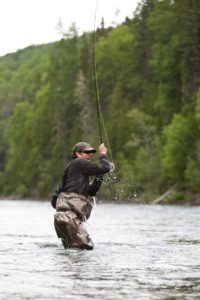
Monte Burke is a journalist, New York Times bestselling author, and contributing editor at Forbes, Garden & Gun, and The Drake. His most recent book is Lords of the Fly: Madness, Obsession, and the Hunt for the World-Record Tarpon, which was one of the best books I read in 2020. He’s also the author of Saban: The Making of a Coach, which also happens to be one of my all-time favorite books. Whether he’s writing about fly fishing, Colorado conservationists, elk hunting, or football, Monte’s work is always impeccably researched and fun to read.
I loved every page of Lords of the Fly, and both anglers and non-anglers alike will be drawn into the book’s engaging story and wild characters. One of my favorite aspects of the book was how it opened my eyes to the connections between the 1970s Florida fishing scene and modern-day art, poetry, and literature of the American West. Western luminaries who are frequently mentioned on this podcast-- Tom McGuane, Jim Harrison, Richard Brautigan, Russell Chatham, and more-- all created art and chased tarpon together in Florida in the 1970s. They all eventually moved West and became some of the most respected western artists of their time, but were it not for the creative foundation they built in Florida, today’s western literary and art scene would look quite different.
Monte and I had a fun and wide-ranging conversation discussing everything from fly fishing to fatherhood. We started out talking about Lords of the Fly-- we obviously talked about the crew of anglers that included McGuane and Harrison, but we also discussed the full cast of obsessed characters who make up the history of fly fishing for tarpon. Monte explains why this story was so compelling to him, and he discusses some of the headwinds he encountered while trying to get the book published. We discuss Monte’s attraction to writing about intense, obsessed people, whether they happen to be world champion coaches or anglers. We chatted about Monte’s writing and journalism career, as well as some of the routines that allow him to be such a prolific writer. And as usual, we discuss favorite books, authors, films, and he offers up some wise parting words.
If you love fishing and literature, or if you’re an aspiring writer or artist, this episode is chock-full of useful information. Be sure to check out the show notes for links to everything we discuss-- this episode may very well hold the record for most books and authors recommended! Hope you enjoy!
Photos courtesy of Monte Burke
Download on Apple Podcasts
—
Download on Spotify
—
Download on Google Podcasts
—
Download on Overcast
—
EPISODE NOTES
Topics Discussed:
- 3:50 - Why Monte was drawn into the story of fly fishing for tarpon
- 8:30 - Early stages of writing the book
- 14:30 - Jim Harrison, Tom McGuane, and tarpon fishing
- 20:45 - What McGuane such a unique writer?
- 23:15 - Monte's decision to include himself in the story
- 26:45 - His obsession with obsessed people
- 31:15 - Monte's personal obsessions
- 35:45 - How having children affected his outlook and career
- 40:15 - When writing and reading became his focus
- 42:45 - Getting started in journalism + writing at night
- 45:45 - The coolest part of writing
- 48:45 - Writing routine
- 53:15 - Techniques for convincing people to share their stories
- 56:15 - Writers that Monte admires
- 59:45 - Favorite books
- 1:00:30 - Favorite movie
- 1:02:15 - Favorite place in the West
- 1:03:45 - Parting words of wisdom
Information Referenced:
- Monte Burke
- Lords of the Fly by Monte Burke
- Pegasus Books
- Saban by Monte Burke
- All books by Monte Burke
- Garden & Gun magazine
- Forbes magazine
- Steve Huff profile by Monte
- Carl Hiaasen profile by Monte
- Thomas McGuane
- Jim Harrison
- Russell Chatham
- Richard Brautigan
- Hunter S Thompson
- Rinella - McGuane podcast
- Ninety-Two in the Shade by Thomas McGuane
- Richard Ford
- Pappyland by Wright Thompson
- The Orchid Thief by Susan Orlean
- Valley Uprising
- The Last Dance
- John McPhee
- Michael Lewis
- Ian Frazier
- Emily St John Mandel
- James Salter
- Wallace Stegner
- The Sisters Brothers by Patrick DeWitt
- The Great Gatsby by F Scott Fitzgerald
- Light Years by James Salter
- Trading Places
- Ketchum, ID
- Henry's Fork
- Howler Brothers
Enjoy this episode? Then you might like these as well:
- Hampton Sides, Part 2 – How to Tell a Damn Good Story
- Callan Wink - A New Voice for the New West
- Heather Hansman – Demystifying Water in the West
- Chris Dombrowski – Words, Water & the West
- Malcolm Brooks - Epic Tales from the American West
- Peter Heller – Chasing the Flow
- Chris La Tray – Rediscovering His Past, Writing His Future
- Sara Dant – A Deep Dive Into the History of the West
Malcolm Brooks is a Montana-based author best known for his epic novel Painted Horses, a sweeping, large-scale tale of life in the American West in the 1950s. Published in 2015, Painted Horses has quickly become a classic among those who love Western literary fiction. Even more impressive, Painted Horses was Malcolm's first published novel-- a truly remarkable feat when you consider the story's breadth and depth and its characters.
Malcolm's obsession with writing began at age fourteen when a teacher gave him a copy of Larry McMurtry's Lonesome Dove during an incredibly formative period of his life. From that point on, Malcolm was laser-focused on becoming an author-- so much so that he completed his first full-length novel when he was only 18 years old. Malcolm continued to consistently write throughout his twenties, experiencing moderate success in journalism, but never publishing a novel. When he was in his early thirties, Malcolm decided to go all-in on writing his dream novel-- "to go big or go home" as he says-- and he began the five-year process of writing Painted Horses. It's safe to say that his efforts paid off-- Painted Horses has been compared to the works of Cormac McCarthy, Wallace Stegner, and more.
Malcolm and I were introduced by another gifted author and past podcast guest, Chris Dombrowski, and we had a wonderful conversation. If you're interested in the creative process or the ins-and-outs of craftsmanship, you will love this episode. We started out by talking about our mutual love of Lonesome Dove, and Malcolm shares how that book changed the trajectory of his life. We discuss Malcolm's upbringing, formal education, commitment to carpentry, and artistic and literary influences. We obviously discuss Painted Horses, and he offers a sneak preview of his upcoming novel, Cloudmaker. Malcolm tells a great story about finding an ancient buffalo skull and offers tons of great book recommendations. And finally, he has some wise parting words that I think you'll find useful and timely.
Thanks to Malcolm for taking the time to chat. Be sure to check out the episode notes for links to everything we discuss. Hope you enjoy!
Photo courtesy of Malcolm Brooks
Download on Apple Podcasts
—
Download on Spotify
—
Download on Google Podcasts
—
Download on Overcast
—
EPISODE NOTES
Topics Discussed:
- 3:30 - Influence of Lonesome Dove
- 9:30 – When did Malcolm discover he wanted to be a writer?
- 10:30 – Malcolm’s foray into carpentry and its overlaps with his writing
- 11:30 – Malcolm’s first manuscript
- 14:00 – When did Malcolm first get published?
- 15:45 – How Malcolm first became interested in Montana
- 17:45 – Malcolm’s formal education experience
- 20:30 – Painted Horses
- 22:30 – Malcolm’s self-critique and artistic influences
- 25:30 – Malcolm’s writing process
- 27:30 – Is writing fun for Malcolm?
- 28:15 – Legends of the Fall
- 30:30 – The importance of reading to Malcolm
- 32:00 – The importance of supplementary income for creatives and authors
- 37:00 – Malcolm’s advice for finishing a project and notes on new projects he is working on
- 40:30 - Yellowstone and its impact on American Western-focused television
- 41:30 – What authors does Malcolm admire?
- 48:00 – Slight teaser for Malcolm’s upcoming book, Cloudmaker
- 51:45 – What other art has shaped Malcolm’s world view?
- 53:30 – Malcolm’s most powerful experience in the outdoors
- 1:00:00 – Words of wisdom
Information Referenced:
- Malcolm Brooks
- Larry McMurtry
- Placerville, CA
- Ken Kesey
- Frances Kuffel
- The Flathead, Flathead Valley
- MFA, University of Montana
- William Kittredge
- Thomas McGuane
- Jim Harrison
- Rich Little
- Stephen King
- Larry Brown
- Donald Ray Pollock
- Hal Hearing
- Yellowstone
- Taylor Sheridan
- Steven Bodio
- Tony Hillerman
- Edward Abbey
- Granville Stewart
- Mary MacLane
- Friedrich Nietzsche
- Mark Twain
- Charles Lindbergh
- John Wayne
- Humphrey Bogart
- Orson Wells
- Fancis Ford Coppola
- Martin Scorsese
- Cybill Shepherd
- Jeff Bridges
- Steven Rinella
- Smith River
- Juanita Vero, Missoula County Commissioner
Enjoy this episode? Then you might like these as well:
- Peter Heller – Chasing the Flow
- Hampton Sides, Part 2 – How to Tell a Damn Good Story
- Chris Dombrowski – Words, Water & the West
- Heather Hansman – Demystifying Water in the West
- Chris La Tray – Rediscovering His Past, Writing His Future
- Sara Dant – A Deep Dive Into the History of the West
- David Gessner, Part 3 – A Confluence of Conservation Ideals
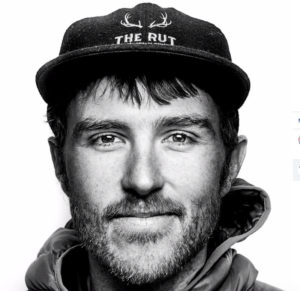
Mike Foote is a Montana-based professional ultrarunner and ski mountaineer who is best known for his inspiring performances in 100-mile ultramarathons and multiday endurance expeditions through wild landscapes. In 2018, he set the world record for the most vertical feet climbed and skied in 24 hours-- a mind-blowing 61,200 feet. And in addition to his impressive athletic career, Mike is also a committed conservationist, serving on the board of directors of the Five Valleys Land Trust, an innovative conservation organization that serves the five valleys surrounding Missoula.
Mike grew up in Ohio and had never visited the American West until a life-changing college road trip took him to Moab, Utah. He instantly fell in love with the wide-open landscapes of the American West-- so much so that he left college in Ohio and moved to Steamboat Springs, Colorado. During that first year in Steamboat, Mike became obsessed with the mountains-- skiing, running, and enjoying all aspects of life in a Rocky Mountain ski town. Although the learning curve was steep, Mike loved every minute of his new life in the mountains, and he gradually became more and more obsessed with endurance sports. Fast forward to today, and Mike’s list of endurance accomplishments is astonishing-- he’s earned podium finishes at some of the world’s most notable races, including the Hardrock, UTMB, Big Horn 100, and more.
Despite all of his world-class athletic accomplishments, Mike is an amazingly down-to-earth and humble guy. We had a wonderful conversation and managed to cover a lot in a little over an hour-- topics that will be impactful to runners and nonrunners alike. We started by discussing his early years in Ohio and that fateful, life-changing trip out West. We talked about his progression in endurance sports, and his transformation from complete beginner to North Face sponsored athlete to race director of The Rut Mountain Runs. We spend a lot of time talking about mental health, and Mike graciously shares some of the techniques, books, and resources that have helped him manage the inevitable ups and downs in life and sport. We also talk about his hands-on work with the Five Valleys Land Trust, and why he has chosen to be so deeply involved in conservation. And Mike is a voracious reader, so he offers up quite a few excellent recommendations throughout the conversation.
This is an excellent episode, and I can’t thank Mike enough for being so open and thoughtful throughout the entire conversation. I hope you enjoy!
Header photo by Steven Gnam, headshot by Clayton Boyd
Download on Apple Podcasts
—
Download on Spotify
—
Download on Google Podcasts
—
Download on Overcast
—
EPISODE NOTES
Topics Discussed:
- 4:00 - Where Mike grew up
- 5:45 - What drew Mike out West
- 11:50 - What was Mike’s first year out West like
- 14:25 - When Mike first started running
- 15:45 When did Mike realize he had a talent for distance running
- 19:10 - How did Mike end up in Missoula?
- 21:20 - Mentality shift from ”just going running” (paraphrased) to professional, goal-oriented training?
- 27:35 - What drives Mike on his runs?
- 32:00 - Community of ultra-endurance events
- 35:47 - Mike getting into the race directing business
- 39:57 - How does Mike deal with the mental struggles when running.
- 46:20 - Mike’s book recommendations for setting his mind right
- 49:00 - The importance of having deep conversations about mental health
- 50:30 - Mike’s commitment to land conservation
- 59:00 - General book recommendations
- 1:02:42 - Film recommendations
- 1:06:00 - Parting words of wisdom
Information Referenced:
- Mike Foote Instagram
- Catalina Marathon
- The North Face
- Wasatch 100
- Hardrock 100
- UTMB
- VIDEO: Mike Foote breaks world record for most vertical feet skied in 24 hours
- Ben Parsons
- The Rut Mountain Runs
- Mountain & Prairie: Live in Bozeman
- Essentialism by Greg McKeown
- Tim Ferriss
- Daring Greatly, Brene Brown
- Wendell Berry
- Mary Oliver
- Hafiz
- Wherever You Go, There You Are, Jon Kabat-Zinn, PhD
- Pema Chodron
- Land Trust Alliance
- Outdoor Retailer (“OR”)
- Five Valleys Land Trust
- Collapse by Jared Diamond
- Ed's book recommendations
- Grapes of Wrath, John Steinbeck
- East of Eden, John Steinbeck
- The Brothers K, David James Duncan
- Hamilton
Enjoy this episode? Then you might like these as well:
- Steve Casimiro – Voice of Adventure
- Chris Burkard – The Art of Suffering
- Kyle Richardson – Mountains & Music
- Juanita Vero, Part 2 – A Deep Desire to Serve
- Pete McBride – A Passion for Water & Wild Places
- Heather Hansman – Demystifying Water in the West
- Chandra Brown – Fostering Creativity Through River Adventures
- Hampton Sides – Live at the Aspen Institute
If you’ve listened to the podcast for a while, then you’re probably familiar with each episode’s general format: I have a long-form conversation with an interesting person who is doing important work in the American West. We usually spend about half of the time discussing their work and the other half discussing their personal backstory—a format that I thoroughly enjoy and seems to have struck a chord with a surprisingly large audience of listeners. The episodes are designed to be evergreen—whether you listen to them now or ten years from now, guests offer up timeless lessons you can apply to your own life.
But given our current moment in history and the public health, economic, social, and environmental challenges that have been accelerated by COVID, I’ve decided to periodically experiment with a new episode format, one that I’m calling New West Dispatches. In each New West Dispatch, I’ll speak with an expert about a very specific, current issue that is creating challenges for a specific sector of the American West. We’ll dig deep into the nitty gritty of the topic, going into more detail than usual, with the goal of gaining a better understanding of time-sensitive issues facing the West. We’ll hear firsthand stories from people on the front lines of their sectors, and discuss solutions to the problems at hand. The vast majority of Mountain & Prairie episodes will continue to follow the tried-and-true interview format, but every so often, as opportunities present themselves, I’ll look forward to getting a little more technical with Dispatches.
My guest for the first New West Dispatch is Matt Skoglund. Matt is an attorney-turned-bison rancher who joined me on the podcast last year for a fun and wide-ranging conversation about his path to founding his business North Bridger Bison. Matt came back to discuss some of the specific COVID-related challenges facing his bison business, specifically the astounding shortage of meat processing facilities throughout the American West. As you may remember, when COVID hit in March, there were endless news stories about meat shortages and breakdowns in supply chains linking producers and consumers. Although it’s not on the front page of the paper anymore, large-scale challenges persist, and Matt is in the middle of it all on a daily basis. So he was kind enough to return to the podcast to share his extensive knowledge on the subject, and to offer some potential solutions toward bolstering the food production system here in the West.
Matt covers a lot of ground in less than an hour, so be sure to check out the episode notes for a list of all the topics we discuss and links to resources. Hope you enjoy!
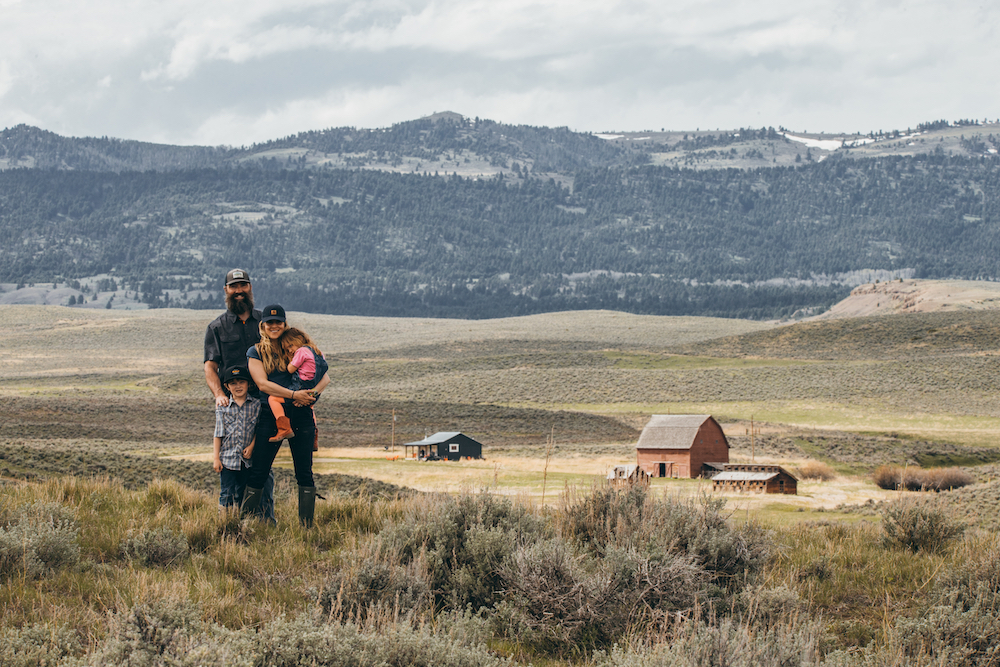
All photos by Chris Douglas for Boot Barn
Download on Apple Podcasts
—
Download on Spotify
—
Download on Google Podcasts
—
Download on Overcast
—
EPISODE NOTES
Topics Discussed:
- 4:00 - Overview of North Bridger Bison
- 8:30 - COVID’s effects on meatpacking
- 11:45 - Big outbreaks in packing plants
- 15:30 - Challenges to regenerative ag because of COVID
- 17:30 - Cause of the processing backlog
- 21:00 - Fragility of the US food system
- 23:30 - What prevents entrepreneurs from opening more processing plants?
- 26:00 - Appreciation for good meat
- 29:30 - Grazing as healing for the ecosystem
- 33:00 - Will more meat processing businesses open?
- 35:15 - Will meat processing go back to “normal” after post-COVID?
- 39:00 - Gov. Steve Bullock’s COVID relief
- 40:30 - Labor shortages
- 42:00 - The art of butchery
- 44:00 - Be intentional with impact
- 49:00 - Externalities of cheap meat
- 53:00 - Books to read about meat
- 54:30 - Productive actions to take
Information Referenced:
- North Bridger Bison
- Matt's first Mountain & Prairie episode
- Wild Idea Buffalo
- Dan O’Brien
- Gallatin Valley Land Trust
- Natural Resources Defense Council
- COVID outbreaks at meat processing plants
- NBB Bees and Butterflies shirt
- Niche Meat Processor Assistance Network
- PRIME Act
- Governor Steve Bullock
- Miles City Community College
- The Jungle by Upton Sinclair
- Buffalo for the Broken Heart by Dan O'Brien
- Nourishment by Fred Provenza
- Kate Kavanaugh episode
- Kate Kavanaugh in the NY Times
- Ed's "Good News" email
Enjoy this episode? Then you might like these as well:
- Duke Phillips IV – Living with the Land
- Duke Phillips III – A Vision for the New West
- Kate Kavanaugh – Regeneration & Restoration
- Daniela Ibarra-Howell – Healing the Land Holistically
- Jim Howell – Conserving and Restoring the World’s Grasslands
- Carlos Fernandez – The Power of Partnerships
If you’re a long-time listener, then surely you remember Juanita Vero. Juanita is a fourth-generation Montana rancher, conservationist, community leader, and all-around inspiring woman. She’s also a devoted public servant, serving as a Missoula County Commissioner, where she gets her hands dirty with the critical and often not-so-glamorous work of county government. Juanita’s name will be on the ballot in Missoula County this November, where she is hoping to win a six-year term to continue her service as a Commissioner.
Juanita joined me on the podcast back in 2018, then again on stage at last year’s live podcast in Bozeman, so her personal story is probably familiar. I wanted to have her back on the show as we approach the election because her story serves as an inspiring example of how citizens can push outside of their comfort zones to lead the communities they love. As you’ll hear, Juanita had never considered assuming a public office—but when the opportunity presented itself, and she was encouraged to pursue it by fellow community leaders, she jumped at the chance. Since then, she has gone all-in and has thrived in her role as County Commissioner.
If you’re like me, you are probably overwhelmed with the negative, inflammatory news regarding politics and the upcoming election. But Juanita’s campaign and her desire to serve stands in stark contrast to much of our national discourse—she’s driven by a love of place, humility, a sense of duty, genuine curiosity, and a desire to find common ground. I think it’s important to remember that there are committed public servants in every county and city—good people who are driven not by the desire to accumulate power but by a desire to leave their communities better than they found them. Wherever you live, I hope that Juanita’s example will encourage you to engage with your local elected leaders, truly understand the candidates running for local offices, or maybe even run for office yourself. But at the least, I know you’ll enjoy listening to Juanita’s story, which will hopefully make you feel better about the world during these crazy times!
Photos courtesy of Juanita Vero
Download on Apple Podcasts
---
Download on Spotify
---
Download on Google Podcasts
---
Download on Overcast
--
EPISODE NOTES
Topics Discussed:
- 3:30 - Why and how Juanita decided to enter politics
- 9:30 - Specific experiences that let Juanita know she was ready to be a commissioner
- 13:30 - Importance of talking to her Grandfather
- 19:15 - What exactly is a county commissioner?
- 22:15 - Example of how commissioners can influence development
- 25:30 - Why she’s running for office
- 28:30 - Commissioners as true public servants
- 32:30 - COVID’s impact on Missoula County
- 34:30 - Positive effects of the “new normal” of COVID
- 36:00 - Transition from working on the land to an office job
- 39:20 - Advice for citizens who want to work productively with local government
- 42:30 - Greatest challenges and opportunities in Missoula County
- 46:15 - Smaller issues worth considering
- 48:00 - Climate change & Missoula County solutions
- 52:00 - Importance of community leadership
- 53:30 - Favorite books
- 57:15 - Favorite films
- 58:30 - Funny and surprising activities
- 59:30 - Parting words of wisdom
Information Referenced:
- Juanita Vero for Missoula County Commissioner
- Juanita Vero episodes - Part 1 and Live in Bozeman
- Missoula County
- Missoula County Commissioners
- Jim Howell episodes 1 and 2
- Will Laverack
- The Tipping Point by Malcolm Gladwell
- The Heart of Everything That Is by Bob Drury
- One Sentence Journal by Chris La Tray
- Chris La Tray episode
- Woman: An Intimate Geography by Natalie Angier
- Public Trust documentary
- Hal Herring episode
- Victor Frankl
Enjoy this episode? Then you might like these as well:
- Gabe Vasquez – Advocate for Equity in the Outdoors
- Daniela Ibarra-Howell – Healing the Land Holistically
- James Decker – Inspired Leadership in the New West
- Becca Aceto – Forging Her Own Path in the West
- Hal Herring – A Man of Words & Wild Places
- Mary Rondepierre – Melding Work, Play, and Purpose
- Jessica Lewis – Doing More With Less
Jessica Wahl Turner is the Executive Director of the Outdoor Recreation Roundtable (ORR), America's leading coalition of outdoor recreation trade associations and organizations. Currently, ORR is comprised of 31 national association members that serve more than 100,000 outdoor-related businesses, which is an amazing feat considering that the organization is less than three years old. Jessica and her team bring together all sectors of the outdoor economy to harness the industry's collective power and advance issues related to conservation, outdoor access, public lands infrastructure, and much more. Whether she's in the halls of Congress or the wide-open spaces of the American West, Jessica is a devoted, effective advocate for the outdoor industry.
This conversation is part of the Montana Governor's Office of Outdoor Recreation's "Business of Outdoor Recreation Summit"—a gathering of some of the most notable names in the outdoor recreation sector. Because of COVID, this year's summit has gone virtual, but the need for collaboration and idea-sharing among industry experts has never been greater. The Outdoor Recreation Roundtable is a case study in focusing on common goals, putting aside petty differences, and overcoming challenges with new and innovative approaches. So I was thrilled to get a chance to learn exactly how Jessica has gone about leading her organization during these changing times.
Jessica and I connected on Zoom and had a fun, educational, and wide-ranging conversation about all aspects of the outdoor economy. We started by chatting about the history of ORR and precisely what the organization does. We also discussed the Great American Outdoors Act and how this landmark legislation will positively affect the outdoor industry. We talked about COVID's effect on the outdoor economy and how ORR is working to support outdoor businesses during these unprecedented times. We also talked about how the outdoor economy contributes to rural and urban areas and how all aspects of the outdoor economy are interconnected. We also spend some time talking about Jessica's educational and professional backgrounds, and what makes her so uniquely qualified for her current role. And as usual, we discuss favorite books, favorite outdoor adventures, and she offers some wise parting words.
This was a wonderful conversation, and I hope you enjoy. Be sure to check out the "Business of Outdoor Recreation Summit" webpage, as there are many resources, films, and other podcasts that you will find enjoyable and educational. Links to everything are in the episode notes.
Photos courtesy of Jessica Wahl Turner
Download on Apple Podcasts
---
Download on Spotify
---
Download on Google Podcasts
---
Download on Overcast
--
EPISODE NOTES
Topics Discussed:
- 3:30 - Outdoor Recreation Roundtable explained
- 8:00 - Focusing on the commonalities in the outdoor industry
- 12:00 - Impact of the Great American Outdoors Act
- 17:30 - How the upcoming election could affect the recreation economy
- 22:00 - The national interconnectedness of the outdoor economy
- 26:45 - How COVID has affected the outdoor recreation economy
- 32:00 - Balancing conservation and increased outdoor activities
- 36:30 - Future goals and measures of success for the roundtable
- 40:30 - Jessica’s education and early career
- 44:15 - Lessoned learned from the Outdoor Industry Association
- 48:45 - Advice to aspiring industry advocates/lobbyists
- 53:15 - Heroes and mentors
- 58:00 - Favorite books
- 1:01:30 - Favorite place in the outdoors
- 1:03:00 - Jessica’s parting words of wisdom
Information Referenced:
- Montana Governor’s Office of Outdoor Recreation
- Business of Outdoor Recreation Summit
- Jessica Wahl Turner on LinkedIn
- Outdoor Recreation Roundtable (ORR)
- Outdoor Industry Association (OIA)
- Patagonia
- Harley Davidson
- Great American Outdoors Act
- Land and Water Conservation Fund
- Leave No Trace
- US Department of Interior (DOI)
- US Forest Service (USFS)
- Ken Salazar
- Sally Jewell
- Anne Krcik
- The North Face
- Camber Outdoors
- New York Times
- Young Men and Fire by Norman Maclean
- Bowling Alone by Robert B Putnam
- Tribe by Sebastian Junger
- Adirondacks Park
- Adirondack 46er
- Colorado’s 14ers
- Dare to Prepare by Ronald Shapiro
Enjoy this episode? Then you might like these as well:
- Rachel VandeVoort – Harnessing the Power of Outdoor Recreation
- Gabe Vasquez – Advocate for Equity in the Outdoors
- Hal Herring – A Man of Words & Wild Places
- Chris Burkard – The Art of Suffering
- Heather Hansman – Demystifying Water in the West
- Sara Dant – A Deep Dive Into the History of the West
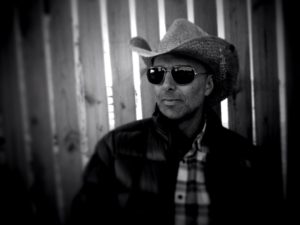
Steve Casimiro is the founder and editor of Adventure Journal, an online and quarterly print magazine devoted to outdoor adventure in all its forms. AJ began as Steve's personal blog back in 2008—a project he created on the side while writing for National Geographic Adventure. Steve's unique perspective and devotion to adventure writing struck a chord with the outdoor community, and AJ's audience grew and grew. When National Geographic Adventure closed its doors, Steve decided to pursue AJ with his full professional focus, building a loyal following who is deeply devoted to AJ online and in print.
Steve grew up on the east coast, and from an early age, he was obsessed with writing, photography, and storytelling. After earning a degree in journalism, he spent his early twenties writing for traditional newspapers, including USA Today. But when presented with the opportunity to meld his passion for the outdoors with his journalism career, he left the newspaper business to join the team at the legendary ski magazine Powder. From there, Steve immersed himself in all aspects of the adventure media world, honing his craft for storytelling and dialing in his voice as a writer and editor. The culmination of these years of hard work is Adventure Journal, which is, in my opinion, one of the most essential voices in the outdoor community.
It's no secret that I'm a massive fan of Adventure Journal. I reference it often in my weekly newsletter and suggest the quarterly print publication in my reading recommendation emails. But what I find most impressive about Steve is how he has built such a loyal community of like-minded outdoor enthusiasts—curious, thoughtful, open-minded readers who enjoy thinking deeply about the outdoors and adventure. In this conversation, Steve shares how he managed to create such a unique community and what drives him to work so hard to continue to build it. We talk about AJ's values as a business, and we discuss his recent commitment to make AJ carbon neutral. We talk about how Steve welcomes ideas and opinions that he may not necessarily agree with, and the unique niche that AJ fills in the outdoor community. Steve also discusses how his his wife Joni, who is the AJ Art Director, has played an invaluable role in the growth of AJ. We talk about the importance of attention, the need to support independent media, what he looks for in writers, the importance of optimism, his ideas on building community, and much more.
Whether you're a writer, photographer, business owner, community builder, or outdoor enthusiast, I can promise you that you'll learn a lot from this conversation. And please keep an eye on my Instagram account, because I'll be doing a giveaway of a few copies of AJ later this week. You can find a link to my Instagram Account in the episode notes.
Thanks to Steve for taking the time to join me. I hope you enjoy!
Photos by Sinuhe Xavier
Download on Apple Podcasts
---
Download on Spotify
---
Download on Google Podcasts
---
Download on Overcast
--
EPISODE NOTES
Topics Discussed:
- 4:00 - AJ’s decision to be carbon neutral
- 7:00 - Founding values of AJ
- 9:45 - Thoughts on the business decision of going carbon neutral
- 15:00 - Importance of where we focus our attention
- 20:00 - Influences on Steve’s unique approach to media and AJ
- 24:30 - AJ’s transition from personal project to full-time gig
- 26:30 - Thoughts on AJ’s tone, consistency, and content
- 30:30 - Evolution from traditional journalism to AJ
- 35:00 - Importance of doing work that is new and innovative
- 40:45 - Impactful notes and letters from AJ readers
- 41:30 - Deep feelings brought out by outdoor adventure
- 43:00 - Important example that pursuing one’s passion can set
- 46:00 - Pushing through being “stuck”
- 51:00 - Optimist or Pessimist?
- 55:45 - What Steve looks for in writers
- 1:01:30 - Importance of supporting media with your dollars
- 1:06:00 - Having high expectations of the brands you support
- 1:09:00 - Favorite books
- 1:12:00 - Parting words of wisdom
Information Referenced:
- Adventure Journal
- Subscribe to AJ
- AJ on Instagram
- Steve Casimiro
- Joni Casimiro
- AJ's commitment to being climate neutral
- Climate Neutral certification
- The Surfer's Journal
- Conservation Alliance
- 1% for the Planet
- Bill McKibben
- National Geographic Adventure
- Yvon Chouinard
- Let My People Go Surfing by Yvon Chouinard
- Sterling Lorence
- Powder, Bike magazines
- Steve-Brendan Leonard interview in Outside
- Brendan Leonard / Semi-Rad.com
- Chris Burkard episode
- Field Notes
- AJ Pocket Notebooks
- Craig Childs
- Terry Tempest Williams
- Peter Heller episode
- One Man’s Meat by EB White
- Peter Heller books
- The New Wilderness by Diane Cook
Enjoy this episode? Then you might like these as well:
- Peter Heller – Chasing the Flow
- Chris Burkard – The Art of Suffering
- Brendan Leonard – Grinding It Out
- Becca Skinner – Pursuing Her Passions in the West
- Hampton Sides – Live at the Aspen Institute
- Pete McBride – A Passion for Water & Wild Places
- Emilene Ostlind – Storytelling for the New West
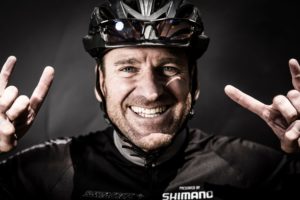
Chris Castilian is the Executive Director of Great Outdoors Colorado (also known as GOCO), an organization that has committed more than $1.2 billion toward preserving and enhancing Colorado’s parks, trails, wildlife, rivers, and open spaces. Founded in 1992, GOCO is truly a one-of-a-kind conservation funder—the organization invests a portion of Colorado Lottery proceeds into a wide variety of critical projects, with a current emphasis on issues including equitable access and community vitality. GOCO’s impact around Colorado is staggering—its funding has conserved more than 1.2 million acres, added over 47,000 acres to the state park system, protected over 1,000 miles of rivers, and much more.
Chris is a native Coloradan, and all aspects of his professional success and personal passions speak to his deep love of his home state and its wide-open spaces. Chris was formally trained as an attorney, but early is his career, he chose to focus on service rather than billing hours at a fancy law firm. He served as the Deputy Chief of Staff to Governor Bill Owens and as Director of the Colorado State Board of Land Commissioners. He also had a successful stint in the private sector, honing his business skills which have served him well at GOCO. And, as you’ll hear, his focus manifests itself in his personal life through his commitment to the outdoors and mountain biking—he’s completed the Leadville 100 mountain bike race multiple times.
Since we’re all sticking close to home these days, Chris and I connected via Skype to talk about GOCO, his career, and his thoughts on conservation in Colorado and beyond. We started with a deep dive into the history of GOCO, discussed how the organization has evolved, and talked about its goals and plans for the coming years. We also discussed how GOCO is working to address some of the current public health and social challenges here in Colorado, including equitable access to the outdoors. Chris and I spent a lot of time discussing his personal background—why he chose to pursue a service-based career, his thoughts on leadership, lessons learned from his time in the business world, and what characteristics he looks for in employees. We also discussed his love of mountain biking, the Leadville 100, our shared interest in books and history, and he offered some wise parting words to listeners.
If you care about protecting the West’s open spaces and communities, then this episode is a must listen. Enjoy!
Download on Apple Podcasts
---
Download on Spotify
---
Download on Google Podcasts
---
Download on Overcast
--
This episode is brought to you by Colorado Parks and Wildlife’s Partners in the Outdoors program. The Partners in the Outdoors program brings together diverse interests from across the entire spectrum of the outdoors to advance and balance both outdoor recreation and conservation in Colorado. The program seeks to foster alignment and trust through three cornerstone initiatives: the Partners in the Outdoors Conference, the Colorado Outdoor Partnership, and the Colorado Outdoor Principles, as well as extensive resource sharing and network building.
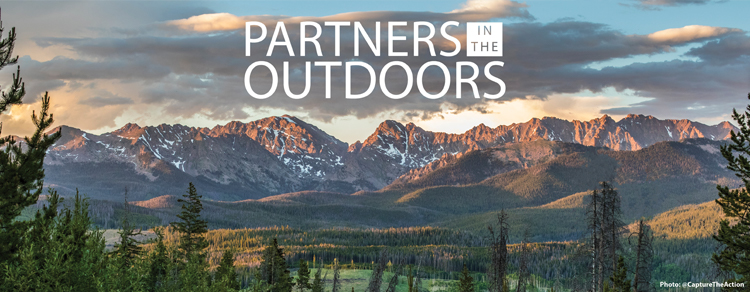
EPISODE NOTES
Topics Discussed:
- 5:00 - The history of GOCO
- 7:30 - Similar programs in other states
- 8:30 - Why conservation matters during these crazy times
- 11:15 - GOCO’s new strategic plan
- 15:30 - A new holistic approach to community and conservation
- 18:45 - The evolution of GOCO
- 21:30 - Core values of GOCO
- 24:45 - Equitable access to the outdoors
- 28:30 - GOCO’s Equity Principles
- 34:00 - Inspiring work in Leadville, Colorado
- 37:45 - Growing up in Denver
- 38:30 - Life after law school
- 40:30 - Why pursue mission-based work?
- 45:00 - Transition into the private sector
- 47:30 - Changing mindset of the oil and gas industry
- 50:00 - Benefits of having business experience
- 56:00 - What Chris looks for when hiring people
- 58:00 - Favorite books
- 1:00:45 - Mountain biking, Leadville 100, Breck Epic, and other outdoor activities
- 1:07:00 - Favorite places in Colorado
- 1:08:45 - Parting words of wisdom
Information Referenced:
- Great Outdoor Colorado
- Governor Romer
- Governor Owens
- Ken Salazar
- GOCO’s new strategic plan
- GOCO's Values
- Dr. Nita Mosby Tyler
- Get Outdoors Leadville
- Colorado Mountain College
- Steve Farber
- Anadarko
- Russ Schnitzer episode
- Generation Wild program
- GOCO Staff
- Hampton Sides episodes 1 and 2
- Blood and Thunder by Hampton Sides
- In the Kingdom of Ice by Hampton Sides
- Nothing in the World Like It by Stephen Ambrose
- Undaunted Courage by Stephen Ambrose
- The Worst Hard Time by Timothy Egan
- The Principled Politician by Adam Schrager
- Leadville 100
- Breck Epic
- Ken Chlouber
- Gates Family Foundation
- Palmer Land Trust
- Colorado Cattlemen’s Agricultural Land Trust
Enjoy this episode? Then you might like these as well:
- Dan Prenzlow – Generous Service, Humble Leadership
- Rachel VandeVoort – Harnessing the Power of Outdoor Recreation
- Gabe Vasquez – Advocate for Equity in the Outdoors
- Rebecca Jewett, Part 2 – Conservation’s Role During Challenging Times
- Carlos Fernandez – The Power of Partnerships
- Russ Schnitzer – A Life Devoted to Western Landscapes
Anna Brones is a freelance journalist, author, artist, and producer who is prolific in all of her creative endeavors-- she’s published four books, produced documentary films, is currently publishing a quarterly print journal about food, and much more. One of her most recent projects was the Women’s Wisdom Project, in which she showcased the wisdom of inspiring women by creating 100 papercut portraits. All of Anna’s work is authentic and enlightening, and her personal commitment to cultivating creativity is instructive and inspiring.
Growing up in the Pacific Northwest, Anna always had a deep appreciation for nature and community. She has studied, lived, and worked in many different countries and cities, but several years ago decided to return to her hometown in Washington state where she and her husband currently live. As you’ll hear in our conversation, Anna has read and thought deeply on the importance of place, and offers a unique perspective on what it means to be truly connected to a landscape or community.
Anna and I connected via Skype and had a wide-ranging conversation about her creative process, her current and past artistic projects, the importance of wilderness and nature, and much more. We started by discussing her Creative Fuel Challenge email newsletter-- an amazing resource that has been very helpful to me during these past few crazy months. We also discussed her Women’s Wisdom Project--how she researched all 100 inspirational women and the process of creating 100 intricate pieces of art. Anna talked about her experience leading kids on a wilderness leadership retreat, as well as how camp and wilderness experiences in her own youth helped to shape her life and career. And as usual, we discussed favorite books and her most powerful outdoor experience, and she also offered some excellent words of wisdom for anyone with creative aspirations.
There are tons of resources mentioned in this episode. Be sure to check out the episode notes for links to everything, including a few bonus resources that Anna and I discussed before and after recording the actual episode. Enjoy!
Photo of Anna outdoors is by Julie Hotz, others courtesy of Anna Brones
Download on Apple Podcasts
---
Download on Spotify
---
Download on Google Podcasts
---
Download on Overcast
--
EPISODE NOTES
Topics Discussed:
- 3:30 - The Creative Fuel Challenge explained
- 6:30 - Why provide creative prompts?
- 7:45 - Importance of putting out regular content
- 9:30 - Time as an artist in residence
- 12:30 - Process of finding balance in life and creativity
- 15:30 - Pushing through creative blocks
- 19:00 - Fighting the reptile brain
- 20:45 - Using social media productively
- 23:45 - The Women’s Wisdom Project
- 27:45 - Process of researching women leaders
- 32:30 - The myth of having millions of ideas
- 36:00 - Anna’s early years in Washington state
- 41:00 - Importance of “place”
- 45:30 - How Anna came to appreciate the complexities of place
- 50:30 - Artists that Anna admires
- 53:30 - Anna’s experience leading wilderness trips
- 57:45 - How camp experiences benefited Anna
- 1:02:00 - Favorite books
- 1:06:30 - Most powerful outdoor experience
- 1:09:00 - Parting words of wisdom
Information Referenced:
- Anna Brones
- Creative Fuel Challenge
- Creative Fuel
- Women's Wisdom Project
- Brendan Leonard episode
- Brendan Leonard creative prompt
- The Nature Fix by Florence Williams
- Blue Mind by Wallace J Nichols
- Wendell Berry
- Afghan Cycles
- Lisa Congdon
- Hilma af Klint
- Beyond the Visible
- The Overstory by Richard Powers
- Daily Rituals by Mason Currey
- Daily Rituals: Women at Work by Mason Currey
- How to Do Nothing by Jenny Odell
- Deep Work by Cal Newport
- The Summer Book by Tove Jansson
- IndieBound
- NOLS
- Outward Bound
- Nikki McClure
- Hannah Viano
- Wasteland
- Story of Plastic
Enjoy this episode? Then you might like these as well:
- Jillian Lukiwski – Art and Adventure in the American West
- Cate Havstad – Cultivating Creativity & Craftsmanship
- Becca Skinner – Pursuing Her Passions in the West
- Brendan Leonard – Grinding It Out
- Becky Edwards – Amplifying the Power of Women in the West
- Jessica Lewis – Doing More With Less
- Logan Maxwell Hagege – Artistic Evolution
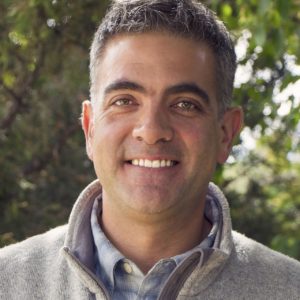
Carlos Fernández is the State Director for the Nature Conservancy in Colorado, where he and his team build alliances that advance conservation outcomes both in Colorado and around the world. Building on his formal training as an attorney, Carlos has had a long and successful career in conservation that extends far beyond the American West. He has worked extensively in his home country of Argentina, both as the Nature Conservancy's Southern Andes Conservation Strategies Manager and as the Patagonia Program Manager. Since taking the helm in Colorado in 2015, Carlos and TNC have enjoyed many notable achievements—everything from protecting large swaths of native grasslands to helping to create Colorado's newest state park.
Carlos grew up in Mendoza, Argentina, an agricultural region known for producing some of the world's best beef and exceptional Malbec wine. After a childhood spent hunting and fishing along the base of the Andes Mountains, Carlos trained as an attorney and went on to practice law for large international law firms in Buenos Aires and Washington DC. Several years into his career, Carlos realized that the legal profession was not providing deep fulfillment that he needed from a job—so he made the career switch into conservation and has never looked back.
Carlos and I had a fascinating conversation that I know you'll enjoy. We started by discussing the Nature Conservancy, and specifically what the organization does both globally and here in Colorado. We then chat about several of TNC's recent successes, including the creation of Yampa River Fund and TNC's critical role in acquiring and protecting the 19,200-acre Fisher's Peak property, which will soon be Colorado's newest state park. Carlos talks about the importance of partnerships in conservation, with other land trusts, governmental organizations, and local communities. We then discuss the future of conservation in the West and the challenges and opportunities facing the region in the next 30 years. Carlos and I both have five-year-old daughters, so we talk a bit about fatherhood and the outdoors' role in raising children. And as usual, we discuss favorite books, films, his favorite places in Colorado, and he offers some actionable words of wisdom.
This is an excellent episode, full of optimism, inspiration, and educational resources. Be sure to check out the episode notes for links to everything we discuss. Enjoy!
Download on Apple Podcasts
---
Download on Spotify
---
Download on Google Podcasts
---
Download on Stitcher
--
This episode is brought to you by Colorado Parks and Wildlife’s Partners in the Outdoors program. The Partners in the Outdoors program brings together diverse interests from across the entire spectrum of the outdoors to advance and balance both outdoor recreation and conservation in Colorado. The program seeks to foster alignment and trust through three cornerstone initiatives: the Partners in the Outdoors Conference, the Colorado Outdoor Partnership, and the Colorado Outdoor Principles, as well as extensive resource sharing and network building.

EPISODE NOTES
Topics Discussed:
- 5:00 - The Nature Conservancy explained
- 9:30 - TNC’s mission in Colorado
- 10:30 - Yampa River Fund explained
- 16:30 - Importance of community in conservation
- 19:30 - Fishers Peak State Park
- 26:00 - TNC and equitable access to the outdoors
- 28:30 - The importance of partnerships
- 30:45 - Civic duty of partnerships
- 32:00 - Colorado Outdoor Partnerships
- 35:00 - Early years in Mendoza, Argentina
- 38:00 - Transitioning from corporate law into conservation
- 41:30 - Moving to Colorado
- 42:30 - Carlos’s unique professional background
- 46:00 - Conservation in the time of COVID
- 48:45 - Heroes and mentors
- 52:00 - Advice for people transitioning from the private sector into non-profits
- 55:30 - Envisioning the future of conservation
- 59:30 - Favorite books
- 1:04:00 - Favorite films
- 1:05:45 - Carlos’s favorite outdoor activities
- 1:07:00 - Rediscovering the outdoors through your kids’ eyes
- 1:08:00 - Favorite location in the West
- 1:10:30 - Parting words of wisdom
Information Referenced:
- Carlos Fernandez
- The Nature Conservancy
- Sydney Macy
- Ken Salazar
- Great Outdoors Colorado (GOCO)
- Great Sand Dunes National Park
- TNC 13ers Young Professionals Group
- Yampa River Fund in the news
- The Carpenter Ranch
- Big Agnes
- Fishers Peak project
- Trust for Public Land
- Governor Jared Polis
- Gabe Vasquez episode
- Keep it Colorado
- Rebecca Jewett episode
- Colorado Outdoor Partnership
- SHIFT
- Mendoza, Argentina
- Gandhi: An Autobiography
- Governor Bill Ritter
- Ed’s book recommendations email
- Where the Water Goes by David Owen
- Cadillac Desert by Marc Reisner
- The Emerald Mile by Kevin Fedarko
- Team of Teams by Stanley McChrystal
- The Future We Choose by Christiana Figueres
- Designing Climate Solutions by Hal Harvey
- Essentialism by Greg McKeown
- Planet Earth II
- Delta Dawn by Pete McBride
- Pete McBride episode
Enjoy this episode? Then you might like these as well:
- Rebecca Jewett, Part 2 – Conservation’s Role During Challenging Times
- Daniela Ibarra-Howell – Healing the Land Holistically
- Emilene Ostlind – Storytelling for the New West
- Heather Hansman – Demystifying Water in the West
- Russ Schnitzer – A Life Devoted to Western Landscapes
- Alexis Bonogofsky – Taking a Stand for the West

David Gessner is back for his third appearance on the podcast, and this time we are discussing his brand new book Leave It As It Is: A Journey Through Theodore Roosevelt's American Wilderness. Most long-time listeners will remember David's past two episodes-- we discussed everything from Edward Abbey and Wallace Stegner to his daily writing rituals and his hand-built coastal writing shack. If you haven't listened to those first two episodes, I encourage you to do so—they are chock-full of wisdom, good humor, and inspiration to fight to conserve the places you love. But first, take a listen to this episode, as it offers some timely insights into this current moment in history.
In this episode, we spend the full hour discussing his new book and digging into the good, the bad, and the ugly of Theodore Roosevelt's legacy. As many of your know, I've read way-too-many TR books, and Leave It As It Is offers the most balanced, clear-eyed examination of the man that I've read to date. It's not a strict biography or historical examination of TR, although there's plenty of both within the pages. Rather, it's David's search to capture the best of TR's conservation ethos, to discard the worst, and to use the balance to build a new, holistic model for conservation and environmental justice. David melds together a "confluence of ideals" that acknowledges the wrongs of the past and sets an equitable, sustainable course for the future. During this time when we are rightfully reexamining many of our country's revered historical figures, Leave It As It Is provides a valuable, well-timed deep dive into the complexities of TR and his influence on conservation in the United States.
Although an hour-long interview is no substitute for reading the book, I believe that this conversation will give you a good taste of the fresh and unique perspective that David brings to the well-worn subject of Theodore Roosevelt. We start by discussing the relevance of studying TR now, in the midst of a global pandemic, economic crisis, and social turmoil. David also explains the series of events that led him to begin writing this book, a multi-year project that took him from Bears Ears to Yosemite with many stops in between. We talk in-depth about TR's unacceptable views and treatment of Native Americans, some of the hypocrisies that defined TR's life, and why David chose to stare these uncomfortable facts in the eye rather than just make excuses, as many biographers do. David discusses how TR's idea of the Strenuous Life has helped define his own life, and how writing this book has encouraged David to become more of an activist for specific causes. We also talk about the removal of the TR statue in New York, the idea of the Confluence of Ideals, and David offers up a long list of further reading on TR.
I loved every minute of this conversation, and I highly encourage you to read Leave It As It Is. It's an important book that is perfect for this important time in history. Hope you enjoy!
Download on Apple Podcasts
---
Download on Spotify
---
Download on Google Podcasts
---
Download on Stitcher
--
EPISODE NOTES
Topics Discussed:
- 5:00 - What is the value of studying TR during this moment in history?
- 9:00 - The Antiquities Act explained
- 12:30 - Why read biography?
- 14:00 - TR's attitude toward Native Americans
- 17:00 - Importance of open conversation and hypocrisy
- 18:30 - "Walking the ridge"
- 20:00 - David's "What would Teddy do?" list
- 21:00 - Why David had to write this specific book
- 27:00 - "Confluence of Ideals"
- 32:00 - Importance of living strenuously
- 33:30 - Combining books and adventure
- 37:30 - Focused action
- 39:30 - Morris and McCullagh's TR work
- 41:30 - Thoughts on the removal of the NYC TR statue
- 46:00 - TR as an effective, energetic liberal
- 49:30 - Backstory on the title "Leave It As It Is"
- 52:30 - Who wins in a TR vs. Trump fight?
- 55:00 - How did writing this book change David?
- 58:00 - Activists that David admires
- 59:30 - Additional recommended books on TR
Information Referenced:
- Leave It As It Is: A Journey Through Theodore Roosevelt's American Wilderness by David Gessner
- David Gessner
- All of David's previous books
- David's First and Second Mountain & Prairie episodes
- Washington Post John Muir article
- Red Rock Testimony book
- Edmund Morris
- Brad Watson
- Brad Watson obituary, written by David
- Bob Richardson
- John Muir
- Removal of the TR statue
- Pulling Down Our Monuments by Jason Mark
- Sunrise Movement
- Bill McKibben
- Rick Bass
- The Rise of Theodore Roosevelt by Edmund Morris
- Mornings on Horseback by David McCullough
- Theodore Roosevelt: A Strenuous Life by Kathleen Dalton
- The Crowded Hour by Clay Risen
- TR: Preacher of Righteousness by Joshua David Holly
- Red Rock Stories edited by Stephanie Trimble
- Edge of Morning edited by Jacqueline Keeler
- Ceremony by Lesley Silco
- The Western Paradox by Bernard DeVoto
- House Made of Dawn by Scott Momaday
- Beyond the Hundredth Meridian by Wallace Stegner
- The Professor's House by Willa
- Books by Theodore Roosevelt
Enjoy this episode? Then you might like these as well:
- Sara Dant – A Deep Dive Into the History of the West
- Hampton Sides – Live at the Aspen Institute
- Brian Calvert – In-Depth Journalism in the New West
- Russ Schnitzer – A Life Devoted to Western Landscapes
- Heather Hansman – Demystifying Water in the West
- Mark Kenyon – A Passion for Public Lands
- Gabe Vasquez – Advocate for Equity in the Outdoors
Becky Edwards is the Executive Director of the Mountain Mamas, an organization whose mission is to amplify women's voices into a movement to ensure that kids grow up in a healthy climate with clean air and access to public lands. Operating out of both Montana and Colorado—and currently expanding throughout the West—the Mountain Mamas harness the power of mothers to advocate to solve some of the West's most pressing conservation and environmental challenges. Whether helping to garner support for the recently passed Great American Outdoors Act or fighting for clean water in our Rocky Mountain rivers, the Mountain Mamas have become a formidable force for good in the West.
Becky grew up in Iowa but moved West to pursue her passion for climbing and mountaineering. After many years of being single-mindedly focused on life in the big mountains, her priorities drastically shifted with her daughter's birth. No longer was she focused on big accents, but instead on making the world a better place for her little girl. And it's worth noting that Becky's early years of motherhood were no walk in the park—she spent many years as a single mother while simultaneously starting several successful businesses as well as the Mountain Mamas. But despite all of the challenges, Becky never gave up and built an impactful movement that is spreading across the West.
We caught up via Skype the day after the House of Representatives passed the Great American Outdoors Act, so we started out talking about that victory and its impacts on conservation and recreation. Becky is very gifted at explaining complicated legislative jargon, so she graciously and entertainingly walks me through many of the details around the Land and Water Conservation Fund, the importance of its permanent funding, and more. We discuss the importance of advocacy work with elected officials, and she offers up practical advice for anyone who wants to become more involved in guiding their elected officials on important issues. We also discuss her journey as a mother, as well as her journey as a woman in the conservation sector. Finally, we talk about the need for more diversity in conservation, and why now is a wonderful opportunity for positive change.
This was such a fun conversation—I think you'll find it equal parts educational, inspiring, and empowering. Hope you enjoy.
Photos courtesy of Becky Edwards
Download on Apple Podcasts
---
Download on Spotify
---
Download on Google Podcasts
---
Download on Stitcher
--
EPISODE NOTES
Topics Discussed:
- 5:00 - Mountain Mamas explained
- 6:00 - Background of the organization
- 9:30 - Land and Water Conservation Fund explained
- 13:00 - What does “fully funding” the LWCF mean?
- 17:00 - Ability of groups to do conservation rather than fight for $$
- 19:00 - Importance of advocacy and discussions with Congress
- 23:45 - Practical tips for advocating for your cause
- 27:00 - The vital role of the outdoors during Covid
- 29:30 - Importance of "finding the area of commonality"
- 32:00 - Transitioning the Mamas into advocacy work
- 37:00 - Becky’s journey as a mother
- 42:30 - Decision to start a business while being a single mother
- 47:00 - The driving force behind Becky’s career
- 50:00 - Importance of storytelling
- 53:30 - Need for increased diversity and inclusion in conservation
- 58:00 - Opportunities that will arise from this moment in history
- 59:30 - Heroes
- 1:01:30 - Favorite books
- 1:03:30 - Favorite films
- 1:06:00 - Parting words of wisdom
Information Referenced:
- Becky Edwards
- Mountain Mamas
- Mountain Mamas on Instagram
- Great American Outdoors Act
- Land and Water Conservation Fund
- Conservation Easements
- John Dingell Act
- Blackfoot Clearwater Stewardship Act
- Sapiens by Yuval Noah Hurari
- Sally Jewell
- Senator Jon Tester
- Winnie the Poo by AA Milne
- Charlotte’s Web by EB White
- Travels with Charley by John Steinbeck
- East of Eden by John Steinbeck
- Some Kind of Courage by Dan Gameinhart
- Brendan Leonard episode
- How to Run 100 Miles film
- Run Rabbit Run 100 miler
Enjoy this episode? Then you might like these as well:
- Juanita Vero – A Deep Love of Place
- Becca Skinner – Pursuing Her Passions in the West
- Gabe Vasquez – Advocate for Equity in the Outdoors
- Kate Kavanaugh – Regeneration & Restoration
- Live in Bozeman – Cate Havstad, Jillian Lukiwski, Becca Skinner & Juanita Vero
- Jessica Lewis – Doing More With Less
- Auden Schendler – The Optimistic Pragmatist
- Emilene Ostlind – Storytelling for the New West
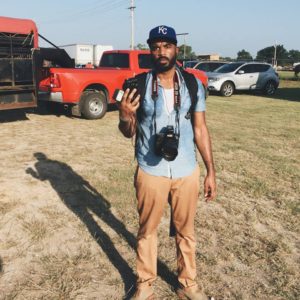
(Photo credit: The Black Cowboy)
Ivan McClellan is a professional photographer and the creator of the Eight Seconds Project, a storytelling project with the goal of extending the cowboy icon to include people of color. Ivan started the project back in 2015, after a series of chance encounters led him to an all-black rodeo in Oklahoma. Over the course of photographing the event, he became enamored with the black cowboy way of life and obsessed with documenting this unique subculture. In the years since, the Eight Seconds Project has garnered the attention of iconic western brands such as Stetson and Wrangler, and Ivan's work has helped to tell the story of black cowboys to a nationwide, mainstream audience.
A Kansas City native, Ivan grew up in a tough neighborhood were gangs and violence were the norm. Just after high school, he headed east to New York City, where he studied and worked in the arts for many years. A career transition into the advertising business led him to Portland, where he currently lives with his wife and two children. Ivan juggles many commitments—family, a career in advertising, and his photography projects—but through hard work, mindfulness, and obsession, he somehow manages to keep all the balls in the air and continues to evolve as an artist and storyteller.
Ivan and I connected via the internet for a wide-ranging and enlightening conversation. We started out talking about the genesis of the Eight Seconds Project and how a random conversation at a party started the entire project. We talk about Black Cowboy culture, how he came to learn about the community's deep roots and its ties to the history of the United States and the West. Ivan shares some thoughts on the importance of having creative control over projects, and how hard work, year after year, allowed him to find his true voice as a storyteller. We also chat about mindfulness and how mindfulness practice has improved Ivan's life and creative output. As usual, we discuss favorite books, films, and Ivan offers some timely words of wisdom.
I loved this conversation, and I felt like it got better and better with each minute. Be sure to check out the episode notes for all of the subjects we covered and links to everything discussed. Hope you enjoy!
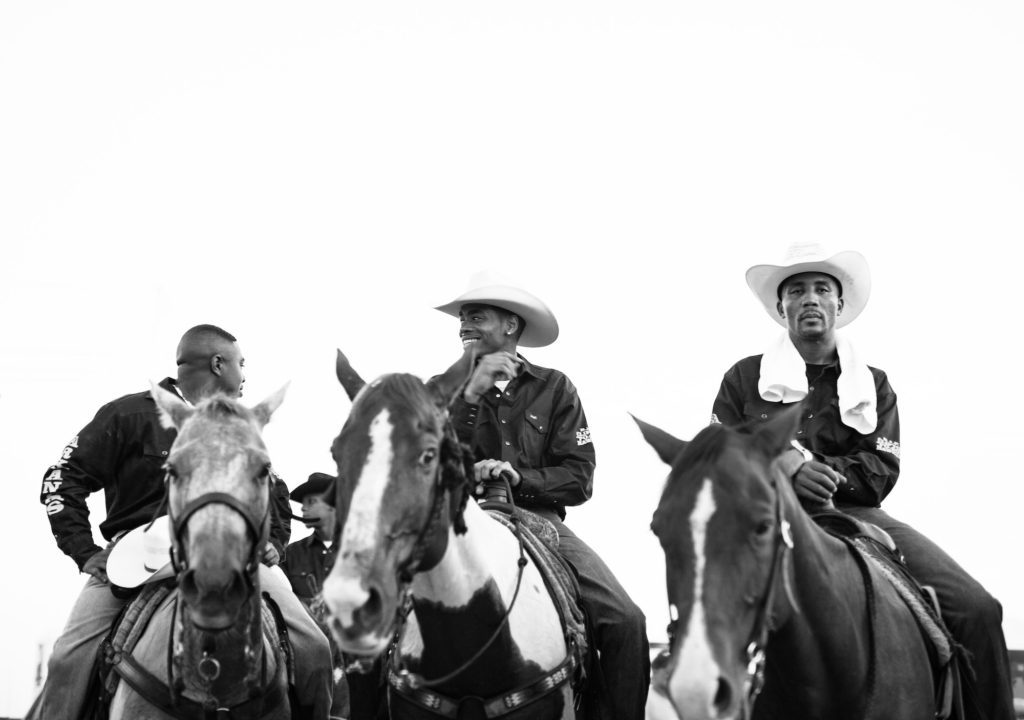
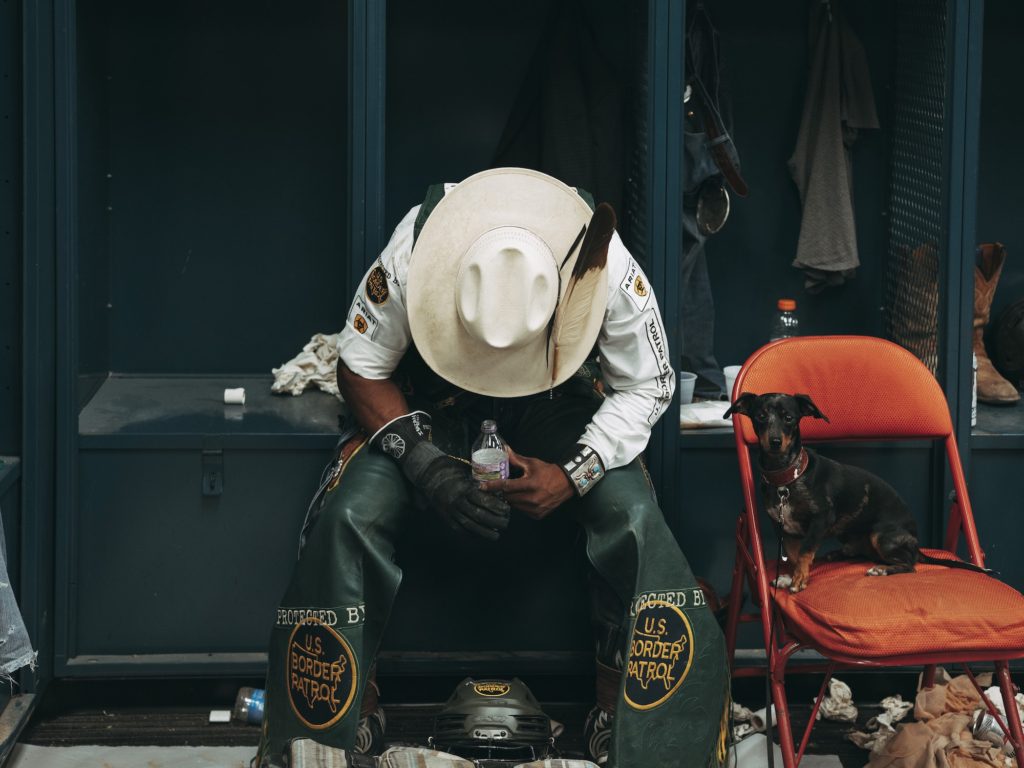

Rodeo photos by Ivan McClennan; photos of Ivan courtesy of The Black Cowboy
Download on Apple Podcasts
---
Download on Spotify
---
Download on Google Podcasts
---
Download on Stitcher
--
EPISODE NOTES
Topics Discussed:
- 4:30 - Background of the Eight Second Project
- 7:00 - Ivan’s first black rodeo in Oklahoma
- 9:30 - Publishing his first black rodeo images
- 11:00 - Working with big brands
- 15:00 - Ivan’s decision to self-fund the Eight Seconds Project
- 16:30 - Treating photography as sacred
- 18:30 - The long road toward creative freedom
- 23:00 - Ability to pivot into other creative niches
- 25:00 - Process of becoming a pro photographer
- 27:30 - Ivan describes his work and process
- 32:00 - History of Black Rodeo in Oklahoma
- 35:00 - Why more black riders aren’t in the PBR
- 39:00 - Shifting into a more equitable “new normal” in rodeo
- 41:00 - Dealing with the frustration of shifting perspectives
- 43:30 - Growing up in Kansas City
- 45:00 - Discovering the need for mindfulness
- 47:30 - Family’s role in mindfulness
- 49:00 - Details on Ivan’s meditation practice
- 52:00 - Mindfulness’s effects on Ivan’s creativity
- 56:00 - Lessons learned from rodeo riders
- 59:00 - Favorite books
- 1:00:30 - Favorite films
- 1:02:30 - Craziest thing Ivan’s every seen at a rodeo
- 1:04:30 - Parting words of wisdom
Information Referenced:
- Ivan on Instagram
- Eight Seconds Project
- Ivan's Stetson story
- Stetson
- Bill Cunningham
- Bill Cunningham documentary
- Professional Bull Riding (PBR)
- Heath Herring
- Sticky Haynes
- Bill Pickett
- Death Magick Abundance by Akasha Rabut
- Unforgiven
- Bull
- Ezekiel Mitchell
- Keyshawn Whitehorse
Enjoy this episode? Then you might like these as well:
- Gabe Vasquez – Advocate for Equity in the Outdoors
- Daniela Ibarra-Howell – Healing the Land Holistically
- Duke Phillips IV – Living with the Land
- Sara Dant – A Deep Dive Into the History of the West
- Logan Maxwell Hagege – Artistic Evolution
- Pete McBride – A Passion for Water & Wild Places
- Mark Maggiori – A Fresh View of the American West

Gabe Vasquez is the founder of the Nuestra Tierra Conservation Project and currently serves as a city councilor in Las Cruces, New Mexico. Gabe has devoted his entire career to advocacy and conservation, specifically for the people and places in the border region of New Mexico. He's worked for Senator Martin Heinrich, the New Mexico Wildlife Federation, and recently drafted New Mexico's Outdoor Equity Fund legislation, which was the first of its kind in the nation.
Growing up in Ciudad Juarez, Mexico, Gabe developed a childhood passion for the outdoors while fishing with his father and learning about hunting from his grandfather. The outdoors has remained a focal point of his life, both professionally and personally, whether advising lawmakers on federal land policies or hunting, fishing, and hiking in the Coronado National Forest. But most importantly, Gabe has made it his mission to ensure that people of all socio-economic backgrounds and races can enjoy the outdoors, and hopefully, become advocates for protecting our country's wild places.
Gabe was scheduled to be a keynote speaker at Colorado Parks and Wildlife's Partners in the Outdoors Conference, a popular gathering of some of the country's foremost experts in conservation and recreation. But because of the COVID pandemic, the in-person conference was converted into a virtual conference. And instead of an on-stage keynote, Gabe is now appearing on this podcast with me! As you'll hear, Gabe's message of balancing conservation and recreation, while ensuring equitable access to the outdoors, is a perfect fit with the conference's theme of cultivating common ground to ensure a sustainable future for Colorado's outdoors.
This was a fascinating interview, and I left the conversation better informed and inspired by Gabe's leadership and vision. We started out chatting about the formation of the Nuestra Tierra Conservation Project and talking about the history and mission of the organization. Gabe then discussed lessons learned from his time working with Senator Heinrich, and how a brief stint living and working in Washington DC solidified his love for the West. We discuss New Mexico's Outdoor Equity Fund, and how he played a significant role in creating this historic and cutting-edge, public-private program. We talk in-depth about the importance of getting kids into the outdoors, and the idea of how people need to fall in love with the outdoors before they can advocate for it. And as usual, we discuss favorite books, his favorite place in the West, and Gave offers some timely words of wisdom.
A huge thanks to Gabe for taking the time to chat, and thank you to Colorado Parks and Wildlife for inviting me to be a part of its virtual conference. Visit the episode notes for links to everything we discuss, including the full conference schedule, which will give you access to all presentations from the virtual conference. There's a ton of exciting and informative content. But in the meantime, enjoy this conversation with Gabe Vasquez.
Photos courtesy of Gabe Vasquez
Download on Apple Podcasts
---
Download on Spotify
---
Download on Google Podcasts
---
Download on Stitcher
--
EPISODE NOTES
Topics Discussed:
- 4:00 - Gabe’s family connection to the outdoors
- 6:00 - Early job with Senator Heinrich
- 8:30 - Moving to Washington DC
- 11:30 - Back out West, working for the NWF
- 14:00 - Formation of Nuestra Tierra
- 19:00 - Why Gabe chose a service-based career
- 24:00 - Lessoned learned from working with Senator Martin Heinrich
- 30:15 - New Mexico’s Outdoor Equity Fund, explained
- 37:00 - What Outdoor Equity Fund funds
- 32:30 - Alternative funding sources for recreation
- 44:00 - Other states’ response to the Outdoor Equity Fund
- 47:00 - Thoughts on privilege and the outdoors
- 51:00 - Creating new generations of conservationists
- 54:00 - Gabe’s role as a City Councilor
- 1:04:00 - Favorite books
- 1:10:00 - Favorite place in New Mexico
- 1:14:00 - Parting words of wisdom
Information Referenced:
- Partners in the Outdoors Conference
- Nuestra Tierra Conservation Project
- Las Cruces, New Mexico
- Senator Martin Heinrich
- Organ Mountain Desert Peaks National Monument
- Antiquities Act
- Reverend Andrew Black
- New Mexico Wildlife Federation
- Hal Herring episode
- Gabe’s episode on Hal Herring’s podcast
- Rep. Angelica Rubio
- Michelle Lujan Grisham
- The Outsiders by SE Hinton
- Frankenstein by Mary Shelley
- The Time Machine by HG Wells
- The Call of the Wild by Jack London
- In-Fisherman
- Field and Stream
- Bill Dance
- There There by Tommy Orange
- Coronado National Forest
- The River and the Wall
- Jay Kleberg episode
Enjoy this episode? Then you might like these as well:
- Hal Herring – A Man of Words & Wild Places
- Mark Kenyon – A Passion for Public Lands
- Juanita Vero – A Deep Love of Place
- Dan Prenzlow – Generous Service, Humble Leadership
- Rachel VandeVoort – Harnessing the Power of Outdoor Recreation
Chris La Tray is a writer, poet, and musician, as well as the author of the award-winning book One Sentence Journal: Short Poems and Essays from the World at Large. Chris is also an enrolled member of the Little Shell Tribe—a Native American tribe that was just recently recognized by the United States government, and prior to the recognition was known as the "landless Indians of Montana." Chris's immense talents as a storyteller combined with his unique personal perspective allow him to offer a fresh approach to understanding the complexities of the modern-day American West.
Chris was born and raised in Frenchtown, Montana, a small blue-collar community located just west of Missoula. Growing up with a deep passion for music, Chris headed to Seattle soon after high school to pursue a career as a professional rock musician, but he eventually made his way back to Frenchtown, where he worked for years in the manufacturing industry. But in 2015, following the death of his father, Chris quit his manufacturing consulting job and went all-in on pursuing his dream of being a full-time storyteller. A few years later, he published One Sentence Journal and has been widely recognized as one of the West's most unique up-and-coming authors.
Chris and I had an interesting and timely conversation about his career, his life as a writer and musician, and his family's heritage as members of the Little Shell Tribe. We start out by discussing the genesis of his idea for "One Sentence Journal," how writing the book has changed his life, and a few stories from his many years as a professional musician. Then, we talk in-depth about the long-overdue federal recognition of his tribe and his thoughts on how the tribe can move forward. We also discuss how the long-term treatment of his tribe gives Chris unique insights into the current national discussions around race and privilege here in the United States. Chris also offers up a long list of excellent books on a wide variety of subjects related to the West and Native Americans that I know you will all find useful. Links to everything are in the episode notes.
Thanks to Chris for taking the time to chat, and I encourage you to check out One Sentence Journal. But in the meantime, enjoy this conversation with Chris La Tray.
Photo courtesy of Chris La Tray
Download on Apple Podcasts
---
Download on Spotify
---
Download on Google Podcasts
---
Download on Stitcher
--
EPISODE NOTES
Topics Discussed:
- 6:30 - Influence of Jim Harrison
- 8:40 - Writing practice that led to “One Sentence Journal”
- 11:30 - The amazing community of Montana writers
- 14:30 - The “practice” of creative output
- 16:30 - Decision to leave his manufacturing job
- 19:30 - Early years in Montana and beyond
- 21:30 - Music’s role in Chris’s life
- 24:00 - Becoming a “musician”
- 25:30 - Reading/writing vs music
- 27:00 - Chris’s Little Shell Tribe heritage
- 32:30 - Emotional impact of learning family’s history
- 35:15 - Thoughts on the Little Shell’s federal recognition
- 38:30 - Ideas for the future of the Little Shell Tribe
- 40:00 - Specifics of federal recognition
- 44:00 - How to read to expand knowledge and eliminate blind spots
- 46:30 - Hope for the future?
- 54:00 - Fact and Fiction Bookstore
- 59:00 - Favorite books
- 1:03:30 - Favorite location in the West
- 1:05:30 - Parting words of wisdom
Information Referenced:
- Chris La Tray
- Chris's email newsletter
- One Sentence Journal by Chris La Tray
- In Search of Small Gods by Jim Harrison
- Returning to Earth by Jim Harrison
- Braided Creek by Jim Harrison
- Frenchtown, MT
- Little Shell Tribe
- “Landless Indians of Montana”
- Métis
- The Heartbeat of Wounded Knee by David Troyer
- Indigenous Peoples’ History of the United States by Roxanne Dunbar-Ortiz
- James Lee Burke
- David Sedaris
- Ellen Meloy
- Anna Maria Spana
- Amy Irvine
- Craig Childs
- Robert Sund
- Heather Durham
- Jim Welch
- Richard Wagamese
- Joy Harjo
- Council Grove
SPECIAL OFFER FOR M&P LISTENERS!
Freeflow Institute is a Montana-based organization focused on re-wilding the creative spirit, connecting people to places, and preserving wild spaces. Freeflow eliminates the barrier between your ideas and your environment by bringing emerging and established writers, leaders, artists, and communicators together into wild landscapes.
On a Freeflow course you can expect to gain perspective and identify new tools to help you be effective in your creative work and build creative community. You can also take Freeflow courses for college credit and infuse your academic career with outdoor learning.
The line-up of Freeflow instructors includes many guests of the Mountain & Prairie Podcast, including Alexis Bonogofsky, Hal Herring, Brendan Leonard, and today's guest, Chris La Tray. This summer, Freeflow is adapting their programming to meet the challenges of the current moment, and I want to share two specific opportunities with you now.
Starting on July 1, join a small cohort of writers and artists of all backgrounds for a unique, online, five-week Community Workshop Series, the theme of which is SHIFT. SHIFT is meant to empower you to find your voice amid the chaos and tackle the question of how we use our art and words to catalyze positive change, while exploring the natural world closest to and within you. Guest speakers will include Pam Houston, Amy Irvine, and Craig Childs, among others. Scholarships are available, and there are only a few spaces left.
Then, in September, join Pulitzer Prize finalist William DeBuys on a five-day writing workshop on the Green River's Gates of Lodore, where you'll spend days floating between canyon walls, analyzing the concept of change in literature, climate, and life, and writing.
Find out more about all of Freeflow Institute's programs by visiting their website: www.freeflowinstitute.com or shoot them an email at info@freeflowinstitute.com
The first ten Mountain & Prairie listeners who register for SHIFT or the Gates of Lodore Workshop will get $150 off their tuition! Just mention the Podcast when you register.
Enjoy this episode? Then you might like these as well:
- Len Necefer – Indigenous Advocate
- Chris Dombrowski – Words, Water & the West
- Taylor Keen – Tribal Truth Seeker
- Juanita Vero – A Deep Love of Place
- Alexis Bonogofsky – Taking a Stand for the West
Rachel VandeVoort is the Director of the Montana Office of Outdoor Recreation, an office that advocates for the outdoor recreation industry and works to leverage its numerous benefits to the state. The office was created in 2016 by Montana Governor Steve Bullock, and he tapped Rachel to be its first director, where she built the office from the ground up. Since then, the office has experienced amazing growth in influence and effectiveness, and it has served as a shining example for other states that have formed similar offices.
A native Montanan, Rachel has a diverse background that makes her uniquely qualified for her role as Director. She grew up working for her family's river guiding business in and around Whitefish, MT and also spent time as a fishing guide. After graduating from the University of Montana, she worked in a wide variety of industries that are closely connected with land and recreation, including organic farming, skiing, and firearms manufacturing. Thanks to her diverse and deep experience in all facets of the outdoor world, Rachel has had great success finding common ground between sometimes-competing stakeholders to harness the collective power of Montana's recreation industry.
Rachel was slated to be a keynote speaker at Colorado Parks and Wildlife's Partners in the Outdoors Conference, an annual gathering that brings together stakeholders from all corners of the conservation and outdoor recreation industries. But because of the COVID pandemic, the in-person conference was transformed into a virtual conference—and Rachel's keynote speech was transformed into this episode of Mountain & Prairie. I was thrilled to have the chance to speak with Rachel because her work aligns so well with the theme of the Partners in the Outdoors Conference, specifically, how do we find common ground and mutually beneficial solutions for balancing conservation and recreation.
We covered a lot in a little over an hour, including the history of her job and the office, the staggering positive economic impacts of the outdoor industry, and ideas around funding conservation through recreation now and into the future. We also talked a lot about Rachel's eclectic background and how all of her varied experiences make her uniquely qualified for her position. Rachel shares some thoughts on finding common ground among competing stakeholders, the importance of understanding history in the West, and the collaborative nature of the outdoor recreation industry. Be sure the check out the episode notes for a full list of topics discussed.
Big thanks to Rachel for taking the time to chat and to Colorado Parks and Wildlife for partnering with Mountain & Prairie for this series of podcasts. If you have a chance, visit the Partners in the Outdoors website all of the conference content—there's quite a line up of virtual courses and learning opportunities. But in the meantime, enjoy this educational episode with Rachel VandeVoort.
Photos courtesy of Rachel VandeVoort
Download on Apple Podcasts
---
Download on Spotify
---
Download on Google Podcasts
---
Download on Stitcher
--
EPISODE NOTES
Topics Discussed:
- 3:45 - Montana Office of Outdoor Recreation explained
- 7:45 - Massive economic impacts of outdoor recreation
- 10:00 - Economic impacts in Montana specifically
- 11:30 - Process of creating the office for Montana
- 12:45 - Outdoor infrastructure in Montana
- 15:15 - The positivity of the recreational economy
- 17:45 - Learning from other states' outdoor rec offices
- 18:45 - How Montana's rec office differs from Colorado's
- 20:45 - Rachel's eclectic background
- 22:45 - Desire to stay in Montana
- 26:00 - First job in organic food
- 29:30 - Starting her job in the firearms industry
- 34:00 - Communication lessons learned from a childhood in recreation
- 37:15 - Techniques for finding common ground between competing stakeholders
- 39:45 - The false premise of "consumptive" vs "non-consumptive" recreation
- 46:45 - Thoughts on Pittman-Robertson, Dingell-Johnson, and the future of conservation funding
- 54:45 - Collaboration between outdoor rec stakeholders
- 59:35 - Favorite books
- 1:01:00 - Favorite films
- 1:02:45 - Rachel's family history in Montana
- 1:03:45 - Parting words of wisdom
Information Referenced:
- Montana Office Outdoor Recreation
- Colorado Parks and Wildlife
- Partners in the Outdoors Conference
- Governor Steve Bullock
- Statewide Comprehensive Outdoor Recreation Plan
- Wild and Scenic Flathead River
- University of Montana
- Whitefish Mountain Resort
- Kimber Manufacturing
- Hal Herring podcast episode
- Theodore Roosevelt
- Gifford Pinchot
- Pittman Robertson Act
- Sierra Club
- North American Model of Conservation
- Mark Kenyon episode
- That Wild Country by Mark Kenyon
- Self Reliance by Ralph Waldo Emerson
- The Big Burn by Timothy Egan
- A River Runs Through It
Enjoy this episode? Then you might like these as well:
- Dan Prenzlow – Generous Service, Humble Leadership
- Rebecca Jewett, Part 2 – Conservation’s Role During Challenging Times
- Daniela Ibarra-Howell – Healing the Land Holistically
- Kate Kavanaugh – Regeneration & Restoration
- Alexis Bonogofsky – Taking a Stand for the West
- Sara Dant – A Deep Dive Into the History of the West
- Juanita Vero – A Deep Love of Place
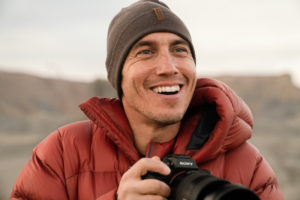
Chris Burkard is a world-renowned photographer, filmmaker, and storyteller whose work captures the beauty and rawness of some of the earth's wildest places. Whether documenting iconic climbs in Yosemite or frigid surf trips deep in the Arctic Circle, Chris has established himself as a committed artist who is willing to suffer extensively to get the perfect shot. And because of his love and respect for these wild places, Chris is also a committed conservationist, using his artistic skills to showcase the importance of endangered places and effect positive policy changes.
Born and raised on the Central Coast of California, Chris spent much of his youth exploring the mountains and coastline of his home state. During high school, he fell in love with photography and eventually left college to pursue it as a full-time career. After several years of working to establish himself in the business, Chris’s commitment and hard work paid off—he’s now one of the most sought after photographers for a wide range of clients, from corporations like Apple to independent publications such as Surfers Journal or Modern Huntsman. Chris’s career is a testament to the power of hard work, positivity, boundless energy, and laser-like focus.
I’ve been a fan of Chris’s for years, so it was a real pleasure to have the chance to chat with him. We both took a break from our respective quarantines and kid-wrangling duties to meet up via Skype for a fun and wide-ranging conversation. The specifics of Chris’s photography career have been documented extensively in audio and print, so I wanted to learn more about what makes Chris tick—why he chooses to suffer in dangerous environments, how he and his wife engrain grit in their two sons, and how he manages to muster positivity during tough times. We also talked a lot about his commitment to conservation, as well as his commitment to working with smaller, independent outdoor publications. And as usual, we discuss favorite books, places in the West, and Chris offers some timely words of wisdom. Links to everything are in the episode notes.
A huge thanks to Chris for taking the time to chat during such a crazy time. I hope you all enjoy this conversation—it’s a much-need burst of energy and optimism during this challenging time!
Photos courtesy of Chris Burkard
Download on Apple Podcasts
---
Download on Spotify
---
Download on Google Podcasts
---
Download on Stitcher
--
EPISODE NOTES
Topics Discussed:
- 3:30 - “Pain is a shortcut to mindfulness”
- 7:15 - The process of learning to appreciate pain
- 10:00 - Growing up in California
- 14:00- When photography entered Chris’s life
- 16:00 - Deciding to leave school to pursue photography
- 18:30 - Choosing to be positive
- 22:30 - Thoughts on cultivating grit in children
- 25:00 - Striving to live up to one’s full potential
- 27:15 - Outdoor adventure as a parenting tool
- 29:30 - Re-evaluating risk as a parent
- 36:00 - Training for mental stress
- 37:30- Ultra-endurance bike riding
- 42:00 - Meditation training
- 43:00 - Dealing with the stress of COVID-19
- 46:30 - Work in the conservation world
- 53:45 - Commitment to working with smaller outdoor publications
- 58:30 - Favorite books
- 1:02:30 - Favorite places in the West
- 1:04:45 - Parting words of wisdom
Information Referenced:
- Chris Burkard
- Chris on Instagram
- Chris's books
- Chris’s TED talk
- SURFER Magazine
- Big Sur
- Yosemite
- Zion
- Grit by Angela Duckworth
- Under An Arctic Sky film
- Yvon Chouinard
- Surfers Journal
- Modern Huntsman
- Adventure Journal
- The Boy Who Spoke to the Earth by Chris Burkard
- The Emerald Mile by Kevin Fedarko
- Edward Abbey
- Essentialism by Greg McKeown
- Ansel Adam: An Autobiography by Ansel Adams
- Chris’s interview with Chase Jarvis
- Creative Calling by Chase Jarvis
- Bears Ears
- Valley of the Gods
- Canyonlands
- Paul Nicklen
Enjoy this episode? Then you might like these as well:
- Pete McBride – A Passion for Water & Wild Places
- Hampton Sides – Live at the Aspen Institute
- Brendan Leonard – Grinding It Out
- Jessica Lewis – Doing More With Less
- Heather Hansman – Demystifying Water in the West
- Peter Heller – Chasing the Flow
Dan Prenzlow is the Director of Colorado Parks and Wildlife (CPW), the agency charged with managing wildlife, lands, natural resources, and outdoor recreation throughout the great state of Colorado. Dan started with the agency back in 1986 as a District Wildlife Manager and steadily worked his way through the ranks, assuming the role of Director in the spring of 2019. Born and raised in Colorado, Dan has had a lifelong love of recreating in the state's open spaces and wild places, and he has devoted his entire career toward protecting and managing them for the benefit of present and future generations.
Dan and I were scheduled to meet at CPW's annual Partners in the Outdoors Conference, an extremely popular gathering that brings together stakeholders from all corners of the conservation and outdoor recreation sectors. The conference has become the foremost opportunity for organizations, businesses, agencies, universities, and more to come together to find common ground and mutually beneficial solutions for balancing conservation and recreation here in Colorado. Unfortunately, the COVID-19 pandemic made the in-person conference impossible, but thankfully the amazing team at CPW was able to move the conference online, and this podcast is a part of the new virtual conference.
If you love spending time outdoors, whether here in Colorado or anywhere else, I know you'll glean lots of valuable information from this conversation. Dan and I spend the first half of the conversation discussing some of the specifics around CPW—the organization's history, the success of the Partners in the Outdoors Conference, CPW's important role in private land conservation, and CPW's role as a national leader in balancing conservation and recreation. During the second half of the conversation, we discuss Dan's personal backstory—why he decided to pursue public service as a career, his family's long history of service-minded work, and how he worked his way up to the role of Director. Dan also shares many valuable leadership lessons, including the importance of humility, empathy, and surrounding yourself with a strong team.
As usual, there is a ton of valuable information in this episode, so I encourage you to check out the episode notes for a full list of the topics we discussed and links to all of the information we reference. And if you’d like more information about how you can participate in Partners in the Outdoors Virtual Conference, that link is in the episode notes as well.
Thanks to Dan and his team at CPW for all of their important work. I hope you enjoy this conversation as much as I did!

Photos courtesy of Colorado Parks and Wildlife
Download on Apple Podcasts
---
Download on Spotify
---
Download on Google Play
---
Download on Stitcher
--
EPISODE NOTES
Topics Discussed:
- 3:30 - Colorado Parks and Wildlife (“CPW”) described
- 6:50 - CPW’s "Partners in the Outdoors” program
- 11:45 - Colorado’s population boom and its impact on CPW’s work
- 16:00 - CPW as a trusted conservation partner
- 21:30 - CPW’s “Ranching for Wildlife” program
- 26:30 - Partnership successes that can result from adversity
- 28:00 - CPW as a national leader in conservation and recreation
- 22:30 - Dan’s personal journey to CPW
- 37:30 - The importance of service for Dan and his family
- 40:30 - Leadership lessons gleaned from rising through the ranks at CPW
- 45:30 - What characteristics Dan looks for in employees
- 50:45 - Techniques for finding common ground between competing stakeholders
- 57:00 - Favorite books
- 58:50 - Favorite location in Colorado
Information Referenced:
- Director Dan Prenzlow
- Colorado Parks and Wildlife
- 2020 Partners in the Outdoors Virtual Conference
- CPW on Instagram
- Colorado State Parks
- Colorado Fishing
- Colorado Hunting
- Colorado population projection article
- CPW’s Wildlife Habitat Program
- Great Outdoors Colorado (“GOCO”)
- Ranching for Wildlife
- Forbes Trinchera Ranch
- Colorado State University
- Meeker, Colorado
- CPW Internship program
- Coach Bill McCartney - CU Football
- Holy Bible
- Your First 100 Days in a New Executive Job by Robert Hargrove
- Palmer Land Trust
Enjoy this episode? Then you might like these as well:
- Rebecca Jewett, Part 2 – Conservation’s Role During Challenging Times
- Hal Herring – A Man of Words & Wild Places
- Mark Kenyon – A Passion for Public Lands
- Duke Phillips IV – Living with the Land
- Alexis Bonogofsky – Taking a Stand for the West
- Pete McBride – A Passion for Water & Wild Places
- Adam Foss – Lessons Learned From a Life Afield
- Bryce Andrews – People, Predators, and the American West
- Sara Dant – A Deep Dive Into the History of the West

Callan Wink is a writer, novelist, fishing guide, and surfer who currently splits his time between Livingston, Montana and Santa Cruz, California. He’s the author of the newly released novel August, as well as the highly regarded short story collection Dog Run Moon, books that I recently read and thoroughly enjoyed. Callan’s writing speaks for itself, but if you’re looking for credentials, he’s got those too—he’s been published in The New Yorker, Men’s Journal, The Best American Short Stories Anthology, and more. He’s also been awarded fellowships by the National Endowment for the Arts and Stanford University, where he was a Wallace Stegner Fellow.
A native of Michigan, Callan moved west soon after high school, where he began guiding on some of Montana’s most renowned rivers. In the ensuing years, writing became more and more of a focus, and eventually, he published Dog Run Moon. Currently, Callan writes seasonally—he guides in Montana during the warm months, then moves to California during the winter, where he focuses exclusively on writing, with surfing filling the remainder of his non-writing time.
Callan and I connected via the internet from our respective quarantines and had a fun conversation about fishing, writing, reading, creativity, and more. We started out talking about his upbringing in Michigan and how fishing eventually led him to build a life in the West. We discuss the pros and cons of his seasonal approach to writing, and how working as a fishing guide helps to fuel his writing career. We talk about the importance of being a keen observer of people, and we also discuss where and how he finds inspiration for his characters. We also talk about his friendship with the legendary author Jim Harrison, and how that relationship has positively affected his life and work.
I encourage you to check out August and Dog Run Moon—I think you’ll enjoy them both. But in the meantime, enjoy this wide-ranging conversation with Callan Wink.
Photo courtesy of Callan Wink
Download on Apple Podcasts
---
Download on Spotify
---
Download on Google Play
---
Download on Stitcher
--
EPISODE NOTES
Topics Discussed:
- 6:30 - Heading to Montana to fish
- 10:30 - Childhood obsession with reading
- 12:30 - Progress toward becoming a professional writer
- 18:30 - Lessons learned from grad school
- 21:00 - Balancing writing and fishing
- 23:30 - Gathering material for characters
- 30:15 - Callan's writing routine
- 33:30 - How an idea becomes a short story or novel
- 37:00 - How the novel August evolved from a short story
- 39:30 - Outlining versus organic growth of a story
- 43:00 - Jim Harrison’s influence
- 45:45 - Poetry Recommendations
- 51:00 - Callan’s current reading habits
- 54:00 - Advice for aspiring writers
- 58:30 - Favorite books
- 1:00:30 - The magic of Road House
- 1:01:30 - Favorite location in the West
- 1:04:00 - Best advice ever received
Information Referenced:
- Callan Wink
- Callan on Instagram
- August: A Novel by Callan Wink
- Dog Run Moon by Callan Wink
- Beth Loffreda
- Brad Watson
- Joy Williams
- Jim Harrison
- Dead Man’s Float by Jim Harrison
- Michael Earl Craig
- Tap Out by Edgar Kunz
- Breath by Tim Winton
- The Shepard's Hut by Tim Winton
- Stegner Fellowship at Stanford
- Blood Meridian by Corman McCarthy
- Housekeeping by Marilynne Robinson
- Angle of Repose by Wallace Stegner
- Rock Springs by Richard Ford
- Road House
- Yellowstone River
Enjoy this episode? Then you might like these as well:
- Chris Dombrowski – Words, Water & the West
- Peter Heller – Chasing the Flow
- David Gessner, Part 2 – Ambition, Art, and Arête
- Hampton Sides, Part 2 – How to Tell a Damn Good Story
- Heather Hansman – Demystifying Water in the West
- Emilene Ostlind – Storytelling for the New West
- Mark Kenyon – A Passion for Public Lands


Rebecca Jewett is President and CEO of Palmer Land Trust, a conservation organization that works to conserve land and water resources in southeastern Colorado. Palmer Land Trust is one of the twenty largest land trusts in the nation based on acreage conserved, with over 135,000 acres of land protected in perpetuity. Rebecca has led the organization since 2014, expanding and diversifying its conservation initiatives and building Palmer into a national force in the land conservation sector.
If Rebecca and Palmer Land Trust sound familiar, it’s because this is Rebecca’s second time on the podcast and I work at Palmer as a Conservation Director. In the midst of this unprecedented COVID crisis, I thought it would be timely to have Rebecca join me again, this time to discuss how the crisis is affecting conservation and how she sees conservation evolving in its aftermath. Once the all-important work of the first responders has been completed, what role will the conservation of working farms and ranches, as well as public recreational open space, play in our recovery and rebuilding? For those of you who love land and the communities tied to it, this is a must-listen conversation.
And if you’re like me and often feel completely overwhelmed with COVID talk, rest assured that this conversation is upbeat and solution-oriented. I imagine you will finish the discussion inspired by the opportunities that our new future holds—and inspiration is something that we can all use more of these days. Rebecca and I cover a lot, including the importance of farming and ranching during this crisis and the role that Palmer plays in supporting agricultural producers. We talk about the need to focus on community building and strong partnerships, as well as the conservation opportunities that could arise post-COVID. Finally, we discuss leadership lessons and how the birth of her daughter has made her a better leader.
Obviously, I’m a big fan of Rebecca’s. And I’m sure that after this conversation, you will be, too. Hope you enjoy!.
Photos courtesy of Rebecca Jewett
Download on Apple Podcasts
---
Download on Spotify
---
Download on Google Play
---
Download on Stitcher
---
EPISODE NOTES
Topics Discussed:
- 3:45 - Palmer Land Trust explained
- 6:15 - Land conservation and COVID-19
- 9:00 - Community as a focus of conservation
- 13:45 - Importance of agriculture in the face of COVID
- 18:45 - Win-Win-Wins that are possible in conservation
- 21:15 - How a diversified “business model” will allow effective conservation post-COVID
- 26:30 - Importance of strong partnerships during COVID
- 30:35 - Importance of storytelling in conservation
- 35:45 - How conservation will evolve in the coming years
- 40:45 - Thoughts on leadership during challenging times
- 47:45 - How motherhood has changed her perspective, professionally and personally
- 53:45 - Importance of optimism in parenting and life
- 56:15 - Good books on parenting
- 57:45 - Other good books
- 58:45 - Favorite podcasts
- 1:00:45 - Parting words of wisdom
Information Referenced:
- Rebecca Jewett - first podcast episode
- Palmer Land Trust
- Conservation easements explained
- Gates Family Foundation
- Great Outdoors Colorado (“GOCO”)
- Russ Schnitzer podcast episode
- Seth Godin
- This is Marketing by Seth Godin
- Hampton Sides
- Hampton Sides M&P episodes One and Two
- Bringing Up Bebe by Pamela Druckerman
- Happiest Baby on the Block by Harvey Karp
- Ed’s book recommendations
- Dare to Lead by Brene Brown
- Marketplace
- Make Me Smart
- The Daily
- Fresh Air
- The Moth
- Chronicle of Higher Ed article referenced
Enjoy this episode? Then you might like these as well:
- Daniela Ibarra-Howell – Healing the Land Holistically
- Sarah Wentzel-Fisher – Conservation in the Radical Center
- Alexis Bonogofsky – Taking a Stand for the West
- Sara Dant – A Deep Dive Into the History of the West
- Emilene Ostlind – Storytelling for the New West
- Live in Bozeman – Cate Havstad, Jillian Lukiwski, Becca Skinner & Juanita Vero

George Hodgin is the founder and CEO of Biopharmaceutical Research Company (BRC), a California-based business with the mission of providing federally legal cannabis for approved researchers in the United States. Prior to starting BRC, George served as a US Navy SEAL officer, leading counterterrorism operations in combat zones such as Afghanistan. And to top it all off, he’s a graduate of the Stanford University Graduate School of Business and the University of North Carolina, where he was a Morehead-Cain Scholar. With a resume like this, it’s safe to assume that George is a driven, hard-working guy.
From a very young age, George knew he wanted to be a Navy SEAL. So after participating in ROTC during his undergraduate years, he began the Navy SEAL training, also known as BUD/S, immediately after graduation. After nearly seven years in the SEAL teams, George left the military to pursue his MBA at Stanford. During grad school, while helping one of his SEAL teammates seek treatment for combat injuries, George was shocked by the inability of doctors to advise patients on the use of marijuana for therapeutic, healing purposes. Despite being legal in many states, it is still illegal at the federal level, and therefore unable to be studied by federally approved researchers and doctors. George and his company seek to change this status-quo so that cannabis can be better understood and more widely prescribed as an alternative to opioids and other drugs.
The state-legal marijuana business has its roots in the American West, so I’ve wanted to speak with a cannabis entrepreneur for some time now. George offers excellent insights into the industry, discussing the challenges, governmental roadblocks, and opportunities for optimistic, innovative entrepreneurs. We also talk about why he decided to become an entrepreneur, and why he has consistently chosen some of the most challenging careers imaginable. We talk a lot about his service in the Navy, including the common traits of SEALs, the lessons learned from service, and the challenges of transitioning from the military into civilian life. Since we recorded this episode a few weeks into the Coronavirus crisis, he offers some hard-earned wisdom on how best to deal with high-stress, potentially dangerous situations like the one we all find ourselves in now.
George and I were supposed to record this episode in person, but the Coronavirus had other plans. But we still made it happen-- each of us holed up in our homes and connected via Zoom-- so I hope this episode offers some entertainment and motivation during this challenging time. Thanks for listening.
Photos courtesy of George Hodgin
Click Here to Download on iTunes
---
Click Here to Download on Spotify
---
Click Here to Download on Google Play
---
Click Here to Download on Stitcher
---
EPISODE NOTES
Topics Discussed:
- 4:00 - BRC explained
- 7:00 - Genesis of the idea for BRC
- 10:15 - Decision to be an entrepreneur
- 13:00 - Complexity of the cannabis business
- 16:00 - What fuels his passion for BRC
- 18:00 - Early years in NC
- 21:30 - Morehead-Cain Scholarship explained
- 24:00 - Early desire to be a SEAL
- 26:00 - Path from college to BUD/S
- 31:30 - Common trait of successful SEALs
- 34:30 - Transition from the Navy to civilian life
- 38:00 - Finding purpose outside of the SEALs
- 43:00 - Military lessons applied to business
- 47:30 - Main business challenge facing BRC
- 53:30 - Thoughts on the Coronavirus
- 57:45 - Favorite books
- 1:00:00 - Favorite Films
Information Referenced:
- Biopharmaceutical Research Company (BRC)
- Navy SEALs
- Stanford Graduate School of Business
- Morehead-Cain Scholarship
- National Outdoor Leadership School
- Navy SEALS movie clip
- BUD/S
- Navy SEAL Foundation
- “Commander’s Intent”
- Good to Great by Jim Collins
- The Cruelest Miles Gay Salisbury
- Washington’s Farewell by John Avalon
- Man’s Search for Meaning by Victor Frankl
- Daniel Day-Lewis
- Lincoln
- Gangs of New York
- Becoming Warren Buffett
Enjoy this episode? Then you might like these as well:
- Auden Schendler – The Optimistic Pragmatist
- Christine Su – The Business of Healthy Grasslands
- Matt Barber & Joel Doub – Stewards of a Fly Fishing Legacy
- Mike Reilly – Helping Combat Veterans Rediscover Purpose
- Jason Schlarb – Service, Adventure, and Ultra-Endurance

Kyle Richardson is a Colorado-based professional runner and mountain athlete who is best known for his high-stakes, high-speed endurance feats in the Rocky Mountains. Over the past two years, Kyle has set several Fastest Known Time (“FKT”) records in the Colorado mountains—most notably on Boulder’s First and Third Flatirons, as well as the renowned LA Freeway route that stretches from Longs Peak to Arapahoe Peak. Away from his endurance feats, Kyle is a formally trained musician, and he composes original music for filmmakers and outdoor brands such as Black Diamond and La Sportiva.
Born and raised in Austin, Texas, Kyle’s youth was defined by time in the outdoors with his family and a deep commitment to music and playing the drums. His love of the West’s wide-open spaces led him to college at the University of Colorado at Boulder, where he began to realize his talent for endurance and moving quickly through the mountains. After several years of running and climbing throughout Colorado, he captured the attention of the endurance community with his record-setting time on the LA Freeway, a difficult and exposed route that combines running, scrambling, and rock climbing. Since then, he has earned sponsorships from major outdoor brands that have allowed him to pursue his adventures in the mountains with full focus and intensity.
I met up with Kyle in Boulder, where we had a wide-ranging conversation about his passion for the mountains and music. We started by discussing his athletic career and some of the details around his fastest known times on well-known mountain routes. We also discussed Kyle’s love of the process of training—in both athletics and music—and how his commitment to preparation gives him the confidence to pursue challenging and sometimes dangerous goals. We discuss the common skills required to be great in both endurance sports and music, and Kyle talks about some of the mentors and heroes who have shaped his career. Kyle is a voracious reader, so we talk a lot about books, and Kyle reveals a very interesting personal tie to one of my favorite history books, Empire of the Summer Moon.
Kyle is humble and thoughtful, and it was a real pleasure getting to know him. Hope you enjoy this conversation as much as I did.
Photos courtesy of the Kyle Richardson
Click Here to Download on iTunes
---
Click Here to Download on Spotify
---
Click Here to Download on Google Play
---
Click Here to Download on Stitcher
---
Episode Notes
Topics Discussed:
- 3:00 - How Kyle describes his athletic pursuits
- 6:00 - Kyle and Fastest Known Times (“FKT”)
- 10:30 - FKTs in the Boulder’s Flatirons
- 16:00 - Training routine
- 18:00 - Growing up in Texas
- 20:30 - Music and how it informs athletics
- 22:50 - Film scoring, composing, and music industry
- 26:30 - Heroes and mentors in the music world
- 28:00 - Drums, running, and excess energy as a kid
- 29:30 - When people began to take note of Kyles running
- 32:30 - Athletic mentors
- 38:30 - Artistic, cerebral aspects to mountain sports
- 39:30 - Assessing risk in the mountains
- 42:30 - Nature making you feel small
- 46:30 - Kyle’s parent’s support for his career
- 48:30 - Running goals for 2020
- 52:00 - Books he’s currently reading
- 54:15 - Favorite books about the West
- 56:00 - Limiting screens and social media
- 57:30 - Favorite location in the West
- 58:45 - Most powerful outdoor experience
- 1:00:25 - Parting words of wisdom
Information Referenced:
- Kyle Richardson
- Kyle on Instagram
- Black Diamond
- La Sportiva
- Peter Bakwin
- FKT website
- FKT podcast
- Third Flatiron
- Art Blakey
- Jeremiah Green
- Carter Beauford
- Wilco
- LA Freeway
- Buzz Burrell
- Longs Peak
- Joe Grant
- Joe Grant podcast episode
- Anton Krupicka
- The Rut
- The Big Wonderful Thing by Stephen Harrigan
- The Amazing Adventures of Kavalier and Clay Michael Chabon?
- Blood and Thunder by Hampton Sides
- Hampton Sides podcast interview
- Empire of the Summer Moon by SC Gwynne
Enjoy this episode? Then you might like these as well:
- Joe Grant – Self-Powered Alpine Adventurer
- Justin Simoni – The Ultra-Endurance Artist
- Brendan Leonard – Grinding It Out
- Pete McBride – A Passion for Water & Wild Places
- Brady Robinson – Climber, Educator, Outdoor Advocate
Daniela Ibarra-Howell is the CEO and a co-founder of the Savory Institute, an organization whose mission is to regenerate the world’s grasslands through holistic management. By restoring and protecting grasslands-- both in the American West and around the globe-- Daniela and her team at Savory effectively address pressing issues such as climate change, economic well-being, and food and water insecurity. Through inspiring leadership, masterful storytelling, and cutting-edge research, Savory is shifting the paradigm around agriculture’s role as a solution to many of the world’s challenges.
Daniela was born and raised in Argentina, and from a very young age, she loved the land, agriculture, and adventure. Her studies of agronomy led her to some of the far reaches of the globe, including New Zealand, where she met her now-husband Jim Howell. After many years managing ranches and working in the trenches of holistic management, they helped to found the Savory Institute in 2009, and Daniela took the reigns as CEO in 2011. Since then, the organization has grown and evolved, and Daniela has become one of the world’s leading voices for Holistic Management.
I was thrilled to finally get the chance to chat with Daniela on the podcast because my guests and I have referenced the Savory Institute so many times over the years. We started by discussing the organization-- its mission, goals, structure, and global reach. We then talk about Daniela’s leadership philosophy and how she values thoughtful action, failing fast, and embracing complexity in all aspects of life. We talk about her upbringing in Argentina, her adventurous personality, and her partnership with her husband, Jim. We also talk about motherhood and how she has managed to balance such a high-performing career with raising two impressive and accomplished daughters. Whether you are interested in agriculture, leadership, or parenting, there are many lessons to be learned from Daniela, so I hope you enjoy!
Photos courtesy of the Savory Institute
Click Here to Download on iTunes
---
Click Here to Download on Spotify
---
Click Here to Download on Google Play
---
Click Here to Download on Stitcher
---
Episode Notes
Topics Discussed:
- 5:00 - Savory Institute explained
- 9:30 - Growth and evolution of Savory
- 14:00 - On taking risks and failing fast
- 16:00 - "Holistic Management” defined
- 18:30 - “Regenerative Agriculture” defined
- 21:00 - Business inertia in agriculture
- 27:00 - Importance of storytelling (and data!)
- 31:00 - Will Harris and White Oak Pastures as storytellers
- 34:45 - Daniela’s upbringing and education in Argentina and beyond
- 40:30 - Meeting Jim in New Zealand
- 44:00 - How managing ranches made her a better leader of people
- 52:00 - Heroes and mentors in business and leadership
- 56:00 - Balancing action and planning
- 1:00:30 - Thoughts on motherhood and raising children
- 1:07:00 - Important books on agriculture
- 1:12:30 - Parting words of wisdom
Information Referenced:
- Savory Institute
- Savory Hubs
- Allan Savory
- Jody Butterfield
- Jim Howell (episodes 1 and 2)
- Grasslands LLC
- Paris Agreement of 2015
- Will Harris - White Oak Pastures
- Wilbur Smith
- Indiana Jones
- Holistic Management by Allan Savory
- Savory's Land to Market Project
- Tre Cates
- Auden Schendler episode
- The Continuum Concept by Jean Leidloff
- The More Beautiful World Our Hearts Know is Possible by Charles Eisenstein
- For the Love of Land by Jim Howell
This episode is brought to you by the FREEFLOW INSTITUTE. The first ten Mountain & Prairie listeners who register for a 2020 summer course will get $100 off their tuition. Just mention the Podcast when you register. For more information go to freeflowinstitute.com or shoot them an email at info@freeflowinstitute.com.
Enjoy this episode? Then you might like these as well:
- Jim Howell – Conserving and Restoring the World’s Grasslands
- Sarah King – Collaborative Conservation in the American Southwest
- Jim Howell, Part II – Restoring Ecological Capital Through Grazing
- Rebecca Jewett – Big Ideas for the New West
- Alexis Bonogofsky – Taking a Stand for the West
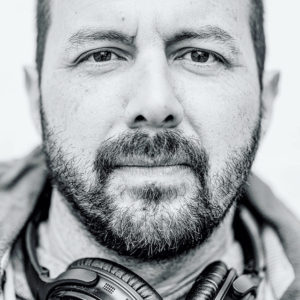
Andrew Ramiro Tirado is a Colorado-based artist who is best known for his award-winning large-scale sculptures and paintings of human hands. Using wood, metal, or traditional paint and canvas, Andrew combines his unique artistic eye with decades of experience as a craftsman to create remarkable pieces that are stunning in both their size and presentation. His hand sculptures can exceed ten feet in length and are sometimes displayed hanging from the ceilings of galleries or buildings—when you see Andrew’s work, there is no mistaking who created it!
Andrew grew up in Colorado and graduated high school with the intention of studying and pursuing art as a vocation. During college, he landed a job in New York City, working as an assistant for the renowned artist Chuck Close—a coveted position for any budding artist. But soon after leaving New York, Andrew decided to walk away from making art, and he stayed away for 23 years. But in 2012, a serendipitous life-changing event rekindled his interest in making art, and he returned to the art world with full focus and passion. Just four years later, in 2016, Andrew resigned from his job at Colorado College and began pursuing art full time… and has never looked back.
We met at Andrew’s brand new Colorado Springs studio, which happens to be just a few blocks from my own house. We had a wide-ranging discussion covering everything from making art to mountain climbing to the realities of life as a full-time artist. We started out by discussing his upbringing in Colorado Springs and how he found his way to art school and eventually, New York City working for the world-famous Chuck Close. Then we discuss his decision to leave the art world, and why—after more than two decades away—he decided to return to making art. We talked about the importance of writing to Andrew’s artistic process, as well as lessons he’s learned from spending time up high in the Colorado mountains. And finally, we talk about artistic heroes, favorite books, favorite films, and Andrew offers wisdom to those who dream of pursuing art as a full-time vocation.
Andrew is an amazingly thoughtful and humble guy, and I greatly admire his soft-spoken and wise approach to chasing his dreams. Be sure to check out all of Andrew's art on his website, but for right now, enjoy this insightful conversation with Andrew Ramiro Tirado!
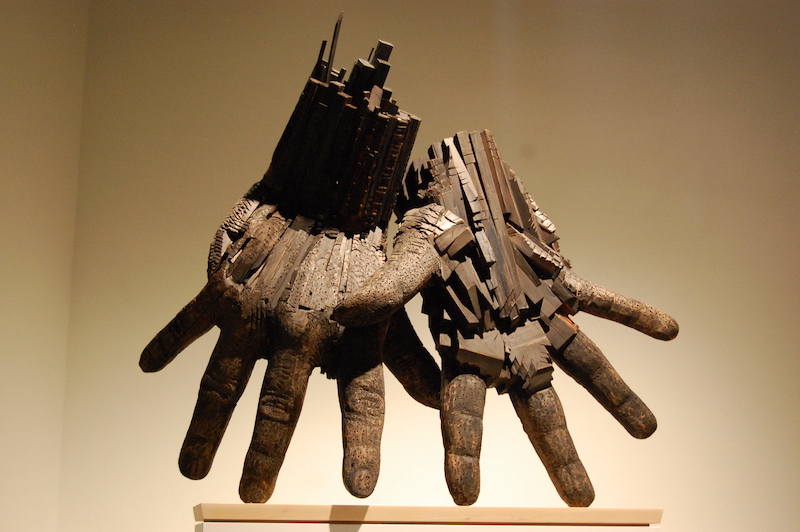
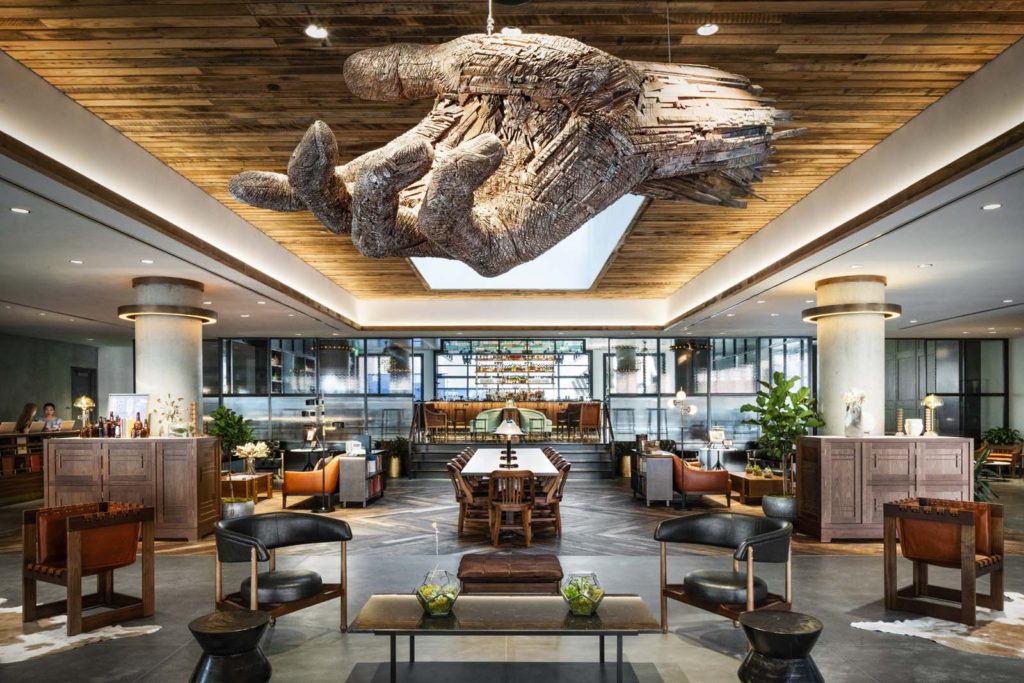

Photos courtesy of Andrew Tirado, headshot by James Cochrane
Click Here to Download on iTunes
---
Click Here to Download on Spotify
---
Click Here to Download on Google Play
---
Click Here to Download on Stitcher
---
Episode Notes
Topics Discussed:
- 4:00 - Andrew’s background
- 6:15 - Studying art in school
- 8:00 - Working for Chuck Close
- 11:00 - "Leaning in” to opportunities
- 12:00 - Lessons learned from Chuck Close
- 15:30 - The importance of self-imposed limitations
- 18:00 - Taking a hiatus from art
- 21:30 - The moment he decided to return to art
- 25:30 - Making his first-hand art piece
- 31:00 - Discovering a demand for his art
- 34:00 - Decision to pursue art full time
- 36:00 - Chasing the feeling of “peak experiences"
- 41:00 - Importance of "inflection points”
- 42:30 - Importance of writing to Andrew’s writing process
- 47:30 - How time in the mountains has affected his art
- 50:00 - Andrew’s artistic heroes
- 52:45 - Favorite books
- 55:00 - Films
- 59:00 - Favorite location in the West
Information Referenced:
- Andrew Ramiro Tirado
- Andrew’s Blog
- Andrew on Instagram
- Floyd Tunson
- Chuck Close
- Bemis School of Art
- Colorado College
- Strand Book Store
- Canoecraft by Ted Moores
- Masters of Scale Podcast
- James Surls
- James Herriot
- All Creatures Great and Small by James Harriet
- Lawrence of Arabia
- Road House
- NOLS
- Art Institute of Chicago
Enjoy this episode? Then you might like these as well:
- Geoffrey Keating – Built to Last
- Cate Havstad – Cultivating Creativity & Craftsmanship
- Rebecca Jewett – Big Ideas for the New West
- Peter Heller – Chasing the Flow
- Camrin Dengel – Slow Living in the American West
Jessica Ilalaole is a New Mexico-based artist who specializes in handcrafted jewelry inspired by the natural world and the landscapes of the American West. Through her online store CobraCult Jewelry, Jessica has built a loyal following of customers and admirers who are drawn to her uniquely stunning designs, as well as her authentic and unconventional lifestyle. Jessica’s personality is a unique mix of confident yet humble, social yet solitary, fiercely independent yet fully devoted to her friends and family-- a special blend of traits that have allowed her to create unique art and one-of-a-kind life.
Jessica grew up in Hawaii but now lives on a spectacular property in Northern New Mexico on the western slope of the Sangre de Cristo mountain range. Her jewelry studio looks out onto the mountains, and she and her partner Cody are in the process of building an adobe cabin from the ground up. But while the views are spectacular, their lives are currently fully focused on hard work-- home construction, jewelry making, and the day-to-day realities of running Jessica’s business. Their vision and work ethic are extremely inspiring, and it was a pleasure to meet and record this episode at the property.
We sat down in Jessica’s studio and had a wonderful and wide-ranging conversation. We started by chatting about the property-- how they decided to move there, how they acquired it, and their plans for it. We then talked about Jessica’s journey as an artist, and when and why she decided to make a go of it as a full-time jewelry maker. We discuss the influence of her parents, her artistic influences, her love of motorcycles and tattoos, and how social media has helped her to grow her business. We also discuss her commitment to positivity, the roots of her independent streak, and she offers some excellent advice for other aspiring artists. And as usual, we discuss favorite books, films, the best advice she’s ever received, and more.
Be sure to check the episode notes for links to everything. Hope you enjoy!
Photos courtesy of Jessica Ilalaole
Click Here to Download on iTunes
---
Click Here to Download on Spotify
---
Click Here to Download on Google Play
---
Click Here to Download on Stitcher
---
Episode Notes
Topics Discussed:
- 3:10 - Jessica describes her property
- 5:40 - Growing up in Hawaii
- 8:10 - Being considered a haole
- 10:10 - Source of Jessica’s independent streak
- 11:10 - Similarity to parents
- 15:55 - Early years as an artist and jewelry maker
- 18:00 - Decision to make jewelry making a full-time job
- 20:00 - Skills learned from taking jewelry classes
- 22:00 - Deciding to take become a full-time artist
- 24:10 - Challenges of working solo while being a social person
- 25:40 - Relationship with Cody and building their cabin
- 30:10 - Artistic influences
- 31:10 - Riding motorcycles
- 37:00 - Jessica’s connection to tattoos
- 39:40 - Independent streak revisited
- 42:00 - Daily routines
- 44:40 - Exciting personal news!
- 47:30 - Long-term plans
- 49:10 - Influences or heroes
- 51:40 - Meaning of CobraCult
- 54:00 - Instagram’s role in her business and life
- 59:30 - Favorite books
- 1:03:00 - FAvorite documentary
- 1:04:00 - Favorite location in the West
- 1:05:30 - Best advice ever received
- 1:09:30 - Advice for aspiring artists
Information Referenced:
- CobraCult Jewelry
- Jessica on Instagram
- Cody’s Instagram
- Questa, NM
- Hawaiian telescope controversy
- Haole
- Buffalo Exchange
- Oregon College of Art and Craft
- Hayfork, California
- Trinity Alps
- Emerald Triangle
- Long Way Round
- Cheyenne Sawyer tattoo artist
- Make Your Bed by Admiral William McRaven
- Daily Stoic by Ryan Holiday
- Temperance Creek by Pamela
- Chris Eyer / Muledragger episode
- Happy People documentary
- Wind River Range
- Creative process meme
Enjoy this episode? Then you might like these as well:
- Cate Havstad – Cultivating Creativity & Craftsmanship
- Jillian Lukiwski – Art and Adventure in the American West
- Jessica Lewis – Doing More With Less
- Live in Bozeman – Cate Havstad, Jillian Lukiwski, Becca Skinner & Juanita Vero
- Stephen Smith, Part 2 – Evolution & Reinvention
- Robert Krapfel – On Living a Purpose-Driven Life
Kate Kavanaugh is an entrepreneur and regenerative agriculture advocate who co-owns and operates Western Daughters Butcher Shoppe in Denver, Colorado. Along with her partner Josh Curtiss, Kate sells fresh, local, grass-fed and pasture-raised meats that are all raised and harvested within 150 miles of Denver. Although she has been featured in such notable publications as The New York Times and Forbes, Kate is most proud of the deep connections she has formed with regenerative ranchers and farmers-- and the positive impact her business has had on the land.
As you’ll hear in our conversation, Kate is deeply committed to regenerative agriculture and specifically the role that ruminants play in the health of soil and grasslands in the American West and beyond. She’s also a seasoned businesswoman who has paid her dues and suffered the bumps and bruises that come with any entrepreneurial endeavor. And it is the combination of her passion, toughness, curiosity, and willingness to think outside the box that has made Western Daughters such an inspiring success story.
I had a great time chatting with Kate, and I learned a lot from our conversation. We started by talking about the story of Western Daughters--how the business began, challenges of running a brick and mortar store, and specifics around how the company supports local agriculture. We discuss Kate’s upbringing in Colorado and how she felt a deep connection to the land and the environment from an early age. We talk about Kate’s childhood commitment to vegetarianism and why she began eating meat again at age 20. We also chat about Kate and Josh’s exciting recent purchase of a farm in upstate New York, and how they plan to balance Western Daughters with farming their new land. We discuss food’s role in mental health, and Kate graciously shares some of her daily practices that help her manage anxiety and depression. Kate is a voracious reader, so there are tons of good books mentioned-- be sure the check out the episode notes for links to all the books and more. Hope you enjoy!
Photos courtesy of Kate Kavanaugh
Click Here to Download on iTunes
---
Click Here to Download on Spotify
---
Click Here to Download on Google Play
---
Click Here to Download on Stitcher
---
Episode Notes
Topics Discussed:
- 3:15 - Western Daughters Butcher Shoppe, explained
- 4:45 - Kate’s early interest in agriculture
- 6:15 - Kate’s seriousness as a child
- 8:45 - Ending her run with vegetarianism
- 10:30 - Authors that helped Kate understand regenerative ag
- 11:15 - Starting Western Daughters
- 13:15 - Tribalism around food
- 15:45 - New York Times article
- 17:45 - Working with farmers and ranchers
- 22:45 - The ins and outs of regenerative ag
- 29:15 - The challenges of explaining regenerative ag to the masses
- 30:45 - Unexpected challenges of running Western Daughters
- 34:45 - Economic challenges of regenerative ag
- 37:45 - Kate and Josh’s new farm!
- 40:15 - Realities of running a brick and mortar business
- 45:15 - Thoughts on leaving the West
- 49:00 - Advice to people who want to farm
- 53:00 - Heroes and mentors
- 55:30 - Managing mental health
- 1:00:45 - Diet’s role in mental health
- 1:03:45 - Favorite books
- 1:04:45 - Favorite documentaries
- 1:06:15 - Favorite location in the West
- 1:07:15 - Most powerful outdoor experience
- 1:08:45 - Best advice ever received
- 1:10:45 - Request of the listeners
Information Referenced:
- Kate on Instagram
- Western Daughters Butcher Shoppe
- New York Times article
- Range by David Epstein
- For the Love of Land by Jim Howell
- Wendell Berry
- Aldo Leopold
- The Omnivores Dilemma by Michael Pollan
- Melissa Clark
- EatWild.org
- Cottonwood Creek Farms
- Earl Butz
- Jim Howell interviews One and Two
- Land Institute’s roots photo
- Homestead Act
- Heather Hansman episode
- Animal, Vegetable, Miracle by Barbara Kingsolver
- Wes Jackson
- Cate Havstad episode
- USDA
- AgAmerica
- Slow Money
- The Biggest Little Farm
- Clint and MaryKay Buckner
- Jillian Lukiwski episode
- Consulting the Genius of the Place by Wes Jackson
- The Land Institute
- Waking Up meditation app
- For the Love of Soil by Nicole Masters
- The Third Plate by Dan Barber
- Fantastic Fungi
- Botany of Desire by Michael Pollan
- Zach Bush
Enjoy this episode? Then you might like these as well:
- Cate Havstad – Cultivating Creativity & Craftsmanship
- Christine Su – The Business of Healthy Grasslands
- Sarah Wentzel-Fisher – Conservation in the Radical Center
- Emilene Ostlind – Storytelling for the New West
- Live in Bozeman – Cate Havstad, Jillian Lukiwski, Becca Skinner & Juanita Vero
Peter Heller is a renowned novelist, as well as an award-winning adventure writer and former contributing editor to Outside, Men’s Journal, and National Geographic Adventure. Since age eleven, Peter has been committed to the craft of writing, and his lifelong love of words and stunning prose are the threads that connect all of his work-- from fiction to non-fiction to poetry. His most recent novel, The River, is the culmination of Peter’s decades of storytelling-- the book weaves a masterful tale that combines adventure, deep friendships, wild places, chilling violence, and page-turning suspense. [For those of you who subscribe to my bimonthly book recommendations email, you may remember that I devoured the book in less than two days and absolutely loved it!]
Peter was born, raised, and educated on the east coast but headed West soon after college to paddle rivers and immerse himself in the wide-open spaces of the American West. His writing career has taken him to some of the most far-flung corners of the earth. Still, he always returns to the Rockies, where he currently splits his time between Denver and Paonia, a rural community on Colorado’s Western Slope. The people and landscapes of the West play prominent roles in all of Peter’s novels, and his talent for capturing the beauty and complexity of people and wild places is second to none.
We met up at Peter’s home in Denver and had a fun, wide-ranging conversation covering everything from his early obsession with writing to his current writing process to our mutual love of surfing. We discuss his first big paddling trip in Colorado, which started his decades-long love affair with the West. We talk about his early days as a professional writer-- discussing everything from how he made it work financially to how he dealt with rejection. We dig into the specifics of his daily writing routine, and why he stops writing at 1,000 words, even if he is mid-scene. We also talk about how he avoids thinking when writing novels, his obsession with “finding the flow” in writing and outdoor pursuits, the importance of momentum, and balancing physical exuberance with the writer’s life. If you love Peter’s books, the West, or learning about writers, you will love this episode.
And as a special bonus, I’m giving away a copy of The River via Instagram. On Friday, January 3, 2020, I’ll post all the details, so head to my Instagram page, give me a follow, and be on the lookout for the giveaway. You can either search by my name- Ed Roberson- or follow this link. The River was one of the best books I read in 2019, so I know you’ll enjoy it too.
Thanks again to Peter for being so generous with his time and so insightful with his answers. I hope you enjoy!
Photo of Peter by John Burcham
Click Here to Download on iTunes
---
Click Here to Download on Spotify
---
Click Here to Download on Google Play
---
Click Here to Download on Stitcher
---
Episode Notes
Topics Discussed:
- 5:00 - Where Peter grew up
- 6:30 - Deciding to be a writer at 11-years old
- 10:00 - Specific disciplines to become a writer
- 10:40 - Peter’s parents’ backgrounds and their influence
- 13:30 - Peter’s love of writing as a career
- 14:50 - Childhood adventures
- 15:40 - Falling in love with the West
- 18:30 - Starting out as a writer
- 21:00 - Dealing with early rejections
- 22:50 - First published story
- 25:00 - “Not thinking” while writing fiction
- 29:00 - Starting Dog Stars
- 31:30 - Peter’s method - 1,000 words per day
- 36:00 - The inevitability of Peter’s stories
- 38:30 - Winslow Homer paintings and other real-life influences [Click to see "The Gulf Stream" painting]
- 41:45 - Importance of confidence and craftsmanship in writing
- 46:50 - Importance of momentum
- 49:00 - Love of entering "the zone” through writing, surfing, fishing, and more.
- 51:30 - Peter’s love for Paonia
- 55:00 - Surfing!
- 1:02:15 - Favorite books
- 1:04:00 - Favorite location in the West
- 1:05:45 - Best advice ever received
Information Referenced:
- Peter Heller
- The River by Peter Heller
- All of Peter’s books
- St Anne’s School
- E.E. Cummings
- In Our Time by Ernest Hemingway
- Mad Men
- Nantahala Outdoor Center
- Fishers Island
- John Keats
- The Art of Fiction by John Gardner
- Carlton Cuse
- Elmore Leonard
- Graham Greene
- Life Work by Donald Hall
- The Gulf Stream by Winslow Homer
- NOLS
- Paonia, Colorado
- Brian Calvert episode
- High Country News
- Kook by Peter Heller
- Blood Meridian by Cormac McCarthy
- Mark Twain
Enjoy this episode? Then you might like these as well:
- Hampton Sides – Live at the Aspen Institute
- Chris Dombrowski – Words, Water & the West
- Pete McBride – A Passion for Water & Wild Places
- Heather Hansman – Demystifying Water in the West
- Sara Dant – A Deep Dive Into the History of the West
- William deBuys – Sage of the Southwest
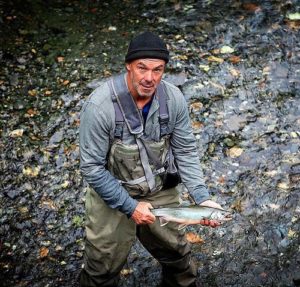
Hal Herring is an award-winning journalist and writer whose work has appeared in such notable publications as the Atlantic, the Economist, and Orion. He is also a contributing editor at Field and Stream and a regular contributor to High Country News. Most recently, Hal has made a name for himself in the podcast world as the host of Backcountry Hunters and Anglers’ popular podcast, called the Podcast & Blast with Hal Herring. If there’s one common thread that runs through Hal’s prolific and wide-ranging career, it’s a love of the West, its people, and its public lands.
I’ve long admired Hal and specifically his refusal to be boxed in by any particular political party or close-minded ideologies. He could be considered progressive on some issues and conservative on others, but his opinions are always the result of a lot of deep thinking, extensive research, and thorough consideration. And as you’ll hear him say in this interview, he’s endlessly curious and always open to having his mind changed-- two characteristics that I personally admire and try my best to emulate, especially when it comes to issues here in the American West.
Hal and I covered a lot in a little over an hour, and regular listeners will enjoy his depth and breadth of knowledge, as well as his unbridled passion for the West. We start by discussing his upbringing in Alabama and why he decided to move West. We talk a lot about books, and Hal offers up a massive selection of titles that have influenced his work, most of which have never before been mentioned on this podcast. We discuss the importance of journalism at this specific moment in history, and how he goes about finding the facts in today’s overwhelming deluge of media. We also chat about his work ethic, family, his current home in Augusta, Montana, his climbing and mountaineering adventures, and his recent success in the world of podcasts.
There’s a lot to learn and digest in this episode, so be sure to check out the episode notes for links to everything. Also, I hope you enjoy the southern accents-- I think Hal really brought mine out in full force. Hope you enjoy!
Photos courtesy of Hal Herring
Click Here to Download on iTunes
---
Click Here to Download on Spotify
---
Click Here to Download on Google Play
---
Click Here to Download on Stitcher
---
Episode Notes
Topics Discussed:
- 3:05 - Growing up in Alabama
- 4:15 - Intro to Montana
- 5:50 - Deep love of Alabama
- 6:45 - Early years writing & traveling
- 9:30 - Source of Hal’s early wanderlust
- 11:35 - When Hal got serious about writing
- 15:00 - Importance of constraints
- 18:00 - How Hal’s work on public lands influences his journalism
- 20:45 - Decision to focus on public lands
- 22:10 - Need for real journalism
- 25:00 - Where does Hal get his news?
- 29:00 - Public land discussion
- 32:15 - Optimistic or pessimistic for the future of public lands?
- 36:30 - Mountaineering and climbing
- 41:15 - Having kids
- 44:00 - Hal’s foray into podcasting
- 48:15 - Most important books
- 50:50 - Connection with Teal Blake
- 55:30 - Importance of preparation and hard work
- 57:15 - Hal’s new book
- 1:00:30 - Favorite films
- 1:01:50 - Favorite location in the West
- 1:06:30 - Request of the listeners
Information Referenced:
- Tom McGuane
- At Play in the Fields of the Lord by Peter Matthiessen
- Peter Matthiessen
- Davis Bacon wages
- Alan Jones
- Fishboy and Ice at the Bottom of the World by Mark Richard
- City of Thieves by David Benioff
- Whitebark pine
- Chronic wasting disease
- Missouri Border Wars
- Wildwood Boys by James Carlos Blake
- Woe to Live On by Daniel Woodrell
- Ride with the Devil by Daniel Woodrell
- Squatter Sovereign
- Ed Abbey
- Federalist Papers
- Bernard DeVoto
- El Capitan of the Bitterroots
- NOLS
- Backcountry Hunters and Anglers
- Rock Springs by Richard Ford
- A Piece of My Heart by Richard Ford
- Wildlife in America by Peter Matthiessen
- Jim Harrison
- Ninety-two in the Shade by Tom McGuane
- Hal’s podcast with Tom McGuane
- Rinella’s podcast with McGuane
- Teal Blake episode
- Guy De Maupassant
- Stephen King's On Writing
- Draft No. 4 by John McPhee
- Erst Junger
- Seven Beauties
- The Accidental Life by Terry McMillan
- The Heart of the Game
Enjoy this episode? Then you might like these as well:
- Mark Kenyon – A Passion for Public Lands
- David Gessner, Part 2 – Ambition, Art, and Arête
- Mike Phillips – Audacious Goals, Relentless Action
- Chris Dombrowski – Words, Water & the West
- Sara Dant – A Deep Dive Into the History of the West
- Becca Aceto – Forging Her Own Path in the West
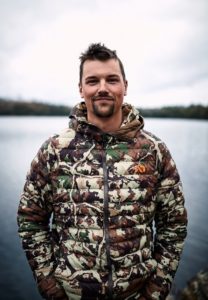
Mark Kenyon is a conservationist, outdoorsman, and author of the fantastic new book That Wild Country: An Epic Journey through the Past, Present, and Future of America's Public Lands. For years, Mark has been well-known and respected in the hunting world, thanks in part to his website, blog, and podcast called Wired to Hunt, which focuses on the finer points of big game hunting. Mark and Wired to Hunt recently joined forces with Steven Rinella's MeatEater, which has helped to amplify Mark's impact on the worlds of hunting and conservation. That Wild County is the culmination of many years of Mark's adventures, experiences, and writing, and I expect that Mountain & Prairie listeners will thoroughly enjoy it.
From the outside, it appears that Mark is cruising through life, living the dream-- he hunts, writes, creates shows, and generally pursues his passions at full speed on a daily basis. But when you scratch below the surface, you'll see that Mark's professional path has been (and still is) defined by extreme focus and hard work, as well as an insatiable curiosity for everything from whitetail deer to US history to the finer points of public lands legislation. He walked away from an impressive and safe career at Google to merge his vocation and avocation, choosing to bet on himself rather than corporate America. And his bet paid off-- between his podcasts, articles, essays, videos, and, now, a book, Mark's body of work has educated and inspired countless people throughout the world.
We started our conversation by discussing That Wild Country, which is one of the most engaging and "user-friendly" explanations I've read of the history of public lands, as well as the modern-day controversies surrounding public lands. We discuss the conservation legacy of the other Roosevelt-- Franklin D Roosevelt-- and how his presidency revived our nation's commitment to public lands stewardship. We dig into the details of the Pittman-Robertson Act, a historic piece of legislation that all of us who love the outdoors need to understand. We discuss the short and impactful life of Bob Marshall, the famed conservationist who is the namesake of Montana's legendary Bob Marshall Wilderness. We also discuss a lot about Mark's personal backstory-- his decision to leave Google for Wired to Hunt, his recent merger with Meateater, how having a son has changed his perspective, his daily routine for maximum productivity, and much more. And finally, we touch on why Michigan seems to produce so many committed conservationists and outdoor writers.
I've admired Mark and his consistent, high-quality work for years, so it was a thrill to finally chat. I encourage you to check out That Wild Country and the Wired to Hunt Podcast, but in the meantime, enjoy this wide-ranging conversation with Mark Kenyon.
Photos courtesy of Mark Kenyon
Click Here to Download on iTunes
---
Click Here to Download on Spotify
---
Click Here to Download on Google Play
---
Click Here to Download on Stitcher
---
Episode Notes
Topics Discussed:
- 5:00 - An overview of “That Wild Country”
- 9:00 - Timeline of writing the book
- 11:00 - FDR’s influence on the conservation movement
- 16:30 - Ins and outs of the Pittman-Robertson Act
- 20:50 - Arguments around a “backpack tax”
- 21:40 - Who was Bob Marshall?
- 25:00 - How to write about dry subjects in an entertaining manner
- 29:00 - The effort of writing a book
- 29:40 - How having a kid changed Mark’s working style
- 32:20 - Mark’s morning routine
- 35:45 - Mark’s unique career path
- 38:00 - Epiphany moment in Mark’s career
- 40:30 - Merging with Meateater
- 42:30 - Secrets to Wired to Hunt’s success
- 47:00 - Mark’s “Back 40” project
- 50:00 - Why does Michigan produce so many outdoor leaders?
- 52:45 - New information learned about Theodore Roosevelt
- 57:45 - Optimism or pessimism for the future of public lands
- 1:01:30 - Important non-profits that Mark supports
- 1:06:45 - Mark’s favorite books
Information Referenced:
- Mark Kenyon
- Wired to Hunt
- That Wild Country: An Epic Journey through the Past, Present, and Future of America's Public Lands by Mark Kenyon
- MeatEater
- Pittman-Robertson Act
- Deep Work by Cal Newport
- “Backpack Tax” article
- Franklin Roosevelt
- Bob Marshall
- Gifford Pinchot
- Crush It by Gary Vaynerchuk
- Tim Ferriss
- Steven Rinella
- Seth Godin
- Seth Godin’s failure blog post
- The Back 40
- Backcountry Hunters and Anglers
- Theodore Roosevelt Conservation Partnership
- Rick Bass
- Why I Came West by Rick Bass
- A Scavenger's Guide to Haute Cuisine by Steven Rinella
- American Serengeti by Dan Flores

Matt Skoglund and his wife Sarah are bison ranchers and the owners of the North Bridger Bison Ranch, which is located in Montana's iconic Shields Valley. The Skoglund's bison operation is deeply rooted in Holistic Management and Regenerative Agriculture principles, and their goal is to produce healthy and delicious meat, while simultaneously improving the land, helping the environment, and contributing to Montana's economy. Through hard work and genuine curiosity, Matt has found his life's true calling in bison ranching—a challenging yet deeply rewarding business that combines so many of Matt's passions into one dream job.
By now, you may be assuming that Matt comes from a western ranching family or perhaps holds agriculture degrees from a land-grant university. But the reality is that Matt grew up in the Chicago area, attended college in the northeast, then law school, then began a career as an attorney in the litigation department of a large Chicago law firm. After several years of practicing law, he and Sarah could no longer resist the desire to move West, so they took a leap of faith and moved to Bozeman. Matt found a job with the Natural Resources Defense Council (NRDC), where he worked for nearly ten years, digging deep into many conservation issues that affect the Greater Yellowstone Ecosystem, including bison. Finally, in 2018, after several years of dreaming and planning, they pulled the trigger, bought some land, and started their adventure in bison ranching.
Matt and Sarah's story is inspiring and instructive, especially for those who have dreams of pursuing lives and careers in the West. Instead of jumping all over the place like I normally do, this conversation is pretty much split into two main sections. The first half covers all the details about North Bridger Bison, how they acquired the ranch, their process of field harvesting the meat, who their customers are, and some of the biggest surprises of running their own business. The second half covers some broader personal topics, such as how being a father has affected Matt's outlook, why he was able to walk away from a lucrative career in law, and the life lessons learned from being a college hockey player. Whether you are strictly interested in agriculture or only interested in people's personal evolutions, there are aspects of the Skoglund's journey that will be fascinating to both groups.
Be sure the check the episode notes for a list of everything we discussed. Hope you enjoy!
Header photo courtesy Courtney Green, other photos courtesy of Matt Skoglund
Click Here to Download on iTunes
---
Click Here to Download on Spotify
---
Click Here to Download on Google Play
---
Click Here to Download on Stitcher
---
Episode Notes
Topics Discussed:
- 4:00 - The location of the ranch
- 5:45 - Why they chose the Shields Valley
- 8:15 - Details around purchasing the ranch
- 12:30 - Genesis of the bison ranch idea
- 14:30 - Books that shaped Matt's business philosophy
- 16:00 - Transitioning from dreaming about ranching to doing it
- 18:15 - Criteria when searching for land
- 22:45 - Collaboration among bison ranchers
- 25:30 - Details of field harvesting bison
- 30:40 - Biggest surprises of bison ranching
- 36:00 - How past professional experiences inform bison ranching
- 37:00 - Lessons learned from stressful situations
- 39:30 - Transition from the law to conservation
- 42:00 - Moving to Bozeman
- 43:00 - Getting off the big law firm "treadmill"
- 44:50 - Where Matt got his independent streak
- 47:30 - Lessons learned from high-level athletics
- 49:30 - How having kids changed Matt's life and perspective
- 54:30 - Three specific heroes and mentors
- 58:45 - Aldo Leopold obsession
- 1:00:15 - Favorite books
Information Referenced:
- North Bridger Bison
- North Bridger Bison on Instagram
- Let My People Go Surfing by Yvon Chiounard
- Buffalo for the Broken Heart by Dan O’Brien
- Natural Resources Defense Council
- Wild Idea Buffalo
- Dan O'Brien
- Theodore Roosevelt
- Aldo Leopold
- A Sand County Almanac by Aldo Leopold
- American Buffalo by Steven Rinella
- Last Stand by Michael Punke
Enjoy this episode? Then you might like these as well:
- Duke Phillips IV – Living with the Land
- Duke Phillips III – A Vision for the New West
- Christine Su – The Business of Healthy Grasslands
- Jay Kleberg – True Dedication to Conservation, Adventure & Texas
- Jim Howell, Part II – Restoring Ecological Capital Through Grazing
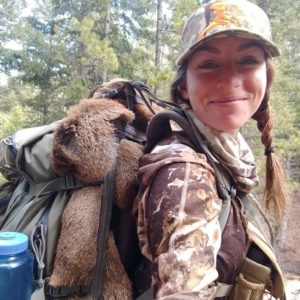
Becca Aceto is an Idaho-based conservationist and is currently the Communications and Outreach Coordinator for the Idaho Wildlife Federation. Prior to this position with IWF, she worked in a variety of jobs closely connected to Idaho'sIdaho's rugged landscapes—as a naturalist, Forest Service wilderness ranger, and a Forest Service Wildlife Technician. Given her professional commitment to the lands and wildlife of the northern Rockies, you might assume that she's a native westerner, but in fact, she grew up in Ohio and attended the University of Kentucky before heading West after graduation.
As the oldest of six siblings, Becca has never been shy about "putting herself out there," learning new skills, or diving head-first into new experiences. She's studied various types of conservation in far-flung places like Thailand and Costa Rica, and she moved to the small town of Stanley, Idaho, without knowing a soul who lived there. Most recently, in 2017, she took up hunting and has fallen in love with the sport, becoming the Idaho ambassador for the sportswomen's group Artemis. Becca's willingness to step outside her comfort zone both professionally and personally can serve as a blueprint for many non-western young people who want to build a fulfilling life and career for themselves in the Rocky Mountains.
Becca and I caught up between a few of her fall hunts and had a wonderful conversation, discussing everything from her early days in Ohio to her current life and work in Idaho. We started by chatting about her upbringing—her childhood spent fishing in a small neighborhood creek, her love of horses, and the positive influence of her grandmother (who happens to be a Buddhist and a vegetarian). We talked about her time working as a ranger and some of the hard-won lessons she learned by suffering in the backcountry. We talk a lot about her relatively new journey becoming a hunter and some of the challenges and opportunities that come with learning to hunt as an adult. We also discuss the important conservation work of the IWF, in politics, on-the-ground stewardship, and public lands advocacy. As usual, we discuss lots of books and the best advice she's ever received.
We cover a lot in a little over an hour, and I jump around with my questions even more than usual, so be sure the check out the episode notes for a list of everything we discuss. Enjoy!
All photos courtesy of Becca Aceto
Click Here to Download on iTunes
---
Click Here to Download on Spotify
---
Click Here to Download on Google Play
---
Click Here to Download on Stitcher
---
Episode Notes
Topics Discussed:
- 4:00 - Where Becca grew up
- 6:10 - Decision to study natural resources at University of Kentucky
- 8:45 - Working in Costa Rica
- 10:00 - Decision to move West
- 11:30 - First jobs in Idaho
- 14:30 - Bravery to move out West on her own
- 16:30 - Becca’s Buddhist, vegetarian grandmother’s influence
- 19:30 - Working conditions as a forest ranger
- 21:00 - Importance of discomfort and fear
- 25:00 - Starting to work at the Idaho Wildlife Federation
- 29:15 - Importance of politics
- 30:00 - Threat to public lands
- 34:30 - Learning to hunt
- 38:30 - Hunting lessons learned from year to year
- 42:45 - Artemis sportswomen
- 45:20 - Need for diversity in hunting and conservation
- 47:00 - Advice for novice hunters
- 49:15 - Becca’s most recent hunting trip
- 57:00 - Writing
- 1:00:15 - Favorite books
- 1:02:30 - Favorite films
- 1:04:30 - Out-of-the-ordinary hobbies
- 1:06:00 - Favorite location in the West
- 1:07:00 - Best advice ever received
- 1:08:30 - Words of wisdom
- 1:10:00 - Connect with Becca
Information Referenced:
- Idaho Wildlife Federation
- Artemis Sportswomen
- University of Kentucky
- Stanley, Idaho
- Frank Church Wilderness
- Conservation Leaders for Tomorrow conference
- National Wildlife Federation
- Coming Into the Country by John McPhee
- Encounters with the Archdruid by John McPhee
- Draft No. 4 by John McPhee
- The Solace of Open Spaces by Gretle Erhlich
- The Snow Leopard by Peter Matthiessen
- Never Cry Wolf
- 265 Images of Northern Rocky Mountain Wildflowers by Scott Earle
Enjoy this episode? Then you might like these as well:
- Melissa DiNino – Building a Unique Life in Big Sky Country
- Jillian Lukiwski – Art and Adventure in the American West
- Sarah Calhoun – Community Building Through Commerce
- Sarah Wentzel-Fisher – Conservation in the Radical Center
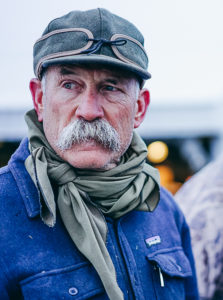
Duke Phillips III is the founder and CEO of Ranchlands, a Colorado-based, family-owned ranch management company. If Ranchlands sounds familiar, that’s because last week’s episode was with Duke’s son, Duke Phillips IV. You may remember that the younger Duke referenced his father’s philosophies around business and leadership several times, so I thought it would be fun to have the elder Duke on the podcast for an in-depth conversation. And in-depth it was—in a little under an hour we covered a wide range of subjects, everything from the future of ranching to world travels to poetry.
Duke has led a fascinating life, starting with his early years spent growing up on a remote cattle ranch in rural Mexico. His twenties were devoted to traveling and working around the world, including places like Europe, Central America, Australia, and the Bering Sea. Around age thirty he started his first “real job” in ranching, which eventually led to the formation of his company Ranchlands. Since its beginnings over two decades ago, Ranchlands has set a new standard what is possible when ranching, conservation, education, and business are successfully combined. And Ranchlands partnership with Colorado’s State Land Board is a case study in effective, mutually beneficial public-private partnerships.
I caught up with Duke on the phone, where he was gracious enough to take time away from one of his New Mexico operations to chat with me. We started by talking about his childhood in Mexico and the lessons he learned from growing up in such a wild and remote landscape. Then we discussed the series of travels and jobs that led to his founding Ranchlands in his mid-forties. From there, our conversation hits on a variety of subjects, including the joys of working with his kids, Duke III and Tess, the ins-and-outs of the bison ranching business, and his thoughts on the recent popularity of regenerative agriculture. There’s minimal overlap between the topics covered in this conversation and my conversation with young Duke, so be sure to check the episode notes for a full list of all the interesting information discussed.
Palmer Land Trust will be honoring Duke and his family at the 10th Annual Southern Colorado Conservation Awards on October 3rd in Colorado Springs. It’s going to be a fun and inspiring evening, so follow the link in the episode notes for more information and tickets. Hope to see you there
All photos courtesy of Charles Post, who also generously donated his Ranchlands photos to Palmer Land Trust for promotion of the 2019 Southern Colorado Conservation Awards.
Click Here to Download on iTunes
---
Click Here to Download on Spotify
---
Click Here to Download on Google Play
---
Click Here to Download on Stitcher
---
Episode Notes
Topics Discussed:
- 3:30 - Where Duke grew up
- 6:30 - Lessons learned from growing up in Mexico
- 8:30 - Having patience with those new to ranching
- 9:45 - Leaving Mexico
- 11:50 - World travels and adventures in his 20s
- 14:30 - First “real job”
- 15:45 - Lead-up to Chico Basin
- 17:00 - Ranchlands explained
- 22:00- Ranchlands’ grazing philosophy
- 26:00 - Joys of working with Tess and Duke IV
- 27:30 - Keys to running a successful family business
- 29:30 - Keeping kids humble
- 31:20 - Importance of positivity in life and business
- 35:00 - Importance of honesty in business
- 37:40 - Successful partnerships with Colorado’s State Board and The Nature Conservancy
- 41:30 - Running a bison ranch
- 45:00 - Regenerative agriculture
- 48:30 - Heroes and mentors
- 52:00 - The future of ranching
- 54:00 - Favorite books and poetry
- 56:30 - Most powerful outdoor experience
Information Referenced:
- Ranchlands
- Chico Basin Ranch
- Medano Zapata Ranch
- Colorado State Land Board
- The Nature Conservancy
- Bud Williams
- Ray Hunt
- Tom Lasater
- Bill Sanders
- Allan Savory
- Duke Phillips IV podcast
- Tess Leach
- Ronald Tobias
- Pablo
Naruda - Chris Dombrowski podcast
- 10th Annual Southern Colorado Conservation Awards
- SCCA Film Trailer
Enjoy this episode? Then you might like these as well:
- Duke Phillips IV – Living with the Land
- Jim Howell, Part II – Restoring Ecological Capital Through Grazing
- Jesse Womack – Land Stewardship is in His Blood
- Alexis Bonogofsky – Taking a Stand for the West
- Charles Post – Stewardship, Science & Storytelling
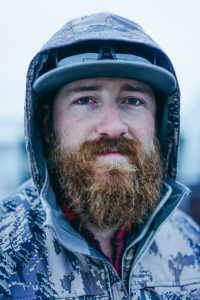
Duke Phillips IV is the Chief Operating Officer of Ranchlands, a Colorado-based ranching and ranch management company that is widely celebrated for its deep conservation ethic. Duke oversees all operations across Ranchlands’ properties, which include the renowned 87,000-acre Chico Basin Ranch and the 103,000-acre Medano Zapata Ranch. Working closely with his father Duke III and his sister Tess, the Duke and his family share a commitment to long-term land stewardship, and they embody the Ranchlands philosophy of “Working together to live with the land.”
As part of a multi-generational ranching family in southeastern Colorado, Duke grew up with one foot in the ranching culture and the other in a more traditional life of
I met Duke out at the Chico where we sat around his kitchen table and chatted-- and it was truly a delightful conversation. We talked about the operations at their ranches, delving into some of the details around their breed of cattle, the Beefmaster. We discussed the apprentice and intern programs at Ranchlands, and why he and his family value teaching and educating both the general public and the next generation of land stewards. We discussed Duke’s thoughts on leadership and the importance of being humble and calm in all situations. He also explains Ranchlands open gate policy, and how that philosophy differs from some of the conventional wisdom around access to land in the West. We also discuss books, his heroes and mentors, flying helicopters, lessons learned from living and working internationally, and much more.
Finally, I wanted to note that Ranchlands will be honored at Palmer Land Trust’s 10th Annual Southern Colorado Conservation Awards on October 3rd in Colorado Springs. We’ll be debuting a short film about the Phillips family that highlights some of their innovative conservation work throughout the state. I guarantee it will be an inspiring and fun evening.
There are many important lessons to be learned from this conversation with Duke-- check the episode notes below for a full list of everything we discussed. Hope you enjoy!
All photos courtesy of Charles Post, who also generously donated his Ranchlands photos to Palmer Land Trust for promotion of the 2019 Southern Colorado Conservation Awards.
Click Here to Download on iTunes
---
Click Here to Download on Spotify
---
Click Here to Download on Google Play
---
Click Here to Download on Stitcher
---
Episode Notes
Topics Discussed:
- 3:30 - Background on Chico Basin
- 6:00 - Chico Basin’s open gate policy
- 8:00 - Education and birding programs on the ranch
- 11:15 - Background on open gate policy
- 14:00 - Beefmaster cattle breed
- 19:00 - Ideal characteristics of the Beefmaster breed
- 22:15 - Good books about grazing and ranching
- 23:30 - How travel and education have shaped their business
- 25:00 - Finishing high school and starting college
- 28:00 - Choice to study liberal arts
- 30:00 - Internship and apprentice program
- 34:00 - Traits Duke looks for in employees
- 40:00 - Duke’s evolution as a leader
- 42:00 - Importance of good communication
- 44:00 - Heroes and mentors
- 49:00 - Importance of being positive
- 54:00 - Importance of controlling anger
- 56:30 - Favorite books
- 59:00 - Flying helicopters and planes
- 1:01:30 - Using helicopters in ranching
- 1:03:10 - Most powerful outdoor experience
- 1:07:30 - Favorite place in the West
Information Referenced:
- Ranchlands
- Chico Basin Ranch
- Medano Zapata Ranch
- Colorado State Land Board
- The Nature Conservancy
- Charlie Russell
- Lasater Family
- Becca Frucht
- The Lasater Philosophy of Raising Cattle by Laurance M Lasater
- Endurance by Alfred Lansing
- Empire of the Summer Moon by SC Gwynne
- Jim Kane by JPS Brown
- The Outfit by JPS Brown
- Forests of the Knight by JPS Brown
- Tribe by Sebastian Junger
- 10th Annual Southern Colorado Conservation Awards
- SCCA Film Trailer
Enjoy this episode? Then you might like these as well:
- Jim Howell – Conserving and Restoring the World’s Grasslands
- Jim Howell, Part II – Restoring Ecological Capital Through Grazing
- Sarah King – Collaborative Conservation in the American Southwest
- Jay Kleberg – True Dedication to Conservation, Adventure & Texas
- Duke Beardsley – Art in the Big, Bold American West
- Charles Post – Stewardship, Science & Storytelling
Live in Bozeman!
This episode is a special recording from a Mountain & Prairie live podcast in Bozeman, Montana. On August 30th more than 300 folks gathered at the historic Ellen Theatre in downtown Bozeman to watch, listen, and participate in a wide-ranging conversation with four amazing women of the West—hat-maker and farmer Cate Havstad; silversmith and all-around artist Jillian Lukiwski; adventure photographer and writer Becca Skinner; and rancher and county commissioner Juanita Vero. We also held a raffle that benefited the Montana Land Reliance and the critical conservation work it is doing throughout the state of Montana
The show started out with a hilarious, high-energy welcome from the amazing Becca Frucht, who is one of the funniest and most unique human beings I’ve ever met. Then I spent about an hour and fifteen minutes asking the women questions about their lives, work, and a
A heartfelt thank you to Cate, Jillian, Becca, and Juanita for being so open, thoughtful, and funny with all of their answers—the evening would not have been even a fraction of the success it was without their participation. Thanks to Becca Frucht for her energizing welcome and for figuring out a way to work Road House into her remarks. Thank you to the Montana Land Reliance for all of their important work throughout the state and for being part of the evening. A huge thanks to our sponsors—Chris Dombrowski Fly Fishing, Tom Morgan Rodsmiths, ONDA Wellness, Modern Huntsman, Beargrass Writing Retreat, Heyday, Head West Bozeman, and Big Agnes. And last but definitely not least, thanks to everyone who attended the event—I know we had people travel to Bozeman from many other states and even Canada for the show, so I can’t thank you all enough for being such important members of this podcast community.
It was truly a night to remember, and I’m excited to do more live shows in 2020, so stay tuned for that. But in the meantime, enjoy this audio version of the Mountain & Prairie Podcast, live in Bozeman!
All photos by Jasper Poore
Click Here to Download on iTunes
---
Click Here to Download on Spotify
---
Click Here to Download on Google Play
---
Click Here to Download on Stitcher
---
Episode Notes
Topics Discussed:
- 3:30 - Welcome from the great Becca Frucht
- 8:30 - A few words from Ed
- 11:30 - Quick intros
- 13:00 - Update on Cate’s involvement in farming
- 15:30- Juanita’s entrance into county politics
- 20:00 - Jillian’s evolving connection to her place
- 21:00 - Becca’s immersion in private land conservation
- 27:30 - Juanita’s thoughts on private land conservation
- 32:00 - Jillian discusses the importance of hard work and adventure in wild places
- 35:30 - Cate discusses the business realities of farming
- 44:00 - Jillian and Becca talk about “putting herself out there”
- 47:30 - Using social media productively
- 50:00 - Other places the ladies would choose to live
- 55:30 - Best books read in the past year
- 1:01:30 - How their husbands/partners bolster them as individuals
- 1:06:30 - Jillian’s “Big Enough Theory”
- 1:12:00 - Q&A - Mentors and mentoring
- 1:17:00 - Q&A - Roots to the past in the women’s trades
- 1:20:30 - Q&A - Role of horses in the ladies lives
- 1:28:00 - Q&A - Balancing development and conservation in Montana
- 1:35:30 - Q&A - How do we connect people with their food
- 1:40:15 - A few words from the Montana Land Reliance
Information Referenced:
- Cate Havstad
- Jillian Lukiwski
- Becca Skinner
- Juanita Vero
- Becca Frucht
- Montana Land Reliance
- Road House clip
- Robert Krapfel podcast
- Jim Howell podcasts 1 and 2
- For the Love of Land by Jim Howell
- Montana block management
- “Extinction of Experience” by Pyle, explained
- Wendell Berry
- Palmer Land Trust
- The Unsettling of America by Wendell Berry
- It All Turns on Affection by Wendell Berry
- Dirt by David Montgomery
- The Hidden Half of Nature by David Montgomery
- Growing a Revolution by David Montgomery
- American Serengeti by Dan Flores
- Neither Wolf Nor Dog by Kent Nerburn
- Short Nights of the Shadow Catcher by Timothy Egan
- Lentil Underground by Liz Carlisle
- Grain by Grain by Liz Carlisle
- Claiming Ground by Laura Bell
- The Biggest Little Farm
- Dare to Lead by Brene Brown
- Tom Morgan Rodsmiths podcast
- Seth Godin
- Sarah Wentzel-Fisher podcast
- Stacy Townsend (who made the epic Road House poster)
THANKS AGAIN TO OUR SPONSORS!
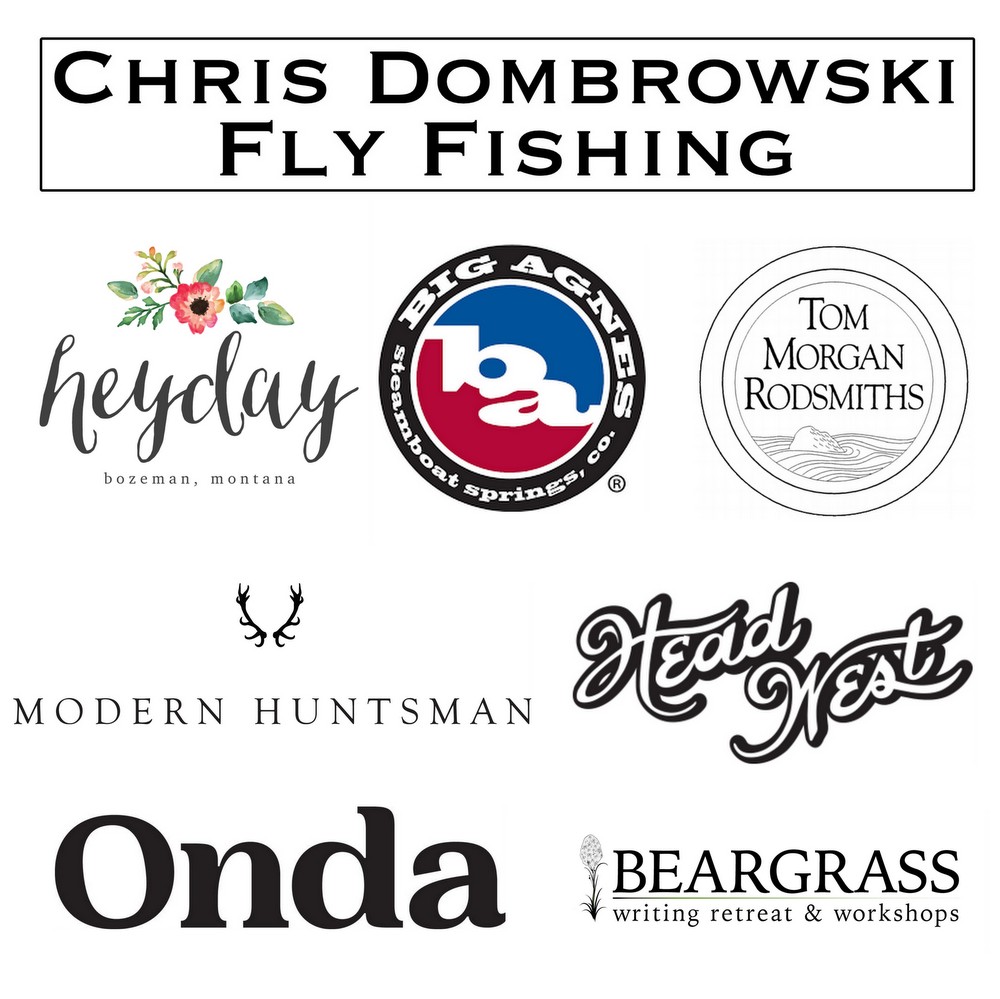
Enjoy this episode? Then you might like these as well:
- Jessica Lewis – Doing More With Less
- Alexis Bonogofsky – Taking a Stand for the West
- Mary Rondepierre – Melding Work, Play, and Purpose
- Morgan Irons – Finding Her Muse
- Rebecca Jewett – Big Ideas for the New West
- Christine Su – The Business of Healthy Grasslands
- Hampton Sides – Live at the Aspen Institute
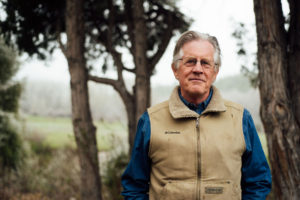
William deBuys is a renowned writer and
Bill was born and raised on the east coast but moved to New Mexico after college to take a job as a research assistant with writer Robert Coles. Bill found himself immersed in the arid landscape of the American Southwest and very quickly fell in love with the people, culture, and terrain. From then on, Bill’s life and work centered around the land, whether earning his Ph.D., working for the Nature Conservancy and The Conservation Fund, or pursuing full-time writing. His life serves as an inspiring case study of how to meld on-the-ground conservation work with high-level aspirational writing and journalism.
My biggest challenge with this conversation was figuring out how to fit five hours of questions into a single hour! We start by discussing how Bill ended up in New Mexico, and then chat a good bit about his farm. We discuss lessons learned from his work in land conservation, and techniques he uses to find common ground among competing stakeholders. We talk a lot about his writing process and routine, including Bill's excellent advice related to the technical and psychological aspects of writing. We also discuss several of his books, and how writing each book has influenced his perspective and appreciation for his beloved New Mexico home. Bill offers up a useful and completely unique technique for summoning gratitude, a practice I believe we all can benefit from. And as usual, we discuss his favorite books, his favorite location in the West, and the best advice he ever received.
It was a dream come true to spend time with Bill at his farm, so I hope you enjoy this conversation as much as I did. Be sure the check the episode notes for links to everything we discussed!
Header photo courtesy of Bill deBuys, headshot by Ben Moscona
Click Here to Download on iTunes
---
Click Here to Download on Spotify
---
Click Here to Download on Google Play
---
Click Here to Download on Stitcher
---
Episode Notes
Topics Discussed:
- 4:30 - El Valle, New Mexico, described
- 5:45 - How Bill ended up in New Mexico
- 10:30 - Work with The Nature Conservancy and The Conservation Fund
- 12:30 - Lessons learned from conservation work
- 14:30 - Early writing experience
- 15:25 - Looking back at old work
- 16:30 - Understanding and appreciating “place”
- 19:45 - How Bill wrote “The Walk”
- 22:15 - Dealing with feedback on his writing
- 23:15 - The writer’s mindset
- 24:30 - Bill’s writing process
- 29:00 - Decision to focus mostly on writing
- 30:15 - Discussion of his book “A Great Aridness”
- 34:25 - Actionable ideas for dealing with climate change
- 38:00 - Valles Caldera Trust
- 42:00 - Techniques for finding common grounds
- 45:30 - “The Last Unicorn” and other international adventures
- 46:50 - Influentials writers and thinkers
- 49:00 - Teaching and its influence on his work
- 51:00 - Favorite books
- 53:00 - Practice of writing down all the “aunts and uncles”
- 55:00 - Most powerful outdoor experience
- 56:10 - Threats to ANWR and the Rio Grand corridor
- 59:25 - Favorite location in the West
- 59:30 - Best advice ever received
Information Referenced:
- William deBuys
- River of Traps: A New Mexico Mountain Life by William deBuys
- The Walk by William deBuys
- A Great Aridness: Climate Change and the Future of the American Southwest by William deBuys
- The Last Unicorn: A Search for One of Earth's Rarest Creatures by William deBuys
University of North Carolina at Chapel Hill- Robert Coles
- The Nature Conservancy
- The Conservation Fund
- Dante’s Inferno
- Quivira Coalition
- Bill McKibben
- Valles Caldera
- Peter Matthiessen
- John McPhee
- Henry David Thoreau
- Wallace Stegner
- John Wesley Powell
- Edward Abbey
- Moby Dick by Melville
- Joseph Conrad
- William Shakespeare
- Middle March by George Elliot
- Bill's Op-Ed in the New York Times
Enjoy this episode? Then you might like these as well:
- Hampton Sides – Live at the Aspen Institute
- Sara Dant – A Deep Dive Into the History of the West
- Dan Flores – Chronicling the West’s Rich Natural History
- Bryce Andrews – People, Predators, and the American West
- David Gessner, Part 2 – Ambition, Art, and Arête
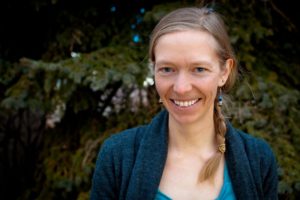
Emilene Ostlind is a Wyoming-based journalist and storyteller whose work focuses on the landscapes, natural resources, and communities of the American West. She may be best known for her work studying and documenting the long-distance migration of pronghorn antelope from Grand Teton National Park down into the Green River Valley—a topic that was the basis for her graduate school thesis, as well as her award-winning High Country News cover story about the "Path of the Pronghorn." Emilene is also the editor of Western Confluence, an amazingly informative, entertaining, and free magazine published by the University of Wyoming’s Ruckelshaus Institute of Environment and Natural Resources. And if all of that is not enough, she is also working closely on the production of an upcoming documentary called Deer 139, which tells the story of a mule deer’s migration across Wyoming and a researcher’s attempt to follow that same path on foot.
Emilene grew up at the base of the Big Horn Mountains in Wyoming, a third-generation Wyomingite from a family closely connected to ranching and the land. After earning her undergraduate degree from the University of Wyoming, she landed a job in Washington DC with National Geographic, where she learned first hand the power of storytelling as a means of communicating important, complex issues. She returned to the University of Wyoming for a graduate degree in creative nonfiction writing, with a focus on understanding and documenting pronghorns’ migration patterns throughout her home state. Along with photographer Joe Riis, they explored the mountains of the Greater Yellowstone Ecosystem, shedding light on one of the lower 48’s last remaining big game migration corridors.
If you’ve enjoyed my conversations with folks like Dan Flores and Bryce Andrews, then you’ll love this episode. We dig deep into the specifics of pronghorns and discuss why they are one of the more interesting and impressive North American mammals. We talk about how Emilene initially became interested in pronghorn migrations, and how the project began and played out over several years. We also discuss her work editing Western Confluence and the 2018 book Wild Migrations. As you’d expect, we discuss her upbringing in Wyoming, her career path in storytelling, and she offers some excellent advice for aspiring journalists who’d like to follow a similar path. And of course we discuss favorite books, so be sure to check the episode notes for links to all of those-- there are a lot of new titles.
I encourage you to subscribe to Western Confluence—it’s totally free which is quite a deal when you consider just how much you’ll learn from reading it. But in the meantime, enjoy my fun and educational conversation with Emilene Ostlind.
Photos courtesy of Emilene Ostlind
Click Here to Download on iTunes
---
Click Here to Download on Spotify
---
Click Here to Download on Google Play
---
Click Here to Download on Stitcher
---
Episode Notes
Topics Discussed:
- 4:30 - Emilene’s family history in Wyoming
- 7:00 - Her life-long interest in storytelling
- 8:00 - Experience at National Geographic
- 12:30 - Heading back West from DC
- 13:30 - Genesis of pronghorn migration idea
- 15:00 - Applying to grad school
- 17:00 - "Path of the Pronghorn"
- 21:50 - Pronghorns explained
- 26:30 - Reception of migration story by the general public
- 30:00 - Steps that landowners can take to help animal migrations
- 35:00 - Wyoming as a last major migration corridor
- 37:30 - "Deer 139"
- 41:20 - Storytelling through film
- 44:45 - Western Confluence
- 50:00 - Mentors, heroes, and books
- 53:30 - "Wild Migrations”
- 56:40 - Advice to aspiring storytellers
- 59:45 - Favorite books about the West
- 1:01:00 - Favorite films
- 1:02:00 - Most powerful outdoor experience
- 1:03:40 - Favorite location in the West
- 1:05:00 - Best advice she’s ever received
- 1:06:15 - Request of the listeners
- 1:07:40 - Connect with Emilene
Information Referenced:
- Emilene Ostlind
- “Path of the Pronghorn” story
- Deer 139
- Western Confluence
- Wild Migrations
- Ruckelshaus Institute of Environment and Natural Resources
- Padlock Ranch
- National Geographic
- Steve Winters
- Karsten Heuer
- Mark Jenkins
- Joe Riis
- Pronghorn Antelope
- American Serengeti by Dan Flores
- Unbranded
- Ben Masters podcast
- Walton Family Foundation
- High Country News
- Brian Calvert podcast
- The Snow Leopard by Peter Matthiessen
- A River Runs Through It by Norman Maclean
- Being Caribou by Karsten Heuer
- Illumination in the Flatwoods by Joe Hutto
- The Meadow by James Galvin
- This House of Sky by Ivan Doig
- Claiming Ground by Laura Bell
- MountainFilm
- Pilot Hill
Enjoy this episode? Then you might like these as well:
- Bryce Andrews – People, Predators, and the American West
- Dan Flores – Chronicling the West’s Rich Natural History
- Ben Masters – Conservation Through Innovative Filmmaking
- Charles Post – Stewardship, Science & Storytelling
- Adam Foss – Lessons Learned From a Life Afield
PART 1: Behind the Scenes with Ed - Cutting-Edge Land & Water Conservation in the West

This episode is a little different—this is part one of a two-part series in which I'm the one in the hot seat. It's a repost of my recent appearance on the Quivira Coalition's excellent podcast called "Down to Earth - The Planet to Plate Podcast." They were nice enough to invite me on to discuss some of my conservation work at Palmer Land Trust, particularly around our focus of conserving irrigated farmland in southeastern Colorado. It's fascinating work that hits on many of the issues we've previously discussed here on Mountain & Prairie—water rights, pressures facing agricultural communities, holistic approaches to resource management, balancing the needs of agriculture with that of municipalities, and more. It's what I spend the vast majority of my time doing, and I hope you'll find it interesting and informative.
Regardless of whether or not you listen to my episode, I highly encourage you to check out Down to Earth. The host Mary-Charlotte is a journalistic pro who likes to dive deep in the nuances of agriculture and has interviewed some of the most impressive people working in agriculture today (present company excluded). If you've enjoyed my past episodes with folks like Jim Howell, Pat O'Toole, Christine Su, and, of course, Quivira Executive Director Sarah Wentzel-Fisher, then I can guarantee you'll love the Down to Earth podcast. There's a link to Down to Earth in the episode notes, so be sure to check it out and give them a great iTunes review if you're so inclined.
Thanks again to Down to Earth for being interested in my work, and thanks to you all for listening. Feel free to reach out to me if you have any questions. Hope you enjoy!
Click Here to Download on iTunes
---
Click Here to Download on Spotify
---
Click Here to Download on Google Play
---
Click Here to Download on Stitcher
---
---
PART 2: Behind the Scenes with Ed - A Never-Boring, Often-Crazy Personal Journey
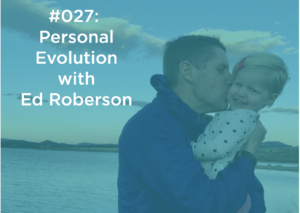
If you listened to the previous episode above, then you know that I'm mixing things up a bit. This is Part 2 of a two-part series in which I'm the one in the hot seat. This episode is a repost of my recent appearance on the Truth & Dare Podcast, a wonderfully inspiring show that features in-depth conversations about personal growth, risk-taking, and living life to the fullest.
In the first part of this two-part series, you'll remember it being detailed discussion around my professional interests—land, water, and agriculture. This conversation on Truth & Dare is equally detailed and deep, but focused almost exclusively on my personal life—my journey from North Carolina to the West, my obsession with long-distance running, the crazy way that I met my wife, lessons learned for a semester of NOLS, how my wife and girls' influence has made me a much better person, and much more. Many of the books and ideas that we've discussed on Mountain & Prairie play a big role in my personal evolution from wanna-be real estate developer to conservationist, so I wanted to share this with you all.
As you'll hear, the host Camden is a curious, kind, and natural conversationalist who likes to talk deeply about subjects of substance—not surface-level nonsense. I was turned on to her podcast when she interviewed my friend—artist, surfer, and family-man Kevin Mirsky—and I was thrilled and a little nervous when she asked me to join her on the show. But we had an instant connection and a great conversation that I hope you'll enjoy. But regardless of my episode, if you are interested in personal growth and stories of people who have taken unconventional paths, you should definitely give Truth & Dare a listen.
A huge thanks again to Camden for having me on, thanks to you all for listening, and I'll be back with regular Mountain & Prairie episodes in the next few days.
Click Here to Download on iTunes
---
Click Here to Download on Spotify
---
Click Here to Download on Google Play
---
Click Here to Download on Stitcher
---
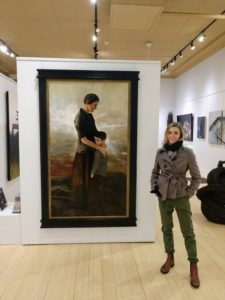
Morgan Irons is a Montana-based artist whose captivating oil paintings combine the classic style of late 19th-century painters with her own modern-day interpretation of the West’s people and places. When I first discovered Morgan’s art, I assumed I was looking at the work of a classically trained artist who’d been in the trenches of painting for decades… and I couldn’t have been more wrong. Morgan has only been painting since 2015, with virtually no artistic training prior. Her innate talent is matched only by her work ethic and commitment to the craft—she has built her life around the process of making art, which is inspiring and instructive for anyone with creative aspirations.
Morgan was born in Durango and spent her youth in various parts of the West, including Alaska and Idaho. After college in the flat midwest, she immediately returned to more rugged landscapes, working in Alaska and eventually landing in Bozeman. She tried her hand at a “normal” job but found the corporate world to be uninspiring and frustrating. So rather than wallow and complain, she moved on from that job and soon thereafter, discovered her talent for painting. Since then, she’s gone all-in on her career as an artist, and she is building quite a strong following in the art world.
If you are a person who dreams of pursuing your creative passion full time, then you will love this episode—it’s full of actionable ideas around art and the creative process. We talk about the remote cabin where Morgan lives and paints, and why she needs solitude and open spaces for maximum creative output. We discuss her daily routine and how she primes her artistic mindset through hiking, meditation, and writing. We also discuss how she blocks out distractions and her techniques for using the productive aspects of social media while avoiding the time-wasting traps. We obviously talk about the point when she discovered her talent for painting and how she has honed that talent through workshops and mentorships from top painters. Finally, Morgan tells some great stories about hunting for ghosts with her dad, her favorite books, a bear that broke into her car, and the importance of having no “Plan B.” Enjoy!
Photos courtesy of Morgan Irons
Click Here to Download on iTunes
---
Click Here to Download on Spotify
---
Click Here to Download on Google Play
---
Click Here to Download on Stitcher
---
Episode Notes
Topics Discussed:
- 5:00 - Where Morgan is based
- 6:00 - Why Morgan likes solitude
- 8:00 - Balancing technology—productivity vs. distraction
- 11:00 - Morgan’s younger years
- 12:00 - Heading to college in St. Louis
- 14:30 - Family history in Alaska
- 17:30 - Job in Alaska
- 22:00 - Lessons learned in Alaska
- 23:00 - Moving in Bozeman
- 25:15 - Discovering art
- 27:00 - Buying paint and starting to make art
- 30:00 - Feelings during the process of painting
- 32:30 - Learning from the masters while keeping the originality
- 35:30 - Formal learning from world-class artists
- 38:00 - Learning from fellow students as well as professors
- 40:00 - Daily routines
- 44:00 - Meditation practice
- 46:30 - Balancing friendships with her need for solo time
- 50:00 - How the West shapes her work
- 53:30 - Mentors and artists Morgan admires
- 56:00 - A non-painting artist who Morgan admires
- 58:30 - How her psychology degree has helped her art
- 1:00:00 - Favorite books
- 1:04:00 - Ghost hunting!
- 1:08:30 - Crazy bear encounter
- 1:12:00 - Words of wisdom
- 1:14:30 - Connect with Morgan online
Information Referenced:
- Morgan Irons
- Morgan on Instagram
- The War of Art by Steven Pressfield
- Jeremy Lipking
- Joshua LaRock
- Grand Central Atelier
- Headspace
- Sam Harris
- Waking Up meditation app
- Daniel Anderson podcast
- Melissa DiNino podcast
- Michael Untiedt
- Jules Breton
- Song of the Lark painting
- Bill Murray story about Song of the Lark
- Florence Welch
- Avett Brothers
- Mark Maggiori podcast
- Russell Rowland
- In Open Spaces by Russell Rowland
- Fifty-Six Counties by Russell Rowland
- This Much Country by Kristin Pace
- Daily Rituals by Mason Curry
- The Unbearable Lightness of Being by Milan Kundera
- Bigfoot podcast: Wild Thing
Enjoy this episode? Then you might like these as well:
- Logan Maxwell Hagege – Artistic Evolution
- Daniel Anderson – Finding Common Ground
- Melissa DiNino – Building a Unique Life in Big Sky Country
- Mark Maggiori – A Fresh View of the American West
- Nicholas Coleman – Painting the Heritage and History of the American West
- Teal Blake – On Being Authentic & Original
- Duke Beardsley – Art in the Big, Bold American West
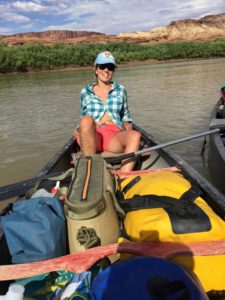
Heather Hansman is a freelance writer and editor whose work explores the intersection of science, adventure, and culture. Her new book Downriver: Into the Future of Water in the West should be required reading for everyone who enjoys this podcast—it strikes the perfect balance of being entertaining and educational while examining all sides of the many issues facing the West's water supply. There are few topics in the West as divisive and emotional as water, and in her book, Heather provides a balanced overview of all the issues, delving deep into the substance of water-related arguments, without crossing over into the mind-numbing jargon that defines most water-related writing.
The book follows Heather's 730-mile float down the length of the Green River, starting at the base of Wyoming's Wind River mountains and ending at the confluence of the Green and Colorado Rivers in Utah. Along the way, she meets with a wide range of western water stakeholders—ranchers, farmers, river guides, government employees, scientists, conservationists, and more—and digs into their sometimes competing interests fighting for their shares of water in the West. But the book is far from an academic examination of water law—Heather paddled two-thirds of the river completely alone, so there is also a compelling adventure narrative that runs throughout the book.
To understand most of the challenges facing the West, you need to understand water, and this episode is a perfect place to start. Heather and I start our conversation by laying out some of the basics around water—terminology that you may have heard thrown around but never truly understood. She explains how water in the West is a property right separate from land, and she explains some of the common
As a guy who spends much of my day working with water and water rights, I can't thank Heather enough for writing this book. I hope you enjoy this conversation as much as I did!
Photos courtesy of Heather Hansman
Click Here to Download on iTunes
---
Click Here to Download on Spotify
---
Click Here to Download on Google Play
---
Click Here to Download on Stitcher
---
Episode Notes
Topics Discussed:
- 4:15 - Events leading to writing the book
- 7:30 - Overview of the river trip
- 11:00 - Women pursuing adventure for adventure's sake
- 15:00 - Water as a private property right
- 16:30 - What does “over-allocation” mean?
- 19:20 - How do we overcome water shortages?
- 20:30 - Transbasin diversions and the West’s plumbing system
- 23:00 - Ins-and-outs of dams
- 26:00 - Importance of being open-minded to all sides of issues in the West
- 29:40 - “Water flows uphill towards money”
- 32:00 - True value of water
- 33:45 - Potential water crisis
- 35:00 - Reasons for optimism
- 39:10 - Early years of river guiding
- 42:30 - Pursuing a career in journalism
- 44:30 - Benefits of journalism grad school
- 45:45 - Process of writing and writing the book
- 48:00 - Mentors
- 50:50 - Becoming a full-time writer
- 52:15 - Favorite books
- 56:30 - Favorite films
- 57:30 - Scariest event on the Green River trip
- 1:02:30 - Favorite location in the West
- 1:05:00 - Request of the podcast listeners
- 1:06:30 - Connect with Heather online
Information Referenced:
- Heather Hansman
- Downriver: Into the Future of Water in the West by Heather Hansman
- Heather on Instagram and Twitter
- Wild by Cheryl Strayed
- Mike Phillips interview
- Pete McBride interview
- Pat Mulroy
- Freeskier magazine
- Megan Michelson
- Longform podcast
- Raven’s Exile by Ellen Meloy
- The Far Away Brothers by Lauren Markham
- The Rise Theodore Roosevelt by Edmund Morris
- The Monkey Wrench Gang by Edward Abbey
- Encounters with the Archdruid by John McPhee
- There There by Tommy Orange
- Peter Heller
- Damnation
- Life of Pie
Enjoy this episode? Then you might like these as well:
- Charles Post – Stewardship, Science & Storytelling
- Brian Calvert – In-Depth Journalism in the New West
- Sarah Wentzel-Fisher – Conservation in the Radical Center
- Rebecca Jewett – Big Ideas for the New West
- Pat O’Toole – Six Generations of Balanced Ranch Stewardship
- Spencer Williams – From River Guide to Water Innovator
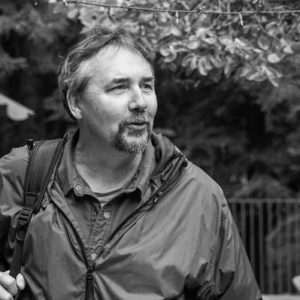
If you're a regular Mountain & Prairie listener, then you are undoubtedly familiar with best-selling author David Gessner. He has written several of my all-favorite books, most notably All the Wild That Remains: Edward Abbey, Wallace Stegner, and the American West. He was also a past guest on this podcast almost exactly a year ago—a conversation that continues to receive excellent feedback and ranks as one of my most downloaded episodes. Between his writing, teaching, chairing the Creative Writing department at University of North Carolina Wilmington, and his role as a committed family man, David is a busy guy—so I greatly appreciate his sitting down to record a second episode.
We caught up during his annual trip to Colorado and covered a wide range of fascinating topics, all presented with his signature style of deeply considered insightfulness balanced with a hilarious sense of humor. We chatted about his ongoing work on his new book about public lands and Theodore Roosevelt, as well as a recent research trip in which he flew in a Cessna from Colorado to northwest Montana and many places in between. We discussed his thoughts on Theodore Roosevelt, and how his opinions of the man have evolved throughout this book project. David shares more insights into his writing process and how endurance and team sports have helped build his discipline and work ethic as an author. We spend a good amount of time discussing his book Ultimate Glory, digging into the mindset that allowed David to pursue the sport of Ultimate Frisbee—and writing—with laser-focused obsession. We finish up by chatting about some of the best books he's read in the past year, as well as one relatively unknown author that everyone who loves the West should read.
This episode will obviously be of great interest to people who love the West, but I highly recommend it to anyone who is focused on a creative pursuit—writing, painting, poetry, sculpture, you name it. Thanks to his decades of daily grinding and obsession, David is a shining example of the discipline and commitment required to be a professional artist, and he's damn good at explaining it in a way that really sinks in.
If you haven't already, check out my first conversation with David as well—there's a link in the episode notes. But right now, enjoy this enlightening and hilarious conversation with David Gessner.
Headshot courtesy of David Gessner, Banner photo by Ed
Click Here to Download on iTunes
---
Click Here to Download on Spotify
---
Click Here to Download on Google Play
---
Click Here to Download on Stitcher
---
Episode Notes
Topics Discussed:
- 4:00 - The importance of Boulder, Colorado in David’s life and work
- 9:00 - Endurance feats as a metaphor for writing
- 11:00 - Importance of having massive goals
- 12:45 - Importance of ambition
- 15:00 - Current book project and trip to the West
- 18:45 - Recent flight around the West
- 20:00 - Examining TR in a modern context
- 22:20 - Reluctance to become an activist
- 25:50 - Changing perspectives on TR
- 30:00 - Political cartooning
- 32:00 - David on taking feedback from editors and others
- 35:15 - Importance of constraints in writing and life
- 39:50 - Arête
- 42:15 - Finding camaraderie outside of team sports
- 46:50 - Teaching the writing mindset
- 50:50 - Best books David read this year
- 53:45 - Lesser known authors worth reading
Information Referenced:
- David Gessner
- David’s Part 1 Podcast
- All the Wild That Remains by David Gessner
- Ultimate Glory by David Gessner
- All of David’s books
- Oak Thorne
- Flagstaff Mountain
- Reg Saner
- Under the Devil’s Thumb by David Gessner
- Life Work by Donald Hall
- Walter Jackson Bate
- John Keats
- David’s article about Bears Ears
- Rick Bass
- American Prairie Reserve
- Auden Schendler episode
- Edmund Morris
- Nina de Gramont
- How to Change Your Mind by Michael Pollan
- The Overstory by Richard Powers
- Bernard DeVoto
- This Land by Christopher Ketcham
Enjoy this episode? Then you might like these as well:
- David Gessner – Voice of the West’s Past and Present
- Hampton Sides, Part 2 – How to Tell a Damn Good Story
- Sara Dant – A Deep Dive Into the History of the West
- Chris Dombrowski – Words, Water & the West
- Bryce Andrews – People, Predators, and the American West
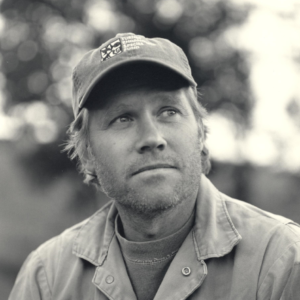
Mike Phillips is the Director of the Turner Endangered Species Fund (“TESF”), an organization that he co-founded in 1997 with Ted Turner. Mike is also a Montana state senator representing District 31, which encompasses parts of his hometown of Bozeman and the surrounding area. In his work as an ecologist, Mike has spent much of his career studying and implementing the reintroduction of wolves throughout the United States. And in both science and politics, he’s never shied away from taking vocal leadership roles involving a wide range of important issues in southwest Montana and beyond
Mike is very well known for his work with gray wolves in the Greater Yellowstone Ecosystem, and also for his efforts to reintroduce the species into western Colorado. But as you’ll hear in our conversation, wolves are just a small part of his work-- his overarching interest is the persistence of many imperiled species, with a particular emphasis on private land’s role in the recovery efforts. Whether considering the fate of monarch butterflies, cutthroat trout, or gray wolves, Mike’s approach is the same-- an action-oriented, science-backed strategy toward conserving biological diversity.
No matter where you stand on the issue of gray wolf reintroduction, I encourage you to give this conversation with Mike a very close listen. If you’re like me, you’ll be struck not only by his passion for ecology but by his deep reliance on non-emotional, quantitative scientific data. You’ll also notice his insatiable curiosity and his willingness to change his when presented with compelling new information. And finally, I think you’ll be impressed by his ability to discuss controversial topics such as wolves or politics in a respectful, considered tone that welcomes conversation and input from all sides of the issues
Headshot courtesy of Mike Phillips
Click Here to Download on iTunes
---
Click Here to Download on Spotify
---
Click Here to Download on Google Play
---
Click Here to Download on Stitcher
---
Episode Notes
Topics Discussed:
- 3:30 - Beginnings of the Turner Endangered Species Fund
- 9:30 - Mike’s background in ecology
- 14:00 - TESF success stories
- 17:30 - Wolf recovery in Colorado
- 24:30 - Mike addresses the counterarguments to wolf recovery
- 35:00 - Mike’s ability to not shy away from conflict—in ecology and politics
- 39:30 - Decision to enter into politics
- 43:30 - Importance of being mission and service oriented
- 44:30 - Lessons learned from baseball
- 47:30 - Importance of being able to “see around the next corner”
- 48:30 - Private land’s role in conservation
- 53:30 - Favorite books
- 56:00 - Favorite films
- 58:00 - Favorite location in the West
- 1:00:00 - Request of the listeners
Information Referenced:
- Turner Endangered Species Fund
- Ted Turner
- Bolson Tortoise
- TESF Gray Wolf work
- Rocky Mountain Wolf Project
- Endangered Species Act
- "Coyote Whacking" article
- Song of the Dodo by David Quammen
- The Sixth Extinction by Elizabeth Kolbert
- Report on the Lands of the Arid Region of the United States by John Wesley Powell
- The American West as Living Space by Wallace Stegner
- The Fog of War
Enjoy this episode? Then you might like these as well:
- Bryce Andrews – People, Predators, and the American West
- Melissa DiNino – Building a Unique Life in Big Sky Country
- Brian Calvert – In-Depth Journalism in the New West
- Dan Flores – Chronicling the West’s Rich Natural History

James Decker is a farmer, attorney, and the Mayor of Stamford, TX, a tight-knit agricultural community located about 45 minutes north of Abilene. James grew up in Stamford, left for college and law school, but immediately returned home to begin his career-- his love of his hometown and desire to contribute to its success far outweighed any material success that could result from practicing law in a big city. With his service-oriented mindset and natural leadership abilities, James worked his way up from city council to Mayor, all while working as an attorney and growing his family.
Like so many devoted small-town mayors, James is driven by a deep desire to see his community thrive, despite the many forces that seem to be conspiring against small-town America. He approaches local politics with an inspiring amount of focus and determination, and he’s not afraid to seek out new ideas from a variety of sometimes-unexpected sources. His weekly essays are worth a read whether you live in Stamford or not-- he explores subjects ranging from the nuts and bolts of economic development to the writings of Wendell Berry to quotations from Theodore Roosevelt.
James is a shining example of the positive impact that one passionate person can have when he or she decides to lead with enthusiasm, optimism, and old-fashioned hard work. We covered a lot in our conversation, starting with his upbringing in Stamford and some of the history of the town. We talk about how he chose to return to Stamford after law school, despite having plenty of other opportunities elsewhere. We discuss the challenges facing rural America and how he chooses to approach economic development with an aggressive, proactive posture. We also talk about his mentors and heroes, and how his love of history and biographies inform his leadership. We obviously talk a lot about Wendell Berry and Theodore Roosevelt, as well as his favorite books and our shared love of the greatest movie of all time, Road House.
The West is full of many small agricultural towns, and many of those communities share the same opportunities and challenges facing Stamford. I think you’ll be inspired by this episode, and be sure to check the notes for links to everything we discuss. Enjoy!
Photos courtesy of James Decker
Click Here to Download on iTunes
---
Click Here to Download on Spotify
---
Click Here to Download on Google Play
---
Click Here to Download on Stitcher
---
Episode Notes
Topics Discussed:
- 4:15 - How James describes his work
- 5:00 - Stamford, Texas described
- 7:00 - Family history
- 8:30 - Growing up in Stamford
- 9:30 - Choice to return to Stamford
- 15:30 - Local heroes and mentors
- 18:00 - What creates community pride?
- 22:30 - James’s weekly essays
- 26:00 - Decision to run for mayor
- 28:00 - Biggest surprise of being mayor
- 31:30 - Biggest challenge facing Stamford
- 35:30 - Economic opportunities in small towns
- 39:45 - Sources of inspirations, Wendell Berry and TR
- 45:15 - Seeking out different opinions
- 47:00 - National and local politics
- 51:45 - How kids have changed James’s perspective
- 57:00 - Importance of aggression
- 1:00:00 - Best Texas history books
- 1:02:30 - Favorite books
- 1:08:50 - Favorite films
- 11:11:30 - Hobbies away from work
- 1:13:30 - Favorite location in the West
- 1:15:30 - Best advice ever received
- 1:16:30 - Request of the listeners
- 1:18:00 - Connect with James
Information Referenced:
- James on Twitter, Instagram, and Facebook
- Stamford, Texas
- The Bullock Texas State History Museum
- Wendell Berry
- Theodore Roosevelt
- Citizenship in a Republic
- The Unsettling of America by Wendell Berry
- Jesse Womack podcast
- The Second Mountain by David Brooks
- Russ Schnitzer podcast
- Lone Star by TR Fehrenbach
- Lone Star Nation by HW Brands
- HW Brands
- HW Brands on Twitter
- Goodbye to a River by John Graves
- Empire of the Summer Moon by SC Gwynne
- Elmer Kelton
- The Time it Never Rained by Elmer Kelton
- Theodore Roosevelt Trilogy by Edmund Morris
ROAD HOUSE - Lonesome Dove
- Jim Howell podcast 1 and 2
Enjoy this episode? Then you might like these as well:
- Teal Blake – On Being Authentic & Original
- Jay Kleberg – True Dedication to Conservation, Adventure & Texas
- Jesse Womack – Land Stewardship is in His Blood
- Allison Ryan – Connecting People With Place
- John Dunaway – Life and Times of a Merchant Mariner
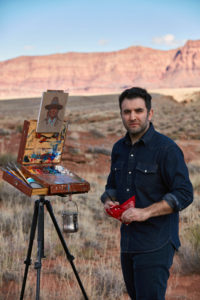
If you love the West and you love art, then you are likely already a fan of Logan Maxwell Hagege. He is a renowned painter whose depictions of the people and landscapes of the West have won him acclaim around the globe. His work is as stunning as it is unique, and when you see one of Logan’s pieces, there’s no doubt in anyone’s mind as to exactly who painted it. He uses bold colors and striking composition to create a style that is entirely his own-- a style that continues to evolve, even after all of his success.
Logan was born and raised in California, and he has been an obsessive artist for as long as he can remember. Whether drawing, playing music, surfing, or painting, Logan has always gone “all in” on his creative pursuits. And as you’ll hear, Logan’s tendency towards obsession is fueled by a tireless work ethic and deep commitment to continuing to grow as an artist-- he is always pushing himself and refuses to rest on his laurels. That’s not to say that Logan doesn’t suffer from artistic blocks from time to time. But when he does, rather than wallow, he’s developed hard-nosed, time-tested methods of summoning creativity and continuing to push forward.
I’ve been a fan of Logan’s for many years, so I was thrilled to get the opportunity to chat with him. We covered a lot, including his childhood creative obsessions and how his parents nurtured his artistic streak. We talk about his formal art education, and how he made the jump from art student to professional artist. Logan describes the evolution of his work, and how his early paintings are almost unrecognizable when compared to his current style. We chat about how he maintains focus after so many years of professional art, and he describes specific ways that he pushes himself to continue to evolve as an artist. He explains how he knows when a painting is finished, and how having a son has changed his routine and outlook. And as usual, we discuss favorite books, films, and the best advice he’s ever received.
There’s a ton of useful information in this episode so be sure to check the episode notes for links to everything. Enjoy!

Photos by Jason Frank Rothenberg for Best Made Co.
Click Here to Download on iTunes
---
Click Here to Download on Spotify
---
Click Here to Download on Google Play
---
Click Here to Download on Stitcher
---
Episode Notes
Topics Discussed:
- 4:00 - How Logan describes his work
- 6:30 - Logan’s childhood artistic endeavors
- 8:15 - Art education
- 10:00 - Transition from art school to professional artist
- 12:15 - Old work compared to new work
- 15:00 - Transition to a new style of painting
- 16:45 - Source of Logan’s independence
- 19:15 - Importance of work ethic
- 20:30 - How he keeps the artistic motivation alive
- 21:20 - When the southwest became a focus
- 23:15 - Logan’s daily creative schedule
- 25:00 - How parenthood affected Logan’s outlook
- 26:30 - Logan’s studio spaces
- 28:00 - The inspiration for Logan’s works
- 29:45 - How to know when a painting is done
- 32:00 - Thoughts on looking at others’ artwork
- 35:00 - What Logan listens to while painting
- 36:30 - The business of art
- 38:35 - Mentors and heroes
- 41:00 - Books on creativity
- 42:30 - Other non-art activities
- 46:30 - Favorite books
- 48:30 - Daily rituals and getting to work
- 51:00 - More favorite books
- 52:00 - Favorite films
- 54:30 - Most powerful outdoor experience
- 58:45 - Best advice ever received
- 1:03:30 - Request of the listeners
Information Referenced:
- Logan Maxwell Hagege
- Logan on Instagram and Facebook
- Joaquin Sorolla
- Dan McCaw
- Glenn Dean
- Maynard Dixon
- Georgia O’Keeffe
- Vincent Van Gogh
- Claude Monet
- Bob Dylan
- The Art Spirit by Robert Henri
- Hawthorne on Painting by Charles Hawthorne
- Desert Solitaire by Edward Abbey
- David McCullough
- Daily Rituals by Mason Curry
- Chuck Close
- The Wright Brothers by David McCullough
- Born Standing Up by Steve Martin
- Andrew Wyeth - PBS Documentary
- Snow Hill by Bo Bartlett
- Herb and Dorothy
- The Cool School
- Jeremy Lipking
- Josh Elliott
- Scott Burdick
Enjoy this episode? Then you might like these as well:
- Mark Maggiori – A Fresh View of the American West
- Teal Blake – On Being Authentic & Original
- Daniel Vergés – The Pursuit of Simplicity in Art & Life
- Duke Beardsley – Art in the Big, Bold American West
- AD Maddox – The Art of Trout and Fly Fishing
- Nicholas Coleman – Painting the Heritage and History of the American West
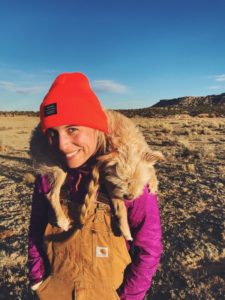
Mary Rondepierre is a fourth-generation Montanan, avid sportswoman, and a public lands advocate who has explored our nation’s wild places from coast to coast. She is also the Marketing and Experiences Manager at Filson, one of the most renowned and respected outdoor apparel brands anywhere. Currently based in Seattle, Mary has managed to combine her personal and professional passions into an exciting and rewarding career that melds together high-performance business with conservation and time in wide-open spaces.
As a child, Mary grew up in a household that respected the outdoors and valued rich experiences over accumulating endless amounts of “stuff.” Her father worked as a commercial fisherman and logger, wearing-- you guessed it-- Filson gear to his jobs in the often-brutal environments of Alaska and the West. Mary headed to Oregon State for college, and soon after graduation entered the apparel business, eventually landing at Filson. Since then, she’s worn many hats at the company and now works closely with Filson’s partnership with Backcountry Hunters and Anglers, helping to produce their “Campfire Stories” events around the country.
If you’re like me, love the outdoors, and own a ridiculously large stash of gear, odds are you’ve dreamed about working at a well-known outdoor apparel company. Mary’s career serves as an excellent case study for anyone interested in pursuing this path, and she reveals how she managed to land such a dream job. We talk about her education and early career, as well as her decision to work retail at Filson to “get her foot in the door.” We discuss the critical lessons she learned from working on the sales floor, and how those retail experiences inform and enhance her current role at Filson. We chat about an epic road trip she took with her husband in which they visited public lands from coast to coast, and we talk about how her upbringing in rural Montana instilled a deep love and respect of public lands. As usual, we discuss favorite books, places in the West, and the best advice she’s ever received. Enjoy!
Photos courtesy of Mary Rondepierre
Click Here to Download on iTunes
---
Click Here to Download on Spotify
---
Click Here to Download on Google Play
---
Click Here to Download on Stitcher
---
Episode Notes
Topics Discussed:
- 4:30 - How Mary describes her work
- 6:30 - History of Filson
- 9:40 - Holding high standards
- 11:45 - Outdoor apparel marketing
- 13:30 - Partnership with Backcountry Hunters and Anglers
- 18:10 - How Mary began working in outdoor apparel
- 19:00 - Mary’s dad’s secret camps!
- 20:00 - Family history in Montana
- 22:55 - Childhood outdoor adventures
- 24:00 - Decision to leave Montana
- 26:30 - First job out of college
- 28:30 - First job at Filson
- 30:10 - Experience working retail
- 33:30 - Filson’s “Unfailing Goods”
- 35:30 - Humility gained from retail
- 38:00 - Advice to recent college grads
- 41:00 - Thoughts on reading business books versus real-world experience
- 44:10 - Epic public lands roadtrip
- 49:30 - Proposal story!
- 42:00 - Lessons learned from the road trip
- 55:00 - Favorite spots in the PNW
- 59:30 - Awesome TR side conversation
- 1:01:45 - Mentors
- 1:04:30 - Favorite books
- 1:09:00 - Most powerful outdoor experience
- 1:12:45 - Favorite location in the West
- 1:13:30 - Best advice ever received
- 1:14:30 - Request of the listeners
- 1:16:00 - Connect with Mary
Information Referenced:
- Mary on Instagram
- Filson
- The Klondike Quest by Pierre Berton
- Backcountry Hunters and Anglers
- BHA-Filson Campfire Stories
- The Moth
- Bigfork, Montana
- Hoka shoes
- Jessica Lewis podcast
- Bryce Andrews podcast
- Down from the Mountain by Bryce Andrews
- Badluck Way by Bryce Andrews
- Jim Harrison
- Dalva by Jim Harrison
- A Good Day to Die by Jim Harrison
- Legends of the Fall by Jim Harrison
- This House of Sky by Ivan Doig
- Deep Creek by Pam Houston
- Cowboys Are My Weakness by Pam Houston
- Sarah Calhoun podcast
Enjoy this episode? Then you might like these as well:
- Melissa DiNino – Building a Unique Life in Big Sky Country
- Sarah Calhoun – Community Building Through Commerce
- Christine Su – The Business of Healthy Grasslands
- Connor Coleman – How to Build a Meaningful Life in the West
Bryce Andrews - People, Predators, and the American West
Bryce Andrews is a Montana-based rancher, conservationist, and author whose unique set of experiences gives him uncommon insights into the relationship between humans and carnivores in the West. Having worked as a ranch hand, ranch manager, and ranch owner, Bryce understands agriculture and the myriad of challenges faced by producers. As Field Director at the non-profit People and Carnivores, he has gained first-hand knowledge of the predicaments facing large predators in the Rockies. And as an author, he has researched and written extensively about all sides of the issue-- most notably in his books Badluck Way and his new book Down from the Mountain, which was published earlier this week.
Bryce grew up in Seattle, far removed from ranching, farming, and the arid ruggedness of the Rocky Mountain West. But soon after college, he landed an entry-level job at the 20,000-acre Sun Ranch, located in Montana’s spectacular Upper Madison River Valley. On the Sun Ranch, Bryce received a trial-by-fire education in the sometimes-problematic relationship between agriculture and wild animals, a relationship he has spent much of his professional career exploring. The latest manifestation of this exploration is Down from the Mountain, an educational, entertaining, and sometimes-heartbreaking book that explores specific interactions between grizzly bears and farms in Montana’s Mission Valley. I was lucky enough to receive an advanced copy of this book and cannot recommend it enough.
If you are familiar with this podcast and the topics that I love to discuss, then you know that Bryce is a perfect guest. He’s smart, funny, insightful, and has a real gift for explaining complex, sometimes controversial topics in an engaging way. We talked a lot about Down from the Mountain, discussing grizzlies, farming, and the unique location and topography of the Mission Valley. We talk about Bryce’s upbringing in Seattle, and what drove him to explore the West after college. We discuss his work with People and Carnivores, and how his background in agriculture helps him to span the divide between his organization and the farming and ranching communities. Bryce also explains his writing and research process and offers some excellent advice for aspiring authors. And as usual, we spend a lot of time discussing books, authors, and his most powerful outdoor experience.
I encourage you to find a copy of Down from the Mountain and give it a read. You will not be disappointed!
Photos courtesy of Bryce Andrews and HMH Publishing
Click Here to Download on iTunes
---
Click Here to Download on Spotify
---
Click Here to Download on Google Play
---
Click Here to Download on Stitcher
---
Episode Notes
Topics Discussed:
- 4:00 - Bryce describes his work
- 5:20 - How Bryce started ranching
- 6:30 - First experiences ranching
- 7:20 - Heading to the Rockies after college
- 9:00 - Getting a hand-hold in ranching
- 10:30 - Culture shock of the West
- 13:50 - First encounter with carnivores
- 16:30 - Primal thrill of wildlife encounters
- 17:30 - Work with People and Carnivores
- 20:00 - Finding common ground in the carnivore controversies
- 25:00 - “Down from the Mountain”
- 29:00 - Mission Valley explained
- 34:00 - Similarities between humans and Grizzlies
- 37:30 - Unexpected tension of bears in a cornfield
- 41:20 - Bryce’s history as a writer
- 42:50 - Favorite/important writers
- 46:30 - Bryce’s relationship with writing
- 50:00 - Writing, the flow state, and fear
- 52:00 - Intense life events versus the boring “real world”
- 56:15 - Advice for aspiring writers
- 59:45 - Favorite books about the West
- 1:01:50 - Most powerful outdoor experience
- 1:03:30 - Request of the listeners
- 1:05:30 - Connect with Bryce
Information Referenced:
- Down from the Mountain: The Life and Death of a Grizzly Bear by Bryce Andrews
- Badluck Way: A Year on the Ragged Edge of the West by Bryce Andrews
- People and Carnivores
- Sun Ranch
- Madison River
- A Sand County Almanac by Aldo Leopold
- The Meadow by James Galvin
- David James Duncan
- Chris Dombrowski
- Chris Dombrowski podcast
- Coming Home to the Pleistocene by Paul Shepard
Angle of Repose by Wallace Stegner- Perma Red by Debra Magpie Earling
Enjoy this episode? Then you might like these as well:
- Chris Dombrowski – Words, Water & the West
- Dan Flores – Chronicling the West’s Rich Natural History
- Melissa DiNino – Building a Unique Life in Big Sky Country
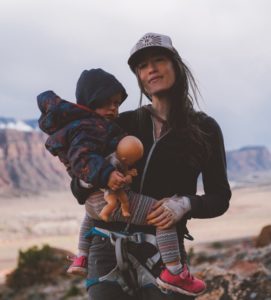
Jessica Lewis is a Montana-based metalsmith who is best known for the beautifully unique jewelry she creates for her online shop, Ruby and Revolver. She is also the mother of a two-year-old daughter, who she is raising with her husband in the home they constructed with their own hands in Montana’s Bitterroot Valley. Thanks to her tireless work ethic and disciplined creativity, Jessica has built an authentic and full life around the things she loves most-- her family, her craft, and Western landscapes.
Montana’s rugged mountains and valleys have been a part of Jessica’s life for as long as she can remember, and even though she has traveled widely, she has always returned to Big Sky Country. The Rocky Mountain landscapes inform many aspects of her work, as does her ethic of “doing more with less.” By American standards, she and her family embrace a purposefully minimalist lifestyle which allows Jessica to focus on quality over quantity in both her professional and personal endeavors. In our world of constant connectivity and endless distraction, I’m truly inspired by Jessica’s genuine and mindful approach toward living a simple yet rich and meaningful life.
Jessica was kind enough to take a break from her numerous projects for this fun conversation about her life, creative process, and love of Montana. We chatted about how she got her start making jewelry and how the impending birth of her daughter inspired her to pursue art full time. We talked about how she began making jewelry with the simplest of tools, and how the desire for fancy equipment can distract from the act of making art. We talk a lot about parenthood, and Jessica explains how becoming a mother shifted her perspectives on work and life. We discuss our shared appreciation for Stoic philosophy, and how several specific books have impacted Jessica’s creativity. We talk about the importance of international travel and wisdom gained from spending time abroad. And as usual, we discuss favorite books about the West, the best advice she’s ever received, and several of her unexpected hobbies.
I really loved the conversation and know you will too. Thanks again to Jessica for taking the time to chat. Enjoy!
Photos courtesy of Jessica Lewis
Click Here to Download on iTunes
---
Click Here to Download on Spotify
---
Click Here to Download on Google Play
---
Click Here to Download on Stitcher
---
Episode Notes
Topics Discussed:
- 3:40 - How Jessica describes her work
- 5:00 - Jessica’s jewelry described
- 7:00 - Embracing the rawness of her work
- 8:50 - Materials used for her jewelry
- 10:30 - Why she was drawn to metalworking
- 12:15 - Starting out with simple tools
- 14:30 - Importance of her studio
- 17:00 - Making the leap into full-time art
- 19:45 - The bravery to pursue artistic dreams
- 22:50 - How kids change parents’ perspectives
- 23:45 - Creative mentors and influences
- 25:50 - Books that have influenced creativity
- 29:30 - Daily routines
- 30:55 - Importance of exercise
- 31:50 - Living in the Bitterroot Valley
- 32:45 - Growing up in Montana
- 35:30 - International travels*
- 36:45 - Lessons learned from international travel
- 39:00 - “Doing more with less"
- 42:00 - Ed’s weird story about accumulating junk
- 44:00 - More on parenthood and its effects
- 46:10 - Advice to new parents
- 48:30 - Current project of building a new house by hand
- 52:00 - Jessica’s healthy relationship with technology
- 57:15 - Advice to aspiring creatives
- 59:50 - Favorite books
- 1:03:25 - Favorite films
- 1:05:30 - Surprising activities
- 1:07:00 - Favorite location in the West
- 1:08:30 - Best advice received
- 1:10:30 - Request of the listeners
- 1:11:50 - Connect with Jessica online
- (*Quick correction - In our discussion around travel, we mistakenly mispoke about Maoist insurgency in Vietnam, which was incorrect. The insurgency was in Nepal, where Jess also worked in the women's clinic. Apoloigies for any confusion!)
Information Referenced:
- Ruby and Revolver
- Jessica on Instagram
- Matt Eich - Instagram and Website
- The Obstacle is the Way by Ryan Holiday
- Stoic Philosophy
- The War of Art by Steven Pressfield
- Florence, MT
- Digital Minimalism by Cal Newport
- Deep Work by Cal Newport
- Screen Time App for iPhone
- Bury My Heart at Wounded Knee by Dee Brown
- Mountain & Prairie Book Club
- Meditations by Marcus Areilus
- Sapiens by Yuval Noah Harari
- The Daily Stoic by Ryan Holiday
- The Dawn Wall
- A River Runs Through It
- Bob Marshall Wilderness
- Frank Church Wilderness
- Bitterroots
- Sawtooths
Enjoy this episode? Then you might like these as well:
- Jillian Lukiwski – Art and Adventure in the American West
- Camrin Dengel – Slow Living in the American West
- Cate Havstad – Cultivating Creativity & Craftsmanship
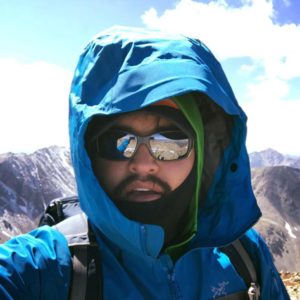
Len Necefer is a scholar, entrepreneur, and outdoor adventurer who is also a proud member of the Navajo Nation. Academically, Len holds a Ph.D. in engineering and public policy, and he is currently a professor of both Indian Studies and public policy at the University of Arizona. In business, he’s the CEO of NativesOutdoors, a cutting-edge outdoor apparel company that uses its platform to advocate for the cultural empowerment indigenous people. And to top it all off, Len is a committed mountaineer, backcountry skier, and rock climber, having ticked off countless impressive adventures throughout the West.
It is clear that Len has accomplished a lot personally, but what is even more impressive is the positive ripple effect his work is having on the outdoor industry. By melding his professional expertise, personal interests, and cultural heritage, he has become one of the leading voices advocating for Native American representation in outdoor recreation and conservation. His work and personal story have been featured in big-time publications such as Outside and Alpinist, and he’s recently delved into filmmaking with his newest film Welcome to Gwichyaa Zhee. As you’ll hear, Len has a unique ability to educate and inspire, and his message is striking a chord with a large, engaged audience.
As you’d expect from a guy as multifaceted as Len, he offers up a wealth of knowledge in our conversation. We talked about his Navajo heritage and discussed the unique history and culture of the Navajo tribe. We chatted about his recent film and discussed the of impact oil and gas development on Native populations in areas such as Bears Ears and the Arctic National Wildlife Refuge. We chatted about the need for mutual respect between the outdoor industry and indigenous groups, and Len explains two fascinating case studies around rock climbing on sacred Native lands. He gives an excellent overview of his company NativesOutdoors, and he explains why he chose to start a business instead of a non-profit. And as usual, we discuss favorite books, films, and the best advice he ever received.
Thanks so much to Len for carving out time to chat. I hope you enjoy this conversation as much as I did!
Photos courtesy of Len Necefer
Click Here to Download on iTunes
---
Click Here to Download on Spotify
---
Click Here to Download on Google Play
---
Click Here to Download on Stitcher
---
Episode Notes
Topics Discussed:
- 4:10 - How Len describes his work
- 6:15 - Len’s early years
- 7:00 - Navajo background
- 9:00 - History of the Navajo tribe
- 12:00 - Len’s new film: "Welcome to Gwichyaa Zhee”
- 16:15 - Oil and gas development’s impact on humans
- 19:40 - Historic native management of landscapes
- 22:15 - Preservation of people as new phase of conservation
- 27:15 - NativesOutdoors
- 33:00 - For-profit versus non-profit
- 34:00 - Native Americans and the outdoor industry
- 38:30 - Climbing Case Studies: Devil’s Tower versus Bears Ears
- 43:00 - How does he accomplish so much?
- 45:00 - Len’s work ethic
- 48:15 - Best books about Native American culture
- 50:45 - Favorite books about the West
- 52:00 - Favorite films
- 53:30 - Most powerful outdoor experience
- 56:15 - Favorite locations in the West
- 57:00 - Best advice ever received
- 58:30 - Request of the listeners
- 59:15 - Connect with Len
Information Referenced:
- Dr. Len Necefer
- Len on Instagram and Facebook
- NativesOutdoors
- Navajo
- Welcome to Gwichyaa Zhee
- Honnold Foundation
- Bears Ears
- Arctic National Wildlife Refuge
- Renan Ozturk
- Patagonia
- Alpinist article
- Brody Leven
- An Indigenous Peoples' History of the United States by Roxanne Dunbar-Ortiz
- West of the Thirties by Edward T Hall
- The Firecracker Boys by Dan O'Neill
- Cormac McCarthy
- Hampton Sides Podcast 1
- Hampton Sides Podcast 2
- Blood and Thunder by Hampton Sides
- House of Rain by Craig Childs
- Free Solo
- Dawn Wall

[gallery ids="3232"]
Chris Dombrowski - Words, Water & the West
Chris Dombrowski is an author, poet, and fishing guide who lives and works in Missoula, Montana. As a writer, Chris is probably best known for his book Body of Water: A Sage, a Seeker, and the World's Most Elusive Fish, which is one of the best books I’ve read in years. He has also published several collections of poetry, and his newest volume titled Ragged Anthem will be released this week. When you merge Chris’s decades of experience in the outdoors with his phenomenal skills as a wordsmith and creative, the end product is some of the most engaging writing that any outdoor lover could ever hope to read.
Chris grew up in Michigan and was always drawn to fishing, hunting, and outdoor adventure. During high school, his favorite English teacher gave him a copy of A River Runs Through It—he devoured the book in a day and from that point forward he knew he wanted to be a professional writer living in the American West. Over the following years, he began fish guiding in Montana, attended graduate school in Missoula, and built a solid career as a working writer and poet. Along the way, he formed friendships with such notable western writers as Jim Harrison and David James Duncan, and he established his nonprofit writing workshop, the Beargrass Writing Retreat.
If you are interested in creativity, writing, or the writing process, then you will absolutely love this episode with Chris. We discuss that fateful day when he read A River Runs Through It and exactly how that moment changed his life. We discuss his work as a teacher and a guide, and how those skills inform his writing. We talk about his writing process and his writing studio, the importance of creating art with a disciplined, workman-like approach, and how he deals with any self-doubt that may come with publishing his work. We chat in depth about poetry, and Chris offers some great advice for poetry novices like me who want to better understand the art form. We talk about specific writers Chris particularly admires, including John McFee, James Galvin, Thomas McGuane, David James Duncan, Jim Harrison, and more. He offers a ton of great book recommendations, discusses his favorite rivers in Montana, and shares some excellent words of wisdom to people who love the West.
Thanks again to Chris for this fun conversation—I hope you enjoy it!
Photos courtesy of Chris Dombrowski
Click Here to Download on iTunes
---
Click Here to Download on Spotify
---
Click Here to Download on Google Play
---
Click Here to Download on Stitcher
---
Episode Notes
Topics Discussed:
- 3:00 - How Chris describes his work
- 6:30 - Story behind "Body of Water"
- 13:00 - How writing poetry helps his nonfiction work
- 17:00 - Structuring nonfiction like McPhee
- 19:00 - Experience teaching
- 21:00 - Reading seriously
- 23:15 - Teaching as a complement to writing
- 25:30 - Early experiences in Montana
- 27:00 - First big trip to the Rockies
- 27:30 - First time reading "A River Runs Through It"
- 29:00 - Importance of fishing
- 31:00 - Importance of passion in work
- 34:30 - Chris’s writing process
- 38:00 - Importance of having a writing studio
- 44:00 - Struggle of staying on task
- 48:30 - Dealing with self doubt
- 54:30 - How to read poetry
- 1:00:30 - Lessons learned from Jim Harrison
- 1:05:00 - Background on "Ragged Anthem”
- 1:08:30 - In depth conversation on podcasts
- 1:12:00 - Favorite books about the West
- 1:19:00 - Favorite rivers in the West
- 1:21:00 - Words of wisdom
- 1:25:15 - Connect with Chris
Information Referenced:
- Chris Dombrowski
- Chris on Instagram
Body of Water by Chris Dombrowski- Ragged Anthem by Chris Dombrowski
- Earth Again by Chris Dombrowski
- Beargrass Writers Retreat
- Chris on Meateater Podcast
- The Meadow by David Galvin
- David James Duncan
- Orion Magazine
- James Salter
- Draft No. 4 by John McPhee
- Wall Street Journal Body of Water Review
- Juanita Vero podcast
- A River Runs Through It by Norman Maclean
- Hampton Sides podcast
- David Gessner podcast
- War of Art by Steven Pressfield
- Gary Snyder
- Jim Harrison
- Tom McGuane
- Christian Wiman
- The Solace of Open Spaces by Gretel Ehrlich
- Indian Horse by Richard Wagamese
- Gallatin Canyon by Thomas McGuane
- Down from the Mountain by Bryce Andrews
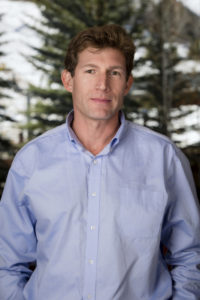
Auden Schendler is Senior Vice President of Sustainability at Aspen Skiing Company, where he focuses on finding large-scale solutions to climate change, specifically through clean energy and activism. Aspen Skiing Company has long been at the forefront of sustainable business practices, and Auden is one of the main forces behind the scenes driving those efforts—efforts that have positively influenced the ski and outdoor industries at large. In addition to his daily work in Aspen, he’s a well-known author and speaker, and he wrote the amazingly impactful book Getting Green Done: Hard Truths from the Front Lines of the Sustainability Revolution.
For a guy who spends his days deep in the trenches fighting the forces of climate change, Auden is surprisingly upbeat, energetic, and funny—as you’ll hear, we spend quite a bit of time laughing. But he’s far from naive or overly idealistic—he is quick to call out “greenwashing” when he sees it and is unapologetically focused on achieving specific, measurable results. Through trial and error and a lot of hard work, Auden has managed to find the balance of the optimism needed to pursue audacious initiatives with the pragmatism required to succeed in a competitive business environment.
From a personal perspective, Auden’s work and writing have been especially impactful on my career—I read his book a few months after earning my MBA, and it provided a much different perspective from the profit-at-all-costs philosophy that was the norm in business school. So it was obviously an honor to meet him, and I appreciate his letting me hassle him with questions for an hour.
We had
This is an excellent episode, and I can’t thank Auden enough for making time in his busy schedule to chat. Links to everything are in the episode notes. Enjoy!
Photos courtesy of Auden Schendler
Click Here to Download on iTunes
---
Click Here to Download on Spotify
---
Click Here to Download on Google Play
---
Click Here to Download on Stitcher
---
Episode Notes
Topics Discussed:
- 3:10 - How Auden began his career in sustainability
- 4:15 - Transition from theoretical sustainability to the business world
- 7:10 - Balancing patience with action
- 8:45 - Work as a practice
- 11:30 - Understanding the need for big challenges
- 12:45 - Mentors
- 16:00 - First visits to the West
- 17:30 - Republicans and the history of conservation
- 18:45 - On the Road’s influence on Auden
- 20:00 - Favorite failures
- 22:00 - Influence of Pat O’Donnell
- 24:30 - Publicly traded versus private companies
- 26:00 - Companies as political levels
- 29:00 - Dealing with climate change deniers
- 31:15 - Dealing with criticism
- 33:00 - Basalt fire and community
- 35:30 - Why does Auden choose to stay in the trenches?
- 37:15 - Auden’s daily routine
- 40:15 - How kids change his perspective
- 42:20 - Favorite books about the West
- 45:50 - Favorite films
- 47:50 - Most powerful outdoor experience
- 51:00 - Favorite location in the West
- 52:45 - Best advice he’s ever received
- 54:40 - Request of the podcast listeners
- 55:50 - Connect with Auden
Information Referenced:
- Aspen Skiing Company
- Rocky Mountain Institute
- Getting Green Done by Auden Schendler
- Life Work by Donald Hall
- Reinhold Niebur
- Cormac McCarthy
- JRR Tolkien
- Randy Udall
- Ed Marston
- High Country News
- Pete McBride podcast
- On the Road by Jack Kerouac
- Drilled podcast
- Auden’s fire aftermath story
- Tribe by Sebastian Junger
- Florence Williams
- The Road by Cormac McCarthy
- The Sheep Queen by Thomas Savage
- Crossing to Safety by Wallace Stegner
- David Gessner podcast
- My Antonia by Willa Cather
- Peter Heller
- Blade Runner
- Apocalypse Now
- Auden’s Facebook
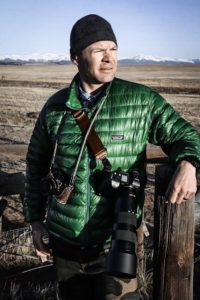
The virtual event planned with Russ has is being rescheduled for early-to-mid April. Check back soon for a specific date and time!!
Russ Schnitzer is a Colorado-based conservationist and professional photographer whose love for the landscapes and people of the American West shines through in all aspects of his life. Russ is the Senior Program Officer for Natural Resources at the Gates Family Foundation, one of Colorado’s most effective and generous conservation funders. As a photographer, he’s worked with some of the biggest names in the flyfishing world, including Patagonia, R.L Winston Rod Co., Orvis, The Drake Magazine, The Flyfish Journal, and more. And to top it all off, Russ is a former hotshot wildland firefighter and smokejumper, and, as you’d expect, he has some amazing stories from that period of his life.
Russ grew up in the midwest, but he headed to Idaho for college and has never looked back. During and after college, he fought fires throughout the West, and through that challenging, intense, dangerous work-- and at least one devastating tragedy-- he learned lessons that he still applies to his life today. Russ’s entire career has focused on protecting Western landscapes, and prior to the Gates Family Foundation, he worked for such notable organizations as Trout Unlimited and the Nature Conservancy. In his current role with Gates, he is laser-focused on finding community-driven conservation solutions for threatened landscapes, and during this episode, we go into great depths discussing his philosophies around effective conservation in the West.
Whether you’re interested in the nitty-gritty details of large-scale land conservation or lessons learned from a life of hardcore adventure, there’s something in this episode for you. Russ and I were on a tight schedule, but we still managed to cover a lot... and left plenty of room for a part two at some point in the future. We discuss the value of private land conservation in the West and the need for community buy-in and ownership for all conservation initiatives. We talk about the importance of agriculture from an ecological and economic standpoint, with some very specific examples from eastern Colorado. Russ also shares some stories from his time as a hotshot and smokejumper-- the life-long bonds he formed with his teammates, the impact of these intense experiences on his life, and how he pushed through a terrible tragedy early in his firefighting career.
There is so much wisdom and valuable information in this episode, so listen closely and check the episode notes for links to everything. Thanks again to Russ for taking the time to chat. Hope you enjoy!
Photos courtesy of Russ Schnitzer
Click Here to Download on iTunes
---
Click Here to Download on Spotify
---
Click Here to Download on Google Play
---
Click Here to Download on Stitcher
---
Episode Notes
Topics Discussed:
- 3:55 - How Russ describes his work
- 5:10 - Background in photography
- 7:00 - Growing up in Minnesota
- 9:00 - Intersection of photography and conservation
- 11:00 - Importance of community in conservation
- 14:40 - Conservation in southeast Colorado
- 20:30 - Ecological diversity in southeast Colorado
- 21:30 - Importance of grazing for grassland health
- 27:00 - Favorite conservation books
- 29:00 - Importance of aggression in conservation
- 33:00 - Water in Colorado
- 38:20 - Greater Sage Grouse discussion
- 41:10 - Tips for those who want to get into conservation
- 47:30 - Career as a smokejumper and hotshot
- 55:00 - Hard work and teamwork in firefighting
- 56:40 - Enduring tragedy in firefighting
- 59:00 - Joining the smokejumpers
- 1:00:15 - Remembering life as a smokejumper
- 1:03:00 - Lessons learned from firefighting
- 1:08:00 - Importance of self awareness
- 1:12:00 - Connect with Russ online
Information Referenced:
- SchnitzerPHOTO
- Gates Family Foundation
- Southeast Colorado conservation example
- For the Love of Land by Jim Howell
- Jim Howell podcast 1 and 2
- A Sand County Almanac by Aldo Leopold
- Where the Water Goes by David Owen
- Greater Sage Grouse article
- Can’t Hurt Me by David Goggins
- Prineville Hotshots
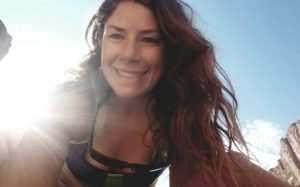
Chandra Brown is an educator, writer, and river guide who has worked on the West’s most iconic rivers, including many seasons below the rim of the Grand Canyon. She’s also the founder of the Freeflow Institute, a unique Montana-based program that offers multi-day river trips for writers and creatives that combine immersion in the natural world with instruction from some of the West’s most well-known, prolific outdoor writers. By combining creativity with adventure in some of the West’s most spectacular landscapes, Freeflow helps to "eliminate the barrier between artist and environment," resulting in creative inspiration and an increased desire to preserve our wild places.
Growing up in Alaska, Chandra has always had close connections to the land and life in the outdoors. It was during a family trip to Montana during high school that she fell in love with rivers; since then, rivers have played a foundational role in both her personal and professional lives. She attended college in Bozeman, studied in Ecuador as a Fulbright Scholar, and spent extensive time on rivers in both places. Currently she burns the candle at both ends-- teaching high school Spanish during the school year and guiding rivers in the summer, all while working as a freelance writer and building the Freeflow Institute from the ground up.
Thanks to her love of books, writing, adventure, and conservation, Chandra is a perfect guest for this podcast. We cover a lot in just over an hour, including the genesis of the idea for the Freeflow Institute and how she turned that idea into reality. We discuss some of the well-known writers who teach on Freeflow trips, including Hal Herring, Chris Dombrowski, and past podcast guests Alexis Bonogofsky and Brendan Leonard. We talk about lessons learned from her time in Ecuador, her creative process for writing, and her own writing heroes and mentors. We discuss conservation, adventure, and, of course, favorite books, films, and locations in the West.
Chandra is an amazing woman who is pursuing her passions with an inspiring amount of focus and determination, and she’s created something very special in the Freeflow Institute. Check out the episode notes for links to everything, including a short film below that gives an excellent overview of the project. Enjoy!
All photos courtesy of Chandra Brown
Click Here to Download on iTunes
---
Click Here to Download on Spotify
---
Click Here to Download on Google Play
---
Click Here to Download on Stitcher
---
Episode Notes
Topics Discussed:
- 3:40 - Chandra describes her work
- 5:00 - Freeflow Institute explained
- 7:00 - Taking Freeflow from idea to reality
- 9:15 - Hal Herring
- 11:30 - Importance of open-mindedness
- 14:00 - Wilderness breaking down barriers
- 17:40 - Growing up in Alaska
- 19:00 - Outdoor experiences as a kid
- 22:00 - Falling in love with rivers
- 23:30 - College in Montana
- 26:30 - Fulbright Scholar in Ecuador
- 28:00 - Lessons learned from international living
- 35:40 - Writing as a focus of her life
- 38:40 - Life in Missoula and teaching
- 40:50 - The Grand Canyon
- 42:40 - Lessons from guiding
- 44:15 - Talent versus hard work in writing
- 47:30 - Chandra’s writing routine
- 52:00 - Heroes and mentors
- 57:30 - Conservation challenges
- 1:02:30 - Favorite books
- 1:05:00 - Favorite films
- 1:06:00 - Hobbies
- 1:07:50 - Most powerful outdoor experience
- 1:10:30 - Favorite location in the West
- 1:11:15 - Best advice ever received
- 1:12:00 - Request of the listeners
- 1:13:10 - Connect with Freeflow online
Information Referenced:
- Chandra Brown
- Freeflow Institute
- Freeflow on Instagram and Facebook
- Willam deBuys
- Hal Herring
- Backcountry Hunters and Anglers Podcast
- Brendan Leonard episode
- Alexis Bonogofsky episode
- The Nature Fix by Florence Williams
- Montana State
- Fulbright Scholarship
- Make It Till You Make It by Brendan Leonard
- David James Duncan
- The River Why by David James Duncan
- Chris Dombrowski
- Body of Water by Chris Dombrowski
- Meateater Podcast with Chris Dombrowski
- Recovering a Lost River by Stephen Hawley
- Dammed to Extinction
- A River Lost by Blaine Harden
- Coming Into the Country by John McPhee
- Wade Davis
- One River by Wade Davis
- 100 Years of Solitude by Gabriel Marquez
- Baraka
- No Man’s Land
Jesse Womack - Land Stewardship is in His Blood
Jesse Womack wears many hats, but at his core, he is a rancher. He is the fifth generation to operate his family’s ranch near Victoria, Texas, a large-scale cattle operation that uses progressive land management techniques in a very unique landscape. Jesse also works closely with Texas Christian University’s Institute of Ranch Management, traveling far and wide to teach sustainable agricultural techniques to ranchers and farmers around the world. And on top of all of that, he is also a cofounder of Explore Ranches, alongside past podcast guests Jay Kleberg and Allison Ryan.
Responsible land stewardship is in Jesse’s DNA, and it is the foundation of all of his professional ventures. And as you’ll hear, he’s an open-minded, independent, and critical thinker who is able to speak eloquently on a wide array of sometimes-controversial issues surrounding agriculture. When you combine those traits with his rock-solid work ethic and focus, you will understand why he has been able to establish himself as such a leader in agriculture, both in Texas and abroad. Whether you're deeply involved in agriculture or you’ve never set foot on a ranch, you’ll glean a great deal of value from Jesse’s perspective—his knowledge, passion, and worldly perspective are applicable for any type of endeavor.
Jesse and I went to high school together, and even after knowing him for more than 25 years, I still learned a lot from this conversation. We talk about his work with TCU, and he shares some success stories from his time teaching in Panama, Ghana, Nigeria, and Brazil. He explains the importance of community buy-in and how focusing on commonalities and shared goals can help overcome cultural divides. We talk about his family’s history in Texas, and how he is raising his two sons to love and respect the outdoors. Jesse give a few updates on Explore Ranches, and talks about some exciting events they will be hosting soon. We also chat about his involvement with the Texas Agricultural Land Trust, and how conservation easements can be a useful tool for ranchers in Texas and beyond. And as usual, we discuss favorite books and movies, and Jesse shares the best piece of advice he’s ever received, which I especially appreciated .
Thanks so much for listening, and I hope you enjoy this conversation with Jesse Womack!
All photos courtesy of Jesse Womack
Click Here to Download on iTunes
---
Click Here to Download on Spotify
---
Click Here to Download on Google Play
---
Click Here to Download on Stitcher
---
Episode Notes
Topics Discussed:
- 3:30 - Funny story about Jesse’s son
- 5:00 - How Jesse describes his work
- 6:30 - TCU Institute of Ranch Management explained
- 8:30 - Experience in Brazil
- 10:00 - Countries where Jesse works
- 12:45 - Adjusting to different landscapes and cultures
- 14:00 - Success stories from TCU
- 17:45 - Importance of community buy-in
- 20:15 - Challenges of ranching in Brazil
- 23:30 - Misconceptions of ranching by environmentalists
- 30:30 - The need to be open-minded and consider other viewpoints
- 34:30 - Climate change and ranching
- 38:00 - Jesse’s family history in Texas
- 41:30 - Jesse’s family’s commitment to conservation
- 44:30 - Pressure of multigenerational ranch ownership
- 46:00 - Jesse’s career
- 47:30 - Surprises of running a ranch
- 49:00 - Texas Agricultural Land Trust
- 42:30 - Easements as a tool for agricultural
- 55:30 - Updates on Explore Ranches
- 57:30 - Mentors and heroes in ranching
- 59:30 - Our shared experience at Woodberry Forest School
- 52:00 - Lessons learned at Woodberry
- 1:05:30 - Favorite books
- 1:08:15 - Favorite films
- 1:08:45 - Hobbies
- 1:09:30 - Most powerful outdoor experience
- 1:14:15 - Favorite location in the West
- 1:14:45 - Best advice ever recieved
- 1:16:45 - Connect with Jesse online
Information Referenced:
- TCU Institute of Ranch Management
- Explore Ranches
- Jay Kleberg podcast
- Allison Ryan podcast
- John Cain Carter
- Jeff Geider
- Jim Howell podcasts 1 and 2
- Texas Agricultural Land Trust
- Conservation easements
- Woodberry Forest School
- The Big Ranch Country by JW Williams
- The Far Horizons by Christopher Empson
- Narcos
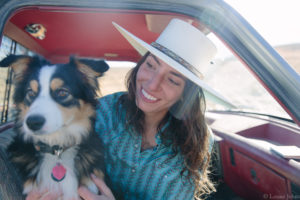 Melissa DiNino (photo: Louise Johns)[/caption]
Melissa DiNino is a biologist, artist, and designer who currently lives and works in Montana’s legendary Tom Miner Basin. A native easterner, Melissa moved West soon after college to work as a range rider-- a job that involves monitoring livestock on horseback in an effort to encourage the successful coexistence of livestock and apex predators in the Greater Yellowstone Ecosystem. In her role as a range rider, Melissa developed a deep appreciation for Montana’s spectacular landscapes, the challenging relationship between people and predators, and the importance of compassionate communication between all stakeholders.
Melissa grew up in Connecticut, and developed an early love of adventure and the outdoors while spending time at her family’s cabin in Maine. She’s also a committed athlete and played competitive basketball from age five through college. As you’ll hear, Melissa is humble and soft spoken, but she has a track record of pushing herself hard, both in academics and athletics, as well as in her present-day professional work and art. Although only in her mid-20s, Melissa is wise beyond her years and is committed to doing meaningful work in a place that she loves, surrounded by a supportive community… and she’s making it happen in an inspiring way.
I know regular listeners will really enjoy this conversation, but it will be especially valuable to anyone who is in the early stages of their career, looking to do work that is meaningful and fulfilling. Melissa and I discuss her path to Montana, as well as some of the challenges and funny mishaps of adjusting to life in the West. We talk about the realities of piecing together a variety of different jobs and artistic endeavors, while remaining focused on the big picture of doing work that matters. We chat about lessons learned from athletics, the value of being competitive with oneself, and importance of being willing to “put yourself out there” in creative pursuits. We also dig into some details around wolves, grizzlies, and the importance of civil discourse when discussing emotional subjects like wolves. And as usual, we talk about favorite books, films, and places in the West. Links to everything are in the episode notes.
Thanks so much for listening, and I hope you enjoy this conversation with Melissa DiNino!
All photos courtesy of Louise Johns
Melissa DiNino (photo: Louise Johns)[/caption]
Melissa DiNino is a biologist, artist, and designer who currently lives and works in Montana’s legendary Tom Miner Basin. A native easterner, Melissa moved West soon after college to work as a range rider-- a job that involves monitoring livestock on horseback in an effort to encourage the successful coexistence of livestock and apex predators in the Greater Yellowstone Ecosystem. In her role as a range rider, Melissa developed a deep appreciation for Montana’s spectacular landscapes, the challenging relationship between people and predators, and the importance of compassionate communication between all stakeholders.
Melissa grew up in Connecticut, and developed an early love of adventure and the outdoors while spending time at her family’s cabin in Maine. She’s also a committed athlete and played competitive basketball from age five through college. As you’ll hear, Melissa is humble and soft spoken, but she has a track record of pushing herself hard, both in academics and athletics, as well as in her present-day professional work and art. Although only in her mid-20s, Melissa is wise beyond her years and is committed to doing meaningful work in a place that she loves, surrounded by a supportive community… and she’s making it happen in an inspiring way.
I know regular listeners will really enjoy this conversation, but it will be especially valuable to anyone who is in the early stages of their career, looking to do work that is meaningful and fulfilling. Melissa and I discuss her path to Montana, as well as some of the challenges and funny mishaps of adjusting to life in the West. We talk about the realities of piecing together a variety of different jobs and artistic endeavors, while remaining focused on the big picture of doing work that matters. We chat about lessons learned from athletics, the value of being competitive with oneself, and importance of being willing to “put yourself out there” in creative pursuits. We also dig into some details around wolves, grizzlies, and the importance of civil discourse when discussing emotional subjects like wolves. And as usual, we talk about favorite books, films, and places in the West. Links to everything are in the episode notes.
Thanks so much for listening, and I hope you enjoy this conversation with Melissa DiNino!
All photos courtesy of Louise Johns
Click Here to Download on iTunes
---
Click Here to Download on Spotify
---
Click Here to Download on Google Play
---
Click Here to Download on Stitcher
---
Episode Notes
Topics Discussed:
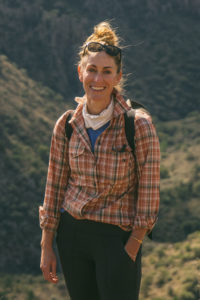 Allison Ryan[/caption]
Allison Ryan is a West Texas native and co-founder of Explore Ranches, a company that connects its customers with spectacular private ranches throughout Texas and Colorado—some have described it as “AirBnB for ranches." For those seeking a truly unique outdoor experience, Explore Ranches offers access to private land that has rarely, if ever, been visited by the public. And for the ranch owner, Explore Ranches creates an additional revenue stream to support the costs of land ownership, encourage conservation, and reduce the likelihood of subdividing large ranches due to financial strain. Given the lack of public land in Texas and the financial realities of owning large ranches, Explore Ranches offers a welcome solution for both landowners and adventure-loving non-landowners.
Allison grew up in El Paso, Texas, in a conservation-minded family that valued time in the outdoors and understood the importance of land stewardship. Between her childhood experiences at summer camp in West Texas, time spent on her family’s ranch, and a love of fitness and wellness, Allison has a deep understanding of the many benefits of recreating in open spaces. But Allison is also familiar with the financial commitments of land ownership, and she understands first hand the need to identify new revenue streams in order to make ranch ownership financially viable. In fact, her family’s ranch, known as the Withers, is available on Explore Ranches-- it serves as an excellent case study that demonstrates the need that Explore Ranches fulfills for landowners.
If you listened to my recent interview with Allison’s co-founder Jay Kleberg, you may remember that we briefly discussed Explore Ranches. But in this conversation with Allison, we dig into the nitty-gritty details of the business—how the idea came about, descriptions of some of the available properties, and the challenges and opportunities arising from the small amount of private land in Texas. We discuss how Explore Ranches can be a useful tool for landowners, and why her family’s ranch was a prime candidate to partner with Explore Ranches. We talk about her childhood in West Texas, conservation lessons learned from her parents and grandparents, and some of her formative experiences in the outdoors. Allison also dives into her other career in the fitness world, and I veer the conversation completely off track by asking way too many questions about diet, exercise, and fasting—if you like any of my interviews with professional athletes, you’ll probably enjoy that part. And as usual, we discuss favorite books, films, and her most powerful outdoor experience.
Take a moment to visit Explore Ranches—there are links in the episode notes. And please enjoy this fun conversation with Allison Ryan.
Allison Ryan[/caption]
Allison Ryan is a West Texas native and co-founder of Explore Ranches, a company that connects its customers with spectacular private ranches throughout Texas and Colorado—some have described it as “AirBnB for ranches." For those seeking a truly unique outdoor experience, Explore Ranches offers access to private land that has rarely, if ever, been visited by the public. And for the ranch owner, Explore Ranches creates an additional revenue stream to support the costs of land ownership, encourage conservation, and reduce the likelihood of subdividing large ranches due to financial strain. Given the lack of public land in Texas and the financial realities of owning large ranches, Explore Ranches offers a welcome solution for both landowners and adventure-loving non-landowners.
Allison grew up in El Paso, Texas, in a conservation-minded family that valued time in the outdoors and understood the importance of land stewardship. Between her childhood experiences at summer camp in West Texas, time spent on her family’s ranch, and a love of fitness and wellness, Allison has a deep understanding of the many benefits of recreating in open spaces. But Allison is also familiar with the financial commitments of land ownership, and she understands first hand the need to identify new revenue streams in order to make ranch ownership financially viable. In fact, her family’s ranch, known as the Withers, is available on Explore Ranches-- it serves as an excellent case study that demonstrates the need that Explore Ranches fulfills for landowners.
If you listened to my recent interview with Allison’s co-founder Jay Kleberg, you may remember that we briefly discussed Explore Ranches. But in this conversation with Allison, we dig into the nitty-gritty details of the business—how the idea came about, descriptions of some of the available properties, and the challenges and opportunities arising from the small amount of private land in Texas. We discuss how Explore Ranches can be a useful tool for landowners, and why her family’s ranch was a prime candidate to partner with Explore Ranches. We talk about her childhood in West Texas, conservation lessons learned from her parents and grandparents, and some of her formative experiences in the outdoors. Allison also dives into her other career in the fitness world, and I veer the conversation completely off track by asking way too many questions about diet, exercise, and fasting—if you like any of my interviews with professional athletes, you’ll probably enjoy that part. And as usual, we discuss favorite books, films, and her most powerful outdoor experience.
Take a moment to visit Explore Ranches—there are links in the episode notes. And please enjoy this fun conversation with Allison Ryan.
 All photos courtesy of Logan Lewis
All photos courtesy of Logan Lewis
Click Here to Download on iTunes
---
Click Here to Download on Spotify
---
Click Here to Download on Google Play
---
Click Here to Download on Stitcher
---
Episode Notes
Topics Discussed:- Jay Kleberg interview
- Dan Flores trespassing article
- Dan Flores podcast
- The Withers
- Prude Ranch
- Hudspeth River Ranch
- Fed Up
- Jamie Oliver
- Intermittent Fasting
- Ben Masters interview
- Big Bend: A Homesteaders Story by JO Langford
- Manhunt by James Swanson
- Hellhound on His Trail by Hampton Sides
- Hampton Sides interviews 1 and 2
- Unbranded

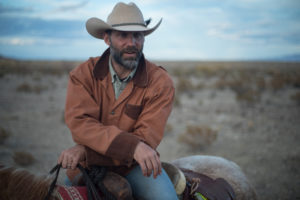
Jay Kleberg is a conservationist and Associate Director of the Texas Parks and Wildlife Foundation. He’s also the co-founder of Explore Ranches, a new company that connects outdoor enthusiasts to some of the most iconic private ranches in Texas and beyond. Jay has built his career and life around a deep respect for land and an inborn sense of responsibility to protect these landscapes, as well as the wildlife and heritage they support. As a sixth-generation Texan landowner, responsible land stewardship is in Jay’s blood, and as you’ll hear in our conversation, he’s laser-focused on leaving Texas an even better place than he found it.
Growing up on his family’s large-scale South Texas working ranch, Jay has been closely connected to the land for as long as he can remember. After high school and college on the east coast, Jay headed to Brazil for several years, where he worked with renowned conservationist John Cain Carter to protect the region’s threatened landscapes. It was in Brazil that Jay began to hone his personal conservation philosophy and had a number of crazy adventures along the way. After working a stint in for-profit real estate and earning his MBA, Jay decided to focus all of his professional energy on conservation in his home state.
Jay and I have been friends for over 25 years, so it was a real treat to connect with him on the podcast to discuss our shared passions for land conservation and adventure... we normally just re-tell hilarious stories from high school! As usual, we cover a lot-- we discuss his upbringing on his family ranch and lessons learned from both his family and the larger ranch community. We talk about his time in Brazil, conservation challenges in South America, and one close call in a small airplane that could’ve been the end of Jay. We discuss Explore Ranches, his work with Texas Parks and Wildlife Foundation, his role in the upcoming film “The River and the Wall,” and other adventures throughout the West. We also discuss the importance of humility and honesty, benefits of having a for-profit mentality in the nonprofit world, favorite books, films, and more.
Be sure to check out the episode notes for a full list of topics discussed and links to everything… there’s a ton of great information here. I know you’ll enjoy this fun conversation with Jay Kleberg.
All photos courtesy of Ben Masters
---
Click Here to Download on iTunes
---
Click Here to Download on Spotify
---
Click Here to Download on Google Play
---
Click Here to Download on Stitcher
---
Episode Notes
Topics Discussed:
1:24:00 - Connect with Jay online
- Jay on Instagram and Facebook
- Explore Ranches
- Explore Ranches on Instagram and Facebook
- Explore Ranches team
- Texas Parks and Wildlife Foundation
- The River and the Wall
- The King Ranch
- Ben Masters podcast
- John Cain Carter
- The River of Doubt by Candice Millard
- Woodberry Forest School
- Empire of the Summer Moon by SC Gwynne
- Undaunted Courage by Stephen Ambrose
- The Nature Fix by Florence Williams
- The Dawn Wall
- Charged
- Becca Skinner podcast
- Teen Wolf
- Great Divide Mountain Bike Tour
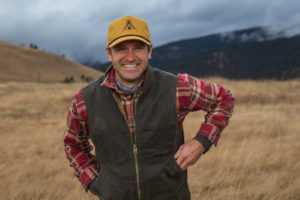 Daniel Anderson[/caption]
Daniel Anderson is a Montana native and founder of The Common Ground Project, a nature-based retreat, hiking, and camping experience in which small groups of people from around the world share adventure, education, and conversation. Located on Daniel’s family ranch in the heart of Montana’s renowned Tom Miner Basin, The Common Ground Project seeks to strengthen connections between people, wildlife, and the stunning landscapes of the American West. As you’ll hear, Daniel and his family’s multi-generational commitment to community and holistic land stewardship make them the perfect people to pass along the wisdom they’ve gained from the land and from life in the Rockies.
To call Daniel’s personal story “fascinating" would be quite an understatement. Born in Missoula and raised in the Tom Miner Basin, Daniel attended boarding school on the east coast and graduated from college with a degree in engineering. But soon after beginning his professional career in California, doctors discovered two fist-sized, cancerous tumors in his body, one attached to his kidney and the other to his aorta. The cancer diagnosis, subsequent treatment, and return to health sharpened Daniel’s focus on the importance of helping and connecting with others, and also led him on a ten-year journey of rigorous personal spiritual work. The cumulative result of all of these intense life experiences was the creation of The Common Ground Project.
So, as you’ve probably gathered, Daniel is an interesting dude. We only covered a fraction of what I’d hoped to discuss, but I know you’ll enjoy the conversation. We discussed The Common Ground Project, the genesis of the idea, and the moment he decided to make the plan a reality. We also talked about lessons learned from his cancer experience and wisdom gleaned from his tight-knit family, including his grandfather who purchased their ranch in the 1950s after being a POW during World War II. We chatted about his family’s long-standing commitment to collaborative land stewardship in the Tom Miner Basin, and the challenges and opportunities of land ownership in the Greater Yellowstone Ecosystem. Finally, we discussed influential books, his most powerful outdoor experience, and the insights Daniel has gained from a decade of rigorous spiritual inquiry... with mentors that even include a Peruvian shaman.
I encourage you to check out The Common Ground Project online and if the mission speaks to you, consider donating to their Indiegogo campaign. Links to everything are in the episode notes. Thanks for listening, and I hope you enjoy this conversation with Daniel Anderson.
https://vimeo.com/299530061
All photos courtesy of Louise Johns
Daniel Anderson[/caption]
Daniel Anderson is a Montana native and founder of The Common Ground Project, a nature-based retreat, hiking, and camping experience in which small groups of people from around the world share adventure, education, and conversation. Located on Daniel’s family ranch in the heart of Montana’s renowned Tom Miner Basin, The Common Ground Project seeks to strengthen connections between people, wildlife, and the stunning landscapes of the American West. As you’ll hear, Daniel and his family’s multi-generational commitment to community and holistic land stewardship make them the perfect people to pass along the wisdom they’ve gained from the land and from life in the Rockies.
To call Daniel’s personal story “fascinating" would be quite an understatement. Born in Missoula and raised in the Tom Miner Basin, Daniel attended boarding school on the east coast and graduated from college with a degree in engineering. But soon after beginning his professional career in California, doctors discovered two fist-sized, cancerous tumors in his body, one attached to his kidney and the other to his aorta. The cancer diagnosis, subsequent treatment, and return to health sharpened Daniel’s focus on the importance of helping and connecting with others, and also led him on a ten-year journey of rigorous personal spiritual work. The cumulative result of all of these intense life experiences was the creation of The Common Ground Project.
So, as you’ve probably gathered, Daniel is an interesting dude. We only covered a fraction of what I’d hoped to discuss, but I know you’ll enjoy the conversation. We discussed The Common Ground Project, the genesis of the idea, and the moment he decided to make the plan a reality. We also talked about lessons learned from his cancer experience and wisdom gleaned from his tight-knit family, including his grandfather who purchased their ranch in the 1950s after being a POW during World War II. We chatted about his family’s long-standing commitment to collaborative land stewardship in the Tom Miner Basin, and the challenges and opportunities of land ownership in the Greater Yellowstone Ecosystem. Finally, we discussed influential books, his most powerful outdoor experience, and the insights Daniel has gained from a decade of rigorous spiritual inquiry... with mentors that even include a Peruvian shaman.
I encourage you to check out The Common Ground Project online and if the mission speaks to you, consider donating to their Indiegogo campaign. Links to everything are in the episode notes. Thanks for listening, and I hope you enjoy this conversation with Daniel Anderson.
https://vimeo.com/299530061
All photos courtesy of Louise Johns
Click Here to Download on iTunes
---
Click Here to Download on Overcast
---
Click Here to Download on Google Play
---
Click Here to Download on Stitcher
---
Episode Notes
Topics Discussed:- The Common Ground Project
- Indigogo Campaign
- Daniel on Instagram
- The Common Ground Project on Instagram
- Louise Johns
- Tom Miner Basin Association
- Paradise Valley
- Good article about the Tom Miner Basin
- TCGP leadership team
- Greater Yellowstone Ecosystem
- Ismael by Daniel Quinn
- Last Child in the Woodsby Richard Louv
- Presence by Peter Senge et. al.
- Mountain & Prairie book list
- Becca Frucht
- Melissa DiNino
- Jaunita Vero interview
- Trails Plowed Underby Charles Russell
- Living in the Futures Past
- Road House (aka Greatest Movie of All Time)
- Dumb and Dumber
- Last of the Mohicans
- Avatar
- The Man from Snowy River
- Lonesome Dove
- The Dude and the Zen Master by Jeff Bridges
- Charles Post interview
- The Great Animal Orchestra by Bernie Krause

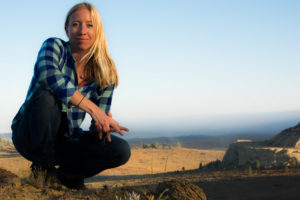 Alexis Bonogofsky[/caption]
Alexis Bonogofsky is a rancher, conservationist, and community organizer who is fiercely committed to protecting the landscapes and communities of eastern Montana. While much of Alexis’s career has been devoted to environmental issues in the West, the 2011 Exxon oil spill in the Yellowstone River brought the fight to her doorstep—her family’s pastures were inundated with oil, threatening not only the local ecosystem, but the livelihoods of her family and community. Since that spill and the ensuing battle with Exxon, Alexis has become an outspoken advocate for ranchers, farmers, and rural Montana stakeholders. Through her writing, photography, and old-fashioned relationship-building, Alexis has become an invaluable force in bringing people together even in today’s divisive political climate.
Alexis grew up in eastern Montana as part of a tight-knit, hardworking, blue-collar family. Her parents engrained in her a rock-solid work ethic, a deep sense of responsibility, and a refusal to back down from bullies-- characteristics that have served her well in her life and career. Alexis studied international development in undergrad and grad school, but decided that rather than taking her expertise to another country, she could apply those invaluable skills to her home of eastern Montana. As you’ll hear in our conversation, Alexis is humble and open-minded, but completely unwavering when it comes to standing up against individuals or companies that seek to take advantage of the less powerful.
I can’t overstate how much I enjoyed this conversation. Alexis is a shining example of the impact that one person can have if she’s willing to work hard, be humble, play the long game, and have the bravery to put herself out there. We cover a lot, including the Exxon oil spill and how it affected her life, work, and sense of responsibility. We talk about her time working with Native Americans as part of the Tribal Lands Partnership, and some of the wisdom gained from that job. She discusses the lessons learned from her parents and shares some thoughts on her father’s tragic death several years ago. We also delve into her writing process, hunting, public lands, goats, llamas, and our mutual contempt for bullies. And Alexis also offers a ton of book recommendations that have never been mentioned on the podcast before.
This is a seriously inspiring episode, so I’m very excited for you to listen. Be sure to check out Alexis’s blog East of Billings and follow her on social media. I have links to everything in the episode notes below. Enjoy!
https://www.youtube.com/watch?v=bOv8aDXU4as
Photos courtesy of Alexis Bonogofsky
Alexis Bonogofsky[/caption]
Alexis Bonogofsky is a rancher, conservationist, and community organizer who is fiercely committed to protecting the landscapes and communities of eastern Montana. While much of Alexis’s career has been devoted to environmental issues in the West, the 2011 Exxon oil spill in the Yellowstone River brought the fight to her doorstep—her family’s pastures were inundated with oil, threatening not only the local ecosystem, but the livelihoods of her family and community. Since that spill and the ensuing battle with Exxon, Alexis has become an outspoken advocate for ranchers, farmers, and rural Montana stakeholders. Through her writing, photography, and old-fashioned relationship-building, Alexis has become an invaluable force in bringing people together even in today’s divisive political climate.
Alexis grew up in eastern Montana as part of a tight-knit, hardworking, blue-collar family. Her parents engrained in her a rock-solid work ethic, a deep sense of responsibility, and a refusal to back down from bullies-- characteristics that have served her well in her life and career. Alexis studied international development in undergrad and grad school, but decided that rather than taking her expertise to another country, she could apply those invaluable skills to her home of eastern Montana. As you’ll hear in our conversation, Alexis is humble and open-minded, but completely unwavering when it comes to standing up against individuals or companies that seek to take advantage of the less powerful.
I can’t overstate how much I enjoyed this conversation. Alexis is a shining example of the impact that one person can have if she’s willing to work hard, be humble, play the long game, and have the bravery to put herself out there. We cover a lot, including the Exxon oil spill and how it affected her life, work, and sense of responsibility. We talk about her time working with Native Americans as part of the Tribal Lands Partnership, and some of the wisdom gained from that job. She discusses the lessons learned from her parents and shares some thoughts on her father’s tragic death several years ago. We also delve into her writing process, hunting, public lands, goats, llamas, and our mutual contempt for bullies. And Alexis also offers a ton of book recommendations that have never been mentioned on the podcast before.
This is a seriously inspiring episode, so I’m very excited for you to listen. Be sure to check out Alexis’s blog East of Billings and follow her on social media. I have links to everything in the episode notes below. Enjoy!
https://www.youtube.com/watch?v=bOv8aDXU4as
Photos courtesy of Alexis Bonogofsky
Click Here to Download on iTunes
---
Click Here to Download on Overcast
---
Click Here to Download on Google Play
---
Click Here to Download on Stitcher
---
Episode Notes
Topics Discussed:- East of Billings
- Alexis on Instagram
- Exxon oil spill in the Yellowstone
- Vanessa Braided Hair
- Wally McRae
- Gonzaga University
- University of Denver
- Albert Hirschman - Opinionated Opinions and Democracy
- The Public and Its Problems by John Dewey
- Bowling Alone by Robert Putnam
- Seeing Like a State by James Scott
- Wendell Berry
- Tribe by Sebastian Junger
- When the Ground Thaws by Alexis Bonogofsky
- On Common Ground public lands video
- Modern Huntsman
- Artemis Sportswomen
- The Mountain and the Fathers by Joe Wilkins
- West of 98 by Lynn Stegner
- Montana: An Uncommon Land by Ross Toole
- Three Day Road by Joseph Boyden
- Arctic National Wildlife Refuge

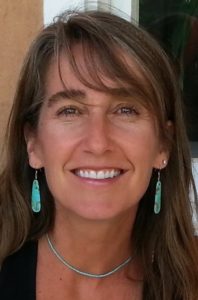 Dr. Sara Dant[/caption]
Sara Dant is a historian, professor, and chair of the history department at Weber State University. She’s also the author of one of my new favorite books: Losing Eden: An Environmental History of the American West. Sara’s work touches many of the topics we discuss regularly on this podcast, including conservation, water, public lands, building consensus around divisive issues, historical figures of the West, and much more. As you’ll hear in our conversation, Sara has a unique ability to explain complex and potentially dry topics regarding the American West in an engaging and easy-to-understand manner.
Whether you’re like me and have read dozens of books on the history of the West or simply have a general interest the subject, I think Losing Eden should be mandatory reading. It lays out the history of the region, starting with human migration into North America 15-30,000 years ago and ends in the present-day West with our scramble to find solutions to natural resource shortages and climate change. For me, the book connected many different time periods and concepts into one cohesive narrative, while simultaneously introducing me to new ideas and people, all in just under 200 pages.
Sara and I had a great conversation covering key concepts from her book, as well as her life as a historian, teacher, and life-long Westerner. We chat about the concept of the "tragedy of the commons,” conservation versus preservation, and the myth that the West was a sort of Garden of Eden prior to European settlement. We also dig into some of the key historical figures of the West, including Brigham Young, John Wesley Powell, Theodore Roosevelt, and John Muir. Most of you know that I’m weirdly obsessed with Teddy Roosevelt—I’ve got a life-sized cardboard cut-out of him in my office, for Pete’s sake!—so Sara gently offers a more “balanced" examination of his conservation legacy. We also discuss Sara’s upbringing in Arizona, love of trail running, favorite books, and much more. Be sure to visit the episode notes for links to everything we discuss, because there’s a lot.
And since many of you are members of the Mountain & Prairie Book Club, I wanted to let you know that Losing Eden will be the November/December selection. Sara has graciously offered to answer questions about the book or even participate in some sort of online discussion, so I’ll be sorting out those details in the coming weeks. In the meantime, start reading the book and visit the book club webpage for more information as it becomes available.
For now, please enjoy this fun and educational conversation with Sara Dant.
Photos courtesy of Sara Dant
Dr. Sara Dant[/caption]
Sara Dant is a historian, professor, and chair of the history department at Weber State University. She’s also the author of one of my new favorite books: Losing Eden: An Environmental History of the American West. Sara’s work touches many of the topics we discuss regularly on this podcast, including conservation, water, public lands, building consensus around divisive issues, historical figures of the West, and much more. As you’ll hear in our conversation, Sara has a unique ability to explain complex and potentially dry topics regarding the American West in an engaging and easy-to-understand manner.
Whether you’re like me and have read dozens of books on the history of the West or simply have a general interest the subject, I think Losing Eden should be mandatory reading. It lays out the history of the region, starting with human migration into North America 15-30,000 years ago and ends in the present-day West with our scramble to find solutions to natural resource shortages and climate change. For me, the book connected many different time periods and concepts into one cohesive narrative, while simultaneously introducing me to new ideas and people, all in just under 200 pages.
Sara and I had a great conversation covering key concepts from her book, as well as her life as a historian, teacher, and life-long Westerner. We chat about the concept of the "tragedy of the commons,” conservation versus preservation, and the myth that the West was a sort of Garden of Eden prior to European settlement. We also dig into some of the key historical figures of the West, including Brigham Young, John Wesley Powell, Theodore Roosevelt, and John Muir. Most of you know that I’m weirdly obsessed with Teddy Roosevelt—I’ve got a life-sized cardboard cut-out of him in my office, for Pete’s sake!—so Sara gently offers a more “balanced" examination of his conservation legacy. We also discuss Sara’s upbringing in Arizona, love of trail running, favorite books, and much more. Be sure to visit the episode notes for links to everything we discuss, because there’s a lot.
And since many of you are members of the Mountain & Prairie Book Club, I wanted to let you know that Losing Eden will be the November/December selection. Sara has graciously offered to answer questions about the book or even participate in some sort of online discussion, so I’ll be sorting out those details in the coming weeks. In the meantime, start reading the book and visit the book club webpage for more information as it becomes available.
For now, please enjoy this fun and educational conversation with Sara Dant.
Photos courtesy of Sara Dant
Click Here to Download on iTunes
---
Click Here to Download on Overcast
---
Click Here to Download on Google Play
---
Click Here to Download on Stitcher
---
Episode Notes
Topics Discussed:- Dr. Sara Dant
- Losing Eden: An Environmental History of the American West by Sara Dant
- Sara at the Aspen Institute: Discussion 1 & Discussion 2
- Oranges by John McPhee
- Tragedy of the commons
- Beyond the Hundredth Meridian by Wallace Stegner
- Wallace Stegner
- John Wesley Powell
- 100th Meridian
- Theodore Roosevelt
- John Muir
- Hampton Sides podcast
- Dan Flores podcast
- Changes in the Land by William Cronon
- Wallace Stegner Quote that Sara mentioned: From "Variation on a Theme by Crevecoeur”
- Where the Bluebird Sings to the Lemonade Springs by Wallace Stegner
- Cadillac Desert by Mark Reisner
- Blade Runner
- Avatar
- Grand Staircase Escalante
- Hal Rothman

Hampton Sides, Part 2 - How to Tell a Damn Good Story
Anyone who has listened to this podcast surely knows of best-selling author and narrative historian Hampton Sides. I reference his books often and was lucky enough to interview him in August at the Aspen Institute, which I released as a podcast episode. In that conversation, we discussed the history of the 19th-Century American West, and many of you kindly reached out to let me know how much you enjoyed learning from Hampton. So I was thrilled—and I think you will be too—when Hampton generously stopped through Colorado Springs last week in the midst of a busy tour for his amazing new book, On Desperate Ground: The Marines at the Reservoir, the Korean War’s Greatest Battle. As you’d expect, we had a fun conversation that expanded upon our first interview—we dig into his childhood in Memphis, Tennessee, and discuss his life-long desire to be a writer. We talk about his early years in journalism, and how his experiences writing and editing have contributed to his success as an author. We also chat about his years at “Outside"magazine and some of the realities of being a freelance journalist and author. Additionally, he shares some of the ins and outs of his writing process, including the struggle of cranking out a first draft, a process he describes as spending time in the “pain cave.” We also discuss the Grand Canyon, Wallace Stegner’s writing, and much more. Finally, we spend some time talking about On Desperate Ground, which I can’t recommend enough. I knew next to nothing about the Korean War, but as usual, Hampton’s writing was simultaneously educational and entertaining, allowing me to learn a lot while thoroughly enjoying the process. You don’t have to be a military history buff to enjoy this book—his exploration of characters’ personalities, motivations, and egos makes for an engaging story that will appeal to anyone who is fascinated by interesting people. And being a weird guy who loves climbing big, absurdly cold mountains, I especially enjoyed our discussion of North Korea’s brutal winters and how sub-zero temperatures were one of the deadliest forces in this battle. Thanks again to Hampton for making time to meet up during such a busy book tour. Be sure to check the episode notes for links to all the authors and books we discuss, as we cover a lot. This was a fun conversation, and I know you’ll enjoy it. Header photo by SERGEY GORSHKOV, headshot by KURT MARKUS.Click Here to Download on iTunes
---
Click Here to Download on Overcast
---
Click Here to Download on Google Play
---
Click Here to Download on Stitcher
---
Episode Notes
Topics Discussed:- Hampton Sides
- Hampton’s Facebook page
- On Desperate Ground by Hampton Sides
- Washington Post review of On Desperate Ground
- All of Hampton’s Books
- David Grann
- Candice Millard
- Laura Hillenbrand
- Nathaniel Philbrick
- David McCullough
- Shelby Foote
- Steven King
- John Grisham
- Outside
- Tim Cahill
- David Quammen
- Jon Krakauer
- Sebastian Junger
- Ghost Soldiers by Hampton Sides
- Draft No. 4 by John McPhee
- General Douglas MacArthur
- Mao Zedong
- Cadillac Desert by Marc Reisner
- Beyond the Hundredth Meridian by Wallace Stegner
- Wallace Stegner books
- All the King's Men by Robert Warren Penn
- Ken Burns - The Civil War
- Ken Burns - The Roosevelts
- The Grand Canyon by Pete McBride (foreword by Hampton)

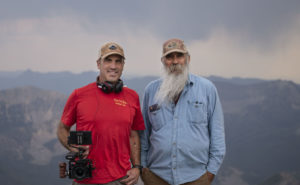 Erik Petersen (left), alongside Montana local Bryan Wells[/caption]
Erik Petersen is a Montana-based photographer, filmmaker, and photojournalist whose work showcases the American West and the many ways we enjoy our wide open spaces. His most recent film, A Few Steps Further, explores the commonalities between backcountry hunting and mountain endurance sports, while highlighting the spectacular wild landscapes that make these activities possible. Historically, hunters and adventure sports enthusiasts have not always seen eye to eye, but through his film, Erik demonstrates that the two groups have much more in common than not, most notably a love for public lands, pushing one's physical limits, and hardcore adventure.
Growing up in Minnesota, Erik was an avid hunter and outdoorsman-- but with a lifelong love for Montana, he moved West the day that he graduated from college. He worked for over ten years as a newspaper photographer throughout Montana, honing his craft and learning to produce high-quality work under the pressure and deadlines of traditional print media. Eventually Erik transitioned into freelance photography, taking some initial assignments that included trips to war-torn Afghanistan and the surrounding region. Today, much of his work centers around the landscapes of the American West, and his photographs and films highlight many of the values that we celebrate time and again on this podcast—conservation, public lands, adventure sports, and interesting people who love the West.
Erik and I caught up on the day that A Few Steps Further was released to the public, so I’ve embedded it in the episode notes—be sure to check it out, you’ll love it. In addition to that film, we talk about some of his other creative work, including a film he’s currently making that explores the threat of a goldmine near Yellowstone National Park and the promising bipartisan coalition that has emerged to fight the threat. We also cover the lessons he learned from his years in photojournalism, and how he manages to balance his roles as a husband and father of two boys while running his own creative business and pursuing adventure sports such as hunting and ultra running. We also discuss his creative mentors and heroes and his favorite books and films, plus he gives some good advice on how to take better landscape photos.
Erik Petersen (left), alongside Montana local Bryan Wells[/caption]
Erik Petersen is a Montana-based photographer, filmmaker, and photojournalist whose work showcases the American West and the many ways we enjoy our wide open spaces. His most recent film, A Few Steps Further, explores the commonalities between backcountry hunting and mountain endurance sports, while highlighting the spectacular wild landscapes that make these activities possible. Historically, hunters and adventure sports enthusiasts have not always seen eye to eye, but through his film, Erik demonstrates that the two groups have much more in common than not, most notably a love for public lands, pushing one's physical limits, and hardcore adventure.
Growing up in Minnesota, Erik was an avid hunter and outdoorsman-- but with a lifelong love for Montana, he moved West the day that he graduated from college. He worked for over ten years as a newspaper photographer throughout Montana, honing his craft and learning to produce high-quality work under the pressure and deadlines of traditional print media. Eventually Erik transitioned into freelance photography, taking some initial assignments that included trips to war-torn Afghanistan and the surrounding region. Today, much of his work centers around the landscapes of the American West, and his photographs and films highlight many of the values that we celebrate time and again on this podcast—conservation, public lands, adventure sports, and interesting people who love the West.
Erik and I caught up on the day that A Few Steps Further was released to the public, so I’ve embedded it in the episode notes—be sure to check it out, you’ll love it. In addition to that film, we talk about some of his other creative work, including a film he’s currently making that explores the threat of a goldmine near Yellowstone National Park and the promising bipartisan coalition that has emerged to fight the threat. We also cover the lessons he learned from his years in photojournalism, and how he manages to balance his roles as a husband and father of two boys while running his own creative business and pursuing adventure sports such as hunting and ultra running. We also discuss his creative mentors and heroes and his favorite books and films, plus he gives some good advice on how to take better landscape photos.
Visit the episode notes for links to everything, and enjoy this fun conversation with Erik Petersen.
A Few Steps Further from Erik Petersen on Vimeo.
All photos courtesy of Erik Petersen.Click Here to Download on iTunes
---
Click Here to Download on Google Play
---
Click Here to Download on Stitcher
---
Episode Notes
Topics Discussed:- Erik Petersen
- Erik on Instagram
- Erik on Vimeo
- A Few Steps Further
- Hardrock 100
- Jim Howell podcast
- Short Nights of the Shadow Catcher by Timothy Egan
- Patagonia media grant
- Gianforte body slamming reporter
- Jim Harrison
- The Road Home by Jim Harrison
- Legends of the Fall by Jim Harrison
- The House of Sky by Ivan Doig
- Sarah Calhoun podcast
- Red Gold
- Ben Knight
- Camp 4 Collective
- Harry Potter books
- Crazy Mountains

Click Here to Download on iTunes
---
Click Here to Download on Google Play
---
Click Here to Download on Stitcher
---
Episode Notes
Topics Discussed:- The Little London Show
- Palmer Land Trust
- Best Farming Book List
- Book Club
- Reading Recommendations
- David Gessner interview
- Joe Grant interview
- Bundyville podcast
- Modern Huntsman article
- TR Trilogy by Edmund Morris
- The Big Burn by Timothy Egan
- Your Stoke Won’t Save Us article
- The Rise of Theodore Roosevelt by Edmund Morris
- Blood and Thunder by Hampton Sides
- The Emerald Mile by Kevin Fedarko

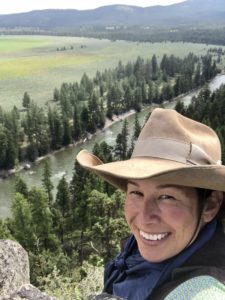 Juanita Vero[/caption]
[Fall 2020 Update: To listen to Juanita's most recent Mountain & Prairie podcast appearance in which she discusses her campaign for Missoula County Commissioner, please visit this webpage. Thanks!]
Juanita Vero is a partner at the E Bar L Ranch, a family-owned dude ranch located on the Blackfoot River, about an hour east of Missoula, Montana. The ranch was purchased and founded by Juanita’s great-grandfather and has served as a Rocky Mountain retreat for families from around the world for almost 100 years. If you’ve never visited but would like to learn more about the ranch, this conversation with Juanita is one of your only options—they don’t have a website, nor do they advertise. They serve the same clients year after year, clients who value an authentic, rustic, and tight-knit dude-ranching experience that is closely connected to the land.
But the term “dude ranch” doesn’t really do the E Bar L justice. Juanita’s family has participated in some cutting-edge conservation projects, protecting their ranch with a unique conservation easement that also allows for responsible timber management. Becoming a member of the ranch’s summer staff is also an amazing experience, and it's not uncommon for staff members to develop such a deep love of the land that they go on to careers in ranching or conservation. Juanita and her family lead by example with their business management and land stewardship practices, which seem to rub off on everyone who visits or works at the ranch.
Juanita and I connected just as she was wrapping up another successful summer season on the ranch. We had a fun conversation that covered everything from her great-grandfather’s purchase of the ranch in the early 1900s all the way up to its current day operations. We talk in detail about Juanita’s commitment to community service, and we dig into some of her work with groups such as Trout Unlimited, Montana Conservation Voters, and the Blackfoot Challenge. We also discuss her youth on the ranch, and what she learned from leaving Montana in her teens to attend an east coast boarding school. We talk about toughness, the interesting story of how her parents met, and her blind date with her now husband, which happened to be a three-day elk hunt. And as usual, we cover favorite books, films, places in the West, and more.
This was a great conversation, so I know you’ll enjoy it. Thanks again for listening.
Header photo by Kirstie Lambert, other by Juanita Vero
Juanita Vero[/caption]
[Fall 2020 Update: To listen to Juanita's most recent Mountain & Prairie podcast appearance in which she discusses her campaign for Missoula County Commissioner, please visit this webpage. Thanks!]
Juanita Vero is a partner at the E Bar L Ranch, a family-owned dude ranch located on the Blackfoot River, about an hour east of Missoula, Montana. The ranch was purchased and founded by Juanita’s great-grandfather and has served as a Rocky Mountain retreat for families from around the world for almost 100 years. If you’ve never visited but would like to learn more about the ranch, this conversation with Juanita is one of your only options—they don’t have a website, nor do they advertise. They serve the same clients year after year, clients who value an authentic, rustic, and tight-knit dude-ranching experience that is closely connected to the land.
But the term “dude ranch” doesn’t really do the E Bar L justice. Juanita’s family has participated in some cutting-edge conservation projects, protecting their ranch with a unique conservation easement that also allows for responsible timber management. Becoming a member of the ranch’s summer staff is also an amazing experience, and it's not uncommon for staff members to develop such a deep love of the land that they go on to careers in ranching or conservation. Juanita and her family lead by example with their business management and land stewardship practices, which seem to rub off on everyone who visits or works at the ranch.
Juanita and I connected just as she was wrapping up another successful summer season on the ranch. We had a fun conversation that covered everything from her great-grandfather’s purchase of the ranch in the early 1900s all the way up to its current day operations. We talk in detail about Juanita’s commitment to community service, and we dig into some of her work with groups such as Trout Unlimited, Montana Conservation Voters, and the Blackfoot Challenge. We also discuss her youth on the ranch, and what she learned from leaving Montana in her teens to attend an east coast boarding school. We talk about toughness, the interesting story of how her parents met, and her blind date with her now husband, which happened to be a three-day elk hunt. And as usual, we cover favorite books, films, places in the West, and more.
This was a great conversation, so I know you’ll enjoy it. Thanks again for listening.
Header photo by Kirstie Lambert, other by Juanita Vero
Click Here to Download on iTunes
---
Click Here to Download on Google Play
---
Click Here to Download on Stitcher
---
Episode Notes
Topics Discussed:- Missoula, Montana
- Taft School
- The Nature Conservancy
- Montana Conservation Voters
- Big Blackfoot Trout Unlimited
- Swan Valley Connections
- Blackfoot Community Project
- Blackfoot Challenge
- Community Food and Agriculture Coalition
- A Thousand Acres by Jane Smiley
- Breaking Clean by Judy Blunt
- Deer Hunting with Jesus by Joe Begeant
- Germs, Guns and Steel by Jared Diamond
- Collapse by Jared Diamond
- The Emperor of all Maladies by Siddhartha Mukherjee
- The Four Agreementsby Don Migel Ruiz
- Man’s Search for Meaning by Viktor Frankl

 A Geoffrey Keating hand-crafted desk[/caption]
[caption id="attachment_2720" align="aligncenter" width="640"]
A Geoffrey Keating hand-crafted desk[/caption]
[caption id="attachment_2720" align="aligncenter" width="640"]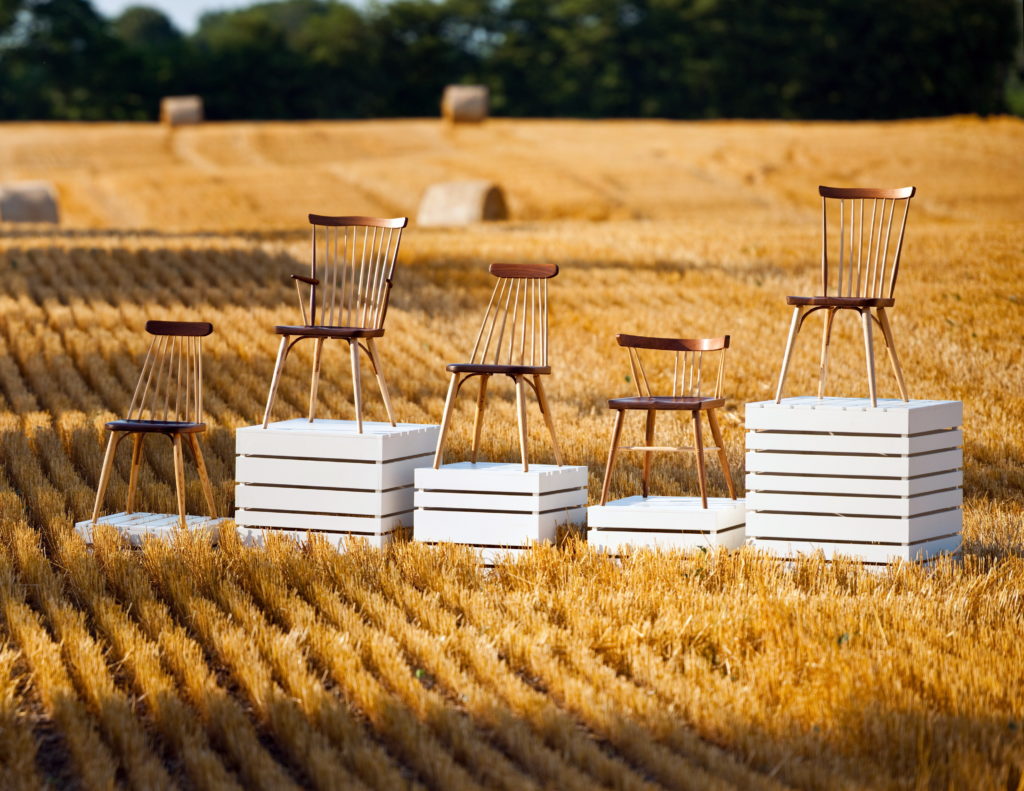 Geoffrey Keating chairs[/caption]
All photos courtesy of Geoffrey Keating
Geoffrey Keating chairs[/caption]
All photos courtesy of Geoffrey Keating
Click Here to Download on iTunes
---
Click Here to Download on Google Play
---
Click Here to Download on Stitcher
---
Episode Notes
Topics Discussed:- Keating Woodworks
- Keating Woodworks on Instagramand Facebook
- Tom Morgan Rodsmiths podcast
- Yvon Chouinard
- Sam Maloof
- Riverside Art Museum
- The Poetics of Space by Gaston Bachelard
- Bury My Heart at Wounded Knee by Dee Brown
- Empire of the Summer Moon by SC Gwynne
- Lonesome Dove by Larry McMurtry
- Crime and Punishment by Fyodor Dostoevsky
- First Position
- Cuchara, Colorado
- Sangre de Cristo Mountains

Hampton Sides: Live at the Aspen Institute
Hampton Sides is a narrative historian, best-selling author, and editor-at-large for Outside magazine. Mountain & Prairie listeners probably know Hampton best from his book Blood and Thunder: The Epic Story of Kit Carson and the Conquest of the American West, but the reality is that Blood and Thunder represents only a fraction of his work. Hellhound on His Trail, In the Kingdom of Ice, and Ghost Soldiers are a few of his other notable books, not to mention countless articles for Outside, National Geographic, and other well-known magazines. Hampton is originally from Memphis, Tennessee, but now splits his time between Santa Fe, New Mexico and Colorado Springs, where he’s the Journalist in Residence at Colorado College. This podcast is a live recording of a conversation that Hampton and I had in front of an audience at the Aspen Institute in Aspen, Colorado. This public event was part of a four-day seminar about the history of the 19th Century American West, which was hosted by the Aspen Institute's Society of Fellows. Since the overall theme of the week was the West, Hampton and I focused our conversation on Blood and Thunder, and chatted about the many topics presented in the book: the Navajos, the life of Kit Carson, Carson’s obsession with loyalty, Manifest Destiny, historical misconceptions about the time period, Hampton’s process for researching the book, and more. There are also a few minutes of Q&A from the audience toward the end of our talk. The Aspen Institute also filmed the event, so if you'd rather watch the interview, check out the video below. Having the opportunity to speak with one of my all-time favorite authors at such an exceptional, world-renowned institution was a real dream come true. Endless thanks to the Aspen Institute for inviting me, and the same to Hampton for being so engaging, funny, knowledgeable, and down to earth. You’re going to learn a lot from this episode, so I hope you enjoy listening… or watching! And if you haven’t already, you should order and read Hampton’s books as soon as possible—you won’t be disappointed. https://youtu.be/ynA8ebLbleo All photos and video courtesy of the Aspen Institute
Click Here to Download on iTunes
---
Click Here to Download on Google Play
---
Click Here to Download on Stitcher
---
Episode Notes
Topics Discussed:- Hampton Sides
- The Aspen Institute
- Society of Fellows
- American West Public Lecture page
- The American West: The History, the Values, the Struggle, and the Legacy of the 19th Century
- VIDEO of interview
- Blood and Thunder by Hampton Sides
- All Hampton Sides books
- Kit Carson
- Navajo
- John C Fremont
- James Henry Carleton
- Down the Santa Fe Trail by Susan Magoffin
- Beyond the Hundredth Meridian by Wallace Stegner
- Cormac McCarthy
- Blood Meridian by Corman McCarthy
- Shelby Foote

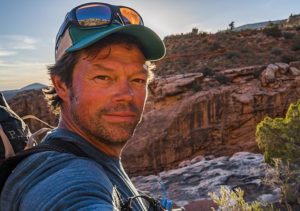 Pete McBride[/caption]
Pete McBride is a National Geographic photographer, filmmaker, and writer who tells untold stories from some of the world’s wildest places. Most recently, Pete and his friend, author Kevin Fedarko, hiked the entire 800-mile length of the Grand Canyon, documenting the journey for his forthcoming book The Grand Canyon: Between River and Rim. The book is an amazing combination of breathtaking photography, adventure travelogue, and an examination of some of the conservation challenges facing the legendary national park. Given the fact that more people have stood on the moon than hiked the length of the Grand Canyon, it’s no surprise that this book is a must-read.
Growing up in Colorado’s Roaring Fork Valley, Pete spent his childhood skiing, playing hockey, and working on his family's ranch. After college on the east coast, he cut his teeth in journalism at the High Country News, where he discovered his proclivity for photography. From there, he set out on a series of adventures, camera in hand, and with a lot of hard work and hustle, he eventually sold his first story toNational Geographic. After traveling the world as a photojournalist and having some close calls in Somalia and on Mt. Everest, Pete decided to focus his efforts on his “backyard river”—the Colorado River. Pete seems to have found his true calling in this iconic waterway—he has combined his artistic eye, journalistic perspective, and pursuit of adventure to become one of the Colorado River’s greatest advocates.
Pete and I met up in Aspen just before he headed to the airport to catch a flight. Even though our time was limited, we managed to cover a wide range of fun topics. We dig into the details of his Grand Canyon hike, and Pete tells a scary story of coming way too close to death early in the trip. We talk about his relationship with Kevin Fedarko, and how their differing personalities complement each other well on hardcore adventures. Pete shares more about his career as a photographer, and how he sees his strong work ethic as the key to his success. Pete also gives a great overview of the challenges facing the Colorado River, and he offers some solid book recommendations for folks who want to learn more about water issues in the West.
Hopefully I’ll get Pete back on for a Part 2 at some point in the future, because as you’ll hear, there’s still plenty more to discuss. For now, I really appreciate him taking the time to chat during such a busy time and hope you all enjoy the interview.
[caption id="attachment_2715" align="aligncenter" width="640"]
Pete McBride[/caption]
Pete McBride is a National Geographic photographer, filmmaker, and writer who tells untold stories from some of the world’s wildest places. Most recently, Pete and his friend, author Kevin Fedarko, hiked the entire 800-mile length of the Grand Canyon, documenting the journey for his forthcoming book The Grand Canyon: Between River and Rim. The book is an amazing combination of breathtaking photography, adventure travelogue, and an examination of some of the conservation challenges facing the legendary national park. Given the fact that more people have stood on the moon than hiked the length of the Grand Canyon, it’s no surprise that this book is a must-read.
Growing up in Colorado’s Roaring Fork Valley, Pete spent his childhood skiing, playing hockey, and working on his family's ranch. After college on the east coast, he cut his teeth in journalism at the High Country News, where he discovered his proclivity for photography. From there, he set out on a series of adventures, camera in hand, and with a lot of hard work and hustle, he eventually sold his first story toNational Geographic. After traveling the world as a photojournalist and having some close calls in Somalia and on Mt. Everest, Pete decided to focus his efforts on his “backyard river”—the Colorado River. Pete seems to have found his true calling in this iconic waterway—he has combined his artistic eye, journalistic perspective, and pursuit of adventure to become one of the Colorado River’s greatest advocates.
Pete and I met up in Aspen just before he headed to the airport to catch a flight. Even though our time was limited, we managed to cover a wide range of fun topics. We dig into the details of his Grand Canyon hike, and Pete tells a scary story of coming way too close to death early in the trip. We talk about his relationship with Kevin Fedarko, and how their differing personalities complement each other well on hardcore adventures. Pete shares more about his career as a photographer, and how he sees his strong work ethic as the key to his success. Pete also gives a great overview of the challenges facing the Colorado River, and he offers some solid book recommendations for folks who want to learn more about water issues in the West.
Hopefully I’ll get Pete back on for a Part 2 at some point in the future, because as you’ll hear, there’s still plenty more to discuss. For now, I really appreciate him taking the time to chat during such a busy time and hope you all enjoy the interview.
[caption id="attachment_2715" align="aligncenter" width="640"]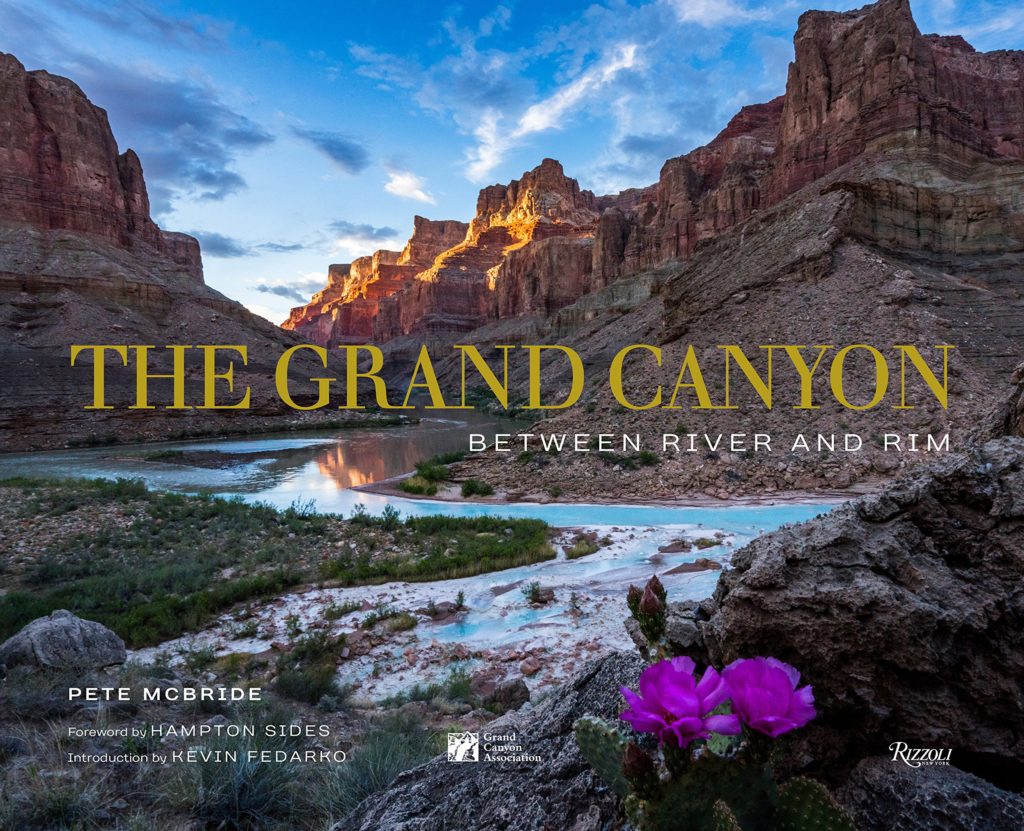 Pete's new book: "The Grand Canyon: Between River and Rim"[/caption]
All photos courtesy of Pete McBride
Pete's new book: "The Grand Canyon: Between River and Rim"[/caption]
All photos courtesy of Pete McBride
Click Here to Download on iTunes
---
Click Here to Download on Google Play
---
Click Here to Download on Stitcher
---
Episode Notes
Topics Discussed: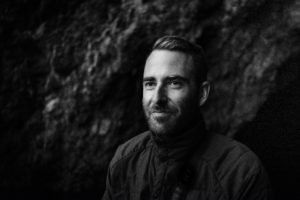 Stephen Smith[/caption]
Those of you who have been listening to the podcast since the early days probably remember my first conversation with Stephen Smith. We talked for an hour and a half about his career as a professional photographer, his motorcycle adventures around South America, his time working on farms and ranches, surfing, and more. Since that conversation almost exactly two years ago, Stephen has continued to evolve as an adventurer, entrepreneur, and artist. He bought a 170-acre property in eastern Oregon, founded a plant medicine CBD company, and has continued his work as a professional freelance photographer. With all these exciting developments, I thought it was time to have him back on the podcast for round two.
Stephen has a big vision for his new endeavors, and, more importantly, he has the work ethic and risk tolerance to achieve his goals. We talk a lot about his new property, which he’s calling Crow Creek, and how he has gone about transforming a raw piece of ground into his full-time home. We also chat in detail about his CBD company ONDA Wellness, which provides all-natural plant-based relief for everything from muscle soreness to anxiety to insomnia. If you are someone who is thinking of starting your own business, or simply has an interest in outside-the-box entrepreneurship, you will learn a lot from Stephen’s story.
As you’ll hear in our conversation, Stephen is amazingly open and honest about the challenges he has encountered while pursuing these new ventures, physically, mentally, and financially. He pulls no punches when describing the difficulty of simultaneously homesteading a property, running a start-up, and freelancing, but you’ll notice that his tone remains focused and optimistic, while still being realistic. Yes, the Instagram posts of Crow Creek and Stephen’s travels around the West are stunning, but make no mistake, he’s grinding at a breakneck speed to make it all work. His journey is inspiring and real, so I know you’ll enjoy listening.
And as an added bonus, Stephen is offering a 15% discount on ONDA Wellness products to Mountain & Prairie listeners. Just use the code “ED15" at checkout, and the discount will be applied. I can’t speak highly enough about ONDA, so I encourage you to give it a try.
Thanks to Stephen for coming back on the podcast. Hope you enjoy!
All photos courtesy of Stephen Smith
Stephen Smith[/caption]
Those of you who have been listening to the podcast since the early days probably remember my first conversation with Stephen Smith. We talked for an hour and a half about his career as a professional photographer, his motorcycle adventures around South America, his time working on farms and ranches, surfing, and more. Since that conversation almost exactly two years ago, Stephen has continued to evolve as an adventurer, entrepreneur, and artist. He bought a 170-acre property in eastern Oregon, founded a plant medicine CBD company, and has continued his work as a professional freelance photographer. With all these exciting developments, I thought it was time to have him back on the podcast for round two.
Stephen has a big vision for his new endeavors, and, more importantly, he has the work ethic and risk tolerance to achieve his goals. We talk a lot about his new property, which he’s calling Crow Creek, and how he has gone about transforming a raw piece of ground into his full-time home. We also chat in detail about his CBD company ONDA Wellness, which provides all-natural plant-based relief for everything from muscle soreness to anxiety to insomnia. If you are someone who is thinking of starting your own business, or simply has an interest in outside-the-box entrepreneurship, you will learn a lot from Stephen’s story.
As you’ll hear in our conversation, Stephen is amazingly open and honest about the challenges he has encountered while pursuing these new ventures, physically, mentally, and financially. He pulls no punches when describing the difficulty of simultaneously homesteading a property, running a start-up, and freelancing, but you’ll notice that his tone remains focused and optimistic, while still being realistic. Yes, the Instagram posts of Crow Creek and Stephen’s travels around the West are stunning, but make no mistake, he’s grinding at a breakneck speed to make it all work. His journey is inspiring and real, so I know you’ll enjoy listening.
And as an added bonus, Stephen is offering a 15% discount on ONDA Wellness products to Mountain & Prairie listeners. Just use the code “ED15" at checkout, and the discount will be applied. I can’t speak highly enough about ONDA, so I encourage you to give it a try.
Thanks to Stephen for coming back on the podcast. Hope you enjoy!
All photos courtesy of Stephen Smith
Click Here to Download on iTunes
---
Click Here to Download on Google Play
---
Click Here to Download on Stitcher
---
Episode Notes
Topics Discussed:- Stephen Smith website
- Stephen on Instagram – @iamstephensmith
- First Stephen Smith podcast
- Crow Creek
- ONDA Wellness - Website & Instagram
- ONDA promo code: “ED15”
- Jack Rabbit Hill Farm
- Where the Water Goes by David Owen
- Joseph, Oregon
- Chris Eyer podcast
- David Mahaffey
- Cate Havstad podcast
- East of Eden by John Steinbeck
- I Will Fight No More Forever by Merrill Beal
- Wormwood
- Man in the Arena

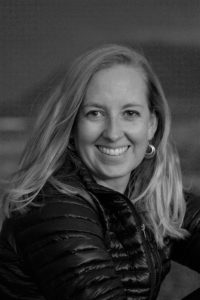 Rebecca Jewett[/caption]
Rebecca Jewett is the executive director of Palmer Land Trust, a conservation organization committed to protecting southern Colorado’s recreational open space, working agricultural land, and stunning scenic vistas. Under Rebecca’s leadership, Palmer has moved away from traditional, decades-old land conservation methods and into a more proactive model, pursuing audacious and outside-the-box conservation strategies across a variety of landscapes. By focusing on community above all else, Palmer is finding win-win scenarios that benefit all of southern Colorado’s numerous stakeholders, from ranchers and farmers to mountain bikers and climbers, and from cities and municipalities to counties and rural areas.
Rebecca is a fifth-generation Coloradan who grew up deeply immersed in the outdoors, which instilled a passion for open space that has guided her career trajectory. After ten years in public lands-related work, she made the shift into private land conservation when she took the helm of Palmer. As you’ll hear in our conversation, Rebecca has big plans for tackling some of Colorado’s most pressing conservation issues, issues that threaten the West from ecological, economic, and community perspectives. Her enthusiasm for her work is contagious, and her ability to communicate complex issues in an engaging way is second-to-none.
Folks who follow me on social media may already know, but I was so impressed with Rebecca and the rest of the Palmer team that I recently left the ranch brokerage business and joined the organization as a full-time employee. The opportunity to apply my professional expertise in real estate and finance to some of the West’s most challenging problems was too great of an opportunity to pass up—so I’m officially a full-time Palmer staff member, Rebecca is my boss, and I couldn’t be more excited about the work ahead.
I know you’ll enjoy this conversation, because Rebecca and I cover a wide range of topics that should be of interest for anyone who loves the West. We discuss the importance of water, agriculture, open space, and recreation, and how conservation can bring together stakeholders from all of those factions. We talk about the Arkansas River basin where Palmer focuses its efforts, and how it encompasses every Colorado landscape, from 14,000-foot mountains to flat, open grasslands. Rebecca elaborates on her leadership style, and also talks about her experience being a female leader in a once male-dominated industry. She also explains some specific projects that Palmer is taking on, and how the entire Colorado land trust community collaborates toward common goals. As usual, we also cover favorite books, films, places in the West, and much more.
If you haven’t already, give Rebecca and Palmer Land Trust a follow on social media, and be sure to check the episode notes for links to everything we discuss. Enjoy!
[caption id="attachment_2594" align="aligncenter" width="640"]
Rebecca Jewett[/caption]
Rebecca Jewett is the executive director of Palmer Land Trust, a conservation organization committed to protecting southern Colorado’s recreational open space, working agricultural land, and stunning scenic vistas. Under Rebecca’s leadership, Palmer has moved away from traditional, decades-old land conservation methods and into a more proactive model, pursuing audacious and outside-the-box conservation strategies across a variety of landscapes. By focusing on community above all else, Palmer is finding win-win scenarios that benefit all of southern Colorado’s numerous stakeholders, from ranchers and farmers to mountain bikers and climbers, and from cities and municipalities to counties and rural areas.
Rebecca is a fifth-generation Coloradan who grew up deeply immersed in the outdoors, which instilled a passion for open space that has guided her career trajectory. After ten years in public lands-related work, she made the shift into private land conservation when she took the helm of Palmer. As you’ll hear in our conversation, Rebecca has big plans for tackling some of Colorado’s most pressing conservation issues, issues that threaten the West from ecological, economic, and community perspectives. Her enthusiasm for her work is contagious, and her ability to communicate complex issues in an engaging way is second-to-none.
Folks who follow me on social media may already know, but I was so impressed with Rebecca and the rest of the Palmer team that I recently left the ranch brokerage business and joined the organization as a full-time employee. The opportunity to apply my professional expertise in real estate and finance to some of the West’s most challenging problems was too great of an opportunity to pass up—so I’m officially a full-time Palmer staff member, Rebecca is my boss, and I couldn’t be more excited about the work ahead.
I know you’ll enjoy this conversation, because Rebecca and I cover a wide range of topics that should be of interest for anyone who loves the West. We discuss the importance of water, agriculture, open space, and recreation, and how conservation can bring together stakeholders from all of those factions. We talk about the Arkansas River basin where Palmer focuses its efforts, and how it encompasses every Colorado landscape, from 14,000-foot mountains to flat, open grasslands. Rebecca elaborates on her leadership style, and also talks about her experience being a female leader in a once male-dominated industry. She also explains some specific projects that Palmer is taking on, and how the entire Colorado land trust community collaborates toward common goals. As usual, we also cover favorite books, films, places in the West, and much more.
If you haven’t already, give Rebecca and Palmer Land Trust a follow on social media, and be sure to check the episode notes for links to everything we discuss. Enjoy!
[caption id="attachment_2594" align="aligncenter" width="640"]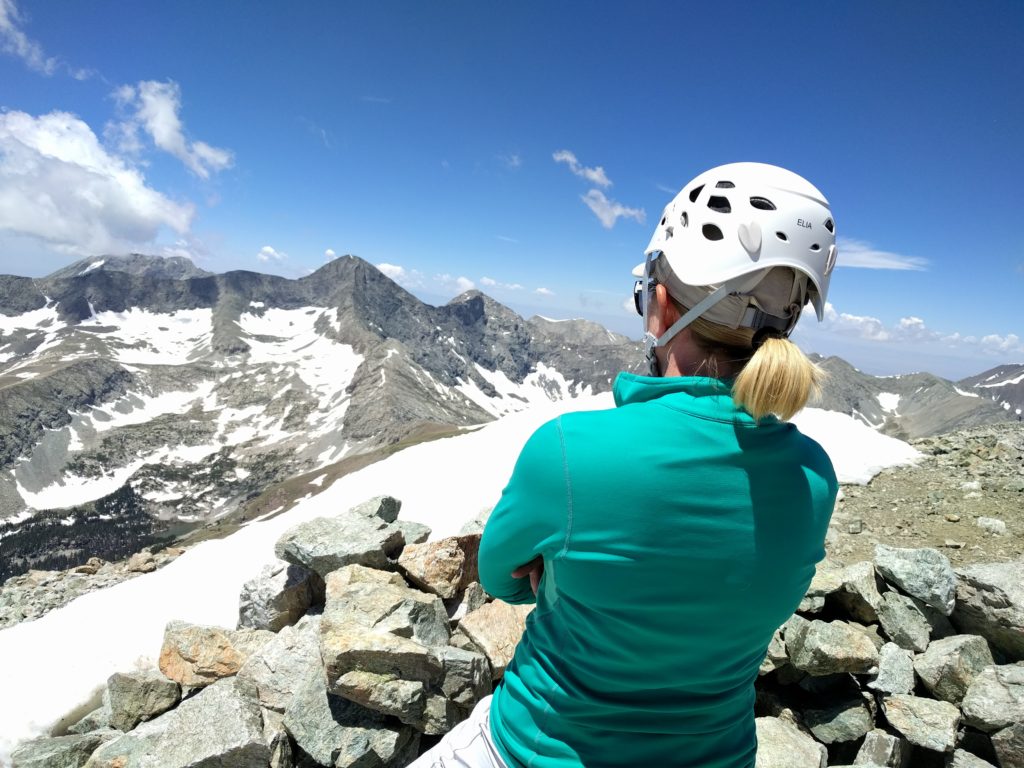 Rebecca enjoying the alpine[/caption]
https://www.youtube.com/watch?v=kNB8qwfFbVw
All photos courtesy of Rebecca Jewett
Rebecca enjoying the alpine[/caption]
https://www.youtube.com/watch?v=kNB8qwfFbVw
All photos courtesy of Rebecca Jewett
Click Here to Download on iTunes
---
Click Here to Download on Google Play
---
Click Here to Download on Stitcher
---
Episode Notes
Topics Discussed: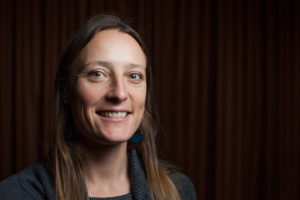 Sarah Wentzel-Fisher[/caption]
Sarah Wentzel-Fisher is the Executive Director of the Quivira Coalition, an innovative conservation organization devoted to building soil, biodiversity, and resilience on western working landscapes. Quivira was founded over twenty years ago by two conservationists and a rancher, all three of whom were exhausted by the divisive nature of the relationships between the agricultural and environmental communities. By putting their few differences aside and focusing on their many shared values, Quivira has led many of the West’s stakeholders toward collaborative, long-term solutions that improve western landscapes both ecologically and socially.
Sarah grew up in a small town in the Black Hills of South Dakota and learned the true value of community at an early age. As she grew older, she began to hone in on her interest in food—specifically how food and food production play such a huge role in the health and resilience of local communities. Her graduate work focused on the role of small-scale agriculture in New Mexico, and for six years she was the editor ofEdible Santa Fe, a New Mexico-based magazine that covers the region’s local food scene. Her background made her a perfect fit for Quivira’s mission, and her creative mindset and understanding of agriculture have allowed her to successfully lead the organization into its next phase.
I had the pleasure of meeting Sarah here in Colorado Springs as she was on the tail end of a massive road trip through the West visiting with farmers, ranchers, and land managers. We had a fun conversation and touched on so many of the subjects that are of interest to me and to the podcast listeners. We chatted about the specifics of regenerative agriculture, and some of the misconceptions among well-meaning environmentalists around grazing as an effective method to fight climate change. Speaking of climate change, we talked about why Quivira does not hesitate to discuss climate change, even though that term can be a hot button issue among certain groups. We discussed the idea of rugged individualism, Quivira’s concept of the “Radical Center,” and the organization’s agricultural mentor program. She offered some advice for aspiring conservationists, and talked about how her creativity has served her well as a leader. And as usual, we covered books, films, favorite places in the West and more.
I encourage you to visit Quivira’s website and also to check out their podcast—it’s called Down To Earth: The Planet to Plate Podcast. If you’re a fan of this podcast, odds are you’ll enjoy that one, as well. You’ll probably like it better actually. Check the episode notes for links to everything we discuss, and enjoy!
All photos courtesy of Sarah Wentzel-Fisher
Sarah Wentzel-Fisher[/caption]
Sarah Wentzel-Fisher is the Executive Director of the Quivira Coalition, an innovative conservation organization devoted to building soil, biodiversity, and resilience on western working landscapes. Quivira was founded over twenty years ago by two conservationists and a rancher, all three of whom were exhausted by the divisive nature of the relationships between the agricultural and environmental communities. By putting their few differences aside and focusing on their many shared values, Quivira has led many of the West’s stakeholders toward collaborative, long-term solutions that improve western landscapes both ecologically and socially.
Sarah grew up in a small town in the Black Hills of South Dakota and learned the true value of community at an early age. As she grew older, she began to hone in on her interest in food—specifically how food and food production play such a huge role in the health and resilience of local communities. Her graduate work focused on the role of small-scale agriculture in New Mexico, and for six years she was the editor ofEdible Santa Fe, a New Mexico-based magazine that covers the region’s local food scene. Her background made her a perfect fit for Quivira’s mission, and her creative mindset and understanding of agriculture have allowed her to successfully lead the organization into its next phase.
I had the pleasure of meeting Sarah here in Colorado Springs as she was on the tail end of a massive road trip through the West visiting with farmers, ranchers, and land managers. We had a fun conversation and touched on so many of the subjects that are of interest to me and to the podcast listeners. We chatted about the specifics of regenerative agriculture, and some of the misconceptions among well-meaning environmentalists around grazing as an effective method to fight climate change. Speaking of climate change, we talked about why Quivira does not hesitate to discuss climate change, even though that term can be a hot button issue among certain groups. We discussed the idea of rugged individualism, Quivira’s concept of the “Radical Center,” and the organization’s agricultural mentor program. She offered some advice for aspiring conservationists, and talked about how her creativity has served her well as a leader. And as usual, we covered books, films, favorite places in the West and more.
I encourage you to visit Quivira’s website and also to check out their podcast—it’s called Down To Earth: The Planet to Plate Podcast. If you’re a fan of this podcast, odds are you’ll enjoy that one, as well. You’ll probably like it better actually. Check the episode notes for links to everything we discuss, and enjoy!
All photos courtesy of Sarah Wentzel-Fisher
Click Here to Download on iTunes
---
Click Here to Download on Google Play
---
Click Here to Download on Stitcher
---
Episode Notes
Topics Discussed:-
The Third Plateby Dan Barber
-
Braiding Sweetgrass by Robin Wall Kimmerer
-
Where Our Food Comes From by Gary Habhan
-
Angle of Reposeby Wallace Stegner
-
The Painter by Peter Heller
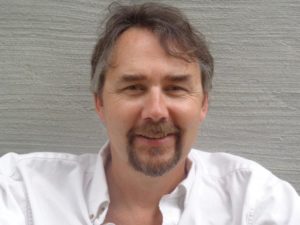 David Gessner (photo by Nina de Gramont)[/caption]
David Gessner is an author, a professor, and one of the leading contemporary voices on the natural world and the American West. He has written ten books, including All the Wild That Remains: Edward Abbey, Wallace Stegner, and the American West, which is one of my all-time favorites and was a former Mountain & Prairie Book Club selection. Thanks to his influences ranging from Henry David Thoreau to Theodore Roosevelt to Wendell Berry, David preaches the gospel of appreciating “place" and protecting our wild landscapes, public lands, and fragile Western ecosystem.
I’ve been a huge fan of David’s work for many years, and have read almost everything he has written. I cannot overstate how much his writing has helped me understand both the history and the modern-day challenges of the American West, as well as the individuals who have shaped the region. Through his masterful prose, he combines history, current events, deep personal insights, and a hilarious sense of humor into amazingly impactful books. Without his writing, my interest in land conservation would be a fraction of what it is today.
David was in Colorado conducting research for a new book focused on public lands, Bears Ears, and Theodore Roosevelt, so we met up in Boulder for our conversation. In a little over an hour, we managed to cover a wide range of topics including public lands, Stegner, Abbey, TR, the idea of “Boomers and Stickers,” and the importance of place. David described how a bout with cancer helped to change his writing style and interests, and how moving to Boulder in his thirties altered the trajectory of his life and career. We discussed his writing process, his coastal writing shack, and how his approach to writing has evolved over the years. As usual, we also touched on favorite books, films, and his most powerful outdoor experience.
Meeting David and having this conversation was a dream come true for me, so many thanks to him for taking the time to chat. There are a lot of resources and other priceless information in this episode, so be sure to check the notes for links to everything. Enjoy!
[caption id="attachment_2516" align="aligncenter" width="481"]
David Gessner (photo by Nina de Gramont)[/caption]
David Gessner is an author, a professor, and one of the leading contemporary voices on the natural world and the American West. He has written ten books, including All the Wild That Remains: Edward Abbey, Wallace Stegner, and the American West, which is one of my all-time favorites and was a former Mountain & Prairie Book Club selection. Thanks to his influences ranging from Henry David Thoreau to Theodore Roosevelt to Wendell Berry, David preaches the gospel of appreciating “place" and protecting our wild landscapes, public lands, and fragile Western ecosystem.
I’ve been a huge fan of David’s work for many years, and have read almost everything he has written. I cannot overstate how much his writing has helped me understand both the history and the modern-day challenges of the American West, as well as the individuals who have shaped the region. Through his masterful prose, he combines history, current events, deep personal insights, and a hilarious sense of humor into amazingly impactful books. Without his writing, my interest in land conservation would be a fraction of what it is today.
David was in Colorado conducting research for a new book focused on public lands, Bears Ears, and Theodore Roosevelt, so we met up in Boulder for our conversation. In a little over an hour, we managed to cover a wide range of topics including public lands, Stegner, Abbey, TR, the idea of “Boomers and Stickers,” and the importance of place. David described how a bout with cancer helped to change his writing style and interests, and how moving to Boulder in his thirties altered the trajectory of his life and career. We discussed his writing process, his coastal writing shack, and how his approach to writing has evolved over the years. As usual, we also touched on favorite books, films, and his most powerful outdoor experience.
Meeting David and having this conversation was a dream come true for me, so many thanks to him for taking the time to chat. There are a lot of resources and other priceless information in this episode, so be sure to check the notes for links to everything. Enjoy!
[caption id="attachment_2516" align="aligncenter" width="481"]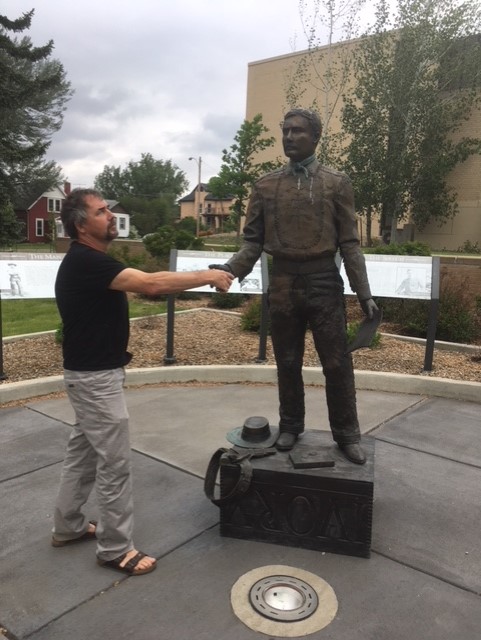 A Meeting of the Minds: David and TR in the Badlands (photo courtesy of David Gessner)[/caption]
A Meeting of the Minds: David and TR in the Badlands (photo courtesy of David Gessner)[/caption]
Click Here to Download on iTunes
---
Click Here to Download on Google Play
---
Click Here to Download on Stitcher
---
Episode Notes
Topics Discussed:-
The Rise of Theodore Roosevelt by Edmund Morris
- Theodore Roosevelt: A Strenuous Life by Kathleen Dalton
- Henry David Thoreau
- Theodore Roosevelt
- Wendell Berry
-
Life Work by Donald Hall
-
Angle of Repose by Wallace Stegner
-
Beyond the Hundredth Meridian by Wallace Stegner
-
Desert Solitaire by Edward Abbey
-
Crossing to Safety by Wallace Stegner
-
How to Change Your Mind by Michael Pollan

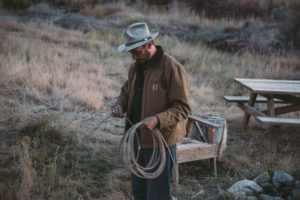 Daniel Vergés[/caption]
Daniel Vergés is an artist and graphic designer who captures the essence of life in the American West through simple yet amazingly impactful paintings and drawings. Like many of my podcast guests, Daniel grew up obsessed with all things western—but unlike previous guests, Daniel grew up and currently lives in Spain, where he works and creates western-focused art in his rural studio. His life-long love of the West was solidified during the time he spent living and working on the Zapata Ranch, a 103,000-acre cattle and bison ranch located in Colorado’s San Luis Valley.
Despite living so far from the American West now, Daniel’s deep love of and respect for the landscape, people, and history would make you think he’s been here his entire life. Sometimes those of us who live in the West can lose perspective on just what a spectacular place it is, so I enjoyed learning more about Daniel’s perspective as someone who does not physically live here yet is heavily influenced by the West's landscapes and culture on a daily basis. If you ever find yourself getting jaded about life in the West, just listen to the way he describes mountains, prairies, ranches, and bison, then take a look at his art, and you’ll snap right out of it!
Daniel and I had a wonderful conversation that covered everything from life on the Zapata Ranch to his creative process. We chatted about his childhood interest in the West and his impressions of the wide-open spaces and wildlife during his first trip to Colorado. We discussed how the West influences his art, and how he strives for simplicity in his art and life. We talked about his collaborations with other artists, such as former podcast guest Camrin Dengel, and how these partnerships fuel his creativity. Daniel also discussed how his discipline of daily drawing and his passion for creating have driven his success as an artist. And as usual, we covered books, films, favorite places in the West, and much more, so be sure to check the episode notes for links to everything.
And there’s one more piece of exciting news—Daniel created a special painting for the Mountain and Prairie podcast featuring my favorite animal, the bison. It’s a super-cool piece, and I’m honored that he took the time to create something so special for the podcast. We discuss it a bit during our conversation, and I loved hearing how Daniel created it. Check out the podcast webpage to see it-- I set up a little online shop where you can buy shirts and hats featuring the art. There are links on the website to everything, so go check it out!
I know you’ll enjoy this episode. Thanks for listening.
[caption id="attachment_2488" align="aligncenter" width="640"]
Daniel Vergés[/caption]
Daniel Vergés is an artist and graphic designer who captures the essence of life in the American West through simple yet amazingly impactful paintings and drawings. Like many of my podcast guests, Daniel grew up obsessed with all things western—but unlike previous guests, Daniel grew up and currently lives in Spain, where he works and creates western-focused art in his rural studio. His life-long love of the West was solidified during the time he spent living and working on the Zapata Ranch, a 103,000-acre cattle and bison ranch located in Colorado’s San Luis Valley.
Despite living so far from the American West now, Daniel’s deep love of and respect for the landscape, people, and history would make you think he’s been here his entire life. Sometimes those of us who live in the West can lose perspective on just what a spectacular place it is, so I enjoyed learning more about Daniel’s perspective as someone who does not physically live here yet is heavily influenced by the West's landscapes and culture on a daily basis. If you ever find yourself getting jaded about life in the West, just listen to the way he describes mountains, prairies, ranches, and bison, then take a look at his art, and you’ll snap right out of it!
Daniel and I had a wonderful conversation that covered everything from life on the Zapata Ranch to his creative process. We chatted about his childhood interest in the West and his impressions of the wide-open spaces and wildlife during his first trip to Colorado. We discussed how the West influences his art, and how he strives for simplicity in his art and life. We talked about his collaborations with other artists, such as former podcast guest Camrin Dengel, and how these partnerships fuel his creativity. Daniel also discussed how his discipline of daily drawing and his passion for creating have driven his success as an artist. And as usual, we covered books, films, favorite places in the West, and much more, so be sure to check the episode notes for links to everything.
And there’s one more piece of exciting news—Daniel created a special painting for the Mountain and Prairie podcast featuring my favorite animal, the bison. It’s a super-cool piece, and I’m honored that he took the time to create something so special for the podcast. We discuss it a bit during our conversation, and I loved hearing how Daniel created it. Check out the podcast webpage to see it-- I set up a little online shop where you can buy shirts and hats featuring the art. There are links on the website to everything, so go check it out!
I know you’ll enjoy this episode. Thanks for listening.
[caption id="attachment_2488" align="aligncenter" width="640"]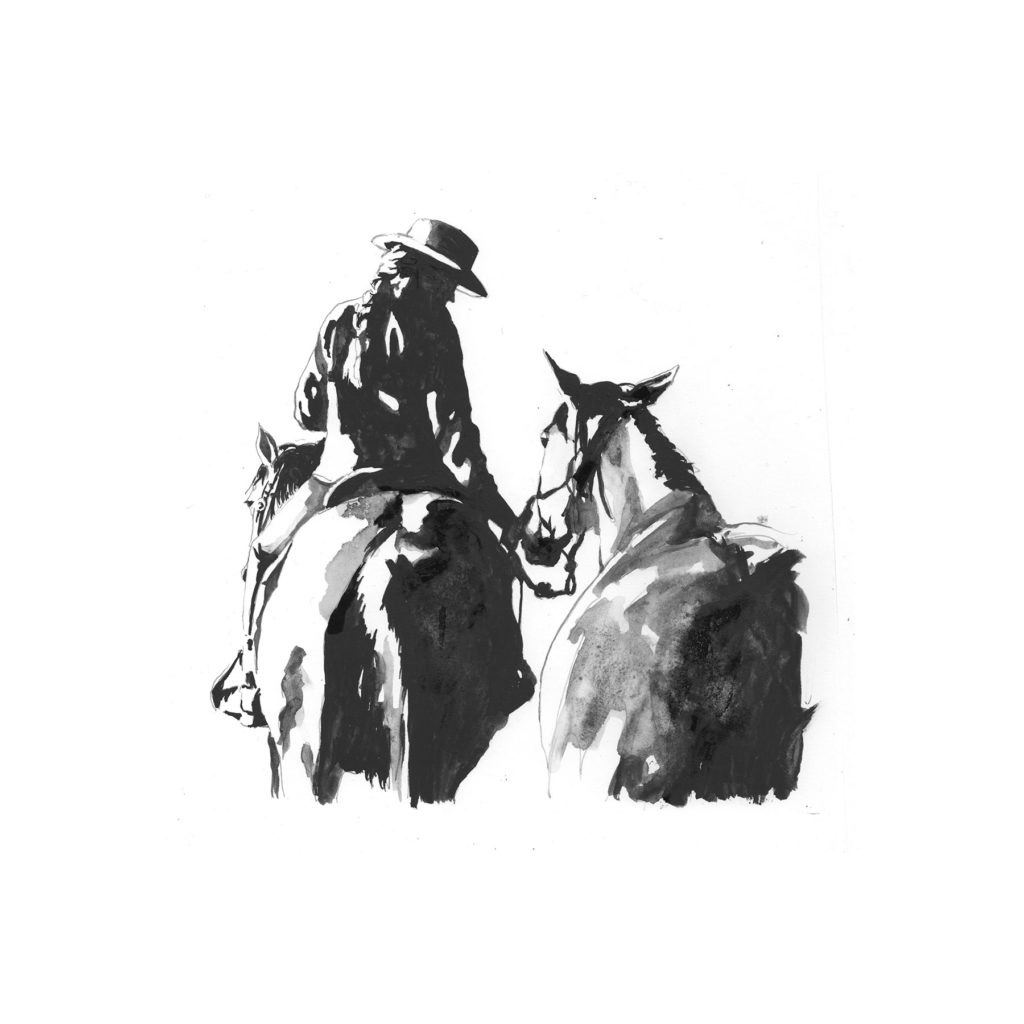 One of Daniel's collaborations with Camrin Dengel[/caption]
[caption id="attachment_2489" align="aligncenter" width="640"]
One of Daniel's collaborations with Camrin Dengel[/caption]
[caption id="attachment_2489" align="aligncenter" width="640"]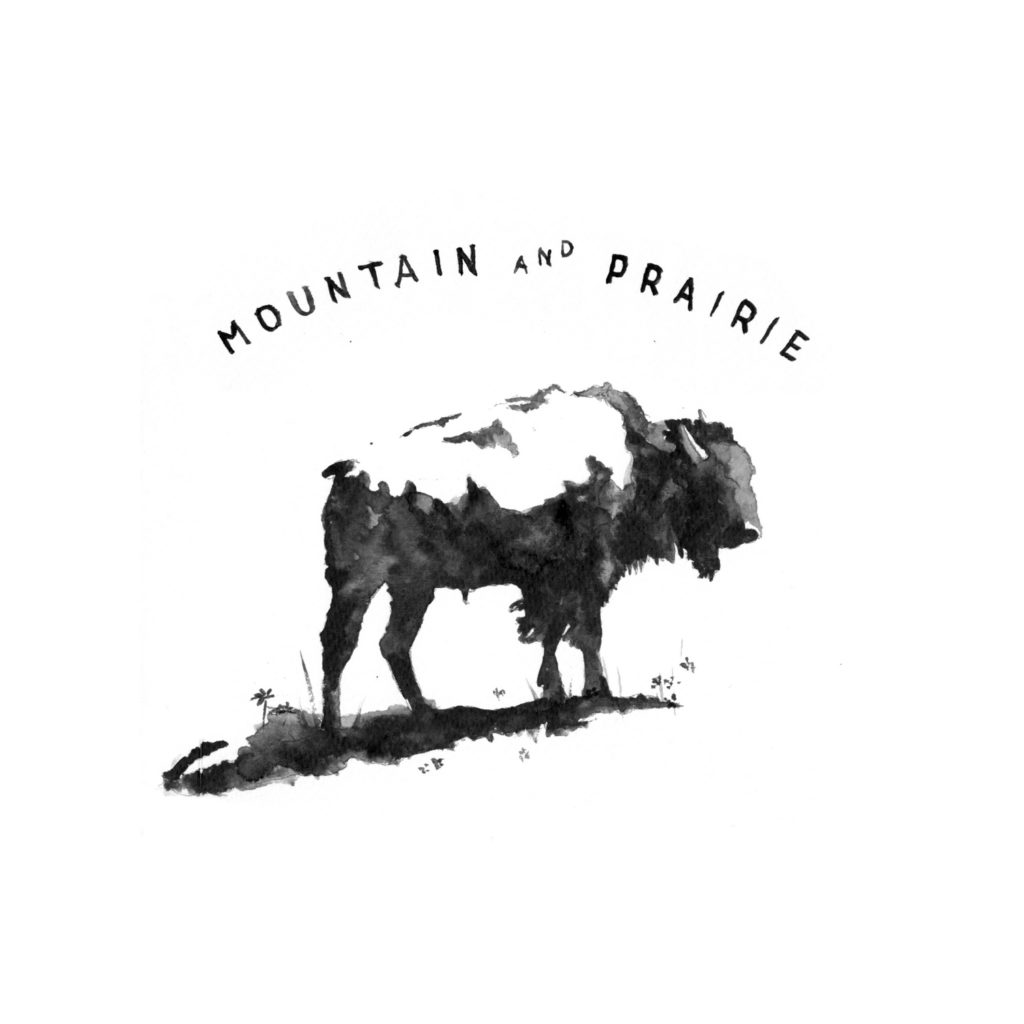 Podcast art created by Daniel - Available in the M&P store![/caption]
Photos by Kate Matheson, art by Daniel Verges
Podcast art created by Daniel - Available in the M&P store![/caption]
Photos by Kate Matheson, art by Daniel Verges
Click Here to Download on iTunes
---
Click Here to Download on Google Play
---
Click Here to Download on Stitcher
---
Episode Notes
Topics Discussed:- Daniel on Instagram
- Slow Artworks
- Ranchlands
- Zapata Ranch
- Chris Eyer interview
- Sarah King interview
- Camrin Dengel interview
- Jillian Lukiwski interview
- Teal Blake interview
- Duke Beardsley interview
- Mark Maggiori interview
- Becca Skinner interview
- In Praise of Shadows by Junichiro Tanizaki
- Wabi Sabi for Artists, Designers, Poets, and Philosophers by Leonard Koren
- Seth Godin
- The Glass Castle by Jeannette Walls
- The Wolves of Currumpaw by William Grill
- Walking by Thoreau
- My Family and Other Animals by Gerald Durrell
- Wind River
- Hostiles
- Charged
- Daniel Verges - Mountain & Prairie Art for Sale

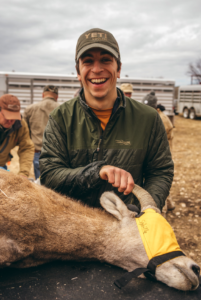 Adam Foss[/caption]
Adam Foss is a world-class hunter who has transformed his passion for wildlife and wild places into a rewarding career in filmmaking and photography. Adam has been obsessed with wilderness adventure for practically his entire life. At age 24, he was the youngest person to take all four species of North American sheep with a bow, an amazing achievement for a hunter of any age. But despite this accomplishment and others, Adam is much more focused on the process of the hunt—spending challenging days in the mountains, forming long-lasting friendships, stewarding public lands, and conserving legendary big game species.
Born in the Canadian Rockies, Adam spent much of his youth bow hunting with his father and older brother. As he grew older, his hunting trips expanded in geography and complexity, and he has now hunted many of the world’s wildest places for some of the most renowned big game. Adam initially considered a career in wildlife biology, but decided to go the creative route instead—he and his wife are now the owners of Foss Media, a company that creates films and photography for some of the most iconic outdoor brands today. As you’ll hear, Adam is passionate about wildlife, storytelling, and conservation, but he is equally humble, grounded, and grateful for being able to do what he loves on a daily basis.
We caught up over Skype, as Adam and his wife are currently traveling around Canada and the American West working on creative projects. We had a fun conversation and managed to cover a lot in just over an hour. We discussed Adam’s childhood in Canada and the lessons he learned from hunting with his father and brother. We chatted about how Adam values the process of hunting over the end goal of taking an animal and our shared theory that hunting taps into something primal in our human DNA. We talked in detail about conservation, specifically the role of public lands in both the United States and Canada. Adam also offered some wise advice to people who want to learn to hunt but may not have a long-standing connection to the sport. And as usual, we discussed Adam’s favorite books, films, and his most powerful outdoor experience.
This was such a fun conversation, and it’s clear that Adam has thought long and hard about these issues. I really enjoyed getting to know Adam, and I think you will too.
Photos courtesy of Adam Foss
Adam Foss[/caption]
Adam Foss is a world-class hunter who has transformed his passion for wildlife and wild places into a rewarding career in filmmaking and photography. Adam has been obsessed with wilderness adventure for practically his entire life. At age 24, he was the youngest person to take all four species of North American sheep with a bow, an amazing achievement for a hunter of any age. But despite this accomplishment and others, Adam is much more focused on the process of the hunt—spending challenging days in the mountains, forming long-lasting friendships, stewarding public lands, and conserving legendary big game species.
Born in the Canadian Rockies, Adam spent much of his youth bow hunting with his father and older brother. As he grew older, his hunting trips expanded in geography and complexity, and he has now hunted many of the world’s wildest places for some of the most renowned big game. Adam initially considered a career in wildlife biology, but decided to go the creative route instead—he and his wife are now the owners of Foss Media, a company that creates films and photography for some of the most iconic outdoor brands today. As you’ll hear, Adam is passionate about wildlife, storytelling, and conservation, but he is equally humble, grounded, and grateful for being able to do what he loves on a daily basis.
We caught up over Skype, as Adam and his wife are currently traveling around Canada and the American West working on creative projects. We had a fun conversation and managed to cover a lot in just over an hour. We discussed Adam’s childhood in Canada and the lessons he learned from hunting with his father and brother. We chatted about how Adam values the process of hunting over the end goal of taking an animal and our shared theory that hunting taps into something primal in our human DNA. We talked in detail about conservation, specifically the role of public lands in both the United States and Canada. Adam also offered some wise advice to people who want to learn to hunt but may not have a long-standing connection to the sport. And as usual, we discussed Adam’s favorite books, films, and his most powerful outdoor experience.
This was such a fun conversation, and it’s clear that Adam has thought long and hard about these issues. I really enjoyed getting to know Adam, and I think you will too.
Photos courtesy of Adam Foss
Click Here to Download on iTunes
---
Click Here to Download on Google Play
---
Click Here to Download on Stitcher
---
Episode Notes
Topics Discussed:- Foss Media
- Adam on Instagram
- Wild Sheep Foundation
- Rocky Mountain Goat Alliance
- Andy Russell
- Life at Full Draw: The Chuck Adams Story by Gregg Gutschow
- Backcountry Bow Hunting by Cam Haynes
- Jack Frost
- Tom Hoffman
- Charles Post podcast
- Tyler Sharp podcast
- Modern Huntsman
- The Nature Fix by Florence Williams
- Horns in the High Country by Andy Russell
- The Alchemist by Paulo Coelho
- Death in the Long Grass by Peter Capstick
- Death in the Silent Places by Peter Capstick
- Tim Ferriss
- Tim Ferriss Podcast
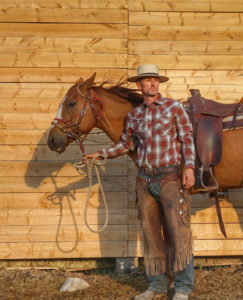 Chris Eyer[/caption]
Chris Eyer is a true Western polymath. He is probably best known for his work as a mule packer, in which he uses mules to transport supplies into some of Montana’s most remote wilderness areas—he documents the adventures on his extremely popular Instagram account @muledragger. But as you’ll hear in our conversation, mule packing only scratches the surface—Chris is an experienced mountaineer and climber, a former US Marine, a practicing Buddhist, a leather craftsman, and a successful electrical contractor. From his home base in Montana’s Bitterroot Valley, Chris leads a full and fascinating life, working hard and enjoying his connection to the natural world and his animals.
Chris was raised in California, and from an early age was attracted to the outdoors and adventures in wild places. On a backpacking trip during his teens, he came across a team of mules and was immediately entranced—from that moment on, he knew that he wanted to work as a mule packer. As an adult, Chris taught himself the ins and outs of mule packing, a hard-knocks method of learning that’s not for the faint of heart. But through this long and tough self-education, he established incredibly deep relationships with all of his animals-- relationships that have significantly enriched his life in many ways.
As you’d expect from someone with Chris’s diverse set of experiences, we had an extremely wide-ranging conversation. We chat about how he became a mule packer and some of the crazy and scary experiences early in his career. We cover his time in the Marines, and the lessons he learned that carry over into his daily life now. We also discuss his connection to Buddhism and his meditation practice, and how his mindful approach to life and wilderness travel keeps him and his team of animals safe in dangerous situations. Chris also explains the specifics of mules from a biological and temperamental perspective. We discuss Chris’s unique connection to legendary alpinist Conrad Anker, as well as the similarities between packing and climbing. As usual, we hit upon books, films, favorite places in the West, and much more.
There’s a ton of amazing information in this episode, so be sure the check out the episode notes. Hopefully I’ll get Chris back for a part two, because there’s still plenty to discuss. Enjoy!
Photos courtesy of Chris Eyer
Chris Eyer[/caption]
Chris Eyer is a true Western polymath. He is probably best known for his work as a mule packer, in which he uses mules to transport supplies into some of Montana’s most remote wilderness areas—he documents the adventures on his extremely popular Instagram account @muledragger. But as you’ll hear in our conversation, mule packing only scratches the surface—Chris is an experienced mountaineer and climber, a former US Marine, a practicing Buddhist, a leather craftsman, and a successful electrical contractor. From his home base in Montana’s Bitterroot Valley, Chris leads a full and fascinating life, working hard and enjoying his connection to the natural world and his animals.
Chris was raised in California, and from an early age was attracted to the outdoors and adventures in wild places. On a backpacking trip during his teens, he came across a team of mules and was immediately entranced—from that moment on, he knew that he wanted to work as a mule packer. As an adult, Chris taught himself the ins and outs of mule packing, a hard-knocks method of learning that’s not for the faint of heart. But through this long and tough self-education, he established incredibly deep relationships with all of his animals-- relationships that have significantly enriched his life in many ways.
As you’d expect from someone with Chris’s diverse set of experiences, we had an extremely wide-ranging conversation. We chat about how he became a mule packer and some of the crazy and scary experiences early in his career. We cover his time in the Marines, and the lessons he learned that carry over into his daily life now. We also discuss his connection to Buddhism and his meditation practice, and how his mindful approach to life and wilderness travel keeps him and his team of animals safe in dangerous situations. Chris also explains the specifics of mules from a biological and temperamental perspective. We discuss Chris’s unique connection to legendary alpinist Conrad Anker, as well as the similarities between packing and climbing. As usual, we hit upon books, films, favorite places in the West, and much more.
There’s a ton of amazing information in this episode, so be sure the check out the episode notes. Hopefully I’ll get Chris back for a part two, because there’s still plenty to discuss. Enjoy!
Photos courtesy of Chris Eyer
Click Here to Download on iTunes
---
Click Here to Download on Google Play
---
Click Here to Download on Stitcher
---
Episode Notes
Topics Discussed: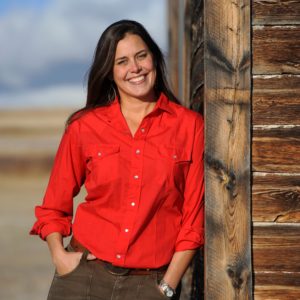 Sarah Calhoun[/caption]
Sarah Calhoun is the founder and owner of Red Ants Pants, a Montana-based apparel company that makes high-quality, American-made workwear for women. But Sarah’s business ventures are just the tip of the iceberg—she also started the Red Ants Pants Music Festival, which attracts world-class musicians like Dwight Yoakam and Lucinda Williams. The proceeds from the music festival support Sarah’s third venture, the Red Ants Pants Foundation, an organization dedicated to developing women’s leadership, supporting local farms and ranches, and enriching communities. It’s simply amazing that one person can do this much work!
Sarah was raised on a farm in New England, and spent her early career working as an instructor for Outward Bound. After reading Ivan Doig’s This House of Sky, she packed up and moved to Montana, where she began to turn her idea for Red Ants Pants into a reality. She learned to sew, taught herself the basics of the apparel business, and eventually moved to the small agricultural community of White Sulphur Springs, where Red Ants Pants opened for business. As you’ll hear, selling pants is just one aspect of Sarah’s larger vision—she’s using her company to build community, empower women, and bring together people of differing perspectives and backgrounds.
We had a very interesting conversation, and you’ll be blown away by Sarah’s focus, vision, and the staggering amount she has been able to accomplish. She talks about growing up in New England, and how her family helped to instill her relentless work ethic. She discusses her time teaching at Outward Bound, and how many of the lessons learned in that role have translated to her business. We chat about how the Red Ants Pants business model flies in the face of traditional MBA theories, and how her lack of business experience was actually a strength when starting the company. We also talk about how hard work in the outdoors builds self-confidence, as well as her future plans for the foundation. And as usual, we discuss impactful books, films, and the best advice she’s ever received.
This is a great episode, and I know you’ll enjoy it. There’s a lot here, so be sure to check the episode notes for links to all that we discuss. Enjoy!
Photos courtesy of Red Ants Pants
Sarah Calhoun[/caption]
Sarah Calhoun is the founder and owner of Red Ants Pants, a Montana-based apparel company that makes high-quality, American-made workwear for women. But Sarah’s business ventures are just the tip of the iceberg—she also started the Red Ants Pants Music Festival, which attracts world-class musicians like Dwight Yoakam and Lucinda Williams. The proceeds from the music festival support Sarah’s third venture, the Red Ants Pants Foundation, an organization dedicated to developing women’s leadership, supporting local farms and ranches, and enriching communities. It’s simply amazing that one person can do this much work!
Sarah was raised on a farm in New England, and spent her early career working as an instructor for Outward Bound. After reading Ivan Doig’s This House of Sky, she packed up and moved to Montana, where she began to turn her idea for Red Ants Pants into a reality. She learned to sew, taught herself the basics of the apparel business, and eventually moved to the small agricultural community of White Sulphur Springs, where Red Ants Pants opened for business. As you’ll hear, selling pants is just one aspect of Sarah’s larger vision—she’s using her company to build community, empower women, and bring together people of differing perspectives and backgrounds.
We had a very interesting conversation, and you’ll be blown away by Sarah’s focus, vision, and the staggering amount she has been able to accomplish. She talks about growing up in New England, and how her family helped to instill her relentless work ethic. She discusses her time teaching at Outward Bound, and how many of the lessons learned in that role have translated to her business. We chat about how the Red Ants Pants business model flies in the face of traditional MBA theories, and how her lack of business experience was actually a strength when starting the company. We also talk about how hard work in the outdoors builds self-confidence, as well as her future plans for the foundation. And as usual, we discuss impactful books, films, and the best advice she’s ever received.
This is a great episode, and I know you’ll enjoy it. There’s a lot here, so be sure to check the episode notes for links to all that we discuss. Enjoy!
Photos courtesy of Red Ants Pants
Click Here to Download on iTunes
---
Click Here to Download on Google Play
---
Click Here to Download on Stitcher
---
Episode Notes
Topics Discussed:- Sarah Calhoun
- Red Ants Pants
- Red Ants Pants Music Festival
- Red Ants Pants Foundation
- White Sulphur Springs, MT
- Ivan Doig
- This House of Sky by Ivan Doig
- Sarah King podcast episode
- Tribe by Sebastian Junger
- Blind Your Ponies by Stanley Gordon West
- Edward Abbey
- Wallace Stegner
- Ernest Hemingway
- Prodigal Summer by Barbara Kingsolver
- Wind River
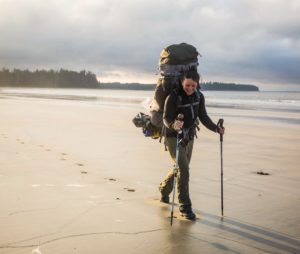 Becca Skinner[/caption]
Becca Skinner is a Bozeman-based photographer, writer, and adventurer whose work has taken her to some of the farthest corners of the globe. Growing up between Colorado and Wyoming, Becca was raised by adventurous and supportive parents who nurtured her love of the outdoors and her artistic endeavors. As a young woman, Becca's genuine interest in social work and helping the less fortunate led to her winning grants to photograph post-Katrina New Orleans and post-tsunami Sumatra. Those experiences, and the body of work they produced, allowed Becca to pursue her passion of photography full time, and her career continues to grow and evolve in exciting ways.
As you’ll hear, Becca has been willing to be single-mindedly focused and take calculated risks to “make it” as a professional photographer. When she did not win a National Geographic Young Explorers Grant the first time she applied, she dusted herself off, re-focused her efforts, and was successful on her second try. After saving enough money, she struck out alone on a 32,000-mile road trip through the American West, living in her car, honing her craft, and continuing to build her portfolio. She has devised methods for staying positive in immensely uncomfortable situations, such as a cold, wet expedition in Vancouver’s coastal backcountry, which we discuss in detail. Despite her success, Becca remains humble and down to earth, and we had a very fun conversation.
We covered a wide range of subjects-- we discussed her childhood in the West and how her family played such a formative role in shaping her career and life. We chatted about her experiences in New Orleans and Sumatra, and how the disaster victims' attitudes toward the catastrophes varied so widely. We discussed her first road trip throughout the West and how she handled being alone for such long stretches. We also talked about the importance of having solid expedition teammates and the challenges of integrating back into day-to-day life after an intense trip. And of course, we covered favorite books, films, and the best advice she’s ever received.
If you don’t already, be sure to follow Becca on Instagram and other social media. Links to everything are in the episode notes. Enjoy!
[caption id="attachment_2346" align="aligncenter" width="960"]
Becca Skinner[/caption]
Becca Skinner is a Bozeman-based photographer, writer, and adventurer whose work has taken her to some of the farthest corners of the globe. Growing up between Colorado and Wyoming, Becca was raised by adventurous and supportive parents who nurtured her love of the outdoors and her artistic endeavors. As a young woman, Becca's genuine interest in social work and helping the less fortunate led to her winning grants to photograph post-Katrina New Orleans and post-tsunami Sumatra. Those experiences, and the body of work they produced, allowed Becca to pursue her passion of photography full time, and her career continues to grow and evolve in exciting ways.
As you’ll hear, Becca has been willing to be single-mindedly focused and take calculated risks to “make it” as a professional photographer. When she did not win a National Geographic Young Explorers Grant the first time she applied, she dusted herself off, re-focused her efforts, and was successful on her second try. After saving enough money, she struck out alone on a 32,000-mile road trip through the American West, living in her car, honing her craft, and continuing to build her portfolio. She has devised methods for staying positive in immensely uncomfortable situations, such as a cold, wet expedition in Vancouver’s coastal backcountry, which we discuss in detail. Despite her success, Becca remains humble and down to earth, and we had a very fun conversation.
We covered a wide range of subjects-- we discussed her childhood in the West and how her family played such a formative role in shaping her career and life. We chatted about her experiences in New Orleans and Sumatra, and how the disaster victims' attitudes toward the catastrophes varied so widely. We discussed her first road trip throughout the West and how she handled being alone for such long stretches. We also talked about the importance of having solid expedition teammates and the challenges of integrating back into day-to-day life after an intense trip. And of course, we covered favorite books, films, and the best advice she’s ever received.
If you don’t already, be sure to follow Becca on Instagram and other social media. Links to everything are in the episode notes. Enjoy!
[caption id="attachment_2346" align="aligncenter" width="960"]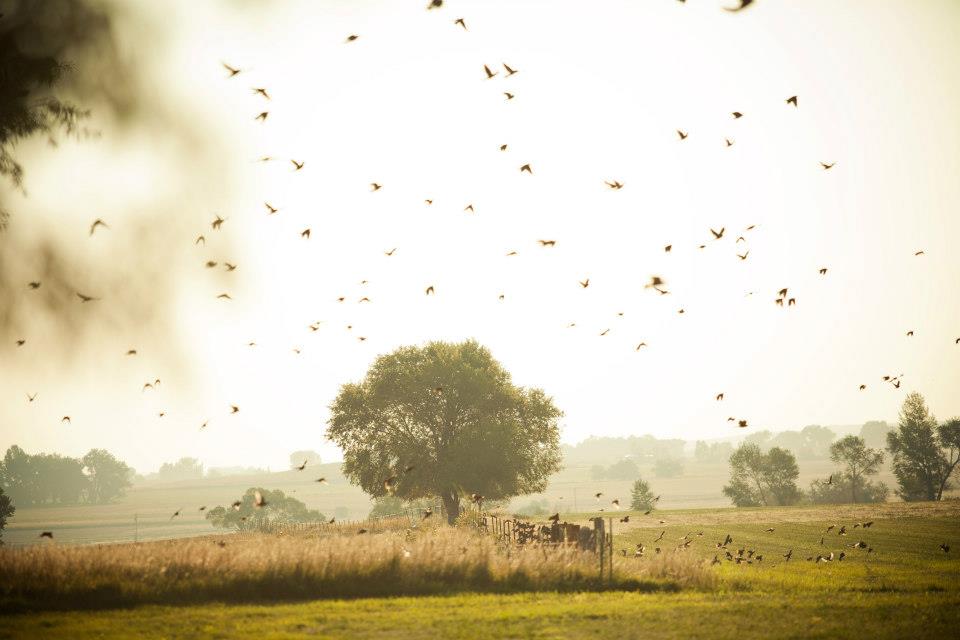 Photo mentioned by Becca at 1:03:00[/caption]
Header photo courtesy of Becca Skinner
Photo mentioned by Becca at 1:03:00[/caption]
Header photo courtesy of Becca Skinner
Click Here to Download on iTunes
---
Click Here to Download on Google Play
---
Click Here to Download on Stitcher
---
Episode Notes
Topics Discussed:- Becca Skinner
- Becca on Instagram and Facebook
- Nat Geo Young Explorers Grant
- Becca’s Panama kayak adventure
- Becca’s Nat Geo speech
- Lander, WY
- Muddy Gap, WY
- NOLS
- Joe Riis
- Jim Balog - Extreme Ice
- Todd Skinner
- Playa Grande, Costa Rica
- Jimmy Chin
- Brendan Leonard interview
- Claire Fieseler
- Being Here film
- Hilary Oliver
- The New American Road Trip Mixtape by Brendan Leonard
- Short Nights of the Shadow Catcher by Timothy Egan
- Cougar Annie’s Garden by Margaret Horsfield
- Unbranded
- Planet Earth
- The River and the Wall
- Cory Richards
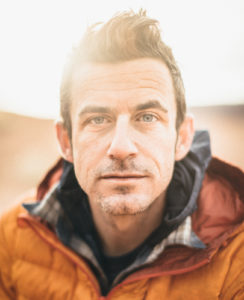 Brendan Leonard[/caption]
Brendan Leonard is a writer and creative whose stories about adventure in wild places have built him a loyal following in the outdoor world and beyond. Whether it’s writing for his blog Semi-Rad, authoring eight books, or making films such as his recent How to Run 100 Miles Brendan combines humor, introspection, and skilled storytelling in an authentic way that strikes a chord with a wide range of audiences. But as you’ll hear, Brendan’s secret ingredient to success in his creative pursuits is his ability to consistently focus in and grind out the hard work, week after week, year after year.
Brendan is an Iowa native who moved West to attend journalism school at the University of Montana. After struggling with alcohol addiction in his youth, the West’s wide-open spaces brought Brendan a much-needed change of scenery and the opportunity for a fresh start. What started as short hikes around Missoula transformed into an all-in obsession with rock climbing that eventually led to writing gigs with Outside, Men’s Journal, Alpinist, and other well-known publications. Brendan is a shining example of how persistence, hard work, and a willingness to bet on yourself can lead to a fulfilling life and career doing what you love.
We had a wide-ranging, fun, and hilarious conversation about his life and career, and we also managed to wander into a few completely unexpected topics. We chatted about Brendan’s “all-or-nothing” personality, and the challenges and rewards associated with being wired that way. We discussed his ability to focus on the process rather than the goal, and how that approach is beneficial when creating or pursuing an outdoor objective. We obviously talked about climbing, but also discussed ultramarathons, specifically his recent experience running a 103-mile race through the Colorado mountains. And as you’ve come to expect, we covered favorite books, films, and a long list of other interesting topics.
This interview was so much fun, and I really appreciate Brendan having me over to chat. I highly recommend his books 60 Meters to Anywhere and Make It Till You Make It, so be sure to check those out.. Also, watch his film “How To Run 100 Miles”-- I’ve watched a ton of ultrarunning films, and this one is my favorite. Check the episode notes for links to all of this and more. Hope you enjoy!
https://youtu.be/iC7Lh4opLsc
Header photo by Forest Woodward, headshot courtesy of Brendan Leonard
Brendan Leonard[/caption]
Brendan Leonard is a writer and creative whose stories about adventure in wild places have built him a loyal following in the outdoor world and beyond. Whether it’s writing for his blog Semi-Rad, authoring eight books, or making films such as his recent How to Run 100 Miles Brendan combines humor, introspection, and skilled storytelling in an authentic way that strikes a chord with a wide range of audiences. But as you’ll hear, Brendan’s secret ingredient to success in his creative pursuits is his ability to consistently focus in and grind out the hard work, week after week, year after year.
Brendan is an Iowa native who moved West to attend journalism school at the University of Montana. After struggling with alcohol addiction in his youth, the West’s wide-open spaces brought Brendan a much-needed change of scenery and the opportunity for a fresh start. What started as short hikes around Missoula transformed into an all-in obsession with rock climbing that eventually led to writing gigs with Outside, Men’s Journal, Alpinist, and other well-known publications. Brendan is a shining example of how persistence, hard work, and a willingness to bet on yourself can lead to a fulfilling life and career doing what you love.
We had a wide-ranging, fun, and hilarious conversation about his life and career, and we also managed to wander into a few completely unexpected topics. We chatted about Brendan’s “all-or-nothing” personality, and the challenges and rewards associated with being wired that way. We discussed his ability to focus on the process rather than the goal, and how that approach is beneficial when creating or pursuing an outdoor objective. We obviously talked about climbing, but also discussed ultramarathons, specifically his recent experience running a 103-mile race through the Colorado mountains. And as you’ve come to expect, we covered favorite books, films, and a long list of other interesting topics.
This interview was so much fun, and I really appreciate Brendan having me over to chat. I highly recommend his books 60 Meters to Anywhere and Make It Till You Make It, so be sure to check those out.. Also, watch his film “How To Run 100 Miles”-- I’ve watched a ton of ultrarunning films, and this one is my favorite. Check the episode notes for links to all of this and more. Hope you enjoy!
https://youtu.be/iC7Lh4opLsc
Header photo by Forest Woodward, headshot courtesy of Brendan Leonard
Click Here to Download on iTunes
---
Click Here to Download on Google Play
---
Click Here to Download on Stitcher
---
Episode Notes
Topics Discussed:- Brendan Leonard
- Semi-Rad
- Semi-Rad on Facebook, Instagram, and Twitter
- 60 Meters to Anywhere by Brendan Leonard
- Make It Till You Make It by Brendan Leonard
- Brendan’s Amazon author page
- How to Run 100 Miles
- Hilary Oliver
- How to Become Great at Just About Anything podcast
- The Emerald Mile by Kevin Fedarko
- Lionel Richie cartoon
- Dark Side of the Lens
- Fitz Cahall
- Dirtbag Diaries
- 35
- A Heartbreaking Work of Staggering Genius by Dave Eggars
- The Nature Fix by Florence Williams
- Barbarian Days by William Finnegan
- The Secret Knowledge of Water by Craig Childs
- Craig Childs
- Angle of Repose by Wallace Stegner
- The Dog Stars by Peter Heller
- Kook by Peter Heller
- Hell of High Water by Peter Heller
- Dog Stars by Peter Heller
- The Painter by Peter Heller
- A Brief History of Seven Killings by Marlon James
- Do the Right Thing
- Mistaken for Strangers
- Jillian Lukiwski interview
- Jocko Willink
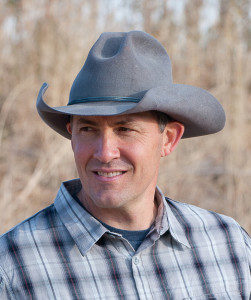 Jason Rich[/caption]
Jason Rich is a Utah-based artist whose extraordinary paintings of life in the American West have made him one of the most popular and respected working artists today. Throughout his 20-year career, Jason has won countless awards and is represented by some of the most prestigious galleries in the West. But what is more telling is the respect and admiration he has earned from many of his cowboy artist contemporaries-- as you’ll hear, Jason is amazingly humble, gracious, and grateful for his career in professional art.
Growing up in Idaho, art has been a central part of Jason’s life for as long as he can remember. He was formally educated as an artist, and immediately after graduate school, he committed himself fully to painting professionally. Thanks to his focus, work ethic, and the support of his wife, Jason was able to carve out a niche for himself in the competitive world of Western art. Two decades later, Jason’s popularity continues to grow, which is partly a product of his constant drive to push outside his comfort zone and mature as an artist.
Jason and I had a fun conversation, and we dug into the many aspects of his life as an artist, family man, and admirer of the American West. We discussed his upbringing in Idaho, and how he developed the confidence and skills to go directly from grad school to professional art. We chatted about his techniques for challenging himself as an artist and how his work has evolved over the last two decades. We also talked about his association with the prestigious Cowboy Artists of America, and how spending time with other talented artists has influenced his work. We covered mentors, favorite books, favorite artists, and much more, so be sure to check out the episode notes for a complete list of everything discussed.
Thanks again to Jason for taking the time to chat. Hope you enjoy!
Jason Rich[/caption]
Jason Rich is a Utah-based artist whose extraordinary paintings of life in the American West have made him one of the most popular and respected working artists today. Throughout his 20-year career, Jason has won countless awards and is represented by some of the most prestigious galleries in the West. But what is more telling is the respect and admiration he has earned from many of his cowboy artist contemporaries-- as you’ll hear, Jason is amazingly humble, gracious, and grateful for his career in professional art.
Growing up in Idaho, art has been a central part of Jason’s life for as long as he can remember. He was formally educated as an artist, and immediately after graduate school, he committed himself fully to painting professionally. Thanks to his focus, work ethic, and the support of his wife, Jason was able to carve out a niche for himself in the competitive world of Western art. Two decades later, Jason’s popularity continues to grow, which is partly a product of his constant drive to push outside his comfort zone and mature as an artist.
Jason and I had a fun conversation, and we dug into the many aspects of his life as an artist, family man, and admirer of the American West. We discussed his upbringing in Idaho, and how he developed the confidence and skills to go directly from grad school to professional art. We chatted about his techniques for challenging himself as an artist and how his work has evolved over the last two decades. We also talked about his association with the prestigious Cowboy Artists of America, and how spending time with other talented artists has influenced his work. We covered mentors, favorite books, favorite artists, and much more, so be sure to check out the episode notes for a complete list of everything discussed.
Thanks again to Jason for taking the time to chat. Hope you enjoy!
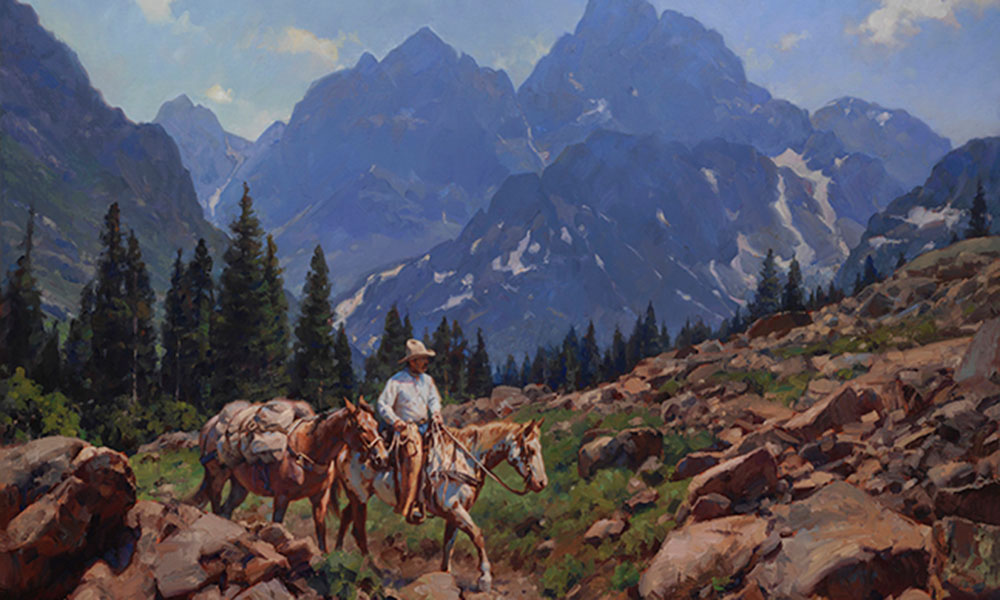 All images courtesy of Jason Rich
All images courtesy of Jason Rich
Click Here to Download on iTunes
---
Click Here to Download on Google Play
---
Click Here to Download on Stitcher
---
Episode Notes
Topics Discussed:- Jason Rich Studios
- Jason on Facebook and Instagram
- Glen Edwards
- Dean Cornwell
- Pruett Carter
- Saul Tepper
- Walter Everette
- Harvey Dunn
- Howard Pyle
- Andrew Loomis
- Norman Rockwell
- Teal Blake podcast interview
- Cowboy Artists of America
- Jim Norton
- The Art of Dean Cornwell
- Loius L’Amore
- Max Brand
- The Cowboys
- Big Jake
- The Greatest Showman
- The Naturalist by Darrin Lunde
- Gordon B Hinckley
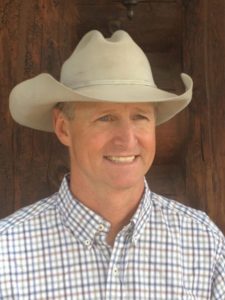 Jim Howell[/caption]
Longtime listeners of the podcast will definitely remember my first interview with Jim Howell—he is a rancher and CEO of Grasslands LLC, a progressive ranch management company with operations in the American West, Florida, and New Zealand. Jim was also a co-founder of the Savory Institute, a non-profit organization that espouses the use of holistic planned grazing to restore healthy grasslands around the world. Having worked close to the land his entire career, Jim has a fascinating personal and professional backstory, so I encourage you to listen to our first episode, if you haven’t already.
Knowing that many Mountain & Prairie podcast listeners either work in ranching or are interested in holistic ranch management, Jim and I decided to have a second conversation focused on more of the nitty gritty details of his process for managing ranches. We discuss a wide range of topics, from how Jim and his investors identify ranches as potential acquisitions to their methods for increasing stocking rates while simultaneously improving the health of the grass. We discuss the intense, focused planning that goes into each operation, and Jim explains how his grazing process translates into increased biodiversity and improved ecological health of the entire landscape. This conversation is like a college class in ranch management, only much more fun and engaging.
[caption id="attachment_2214" align="alignright" width="300"]
Jim Howell[/caption]
Longtime listeners of the podcast will definitely remember my first interview with Jim Howell—he is a rancher and CEO of Grasslands LLC, a progressive ranch management company with operations in the American West, Florida, and New Zealand. Jim was also a co-founder of the Savory Institute, a non-profit organization that espouses the use of holistic planned grazing to restore healthy grasslands around the world. Having worked close to the land his entire career, Jim has a fascinating personal and professional backstory, so I encourage you to listen to our first episode, if you haven’t already.
Knowing that many Mountain & Prairie podcast listeners either work in ranching or are interested in holistic ranch management, Jim and I decided to have a second conversation focused on more of the nitty gritty details of his process for managing ranches. We discuss a wide range of topics, from how Jim and his investors identify ranches as potential acquisitions to their methods for increasing stocking rates while simultaneously improving the health of the grass. We discuss the intense, focused planning that goes into each operation, and Jim explains how his grazing process translates into increased biodiversity and improved ecological health of the entire landscape. This conversation is like a college class in ranch management, only much more fun and engaging.
[caption id="attachment_2214" align="alignright" width="300"]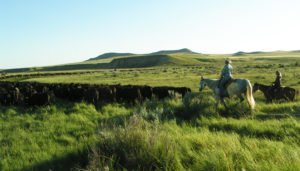 Cinch Buckle Ranch[/caption]
Our conversation revolves around two of Grasslands’ eastern Montana ranches—the 53,000+/- acre Antelope Springs Ranch and the 38,000+/- acre Cinch Buckle Ranch. My Mirr Ranch Group colleague Duffy Brown and I are working with Jim to market both of these ranches, so we’re familiar with the operations and landscapes and understand the amazing results that Jim and his team have been able to achieve. Both ranches serve as excellent case studies of how holistic management can bolster the health of the grass, increase profitability, and be a true winning proposition for the land, animals, and all other stakeholders.
[caption id="attachment_2276" align="alignright" width="300"]
Cinch Buckle Ranch[/caption]
Our conversation revolves around two of Grasslands’ eastern Montana ranches—the 53,000+/- acre Antelope Springs Ranch and the 38,000+/- acre Cinch Buckle Ranch. My Mirr Ranch Group colleague Duffy Brown and I are working with Jim to market both of these ranches, so we’re familiar with the operations and landscapes and understand the amazing results that Jim and his team have been able to achieve. Both ranches serve as excellent case studies of how holistic management can bolster the health of the grass, increase profitability, and be a true winning proposition for the land, animals, and all other stakeholders.
[caption id="attachment_2276" align="alignright" width="300"]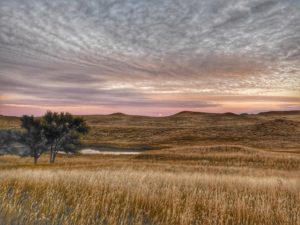 Antelope Springs Ranch[/caption]
Even if you don’t have a specific interest in ranches or grasslands, you’ll still get a lot out of this episode. Jim has very wise answers to some of the quick questions that I didn’t ask during our first interview, and he offers plenty of great book recommendations, including one book that Jim thinks every college freshman should read. The episode is packed with great information, so don’t forget to check the episode notes. Jim is a hardworking, curious, humble, and smart guy who has managed to create a fulfilling career that’s making the world a better place, so I know you’ll enjoy the conversation.
All photos courtesy of Jim Howell & Grasslands LLC
Antelope Springs Ranch[/caption]
Even if you don’t have a specific interest in ranches or grasslands, you’ll still get a lot out of this episode. Jim has very wise answers to some of the quick questions that I didn’t ask during our first interview, and he offers plenty of great book recommendations, including one book that Jim thinks every college freshman should read. The episode is packed with great information, so don’t forget to check the episode notes. Jim is a hardworking, curious, humble, and smart guy who has managed to create a fulfilling career that’s making the world a better place, so I know you’ll enjoy the conversation.
All photos courtesy of Jim Howell & Grasslands LLC
Click Here to Download on iTunes
---
Click Here to Download on Google Play
---
Click Here to Download on Stitcher
---
Episode Notes
Topics Discussed:- Jim Howell - first podcast interview
- Jim on Instagram
- Grasslands LLC
- Savory Institute
- Daniella Ibarra-Howell
- For the Love of Land: Global Case Studies of Grazing in Nature's Image by Jim Howell
- Antelope Springs Ranch
- Cinch Buckle Ranch
- Allan Savory
- Cattle Kingdom by Christopher Knowlton
- The Rise of Theodore Roosevelt by Edmund Morris
- Bad Land by Jonathan Raban
- PastureMap
- Christine Su Podcast Interview
- Cattle Ranches for Investment-Minded Buyers by Ed Roberson
- How to Not Go Broke Ranching by Walt Davis
- Holistic Management by Allan Savory
- No Risk Ranching: Custom Grazing on Leased Land by Greg Judy
- American Serengeti by Dan Flores
- Dan Flores Podcast interview
- Guns, Germs, and Steel by Jared Diamond
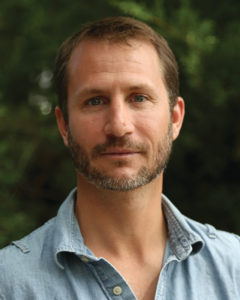 Brian Calvert[/caption]
Brian Calvert is the Editor-in-Chief of the High Country News, a non-profit media organization that covers the defining stories of the American West. Since 1970, High Country News has been fully committed to in-depth journalism that explores complex relationships between the West's communities, business interests, and the natural world. In our current media climate that seems to celebrate surface-level, hastily written news stories, High Country News remains committed to long-form, well-researched, and nuanced explorations of complicated issues.
Brian is a fourth-generation Wyoming native who grew up in Pinedale at the base of the spectacular Wind River Range. A blue-collar upbringing, a stint in the Army, time working in the oil fields, and years spent overseas as a foreign correspondent have given Brian a unique and valuable perspective into the relationship between people and place. This depth of experience allows Brian to approach Western issues with a curious, patient, and balanced style that is becoming more and more rare in today’s media.
I was on Colorado’s Western Slope for work and stopped by the High Country News office in Paonia to chat with Brian. We had a fascinating conversation about the history of High Country News and how its commitment to in-depth journalism is more important now than ever. We discussed Brian’s upbringing in Wyoming, and why he chose to pursue journalism as a career. We talked about his time spent as a foreign correspondent in places like Cambodia, China, and Afghanistan, as well as the lessons he learned from living in such intense and sometimes dangerous environments. And as you’ve come to expect, we discussed his favorite books, authors, and places in the American West.
There’s a lot to learn in this episode, so please check out the episode notes for links to everything we discuss. Also, please visit the High Country News website or consider ordering a print subscription. Brian and his team are doing important work that deserves support from thoughtful, curious folks like the listeners of this podcast. Enjoy!
Headshot courtesy of Brian Calvert
Brian Calvert[/caption]
Brian Calvert is the Editor-in-Chief of the High Country News, a non-profit media organization that covers the defining stories of the American West. Since 1970, High Country News has been fully committed to in-depth journalism that explores complex relationships between the West's communities, business interests, and the natural world. In our current media climate that seems to celebrate surface-level, hastily written news stories, High Country News remains committed to long-form, well-researched, and nuanced explorations of complicated issues.
Brian is a fourth-generation Wyoming native who grew up in Pinedale at the base of the spectacular Wind River Range. A blue-collar upbringing, a stint in the Army, time working in the oil fields, and years spent overseas as a foreign correspondent have given Brian a unique and valuable perspective into the relationship between people and place. This depth of experience allows Brian to approach Western issues with a curious, patient, and balanced style that is becoming more and more rare in today’s media.
I was on Colorado’s Western Slope for work and stopped by the High Country News office in Paonia to chat with Brian. We had a fascinating conversation about the history of High Country News and how its commitment to in-depth journalism is more important now than ever. We discussed Brian’s upbringing in Wyoming, and why he chose to pursue journalism as a career. We talked about his time spent as a foreign correspondent in places like Cambodia, China, and Afghanistan, as well as the lessons he learned from living in such intense and sometimes dangerous environments. And as you’ve come to expect, we discussed his favorite books, authors, and places in the American West.
There’s a lot to learn in this episode, so please check out the episode notes for links to everything we discuss. Also, please visit the High Country News website or consider ordering a print subscription. Brian and his team are doing important work that deserves support from thoughtful, curious folks like the listeners of this podcast. Enjoy!
Headshot courtesy of Brian Calvert
Click Here to Download on iTunes
---
Click Here to Download on Google Play
---
Click Here to Download on Stitcher
---
Episode Notes
Topics Discussed:- Brian Calvert
- High Country News
- Paonia, Colorado
- Ted Scripps Fellowship
- Legend of Colton H Bryant by Alexandra Fuller
- Little Big Man by Thomas Berger
- Angle of Repose by Wallace Stegner
- Bless Me, Ultima by Rudolfo Anaya
- All the Wild That Remains by David Gessner
- Indigenous Peoples' History of the United States by Roxanne Dunbar-Ortiz
- The Legacy of Conquest by Patricia Nelson Limerick
- Charles Wilkenson
- Blood Struggle by Charles Wilkenson
- Crossing the Next Meridian by Charles Wilkenson
- Robinson Jeffers
- Robert Frost
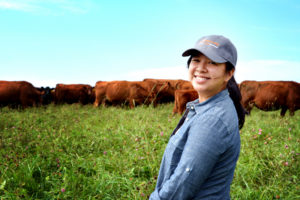 Christine Su, PastureMap CEO[/caption]
Christine Su is an entrepreneur and CEO of PastureMap, a Silicon Valley startup that creates cutting-edge ranch management software. PastureMap helps ranchers plan grazing, track forage, monitor herd performance, manage record keeping, and much more, all with the goal of saving ranchers time and making their operations more profitable. In the business of ranching—one that has not changed much in the past 100 years—PastureMap is a true breakthrough, and Christine’s innovative mindset and infectious enthusiasm are two of the root drivers of the company’s success.
Christine grew up in an entrepreneurial family, and she has had a lifelong curiosity about agriculture and the importance of food production. After building an impressive resume that includes undergraduate and graduate degrees from Stanford, a stint at McKinsey & Company, and experience in private equity, Christine combined her business expertise with her passion for agriculture to form PastureMap. PastureMap makes active or holistic management a more realistic option for ranchers, creating ripple effects far beyond the ranchers’ bottom lines—healthier grass, increased biodiversity, stronger communities, and continued viable domestic food production.
As you’ll hear in our conversation, Christine is a truly dynamic person whose passion for agriculture is matched by her intellect and entrepreneurial acumen. We cover all the details of PastureMap and how she built the business from a simple idea to a successful enterprise. We discuss her personal background and why she initially became so curious about agriculture around the world. We also chat about the ins and outs of active ranch management, and how a holistic approach to grazing can have far-reaching benefits beyond agriculture. As you’d expect, Christine also has plenty of excellent book recommendations related to agriculture, which I know you will enjoy.
For all of you ranchers out there, Christine is offering a 10% off coupon for a year’s subscription to PastureMap, and you can claim it by using the code “PRAIRIE” on the PastureMap website. Check out the episode notes for all the details. But whether you’re a rancher or not, I hope you’ll enjoy this episode. Christine is a perfect example of someone who has merged her passion and expertise into a financially successful business that is making the world a better place. Enjoy!
Christine Su, PastureMap CEO[/caption]
Christine Su is an entrepreneur and CEO of PastureMap, a Silicon Valley startup that creates cutting-edge ranch management software. PastureMap helps ranchers plan grazing, track forage, monitor herd performance, manage record keeping, and much more, all with the goal of saving ranchers time and making their operations more profitable. In the business of ranching—one that has not changed much in the past 100 years—PastureMap is a true breakthrough, and Christine’s innovative mindset and infectious enthusiasm are two of the root drivers of the company’s success.
Christine grew up in an entrepreneurial family, and she has had a lifelong curiosity about agriculture and the importance of food production. After building an impressive resume that includes undergraduate and graduate degrees from Stanford, a stint at McKinsey & Company, and experience in private equity, Christine combined her business expertise with her passion for agriculture to form PastureMap. PastureMap makes active or holistic management a more realistic option for ranchers, creating ripple effects far beyond the ranchers’ bottom lines—healthier grass, increased biodiversity, stronger communities, and continued viable domestic food production.
As you’ll hear in our conversation, Christine is a truly dynamic person whose passion for agriculture is matched by her intellect and entrepreneurial acumen. We cover all the details of PastureMap and how she built the business from a simple idea to a successful enterprise. We discuss her personal background and why she initially became so curious about agriculture around the world. We also chat about the ins and outs of active ranch management, and how a holistic approach to grazing can have far-reaching benefits beyond agriculture. As you’d expect, Christine also has plenty of excellent book recommendations related to agriculture, which I know you will enjoy.
For all of you ranchers out there, Christine is offering a 10% off coupon for a year’s subscription to PastureMap, and you can claim it by using the code “PRAIRIE” on the PastureMap website. Check out the episode notes for all the details. But whether you’re a rancher or not, I hope you’ll enjoy this episode. Christine is a perfect example of someone who has merged her passion and expertise into a financially successful business that is making the world a better place. Enjoy!
 All photos courtesy of Christine Su
All photos courtesy of Christine Su
Click Here to Download on iTunes
---
Click Here to Download on Google Play
---
Click Here to Download on Stitcher
---
Episode Notes
Topics Discussed:- PastureMap
- Use discount code “PRAIRIE” to receive 10% off a base subscription!
- Defending Beef by Nicolette Hahn Niman
- Cows Save the Planet by Judith D. Schwartz
- Joel Salatin
- The Third Plate by Dan Barber
- David Montgomery
- Holistic Management by Allan Savory
- Dr. Allan Williams
- Todd Churchhill
- Russ Conser
- Wayne Rasmussen
- Grassfed Exchange
- Josh Reeves, Gusto CEO
- Angle of Repose by Wallace Stegner
- Wendell Berry
- Lentil Underground Liz Carlisle
- In the Mood for Love film
- Rotten on Netflix
- Jim Howell Podcast
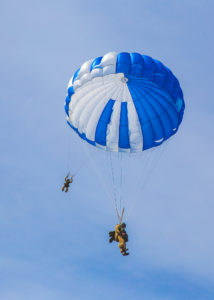 Robert Krapfel at work[/caption]
Robert Krapfel is a US Forest Service smokejumper—a member of the elite team of wildland firefighters who parachute into remote, burning landscapes to control some of our country’s most intense forest fires. Prior to joining the smokejumpers, Robert was a fish biologist with the US Fish and Wildlife Service, where he worked on restoring several species of fish in the lower Colorado River system. You may also know Robert as the husband of my previous guest Jillian Lukiwski, and if so, you’ve likely admired stunning photographs of them fishing, hunting, and exploring far-flung corners of the American West.
Growing up in Northern California, Robert was always focused on pushing himself hard in the outdoors, learning new skills, and establishing a sense of self-sufficiency in wild places. As a teenager, he taught himself to fish and hunt, and early in his career, he learned how to operate heavy machinery while rebuilding a remote government satellite station in the Arizona desert. Robert’s intense curiosity and action-oriented mindset have allowed him to build a life centered around adventure and rugged landscapes, while simultaneously being of service to our country and stewarding the forests of the West.
Because Robert has almost no social media presence, not many people outside his immediate circle of friends and family truly grasp what a unique life he leads, nor do they understand the vital role he played in the creation of Jillian’s blog and jewelry business, The Noisy Plume. Robert and Jillian are true partners in every sense of the word, and their approach to business, adventure, and living an authentic, purpose-driven life can be instructive for couples and individuals alike. They pursue their goals as a team and have sacrificed much along the way to turn their dreams into realities.
Robert is a perfect guest for this podcast, because his career and interests touch on almost everything that fascinates me—the West, adventure, service, creativity, hunting, fishing, travel, conservation, ecology, and plenty more. We obviously cover a lot in this episode, including the ins and outs of his becoming a smokejumper and his scariest experience while fighting fires. We discuss his work as a fish biologist, and how he and Jillian spent a year living in the Arizona desert in a rat-infested trailer. Robert also has a unique educational background, which we discuss in detail. And of course we talk about the creation of the Noisy Plume, and how Jillian’s and his vision for the project has evolved over time. And for a podcast that is always heavy on book recommendations, this episode is particularly full of good titles.
This is a great episode, so I know you’ll enjoy it. As I mentioned, Robert isn’t on social media, but you can catch glimpses of him every now and then on Jillian’s Instagram account, so be sure to follow her at @thenoisyplume. Enjoy!
[caption id="attachment_2221" align="aligncenter" width="640"]
Robert Krapfel at work[/caption]
Robert Krapfel is a US Forest Service smokejumper—a member of the elite team of wildland firefighters who parachute into remote, burning landscapes to control some of our country’s most intense forest fires. Prior to joining the smokejumpers, Robert was a fish biologist with the US Fish and Wildlife Service, where he worked on restoring several species of fish in the lower Colorado River system. You may also know Robert as the husband of my previous guest Jillian Lukiwski, and if so, you’ve likely admired stunning photographs of them fishing, hunting, and exploring far-flung corners of the American West.
Growing up in Northern California, Robert was always focused on pushing himself hard in the outdoors, learning new skills, and establishing a sense of self-sufficiency in wild places. As a teenager, he taught himself to fish and hunt, and early in his career, he learned how to operate heavy machinery while rebuilding a remote government satellite station in the Arizona desert. Robert’s intense curiosity and action-oriented mindset have allowed him to build a life centered around adventure and rugged landscapes, while simultaneously being of service to our country and stewarding the forests of the West.
Because Robert has almost no social media presence, not many people outside his immediate circle of friends and family truly grasp what a unique life he leads, nor do they understand the vital role he played in the creation of Jillian’s blog and jewelry business, The Noisy Plume. Robert and Jillian are true partners in every sense of the word, and their approach to business, adventure, and living an authentic, purpose-driven life can be instructive for couples and individuals alike. They pursue their goals as a team and have sacrificed much along the way to turn their dreams into realities.
Robert is a perfect guest for this podcast, because his career and interests touch on almost everything that fascinates me—the West, adventure, service, creativity, hunting, fishing, travel, conservation, ecology, and plenty more. We obviously cover a lot in this episode, including the ins and outs of his becoming a smokejumper and his scariest experience while fighting fires. We discuss his work as a fish biologist, and how he and Jillian spent a year living in the Arizona desert in a rat-infested trailer. Robert also has a unique educational background, which we discuss in detail. And of course we talk about the creation of the Noisy Plume, and how Jillian’s and his vision for the project has evolved over time. And for a podcast that is always heavy on book recommendations, this episode is particularly full of good titles.
This is a great episode, so I know you’ll enjoy it. As I mentioned, Robert isn’t on social media, but you can catch glimpses of him every now and then on Jillian’s Instagram account, so be sure to follow her at @thenoisyplume. Enjoy!
[caption id="attachment_2221" align="aligncenter" width="640"]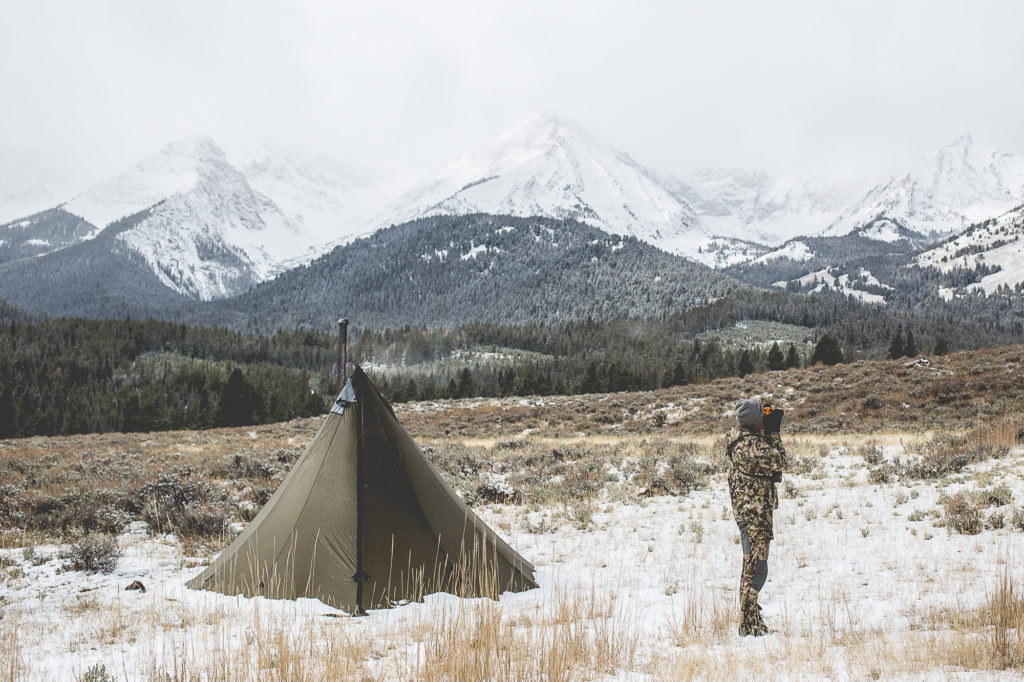 Robert in the backcountry during hunting season[/caption]
All photos courtesy of Jillian Lukiwski
Robert in the backcountry during hunting season[/caption]
All photos courtesy of Jillian Lukiwski
Click Here to Download on iTunes
---
Click Here to Download on Google Play
---
Click Here to Download on Stitcher
---
Episode Notes
Topics Discussed:- The Noisy Plume
- Youth by Joseph Conrad* (*When Robert refers to Conrad’s Typhoon, he actually meant this this book, Youth)
- US Forest Service Smokejumpers
- US Fish and Wildlife Service
- Young Men and Fire by Norman Maclean
- Razorback suckers
- Bonytail chub
- Tribe by Sebastian Junger
- The Big Burn by Timothy Egan
- John Muir
- Annie Dillard
- Seeing Nature by Paul Krafel
- Little Britches by Ralph Moody
- Laura Ingalls Wilder (Little House series)
- Zane Gray
- Always
- Road House (aka The Greatest Movie of All Time)
- Dolly Parton
- Jillian Lekiwski on Instagram
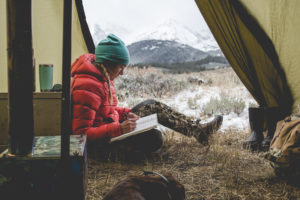 Jillian Lukiwski, in the backcountry[/caption]
Jillian Lukiwski is a writer, photographer, and silversmith who lives near the banks of the Snake River in south central Idaho. Her quiet confidence and deliberate approach to living have allowed Jillian to blaze her own trail, creating a rewarding career and an authentic life centered around Idaho's unique landscape. When not working, Jillian and her husband Robert enjoy the western lifestyle from every imaginable angle—bird hunting with their german shorthair pointers, big game hunting, fishing, running, horseback riding, mountain biking, caring for their farm animals, and cultivating their land, to name a few.
Big western landscapes have always been an important part of Jillian’s life—her father worked for Canada’s National Park Service, so she was raised with a deep appreciation for the outdoors and adventure. From an early age, she was riding—and falling off of—horses, shadowing her father in the backcountry, and building a personal foundation of self-sufficiency and toughness. As a young woman, she applied that ingrained tenacity to writing, photography, and creating jewelry, and has since built a loyal following of admirers and customers around the world through her website, The Noisy Plume.
We had a fun conversation and managed to cover a wide range of interesting topics. We discussed her life path that eventually landed her in southeastern Idaho, and we chatted about the unique nature of that region. We talked about her creative process, how she’s been mostly self-taught in all of her art forms, and how she is able to manage the distractions of social media and the online world. We chatted about the importance of being uncomfortable, and how self-imposed physical and mental challenges can help to inoculate yourself against the inevitable difficulties of life. Jillian is a voracious reader, so we had a great discussion about books, as well as how reading has contributed to her success as a writer. Be sure to check the episode notes for a full list of everything we discussed.
This was a fun and inspiring interview, and I hope you enjoy the conversation as much as I did!
All photos courtesy of Jillian Lukiwski
Jillian Lukiwski, in the backcountry[/caption]
Jillian Lukiwski is a writer, photographer, and silversmith who lives near the banks of the Snake River in south central Idaho. Her quiet confidence and deliberate approach to living have allowed Jillian to blaze her own trail, creating a rewarding career and an authentic life centered around Idaho's unique landscape. When not working, Jillian and her husband Robert enjoy the western lifestyle from every imaginable angle—bird hunting with their german shorthair pointers, big game hunting, fishing, running, horseback riding, mountain biking, caring for their farm animals, and cultivating their land, to name a few.
Big western landscapes have always been an important part of Jillian’s life—her father worked for Canada’s National Park Service, so she was raised with a deep appreciation for the outdoors and adventure. From an early age, she was riding—and falling off of—horses, shadowing her father in the backcountry, and building a personal foundation of self-sufficiency and toughness. As a young woman, she applied that ingrained tenacity to writing, photography, and creating jewelry, and has since built a loyal following of admirers and customers around the world through her website, The Noisy Plume.
We had a fun conversation and managed to cover a wide range of interesting topics. We discussed her life path that eventually landed her in southeastern Idaho, and we chatted about the unique nature of that region. We talked about her creative process, how she’s been mostly self-taught in all of her art forms, and how she is able to manage the distractions of social media and the online world. We chatted about the importance of being uncomfortable, and how self-imposed physical and mental challenges can help to inoculate yourself against the inevitable difficulties of life. Jillian is a voracious reader, so we had a great discussion about books, as well as how reading has contributed to her success as a writer. Be sure to check the episode notes for a full list of everything we discussed.
This was a fun and inspiring interview, and I hope you enjoy the conversation as much as I did!
All photos courtesy of Jillian Lukiwski
Click Here to Download on iTunes
---
Click Here to Download on Google Play
---
Click Here to Download on Stitcher
---
Episode Notes
Topics Discussed:- The Noisy Plume
- Jillian on Instagram
- Pocatello, Idaho
- Canadian National Parks
- The Wolf in the Parlor by Jon Franklin
- Alpha film trailer
- And So I Hunt by Jillian Lukiwski
- Ladies of the Canyons by Lesley Poling-Kempes
- Two in the Far North by Margaret Murie
- Claiming Ground by Laura Bell
- Ernest Hemingway
- Mary Oliver
- Dakota by Kathleen Norris
- The Cloister Walk by Kathleen Norris
- Where the Rivers Change by Mark Spragg (this is the one we couldn't remember the name of)
- Unbranded
- Ben Masters podcast interview
- The River and The Wall
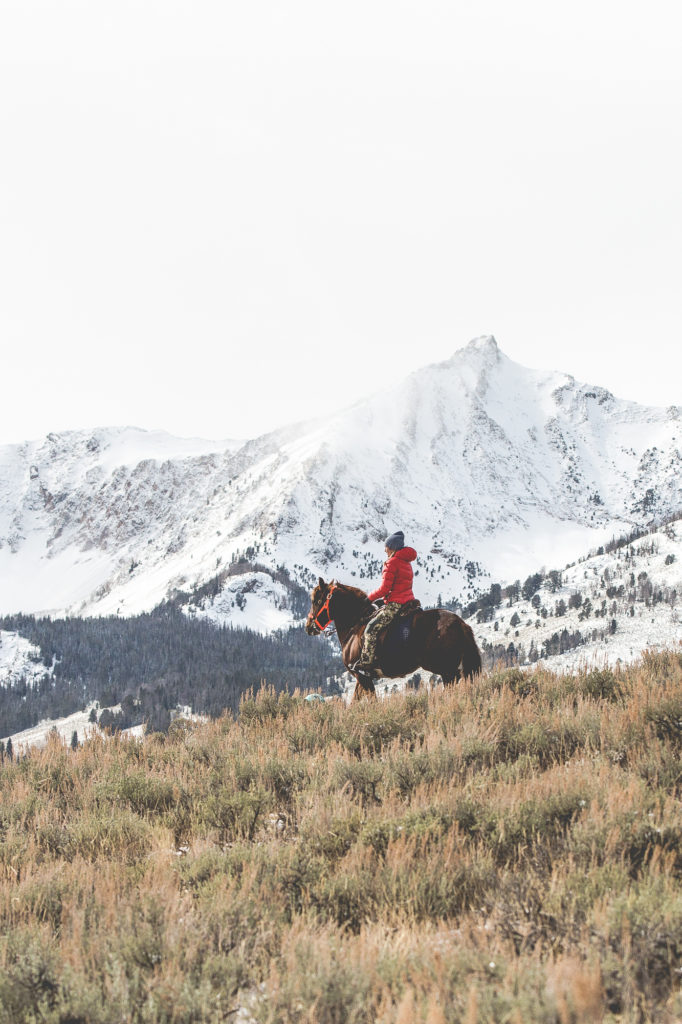 Jillian exploring the mountains around her Idaho home[/caption]
Jillian exploring the mountains around her Idaho home[/caption]
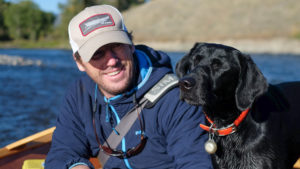 Matt Barber (photo credit: Paige McAfee)[/caption]
Matt Barber and Joel Doub are the owners of Tom Morgan Rodsmiths, a Bozeman-based fly rod company known for its unyielding commitment to quality, craftsmanship, and enduring performance. The duo purchased the company in early 2017 from Tom Morgan, a fly fishing legend who, along with his wife Gerri, built the company into one of the world’s most unique and renowned rod builders. Rather than focus on the latest fads or selling a high volume of products, Tom was dedicated solely to building the highest quality rod, one that could be passed on from generation to generation, decade after decade.
[caption id="attachment_2101" align="alignright" width="300"]
Matt Barber (photo credit: Paige McAfee)[/caption]
Matt Barber and Joel Doub are the owners of Tom Morgan Rodsmiths, a Bozeman-based fly rod company known for its unyielding commitment to quality, craftsmanship, and enduring performance. The duo purchased the company in early 2017 from Tom Morgan, a fly fishing legend who, along with his wife Gerri, built the company into one of the world’s most unique and renowned rod builders. Rather than focus on the latest fads or selling a high volume of products, Tom was dedicated solely to building the highest quality rod, one that could be passed on from generation to generation, decade after decade.
[caption id="attachment_2101" align="alignright" width="300"]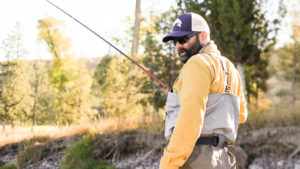 Joel Doub (photo credit: Paige McAfee)[/caption]
You may be surprised to learn that Matt and Joel are not fishing industry veterans—their previous careers were in education and medical device sales, respectively. But when Tom Morgan decided to sell the company, Matt and Joel’s passion for fly fishing, their willingness to learn from the best, and their commitment to continuing the company’s legacy allowed them to stand out from the crowd of competing buyers. To everyone’s dismay, Tom passed away unexpectedly soon after the sale of the company, but only after imparting his wisdom, craftsmanship secrets, and high standards to Matt and Joel. Building on Tom and Gerri’s rock-solid foundation, the company is now entering its next phase, and the future has never looked brighter.
Matt and Joel were in Denver for the annual Fly Fishing Show, so we met up to chat about the company and their journey into fly fishing entrepreneurship. We talked at length about Tom and his laser-like focus on quality, and how he was willing to snap a rod in half if it did not meet his high standards. We chatted about the “secret” to making these rods, which mostly boils down to being willing to work harder than anyone else. We talk about Tom’s unique partnership with his wife Gerri, and how the couple went about transferring decades of knowledge and experience to Matt and Joel. We discuss the company’s unique business model, and how it flies in the face of most mainstream, MBA business theories. And as usual, we discuss favorite books, films, crazy outdoor experiences, and plenty more.
This was a very fun conversation, and I’m excited to watch the company continue to grow and thrive under Matt and Joel’s ownership. Be sure to check out the episode notes for everything we discuss, and follow Tom Morgan Rodsmiths on Instagram and other social media. Enjoy!
[caption id="attachment_2102" align="aligncenter" width="640"]
Joel Doub (photo credit: Paige McAfee)[/caption]
You may be surprised to learn that Matt and Joel are not fishing industry veterans—their previous careers were in education and medical device sales, respectively. But when Tom Morgan decided to sell the company, Matt and Joel’s passion for fly fishing, their willingness to learn from the best, and their commitment to continuing the company’s legacy allowed them to stand out from the crowd of competing buyers. To everyone’s dismay, Tom passed away unexpectedly soon after the sale of the company, but only after imparting his wisdom, craftsmanship secrets, and high standards to Matt and Joel. Building on Tom and Gerri’s rock-solid foundation, the company is now entering its next phase, and the future has never looked brighter.
Matt and Joel were in Denver for the annual Fly Fishing Show, so we met up to chat about the company and their journey into fly fishing entrepreneurship. We talked at length about Tom and his laser-like focus on quality, and how he was willing to snap a rod in half if it did not meet his high standards. We chatted about the “secret” to making these rods, which mostly boils down to being willing to work harder than anyone else. We talk about Tom’s unique partnership with his wife Gerri, and how the couple went about transferring decades of knowledge and experience to Matt and Joel. We discuss the company’s unique business model, and how it flies in the face of most mainstream, MBA business theories. And as usual, we discuss favorite books, films, crazy outdoor experiences, and plenty more.
This was a very fun conversation, and I’m excited to watch the company continue to grow and thrive under Matt and Joel’s ownership. Be sure to check out the episode notes for everything we discuss, and follow Tom Morgan Rodsmiths on Instagram and other social media. Enjoy!
[caption id="attachment_2102" align="aligncenter" width="640"]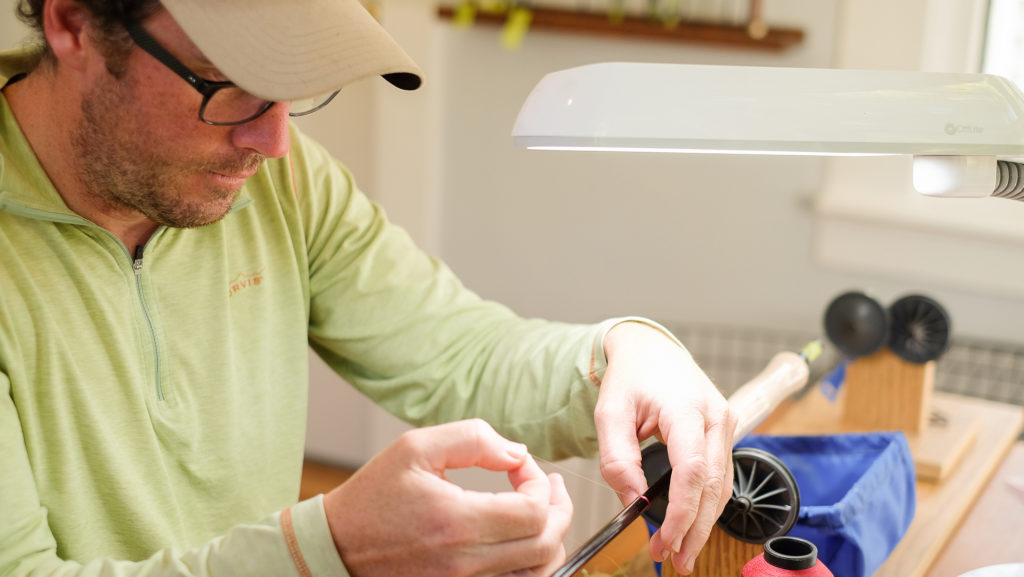 Hard at work in the shop (photo credit: Paige McAfee)[/caption]
All photos courtesy of Paige McAfee
Hard at work in the shop (photo credit: Paige McAfee)[/caption]
All photos courtesy of Paige McAfee
Click Here to Download on iTunes
---
Click Here to Download on Google Play
---
Click Here to Download on Stitcher
---
Episode Notes
Topics Discussed:- Tom Morgan Rodsmiths
- Tom Morgan Rodsmiths on Instagram & Facebook
- Denver Fly Fishing Show
- Winston Fly Rods
- Limmer Boots
- Yvon Chouinard
- Power of Habit by Charles Duhigg
- Cate Havstad interview
- The O’Dell
- Duke Beardsley
- Duke Beardsley interview
- Casting for Recovery
- G Loomis
- Wallace Stegner
- Angle of Repose by Wallace Stegner
- The River Why by David James Duncan
- Cormac McCarthy
- All the Pretty Horses by Cormac McCarthy
- A River Runs Through It by Norman Maclean
- Platoon
- I Like Killing Flies
- Rivers and Tides
- Jim Howell interview
- Mark Maggiori interview
- Article from The Drake Magazine
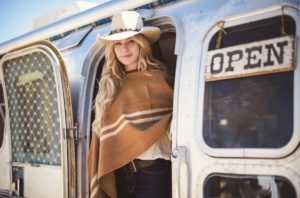 Cate Havstad[/caption]
Cate Havstad is a hat maker and farmer based in central Oregon whose abundant curiosity, creativity, and love of place have allowed her to transform her passions into a full-time and fulfilling career. As a hat maker, Cate’s unique style and unwavering commitment to quality have attracted customers ranging from music stars like Gillian Welch and Nikki Lane to hard-working ranchers and farmers throughout the American West. As a farmer, Cate and her partner are deeply committed to regenerative agriculture and the positive impact that their local efforts can have on a global scale. It’s safe to say she’s living a life guided by purpose and passion.
Born and raised in northern California, Cate was a driven athlete in her youth, as evidenced by her desire to be the first woman to play in the NBA (that’s the NBA, not the WNBA). As a young woman, a fortuitous series of events landed her in a hat maker’s workshop, where she applied that same focus and drive toward learning the craft of hat making. After accumulating experience and confidence as an apprentice, she struck out on her own and now creates some of the most sought-after, stylish, and functional hats on the market today. Cate’s life and work are closely connected to the landscape of central Oregon, and her other job as an organic farmer has given her a deep understanding of the role that regenerative agriculture can play in conservation, community building, and reversing climate change.
As you’ll hear in our conversation, Cate is extremely curious, well-read, and and knowledgeable on a wide range of subjects. We talk about her journey as a hat maker, and how she cultivates creativity and consistent production in a world filled with an increasing number of distractions. We discuss regenerative agriculture and how many people, including well-meaning environmentalists, don’t fully understand the importance of farmers and ranchers in the conservation movement. Cate is a devoted meditator and runner, so we talk about how both of those practices have improved her creativity and outlook. We also chat about Wendell Berry, Michael Pollan, Steven Pressfield, and how those authors’ works have impacted her life. There’s a lot to learn in this episode.
This was a fun conversation that could have continued for hours. Be sure the check the episode notes below for links to everything we discussed—it’s a long list! Hope you enjoy!
[caption id="attachment_2074" align="aligncenter" width="640"]
Cate Havstad[/caption]
Cate Havstad is a hat maker and farmer based in central Oregon whose abundant curiosity, creativity, and love of place have allowed her to transform her passions into a full-time and fulfilling career. As a hat maker, Cate’s unique style and unwavering commitment to quality have attracted customers ranging from music stars like Gillian Welch and Nikki Lane to hard-working ranchers and farmers throughout the American West. As a farmer, Cate and her partner are deeply committed to regenerative agriculture and the positive impact that their local efforts can have on a global scale. It’s safe to say she’s living a life guided by purpose and passion.
Born and raised in northern California, Cate was a driven athlete in her youth, as evidenced by her desire to be the first woman to play in the NBA (that’s the NBA, not the WNBA). As a young woman, a fortuitous series of events landed her in a hat maker’s workshop, where she applied that same focus and drive toward learning the craft of hat making. After accumulating experience and confidence as an apprentice, she struck out on her own and now creates some of the most sought-after, stylish, and functional hats on the market today. Cate’s life and work are closely connected to the landscape of central Oregon, and her other job as an organic farmer has given her a deep understanding of the role that regenerative agriculture can play in conservation, community building, and reversing climate change.
As you’ll hear in our conversation, Cate is extremely curious, well-read, and and knowledgeable on a wide range of subjects. We talk about her journey as a hat maker, and how she cultivates creativity and consistent production in a world filled with an increasing number of distractions. We discuss regenerative agriculture and how many people, including well-meaning environmentalists, don’t fully understand the importance of farmers and ranchers in the conservation movement. Cate is a devoted meditator and runner, so we talk about how both of those practices have improved her creativity and outlook. We also chat about Wendell Berry, Michael Pollan, Steven Pressfield, and how those authors’ works have impacted her life. There’s a lot to learn in this episode.
This was a fun conversation that could have continued for hours. Be sure the check the episode notes below for links to everything we discussed—it’s a long list! Hope you enjoy!
[caption id="attachment_2074" align="aligncenter" width="640"]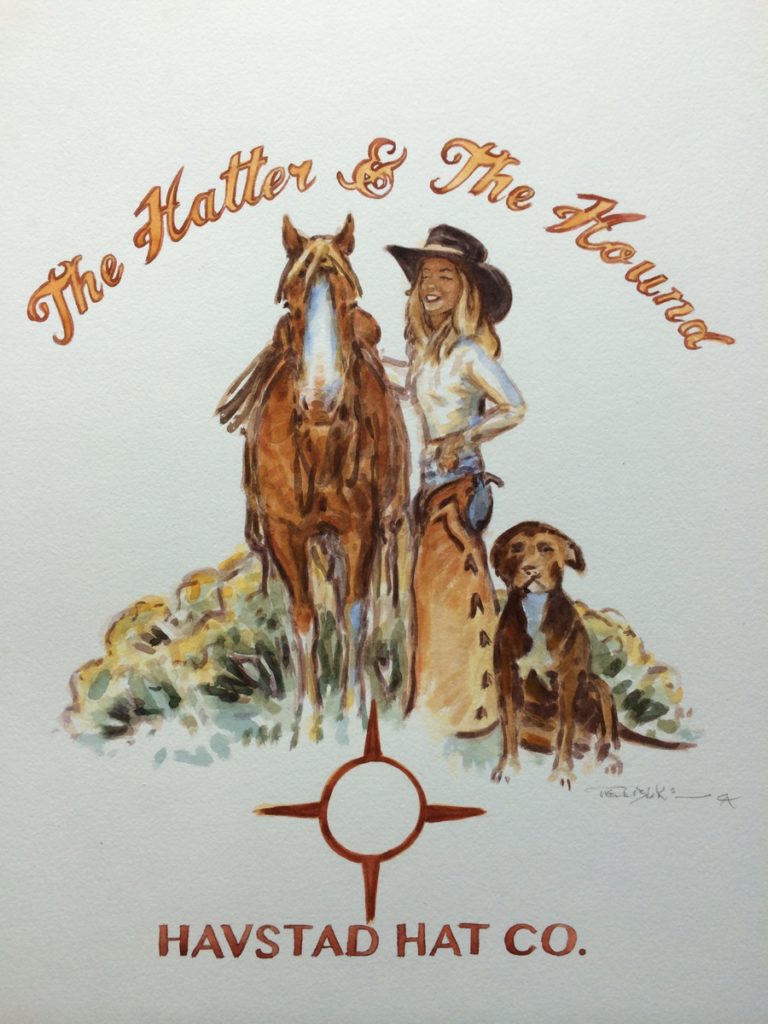 Cate Havstad art piece by (former podcast guest) Teal Blake[/caption]
Header photo by Amanda Leigh Smith, others courtesy of Cate Havstad
Cate Havstad art piece by (former podcast guest) Teal Blake[/caption]
Header photo by Amanda Leigh Smith, others courtesy of Cate Havstad
Click Here to Download on iTunes
---
Click Here to Download on Google Play
---
Click Here to Download on Stitcher
---
Episode Notes
Topics Discussed:- Cate Havstad on Instagram
- Havstad Hat Company
- Casad Family Farms
- Willy Tea Taylor
- The War of Art by Steven Pressfield
- Headspace
- Sit Like a Buddha by Lodro Rinzler
- Walk Like a Buddha by Lodro Rinzler
- Wendell Berry
- The Unsettling of America by Wendell Berry
- Michael Pollan
- In Defense of Food by Michael Pollan
- Jim Howell interview
- Savory Institute
- Braiding Sweetgrass by Robin Wall Kimmerer
- Taylor Keen interview
- The Dirty Life by Kristen Kimball
- Kristen Kimball
- Deep Work by Cal Newport
- Travels with Charley by John Steinbeck
- The Monkey Wrench Gang by Edward Abbey
- Temperance Creek by Pamela Royes
- Unbranded
- Ben Masters interview
- Unbroken Ground
- 13th
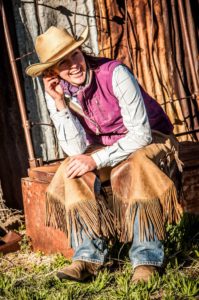 Sarah King (photo credit: Roni Ziemba)[/caption]
Sarah King is a rancher, conservationist, wife, and mother of two who lives and works on her family’s 55,000-acre cattle ranch in southern Arizona’s Altar Valley. The King's Anvil Ranch was established in 1895 and has operated successfully within their family for generations, setting an example of how to run a financially viable agricultural business, while simultaneously protecting the long-term ecological health of their vast desert ranch. The Kings understand that in order for their business to thrive, the land must thrive, and they are leaders in pursuing a variety of outside-the-box land stewardship techniques, including the focused use of prescribed fires.
The King family spearheaded the creation of the Altar Valley Conservation Alliance, a cutting-edge land conservation organization that collaborates with a wide range of stakeholders, including private landowners, ranchers, government entities, conservation non-profits, and environmental advocacy groups. Thanks to focused, diligent efforts over the course of two decades, the AVCA has managed to bring together groups that have historically been at odds, allowing them to focus on shared goals and creative solutions to complicated challenges, rather than dwelling on their differences. As you’ll hear Sarah explain, AVCA understands that open, honest, face-to-face communication has been the key to tackling the Altar Valley’s complex challenges, and their success gives me hope that other organizations throughout the West can adopt their approach and enjoy the same success.
This was a very enlightening episode for me, because I personally just don’t know enough about the landscapes and heritage of the deep southwest. We dig into many of the details of the King's Anvil Ranch and its operation, including the unique climate and ecology of the Arizona desert. Sarah explains how the AVCA came to be, and offers some insights into exactly what they do and how they’ve managed to have such success. We discuss Sarah’s personal background, specifically how an east coast native ended up on an expansive cattle ranch in Arizona. We talk about the benefits of raising children on a ranch, and the lessons she hopes to impart as they grow up closely connected to the land. Given that the ranch is located less than 40 miles from the Mexico border, we discuss how illegal border crossings have a significant effect on the ranch’s operations. And, of course, we discuss favorite books and documentaries, with links to everything in the episode notes.
I had such a great time chatting with Sarah, and I walked away from the conversation with a much deeper understanding of ranching, conservation, and life in the American southwest. She and her colleagues at AVCA are doing important, groundbreaking conservation work, so I encourage you to follow them and learn from their efforts. Also, be sure to follow Sarah on Instagram—on top of everything else, she’s a talented photographer, too. Enjoy!
Header photo courtesy of Sarah King, other courtesy of Roni Ziemba
Sarah King (photo credit: Roni Ziemba)[/caption]
Sarah King is a rancher, conservationist, wife, and mother of two who lives and works on her family’s 55,000-acre cattle ranch in southern Arizona’s Altar Valley. The King's Anvil Ranch was established in 1895 and has operated successfully within their family for generations, setting an example of how to run a financially viable agricultural business, while simultaneously protecting the long-term ecological health of their vast desert ranch. The Kings understand that in order for their business to thrive, the land must thrive, and they are leaders in pursuing a variety of outside-the-box land stewardship techniques, including the focused use of prescribed fires.
The King family spearheaded the creation of the Altar Valley Conservation Alliance, a cutting-edge land conservation organization that collaborates with a wide range of stakeholders, including private landowners, ranchers, government entities, conservation non-profits, and environmental advocacy groups. Thanks to focused, diligent efforts over the course of two decades, the AVCA has managed to bring together groups that have historically been at odds, allowing them to focus on shared goals and creative solutions to complicated challenges, rather than dwelling on their differences. As you’ll hear Sarah explain, AVCA understands that open, honest, face-to-face communication has been the key to tackling the Altar Valley’s complex challenges, and their success gives me hope that other organizations throughout the West can adopt their approach and enjoy the same success.
This was a very enlightening episode for me, because I personally just don’t know enough about the landscapes and heritage of the deep southwest. We dig into many of the details of the King's Anvil Ranch and its operation, including the unique climate and ecology of the Arizona desert. Sarah explains how the AVCA came to be, and offers some insights into exactly what they do and how they’ve managed to have such success. We discuss Sarah’s personal background, specifically how an east coast native ended up on an expansive cattle ranch in Arizona. We talk about the benefits of raising children on a ranch, and the lessons she hopes to impart as they grow up closely connected to the land. Given that the ranch is located less than 40 miles from the Mexico border, we discuss how illegal border crossings have a significant effect on the ranch’s operations. And, of course, we discuss favorite books and documentaries, with links to everything in the episode notes.
I had such a great time chatting with Sarah, and I walked away from the conversation with a much deeper understanding of ranching, conservation, and life in the American southwest. She and her colleagues at AVCA are doing important, groundbreaking conservation work, so I encourage you to follow them and learn from their efforts. Also, be sure to follow Sarah on Instagram—on top of everything else, she’s a talented photographer, too. Enjoy!
Header photo courtesy of Sarah King, other courtesy of Roni Ziemba
Click Here to Download on iTunes
---
Click Here to Download on Google Play
---
Click Here to Download on Stitcher
---
Episode Notes
Topics Discussed:- Sarah King on Instagram
- King’s Anvil Ranch on Facebook
- AZ Beef Council Article on Sarah and Joe King
- Altar Valley Conservation Alliance
- Altar Valley Watershed Framework
- AVCA award article
- Altar Valley Global Rangelands Collection
- Rolling Stone video featuring King’s Anvil Ranch
- Malpai Borderlands Group
- Erik Glenn podcast interview
- The Big Burn by Timothy Egan
- Wildfire TED talk
- Davidson College
- Elkhorn Guest Ranch - Montana and Arizona
- Ladies of the Canyons by Lesley Poling-Kempes
- Ivan Doig
- House of Sky by Ivan Doig
- Heart Earth by Ivan Doig
- A River Runs Through It by Normal Maclean
- Half Broke Horses by Jeannette Walls
- The Glass Castle by Jeannette Walls
- Buck documentary
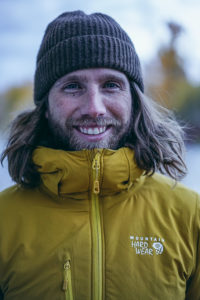 Charles Post (Photo Credit: Rachel Pohl)[/caption]
Charles Post is an academically trained ecologist with a gift for communicating complex and sometimes emotionally charged issues in a thoughtful manner to diverse audiences. Whether he’s discussing the intricacies of ranch management, the ecological implications of ethical hunting, or controversies surrounding the BLM’s wild mustang program, Charles has honed his ability to consider all sides of issues, then educate the public in a style that is positive, comprehensive, and intellectually honest. His academic credentials, combined with his photography, writing, filmmaking, and popular social media channels have made Charles a rising star in the world of conservation.
Born and raised in northern California, Charles has enjoyed a deep connection with Western landscapes for as long as he can remember. He grew up hunting, fishing, and exploring the seascapes and mountain ranges of the West Coast, then earned both a Bachelors and Masters in ecology from UC Berkeley. After considering pursuing a PhD followed by a career in academia, Charles changed course and pursued a less traditional track that melded his two passions of science and storytelling. Since then, he has settled in Bozeman, Montana where he works on a wide range of projects that all tie back into conservation and stewardship in the American West.
Charles and I talked for well over an hour, and could’ve easily continued for several more. We discuss his recent work for Filson covering Ranchlands, a progressive, forward-thinking ranching operation in southern Colorado. We also chat about the ecological importance of ranching for Western landscapes and the progress that Charles has made trying to change some of the unfounded negative impressions of ranching and livestock. We talk about his recent elk hunt, and how that adventure was one of the richest, most meaningful experiences of his life. Charles speaks fondly about his relationship with Ben Masters, who helped him break into the filmmaking world. It also turns out that we have a shared love of the American Dipper (which is a bird, for those of you out of the loop), and we nerd out on that subject for a few minutes. As usual, we discuss favorite books, films, and the best advice he’s ever received.
If you’re a long-time listener, you will love this episode… and if you’re brand new, I hope you will, too! Be sure to check out Charles on Instagram at @charles_post and check the episode notes for everything we discuss. Enjoy!
All images courtesy of Rachel Pohl
Charles Post (Photo Credit: Rachel Pohl)[/caption]
Charles Post is an academically trained ecologist with a gift for communicating complex and sometimes emotionally charged issues in a thoughtful manner to diverse audiences. Whether he’s discussing the intricacies of ranch management, the ecological implications of ethical hunting, or controversies surrounding the BLM’s wild mustang program, Charles has honed his ability to consider all sides of issues, then educate the public in a style that is positive, comprehensive, and intellectually honest. His academic credentials, combined with his photography, writing, filmmaking, and popular social media channels have made Charles a rising star in the world of conservation.
Born and raised in northern California, Charles has enjoyed a deep connection with Western landscapes for as long as he can remember. He grew up hunting, fishing, and exploring the seascapes and mountain ranges of the West Coast, then earned both a Bachelors and Masters in ecology from UC Berkeley. After considering pursuing a PhD followed by a career in academia, Charles changed course and pursued a less traditional track that melded his two passions of science and storytelling. Since then, he has settled in Bozeman, Montana where he works on a wide range of projects that all tie back into conservation and stewardship in the American West.
Charles and I talked for well over an hour, and could’ve easily continued for several more. We discuss his recent work for Filson covering Ranchlands, a progressive, forward-thinking ranching operation in southern Colorado. We also chat about the ecological importance of ranching for Western landscapes and the progress that Charles has made trying to change some of the unfounded negative impressions of ranching and livestock. We talk about his recent elk hunt, and how that adventure was one of the richest, most meaningful experiences of his life. Charles speaks fondly about his relationship with Ben Masters, who helped him break into the filmmaking world. It also turns out that we have a shared love of the American Dipper (which is a bird, for those of you out of the loop), and we nerd out on that subject for a few minutes. As usual, we discuss favorite books, films, and the best advice he’s ever received.
If you’re a long-time listener, you will love this episode… and if you’re brand new, I hope you will, too! Be sure to check out Charles on Instagram at @charles_post and check the episode notes for everything we discuss. Enjoy!
All images courtesy of Rachel Pohl
Click Here to Download on iTunes
---
Click Here to Download on Google Play
---
Click Here to Download on Stitcher
---
Episode Notes
Topics Discussed:- Charles Post - Website & Instagram
- US Berkeley Ecology
- Ranchlands
- Ranchlands Filson Campaign
- The Lasater Philosophy of Raising Cattle by Laurence Lasater
- How Wolves Change Rivers
- Ben Masters podcast
- Jim Howell podcast
- For the Love of Land by Jim Howell
- Gifford Pinchot
- Rachel Pohl
- KEEN
- Mountain Hardwear
- The Big Burn by Timothy Egan
- The Wilderness Warrior by Douglas Brinkley
- Undaunted Courage by Stephen Ambrose
- Sand County Almanac by Aldo Leopold
- Desert Solitaire by Edward Abbey
- The Monkeywrench Gang by Edward Abbey
- All the Wild That Remains by David Gessner
- David Gessner
- The Great Animal Orchestra by Bernie Krause
- Elk River
- Island Earth
- Sonic Sea
- Chasing Coral
- Chasing Ice
- American Dipper
- Sky Migrations
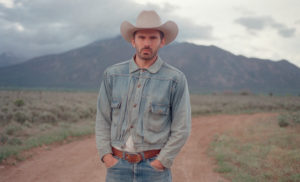 Mark Maggiori[/caption]
Mark Maggiori has taken the western art scene by storm with his dramatically realistic paintings of cowboys, horses, landscapes, and scenes from the American West. But painting is only a small part of Mark’s journey as a professional artist—he is also an accomplished director, filmmaker, drawer, photographer, and musician, working for companies like Disney as an illustrator and fronting a major-record-label rock band. To make his story even more interesting, Mark was born and raised in France, and is a relative newcomer to the western United States.
When he was 15, Mark took a road trip across America with his adventurous uncle, igniting his passion for Western landscapes and planting the seed of his western art career that would flourish two decades later. Between then and now, he has demonstrated an uncanny ability to dive headfirst into a wide array of artistic endeavors with single-minded focus and work ethic, enjoying success at every level. At little over three years ago, at age 36, all of Mark’s talents and experiences melded together when he decided to try and paint his first cowboy. In what he describes as an epiphany, Mark immediately knew he had found his true identity as an artist.
Mark and I had a fun conversation. We talk about all the stages of his prolific career as an artist, and how he has approached each one with a laser-like focus and uncompromising work ethic. Mark explains how he discovered his talent for drawing—a talent that he had no idea he possessed until after he had enrolled in art school. We also chat about how being new to America has afforded him a fresh perspective on the people and landscapes of the American West, a perspective that shines through in his paintings. He gives details on his workman-like approach to painting and ensuring the historical accuracy of his work, and how exercise helps to fuel his creativity and work ethic. As usual, we cover favorite books, documentaries, and the craziest thing that’s ever happened to him in the outdoors, which is a ridiculous and pretty damn scary story!
Be sure to check out the webpage for links to all of Mark’s work, his upcoming solo show, and everything we discuss in this episode. Hope you enjoy!
All images courtesy of Mark Maggiori
Mark Maggiori[/caption]
Mark Maggiori has taken the western art scene by storm with his dramatically realistic paintings of cowboys, horses, landscapes, and scenes from the American West. But painting is only a small part of Mark’s journey as a professional artist—he is also an accomplished director, filmmaker, drawer, photographer, and musician, working for companies like Disney as an illustrator and fronting a major-record-label rock band. To make his story even more interesting, Mark was born and raised in France, and is a relative newcomer to the western United States.
When he was 15, Mark took a road trip across America with his adventurous uncle, igniting his passion for Western landscapes and planting the seed of his western art career that would flourish two decades later. Between then and now, he has demonstrated an uncanny ability to dive headfirst into a wide array of artistic endeavors with single-minded focus and work ethic, enjoying success at every level. At little over three years ago, at age 36, all of Mark’s talents and experiences melded together when he decided to try and paint his first cowboy. In what he describes as an epiphany, Mark immediately knew he had found his true identity as an artist.
Mark and I had a fun conversation. We talk about all the stages of his prolific career as an artist, and how he has approached each one with a laser-like focus and uncompromising work ethic. Mark explains how he discovered his talent for drawing—a talent that he had no idea he possessed until after he had enrolled in art school. We also chat about how being new to America has afforded him a fresh perspective on the people and landscapes of the American West, a perspective that shines through in his paintings. He gives details on his workman-like approach to painting and ensuring the historical accuracy of his work, and how exercise helps to fuel his creativity and work ethic. As usual, we cover favorite books, documentaries, and the craziest thing that’s ever happened to him in the outdoors, which is a ridiculous and pretty damn scary story!
Be sure to check out the webpage for links to all of Mark’s work, his upcoming solo show, and everything we discuss in this episode. Hope you enjoy!
All images courtesy of Mark Maggiori
Click Here to Download on iTunes
---
Click Here to Download on Google Play
---
Click Here to Download on Stitcher
---
Episode Notes
Topics Discussed:- Mark Maggiori - Website & Instagram
- “Lonesome Souls” — Mark’s upcoming solo show
- Fontainebleau, France
- Maxwell Alexander Gallery
- Gerald Peters Gallery
- Trailside Galleries
- Pleymo
- Desert Solitaire by Edward Abbey
- Silent Spring by Rachel Carson
- An American Idea by Kim Heacox
- Emerald Mile by Kevin Fedarko
- Lassoing the Sun by Mark Woods
- Unbranded
- Duke Beardsley interview
- Stephen Smith interview
Tyler Sharp, Part II - Modern Huntsman
[caption id="attachment_1978" align="alignright" width="300"]
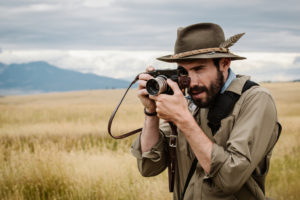 Tyler Sharp[/caption]
Tyler Sharp[/caption]
Modern Huntsman is a biannual publication and online forum for conservationists, creatives, and outdoor enthusiasts. If you enjoy this podcast and my guests’ depth of thinking on topics related to the natural world, then you’re going to love Modern Huntsman. Through thoughtful writing, captivating photography, and elegant design, Tyler and his all-star team intend to improve the perception of hunting in our society by highlighting its thoughtful and conservation-focused aspects, which are often ignored by established media.
I like to hunt, although I’m not obsessed with it like I am with endurance sports. But my work in conservation and deep reading of natural history have given me a firsthand appreciation for the importance of hunting, and the vital role it plays in conserving landscapes and species around the world. Without the efforts of visionary hunters like Theodore Roosevelt, the healthy wildlife populations we enjoy here in the American West would be a mere fraction of what they are today, if they existed at all. Thanks to their deep respect for wildlife born from their love of the sport of hunting, TR and his contemporaries set in motion a conservation ethic that continues to grow and evolve. Now, over 100 years later, Modern Huntsman will carry that ethic forward.
Once again, Tyler and I had a wonderful conversation, and I was incredibly impressed with his ability to discuss complex, sometimes emotionally charged issues in a respectful, intelligent, and non-arrogant tone. Of course we discussed the details of Modern Huntsman, its origins, and why there is a need for such a publication. We chatted about Modern Huntsman’s current Kickstarter campaign, which I highly recommend you support—links are in the notes. We also talked in depth about some of the misconceptions around hunting and specifics about why hunting is so important for conservation throughout the world. And just like last time, Tyler had some excellent book recommendations.
This was a fun and enlightening conversation, so I hope you enjoy. Check out the episode notes for links to everything, and be sure the check out the Modern Huntsman Kickstarter page, watch the film, and support the project.
Click Here to Download on iTunes
---
Click Here to Download on Google Play
---
Click Here to Download on Stitcher
---
Episode Notes
Topics Discussed:- Tyler Sharp - Website and Instagram
- Tyler’s First Mountain & Prairie Podcast episode
- Modern Huntsman Kickstarter page
- www.bit.ly/modernhuntsman
- Modern Huntsman on Instagram
- Drop Cap Design
- Ben Masters interview
- Camrin Dengel interview
- John Dunaway interview
- Stephen Rinella
- Theodore Roosevelt
- The Man-Eaters of Tsavo by John Henry Patterson
- The Ghost and the Darkness
- Something of Value by Robert Ruark
- The Old Man and the Boy by Robert Ruark
- Meditations on Hunting by Jose Ortega y Gasset
- Green Hills of Africa by Ernest Hemingway
- The Short and Happy Life of Francis Macomber by Ernest Hemingway
- The Snows of Kilimanjaro by Ernest Hemingway
- Out of Africa by Isak Dinesen
Scott Slusher - The Cowboys' Cowboy Photographer
[caption id="attachment_1964" align="alignright" width="300"]
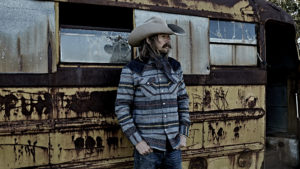 Scott Slusher[/caption]
Scott Slusher is an Oklahoma native and Texas-based photographer who is best known for his stunning images of cowboys and life on working ranches. After seeing Scott’s work, it is crystal clear that he has a deep understanding of the ranching lifestyle and has invested more than his share of time out in the heat and dust, on horseback or in the branding pen. Given his immersion in the tough, hard-nosed world of ranching, you may be surprised to learn that Scott was trained as a fashion photographer and still works with a variety of big-name companies on their fashion and clothing line spreads.
So what allows Scott to have success in two worlds as diametrically opposed as ranching and fashion? Well, as you’ll hear in this interview, Scott has a habit of pursuing his interests with a single-minded intensity and curiosity, unafraid of getting in over his head, venturing outside his comfort zone, or working harder than expected. Combine those traits with endless energy and a knack for making friends with everyone he meets, and you’ll understand how Scott has managed to work his way onto iconic ranches, riding alongside and photographing some of the best ranch hands in the business.
Scott’s enthusiasm and love of people really come through in our conversation, so I know you’ll enjoy it. We talk about his childhood in Oklahoma and how his father’s work as a veterinarian and horse breeder shaped his outlook. We chat about his time as a photography intern and how he chose to dive head first into no-fun chores (like mopping the floor), and how that optimistic, high-energy approach has paid off time and again throughout his career. We also discuss how he broke into photographing cowboys, and how his respectful approach has allowed him to be accepted by ranch hands throughout the West. We cover a ton, so check out the episode notes for a full list of topics and links.
If you don’t already, be sure to follow Scott on Instagram at @slusherphoto—if you love the West and the ranching lifestyle, I can guarantee you’ll love his work. Hope you enjoy this episode.
All images courtesy of Scott Slusher
Scott Slusher[/caption]
Scott Slusher is an Oklahoma native and Texas-based photographer who is best known for his stunning images of cowboys and life on working ranches. After seeing Scott’s work, it is crystal clear that he has a deep understanding of the ranching lifestyle and has invested more than his share of time out in the heat and dust, on horseback or in the branding pen. Given his immersion in the tough, hard-nosed world of ranching, you may be surprised to learn that Scott was trained as a fashion photographer and still works with a variety of big-name companies on their fashion and clothing line spreads.
So what allows Scott to have success in two worlds as diametrically opposed as ranching and fashion? Well, as you’ll hear in this interview, Scott has a habit of pursuing his interests with a single-minded intensity and curiosity, unafraid of getting in over his head, venturing outside his comfort zone, or working harder than expected. Combine those traits with endless energy and a knack for making friends with everyone he meets, and you’ll understand how Scott has managed to work his way onto iconic ranches, riding alongside and photographing some of the best ranch hands in the business.
Scott’s enthusiasm and love of people really come through in our conversation, so I know you’ll enjoy it. We talk about his childhood in Oklahoma and how his father’s work as a veterinarian and horse breeder shaped his outlook. We chat about his time as a photography intern and how he chose to dive head first into no-fun chores (like mopping the floor), and how that optimistic, high-energy approach has paid off time and again throughout his career. We also discuss how he broke into photographing cowboys, and how his respectful approach has allowed him to be accepted by ranch hands throughout the West. We cover a ton, so check out the episode notes for a full list of topics and links.
If you don’t already, be sure to follow Scott on Instagram at @slusherphoto—if you love the West and the ranching lifestyle, I can guarantee you’ll love his work. Hope you enjoy this episode.
All images courtesy of Scott Slusher
Click Here to Download on iTunes
---
Click Here to Download on Google Play
---
Click Here to Download on Stitcher
---
Episode Notes
Topics Discussed: 2:45 - How Scott describes his work 4:50 - Where Scott grew up 8:30 - Time working at a vet clinic 12:00 - Applying to art school in Dallas 14:00 - Finding focus in art school 18:00 - Work ethic during his first internship 22:30 - First time taking photos of cowboys 26:00 - Making folks feel comfortable during photo shoots 27:20 - How he broke into the cowboy culture 33:00 - Working at the Four 6s Ranch 36:15 - Importance of networking 40:00 - Close calls during ranch photography 44:45 - Close call during a rodeo 49:30 - Importance of social media in Scott’s career 1:04:00 - Important books 1:09:00 - Favorite films 1:14:00 - Words of advice to the listeners 1:15:00 - Connect with Scott online Information Referenced- Scott Slusher
- Scott’s Instagram and Facebook
- 6666 Ranch
- Teal Blake
- Pictures from the Costa Rican Rodeo
- Duke Beardsley
- Barbarian Days by William Finnegan
- Coyote America by Dan Flores
- Dan Flores
- The Rum Diary by Hunter S Thompson
- Unbranded
- Ben Masters
- Apaloosa
- Lonesome Dove
- Nacho Libre
- Big Lebowski
- Jeff Bridges
Duke Beardsley - Art in the Big, Bold American West
[caption id="attachment_1922" align="alignright" width="300"]
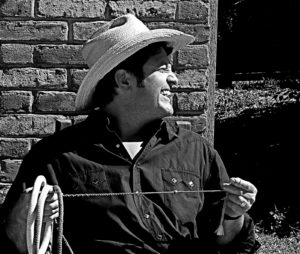 Duke Beardsley[/caption]
Duke Beardsley was well on his way to a career in medicine, when, just before med school, he took a hard turn onto a new path when he decided to pursue art as a full-time vocation. Since then, he has become one of the West’s most revered artists, producing paintings of cowboys, anglers, and the Western way of life in a style that is uniquely his own. His work is big, bold, and completely original, and it continues to grow and evolve in ways that surprise even Duke himself.
Thanks to a childhood spent between Denver and his family’s eastern Colorado ranch, Duke has been immersed in cowboy culture for as long as he can remember. He has been drawing non-stop since he could hold a crayon, and as a child (sometimes to the dismay of his parents) he demonstrated a proclivity for sketching western scenes on the walls of his family’s home. Duke is also a committed conservationist with a deep devotion to preserving the West’s landscapes and heritage. This eclectic mix of experiences and interests, combined with a formal art education, allows Duke to produce works that are ambitious, inspiring, and engaging.
I stopped by Duke’s Denver studio earlier this week, where we had a fun and wide-ranging conversation. We chat about his decision to change his career goal from medicine to art, and the value he gleaned from a formal art education. He explains that life-long obsession with drawing on walls, and he tells some stories about how, as an adult, drawing on walls has led to surprising professional opportunities. We talk about his artistic process, his meditation practice, and how he managed his extroverted personality in the solitary world of creating art. He also discusses why land conservation is an issue that is so near and dear to his heart, and offers up some excellent book recommendations.
This was a lot of fun and I really appreciate Duke inviting me into his studio. Be sure to check the episode notes for links to everything we discuss, and check out Duke on Instagram, Facebook, and his website.
All images courtesy of Duke Beardsley
Duke Beardsley[/caption]
Duke Beardsley was well on his way to a career in medicine, when, just before med school, he took a hard turn onto a new path when he decided to pursue art as a full-time vocation. Since then, he has become one of the West’s most revered artists, producing paintings of cowboys, anglers, and the Western way of life in a style that is uniquely his own. His work is big, bold, and completely original, and it continues to grow and evolve in ways that surprise even Duke himself.
Thanks to a childhood spent between Denver and his family’s eastern Colorado ranch, Duke has been immersed in cowboy culture for as long as he can remember. He has been drawing non-stop since he could hold a crayon, and as a child (sometimes to the dismay of his parents) he demonstrated a proclivity for sketching western scenes on the walls of his family’s home. Duke is also a committed conservationist with a deep devotion to preserving the West’s landscapes and heritage. This eclectic mix of experiences and interests, combined with a formal art education, allows Duke to produce works that are ambitious, inspiring, and engaging.
I stopped by Duke’s Denver studio earlier this week, where we had a fun and wide-ranging conversation. We chat about his decision to change his career goal from medicine to art, and the value he gleaned from a formal art education. He explains that life-long obsession with drawing on walls, and he tells some stories about how, as an adult, drawing on walls has led to surprising professional opportunities. We talk about his artistic process, his meditation practice, and how he managed his extroverted personality in the solitary world of creating art. He also discusses why land conservation is an issue that is so near and dear to his heart, and offers up some excellent book recommendations.
This was a lot of fun and I really appreciate Duke inviting me into his studio. Be sure to check the episode notes for links to everything we discuss, and check out Duke on Instagram, Facebook, and his website.
All images courtesy of Duke Beardsley
Click Here to Download on iTunes
---
Click Here to Download on Google Play
---
Click Here to Download on Stitcher
---
Episode Notes
Topics Discussed:- Duke Beardsley
- Duke on Instagram and Facebook
- Dartmouth College
- The Claremont Colleges
- ArtCenter College of Design
- Altamira Fine Art
- Virginia Diaz Saiki
- Las Pampas Lodge
- Patagonia Fly Fishing
- Fishpond
- Woody Beardsley
- Cadillac Desert by Mark Reisner
- Beyond the 100th Meridian by Wallace Stegner
- Legacy of Conquest by Patricia Limerick
- Blood and Thunder by Hampton Sides
- Angle of Repose by Wallace Stegner
- The River Why by David James Duncan
- Empire of the Summer Moon by SC Gwynne
- The Heart of Everything That Is by Drury and Clavin
- The Emerald Mile by Kevin Fedarko (Duke accidentally said "Miracle Mile")
- Cormac McCarthy
- Blood Meridian by Cormac McCarthy
- The Road by Cormac McCarthy
- Chinatown
- Blackthorn
- The Three Burials of Melquiades Estrada
- Ain’t in It for My Health - A Film About Levon Helm
- Yahtzee
- Thatcher School
- Ray Turner
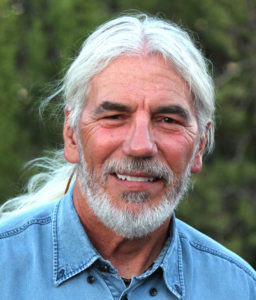 Dan Flores[/caption]
Dan Flores is a writer, historian, and former professor whose work explores the connections between people and the natural world in the American West. His most recent books—Coyote America and American Serengeti—are two of the most enlightening and informative books on the West’s natural history that I have ever read. The former is a biography of the coyote, a surprisingly fascinating animal with a rich and severely misunderstood history. The latter explores the last big mammals of the great plains—pronghorn, coyotes, horses, grizzlies, bison, and wolves—and also gives a great overview of North American big history.
It’s clear that Dan was a wonderful professor, because as you’ll hear in this episode, he has a real knack for explaining complicated subjects in a way that’s understandable, engaging, and exciting. This conversation gave me a glimpse into what it must have been like to be a student in Dan’s class at the University of Montana—I walked away from it full of new knowledge, and it whet my appetite to dig deeper into the many subjects we covered.
I could’ve asked Dan questions for hours and hours, but in our relatively short time together we managed to cover a lot. We start by discussing the coyote—how and why the animal has been so misunderstood, its similarities to humans, how it has managed to thrive despite efforts to totally eradicate the species, and the varying pronunciations of the word coyote. Then we discuss horses—the misconception that they are a non-native species in North America, their evolutionary history around the world, and some modern-day challenges facing the West's few remaining wild horses. We also talk about Dan’s childhood in Louisiana, his current home in New Mexico, his favorite books on the American West, and much, much more.
This is an excellent episode and I’m excited for you to listen. If you haven’t already, buy Coyote America and American Serengeti—I can promise you’ll love them both.
Dan Flores[/caption]
Dan Flores is a writer, historian, and former professor whose work explores the connections between people and the natural world in the American West. His most recent books—Coyote America and American Serengeti—are two of the most enlightening and informative books on the West’s natural history that I have ever read. The former is a biography of the coyote, a surprisingly fascinating animal with a rich and severely misunderstood history. The latter explores the last big mammals of the great plains—pronghorn, coyotes, horses, grizzlies, bison, and wolves—and also gives a great overview of North American big history.
It’s clear that Dan was a wonderful professor, because as you’ll hear in this episode, he has a real knack for explaining complicated subjects in a way that’s understandable, engaging, and exciting. This conversation gave me a glimpse into what it must have been like to be a student in Dan’s class at the University of Montana—I walked away from it full of new knowledge, and it whet my appetite to dig deeper into the many subjects we covered.
I could’ve asked Dan questions for hours and hours, but in our relatively short time together we managed to cover a lot. We start by discussing the coyote—how and why the animal has been so misunderstood, its similarities to humans, how it has managed to thrive despite efforts to totally eradicate the species, and the varying pronunciations of the word coyote. Then we discuss horses—the misconception that they are a non-native species in North America, their evolutionary history around the world, and some modern-day challenges facing the West's few remaining wild horses. We also talk about Dan’s childhood in Louisiana, his current home in New Mexico, his favorite books on the American West, and much, much more.
This is an excellent episode and I’m excited for you to listen. If you haven’t already, buy Coyote America and American Serengeti—I can promise you’ll love them both.
Click Here to Download on iTunes
---
Click Here to Download on Google Play
---
Click Here to Download on Stitcher
---
Episode Notes
Topics Discussed- Dan Flores
- Coyote America: A Natural and Supernatural History by Dan Flores
- American Serengeti: The Last Big Animals of the Great Plains by Dan Flores
- Roughing It by Mark Twain
- Ben Masters’podcast
- Big History
- Henry David Thoreau
- Wallace Stegner
- Aldo Leopold
- In Montana - The View from the Ranchette
- American Prairie Reserve
- Beyond the 100th Meridian: John Wesley Powell and the Second Opening of the West by Wallace Stegner
- Dust Bowl: The Southern Plains in the 1930s by Donald Worster
- American Wolf: A True Story of Survival and Obsession in the West by Nate Blakeslee
- Dan’s Amazon Author Page
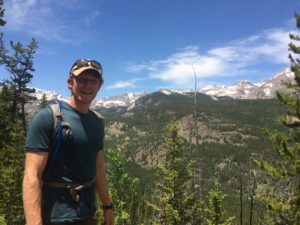 Noel Durant[/caption]
Noel Durant is the new Executive Director of the Crested Butte Land Trust, a conservation organization that protects and stewards the ranches, trails, open space, and wildlife habit of Colorado’s Gunnison Valley. Noel took the helm of the land trust in early 2017, and he brings a wide variety of conservation experience with him into this new role. He’s worked as a member of the Interagency Hotshot Crew, fighting fires across the American West. He has also worked for regional and national conservation organizations, doing everything from managing large swaths of rural land to developing urban trail systems.
Noel’s resume speaks for itself, but what is even more impressive is his intense curiosity and deep knowledge around all things conservation. Whether discussing the history of the Gunnison Valley or the ideas of Wendell Berry, it’s clear that Noel has a true passion for his work and a vision for the future of conservation in Colorado and beyond. His practical experience combined with abundant enthusiasm is what will allow him to continue and expand the work of Crested Butte Land Trust into the future.
As listeners of the podcast know, Crested Butte in one of my favorite places in the American West. Its ranching heritage, world-class recreation, and genuine community make it a unique and rare place in today’s American West. In our conversation, Noel explains what makes Crested Butte and the Gunnison Valley so special, and how the Land Trust must balance the goals of such a wide range of various stakeholders. He talks about the history of conservation in the Valley and where he sees conservation going in the future. We also discuss his time fighting fires throughout the West, how his early life and parents shaped his love of the outdoors, and lessons learned from his various roles in conservation.
This is an excellent episode with lots of interesting information, so be sure the check the episode notes for links to everything we discuss. I’m sure you’ll agree that Crested Butte Land Trust is in great hands under the leadership of Noel. Enjoy!
Noel Durant[/caption]
Noel Durant is the new Executive Director of the Crested Butte Land Trust, a conservation organization that protects and stewards the ranches, trails, open space, and wildlife habit of Colorado’s Gunnison Valley. Noel took the helm of the land trust in early 2017, and he brings a wide variety of conservation experience with him into this new role. He’s worked as a member of the Interagency Hotshot Crew, fighting fires across the American West. He has also worked for regional and national conservation organizations, doing everything from managing large swaths of rural land to developing urban trail systems.
Noel’s resume speaks for itself, but what is even more impressive is his intense curiosity and deep knowledge around all things conservation. Whether discussing the history of the Gunnison Valley or the ideas of Wendell Berry, it’s clear that Noel has a true passion for his work and a vision for the future of conservation in Colorado and beyond. His practical experience combined with abundant enthusiasm is what will allow him to continue and expand the work of Crested Butte Land Trust into the future.
As listeners of the podcast know, Crested Butte in one of my favorite places in the American West. Its ranching heritage, world-class recreation, and genuine community make it a unique and rare place in today’s American West. In our conversation, Noel explains what makes Crested Butte and the Gunnison Valley so special, and how the Land Trust must balance the goals of such a wide range of various stakeholders. He talks about the history of conservation in the Valley and where he sees conservation going in the future. We also discuss his time fighting fires throughout the West, how his early life and parents shaped his love of the outdoors, and lessons learned from his various roles in conservation.
This is an excellent episode with lots of interesting information, so be sure the check the episode notes for links to everything we discuss. I’m sure you’ll agree that Crested Butte Land Trust is in great hands under the leadership of Noel. Enjoy!
Click Here to Download on iTunes
---
Click Here to Download on Google Play
---
Click Here to Download on Stitcher
---
[soundcloud url="https://api.soundcloud.com/tracks/339482132" params="color=ff5500&auto_play=false&hide_related=true&show_comments=false&show_user=true&show_reposts=false" width="100%" height="166" iframe="true" /]
Episode Notes
Topics Discussed- Noel Durant
- Crested Butte Land Trust
- CBLT on Instagram and Facebook
- Crested Butte, Colorado
- Outdoor Academy of the Southern Appalachians
- Clemson University
- Connor Coleman podcast
- Interagency Hotshot Crew
- Tribe by Sebastian Junger
- Fire by Sebastian Junger
- Lulu Lake Land Trust
- Trust for Public Land
- Wendell Berry
- Aldo Leopold
- Shop Class as Soulcraft by Matthew Crawford
- Winter: Notes from Montana by Rick Bass
- Alone in the Wilderness
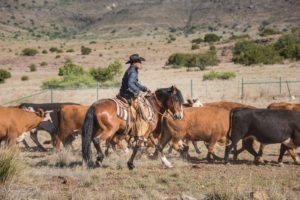 Teal Blake - At work, outside the studio[/caption]
If you love art and the American West, chances are you’re already a fan of Teal Blake. His paintings of bucking horses, working cowboys, and the Western ranching lifestyle are some of the most authentic and creative around. Teal's art is authentically Western because he’s so authentically Western—he has worked on ranches for all of his life, has ridden rodeo on the professional level, and has been making art since before he can remember. These unique life experiences, combined with a deep-seated drive to create original and striking art, meld together to make him one of the most genuine and fresh faces in Western art today.
Teal grew up in Augusta, Montana, the son of two creative parents who allowed him to roam free—fishing, hunting, and exploring the wilderness out his backdoor. During high school, he discovered his talent for bull riding and rodeo, and he pursued that passion for years, eventually competing on the professional circuit. Throughout all of his various adventures and life stages, Teal was continuously sketching and painting, and after several impressive showings at western art shows, he decided to make a go of it as a professional artist. Since then he hasn’t looked back, and his stature in the Western art world continues to grow.
We had an in-depth conversation in which we discussed Teal’s upbringing in Montana and Idaho, and how his artistic parents influenced his life and work. We chatted about his experience at art school, which ended with him flunking out, yet being the only one from his class to actually make it as a professional artist. We discuss his background in ranching and rodeo, and his process of transitioning into life as a professional artist. We also talk about the important role that external validation can play in a solitary creative endeavor such as painting. As usual, we discuss favorite books, favorite films, and his favorite place in the American West. We cover a lot in this episode, so be sure to check out the episode notes for all the topics and links to everything we discuss.
Images courtesy of Teal Blake
Teal Blake - At work, outside the studio[/caption]
If you love art and the American West, chances are you’re already a fan of Teal Blake. His paintings of bucking horses, working cowboys, and the Western ranching lifestyle are some of the most authentic and creative around. Teal's art is authentically Western because he’s so authentically Western—he has worked on ranches for all of his life, has ridden rodeo on the professional level, and has been making art since before he can remember. These unique life experiences, combined with a deep-seated drive to create original and striking art, meld together to make him one of the most genuine and fresh faces in Western art today.
Teal grew up in Augusta, Montana, the son of two creative parents who allowed him to roam free—fishing, hunting, and exploring the wilderness out his backdoor. During high school, he discovered his talent for bull riding and rodeo, and he pursued that passion for years, eventually competing on the professional circuit. Throughout all of his various adventures and life stages, Teal was continuously sketching and painting, and after several impressive showings at western art shows, he decided to make a go of it as a professional artist. Since then he hasn’t looked back, and his stature in the Western art world continues to grow.
We had an in-depth conversation in which we discussed Teal’s upbringing in Montana and Idaho, and how his artistic parents influenced his life and work. We chatted about his experience at art school, which ended with him flunking out, yet being the only one from his class to actually make it as a professional artist. We discuss his background in ranching and rodeo, and his process of transitioning into life as a professional artist. We also talk about the important role that external validation can play in a solitary creative endeavor such as painting. As usual, we discuss favorite books, favorite films, and his favorite place in the American West. We cover a lot in this episode, so be sure to check out the episode notes for all the topics and links to everything we discuss.
Images courtesy of Teal Blake
Click Here to Download on iTunes
---
Click Here to Download on Google Play
---
Click Here to Download on Stitcher
---
[soundcloud url="https://api.soundcloud.com/tracks/337380824" params="color=ff5500&auto_play=false&hide_related=false&show_comments=true&show_user=true&show_reposts=false" width="100%" height="166" iframe="true" /]
---
Episode Notes
Topics Discussed- Teal Blake
- Teal’s Instagram
- Buckeye Blake
- Augusta, Montana
- C.M. Russell Museum
- Charlie Russell
- Will James
- Haley, Idaho
- Team roping
- Cutting horses
- War of Art by Steven Pressfield
- Cormac McCarthy
- The Border Trilogy by Cormac McCarthy
- Blood Meridian by Cormac McCarthy
- Thomas McGuane books
- Maynard Dixon documentary
- Unbranded
- Ben Masters Podcast
- The Infamous Chappin’ Video
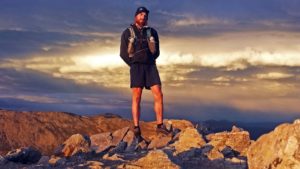 Justin Simoni (photo credit: Justin Simoni)[/caption]
Justin Simoni is an ultra-endurance adventurer who is most well known for his self-powered, long-distance tours that combine cycling, mountain running, and climbing. He is currently preparing for the "Highest Hundred” in which he’ll climb Colorado’s 100 highest peaks, accessing them all by bike, in 60 days or less. If he pulls it off (and I’m betting that he will), it will be the first time anyone has linked all of these peaks by bike in a completely self-supported style.
Most people would assume that Justin has been a hardcore cyclist for his entire life, but he actually started riding relatively late. He studied painting in college and worked full time as a professional artist for years, living in an art gallery in downtown Denver. Frustrated with his car that kept breaking down, Justin purchased a bike and began to ride it as his primary mode of transportation. As his rides became longer and longer, he enjoyed it more and more, and pretty soon he was completely committed to long-distance cycling. What followed was a barrage of impressive solo ultra-distance adventures: cycling the Pacific Coast, racing the Tour Divide mountain bike race twice, and completing the Tour 14er, which involved cycling to all 58 of Colorado’s 14,000-foot mountains and climbing them... in just 34 days.
Thanks to his athletic accomplishments, artistic perspective, hilarious sense of humor, and infectious enthusiasm, Justin is truly one of a kind. We had a fun and funny conversation that covered a wide range of topics from his adventures to his time as an artist. We chatted about some of the techniques that he uses to stay upbeat during periods of extreme fatigue or fear, and we discussed how he balances his free-wheeling artist’s mentality with the monk-like discipline required to pull off such serious adventures. As usual, we discuss favorite books, films, and Justin shares the best piece of advice he’s ever received.
I appreciate Justin taking the time to chat during such a hectic period of planning and training. Also, thanks to the sponsors who are helping to make the Highest Hundred possible: Ultimate Direction, Surly Bikes, Colorado Mountain Club, OR, Sierra Designs, and La Sportiva.
This was a really fun conversation, so I hope you enjoy!
Photos courtesy of Justin Simoni
Justin Simoni (photo credit: Justin Simoni)[/caption]
Justin Simoni is an ultra-endurance adventurer who is most well known for his self-powered, long-distance tours that combine cycling, mountain running, and climbing. He is currently preparing for the "Highest Hundred” in which he’ll climb Colorado’s 100 highest peaks, accessing them all by bike, in 60 days or less. If he pulls it off (and I’m betting that he will), it will be the first time anyone has linked all of these peaks by bike in a completely self-supported style.
Most people would assume that Justin has been a hardcore cyclist for his entire life, but he actually started riding relatively late. He studied painting in college and worked full time as a professional artist for years, living in an art gallery in downtown Denver. Frustrated with his car that kept breaking down, Justin purchased a bike and began to ride it as his primary mode of transportation. As his rides became longer and longer, he enjoyed it more and more, and pretty soon he was completely committed to long-distance cycling. What followed was a barrage of impressive solo ultra-distance adventures: cycling the Pacific Coast, racing the Tour Divide mountain bike race twice, and completing the Tour 14er, which involved cycling to all 58 of Colorado’s 14,000-foot mountains and climbing them... in just 34 days.
Thanks to his athletic accomplishments, artistic perspective, hilarious sense of humor, and infectious enthusiasm, Justin is truly one of a kind. We had a fun and funny conversation that covered a wide range of topics from his adventures to his time as an artist. We chatted about some of the techniques that he uses to stay upbeat during periods of extreme fatigue or fear, and we discussed how he balances his free-wheeling artist’s mentality with the monk-like discipline required to pull off such serious adventures. As usual, we discuss favorite books, films, and Justin shares the best piece of advice he’s ever received.
I appreciate Justin taking the time to chat during such a hectic period of planning and training. Also, thanks to the sponsors who are helping to make the Highest Hundred possible: Ultimate Direction, Surly Bikes, Colorado Mountain Club, OR, Sierra Designs, and La Sportiva.
This was a really fun conversation, so I hope you enjoy!
Photos courtesy of Justin Simoni
Click Here to Download on iTunes
---
Click Here to Download on Google Play
---
Click Here to Download on Stitcher
---
[soundcloud url="https://api.soundcloud.com/tracks/327952501" params="color=ff5500&auto_play=false&hide_related=false&show_comments=true&show_user=true&show_reposts=false" width="100%" height="166" iframe="true" /]
---
Episode Notes
Topics Discussed- Justin Simoni
- Justin on Facebook, Instagram, and Twitter
- Highest Hundred
- Colorado Centennials
- Colorado 14ers
- Tour Divide
- Tour 14er
- Ride the Divide
- “Everesting” Green Mountain
- Green Mountain
- Bill Briggs (interview)
- Bill Wright (blog)
- Anton Krupicka
- Joe Grant
- M&P podcast with Joe Grant
- Edward Abbey
- Desert Solitaire by Edward Abbey
- Monkey Wrench Gang by Edward Abbey
- All the Wild that Remains by David Gessner
- The Holy Mountain
- John Cage
- Taiko Drumming
- The Marathon Monks of Mount Hiei
- Sri Chnmoy Self-Trancendence 3,100-Mile Race
- Longs Peak
- Ultimate Direction
- Surly Bikes
- Colorado Mountain Club
- OR
- Sierra Designs
- La Sportiva
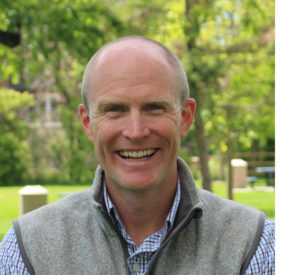 Bryan Martin[/caption]
Bryan Martin and Elizabeth Williams work at Big City Mountaineers, a Colorado-based nonprofit that transforms the lives of underserved youth through wilderness mentoring expeditions. Through partnerships with community youth programs around the United States, Big City Mountaineers exposes close to 1,000 youth per year to outdoor adventures in some of our country’s most spectacular public lands. Not only do these young people learn outdoor skills, but more importantly, they learn critical life skills while also improving their self-confidence, communication skills, and leadership abilities.
[caption id="attachment_1776" align="alignright" width="295"]
Bryan Martin[/caption]
Bryan Martin and Elizabeth Williams work at Big City Mountaineers, a Colorado-based nonprofit that transforms the lives of underserved youth through wilderness mentoring expeditions. Through partnerships with community youth programs around the United States, Big City Mountaineers exposes close to 1,000 youth per year to outdoor adventures in some of our country’s most spectacular public lands. Not only do these young people learn outdoor skills, but more importantly, they learn critical life skills while also improving their self-confidence, communication skills, and leadership abilities.
[caption id="attachment_1776" align="alignright" width="295"]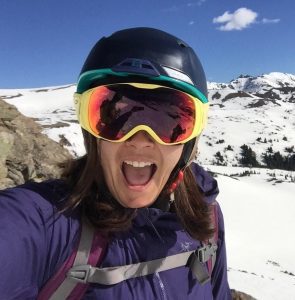 Elizabeth Williams[/caption]
Prior to assuming his role as executive director at BCM, Bryan enjoyed great success with a wide variety of conservation and outdoor-related organizations including the Nature Conservancy, Continental Divide Trail Alliance, Colorado Mountain Club, and the Land Trust Alliance. Elizabeth was a teacher in India and Nepal before joining BCM as a marketing intern—10 years and a lot of hard work later, she has risen through the ranks and is now the Director of Programs. Bryan and Elizabeth share a deep enthusiasm for the outdoors and a belief that outdoor experiences can be transformative. Their passion for the work and BCM’s mission is palpable, so I know you’ll enjoy getting to know them.
I met Bryan and Elizabeth at the BCM offices in the American Mountaineering Center in Golden, Colorado, where we discussed BCM’s mission, the details of their wilderness expeditions, and why outdoor adventures can be such life-changing experiences. We chat about Bryan and Elizabeth's professional backgrounds and learn what drew them to careers centered around the outdoors and service. They also tell a heart-warming success story in which a student overcomes her initial fears to thrive on a weeklong wilderness trip.
Thanks to Bryan and Elizabeth for taking the time to chat. Hope you enjoy!
https://www.youtube.com/watch?v=uBDNEmWbDQo
Elizabeth Williams[/caption]
Prior to assuming his role as executive director at BCM, Bryan enjoyed great success with a wide variety of conservation and outdoor-related organizations including the Nature Conservancy, Continental Divide Trail Alliance, Colorado Mountain Club, and the Land Trust Alliance. Elizabeth was a teacher in India and Nepal before joining BCM as a marketing intern—10 years and a lot of hard work later, she has risen through the ranks and is now the Director of Programs. Bryan and Elizabeth share a deep enthusiasm for the outdoors and a belief that outdoor experiences can be transformative. Their passion for the work and BCM’s mission is palpable, so I know you’ll enjoy getting to know them.
I met Bryan and Elizabeth at the BCM offices in the American Mountaineering Center in Golden, Colorado, where we discussed BCM’s mission, the details of their wilderness expeditions, and why outdoor adventures can be such life-changing experiences. We chat about Bryan and Elizabeth's professional backgrounds and learn what drew them to careers centered around the outdoors and service. They also tell a heart-warming success story in which a student overcomes her initial fears to thrive on a weeklong wilderness trip.
Thanks to Bryan and Elizabeth for taking the time to chat. Hope you enjoy!
https://www.youtube.com/watch?v=uBDNEmWbDQo
Click Here to Download on iTunes
---
Click Here to Download on Google Play
---
Click Here to Download on Stitcher
---
[soundcloud url="https://api.soundcloud.com/tracks/322017050" params="color=ff5500&auto_play=false&hide_related=false&show_comments=true&show_user=true&show_reposts=false" width="100%" height="166" iframe="true" /]
---
Episode Notes
Topics Discussed- Big City Mountaineers
- BCM on Facebook, Twitter, and Instagram
- Bryan’s letter regarding the importance of public lands
- Summit for Someone
- National Outdoor Leadership School (NOLS)
- Outward Bound
- The Hippy Guide to Climbing the Corporate Ladder and Other Mountains by Skip Yowell
- Forever Changed by Linda Mornell
- Summer Search
- The Emerald Mile by Kevin Fedarko
- The Dog Stars by Peter Heller
- Chaco Presents: The Time Travelers
- Doug Topkins: Wild Legacy
John Dunaway - Life and Times of a Merchant Mariner
[caption id="attachment_1756" align="alignright" width="300"]
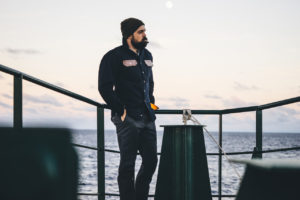 John Dunaway at sea[/caption]
John Dunaway is a Texas-based merchant mariner who spends six months each year traveling the world as the captain of large cargo ships. Whether cruising the calm, warm waters of Central America or avoiding Somali pirates off the coast of Africa, John’s goal is the same: deliver the cargo efficiently while ensuring the safety of his crew—quite the responsibility for a 32-year-old. When not at sea, John is an avid bird hunter, surfer, and all-around adventurer who uses his downtime to explore everywhere from Jackson Hole to Canyonlands to Antelope Island with his wife and young daughter. Thanks to a talent for photography and writing, John has gained a huge following on Instagram, where he documents his exploits on his account, AbstractConformity.
So you might be asking, what does a ship captain have to do with mountains and/or prairies? Although John may spend most of his time on the high seas, far away from the American West, you’ll notice that his optimistic perspective, focused sense of purpose, and thirst for adventure parallel the attitudes and outlooks of many of my previous podcast guests. Also like other guests, he is well read, a deep thinker, and has a genuine conservation ethic thanks to his close connection to the natural world. Although the objects of our affections may be different, our underlying values and priorities are surprisingly similar.
After almost a year of recording this podcast, I was excited to switch it up a little with this in-depth conversation with John about a subject that was fairly new to me. We start by covering the basics of his job—how one becomes a ship captain, particulars on the size of the ships, and details of day-to-day life on a 90-day ocean voyage. Then we dig deeper into some of his thoughts on leadership, his rituals and superstitions, how fatherhood has changed his outlook, and how he manages the pressure that comes along with being responsible for a massive ship, his crew, and the cargo. He also tells a few crazy stories from Africa and India, and he shares some insights from his recent trips around the American West. As usual, we discuss favorite books, films, and thoughts on conservation.
I found this to be a fascinating conversation, and I’d love to hear what you think. If you have a moment, please shoot me an email and let me know your thoughts. As always, thanks for taking the time to listen; hope you enjoy.
Photos courtesy of John Dunaway
John Dunaway at sea[/caption]
John Dunaway is a Texas-based merchant mariner who spends six months each year traveling the world as the captain of large cargo ships. Whether cruising the calm, warm waters of Central America or avoiding Somali pirates off the coast of Africa, John’s goal is the same: deliver the cargo efficiently while ensuring the safety of his crew—quite the responsibility for a 32-year-old. When not at sea, John is an avid bird hunter, surfer, and all-around adventurer who uses his downtime to explore everywhere from Jackson Hole to Canyonlands to Antelope Island with his wife and young daughter. Thanks to a talent for photography and writing, John has gained a huge following on Instagram, where he documents his exploits on his account, AbstractConformity.
So you might be asking, what does a ship captain have to do with mountains and/or prairies? Although John may spend most of his time on the high seas, far away from the American West, you’ll notice that his optimistic perspective, focused sense of purpose, and thirst for adventure parallel the attitudes and outlooks of many of my previous podcast guests. Also like other guests, he is well read, a deep thinker, and has a genuine conservation ethic thanks to his close connection to the natural world. Although the objects of our affections may be different, our underlying values and priorities are surprisingly similar.
After almost a year of recording this podcast, I was excited to switch it up a little with this in-depth conversation with John about a subject that was fairly new to me. We start by covering the basics of his job—how one becomes a ship captain, particulars on the size of the ships, and details of day-to-day life on a 90-day ocean voyage. Then we dig deeper into some of his thoughts on leadership, his rituals and superstitions, how fatherhood has changed his outlook, and how he manages the pressure that comes along with being responsible for a massive ship, his crew, and the cargo. He also tells a few crazy stories from Africa and India, and he shares some insights from his recent trips around the American West. As usual, we discuss favorite books, films, and thoughts on conservation.
I found this to be a fascinating conversation, and I’d love to hear what you think. If you have a moment, please shoot me an email and let me know your thoughts. As always, thanks for taking the time to listen; hope you enjoy.
Photos courtesy of John Dunaway
Click Here to Download on iTunes
---
Click Here to Download on Google Play
---
Click Here to Download on Stitcher
---
[soundcloud url="https://api.soundcloud.com/tracks/318399977" params="color=ff5500&auto_play=false&hide_related=false&show_comments=true&show_user=true&show_reposts=false" width="100%" height="166" iframe="true" /]
---
Episode Notes
Topics Discussed- John Dunaway
- John's Instagram - AbstractConformity
- US Merchant Marine Academy
- The Power of Habit by Charles Duhigg
- The 4-Hour Work Week by Tim Ferriss
- Tim Ferriss podcast
- Endurance by Alfred Lansing
- Brady Robinson podcast interview
- Tyler Sharp podcast interview
- Knife Fights by John Nagl
- Texas Monthly article
- Filson article
- Jackson Hole
- Canyonlands
- Antelope Island
- The Drifters by James Michener
- 180 South
- Wes Anderson
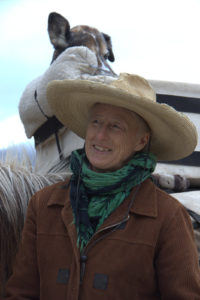 Bernice Ende[/caption]
Bernice Ende is a horsewoman and adventurer who has ridden over 28,000 miles on horseback throughout the United States. Back in 2005, without any significant experience in long riding, Bernice set out by herself from her home in Trego, Montana and headed south—2,000 miles south, all the way to the Albuquerque, New Mexico. In the following years, her rides became more and more ambitious, and her most recent trip stretched 8,000 miles from Montana to the coast of Maine and back, a journey that took over two and a half years to complete!
I was surprised to learn that Bernice is relatively new to long riding and never had life-long dreams of making long riding a full-time vocation. She grew up on a Minnesota dairy farm and spent the majority of her adult life teaching ballet in cities such as San Francisco, Minneapolis, and Seattle. In 1992 she moved to Trego, Montana and opened a ballet school in a historic community hall building. After a decade of teaching there in Trego, she made the decision to take her first long ride. Since then, her story has been featured in numerous magazines, newspapers, and even on the Today Show. More importantly, her rides have inspired people of all ages to follow their dreams and pursue lives of adventure.
Bernice is extremely gifted at telling her her life story, so we had a fun and in-depth conversation. We discussed her background and the decisions that led her to strike out on her own on her first long ride. We talked about the mental challenges of pursuing such ambitious adventures and how she manages the emotional ups and downs of years on the road. She breaks down the specifics of her long rides—how far she rides each day, what she eats, where she sleeps, and all the other details. She also shares some heartwarming stories of people she has met on her rides—stories that will restore your faith in humanity in the midst of our current volatile political climate.
Thank you again to Bernice for taking the time to chat. I hope you enjoy!
Photos courtesy of Bernice Ende
Bernice Ende[/caption]
Bernice Ende is a horsewoman and adventurer who has ridden over 28,000 miles on horseback throughout the United States. Back in 2005, without any significant experience in long riding, Bernice set out by herself from her home in Trego, Montana and headed south—2,000 miles south, all the way to the Albuquerque, New Mexico. In the following years, her rides became more and more ambitious, and her most recent trip stretched 8,000 miles from Montana to the coast of Maine and back, a journey that took over two and a half years to complete!
I was surprised to learn that Bernice is relatively new to long riding and never had life-long dreams of making long riding a full-time vocation. She grew up on a Minnesota dairy farm and spent the majority of her adult life teaching ballet in cities such as San Francisco, Minneapolis, and Seattle. In 1992 she moved to Trego, Montana and opened a ballet school in a historic community hall building. After a decade of teaching there in Trego, she made the decision to take her first long ride. Since then, her story has been featured in numerous magazines, newspapers, and even on the Today Show. More importantly, her rides have inspired people of all ages to follow their dreams and pursue lives of adventure.
Bernice is extremely gifted at telling her her life story, so we had a fun and in-depth conversation. We discussed her background and the decisions that led her to strike out on her own on her first long ride. We talked about the mental challenges of pursuing such ambitious adventures and how she manages the emotional ups and downs of years on the road. She breaks down the specifics of her long rides—how far she rides each day, what she eats, where she sleeps, and all the other details. She also shares some heartwarming stories of people she has met on her rides—stories that will restore your faith in humanity in the midst of our current volatile political climate.
Thank you again to Bernice for taking the time to chat. I hope you enjoy!
Photos courtesy of Bernice Ende
Click Here to Download on iTunes
---
Click Here to Download on Google Play
---
Click Here to Download on Stitcher
---
[soundcloud url="https://api.soundcloud.com/tracks/314984574" params="color=ff5500&auto_play=false&hide_related=false&show_comments=true&show_user=true&show_reposts=false" width="100%" height="166" iframe="true" /]
---
Episode Notes
Topics Discussed- Bernice Ende
- Bernice’s Facebook Page and “Lady Long Rider” page
- The Long Rider’s Guild
- Sherlock Holmes
- Sir Arthur Conan Doyle
- Wallace Stegner
- Mary Oliver
- Sinclair Lewis
- All the Wild That Remains: Edward Abbey, Wallace Stegner, and the American West by David Gessner
- Edward Abbey
- Blackfoot Community Conservation Area
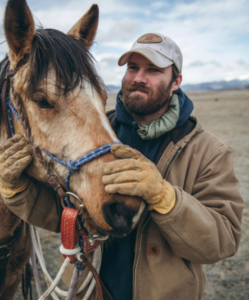 Mike Reilly (Photo: Chris Douglas)[/caption]
Mike Reilly is the Veterans Program Coordinator at Heroes and Horses, a Montana-based nonprofit that uses expedition-style horse pack trips through wild landscapes to help veterans overcome the challenges of life after the military. Prior to his work with Heroes and Horses, Mike was a Navy SEAL and served as a member of SEAL Team 1 in Operation Iraqi Freedom and Operation New Dawn. As he was transitioning out of the military, he heard about Heroes and Horses and signed on as a student. The program offered a perfect blend of service, teaching, helping others, and adventure that spoke to Mike’s strengths and interests; after completing the program, he was hired as a full-time member of the team.
Heroes and Horses is not a vacation. It’s a rigorous and hardcore three-phase process that takes veterans with no prior horseback experience and, in the course of a summer, turns them into expert horsemen and wilderness travelers. Through the hard work and focus required to make it through the program, veterans are able to forge lasting bonds and discover a renewed sense of purpose—which gives them the skills and confidence to thrive in the civilian life as they begin their post-military lives. Amazingly, this program is offered at no cost to veterans.
[caption id="attachment_1712" align="alignright" width="300"]
Mike Reilly (Photo: Chris Douglas)[/caption]
Mike Reilly is the Veterans Program Coordinator at Heroes and Horses, a Montana-based nonprofit that uses expedition-style horse pack trips through wild landscapes to help veterans overcome the challenges of life after the military. Prior to his work with Heroes and Horses, Mike was a Navy SEAL and served as a member of SEAL Team 1 in Operation Iraqi Freedom and Operation New Dawn. As he was transitioning out of the military, he heard about Heroes and Horses and signed on as a student. The program offered a perfect blend of service, teaching, helping others, and adventure that spoke to Mike’s strengths and interests; after completing the program, he was hired as a full-time member of the team.
Heroes and Horses is not a vacation. It’s a rigorous and hardcore three-phase process that takes veterans with no prior horseback experience and, in the course of a summer, turns them into expert horsemen and wilderness travelers. Through the hard work and focus required to make it through the program, veterans are able to forge lasting bonds and discover a renewed sense of purpose—which gives them the skills and confidence to thrive in the civilian life as they begin their post-military lives. Amazingly, this program is offered at no cost to veterans.
[caption id="attachment_1712" align="alignright" width="300"]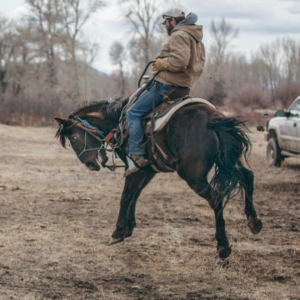 Mike hard at work (Photo: Chris Douglas)[/caption]
Mike was nice enough to take a break from a morning of training wild mustangs to chat with me about the program and his personal story. We discussed how he initially connected with Heroes and Horses and how it helped him through some of the challenges of post-deployment life. Mike explained the organization's upcoming 500 Miles Project, in which they are training horses from the BLM’s Wild Mustang Program and planning to take them on a 500-mile ride later this summer. He also talks about his military career, and how a collegiate baseball injury was the catalyst that led him to pursue his dream of becoming a SEAL.
Mike is a humble guy with a deeply ingrained passion for serving and helping others, so I know you’ll enjoy this episode. I encourage you to check out the Heroes and Horses website, visit their GoFundMe page, and consider supporting their important work.
https://www.youtube.com/watch?v=Xh-XSPiYFps
https://vimeo.com/200269386
Photos courtesy of Chris Douglas
Mike hard at work (Photo: Chris Douglas)[/caption]
Mike was nice enough to take a break from a morning of training wild mustangs to chat with me about the program and his personal story. We discussed how he initially connected with Heroes and Horses and how it helped him through some of the challenges of post-deployment life. Mike explained the organization's upcoming 500 Miles Project, in which they are training horses from the BLM’s Wild Mustang Program and planning to take them on a 500-mile ride later this summer. He also talks about his military career, and how a collegiate baseball injury was the catalyst that led him to pursue his dream of becoming a SEAL.
Mike is a humble guy with a deeply ingrained passion for serving and helping others, so I know you’ll enjoy this episode. I encourage you to check out the Heroes and Horses website, visit their GoFundMe page, and consider supporting their important work.
https://www.youtube.com/watch?v=Xh-XSPiYFps
https://vimeo.com/200269386
Photos courtesy of Chris Douglas
Click Here to Download on iTunes
---
Click Here to Download on Google Play
---
Click Here to Download on Stitcher
---
[soundcloud url="https://api.soundcloud.com/tracks/312868531" params="color=ff5500&auto_play=false&hide_related=false&show_comments=true&show_user=true&show_reposts=false" width="100%" height="166" iframe="true" /]
---
Episode Notes
Topics Discussed- Heroes and Horses
- Heroes and Horses team
- Micah Fink - Founder and Executive Director of H&H
- H&H on Facebook and Instagram
- The 500 Miles Project
- 500 Mile Project GoFundMe page
- YETI H&H Film
- 500 Miles Project teaser
- Navy SEALs
- BUDs
- Unbranded
- Ben Masters
- Podcast interview with Ben Masters
- Tom Dorrance
- Road House
- Cobra
- Big Trouble in Little China
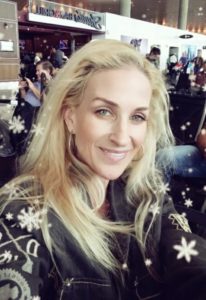 AD Maddox[/caption]
AD Maddox is an accomplished artist who creates some of the most spectacular and memorable paintings of trout that I’ve ever seen. Using bright colors and unique perspectives, AD depicts trout and the fly fishing lifestyle in a way that is completely original, yet so authentic you’d be hard-pressed to find an angler who doesn’t love her work. Her art has been featured widely throughout the fishing world, including on the cover of Gray’s Sporting Journal, Patagonia apparel, and even StealthCraft drift boats.
I first encountered AD’s work when I moved to Jackson Hole in the mid-2000s. I’m not an art connoisseur, but I was instantly taken away with how she managed to capture the beauty and realistic details of trout with a contemporary and unconventional style. And just like her work, AD is a one-of-a-kind original—she spent years as a super-competitive athlete, studied exercise physiology in college, taught herself to paint without any formal art education, and rips around backroads on a Ducati motorcycle. Despite a fun-loving and easygoing exterior, she approaches her work with discipline and rigor that seem more fitting for a professional soldier than a professional artist.
Thanks to AD’s outgoing and hilarious personality, we had a very fun and wide-ranging conversation. We chatted about her many years living in Jackson Hole and how the people, landscapes, and natural beauty of that valley influenced her art. We discussed her upbringing and her parents' role in giving her the confidence to pursue art as a full-time career. She also talks in detail about the importance of facing challenges (both in work and life) head-on and proactively, with a positive attitude and relentless work ethic. Whether you’re an artist or not, there are many wise lessons in the conversation that anyone could apply to their work and life.
[caption id="attachment_1677" align="aligncenter" width="700"]
AD Maddox[/caption]
AD Maddox is an accomplished artist who creates some of the most spectacular and memorable paintings of trout that I’ve ever seen. Using bright colors and unique perspectives, AD depicts trout and the fly fishing lifestyle in a way that is completely original, yet so authentic you’d be hard-pressed to find an angler who doesn’t love her work. Her art has been featured widely throughout the fishing world, including on the cover of Gray’s Sporting Journal, Patagonia apparel, and even StealthCraft drift boats.
I first encountered AD’s work when I moved to Jackson Hole in the mid-2000s. I’m not an art connoisseur, but I was instantly taken away with how she managed to capture the beauty and realistic details of trout with a contemporary and unconventional style. And just like her work, AD is a one-of-a-kind original—she spent years as a super-competitive athlete, studied exercise physiology in college, taught herself to paint without any formal art education, and rips around backroads on a Ducati motorcycle. Despite a fun-loving and easygoing exterior, she approaches her work with discipline and rigor that seem more fitting for a professional soldier than a professional artist.
Thanks to AD’s outgoing and hilarious personality, we had a very fun and wide-ranging conversation. We chatted about her many years living in Jackson Hole and how the people, landscapes, and natural beauty of that valley influenced her art. We discussed her upbringing and her parents' role in giving her the confidence to pursue art as a full-time career. She also talks in detail about the importance of facing challenges (both in work and life) head-on and proactively, with a positive attitude and relentless work ethic. Whether you’re an artist or not, there are many wise lessons in the conversation that anyone could apply to their work and life.
[caption id="attachment_1677" align="aligncenter" width="700"]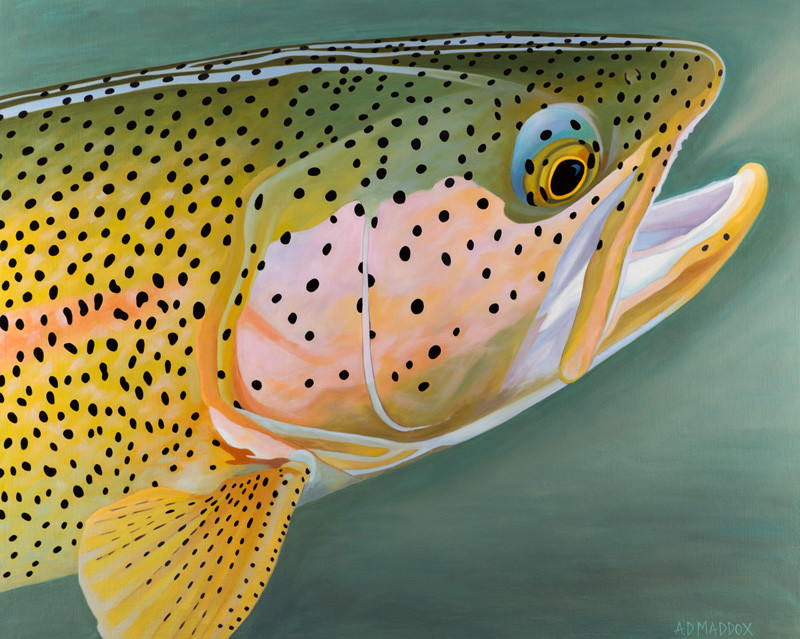 "Siberian River Bow" by AD Maddox[/caption]
[caption id="attachment_1676" align="aligncenter" width="700"]
"Siberian River Bow" by AD Maddox[/caption]
[caption id="attachment_1676" align="aligncenter" width="700"]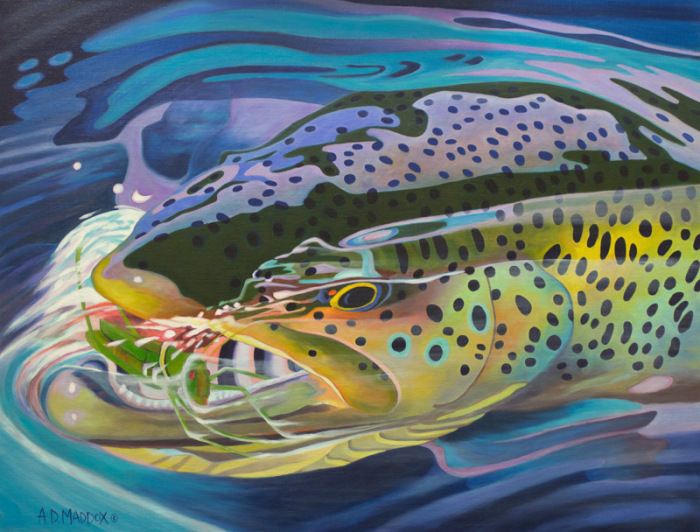 "Hopper Snack" by AD Maddox[/caption]
Photo and images courtesy of AD Maddox
"Hopper Snack" by AD Maddox[/caption]
Photo and images courtesy of AD Maddox
Click Here to Download on iTunes
---
Click Here to Download on Google Play
---
Click Here to Download on Stitcher
---
[soundcloud url="https://api.soundcloud.com/tracks/311636218" params="color=ff5500&auto_play=false&hide_related=false&show_comments=true&show_user=true&show_reposts=false" width="100%" height="166" iframe="true" /]
---
Episode Notes
Topics Discussed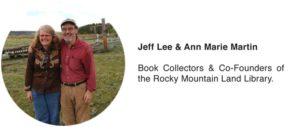 Jeff Lee is the co-founder of the Rocky Mountain Land Library, a residential library located on a historic ranch in one of Colorado's most beautiful and dramatic high country grassland basins. The Buffalo Peaks Ranch, as it is known, will eventually house a collection of over 35,000 books related to natural history, conservation, and the American West. These books will be dispersed throughout ranch in houses and agricultural structures that have been preserved and restored by a growing team of enthusiastic volunteers. The ranch will become a place where individuals can immerse themselves in a natural setting, surrounded by books, for days at a time to read, write, and work on projects related to the West’s unique landscapes.
The idea for the Land Library came to Jeff and his wife Ann (the library’s other co-founder) when they visited a residential library in Europe during the mid-1990s. Given their deep love of books and land, Jeff and Ann immediately saw the potential for a similar concept in Colorado that centered around the history and landscapes of the American West. More than 20 years and tens of thousands of books later, their vision has become a reality—the Rocky Mountain Land Library is open for business and continuing to grow and evolve.
For anyone who has listened to this podcast, you know that the Land Library is my dream come true—it combines ranches, conservation, nature, and books—so I was obviously extremely excited to chat with Jeff. In a little over an hour, we covered a ton of interesting information, including the project’s backstory, the history of the ranch, and Jeff and Ann’s long term vision for the Land Library. Of course, we discuss books, and Jeff has many excellent recommendations that were brand new to me. It’s worth noting that the Land Library is in the midst of the a fundraising campaign, so I encourage you to visit their KickStarter page, watch the video, and donate to the cause... I just did, so you definitely should too! Links to everything are in the episode notes.
If you love the West, love books, and love the land, I can guarantee you will love the Land Library and this episode. Enjoy!
https://vimeo.com/157618176
Jeff Lee is the co-founder of the Rocky Mountain Land Library, a residential library located on a historic ranch in one of Colorado's most beautiful and dramatic high country grassland basins. The Buffalo Peaks Ranch, as it is known, will eventually house a collection of over 35,000 books related to natural history, conservation, and the American West. These books will be dispersed throughout ranch in houses and agricultural structures that have been preserved and restored by a growing team of enthusiastic volunteers. The ranch will become a place where individuals can immerse themselves in a natural setting, surrounded by books, for days at a time to read, write, and work on projects related to the West’s unique landscapes.
The idea for the Land Library came to Jeff and his wife Ann (the library’s other co-founder) when they visited a residential library in Europe during the mid-1990s. Given their deep love of books and land, Jeff and Ann immediately saw the potential for a similar concept in Colorado that centered around the history and landscapes of the American West. More than 20 years and tens of thousands of books later, their vision has become a reality—the Rocky Mountain Land Library is open for business and continuing to grow and evolve.
For anyone who has listened to this podcast, you know that the Land Library is my dream come true—it combines ranches, conservation, nature, and books—so I was obviously extremely excited to chat with Jeff. In a little over an hour, we covered a ton of interesting information, including the project’s backstory, the history of the ranch, and Jeff and Ann’s long term vision for the Land Library. Of course, we discuss books, and Jeff has many excellent recommendations that were brand new to me. It’s worth noting that the Land Library is in the midst of the a fundraising campaign, so I encourage you to visit their KickStarter page, watch the video, and donate to the cause... I just did, so you definitely should too! Links to everything are in the episode notes.
If you love the West, love books, and love the land, I can guarantee you will love the Land Library and this episode. Enjoy!
https://vimeo.com/157618176
Photos courtesy of the Rocky Mountain Land Library
Click Here to Download on iTunes
---
Click Here to Download on Google Play
---
Click Here to Download on Stitcher
---
[soundcloud url="https://api.soundcloud.com/tracks/310450072" params="color=ff5500&auto_play=false&hide_related=false&show_comments=true&show_user=true&show_reposts=false" width="100%" height="166" iframe="true" /]
---
Episode Notes
Topics Discussed- Rocky Mountain Land Library
- Land Library on Facebook, Instagram, and Twitter
- Kickstarter Campaign
- Buffalo Peaks Ranch informational brochure
- Buffalo Peaks Ranch site plan
- Tattered Cover Book Store
- US Geological Survey
- Lake Powell
- William Gladstone
- South Park
- South Park City Museum
- HistoriCorps
- David Lavender
- Wallace Stegner
- Beyond the 100th Meridian by Wallace Stegner*
- Bernard DeVoto
- The Walk by William deBuys*
- Sweet Promised Land by Robert Laxalt*
- The Big Burn by Timothy Egan*
- Theodore Roosevelt
- Gifford Pinchot
- Boulder Bookstore
- Wendell Berry
- A Native Hill by Wendell Berry*
- The Wild Places by Robert MacFarlane*
- David Gessner
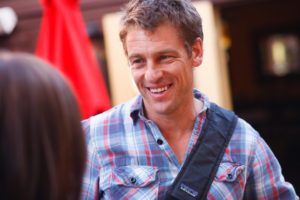 Christian Beckwith (photo credit: David J Swift)[/caption]
Christian Beckwith is the director of SHIFT, a Jackson Hole-based non-profit that is building a powerful coalition to protect our nation’s public lands. By bringing together climbers, skiers, hunters, anglers, land managers, and countless other stakeholders, SHIFT is finding common ground and harnessing these groups' collective power to ensure that public lands—our birthright as Americans—remain safe during this tenuous time in political history.
After a distinguished career in the publishing world which included editing the American Alpine Journal and co-founding Alpinist Magazine, Christian experienced a profound change in priorities when one of his close friends was killed in an avalanche in the Teton backcountry. At that point, Christian decided to focus his resources and energy exclusively on work that makes a “substantive difference in the world.” From there he founded the Center for Jackson Hole, SHIFT, and, most recently, the Emerging Leaders Program which brings together a diverse group of early career leaders in conservation.
[caption id="attachment_1621" align="alignright" width="254"]
Christian Beckwith (photo credit: David J Swift)[/caption]
Christian Beckwith is the director of SHIFT, a Jackson Hole-based non-profit that is building a powerful coalition to protect our nation’s public lands. By bringing together climbers, skiers, hunters, anglers, land managers, and countless other stakeholders, SHIFT is finding common ground and harnessing these groups' collective power to ensure that public lands—our birthright as Americans—remain safe during this tenuous time in political history.
After a distinguished career in the publishing world which included editing the American Alpine Journal and co-founding Alpinist Magazine, Christian experienced a profound change in priorities when one of his close friends was killed in an avalanche in the Teton backcountry. At that point, Christian decided to focus his resources and energy exclusively on work that makes a “substantive difference in the world.” From there he founded the Center for Jackson Hole, SHIFT, and, most recently, the Emerging Leaders Program which brings together a diverse group of early career leaders in conservation.
[caption id="attachment_1621" align="alignright" width="254"]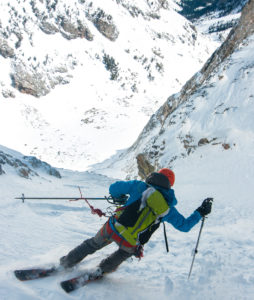 Christian in his element[/caption]
Christian’s career is inspiring in many ways, but I especially admire his willingness to set audacious goals, put himself on the line, and not wait around for permission to make things happen. We dig into all of these topics in our hour-long conversation, and he shares some interesting insights into his career and the future of conservation. We also discuss Christian’s early childhood experiences that led him to a career focused on adventure and the outdoors, and he talks about his relationship with Yvon Chiounard and how Chiounard has influenced him both personally and professionally. We chat about Christian’s favorite books, documentaries, and how fatherhood has focused his thinking on the importance of conservation. There’s a full list of the topics we discuss in the episode notes.
Given the current fights surrounding our public lands, this is a timely and powerful episode. I hope this conversation spurs you to continue educating yourself on threats to our public lands and to take appropriate action to protect them.
Christian in his element[/caption]
Christian’s career is inspiring in many ways, but I especially admire his willingness to set audacious goals, put himself on the line, and not wait around for permission to make things happen. We dig into all of these topics in our hour-long conversation, and he shares some interesting insights into his career and the future of conservation. We also discuss Christian’s early childhood experiences that led him to a career focused on adventure and the outdoors, and he talks about his relationship with Yvon Chiounard and how Chiounard has influenced him both personally and professionally. We chat about Christian’s favorite books, documentaries, and how fatherhood has focused his thinking on the importance of conservation. There’s a full list of the topics we discuss in the episode notes.
Given the current fights surrounding our public lands, this is a timely and powerful episode. I hope this conversation spurs you to continue educating yourself on threats to our public lands and to take appropriate action to protect them.
Photos courtesy of Christian Beckwith
Click Here to Download on iTunes
---
Click Here to Download on Google Play
---
Click Here to Download on Stitcher
---
[soundcloud url="https://api.soundcloud.com/tracks/307624131" params="color=ff5500&auto_play=false&hide_related=false&show_comments=true&show_user=true&show_reposts=false" width="100%" height="166" iframe="true" /]
---
Episode Notes
Topics Discussed- SHIFT
- The Emerging Leaders Program
- Alpinist Magazine
- The American Alpine Journal
- Apocalypse Couloir and Prospectors Mountain
- Aldo Leopold’s Land Ethic
- Yvon Chouinard
- Patagonia
- Doug and Kris Tompkins
- 180 South
- The Hobbit by J.R.R. Tolkien
- Sometimes a Great Notion by Ken Kesey
- On the Road by Jack Kerouac
- War and Peace by Leo Tolstoy
- The New Yorker
- Barbarian Days: A Surfing Life by William Finnegan
- Supermensch - The Legend of Shep Gordon
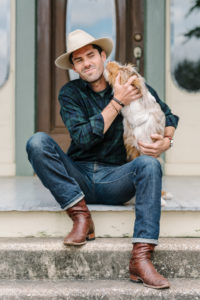 Tyler Sharp[/caption]
Tyler Sharp[/caption]
Tyler Sharp is an adventurer, sportsman, conservationist, and world traveler with a gift for telling stories through images and the written word. While he may be best known for his photography focusing on Americana and Western lifestyle, travel, and adventure, Tyler has built an impressive resume that includes filmmaking, directing, writing, and creative strategy. His work has taken him to some of the most spectacular and far-flung regions of the globe, with an emphasis on East Africa, Montana, and his home state of Texas.
As a devoted hunter and fisherman, Tyler has chased game in some of the world’s wildest regions, giving him a global perspective on the importance of natural resources, game management, and sustainable hunting practices. As you’ll hear in our conversation, Tyler has thought deeply about the practical and ethical implications of hunting and fishing both abroad and here in the American West. His sincere devotion to conservation and adventure shines through in his work and has made him the go-to photographer for iconic brands such as Filson, Cabelas, and Stetson, to name a few.
[caption id="attachment_1591" align="alignright" width="200"]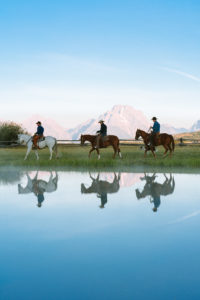 Photo by Tyler Sharp[/caption]
Photo by Tyler Sharp[/caption]
Tyler and I met up in Estes Park, Colorado, just outside of Rocky Mountain National Park, for a fun conversation that could have gone on for hours. We discussed his beginnings as a professional photographer, which started in earnest when he moved to East Africa just out of college—he’s got some intense stories from his travels that include run-ins with lions and leopards. We covered his thoughts on conservation, and how his time traveling abroad has given him a clearer understanding of conservation issues facing the American West. Then the conversation took an unexpected but interesting turn when we chatted about his commitment to Kung Fu (yes, Kung Fu!), meditation, and eastern philosophy.
[caption id="attachment_1592" align="alignright" width="300"]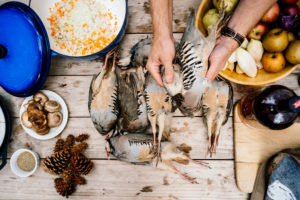 Photo by Tyler Sharp[/caption]
Photo by Tyler Sharp[/caption]
Be sure to check out the episode notes for the full list of topics covered, because we touch on a lot. This is a wide-ranging conversation that takes many surprising twists and turns. Hope you enjoy!
All photos courtesy of Tyler Sharp
Click Here to Download on iTunes
---
Click Here to Download on Google Play
---
Click Here to Download on Stitcher
---
[soundcloud url="https://api.soundcloud.com/tracks/306500672" params="color=ff5500&auto_play=false&hide_related=false&show_comments=true&show_user=true&show_reposts=false" width="100%" height="166" iframe="true" /]
---
Episode Notes
Topics Discussed- Tyler Sharp
- Tyler on Instagram
- Absoroka Ranch
- USC Film School
- Stephen Smith interview
- Nicholas Coleman interview
- Camrin Dengel interview
- Filson
- Filson Life
- Stetson
- Cabelas
- Modern Huntsman on Instagram
- Drop Cap Design
- Kung Fu
- Joseph Campbell
- The Power of Myth
- The Hero with a Thousand Faces
- Bill Moyers and Joseph Campbell documentary
- The Hero’s Journey
- Lord of the Rings
- Star Wars
- Emigrant, Montana
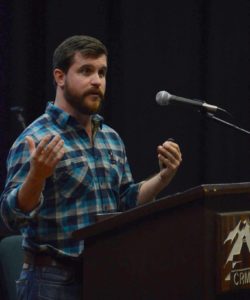 Connor Coleman[/caption]
Connor Coleman is the founder of Resiliency Lands, a progressive, conservation-minded land management and advisory group committed to promoting ecological and resource resiliency. Prior to starting Resiliency Lands, he held a variety of positions closely connected to the land, jobs that would be on the wish-list of anyone who loves adventure and the American West—wildland firefighter, cowboy, bison manager, and conservationist, just to name a few. Connor is currently based in Colorado’s Roaring Fork Valley, and he resides on a spectacular ranch just outside of Carbondale.
You may be surprised to learn that Connor was not born and raised in the West or on ranches. On the contrary, he grew up in Ohio, went to college in North Carolina, and after paying his dues in east coast conservation and earning two master’s degrees from Duke University, he headed West to focus his energy on western landscapes. Thanks to an insatiable curiosity, a rock-solid work ethic, a service mindset, and a willingness to insert himself into new and uncomfortable situations, Connor has carved out a professional niche for himself in Colorado doing rewarding, exciting, and important work.
[caption id="attachment_1545" align="alignright" width="300"]
Connor Coleman[/caption]
Connor Coleman is the founder of Resiliency Lands, a progressive, conservation-minded land management and advisory group committed to promoting ecological and resource resiliency. Prior to starting Resiliency Lands, he held a variety of positions closely connected to the land, jobs that would be on the wish-list of anyone who loves adventure and the American West—wildland firefighter, cowboy, bison manager, and conservationist, just to name a few. Connor is currently based in Colorado’s Roaring Fork Valley, and he resides on a spectacular ranch just outside of Carbondale.
You may be surprised to learn that Connor was not born and raised in the West or on ranches. On the contrary, he grew up in Ohio, went to college in North Carolina, and after paying his dues in east coast conservation and earning two master’s degrees from Duke University, he headed West to focus his energy on western landscapes. Thanks to an insatiable curiosity, a rock-solid work ethic, a service mindset, and a willingness to insert himself into new and uncomfortable situations, Connor has carved out a professional niche for himself in Colorado doing rewarding, exciting, and important work.
[caption id="attachment_1545" align="alignright" width="300"]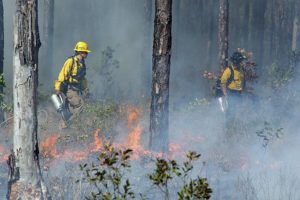 Connor during his firefighter days.[/caption]
Connor’s education and unconventional career path can serve as a great blueprint for anyone who loves the American West and wants a life centered around land, conservation, and natural resources. When I was in my early twenties, I would’ve loved to meet a guy like Connor who could point me in the right direction. So in this episode, we talk in depth about his career and his ability to “put himself out there” to create exciting professional opportunities. We dig deep into his thoughts on conservation in the West, as well as issues related to forest fires throughout the country. Connor loves to read and learn, so he also has tons of great book and film recommendations.
[caption id="attachment_1546" align="alignright" width="300"]
Connor during his firefighter days.[/caption]
Connor’s education and unconventional career path can serve as a great blueprint for anyone who loves the American West and wants a life centered around land, conservation, and natural resources. When I was in my early twenties, I would’ve loved to meet a guy like Connor who could point me in the right direction. So in this episode, we talk in depth about his career and his ability to “put himself out there” to create exciting professional opportunities. We dig deep into his thoughts on conservation in the West, as well as issues related to forest fires throughout the country. Connor loves to read and learn, so he also has tons of great book and film recommendations.
[caption id="attachment_1546" align="alignright" width="300"]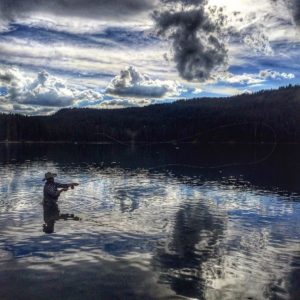 Connor enjoying evening fly fishing[/caption]
We cover a ridiculous amount of information, so be sure to check out the episode notes below for the full list of topics we discuss. Enjoy!
All photos courtesy of Connor Coleman
Connor enjoying evening fly fishing[/caption]
We cover a ridiculous amount of information, so be sure to check out the episode notes below for the full list of topics we discuss. Enjoy!
All photos courtesy of Connor Coleman
Click Here to Download on iTunes
---
Click Here to Download on Stitcher
---
[soundcloud url="https://api.soundcloud.com/tracks/299081251" params="color=ff5500&auto_play=false&hide_related=false&show_comments=true&show_user=true&show_reposts=false" width="100%" height="166" iframe="true" /]
---
Episode Notes
Topics Discussed- Connor Coleman - LinkedIn, Facebook, and Instagram
- Catawba College
- Duke University
- Aspen Valley Land Trust
- Nature Conservancy
- Chico Basin Ranch
- Zapata Ranch
- Land Trust for Central North Carolina
- Jim Howell podcast interview
- For the Love of Land by Jim Howell
- Allen Savory’s TED talk
- 5 Point Film Festival
- Longleaf Pine
- Fire a Brief History – Stephen Pyne
- The Big Burn: Theodore Roosevelt and the Fire that Saved America
- Fire on the Mountain – John Maclean
- Young Men and Fire – Norman Maclean
- Living with Fire: Fire Ecology and Policy for the 21st Century
- The Fire Line: The Story of the Granite Mountain Hotshots (Yarnell Fire)
- American Buffalo: In Seach of a Lost Icon – Steven Rinella
- Call Me Ted
- Last Stand: Ted Turner and His Quest to Save a Troubled Planet
- The Wilderness Warrior: Theodore Roosevelt and His Crusade for America – Douglas Brinkley
- Anthill: A Novel – E.O. Wilson
- My Side of the Mountain – Jean Craighead George
- Adventures of Tom Sawyer
- Adventures of Huckleberry Finn
- Cradle of Forestry in America – Carl Schenck
- Wild Idea: Buffalo and Family in a Difficult Land
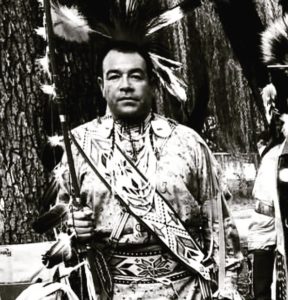 Taylor Keen, just before an Omaha tribal war dance[/caption]
Taylor Keen is a teacher, community builder, and Native American thought leader based out of Omaha, Nebraska. His back story is as diverse as it is impressive—he's a member of both the Omaha Tribe and the Cherokee Nation, attended Dartmouth College (BA) and Harvard University (Masters of Public Policy, MBA), and enjoyed a successful stint in corporate America before returning to Nebraska to teach entrepreneurship and management at Creighton University. His most recent undertaking is Sacred Seed, a project with the goal of preserving Native American heritage and history through collecting, growing, and spreading the seeds of corn and other traditional Native American foods.
[caption id="attachment_1525" align="alignright" width="300"]
Taylor Keen, just before an Omaha tribal war dance[/caption]
Taylor Keen is a teacher, community builder, and Native American thought leader based out of Omaha, Nebraska. His back story is as diverse as it is impressive—he's a member of both the Omaha Tribe and the Cherokee Nation, attended Dartmouth College (BA) and Harvard University (Masters of Public Policy, MBA), and enjoyed a successful stint in corporate America before returning to Nebraska to teach entrepreneurship and management at Creighton University. His most recent undertaking is Sacred Seed, a project with the goal of preserving Native American heritage and history through collecting, growing, and spreading the seeds of corn and other traditional Native American foods.
[caption id="attachment_1525" align="alignright" width="300"]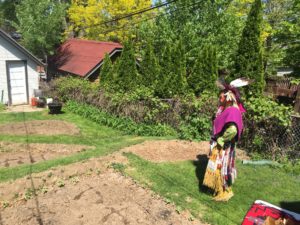 Just before planting...[/caption]
The writer Wallace Stegner theorized that people generally fit into one of two categories—“Boomers” or “Stickers.” Boomers are “those who pillage and run” and want “to make a killing and end up on Easy Street.” Stickers are just the opposite—they are “motivated by affection, by such a love for place and its life that they want to preserve it and remain in it.”1 Taylor is the walking embodiment of a Sticker. Given his drive, intelligence, and education, he could’ve followed the path of the Boomer and pursued any number of careers. But a deep love of his Native American heritage and his community called him back home to teach, lead, and live a life devoted to service of others. It’s an inspiring story.
[caption id="attachment_1524" align="alignright" width="300"]
Just before planting...[/caption]
The writer Wallace Stegner theorized that people generally fit into one of two categories—“Boomers” or “Stickers.” Boomers are “those who pillage and run” and want “to make a killing and end up on Easy Street.” Stickers are just the opposite—they are “motivated by affection, by such a love for place and its life that they want to preserve it and remain in it.”1 Taylor is the walking embodiment of a Sticker. Given his drive, intelligence, and education, he could’ve followed the path of the Boomer and pursued any number of careers. But a deep love of his Native American heritage and his community called him back home to teach, lead, and live a life devoted to service of others. It’s an inspiring story.
[caption id="attachment_1524" align="alignright" width="300"]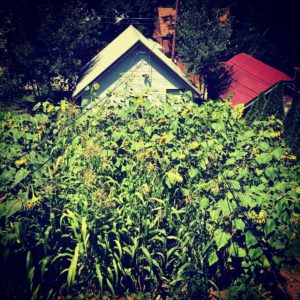 ...and full bloom.[/caption]
I could’ve talked to Taylor for hours and I only asked about a third of the questions I had prepared, but we still managed to dig into a wide variety of fascinating topics. We discussed the history and mission of Sacred Seed and where he sees the project going in the future. We talked about his path from the West to the Ivy League, the decisions that led him to transition from corporate America to higher education, and some very interesting Native American history. One of my favorite parts of our conversation was Taylor’s recounting the advice he received from his grandfather soon after graduating from Harvard Business School.
This was a very enlightening conversation for me, and I greatly appreciate Taylor taking the time to chat. I encourage you to visit the Sacred Seed website and watch the video—you can find links to everything we discuss in the episode notes on the webpage. Enjoy!
https://youtu.be/-P1_psXbRDE
All photos courtesy of Taylor Keen
1 Wendell Berry, It All Turns on Affection (2012)
...and full bloom.[/caption]
I could’ve talked to Taylor for hours and I only asked about a third of the questions I had prepared, but we still managed to dig into a wide variety of fascinating topics. We discussed the history and mission of Sacred Seed and where he sees the project going in the future. We talked about his path from the West to the Ivy League, the decisions that led him to transition from corporate America to higher education, and some very interesting Native American history. One of my favorite parts of our conversation was Taylor’s recounting the advice he received from his grandfather soon after graduating from Harvard Business School.
This was a very enlightening conversation for me, and I greatly appreciate Taylor taking the time to chat. I encourage you to visit the Sacred Seed website and watch the video—you can find links to everything we discuss in the episode notes on the webpage. Enjoy!
https://youtu.be/-P1_psXbRDE
All photos courtesy of Taylor Keen
1 Wendell Berry, It All Turns on Affection (2012)
Click Here to Download on iTunes
---
Click Here to Download on Stitcher
---
[soundcloud url="https://api.soundcloud.com/tracks/298165949" params="color=ff5500&auto_play=false&hide_related=false&show_comments=true&show_user=true&show_reposts=false" width="100%" height="166" iframe="true" /]
---
Episode Notes
Topics Discussed- Taylor Keen - Creighton University
- Sacred Seed
- Taylor on Facebook and Instagram
- Sacred Seed article in the Omaha World Herald
- Sacred Seed video
- Omaha Tribe
- Cherokee Nation
- Corn Among the Indians of the Upper Missouri by George Francis Will and George E. Hyde
- Bury My Heart at Wounded Knee: An Indian History of the American West by Dee Brown
- Custer Died for Your Sins: An Indian Manifesto by Vine Deloria, Jr.
- God is Red: A Native View of Religion by Vine Deloria, Jr.
- Braiding Sweetgrass: Indigenous Wisdom, Scientific Knowledge and Teachings of Plants by Robin Wall Kimmerer
- Mitakuye Oyasin: We Are All Related by A.C. Ross
Camrin Dengel - Slow Living in the American West
Camrin Dengel is a professional lifestyle photographer who lives and works on the quiet side of the Teton Mountain Range in Teton Valley, Idaho. Her work focuses on a broad range of subjects, with an emphasis on sustainable agriculture, hunting, fishing, and life in and around her mountain community. In her work and leisure, Camrin is a devoted proponent of slow living, and she strives to approach her profession and life in a manner that is intentional, simple, meaningful, and positive. [caption id="attachment_1480" align="alignright" width="300"]
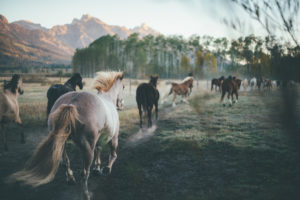 Photo: Camrin Dengel[/caption]
Growing up in Valdez, Alaska gave Camrin a unique perspective and toughness (she calls it “stubbornness”) that have allowed her to pursue her passion for art full time, while staying true to her ideals and enjoying a slow-living lifestyle. She attended college on a running scholarship with the intention of becoming an engineer, but decided midway through that art and photography were her true calling. After graduation, she moved straight to Teton Valley where she has built a life and business centered around documenting the people and places that make the American West such a special place to live.
[caption id="attachment_1477" align="alignright" width="300"]
Photo: Camrin Dengel[/caption]
Growing up in Valdez, Alaska gave Camrin a unique perspective and toughness (she calls it “stubbornness”) that have allowed her to pursue her passion for art full time, while staying true to her ideals and enjoying a slow-living lifestyle. She attended college on a running scholarship with the intention of becoming an engineer, but decided midway through that art and photography were her true calling. After graduation, she moved straight to Teton Valley where she has built a life and business centered around documenting the people and places that make the American West such a special place to live.
[caption id="attachment_1477" align="alignright" width="300"]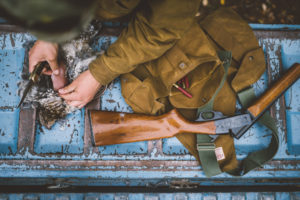 Photo: Camrin Dengel[/caption]
I’ve spent a lot of time in Teton Valley and can honestly say that Camrin’s work captures the landscapes and lifestyle more authentically than any artist I’ve ever seen. She is obviously a talented photographer, but she is also a super-interesting person who has managed to sidestep a good deal of the “busyness” and distractions that dominate many of our lives. In our conversation, we discuss her career trajectory, and also her love for the community of Teton Valley. We dig deep into the idea of slow living, and she offers some thoughts on ways for people to adopt a slower, more intentional lifestyle. As usual, we discuss favorite books, documentaries, and challenges and opportunities facing the American West.
[caption id="attachment_1478" align="alignright" width="300"]
Photo: Camrin Dengel[/caption]
I’ve spent a lot of time in Teton Valley and can honestly say that Camrin’s work captures the landscapes and lifestyle more authentically than any artist I’ve ever seen. She is obviously a talented photographer, but she is also a super-interesting person who has managed to sidestep a good deal of the “busyness” and distractions that dominate many of our lives. In our conversation, we discuss her career trajectory, and also her love for the community of Teton Valley. We dig deep into the idea of slow living, and she offers some thoughts on ways for people to adopt a slower, more intentional lifestyle. As usual, we discuss favorite books, documentaries, and challenges and opportunities facing the American West.
[caption id="attachment_1478" align="alignright" width="300"]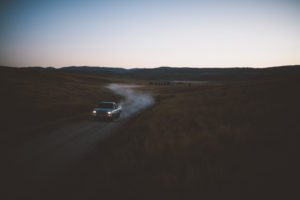 Photo: Camrin Dengel[/caption]
This is a really fun episode full of lots of great info. Be sure to check out the episode notes for links to everything we discuss. Hope you enjoy!
All photos courtesy of Camrin Dengel
Photo: Camrin Dengel[/caption]
This is a really fun episode full of lots of great info. Be sure to check out the episode notes for links to everything we discuss. Hope you enjoy!
All photos courtesy of Camrin Dengel
Click Here to Download on iTunes
---
Click Here to Download on Stitcher
---
[soundcloud url="https://api.soundcloud.com/tracks/294349211" params="color=ff5500&auto_play=false&hide_related=false&show_comments=true&show_user=true&show_reposts=false" width="100%" height="166" iframe="true" /]
---
Episode Notes
Topics Discussed- Camrin Dengel
- Camrin’s Instagram and Facebook
- Teton Valley, Idaho
- Filson Life - Depth in the Field: Out West with Camrin Dengel
- Filson
- Gabe Rogel
- Humbolt State University
- Alaska Marine Conservation Council
- Forest Woodward
- Rocky Mountain School of Photography
- Mike Tittel
- Turn Here Sweet Corn: Organic Farming Works by Atina Diffley
- The Noisy Plume
- Unbranded
- Ed’s Ben Masters interview
- Unbroken Ground
- McCarthy, Alaska
- Mt. Marathon
- Mt. Marathon video
- The End of Plenty: The Race to Feed a Crowded World by Joel K Bourne
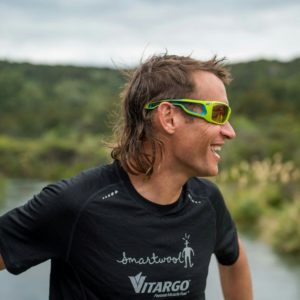 Jason Schlarb[/caption]
A competitive soccer player for most of his youth, Jason made the switch to running relatively late in the game when he joined the cross country team as a high school senior. But his natural talent for endurance combined with a relentless competitive streak allowed him to walk on to a Division I cross country team, where he excelled throughout his college career. After years of focusing exclusively on road races ranging from 10Ks to marathons, he made the switch to trail running and has never looked back. Jason, his wife Maggie, and son Felix have shaped their lives around the pursuit of a purpose-driven, rewarding, and adventurous lifestyle, and they currently reside on the southern end of Colorado’s San Juan Mountains, just outside of Durango.
Jason is a fascinating guy with an infectiously positive attitude, which made for a fun and in-depth conversation. We cover a broad range of topics, including his athletic background, his journey to ultrarunning, and some of his adventures around the world. We discuss his time in the military and how those 10 years of service affect his outlook and approach to sports and life. We chat about his thoughts on competition, mental toughness, and the benefits of positive thinking. Whether you’re an athlete or not, there are huge amounts of wisdom to be gleaned from Jason’s experiences and perspective.
This was a fun conversation and I really appreciate Jason taking the time to chat. I hope you enjoy it as much as I did!
Photo courtesy of Jason Schlarb - Top photo by Eduardo Castro
Jason Schlarb[/caption]
A competitive soccer player for most of his youth, Jason made the switch to running relatively late in the game when he joined the cross country team as a high school senior. But his natural talent for endurance combined with a relentless competitive streak allowed him to walk on to a Division I cross country team, where he excelled throughout his college career. After years of focusing exclusively on road races ranging from 10Ks to marathons, he made the switch to trail running and has never looked back. Jason, his wife Maggie, and son Felix have shaped their lives around the pursuit of a purpose-driven, rewarding, and adventurous lifestyle, and they currently reside on the southern end of Colorado’s San Juan Mountains, just outside of Durango.
Jason is a fascinating guy with an infectiously positive attitude, which made for a fun and in-depth conversation. We cover a broad range of topics, including his athletic background, his journey to ultrarunning, and some of his adventures around the world. We discuss his time in the military and how those 10 years of service affect his outlook and approach to sports and life. We chat about his thoughts on competition, mental toughness, and the benefits of positive thinking. Whether you’re an athlete or not, there are huge amounts of wisdom to be gleaned from Jason’s experiences and perspective.
This was a fun conversation and I really appreciate Jason taking the time to chat. I hope you enjoy it as much as I did!
Photo courtesy of Jason Schlarb - Top photo by Eduardo Castro
Click Here to Download on iTunes
---
Click Here to Download on Stitcher
---
[soundcloud url="https://api.soundcloud.com/tracks/293420401" params="color=ff5500&auto_play=false&hide_related=false&show_comments=true&show_user=true&show_reposts=false" width="100%" height="166" iframe="true" /]
---
Episode Notes
Topics Discussed- Jason Schlarb
- Jason’s Instagram and Facebook
- Schlarb-Wolf Productions films on Vimeo
- Altra
- Hardrock 100
- San Juan Mountains
- Handies Peak
- Shoe Dog: A Memoir by the Creator of Nike by Phil Knight
- Montana State University
- United States Air Force
- Kilian Jornet
- North Face Endurance Challenge
- Run Rabbit Run 100
- Jason’s iRunFar interview discussing postive thinking
- Maggie Schlarb
- Jason and Maggie's Coaching Services
- Joel Wolpert
- Noah Howell
- Monkey Wrench Gang by Edward Abbey
- Into the Wild by Jon Krakauer
- Fight Club
- 180 South
- Meru
- Touching the Void: The True Story of One Man’s Miraculous Survival by Joe Simpson
- Into Thin Air: A Personal Account of the Mt. Everest Disaster by John Krakauer
- Diagonale des Fous
- Ultra Trail du Mont Blanc ("UTMB")
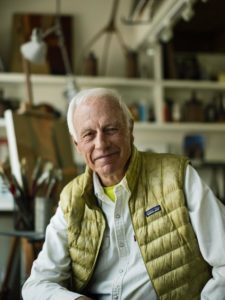 Architect Larry Yaw[/caption]
Larry Yaw is a renowned architect based in Colorado’s Roaring Fork Valley whose work connects people with nature using contemporary, sustainable, conservation-focused designs. Growing up in rural Montana gave Larry a deep appreciation for the utilitarian character of ranch homes and their thoughtful integration into the landscape, aspects that form the foundation of much of his work today. Through his design, Larry has demonstrated a unique ability to pay homage to the past while boldly pushing beyond preconceived notions of architecture in the American West.
If I had to use one word to describe Larry it would probably be “adventurous”—a quest for adventure seems to guide all aspects of his professional and personal lives. As you’ll hear in our conversation, Larry has traveled the world many times over, sometimes with his full family in tow, seeking out enriching experiences everywhere from the South Pacific to the Swiss Alps. He is also intellectually adventurous, as evidenced by his deep knowledge of history, conservation, Native Americans, and many other subjects related to the West and beyond. Physical adventures are a daily occurrence for Larry, whether it’s pedaling single track, stalking trout with his fly rod, hiking in the high mountains around Aspen, or shooting birds on the Montana prairies. All of these experiences provide the fuel that keeps Larry’s professional creative engine firing at turbo speed, decade after decade.
This was a super-fun conversation, and I came away from it inspired and enlightened. We discussed a broad range of topics including Larry’s architecture, his creative process, and how he has managed to stay consistently creative for so long. We chatted about his early years in Montana, some of his adventures around the world, and his thoughts on conservation in the American West. Larry is a true student of the West, so he had plenty of book recommendations. There is a lot of great information in this interview, so don’t forget to check the episode notes for links to everything we discuss.
Photo courtesy of Larry Yaw
Architect Larry Yaw[/caption]
Larry Yaw is a renowned architect based in Colorado’s Roaring Fork Valley whose work connects people with nature using contemporary, sustainable, conservation-focused designs. Growing up in rural Montana gave Larry a deep appreciation for the utilitarian character of ranch homes and their thoughtful integration into the landscape, aspects that form the foundation of much of his work today. Through his design, Larry has demonstrated a unique ability to pay homage to the past while boldly pushing beyond preconceived notions of architecture in the American West.
If I had to use one word to describe Larry it would probably be “adventurous”—a quest for adventure seems to guide all aspects of his professional and personal lives. As you’ll hear in our conversation, Larry has traveled the world many times over, sometimes with his full family in tow, seeking out enriching experiences everywhere from the South Pacific to the Swiss Alps. He is also intellectually adventurous, as evidenced by his deep knowledge of history, conservation, Native Americans, and many other subjects related to the West and beyond. Physical adventures are a daily occurrence for Larry, whether it’s pedaling single track, stalking trout with his fly rod, hiking in the high mountains around Aspen, or shooting birds on the Montana prairies. All of these experiences provide the fuel that keeps Larry’s professional creative engine firing at turbo speed, decade after decade.
This was a super-fun conversation, and I came away from it inspired and enlightened. We discussed a broad range of topics including Larry’s architecture, his creative process, and how he has managed to stay consistently creative for so long. We chatted about his early years in Montana, some of his adventures around the world, and his thoughts on conservation in the American West. Larry is a true student of the West, so he had plenty of book recommendations. There is a lot of great information in this interview, so don’t forget to check the episode notes for links to everything we discuss.
Photo courtesy of Larry Yaw
Click Here to Download on iTunes
---
Click Here to Download on Stitcher
---
[soundcloud url="https://api.soundcloud.com/tracks/291257072" params="color=ff5500&auto_play=false&hide_related=false&show_comments=true&show_user=true&show_reposts=false" width="100%" height="166" iframe="true" /]
---
Episode Notes
Topics Discussed- Cottle Carr Yaw Architects
- Great Falls, Montana
- Aconcagua
- The Architect Explorer by Lindsay Yaw Rogers
- Roaring Fork Conservancy
- The Heart of Everything That Is: The Untold Story of Red Cloud, An American Legend by Bob Drury and Tom Clavin
- Empire of the Summer Moon: Quanah Parker and the Rise and Fall of the Comanches, the Most Powerful Tribe in American History by S.C. Gwynne
- Blood and Thunder: The Epic Story of Kit Carson and the Conquest of the American West by Hampton Sides
- Citizens of London: The Americans Who Stood with Britain in Its Darkest Hour by Lynee Olson
- Pete McBride
- Pete McBride’s films
- The Emerald Mile: The Epic Story of the Fastest Ride in History Through the Heart of the Grand Canyon by Kevin Fedarko
- Yvon Chouinard
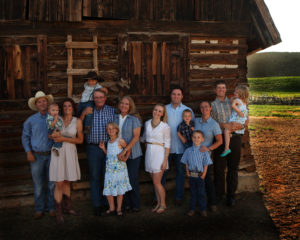 Pat O'Toole and his family[/caption]
Pat’s background is far outside of the norm for many multi-generational ranchers—he grew up in south Florida, majored in philosophy in college, and just before he and his wife enrolled in law school, they decided to return to her family’s land to continue in the family business of ranching. Since then, the O'Tooles have not only run a financially successful operation, but they have simultaneously improved wildlife, bird, and fish habitat throughout the ranch. By thinking outside the box and partnering with both non-profit and governmental organizations, the Ladder Ranch has set a new standard for conservation, creative problem solving, and sustainable land stewardship.
We had a fun, in-depth conversation that covered a wide variety of topics that will be of interest to anyone who loves the West, whether you’re involved in ranching or not. We discuss Pat's thoughts on cooperation between ranchers and environmentalists, and how the relationship between the two groups is getting stronger and more positive every year. We chat about water in the West, and why it is important to keep water on ranches rather than being sold off to municipalities. We also dig into Pat’s unconventional background, his thoughts on the future of land conservation, and of course, favorite books, history, and his favorite location in the West.
Pat is an interesting guy who has thought very deeply on issues related to the American West, including conservation, water, and agriculture. There’s a lot of great information in this interview, so I hope you enjoy!
https://youtu.be/XGc1-9zvyZM
Photo courtesy of Pat O'Toole
Pat O'Toole and his family[/caption]
Pat’s background is far outside of the norm for many multi-generational ranchers—he grew up in south Florida, majored in philosophy in college, and just before he and his wife enrolled in law school, they decided to return to her family’s land to continue in the family business of ranching. Since then, the O'Tooles have not only run a financially successful operation, but they have simultaneously improved wildlife, bird, and fish habitat throughout the ranch. By thinking outside the box and partnering with both non-profit and governmental organizations, the Ladder Ranch has set a new standard for conservation, creative problem solving, and sustainable land stewardship.
We had a fun, in-depth conversation that covered a wide variety of topics that will be of interest to anyone who loves the West, whether you’re involved in ranching or not. We discuss Pat's thoughts on cooperation between ranchers and environmentalists, and how the relationship between the two groups is getting stronger and more positive every year. We chat about water in the West, and why it is important to keep water on ranches rather than being sold off to municipalities. We also dig into Pat’s unconventional background, his thoughts on the future of land conservation, and of course, favorite books, history, and his favorite location in the West.
Pat is an interesting guy who has thought very deeply on issues related to the American West, including conservation, water, and agriculture. There’s a lot of great information in this interview, so I hope you enjoy!
https://youtu.be/XGc1-9zvyZM
Photo courtesy of Pat O'Toole
Click Here to Download on iTunes
---
Click Here to Download on Stitcher
---
[soundcloud url="https://api.soundcloud.com/tracks/289970666" params="color=ff5500&auto_play=false&hide_related=false&show_comments=true&show_user=true&show_reposts=false" width="100%" height="166" iframe="true" /]---
Episode Notes
Topics Discussed- Ladder Ranch
- Lonesome Dove by Larry McMurtry
- Homestead Acts
- In depth discussion of water rights - Spencer Williams podcast
- National Audubon Society
- Rotational grazing
- George R. Salisbury, Jr. (Pat’s father-in-law)
- Confessions of a Maverick: An Autobiography by Farrington Carptenter
- Erik Glenn - Saving Colorado One Ranch at a Time
- Senator Larry Hicks
- Sand County Foundation
- Ladder Ranch’s Leopold Conservation Award
- Family Farm Alliance
- Partners for Conservation
- Theodore Roosevelt in the Badlands: A Young Politician’s Quest for Recovery in the American West by Roger Di Silvestro
- Jefferson’s America: The President, the Purchase, and the Explorers Who Transformed a Nation by Julie Fenster
- The Wilderness Warrior: Theodore Roosevelt and the Crusade for America by Douglas Brinkley
- The Apache Wars: The Hunt for Geronimo, the Apache Kid, and the Captive Boy Who Started the Longest War in American History by Paul Andrew Hutton
- Blood and Thunder: The Epic Story of Kit Carson and the Conquest of the American West by Hampton Sides
- Lonesome Dove movie
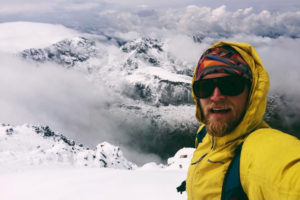 Joe Grant[/caption]
But Joe’s career as a professional athlete makes up only a small portion of his personal identity. He is a talented writer and photographer, as well as a voracious reader. He was born in England and grew up in France, so he has a global perspective that gives him a unique point of view. He is obviously driven to pursue challenging goals, yet he has always been focused more on the process than the end result. Joe's athletic achievements seem to combine his desire for continued personal growth with a genuine love of wild places and a strong conservation ethic.
Because he has such a depth of knowledge on so many interesting subjects, talking with Joe solely about running would only begin to scratch the surface. So after a rundown of his recent 14er adventure, we went deep into his thoughts on adventure, endurance, and pushing one’s personal boundaries. He talked about his upbringing and how family and friends have helped shape his outlook on life, giving him the confidence to pursue an unconvential, yet extremely fulfilling lifestyle. We of course talked a lot about books, as well as goal setting, daily practices, and his thoughts on conservation.
[caption id="attachment_1391" align="alignright" width="300"]
Joe Grant[/caption]
But Joe’s career as a professional athlete makes up only a small portion of his personal identity. He is a talented writer and photographer, as well as a voracious reader. He was born in England and grew up in France, so he has a global perspective that gives him a unique point of view. He is obviously driven to pursue challenging goals, yet he has always been focused more on the process than the end result. Joe's athletic achievements seem to combine his desire for continued personal growth with a genuine love of wild places and a strong conservation ethic.
Because he has such a depth of knowledge on so many interesting subjects, talking with Joe solely about running would only begin to scratch the surface. So after a rundown of his recent 14er adventure, we went deep into his thoughts on adventure, endurance, and pushing one’s personal boundaries. He talked about his upbringing and how family and friends have helped shape his outlook on life, giving him the confidence to pursue an unconvential, yet extremely fulfilling lifestyle. We of course talked a lot about books, as well as goal setting, daily practices, and his thoughts on conservation.
[caption id="attachment_1391" align="alignright" width="300"]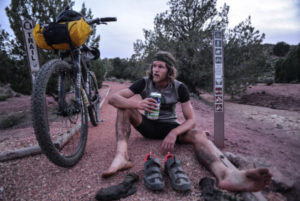 Joe during the Arizona Trail Race[/caption]
I’m obviously biased, but I loved this conversation and really appreciate Joe taking the time to chat. I encourage you to check him out on social media (Instagram, Facebook, Twitter), and read some of his columns. If you like people who are passionate, humble, deep-thinking, and all-around interesting, you’ll enjoy getting to know Joe. Enjoy!
All photos courtesy of Joe Grant
Joe during the Arizona Trail Race[/caption]
I’m obviously biased, but I loved this conversation and really appreciate Joe taking the time to chat. I encourage you to check him out on social media (Instagram, Facebook, Twitter), and read some of his columns. If you like people who are passionate, humble, deep-thinking, and all-around interesting, you’ll enjoy getting to know Joe. Enjoy!
All photos courtesy of Joe Grant
Click Here to Download on iTunes
---
Click Here to Download on Stitcher
---
[soundcloud url="https://api.soundcloud.com/tracks/283890165" params="color=ff5500&auto_play=false&hide_related=false&show_comments=true&show_user=true&show_reposts=false" width="100%" height="166" iframe="true" /]---
Episode Notes
Topics Discussed- Joe Grant
- Joe’s Instagram, Facebook, Twitter
- Joe’s iRunFar column: From My Doorstep
- Tour de 14ers
- Hardrock 100
- Colorado 14ers - 14ers.com
- Scarpa
- REEB Cycles
- iRunFar interview - smiling during running
- Geoff Roes
- Satish Kumar - Resurgence
- No Destination: Autobiography of a Pilgrim by Satish Kumar
- Gary Snyder
- The Abstract Wild by Jack Turner
- Shadows of the Koyukuk: An Alaskan Native’s Life Along the Riverby Sidney Huntington
- Hubert Selby Jr.
- David Gessner
- All the Wild that Remains: Edward Abbey, Wallace Stegner, and the American West by David Gessner
- The Prophet of Dry Hill: Lessons from a Life in Natureby David Gessner
- Articles about the sale of public lands: Here, here, here, and here
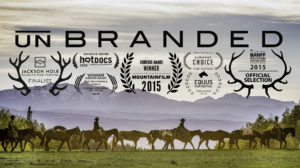 Conservation is the common theme running through all of Ben’s work, and his passion is fortified with a deep knowledge of natural history, public lands, and policy issues related to the American West. His expertise recently earned him a spot on the BLM’s Wild Horse and Burro Advisory Board, the group tasked with solving the challenging issues surrounding the program he profiled in Unbranded. His most recent film, Pronghorn Revival, is the story of Texas wildlife biologists capturing and relocating a struggling herd of pronghorns (i.e. antelopes). Not one to rest on his laurels, Ben is working hard on more conservation projects to be revealed in the coming months.
Conservation is the common theme running through all of Ben’s work, and his passion is fortified with a deep knowledge of natural history, public lands, and policy issues related to the American West. His expertise recently earned him a spot on the BLM’s Wild Horse and Burro Advisory Board, the group tasked with solving the challenging issues surrounding the program he profiled in Unbranded. His most recent film, Pronghorn Revival, is the story of Texas wildlife biologists capturing and relocating a struggling herd of pronghorns (i.e. antelopes). Not one to rest on his laurels, Ben is working hard on more conservation projects to be revealed in the coming months.
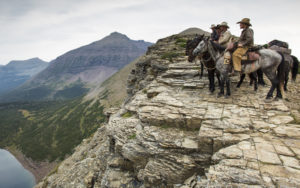 When we recorded this episode, Ben was less than a day away from leaving on a multi-week guiding trip to the area around Yellowstone National Park, so I really appreciated him making the time to chat. In just under an hour, we managed to cover a wide range of conservation-related topics: the BLM’s Wild Horse Program, invasive species in the American West, thoughts on hunting, as well as Ben’s personal background, favorite books, favorite documentaries, and a crazy horse stampede story... with plenty of other intesting subjects thrown in.
If you haven’t already, be sure to check out Unbranded. You’ll love it. In the meantime, enjoy my conversation with Ben Masters.
https://youtu.be/uQmmaiWHYHQ
All photos courtesy of Ben Masters
When we recorded this episode, Ben was less than a day away from leaving on a multi-week guiding trip to the area around Yellowstone National Park, so I really appreciated him making the time to chat. In just under an hour, we managed to cover a wide range of conservation-related topics: the BLM’s Wild Horse Program, invasive species in the American West, thoughts on hunting, as well as Ben’s personal background, favorite books, favorite documentaries, and a crazy horse stampede story... with plenty of other intesting subjects thrown in.
If you haven’t already, be sure to check out Unbranded. You’ll love it. In the meantime, enjoy my conversation with Ben Masters.
https://youtu.be/uQmmaiWHYHQ
All photos courtesy of Ben Masters
Click Here to Download on iTunes
---
Click Here to Download on Stitcher
---
[soundcloud url="https://api.soundcloud.com/tracks/280102890" params="color=ff5500&auto_play=false&hide_related=false&show_comments=true&show_user=true&show_reposts=false" width="100%" height="166" iframe="true" /]---
Episode Notes
Topics Covered- Ben Masters
- Unbranded
- Pronghorn Revival
- BLM Wild Horse and Burro Program
- Wild Free Roaming Horse and Burro Act
- Professor Douglas Slack
- The Wilderness Warrior - Theodore Roosevelt and the Crusade for America by Douglas Brinkley
- Gifford Pinchot
- The Big Burn - Teddy Roosevelt and the Fire That Save America by Timothy Egan
- Invasive species
- Pronghorn
- Yeti
- The Emerald Mile - The Epic Story of the Fastest Ride in History Through the Heart of the Grand Canyon by Kevin Fedarko
- The Song of the Dodo: Island Biogeography in an Age of Extinction by David Quammen
- The Naturalist - Theodore Roosevelt, A Lifetime of Exploration, and the Triumph of American Natural History by Darrin Lunde
- Almost Sunrise
- Heroes and Horses
- Phill Baribeau and Korey Kaczmarek
- Yellowstone National Park
Stephen Smith - Adventures in Photography, Motorcycles, and Ranches
Stephen Smith is an agrarian, adventure, and lifestyle photographer who has successfully combined his love of ranches, farms, motorcycles, and travel into a full-time career in professional photography. Thanks to his artistic eye, hard work, persistence, and willingness to take risks, Stephen has successfully created a niche for himself in the crowded arena of professional photography. (Check him out on Instagram.) [caption id="attachment_1336" align="alignright" width="300"]
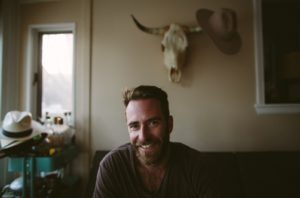 Stephen Smith[/caption]
He is obviously a naturally talented artist, but it seems that a great deal of Stephen's success can be traced back to the fact that he is committed to putting himself in unique—often difficult, uncomfortable, or scary—situations that allow him to capture one-of-a-kind experiences and perspectives. Among other things, he has worked on a 90,000-acre Colorado cattle ranch, taken a five-month solo motorcycle trip through South America, and put in time at several California and Colorado vineyards, all while constantly shooting photos and refining his craft.
Stephen's solid understanding of agriculture and years of adventure are evident in his work. His images are as authentic as they are artistic, and he knows how to capture the true spirit of a person, place, animal, or experience in a fresh style that creates a genuine connection with the audience. I came across Stephen’s agricultural photography several years ago and was immediately drawn in. (And keep in mind, I can be a bit jaded when it comes to ranch photos—I look at them all day as part of my job.) I have been a fan of his work ever since.
I was super-excited to finally meet Stephen and learn more about his work and personal story. We had a fun (and funny) conversation and covered a wide range of interesting topics. We dug into his connection to agriculture and talked in depth about how ranches and farms play an important role in land conservation. We talked about motorcycles and some of his adventures. We discussed the importance of international travel and his lessons learned from immersion in foreign cultures. We obviously chatted in detail about photography, as well as an insane bear story that you definitely need to hear.
Cool guy. Thoughtful conversation. Crazy stories. Great episode!
All photos courtesy of Stephen Smith
Stephen Smith[/caption]
He is obviously a naturally talented artist, but it seems that a great deal of Stephen's success can be traced back to the fact that he is committed to putting himself in unique—often difficult, uncomfortable, or scary—situations that allow him to capture one-of-a-kind experiences and perspectives. Among other things, he has worked on a 90,000-acre Colorado cattle ranch, taken a five-month solo motorcycle trip through South America, and put in time at several California and Colorado vineyards, all while constantly shooting photos and refining his craft.
Stephen's solid understanding of agriculture and years of adventure are evident in his work. His images are as authentic as they are artistic, and he knows how to capture the true spirit of a person, place, animal, or experience in a fresh style that creates a genuine connection with the audience. I came across Stephen’s agricultural photography several years ago and was immediately drawn in. (And keep in mind, I can be a bit jaded when it comes to ranch photos—I look at them all day as part of my job.) I have been a fan of his work ever since.
I was super-excited to finally meet Stephen and learn more about his work and personal story. We had a fun (and funny) conversation and covered a wide range of interesting topics. We dug into his connection to agriculture and talked in depth about how ranches and farms play an important role in land conservation. We talked about motorcycles and some of his adventures. We discussed the importance of international travel and his lessons learned from immersion in foreign cultures. We obviously chatted in detail about photography, as well as an insane bear story that you definitely need to hear.
Cool guy. Thoughtful conversation. Crazy stories. Great episode!
All photos courtesy of Stephen Smith
Click Here to Download on iTunes
---
Click Here to Download on Stitcher
---
[soundcloud url="https://api.soundcloud.com/tracks/277565840" params="color=ff5500&auto_play=false&hide_related=false&show_comments=true&show_user=true&show_reposts=false" width="100%" height="166" iframe="true" /]---
Episode Notes
Topics Covered- Stephen Smith website
- Stephen on Instagram - @iamstephensmith
- Mendoza, Argentina
- Olivia Brion
- Peak Spirits
- Jack Rabbit Hill Farm
- White Oak Pastures
- Savory Institute
- Jim Howell podcast
- For the Love of Land: Global Case Studies of Grazing in Nature’s Image by Jim Howell
- Responsible Grazing - The Foundation of a Healthy Ranch Ecosystem by Ed Roberson
- Epic Bar
- Holistic Management
- Overland Journal
- Stephen’s Overland Journal cover shot
- BMW Scrambler
- Sinuhe Xavier
- Grapes of Wrath by John Steinbeck
- Long Way Round
- Long Way Down
- Sycamore Brewing
- Rule of Thirds
- Gov’t Mule
Nicholas Coleman - Painting the Heritage and History of the American West
[caption id="attachment_1314" align="aligncenter" width="1280"]
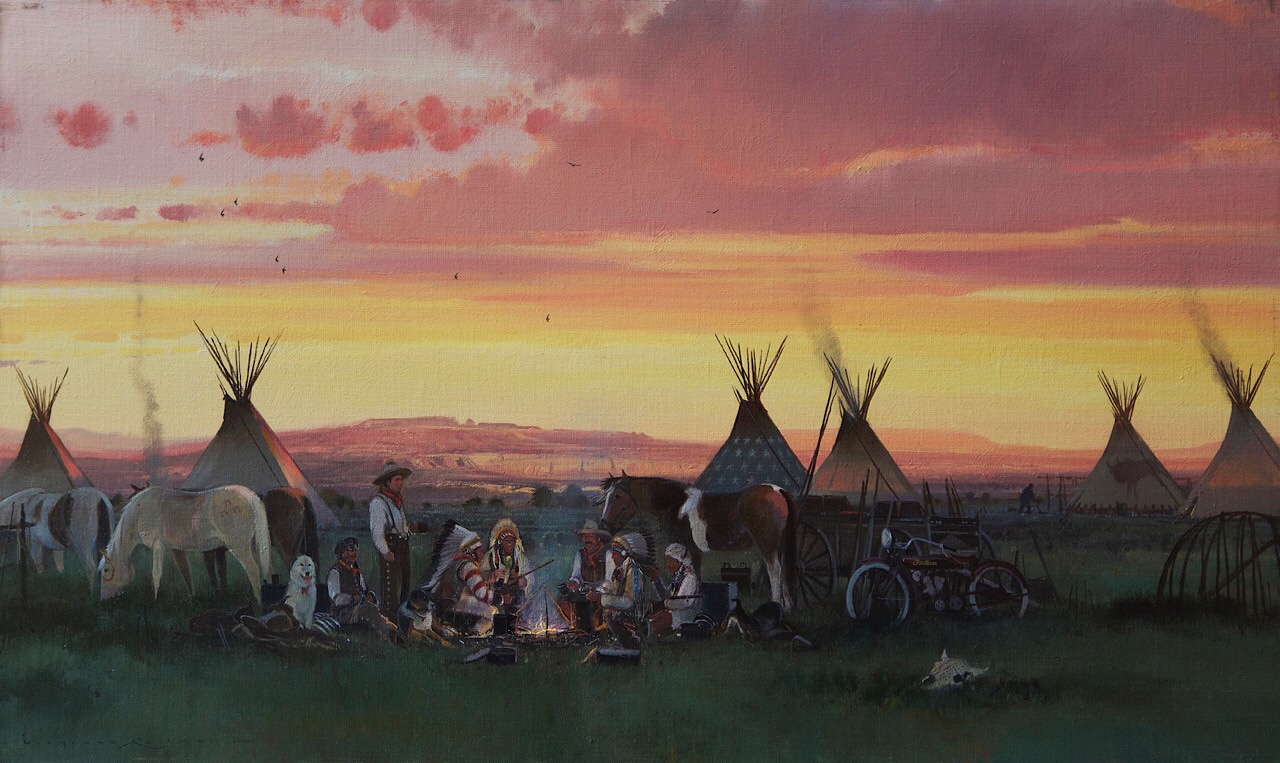 "An Old Meeting Place" by Nicholas Coleman[/caption]
Nicholas Coleman is an ultra-talented, hard-working artist based out of Provo, Utah, and he paints some of the most interesting and beautiful works I’ve ever seen. His primary subject matter is the American West, with a focus on landscapes, natural history, wildlife, Native American culture, and exploration. I came across Nick’s work on Instagram of all places—in the midst of the app’s thousands of images, noise, and distractions, one of Nick’s images boldly stood out from all the rest. It stood out so much that I wanted more, so I went to his website and was blown away by his work. The more I learned about Nick, the more impressed I became—he is a multifaceted individual with a fascinating back story.
Nick is not your stereotypical artist. He is a devoted hunter, fisherman, and trapper, and he’s also a voracious reader who probably knows more about western history than many college professors. He has a focused and disciplined approach to his art, working six days a week and never sitting around waiting to "get in the mood" to paint. With his deep love of art and the West, combined with his rock solid work ethic, it’s no surprise that he has been able to build a stellar reputation in the super-competitive and challenging world of professional art.
[caption id="attachment_1315" align="alignright" width="300"]
"An Old Meeting Place" by Nicholas Coleman[/caption]
Nicholas Coleman is an ultra-talented, hard-working artist based out of Provo, Utah, and he paints some of the most interesting and beautiful works I’ve ever seen. His primary subject matter is the American West, with a focus on landscapes, natural history, wildlife, Native American culture, and exploration. I came across Nick’s work on Instagram of all places—in the midst of the app’s thousands of images, noise, and distractions, one of Nick’s images boldly stood out from all the rest. It stood out so much that I wanted more, so I went to his website and was blown away by his work. The more I learned about Nick, the more impressed I became—he is a multifaceted individual with a fascinating back story.
Nick is not your stereotypical artist. He is a devoted hunter, fisherman, and trapper, and he’s also a voracious reader who probably knows more about western history than many college professors. He has a focused and disciplined approach to his art, working six days a week and never sitting around waiting to "get in the mood" to paint. With his deep love of art and the West, combined with his rock solid work ethic, it’s no surprise that he has been able to build a stellar reputation in the super-competitive and challenging world of professional art.
[caption id="attachment_1315" align="alignright" width="300"]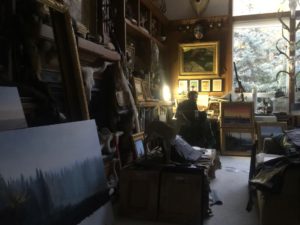 Nicholas in his studio[/caption]
I could’ve talked to Nick for hours, because so many of his interests overlap with mine. We did manage to dig into the details of his art and artistic process. We chatted about his international travels to South America, Africa, and New Zealand, as well as his thoughts on how those adventures have influenced his life and work. We discussed his education as an artist, as well as his advice for those aspiring to make art a full-time career. We also talked a lot about Teddy Roosevelt, which is always fun. See below for the full list of topics covered.
Thanks to Nicholas Coleman for joining me on the podcast. I hope you enjoy!
All photos courtesy of Nicholas Coleman
Nicholas in his studio[/caption]
I could’ve talked to Nick for hours, because so many of his interests overlap with mine. We did manage to dig into the details of his art and artistic process. We chatted about his international travels to South America, Africa, and New Zealand, as well as his thoughts on how those adventures have influenced his life and work. We discussed his education as an artist, as well as his advice for those aspiring to make art a full-time career. We also talked a lot about Teddy Roosevelt, which is always fun. See below for the full list of topics covered.
Thanks to Nicholas Coleman for joining me on the podcast. I hope you enjoy!
All photos courtesy of Nicholas Coleman
Click Here to Download on iTunes
---
Click Here to Download on Stitcher
---
Click Here to Download on Google Play
---
[soundcloud url="https://api.soundcloud.com/tracks/276886589" params="color=ff5500&auto_play=false&hide_related=false&show_comments=true&show_user=true&show_reposts=false" width="100%" height="166" iframe="true" /]---
Episode Notes
Topics Covered- Nicholas Coleman Art
- Nicholas on Instagram
- Nicholas on Facebook
- Theodore Roosevelt
- The Naturalist: Theodore Roosevelt, A Lifetime of Exploration, and the Triumph of American Natural History by Darrin Lunde
- Carl Akeley
- An African Obsession: The Life and Legacy of Carl Akeley by Penelope Bodry-Sanders
- Michael Coleman (Nicholas’s father)
- War of Art: Winning the Inner Creative Battle by Stephen Pressfield
- Indian Y Stories by Frank B Linderman
- Crowfoot: Chief of the Blackfeet by Hugh A Dempsey
- Vital Ground
- Theodore Rex by Edmund Morris
- The Rise of Theodore Roosevelt by Edmund Morris
- Man Meets Gizzly by F.M. Young
- Death in Yellowstone: Accidents and Foolhardiness in the First National Park by Lee H Whittlesey
- National Geographic - Lewis and Clark - Great Journey West
- Wild Russia
- Maynard Dixon: Art and Spirit
- Long Way Round
- Yosemite National Park
- Adirondacks
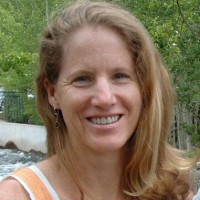 Ann Johnston[/caption]
Ann Johnston is Executive Director of the Crested Butte Land Trust (CBLT), a conservation organization that protects land in Crested Butte and Gunnison County, Colorado. Given the focused geographic area in which CBLT operates, Ann and her team must be creative and nimble, and they use a variety methods to protect a diverse array of landscapes, from large-acreage rural ranches to small in-town parcels. CBLT must also balance the competing priorities of Gunnison County’s various stakeholders—ranchers, hikers, bikers, skiers, businesses, and tourists, just to name a few. In an area of the West that is becoming more and more popular, CBLT’s work has never been more important.
I’ve long admired Ann’s ability to think outside the box and effectively execute her plans, so I was excited to get a chance to sit down with her in CBLT’s Crested Butte office. We had a fun conversation in which we discussed her personal connection to conservation, the challenges and opportunities of operating in such a tight-knit community, conservation success stories, specific methods for saving land, advice for aspiring conservationists, and much more-- see below for a full list of the topics we discussed. Enjoy!
Ann Johnston[/caption]
Ann Johnston is Executive Director of the Crested Butte Land Trust (CBLT), a conservation organization that protects land in Crested Butte and Gunnison County, Colorado. Given the focused geographic area in which CBLT operates, Ann and her team must be creative and nimble, and they use a variety methods to protect a diverse array of landscapes, from large-acreage rural ranches to small in-town parcels. CBLT must also balance the competing priorities of Gunnison County’s various stakeholders—ranchers, hikers, bikers, skiers, businesses, and tourists, just to name a few. In an area of the West that is becoming more and more popular, CBLT’s work has never been more important.
I’ve long admired Ann’s ability to think outside the box and effectively execute her plans, so I was excited to get a chance to sit down with her in CBLT’s Crested Butte office. We had a fun conversation in which we discussed her personal connection to conservation, the challenges and opportunities of operating in such a tight-knit community, conservation success stories, specific methods for saving land, advice for aspiring conservationists, and much more-- see below for a full list of the topics we discussed. Enjoy!
Click Here to Download on iTunes
---
Click Here to Download on Stitcher
---
[soundcloud url="https://api.soundcloud.com/tracks/274631127" params="color=ff5500&auto_play=false&hide_related=false&show_comments=true&show_user=true&show_reposts=false" width="100%" height="166" iframe="true" /]---
Episode Notes
Topics Covered- Peanut Lake conservation project
- Lower Loop
- Snodgrass Trailhead
- Elevation Outdoors Snodgrass article
- Ed’s Snodgrass Trailhead photos
- Promontory Ranch
- Great Outdoors Colorado (GOCO)
- Colorado conservation tax credits
- Colorado Coalition of Land Trusts (CCLT)
- Quiet: The Power of Introverts in a World That Can’t Stop Talking by Susan Cain
- The Time Traveler’s Wife by Audrey Niffenegger
- Author Nick Hornby
- 180 South
- Let My People Go Surfing: The Education of a Reluctant Businessman by Yvon Chouinard
- Ed’s list of documentaries
- 401 trail
- Oh Be Joyful trail
- Outside Magazine’s backstory on the captain of The Bounty
- CBLT calendars and gear
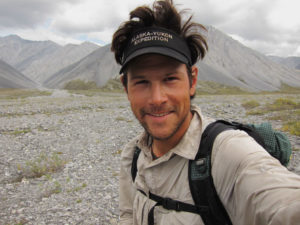 Andrew Skurka[/caption]
Andrew Skurka is a highly accomplished adventure athlete who is most well known for his long-distance solo backpacking trips, including the 4,700-mile Alaska-Yukon Expedition, the 6,875-mile Great Western Loop, and the 7,775-mile Sea-to-Sea Route. He has also completed countless fast and light trips throughout the Sierras, Wind River Range, Zion National Park, and Appalachian Trail, just to name a few. Andrew has been named "Adventurer of the Year" by both Outside Magazine and National Geographic Adventure, as well as "Person of the Year" by Backpacker Magazine.
Andrew is also a published author, having written The Ultimate Hiker’s Gear Guide: Tools & Tips to Hit the Trail, and he is close to finishing the manuscript for the book’s second edition. He also writes extensively on his personal blog, which is full of detailed, information-rich articles about backpacking, gear reviews, and other endurance-related content. On top of everything else, Andrew is a guide, speaker, and accomplished ultra-runner, having placed second in the Leadville 100 and third in the Run Rabbit Run 100. Just this past weekend (6/25/16), he placed fourth at the San Juan Solstice 50-Mile Trail Run, one of the most difficult 50-milers in the country.
[caption id="attachment_1249" align="alignright" width="300"]
Andrew Skurka[/caption]
Andrew Skurka is a highly accomplished adventure athlete who is most well known for his long-distance solo backpacking trips, including the 4,700-mile Alaska-Yukon Expedition, the 6,875-mile Great Western Loop, and the 7,775-mile Sea-to-Sea Route. He has also completed countless fast and light trips throughout the Sierras, Wind River Range, Zion National Park, and Appalachian Trail, just to name a few. Andrew has been named "Adventurer of the Year" by both Outside Magazine and National Geographic Adventure, as well as "Person of the Year" by Backpacker Magazine.
Andrew is also a published author, having written The Ultimate Hiker’s Gear Guide: Tools & Tips to Hit the Trail, and he is close to finishing the manuscript for the book’s second edition. He also writes extensively on his personal blog, which is full of detailed, information-rich articles about backpacking, gear reviews, and other endurance-related content. On top of everything else, Andrew is a guide, speaker, and accomplished ultra-runner, having placed second in the Leadville 100 and third in the Run Rabbit Run 100. Just this past weekend (6/25/16), he placed fourth at the San Juan Solstice 50-Mile Trail Run, one of the most difficult 50-milers in the country.
[caption id="attachment_1249" align="alignright" width="300"]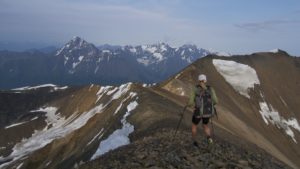 Andrew deep in the Arctic National Wildlife Refuge, Brooks Range, AK[/caption]
Andrew is a great guy, and we had a very fun conversation. We obviously talk a lot about many of his long-distance backpacking adventures, but we also dig into some of the mental and emotional aspects of traveling through such remote areas for long periods of time completely alone. We talk about his personal background and how he became interested in adventure sports, and also about his decision to forgo a traditional career in finance or consulting to carve out a career centered around the outdoors and adventure. As usual, I ask about his favorite books, favorite documentaries, and favorite locations in the West.
Thanks to Andrew for joining me, and thanks to you for listening to the podcast. Enjoy!
[caption id="attachment_1254" align="aligncenter" width="615"]
Andrew deep in the Arctic National Wildlife Refuge, Brooks Range, AK[/caption]
Andrew is a great guy, and we had a very fun conversation. We obviously talk a lot about many of his long-distance backpacking adventures, but we also dig into some of the mental and emotional aspects of traveling through such remote areas for long periods of time completely alone. We talk about his personal background and how he became interested in adventure sports, and also about his decision to forgo a traditional career in finance or consulting to carve out a career centered around the outdoors and adventure. As usual, I ask about his favorite books, favorite documentaries, and favorite locations in the West.
Thanks to Andrew for joining me, and thanks to you for listening to the podcast. Enjoy!
[caption id="attachment_1254" align="aligncenter" width="615"]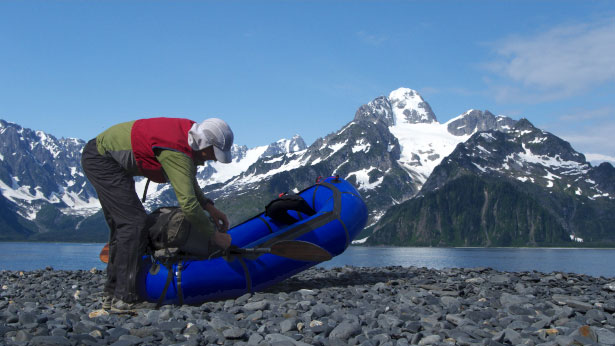 Andrew preparing his pack raft. Kenai Fjords National Park, AK[/caption]
All photographs courtesy of Andrew Skurka
Andrew preparing his pack raft. Kenai Fjords National Park, AK[/caption]
All photographs courtesy of Andrew Skurka
Click Here to Download on iTunes
---
Click Here to Download on Stitcher
---
[soundcloud url="https://api.soundcloud.com/tracks/271328225" params="color=ff5500&auto_play=false&hide_related=false&show_comments=true&show_user=true&show_reposts=false" width="100%" height="166" iframe="true" /]---
Episode Notes
Topics Covered- Andrew Skurka
- Alaska-Yukon Expedition
- Great Western Loop
- Sea-to-Sea Route
- Full list of Andrew’s adventures
- The Ultimate Hiker’s Gear Guide: Tools & Tips to Hit the Trail by Andrew Skurka
- Sierra Designs
- Tussocks
- Tribe: On Homecoming and Belonging by Sebastian Junger
- Duke University
- Camp Carolina
- Appalachian Trail (A.T.)
- 10,000 Hour Rule
- Wind River Range High Route Guide by Andrew Skurka
- Kings Canyon High Basin Route Guide by Andrew Skurka
- Leadville 100
- Run Rabbit Run 100
- San Juan Solstice 50 Mile Trail Run
- The Horizontal Everest: Extreme Journeys on Ellesmere Island by Jerry Kobalenko
- 30 For 30
- Steve Rattner’s blog
- High Country News
- Bedrock & Paradox
- Sierra Nevada Range
- Wind River Range
- Grand Staircase-Escalante National Monument
- Boulder's Skyline Traverse
 Jim Howell[/caption]
Jim Howell is the CEO of Grasslands LLC, which is the land management arm of the Savory Institute, an organization that Jim co-founded. Both Grasslands and Savory focus on conserving and restoring the world’s grasslands through what they call “Holistic Management.” We discuss the details of Holistic Managment in the interview, but the basic idea is that the world's grasses evolved to be grazed, and they need to be grazed in a natural manner to be healthy and resilient.
Jim and his team use livestock to mimic natural grazing patterns from hundreds of thousands of years ago, long before the world’s grasslands were covered with people, fences, houses, and cities. Savory and Grasslands' results speak for themselves—after just a few years of holistic managment, their ranches are measurably healthier, more productive, more biodiverse, and more financially successful.
Even if you have absolutely no interest in grazing or ranches, you still need to listen to this interview, because the work Jim and his team are doing has a positive effect on land, people, plants, animals, and communities all around the world. Anyone who considers themselves to be conservation-minded and loves the outdoors needs to understand Jim’s work. I have no doubt that you’ll gain a new appreciation for the role that livestock needs to play in conserving grasslands around the world. Even if you’re a vegan living in New York City, you’ll gain some valuable insights from Jim’s point of view.
Jim is also an experienced world traveler, an avid reader, and an author, having written one of the best books I’ve read on land and conservation in the West and beyond: For the Love of Land: Global Case Studies of Grazing in Nature's Image. And on top of all of that, he finds the time to run ultra-marathons and has completed some of the most challenging 50-mile trail races in Colorado.
Between Jim's professional and personal interests, we had a lot to discuss. It was a fun conversation filled with valuable information, so I hope you enjoy.
Jim Howell[/caption]
Jim Howell is the CEO of Grasslands LLC, which is the land management arm of the Savory Institute, an organization that Jim co-founded. Both Grasslands and Savory focus on conserving and restoring the world’s grasslands through what they call “Holistic Management.” We discuss the details of Holistic Managment in the interview, but the basic idea is that the world's grasses evolved to be grazed, and they need to be grazed in a natural manner to be healthy and resilient.
Jim and his team use livestock to mimic natural grazing patterns from hundreds of thousands of years ago, long before the world’s grasslands were covered with people, fences, houses, and cities. Savory and Grasslands' results speak for themselves—after just a few years of holistic managment, their ranches are measurably healthier, more productive, more biodiverse, and more financially successful.
Even if you have absolutely no interest in grazing or ranches, you still need to listen to this interview, because the work Jim and his team are doing has a positive effect on land, people, plants, animals, and communities all around the world. Anyone who considers themselves to be conservation-minded and loves the outdoors needs to understand Jim’s work. I have no doubt that you’ll gain a new appreciation for the role that livestock needs to play in conserving grasslands around the world. Even if you’re a vegan living in New York City, you’ll gain some valuable insights from Jim’s point of view.
Jim is also an experienced world traveler, an avid reader, and an author, having written one of the best books I’ve read on land and conservation in the West and beyond: For the Love of Land: Global Case Studies of Grazing in Nature's Image. And on top of all of that, he finds the time to run ultra-marathons and has completed some of the most challenging 50-mile trail races in Colorado.
Between Jim's professional and personal interests, we had a lot to discuss. It was a fun conversation filled with valuable information, so I hope you enjoy.
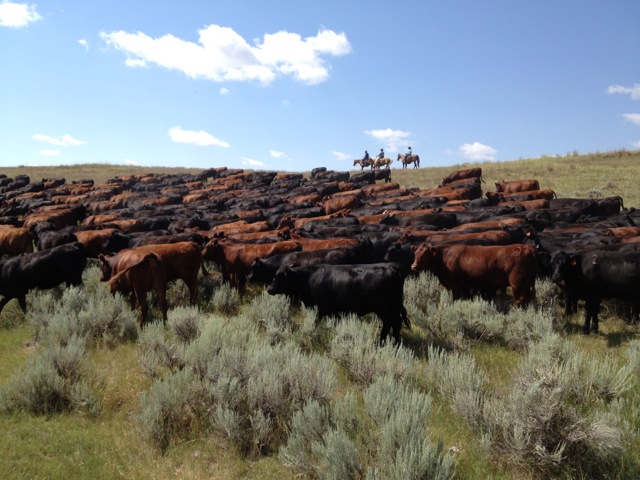 Jim and his team hard at work on the Cinch Buckle Ranch, near Broadus, MT[/caption]
Jim and his team hard at work on the Cinch Buckle Ranch, near Broadus, MT[/caption]
Click Here to Download on iTunes
---
Click Here to Download on Stitcher
---
Click Here to Download on Google Play
---
[soundcloud url="https://api.soundcloud.com/tracks/266137240" params="color=ff5500&auto_play=false&hide_related=false&show_comments=true&show_user=true&show_reposts=false" width="100%" height="166" iframe="true" /]---
Episode Notes
Topics Covered- Grasslands LLC
- Savory Institute
- For the Love of Land: Global Case Studies of Grazing in Nature’s Image by Jim Howell
- Holistic Managment: A New Framework for Decision Making by Allan Savory
- Born to Run: A Hidden Tribe, Superathletes, and the Greatest Race the World Has Never Seen by Christopher McDougall
- Knowledge Rich Ranching by Allan Nation
- Stockman Grass Farmer
- No Risk Ranching: Custom Grazing on Leased Land by Greg Judy
- Natural Born Heroes: How a Daring Band of Misfits Mastered the Lost Secrets of Strength and Endurance by Christopher McDougall
- Senna
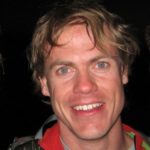 Brady Robinson[/caption]
[caption id="attachment_1143" align="alignright" width="300"]
Brady Robinson[/caption]
[caption id="attachment_1143" align="alignright" width="300"]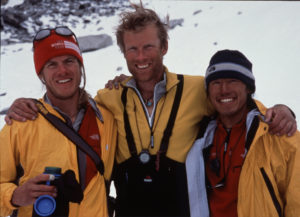 (L-R) Brady Robinson, Conrad Anker, Jimmy Chin after their 2001 K7 expedition[/caption]
Brady Robinson is the Executive Director of the Access Fund, a conservation and advocacy organization that helps to protect climbing areas throughout the United States. Despite being a relatively small non-profit, the Access Fund’s work has a broad ripple effect far beyond the climbing community and extends into areas of conservation, public lands policy, and general outdoor recreation, just to name a few. Under Brady’s leadership, the Access Fund has been incredibly effective, and as climbing becomes more popular, the its work will only become more important.
[caption id="attachment_1147" align="alignright" width="300"]
(L-R) Brady Robinson, Conrad Anker, Jimmy Chin after their 2001 K7 expedition[/caption]
Brady Robinson is the Executive Director of the Access Fund, a conservation and advocacy organization that helps to protect climbing areas throughout the United States. Despite being a relatively small non-profit, the Access Fund’s work has a broad ripple effect far beyond the climbing community and extends into areas of conservation, public lands policy, and general outdoor recreation, just to name a few. Under Brady’s leadership, the Access Fund has been incredibly effective, and as climbing becomes more popular, the its work will only become more important.
[caption id="attachment_1147" align="alignright" width="300"]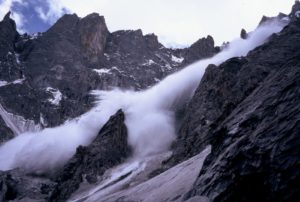 The avalanche that almost took Brady's life [33:50 in the podcast][/caption]Brady also has a seriously impressive outdoor resume—he was an instructor for both Outward Bound and the National Outdoor Leadership School (NOLS) and has done a number of large-scale expeditions throughout the Himalayas. He still finds time to push himself hard in climbing, mountain biking, and other adventures, while simultaneously leading the Access Fund and being a fully committed family man.
[caption id="attachment_1148" align="alignleft" width="202"]
The avalanche that almost took Brady's life [33:50 in the podcast][/caption]Brady also has a seriously impressive outdoor resume—he was an instructor for both Outward Bound and the National Outdoor Leadership School (NOLS) and has done a number of large-scale expeditions throughout the Himalayas. He still finds time to push himself hard in climbing, mountain biking, and other adventures, while simultaneously leading the Access Fund and being a fully committed family man.
[caption id="attachment_1148" align="alignleft" width="202"]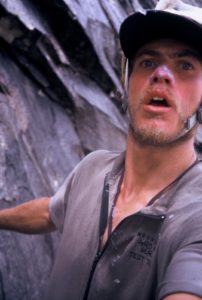 Just seconds after narrowly avoiding the avalanche [39:30 in the podcast][/caption]We had a fun conversation that covered a wide range of topics. We dig into the details of the Access Fund’s mission and methods, including why non-climbers should care about its work. We talk about Brady’s diverse career experience, and he tells a few crazy stories from his big-mountain expeditions with climbing partners such as Jimmy Chin and Conrad Anker. Brady also offers advice to young people who would like to pursue a career centered around the outdoors, conservation, or advocacy. [A full list of topics covered is below.]
Even if you’re not a climber, you’ll gain some solid insights from this interview, so I hope you enjoy.
All photos courtesy of Brady Robinson
Just seconds after narrowly avoiding the avalanche [39:30 in the podcast][/caption]We had a fun conversation that covered a wide range of topics. We dig into the details of the Access Fund’s mission and methods, including why non-climbers should care about its work. We talk about Brady’s diverse career experience, and he tells a few crazy stories from his big-mountain expeditions with climbing partners such as Jimmy Chin and Conrad Anker. Brady also offers advice to young people who would like to pursue a career centered around the outdoors, conservation, or advocacy. [A full list of topics covered is below.]
Even if you’re not a climber, you’ll gain some solid insights from this interview, so I hope you enjoy.
All photos courtesy of Brady Robinson
Click Here to Download on iTunes
---
Click Here to Download on Stitcher
---
[soundcloud url="https://api.soundcloud.com/tracks/265165784" params="color=ff5500&auto_play=false&hide_related=false&show_comments=true&show_user=true&show_reposts=false" width="100%" height="166" iframe="true" /]---
Episode Notes
Topics Covered- Brady Robinson
- The Access Fund
- Wilderness Act
- Devil’s Tower National Monument
- The Outdoor Alliance
- Land Trust Alliance
- Outdoor Industry Association
- Brady’s TED talk
- "The Solace of Vertical Places" by Brady Robinson
- Outward Bound
- National Outdoor Leadership School (NOLS)
- VIDEO: 2001 K7 Expedition with Conrad Anker and Jimmy Chin
- Jimmy Chin
- Conrad Anker
- Galen Rowell
- Alex Lowe
- Longs Peak Triathlon
- Mountain biking the Colorado Trail
- Jim Collins
- Good to Great for the Social Sectors by Jim Collins
- Memoirs of the Second World War by Winston Churchill
- The Fog of War
- More info on proposed public lands transfer via Outdoor Alliance
This episode is brought to you by Mountain Khakis. Rugged. Authentic. Reliable. Timeless. What started as a casual conversation at the Shady Lady Saloon in Jackson Hole, WY has become a top-performing mountain-inspired lifestyle apparel brand. Established in 2003, Mountain Khakis quickly became a staple in the wardrobe of everyone from ranch hands to golf pros, those who travel by jet, as well as those who travel by thumb. The Mountain Khakis brand story continues to resonate as it connects to the enthusiast who believes that freedom and rugged adventure is a way of life. Join the conversation @MountainKhakis and www.mountainkhakis.com
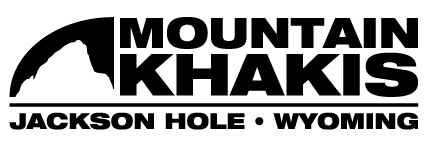
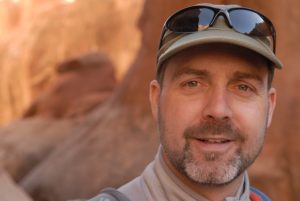 Lloyd Athearn[/caption]
Lloyd Athearn is the Executive Director of the Colorado Fourteeners Initiative (CFI), a non-profit organization whose mission is to protect and preserve the natural integrity of Colorado’s 14,000-foot peaks through active stewardship and public education. CFI's work includes building and maintaining trails, educating hikers and climbers on best practices in the high country, conserving the native alpine tundra ecosystem, and generally helping to ensure that these popular mountains are not inadvertently "loved to death" through overuse.
Much of Lloyd's career has centered around mountains, so we had a fun and wide-ranging conversation with topics including 14ers, climbing adventures, ecology, books, advice to first-time hikers, and plenty more. Lloyd is a super interesting guy who's doing very important work, so I hope you enjoy the conversation as much as I did!
Lloyd Athearn[/caption]
Lloyd Athearn is the Executive Director of the Colorado Fourteeners Initiative (CFI), a non-profit organization whose mission is to protect and preserve the natural integrity of Colorado’s 14,000-foot peaks through active stewardship and public education. CFI's work includes building and maintaining trails, educating hikers and climbers on best practices in the high country, conserving the native alpine tundra ecosystem, and generally helping to ensure that these popular mountains are not inadvertently "loved to death" through overuse.
Much of Lloyd's career has centered around mountains, so we had a fun and wide-ranging conversation with topics including 14ers, climbing adventures, ecology, books, advice to first-time hikers, and plenty more. Lloyd is a super interesting guy who's doing very important work, so I hope you enjoy the conversation as much as I did!
Click Here to Download on iTunes
---
Click Here to Download on Stitcher
---
[soundcloud url="https://api.soundcloud.com/tracks/262876018" params="color=ff5500&auto_play=false&hide_related=false&show_comments=true&show_user=true&show_reposts=false" width="100%" height="166" iframe="true" /]---
This episode is brought to you by Mountain Khakis. Rugged. Authentic. Reliable. Timeless. What started as a casual conversation at the Shady Lady Saloon in Jackson Hole, WY has become a top-performing mountain-inspired lifestyle apparel brand. Established in 2003, Mountain Khakis quickly became a staple in the wardrobe of everyone from ranch hands to golf pros, those who travel by jet, as well as those who travel by thumb. The Mountain Khakis brand story continues to resonate as it connects to the enthusiast who believes that freedom and rugged adventure is a way of life. Join the conversation @MountainKhakis and www.mountainkhakis.com

Episode Notes
Topics Covered- Colorado Fourteeners Initiative (CFI)
- CFI - Facebook
- CFI - Youtube
- CFI - Instagram
- CFI - Twitter
- 14ers.com
- Trail Inventory Example: Capitol Peak
- CFI Partner - REI
- CFI Partner - Osprey
- Cielo Vista Ranch / Culebra Peak
- American Alpine Club
- Astoria: John Jacob Astor and Thomas Jefferson's Lost Pacific Empire: A Story of Wealth, Ambition, and Survival by Peter Stark
- Antartica - A Year on Ice
- Tuolumne Meadows
- Leave No Trace
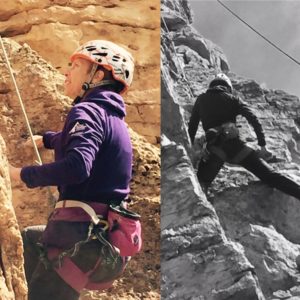 Connie Sciolino[/caption]
Connie Sciolino is the owner and head coach at The Alpine Training Center in Boulder, Colorado. The ATC is a no-frills gym on the outskirts of town that helps outdoor athletes become better skiers, climbers, runners, and bikers through strength training. Connie trains everyone from professional athletes to weekend warriors, including one of the climbers in the hit mountaineering documentary, Meru.
The workouts are grueling, both physically and mentally. But her clients' results speak for themselves—committed athletes leave the gym stronger, tougher, more resistant to injury, and better equipped to tackle the challenges of the high mountains. Thanks to her diverse collection of educational, professional, athletic, and outdoor experiences, Connie is setting a new standard for training for mountain-focused sports.
Connie Sciolino[/caption]
Connie Sciolino is the owner and head coach at The Alpine Training Center in Boulder, Colorado. The ATC is a no-frills gym on the outskirts of town that helps outdoor athletes become better skiers, climbers, runners, and bikers through strength training. Connie trains everyone from professional athletes to weekend warriors, including one of the climbers in the hit mountaineering documentary, Meru.
The workouts are grueling, both physically and mentally. But her clients' results speak for themselves—committed athletes leave the gym stronger, tougher, more resistant to injury, and better equipped to tackle the challenges of the high mountains. Thanks to her diverse collection of educational, professional, athletic, and outdoor experiences, Connie is setting a new standard for training for mountain-focused sports.
Click Here to Download on iTunes
---
Click Here to Download on Stitcher
---
[soundcloud url="https://api.soundcloud.com/tracks/261441627" params="color=ff5500&auto_play=false&hide_related=false&show_comments=true&show_user=true&show_reposts=false" width="100%" height="166" iframe="true" /]---
This episode is brought to you by Mountain Khakis. Rugged. Authentic. Reliable. Timeless. What started as a casual conversation at the Shady Lady Saloon in Jackson Hole, WY has become a top-performing mountain-inspired lifestyle apparel brand. Established in 2003, Mountain Khakis quickly became a staple in the wardrobe of everyone from ranch hands to golf pros, those who travel by jet, as well as those who travel by thumb. The Mountain Khakis brand story continues to resonate as it connects to the enthusiast who believes that freedom and rugged adventure is a way of life. Join the conversation @MountainKhakis and www.mountainkhakis.com

Episode Notes
Topics Covered- The Alpine Training Center
- ATC - Facebook
- ATC - Instagram
- Mountain Athlete
- Sandbag Getups
- Curtis Ps
- Exum Guides
- The Grand Traverse
- Gym Jones
- Meru
- Training for the New Alpinism: A Manual for the Climber as Athlete by Steve House
- Beyond the Mountain by Steve House
- Excellent Yosemite Videos
- Valley Uprising - Yosemite’s Rock Climbing Revolution
- The Access Fund
Click Here to Download on iTunes
---
Click Here to Download on Stitcher
---
[soundcloud url="https://api.soundcloud.com/tracks/260447574" params="color=ff5500&auto_play=false&hide_related=false&show_comments=true&show_user=true&show_reposts=false" width="100%" height="166" iframe="true" /]---
This episode is brought to you by Mountain Khakis. Rugged. Authentic. Reliable. Timeless. What started as a casual conversation at the Shady Lady Saloon in Jackson Hole, WY has become a top-performing mountain-inspired lifestyle apparel brand. Established in 2003, Mountain Khakis quickly became a staple in the wardrobe of everyone from ranch hands to golf pros, those who travel by jet, as well as those who travel by thumb. The Mountain Khakis brand story continues to resonate as it connects to the enthusiast who believes that freedom and rugged adventure is a way of life. Join the conversation @MountainKhakis and www.mountainkhakis.com

Episode Notes
Topics Covered- Ponderosa Advisors
- Water Sage
- Upper Arkansas River Valley
- Mount Princeton
- The Emerald Mile: The Epic Story of the Fastest Ride in History Through the Heart of the Grand Canyon by Kevin Fedarko
- Colorado Water Law for Non-Lawyers by P. Andrew Jones
- Cadillac Desert: The American West and its Disappearing Water by Marc Reisner
- The Grapes of Wrath and East of Eden by John Steinbeck
- 30 for 30
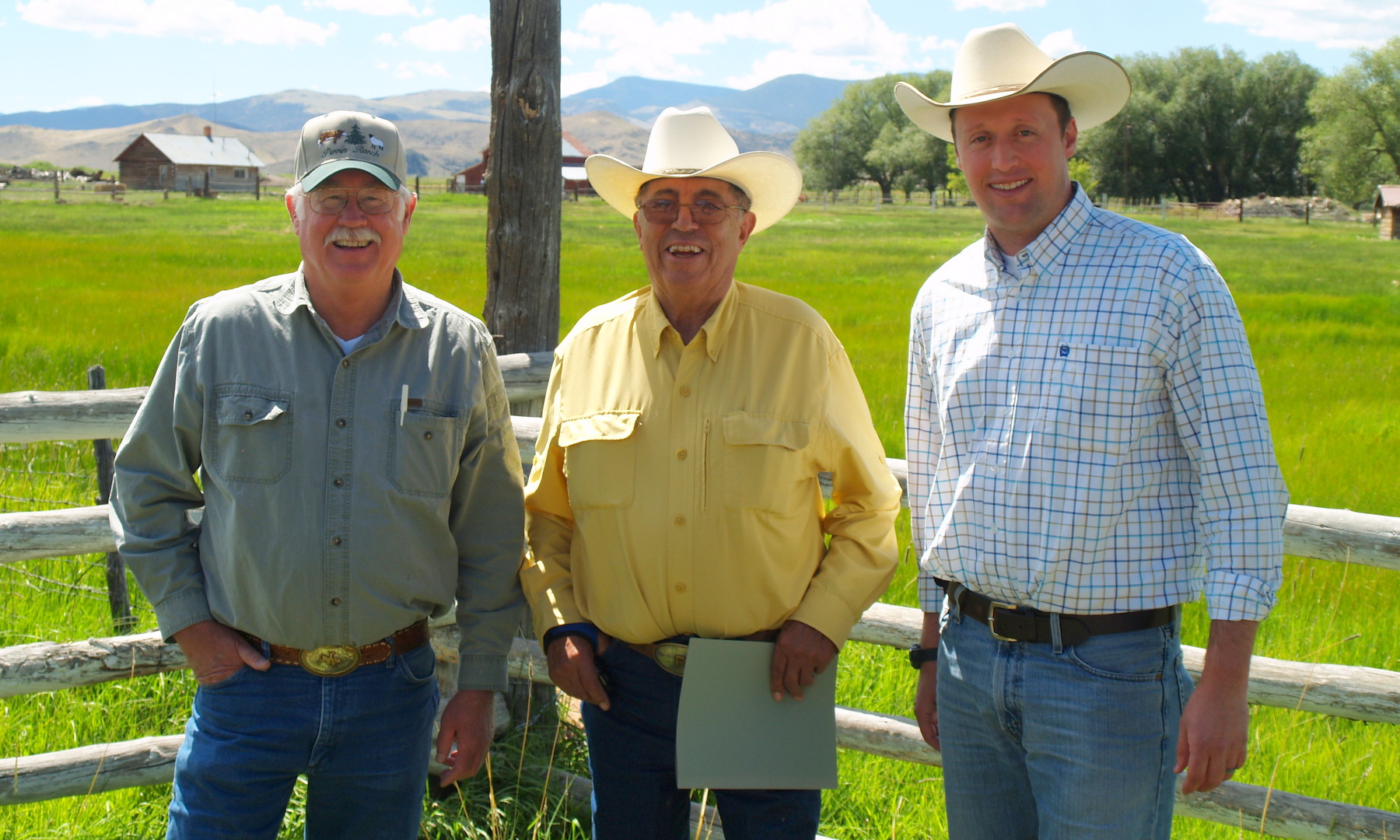 Erik Glenn (far right) with two Colorado ranchers.[/caption]
Erik was the perfect first guest for the podcast, so I hope you enjoy the conversation as much as I did!
Erik Glenn (far right) with two Colorado ranchers.[/caption]
Erik was the perfect first guest for the podcast, so I hope you enjoy the conversation as much as I did!
Click Here to Download on iTunes
---
Click Here to Download on Stitcher
---
[soundcloud url="https://api.soundcloud.com/tracks/260296821" params="color=ff5500&auto_play=false&hide_related=false&show_comments=true&show_user=true&show_reposts=false" width="100%" height="166" iframe="true" /]---
This episode is brought to you by Mountain Khakis. Rugged. Authentic. Reliable. Timeless. What started as a casual conversation at the Shady Lady Saloon in Jackson Hole, WY has become a top-performing mountain-inspired lifestyle apparel brand. Established in 2003, Mountain Khakis quickly became a staple in the wardrobe of everyone from ranch hands to golf pros, those who travel by jet, as well as those who travel by thumb. The Mountain Khakis brand story continues to resonate as it connects to the enthusiast who believes that freedom and rugged adventure is a way of life. Join the conversation @MountainKhakis and www.mountainkhakis.com

Episode Notes
Topics Covered- Colorado Cattlemen’s Agricultural Land Trust
- Colorado Cattlemen’s Association
- The Worst Hard Time: The Untold Story of Those Who Survived the Great American Dust Bowl by Timothy Egan
- For the Love of Land: Global Case Studies of Grazing in Nature’s Image by Jim Howell
- Responsible Grazing - The Foundation of A Healthy Ranch Ecosystem by Ed Roberson
- Great Outdoors Colorado ("GOCO")
- Lessons from an Anti-Boomer by Ed Roberson
- Video on the Greater Sage Grouse conservation effort
- River of Doubt: Theodore Roosevelt’s Darkest Journey by Candice Millard
- Atlas Shrugged by Ayn Rand
- How to Win Friends and Influence People by Dale Carnegie
- Unbranded
- Nothing Daunted: The Unexpected Education of Two Society Girls in the West by Dorothy Wickenden
- Forever Colorado
Praise for Mountain & Prairie
“A treasure trove of insight on the American West, discussion of conservation, ranching, outdoor sports, art, literature, and more, in a way that would make Teddy Roosevelt proud.”
“I often times find myself listening to episodes multiple times, each time gaining more knowledge.”
“My Favorite Podcast EVER!”
“Every time I listen to one it makes me want to pick up, head west, and immerse myself in the conservation movement protecting our wide open spaces and wildlife.”
“Ed’s passion for the outdoors shines in every episode.”
“It is evident that Ed cares deeply about the American West, its history, and issues pertaining to the conservation and prosperity of the West.”
“I’m a city guy that has never experienced much of “the west” or the mountains. This podcast brings both to me. Kudos to the creativity displayed in creating this podcast and the perseverance to see it through.”
“Absolutely fantastic. So wonderful to find this podcast.”
“Ed does a great job of bringing on genuinely interesting folks… I’ve learned a ton from Ed’s guests and can’t wait to hear more!”
“If you enjoy ranching, wildlife, conservation, history, or anything else pertaining to the western world, you will likely enjoy the Mountain and Prairie Podcast. It’s also a great source of information pertaining to leadership, health, and just plain good living.”
“Outstanding Podcast! Thank you for taking the time to get these stories out into the world.”
“Phenomenal. Where has this podcast been! Man I’ve been missing out, I’m looking forward to the weeks ahead of catch up!”
“This podcast has given me a much deeper understanding of the West and an appreciation for some of the interesting people working to make it a better place.”
“I’ve learned so much about the region by listening to these conversations. And the book recommendations… so many great titles I would have otherwise missed out on.”
“Very informative and well done… Great to see the diversity of western characters and their passions.”
“You always learn something new, and appreciate the complexity and passion that is present in the story of today’s West.”
“Ed’s choice of thought-provoking guests coupled with his questioning skills, set this podcast apart. As a lover of story telling and the west, his work is spot on!”
“There is not a bunch of gabble and useless jibber jabber with this podcast. I love the people Ed interviews, along with the stories and values they discuss during the podcast.”
“Incredibly beautiful podcast full of ground truth and genuine human connection.”
“Ed’s podcast has quickly become one of my favorites. It seems he shares his listeners’ genuine curiosity about & love for the West, & his interviews are better for it.”
“Best podcast being recorded right now.”
“OUR FAVORITE PODCAST: Ed Roberson knows the West, loves the Land & the Books it inspires.”
“Ed has done a fantastic job with this podcast, from the variety of interesting people he has on it, the range of topics/subjects he covers, and he ALSO makes sure that the site also has info on books and resources as a follow up.”
“I love this podcast. Ed is gracious, smart, and asks the BEST questions!”
“It’s refreshing to find someone willing to talk about western issues/history/planning without a heavy handed political or ideological doctrine creeping in to taint any real original thought, luckily this podcast is open minded and realistic while genuinely working out just how we might leave things better than we found them.”
“Great guests, great questions, great resource recommendations.”
“If you have any connection with the West, this podcast will make your heart swell. If you have no connection to the West, prepare to be indoctrinated.”
“This podcast is a great outlet for a quick mountain fix… No podcast has ever made me want to quit my desk job more than this one.”
“It is one of the most educational, informative, and entertaining podcasts on iTunes… If I had my own podcast, I honestly don’t think it would be much different than Mountain & Prairie!”
“This is my new favorite podcast! It features thoughtful and authentic conversations with fascinating people of the west! I’m always learning something new!”
“Ed does a great job in asking valuable questions and catering to his listeners’ interests. If you love the West, conservation, outdoor recreation in any capacity, or just listening to a great conversation – give this podcast a listen!”
“If you love history, adventure, travel, the American West, or just hearing from amazing and interesting people then you’ll find so much here to enjoy.”
“Excellent podcast, interesting guests and life stories, and the host is a great interviewer.”
“It’s like being a kid on Christmas morning every time I listen to an episode!”
“In a world that can be so polarized, this podcast is a great way to learn other viewpoints and experiences. Plus great book recommendations!!”
“Ed kills it!!! The recordings are always clear, the interviews are in-depth, the questions are insightful, and he always does a great job of staying out the subject’s way.”
“This podcast is a treasure. Thanks to Ed for providing a platform to the folks working for the spirit of the American West.”
“Ed Roberson’s relaxed and natural style turns interviews into conversations that harken fireside chats, fence post meetings and artist open studios.”
“Always thought provoking and level-headed conversations with people doing meaningful work.”
“These interviews are awesome for anyone interested in the outdoors and conservation throughout the West.”
“This podcast is not only hugely enlightening on both contemporary issues like public lands and the historical context of the West, but also… provides insight into that particular western beauty and the peculiar magic discovered by those who are drawn to it.”
“Fascinating and well told! Love the region and the presentation! Well done!”
“Ed gets the cream of the crop people from across the West and does a great job drawing out fascinating information from them.”
“This podcast is downright awesome. Ed does an amazing job of introducing a varied group of smart, inspirational and dedicated people of the American West. Genuine, honest and the BEST book recommendations to boot!”
“Ed > Swayze”
“As soon as I see a new episode drop I make time to listen as soon as possible…. Ed’s interview style is so insightful and welcoming. Afterwards I’m always inspired to work hard to do more to help conserve the American West!”
“Ed does such an amazing job with this show, and has a wide variety of personalities, artists. conservationists, and just plain interesting people. He is always prepared ahead of time with poignant questions, which eliminates the side babble that a lot of shows have.”
“Interviews are both educational and entertaining. Outstanding work Ed!”
“For this who love conservation, books, and the American West. These conversations settle a ruminating mind and make you take stock of your impact on the world around you. My reading list has grown a mile long, and each episode leaves me with a hunger to do more, see more, and take better care of the land.”
“You don’t have to love the west or life in the west to enjoy this!… has introduced me to such interesting ideas and people thinking those ideas.”
“Interesting, eclectic, classy”
“I like Ed’s passion and interviewing style and I’m a big fan of the book recommendations and book club. Great guests as well. Nicely done, Ed!”
“A heartfelt deep dive into the American West.”
“What do you get when you combine disarming Southern charm & a cavernous love the West? Ed Roberson, y’all. His interviews are a joy for anyone curious about America’s enigmatic frontier. He keeps the conversation informal but packed with info, and it’s clear he’s just as stocked as his listeners to snack up everything about this special part of the world & the passionate people working to protect it.”
“Utterly enjoyable! …Intelligent and humorous– well done!”
“THE Podcast of the American West”
“Ed helps provide a wide variety of ideas and issues that face the American West and how to best address the issues. Plus the book recommendations are great!”
“I appreciate Ed, a fellow North Carolinian, and his enduring interest in every facet of life, land, conservation, politics, and art in the Western US.”
“If you listen to Outside, Dirtbag Diaries, or Meateater Podcasts you will love this one!”
“Where else would you get these great interviews with modern day Western Pioneers? Nowhere else but right here.”
“Mountain and Prairie has connected me to some great people who I admire, and draw great inspiration from. I tell all my friends about Mountain and Prairie. and they are becoming listeners too.”
“A man obsessed with the west talking with those who have written its stories, those who embody its spirit or those shaping its future. A great listen.”
“[Ed] manages to strike that rare balance for a podcast host– engaging and well-informed, without being annoying or talking over his guests.”
“I just adore Ed! I don’t know how he does it but Ed is such a kind, engaging and genuine interviewer, that I can’t wait for each episode to come out.”
“Ed is a treasure, a bright and intelligent yet humble interviewer that brings out the best in his guests. His open-mindedness and genuine enthusiasm for learning and ideas are infectious.”
“Absolutely love the book recommendations and how Ed asks his guests for recommended reading.”
“Outstanding podcast, with great insight and perspective on life and living.”
“Honest and insightful conversations about a lovely and nuanced place.”
“Every episode is worth a listen. Ed is a great interviewer and (even more important) is a great listener. He always draws out something worthwhile and interesting from his guests.”
“10/10”
“The Mountain & Prairie podcast is always a go-to! Thanks for creating something great, Ed!”
“Although I live as far east almost as you can get in the US, I love hearing about all the interesting folks doing amazing things out west.”
“Maestro of Podcasting”
“I am most impressed with his laid-back, inquisitive style of interviewing. It resembles a true art form– allowing each guest to craft a unique story and perspective through leading questions and insights.”
“This podcast is my spirit animal.”
“Ed does a great job keeping the interviews interesting, engaging, and just the right length.
“Definitely recommend this for anyone interested in the future of the West.”
“Ed does a great job keeping the interviews interesting, engaging, and just the right length.”
“His passion radiates through the speakers, and you can’t help but feel like you’ve been a friend of his for years.”
“It’s a true gem in the world of podcasts!”
“Beautiful storytelling that makes you feel good. 5 stars!”
“Great West, Great Host, Great Ideas”
“I learn something new every time and feel inspired to take steps in my community to help bring about changes that are so essential to a sustainable life in the west.”
“If you love the West you don’t want to miss this!”
“I am full, hopeful and so happy after listening. Incredible stories, great book recommendations, introductions to new adventures… and a great community involved all around.”
“I live in New York City but love the West and the way your podcast plunges me into it. By highlighting these heroines and heroes of wilderness and their unfolding stories this podcast spotlights how connected we all are—to land, and to each other.”
“These stories and their work is the best of American spirit, and a vision of its future. And please keep asking that favorite books question. The library is growing. Heartward, my friend.”
“The world is a better place because of your podcast, Ed.”
“I love Ed’s down to earth demeanor that really gets his guests to open up and share.”
“Love this podcast. It’s incredibly informative and inspiring”
“If you are interested, curious, or concerned about the West and the western way of life, I urge you to check it out.”
“Nice to hear an inquisitive and intellegent individual interviewing the important people who manage our western lands.”
“I have been so inspired by many of the people he has had on the show and my book list has grown out of control since I started listening.”
“Thanks Ed, for always bringing in great content with mighty fine people.”
“I was born and raised in the city (Los Angeles) and dream of/am curious about the country and this podcast is my little window in a world I never knew how to get myself into and I’m so grateful for it.”
“I love the stories and backgrounds of the people interviewed. It makes me feel not as crazy to be currently pursuing a career in Montana… Thanks for being awesome Ed!”
“By far my favorite podcast!”
“I’m a conservation and history of the American West junkie and this is hands down my favorite podcast.”
“I’ve grown up with a fascination with how stories unfold in hte arid American West. Great series.”
“As someone living in the east but in love with public lands everything the west represents, I just want to say keep up the great work!”
“I have never felt the need to write a review on anything, but really do appreciate you taking the time to make this podcast happen… also, great book recs!!”
“In our polarized political world, it’s not easy to find common ground. If there’s any hope for compromise it might just happen in the world of public land conservation and preservation. When hunters, anglers, and erudite advocates come together, there’s a chance we can bridge our differences. Love this podcast and Ed’s book recommendations”
“Best Guests in the West”
—
All compliments above quoted from Apple Podcasts reviews and social media.
Want to leave your own review? Head over to Apple Podcasts and chime in!
